 CARL DENNIS
CARL DENNIS
Publication of TriQuarterly is made possible in part by the donors of gifts and grants to the magazine. For their recent and continuing support, we are pleased to thank the Illinois Arts Council, the Lannan Foundation, the John D. and Catherine T. MacArthur Foundation, the National Endowment for the Arts, the Chicago Community Trust, and individual donors.
TriQuarterly also thanks the following recent donors and life subscribers: Walter Adams Simon). Blattner, ) r, Louise Blosten
Mr. and Mrs. H. Bernard Firestone C. Dwight Foster
Mr. and Mrs. David C. Hilliard
Charles T. Martin
Mr. and Mrs. Andrew McNally
Michal Miller
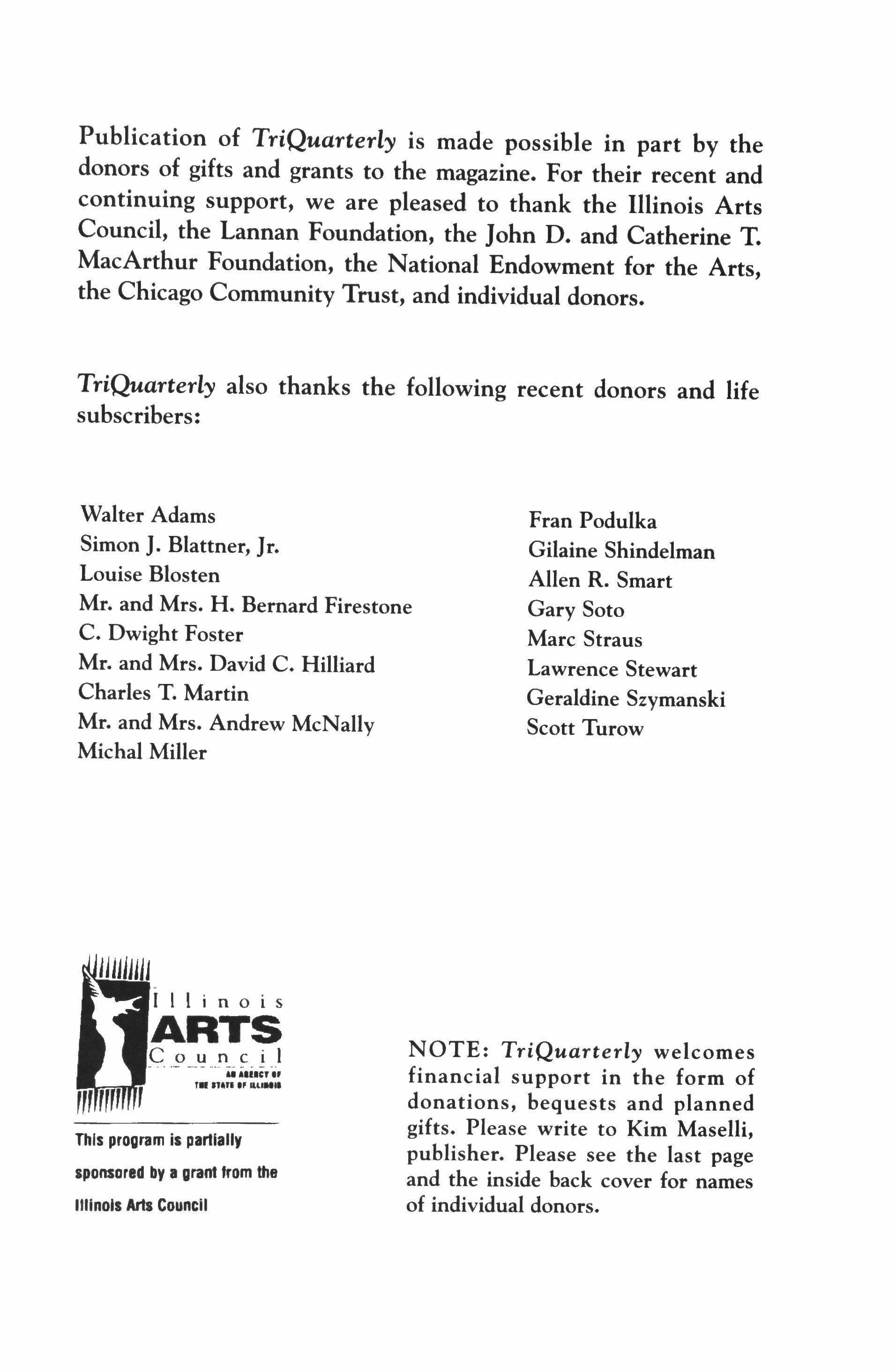
Fran Podulka
Gilaine Shindelman
Allen R. Smart
Gary Soto
Marc Straus
Lawrence Stewart
Geraldine Szymanski
Scott Turow
NOTE: TriQuarterly welcomes financial support in the form of donations, bequests and planned gifts. Please write to Kim Maselli, publisher. Please see the last page and the inside back cover for names of individual donors.
III nois ARTS � .9_� n_.�.iJ "alll"" _n.nIPIU
This program is partially sponsored by a grant from the Illinois ArIa Council
1997 BOOKS AND BACKLIST
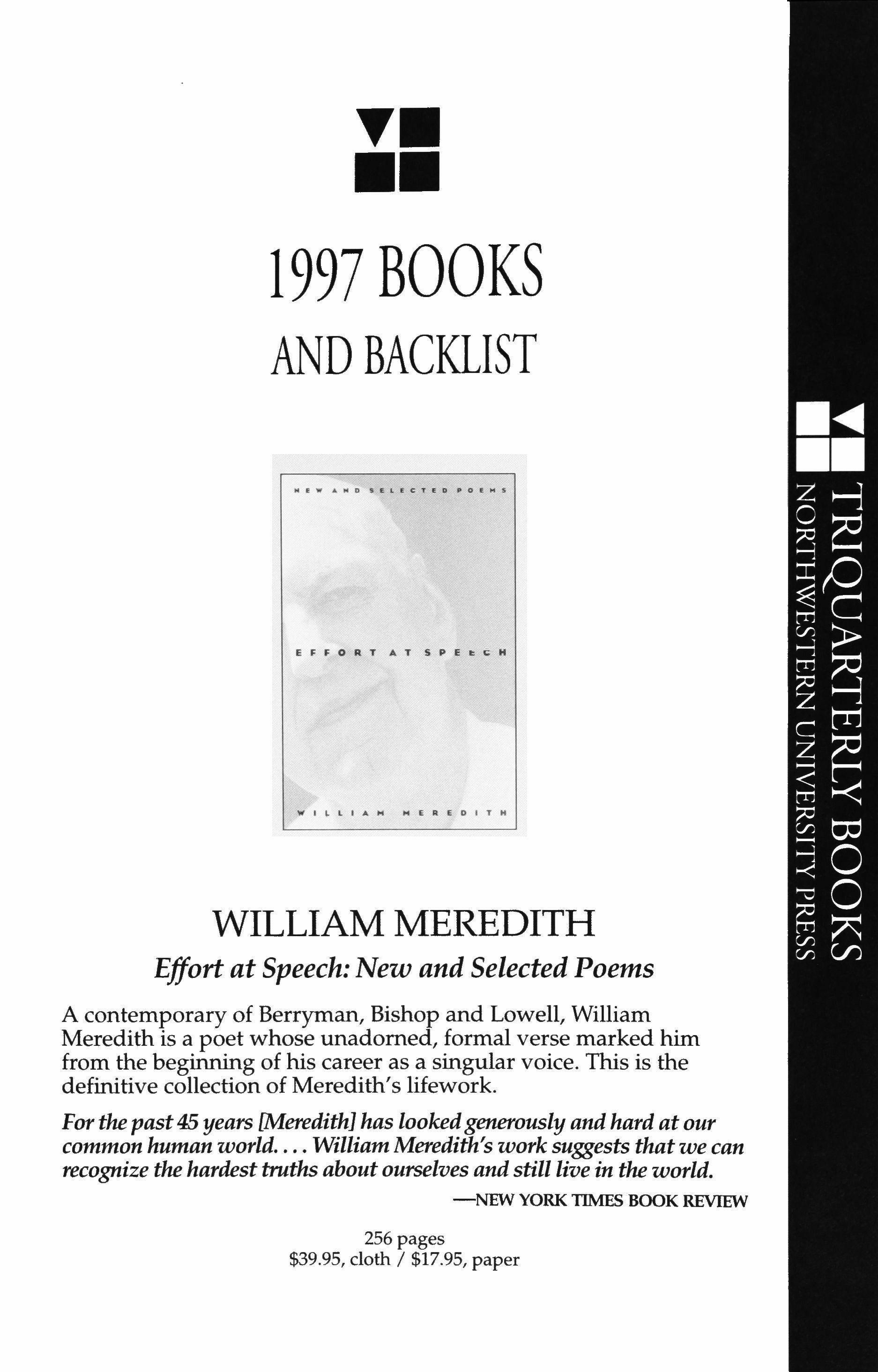
WILLIAM MEREDITH
Effort at Speech: New and Selected Poems
A contemporary of Berryman, Bishop and Lowell, William Meredith is a poet whose unadorned, formal verse marked him from the beginning of his career as a singular voice. This is the definitive collection of Meredith's lifework.
For the past45 years [Meredith] has lookedgenerously and hard at our common human world William Meredith's work suggests that we can recognize the hardest truths about ourselves and still live in the world. -NEW YORK TIMES BOOK REVIEW
256 pages $39.95, cloth / $17.95, paper
EFFORT AT SPEIt:i;H WI LI EAEDITK
ANGELA JACKSON
And All These Roads Be Luminous: Selected Poems
Drawing from earlier works contained in the chapbooks VooDoo/LaveMagic, The Greenville Club, Solo in the Boxcar Third Floor E and TheMan with the White Liver, this selection of AngelaJackson's poetry is filled with an impressive variety of characters engaged in compelling explorations of identity, creativity, spiritualexperience, and the rites and rituals of race and sexuality. Jackson's ear is keen; her memory of traditions is crystal clear.
---FEM1NlST BOOKSTORE NEWS
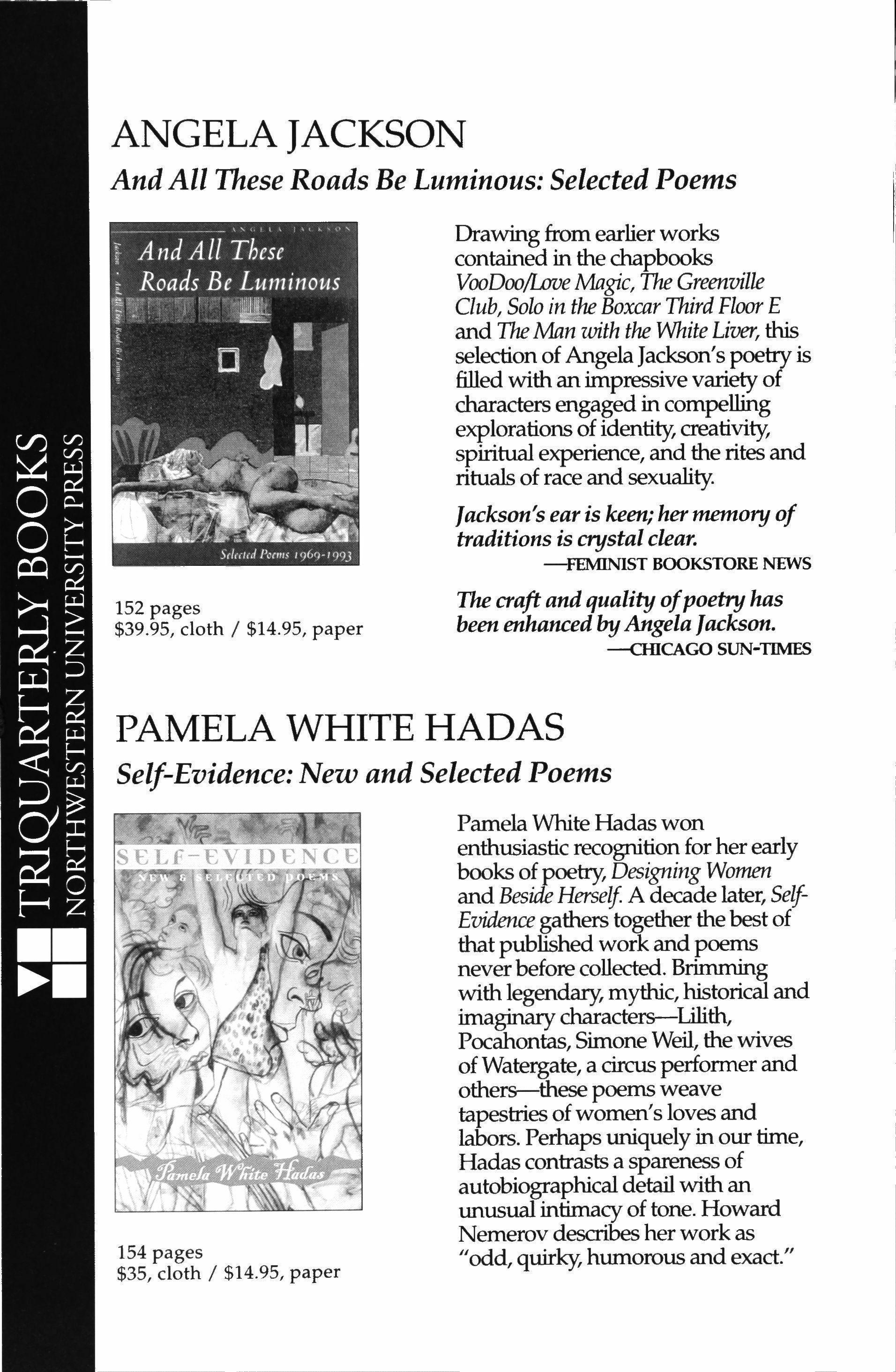
152 pages $39.95, cloth / $14.95, paper
The craft and quality ofpoetry has been enhanced byAngelaJackson.
--cmCAGO SUN-TIMES
PAMELA WHITE HADAS
Self-Evidence: New and Selected Poems
154 pages $35, cloth / $14.95, paper
Pamela White Hadas won enthusiastic recognition for her early books ofpoetry, Designing Women and Beside Herself. A decade later, SelfEvidence gatherstogether thebest of that published work and poems never before collected. Brimming with legendary,mythic, historical and imaginary characters-Lilith, Pocahontas, Simone Weil, the wives ofWatergate, a circus performer and others--these poems weave tapestries ofwomen's loves and labors. Perhaps uniquely in our time, Hadas contrasts a spareness of autobiographical detail with an unusual intimacy of tone. Howard Nemerov describes her work as /Iodd, quirky, humorous and exact."
JACQUELINE DOUGAN JACKSON
Storiesfrom the Round Bam
In an inimitable voice,Jacqueline DouganJacksonbraids together stories, anecdotes, history and even veterinary science in a series of dramatic episodes vividlyevoking life on a WlSCOnsin dairy farm. As Jackson recreates the texture and tone of farm life, larger themes emerge: the constant balancingbetween material life and spirit, the quest for humane values within a hard world of business and labor, the difficult lessons ofchildhood. A fascinating mixture ofbiography, oral history and creative nonfiction, Storiesfrom the Round Barn is movingproof that "everything, in all directions, in all dimensions, is bound together."
JOHNNY PAYNE
Kentuckiana: A Novel
Set in a decidedlypostmodem Appalachia, Kentuckiana focuses on the lives of the Miles family. Invented by a real-estate developer who is authoring a report on the neighborhoodshe has created, the imaginary Mileses and their neighborspopulate his subdivision in Lexington,Kentucky. Once presented, the real-estate developer'S creations take on life and speak in their own voices. This is a metafictional romp through one of the most hilarious, fascinating and dysfunctionalneighborhoods in all of recent fiction.
300 pages / $24.95, cloth
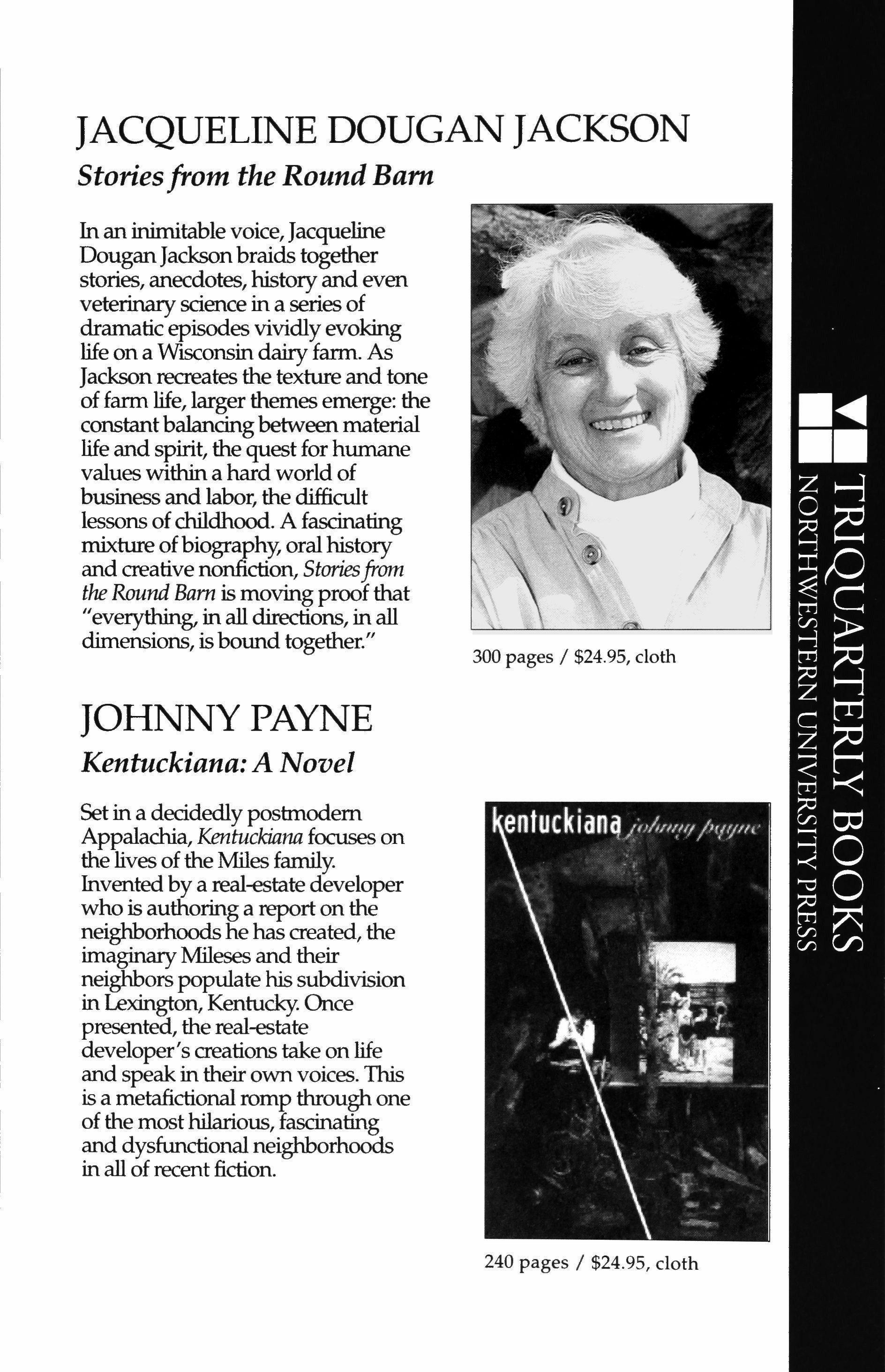
240 pages / $24.95, cloth
The Lava ofThis Land: South African Poetry 1960-1996
EDITED BY DENIS HIRSON
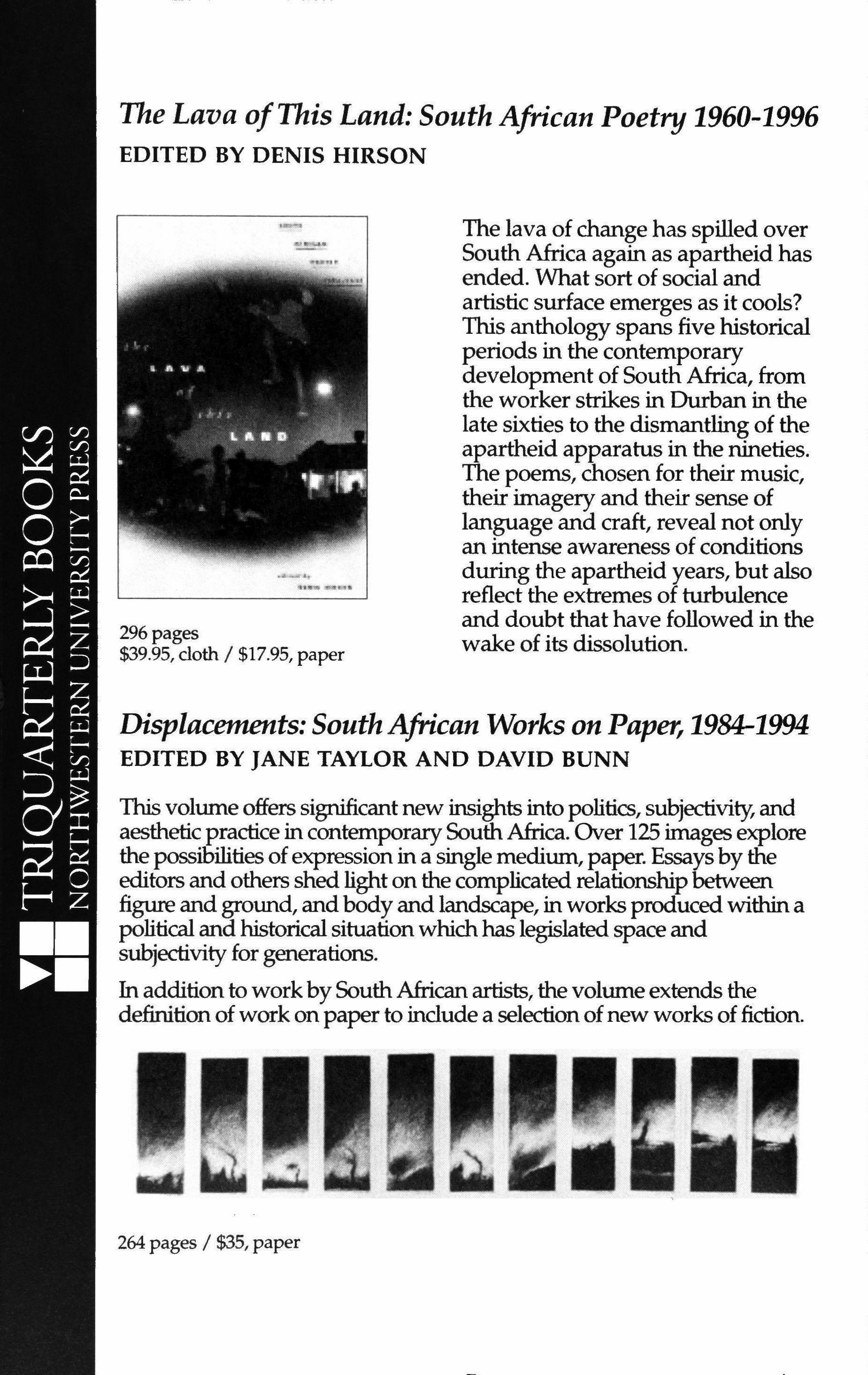
296 pages $39.95, cloth / $17.95, paper
The lava of change has spilled over South Africa again as apartheid has ended. What sort of social and artistic surface emerges as it cools? This anthology spans five historical periods in the contemporary development of South Africa, from the worker strikes in Durban in the late sixties to the dismantling of the apartheid apparatus in the nineties. The poems, chosen for their music, their imagery and their sense of language and craft, reveal not only an intense awareness of conditions during the apartheid years, but also reflect the extremes of turbulence and doubt that have followed in the wake of its dissolution.
Displacements: SouthAfrican Works on Paper, 1984-1994
EDITED BY JANE TAYLOR AND DAVID BUNN
This volume offers significant new insights into politics,subjectivity, and aesthetic practice in contemporary South Africa. Over 125 imagesexplore the possibilities ofexpression in a single medium, paper. Essaysby the editors and others shed light on the complicated relationship between figure and ground, and body and landscape, in works produced within a political and historical situation which has legislated space and subjectivity for generations.
In addition to workby South African artists, the volume extends the definition of work on paper to include a selection of new works offiction.
264 pages / $35, paper
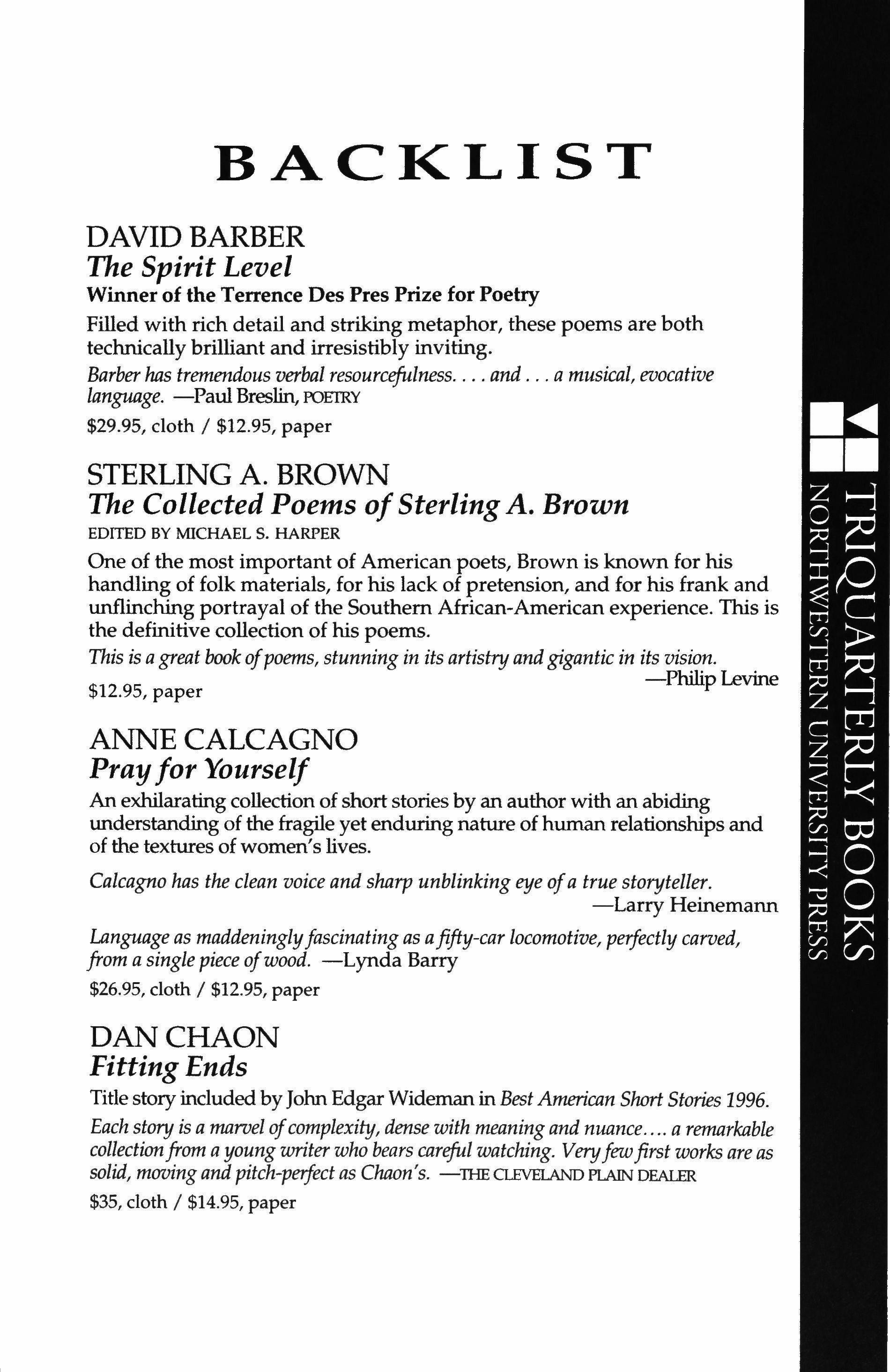
BACKLIST
DAVID BARBER
The Spirit Level
Winner of the Terrence Des Pres Prize for Poetry
Filled with rich detail and striking metaphor, these poems are both technically brilliant and irresistibly inviting. Barber hils tremendous verbal resourcefulness and a musical, evocative language. -Paul Breslin, roEIRY
$29.95, cloth / $12.95, paper
STERLING A. BROWN
The Collected Poems ofSterling A. Brown
EDITED BY MICHAEL S. HARPER
One of the most important of American poets, Brown is known for his handling of folk materials, for his lack of pretension, and for his frank and unflinching portrayal of the Southern African-American experience. This is the definitive collection of his poems.
This is a great book ofpoems, stunning in its artistry andgigantic in its vision. -Phili Levine
$12.95, paper p
ANNE CALCAGNO
Prayfor Yourself
An exhilarating collection of short stories by an author with an abiding understanding of the fragile yet enduring nature of human relationships and of the textures of women's lives.
Calcagno has the clean voice and sharp unblinking eye ofa true storyteller. -Larry Heinemann
Language as maddeninglyfascinating as afifty-car locomotive, perfectly carved, from a single piece ofwood. -Lynda Barry
$26.95, cloth / $12.95, paper
DANCHAON Fitting Ends
Title story included byJohn Edgar Wideman in Best American Short Stories 1996. Each story is a marvel ofcomplexity, dense with meaning and nuance a remarkable collectionfrom a young writer who bears carefulwatching. Veryfewfirst works are as solid, moving and pitch-perfect as Chaon's. -mE CLEVELAND PLAIN DEALER
$35, cloth / $14.95, paper
CYRUS COLTER
The Beach Umbrella and Other Stories
Setmostly on Chicago's South Side, these eighteen stories describe ordinary people whose lives are transformed by small acts of chance or will. From depictions of the black middle class to the dank and dirty tenements of the lonely city, Colter's sharp, spare prose etches perceptiveportraits of people who endure and overcome the most severe threats to their spirits.
Cyrus Colter tackles epic themes as though they were wild horses-and he tames them. -Studs Terkel
$14.95, paper
A Chocolate Soldier
Colter's crowning work, this novel tells the tale of an unlikely friendship which transcends boundaries and circumstances in pre-civil-rights America. This powerful writer should win the attention ofevery serious reader offiction.
--SATURDAY REVIEW

$14.95, paper
The Hippodrome
In the tradition ofhisfictional ancestors, Dostoevskyand Faulkner, [Colter]has produced a work which uses the world ofeverydayreality in a manner beyond the scope ofjournalism or sociology-as an entree to the soul. -James Park Sloan, CHICAGO SUN-TIMES
$13.95, paper
w. S. DI PIERO Shadows Burning
In its intense preoccupation with change and thefrailtyofwhatever continuities ofmemory and imagination we deoise to order the unorderable, [Shadows Burning] makes an important contribution to American poetry. -Alan Shapiro
$29.95, cloth / $12.95, paper
Shooting the Works: On Poetry and Pictures
Elegant tributes to the intersection of art and self, Di Piero's essays are an autobiographical testing of ideas deeply akin to Witold Gombrowicz's diaries. Di Piero's taste and judgments are refreshingly idiosyncratic, hisframe ofreference broad. -PUBLISHERS WEEKLY
$29.95, cloth / $14.95, paper
CAROL FROST
Pure
A fierce, passionate series of meditations on experience and consciousness, morals and customs, and the natural world.
Through her patient dissection ofthe mysteries ofnature, [Frost] comes to conclusions that leave us with a prophetic sense ofdarkness.
-PUBLISHERS WEEKLY
$26.95, cloth / $10.95, paper
Venus and Don Juan
Poems that evoke the complexities of identity, love, and other moral and emotional states.
Frost has an uncanny ability to disassociatefrom and observe emotion transforming her observations into shimmering and haunting images.
-LIBRARY JOURNAL

$29.95, cloth / $11.95, paper
EUGENE GARBER
The Historian
Winner of the 1992 William Goyen Prizefor Fiction
Eugene Garber, castinghimselfas both Herodotus and Ned Buntline, has elevated American history in the second halfofthe nineteenth century to thegrandeurofa legend about a mighty civilization ofthousands ofyears ago. -Kurt Vonnegut
$14.95, paper
FICTION OF THE EIGHTIES
EDITED BY REGINALD GffiBONS AND SUSAN HAHN
For contemporaryfiction [Fiction of the Eighties] is a standard-bearer The multiplicity and depth ofthefictional lives here are astonishing wisdom and wildness ofwriters too numerous to thank. -PUBLISHERS WEEKLY
$26.95, cloth /$16.95, paper
TRIQUARTERLY NEW WRITERS
EDITED BY REGINALD GIBBONS AND SUSAN HAHN
With fiction and poetry from ten new writers who have won recognition only in literary magazines, this unique anthology presents the best of new voices discovered through TriQuarterly magazine and TriQuarterly Books.
$39.95, cloth /$14.95, paper
NEW WRITING FROM MEXICO
EDITED BY REGINALD GIBBONS
A carefully chosen sampling of the most vigorous and exciting new short fiction, poetry and essays being written in Mexico today. Gibbons has been guided by a healthy eclecticism and a sense offreshness and authenticity ofconception and execution. -HARVARD REVIEW
$15, paper
DIANE GLANCY
Monkey
Secret
[Glancy's] work brims with American lndian characters who teeter precariously on the border that separates time-honored customsfrom stark new realities [Her] latest collection ofshortfictionfeels like an anthologyofsmall, perfectly realized moments. -NEW YORK TIMES BOOK REVIEW
$19.95, cloth
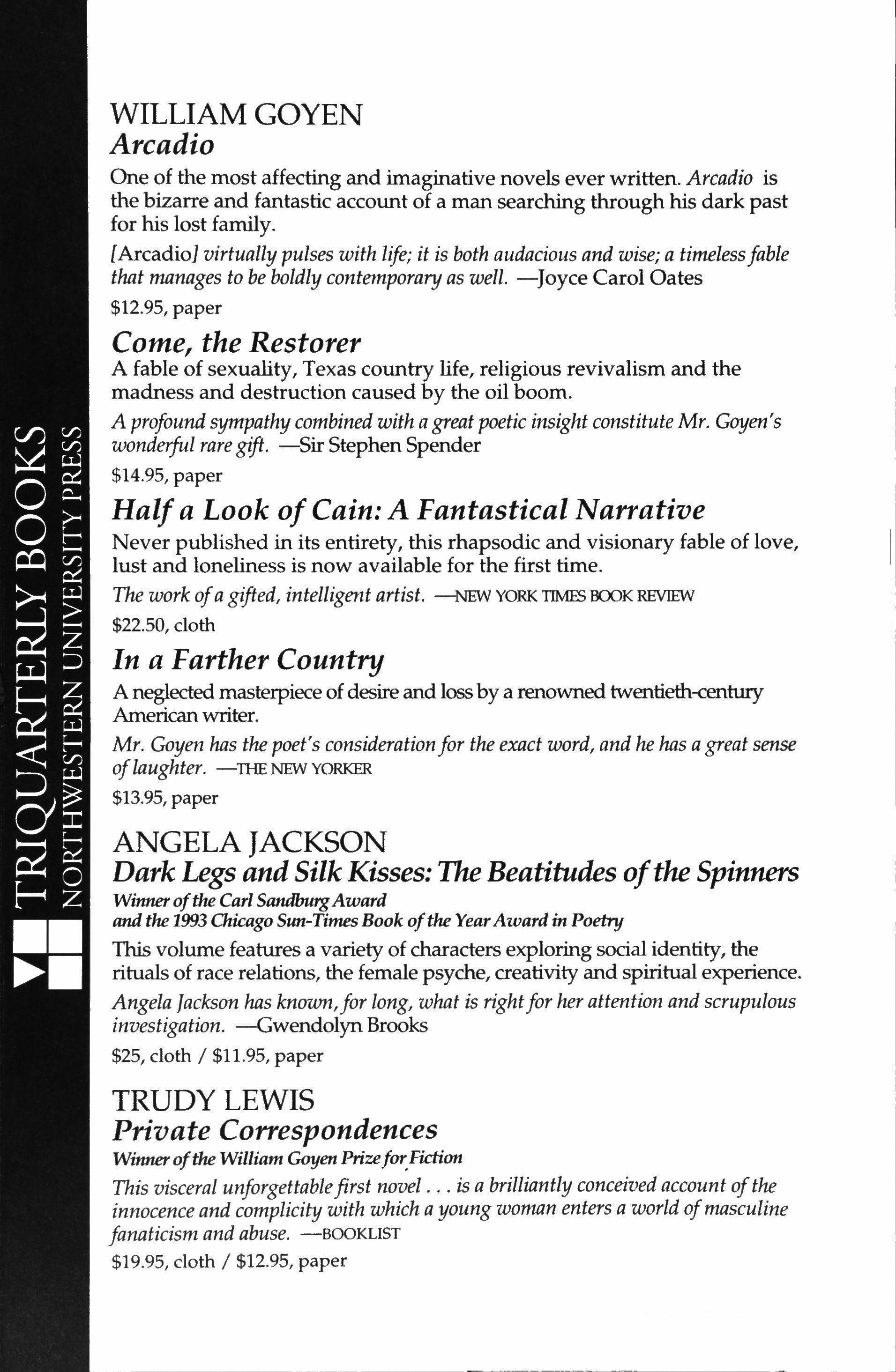
WILLIAM GOYEN
Arcadio
One of the most affecting and imaginative novels ever written. Arcadio is the bizarre and fantastic account of a man searching through his dark past for his lost family.
[Arcadio} virtuallypulses with life; it is both audacious and wise; a timelessfable that manages to be boldly contemporary as well. -Joyce Carol Oates
$12.95, paper
Come, the Restorer
A fable of sexuality, Texas country life, religious revivalism and the madness and destruction caused by the oil boom.
A profoundsympathy combined with a great poetic insight constitute Mr. Goyen's wonderful rare gift. -Sir Stephen Spender
$14.95, paper
Half a Look of Cain: A Fantastical Narrative
Never published in its entirety, this rhapsodic and visionary fable of love, lust and loneliness is now available for the first time.
The work ofa gifted, intelligent artist. -NEW YORK TIMFS soox REVIEW
$22.50, cloth
In a Farther Country
A neglectedmasterpiece of desire and loss by a renowned twentieth-century American writer.
Mr. Goyen has the poet's considerationfor the exact word, and he has a great sense oflaughter. -lHENEWYORKER
$13.95, paper
ANGELA JACKSON
Dark Legs and Silk Kisses: The Beatitudes ofthe Spinners
Winner ofthe Carl SandburgAward and the 1993 Chicago Sun-Times Book ofthe YearAward in Poetry
This volume features a variety of characters exploring social identity, the rituals of race relations, the female psyche, creativity and spiritual experience. Angela Jackson has known,for long, what is rightfor her attention and scrupulous investigation. -Gwendolyn Brooks
$25, cloth / $11.95, paper
TRUDY LEWIS
Private Correspondences
Winnerofthe William Goyen Prizefor,Fiction
This visceral unforgettablefirst novel is a brilliantly conceived account ofthe innocence and complicity with which a young woman enters a world ofmasculine fanaticism and abuse. -BOOKLIST
$19.95, cloth / $12.95, paper
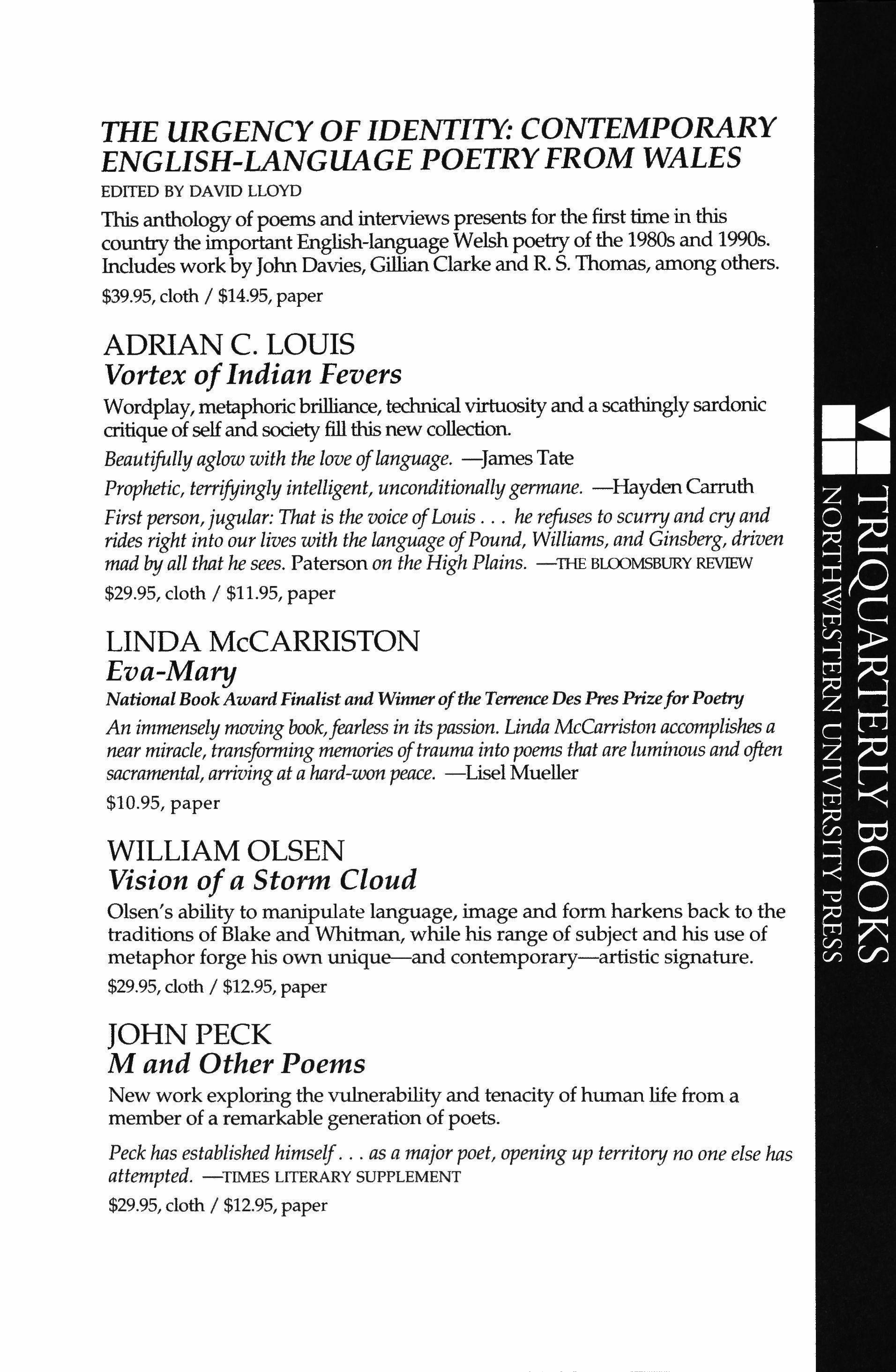
THE URGENCY OF IDENTITY: CONTEMPORARY ENGLISH-LANGUAGE POETRYFROM WALES
EDITED BY DAVlD LLOYD
This anthology of poems and interviews presents for the first time in this country the importantEnglish-language Welsh poetry of the 19805 and 19905. Includes workbyJohn Davies, Gillian Clarke and R. S. Thomas, among others.
$39.95, cloth / $14.95, paper
ADRIAN C. LOUIS
Vortex ofIndian Fevers
Wordplay,metaphoricbrilliance, technical virtuosity and a scathingly sardonic critique ofself and society fill this new collection.
Beautifullyaglow with the love oflanguage. -James Tate
Prophetic, terrifyingly intelligent, unconditionallygermane. -Hayden Carruth
First person,jugular: That is the voice ofLouis he refuses to scurry and cry and rides right into our lives with the languageofPound, Williams, and Ginsberg, driven mad by all that he sees. Paterson on the High Plains. -lHE BLOOMSBURY REVIEW
$29.95, cloth / $11.95, paper
LINDA McCARRISTON
Eva-Mary
National Book Award Finalist and Winnerofthe Terrence Des Pres PrizeforPoetry
An immensely moving book,fearless in its passion. Linda McCarriston accomplishes a near miracle, transforming memories oftrauma into poems that are luminous and often sacramental, arriving at a hard-won peace. -Lisel Mueller
$10.95, paper
WILLIAM OLSEN
Vision of a Storm Cloud
Olsen's ability to manipulate language, image and form harkens back to the traditions of Blake and Whitman, while his range of subject and his use of metaphor forge his own unique-and contemporary-artistic signature.
$29.95, cloth / $12.95, paper
JOHN PECK
M and Other Poems
New work exploring the vulnerability and tenacity of human life from a member of a remarkable generation of poets.
Peck has established himself as a majorpoet, opening up territory no one else has attempted. -TIMES LITERARY SUPPLEMENT
$29.95, cloth / $12.95, paper
PETER READING
Ukulele Music • Perduta Gente
The first U.S. publication of the most controversial English poet of the age. Rarely has any poet found a way to address the most appalling and dispiriting aspects of life with such astonishing artistic virtuosity.
$26.95, cloth / $11.95, paper
MURIEL RUKEYSER Out of Silence: Selected Poems
EDITED BY KATE DANIELS
Thefirstofour women poets to enterand engage the Western tradition ofprophetic outrage, she wanned it with the living voices ofthe injured. And in heractivism and gellerosity, rukeyser was as good as her word. -Eleanor Wilner
ThepublicationofOut of Silence is an event worthyofcelebration.
-lHE WOMEN'S REVIEW OF BCX)KS
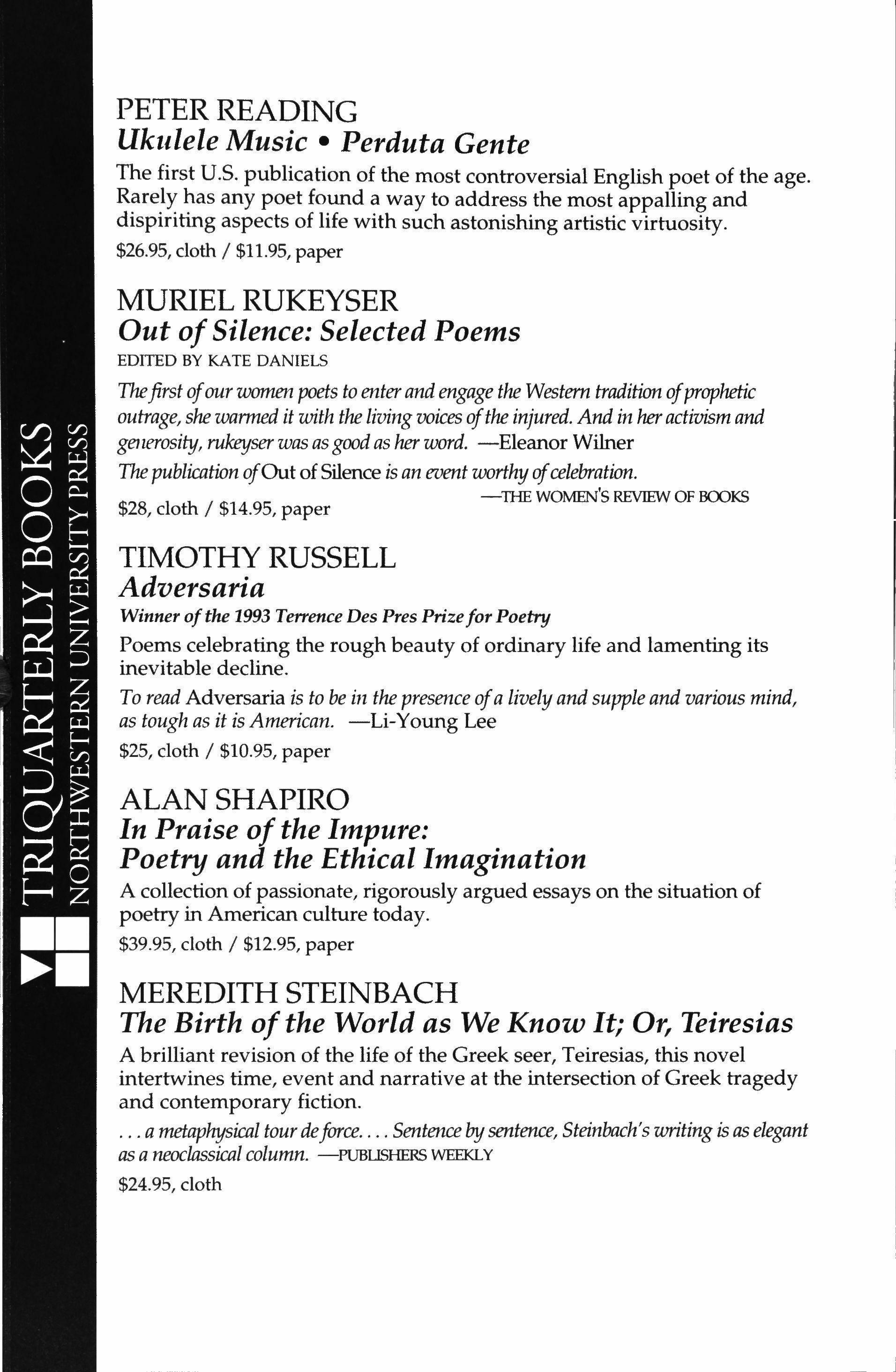
$28, cloth / $14.95, paper
TIMOTHY RUSSELL Adversaria
Winner ofthe 1993 Terrence Des Pres PrizeforPoetry Poems celebrating the rough beauty of ordinary life and lamenting its inevitable decline.
To read Adversaria is to be in the presence ofa lively and supple and various mind, as tough as it is American. -Li-Young Lee
$25, cloth / $10.95, paper
ALAN SHAPIRO
In Praise of the Impure: Poetry and the Ethical Imagination
A collection of passionate, rigorously argued essays on the situation of poetry in American culture today.
$39.95, cloth / $12.95, paper
MEREDITH STEINBACH
The Birth of the World as We Know It; Or, Teiresias
A brilliant revision of the life of the Greek seer, Teiresias, this novel intertwines time, event and narrative at the intersection of Greek tragedy and contemporary fiction a metaphysical tour deforce Sentence by sentence, Steinbach's writing is as elegant as a neoclassical column. -PUBUSHERS WEEI<LY
$24.95, cloth
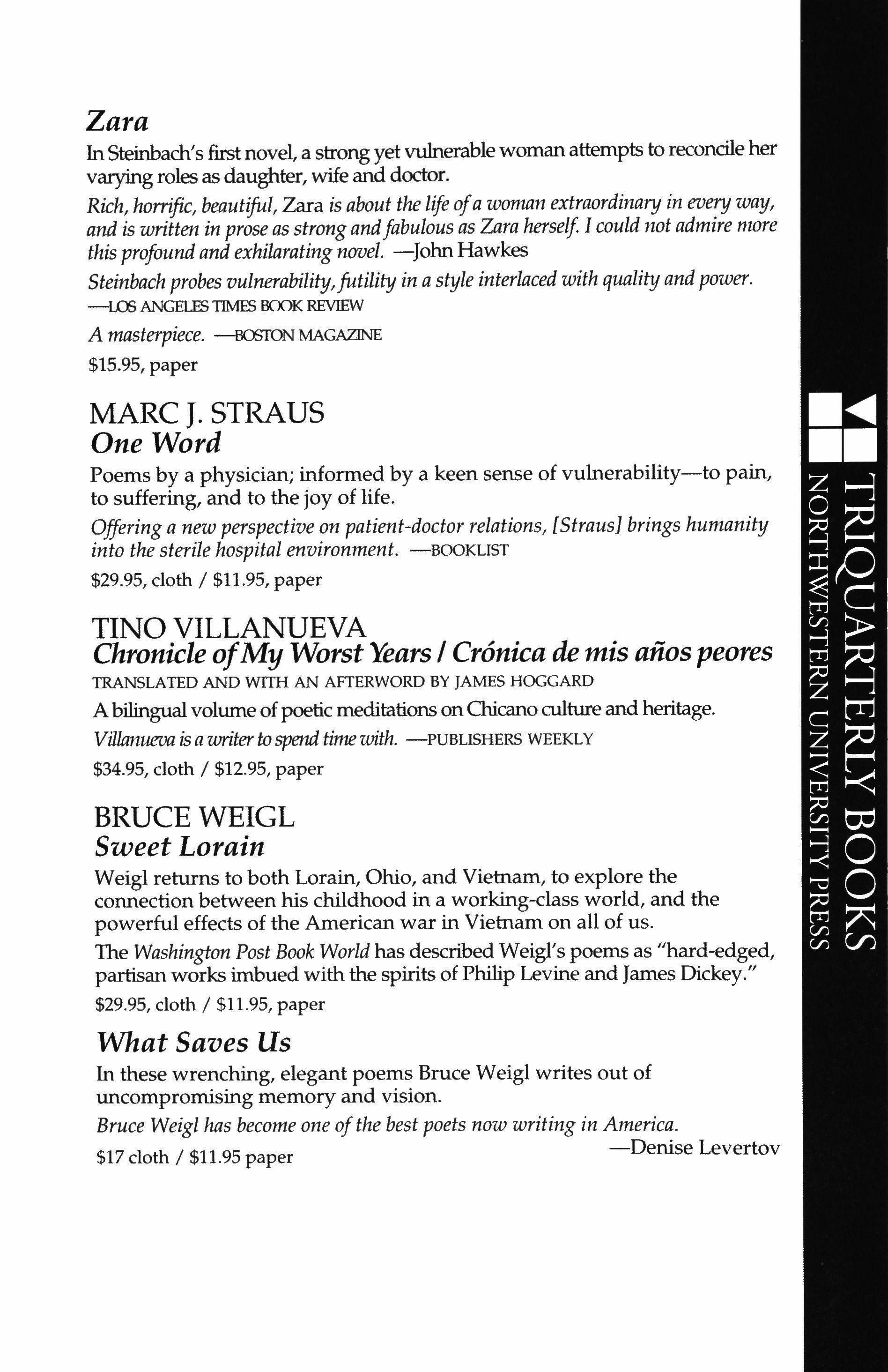
Zara
In Steinbach's firstnovel, a strong yet vulnerable woman attempts to reconcile her varying roles as daughter, wife and doctor.
Rich, horrific, beautiful, Zara is about the lifeofa woman extraordinary in every way, and is written in prose as strong andfabulous as Zara herself. I could not admire more this profound and exhilarating novel. -John Hawkes
Steinbach probes vulnerability,futility in a style interlaced with quality and power.
----LC6 ANGELES TIMES BOOK REVIEW
A masterpiece. -BOSTON MAGAZINE
$15.95, paper
MARC J. STRAUS
One Word
Poems by a physician; informed by a keen sense of vulnerability-to pain, to suffering, and to the joy of life.
Offering a new perspective on patient-doctor relations, [Straus] brings humanity into the sterile hospital environment. -BOOKLIST
$29.95, cloth / $11.95, paper
TINO VILLANUEVA
Chronicle ofMy Worst Years I Cronica de mis alios peores
TRANSLATED AND WITH AN AFTERWORD BY JAMES HOGGARD
Abilingual volume ofpoetic meditations on Chicano culture and heritage. Villanueva is a writer to spend time with. -PUBLISHERS WEEKLY
$34.95, cloth I $12.95, paper
BRUCE WEIGL
Sweet Lorain
Weigl returns to both Lorain, Ohio, and Vietnam, to explore the connection between his childhood in a working-class world, and the powerful effects of the American war in Vietnam on all of us.
The Washington Post Book World has described Weigl's poems as "hard-edged, partisan works imbued with the spirits of Philip Levine and James Dickey."
$29.95, cloth I $11.95, paper
What Saves Us
In these wrenching, elegant poems Bruce Weigl writes out of uncompromising memory and vision. Bruce Weigl has become one of the best poets now writing in America.
$17 cloth I $11.95 paper -Denise Levertov
THEODORE WEISS
Selected Poems
The definitive selection of poems by one of America's most distinguished and original poets. (Weiss's poetry] is among the most valuable work produced in our time.
$49.95, cloth/$15.95, paper -James Merrill
EVAN ZIMROTH
Dead, Dinner, or Naked
Poems rooted in history, myth and everyday life.
I love the combination ofsmartness, pain, and what one might call conscious postmodern trashiness in this book A profoundly urban book, ofharsh memory andfantasy, set in harsher reality. -Alicia Ostriker
$15, cloth /$8.95, paper
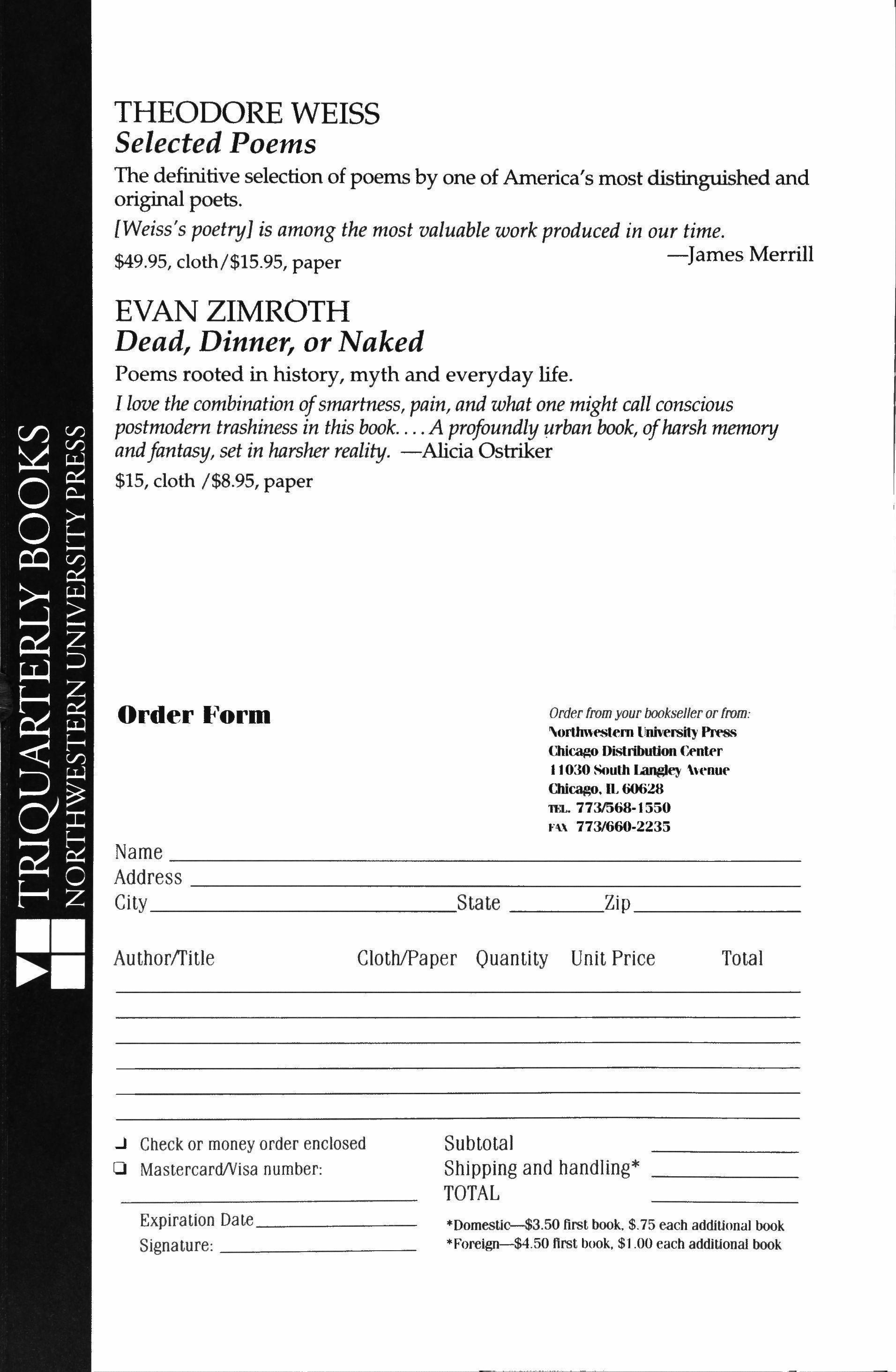
Order from your bookseller or from: \orUn\f'Stem l!niversit)' PI't'8S Chicago Distribution fA'nter 11030 SouUt L.angIey \wnut" Chicago. a, 60628 TEL. 7731568-1550 H.\ 773/660-2235
Name Address City State Zip
*DomesUo-$3.50 first book. $.75 each addltional book *Forelgn-$4.50 first book. $1.00 each additional book
Author/Title Cloth/Paper Quantity Unit Price Total
enclosed
Subtotal Shipping and handling* TOTAL
.J Check or money order
o MastercardNisa number:
Expiration Date Signature:
Editor
Reginald Gibbons
Managing Editor
Kirstie Felland
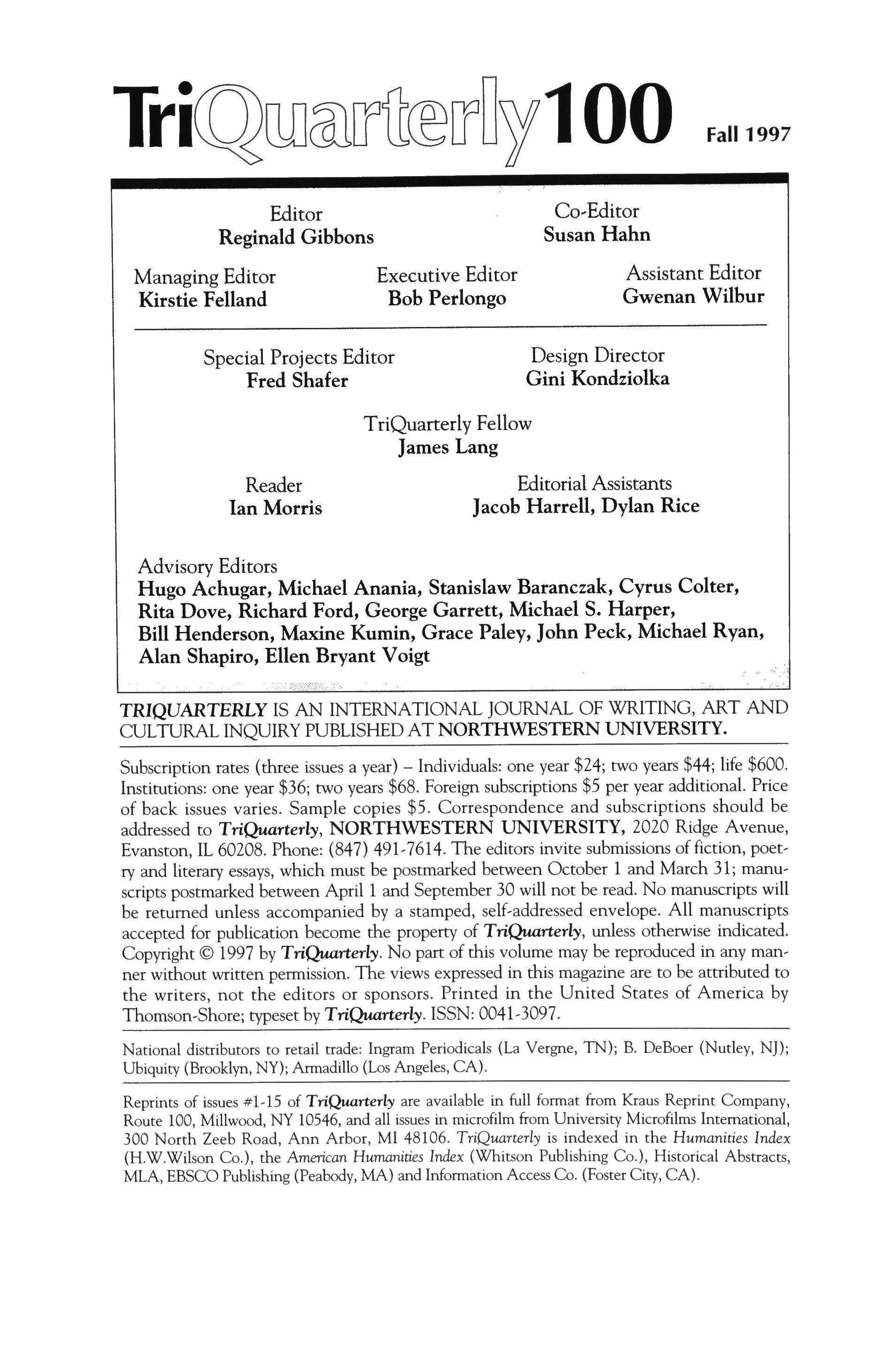
Executive Editor Bob Perlongo
Special Projects Editor Fred Shafer
Co-Editor Susan Hahn
Assistant Editor Gwenan Wilbur
Design Director Gini Kondziolka
TriQuarterly Fellow
James Lang
Reader
Ian Morris
Advisory Editors
Editorial Assistants
Jacob Harrell, Dylan Rice
Hugo Achugar, Michael Anania, Stanislaw Baranczak, Cyrus Colter, Rita Dove, Richard Ford, George Garrett, Michael S. Harper, Bill Henderson, Maxine Kumin, Grace Paley, John Peck, Michael Ryan, Alan Shapiro, Ellen Bryant Voigt
TRIQUARTERLY IS AN INTERNATIONAL JOURNAL OF WRITING, ART AND CULTURAL INQUIRY PUBLISHED AT NORTHWESTERN UNIVERSITY.
Subscription rates (three issues a year) - Individuals: one year $24; two years $44; life $600. Institutions: one year $36; two years $68. Foreign subscriptions $5 per year additional. Price of back issues varies. Sample copies $5. Correspondence and subscriptions should be addressed to TriQuarterly, NORTHWESTERN UNIVERSITY, 2020 Ridge Avenue, Evanston, IL 60208. Phone: (847) 491-7614. The editors invite submissions of fiction, poetry and literary essays, which must be postmarked between October 1 and March 31; manuscripts postmarked between April 1 and September 30 will not be read. No manuscripts will be returned unless accompanied by a stamped, self-addressed envelope. All manuscripts accepted for publication become the property of TriQuarterly, unless otherwise indicated. Copyright © 1997 by TriQuarterly. No part of this volume may be reproduced in any manner without written permission. The views expressed in this magazine are to be attributed to the writers, not the editors or sponsors. Printed in the United States of America by Thomson-Shore; typeset by TriQuarterly. ISSN: 0041-3097.
National distributors to retail trade: Ingram Periodicals (La Vergne, IN); B. DeBoer (Nutley, NJ); Ubiquirv (Brooklyn, NY); Armadillo (Los Angeles, CA).
Reprints of issues #1-15 of TriQuarterly are available in full format from Kraus Reprint Company, Route 100, Millwood, NY 10546, and all issues in microfilm from Universiry Microfilms International, 300 North Zeeb Road, Ann Arbor, MI 48106. TriQuarterly is indexed in the Humanities Index (H.W.Wilson Co.), the American Humanities Index (Whitson Publishing Co.), Historical Abstracts, MLA, EBSCO Publishing (Peabody, MA) and Information Access Co. (Foster City, CA).
Fall 1997
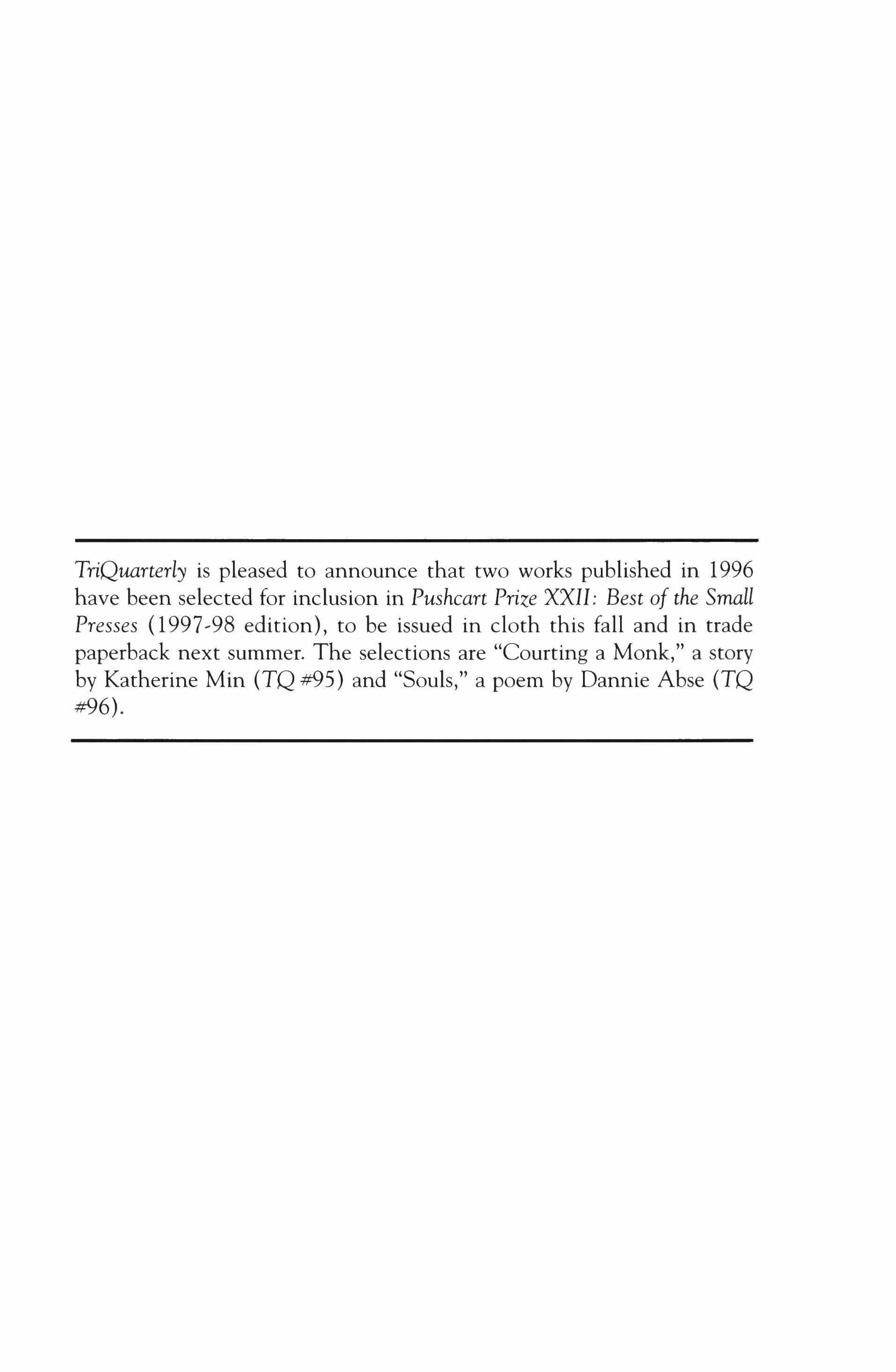
TriQuarterly is pleased to announce that two works published in 1996 have been selected for inclusion in Pushcart Prize XXII: Best of the Small Presses (1997�98 edition), to be issued in cloth this fall and in trade paperback next summer. The selections are "Courting a Monk," a story by Katherine Min (TQ #95) and "Souls," a poem by Dannie Abse (TQ #96).
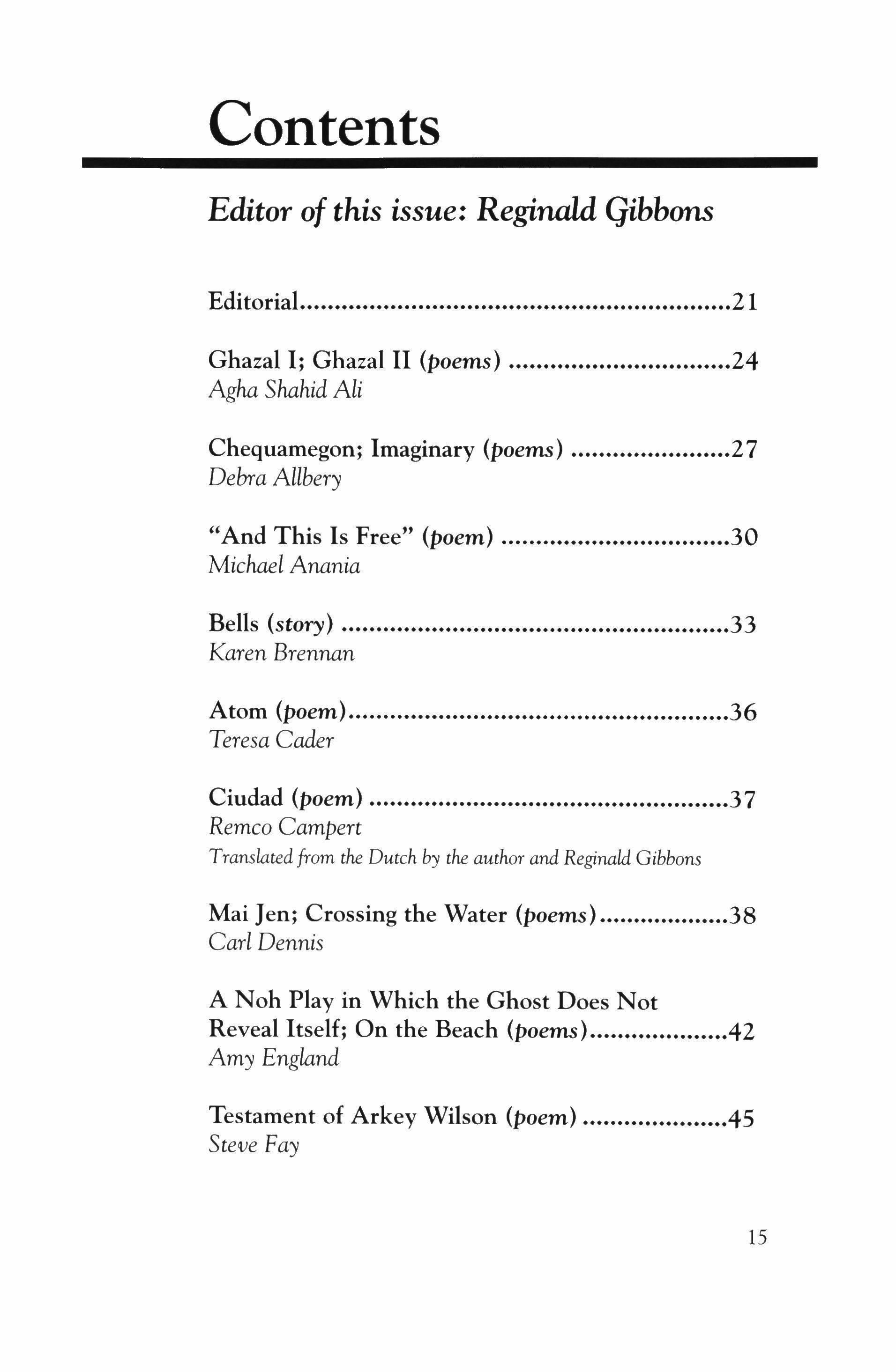
Contents Editor of this issue: Reginald Gibbons Editorial 21 Ghazal I; Ghazal II (poems) .••••...••••....••.............. 24 Agha Shahid Ali Chequamegon; Imaginary (poems) 27 Debra Allbery "And This Is Free" (poem) ........••...................•••. 30 Michael Anania Bells (story) 33 Karen Brennan Atom (poem) .....................••...•..............••............ 36 Teresa Cader Ciudad (poem) 37 Remco Campert Translated from the Dutch by the author and Reginald Gibbons Mai Jen; Crossing the Water (poems) ..•••.•.....•.•.... 38 Carl Dennis A Noh Play in Which the Ghost Does Not Reveal Itself; On the Beach (poems) .....•.......•..... .42 Amy England Testament of Arkey Wilson (poem) ..••............•..• .45 Steve Fay 15
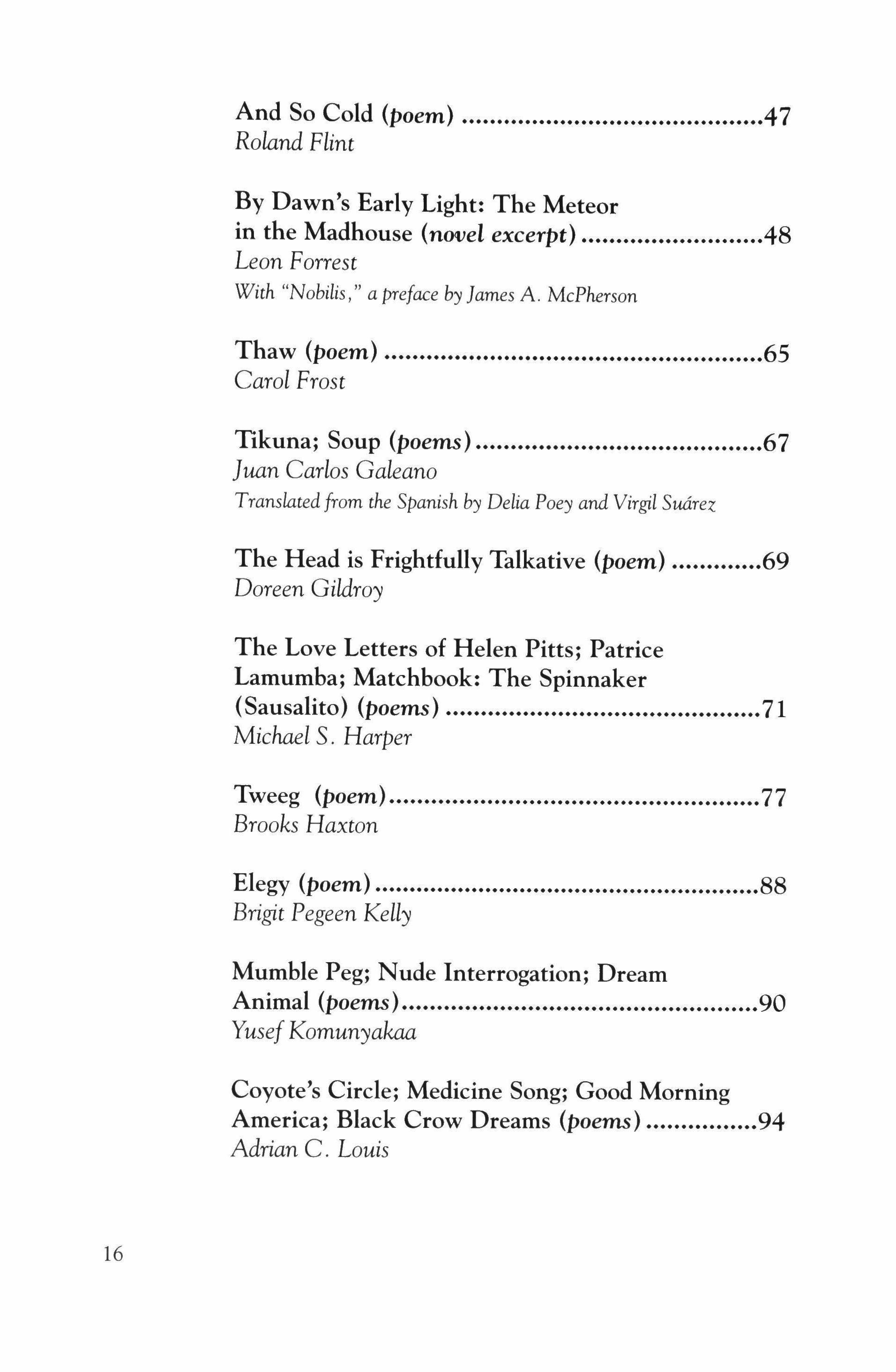
And So Cold (poem) 47 Roland Flint By Dawn's Early Light: The Meteor in the Madhouse (novel excerpt) .48 Leon Forrest With "Nobilis," a preface by James A. McPherson Thaw (poem) •••••••••••••••••...•••••••••.•••••••••••••••••••.•••. 65 Carol Frost Tikuna: Soup (poems) •••••••••••••••••••••••••••••••••••••••.• 67 Juan Carlos
Translated from the Spanish by Delia Poey and Virgil Suarez The Head is Frightfully Talkative (poem) ..••••••••••• 69 Doreen Gildroy The Love Letters of Helen Pitts; Patrice Lamumba; Matchbook: The Spinnaker (Sausalito) (poems) 71 Michael S. Harper Tweeg (poem) •••••••••••••••••.••••••••••••••••••••••..••••••••••• 77 Brooks Haxton Elegy (poem) •••••••••.•••••••••...•••••••••.•.•••••••••.•.•••••••••. 88 Brigit Pegeen Kelly Mumble Peg; Nude Interrogation; Dream Animal (poems) •••••.••••••••••.••••••••••.••••••.••.•••••••••••.. 90 YusefKomunyakaa Coyote's Circle; Medicine Song; Good Morning America; Black Crow Dreams (poems) 94 Adrian C. Louis 16
Galeano
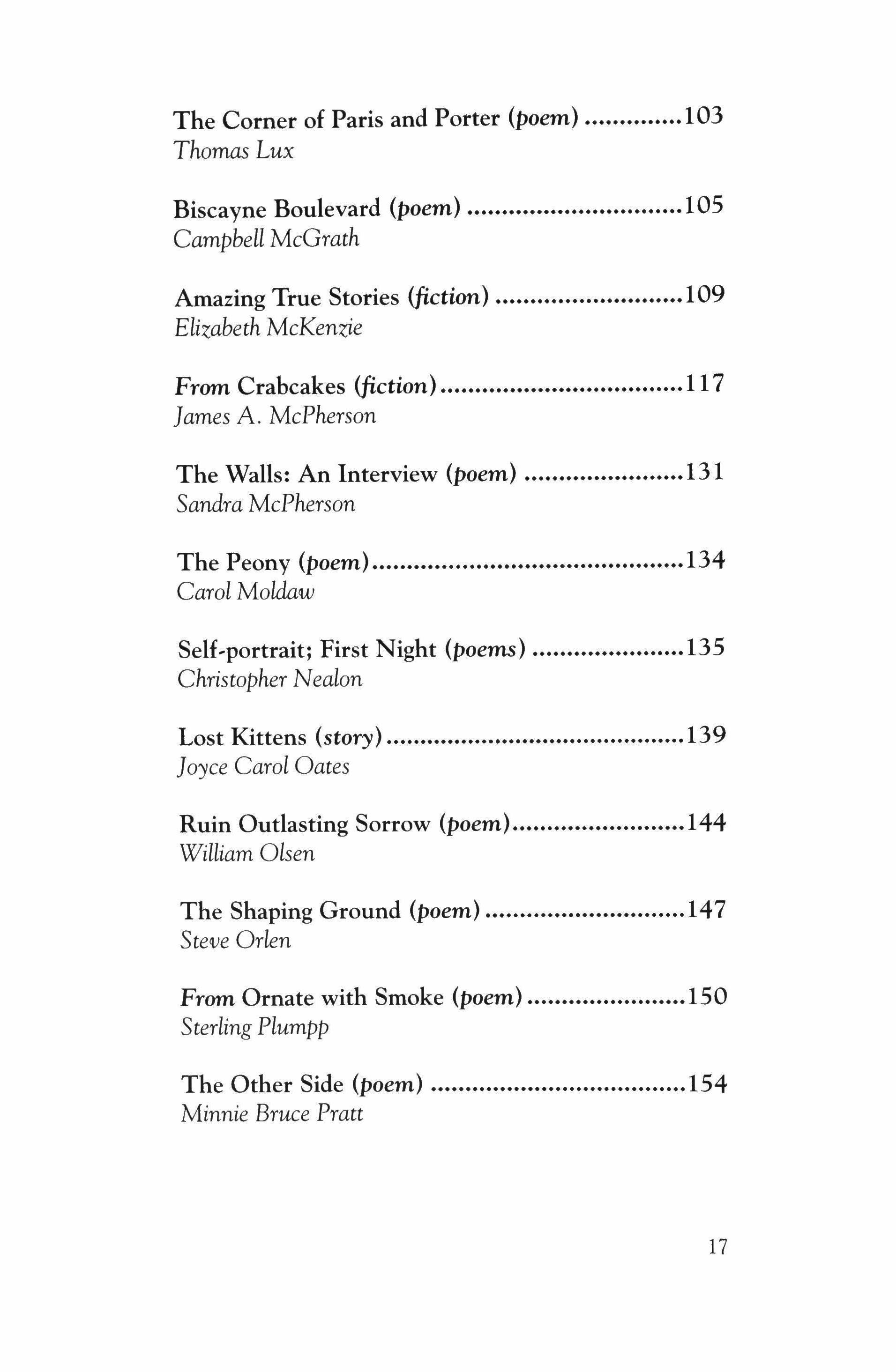
The Corner of Paris and Porter (poem) 103 Thomas Lux Biscayne Boulevard (poem) 105 Campbell McGrath Amazing True Stories (fiction) 109 Elizabeth McKenzie From Crabcakes (fiction) 11 7 James A. McPherson The Walls: An Interview (poem) 131 Sandra McPherson The Peony (poem) 134 Carol Moldaw Self-portrait: First Night (poems) 135 Christopher Nealon Lost Kittens (story) 139 Joyce Carol Oates Ruin Outlasting Sorrow (poem) 144 William Olsen The Shaping Ground (poem) 147 Steve arlen From Ornate with Smoke (poem) 150 Sterling Plumpp The Other Side (poem) 154 Minnie Bruce Pratt 17
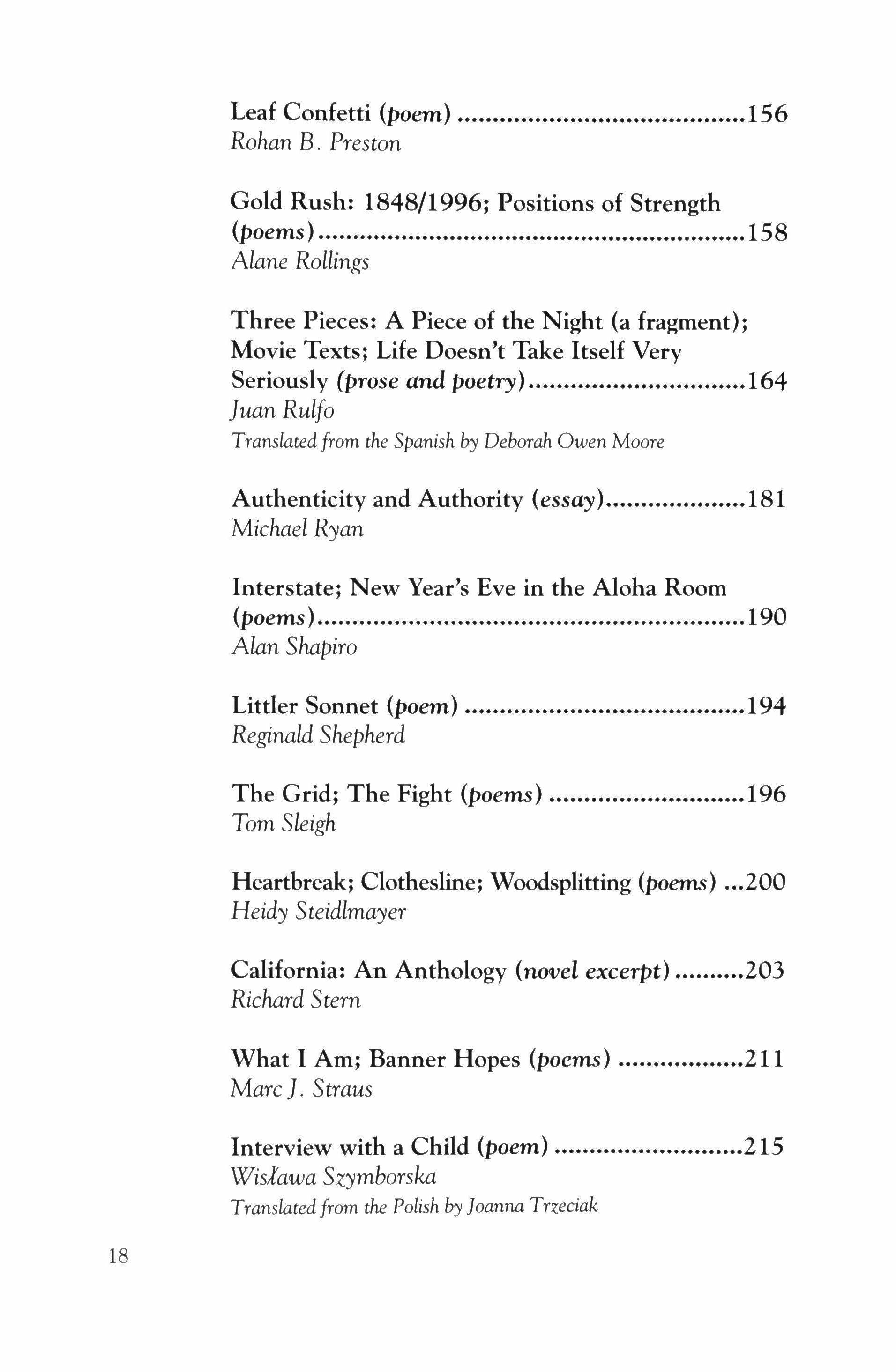
Leaf Confetti (poem) ••.••.•••..•••..••••••••••••••••••••••••• 156 Rohan B. Preston Gold Rush: 1848/1996; Positions of Strength (poems) ....•......................................................... 158 Alane Rollings Three Pieces: A Piece of the Night (a fragment); Movie Texts; Life Doesn't Take Itself Very Seriously (prose and poetry) 164 Juan Rulfo Translated from the Spanish by Deborah Owen Moore Authenticity and Authority (essay) 181 Michael Ryan Interstate; New Year's Eve in the Aloha Room (poems) 190 Alan Shapiro Littler Sonnet (poem) 194 Reginald Shepherd The Grid; The Fight (poems) •.••.••••.•••••••••••••••..• 196 Tom Sleigh Heartbreak; Clothesline; Woodsplitting (poems) 200 Heidy Steidlmayer California: An Anthology (novel excerpt) 203 Richard Stem What I Am; Banner Hopes (poems) •....•.•.••••••••• 211 Marc J. Straus Interview with a Child (poem) 215 Wislawa Szymborska Translated from the Polish by Joanna Trzeciak 18
Road Noise (poem) 21 7
Mark Turcotte
Poem for a Holiday at Home; No Complaints (poems) 233
Reetika Vazirani
A Brief Domestic History (poem) •....••.•....•••••••.• 235
Ellen Bryant Voigt
What He Said When They Made Him Tell Them Everything; After the Others; River Journal; The Choosing of Mozart's Fantasie Over Suicide (poems) ••..••••....••...••••..••••.••••.••.••••
Bruce Weigl
The Knife (prose poem)
Joshua Weiner
Thirst; Between the Lines: Three Letters (poems)
Theodore and Renee Weiss
From The Long Home (poem)
Christian Wiman
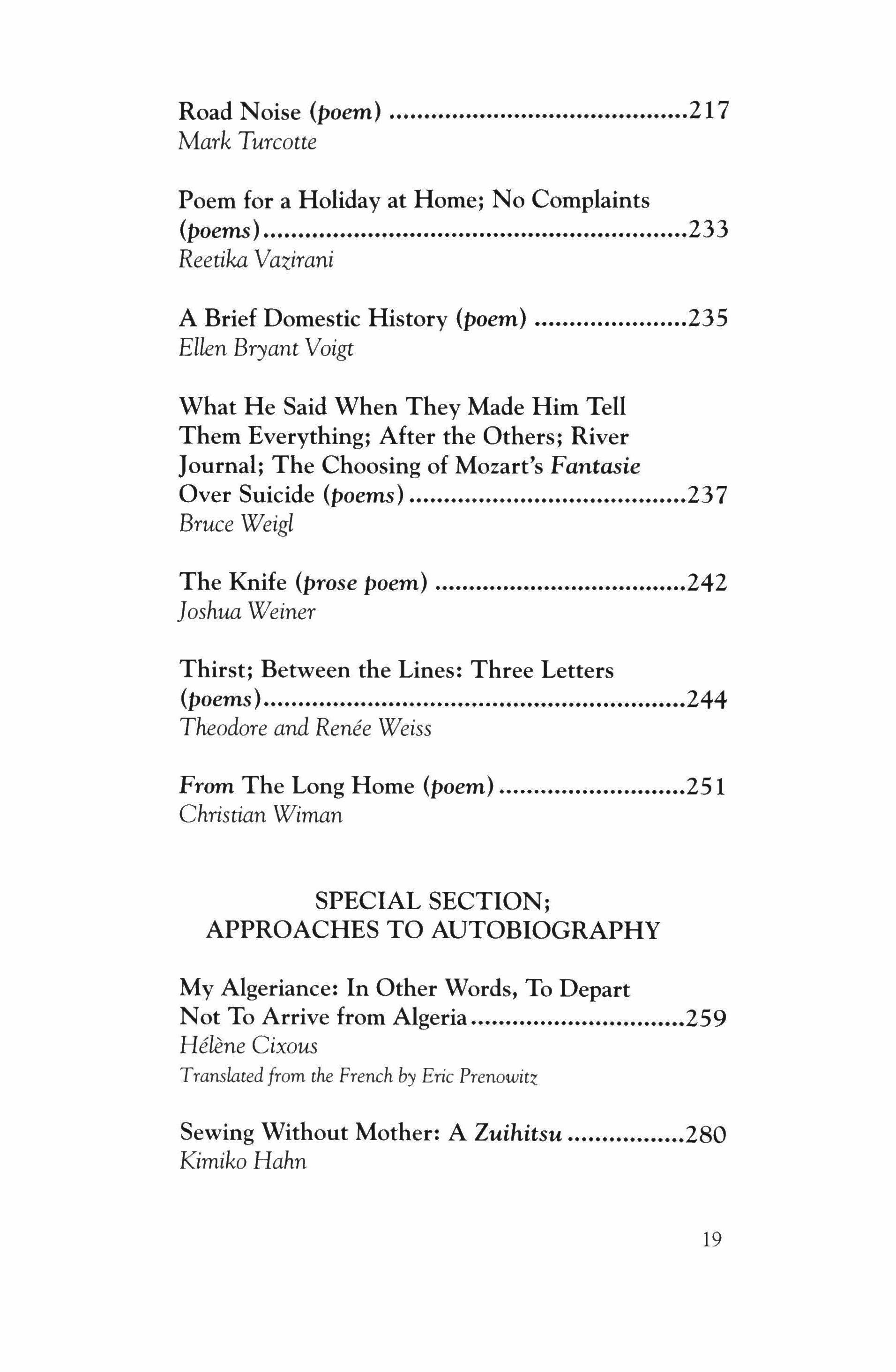
My Algeriance: In Other Words, To Depart
Helene Cixous
Translated from the French by Eric Prenowitz
Sewing Without Mother: A Zuihitsu
Kimiko Hahn
237
••.•••.•.•.•.•.•.•.•.•.•••.•••••••••• 242
244
•••..••••.••••..••••..............•••.••••..••••.••...•••••••
....•.•..••.•••....••.••••• 251
SPECIAL SECTION;
TO AUTOBIOGRAPHY
APPROACHES
To Arrive from
.......•.•..........••........• 259
Not
Algeria
.........•.....•• 280
19
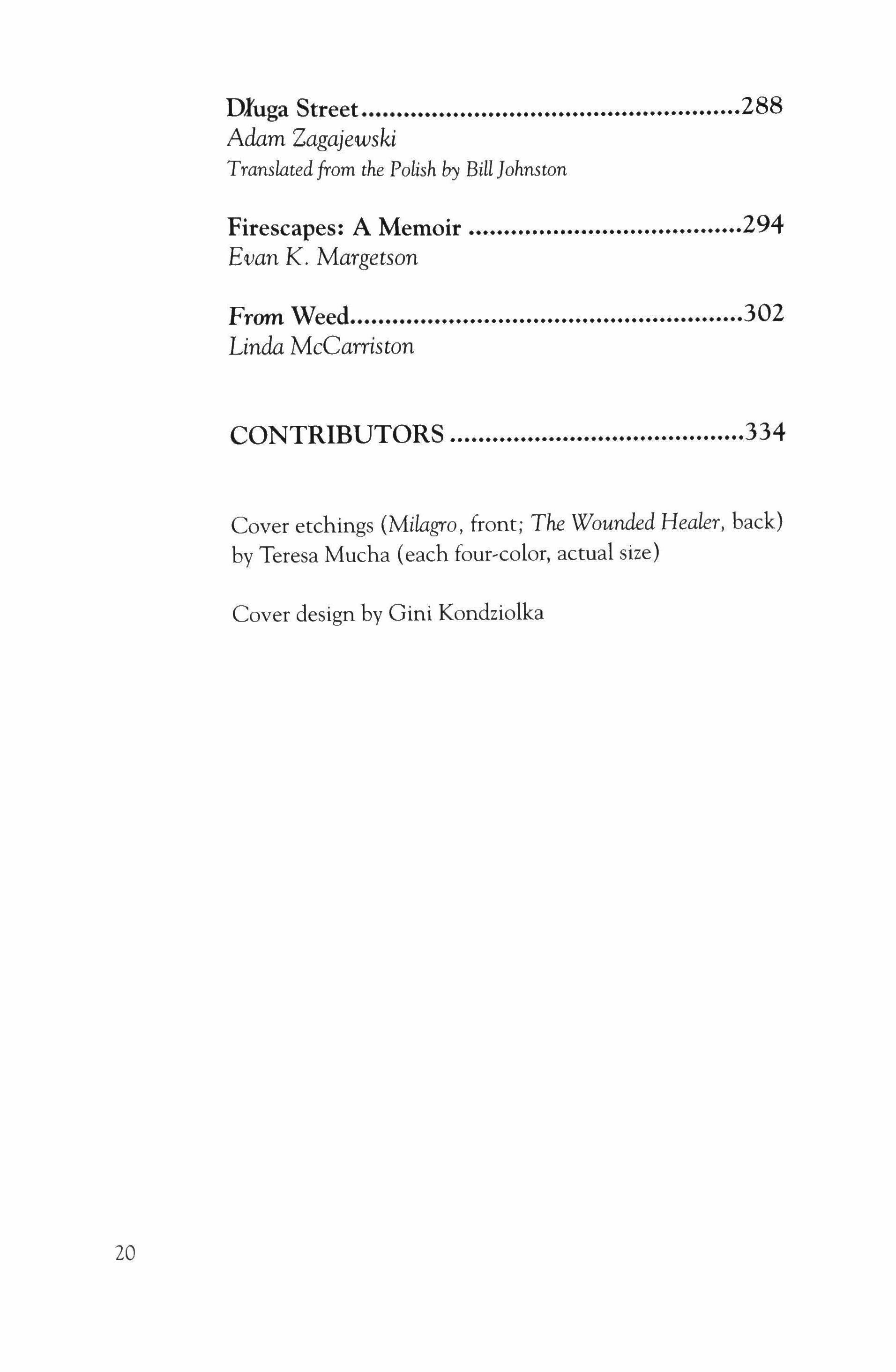
Dluga Street 288 Adam Zagajewski Translated from the Polish by Bill Johnston Firescapes: A Memoir 294 Evan K. Margetson From Weed 302 Linda McCarriston CONTRIBUTORS 334
size)
Cover etchings (Milagro, front; The Wounded Healer, back) by Teresa Mucha (each four-color, actual
20
Cover design by Gini Kondziolka
Editorial
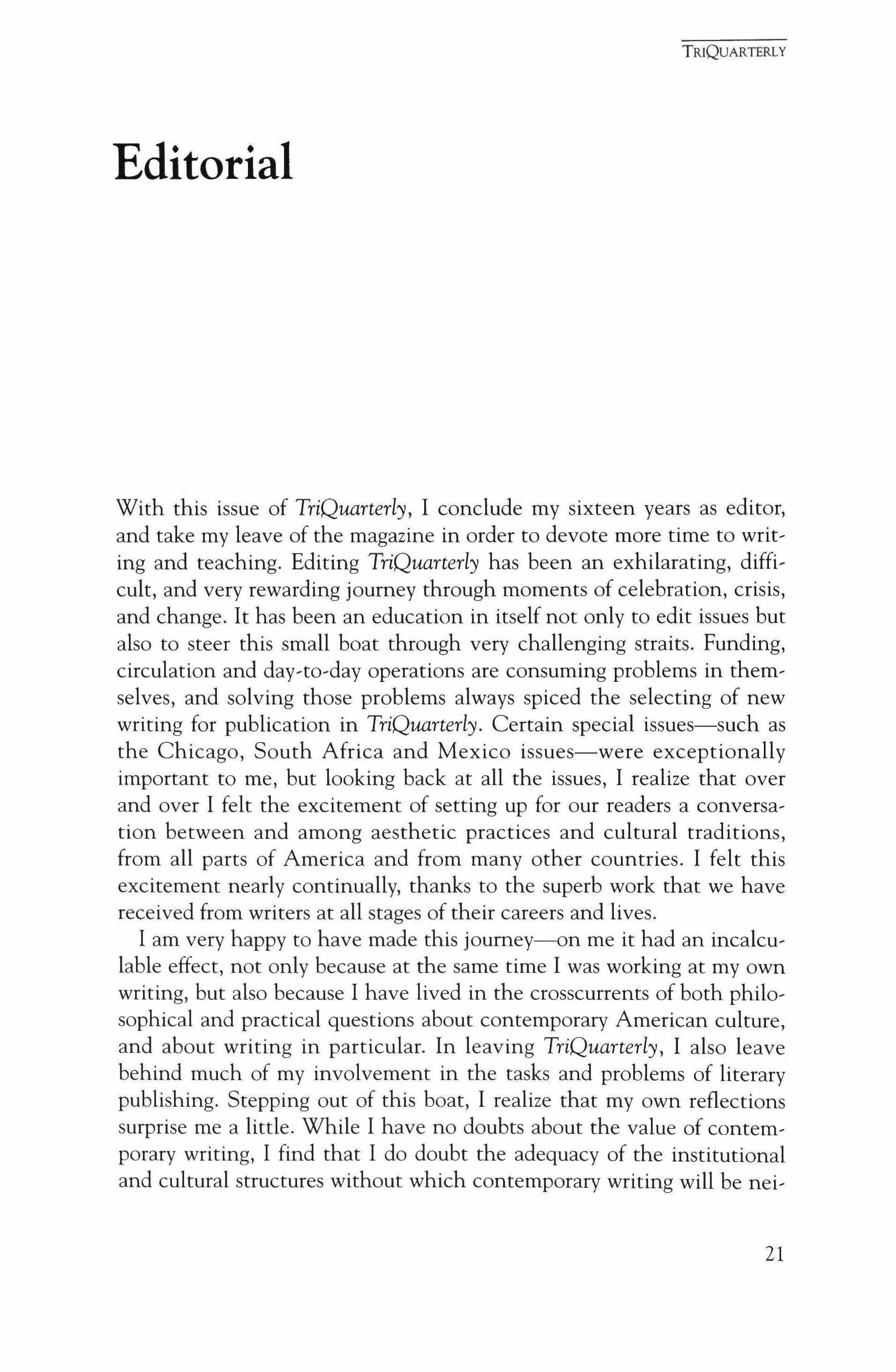
With this issue of TriQuarterly, 1 conclude my sixteen years as editor, and take my leave of the magazine in order to devote more time to writing and teaching. Editing TriQuarterly has been an exhilarating, difficult, and very rewarding journey through moments of celebration, crisis, and change. It has been an education in itself not only to edit issues but also to steer this small boat through very challenging straits. Funding, circulation and day-to-day operations are consuming problems in themselves, and solving those problems always spiced the selecting of new writing for publication in TriQuarterly. Certain special issues-such as the Chicago, South Africa and Mexico issues-were exceptionally important to me, but looking back at all the issues, I realize that over and over I felt the excitement of setting up for our readers a conversation between and among aesthetic practices and cultural traditions, from all parts of America and from many other countries. I felt this excitement nearly continually, thanks to the superb work that we have received from writers at all stages of their careers and lives.
I am very happy to have made this journey-on me it had an incalculable effect, not only because at the same time I was working at my own writing, but also because I have lived in the crosscurrents of both philosophical and practical questions about contemporary American culture, and about writing in particular. In leaving TriQuarterly, I also leave behind much of my involvement in the tasks and problems of literary publishing. Stepping out of this boat, I realize that my own reflections surprise me a little. While I have no doubts about the value of contemporary writing, I find that I do doubt the adequacy of the institutional and cultural structures without which contemporary writing will be nei-
TRIQUARTERLY
21
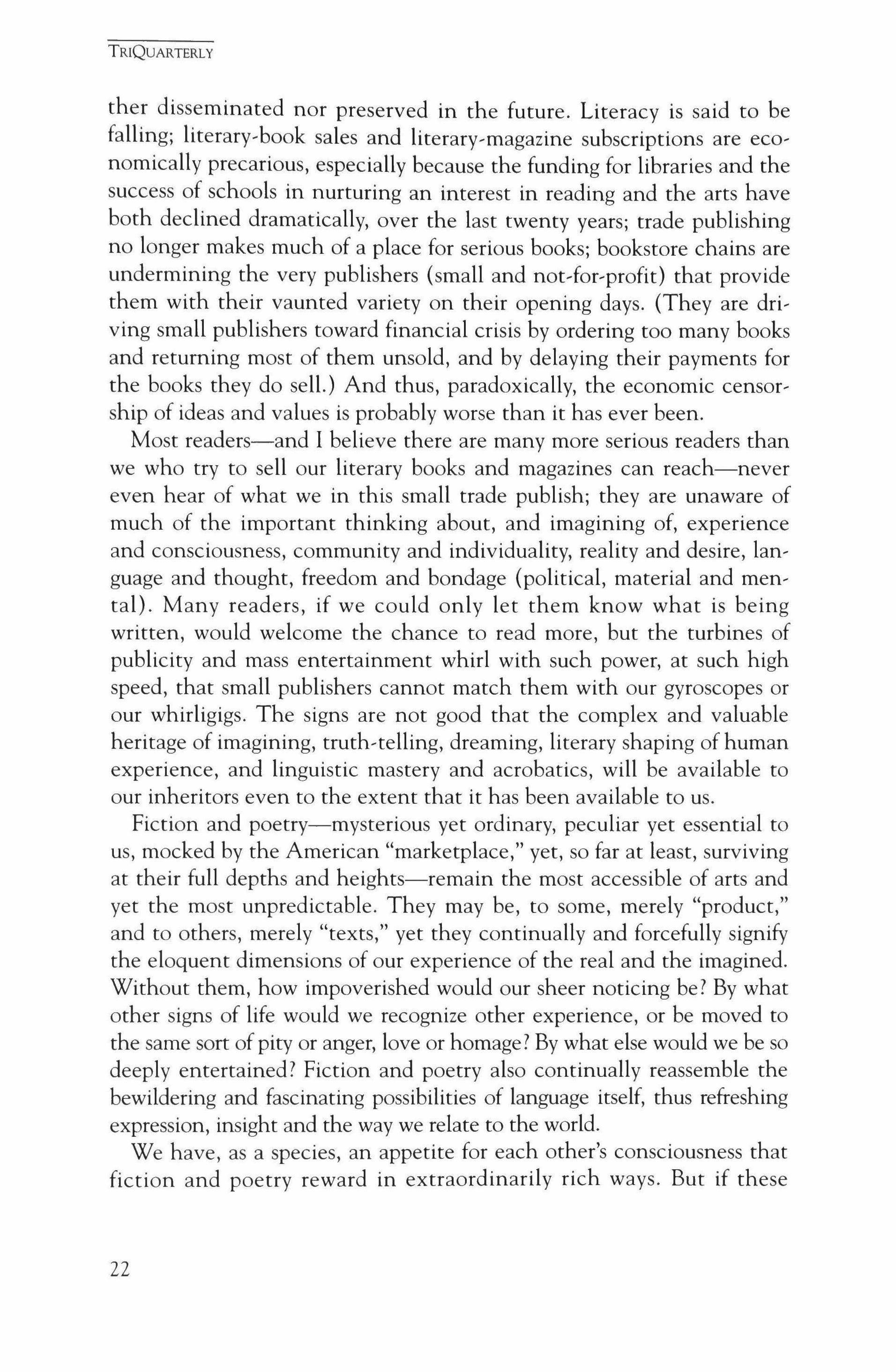
ther disseminated nor preserved in the future. Literacy is said to be falling; literary-book sales and literary-magazine subscriptions are economically precarious, especially because the funding for libraries and the success of schools in nurturing an interest in reading and the arts have both declined dramatically, over the last twenty years; trade publishing no longer makes much of a place for serious books; bookstore chains are undermining the very publishers (small and not-for-profit) that provide them with their vaunted variety on their opening days. (They are driving small publishers toward financial crisis by ordering too many books and returning most of them unsold, and by delaying their payments for the books they do sell.) And thus, paradoxically, the economic censorship of ideas and values is probably worse than it has ever been.
Most readers-and I believe there are many more serious readers than we who try to sell our literary books and magazines can reach-never even hear of what we in this small trade publish; they are unaware of much of the important thinking about, and imagining of, experience and consciousness, community and individuality, reality and desire, language and thought, freedom and bondage (political, material and mental). Many readers, if we could only let them know what is being written, would welcome the chance to read more, but the turbines of publicity and mass entertainment whirl with such power, at such high speed, that small publishers cannot match them with our gyroscopes or our whirligigs. The signs are not good that the complex and valuable heritage of imagining, truth-telling, dreaming, literary shaping of human experience, and linguistic mastery and acrobatics, will be available to our inheritors even to the extent that it has been available to us.
Fiction and poetry-mysterious yet ordinary, peculiar yet essential to us, mocked by the American "marketplace," yet, so far at least, surviving at their full depths and heights-remain the most accessible of arts and yet the most unpredictable. They may be, to some, merely "product," and to others, merely "texts," yet they continually and forcefully signify the eloquent dimensions of our experience of the real and the imagined. Without them, how impoverished would our sheer noticing be? By what other signs of life would we recognize other experience, or be moved to the same sort ofpity or anger, love or homage? By what else would we be so deeply entertained? Fiction and poetry also continually reassemble the bewildering and fascinating possibilities of language itself, thus refreshing expression, insight and the way we relate to the world.
We have, as a species, an appetite for each other's consciousness that fiction and poetry reward in extraordinarily rich ways. But if these
TRIQUARTERLY
22
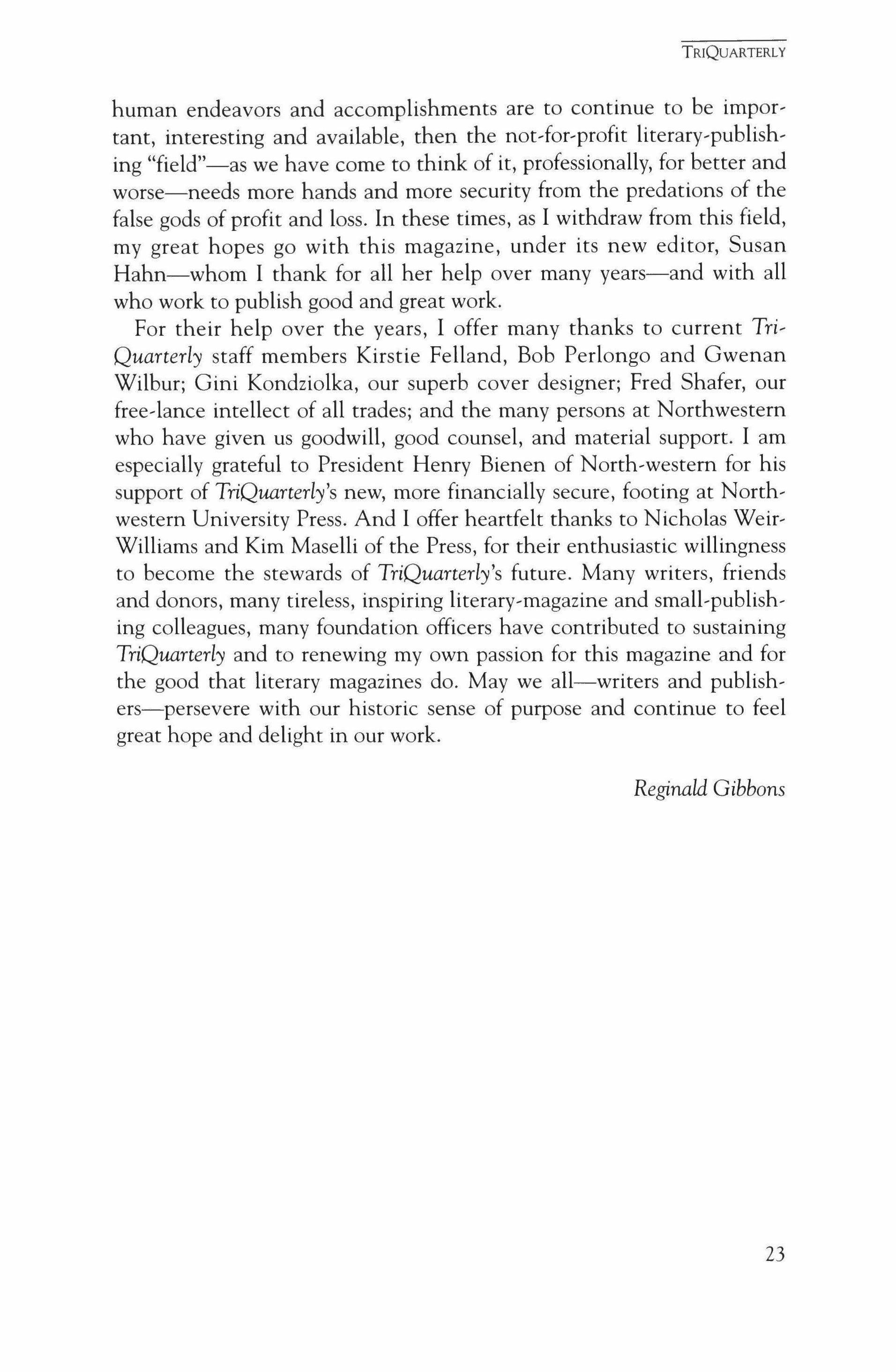
human endeavors and accomplishments are to continue to be important, interesting and available, then the not-for-profit literary-publishing "field"-as we have come to think of it, professionally, for better and worse-needs more hands and more security from the predations of the false gods of profit and loss. In these times, as I withdraw from this field, my great hopes go with this magazine, under its new editor, Susan Hahn-whom I thank for all her help over many years-and with all who work to publish good and great work.
For their help over the years, I offer many thanks to current TriQuarterly staff members Kirstie Felland, Bob Perlongo and Gwenan Wilbur; Gini Kondziolka, our superb cover designer; Fred Shafer, our free-lance intellect of all trades; and the many persons at Northwestern who have given us goodwill, good counsel, and material support. I am especially grateful to President Henry Bienen of North-western for his support of TriQuarterly's new, more financially secure, footing at Northwestern University Press. And I offer heartfelt thanks to Nicholas WeirWilliams and Kim Maselli of the Press, for their enthusiastic willingness to become the stewards of TriQuarterly's future. Many writers, friends and donors, many tireless, inspiring literary-magazine and small-publishing colleagues, many foundation officers have contributed to sustaining TriQuarterly and to renewing my own passion for this magazine and for the good that literary magazines do. May we all-writers and publishers-persevere with our historic sense of purpose and continue to feel great hope and delight in our work.
Reginald Gibbons
TRIQUARTERLY
23
Two Poems
Agha Shahid Ali
Ghazal I
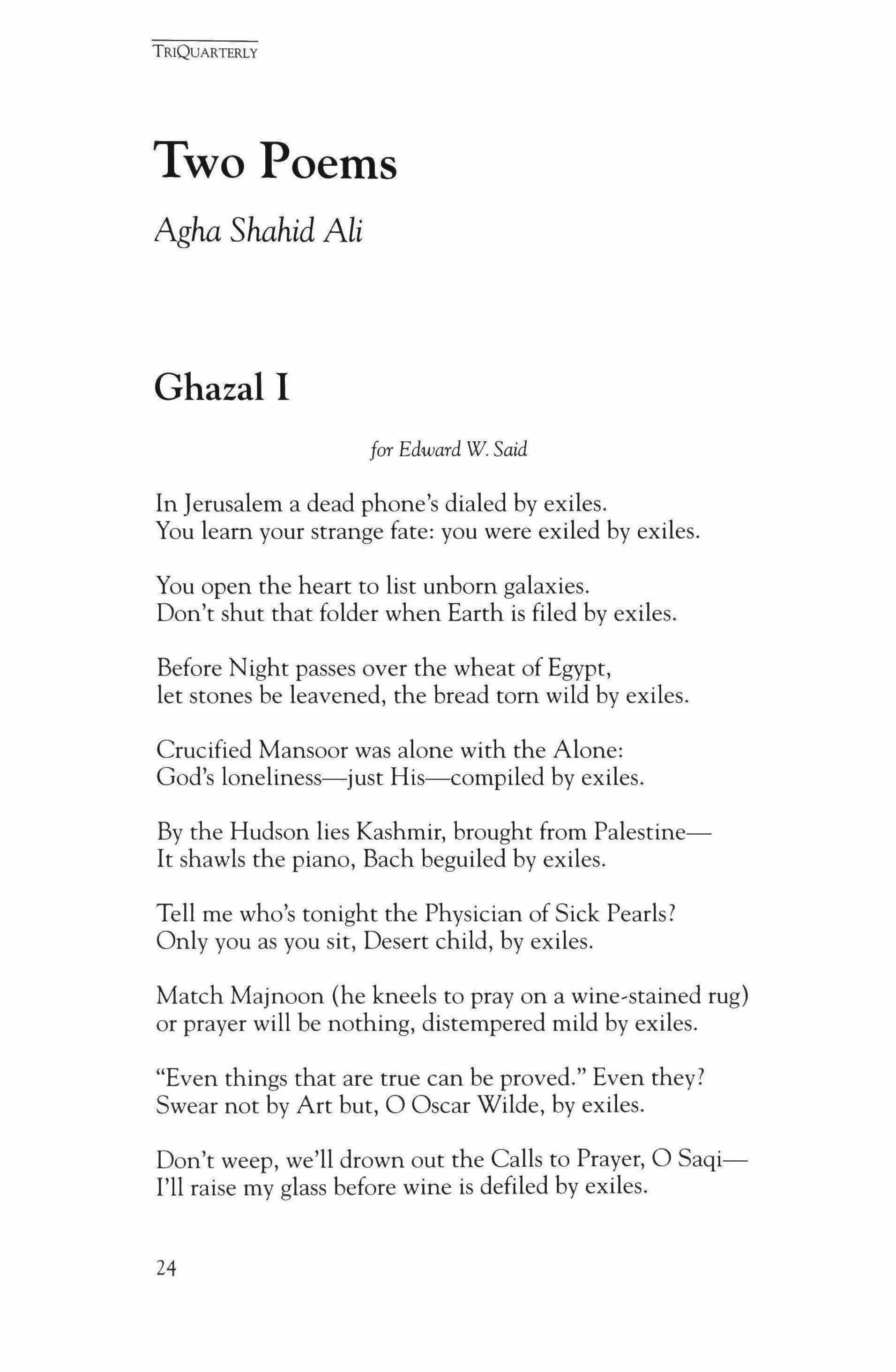
for Edward W. Said
In Jerusalem a dead phone's dialed by exiles. You learn your strange fate: you were exiled by exiles.
You open the heart to list unborn galaxies. Don't shut that folder when Earth is filed by exiles.
Before Night passes over the wheat of Egypt, let stones be leavened, the bread tom wild by exiles.
Crucified Mansoor was alone with the Alone: God's loneliness-just His-compiled by exiles.
By the Hudson lies Kashmir, brought from PalestineIt shawls the piano, Bach beguiled by exiles.
Tell me who's tonight the Physician of Sick Pearls?
Only you as you sit, Desert child, by exiles.
Match Majnoon (he kneels to pray on a wine-stained rug) or prayer will be nothing, distempered mild by exiles.
"Even things that are true can be proved." Even they?
Swear not by Art but, 0 Oscar Wilde, by exiles.
Don't weep, we'll drown out the Calls to Prayer, 0 SaqiI'll raise my glass before wine is defiled by exiles.
TRIQUARTERLY
24
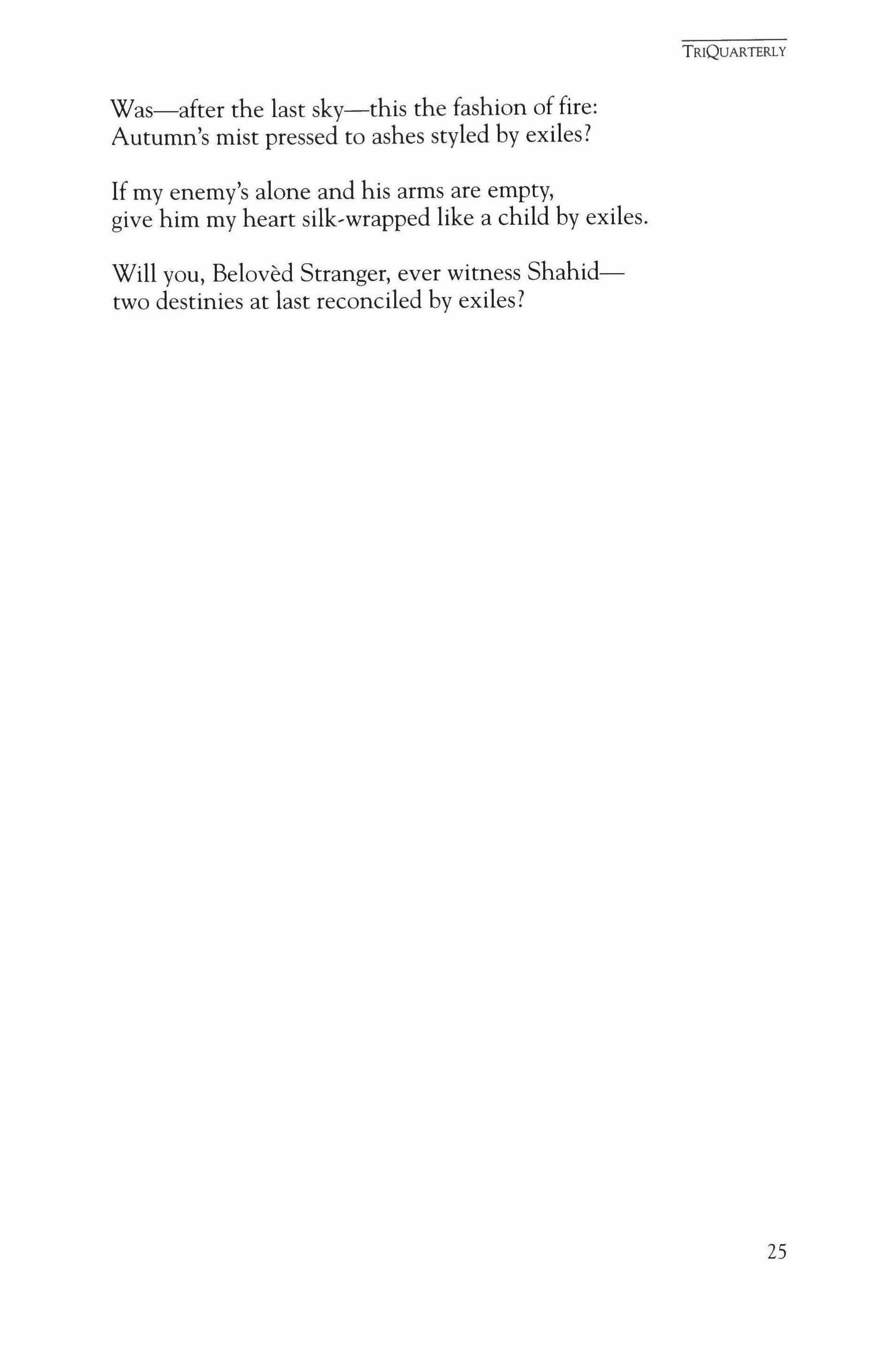
Was-after the last sky-this the fashion of fire: Autumn's mist pressed to ashes styled by exiles?
If my enemy's alone and his arms are empty, give him my heart silk-wrapped like a child by exiles.
Will you, Beloved Stranger, ever witness Shahidtwo destinies at last reconciled by exiles?
TRIQUARTERLY 25
Ghazal II
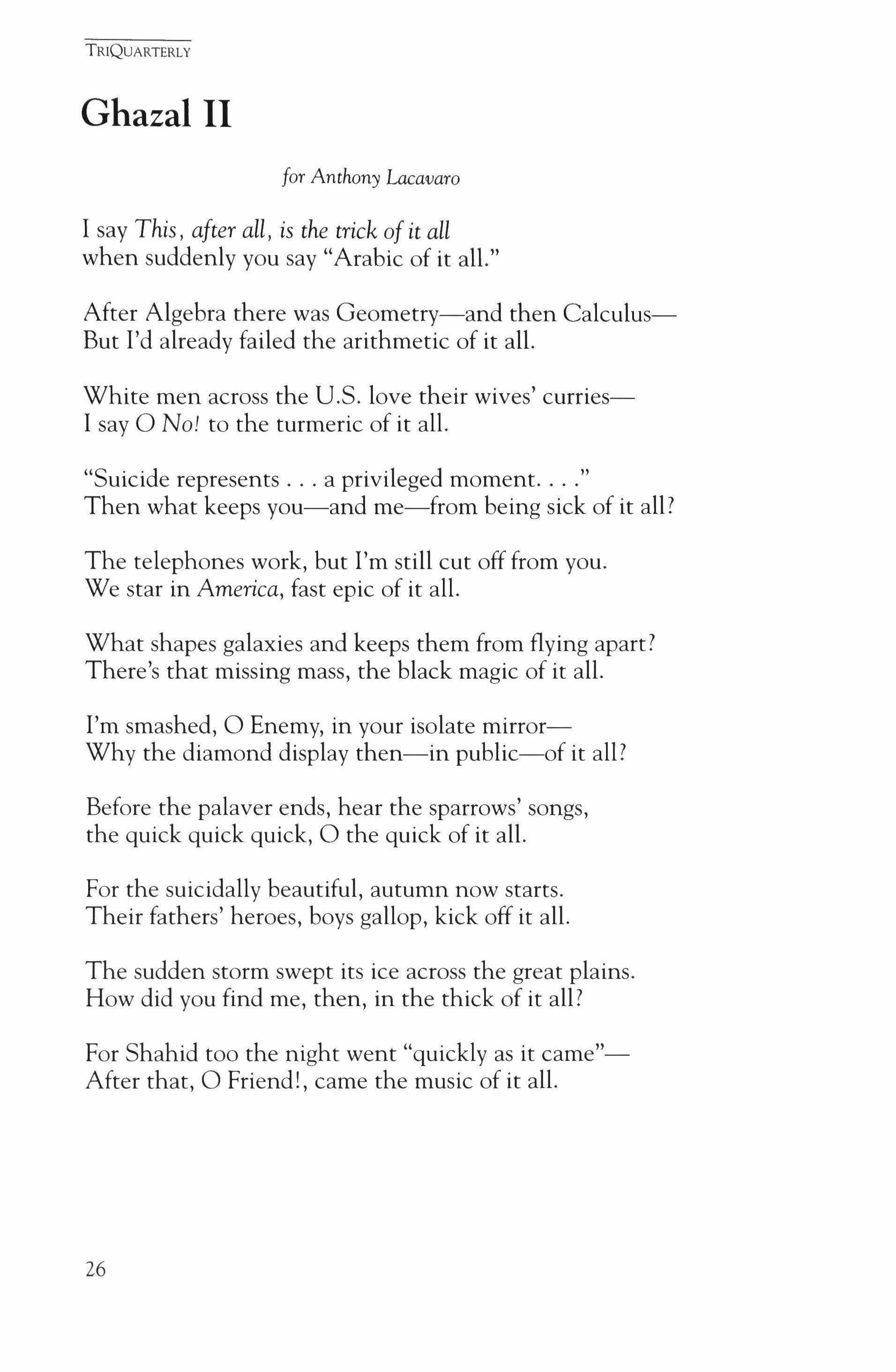
for Anthony Lacavaro
I say This, after all, is the trick of it all when suddenly you say "Arabic of it all."
After Algebra there was Geometry-and then CalculusBut I'd already failed the arithmetic of it all.
White men across the U.S. love their wives' curriesI say 0 No! to the turmeric of it all.
"Suicide represents a privileged moment Then what keeps you-and me-from being sick of it all?
The telephones work, but I'm still cut off from you. We star in America, fast epic of it all.
What shapes galaxies and keeps them from flying apart? There's that missing mass, the black magic of it all.
I'm smashed, 0 Enemy, in your isolate mirrorWhy the diamond display then-in public-of it all?
Before the palaver ends, hear the sparrows' songs, the quick quick quick, 0 the quick of it all.
For the suicidally beautiful, autumn now starts. Their fathers' heroes, boys gallop, kick off it all.
The sudden storm swept its ice across the great plains. How did you find me, then, in the thick of it all?
For Shahid too the night went "quickly as it came"After that, 0 Friendl, came the music of it all.
TRIQUARTERLY
26
Two Poems
Debra Allbery
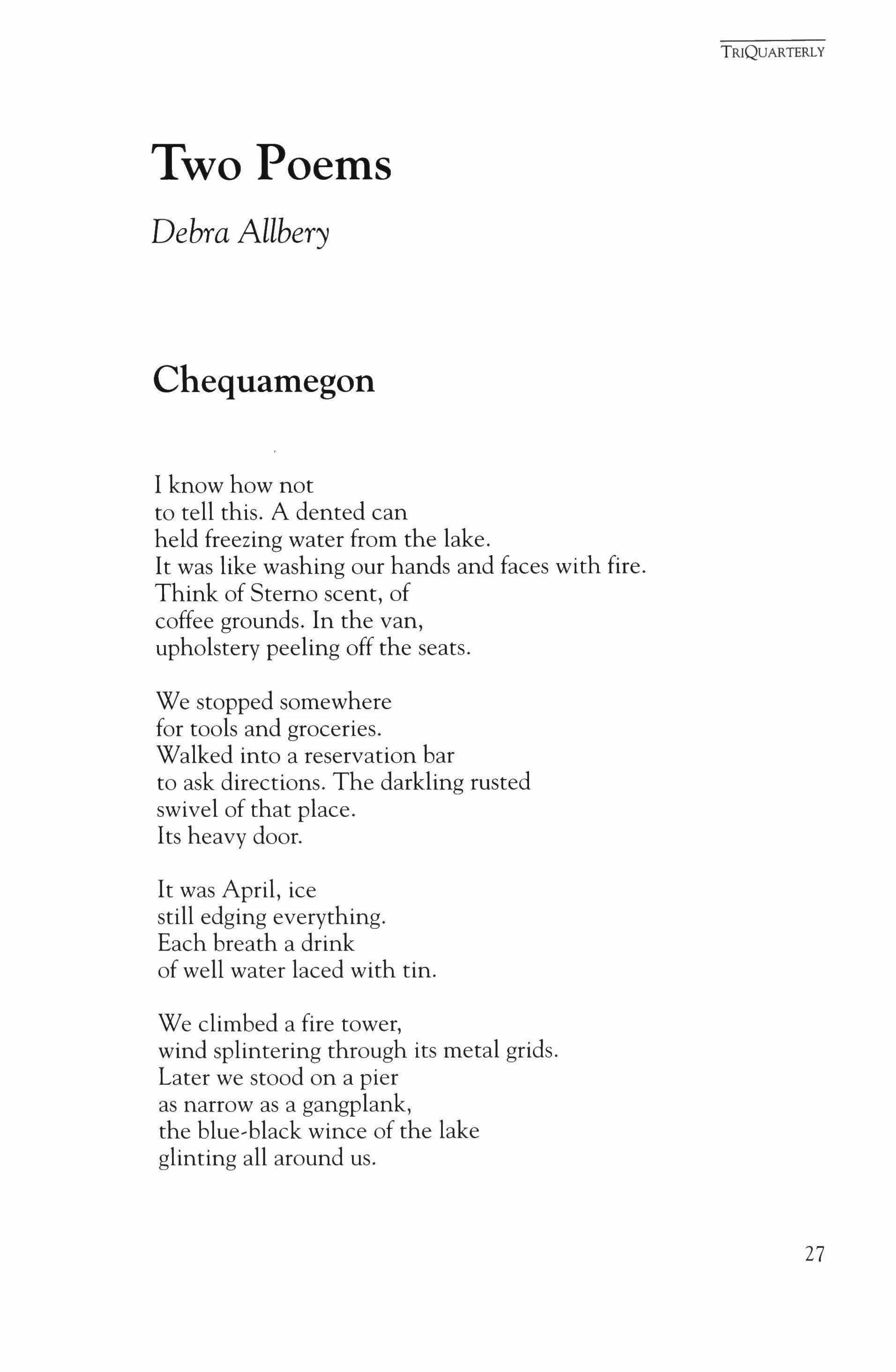
Chequamegon
I know how not to tell this. A dented can held freezing water from the lake. It was like washing our hands and faces with fire. Think of Sterno scent, of coffee grounds. In the van, upholstery peeling off the seats.
We stopped somewhere for tools and groceries. Walked into a reservation bar to ask directions. The darkling rusted swivel of that place. Its heavy door.
It was April, ice still edging everything. Each breath a drink of well water laced with tin.
We climbed a fire tower, wind splintering through its metal grids. Later we stood on a pier as narrow as a gangplank, the blue-black wince of the lake glinting all around us.
TRIQUARTERLY 27
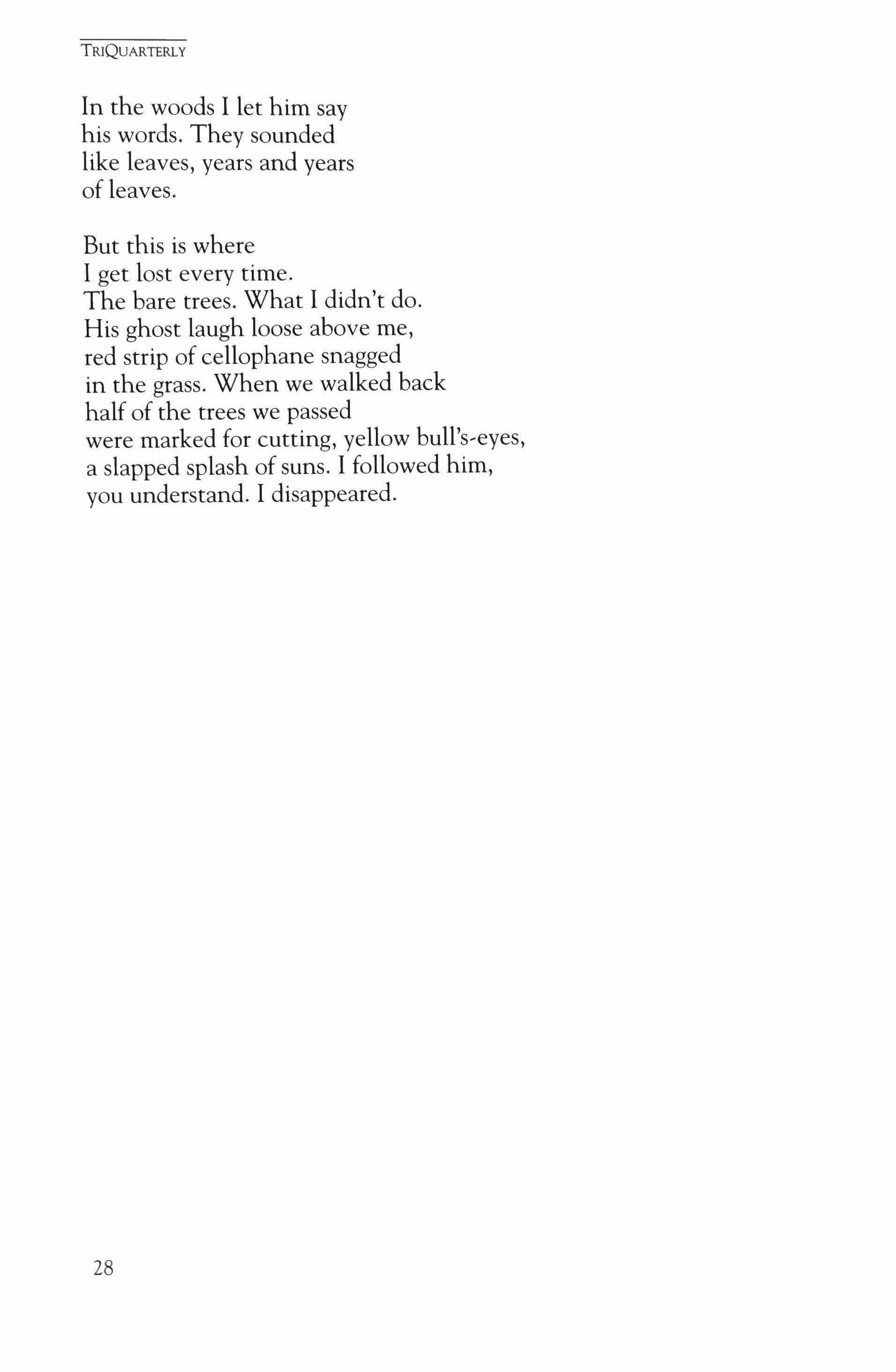
In the woods I let him say his words. They sounded like leaves, years and years of leaves.
But this is where I get lost every time. The bare trees. What I didn't do. His ghost laugh loose above me, red strip of cellophane snagged in the grass. When we walked back half of the trees we passed were marked for cutting, yellow bull's-eyes, a slapped splash of suns. I followed him, you understand. I disappeared.
Y
TRIQUARTERL
28
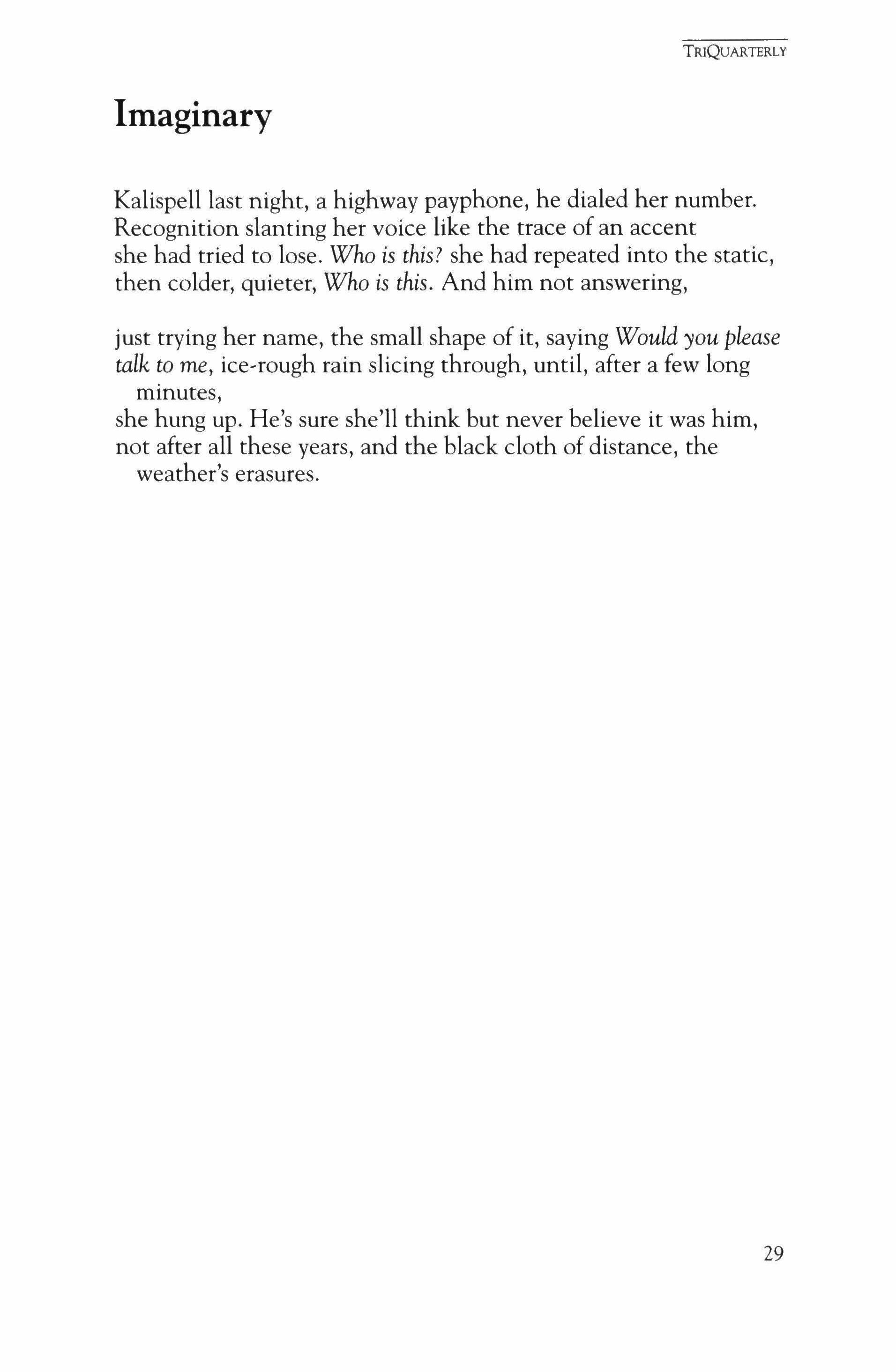
Imaginary
Kalispell last night, a highway payphone, he dialed her number. Recognition slanting her voice like the trace of an accent she had tried to lose. Who is this? she had repeated into the static, then colder, quieter, Who is this. And him not answering, just trying her name, the small shape of it, saying Would you please talk to me, ice-rough rain slicing through, until, after a few long minutes, she hung up. He's sure she'll think but never believe it was him, not after all these years, and the black cloth of distance, the weather's erasures.
TRIQUARTERLY
29
"And This Is Free"
Michael Anania
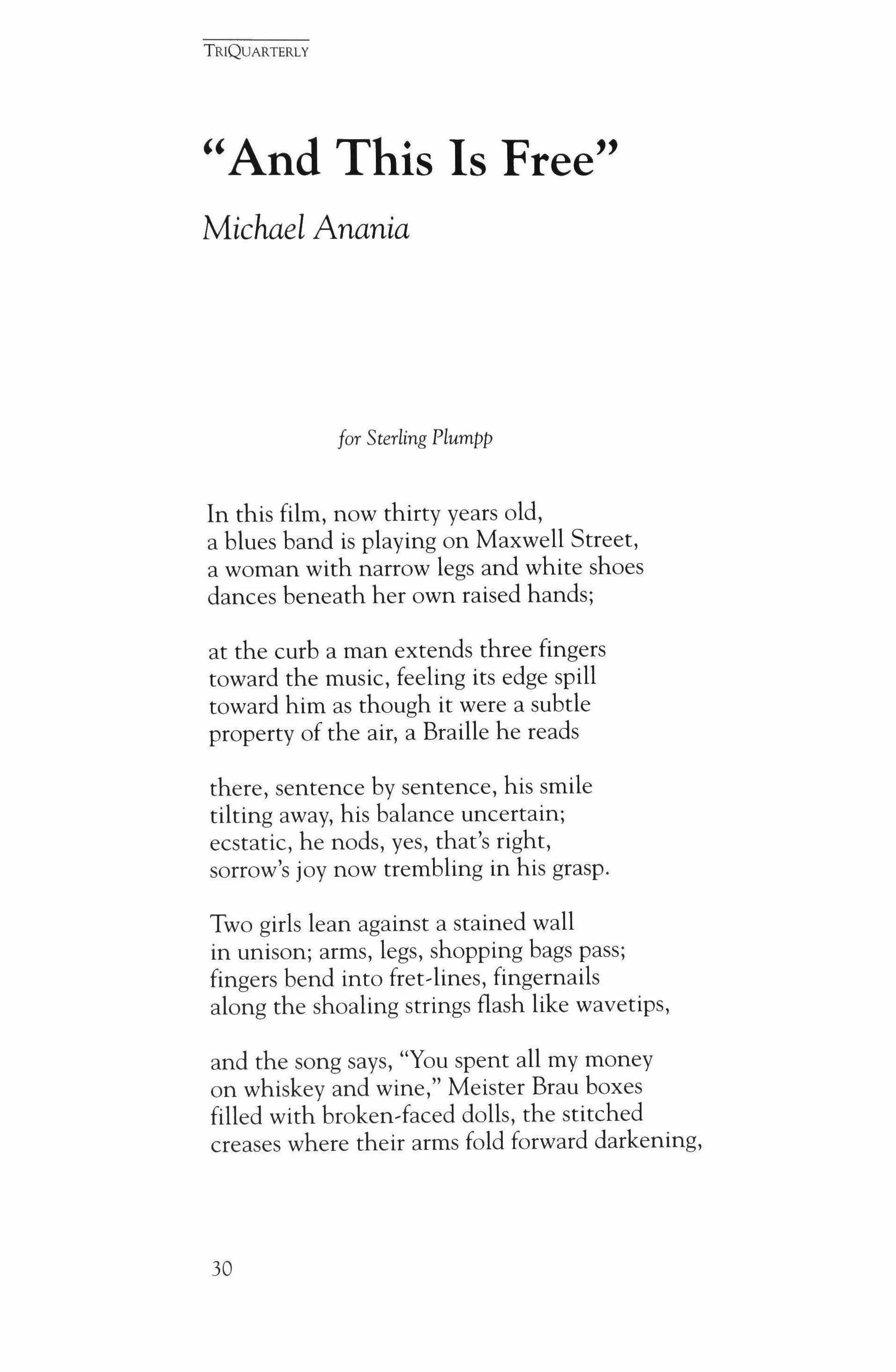 for Sterling Plumpp
for Sterling Plumpp
In this film, now thirty years old, a blues band is playing on Maxwell Street, a woman with narrow legs and white shoes dances beneath her own raised hands; at the curb a man extends three fingers toward the music, feeling its edge spill toward him as though it were a subtle property of the air, a Braille he reads there, sentence by sentence, his smile tilting away, his balance uncertain; ecstatic, he nods, yes, that's right, sorrow's joy now trembling in his grasp.
Two girls lean against a stained wall in unison; arms, legs, shopping bags pass; fingers bend into fret-lines, fingernails along the shoaling strings flash like wavetips, and the song says, "You spent all my money on whiskey and wine," Meister Brau boxes filled with broken-faced dolls, the stitched creases where their arms fold forward darkening,
TRIQUARTERLY
30
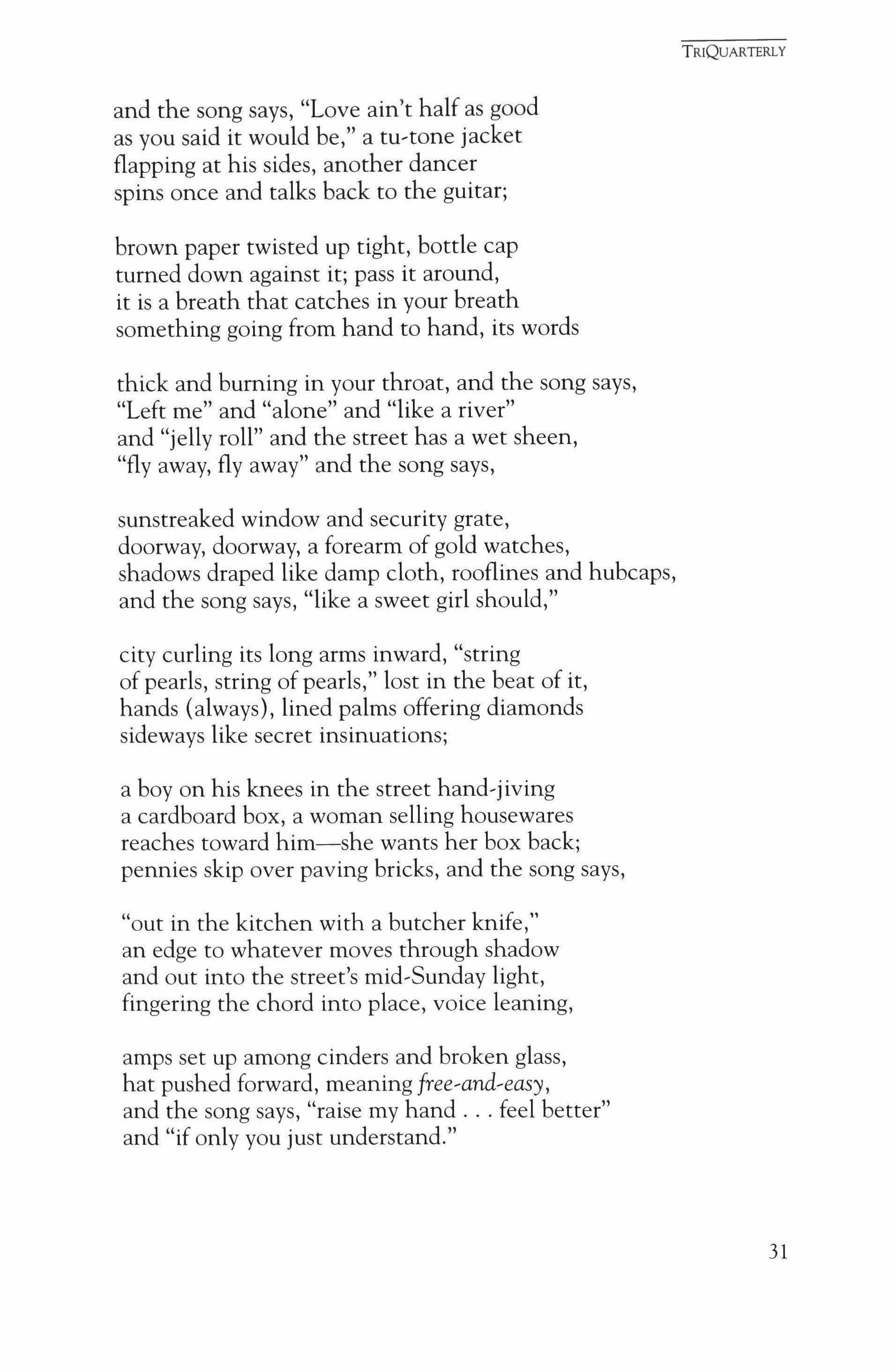
and the song says, "Love ain't half as good as you said it would be," a tu-tone jacket flapping at his sides, another dancer spins once and talks back to the guitar;
brown paper twisted up tight, bottle cap turned down against it; pass it around, it is a breath that catches in your breath something going from hand to hand, its words
thick and burning in your throat, and the song says, "Left me" and "alone" and "like a river" and "jelly roll" and the street has a wet sheen, "flyaway, flyaway" and the song says,
sunstreaked window and security grate, doorway, doorway, a forearm of gold watches, shadows draped like damp cloth, rooflines and hubcaps, and the song says, "like a sweet girl should,"
city curling its long arms inward, "string of pearls, string of pearls," lost in the beat of it, hands (always), lined palms offering diamonds sideways like secret insinuations;
a boy on his knees in the street hand-jiving a cardboard box, a woman selling housewares reaches toward him-she wants her box back; pennies skip over paving bricks, and the song says, "out in the kitchen with a butcher knife," an edge to whatever moves through shadow and out into the street's mid-Sunday light, fingering the chord into place, voice leaning,
amps set up among cinders and broken glass, hat pushed forward, meaning free�and�easy, and the song says, "raise my hand feel better" and "if only you just understand."
TRIQUARTERLY 31
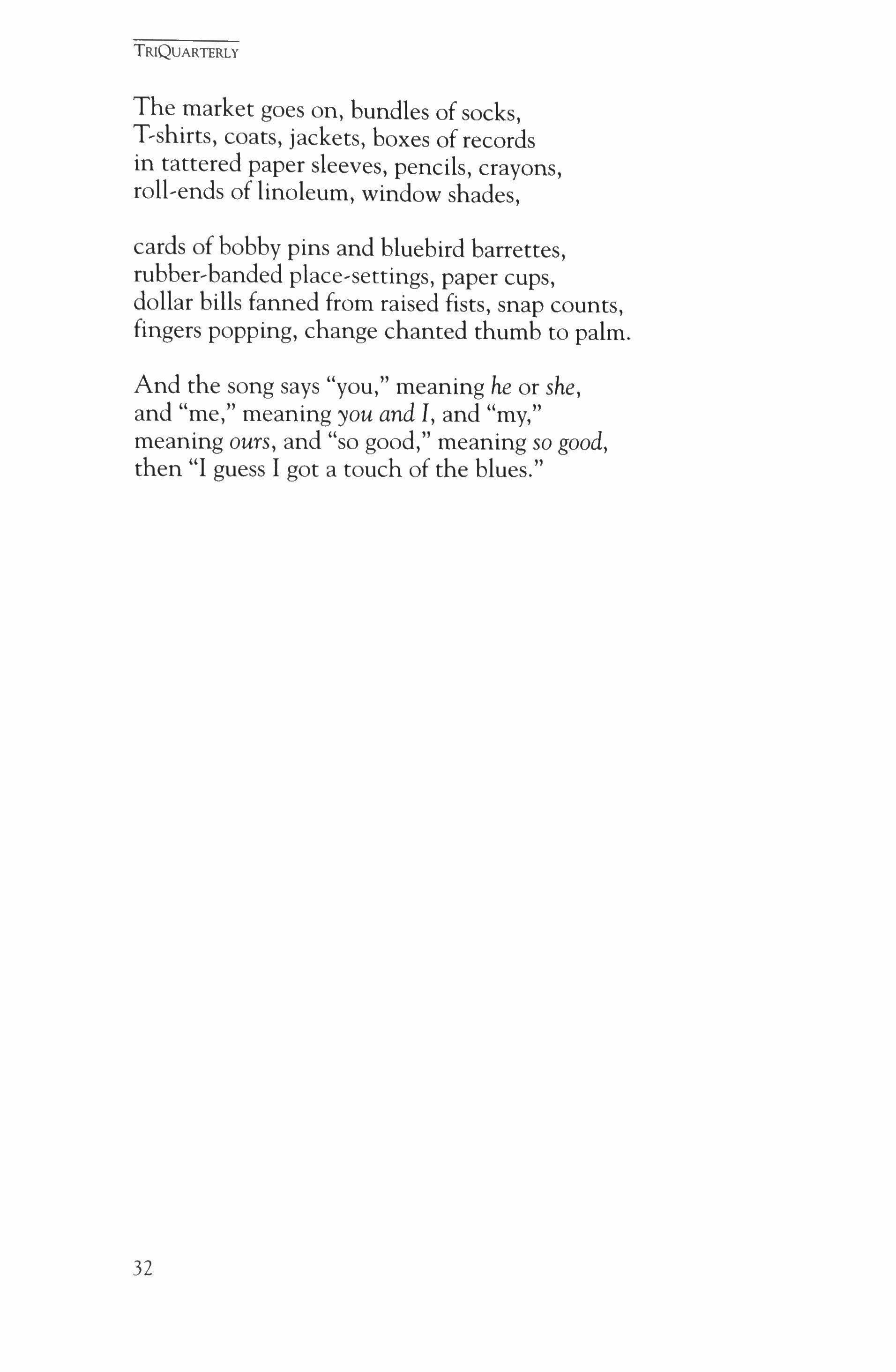
The market goes on, bundles of socks, Tshirts, coats, jackets, boxes of records in tattered paper sleeves, pencils, crayons, roll-ends of linoleum, window shades, cards of bobby pins and bluebird barrettes, rubber'banded place,settings, paper cups, dollar bills fanned from raised fists, snap counts, fingers popping, change chanted thumb to palm.
And the song says "you," meaning he or she, and "me," meaning you and I, and "my," meaning ours, and "so good," meaning so good, then "I guess I got a touch of the blues."
TRIQUARTERLY
32
Bells
Karen Brennan
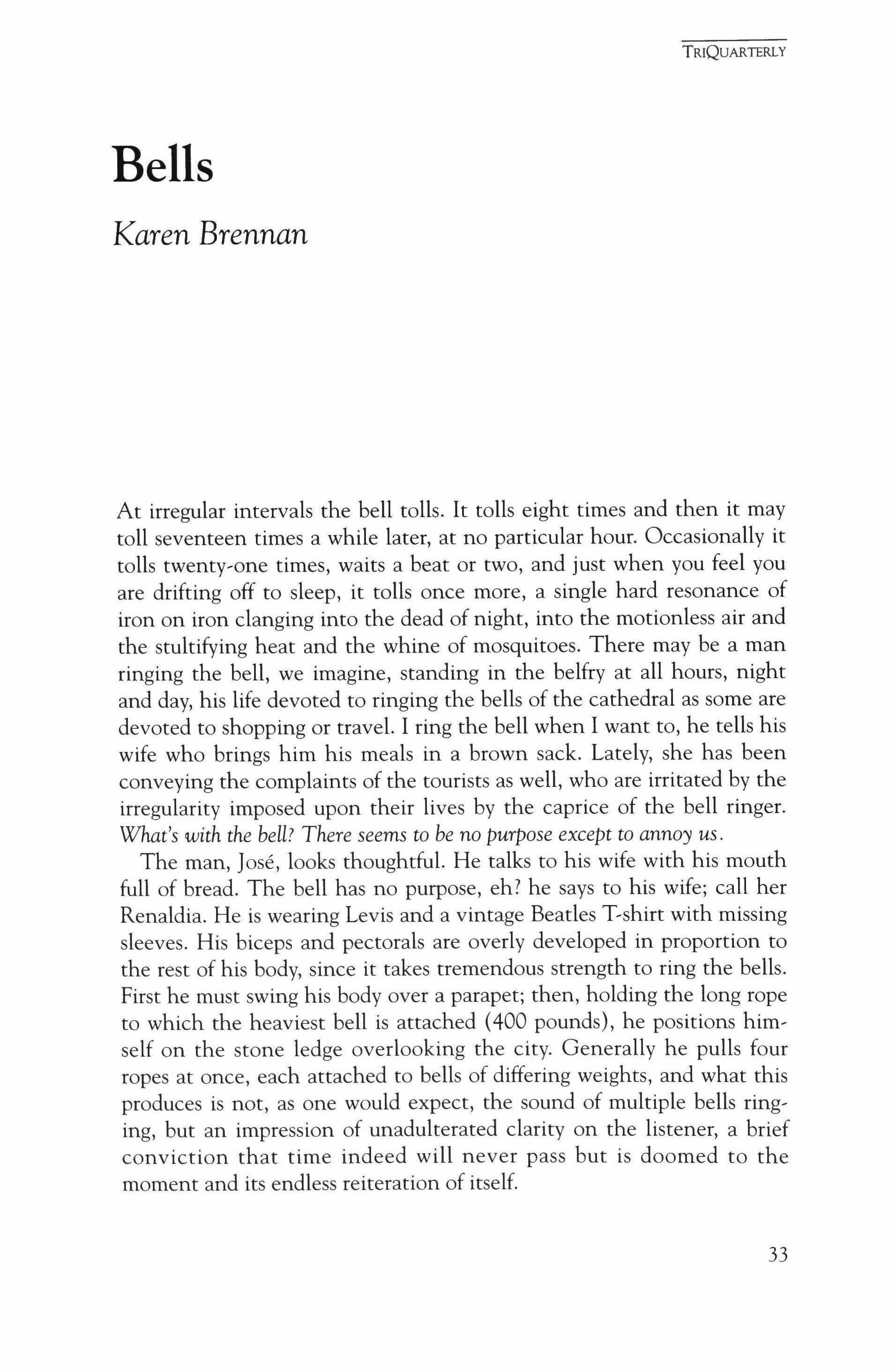
At irregular intervals the bell tolls. It tolls eight times and then it may toll seventeen times a while later, at no particular hour. Occasionally it tolls twenty-one times, waits a beat or two, and just when you feel you are drifting off to sleep, it tolls once more, a single hard resonance of iron on iron clanging into the dead of night, into the motionless air and the stultifying heat and the whine of mosquitoes. There may be a man ringing the bell, we imagine, standing in the belfry at all hours, night and day, his life devoted to ringing the bells of the cathedral as some are devoted to shopping or travel. I ring the bell when I want to, he tells his wife who brings him his meals in a brown sack. Lately, she has been conveying the complaints of the tourists as well, who are irritated by the irregularity imposed upon their lives by the caprice of the bell ringer. What's with the bell? There seems to be no purpose except to annoy us.
The man, Jose, looks thoughtful. He talks to his wife with his mouth full of bread. The bell has no purpose, eh? he says to his wife; call her Renaldia. He is wearing Levis and a vintage Beatles T-shirt with missing sleeves. His biceps and pectorals are overly developed in proportion to the rest of his body, since it takes tremendous strength to ring the bells. First he must swing his body over a parapet; then, holding the long rope to which the heaviest bell is attached (400 pounds), he positions himself on the stone ledge overlooking the city. Generally he pulls four ropes at once, each attached to bells of differing weights, and what this produces is not, as one would expect, the sound of multiple bells ringing, but an impression of unadulterated clarity on the listener, a brief conviction that time indeed will never pass but is doomed to the moment and its endless reiteration of itself.
TRIQUARTERLY
33
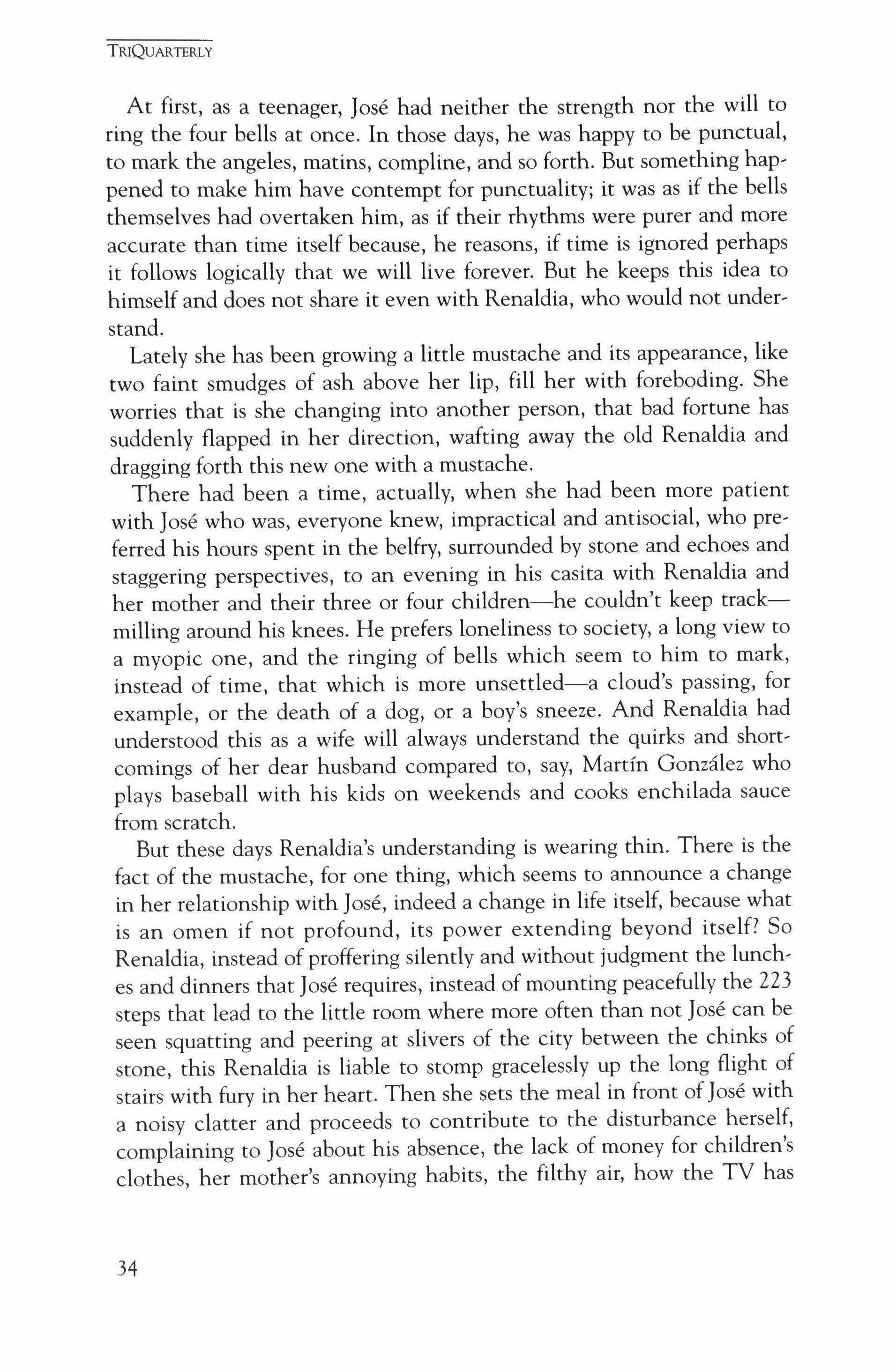
At first, as a teenager, Jose had neither the strength nor the will to ring the four bells at once. In those days, he was happy to be punctual, to mark the angeles, matins, compline, and so forth. But something hap' pened to make him have contempt for punctuality; it was as if the bells themselves had overtaken him, as if their rhythms were purer and more accurate than time itself because, he reasons, if time is ignored perhaps it follows logically that we will live forever. But he keeps this idea to himself and does not share it even with Renaldia, who would not under, stand.
Lately she has been growing a little mustache and its appearance, like two faint smudges of ash above her lip, fill her with foreboding. She worries that is she changing into another person, that bad fortune has suddenly flapped in her direction, wafting away the old Renaldia and dragging forth this new one with a mustache.
There had been a time, actually, when she had been more patient with Jose who was, everyone knew, impractical and antisocial, who pre, ferred his hours spent in the belfry, surrounded by stone and echoes and staggering perspectives, to an evening in his casita with Renaldia and her mother and their three or four children-he couldn't keep trackmilling around his knees. He prefers loneliness to society, a long view to a myopic one, and the ringing of bells which seem to him to mark, instead of time, that which is more unsettled-a cloud's passing, for example, or the death of a dog, or a boy's sneeze. And Renaldia had understood this as a wife will always understand the quirks and short, comings of her dear husband compared to, say, Martin Gonzalez who plays baseball with his kids on weekends and cooks enchilada sauce from scratch.
But these days Renaldia's understanding is wearing thin. There is the fact of the mustache, for one thing, which seems to announce a change in her relationship with Jose, indeed a change in life itself, because what is an omen if not profound, its power extending beyond itself? So Renaldia, instead of proffering silently and without judgment the lunch, es and dinners that Jose requires, instead of mounting peacefully the 223 steps that lead to the little room where more often than not Jose can be seen squatting and peering at slivers of the city between the chinks of stone, this Renaldia is liable to stomp gracelessly up the long flight of stairs with fury in her heart. Then she sets the meal in front of Jose with a noisy clatter and proceeds to contribute to the disturbance herself, complaining to Jose about his absence, the lack of money for children's clothes, her mother's annoying habits, the filthy air, how the TV has
TRIQUARTERLY
34
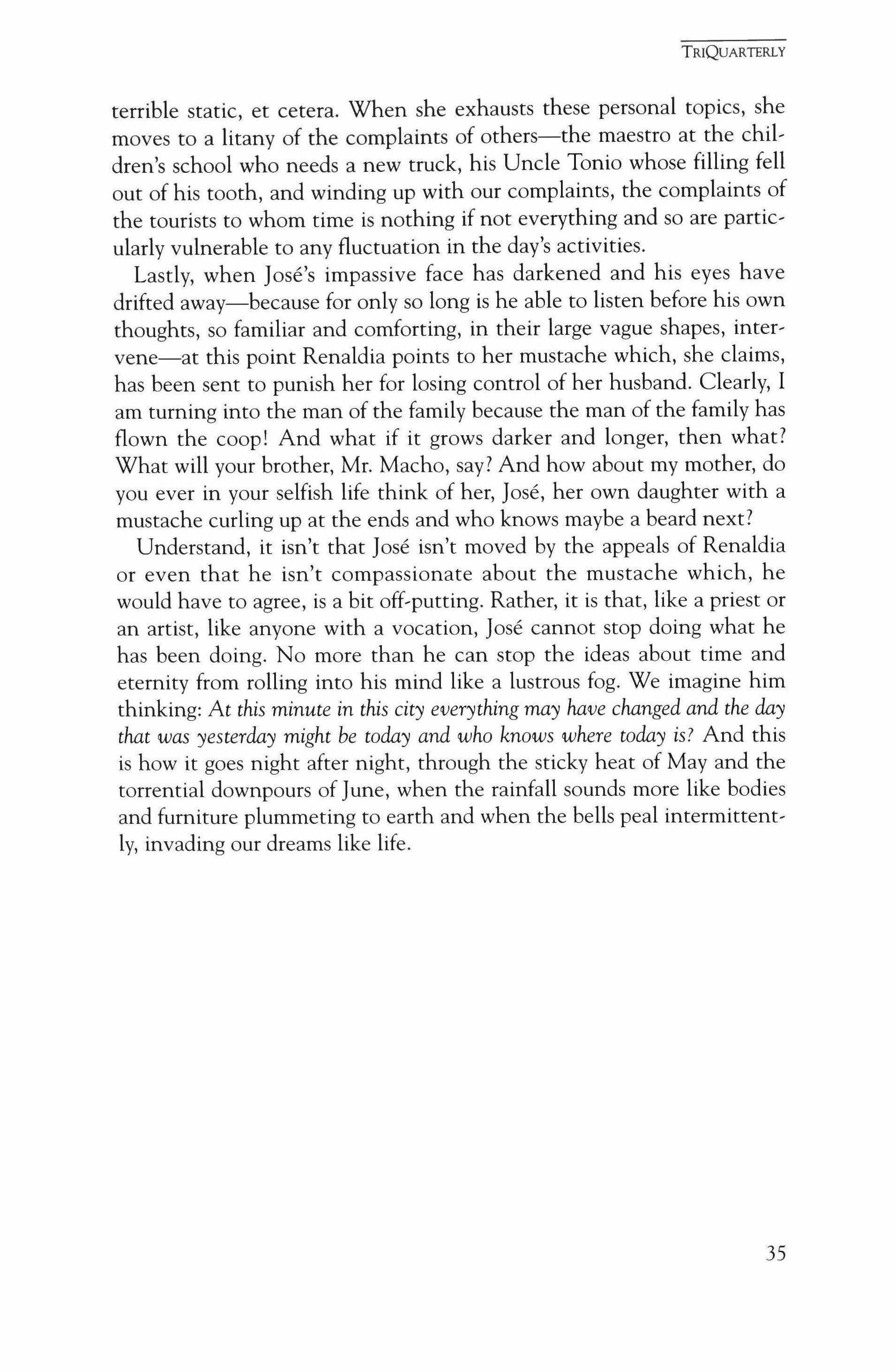
terrible static, et cetera. When she exhausts these personal topics, she moves to a litany of the complaints of others-the maestro at the children's school who needs a new truck, his Uncle Tonio whose filling fell out of his tooth, and winding up with our complaints, the complaints of the tourists to whom time is nothing if not everything and so are particularly vulnerable to any fluctuation in the day's activities.
Lastly, when Jose's impassive face has darkened and his eyes have drifted away-because for only so long is he able to listen before his own thoughts, so familiar and comforting, in their large vague shapes, intervene-at this point Renaldia points to her mustache which, she claims, has been sent to punish her for losing control of her husband. Clearly, I am turning into the man of the family because the man of the family has flown the coop! And what if it grows darker and longer, then what? What will your brother, Mr. Macho, say? And how about my mother, do you ever in your selfish life think of her, Jose, her own daughter with a mustache curling up at the ends and who knows maybe a beard next?
Understand, it isn't that Jose isn't moved by the appeals of Renaldia or even that he isn't compassionate about the mustache which, he would have to agree, is a bit off-putting. Rather, it is that, like a priest or an artist, like anyone with a vocation, Jose cannot stop doing what he has been doing. No more than he can stop the ideas about time and eternity from rolling into his mind like a lustrous fog. We imagine him thinking: At this minute in this city everything may have changed and the day that was yesterday might be today and who knows where today is? And this is how it goes night after night, through the sticky heat of May and the torrential downpours of June, when the rainfall sounds more like bodies and furniture plummeting to earth and when the bells peal intermittently, invading our dreams like life.
TRIQUARTERLY
35
Teresa Cader
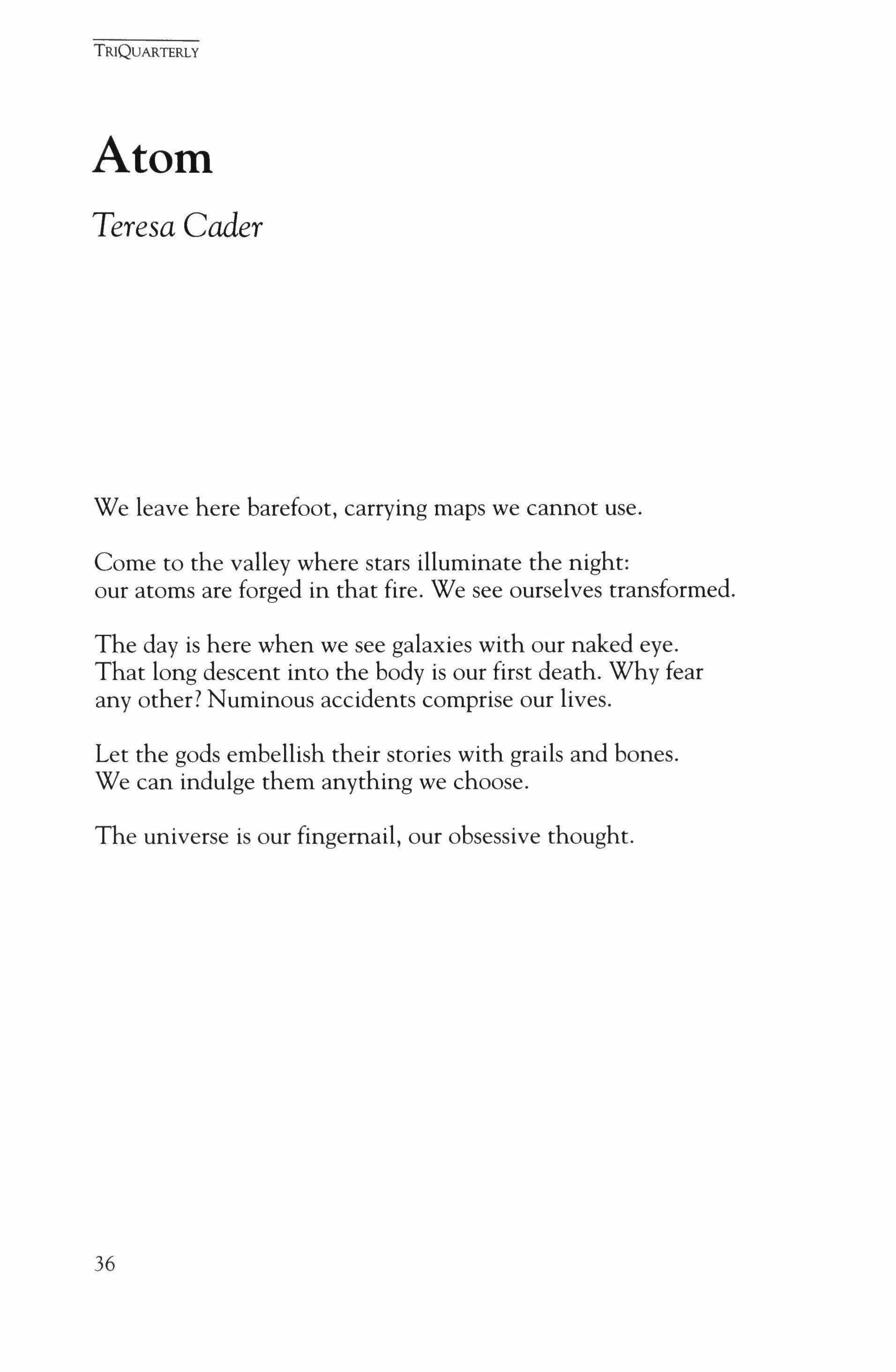
We leave here barefoot, carrying maps we cannot use.
Come to the valley where stars illuminate the night: our atoms are forged in that fire. We see ourselves transformed.
The day is here when we see galaxies with our naked eye. That long descent into the body is our first death. Why fear any other? Numinous accidents comprise our lives.
Let the gods embellish their stories with grails and bones. We can indulge them anything we choose.
The universe is our fingernail, our obsessive thought.
TRIQUARTERLY Atom
36
Ciudad
Remco Campert
Translatedfrom the Dutch by the author and Reginald Gibbons
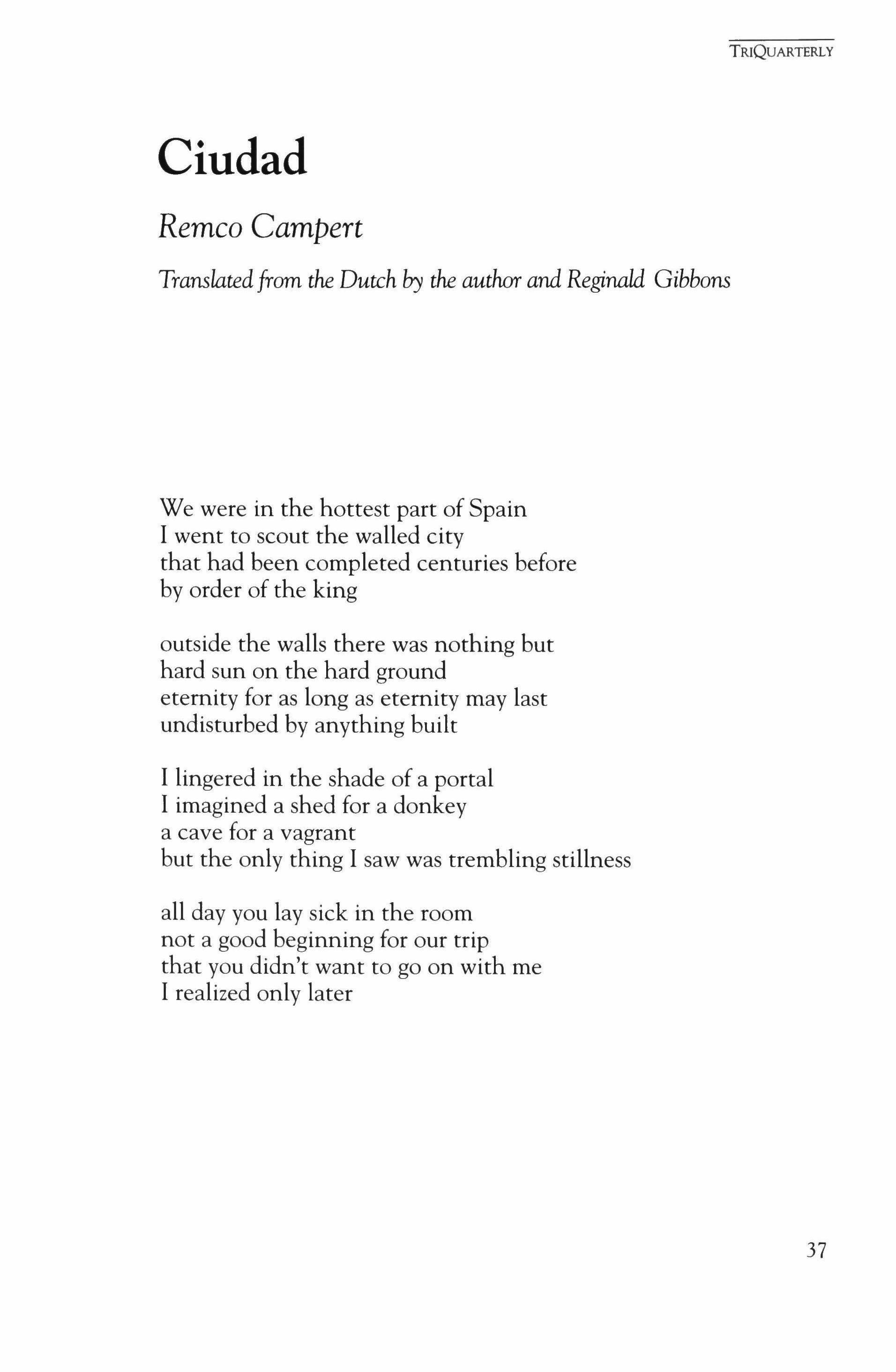
We were in the hottest part of Spain I went to scout the walled city that had been completed centuries before by order of the king outside the walls there was nothing but hard sun on the hard ground eternity for as long as eternity may last undisturbed by anything built
I lingered in the shade of a portal I imagined a shed for a donkey a cave for a vagrant but the only thing I saw was trembling stillness all day you lay sick in the room not a good beginning for our trip that you didn't want to go on with me I realized only later
TRIQUARTERLY
37
Two Poems
Carl Dennis
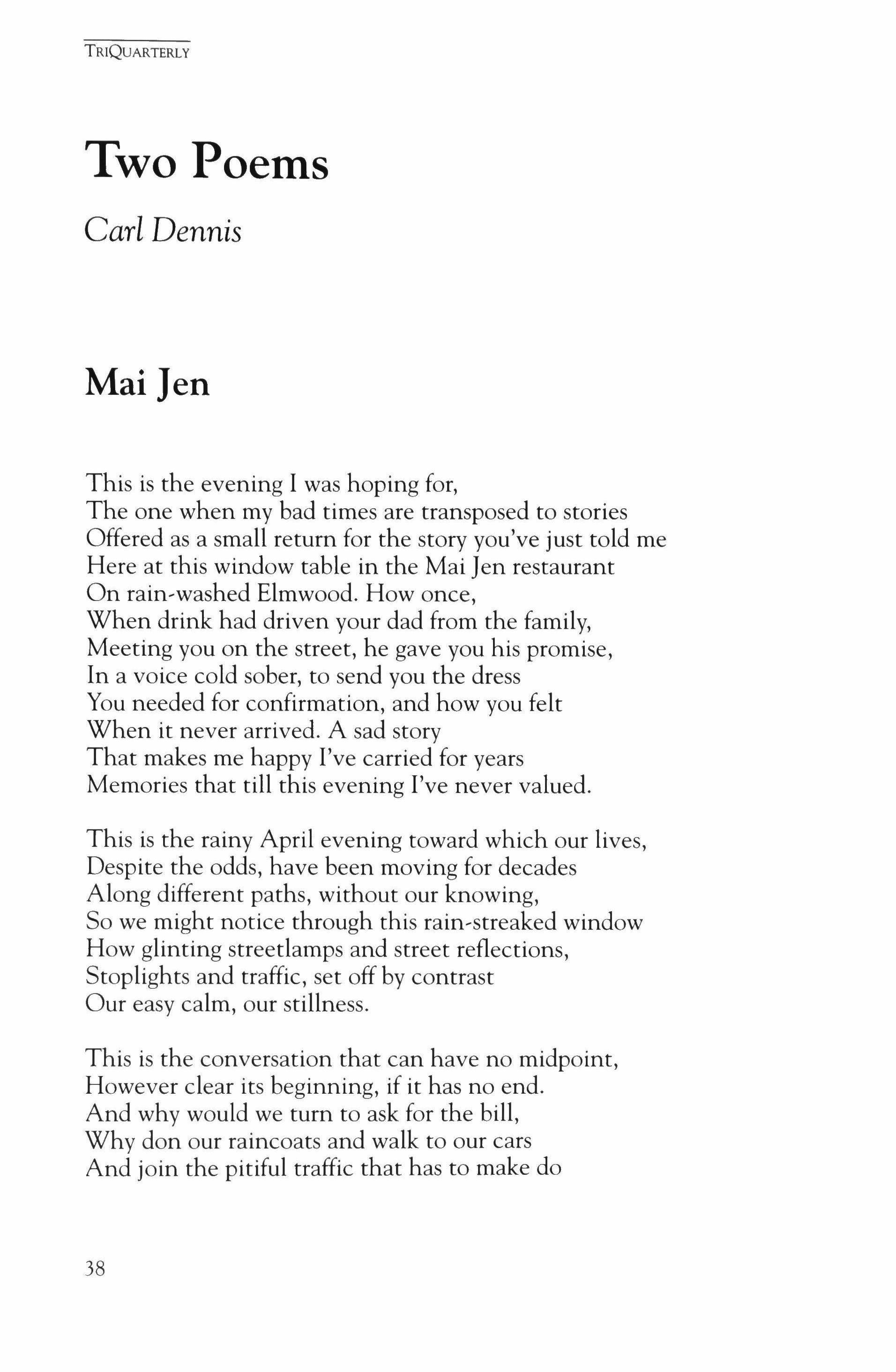
MaiJen
This is the evening I was hoping for, The one when my bad times are transposed to stories Offered as a small return for the story you've just told me Here at this window table in the Mai [en restaurant On rain-washed Elmwood. How once, When drink had driven your dad from the family, Meeting you on the street, he gave you his promise, In a voice cold sober, to send you the dress You needed for confirmation, and how you felt When it never arrived. A sad story That makes me happy I've carried for years Memories that till this evening I've never valued.
This is the rainy April evening toward which our lives, Despite the odds, have been moving for decades Along different paths, without our knowing, So we might notice through this rain-streaked window How glinting streetlamps and street reflections, Stoplights and traffic, set off by contrast Our easy calm, our stillness.
This is the conversation that can have no midpoint, However clear its beginning, if it has no end. And why would we turn to ask for the bill, Why don our raincoats and walk to our cars And join the pitiful traffic that has to make do
TRIQUARTERLY
38
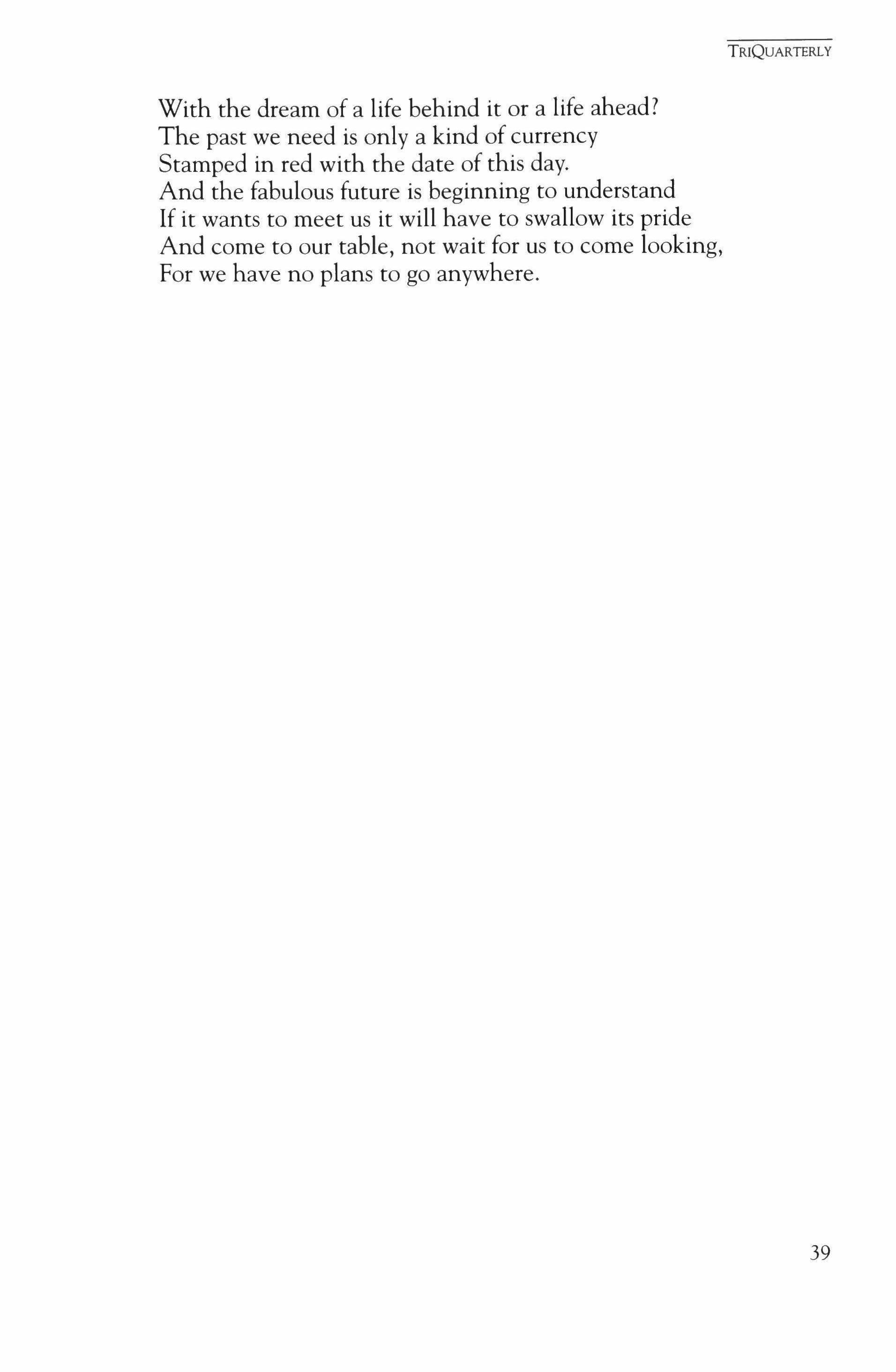
With the dream of a life behind it or a life ahead?
The past we need is only a kind of currency Stamped in red with the date of this day. And the fabulous future is beginning to understand If it wants to meet us it will have to swallow its pride And come to our table, not wait for us to come looking, For we have no plans to go anywhere.
TRIQUARTERLY 39
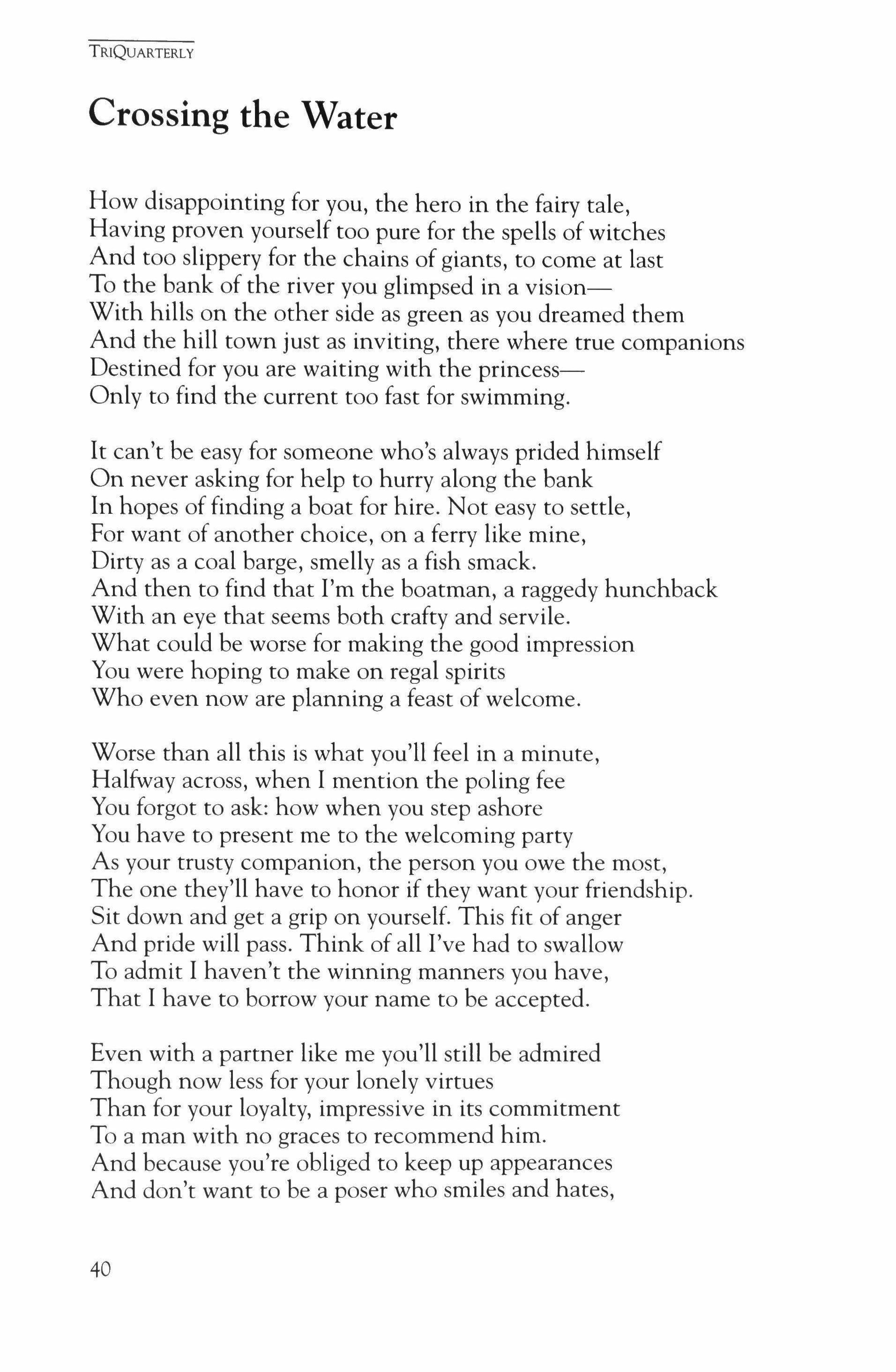
Crossing the Water
How disappointing for you, the hero in the fairy tale, Having proven yourself too pure for the spells of witches And too slippery for the chains of giants, to come at last To the bank of the river you glimpsed in a visionWith hills on the other side as green as you dreamed them And the hill town just as inviting, there where true companions Destined for you are waiting with the princessOnly to find the current too fast for swimming.
It can't be easy for someone who's always prided himself On never asking for help to hurry along the bank In hopes of finding a boat for hire. Not easy to settle, For want of another choice, on a ferry like mine, Dirty as a coal barge, smelly as a fish smack. And then to find that I'm the boatman, a raggedy hunchback With an eye that seems both crafty and servile. What could be worse for making the good impression You were hoping to make on regal spirits Who even now are planning a feast of welcome.
Worse than all this is what you'll feel in a minute, Halfway across, when I mention the poling fee You forgot to ask: how when you step ashore You have to present me to the welcoming party
As your trusty companion, the person you owe the most, The one they'll have to honor if they want your friendship. Sit down and get a grip on yourself. This fit of anger And pride will pass. Think of all I've had to swallow To admit I haven't the winning manners you have, That I have to borrow your name to be accepted.
Even with a partner like me you'll still be admired Though now less for your lonely virtues Than for your loyalty, impressive in its commitment To a man with no graces to recommend him. And because you're obliged to keep up appearances And don't want to be a poser who smiles and hates,
TRIQUARTERLY
40
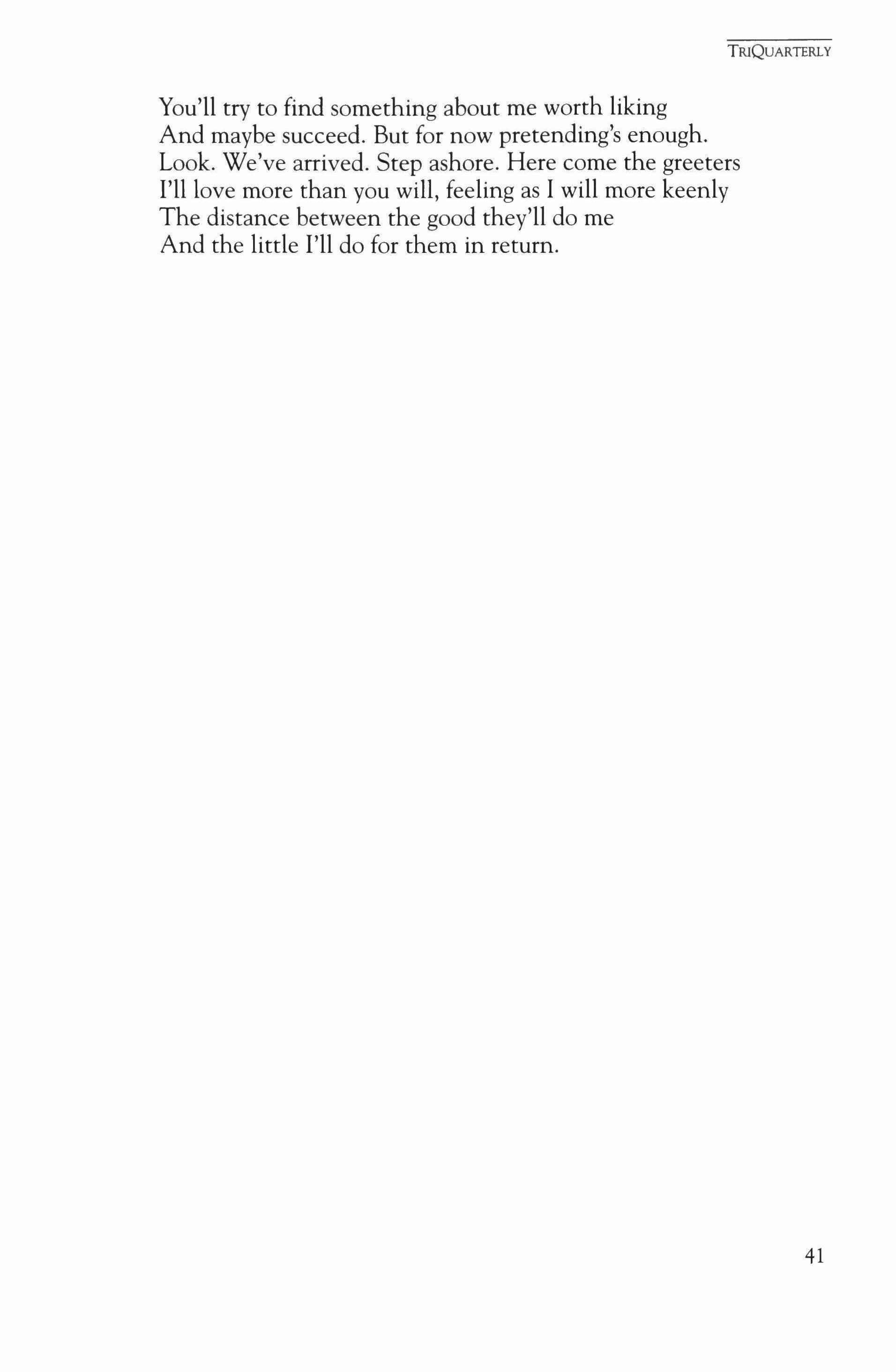
You'll try to find something about me worth liking And maybe succeed. But for now pretending's enough. Look. We've arrived. Step ashore. Here come the greeters I'll love more than you will, feeling as I will more keenly The distance between the good they'll do me And the little I'll do for them in return.
TRIQUARTERLY
41
Two Poems
Amy England
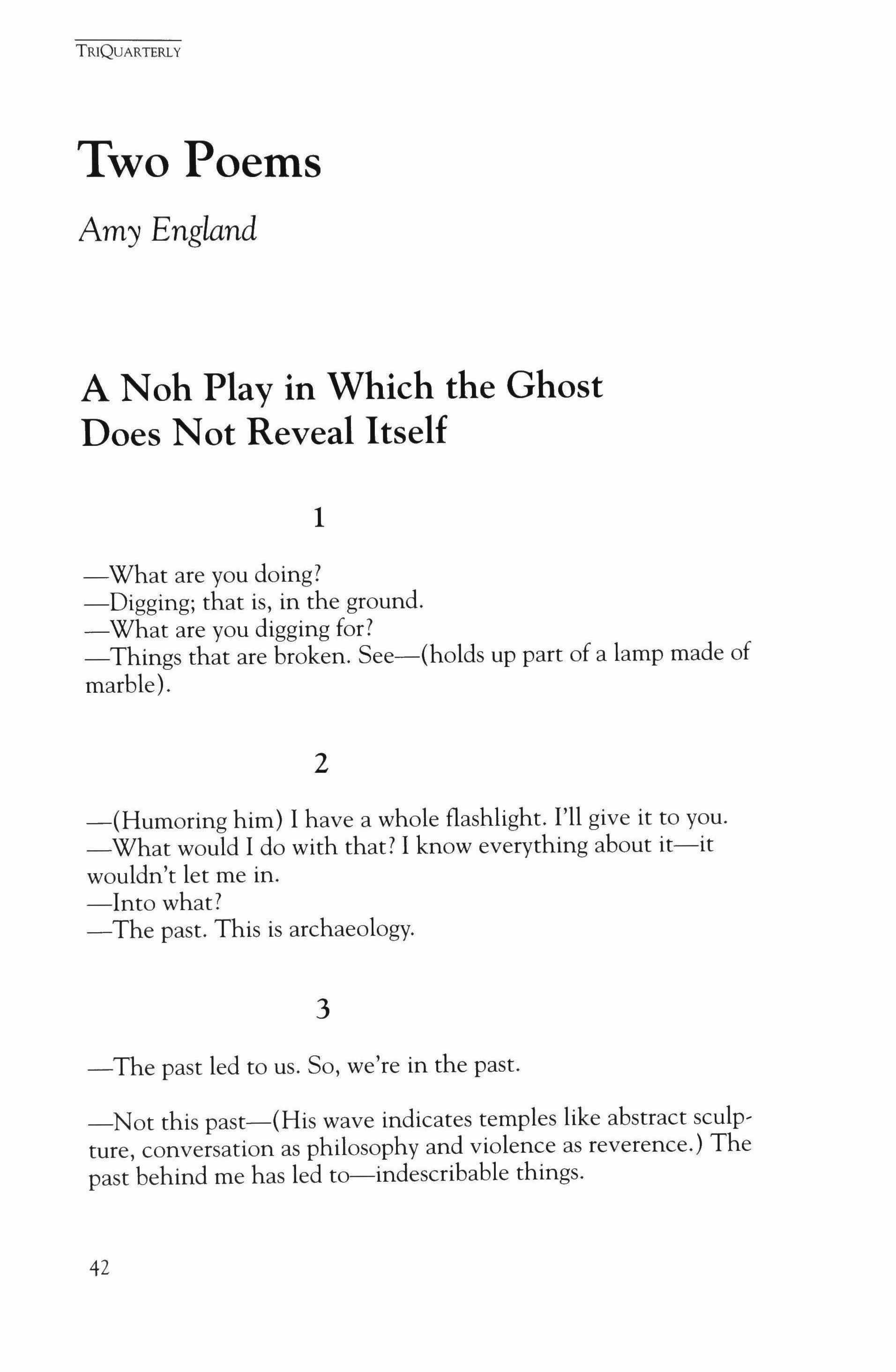
A Noh Play in Which the Ghost Does Not Reveal Itself
1
-What are you doing?
-Digging; that is, in the ground.
-What are you digging for?
-Things that are broken. See-(holds up part of a lamp made of marble).
2
-(Humoring him) I have a whole flashlight. I'll give it to you.
-What would I do with that? I know everything about it-it wouldn't let me in.
-Into what?
-The past. This is archaeology.
3
-The past led to us. So, we're in the past.
-Not this past-(His wave indicates temples like abstract sculpture, conversation as philosophy and violence as reverence.) The past behind me has led to-indescribable things.
TRIQUARTERLY
42
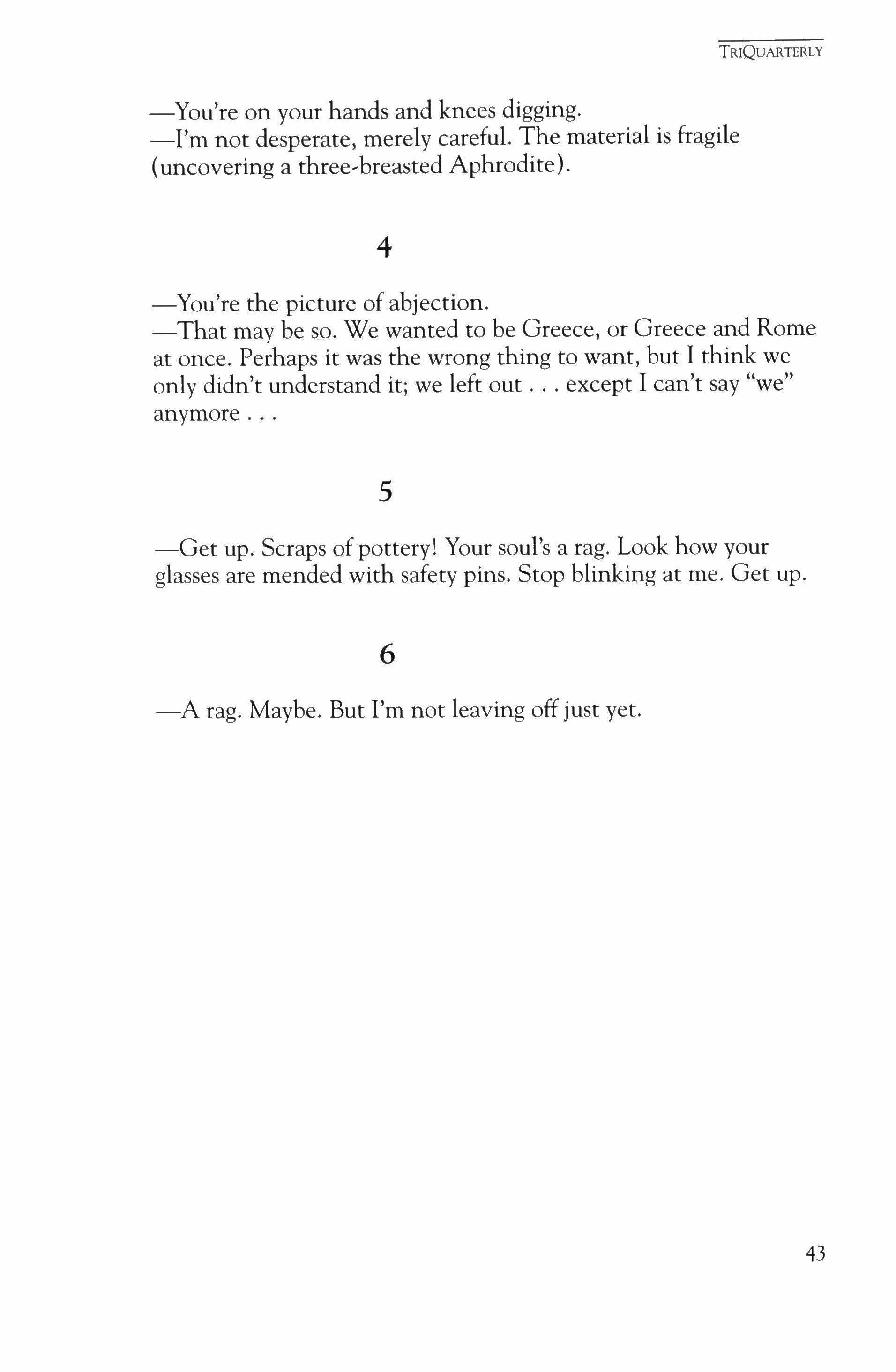
-You're on your hands and knees digging.
-I'm not desperate, merely careful. The material is fragile (uncovering a three-breasted Aphrodite).
4
-You're the picture of abjection. -That may be so. We wanted to be Greece, or Greece and Rome at once. Perhaps it was the wrong thing to want, but I think we only didn't understand it; we left out except I can't say "we" anymore
5
-Get up. Scraps of pottery! Your soul's a rag. Look how your glasses are mended with safety pins. Stop blinking at me. Get up.
6
-A rag. Maybe. But I'm not leaving off just yet.
TRIQUARTERLY
43
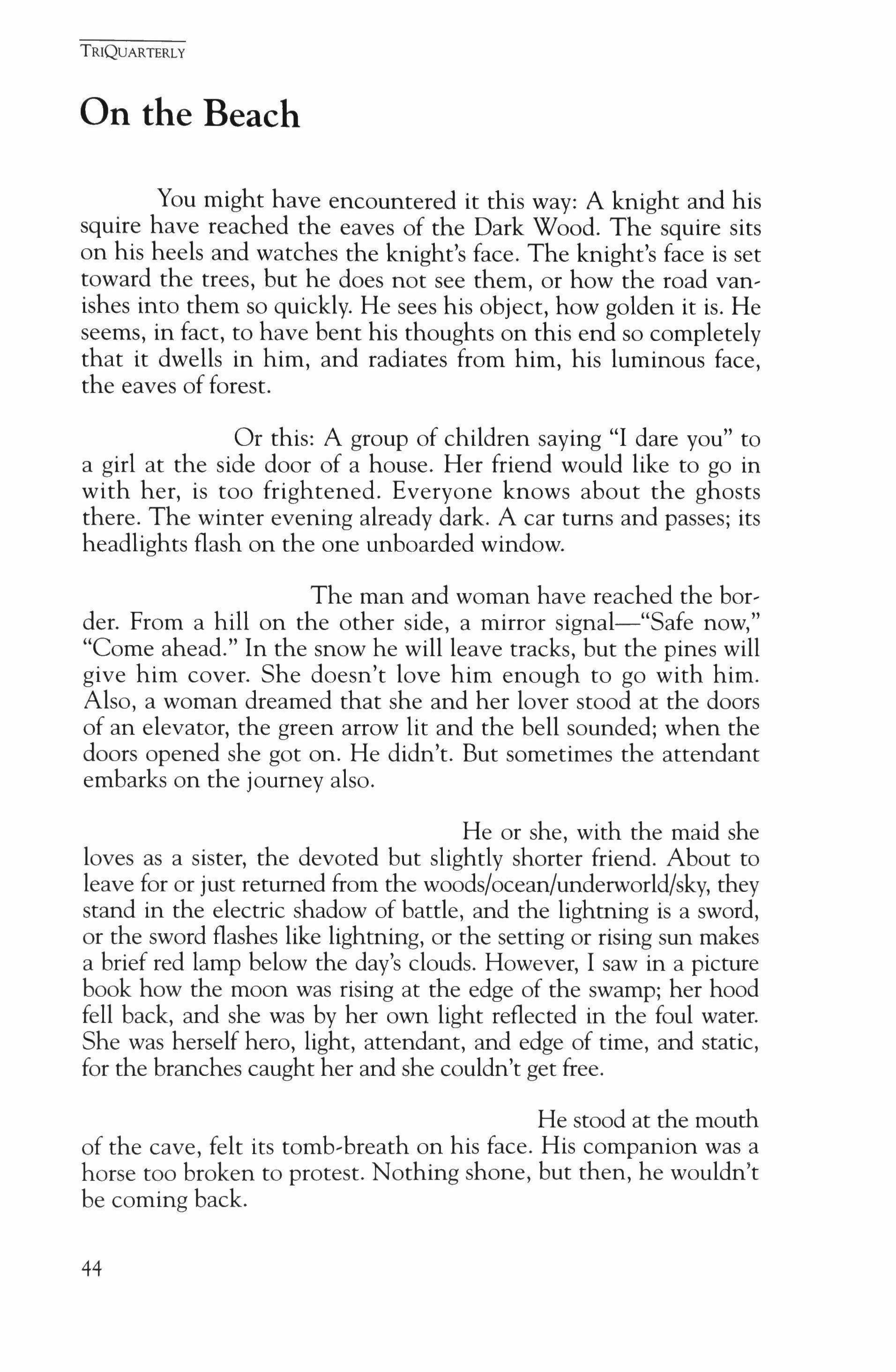
On the Beach
You might have encountered it this way: A knight and his squire have reached the eaves of the Dark Wood. The squire sits on his heels and watches the knight's face. The knight's face is set toward the trees, but he does not see them, or how the road van, ishes into them so quickly. He sees his object, how golden it is. He seems, in fact, to have bent his thoughts on this end so completely that it dwells in him, and radiates from him, his luminous face, the eaves of forest.
Or this: A group of children saying "I dare you" to a girl at the side door of a house. Her friend would like to go in with her, is too frightened. Everyone knows about the ghosts there. The winter evening already dark. A car turns and passes; its headlights flash on the one unboarded window.
The man and woman have reached the border. From a hill on the other side, a mirror signal-"Safe now," "Come ahead." In the snow he will leave tracks, but the pines will give him cover. She doesn't love him enough to go with him. Also, a woman dreamed that she and her lover stood at the doors of an elevator, the green arrow lit and the bell sounded; when the doors opened she got on. He didn't. But sometimes the attendant embarks on the journey also.
He or she, with the maid she loves as a sister, the devoted but slightly shorter friend. About to leave for or just returned from the woods/ocean/underworld/sky, they stand in the electric shadow of battle, and the lightning is a sword, or the sword flashes like lightning, or the setting or rising sun makes a brief red lamp below the day's clouds. However, I saw in a picture book how the moon was rising at the edge of the swamp; her hood fell back, and she was by her own light reflected in the foul water. She was herself hero, light, attendant, and edge of time, and static, for the branches caught her and she couldn't get free.
He stood at the mouth of the cave, felt its tomb-breath on his face. His companion was a horse too broken to protest. Nothing shone, but then, he wouldn't be coming back.
TRIQUARTERLY
44
Testament of Arkey Wilson
Steve Fay
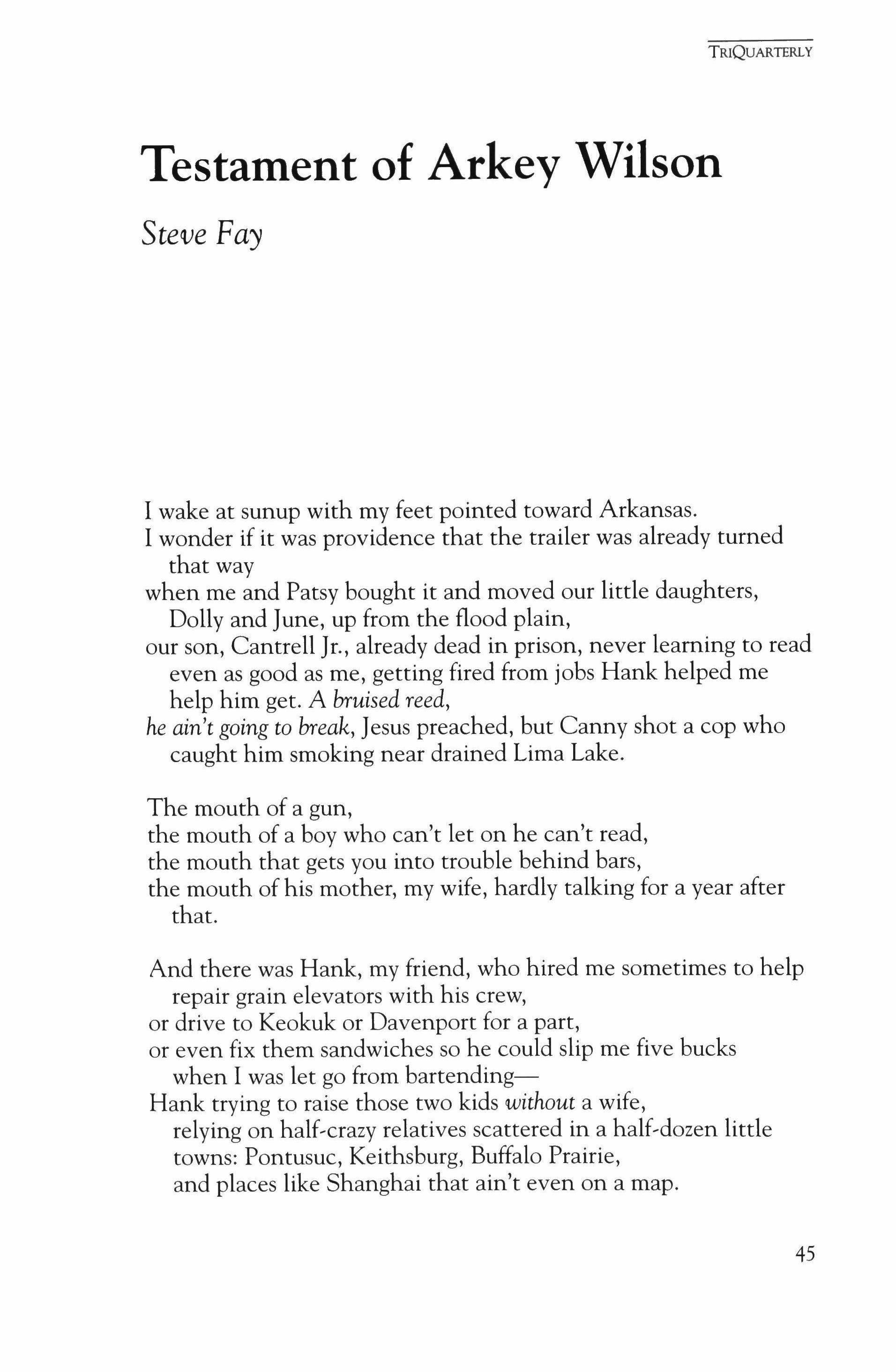
I wake at sunup with my feet pointed toward Arkansas. I wonder if it was providence that the trailer was already turned that way when me and Patsy bought it and moved our little daughters, Dolly and June, up from the flood plain, our son, Cantrell Jr., already dead in prison, never learning to read even as good as me, getting fired from jobs Hank helped me help him get. A bruised reed, he ain't going to break, Jesus preached, but Canny shot a cop who caught him smoking near drained Lima Lake.
The mouth of a gun, the mouth of a boy who can't let on he can't read, the mouth that gets you into trouble behind bars, the mouth of his mother, my wife, hardly talking for a year after that.
And there was Hank, my friend, who hired me sometimes to help repair grain elevators with his crew, or drive to Keokuk or Davenport for a part, or even fix them sandwiches so he could slip me five bucks when I was let go from bartendingHank trying to raise those two kids without a wife, relying on half-crazy relatives scattered in a half-dozen little towns: Pontusuc, Keithsburg, Buffalo Prairie, and places like Shanghai that ain't even on a map.
TRIQUARTERLY
45
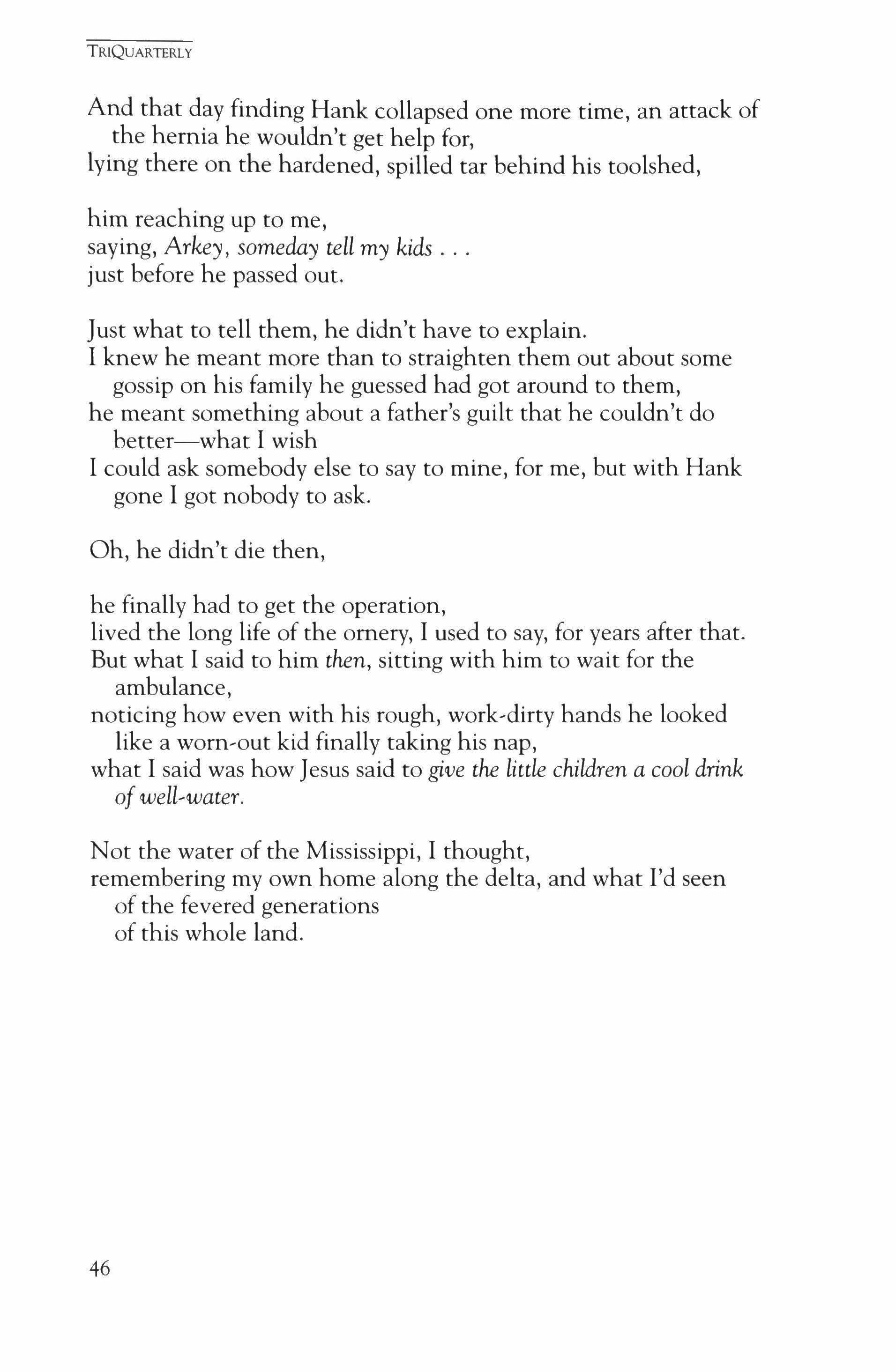
And that day finding Hank collapsed one more time, an attack of the hernia he wouldn't get help for, lying there on the hardened, spilled tar behind his toolshed,
him reaching up to me, saying, Arkey, someday tell my kids just before he passed out.
Just what to tell them, he didn't have to explain. I knew he meant more than to straighten them out about some gossip on his family he guessed had got around to them, he meant something about a father's guilt that he couldn't do better-what I wish I could ask somebody else to say to mine, for me, but with Hank gone I got nobody to ask.
Oh, he didn't die then, he finally had to get the operation, lived the long life of the ornery, I used to say, for years after that. But what I said to him then, sitting with him to wait for the ambulance, noticing how even with his rough, work-dirty hands he looked like a worn-out kid finally taking his nap, what I said was how Jesus said to give the little children a cool drink of well-water.
Not the water of the Mississippi, I thought, remembering my own home along the delta, and what I'd seen of the fevered generations of this whole land.
TRIQUARTERLY
46
And So Cold
Roland Flint
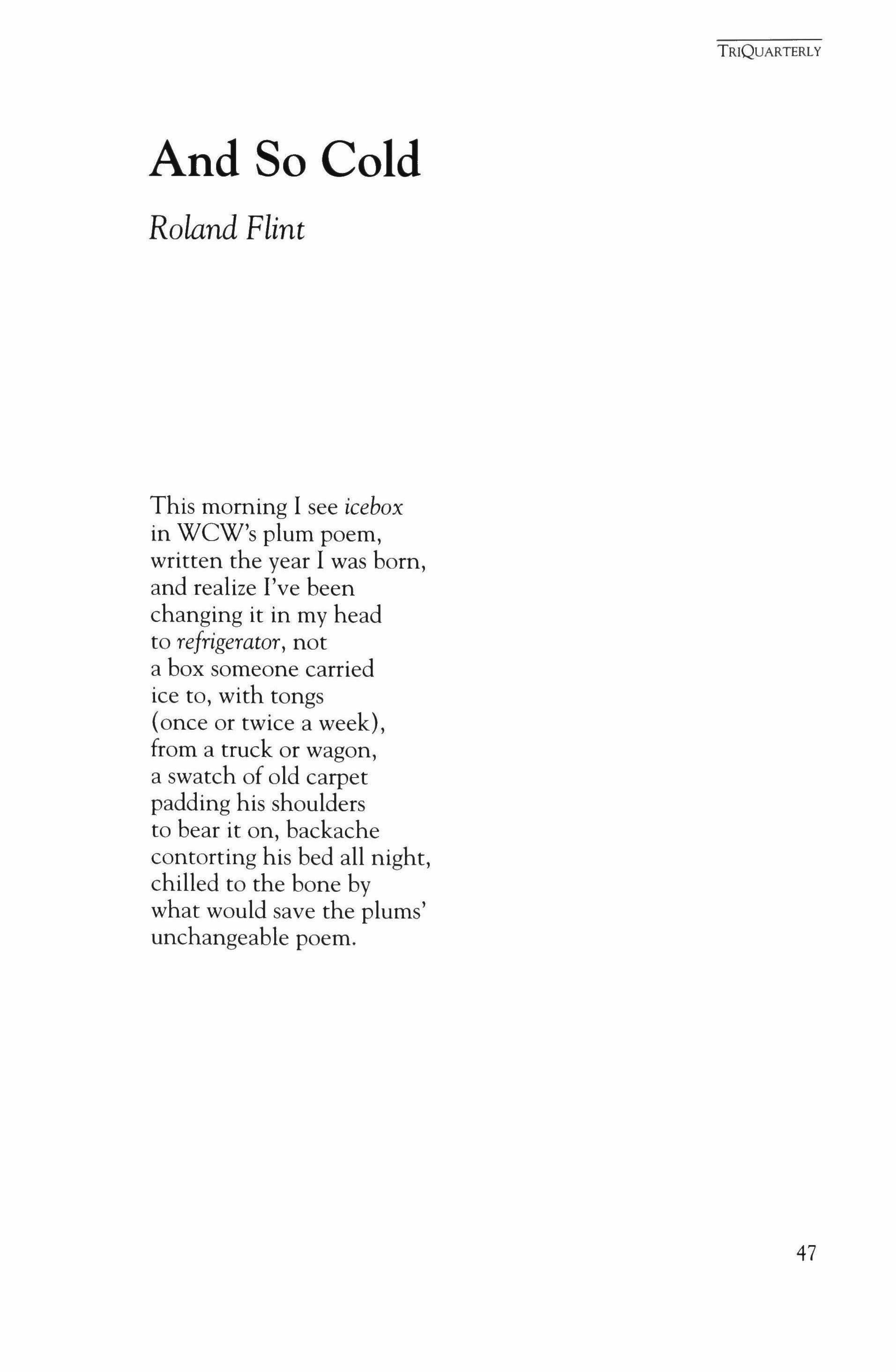
This morning I see icebox in WCW's plum poem, written the year I was born, and realize I've been changing it in my head to refrigerator, not a box someone carried ice to, with tongs (once or twice a week), from a truck or wagon, a swatch of old carpet padding his shoulders to bear it on, backache contorting his bed all night, chilled to the bone by what would save the plums' unchangeable poem.
TRIQUARTERLY
47
By Dawn's Early Light: The Meteor in the Madhouse
(Part III)
Leon Forrest
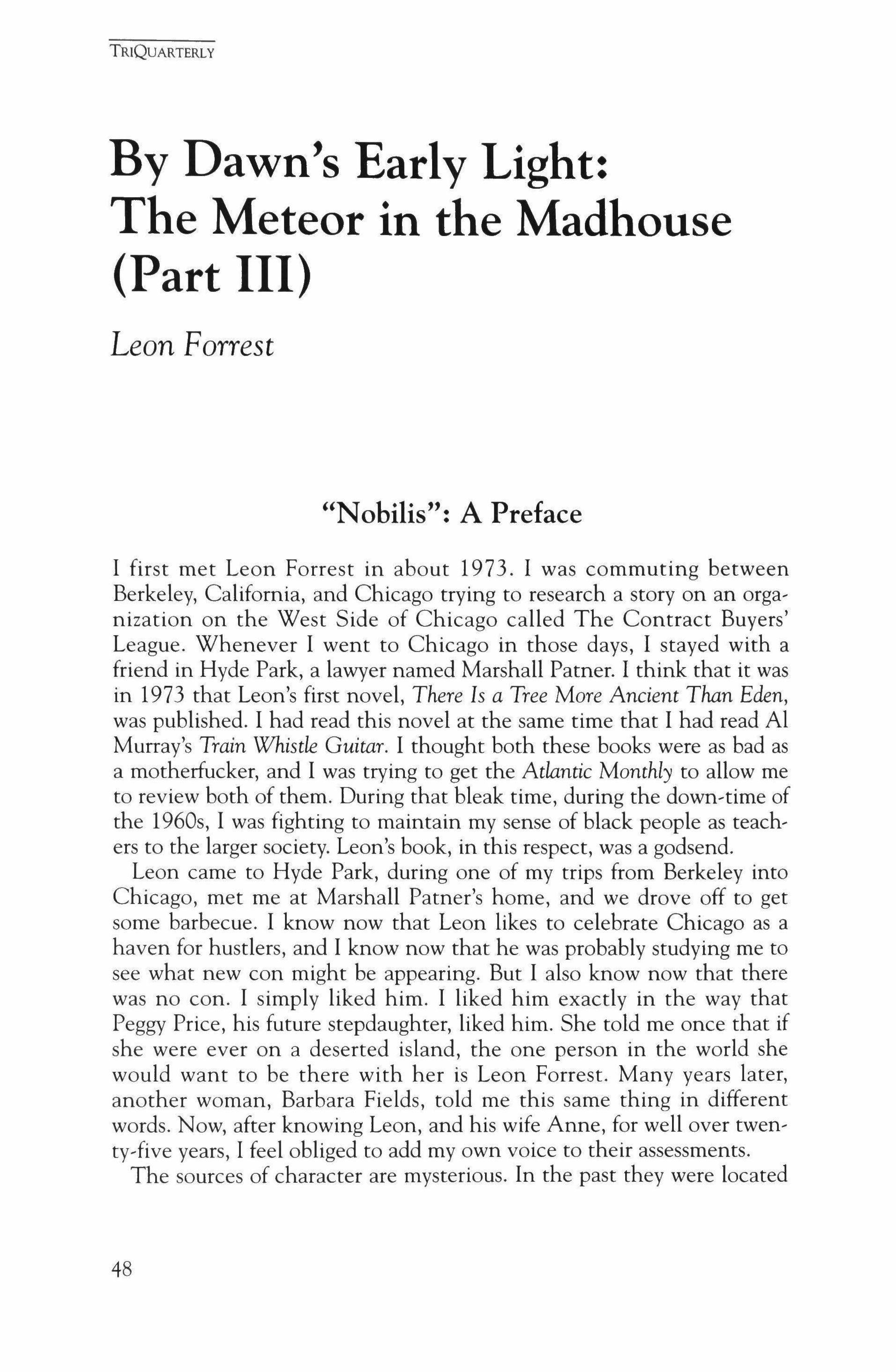
"Nobilis": A Preface
I first met Leon Forrest in about 1973. I was commuting between Berkeley, California, and Chicago trying to research a story on an organization on the West Side of Chicago called The Contract Buyers' League. Whenever I went to Chicago in those days, I stayed with a friend in Hyde Park, a lawyer named Marshall Patner. I think that it was in 1973 that Leon's first novel, There Is a Tree More Ancient Than Eden, was published. I had read this novel at the same time that I had read Al Murray's Train Whistle Guitar. I thought both these books were as bad as a motherfucker, and I was trying to get the Atlantic Monthly to allow me to review both of them. During that bleak time, during the down-time of the 1960s, I was fighting to maintain my sense of black people as teachers to the larger society. Leon's book, in this respect, was a godsend.
Leon came to Hyde Park, during one of my trips from Berkeley into Chicago, met me at Marshall Patner's home, and we drove off to get some barbecue. I know now that Leon likes to celebrate Chicago as a haven for hustlers, and I know now that he was probably studying me to see what new con might be appearing. But I also know now that there was no con. I simply liked him. I liked him exactly in the way that Peggy Price, his future stepdaughter, liked him. She told me once that if she were ever on a deserted island, the one person in the world she would want to be there with her is Leon Forrest. Many years later, another woman, Barbara Fields, told me this same thing in different words. Now, after knowing Leon, and his wife Anne, for well over twenty-five years, I feel obliged to add my own voice to their assessments.
The sources of character are mysterious. In the past they were located
TRIQUARTERLY
48
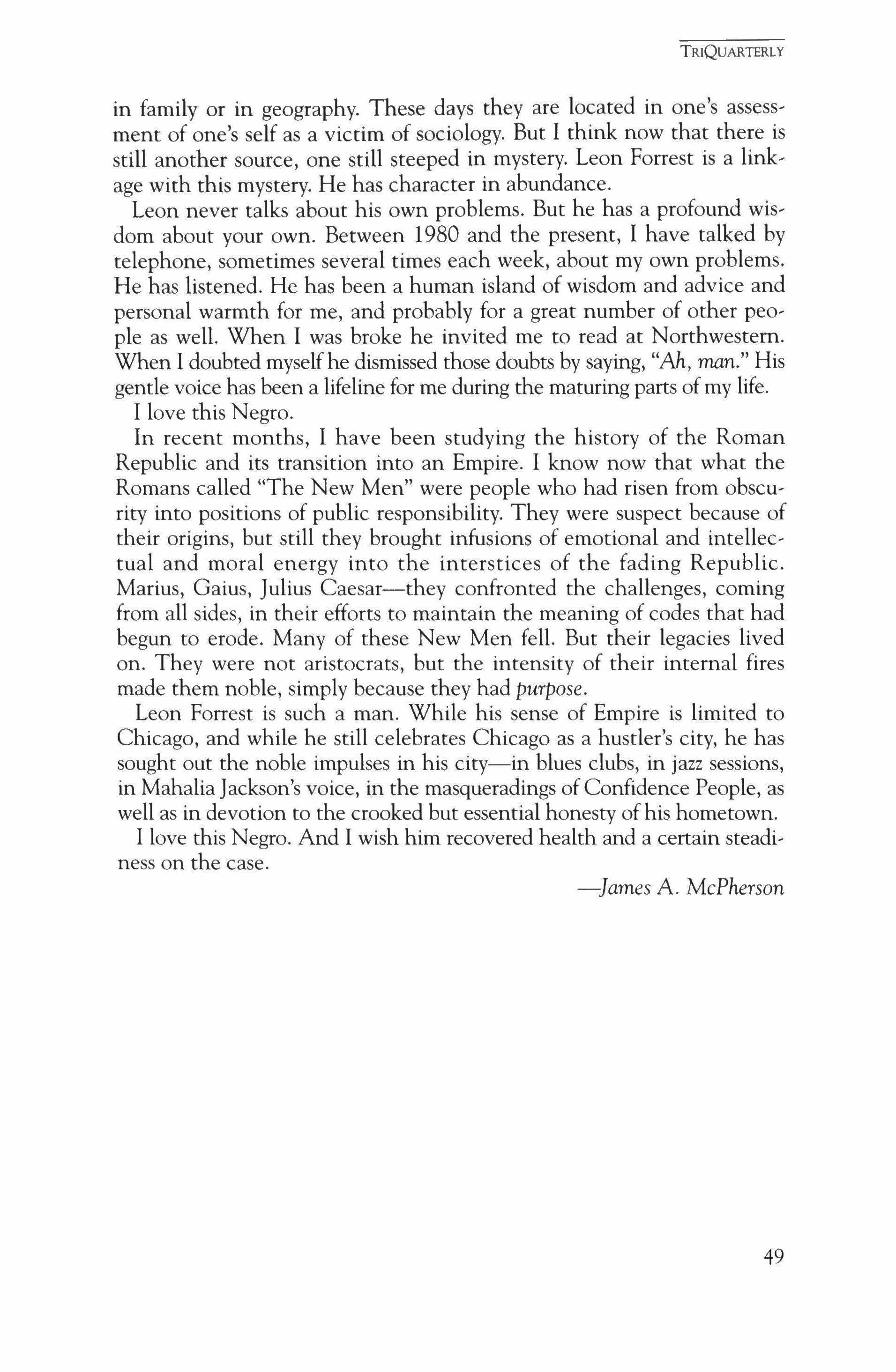
in family or in geography. These days they are located in one's assessment of one's self as a victim of sociology. But I think now that there is still another source, one still steeped in mystery. Leon Forrest is a linkage with this mystery. He has character in abundance.
Leon never talks about his own problems. But he has a profound wisdom about your own. Between 1980 and the present, I have talked by telephone, sometimes several times each week, about my own problems. He has listened. He has been a human island of wisdom and advice and personal warmth for me, and probably for a great number of other people as well. When I was broke he invited me to read at Northwestern. When I doubted myselfhe dismissed those doubts by saying, "Ah, man." His gentle voice has been a lifeline for me during the maturing parts of my life.
I love this Negro.
In recent months, I have been studying the history of the Roman Republic and its transition into an Empire. I know now that what the Romans called "The New Men" were people who had risen from obscurity into positions of public responsibility. They were suspect because of their origins, but still they brought infusions of emotional and intellectual and moral energy into the interstices of the fading Republic. Marius, Gaius, Julius Caesar-they confronted the challenges, coming from all sides, in their efforts to maintain the meaning of codes that had begun to erode. Many of these New Men fell. But their legacies lived on. They were not aristocrats, but the intensity of their internal fires made them noble, simply because they had purpose.
Leon Forrest is such a man. While his sense of Empire is limited to Chicago, and while he still celebrates Chicago as a hustler's city, he has sought out the noble impulses in his city-in blues clubs, in jazz sessions, in Mahalia Jackson's voice, in the masqueradings ofConfidence People, as well as in devotion to the crooked but essential honesty of his hometown.
I love this Negro. And I wish him recovered health and a certain steadiness on the case.
-James A. McPherson
TRIQUARTERLY
49
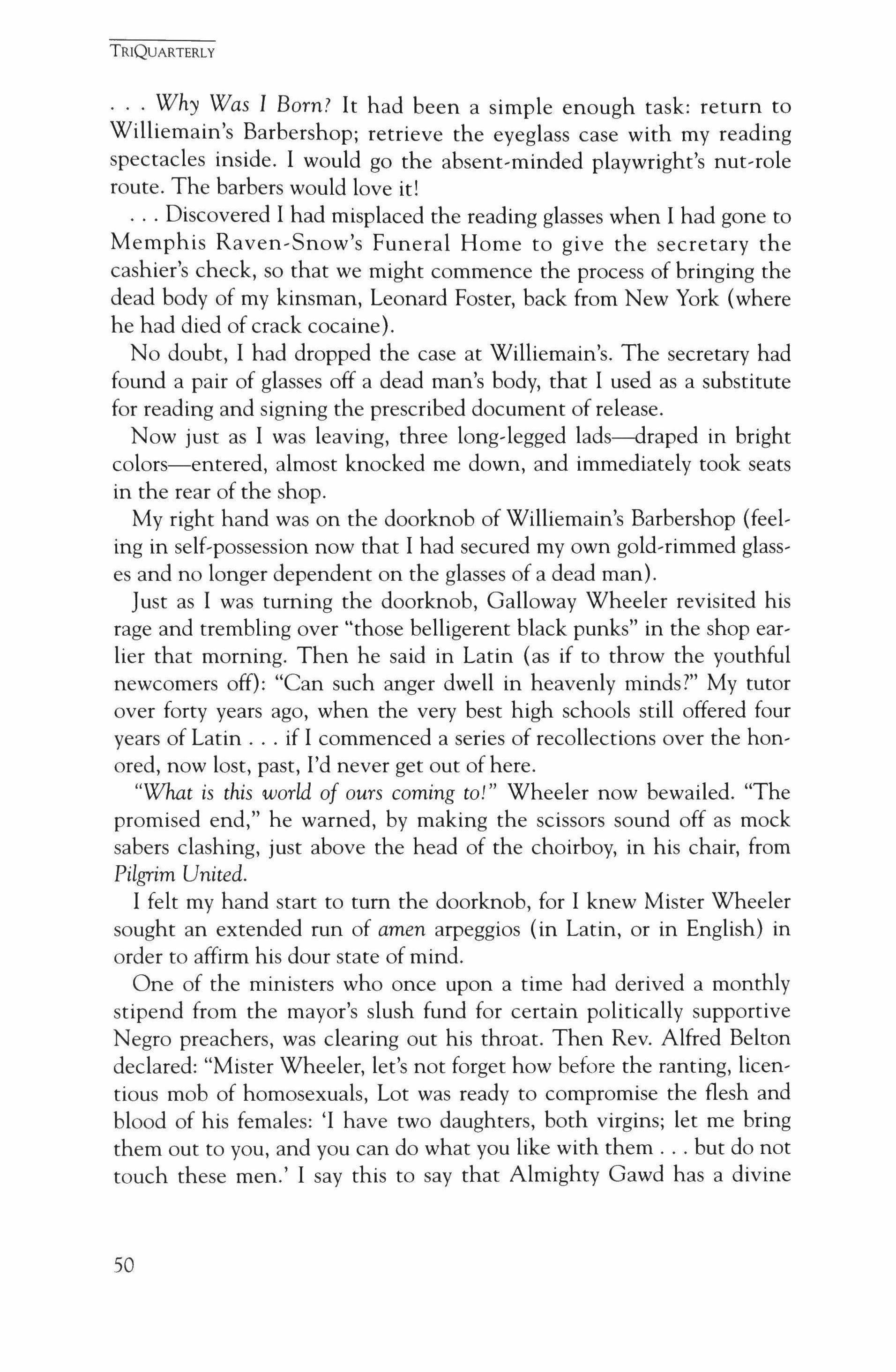
Why Was I Born? It had been a simple enough task: return to Williemain's Barbershop; retrieve the eyeglass case with my reading spectacles inside. I would go the absent-minded playwright's nut-role route. The barbers would love it!
Discovered I had misplaced the reading glasses when I had gone to Memphis Raven-Snow's Funeral Home to give the secretary the cashier's check, so that we might commence the process of bringing the dead body of my kinsman, Leonard Foster, back from New York {where he had died of crack cocaine}.
No doubt, I had dropped the case at Williemain's. The secretary had found a pair of glasses off a dead man's body, that I used as a substitute for reading and signing the prescribed document of release.
Now just as I was leaving, three long-legged lads-draped in bright colors-entered, almost knocked me down, and immediately took seats in the rear of the shop.
My right hand was on the doorknob of Williemain's Barbershop {feeling in self-possession now that I had secured my own gold-rimmed glasses and no longer dependent on the glasses of a dead man}.
Just as I was turning the doorknob, Galloway Wheeler revisited his rage and trembling over "those belligerent black punks" in the shop earlier that morning. Then he said in Latin {as if to throw the youthful newcomers off}: "Can such anger dwell in heavenly minds?" My tutor over forty years ago, when the very best high schools still offered four years of Latin if I commenced a series of recollections over the honored, now lost, past, I'd never get out of here.
"What is this world of ours coming to!" Wheeler now bewailed. "The promised end," he warned, by making the scissors sound off as mock sabers clashing, just above the head of the choirboy, in his chair, from Pilgrim United.
I felt my hand start to tum the doorknob, for I knew Mister Wheeler sought an extended run of amen arpeggios {in Latin, or in English} in order to affirm his dour state of mind.
One of the ministers who once upon a time had derived a monthly stipend from the mayor's slush fund for certain politically supportive Negro preachers, was clearing out his throat. Then Rev. Alfred Belton declared: "Mister Wheeler, let's not forget how before the ranting, licentious mob of homosexuals, Lot was ready to compromise the flesh and blood of his females: 'I have two daughters, both virgins; let me bring them out to you, and you can do what you like with them but do not touch these men.' I say this to say that Almighty Gawd has a divine
TRIQUARTERLY
50
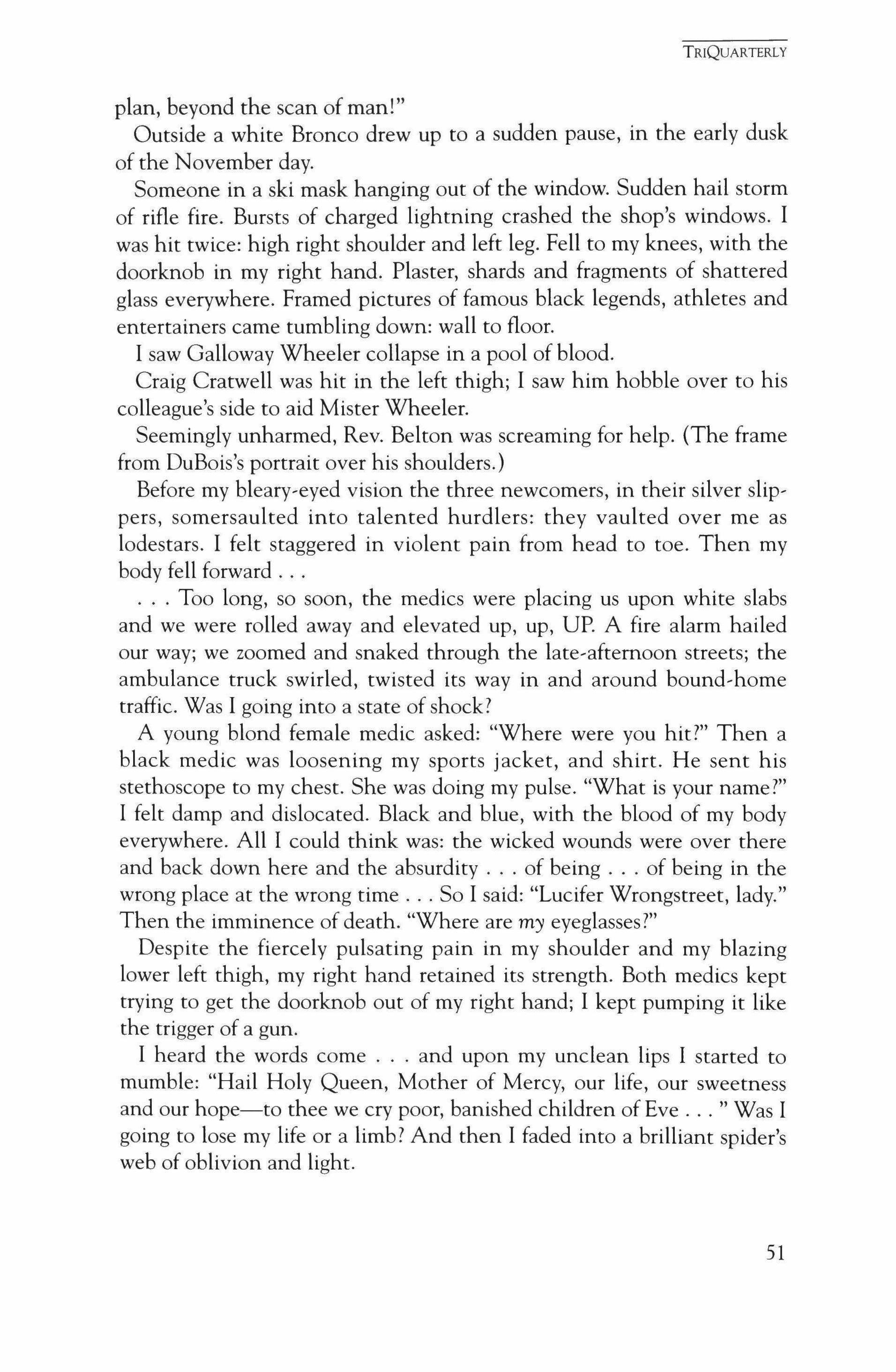
plan, beyond the scan of man!"
Outside a white Bronco drew up to a sudden pause, in the early dusk of the November day.
Someone in a ski mask hanging out of the window. Sudden hail storm of rifle fire. Bursts of charged lightning crashed the shop's windows. I was hit twice: high right shoulder and left leg. Fell to my knees, with the doorknob in my right hand. Plaster, shards and fragments of shattered glass everywhere. Framed pictures of famous black legends, athletes and entertainers came tumbling down: wall to floor.
I saw Galloway Wheeler collapse in a pool of blood.
Craig Cratwell was hit in the left thigh; I saw him hobble over to his colleague's side to aid Mister Wheeler.
Seemingly unharmed, Rev. Belton was screaming for help. (The frame from DuBois's portrait over his shoulders.)
Before my bleary-eyed vision the three newcomers, in their silver slippers, somersaulted into talented hurdlers: they vaulted over me as lodestars. I felt staggered in violent pain from head to toe. Then my body fell forward
Too long, so soon, the medics were placing us upon white slabs and we were rolled away and elevated up, up, UP. A fire alarm hailed our way; we zoomed and snaked through the late-afternoon streets; the ambulance truck swirled, twisted its way in and around bound-home traffic. Was I going into a state of shock?
A young blond female medic asked: "Where were you hit?" Then a black medic was loosening my sports jacket, and shirt. He sent his stethoscope to my chest. She was doing my pulse. "What is your name?" I felt damp and dislocated. Black and blue, with the blood of my body everywhere. All I could think was: the wicked wounds were over there and back down here and the absurdity of being of being in the wrong place at the wrong time So I said: "Lucifer Wrongstreet, lady." Then the imminence of death. "Where are my eyeglasses!"
Despite the fiercely pulsating pain in my shoulder and my blazing lower left thigh, my right hand retained its strength. Both medics kept trying to get the doorknob out of my right hand; I kept pumping it like the trigger of a gun.
I heard the words come and upon my unclean lips I started to mumble: "Hail Holy Queen, Mother of Mercy, our life, our sweetness and our hope-to thee we cry poor, banished children of Eve Was I going to lose my life or a limb? And then I faded into a brilliant spider's web of oblivion and light.
TRIQUARTERLY
51
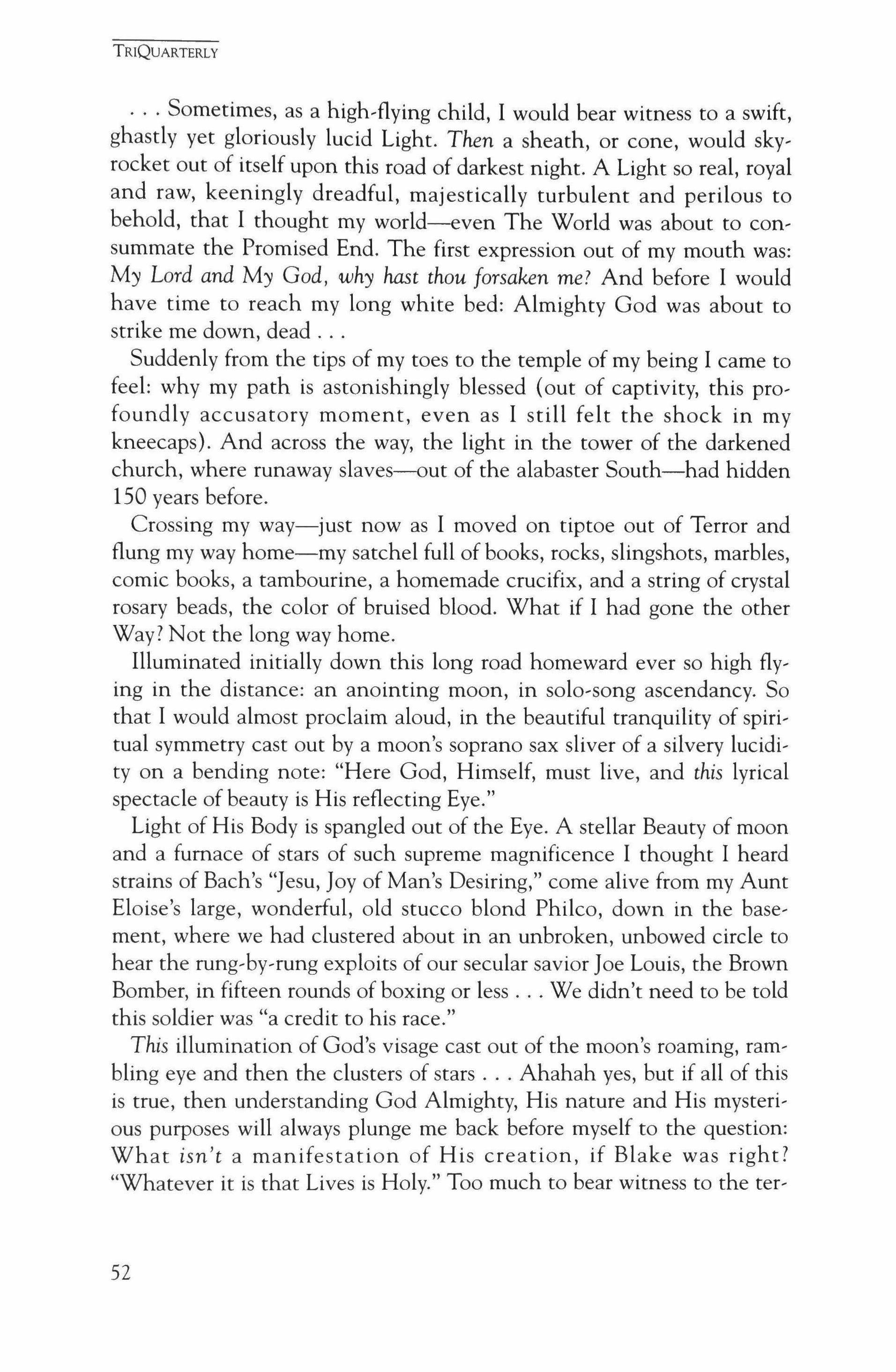
Sometimes, as a high-flying child, I would bear witness to a swift, ghastly yet gloriously lucid Light. Then a sheath, or cone, would skyrocket out of itself upon this road of darkest night. A Light so real, royal and raw, keeningly dreadful, majestically turbulent and perilous to behold, that I thought my world-even The World was about to consummate the Promised End. The first expression out of my mouth was: My Lord and My God, why hast thou forsaken me? And before I would have time to reach my long white bed: Almighty God was about to strike me down, dead
Suddenly from the tips of my toes to the temple of my being I came to feel: why my path is astonishingly blessed (out of captivity, this profoundly accusatory moment, even as I still felt the shock in my kneecaps). And across the way, the light in the tower of the darkened church, where runaway slaves-out of the alabaster South-had hidden 150 years before.
Crossing my way-just now as I moved on tiptoe out of Terror and flung my way home-my satchel full of books, rocks, slingshots, marbles, comic books, a tambourine, a homemade crucifix, and a string of crystal rosary beads, the color of bruised blood. What if I had gone the other Way? Not the long way home.
Illuminated initially down this long road homeward ever so high flying in the distance: an anointing moon, in solo-song ascendancy. So that I would almost proclaim aloud, in the beautiful tranquility of spiritual symmetry cast out by a moon's soprano sax sliver of a silvery lucidity on a bending note: "Here God, Himself, must live, and this lyrical spectacle of beauty is His reflecting Eye."
Light of His Body is spangled out of the Eye. A stellar Beauty of moon and a furnace of stars of such supreme magnificence I thought I heard strains of Bach's "[esu, Joy of Man's Desiring," come alive from my Aunt Eloise's large, wonderful, old stucco blond Philco, down in the basement, where we had clustered about in an unbroken, unbowed circle to hear the rung-by-rung exploits of our secular savior Joe Louis, the Brown Bomber, in fifteen rounds of boxing or less We didn't need to be told this soldier was "a credit to his race."
This illumination of God's visage cast out of the moon's roaming, rambling eye and then the clusters of stars Ahahah yes, but if all of this is true, then understanding God Almighty, His nature and His mysterious purposes will always plunge me back before myself to the question: What isn't a manifestation of His creation, if Blake was right? "Whatever it is that Lives is Holy." Too much to bear witness to the ter-
TRIQUARTERLY
52
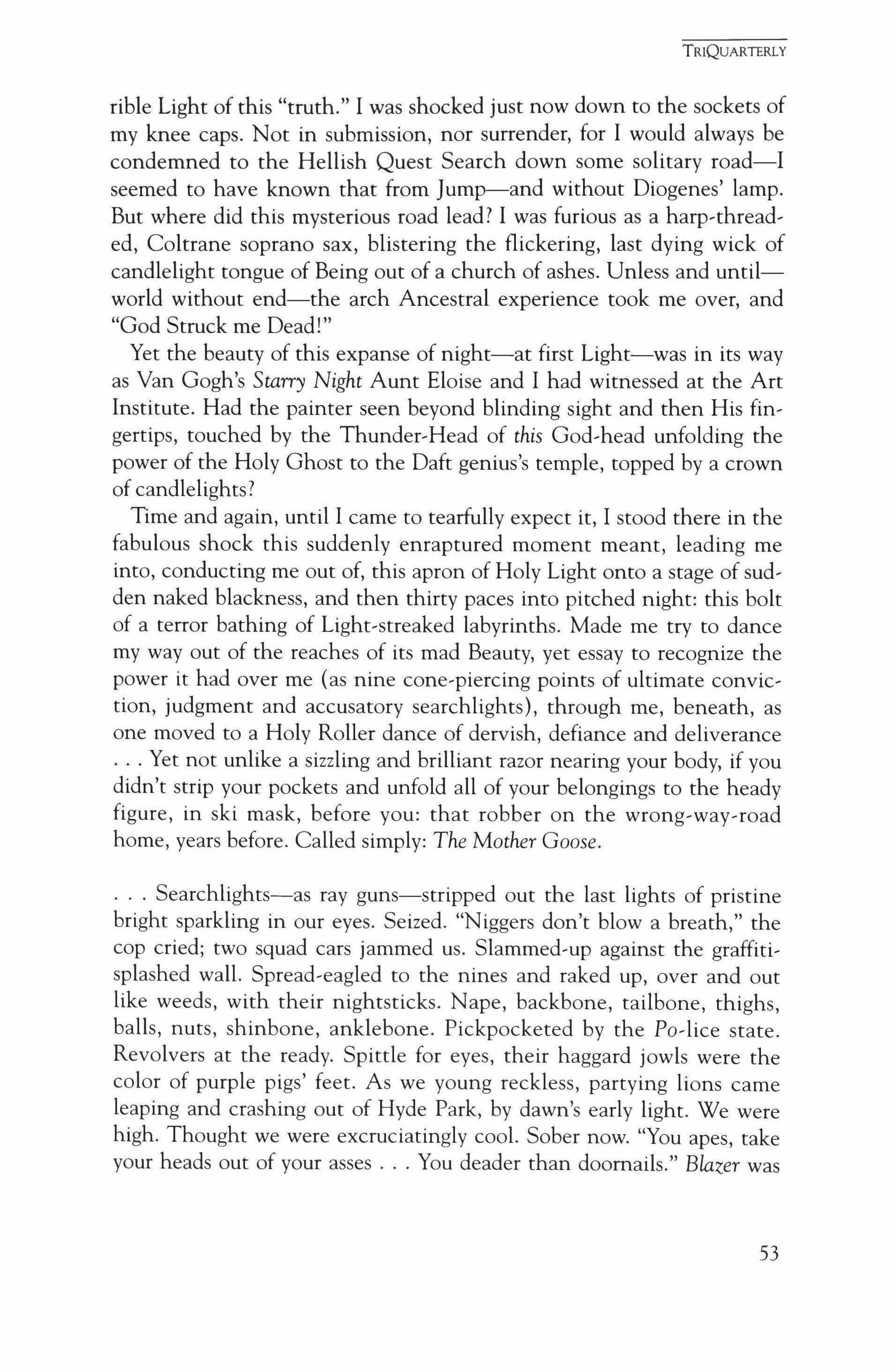
rible Light of this "truth." I was shocked just now down to the sockets of my knee caps. Not in submission, nor surrender, for I would always be condemned to the Hellish Quest Search down some solitary road-I seemed to have known that from Jump-and without Diogenes' lamp. But where did this mysterious road lead? I was furious as a harp-threaded, Coltrane soprano sax, blistering the flickering, last dying wick of candlelight tongue of Being out of a church of ashes. Unless and untilworld without end-the arch Ancestral experience took me over, and "God Struck me Dead!"
Yet the beauty of this expanse of night-at first Light-was in its way as Van Gogh's Starry Night Aunt Eloise and I had witnessed at the Art Institute. Had the painter seen beyond blinding sight and then His fingertips, touched by the Thunder-Head of this God-head unfolding the power of the Holy Ghost to the Daft genius's temple, topped by a crown of candlelights?
Time and again, until I came to tearfully expect it, I stood there in the fabulous shock this suddenly enraptured moment meant, leading me into, conducting me out of, this apron of Holy Light onto a stage of sudden naked blackness, and then thirty paces into pitched night: this bolt of a terror bathing of Light-streaked labyrinths. Made me try to dance my way out of the reaches of its mad Beauty, yet essay to recognize the power it had over me (as nine cone-piercing points of ultimate conviction, judgment and accusatory searchlights), through me, beneath, as one moved to a Holy Roller dance of dervish, defiance and deliverance
Yet not unlike a sizzling and brilliant razor nearing your body, if you didn't strip your pockets and unfold all of your belongings to the heady figure, in ski mask, before you: that robber on the wrong-way-road home, years before. Called simply: The Mother Goose.
Searchlights-as ray guns-stripped out the last lights of pristine bright sparkling in our eyes. Seized. "Niggers don't blow a breath," the cop cried; two squad cars jammed us. Slammed-up against the graffitisplashed wall. Spread-eagled to the nines and raked up, over and out like weeds, with their nightsticks. Nape, backbone, tailbone, thighs, balls, nuts, shinbone, anklebone. Pickpocketed by the Po-lice state. Revolvers at the ready. Spittle for eyes, their haggard jowls were the color of purple pigs' feet. As we young reckless, partying lions came leaping and crashing out of Hyde Park, by dawn's early light. We were high. Thought we were excruciatingly cool. Sober now. "You apes, take your heads out of your asses You deader than doornails." Blazer was
TRIQUARTERLY
53
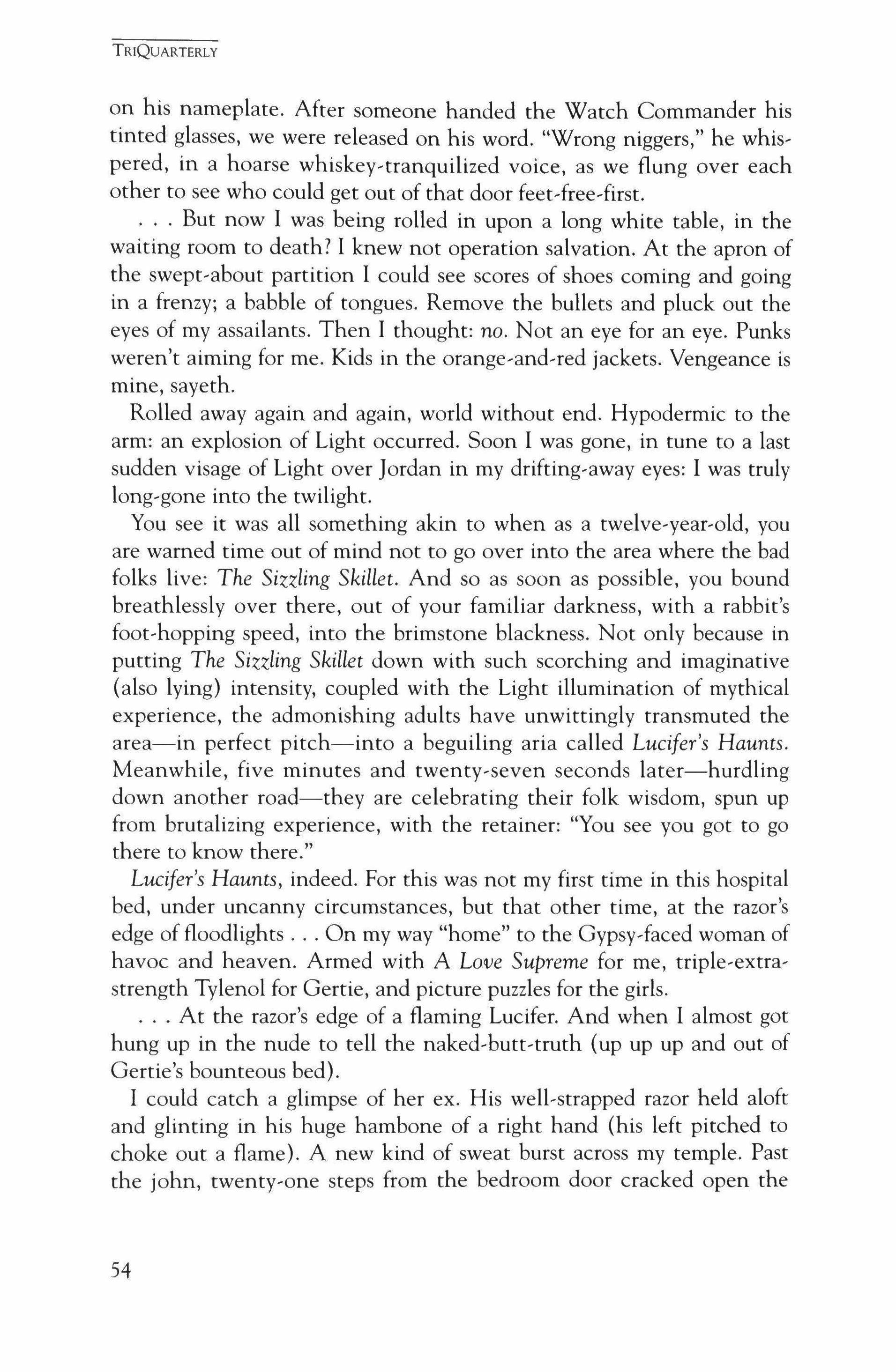
on his nameplate. After someone handed the Watch Commander his tinted glasses, we were released on his word. "Wrong niggers," he whispered, in a hoarse whiskey,tranquilized voice, as we flung over each other to see who could get out of that door feet-free-first.
But now I was being rolled in upon a long white table, in the waiting room to death? I knew not operation salvation. At the apron of the swept-about partition I could see scores of shoes coming and going in a frenzy; a babble of tongues. Remove the bullets and pluck out the eyes of my assailants. Then I thought: no. Not an eye for an eye. Punks weren't aiming for me. Kids in the orange-and-red jackets. Vengeance is mine, sayeth.
Rolled away again and again, world without end. Hypodermic to the arm: an explosion of Light occurred. Soon I was gone, in tune to a last sudden visage of Light over Jordan in my drifting-away eyes: I was truly long'gone into the twilight.
You see it was all something akin to when as a twelve-year-old, you are warned time out of mind not to go over into the area where the bad folks live: The Sizzling Skillet. And so as soon as possible, you bound breathlessly over there, out of your familiar darkness, with a rabbit's foot-hopping speed, into the brimstone blackness. Not only because in putting The Sizzling Skillet down with such scorching and imaginative (also lying) intensity, coupled with the Light illumination of mythical experience, the admonishing adults have unwittingly transmuted the area-in perfect pitch-into a beguiling aria called Lucifer's Haunts. Meanwhile, five minutes and twenty-seven seconds later-hurdling down another road-they are celebrating their folk wisdom, spun up from brutalizing experience, with the retainer: "You see you got to go there to know there."
Lucifer's Haunts, indeed. For this was not my first time in this hospital bed, under uncanny circumstances, but that other time, at the razor's edge of floodlights On my way "home" to the Gypsy-faced woman of havoc and heaven. Armed with A Love Supreme for me, triple-extrastrength Tylenol for Gertie, and picture puzzles for the girls
At the razor's edge of a flaming Lucifer. And when I almost got hung up in the nude to tell the naked-butt-truth (up up up and out of Gertie's bounteous bed).
I could catch a glimpse of her ex. His well-strapped razor held aloft and glinting in his huge hambone of a right hand (his left pitched to choke out a flame). A new kind of sweat burst across my temple. Past the john, twenty-one steps from the bedroom door cracked open the
TRIQUARTERLY
54
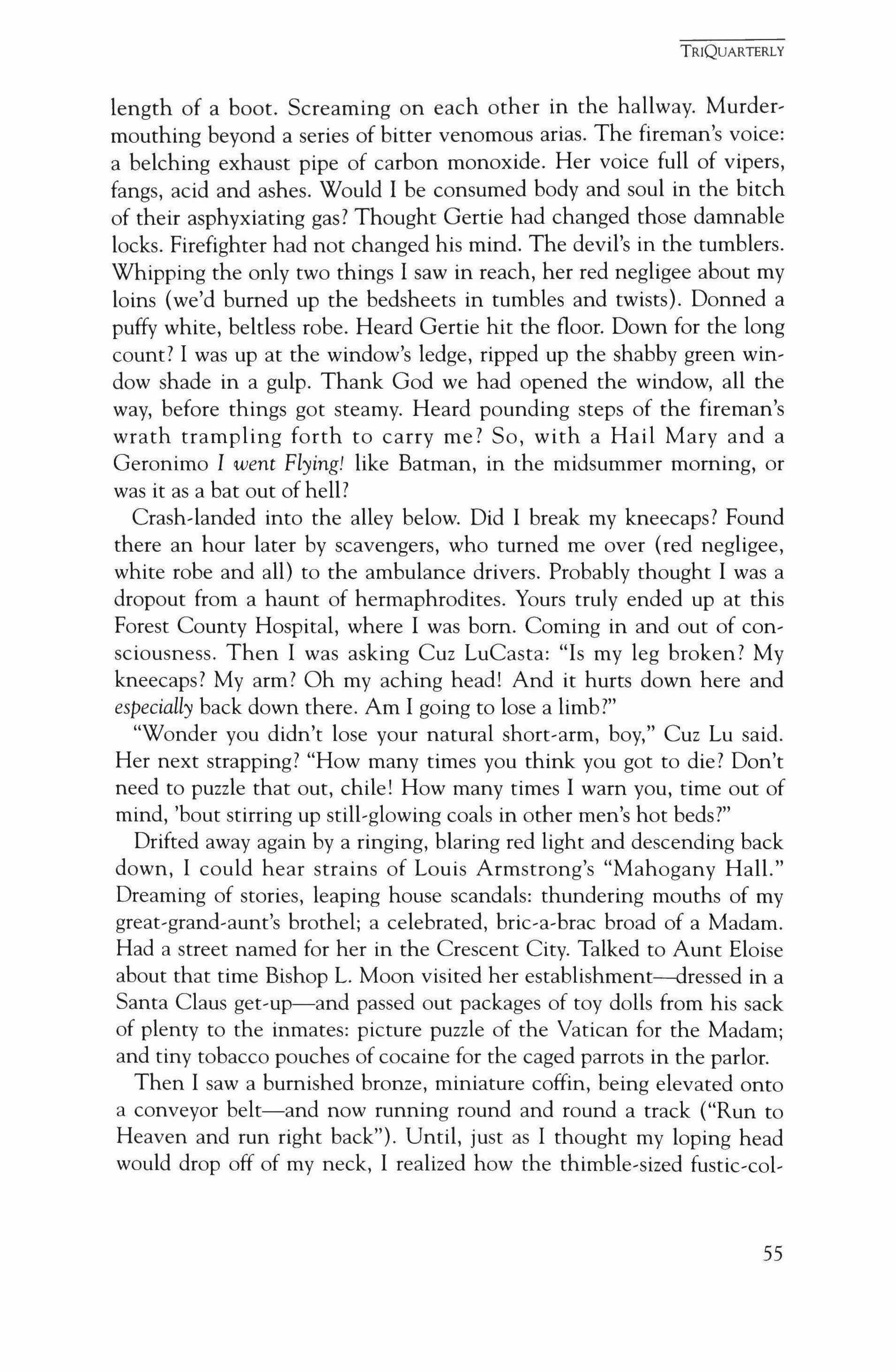
length of a boot. Screaming on each other in the hallway. Murdermouthing beyond a series of bitter venomous arias. The fireman's voice: a belching exhaust pipe of carbon monoxide. Her voice full of vipers, fangs, acid and ashes. Would I be consumed body and soul in the bitch of their asphyxiating gas? Thought Gertie had changed those damnable locks. Firefighter had not changed his mind. The devil's in the tumblers. Whipping the only two things I saw in reach, her red negligee about my loins {we'd burned up the bedsheets in tumbles and twists}. Donned a puffy white, beltless robe. Heard Gertie hit the floor. Down for the long count? I was up at the window's ledge, ripped up the shabby green window shade in a gulp. Thank God we had opened the window, all the way, before things got steamy. Heard pounding steps of the fireman's wrath trampling forth to carry me? So, with a Hail Mary and a Geronimo I went Flying! like Batman, in the midsummer morning, or was it as a bat out of hell?
Crash-landed into the alley below. Did I break my kneecaps? Found there an hour later by scavengers, who turned me over {red negligee, white robe and all} to the ambulance drivers. Probably thought I was a dropout from a haunt of hermaphrodites. Yours truly ended up at this Forest County Hospital, where I was born. Coming in and out of consciousness. Then I was asking Cuz LuCasta: "Is my leg broken? My kneecaps? My arm? Oh my aching head! And it hurts down here and especially back down there. Am I going to lose a limb?"
"Wonder you didn't lose your natural short-arm, boy," Cuz Lu said. Her next strapping? "How many times you think you got to die? Don't need to puzzle that out, chile! How many times I warn you, time out of mind, 'bout stirring up still-glowing coals in other men's hot beds?"
Drifted away again by a ringing, blaring red light and descending back down, I could hear strains of Louis Armstrong's "Mahogany Hall." Dreaming of stories, leaping house scandals: thundering mouths of my great-grand-aunt's brothel; a celebrated, bric-a-brac broad of a Madam. Had a street named for her in the Crescent City. Talked to Aunt Eloise about that time Bishop L. Moon visited her establishment--dressed in a Santa Claus get-up-s-and passed out packages of toy dolls from his sack of plenty to the inmates: picture puzzle of the Vatican for the Madam; and tiny tobacco pouches of cocaine for the caged parrots in the parlor. Then I saw a burnished bronze, miniature coffin, being elevated onto a conveyor belt-and now running round and round a track ("Run to Heaven and run right back"). Until, just as I thought my loping head would drop off of my neck, I realized how the thimble-sized fustic-col-
TRIQUARTERLY
55
TRIQUARTERLY
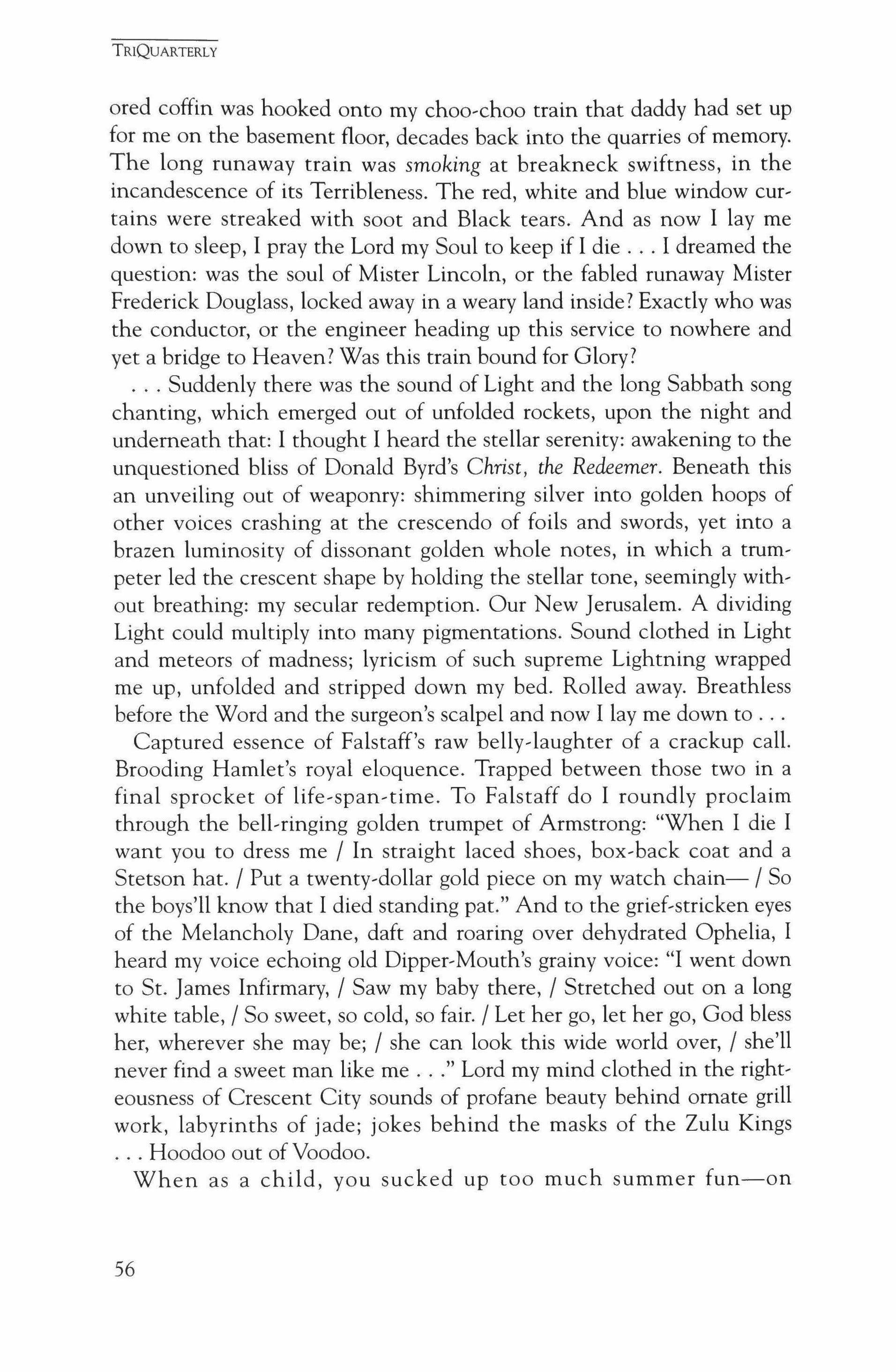
ored coffin was hooked onto my choo-choo train that daddy had set up for me on the basement floor, decades back into the quarries of memory. The long runaway train was smoking at breakneck swiftness, in the incandescence of its Terribleness. The red, white and blue window curtains were streaked with soot and Black tears. And as now I lay me down to sleep, I pray the Lord my Soul to keep if I die I dreamed the question: was the soul of Mister Lincoln, or the fabled runaway Mister Frederick Douglass, locked away in a weary land inside? Exactly who was the conductor, or the engineer heading up this service to nowhere and yet a bridge to Heaven? Was this train bound for Glory?
Suddenly there was the sound of Light and the long Sabbath song chanting, which emerged out of unfolded rockets, upon the night and underneath that: I thought I heard the stellar serenity: awakening to the unquestioned bliss of Donald Byrd's Christ, the Redeemer. Beneath this an unveiling out of weaponry: shimmering silver into golden hoops of other voices crashing at the crescendo of foils and swords, yet into a brazen luminosity of dissonant golden whole notes, in which a trumpeter led the crescent shape by holding the stellar tone, seemingly without breathing: my secular redemption. Our New Jerusalem. A dividing Light could multiply into many pigmentations. Sound clothed in Light and meteors of madness; lyricism of such supreme Lightning wrapped me up, unfolded and stripped down my bed. Rolled away. Breathless before the Word and the surgeon's scalpel and now I lay me down to Captured essence of Falstaff's raw belly-laughter of a crackup call. Brooding Hamlet's royal eloquence. Trapped between those two in a final sprocket of life-span-time. To Falstaff do I roundly proclaim through the bell-ringing golden trumpet of Armstrong: "When I die I want you to dress me / In straight laced shoes, box-back coat and a Stetson hat. / Put a twenty-dollar gold piece on my watch chain- / So the boys'll know that I died standing pat." And to the grief-stricken eyes of the Melancholy Dane, daft and roaring over dehydrated Ophelia, I heard my voice echoing old Dipper-Mouth's grainy voice: "I went down to St. James Infirmary, / Saw my baby there, / Stretched out on a long white table, / So sweet, so cold, so fair. / Let her go, let her go, God bless her, wherever she may be; / she can look this wide world over, / she'll never find a sweet man like me Lord my mind clothed in the righteousness of Crescent City sounds of profane beauty behind ornate grill work, labyrinths of jade; jokes behind the masks of the Zulu Kings Hoodoo out of Voodoo. When as a child, you sucked up too much summer fun-on
56

Armstrong's birthday-and hours of enchanting reading and you fell fast asleep beneath a tree in the surrounding garden on the Fourth of July, with your mouth wide open, as you dozed, and yes, you do snore, and then quite by accident, a gnat flies past your twittering lips. And you realize you are still clothed in your Sunday best, because of the tribute at the Tomb of the Unknown Soldier. And you awaken to the celebration down by the lakefront and all the evening through you are taken up by the spectacle of the fireworks, the rocket shelling, reaffirming this tribunal, this sacred, pistol-whipped, scarred, bloody, diced document, too troubled to read, and too rare not to behold, study, cherish, challenge and change. Daddy turning the ribs on the grill and whistling through his teeth, Armstrong's "Struttin' with Some Barbecue." Aunt Eloise's very own self-styled sauce at the ready, which she simply called: "Vamping with Venus."
Heaps of potato salad, spooned away in Mason jars, tumblers of lemonade, Fox-Head Four Hundred beer, and one small tub of chitter, lings, and several canisters of string beans; Cuz LuCasta brought catfish, and sweet-potato pies. The ever,unfurling flag, now heaving for breath, then in curt, snapping salutes to the wind. Or, later when you dared to wrestle with the harness of the sacred words of Scripture, out of Daddy's mouth: the Thirteenth, Fourteenth and Fifteenth Amendments-so loaded with the portent of light to our drinking fountain, so parched for the waters of Redemption, within our cast'out into the darkness Down Freedom's road, and told "to make it, or don't make it, best way you can shake it," was the way Grandpa Forester had explained. Then there were the fiery tongues of our bursting-in-air liberation-many murdering magnificos out of tune-who questioned why we should be here even as they played the gathering crowd like jugglers at the car, nival
In the clutches of death words spelled out in my long hand: There are people in this world-there must be thousands of them-who are born with all of their body parts and their marbles, too, and they may even come forth like a flower, but they exist without souls (perhaps they have lost their souls, like kids who lose their mittens in the snow, forever, more, in the whirlwind of some wintry galaxy) even unto the night when they flee into the shadow of death and see their light con' sumed in ashes. Deep-sleeping Peter bound to the bodies of his two sleeping watchdog sentinels was suddenly illuminated by some trernendous, long-legged light, at the crack of dawn, an escaped slave, escaped out the darkness, once again through the cave,like labyrinths. Was
TRIQUARTERLY
57
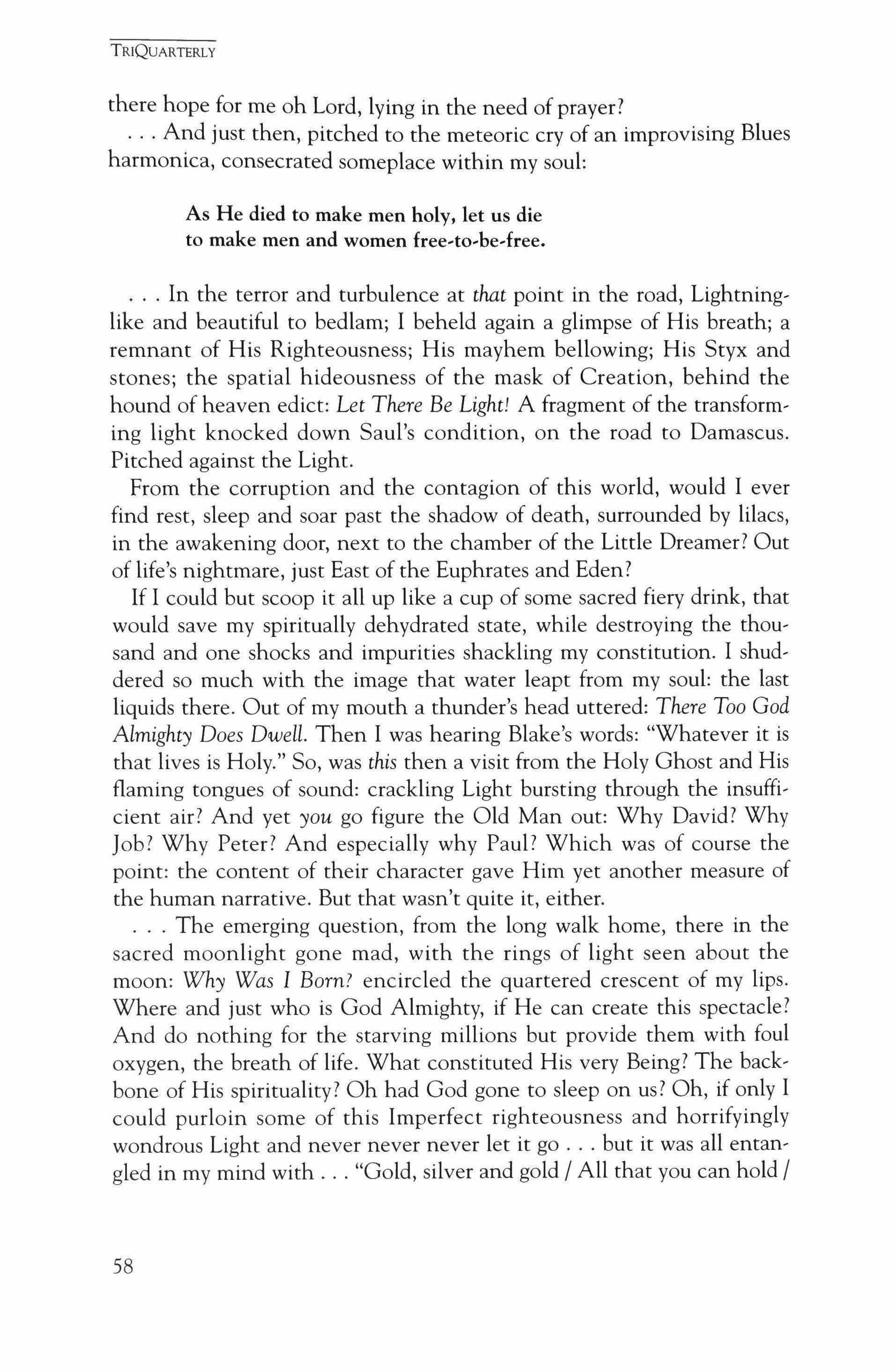
there hope for me oh Lord, lying in the need of prayer? And just then, pitched to the meteoric cry of an improvising Blues harmonica, consecrated someplace within my soul:
As He died to make men holy, let us die to make men and women free-to-be-free.
In the terror and turbulence at that point in the road, Lightninglike and beautiful to bedlam; I beheld again a glimpse of His breath; a remnant of His Righteousness; His mayhem bellowing; His Styx and stones; the spatial hideousness of the mask of Creation, behind the hound of heaven edict: Let There Be Light! A fragment of the transforming light knocked down Saul's condition, on the road to Damascus. Pitched against the Light.
From the corruption and the contagion of this world, would I ever find rest, sleep and soar past the shadow of death, surrounded by lilacs, in the awakening door, next to the chamber of the Little Dreamer? Out of life's nightmare, just East of the Euphrates and Eden?
If I could but scoop it all up like a cup of some sacred fiery drink, that would save my spiritually dehydrated state, while destroying the thousand and one shocks and impurities shackling my constitution. I shuddered so much with the image that water leapt from my soul: the last liquids there. Out of my mouth a thunder's head uttered: There Too God Almighty Does Dwell. Then I was hearing Blake's words: "Whatever it is that lives is Holy." So, was this then a visit from the Holy Ghost and His flaming tongues of sound: crackling Light bursting through the insufficient air? And yet you go figure the Old Man out: Why David? Why Job? Why Peter? And especially why Paul? Which was of course the point: the content of their character gave Him yet another measure of the human narrative. But that wasn't quite it, either.
The emerging question, from the long walk home, there in the sacred moonlight gone mad, with the rings of light seen about the moon: Why Was I Born? encircled the quartered crescent of my lips. Where and just who is God Almighty, if He can create this spectacle? And do nothing for the starving millions but provide them with foul oxygen, the breath of life. What constituted His very Being? The backbone of His spirituality? Oh had God gone to sleep on us? Oh, if only I could purloin some of this Imperfect righteousness and horrifyingly wondrous Light and never never never let it go but it was all entangled in my mind with "Gold, silver and gold / All that you can hold /
TRIQUARTERLY
58
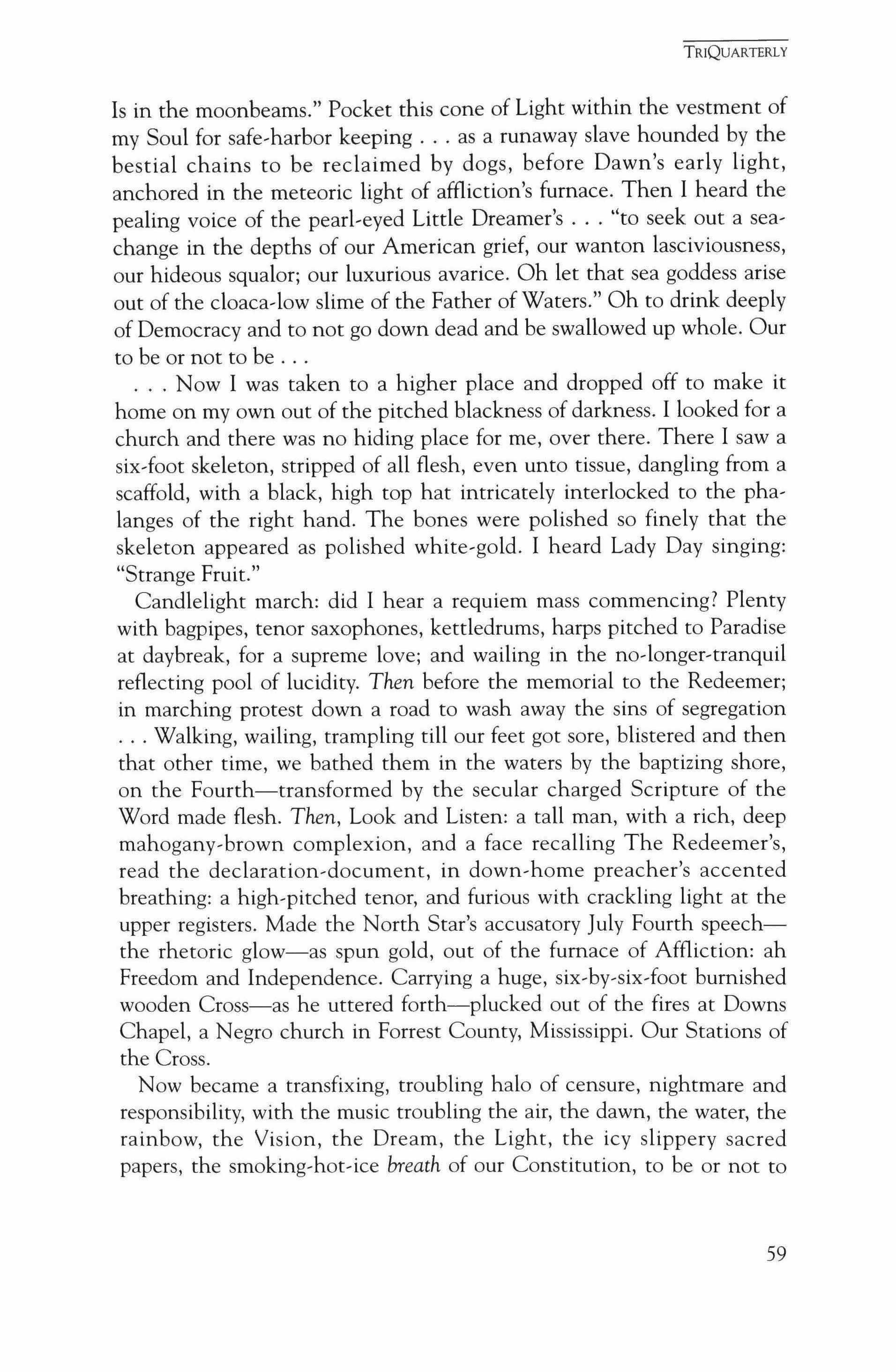
Is in the moonbeams." Pocket this cone of Light within the vestment of my Soul for safe-harbor keeping as a runaway slave hounded by the bestial chains to be reclaimed by dogs, before Dawn's early light, anchored in the meteoric light of affliction's furnace. Then I heard the pealing voice of the pearl-eyed Little Dreamer's "to seek out a seachange in the depths of our American grief, our wanton lasciviousness, our hideous squalor; our luxurious avarice. Oh let that sea goddess arise out of the cloaca-low slime of the Father of Waters." Oh to drink deeply of Democracy and to not go down dead and be swallowed up whole. Our to be or not to be
Now I was taken to a higher place and dropped off to make it home on my own out of the pitched blackness of darkness. I looked for a church and there was no hiding place for me, over there. There I saw a six-foot skeleton, stripped of all flesh, even unto tissue, dangling from a scaffold, with a black, high top hat intricately interlocked to the phalanges of the right hand. The bones were polished so finely that the skeleton appeared as polished white-gold. I heard Lady Day singing: "Strange Fruit."
Candlelight march: did I hear a requiem mass commencing? Plenty with bagpipes, tenor saxophones, kettledrums, harps pitched to Paradise at daybreak, for a supreme love; and wailing in the no-longer-tranquil reflecting pool of lucidity. Then before the memorial to the Redeemer; in marching protest down a road to wash away the sins of segregation Walking, wailing, trampling till our feet got sore, blistered and then that other time, we bathed them in the waters by the baptizing shore, on the Fourth-transformed by the secular charged Scripture of the Word made flesh. Then, Look and Listen: a tall man, with a rich, deep mahogany-brown complexion, and a face recalling The Redeemer's, read the declaration-document, in down-home preacher's accented breathing: a high-pitched tenor, and furious with crackling light at the upper registers. Made the North Star's accusatory July Fourth speechthe rhetoric glow-as spun gold, out of the furnace of Affliction: ah Freedom and Independence. Carrying a huge, six-by-six-foot burnished wooden Cross-as he uttered forth-plucked out of the fires at Downs Chapel, a Negro church in Forrest County, Mississippi. Our Stations of the Cross.
Now became a transfixing, troubling halo of censure, nightmare and responsibility, with the music troubling the air, the dawn, the water, the rainbow, the Vision, the Dream, the Light, the icy slippery sacred papers, the smoking-hot-ice breath of our Constitution, to be or not to
TRIQUARTERLY
59
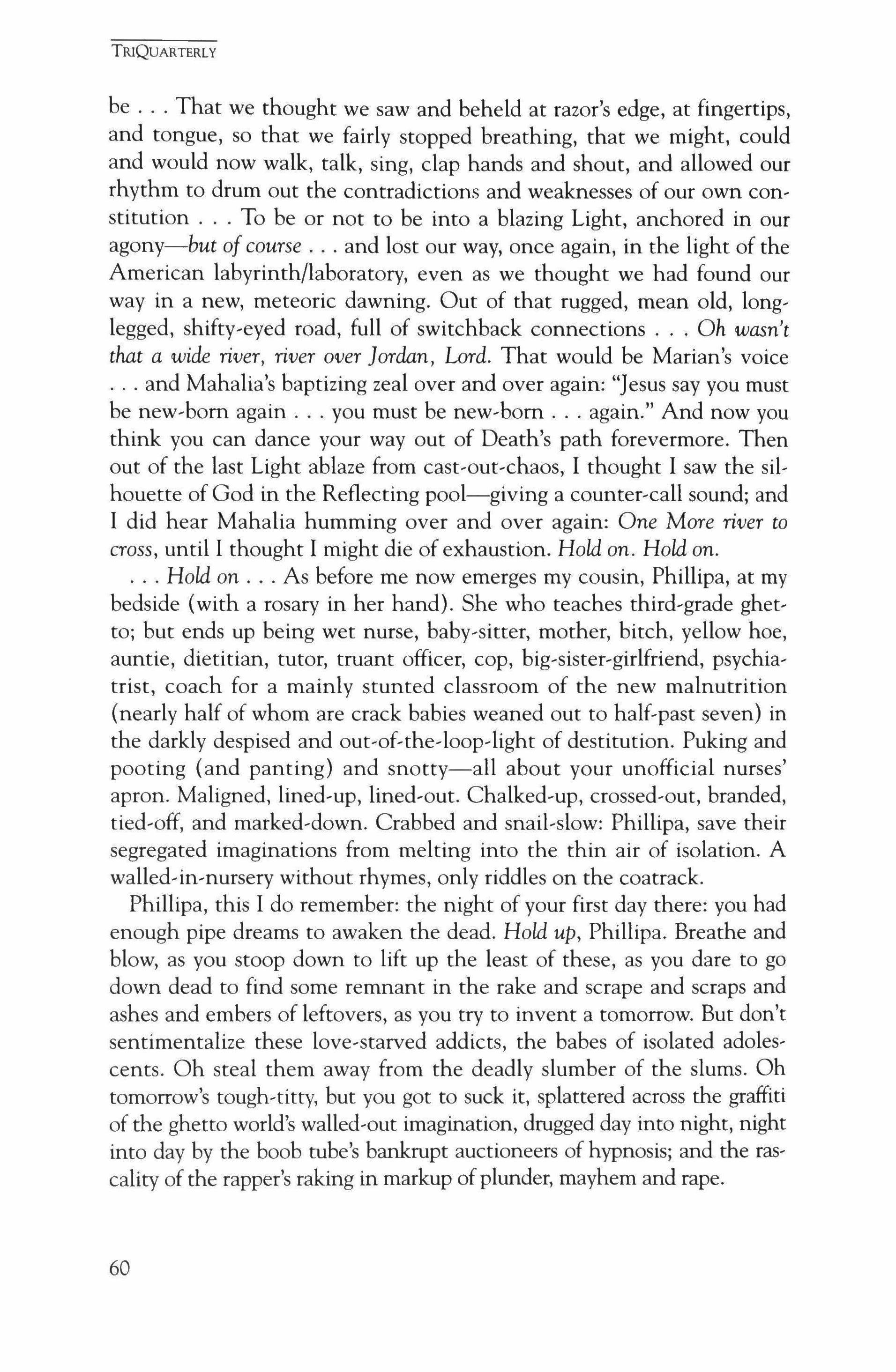
be That we thought we saw and beheld at razor's edge, at fingertips, and tongue, so that we fairly stopped breathing, that we might, could and would now walk, talk, sing, clap hands and shout, and allowed our rhythm to drum out the contradictions and weaknesses of our own constitution To be or not to be into a blazing Light, anchored in our agony-but of course and lost our way, once again, in the light of the American labyrinth/laboratory, even as we thought we had found our way in a new, meteoric dawning. Out of that rugged, mean old, longlegged, shifty-eyed road, full of switchback connections Oh wasn't that a wide river, river over Jordan, Lord. That would be Marian's voice and Mahalia's baptizing zeal over and over again: "Jesus say you must be new-born again you must be new-born again." And now you think you can dance your way out of Death's path forevermore. Then out of the last Light ablaze from cast-out-chaos, I thought I saw the silhouette of God in the Reflecting pool-giving a counter-call sound; and I did hear Mahalia humming over and over again: One More river to cross, until I thought I might die of exhaustion. Hold on. Hold on
Hold on As before me now emerges my cousin, Phillipa, at my bedside {with a rosary in her hand}. She who teaches third-grade ghetto; but ends up being wet nurse, baby-sitter, mother, bitch, yellow hoe, auntie, dietitian, tutor, truant officer, cop, big-sister-girlfriend, psychiatrist, coach for a mainly stunted classroom of the new malnutrition {nearly half of whom are crack babies weaned out to half-past seven} in the darkly despised and out-of-the-loop-light of destitution. Puking and pooting {and panting} and snotty-all about your unofficial nurses' apron. Maligned, lined-up, lined-out. Chalked-up, crossed-out, branded, tied-off, and marked-down. Crabbed and snail-slow: Phillipa, save their segregated imaginations from melting into the thin air of isolation. A walled-in-nursery without rhymes, only riddles on the coatrack.
Phillipa, this I do remember: the night of your first day there: you had enough pipe dreams to awaken the dead. Hold up, Phillipa. Breathe and blow, as you stoop down to lift up the least of these, as you dare to go down dead to find some remnant in the rake and scrape and scraps and ashes and embers of leftovers, as you try to invent a tomorrow. But don't sentimentalize these love-starved addicts, the babes of isolated adolescents. Oh steal them away from the deadly slumber of the slums. Oh tomorrow's tough-titty, but you got to suck it, splattered across the graffiti of the ghetto world's walled-out imagination, drugged day into night, night into day by the boob tube's bankrupt auctioneers of hypnosis; and the rascality of the rapper's raking in markup ofplunder, mayhem and rape.
TRIQUARTERLY
60
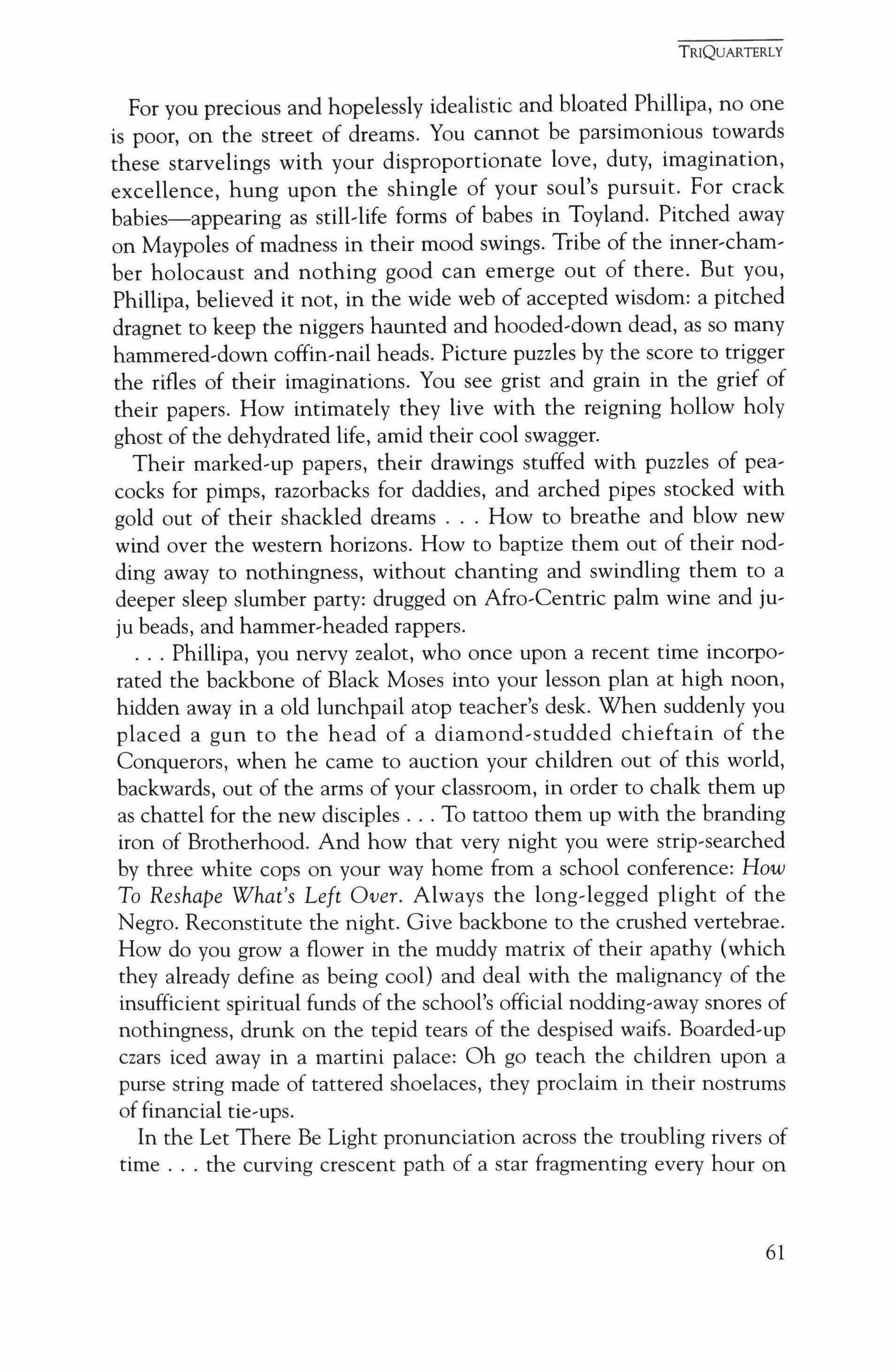
For you precious and hopelessly idealistic and bloated Phillipa, no one is poor, on the street of dreams. You cannot be parsimonious towards these starvelings with your disproportionate love, duty, imagination, excellence, hung upon the shingle of your soul's pursuit. For crack babies-appearing as still-life forms of babes in Toyland. Pitched away on Maypoles of madness in their mood swings. Tribe of the inner-chamber holocaust and nothing good can emerge out of there. But you, Phillipa, believed it not, in the wide web of accepted wisdom: a pitched dragnet to keep the niggers haunted and hooded-down dead, as so many hammered-down coffin-nail heads. Picture puzzles by the score to trigger the rifles of their imaginations. You see grist and grain in the grief of their papers. How intimately they live with the reigning hollow holy ghost of the dehydrated life, amid their cool swagger. Their marked-up papers, their drawings stuffed with puzzles of peacocks for pimps, razorbacks for daddies, and arched pipes stocked with gold out of their shackled dreams How to breathe and blow new wind over the western horizons. How to baptize them out of their nodding away to nothingness, without chanting and swindling them to a deeper sleep slumber party: drugged on Afro-Centric palm wine and juju beads, and hammer-headed rappers.
Phillipa, you nervy zealot, who once upon a recent time incorporated the backbone of Black Moses into your lesson plan at high noon, hidden away in a old lunchpail atop teacher's desk. When suddenly you placed a gun to the head of a diamond-studded chieftain of the Conquerors, when he carne to auction your children out of this world, backwards, out of the arms of your classroom, in order to chalk them up as chattel for the new disciples To tattoo them up with the branding iron of Brotherhood. And how that very night you were strip-searched by three white cops on your way horne from a school conference: How To Reshape What's Left Over. Always the long-legged plight of the Negro. Reconstitute the night. Give backbone to the crushed vertebrae. How do you grow a flower in the muddy matrix of their apathy (which they already define as being cool) and deal with the malignancy of the insufficient spiritual funds of the school's official nodding-away snores of nothingness, drunk on the tepid tears of the despised waifs. Boarded-up czars iced away in a martini palace: Oh go teach the children upon a purse string made of tattered shoelaces, they proclaim in their nostrums of financial tie-ups.
In the Let There Be Light pronunciation across the troubling rivers of time the curving crescent path of a star fragmenting every hour on
TRIQUARTERLY
61
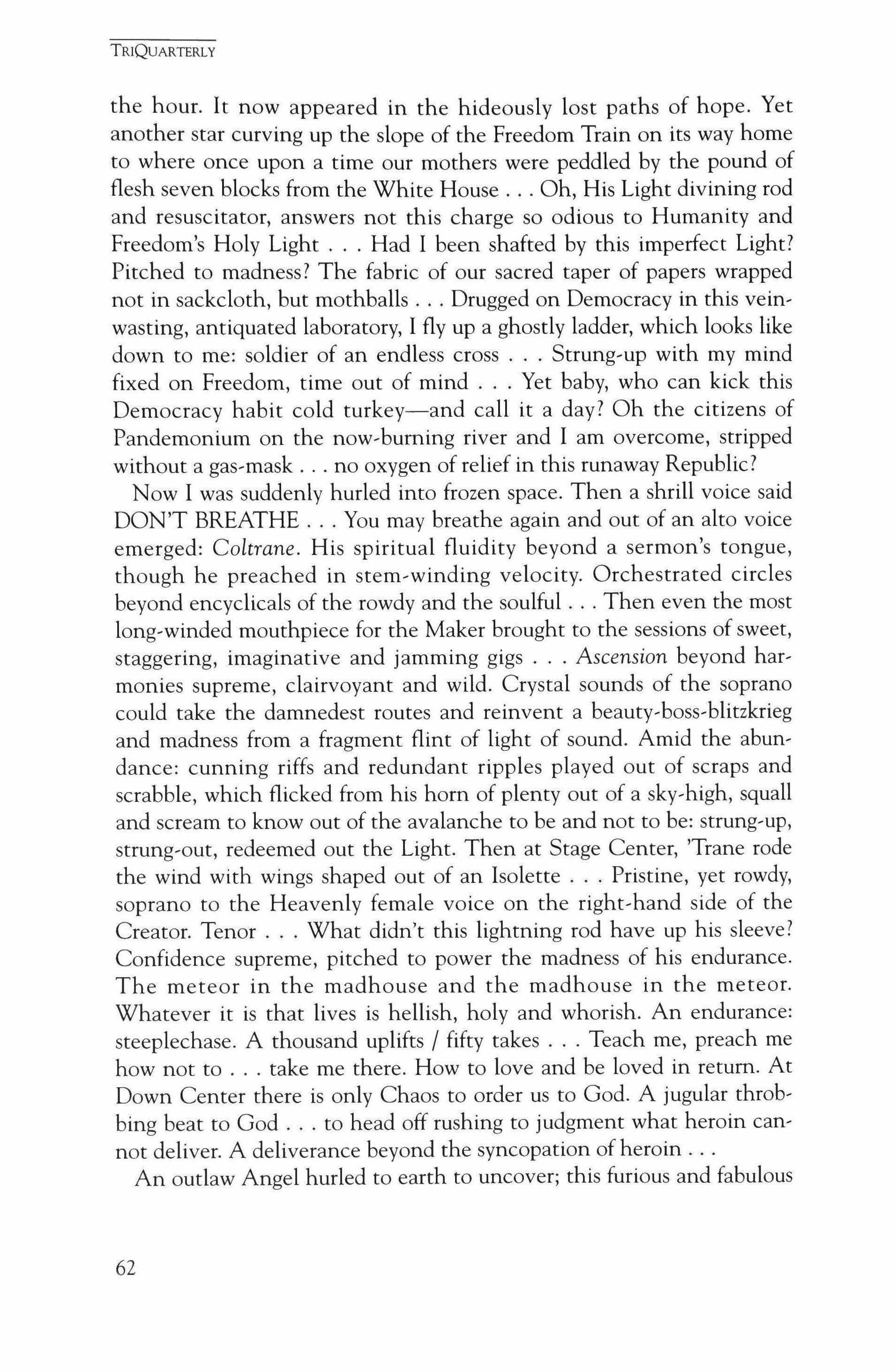
the hour. It now appeared in the hideously lost paths of hope. Yet another star curving up the slope of the Freedom Train on its way home to where once upon a time our mothers were peddled by the pound of flesh seven blocks from the White House Oh, His Light divining rod and resuscitator, answers not this charge so odious to Humanity and Freedom's Holy Light Had I been shafted by this imperfect Light? Pitched to madness? The fabric of our sacred taper of papers wrapped not in sackcloth, but mothballs Drugged on Democracy in this veinwasting, antiquated laboratory, I fly up a ghostly ladder, which looks like down to me: soldier of an endless cross Strung-up with my mind fixed on Freedom, time out of mind Yet baby, who can kick this Democracy habit cold turkey-and call it a day? Oh the citizens of Pandemonium on the now-burning river and I am overcome, stripped without a gas-mask no oxygen of relief in this runaway Republic?
Now I was suddenly hurled into frozen space. Then a shrill voice said DON'T BREATHE You may breathe again and out of an alto voice emerged: Coltrane. His spiritual fluidity beyond a sermon's tongue, though he preached in stem-winding velocity. Orchestrated circles beyond encyclicals of the rowdy and the soulful Then even the most long-winded mouthpiece for the Maker brought to the sessions of sweet, staggering, imaginative and jamming gigs Ascension beyond harmonies supreme, clairvoyant and wild. Crystal sounds of the soprano could take the damnedest routes and reinvent a beauty-boss-blitzkrieg and madness from a fragment flint of light of sound. Amid the abundance: cunning riffs and redundant ripples played out of scraps and scrabble, which flicked from his hom of plenty out of a sky-high, squall and scream to know out of the avalanche to be and not to be: strung-up, strung-out, redeemed out the Light. Then at Stage Center, 'Trane rode the wind with wings shaped out of an Isolette Pristine, yet rowdy, soprano to the Heavenly female voice on the right-hand side of the Creator. Tenor What didn't this lightning rod have up his sleeve? Confidence supreme, pitched to power the madness of his endurance. The meteor in the madhouse and the madhouse in the meteor. Whatever it is that lives is hellish, holy and whorish. An endurance: steeplechase. A thousand uplifts / fifty takes Teach me, preach me how not to take me there. How to love and be loved in return. At Down Center there is only Chaos to order us to God. A jugular throbbing beat to God to head off rushing to judgment what heroin cannot deliver. A deliverance beyond the syncopation of heroin
An outlaw Angel hurled to earth to uncover; this furious and fabulous
TRIQUARTERLY
62
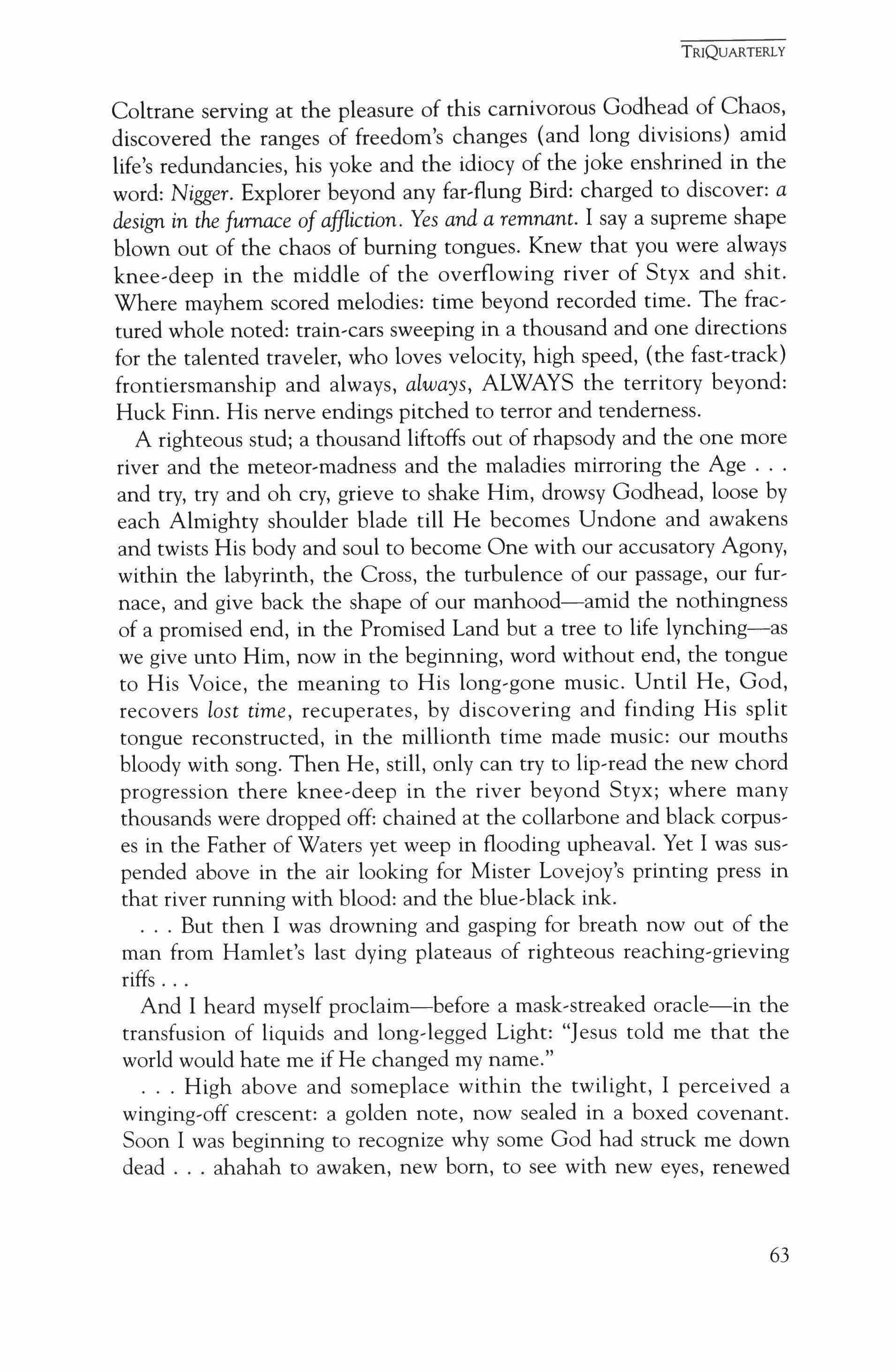
Coltrane serving at the pleasure of this carnivorous Godhead of Chaos, discovered the ranges of freedom's changes (and long divisions) amid life's redundancies, his yoke and the idiocy of the joke enshrined in the word: Nigger. Explorer beyond any far-flung Bird: charged to discover: a design in the furnace ofaffliction. Yes and a remnant. I say a supreme shape blown out of the chaos of burning tongues. Knew that you were always knee-deep in the middle of the overflowing river of Styx and shit. Where mayhem scored melodies: time beyond recorded time. The fractured whole noted: train-cars sweeping in a thousand and one directions for the talented traveler, who loves velocity, high speed, (the fast-track) frontiersmanship and always, always, ALWAYS the territory beyond: Huck Finn. His nerve endings pitched to terror and tenderness.
A righteous stud; a thousand liftoffs out of rhapsody and the one more river and the meteor-madness and the maladies mirroring the Age and try, try and oh cry, grieve to shake Him, drowsy Godhead, loose by each Almighty shoulder blade till He becomes Undone and awakens and twists His body and soul to become One with our accusatory Agony, within the labyrinth, the Cross, the turbulence of our passage, our furnace, and give back the shape of our manhood-amid the nothingness of a promised end, in the Promised Land but a tree to life lynching-as we give unto Him, now in the beginning, word without end, the tongue to His Voice, the meaning to His long-gone music. Until He, God, recovers lost time, recuperates, by discovering and finding His split tongue reconstructed, in the millionth time made music: our mouths bloody with song. Then He, still, only can try to lip-read the new chord progression there knee-deep in the river beyond Styx; where many thousands were dropped off: chained at the collarbone and black corpuses in the Father of Waters yet weep in flooding upheaval. Yet I was suspended above in the air looking for Mister Lovejoy's printing press in that river running with blood: and the blue-black ink
But then I was drowning and gasping for breath now out of the man from Hamlet's last dying plateaus of righteous reaching-grieving riffs
And I heard myself proclaim-before a mask-streaked oracle-in the transfusion of liquids and long-legged Light: "Jesus told me that the world would hate me if He changed my name."
High above and someplace within the twilight, I perceived a winging-off crescent: a golden note, now sealed in a boxed covenant. Soon I was beginning to recognize why some God had struck me down dead ahahah to awaken, new born, to see with new eyes, renewed
TRIQUARTERLY
63

tongue, ears pitched to the pulse of day into night, feet to out-dance David. Yet tied down within this hospital bed, for I was so uproarious of Spirit. Refined, not like silver, but in a furnace of affliction. Not to be totally astonished by the Creator, nor man. Somehow I felt no more at home with Isaac than I did with Ishmael. Awakened now by the meteor of that first Light and dawn's early light: no wonder I had to go down dead in this madhouse-in order to breathe upon the righteous and rowdy riffs of existence again Oh yes and now to wail with a hom full of plenty: LET THERE BE LIGHT, Baby, LET THERE BE LIGHT.
TRIQUARTERLY
64
Thaw
Carol Frost
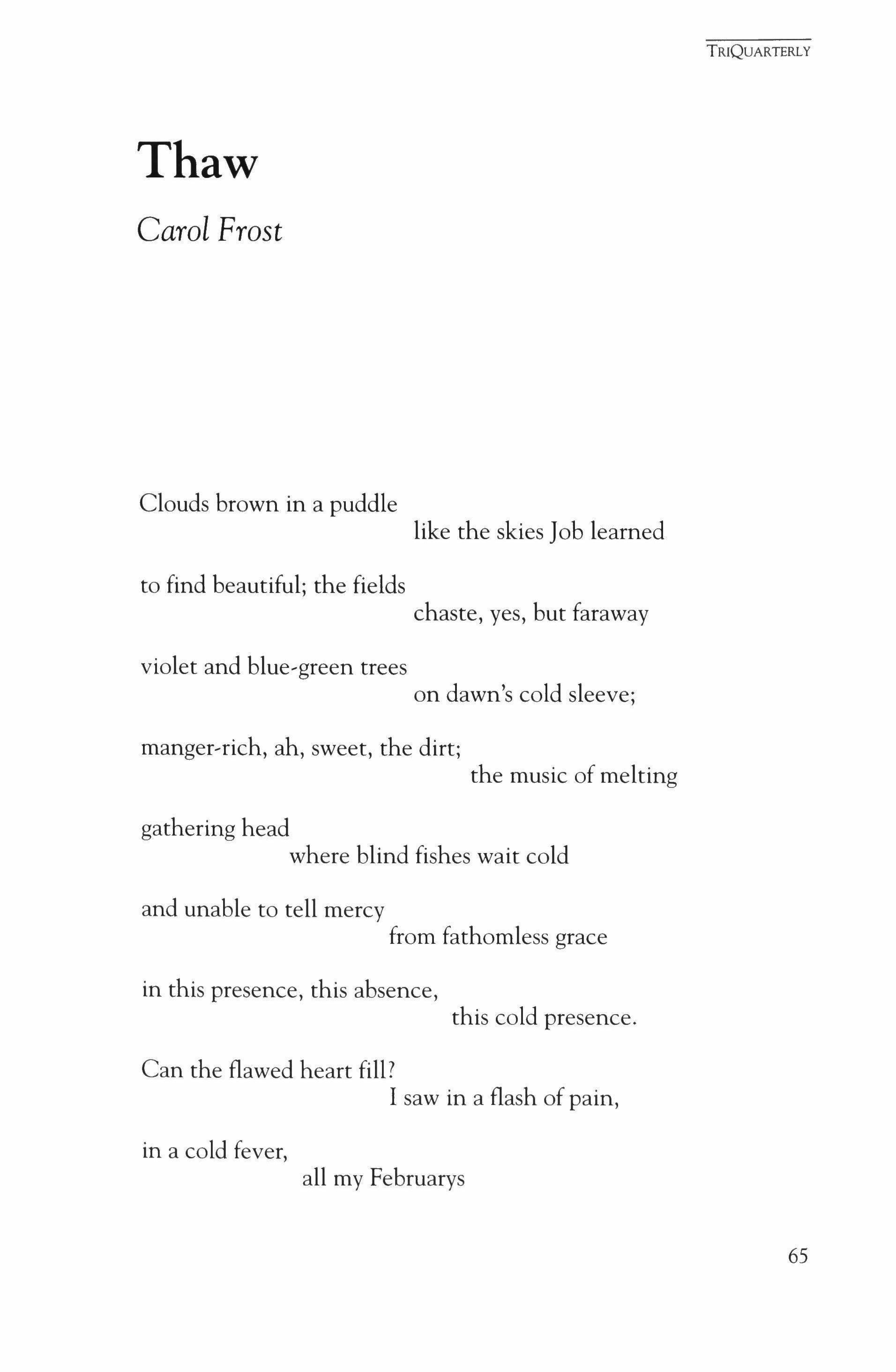
Clouds brown in a puddle like the skies Job learned
to find beautiful; the fields chaste, yes, but faraway violet and blue-green trees on dawn's cold sleeve; manger-rich, ah, sweet, the dirt; the music of melting gathering head where blind fishes wait cold and unable to tell mercy from fathomless grace in this presence, this absence, this cold presence. Can the flawed heart fill?
I saw in a flash of pain, in a cold fever, all my Februarys
TRIQUARTERLY 65
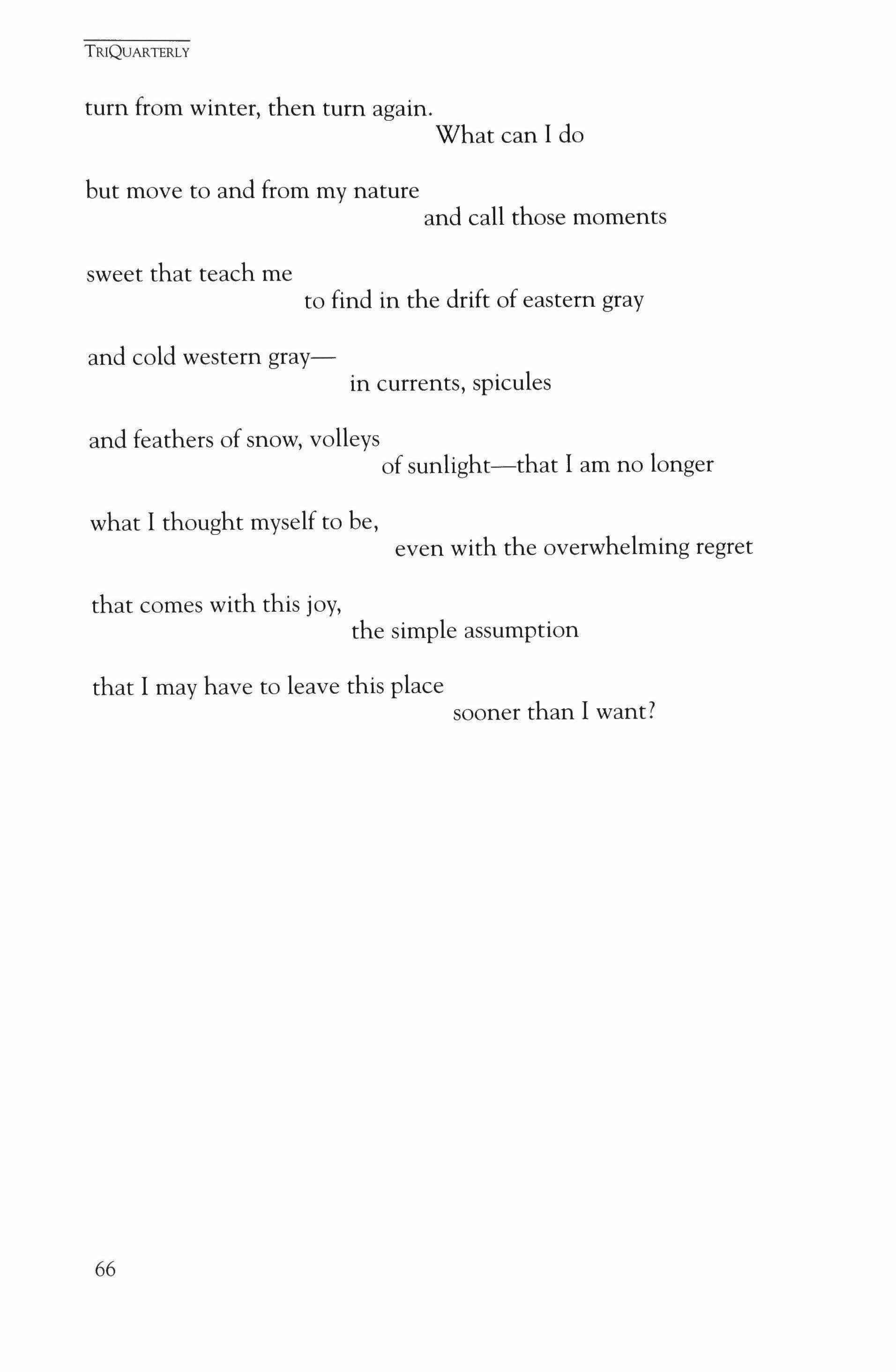
turn from winter, then turn again. What can I do but move to and from my nature and call those moments
sweet that teach me to find in the drift of eastern gray and cold western grayin currents, spicules and feathers of snow, volleys of sunlight-that I am no longer what I thought myself to be, even with the overwhelming regret that comes with this joy, the simple assumption that I may have to leave this place sooner than I want?
TRIQUARTERLY
66
Two Poems
Juan Carlos Galeano
Translatedfrom the Spanish by Delia Poey and Virgil Suarez
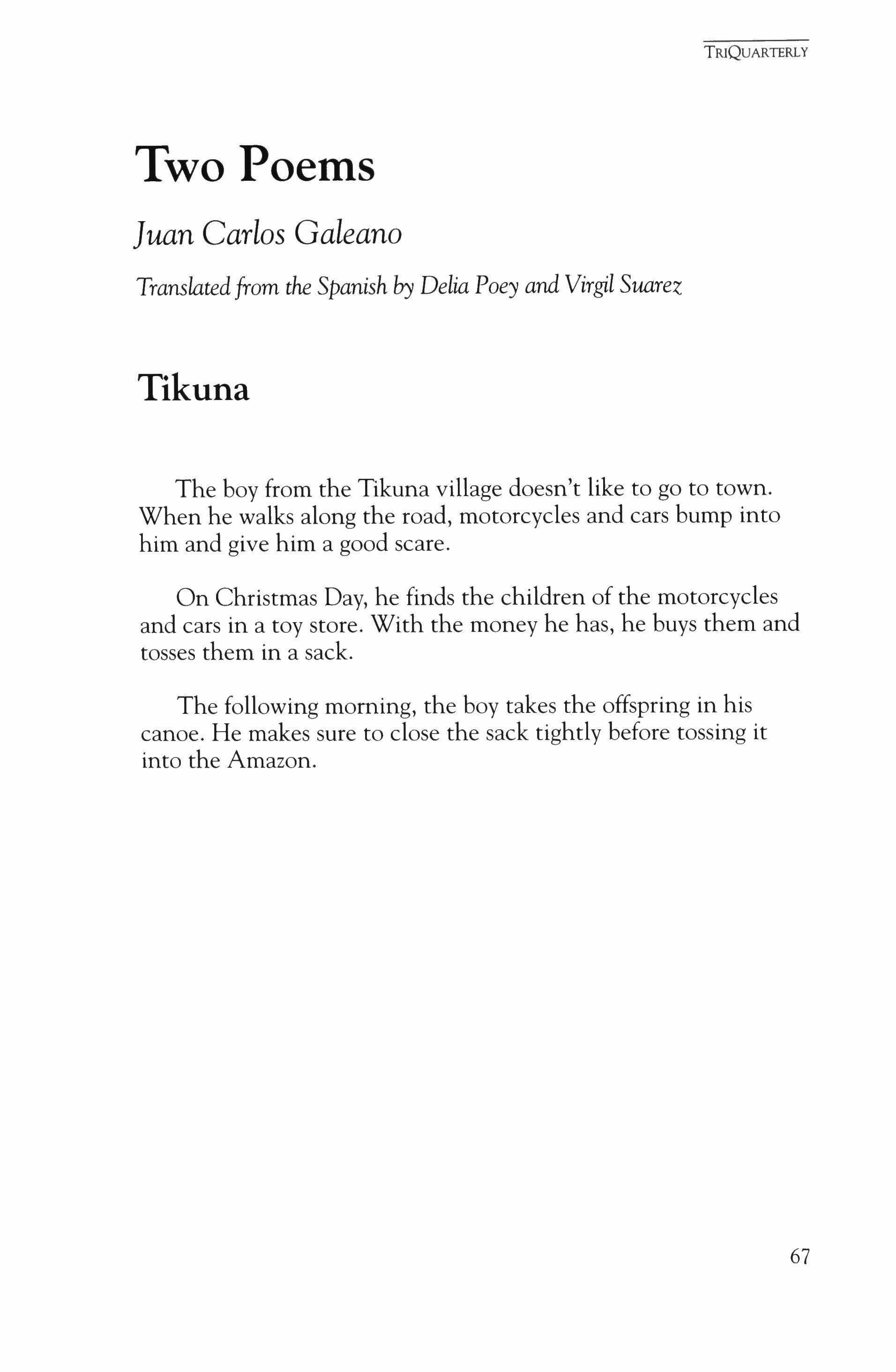
Tikuna The boy from the Tikuna village doesn't like to go to town. When he walks along the road, motorcycles and cars bump into him and give him a good scare.
On Christmas Day, he finds the children of the motorcycles and cars in a toy store. With the money he has, he buys them and tosses them in a sack.
The following morning, the boy takes the offspring in his canoe. He makes sure to close the sack tightly before tossing it into the Amazon.
TRIQUARTERLY
67
Soup
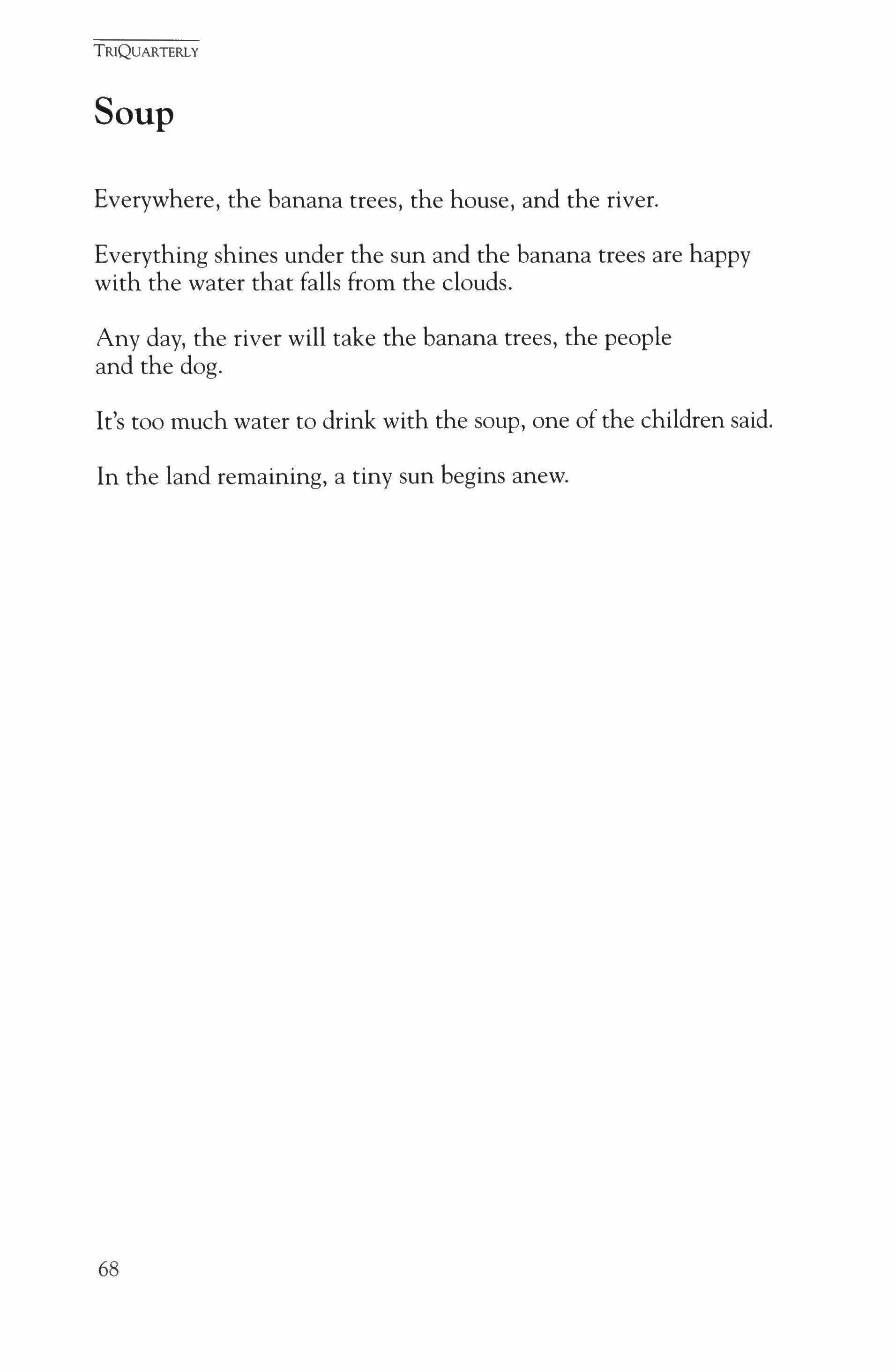
Everywhere, the banana trees, the house, and the river.
Everything shines under the sun and the banana trees are happy with the water that falls from the clouds.
Any day, the river will take the banana trees, the people and the dog.
It's too much water to drink with the soup, one of the children said.
In the land remaining, a tiny sun begins anew.
TRIQUARTERLY
68
The Head Is Frightfully Talkative
Doreen Gildroy
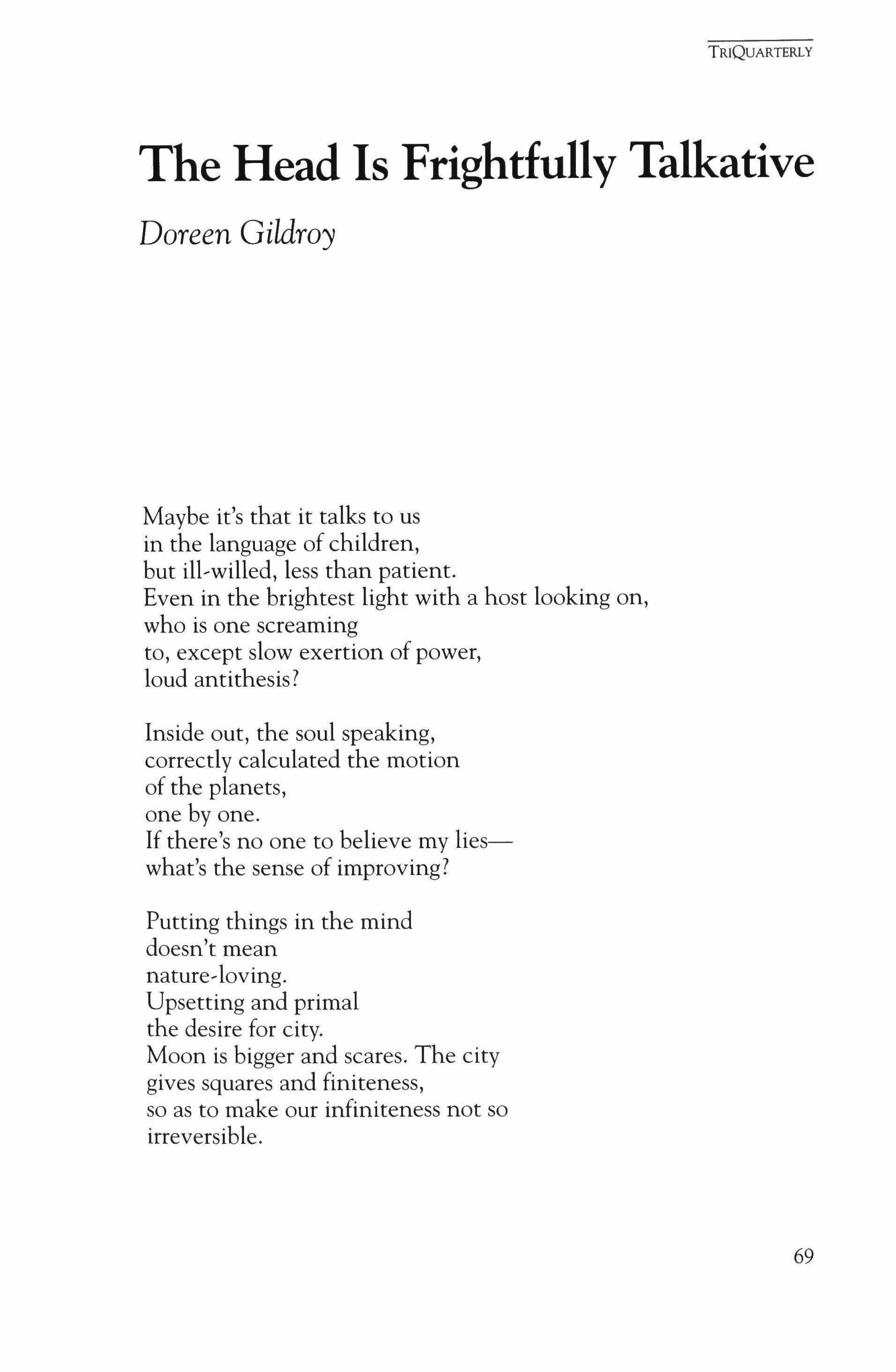
Maybe it's that it talks to us in the language of children, but ill-willed, less than patient. Even in the brightest light with a host looking on, who is one screaming to, except slow exertion of power, loud antithesis?
Inside out, the soul speaking, correctly calculated the motion of the planets, one by one. If there's no one to believe my lieswhat's the sense of improving?
Putting things in the mind doesn't mean nature-loving. Upsetting and primal the desire for city. Moon is bigger and scares. The city gives squares and finiteness, so as to make our infiniteness not so irreversible.
TRIQUARTERLY
69
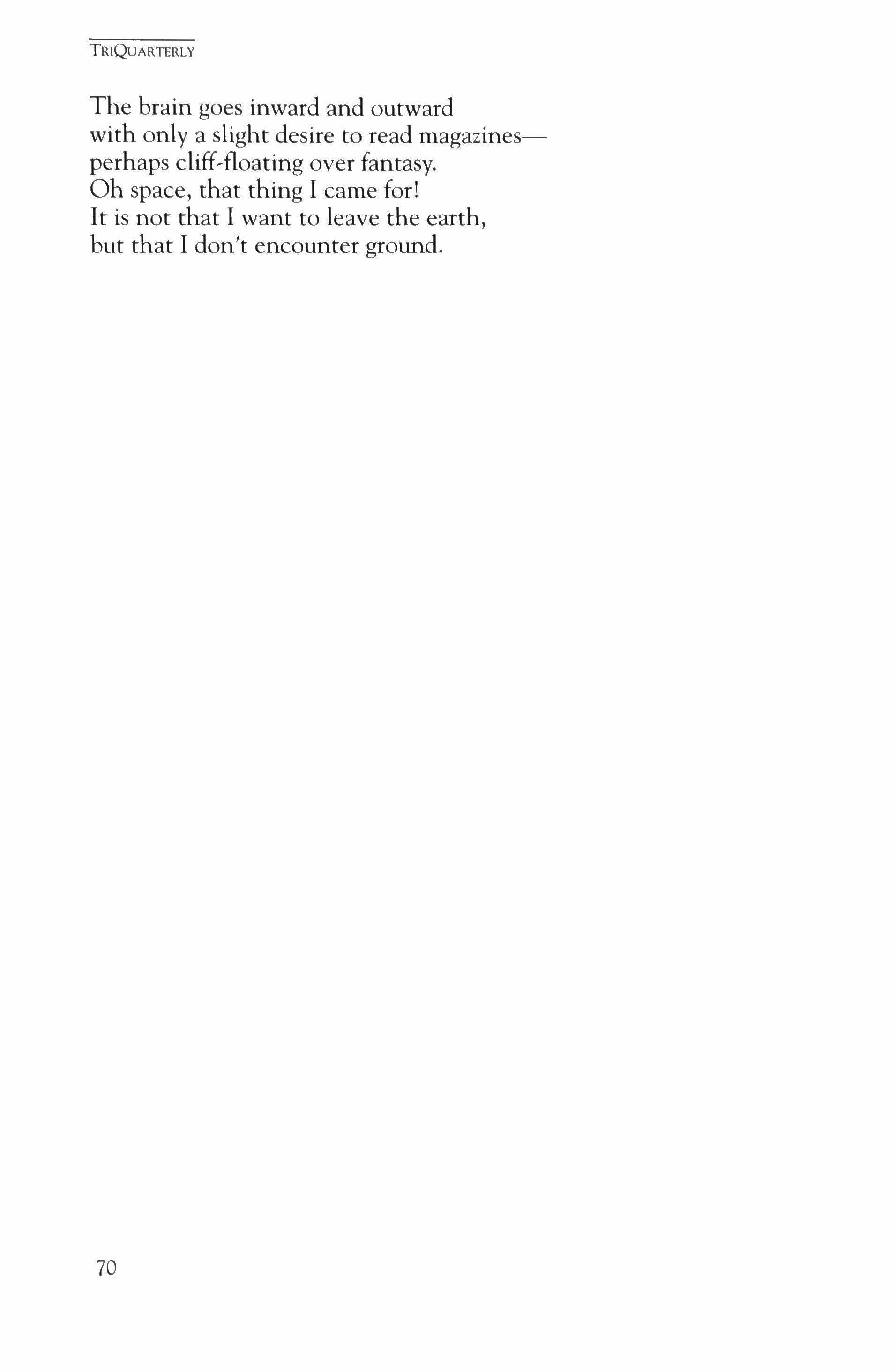
The brain goes inward and outward with only a slight desire to read magazinesperhaps cliff-floating over fantasy. Oh space, that thing I came for! It is not that I want to leave the earth, but that I don't encounter ground.
TRIQUARTERLY
70
Three Poems
Michael S. Harper
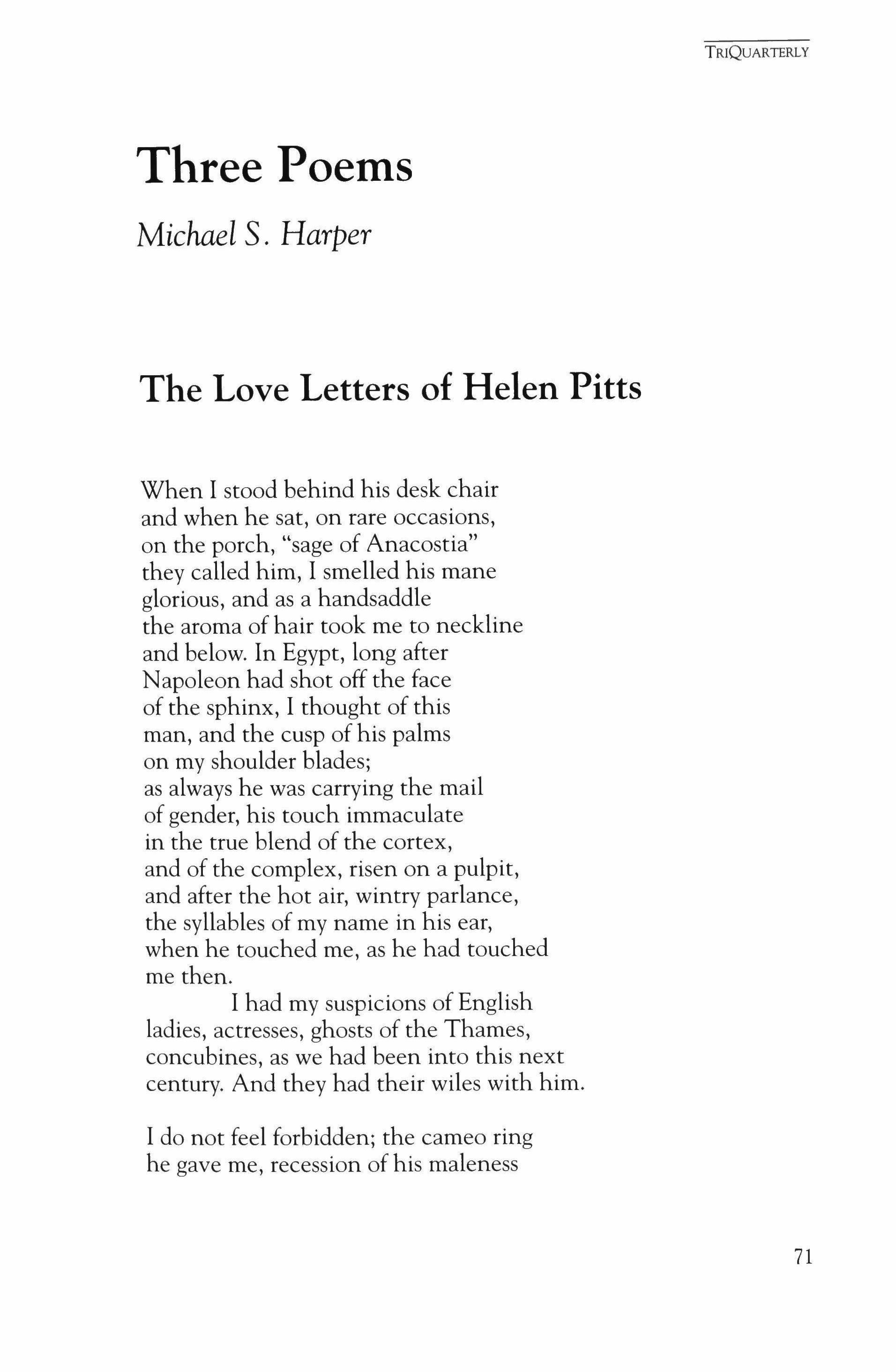
The Love Letters of Helen Pitts
When I stood behind his desk chair and when he sat, on rare occasions, on the porch, "sage of Anacostia" they called him, I smelled his mane glorious, and as a handsaddle the aroma of hair took me to neckline and below. In Egypt, long after Napoleon had shot off the face of the sphinx, I thought of this man, and the cusp of his palms on my shoulder blades; as always he was carrying the mail of gender, his touch immaculate in the true blend of the cortex, and of the complex, risen on a pulpit, and after the hot air, wintry parlance, the syllables of my name in his ear, when he touched me, as he had touched me then.
I had my suspicions of English ladies, actresses, ghosts of the Thames, concubines, as we had been into this next century. And they had their wiles with him.
I do not feel forbidden; the cameo ring he gave me, recession of his maleness
TRIQUARTERLY 71
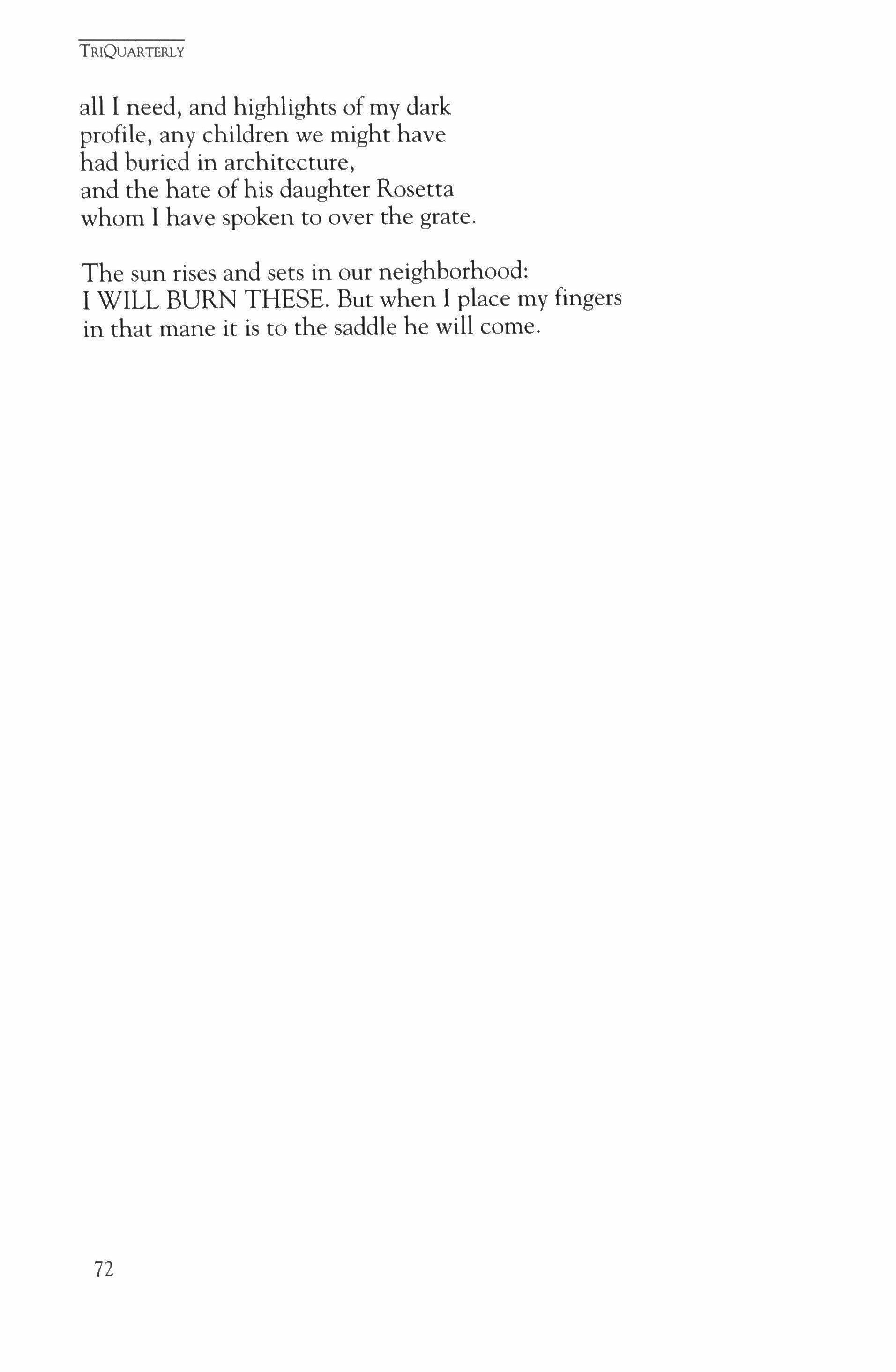
all I need, and highlights of my dark profile, any children we might have had buried in architecture, and the hate of his daughter Rosetta whom I have spoken to over the grate.
The sun rises and sets in our neighborhood: I WILL BURN THESE. But when I place my fingers in that mane it is to the saddle he will come.
TRIQUARTERLY
72
Patrice Lumumba
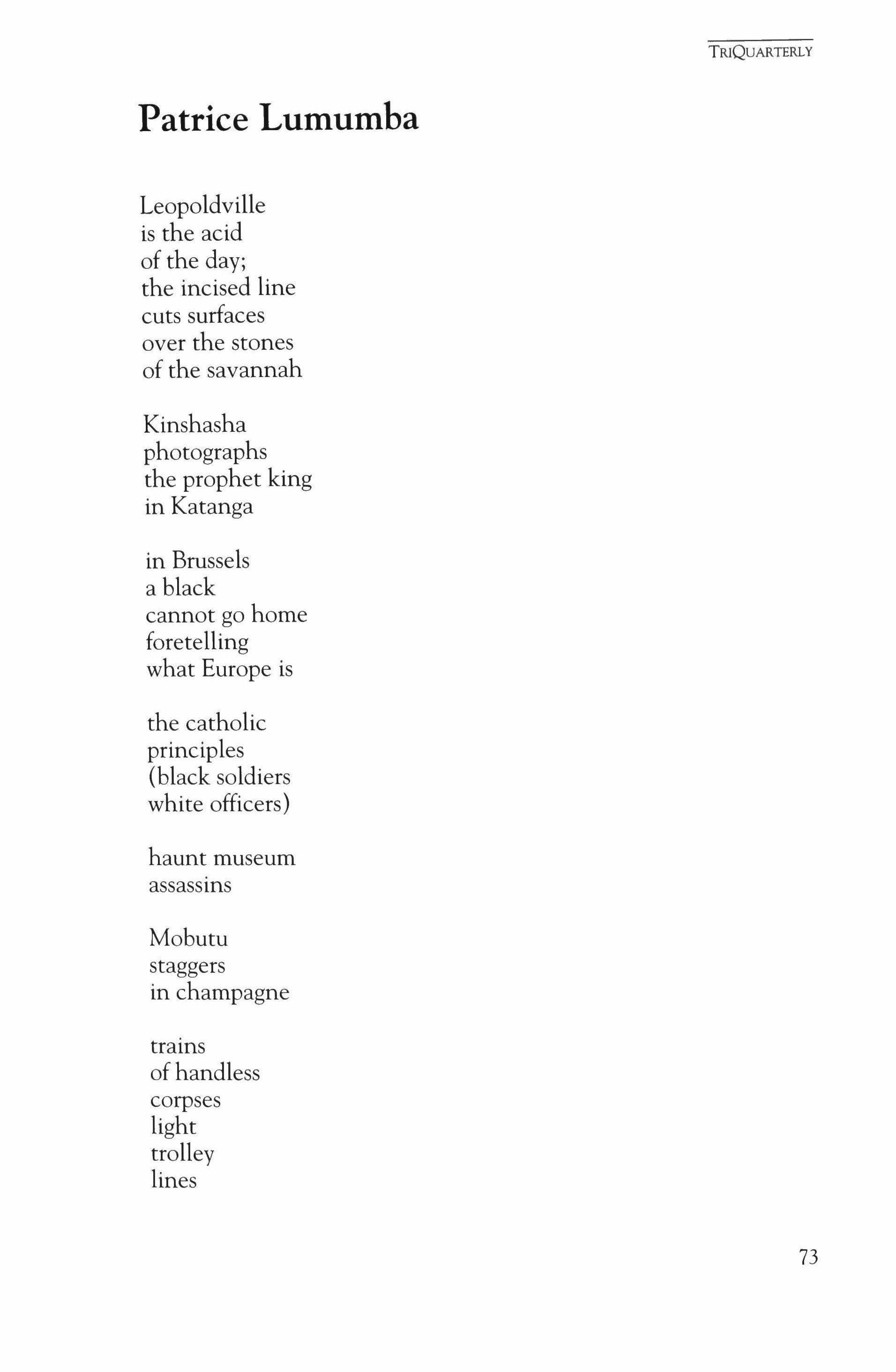
Leopoldville is the acid of the day; the incised line cuts surfaces over the stones of the savannah
Kinshasha photographs the prophet king in Katanga in Brussels a black cannot go home foretelling what Europe is the catholic principles (black soldiers white officers)
haunt museum assassins
Mobutu staggers in champagne trains of handless corpses light trolley lines
TRIQUARTERLY
73
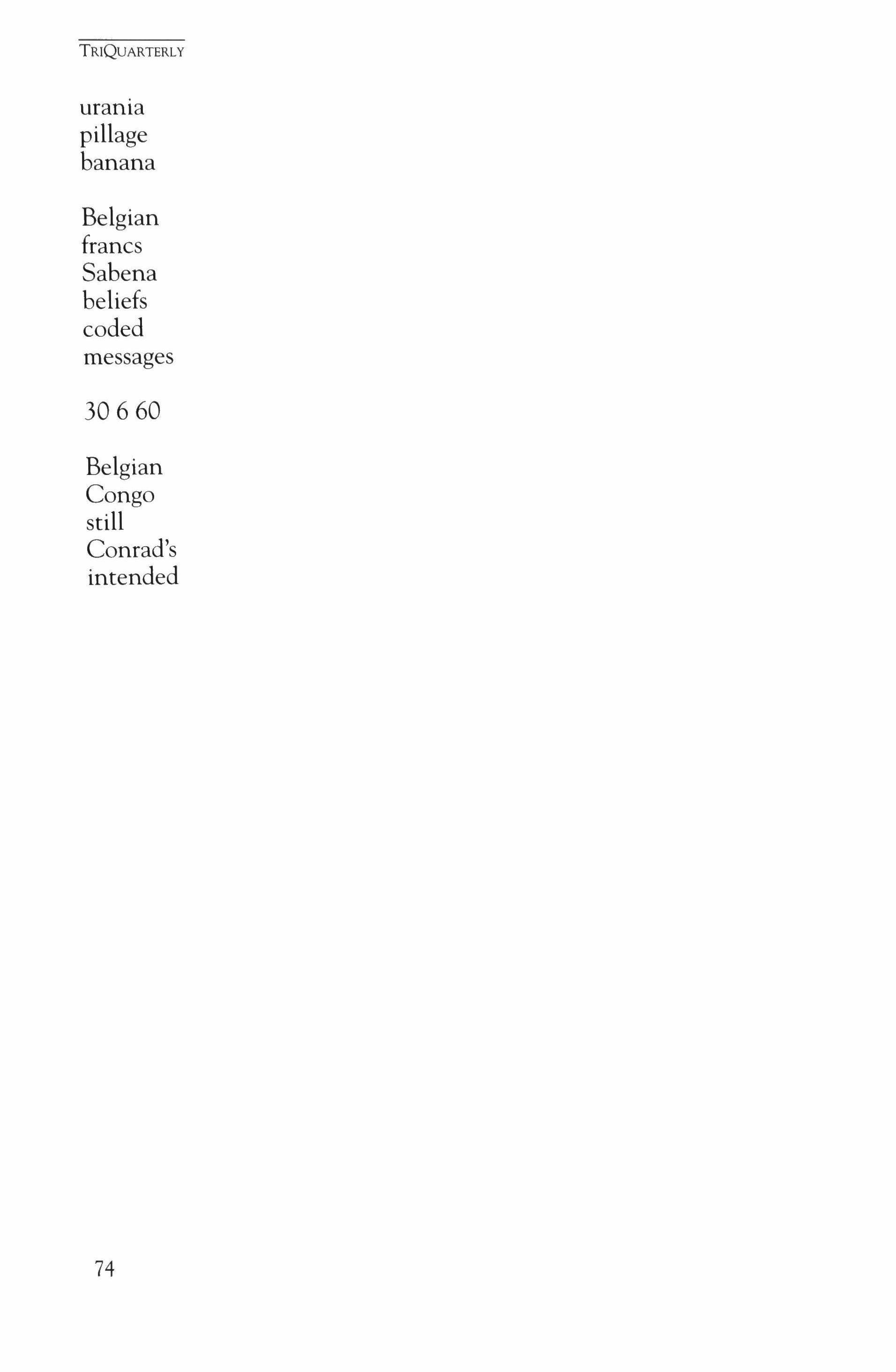
urania
pillage banana
Belgian francs
Sabena beliefs coded messages
30660
Belgian Congo still Conrad's intended
Y
TRIQUARTERL
74
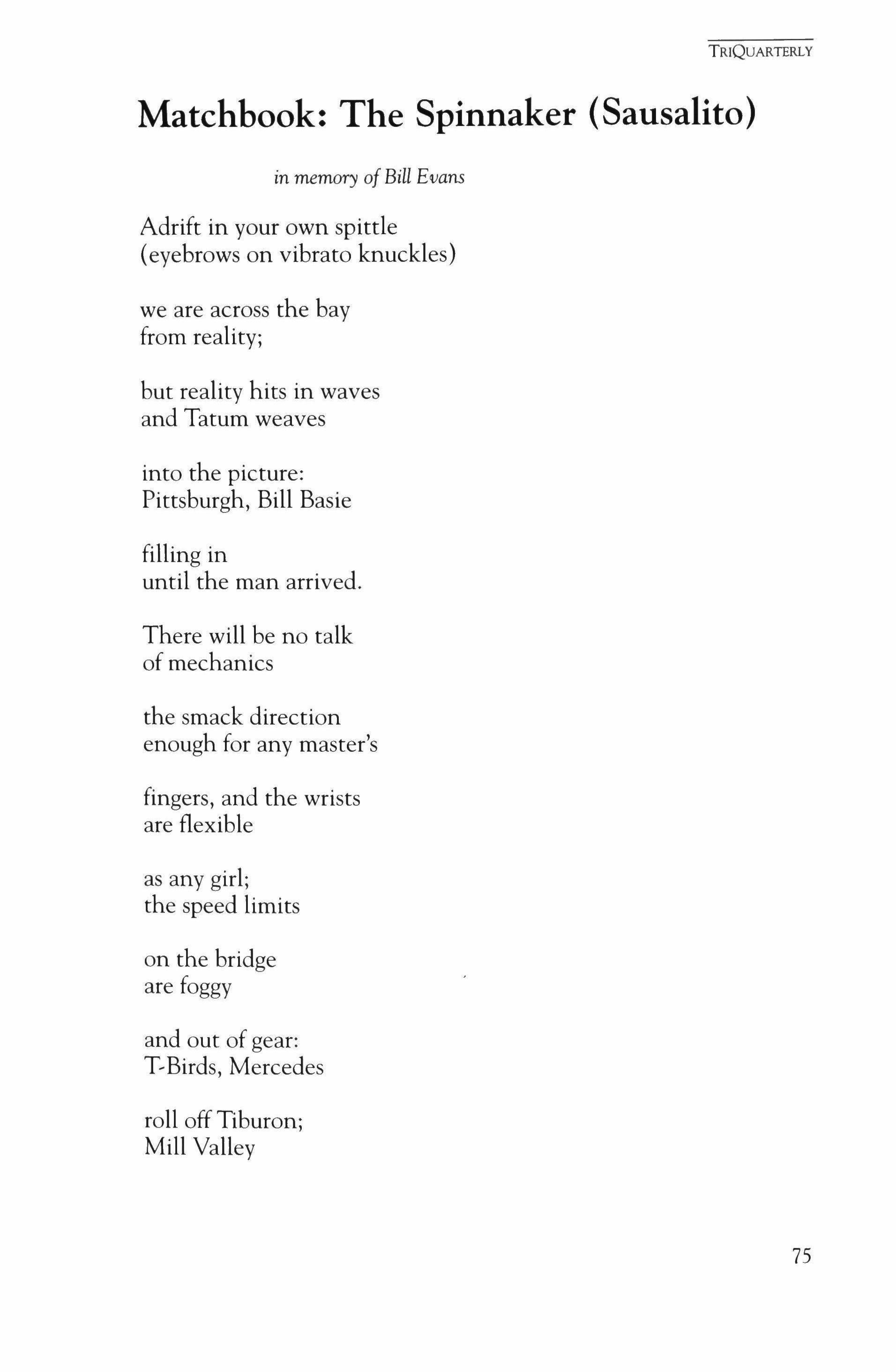
Matchbook: The Spinnaker (Sausalito)
in memory of Bill Evans
Adrift in your own spittle (eyebrows on vibrato knuckles)
we are across the bay from reality; but reality hits in waves and Tatum weaves into the picture: Pittsburgh, Bill Basie filling in until the man arrived.
There will be no talk of mechanics the smack direction enough for any master's fingers, and the wrists are flexible as any girl; the speed limits on the bridge are foggy and out of gear: T-Birds, Mercedes roll off Tiburon; Mill Valley
TRIQUARTERLY
75
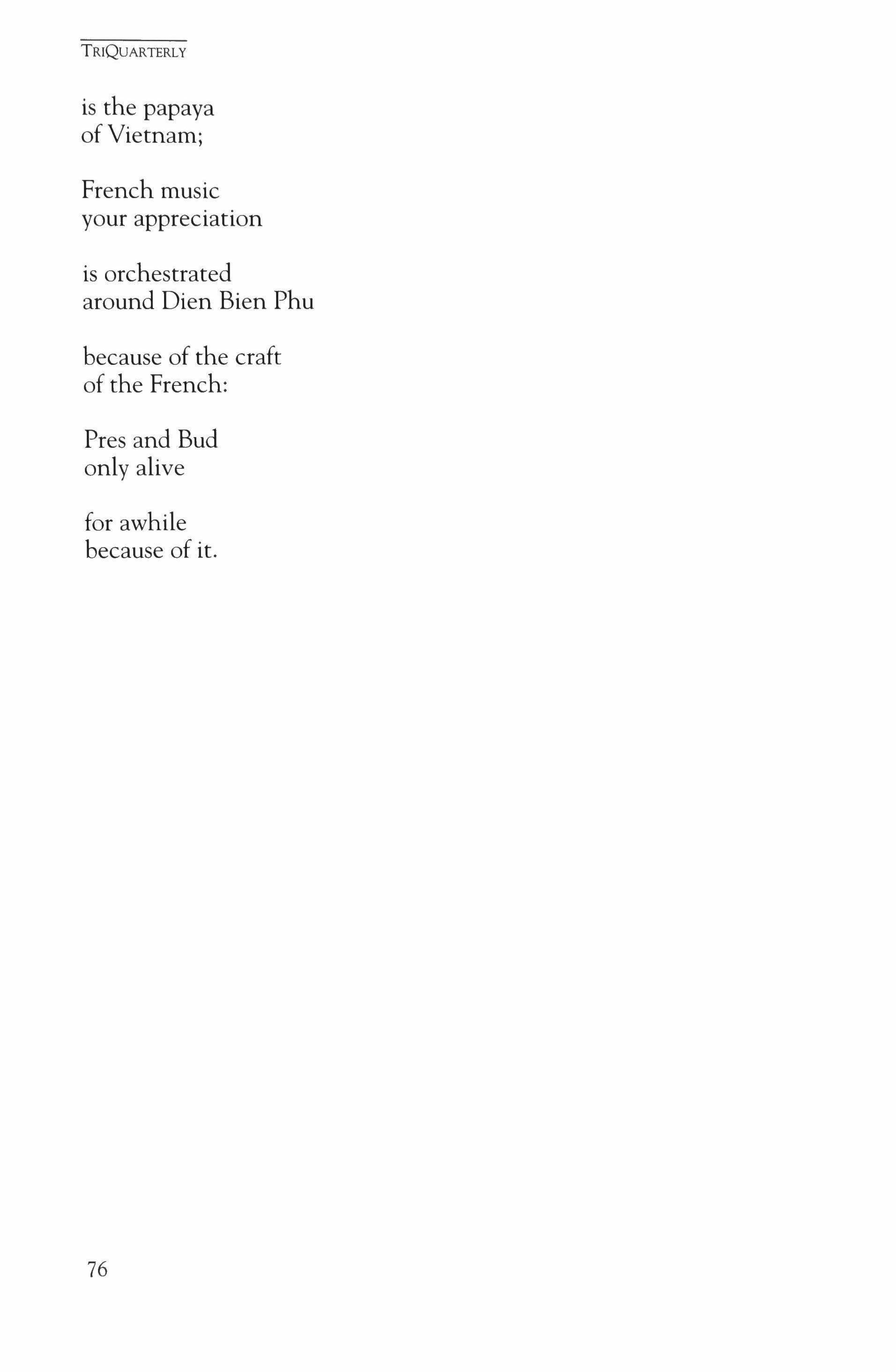
is the papaya of Vietnam; French music your appreciation is orchestrated around Dien Bien Phu because of the craft of the French: Pres and Bud only alive for awhile because of it.
76
TRIQUARTERLY
Tweeg
Brooks
Haxton

After his third wife left him, Dr. Yeamer set up the dental island in his garage, which cost him business, but he wanted privacy at work. I liked to visit him when I was small and feed the fish. It was a huge tank with such tiny fish, the hellbender I gave him struck me, at thirteen, as the very creature of his dreams, though he had never seen one. It's for you,
our largest native salamander, I said, dropping it in. He stood back, blinking, while it ate the fairy basslet. In a few days all the fish were gone. The old man I saw catch it, seining, told me Tweeg was the name
the Indians had given it. Tweeg, an arm long, with minute black eyes set into a Paleozoic skull, alert with mindlessness. The skin fit loosely in deep folds, greenish brown with warts and slime.
The fingers had no claws, but he was strong enough to catch and eat a crawdad. Snails too, worms and tadpoles, anything alive that came to hand, he ate, and he grew fat. My pubic hair was coming in, and soon my wisdom teeth
TRIQUARTERLY
77
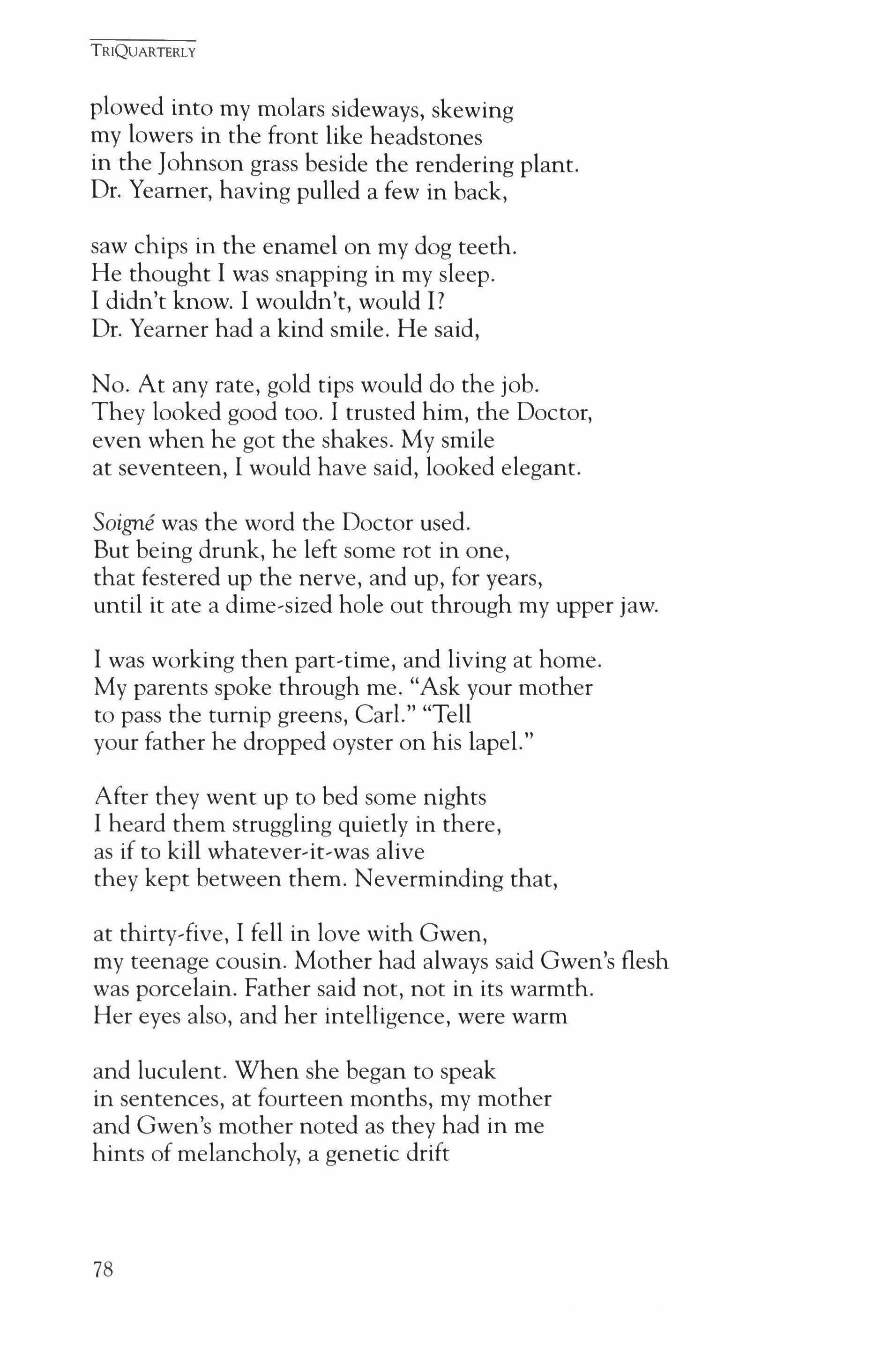
plowed into my molars sideways, skewing my lowers in the front like headstones in the Johnson grass beside the rendering plant. Dr. Yearner, having pulled a few in back,
saw chips in the enamel on my dog teeth. He thought I was snapping in my sleep. I didn't know. I wouldn't, would I? Dr. Yearner had a kind smile. He said, No. At any rate, gold tips would do the job. They looked good too. I trusted him, the Doctor, even when he got the shakes. My smile at seventeen, I would have said, looked elegant.
Soigne was the word the Doctor used. But being drunk, he left some rot in one, that festered up the nerve, and up, for years, until it ate a dime-sized hole out through my upper jaw.
I was working then part-time, and living at home. My parents spoke through me. "Ask your mother to pass the turnip greens, Carl." "Tell your father he dropped oyster on his lapel."
After they went up to bed some nights I heard them struggling quietly in there, as if to kill whatever-it-was alive they kept between them. Neverminding that, at thirty-five, I fell in love with Gwen, my teenage cousin. Mother had always said Gwen's flesh was porcelain. Father said not, not in its warmth. Her eyes also, and her intelligence, were warm and luculent. When she began to speak in sentences, at fourteen months, my mother and Gwen's mother noted as they had in me hints of melancholy, a genetic drift
TRIQUARTERLY
78

my father and her father shrugged off on their way out fishing, drunk. They were twins, our fathers, they were identical-our mothers, too.
Gwen's parents married in midlife, first families wrenched apart, while Gwen sprouted fingerbuds and toes. When she began to speak, I made an adolescent game of asking her what frightened her, what was a comfort, and before long, she was asking questions back about what made me want to know. We interviewed each other playfully this way for years.
Gwen was not my female image. She was fair, blond, gray-eyed, graceful, smiling, not the opposite of me-it's just, my fairness is a shade consumptive, and the blond a little thick with dinge, the gray eyes slurried, gestures forced. My smile is hesitant, my mother says suspicious. None of which, my father thinks, is unattractive, necessarily.
But Gwen to my mind consummated all my shortcomings as virtues, and with her as with nobody else, for once, I felt at ease, not flattered, not indulged. She loved me. Me! And I, with her, I could exist. Already you begin to see my problem. I was bound to love her. You may think that people choose their fate, yet how could I not love her? And the sex
I write, as though somebody reading this might help me understand, but you, a stranger, sitting in judgment, certain you would never blunder this way, never lose your bearings,
TRIQUARTERLY
79
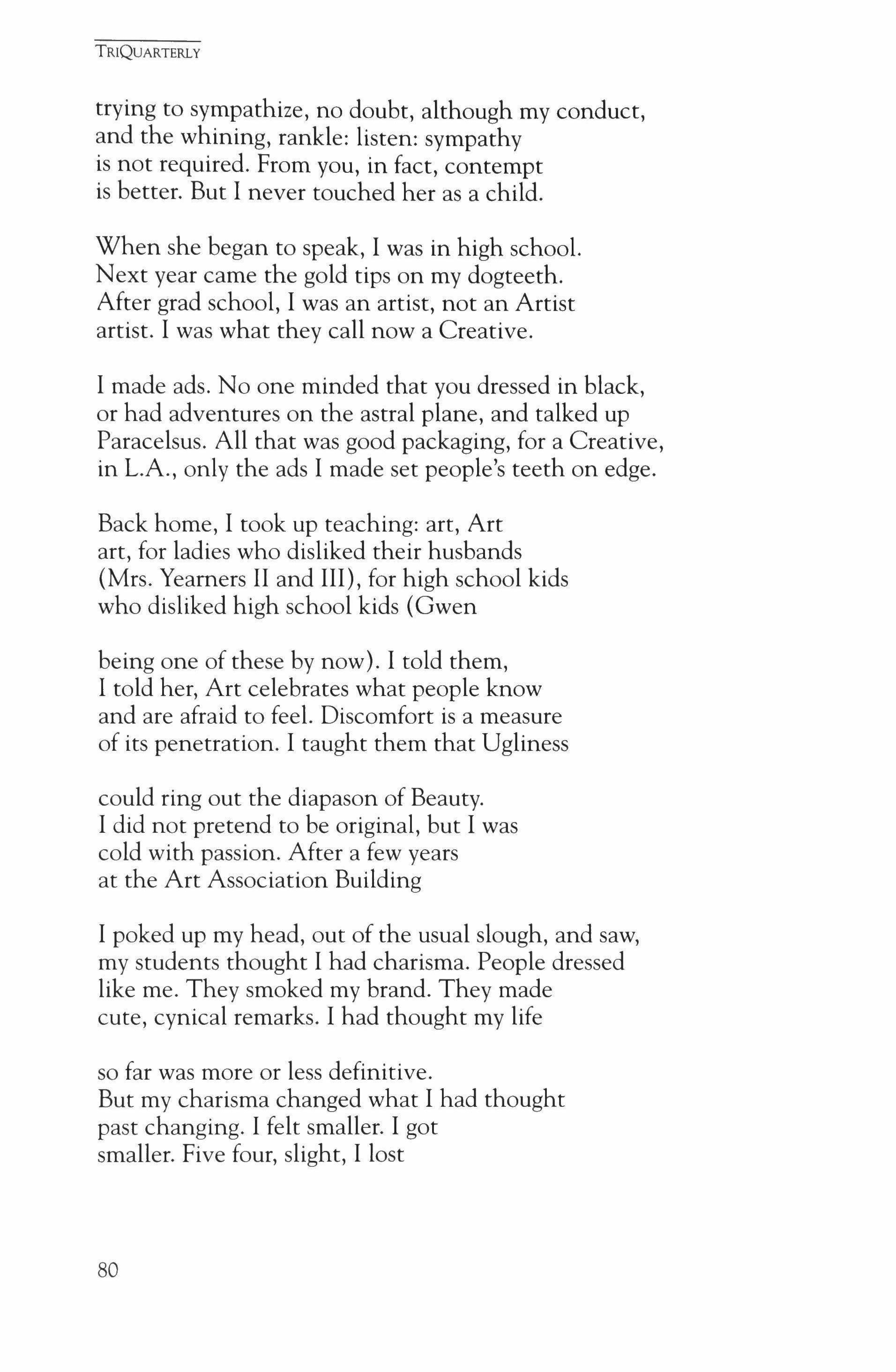
trying to sympathize, no doubt, although my conduct, and the whining, rankle: listen: sympathy is not required. From you, in fact, contempt is better. But I never touched her as a child.
When she began to speak, I was in high school. Next year came the gold tips on my dogteeth. After grad school, I was an artist, not an Artist artist. I was what they call now a Creative.
I made ads. No one minded that you dressed in black, or had adventures on the astral plane, and talked up Paracelsus. All that was good packaging, for a Creative, in L.A., only the ads I made set people's teeth on edge.
Back home, I took up teaching: art, Art art, for ladies who disliked their husbands (Mrs. Yeamers II and II!), for high school kids who disliked high school kids (Gwen
being one of these by now). I told them, I told her, Art celebrates what people know and are afraid to feel. Discomfort is a measure of its penetration. I taught them that Ugliness
could ring out the diapason of Beauty. I did not pretend to be original, but I was cold with passion. After a few years at the Art Association Building
I poked up my head, out of the usual slough, and saw, my students thought I had charisma. People dressed like me. They smoked my brand. They made cute, cynical remarks. I had thought my life
so far was more or less definitive. But my charisma changed what I had thought past changing. I felt smaller. I got smaller. Five four, slight, I lost
TRIQUARTERLY
80
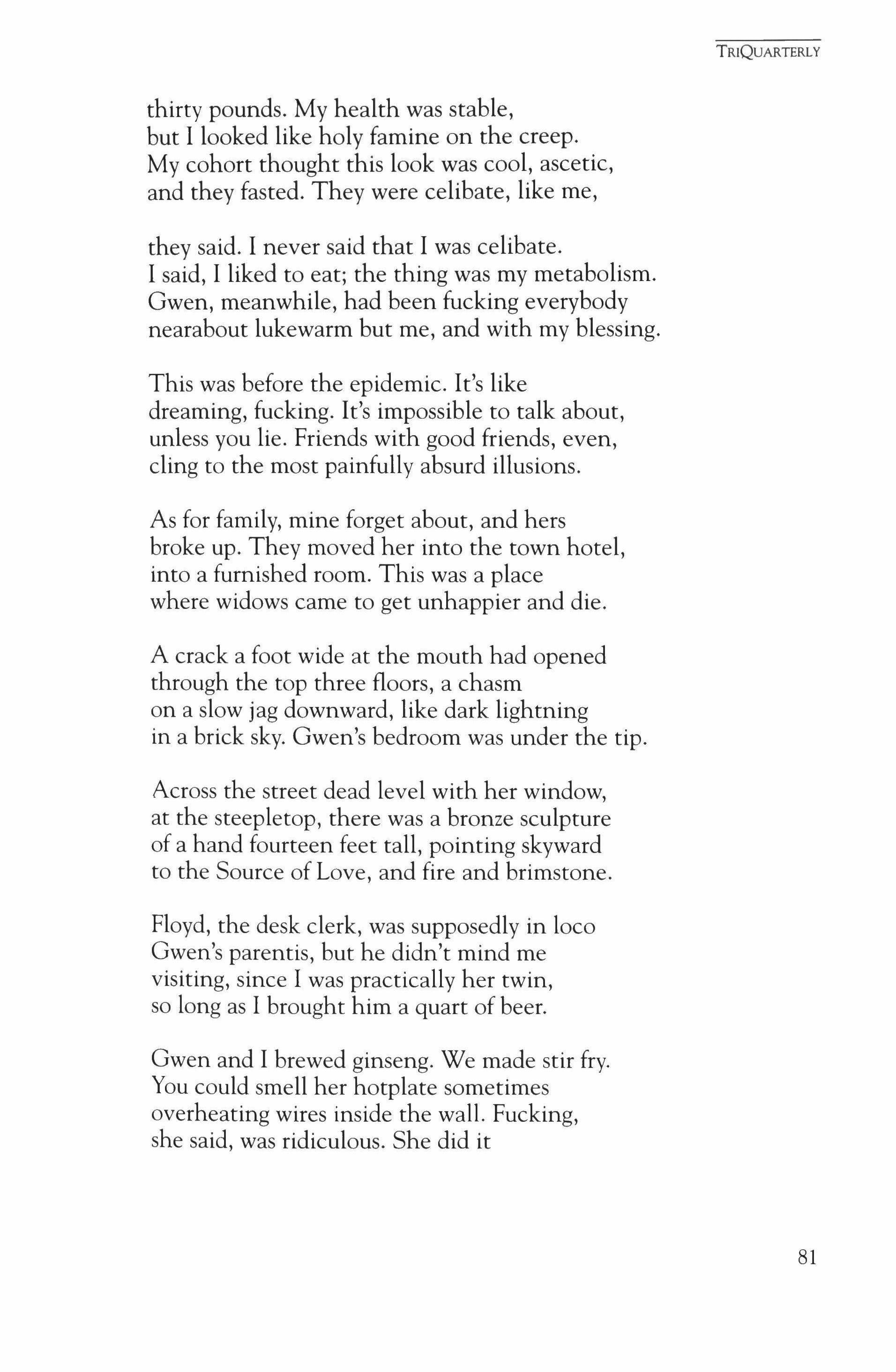
thirty pounds. My health was stable, but I looked like holy famine on the creep. My cohort thought this look was cool, ascetic, and they fasted. They were celibate, like me,
they said. I never said that I was celibate. I said, I liked to eat; the thing was my metabolism. Gwen, meanwhile, had been fucking everybody nearabout lukewarm but me, and with my blessing.
This was before the epidemic. It's like dreaming, fucking. It's impossible to talk about, unless you lie. Friends with good friends, even, cling to the most painfully absurd illusions.
As for family, mine forget about, and hers broke up. They moved her into the town hotel, into a furnished room. This was a place where widows came to get unhappier and die.
A crack a foot wide at the mouth had opened through the top three floors, a chasm on a slow jag downward, like dark lightning in a brick sky. Gwen's bedroom was under the tip.
Across the street dead level with her window, at the steepletop, there was a bronze sculpture of a hand fourteen feet tall, pointing skyward to the Source of Love, and fire and brimstone.
Floyd, the desk clerk, was supposedly in loco Gwen's parentis, but he didn't mind me visiting, since I was practically her twin, so long as I brought him a quart of beer.
Gwen and I brewed ginseng. We made stir fry. You could smell her hotplate sometimes overheating wires inside the wall. Fucking, she said, was ridiculous. She did it
TRIQUARTERLY 81
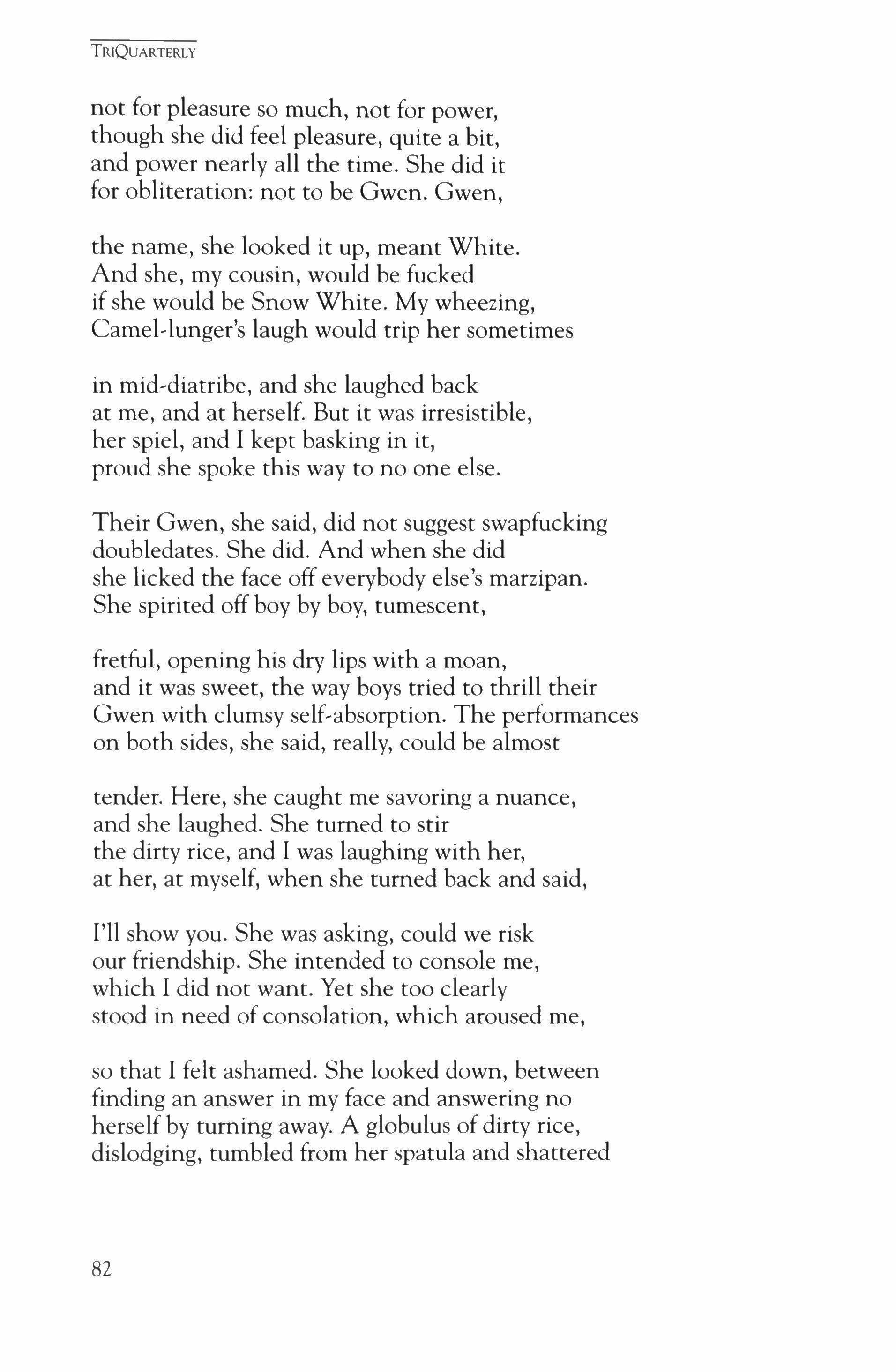
not for pleasure so much, not for power, though she did feel pleasure, quite a bit, and power nearly all the time. She did it for obliteration: not to be Gwen. Gwen, the name, she looked it up, meant White. And she, my cousin, would be fucked if she would be Snow White. My wheezing, Camel-lunger's laugh would trip her sometimes
in mid-diatribe, and she laughed back at me, and at herself. But it was irresistible, her spiel, and I kept basking in it, proud she spoke this way to no one else.
Their Gwen, she said, did not suggest swapfucking doubledates. She did. And when she did she licked the face off everybody else's marzipan. She spirited off boy by boy, tumescent,
fretful, opening his dry lips with a moan, and it was sweet, the way boys tried to thrill their Gwen with clumsy self-absorption. The performances on both sides, she said, really, could be almost tender. Here, she caught me savoring a nuance, and she laughed. She turned to stir the dirty rice, and I was laughing with her, at her, at myself, when she turned back and said,
I'll show you. She was asking, could we risk our friendship. She intended to console me, which I did not want. Yet she too clearly stood in need of consolation, which aroused me,
so that I felt ashamed. She looked down, between finding an answer in my face and answering no herself by turning away. A globulus of dirty rice, dislodging, tumbled from her spatula and shattered
TRIQUARTERLY
82
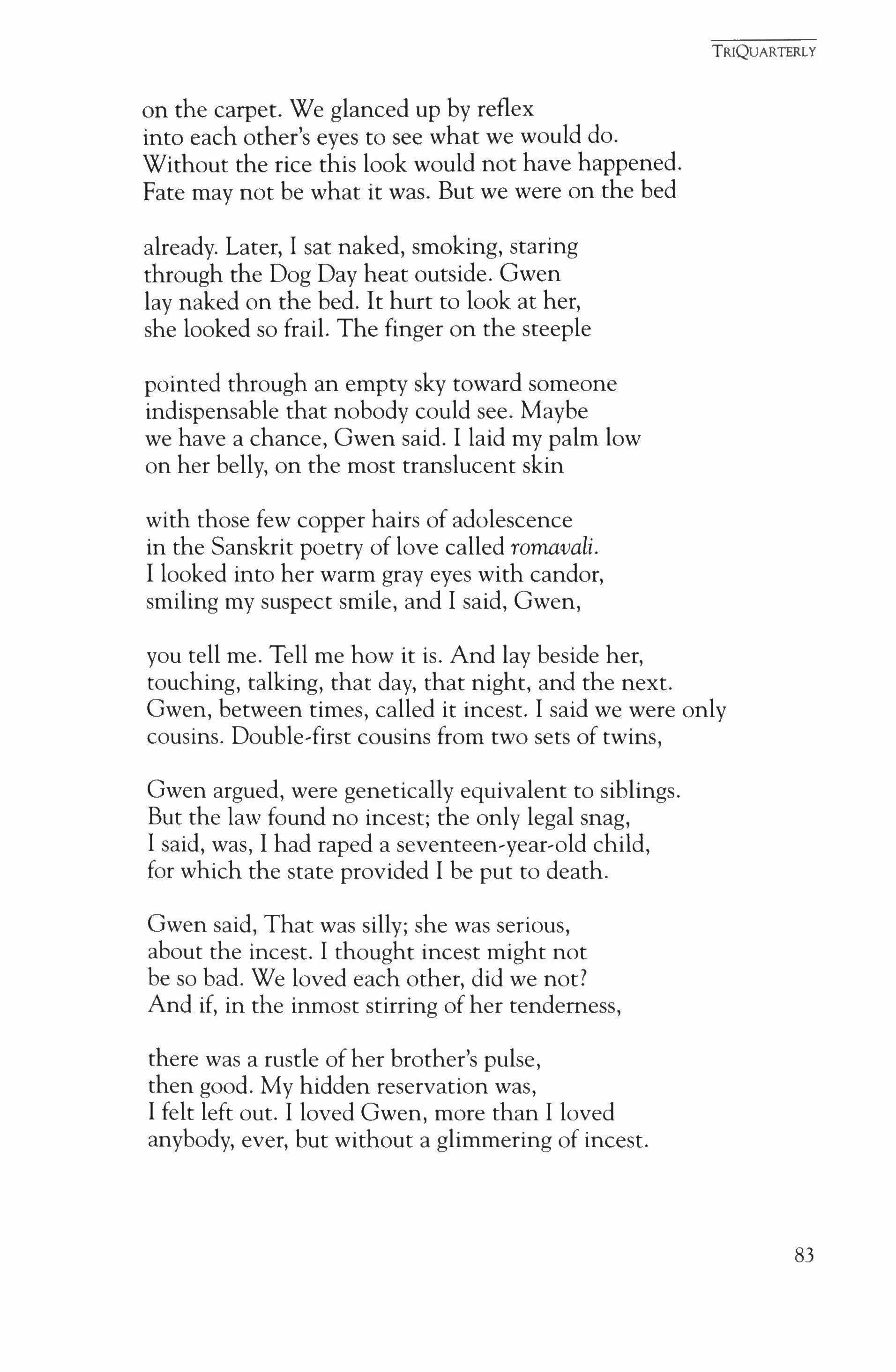
on the carpet. We glanced up by reflex into each other's eyes to see what we would do. Without the rice this look would not have happened. Fate may not be what it was. But we were on the bed
already. Later, I sat naked, smoking, staring through the Dog Day heat outside. Gwen lay naked on the bed. It hurt to look at her, she looked so frail. The finger on the steeple
pointed through an empty sky toward someone indispensable that nobody could see. Maybe we have a chance, Gwen said. I laid my palm low on her belly, on the most translucent skin
with those few copper hairs of adolescence in the Sanskrit poetry of love called romavali. I looked into her warm gray eyes with candor, smiling my suspect smile, and I said, Gwen, you tell me. Tell me how it is. And lay beside her, touching, talking, that day, that night, and the next. Gwen, between times, called it incest. I said we were only cousins. Double-first cousins from two sets of twins,
Gwen argued, were genetically equivalent to siblings. But the law found no incest; the only legal snag, I said, was, I had raped a seventeen-year-old child, for which the state provided I be put to death.
Gwen said, That was silly; she was serious, about the incest. I thought incest might not be so bad. We loved each other, did we not? And if, in the inmost stirring of her tenderness, there was a rustle of her brother's pulse, then good. My hidden reservation was, I felt left out. I loved Gwen, more than I loved anybody, ever, but without a glimmering of incest.
TRIQUARTERLY
83
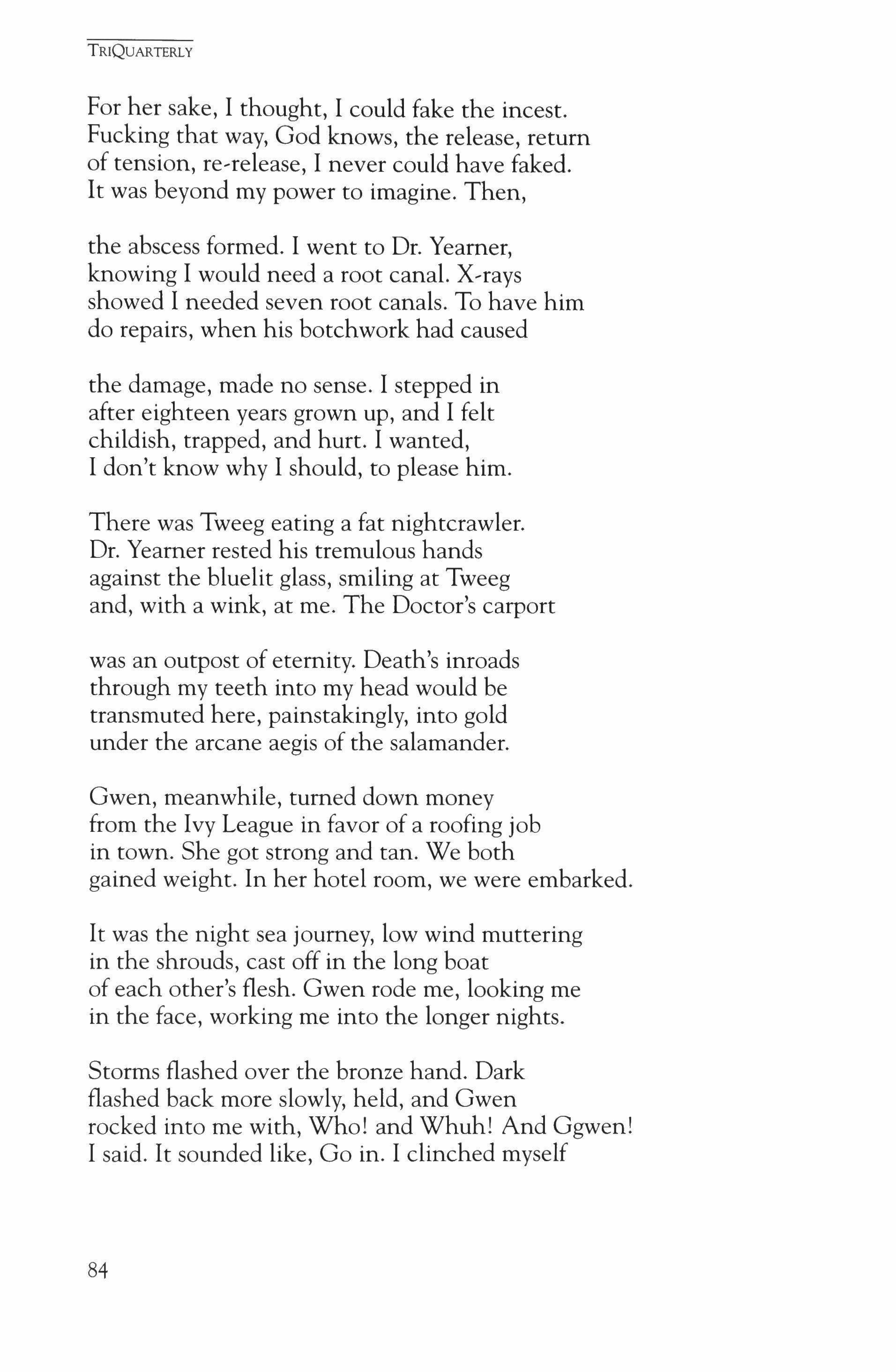
For her sake, I thought, I could fake the incest. Fucking that way, God knows, the release, return of tension, re-releasc, I never could have faked. It was beyond my power to imagine. Then, the abscess formed. I went to Dr. Yearner, knowing I would need a root canal. Xvrays showed I needed seven root canals. To have him do repairs, when his botchwork had caused the damage, made no sense. I stepped in after eighteen years grown up, and I felt childish, trapped, and hurt. I wanted, I don't know why I should, to please him.
There was Tweeg eating a fat nightcrawler. Dr. Yearner rested his tremulous hands against the bluelit glass, smiling at Tweeg and, with a wink, at me. The Doctor's carport was an outpost of eternity. Death's inroads through my teeth into my head would be transmuted here, painstakingly, into gold under the arcane aegis of the salamander.
Gwen, meanwhile, turned down money from the Ivy League in favor of a roofing job in town. She got strong and tan. We both gained weight. In her hotel room, we were embarked.
It was the night sea journey, low wind muttering in the shrouds, cast off in the long boat of each other's flesh. Gwen rode me, looking me in the face, working me into the longer nights.
Storms flashed over the bronze hand. Dark flashed back more slowly, held, and Gwen rocked into me with, Who! and Whuh! And Ggwen! I said. It sounded like, Go in. I clinched myself
TRIQUARTERLY
84
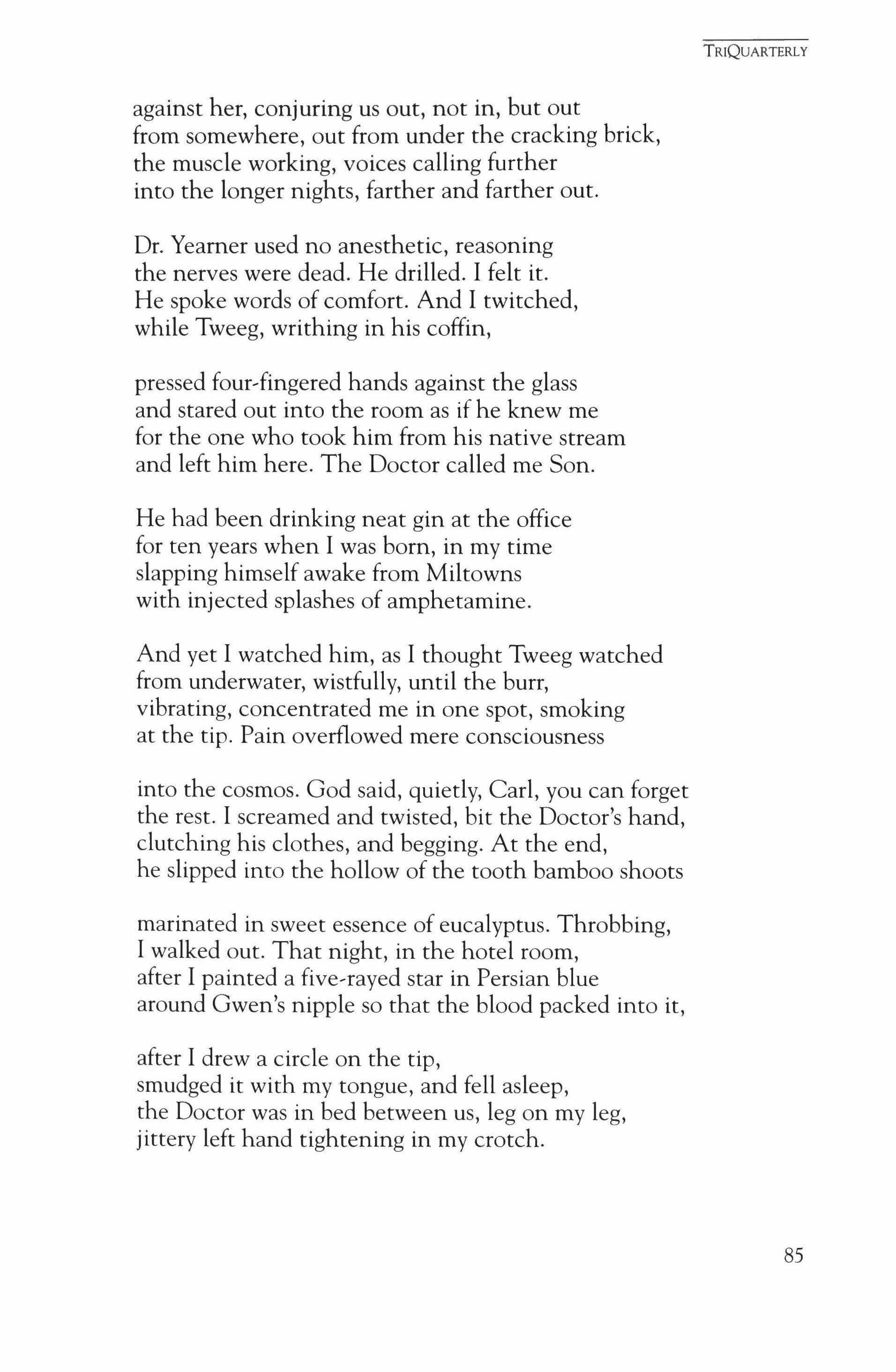
against her, conjuring us out, not in, but out from somewhere, out from under the cracking brick, the muscle working, voices calling further into the longer nights, farther and farther out.
Dr. Yearner used no anesthetic, reasoning the nerves were dead. He drilled. I felt it. He spoke words of comfort. And I twitched, while Tweeg, writhing in his coffin,
pressed four-fingered hands against the glass and stared out into the room as if he knew me for the one who took him from his native stream and left him here. The Doctor called me Son.
He had been drinking neat gin at the office for ten years when I was born, in my time slapping himself awake from Miltowns with injected splashes of amphetamine.
And yet I watched him, as I thought Tweeg watched from underwater, wistfully, until the burr, vibrating, concentrated me in one spot, smoking at the tip. Pain overflowed mere consciousness
into the cosmos. God said, quietly, Carl, you can forget the rest. I screamed and twisted, bit the Doctor's hand, clutching his clothes, and begging. At the end, he slipped into the hollow of the tooth bamboo shoots
marinated in sweet essence of eucalyptus. Throbbing, I walked out. That night, in the hotel room, after I painted a five-rayed star in Persian blue around Gwen's nipple so that the blood packed into it,
after I drew a circle on the tip, smudged it with my tongue, and fell asleep, the Doctor was in bed between us, leg on my leg, jittery left hand tightening in my crotch.
TRIQUARTERLY 85
TRIQUARTERLY
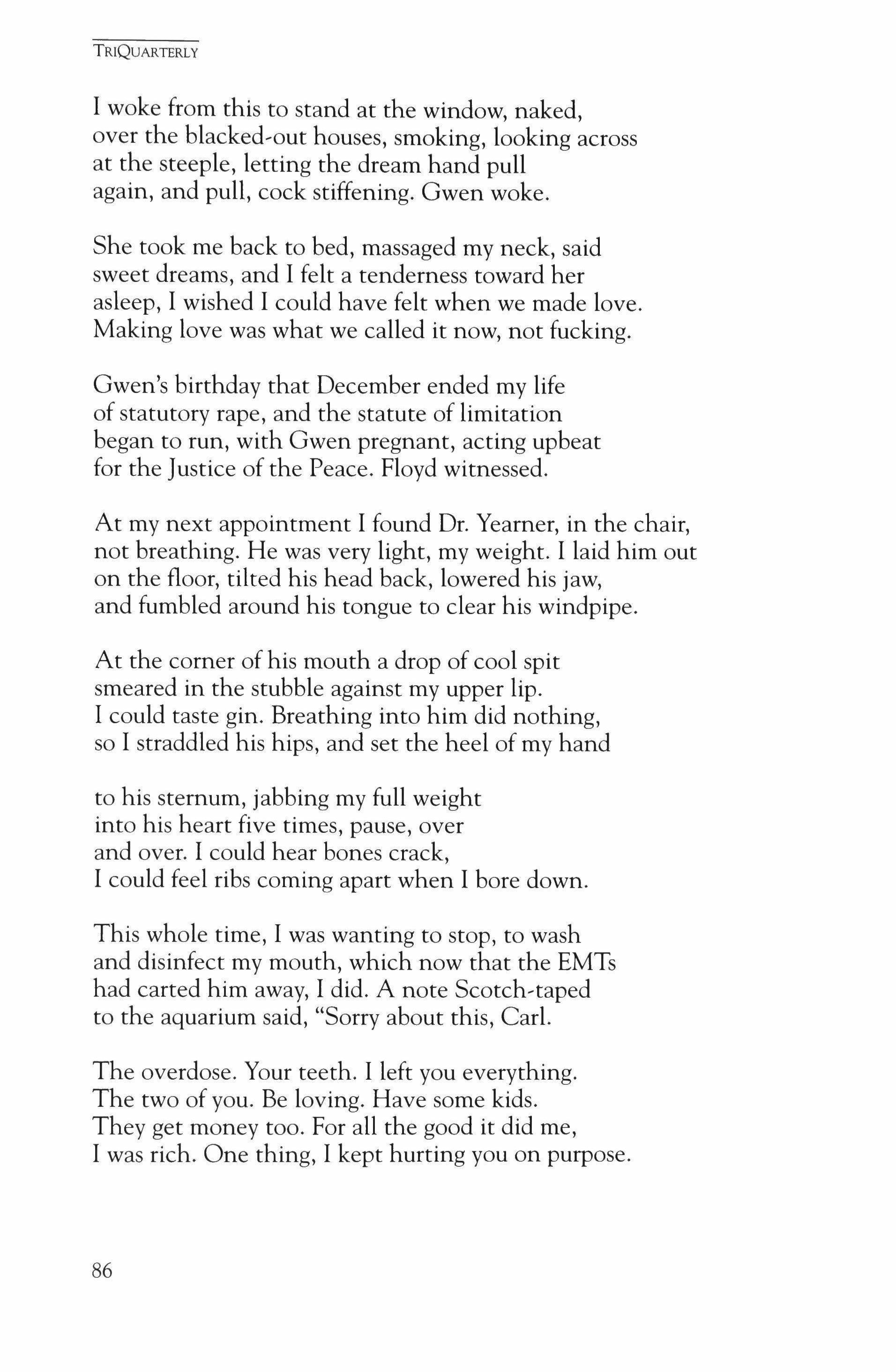
I woke from this to stand at the window, naked, over the blacked-out houses, smoking, looking across at the steeple, letting the dream hand pull again, and pull, cock stiffening. Gwen woke.
She took me back to bed, massaged my neck, said sweet dreams, and I felt a tenderness toward her asleep, I wished I could have felt when we made love. Making love was what we called it now, not fucking.
Gwen's birthday that December ended my life of statutory rape, and the statute of limitation began to run, with Gwen pregnant, acting upbeat for the Justice of the Peace. Floyd witnessed.
At my next appointment I found Dr. Yearner, in the chair, not breathing. He was very light, my weight. I laid him out on the floor, tilted his head back, lowered his jaw, and fumbled around his tongue to clear his windpipe.
At the corner of his mouth a drop of cool spit smeared in the stubble against my upper lip. I could taste gin. Breathing into him did nothing, so I straddled his hips, and set the heel of my hand
to his sternum, jabbing my full weight into his heart five times, pause, over and over. I could hear bones crack, I could feel ribs coming apart when I bore down.
This whole time, I was wanting to stop, to wash and disinfect my mouth, which now that the EMTs had carted him away, I did. A note Scotch,taped to the aquarium said, "Sorry about this, Carl.
The overdose. Your teeth. I left you everything. The two of you. Be loving. Have some kids. They get money too. For all the good it did me, I was rich. One thing, I kept hurting you on purpose.
86
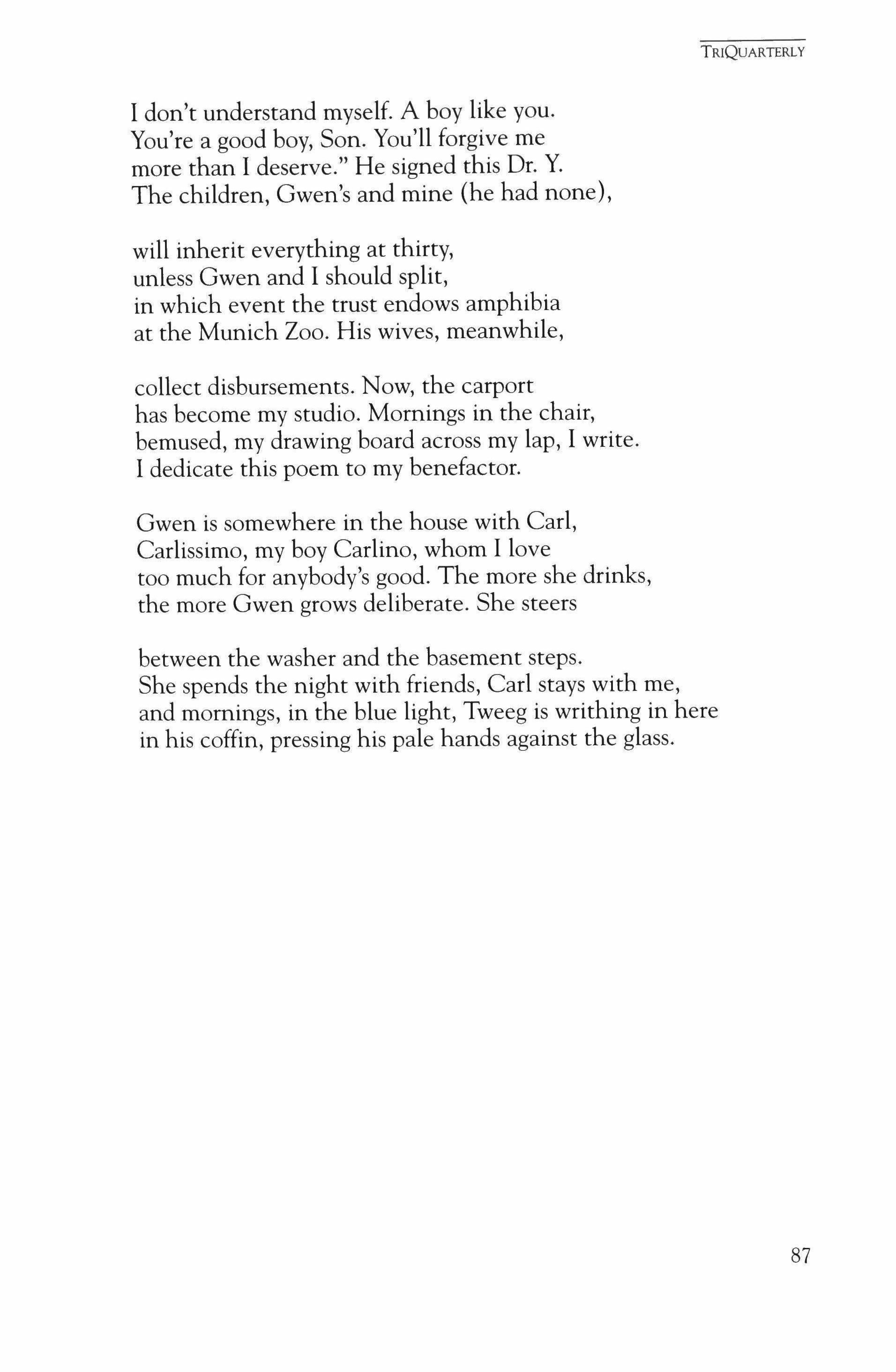
I don't understand myself. A boy like you. You're a good boy, Son. You'll forgive me more than I deserve." He signed this Dr. Y. The children, Gwen's and mine (he had none), will inherit everything at thirty, unless Gwen and I should split, in which event the trust endows amphibia at the Munich Zoo. His wives, meanwhile, collect disbursements. Now, the carport has become my studio. Mornings in the chair, bemused, my drawing board across my lap, I write. I dedicate this poem to my benefactor.
Gwen is somewhere in the house with Carl, Carlissimo, my boy Carlino, whom I love too much for anybody's good. The more she drinks, the more Gwen grows deliberate. She steers between the washer and the basement steps. She spends the night with friends, Carl stays with me, and mornings, in the blue light, Tweeg is writhing in here in his coffin, pressing his pale hands against the glass.
TRIQUARTERLY
87
Brigit Pegeen Kelly
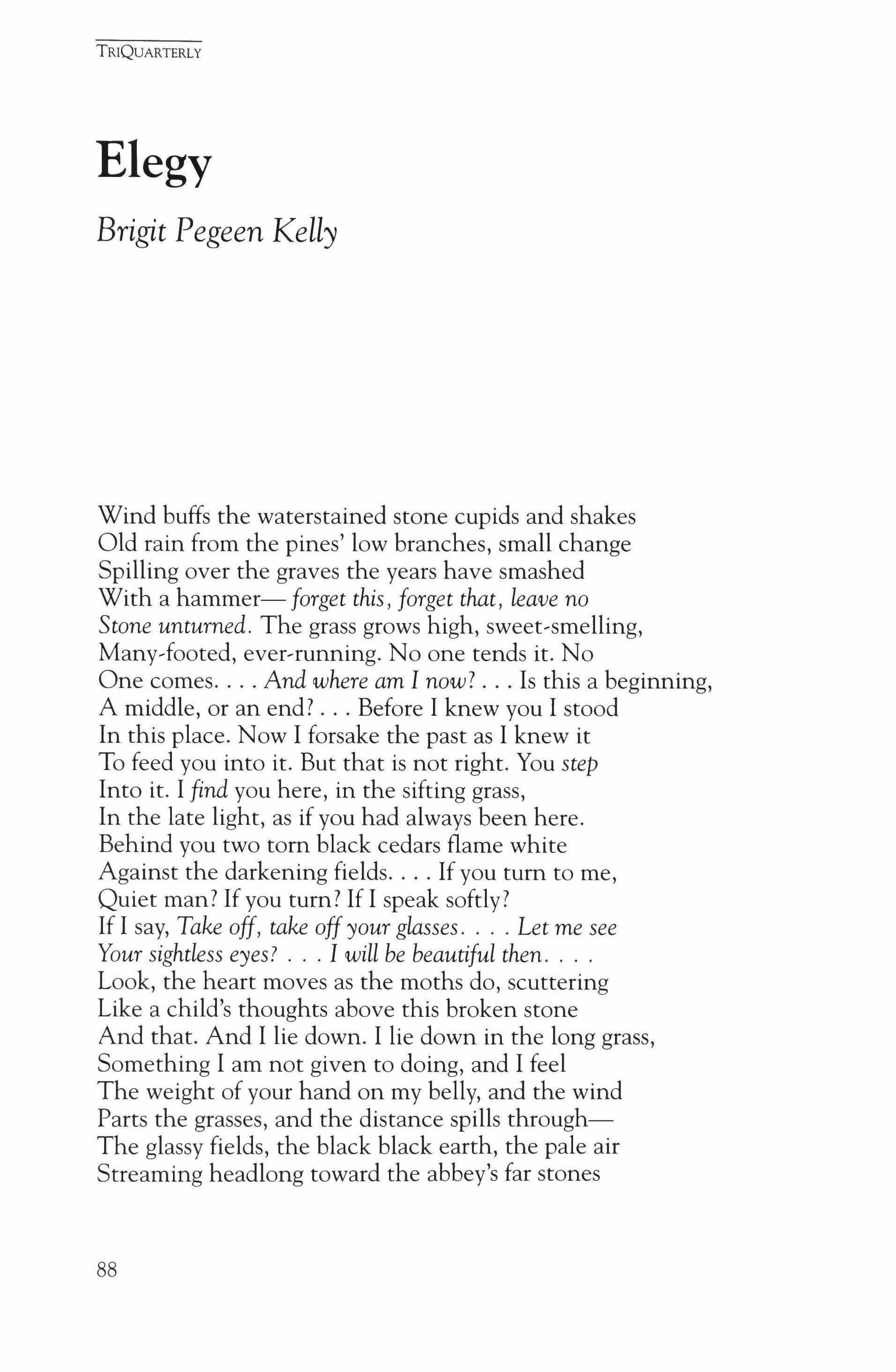
Wind buffs the waterstained stone cupids and shakes Old rain from the pines' low branches, small change
Spilling over the graves the years have smashed With a hammer-forget this, forget that, leave no Stone unturned. The grass grows high, sweet-smelling, Many-footed, ever-running. No one tends it. No One comes And where am I now? Is this a beginning, A middle, or an end? Before I knew you I stood In this place. Now I forsake the past as I knew it To feed you into it. But that is not right. You step Into it. I find you here, in the sifting grass, In the late light, as if you had always been here. Behind you two tom black cedars flame white Against the darkening fields If you tum to me, Quiet man? If you tum? If I speak softly? If I say, Take off, take off your glasses. Let me see Your sightless eyes? I will be beautiful then Look, the heart moves as the moths do, scuttering Like a child's thoughts above this broken stone And that. And I lie down. I lie down in the long grass,
Something I am not given to doing, and I feel The weight of your hand on my belly, and the wind Parts the grasses, and the distance spills throughThe glassy fields, the black black earth, the pale air Streaming headlong toward the abbey's far stones
TRIQUARTERLY
Elegy
88
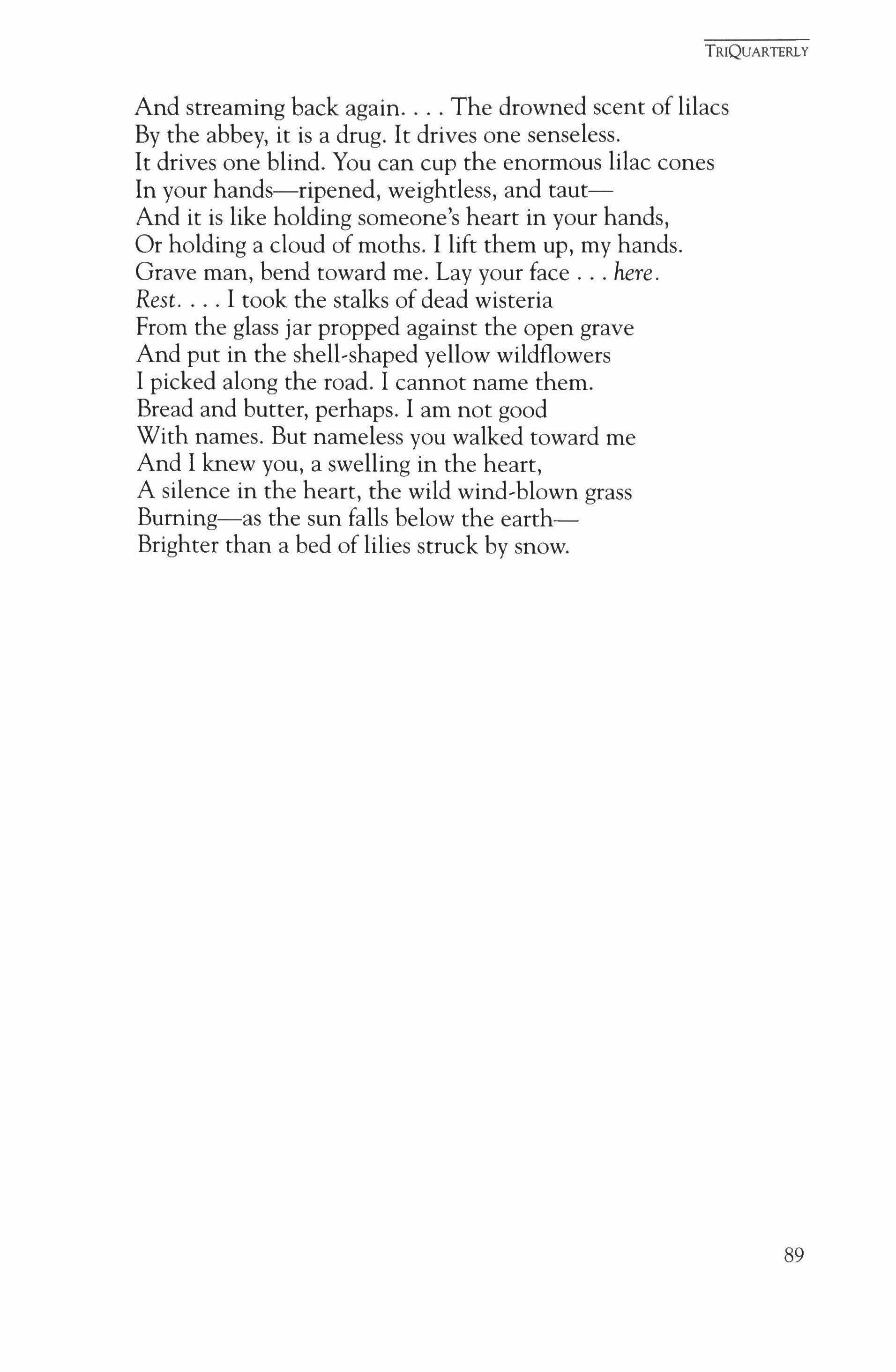
And streaming back again The drowned scent of lilacs
By the abbey, it is a drug. It drives one senseless. It drives one blind. You can cup the enormous lilac cones
In your hands-ripened, weightless, and tautAnd it is like holding someone's heart in your hands, Or holding a cloud of moths. I lift them up, my hands. Grave man, bend toward me. Lay your face here. Rest I took the stalks of dead wisteria From the glass jar propped against the open grave And put in the shell-shaped yellow wildflowers I picked along the road. I cannot name them. Bread and butter, perhaps. I am not good With names. But nameless you walked toward me And I knew you, a swelling in the heart, A silence in the heart, the wild wind-blown grass Burning-as the sun falls below the earthBrighter than a bed of lilies struck by snow.
TRIQUARTERLY
89
Three Poems
Yusef
Komunyakaa
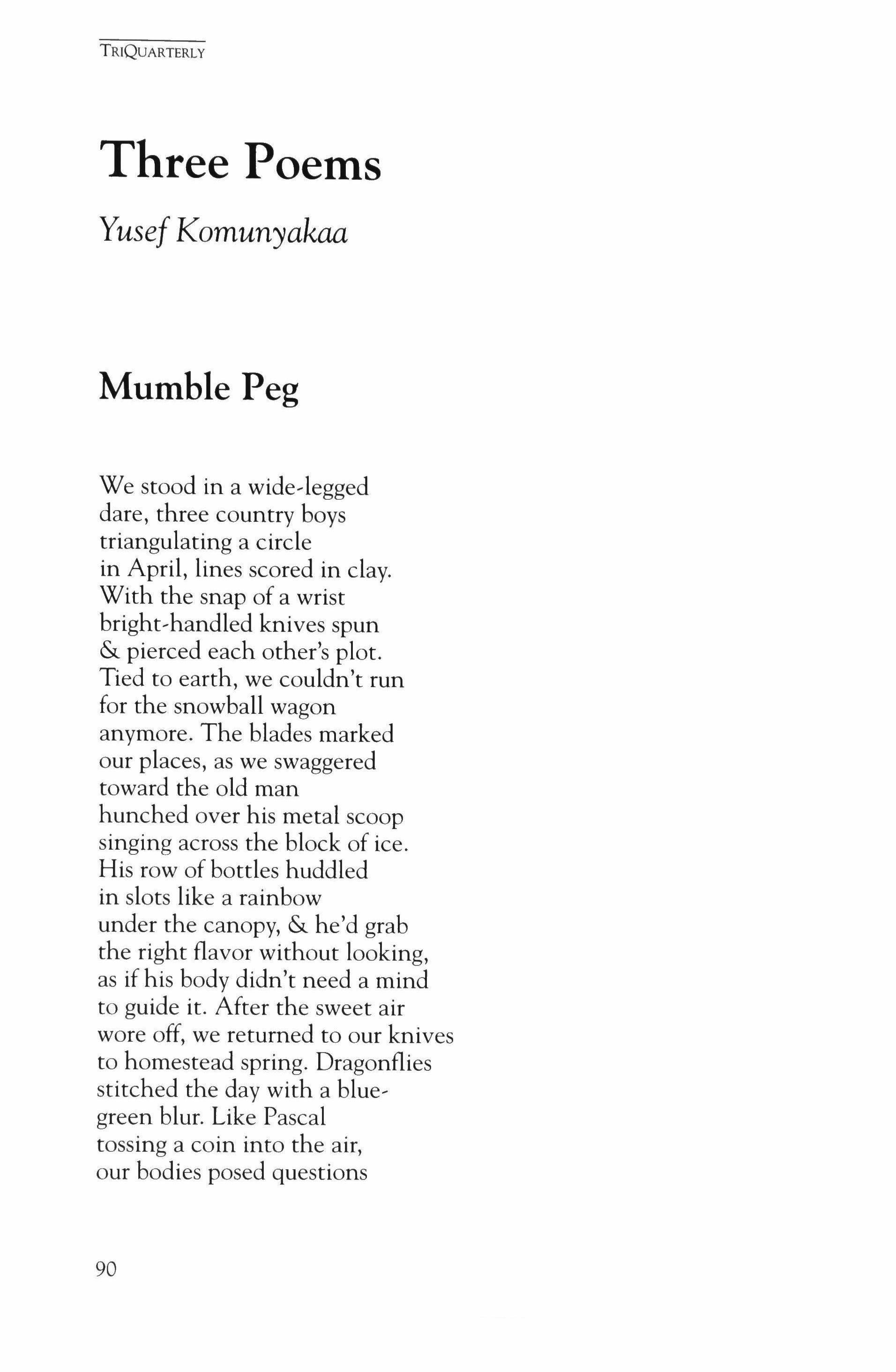
Mumble Peg
We stood in a wide-legged dare, three country boys triangulating a circle in April, lines scored in clay. With the snap of a wrist bright-handled knives spun & pierced each other's plot. Tied to earth, we couldn't run for the snowball wagon anymore. The blades marked our places, as we swaggered toward the old man hunched over his metal scoop singing across the block of ice. His row of bottles huddled in slots like a rainbow under the canopy, & he'd grab the right flavor without looking, as if his body didn't need a mind to guide it. After the sweet air wore off, we returned to our knives to homestead spring. Dragonflies stitched the day with a blue; green blur. Like Pascal tossing a coin into the air, our bodies posed questions
TRIQUARTERLY
90
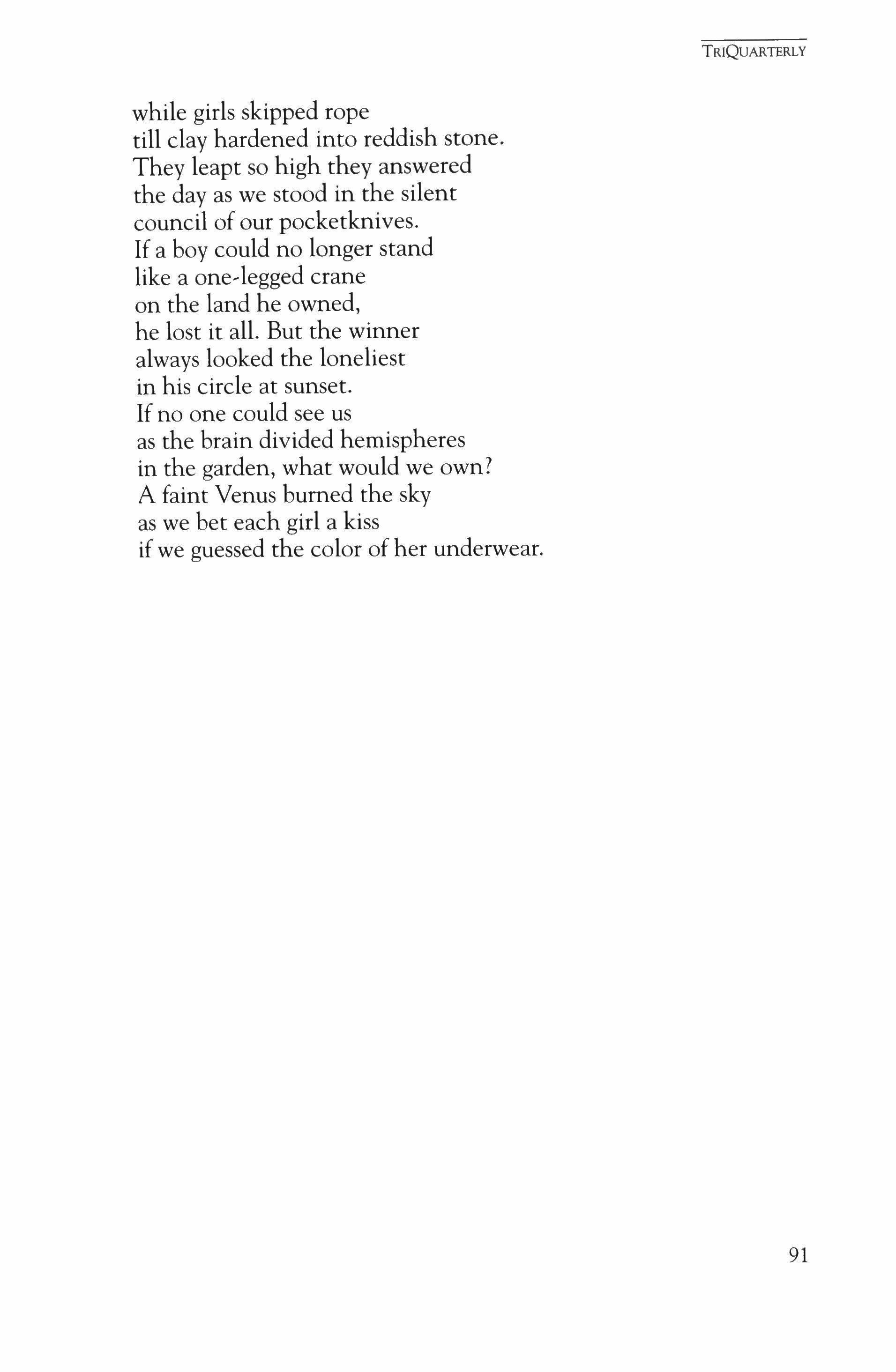
while girls skipped rope till clay hardened into reddish stone. They leapt so high they answered the day as we stood in the silent council of our pocketknives.
If a boy could no longer stand like a one-legged crane on the land he owned, he lost it all. But the winner always looked the loneliest in his circle at sunset.
If no one could see us as the brain divided hemispheres in the garden, what would we own?
A faint Venus burned the sky as we bet each girl a kiss if we guessed the color of her underwear.
TRIQUARTERLY
91
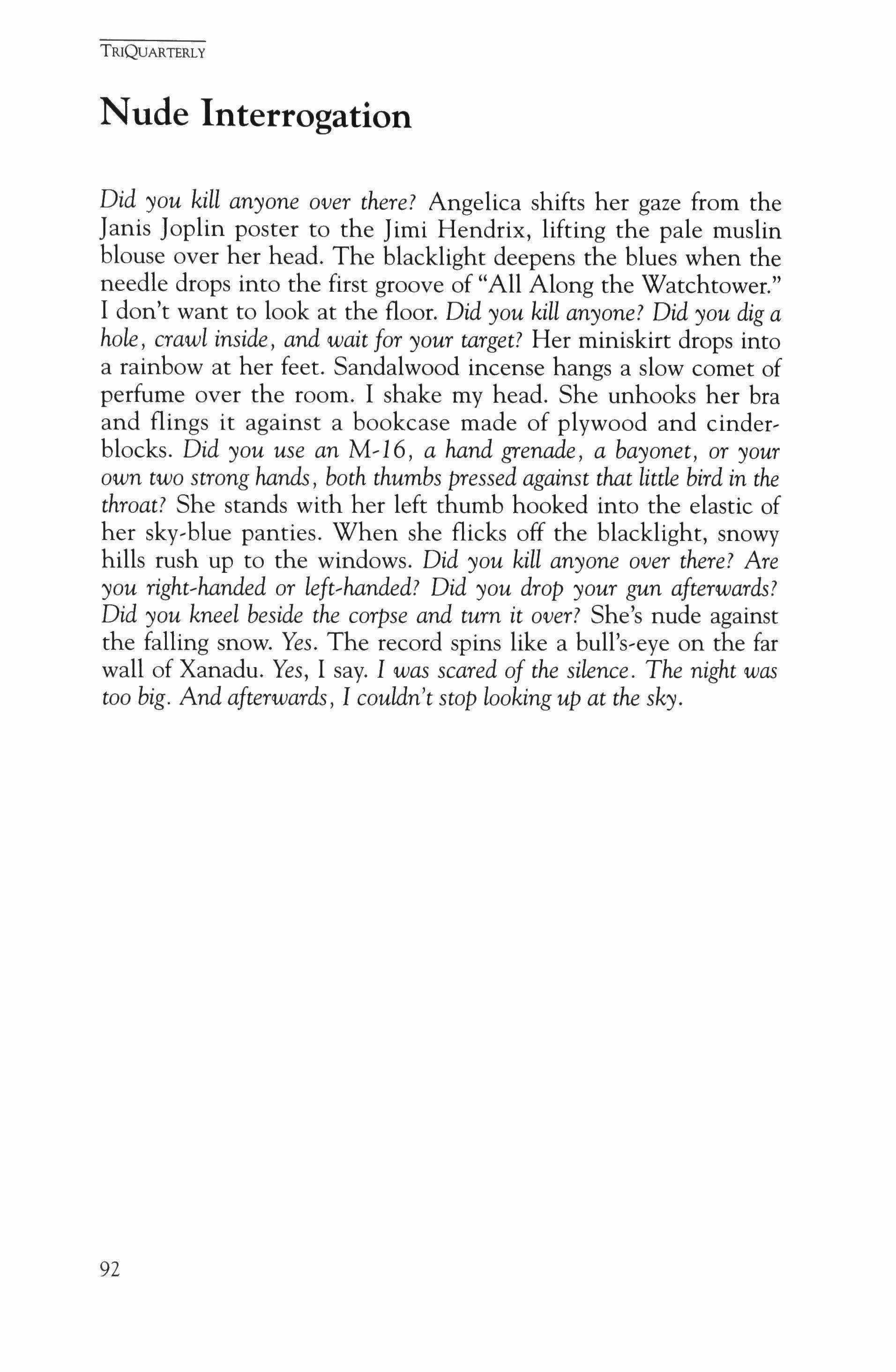
Nude Interrogation
Did you kill anyone over there? Angelica shifts her gaze from the Janis Joplin poster to the [imi Hendrix, lifting the pale muslin blouse over her head. The blacklight deepens the blues when the needle drops into the first groove of "All Along the Watchtower." I don't want to look at the floor. Did you kill anyone? Did you dig a hole, crawl inside, and wait for your target? Her miniskirt drops into a rainbow at her feet. Sandalwood incense hangs a slow comet of perfume over the room. I shake my head. She unhooks her bra and flings it against a bookcase made of plywood and cinderblocks. Did you use an M�16, a hand grenade, a bayonet, or your own two strong hands, both thumbs pressed against that little bird in the throat? She stands with her left thumb hooked into the elastic of her sky-blue panties. When she flicks off the blacklight, snowy hills rush up to the windows. Did you kill anyone over there? Are you right,handed or left�handed? Did you drop your gun afterwards? Did you kneel beside the corpse and turn it over? She's nude against the falling snow. Yes. The record spins like a bull's-eye on the far wall of Xanadu. Yes, I say. I was scared of the silence. The night was too big. And afterwards, I couldn't stop looking up at the sky.
TRIQUARTERLY
92
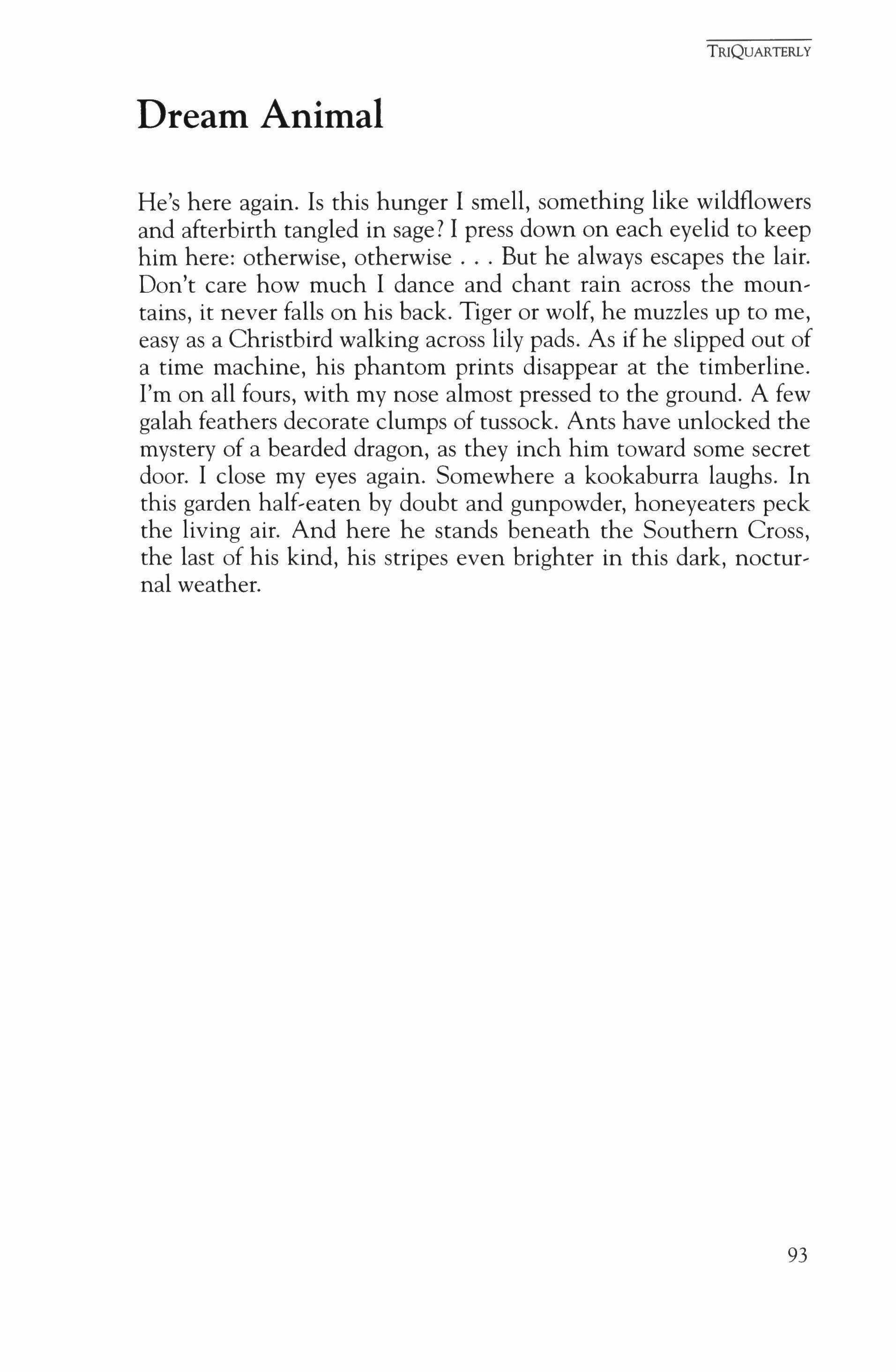
Dream Animal
He's here again. Is this hunger I smell, something like wildflowers and afterbirth tangled in sage? I press down on each eyelid to keep him here: otherwise, otherwise But he always escapes the lair. Don't care how much I dance and chant rain across the mountains, it never falls on his back. Tiger or wolf, he muzzles up to me, easy as a Christbird walking across lily pads. As if he slipped out of a time machine, his phantom prints disappear at the timberline. I'm on all fours, with my nose almost pressed to the ground. A few galah feathers decorate clumps of tussock. Ants have unlocked the mystery of a bearded dragon, as they inch him toward some secret door. I close my eyes again. Somewhere a kookaburra laughs. In this garden half-eaten by doubt and gunpowder, honeyeaters peck the living air. And here he stands beneath the Southern Cross, the last of his kind, his stripes even brighter in this dark, nocturnal weather.
TRIQUARTERLY
93
Four Poems
Adrian C. Louis
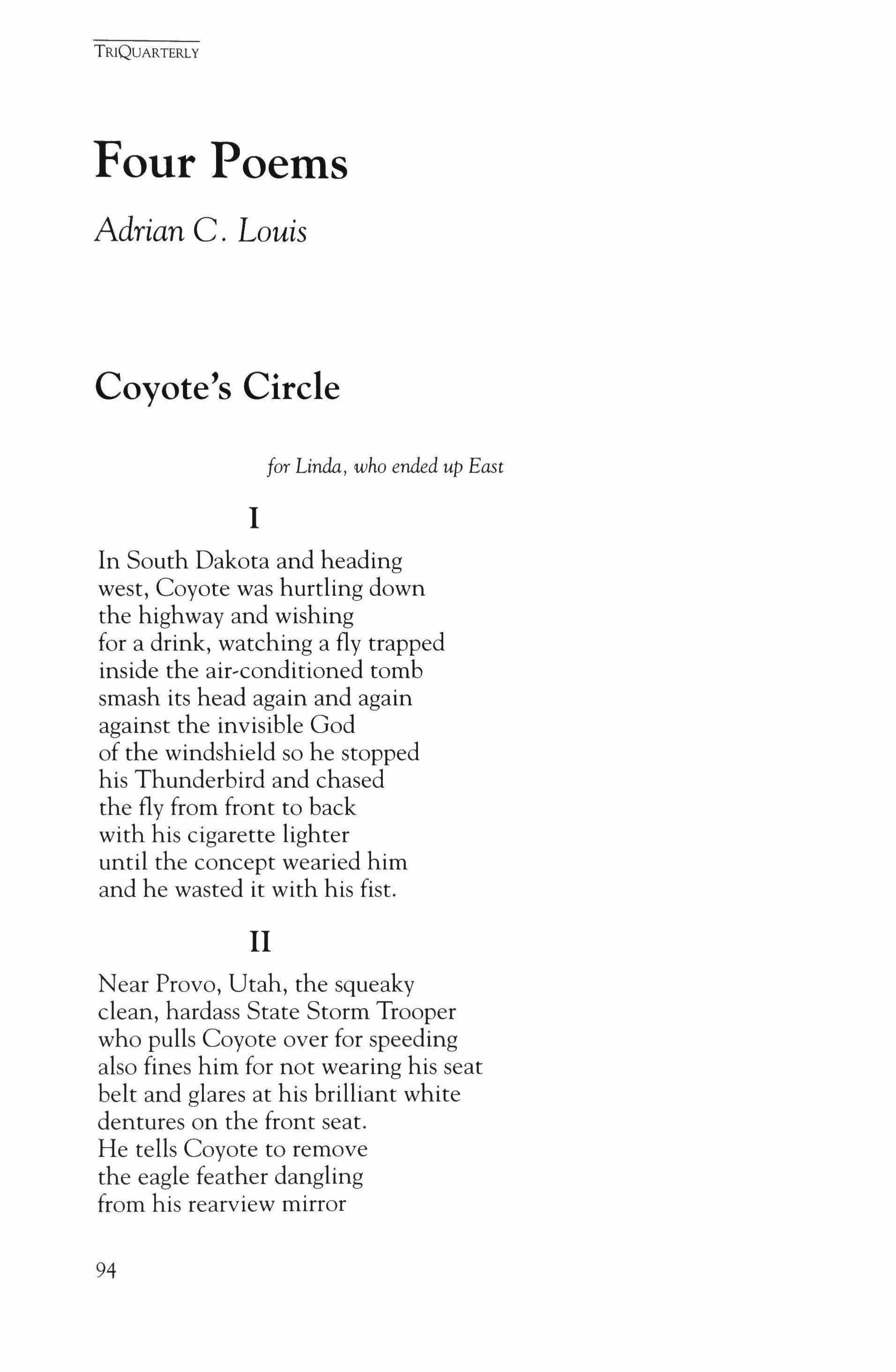
Coyote's Circle
for Linda, who ended up East
I
In South Dakota and heading west, Coyote was hurtling down the highway and wishing for a drink, watching a fly trapped inside the air-conditioned tomb smash its head again and again against the invisible God of the windshield so he stopped his Thunderbird and chased the fly from front to back with his cigarette lighter until the concept wearied him and he wasted it with his fist.
II
Near Provo, Utah, the squeaky clean, hardass State Storm Trooper who pulls Coyote over for speeding also fines him for not wearing his seat belt and glares at his brilliant white dentures on the front seat. He tells Coyote to remove the eagle feather dangling from his rearview mirror
TRIQUARTERLY
94
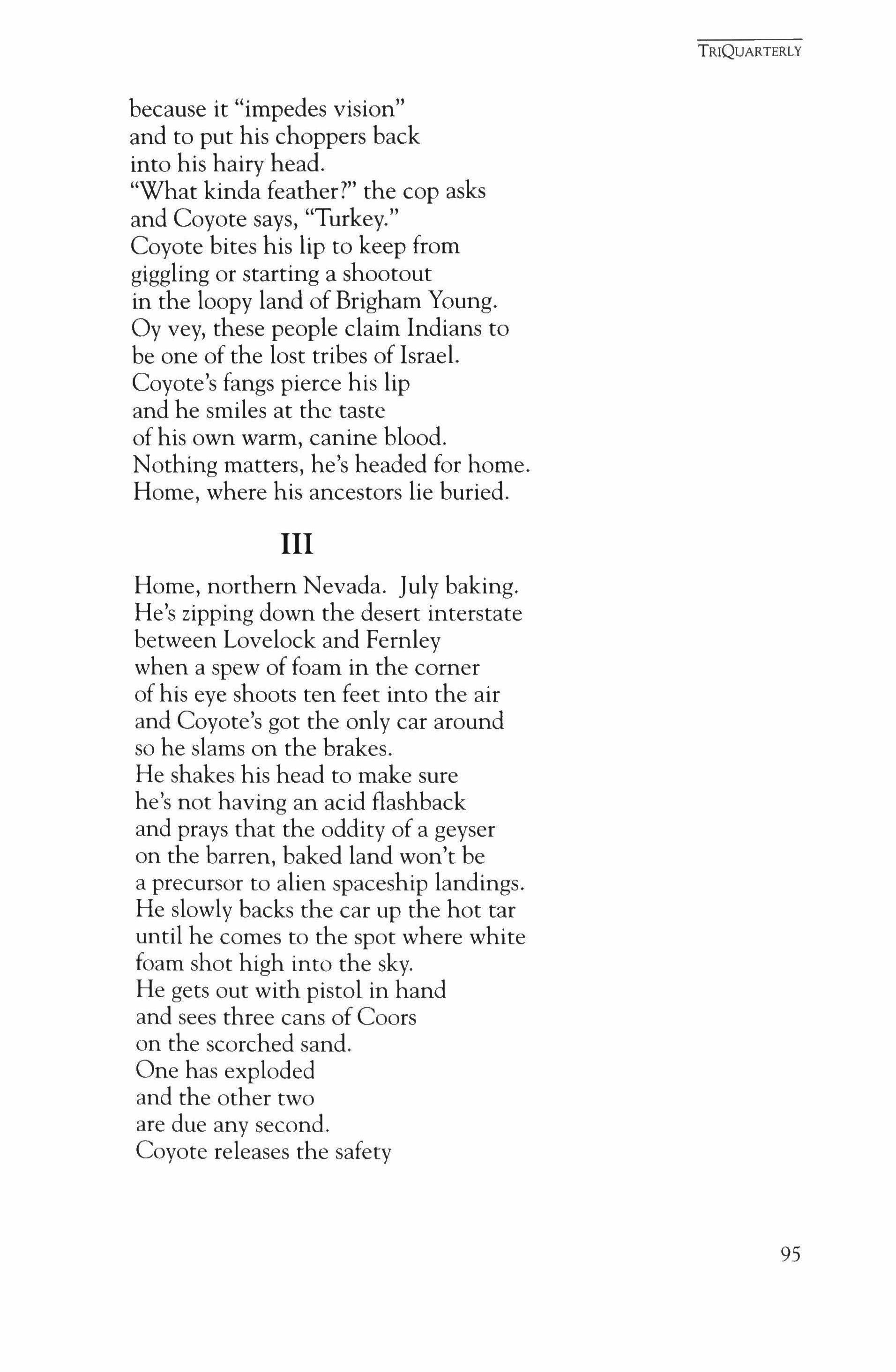
because it "impedes vision" and to put his choppers back into his hairy head. "What kinda feather?" the cop asks and Coyote says, "Turkey."
Coyote bites his lip to keep from giggling or starting a shootout in the loopy land of Brigham Young. Oy vey, these people claim Indians to be one of the lost tribes of Israel.
Coyote's fangs pierce his lip and he smiles at the taste ofhis own warm, canine blood. Nothing matters, he's headed for home. Home, where his ancestors lie buried.
III
Home, northern Nevada. July baking. He's zipping down the desert interstate between Lovelock and Fernley when a spew of foam in the corner of his eye shoots ten feet into the air and Coyote's got the only car around so he slams on the brakes. He shakes his head to make sure he's not having an acid flashback and prays that the oddity of a geyser on the barren, baked land won't be a precursor to alien spaceship landings. He slowly backs the car up the hot tar until he comes to the spot where white foam shot high into the sky. He gets out with pistol in hand and sees three cans of Coors on the scorched sand. One has exploded and the other two are due any second.
Coyote releases the safety
TRIQUARTERLY
95
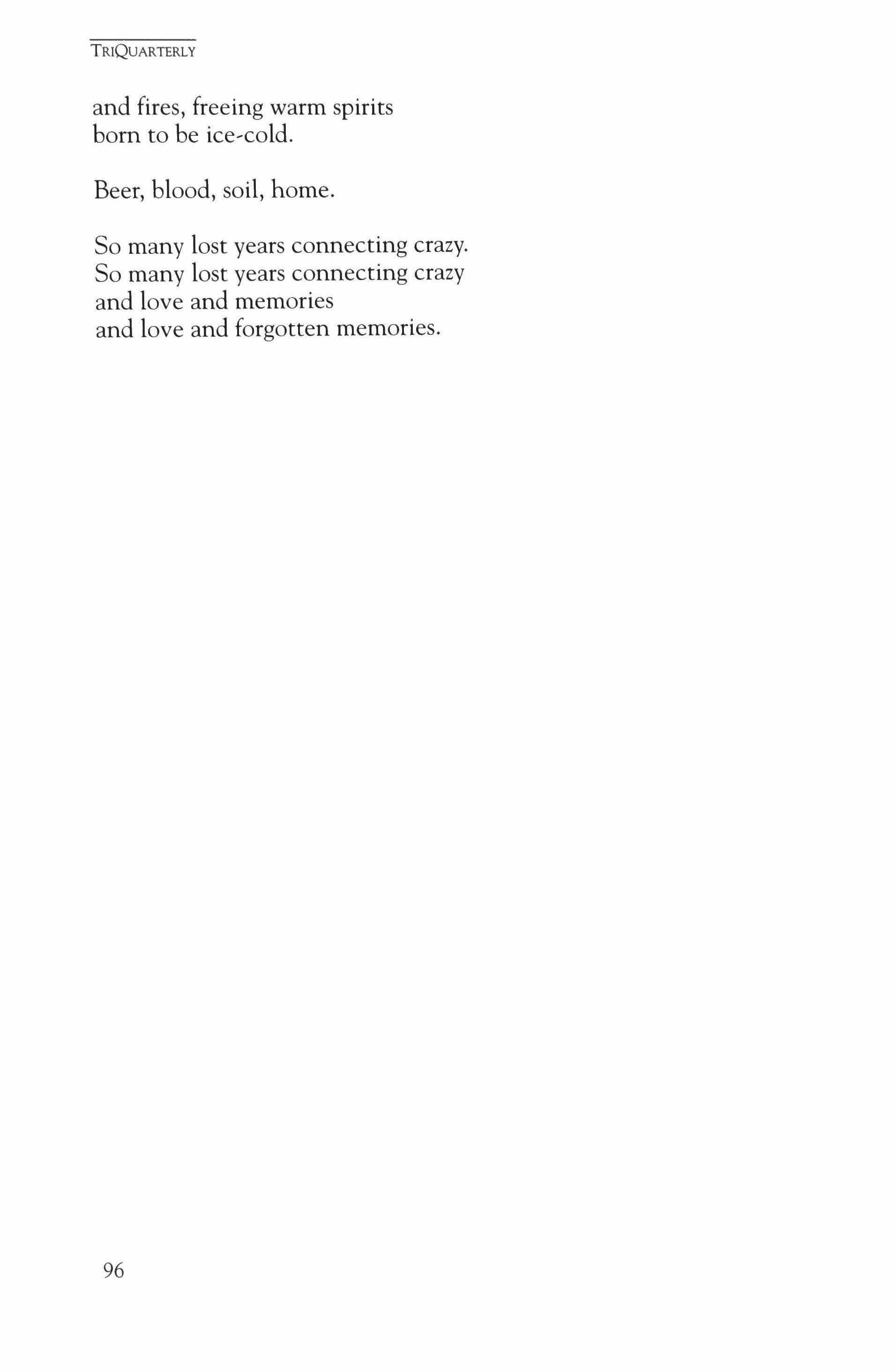
and fires, freeing warm spirits born to be ice-cold.
Beer, blood, soil, home.
So many lost years connecting crazy. So many lost years connecting crazy and love and memories and love and forgotten memories.
TRIQUARTERLY
96
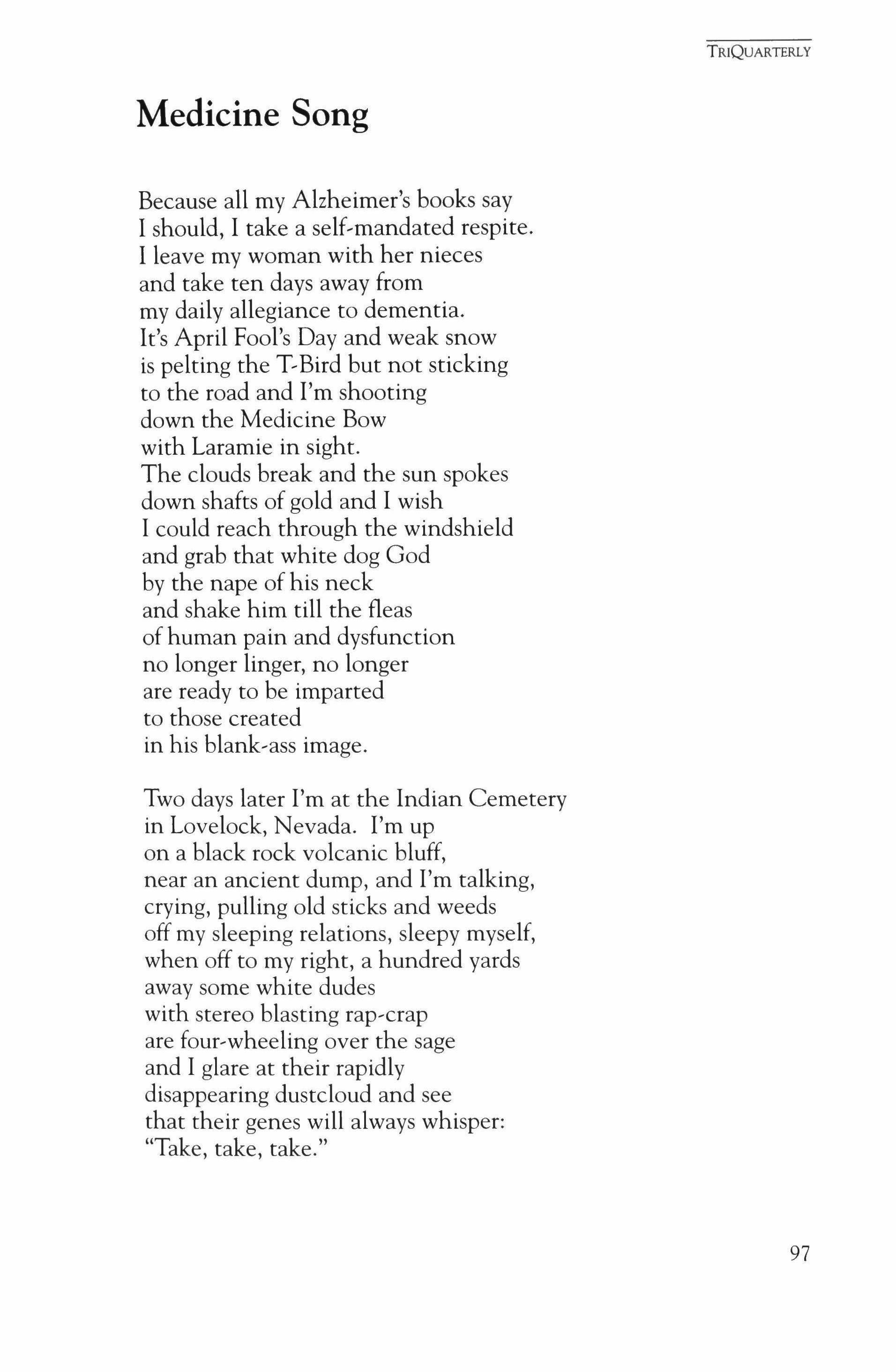
Medicine Song
Because all my Alzheimer's books say I should, I take a self-mandated respite. I leave my woman with her nieces and take ten days away from my daily allegiance to dementia. It's April Fool's Day and weak snow is pelting the T�Bird but not sticking to the road and I'm shooting down the Medicine Bow with Laramie in sight. The clouds break and the sun spokes down shafts of gold and I wish I could reach through the windshield and grab that white dog God by the nape ofhis neck and shake him till the fleas ofhuman pain and dysfunction no longer linger, no longer are ready to be imparted to those created in his blank-ass image.
Two days later I'm at the Indian Cemetery in Lovelock, Nevada. I'm up on a black rock volcanic bluff, near an ancient dump, and I'm talking, crying, pulling old sticks and weeds off my sleeping relations, sleepy myself, when off to my right, a hundred yards away some white dudes with stereo blasting rap-crap are four-wheeling over the sage and I glare at their rapidly disappearing dustcloud and see that their genes will always whisper: "Take, take, take."
TRIQUARTERLY
97
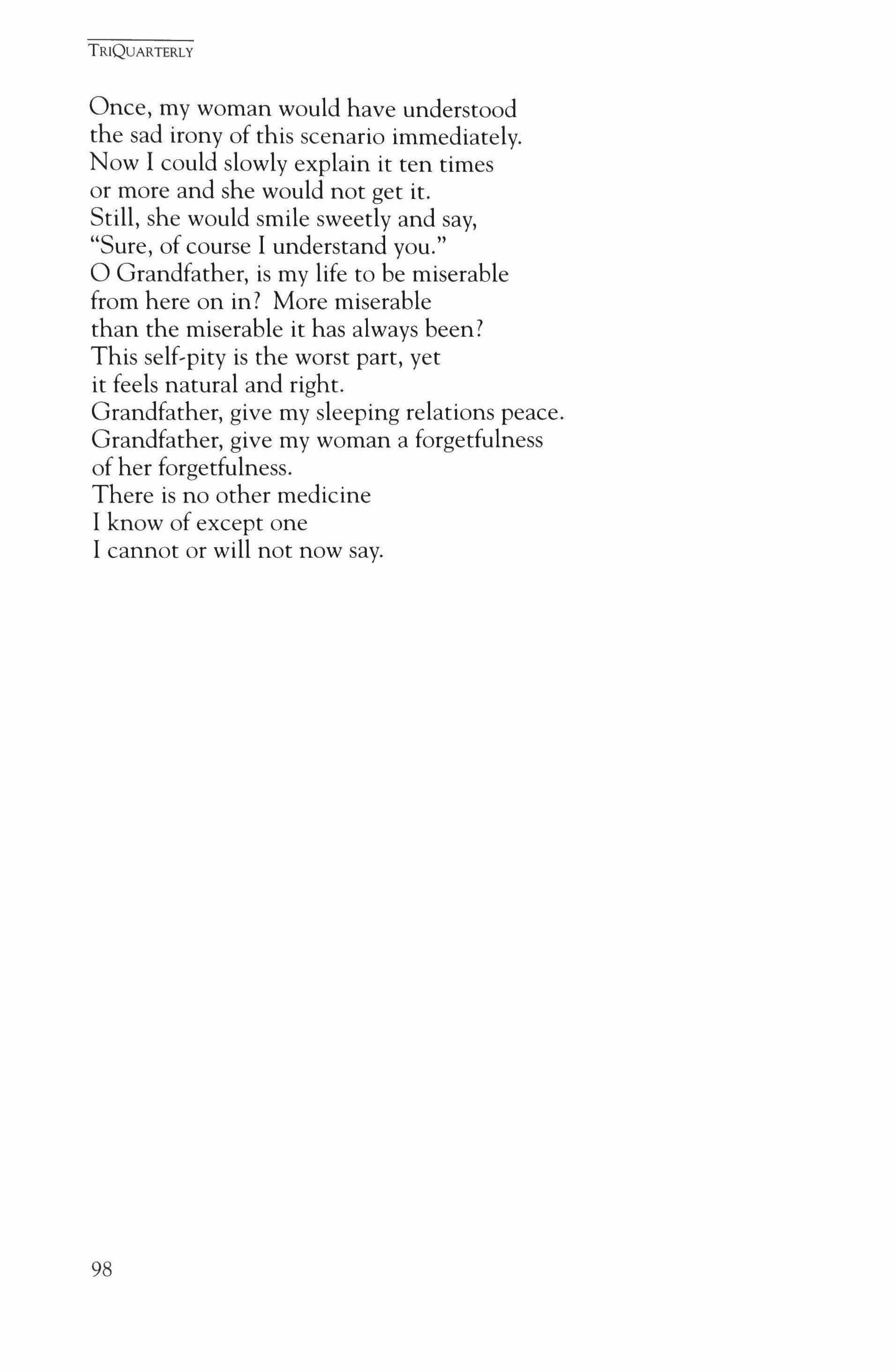
Once, my woman would have understood the sad irony of this scenario immediately. Now I could slowly explain it ten times or more and she would not get it. Still, she would smile sweetly and say, "Sure, of course I understand you." o Grandfather, is my life to be miserable from here on in? More miserable than the miserable it has always been? This self-pity is the worst part, yet it feels natural and right. Grandfather, give my sleeping relations peace. Grandfather, give my woman a forgetfulness of her forgetfulness. There is no other medicine I know of except one I cannot or will not now say.
TRIQUARTERLY
98
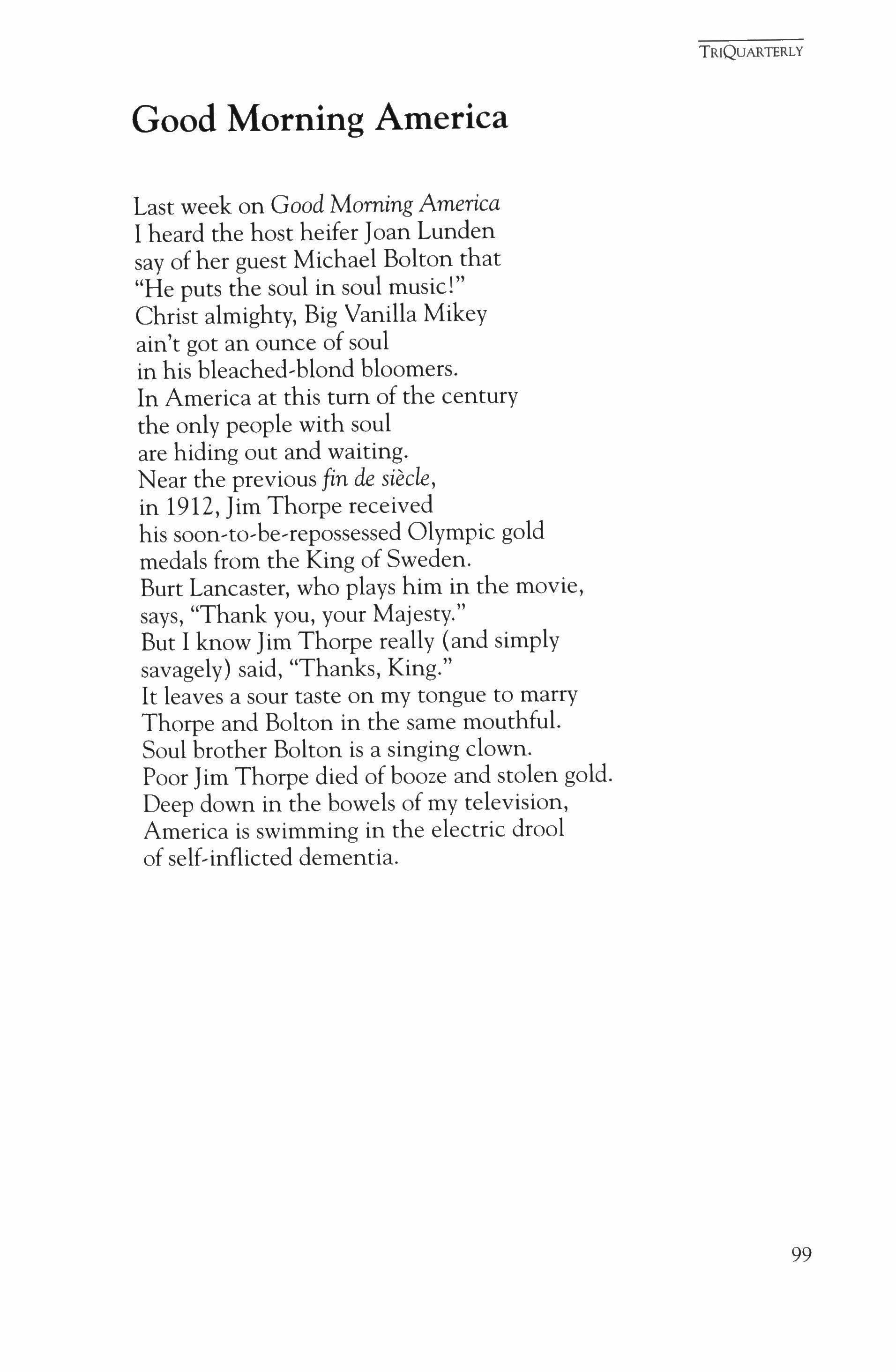
Good Morning America
Last week on Good Morning America
I heard the host heifer Joan Lunden say ofher guest Michael Bolton that "He puts the soul in soul music!" Christ almighty, Big Vanilla Mikey ain't got an ounce of soul in his bleached-blond bloomers. In America at this tum of the century the only people with soul are hiding out and waiting. Near the previous fin de siecle, in 1912, Jim Thorpe received his soon-to-be-repossessed Olympic gold medals from the King of Sweden. Burt Lancaster, who plays him in the movie, says, "Thank you, your Majesty." But I know Jim Thorpe really (and simply savagely) said, ''Thanks, King." It leaves a sour taste on my tongue to marry Thorpe and Bolton in the same mouthfuL Soul brother Bolton is a singing clown. Poor Jim Thorpe died of booze and stolen gold. Deep down in the bowels of my television, America is swimming in the electric drool of self,inflicted dementia.
TRIQUARTERLY 99
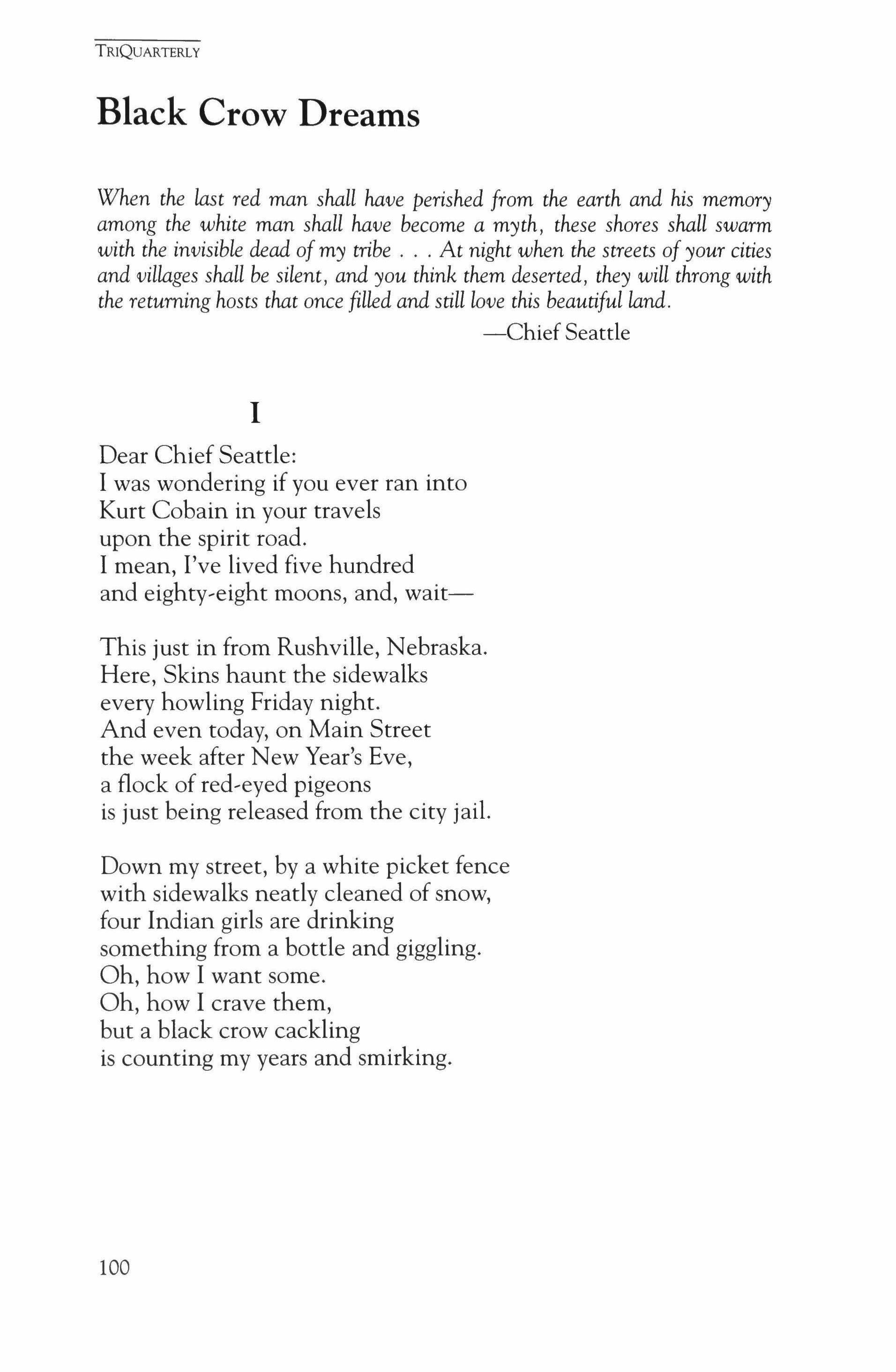
Black Crow Dreams
When the last red man shall have perished from the earth and his memory among the white man shall have become a myth, these shores shall swarm with the invisible dead of my tribe At night when the streets of your cities and villages shall be silent, and you think them deserted, they will throng with the returning hosts that once filled and still love this beautiful land.
-Chief Seattle I
Dear Chief Seattle:
I was wondering if you ever ran into Kurt Cobain in your travels upon the spirit road. I mean, I've lived five hundred and eighty-eight moons, and, wait-
This just in from Rushville, Nebraska. Here, Skins haunt the sidewalks every howling Friday night. And even today, on Main Street the week after New Year's Eve, a flock of red-eyed pigeons is just being released from the city jail.
Down my street, by a white picket fence with sidewalks neatly cleaned of snow, four Indian girls are drinking something from a bottle and giggling. Oh, how I want some. Oh, how I crave them, but a black crow cackling is counting my years and smirking.
TRIQUARTERLY
100
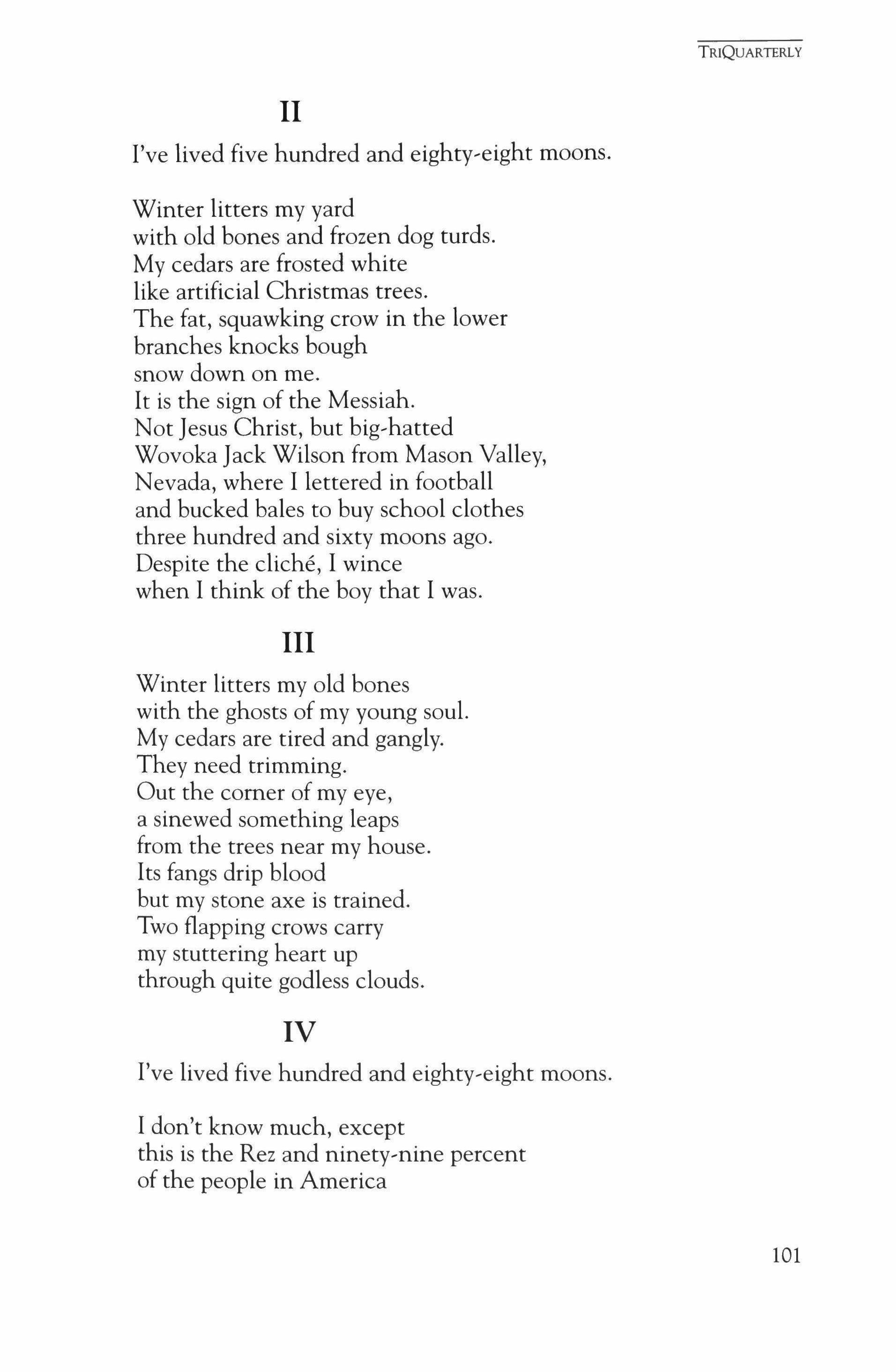
II
I've lived five hundred and eighty-eight moons.
Winter litters my yard with old bones and frozen dog turds. My cedars are frosted white like artificial Christmas trees. The fat, squawking crow in the lower branches knocks bough snow down on me. It is the sign of the Messiah. Not Jesus Christ, but big-hatted Wovoka Jack Wilson from Mason Valley, Nevada, where I lettered in football and bucked bales to buy school clothes three hundred and sixty moons ago. Despite the cliche, I wince when I think of the boy that I was.
III
Winter litters my old bones with the ghosts of my young soul. My cedars are tired and gangly. They need trimming. Out the comer of my eye, a sinewed something leaps from the trees near my house. Its fangs drip blood but my stone axe is trained. Two flapping crows carry my stuttering heart up through quite godless clouds.
IV
I've lived five hundred and eighty-eight moons.
I don't know much, except this is the Rez and ninety-nine percent of the people in America
TRIQUARTERLY 101
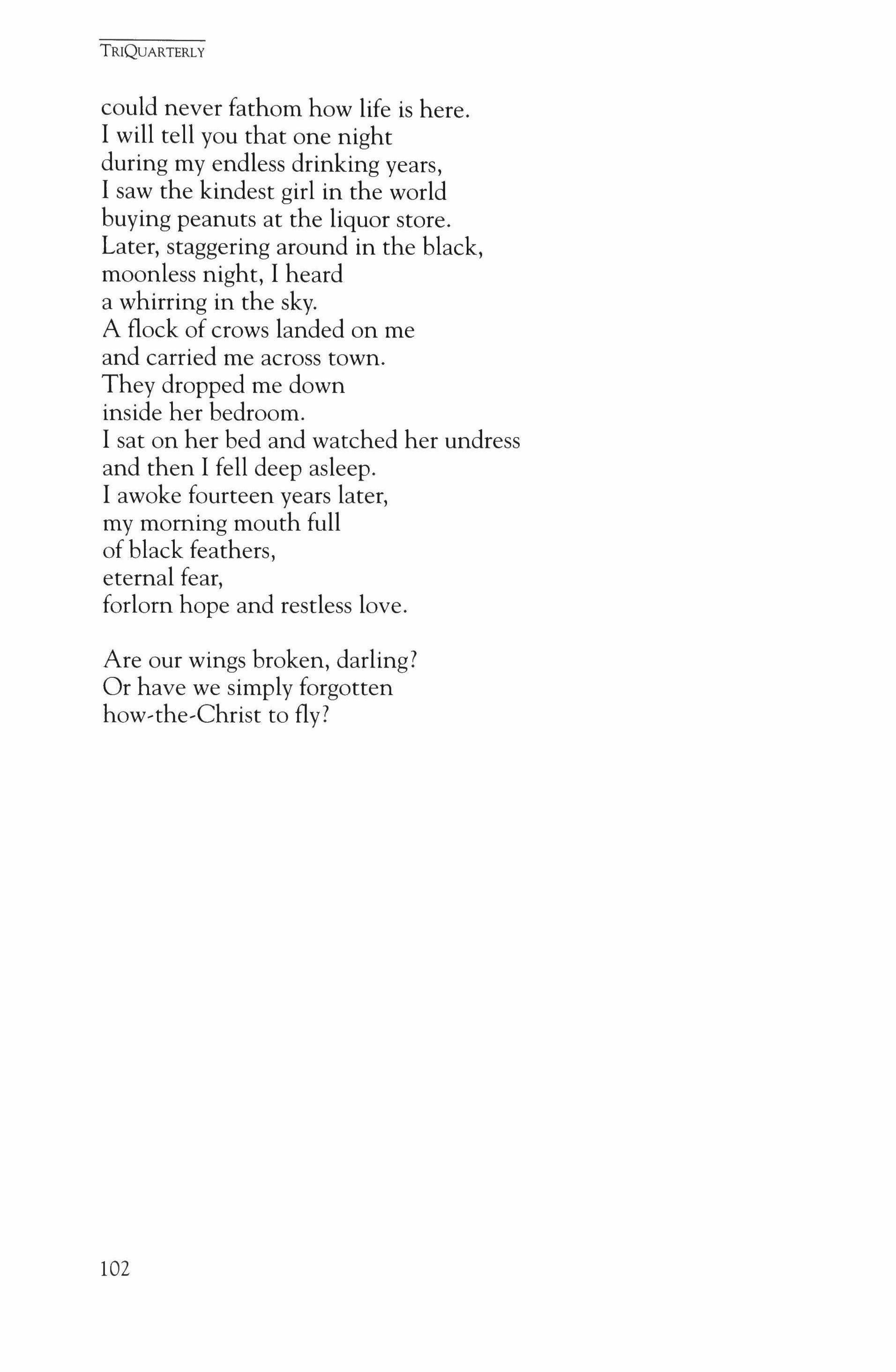
could never fathom how life is here. I will tell you that one night during my endless drinking years, I saw the kindest girl in the world buying peanuts at the liquor store. Later, staggering around in the black, moonless night, I heard a whirring in the sky. A flock of crows landed on me and carried me across town. They dropped me down inside her bedroom. I sat on her bed and watched her undress and then I fell deep asleep. I awoke fourteen years later, my morning mouth full of black feathers, eternal fear, forlorn hope and restless love.
Are our wings broken, darling? Or have we simply forgotten how-the-Christ to fly?
TRIQUARTERLY
102
The Corner of Paris and Porter
Thomas Lux
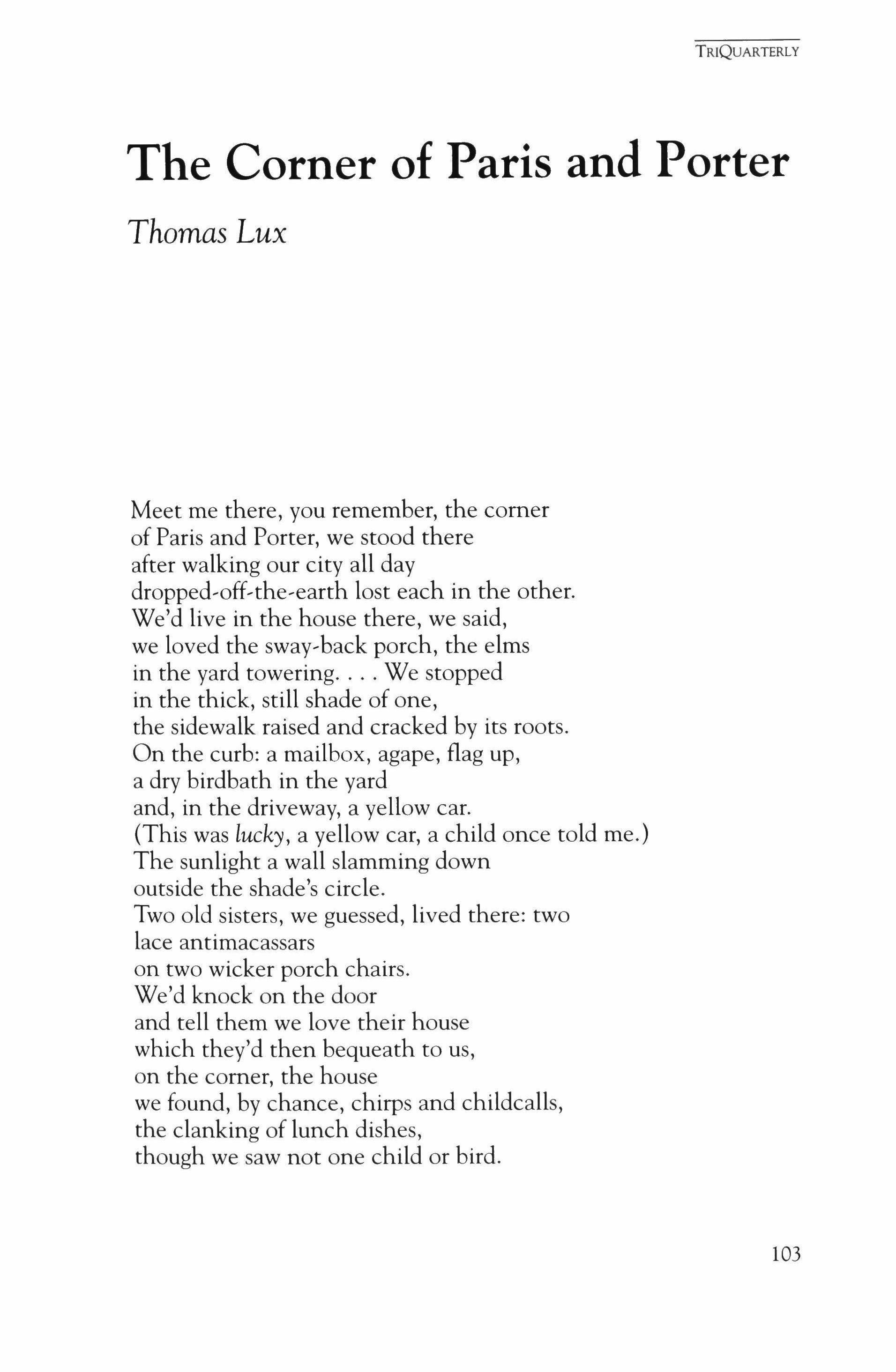
Meet me there, you remember, the comer of Paris and Porter, we stood there after walking our city all day dropped-off-the-earth lost each in the other. We'd live in the house there, we said, we loved the sway-back porch, the elms in the yard towering We stopped in the thick, still shade of one, the sidewalk raised and cracked by its roots. On the curb: a mailbox, agape, flag up, a dry birdbath in the yard and, in the driveway, a yellow car.
(This was lucky, a yellow car, a child once told me.)
The sunlight a wall slamming down outside the shade's circle.
Two old sisters, we guessed, lived there: two lace antimacassars on two wicker porch chairs. We'd knock on the door and tell them we love their house which they'd then bequeath to us, on the comer, the house we found, by chance, chirps and childcalls, the clanking of lunch dishes, though we saw not one child or bird.
TRIQUARTERLY
103
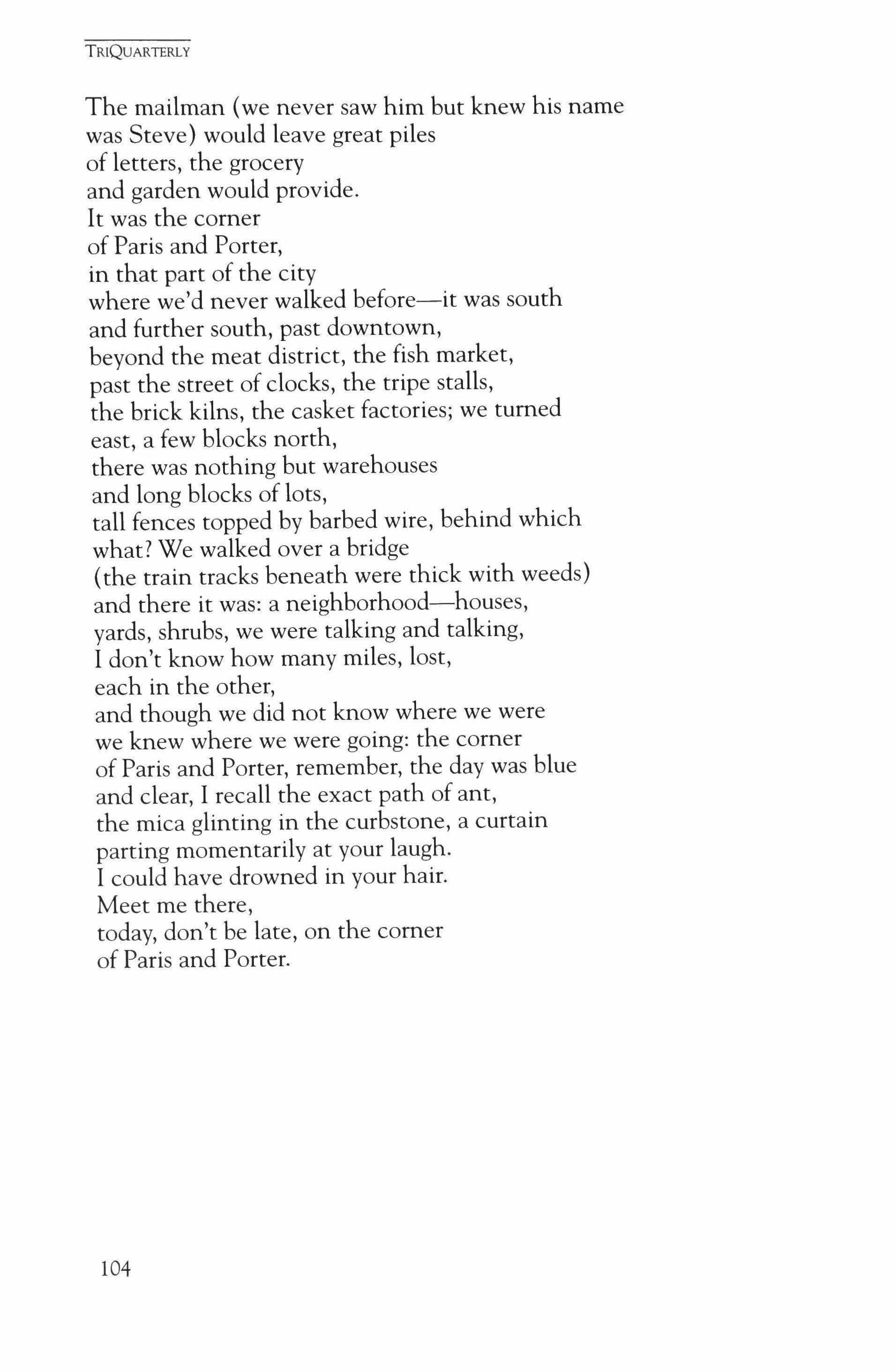
The mailman (we never saw him but knew his name was Steve) would leave great piles of letters, the grocery and garden would provide.
It was the comer of Paris and Porter, in that part of the city where we'd never walked before-it was south and further south, past downtown, beyond the meat district, the fish market, past the street of clocks, the tripe stalls, the brick kilns, the casket factories; we turned east, a few blocks north, there was nothing but warehouses and long blocks of lots, tall fences topped by barbed wire, behind which what? We walked over a bridge (the train tracks beneath were thick with weeds) and there it was: a neighborhood-houses, yards, shrubs, we were talking and talking, I don't know how many miles, lost, each in the other, and though we did not know where we were we knew where we were going: the comer of Paris and Porter, remember, the day was blue and clear, I recall the exact path of ant, the mica glinting in the curbstone, a curtain parting momentarily at your laugh. I could have drowned in your hair. Meet me there, today, don't be late, on the comer of Paris and Porter.
TRIQUARTERLY
104
Biscayne Boulevard
Campbell McGrath
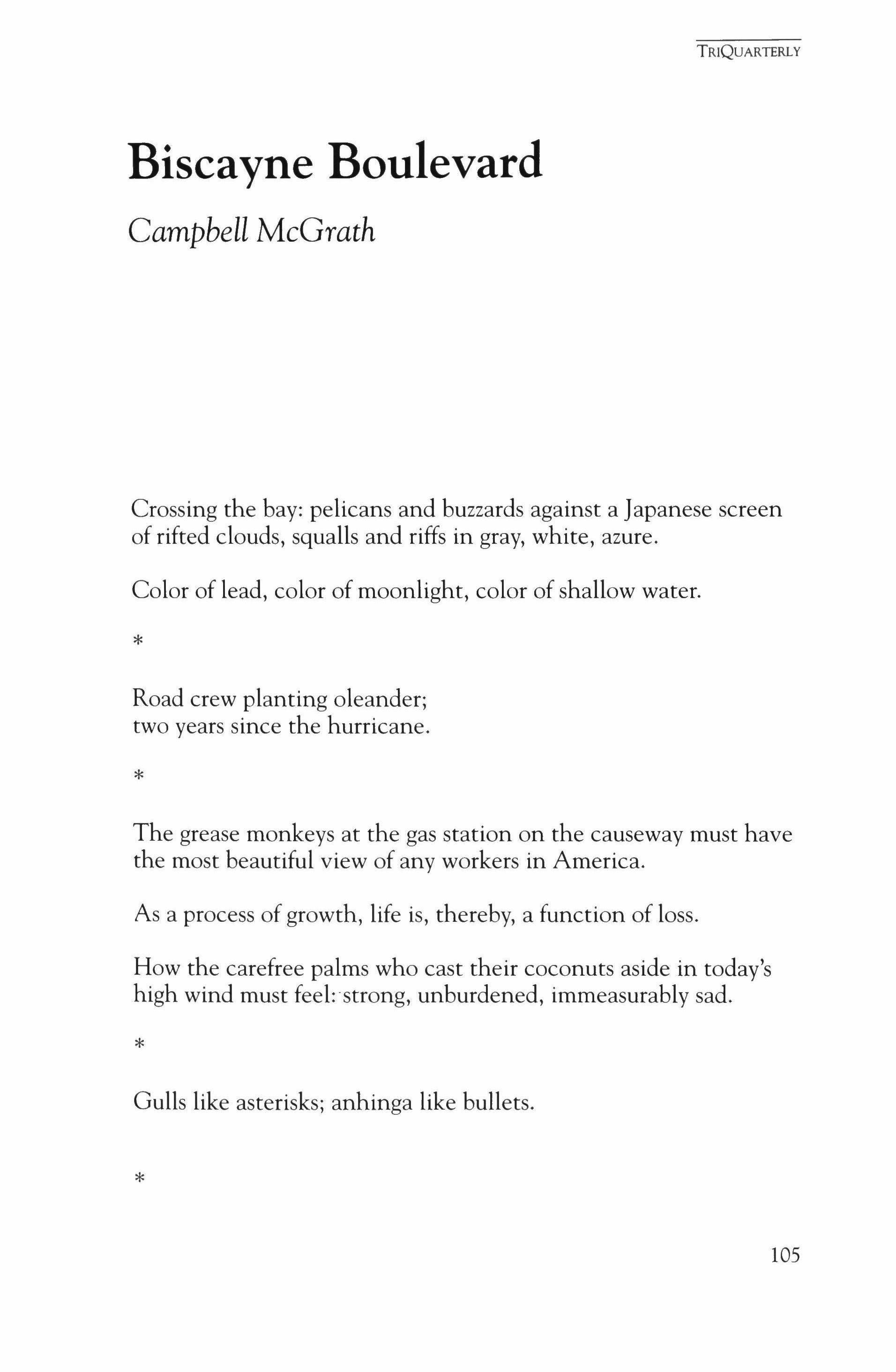
Crossing the bay: pelicans and buzzards against a Japanese screen of rifted clouds, squalls and riffs in gray, white, azure.
Color of lead, color of moonlight, color of shallow water.
* Road crew planting oleander; two years since the hurricane.
* The grease monkeys at the gas station on the causeway must have the most beautiful view of any workers in America.
As a process of growth, life is, thereby, a function of loss.
How the carefree palms who cast their coconuts aside in today's high wind must feel:-strong, unburdened, immeasurably sad.
* Gulls like asterisks; anhinga like bullets.
*
TRIQUARTERLY
105
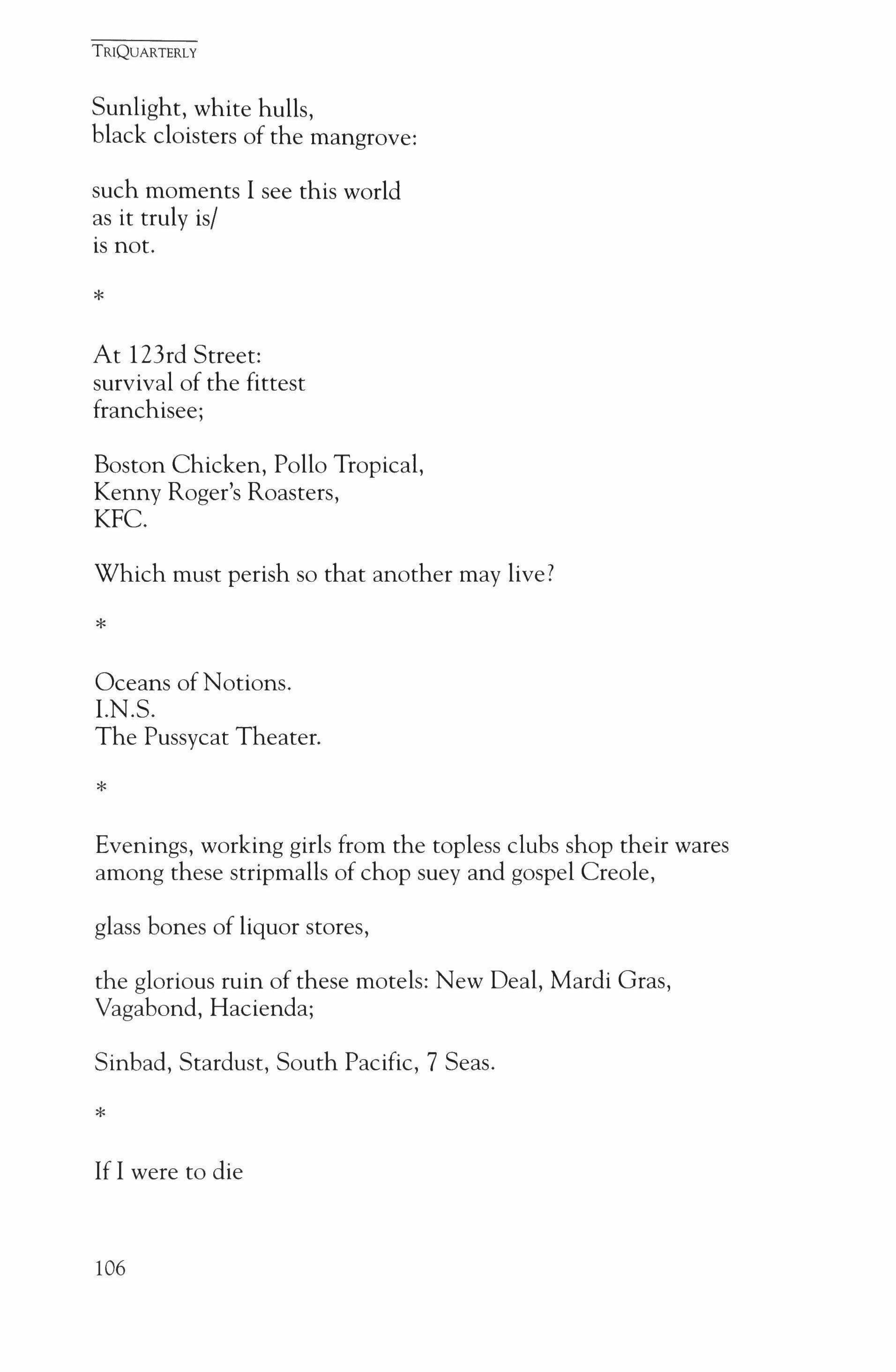
Sunlight, white hulls, black cloisters of the mangrove:
such moments I see this world as it truly is/ is not.
* At 123rd Street: survival of the fittest franchisee; Boston Chicken, Pollo Tropical, Kenny Roger's Roasters, KFC. Which must perish so that another may live?
* Oceans of Notions. l.N.S. The Pussycat Theater.
* Evenings, working girls from the topless clubs shop their wares among these stripmalls of chop suey and gospel Creole, glass bones of liquor stores, the glorious ruin of these motels: New Deal, Mardi Gras, Vagabond, Hacienda; Sinbad, Stardust, South Pacific, 7 Seas.
* If I were to die
TRIQUARTERLY
106
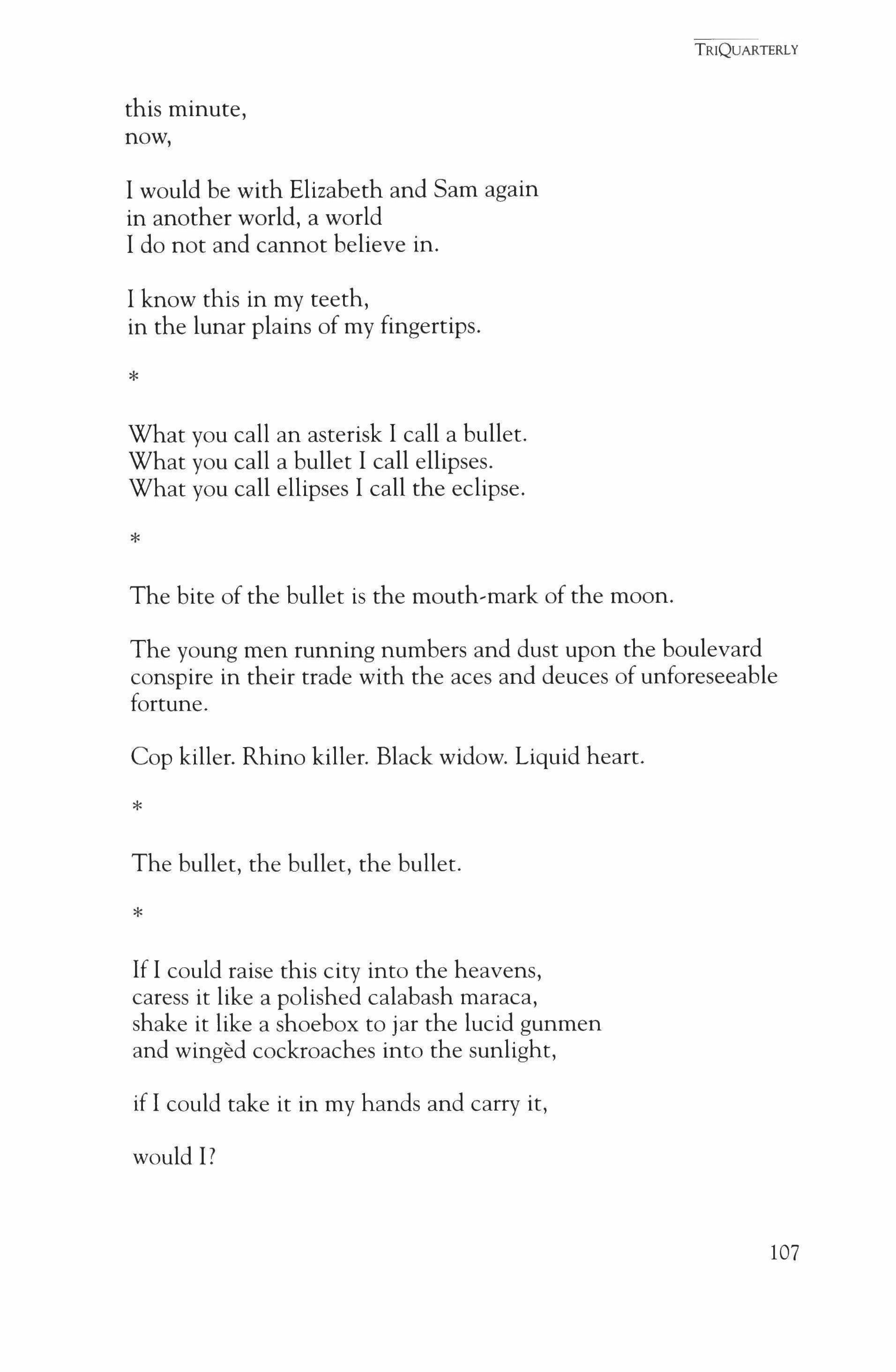
this minute, now,
I would be with Elizabeth and Sam again in another world, a world I do not and cannot believe in.
I know this in my teeth, in the lunar plains of my fingertips.
* What you call an asterisk I call a bullet. What you call a bullet I call ellipses. What you call ellipses I call the eclipse.
* The bite of the bullet is the mouth,mark of the moon.
The young men running numbers and dust upon the boulevard conspire in their trade with the aces and deuces of unforeseeable fortune.
Cop killer. Rhino killer. Black widow. Liquid heart.
* The bullet, the bullet, the bullet.
* If I could raise this city into the heavens, caress it like a polished calabash maraca, shake it like a shoebox to jar the lucid gunmen and winged cockroaches into the sunlight, if I could take it in my hands and carry it, would I?
TRIQUARTERLY
107
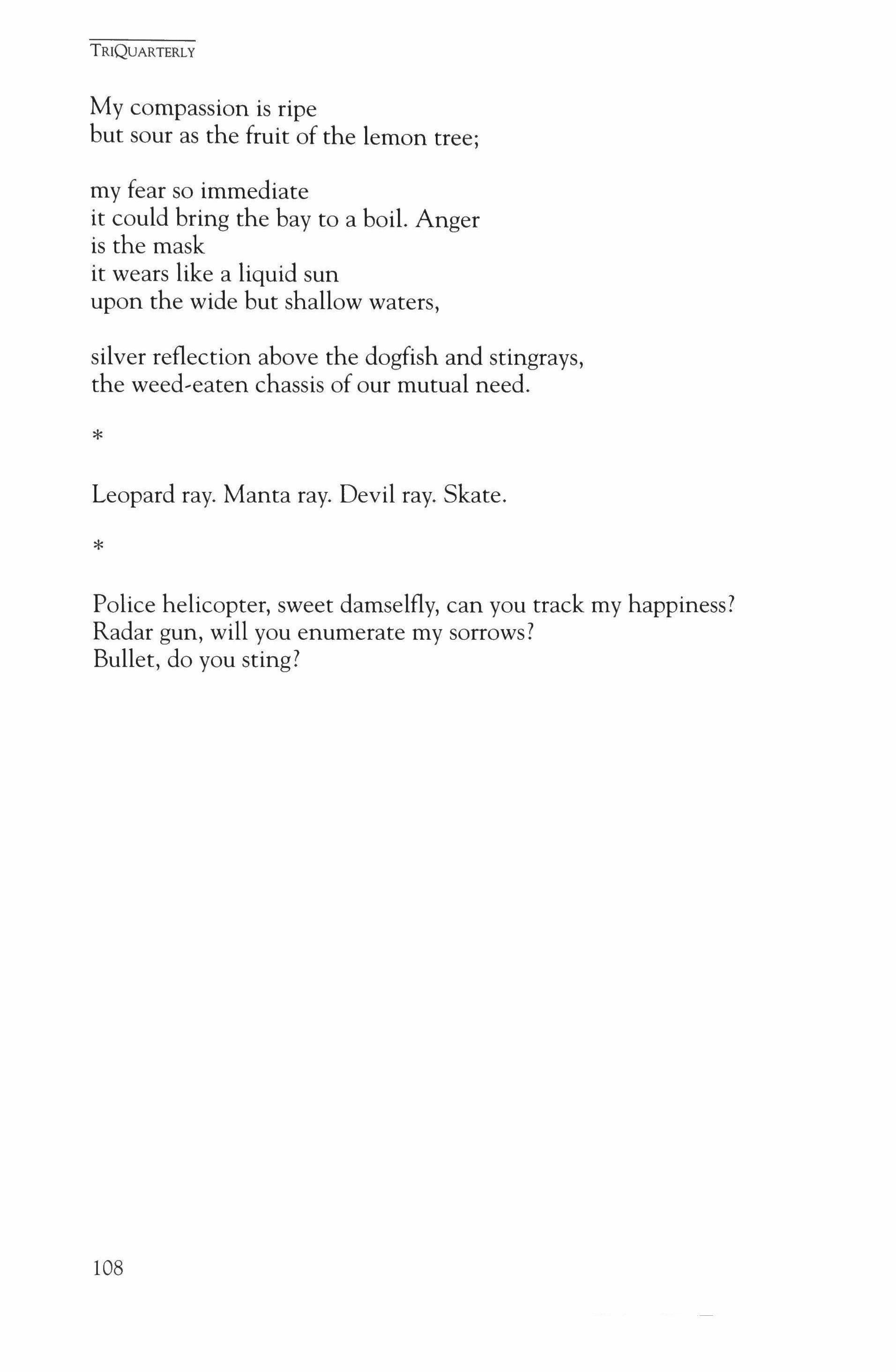
My compassion is ripe but sour as the fruit of the lemon tree; my fear so immediate it could bring the bay to a boil. Anger is the mask it wears like a liquid sun upon the wide but shallow waters, silver reflection above the dogfish and stingrays, the weed-eaten chassis of our mutual need.
* Leopard ray. Manta ray. Devil ray. Skate.
* Police helicopter, sweet damselfly, can you track my happiness? Radar gun, will you enumerate my sorrows? Bullet, do you sting?
TRIQUARTERLY
108
Amazing True Stories
Elizabeth McKenzie
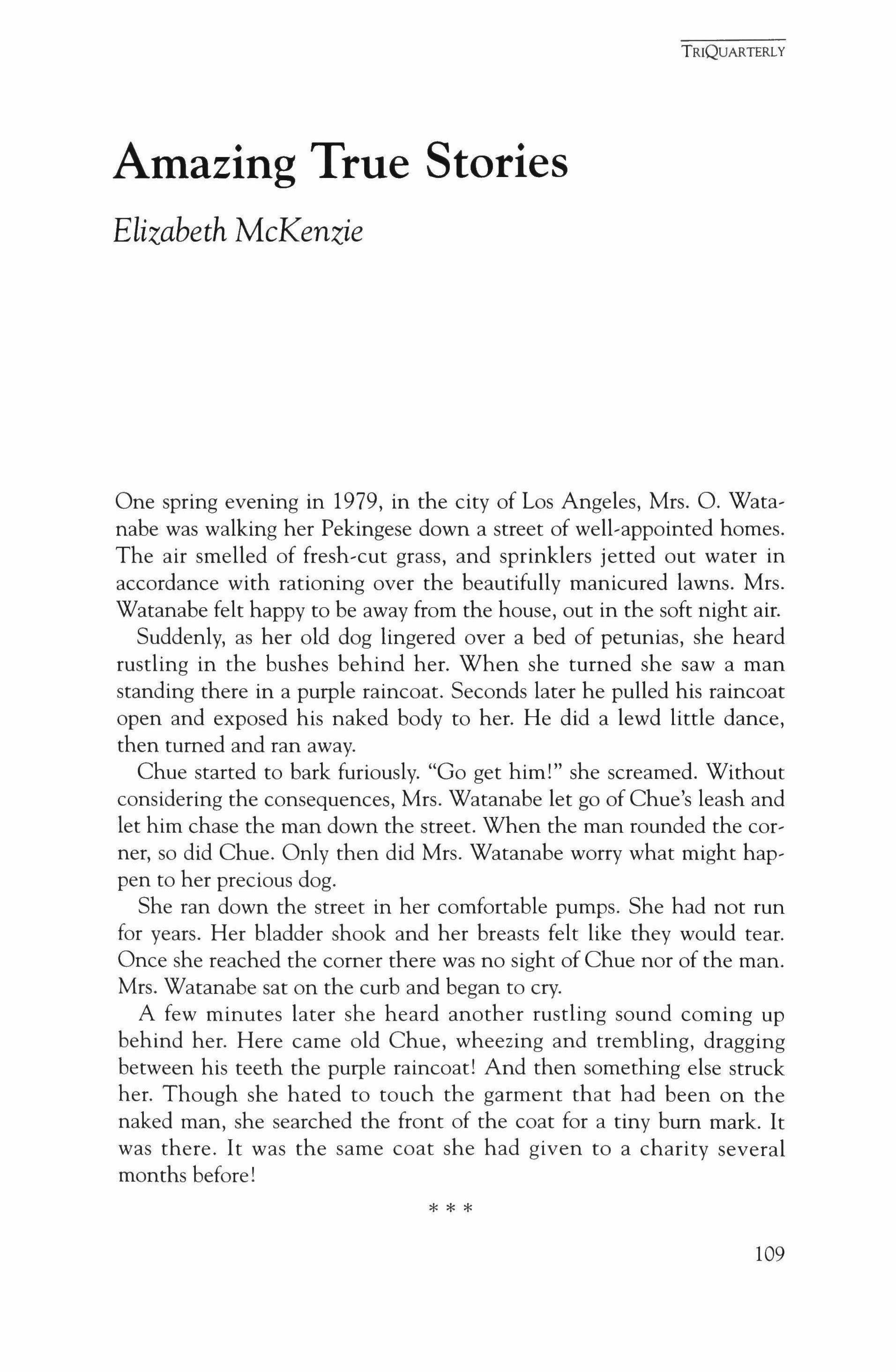
One spring evening in 1979, in the city of Los Angeles, Mrs. O. Wata, nabe was walking her Pekingese down a street of well,appointed homes. The air smelled of fresh-cut grass, and sprinklers jetted out water in accordance with rationing over the beautifully manicured lawns. Mrs. Watanabe felt happy to be away from the house, out in the soft night air. Suddenly, as her old dog lingered over a bed of petunias, she heard rustling in the bushes behind her. When she turned she saw a man standing there in a purple raincoat. Seconds later he pulled his raincoat open and exposed his naked body to her. He did a lewd little dance, then turned and ran away.
Chue started to bark furiously. "Go get him!" she screamed. Without considering the consequences, Mrs. Watanabe let go of Chue's leash and let him chase the man down the street. When the man rounded the cor, ner, so did Chue. Only then did Mrs. Watanabe worry what might hap, pen to her precious dog.
She ran down the street in her comfortable pumps. She had not run for years. Her bladder shook and her breasts felt like they would tear. Once she reached the corner there was no sight of Chue nor of the man. Mrs. Watanabe sat on the curb and began to cry.
A few minutes later she heard another rustling sound coming up behind her. Here came old Chue, wheezing and trembling, dragging between his teeth the purple raincoat! And then something else struck her. Though she hated to touch the garment that had been on the naked man, she searched the front of the coat for a tiny burn mark. It was there. It was the same coat she had given to a charity several months before!
TRIQUARTERLY
* * * 109
One evening, late in the summer of 1968, a young girl in the Brentwood Glen area of Los Angeles was sitting on her front lawn playing with a doll. It was neither a Barbie nor a Liddle Kiddle, and she didn't particularly like it. It was a generic doll with blocky features and a thick neck. Her mother always ignored her when she described the things she really wanted. Like those white knee-high boots that all the cute girls at school had. Her mother's only response was "They're unhealthy. Your feet can't breathe." Why did feet need to breathe?
The little dog across the street barked and barked. Suddenly the girl smelled the smoke of her mother's cigarette. Mrs. O. Watanabe appeared on the porch. "No homework, no play," she said. The girl was just about to whine her usual protests, like Do I have to? when something stopped her. She said, "O.K., Mommy. I'll be right in. I was just about to rake the leaves off the dichondra first." Her mother beamed and took a deep draw on her cigarette. "All right. Homework can wait for that."
Susan threw the generic doll into the scratchy juniper bushes and started to rake the lawn, driven by some force she couldn't understand. She had only raked the lawn a few times in her entire life. Her father pretended that after a long week at the bank he enjoyed a little yard work, but he preferred to go to Las Vegas for the weekend to gamble and to see big shows. Sometimes if Susan's mother complained enough, she went along too. Then the babysitter would show up, a prissy, pastyfaced, four-square Christian from across the street who tried to make Susan pray all weekend.
Anyway, that summer day in 1968, as Susan raked the lawn, she was suddenly startled by the sight of several police cars pulling up at her babysitter's house and kicking in the front door. As they entered the house, out ran Chewy, the babysitter's tiny new Pekingese. Chewy ran straight across the street and dropped something at Susan's feet. The object was covered with blood, but Susan recognized it immediately as an authentic Barbie. Exactly what she had been dreaming of! Not only that, but the doll was wearing knee-high white boots exactly the kind Susan wanted!
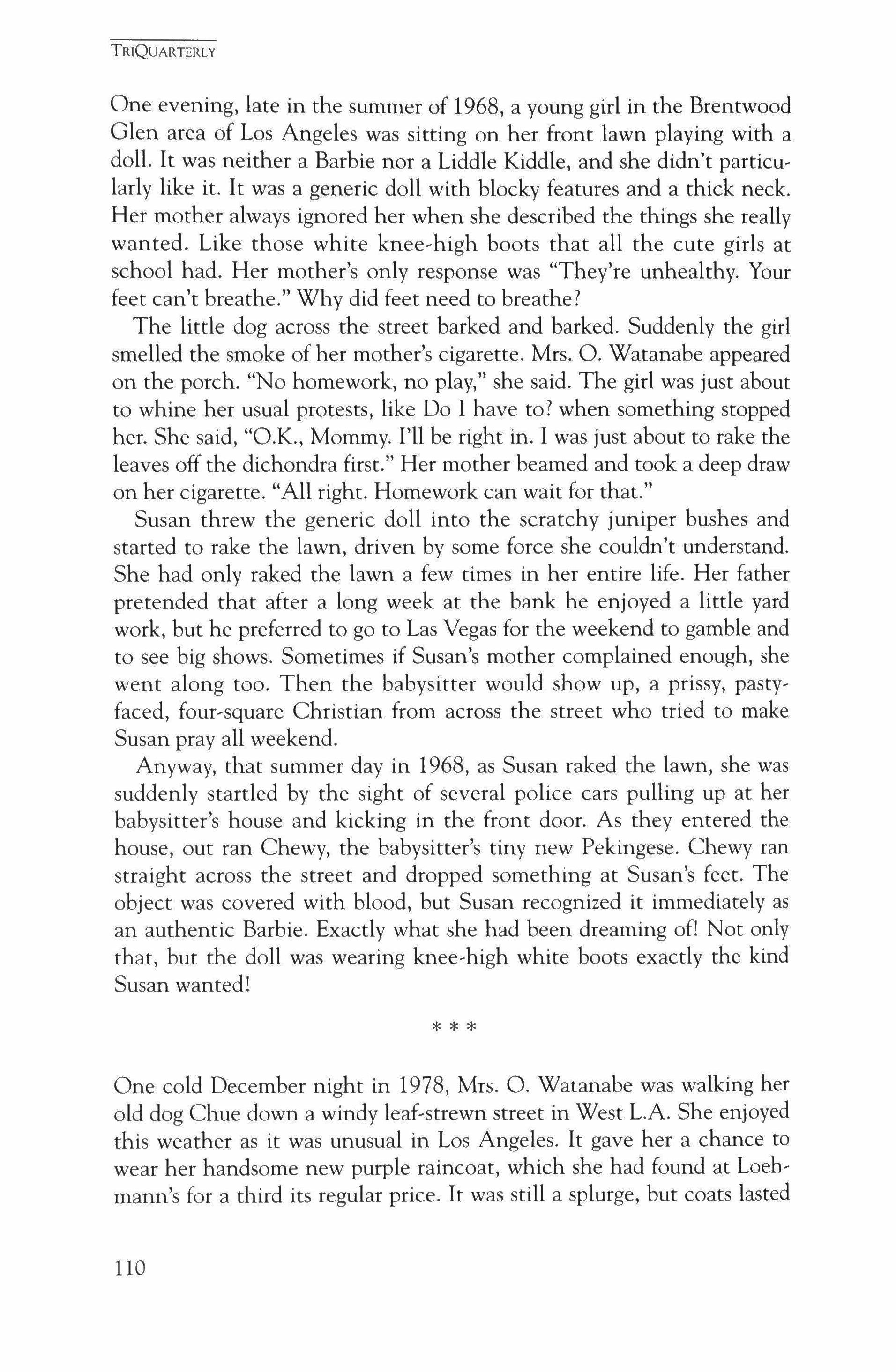
One cold December night in 1978, Mrs. O. Watanabe was walking her old dog Chue down a windy leaf-strewn street in West L.A. She enjoyed this weather as it was unusual in Los Angeles. It gave her a chance to wear her handsome new purple raincoat, which she had found at Loehmann's for a third its regular price. It was still a splurge, but coats lasted
TRIQUARTERLY
* * *
110
a long time. She and her daughter had fought about another coat at Loehmann's, but seeing as her daughter would graduate in a year and go to college in San Diego, where it wasn't cold at all, Mrs. Watanabe had decided not to buy it. For some reason, this disagreement brought her daughter to tears, and Mrs. Watanabe had been so angry about Susan causing a scene in Loehmann's that she had grounded her daughter that weekend. But now, wearing her purple raincoat, Mrs. Watanabe began to see another life, a life in which she and an amiable daughter strolled together with their dog, freely chatting and laughing. She had never been that kind of daughter to her own mother, but she had envied other mothers and daughters of that kind. Remorse began to grip at her and she chewed her lips. She lit a cigarette, even though she had just finished one, and began to smoke it nervously. She had to admit it, she had not done all she could for Susan. A piece of the cigarette crumbled away and landed on her lapel. She knocked it off, but it was too late. The beautiful purple raincoat had a bum mark on it.
Mrs. Watanabe began to cry. This was a sign from God that she was to pay heed to her thoughts. She was being punished. Which had she been worse at, as a mother or a daughter? It was too late with her own mother, but not with Susan. She jerked harshly at Chue's leash, tugging him through his routine walk in order to get home and talk to her daughter.
To her great surprise, Susan had left a note saying she was leaving home forever, and would never be back-right after Mrs. Watanabe had made this decision to be kinder to her!
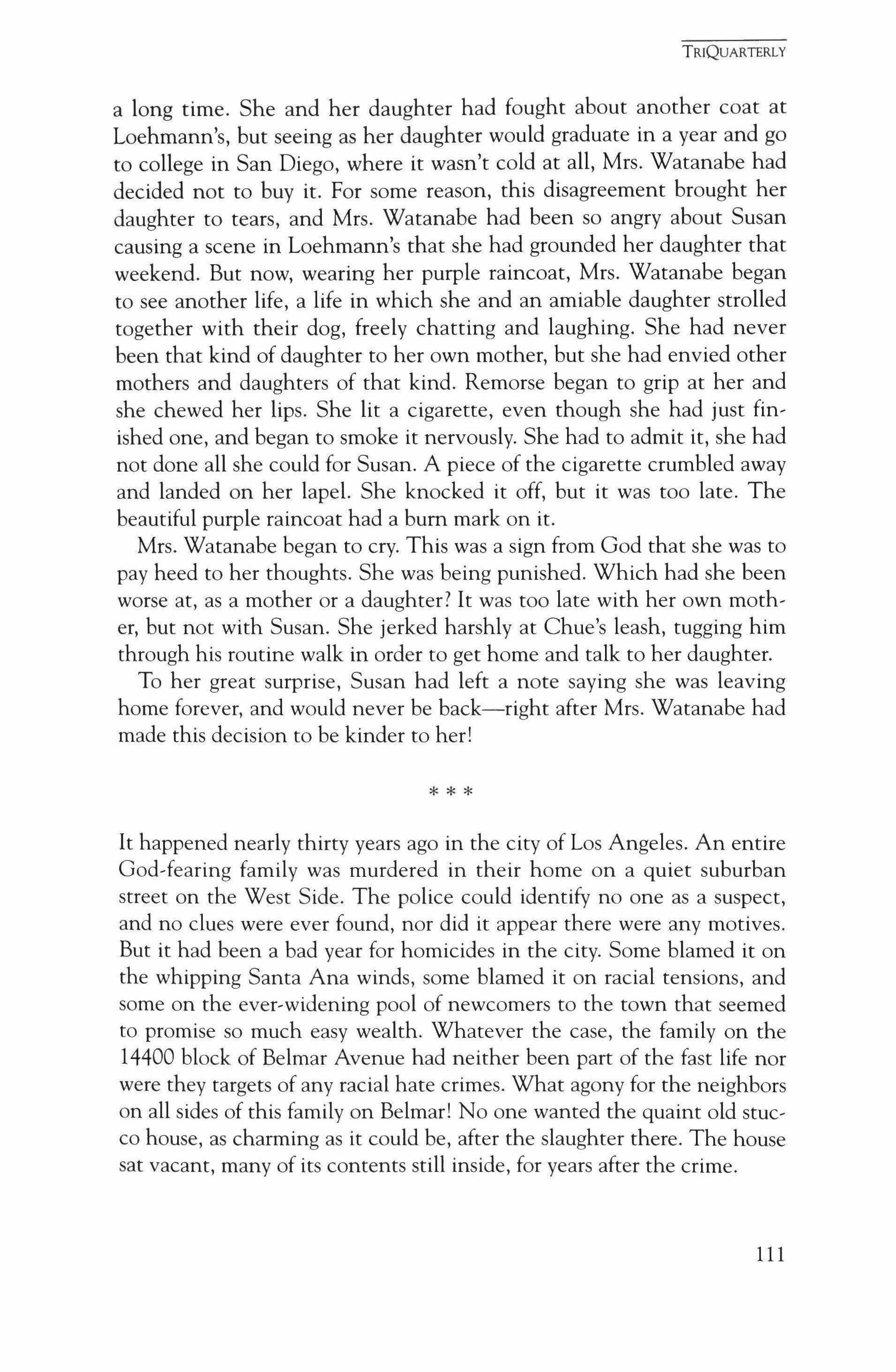
It happened nearly thirty years ago in the city of Los Angeles. An entire God-fearing family was murdered in their home on a quiet suburban street on the West Side. The police could identify no one as a suspect, and no clues were ever found, nor did it appear there were any motives. But it had been a bad year for homicides in the city. Some blamed it on the whipping Santa Ana winds, some blamed it on racial tensions, and some on the ever-widening pool of newcomers to the town that seemed to promise so much easy wealth. Whatever the case, the family on the 14400 block of Belmar Avenue had neither been part of the fast life nor were they targets of any racial hate crimes. What agony for the neighbors on all sides of this family on Belmar! No one wanted the quaint old stucco house, as charming as it could be, after the slaughter there. The house sat vacant, many of its contents still inside, for years after the crime.
TRIQUARTERLY
* * *
111
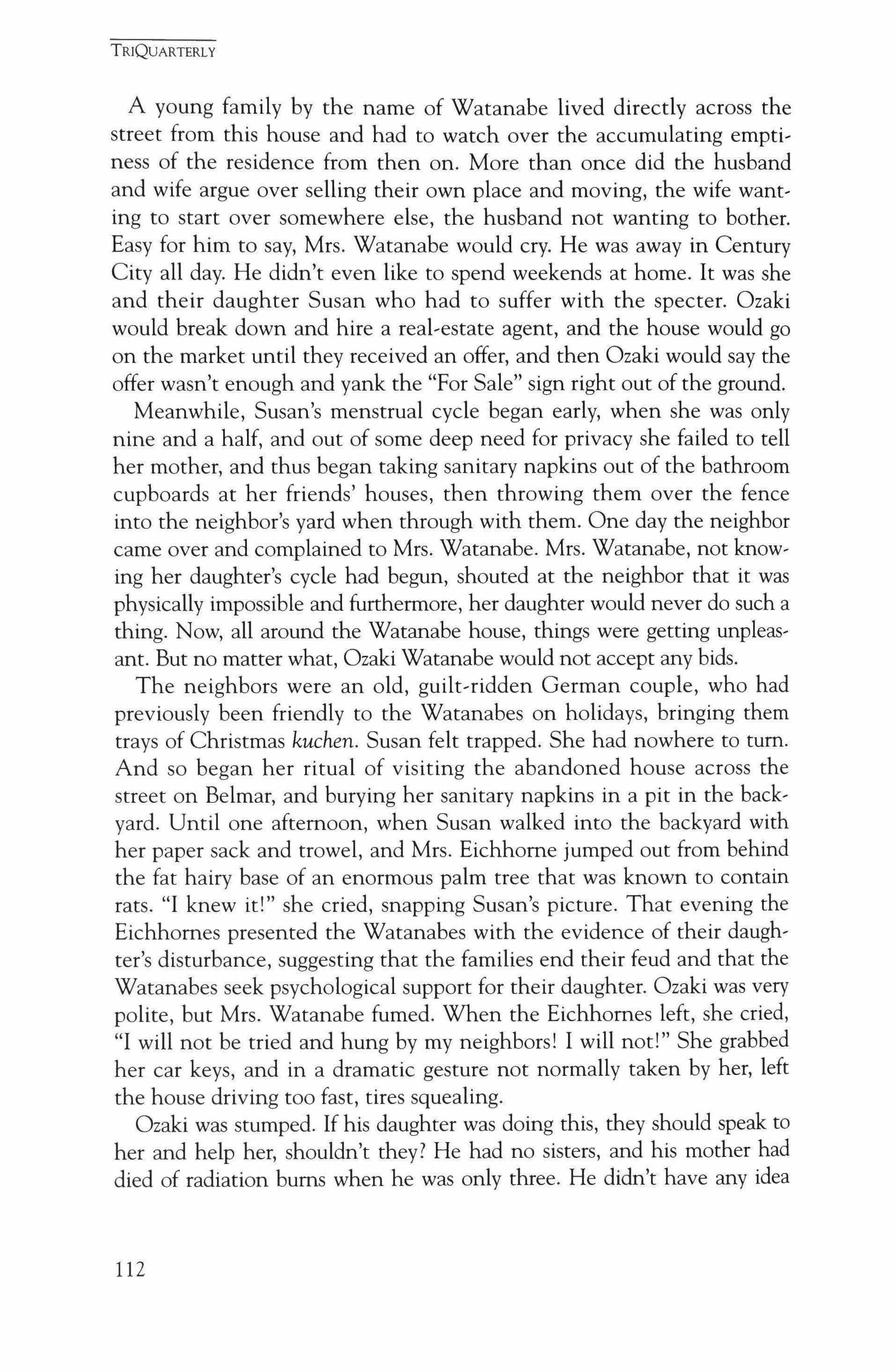
A young family by the name of Watanabe lived directly across the street from this house and had to watch over the accumulating emptiness of the residence from then on. More than once did the husband and wife argue over selling their own place and moving, the wife wanting to start over somewhere else, the husband not wanting to bother. Easy for him to say, Mrs. Watanabe would cry. He was away in Century City all day. He didn't even like to spend weekends at home. It was she and their daughter Susan who had to suffer with the specter. Ozaki would break down and hire a real-estate agent, and the house would go on the market until they received an offer, and then Ozaki would say the offer wasn't enough and yank the "For Sale" sign right out of the ground. Meanwhile, Susan's menstrual cycle began early, when she was only nine and a half, and out of some deep need for privacy she failed to tell her mother, and thus began taking sanitary napkins out of the bathroom cupboards at her friends' houses, then throwing them over the fence into the neighbor's yard when through with them. One day the neighbor came over and complained to Mrs. Watanabe. Mrs. Watanabe, not knowing her daughter's cycle had begun, shouted at the neighbor that it was physically impossible and furthermore, her daughter would never do such a thing. Now, all around the Watanabe house, things were getting unpleasant. But no matter what, Ozaki Watanabe would not accept any bids.
The neighbors were an old, guilt-ridden German couple, who had previously been friendly to the Watanabes on holidays, bringing them trays of Christmas kuchen. Susan felt trapped. She had nowhere to tum. And so began her ritual of visiting the abandoned house across the street on Belmar, and burying her sanitary napkins in a pit in the backyard. Until one afternoon, when Susan walked into the backyard with her paper sack and trowel, and Mrs. Eichhorne jumped out from behind the fat hairy base of an enormous palm tree that was known to contain rats. "I knew it!" she cried, snapping Susan's picture. That evening the Eichhomes presented the Watanabes with the evidence of their daughter's disturbance, suggesting that the families end their feud and that the Watanabes seek psychological support for their daughter. Ozaki was very polite, but Mrs. Watanabe fumed. When the Eichhomes left, she cried, "I will not be tried and hung by my neighbors! I will not!" She grabbed her car keys, and in a dramatic gesture not normally taken by her, left the house driving too fast, tires squealing.
Ozaki was stumped. If his daughter was doing this, they should speak to her and help her, shouldn't they? He had no sisters, and his mother had died of radiation bums when he was only three. He didn't have any idea
TRIQUARTERLY
112
what to say to Susan. Her mother should speak to her. What would he say! And then something very strange happened. As he sat there holding the incriminating Polaroid of his daughter, he thought of the prostitute he had spent the weekend with in Las Vegas recently. She was a voluptuous, beautiful woman. He had been sorry to see her go. He had taken a Polaroid picture of her, not lewd, only of her face, smiling gently at him after she had dressed. Her warm expression was nothing like the frightened, surprised look on his daughter's face, seen in the backyard of the house across the street, clutching her secret bag full of sanitary nap' kins. But something connected them. What was it? He had kept the photo of his Las Vegas woman in his briefcase, and now he scrambled through the house to find it. Opening his briefcase, he reached into the top flap pocket and found the hard square picture with his fingertips, and pulled it out. He looked at the woman's face, and felt a warm flush go through him. He would have to have her again, there was no doubt about it, and if his wife didn't insist on tagging along next weekend, it would be that soon. Now, what was it he was looking for? He held up the picture of his daughter. And then he realized-it was the name Susan. Why hadn't he thought of it before? The woman and his daughter were both named Susan!
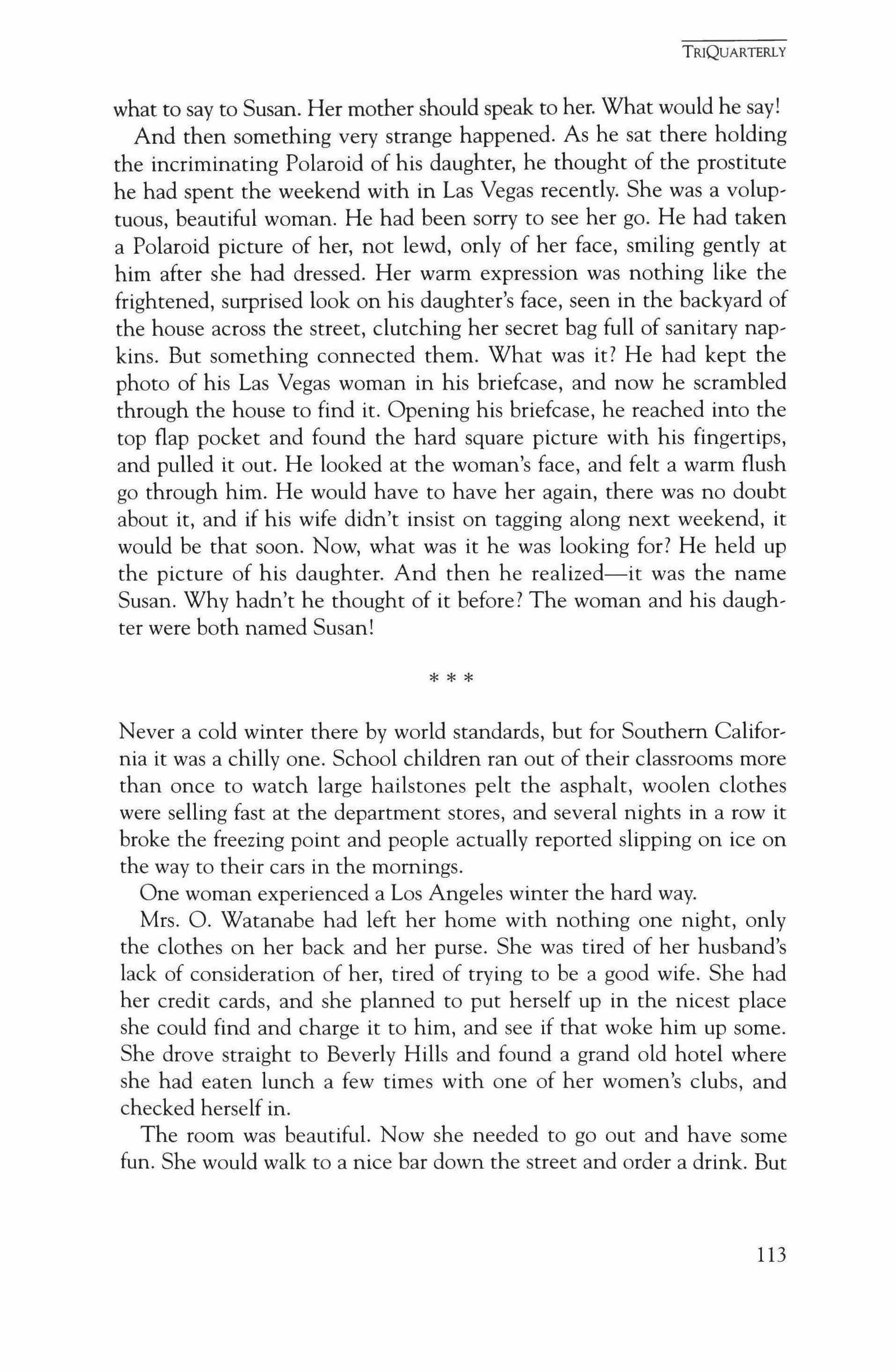
Never a cold winter there by world standards, but for Southern California it was a chilly one. School children ran out of their classrooms more than once to watch large hailstones pelt the asphalt, woolen clothes were selling fast at the department stores, and several nights in a row it broke the freezing point and people actually reported slipping on ice on the way to their cars in the mornings.
One woman experienced a Los Angeles winter the hard way.
Mrs. O. Watanabe had left her home with nothing one night, only the clothes on her back and her purse. She was tired of her husband's lack of consideration of her, tired of trying to be a good wife. She had her credit cards, and she planned to put herself up in the nicest place she could find and charge it to him, and see if that woke him up some. She drove straight to Beverly Hills and found a grand old hotel where she had eaten lunch a few times with one of her women's clubs, and checked herself in.
The room was beautiful. Now she needed to go out and have some fun. She would walk to a nice bar down the street and order a drink. But 113
TRIQUARTERLY
* * *
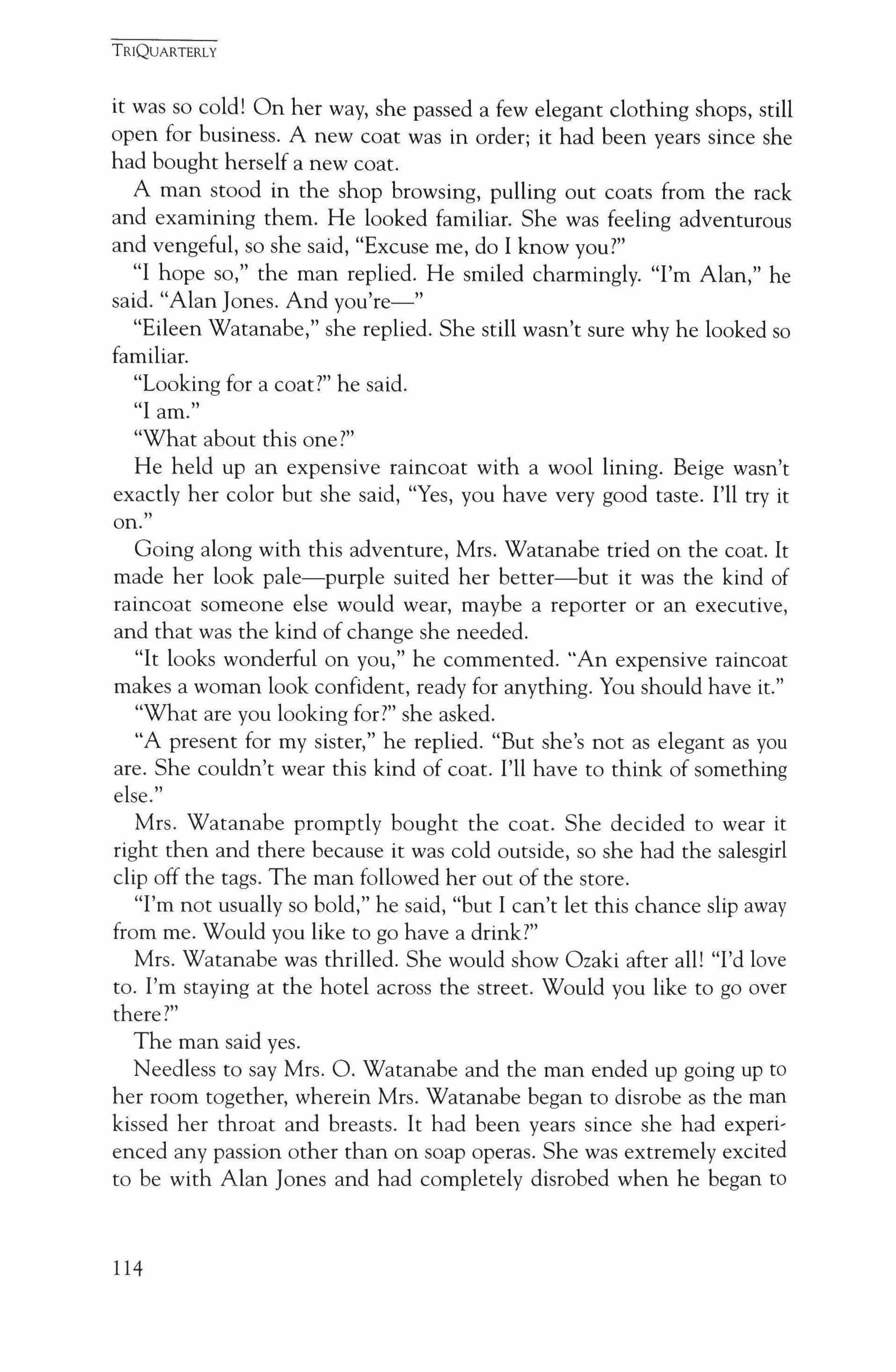
it was so cold! On her way, she passed a few elegant clothing shops, still open for business. A new coat was in order; it had been years since she had bought herself a new coat.
A man stood in the shop browsing, pulling out coats from the rack and examining them. He looked familiar. She was feeling adventurous and vengeful, so she said, "Excuse me, do I know you?"
"I hope so," the man replied. He smiled charmingly. "I'm Alan," he said. "Alan Jones. And you're-"
"Eileen Watanabe," she replied. She still wasn't sure why he looked so familiar.
"Looking for a coat?" he said.
"I am."
"What about this one?"
He held up an expensive raincoat with a wool lining. Beige wasn't exactly her color but she said, "Yes, you have very good taste. I'll try it on.
Going along with this adventure, Mrs. Watanabe tried on the coat. It made her look pale-purple suited her better-but it was the kind of raincoat someone else would wear, maybe a reporter or an executive, and that was the kind of change she needed.
"It looks wonderful on you," he commented. "An expensive raincoat makes a woman look confident, ready for anything. You should have it."
"What are you looking for?" she asked.
"A present for my sister," he replied. "But she's not as elegant as you are. She couldn't wear this kind of coat. I'll have to think of something else."
Mrs. Watanabe promptly bought the coat. She decided to wear it right then and there because it was cold outside, so she had the salesgirl clip off the tags. The man followed her out of the store.
"I'm not usually so bold," he said, "but I can't let this chance slip away from me. Would you like to go have a drink?"
Mrs. Watanabe was thrilled. She would show Ozaki after all! "I'd love to. I'm staying at the hotel across the street. Would you like to go over there?"
The man said yes.
Needless to say Mrs. O. Watanabe and the man ended up going up to her room together, wherein Mrs. Watanabe began to disrobe as the man kissed her throat and breasts. It had been years since she had experienced any passion other than on soap operas. She was extremely excited to be with Alan Jones and had completely disrobed when he began to
TRIQUARTERLY
114
remove his own clothes. Only then, as he did a lewd little wiggle, did the strange feeling of familiarity change to recognition, and suddenly Mrs. O. Watanabe emitted a terrible scream. She screamed so loudly that the hotel sent up their security and beat down the door. She was clutching a sheet around her body as the door splintered. Alan Jones was the man who had exhibited his naked body to her years back, leading to the myocardial infarct that killed her favorite dog!
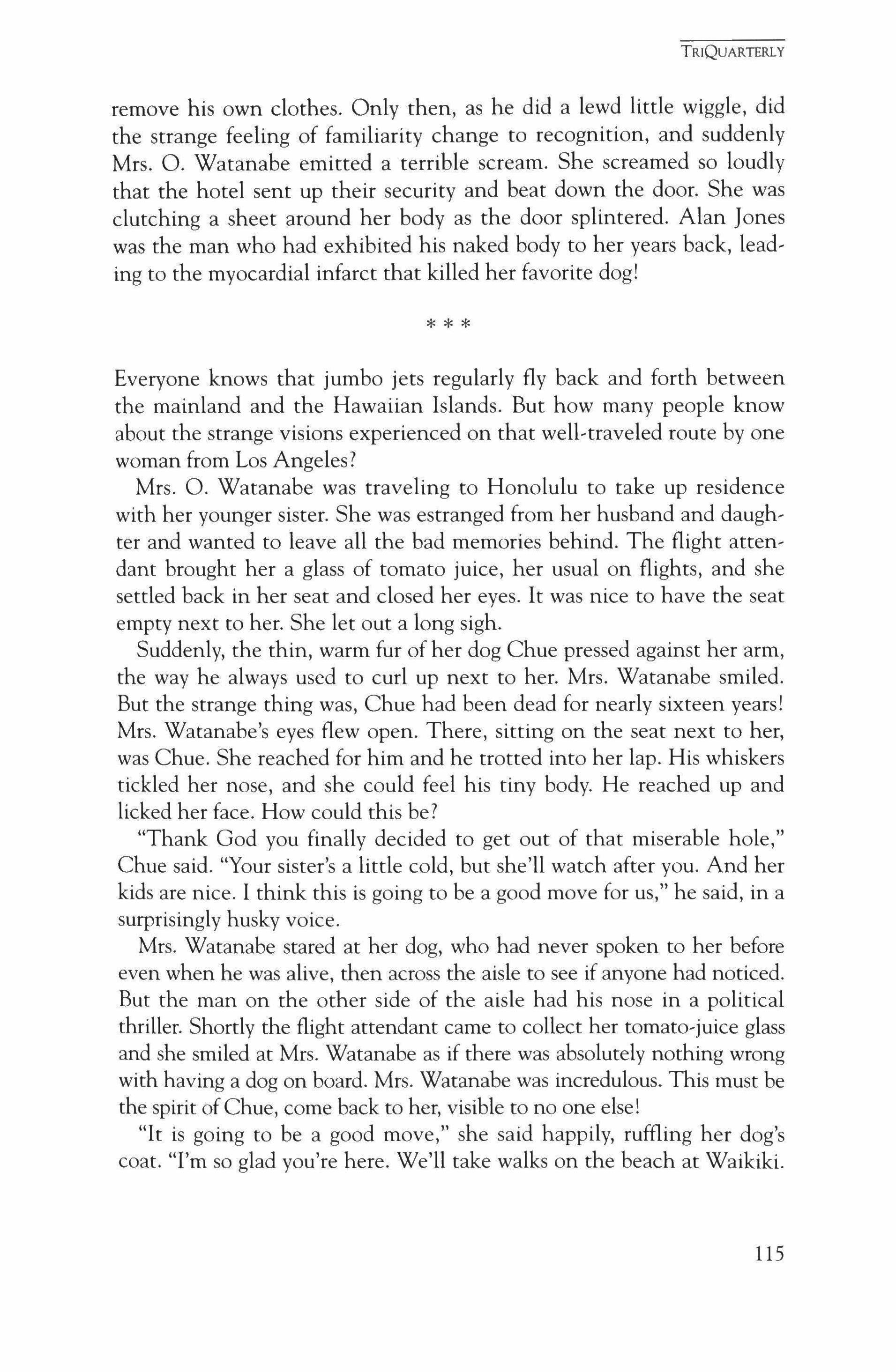
Everyone knows that jumbo jets regularly fly back and forth between the mainland and the Hawaiian Islands. But how many people know about the strange visions experienced on that well-traveled route by one woman from Los Angeles?
Mrs. O. Watanabe was traveling to Honolulu to take up residence with her younger sister. She was estranged from her husband and daughter and wanted to leave all the bad memories behind. The flight attendant brought her a glass of tomato juice, her usual on flights, and she settled back in her seat and closed her eyes. It was nice to have the seat empty next to her. She let out a long sigh.
Suddenly, the thin, warm fur of her dog Chue pressed against her arm, the way he always used to curl up next to her. Mrs. Watanabe smiled. But the strange thing was, Chue had been dead for nearly sixteen years! Mrs. Watanabe's eyes flew open. There, sitting on the seat next to her, was Chue. She reached for him and he trotted into her lap. His whiskers tickled her nose, and she could feel his tiny body. He reached up and licked her face. How could this be?
"Thank God you finally decided to get out of that miserable hole," Chue said. "Your sister's a little cold, but she'll watch after you. And her kids are nice. I think this is going to be a good move for us," he said, in a surprisingly husky voice.
Mrs. Watanabe stared at her dog, who had never spoken to her before even when he was alive, then across the aisle to see if anyone had noticed. But the man on the other side of the aisle had his nose in a political thriller. Shortly the flight attendant came to collect her tomato-juice glass and she smiled at Mrs. Watanabe as if there was absolutely nothing wrong with having a dog on board. Mrs. Watanabe was incredulous. This must be the spirit ofChue, come back to her, visible to no one else!
"It is going to be a good move," she said happily, ruffling her dog's coat. "I'm so glad you're here. We'll take walks on the beach at Waikiki. 115
TRIQUARTERLY
* * *
TRIQUARTERLY
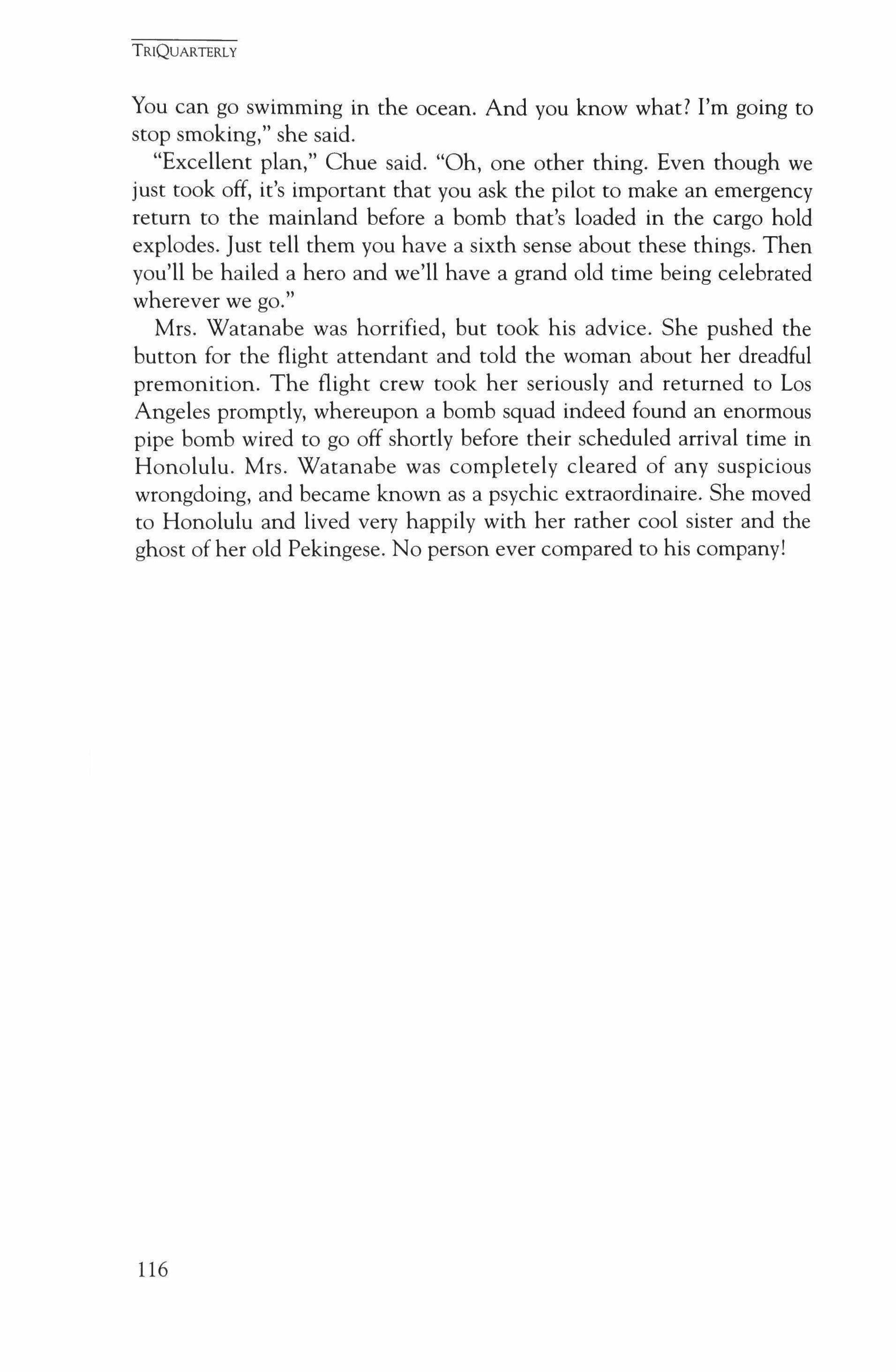
You can go swimming in the ocean. And you know what? I'm going to stop smoking," she said.
"Excellent plan," Chue said. "Oh, one other thing. Even though we just took off, it's important that you ask the pilot to make an emergency return to the mainland before a bomb that's loaded in the cargo hold explodes. Just tell them you have a sixth sense about these things. Then you'll be hailed a hero and we'll have a grand old time being celebrated wherever we go."
Mrs. Watanabe was horrified, but took his advice. She pushed the button for the flight attendant and told the woman about her dreadful premonition. The flight crew took her seriously and returned to Los Angeles promptly, whereupon a bomb squad indeed found an enormous pipe bomb wired to go off shortly before their scheduled arrival time in Honolulu. Mrs. Watanabe was completely cleared of any suspicious wrongdoing, and became known as a psychic extraordinaire. She moved to Honolulu and lived very happily with her rather cool sister and the ghost of her old Pekingese. No person ever compared to his company!
116
From Crabcakes
James A. McPherson
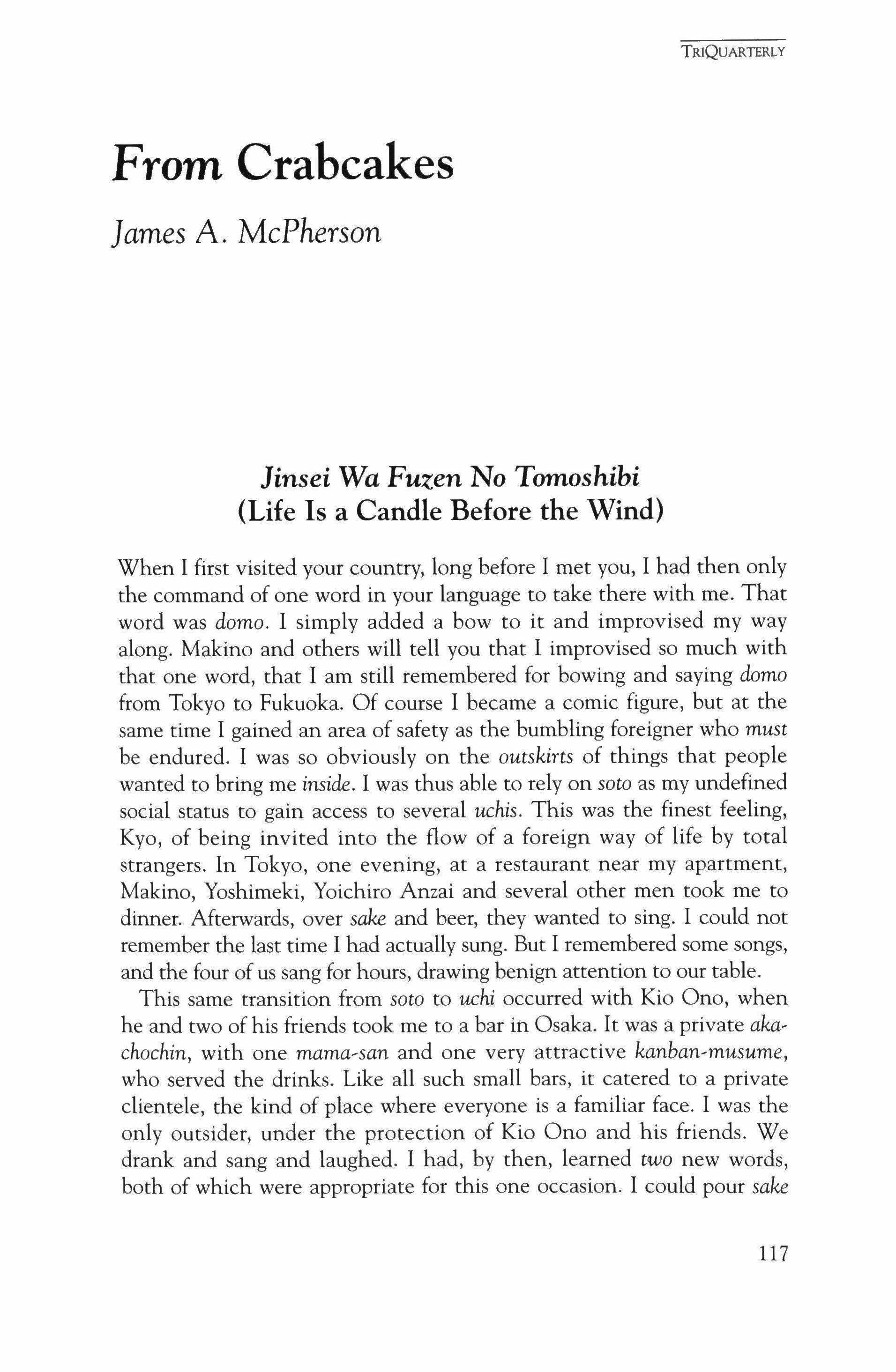
Jinsei Wa Fuzen No Tomoshibi
(Life Is a Candle Before the Wind)
When I first visited your country, long before I met you, I had then only the command of one word in your language to take there with me. That word was domo. I simply added a bow to it and improvised my way along. Makino and others will tell you that I improvised so much with that one word, that I am still remembered for bowing and saying domo from Tokyo to Fukuoka. Of course I became a comic figure, but at the same time I gained an area of safety as the bumbling foreigner who must be endured. I was so obviously on the outskirts of things that people wanted to bring me inside. I was thus able to rely on soto as my undefined social status to gain access to several uchis. This was the finest feeling, Kyo, of being invited into the flow of a foreign way of life by total strangers. In Tokyo, one evening, at a restaurant near my apartment, Makino, Yoshimeki, Yoichiro Anzai and several other men took me to dinner. Afterwards, over sake and beer, they wanted to sing. I could not remember the last time I had actually sung. But I remembered some songs, and the four of us sang for hours, drawing benign attention to our table. This same transition from soto to uchi occurred with Kio Ono, when he and two of his friends took me to a bar in Osaka. It was a private aka� chochin, with one mamc-szm and one very attractive kanban�musume, who served the drinks. Like all such small bars, it catered to a private clientele, the kind of place where everyone is a familiar face. I was the only outsider, under the protection of Kio Ono and his friends. We drank and sang and laughed. I had, by then, learned two new words, both of which were appropriate for this one occasion. I could pour sake
TRIQUARTERLY
117
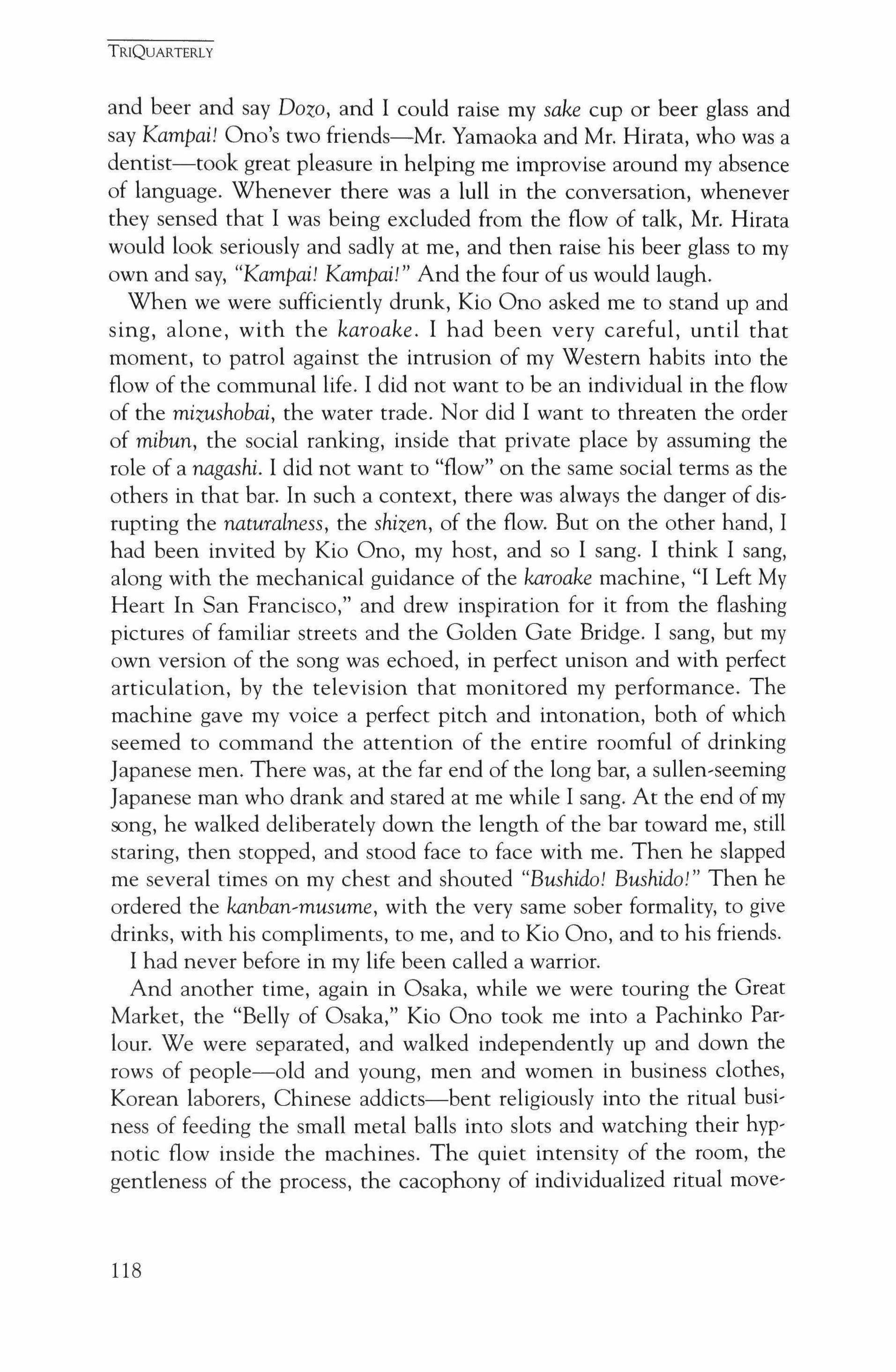
and beer and say Dozo, and I could raise my sake cup or beer glass and say Kampai! Ono's two friends-Mr. Yamaoka and Mr. Hirata, who was a dentist-took great pleasure in helping me improvise around my absence of language. Whenever there was a lull in the conversation, whenever they sensed that I was being excluded from the flow of talk, Mr. Hirata would look seriously and sadly at me, and then raise his beer glass to my own and say, "Kampai! Kampai!" And the four of us would laugh.
When we were sufficiently drunk, Kio Ono asked me to stand up and sing, alone, with the karoake. I had been very careful, until that moment, to patrol against the intrusion of my Western habits into the flow of the communal life. I did not want to be an individual in the flow of the mizushobai, the water trade. Nor did I want to threaten the order of mibun, the social ranking, inside that private place by assuming the role of a nagashi. I did not want to "flow" on the same social terms as the others in that bar. In such a context, there was always the danger of disrupting the naturalness, the shizen, of the flow. But on the other hand, I had been invited by Kio Ono, my host, and so I sang. I think I sang, along with the mechanical guidance of the karoake machine, "I Left My Heart In San Francisco," and drew inspiration for it from the flashing pictures of familiar streets and the Golden Gate Bridge. I sang, but my own version of the song was echoed, in perfect unison and with perfect articulation, by the television that monitored my performance. The machine gave my voice a perfect pitch and intonation, both of which seemed to command the attention of the entire roomful of drinking Japanese men. There was, at the far end of the long bar, a sullen-seeming Japanese man who drank and stared at me while I sang. At the end of my song, he walked deliberately down the length of the bar toward me, still staring, then stopped, and stood face to face with me. Then he slapped me several times on my chest and shouted "Bushido! Bushido!" Then he ordered the kanban-musume, with the very same sober formality, to give drinks, with his compliments, to me, and to Kio Ono, and to his friends.
I had never before in my life been called a warrior.
And another time, again in Osaka, while we were touring the Great Market, the "Belly of Osaka," Kio Ono took me into a Pachinko Parlour. We were separated, and walked independently up and down the rows of people-old and young, men and women in business clothes, Korean laborers, Chinese addicts-bent religiously into the ritual business of feeding the small metal balls into slots and watching their hypnotic flow inside the machines. The quiet intensity of the room, the gentleness of the process, the cacophony of individualized ritual move-
TRIQUARTERLY
118
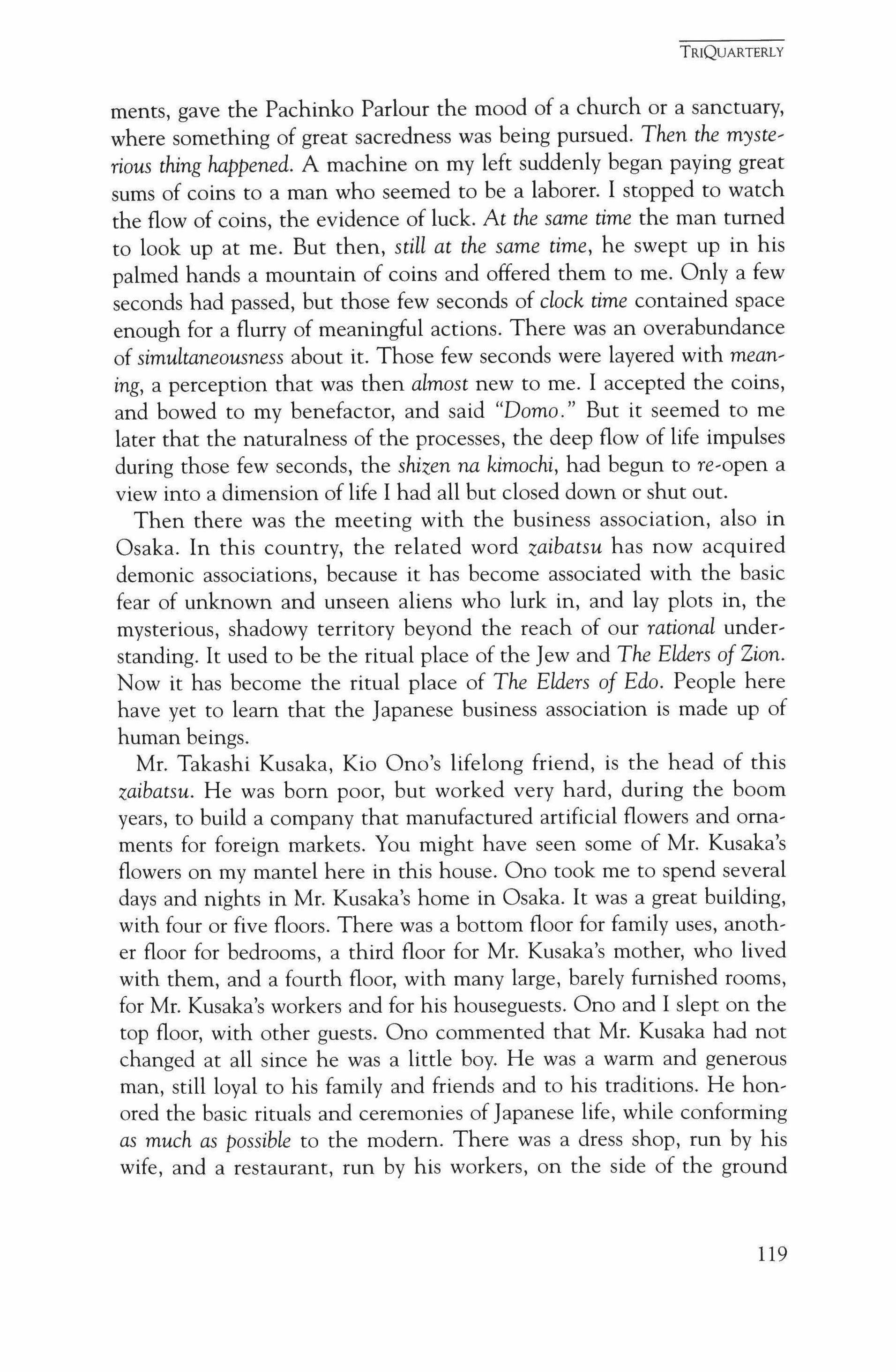
ments, gave the Pachinko Parlour the mood of a church or a sanctuary, where something of great sacredness was being pursued. Then the rnysterious thing happened. A machine on my left suddenly began paying great sums of coins to a man who seemed to be a laborer. I stopped to watch the flow of coins, the evidence of luck. At the same time the man turned to look up at me. But then, still at the same time, he swept up in his palmed hands a mountain of coins and offered them to me. Only a few seconds had passed, but those few seconds of clock time contained space enough for a flurry of meaningful actions. There was an overabundance of simultaneousness about it. Those few seconds were layered with meaning, a perception that was then almost new to me. I accepted the coins, and bowed to my benefactor, and said "Domo." But it seemed to me later that the naturalness of the processes, the deep flow of life impulses during those few seconds, the shizen na kimochi, had begun to re-open a view into a dimension of life I had all but closed down or shut out.
Then there was the meeting with the business association, also in Osaka. In this country, the related word zaibatsu has now acquired demonic associations, because it has become associated with the basic fear of unknown and unseen aliens who lurk in, and lay plots in, the mysterious, shadowy territory beyond the reach of our rational understanding. It used to be the ritual place of the Jew and The Elders of Zion. Now it has become the ritual place of The Elders of Edo. People here have yet to learn that the Japanese business association is made up of human beings.
Mr. Takashi Kusaka, Kio One's lifelong friend, is the head of this zaibatsu. He was born poor, but worked very hard, during the boom years, to build a company that manufactured artificial flowers and ornaments for foreign markets. You might have seen some of Mr. Kusaka's flowers on my mantel here in this house. Ono took me to spend several days and nights in Mr. Kusaka's home in Osaka. It was a great building, with four or five floors. There was a bottom floor for family uses, another floor for bedrooms, a third floor for Mr. Kusaka's mother, who lived with them, and a fourth floor, with many large, barely furnished rooms, for Mr. Kusaka's workers and for his houseguests. Ono and I slept on the top floor, with other guests. Ono commented that Mr. Kusaka had not changed at all since he was a little boy. He was a warm and generous man, still loyal to his family and friends and to his traditions. He honored the basic rituals and ceremonies of Japanese life, while conforming as much as possible to the modem. There was a dress shop, run by his wife, and a restaurant, run by his workers, on the side of the ground
TRIQUARTERLY
119
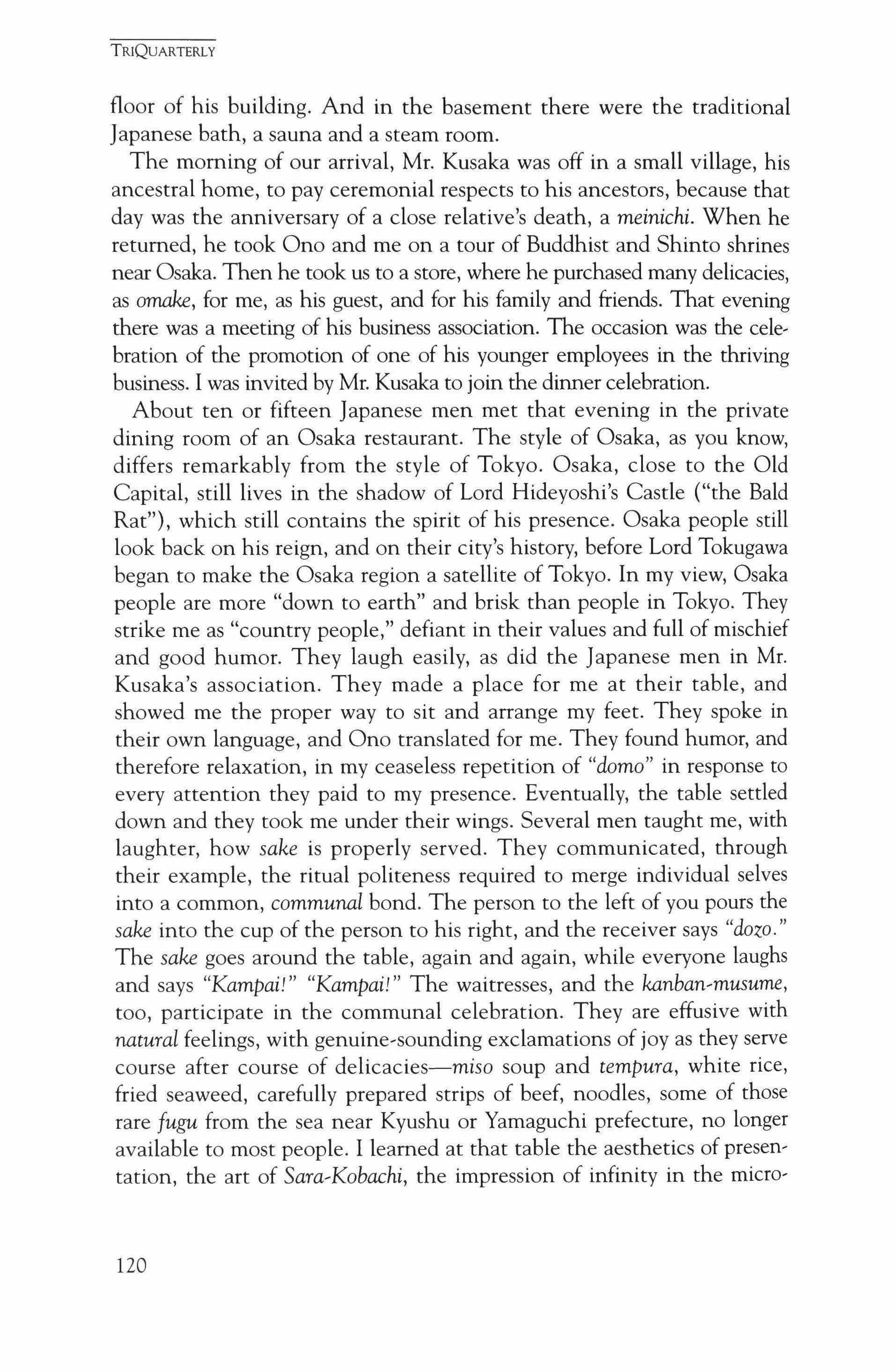
floor of his building. And in the basement there were the traditional Japanese bath, a sauna and a steam room.
The morning of our arrival, Mr. Kusaka was off in a small village, his ancestral home, to pay ceremonial respects to his ancestors, because that day was the anniversary of a close relative's death, a meinichi. When he returned, he took Ono and me on a tour of Buddhist and Shinto shrines near Osaka. Then he took us to a store, where he purchased many delicacies, as omake, for me, as his guest, and for his family and friends. That evening there was a meeting of his business association. The occasion was the celebration of the promotion of one of his younger employees in the thriving business. I was invited by Mr. Kusaka to join the dinner celebration.
About ten or fifteen Japanese men met that evening in the private dining room of an Osaka restaurant. The style of Osaka, as you know, differs remarkably from the style of Tokyo. Osaka, close to the Old Capital, still lives in the shadow of Lord Hideyoshi's Castle ("the Bald Rat"), which still contains the spirit of his presence. Osaka people still look back on his reign, and on their city's history, before Lord Tokugawa began to make the Osaka region a satellite of Tokyo. In my view, Osaka people are more "down to earth" and brisk than people in Tokyo. They strike me as "country people," defiant in their values and full of mischief and good humor. They laugh easily, as did the Japanese men in Mr. Kusaka's association. They made a place for me at their table, and showed me the proper way to sit and arrange my feet. They spoke in their own language, and Ono translated for me. They found humor, and therefore relaxation, in my ceaseless repetition of "domo" in response to every attention they paid to my presence. Eventually, the table settled down and they took me under their wings. Several men taught me, with laughter, how sake is properly served. They communicated, through their example, the ritual politeness required to merge individual selves into a common, communal bond. The person to the left of you pours the sake into the cup of the person to his right, and the receiver says "dozo." The sake goes around the table, again and again, while everyone laughs and says "Kampai!" "Kampai!" The waitresses, and the kanban-musume, too, participate in the communal celebration. They are effusive with natural feelings, with genuine-sounding exclamations of joy as they serve course after course of delicacies-miso soup and tempura, white rice, fried seaweed, carefully prepared strips of beef, noodles, some of those rare fugu from the sea near Kyushu or Yamaguchi prefecture, no longer available to most people. I learned at that table the aesthetics of presentation, the art of Sara-Kobachi, the impression of infinity in the micro-
TRIQUARTERLY
120
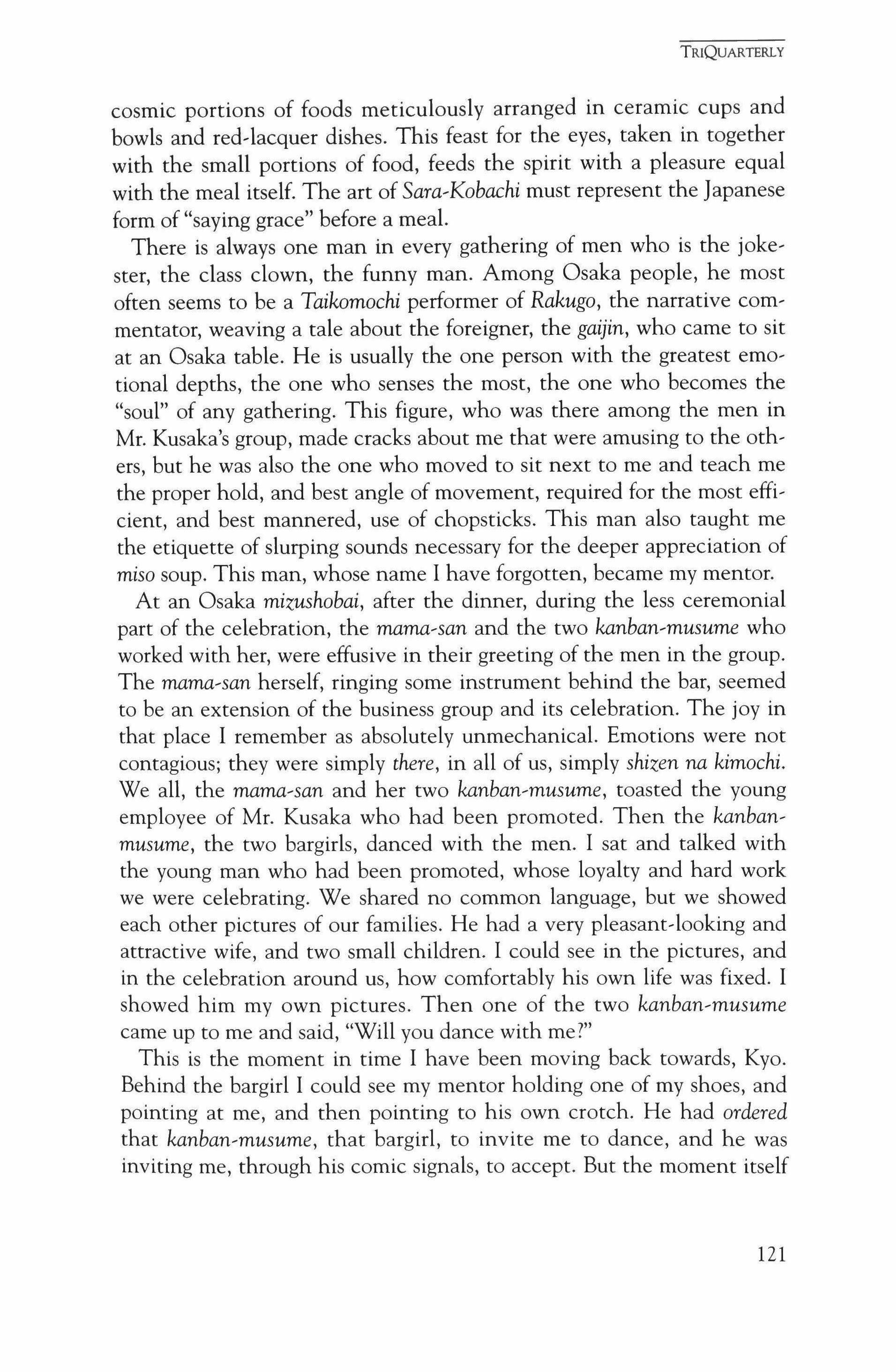
cosmic portions of foods meticulously arranged in ceramic cups and bowls and red-lacquer dishes. This feast for the eyes, taken in together with the small portions of food, feeds the spirit with a pleasure equal with the meal itself. The art of Sara-Kobachi must represent the Japanese form of "saying grace" before a meal.
There is always one man in every gathering of men who is the jokester, the class clown, the funny man. Among Osaka people, he most often seems to be a Taikomochi performer of Rakugo, the narrative commentator, weaving a tale about the foreigner, the gaijin, who came to sit at an Osaka table. He is usually the one person with the greatest emotional depths, the one who senses the most, the one who becomes the "soul" of any gathering. This figure, who was there among the men in Mr. Kusaka's group, made cracks about me that were amusing to the others, but he was also the one who moved to sit next to me and teach me the proper hold, and best angle of movement, required for the most efficient, and best mannered, use of chopsticks. This man also taught me the etiquette of slurping sounds necessary for the deeper appreciation of miso soup. This man, whose name I have forgotten, became my mentor.
At an Osaka mizushobai, after the dinner, during the less ceremonial part of the celebration, the mama-san and the two kanban-musume who worked with her, were effusive in their greeting of the men in the group. The mama-san herself, ringing some instrument behind the bar, seemed to be an extension of the business group and its celebration. The joy in that place I remember as absolutely unmechanical. Emotions were not contagious; they were simply there, in all of us, simply shizen na kimochi. We all, the mama-san and her two kanban-musume, toasted the young employee of Mr. Kusaka who had been promoted. Then the kanbanmusume, the two bargirls, danced with the men. I sat and talked with the young man who had been promoted, whose loyalty and hard work we were celebrating. We shared no common language, but we showed each other pictures of our families. He had a very pleasant-looking and attractive wife, and two small children. I could see in the pictures, and in the celebration around us, how comfortably his own life was fixed. I showed him my own pictures. Then one of the two kanban-musume came up to me and said, "Will you dance with me?"
This is the moment in time I have been moving back towards, Kyo. Behind the bargirl I could see my mentor holding one of my shoes, and pointing at me, and then pointing to his own crotch. He had ordered that kanban-musume, that bargirl, to invite me to dance, and he was inviting me, through his comic signals, to accept. But the moment itself
TRIQUARTERLY
121
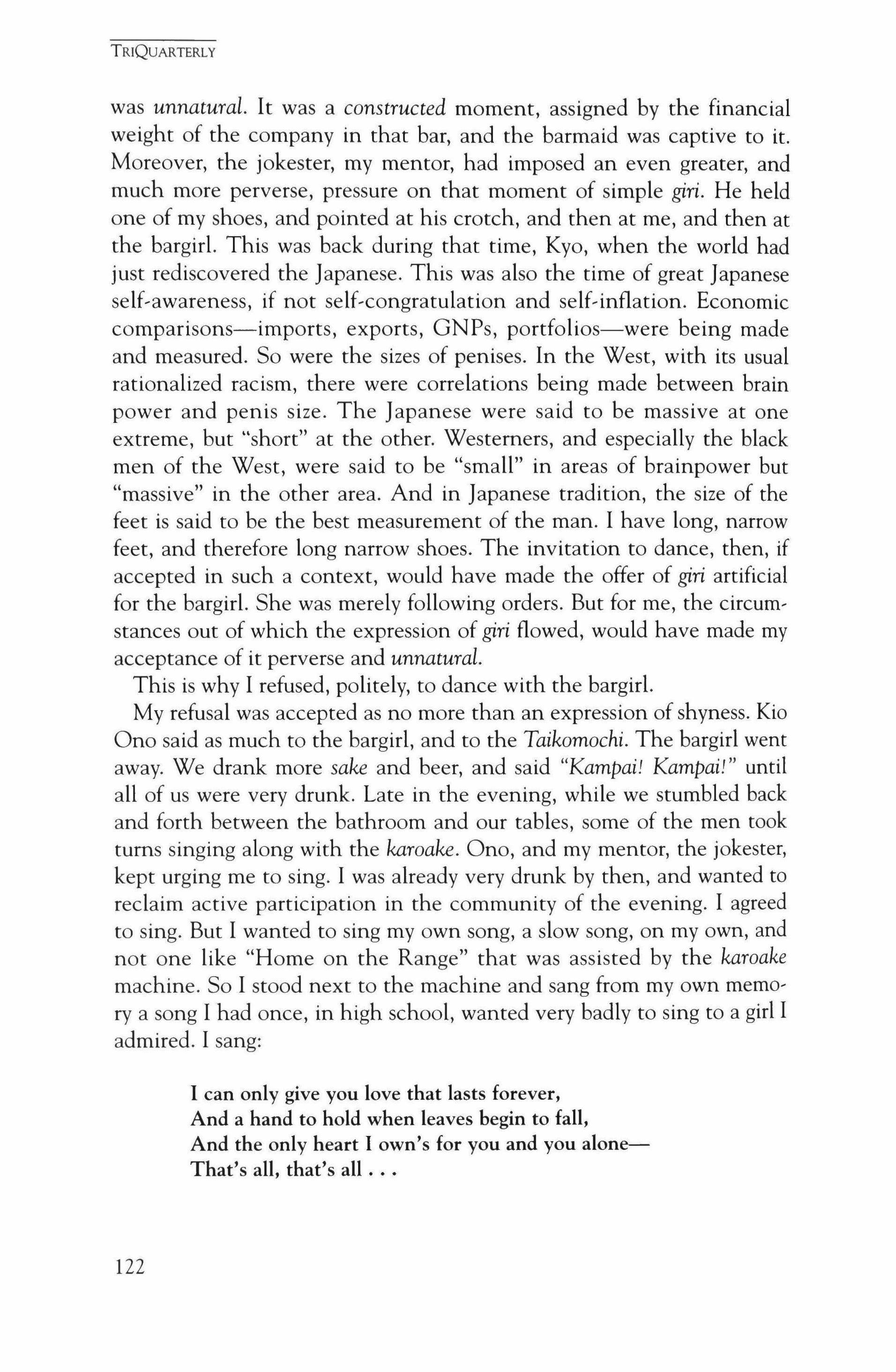
was unnatural. It was a constructed moment, assigned by the financial weight of the company in that bar, and the barmaid was captive to it. Moreover, the jokester, my mentor, had imposed an even greater, and much more perverse, pressure on that moment of simple giri. He held one of my shoes, and pointed at his crotch, and then at me, and then at the bargirl. This was back during that time, Kyo, when the world had just rediscovered the Japanese. This was also the time of great Japanese self-awareness, if not self-congratulation and self-inflation. Economic comparisons-imports, exports, GNPs, portfolios-were being made and measured. So were the sizes of penises. In the West, with its usual rationalized racism, there were correlations being made between brain power and penis size. The Japanese were said to be massive at one extreme, but "short" at the other. Westerners, and especially the black men of the West, were said to be "small" in areas of brainpower but "massive" in the other area. And in Japanese tradition, the size of the feet is said to be the best measurement of the man. I have long, narrow feet, and therefore long narrow shoes. The invitation to dance, then, if accepted in such a context, would have made the offer of gin artificial for the bargirl. She was merely following orders. But for me, the circumstances out of which the expression of gin flowed, would have made my acceptance of it perverse and unnatural.
This is why I refused, politely, to dance with the bargirl.
My refusal was accepted as no more than an expression of shyness. Kio Ono said as much to the bargirl, and to the Taikomochi. The bargirl went away. We drank more sake and beer, and said "Kampai! Kampai!" until all of us were very drunk. Late in the evening, while we stumbled back and forth between the bathroom and our tables, some of the men took turns singing along with the karoake. Ono, and my mentor, the jokester, kept urging me to sing. I was already very drunk by then, and wanted to reclaim active participation in the community of the evening. I agreed to sing. But I wanted to sing my own song, a slow song, on my own, and not one like "Home on the Range" that was assisted by the karoake machine. So I stood next to the machine and sang from my own memory a song I had once, in high school, wanted very badly to sing to a girl I admired. I sang:
I can only give you love that lasts forever, And a hand to hold when leaves begin to fall, And the only heart I own's for you and you aloneThat's all, that's all
TRIQUARTERLY
122
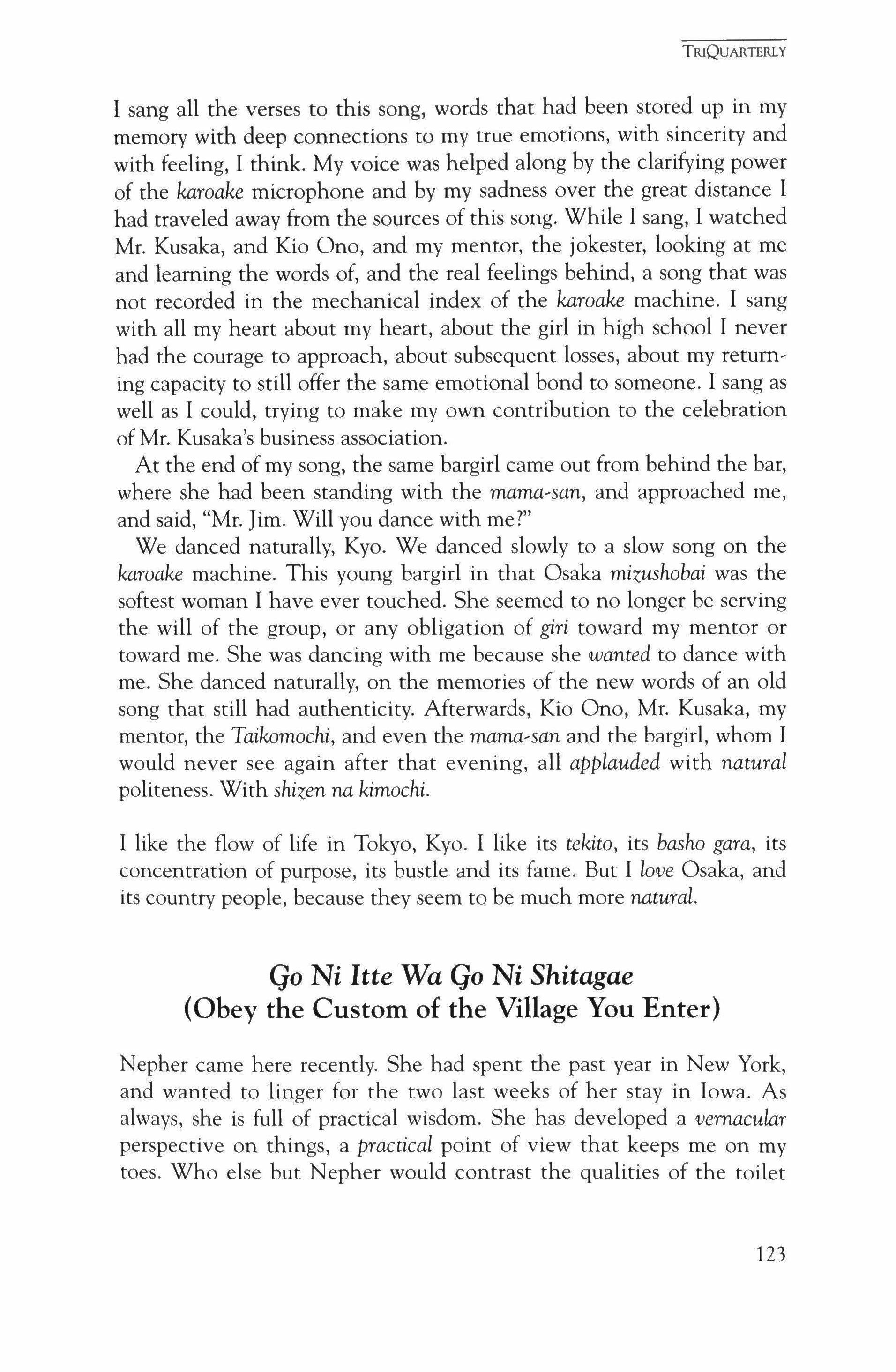
I sang all the verses to this song, words that had been stored up in my memory with deep connections to my true emotions, with sincerity and with feeling, I think. My voice was helped along by the clarifying power of the karoake microphone and by my sadness over the great distance I had traveled away from the sources of this song. While I sang, I watched Mr. Kusaka, and Kio Ono, and my mentor, the jokester, looking at me and learning the words of, and the real feelings behind, a song that was not recorded in the mechanical index of the karoake machine. I sang with all my heart about my heart, about the girl in high school I never had the courage to approach, about subsequent losses, about my returning capacity to still offer the same emotional bond to someone. I sang as well as I could, trying to make my own contribution to the celebration of Mr. Kusaka's business association.
At the end of my song, the same bargirl came out from behind the bar, where she had been standing with the mama-san, and approached me, and said, "Mr. Jim. Will you dance with me?"
We danced naturally, Kyo. We danced slowly to a slow song on the karoake machine. This young bargirl in that Osaka mizushobai was the softest woman I have ever touched. She seemed to no longer be serving the will of the group, or any obligation of giri toward my mentor or toward me. She was dancing with me because she wanted to dance with me. She danced naturally, on the memories of the new words of an old song that still had authenticity. Afterwards, Kio Ono, Mr. Kusaka, my mentor, the Taikomochi, and even the mama-san and the bargirl, whom I would never see again after that evening, all applauded with natural politeness. With shizen na kimochi.
I like the flow of life in Tokyo, Kyo. I like its tekito, its basho gara, its concentration of purpose, its bustle and its fame. But I love Osaka, and its country people, because they seem to be much more natural.
Go Ni Itte Wa Go Ni Shitagae
(Obey the Custom of the Village You Enter)
Nepher came here recently. She had spent the past year in New York, and wanted to linger for the two last weeks of her stay in Iowa. As always, she is full of practical wisdom. She has developed a vernacular perspective on things, a practical point of view that keeps me on my toes. Who else but Nepher would contrast the qualities of the toilet
TRIQUARTERLY
123
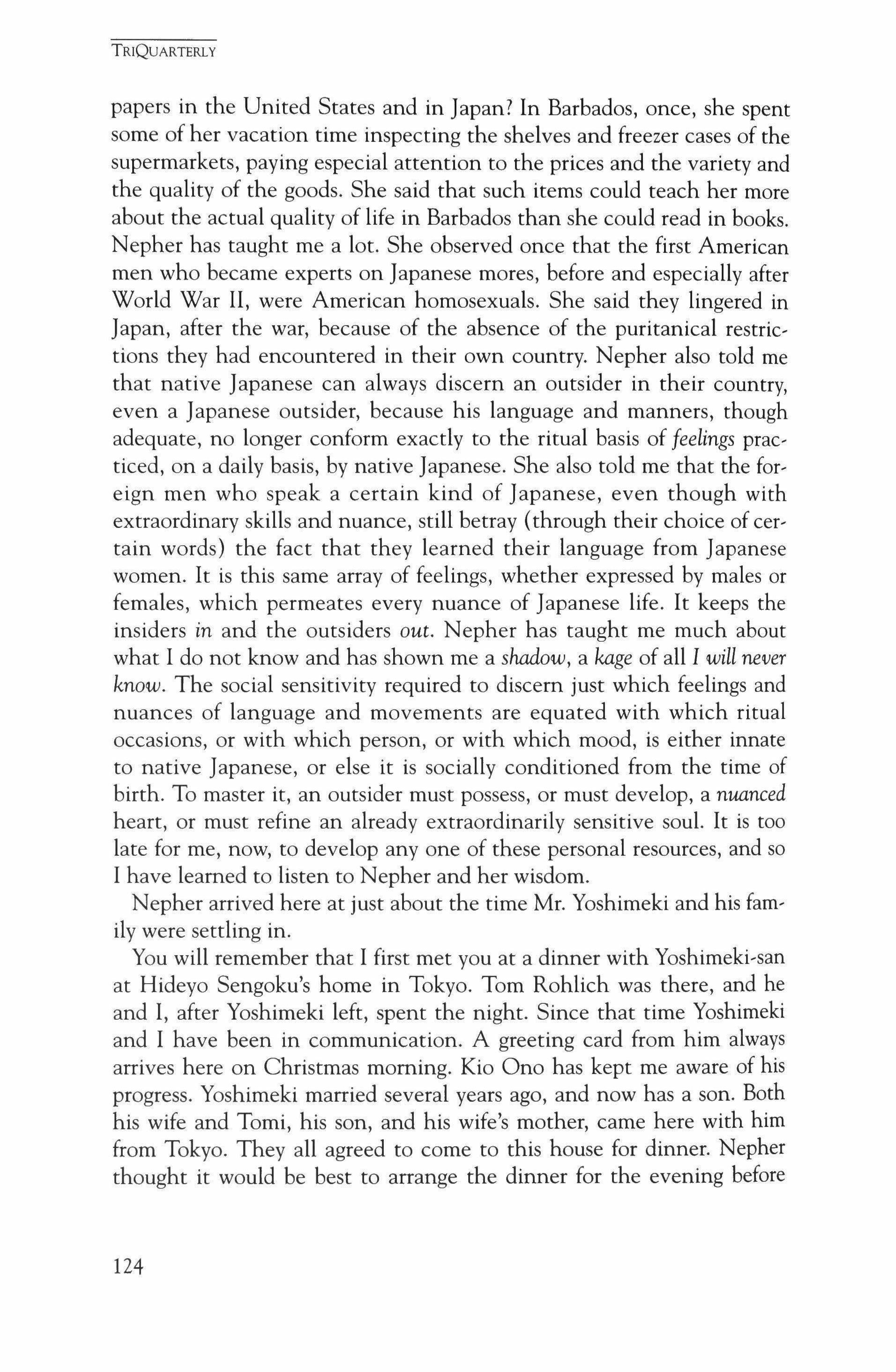
papers in the United States and in Japan? In Barbados, once, she spent some of her vacation time inspecting the shelves and freezer cases of the supermarkets, paying especial attention to the prices and the variety and the quality of the goods. She said that such items could teach her more about the actual quality of life in Barbados than she could read in books. Nepher has taught me a lot. She observed once that the first American men who became experts on Japanese mores, before and especially after World War II, were American homosexuals. She said they lingered in Japan, after the war, because of the absence of the puritanical restrictions they had encountered in their own country. Nepher also told me that native Japanese can always discern an outsider in their country, even a Japanese outsider, because his language and manners, though adequate, no longer conform exactly to the ritual basis of feelings practiced, on a daily basis, by native Japanese. She also told me that the foreign men who speak a certain kind of Japanese, even though with extraordinary skills and nuance, still betray (through their choice of certain words) the fact that they learned their language from Japanese women. It is this same array of feelings, whether expressed by males or females, which permeates every nuance of Japanese life. It keeps the insiders in and the outsiders out. Nepher has taught me much about what I do not know and has shown me a shadow, a kage of all I will never know. The social sensitivity required to discern just which feelings and nuances of language and movements are equated with which ritual occasions, or with which person, or with which mood, is either innate to native Japanese, or else it is socially conditioned from the time of birth. To master it, an outsider must possess, or must develop, a nuanced heart, or must refine an already extraordinarily sensitive soul. It is too late for me, now, to develop anyone of these personal resources, and so I have learned to listen to Nepher and her wisdom.
Nepher arrived here at just about the time Mr. Yoshimeki and his family were settling in.
You will remember that I first met you at a dinner with Yoshimeki-san at Hideyo Sengoku's home in Tokyo. Tom Rohlich was there, and he and I, after Yoshimeki left, spent the night. Since that time Yoshimeki and I have been in communication. A greeting card from him always arrives here on Christmas morning. Kio Ono has kept me aware of his progress. Yoshimeki married several years ago, and now has a son. Both his wife and Tomi, his son, and his wife's mother, came here with him from Tokyo. They all agreed to come to this house for dinner. Nepher thought it would be best to arrange the dinner for the evening before
TRIQUARTERLY
124
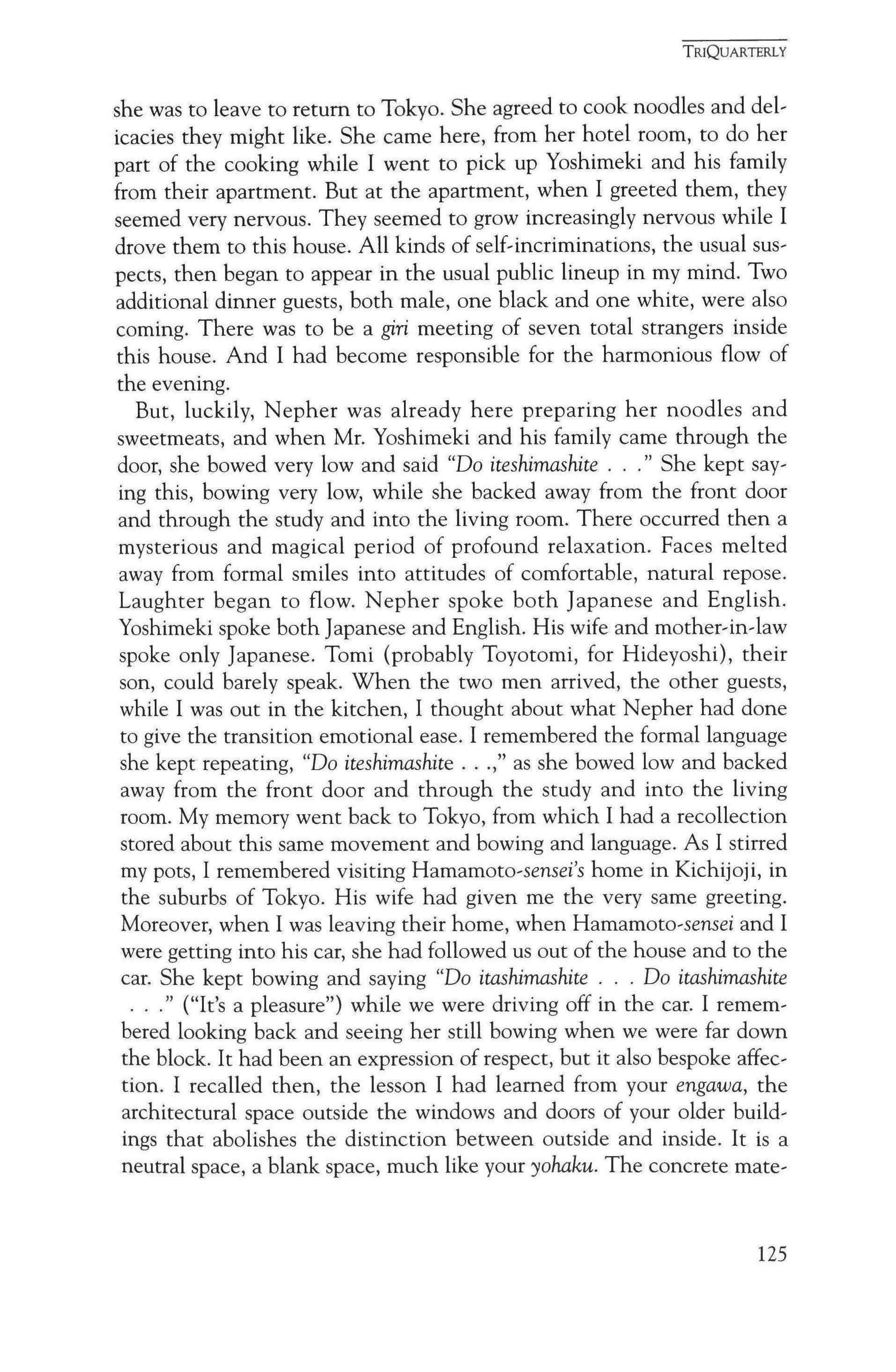
she was to leave to return to Tokyo. She agreed to cook noodles and delicacies they might like. She came here, from her hotel room, to do her part of the cooking while I went to pick up Yoshimeki and his family from their apartment. But at the apartment, when I greeted them, they seemed very nervous. They seemed to grow increasingly nervous while I drove them to this house. All kinds of self-incriminations, the usual suspects, then began to appear in the usual public lineup in my mind. Two additional dinner guests, both male, one black and one white, were also coming. There was to be a gin meeting of seven total strangers inside this house. And I had become responsible for the harmonious flow of the evening.
But, luckily, Nepher was already here preparing her noodles and sweetmeats, and when Mr. Yoshimeki and his family came through the door, she bowed very low and said "Do iteshimashite She kept saying this, bowing very low, while she backed away from the front door and through the study and into the living room. There occurred then a mysterious and magical period of profound relaxation. Faces melted away from formal smiles into attitudes of comfortable, natural repose. Laughter began to flow. Nepher spoke both Japanese and English. Yoshimeki spoke both Japanese and English. His wife and mother-in-law spoke only Japanese. Tomi (probably Toyotomi, for Hideyoshi), their son, could barely speak. When the two men arrived, the other guests, while I was out in the kitchen, I thought about what Nepher had done to give the transition emotional ease. I remembered the formal language she kept repeating, "Do iteshimashite ," as she bowed low and backed away from the front door and through the study and into the living room. My memory went back to Tokyo, from which I had a recollection stored about this same movement and bowing and language. As I stirred my pots, I remembered visiting Hamamoto-sensei's home in Kichijoji, in the suburbs of Tokyo. His wife had given me the very same greeting. Moreover, when I was leaving their home, when Hamamoto-sensei and I were getting into his car, she had followed us out of the house and to the car. She kept bowing and saying "Do itashimashite Do itashimashite ("It's a pleasure") while we were driving off in the car. I remembered looking back and seeing her still bowing when we were far down the block. It had been an expression of respect, but it also bespoke affection. I recalled then, the lesson I had learned from your engawa, the architectural space outside the windows and doors of your older buildings that abolishes the distinction between outside and inside. It is a neutral space, a blank space, much like your yohaku. The concrete mate-
TRIQUARTERLY
125
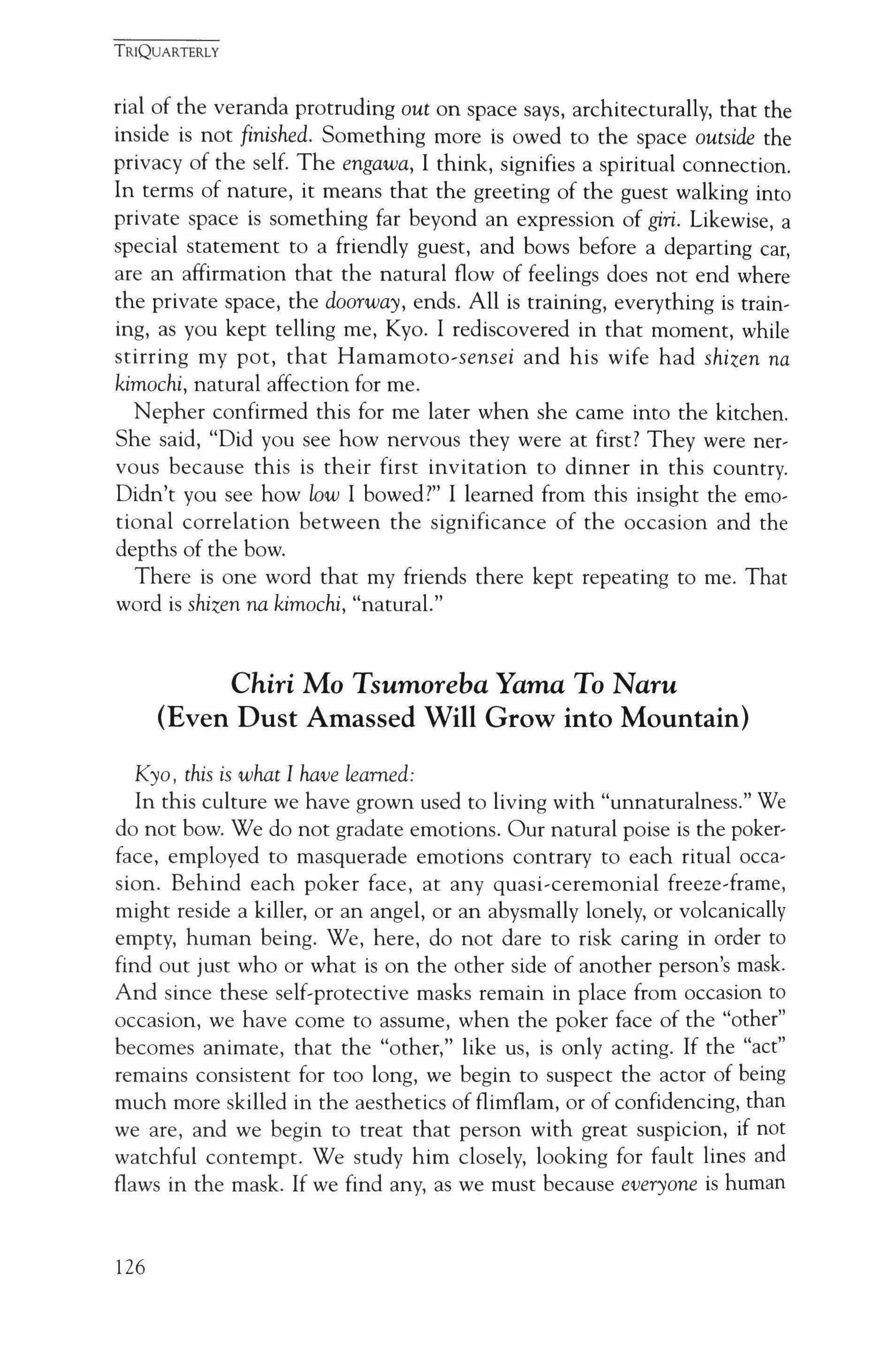
rial of the veranda protruding out on space says, architecturally, that the inside is not finished. Something more is owed to the space outside the privacy of the self. The engawa, I think, signifies a spiritual connection. In terms of nature, it means that the greeting of the guest walking into private space is something far beyond an expression of giri. Likewise, a special statement to a friendly guest, and bows before a departing car, are an affirmation that the natural flow of feelings does not end where the private space, the doorway, ends. All is training, everything is training, as you kept telling me, Kyo. I rediscovered in that moment, while stirring my pot, that Hamamoto-sensei and his wife had shizen na kimochi, natural affection for me.
Nepher confirmed this for me later when she came into the kitchen. She said, "Did you see how nervous they were at first? They were nervous because this is their first invitation to dinner in this country. Didn't you see how low I bowed?" I learned from this insight the emotional correlation between the significance of the occasion and the depths of the bow.
There is one word that my friends there kept repeating to me. That word is shizen na kimochi, "natural."
Chiri Mo Tsumoreba
Yarna To Naru (Even Dust Amassed Will Grow into Mountain)
Kyo, this is what I have learned:
In this culture we have grown used to living with "unnaturalness." We do not bow. We do not gradate emotions. Our natural poise is the pokerface, employed to masquerade emotions contrary to each ritual occasion. Behind each poker face, at any quasi-ceremonial freeze-frame, might reside a killer, or an angel, or an abysmally lonely, or volcanically empty, human being. We, here, do not dare to risk caring in order to find out just who or what is on the other side of another person's mask. And since these self-protective masks remain in place from occasion to occasion, we have come to assume, when the poker face of the "other" becomes animate, that the "other," like us, is only acting. If the "act" remains consistent for too long, we begin to suspect the actor of being much more skilled in the aesthetics of flimflam, or of confidencing, than we are, and we begin to treat that person with great suspicion, if not watchful contempt. We study him closely, looking for fault lines and flaws in the mask. If we find any, as we must because everyone is human
TRIQUARTERLY
126
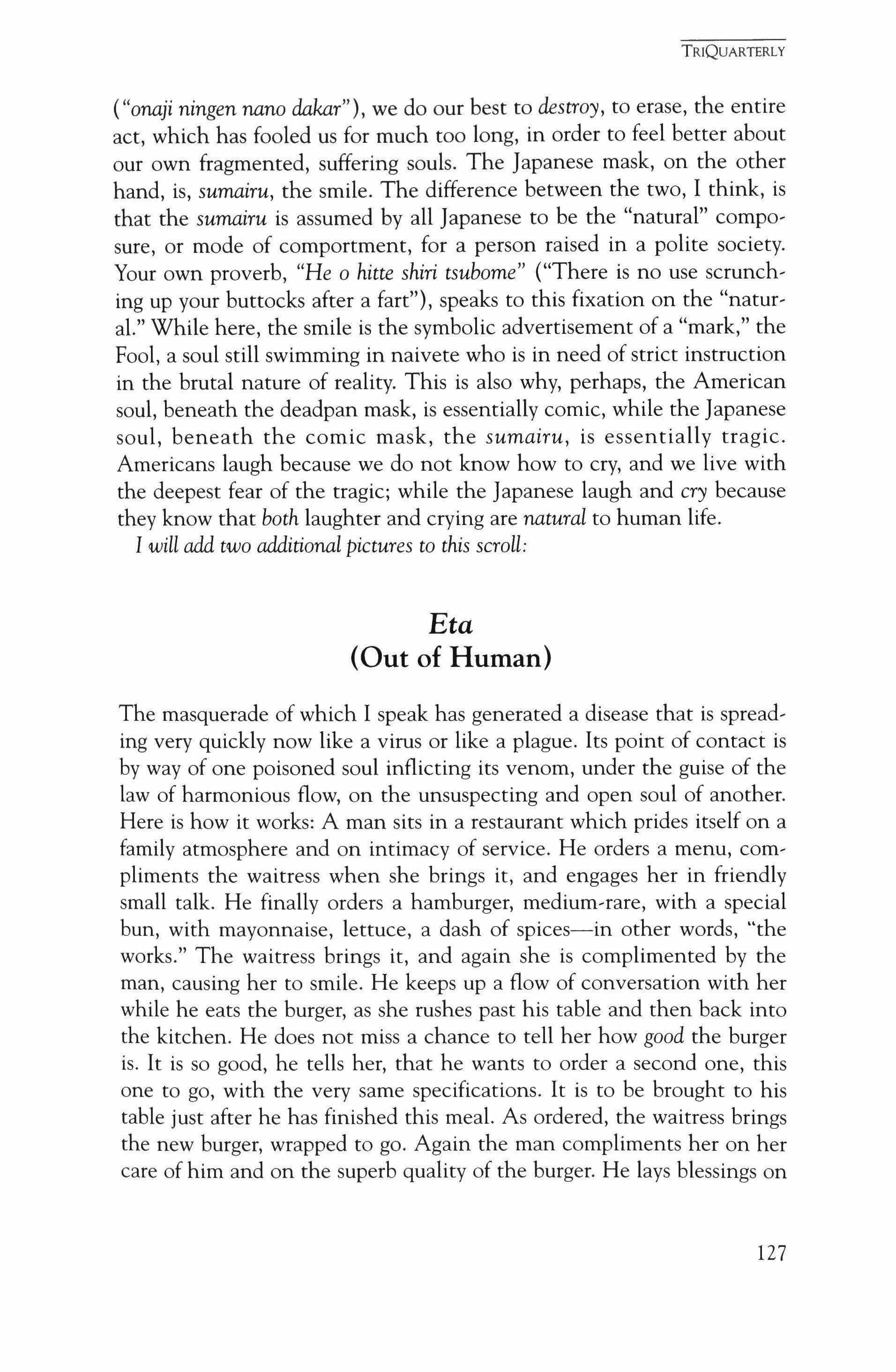
( "onaji ningen nano dakar"), we do our best to destroy, to erase, the entire act, which has fooled us for much too long, in order to feel better about our own fragmented, suffering souls. The Japanese mask, on the other hand, is, sumairu, the smile. The difference between the two, I think, is that the sumairu is assumed by all Japanese to be the "natural" composure, or mode of comportment, for a person raised in a polite society. Your own proverb, "He 0 hitte shiri tsubome" ("There is no use scrunching up your buttocks after a fart"), speaks to this fixation on the "natural." While here, the smile is the symbolic advertisement of a "mark," the Fool, a soul still swimming in naivete who is in need of strict instruction in the brutal nature of reality. This is also why, perhaps, the American soul, beneath the deadpan mask, is essentially comic, while the Japanese soul, beneath the comic mask, the sumairu, is essentially tragic. Americans laugh because we do not know how to cry, and we live with the deepest fear of the tragic; while the Japanese laugh and cry because they know that both laughter and crying are natural to human life. I will add two additional pictures to this scroll:
Eta (Out of Human)
The masquerade of which I speak has generated a disease that is spreading very quickly now like a virus or like a plague. Its point of contact is by way of one poisoned soul inflicting its venom, under the guise of the law of harmonious flow, on the unsuspecting and open soul of another. Here is how it works: A man sits in a restaurant which prides itself on a family atmosphere and on intimacy of service. He orders a menu, compliments the waitress when she brings it, and engages her in friendly small talk. He finally orders a hamburger, medium-rare, with a special bun, with mayonnaise, lettuce, a dash of spices-in other words, "the works." The waitress brings it, and again she is complimented by the man, causing her to smile. He keeps up a flow of conversation with her while he eats the burger, as she rushes past his table and then back into the kitchen. He does not miss a chance to tell her how good the burger is. It is so good, he tells her, that he wants to order a second one, this one to go, with the very same specifications. It is to be brought to his table just after he has finished this meal. As ordered, the waitress brings the new burger, wrapped to go. Again the man compliments her on her care of him and on the superb quality of the burger. He lays blessings on
TRIQUARTERLY
127
both the waitress and the family restaurant. Then he goes to the counter to pay his bill. There he says, in a loud and angry voice, loud enough for the waitress cleaning off his table to hear: "This hamburger is cold. I ordered it hot. 1'm not going to pay for it!
The spirit of the waitress is wounded, because she has allowed herself to be open to the man.
The same man goes into a department store in another city. He walks from store to store, inspecting shirts and shoes and jackets. In one store he sees a suit that has been reduced in price. He tries it on. He engages the clerk in detailed conversation about its quality, its fit on him, its reduced price. He takes a very long time getting the busy clerk to admit to liking the suit, and the way it fits, as much as the man himself. He finally decides to purchase the suit, but only if a tailoring adjustment can be made immediately on the premises, within the half-hour. The busy clerk says this can be done. The man goes out and inspects the goods in other stores. When he returns, within the hour, the suit is ready and encased expertly in a plastic bag. The man inspects the suit again, compliments the clerk on his promptness. But then he says, with the same sudden change of mood as before, "I've changed my mind. I don't like this suit after all. Take it back!"
Something evil has occurred during these two exchanges. The expectations of two naive and trusting souls have been raised, with respect to the most simple of things, and have then been crushed. The man seems respectable. From all outward appearances, he seems to be a model citizen. But there is a meanness in him, a smallness of soul, or perhaps it is a terror ofsoul, that causes him to make a lifestyle, an art, ofscoping out small particles of substance from the souls, the spirits, of others. This is only one man. But his compatriots are legion. This is the new form of human being that is emerging here. Your word eta-"out-of-human"-may come close to defining people here who have lost the capacity to be human.
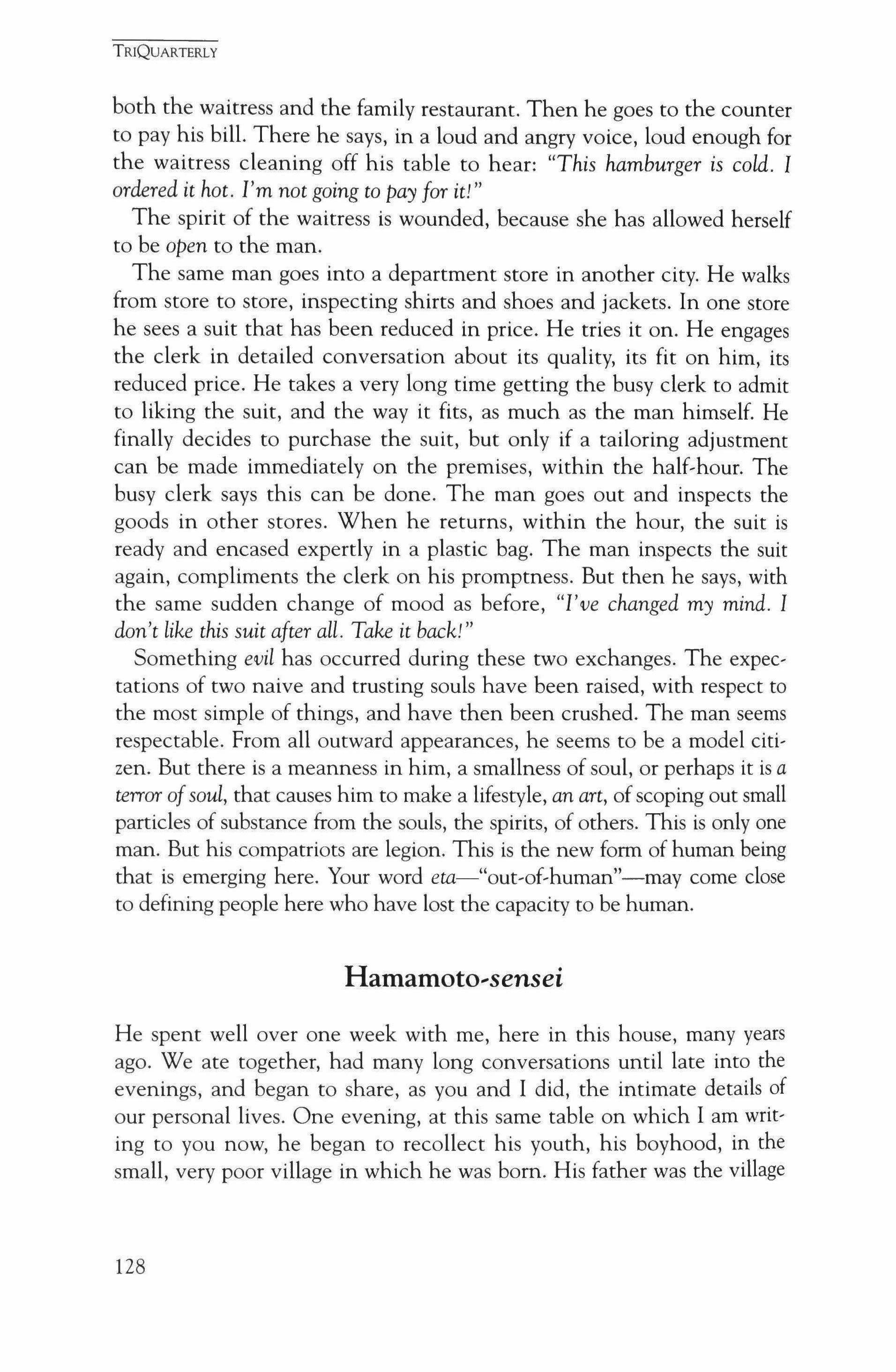
He spent well over one week with me, here in this house, many years ago. We ate together, had many long conversations until late into the evenings, and began to share, as you and I did, the intimate details of our personal lives. One evening, at this same table on which I am writing to you now, he began to recollect his youth, his boyhood, in the small, very poor village in which he was born. His father was the village
TRIQUARTERLY
128
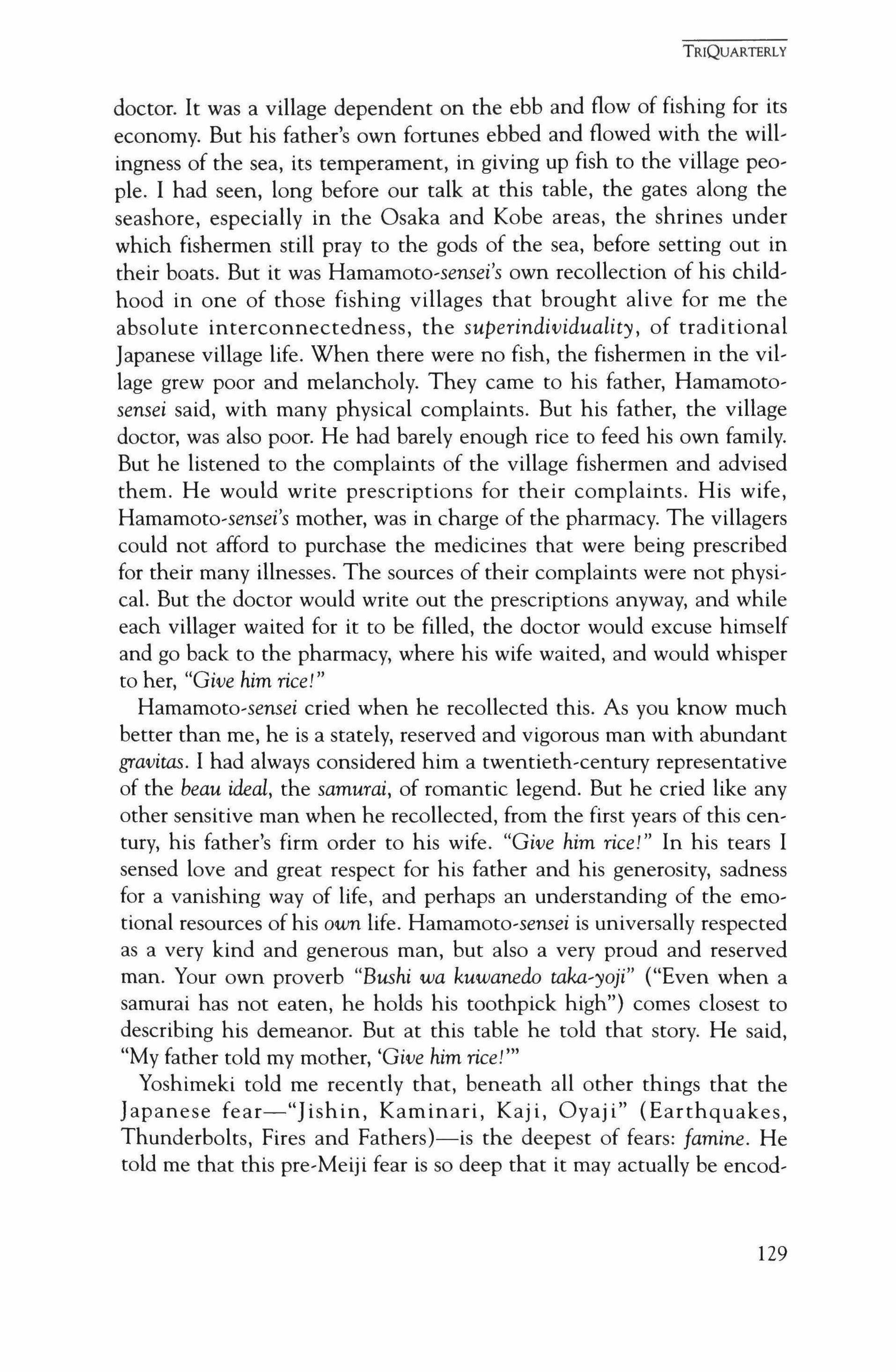
doctor. It was a village dependent on the ebb and flow of fishing for its economy. But his father's own fortunes ebbed and flowed with the willingness of the sea, its temperament, in giving up fish to the village people. I had seen, long before our talk at this table, the gates along the seashore, especially in the Osaka and Kobe areas, the shrines under which fishermen still pray to the gods of the sea, before setting out in their boats. But it was Hamamoto-sensei's own recollection of his childhood in one of those fishing villages that brought alive for me the absolute interconnectedness, the superindividuality, of traditional Japanese village life. When there were no fish, the fishermen in the village grew poor and melancholy. They came to his father, Hamamotosensei said, with many physical complaints. But his father, the village doctor, was also poor. He had barely enough rice to feed his own family. But he listened to the complaints of the village fishermen and advised them. He would write prescriptions for their complaints. His wife, Hamamoto-sensei's mother, was in charge of the pharmacy. The villagers could not afford to purchase the medicines that were being prescribed for their many illnesses. The sources of their complaints were not physical. But the doctor would write out the prescriptions anyway, and while each villager waited for it to be filled, the doctor would excuse himself and go back to the pharmacy, where his wife waited, and would whisper to her, "Give him rice!"
Hamamoto-sensei cried when he recollected this. As you know much better than me, he is a stately, reserved and vigorous man with abundant gravitas. I had always considered him a twentieth-century representative of the beau ideal, the samurai, of romantic legend. But he cried like any other sensitive man when he recollected, from the first years of this century, his father's firm order to his wife. "Give him rice!" In his tears I sensed love and great respect for his father and his generosity, sadness for a vanishing way of life, and perhaps an understanding of the ernotional resources of his own life. Hamamoto-sensei is universally respected as a very kind and generous man, but also a very proud and reserved man. Your own proverb "Bushi wa kuwanedo taka�yoji" ("Even when a samurai has not eaten, he holds his toothpick high") comes closest to describing his demeanor. But at this table he told that story. He said, "My father told my mother, 'Give him rice!'"
Yoshimeki told me recently that, beneath all other things that the Japanese fear-"Jishin, Kaminari, Kaji, Oyaji" {Earthquakes, Thunderbolts, Fires and Fathers)-is the deepest of fears: famine. He told me that this pre-Meiji fear is so deep that it may actually be encod-
TRIQUARTERLY
129
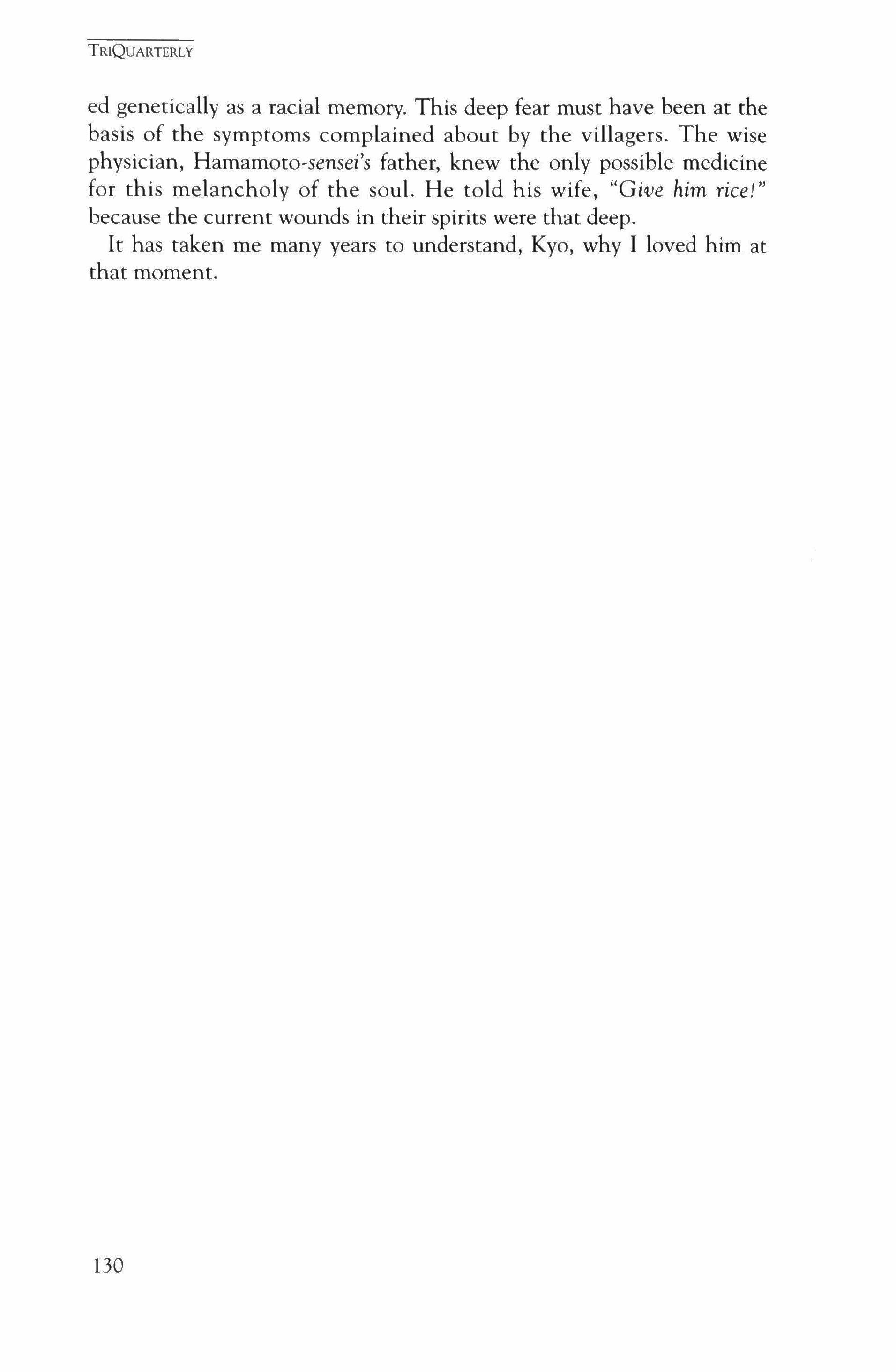
ed genetically as a racial memory. This deep fear must have been at the basis of the symptoms complained about by the villagers. The wise physician, Hamamoto-sensei's father, knew the only possible medicine for this melancholy of the soul. He told his wife, "Give him rice!" because the current wounds in their spirits were that deep. It has taken me many years to understand, Kyo, why I loved him at that moment.
TRIQUARTERLY
130
The Walls: An Interview
Sandra McPherson
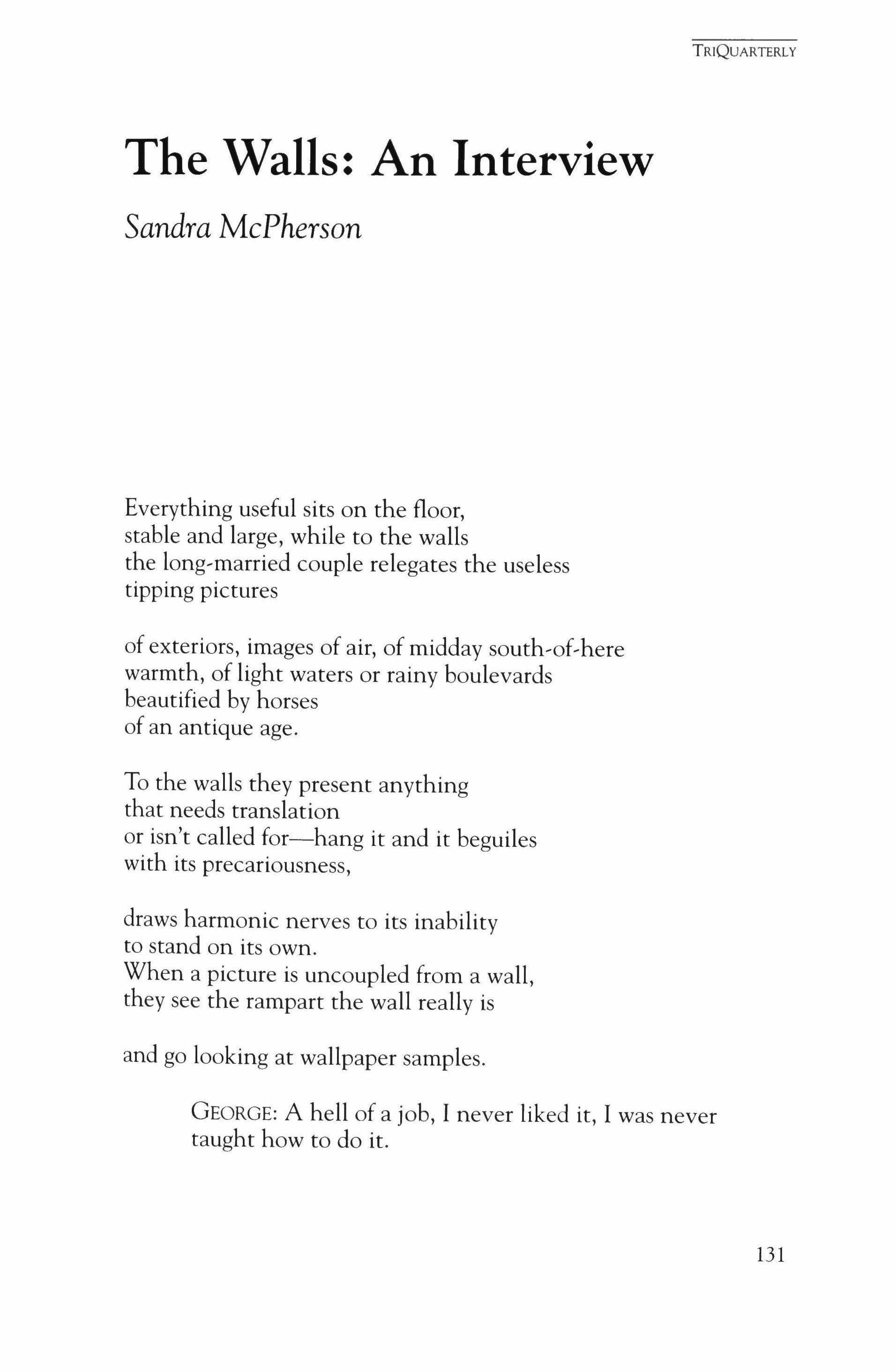
Everything useful sits on the floor, stable and large, while to the walls the long-married couple relegates the useless tipping pictures of exteriors, images of air, of midday south-of-here warmth, of light waters or rainy boulevards beautified by horses of an antique age.
To the walls they present anything that needs translation or isn't called for-hang it and it beguiles with its precariousness, draws harmonic nerves to its inability to stand on its own. When a picture is uncoupled from a wall, they see the rampart the wall really is and go looking at wallpaper samples.
GEORGE: A hell of a job, I never liked it, I was never taught how to do it.
TRIQUARTERLY
131
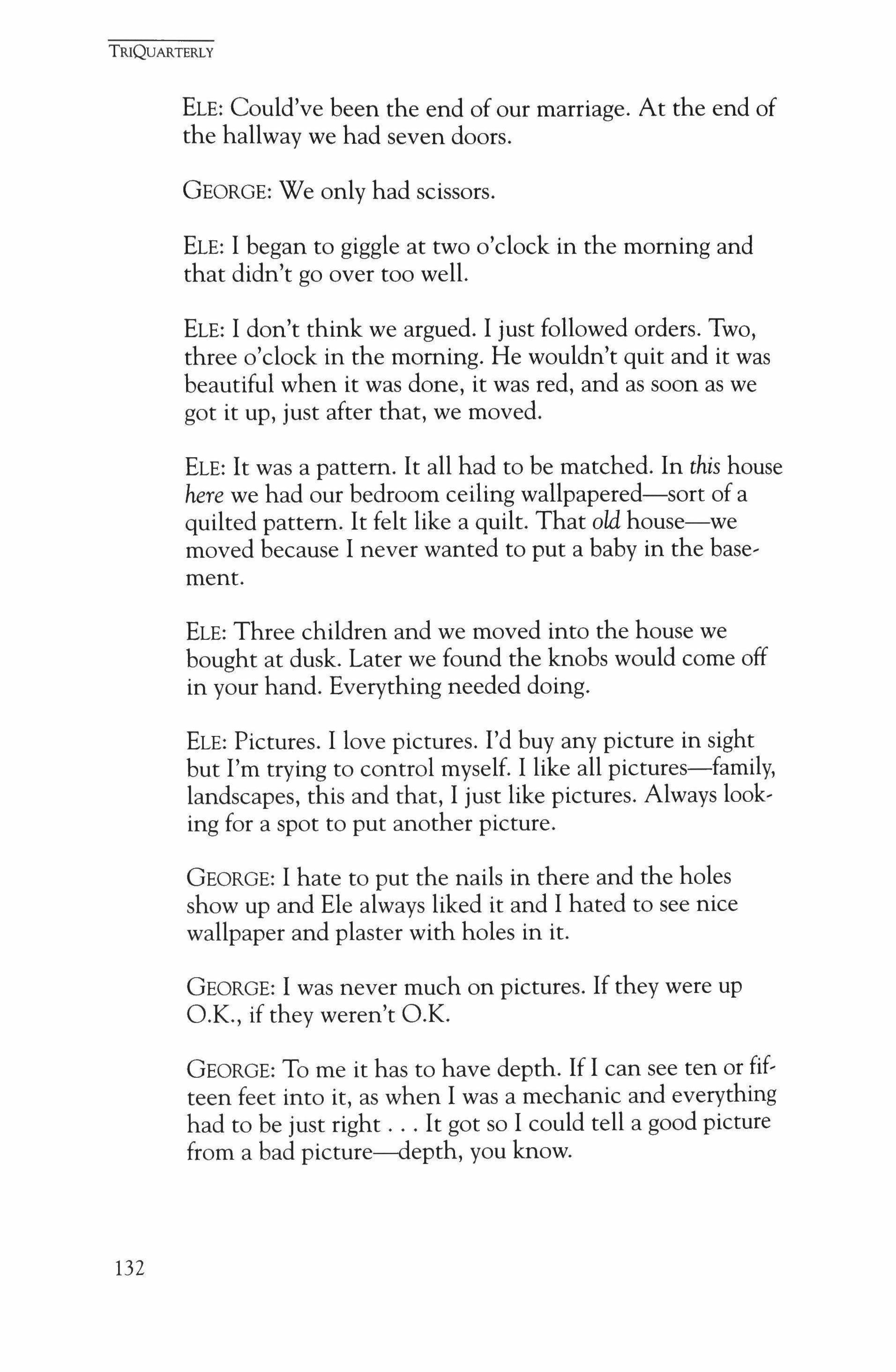
ELE: Could've been the end of our marriage. At the end of the hallway we had seven doors.
GEORGE: We only had scissors.
ELE: I began to giggle at two o'clock in the morning and that didn't go over too well.
ELE: I don't think we argued. I just followed orders. Two, three o'clock in the morning. He wouldn't quit and it was beautiful when it was done, it was red, and as soon as we got it up, just after that, we moved.
ELE: It was a pattern. It all had to be matched. In this house here we had our bedroom ceiling wallpapered-sort of a quilted pattern. It felt like a quilt. That old house-we moved because I never wanted to put a baby in the basement.
ELE: Three children and we moved into the house we bought at dusk. Later we found the knobs would come off in your hand. Everything needed doing.
ELE: Pictures. I love pictures. I'd buy any picture in sight but I'm trying to control myself. I like all pictures-family, landscapes, this and that, I just like pictures. Always looking for a spot to put another picture.
GEORGE: I hate to put the nails in there and the holes show up and Ele always liked it and I hated to see nice wallpaper and plaster with holes in it.
GEORGE: I was never much on pictures. If they were up O.K., if they weren't O.K.
GEORGE: To me it has to have depth. If I can see ten or fifteen feet into it, as when I was a mechanic and everything had to be just right It got so I could tell a good picture from a bad picture-depth, you know.
TRIQUARTERLY
132
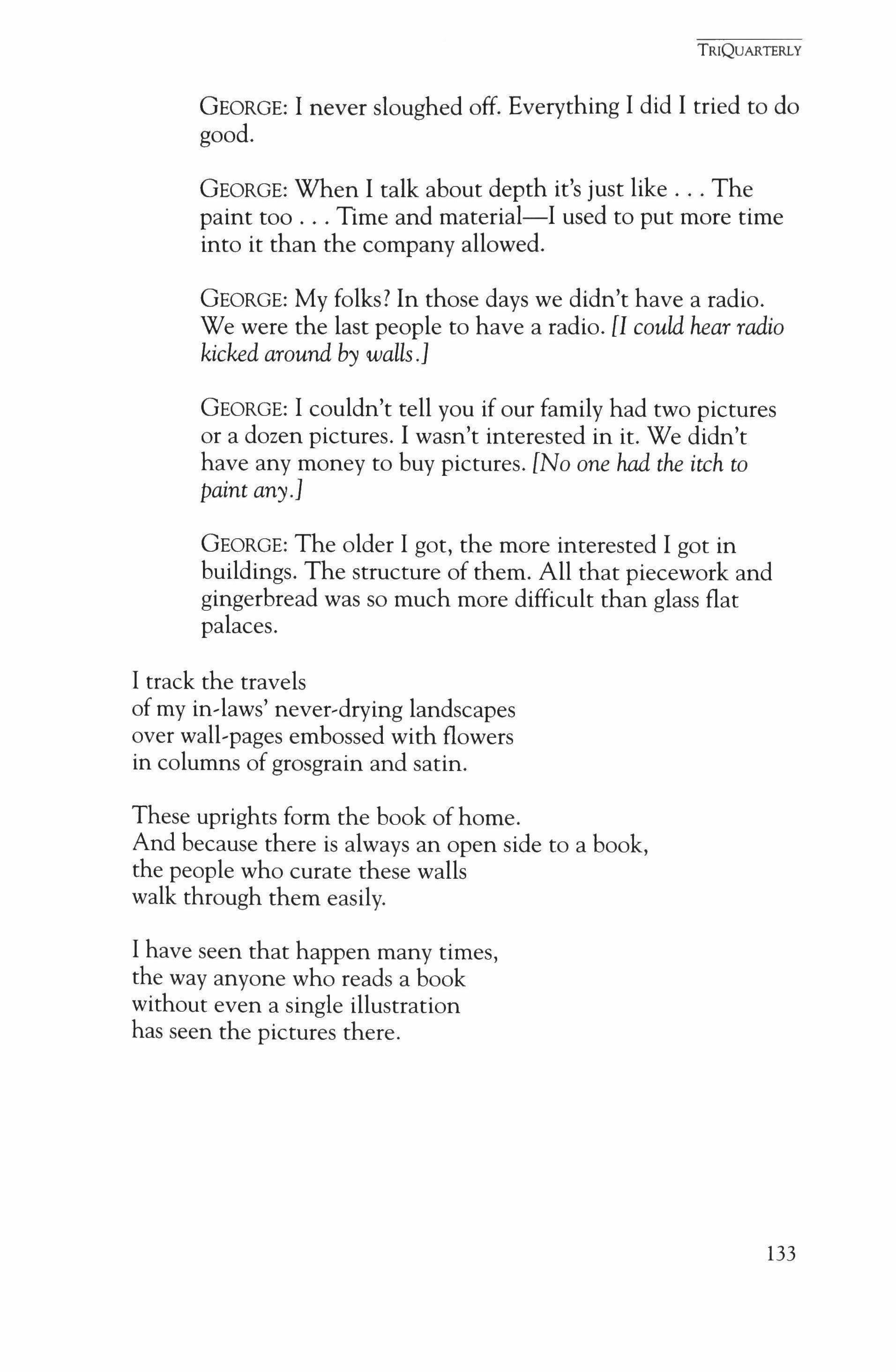
GEORGE: I never sloughed off. Everything I did I tried to do good.
GEORGE: When I talk about depth it's just like The paint too Time and material-I used to put more time into it than the company allowed.
GEORGE: My folks? In those days we didn't have a radio. We were the last people to have a radio. [I could hear radio kicked around by walls.]
GEORGE: I couldn't tell you if our family had two pictures or a dozen pictures. I wasn't interested in it. We didn't have any money to buy pictures. [No one had the itch to paint any.}
GEORGE: The older I got, the more interested I got in buildings. The structure of them. All that piecework and gingerbread was so much more difficult than glass flat palaces.
I track the travels of my in-laws' never-drying landscapes over wall-pages embossed with flowers in columns of grosgrain and satin.
These uprights form the book ofhome. And because there is always an open side to a book, the people who curate these walls walk through them easily.
I have seen that happen many times, the way anyone who reads a book without even a single illustration has seen the pictures there.
TRIQUARTERLY
133
The Peony
Carol Moldaw
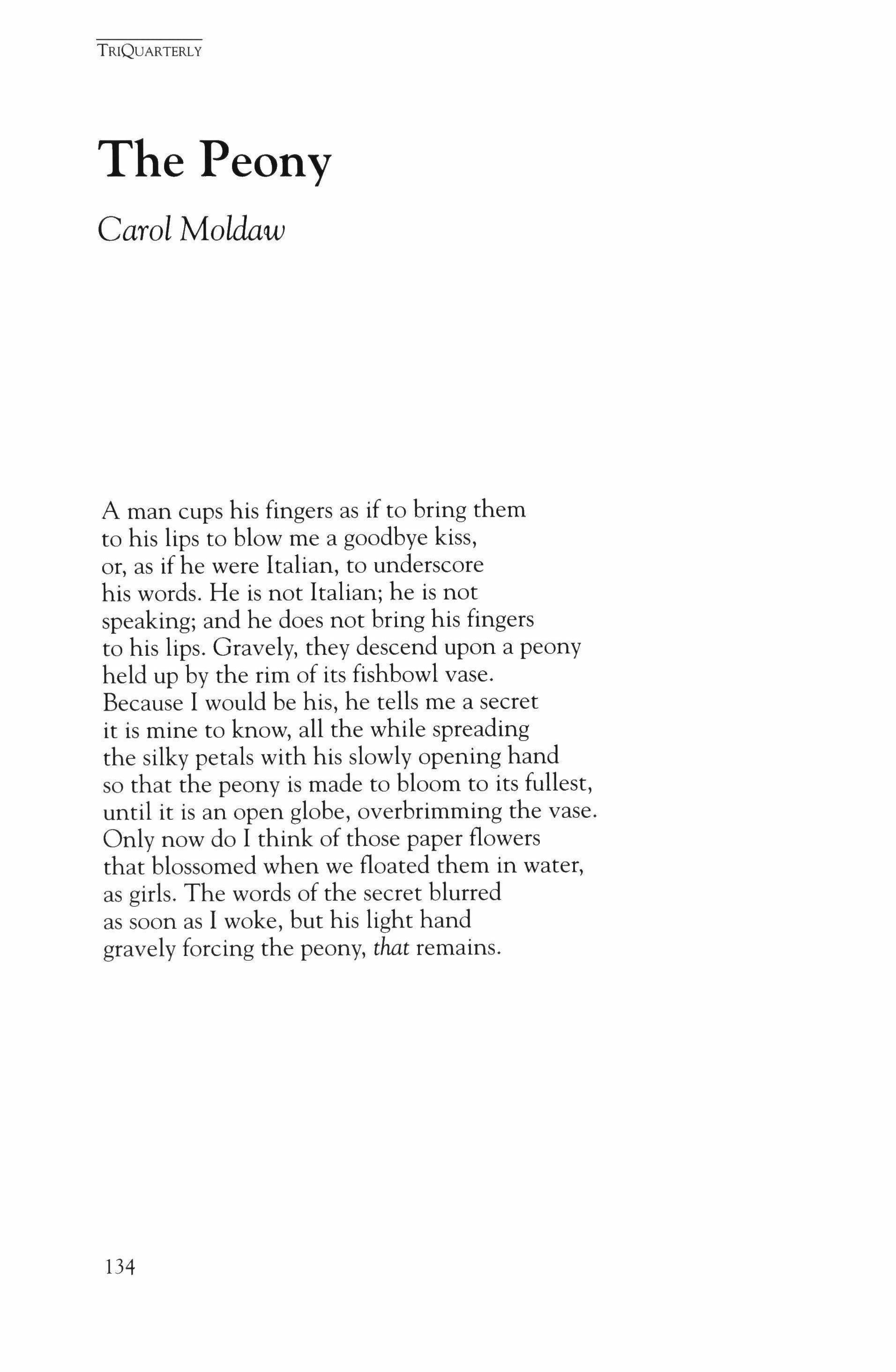
A man cups his fingers as if to bring them to his lips to blow me a goodbye kiss, or, as ifhe were Italian, to underscore his words. He is not Italian; he is not speaking; and he does not bring his fingers to his lips. Gravely, they descend upon a peony held up by the rim of its fishbowl vase. Because I would be his, he tells me a secret it is mine to know, all the while spreading the silky petals with his slowly opening hand so that the peony is made to bloom to its fullest, until it is an open globe, overbrimming the vase. Only now do I think of those paper flowers that blossomed when we floated them in water, as girls. The words of the secret blurred as soon as I woke, but his light hand gravely forcing the peony, that remains.
TRIQUARTERLY
134
Two Poems
Christopher Nealon
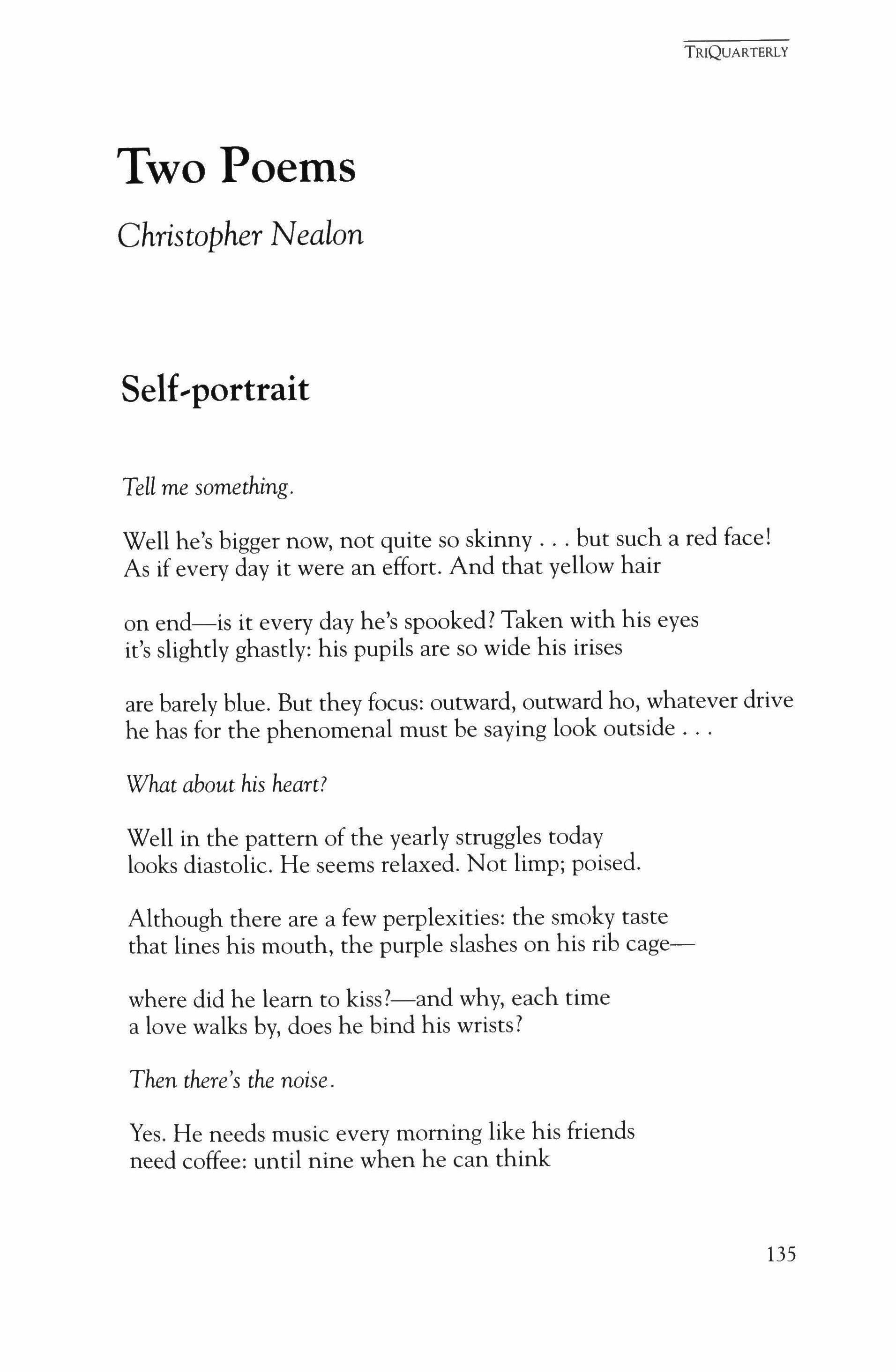
Self portrait
Tell me something.
Well he's bigger now, not quite so skinny but such a red face!
As if every day it were an effort. And that yellow hair
on end-is it every day he's spooked? Taken with his eyes it's slightly ghastly: his pupils are so wide his irises are barely blue. But they focus: outward, outward ho, whatever drive he has for the phenomenal must be saying look outside
What about his heart?
Well in the pattern of the yearly struggles today looks diastolic. He seems relaxed. Not limp; poised.
Although there are a few perplexities: the smoky taste that lines his mouth, the purple slashes on his rib cage-
where did he learn to kiss?-and why, each time a love walks by, does he bind his wrists?
Then there's the noise.
Yes. He needs music every morning like his friends need coffee: until nine when he can think
TRIQUARTERLY
135
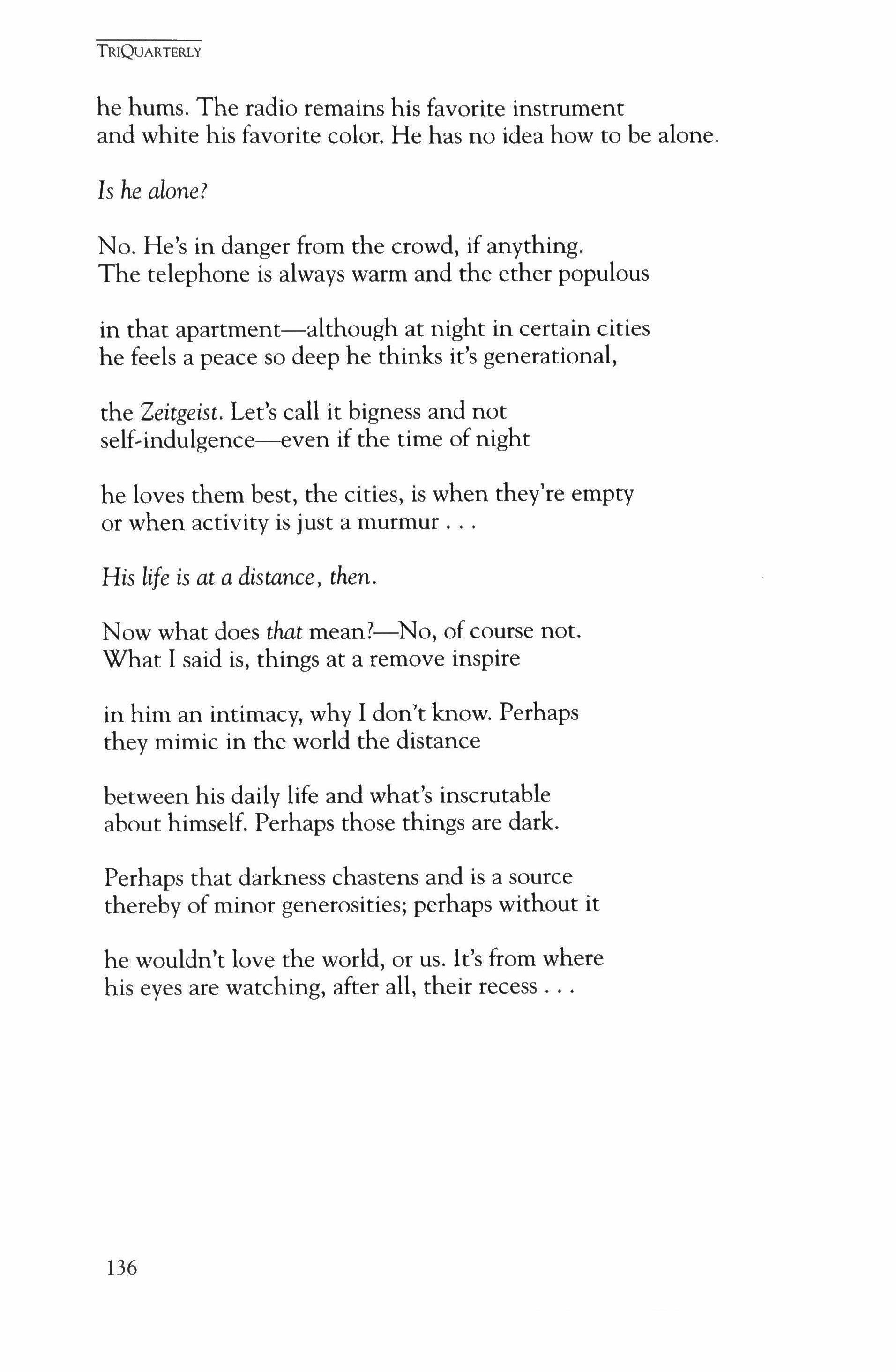
he hums. The radio remains his favorite instrument and white his favorite color. He has no idea how to be alone.
Is he alone?
No. He's in danger from the crowd, if anything. The telephone is always warm and the ether populous in that apartment-although at night in certain cities he feels a peace so deep he thinks it's generational, the Zeitgeist. Let's call it bigness and not self-indulgence-e-even if the time of night he loves them best, the cities, is when they're empty or when activity is just a murmur
His life is at a distance, then.
Now what does that mean?-No, of course not. What I said is, things at a remove inspire in him an intimacy, why I don't know. Perhaps they mimic in the world the distance between his daily life and what's inscrutable about himself. Perhaps those things are dark.
Perhaps that darkness chastens and is a source thereby of minor generosities; perhaps without it he wouldn't love the world, or us. It's from where his eyes are watching, after all, their recess
TRIQUARTERLY
136
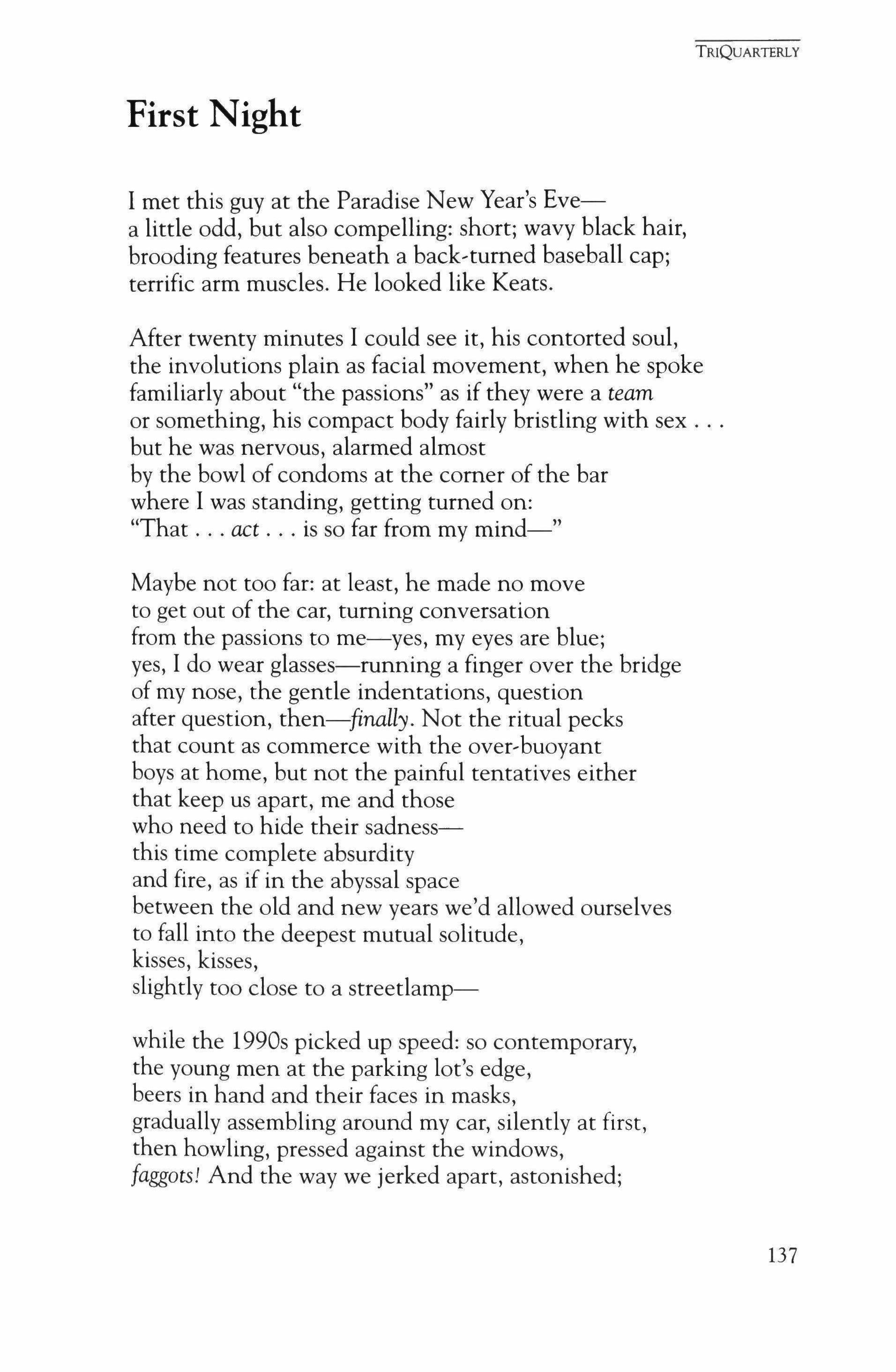
First Night
I met this guy at the Paradise New Year's Evea little odd, but also compelling: short; wavy black hair, brooding features beneath a back,turned baseball cap; terrific arm muscles. He looked like Keats.
After twenty minutes I could see it, his contorted soul, the involutions plain as facial movement, when he spoke familiarly about "the passions" as if they were a team or something, his compact body fairly bristling with sex but he was nervous, alarmed almost by the bowl of condoms at the corner of the bar where I was standing, getting turned on: "That act is so far from my mind-"
Maybe not too far: at least, he made no move to get out of the car, turning conversation from the passions to me-yes, my eyes are blue; yes, I do wear glasses-running a finger over the bridge of my nose, the gentle indentations, question after question, then-finally. Not the ritual pecks that count as commerce with the over,buoyant boys at home, but not the painful tentatives either that keep us apart, me and those who need to hide their sadnessthis time complete absurdity and fire, as if in the abyssal space between the old and new years we'd allowed ourselves to fall into the deepest mutual solitude, kisses, kisses, slightly too close to a streetlampwhile the 1990s picked up speed: so contemporary, the young men at the parking lot's edge, beers in hand and their faces in masks, gradually assembling around my car, silently at first, then howling, pressed against the windows, faggots! And the way we jerked apart, astonished;
TRIQUARTERLY
137
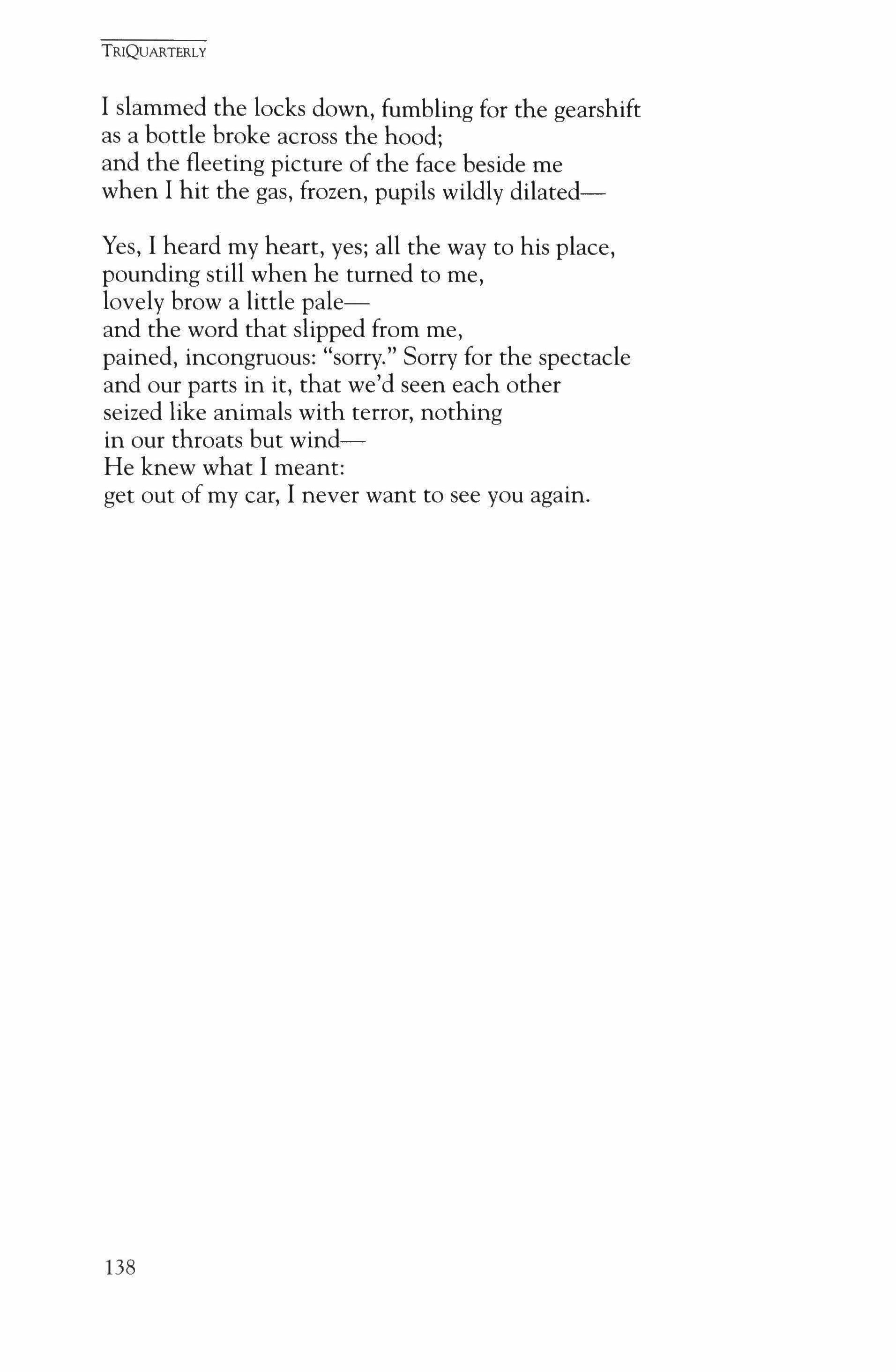
I slammed the locks down, fumbling for the gearshift as a bottle broke across the hood; and the fleeting picture of the face beside me when I hit the gas, frozen, pupils wildly dilated-
Yes, I heard my heart, yes; all the way to his place, pounding still when he turned to me, lovely brow a little paleand the word that slipped from me, pained, incongruous: "sorry." Sorry for the spectacle and our parts in it, that we'd seen each other seized like animals with terror, nothing in our throats but windHe knew what I meant: get out of my car, I never want to see you again.
TRIQUARTERLY
138
Lost Kittens
.1oyce Carol Oates
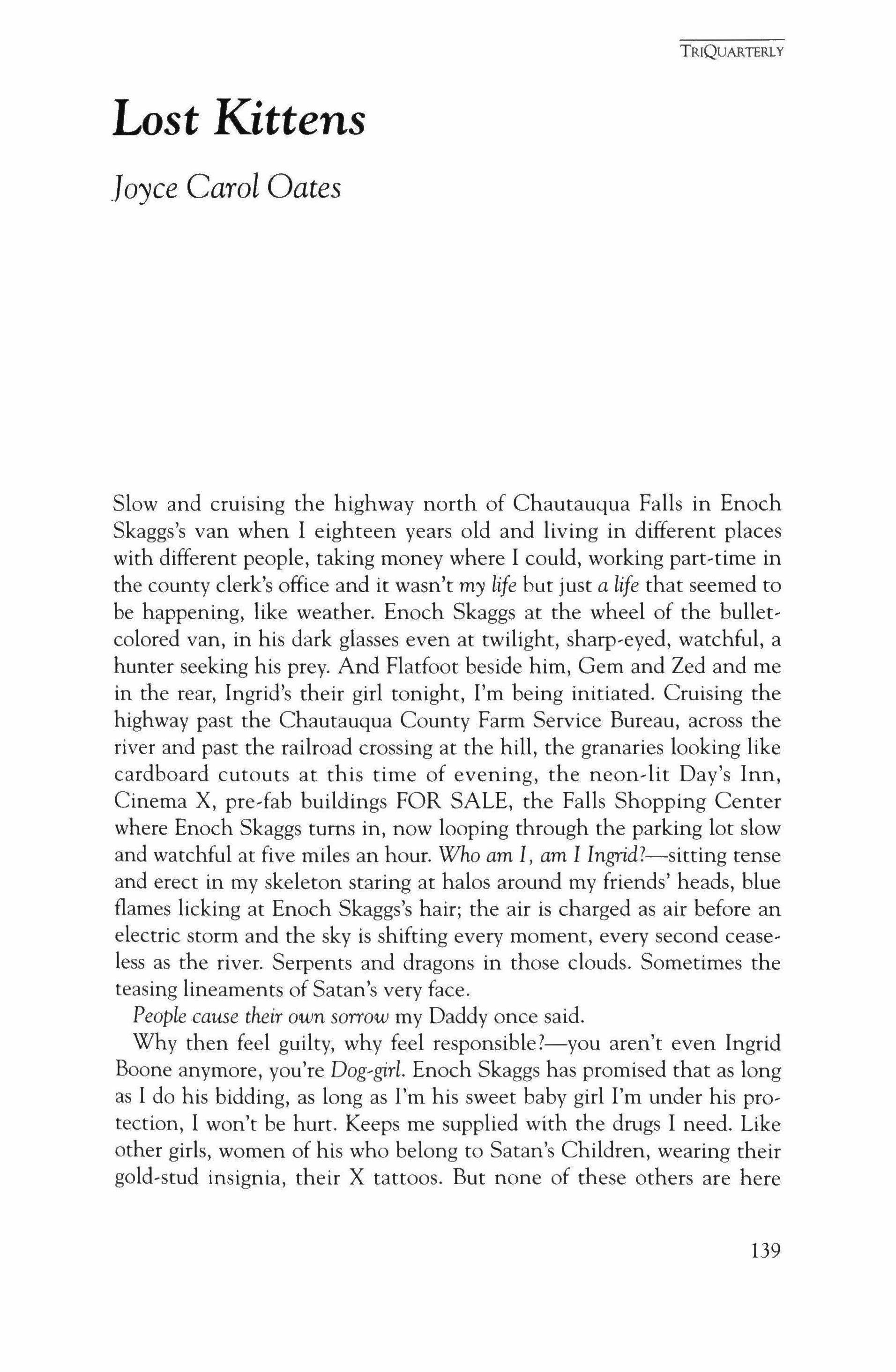
Slow and cruising the highway north of Chautauqua Falls in Enoch Skaggs's van when I eighteen years old and living in different places with different people, taking money where I could, working part-time in the county clerk's office and it wasn't my life but just a life that seemed to be happening, like weather. Enoch Skaggs at the wheel of the bullet, colored van, in his dark glasses even at twilight, sharp-eyed, watchful, a hunter seeking his prey. And Flatfoot beside him, Gem and Zed and me in the rear, Ingrid's their girl tonight, I'm being initiated. Cruising the highway past the Chautauqua County Farm Service Bureau, across the river and past the railroad crossing at the hill, the granaries looking like cardboard cutouts at this time of evening, the neon, lit Day's Inn, Cinema X, pre-fab buildings FOR SALE, the Falls Shopping Center where Enoch Skaggs turns in, now looping through the parking lot slow and watchful at five miles an hour. Who am I, am I Ingrid?-sitting tense and erect in my skeleton staring at halos around my friends' heads, blue flames licking at Enoch Skaggs's hair; the air is charged as air before an electric storm and the sky is shifting every moment, every second cease, less as the river. Serpents and dragons in those clouds. Sometimes the teasing lineaments of Satan's very face.
People cause their own sorrow my Daddy once said. Why then feel guilty, why feel responsible?-you aren't even Ingrid Boone anymore, you're Dog,girl. Enoch Skaggs has promised that as long as I do his bidding, as long as I'm his sweet baby girl I'm under his pro' tection, I won't be hurt. Keeps me supplied with the drugs I need. Like other girls, women of his who belong to Satan's Children, wearing their gold-stud insignia, their X tattoos. But none of these others are here
TRIQUARTERLY
139
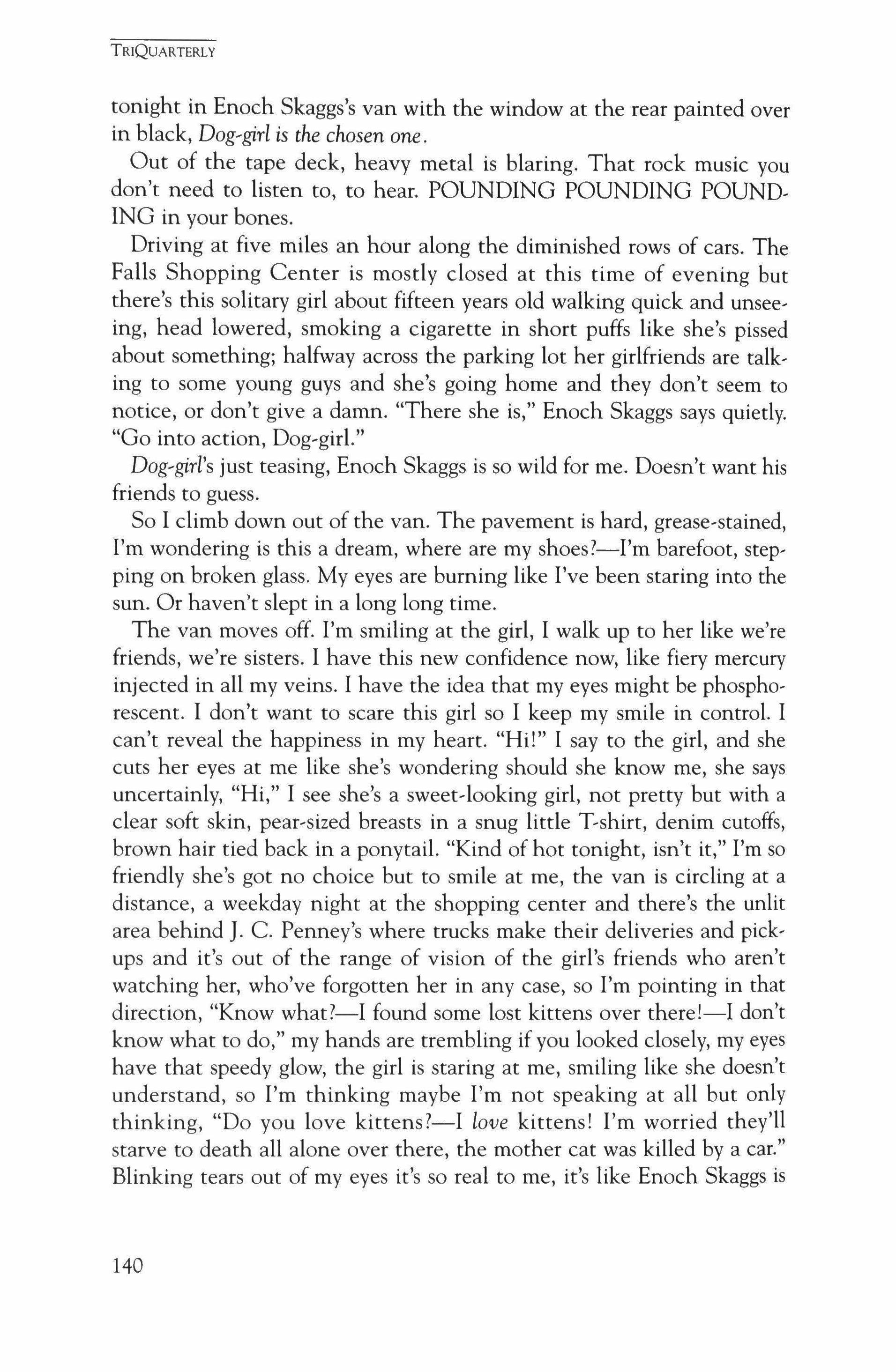
tonight in Enoch Skaggs's van with the window at the rear painted over in black, Dog,girl is the chosen one.
Out of the tape deck, heavy metal is blaring. That rock music you don't need to listen to, to hear. POUNDING POUNDING POUNDING in your bones.
Driving at five miles an hour along the diminished rows of cars. The Falls Shopping Center is mostly closed at this time of evening but there's this solitary girl about fifteen years old walking quick and unseeing, head lowered, smoking a cigarette in short puffs like she's pissed about something; halfway across the parking lot her girlfriends are talking to some young guys and she's going home and they don't seem to notice, or don't give a damn. "There she is," Enoch Skaggs says quietly. "Go into action, Dog-girl."
Dog,girl's just teasing, Enoch Skaggs is so wild for me. Doesn't want his friends to guess.
So I climb down out of the van. The pavement is hard, grease-stained, I'm wondering is this a dream, where are my shoes?-I'm barefoot, stepping on broken glass. My eyes are burning like I've been staring into the sun. Or haven't slept in a long long time.
The van moves off. I'm smiling at the girl, I walk up to her like we're friends, we're sisters. I have this new confidence now, like fiery mercury injected in all my veins. I have the idea that my eyes might be phosphorescent. I don't want to scare this girl so I keep my smile in control. I can't reveal the happiness in my heart. "Hi!" I say to the girl, and she cuts her eyes at me like she's wondering should she know me, she says uncertainly, "Hi," I see she's a sweet'looking girl, not pretty but with a clear soft skin, pear-sized breasts in a snug little T,shirt, denim cutoffs, brown hair tied back in a ponytail. "Kind of hot tonight, isn't it," I'm so friendly she's got no choice but to smile at me, the van is circling at a distance, a weekday night at the shopping center and there's the unlit area behind J. c. Penney's where trucks make their deliveries and pickups and it's out of the range of vision of the girl's friends who aren't watching her, who've forgotten her in any case, so I'm pointing in that direction, "Know what?-I found some lost kittens over there!-I don't know what to do," my hands are trembling if you looked closely, my eyes have that speedy glow, the girl is staring at me, smiling like she doesn't understand, so I'm thinking maybe I'm not speaking at all but only thinking, "Do you love kittens?-I love kittens! I'm worried they'll starve to death all alone over there, the mother cat was killed by a car." Blinking tears out of my eyes it's so real to me, it's like Enoch Skaggs is
TRIQUARTERLY
140
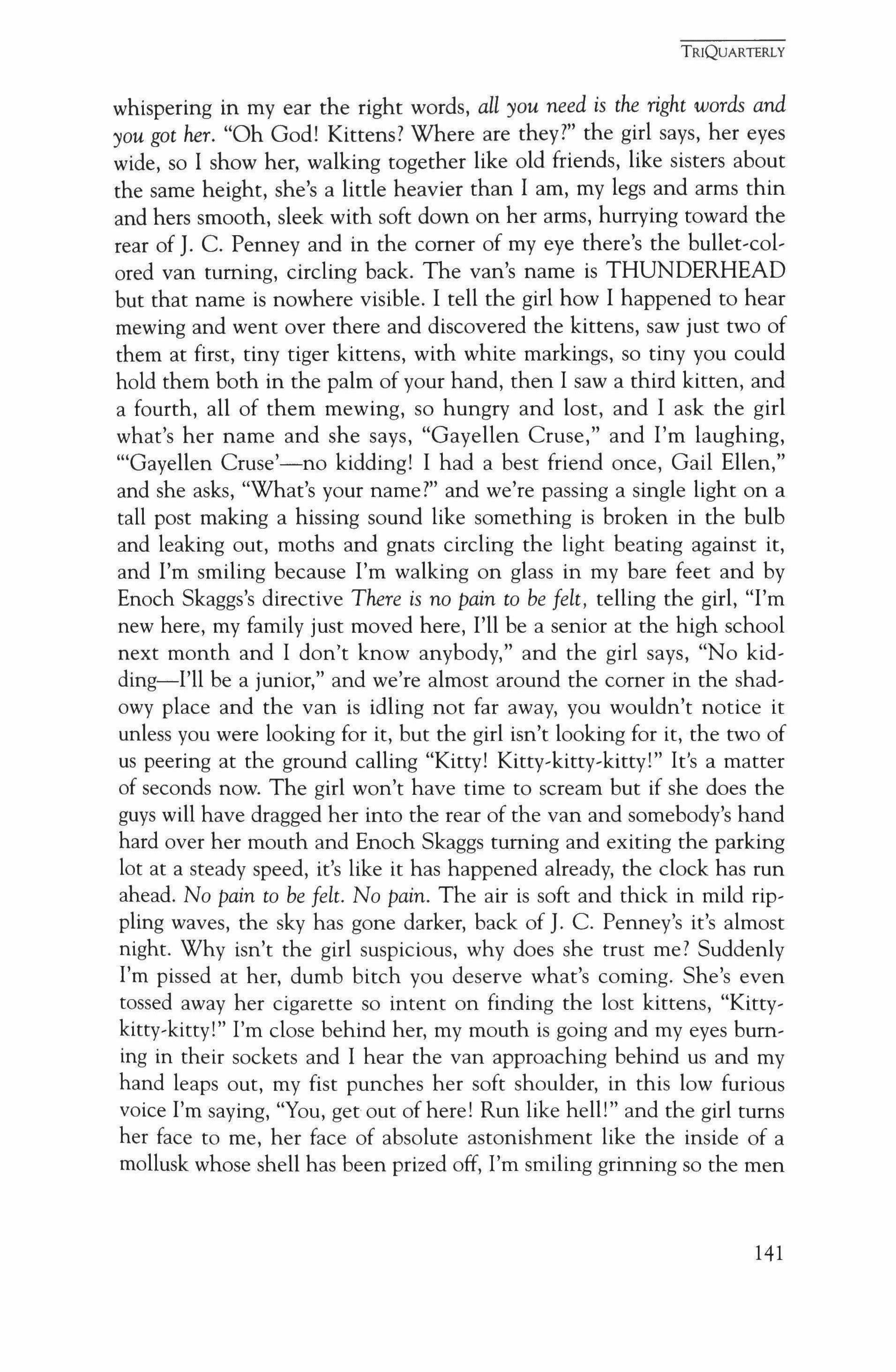
whispering in my ear the right words, all you need is the right words and you got her. "Oh God! Kittens? Where are they?" the girl says, her eyes wide, so I show her, walking together like old friends, like sisters about the same height, she's a little heavier than I am, my legs and arms thin and hers smooth, sleek with soft down on her arms, hurrying toward the rear of J. C. Penney and in the comer of my eye there's the bullet-colored van turning, circling back. The van's name is THUNDERHEAD but that name is nowhere visible. I tell the girl how I happened to hear mewing and went over there and discovered the kittens, saw just two of them at first, tiny tiger kittens, with white markings, so tiny you could hold them both in the palm of your hand, then I saw a third kitten, and a fourth, all of them mewing, so hungry and lost, and I ask the girl what's her name and she says, "Gayellen Cruse," and I'm laughing, "'Gayellen Cruse'-no kidding! I had a best friend once, Gail Ellen," and she asks, "What's your name?" and we're passing a single light on a tall post making a hissing sound like something is broken in the bulb and leaking out, moths and gnats circling the light beating against it, and I'm smiling because I'm walking on glass in my bare feet and by Enoch Skaggs's directive There is no pain to be felt, telling the girl, "I'm new here, my family just moved here, I'll be a senior at the high school next month and I don't know anybody," and the girl says, "No kidding-I'll be a junior," and we're almost around the comer in the shadowy place and the van is idling not far away, you wouldn't notice it unless you were looking for it, but the girl isn't looking for it, the two of us peering at the ground calling "Kitty! Kitty-kitty-kittvl" It's a matter of seconds now. The girl won't have time to scream but if she does the guys will have dragged her into the rear of the van and somebody's hand hard over her mouth and Enoch Skaggs turning and exiting the parking lot at a steady speed, it's like it has happened already, the clock has run ahead. No pain to be felt. No pain. The air is soft and thick in mild rippling waves, the sky has gone darker, back of J. c. Penney's it's almost night. Why isn't the girl suspicious, why does she trust me? Suddenly I'm pissed at her, dumb bitch you deserve what's coming. She's even tossed away her cigarette so intent on finding the lost kittens, "Kittykitry-kittvl" I'm close behind her, my mouth is going and my eyes burning in their sockets and I hear the van approaching behind us and my hand leaps out, my fist punches her soft shoulder, in this low furious voice I'm saying, "You, get out of here! Run like hell!" and the girl turns her face to me, her face of absolute astonishment like the inside of a mollusk whose shell has been prized off, I'm smiling grinning so the men
TRIQUARTERLY
141
in the van can't guess what I'm saying, "I'm not your friend, I'm an emissary of Satan! Get out of here, run like hell! Go on!" my voice lifting almost to a scream, and in that instant the girl sees the van, she's wide-eyed as a terrified child shaking her head no no, turns, begins to run, her shoulder bag falls to the ground and she doesn't stop to retrieve it, damn dumb bitch running for her life, running clumsily, now calling for her friends, crying out somebody's name. And the van has swerved around, headed in the opposite direction, rushing from the lot out to Route 11.
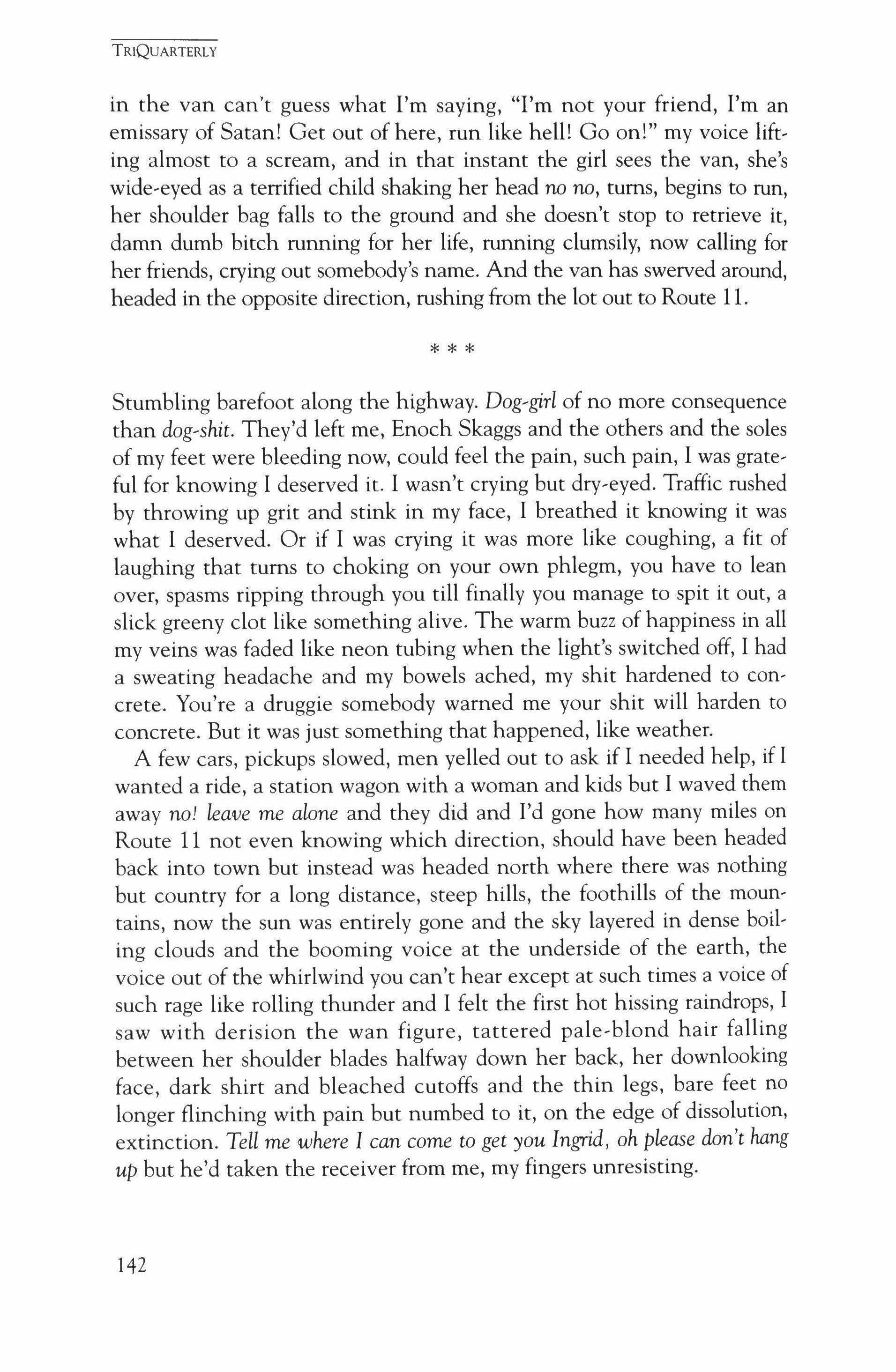
Stumbling barefoot along the highway. Dog-girl of no more consequence than dog-shit. They'd left me, Enoch Skaggs and the others and the soles of my feet were bleeding now, could feel the pain, such pain, I was grateful for knowing I deserved it. I wasn't crying but dry-eyed. Traffic rushed by throwing up grit and stink in my face, I breathed it knowing it was what I deserved. Or if I was crying it was more like coughing, a fit of laughing that turns to choking on your own phlegm, you have to lean over, spasms ripping through you till finally you manage to spit it out, a slick greeny clot like something alive. The warm buzz of happiness in all my veins was faded like neon tubing when the light's switched off, I had a sweating headache and my bowels ached, my shit hardened to concrete. You're a druggie somebody warned me your shit will harden to concrete. But it was just something that happened, like weather.
A few cars, pickups slowed, men yelled out to ask if I needed help, if I wanted a ride, a station wagon with a woman and kids but I waved them away no! leave me alone and they did and I'd gone how many miles on Route 11 not even knowing which direction, should have been headed back into town but instead was headed north where there was nothing but country for a long distance, steep hills, the foothills of the mountains, now the sun was entirely gone and the sky layered in dense boiling clouds and the booming voice at the underside of the earth, the voice out of the whirlwind you can't hear except at such times a voice of such rage like rolling thunder and I felt the first hot hissing raindrops, I saw with derision the wan figure, tattered pale-blond hair falling between her shoulder blades halfway down her back, her downlooking face, dark shirt and bleached cutoffs and the thin legs, bare feet no longer flinching with pain but numbed to it, on the edge of dissolution, extinction. Tell me where I can come to get you Ingrid, oh please don't hang up but he'd taken the receiver from me, my fingers unresisting.
TRIQUARTERLY
* * *
142
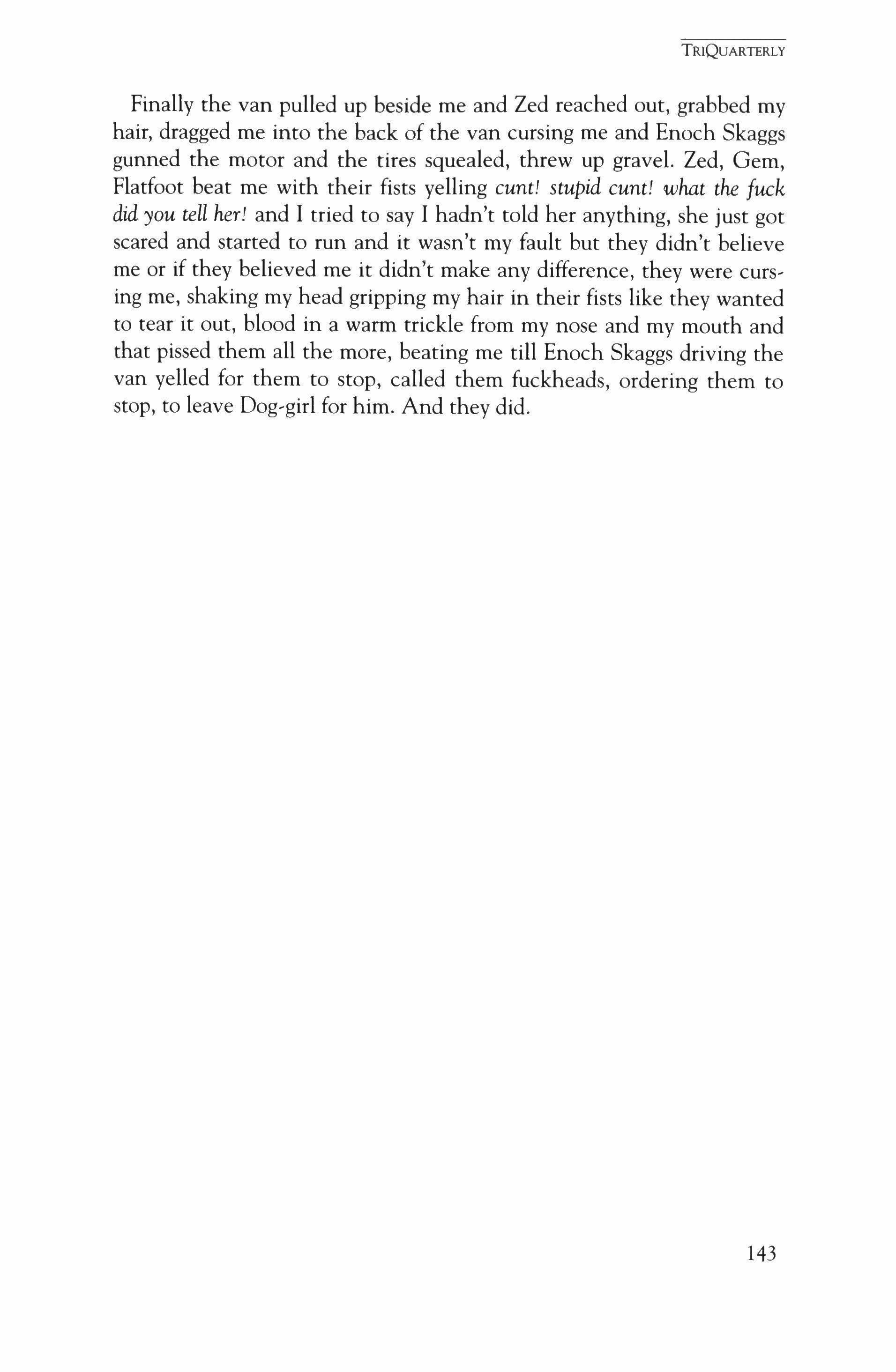
Finally the van pulled up beside me and Zed reached out, grabbed my hair, dragged me into the back of the van cursing me and Enoch Skaggs gunned the motor and the tires squealed, threw up gravel. Zed, Gem, Flatfoot beat me with their fists yelling cunt! stupid cunt! what the fuck did you tell her! and I tried to say I hadn't told her anything, she just got scared and started to run and it wasn't my fault but they didn't believe me or if they believed me it didn't make any difference, they were cursing me, shaking my head gripping my hair in their fists like they wanted to tear it out, blood in a warm trickle from my nose and my mouth and that pissed them all the more, beating me till Enoch Skaggs driving the van yelled for them to stop, called them fuckheads, ordering them to stop, to leave Dog-girl for him. And they did.
TRIQUARTERLY
143
Ruin Outlasting Sorrow
William Olsen
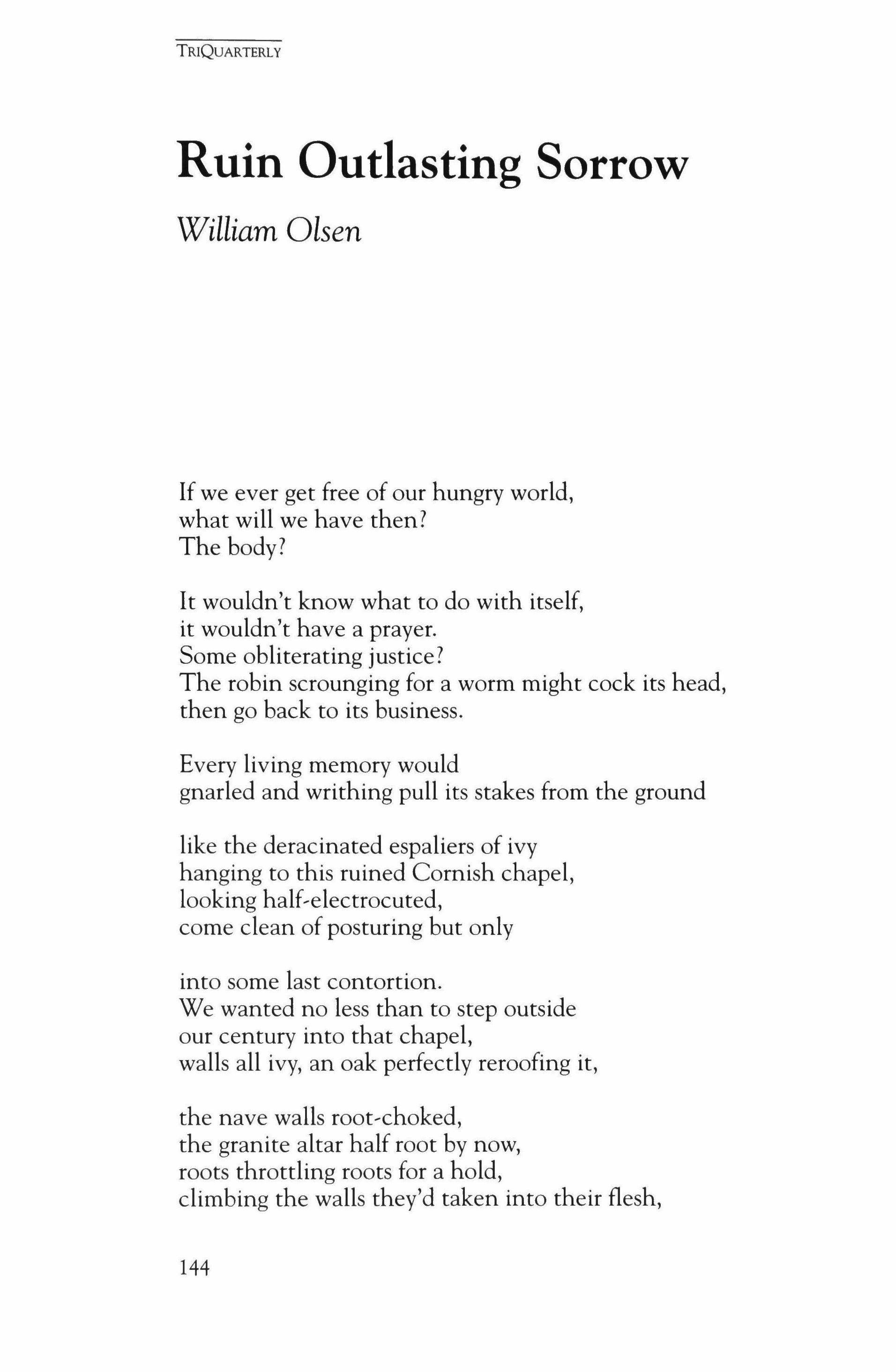
If we ever get free of our hungry world, what will we have then?
The body?
It wouldn't know what to do with itself, it wouldn't have a prayer. Some obliterating justice? The robin scrounging for a worm might cock its head, then go back to its business.
Every living memory would gnarled and writhing pull its stakes from the ground like the deracinated espaliers of ivy hanging to this ruined Cornish chapel, looking half,electrocuted, come clean of posturing but only
into some last contortion. We wanted no less than to step outside our century into that chapel, walls all ivy, an oak perfectly reroofing it, the nave walls root-choked, the granite altar half root by now, roots throttling roots for a hold, climbing the walls they'd taken into their flesh,
TRIQUARTERLY
144
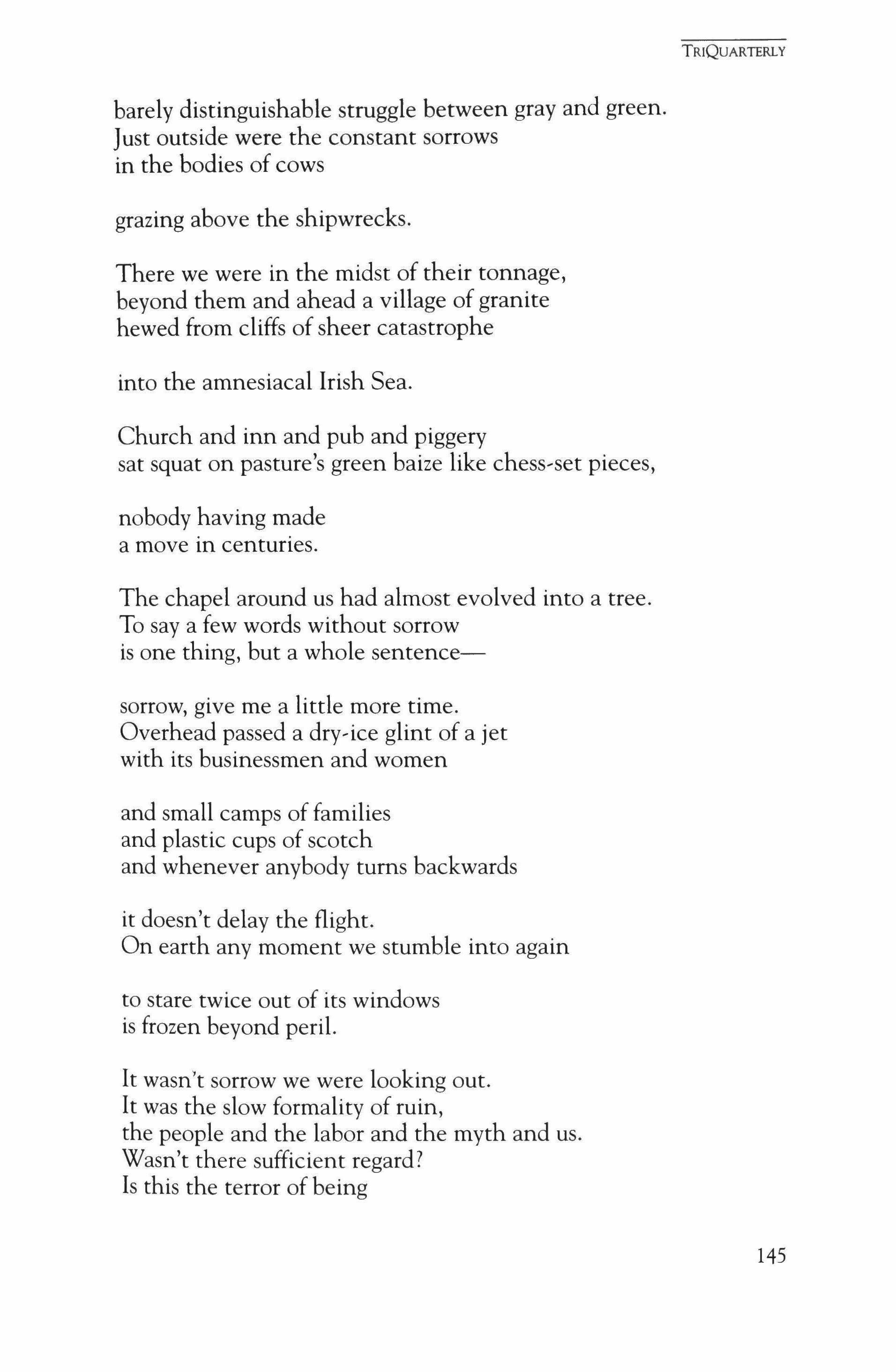
barely distinguishable struggle between gray and green. Just outside were the constant sorrows in the bodies of cows
grazing above the shipwrecks.
There we were in the midst of their tonnage, beyond them and ahead a village of granite hewed from cliffs of sheer catastrophe into the amnesiacallrish Sea.
Church and inn and pub and piggery sat squat on pasture's green baize like chess-set pieces,
nobody having made a move in centuries.
The chapel around us had almost evolved into a tree. To say a few words without sorrow is one thing, but a whole sentence-
sorrow, give me a little more time. Overhead passed a dry-ice glint of a jet with its businessmen and women and small camps of families and plastic cups of scotch and whenever anybody turns backwards it doesn't delay the flight. On earth any moment we stumble into again to stare twice out of its windows is frozen beyond peril.
It wasn't sorrow we were looking out. It was the slow formality of ruin, the people and the labor and the myth and us. Wasn't there sufficient regard? Is this the terror of being
TRIQUARTERLY 145
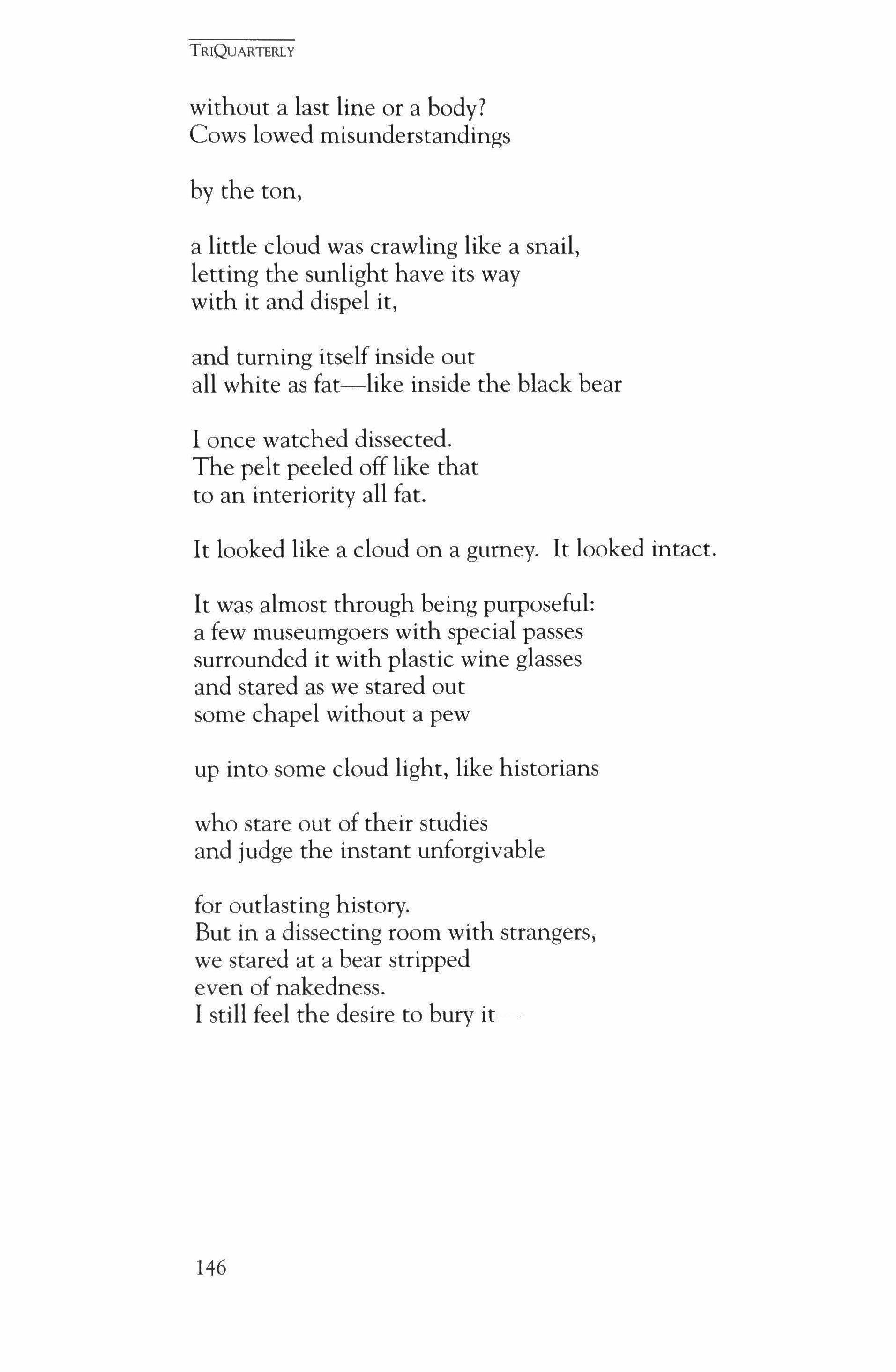
without a last line or a body? Cows lowed misunderstandings by the ton,
a little cloud was crawling like a snail, letting the sunlight have its way with it and dispel it, and turning itself inside out all white as fat-like inside the black bear
I once watched dissected. The pelt peeled off like that to an interiority all fat.
It looked like a cloud on a gurney. It looked intact.
It was almost through being purposeful: a few museumgoers with special passes surrounded it with plastic wine glasses and stared as we stared out some chapel without a pew
up into some cloud light, like historians who stare out of their studies and judge the instant unforgivable for outlasting history.
But in a dissecting room with strangers, we stared at a bear stripped even of nakedness.
I still feel the desire to bury it-
TRIQUARTERLY
146
The Shaping Ground
Steve Orlen
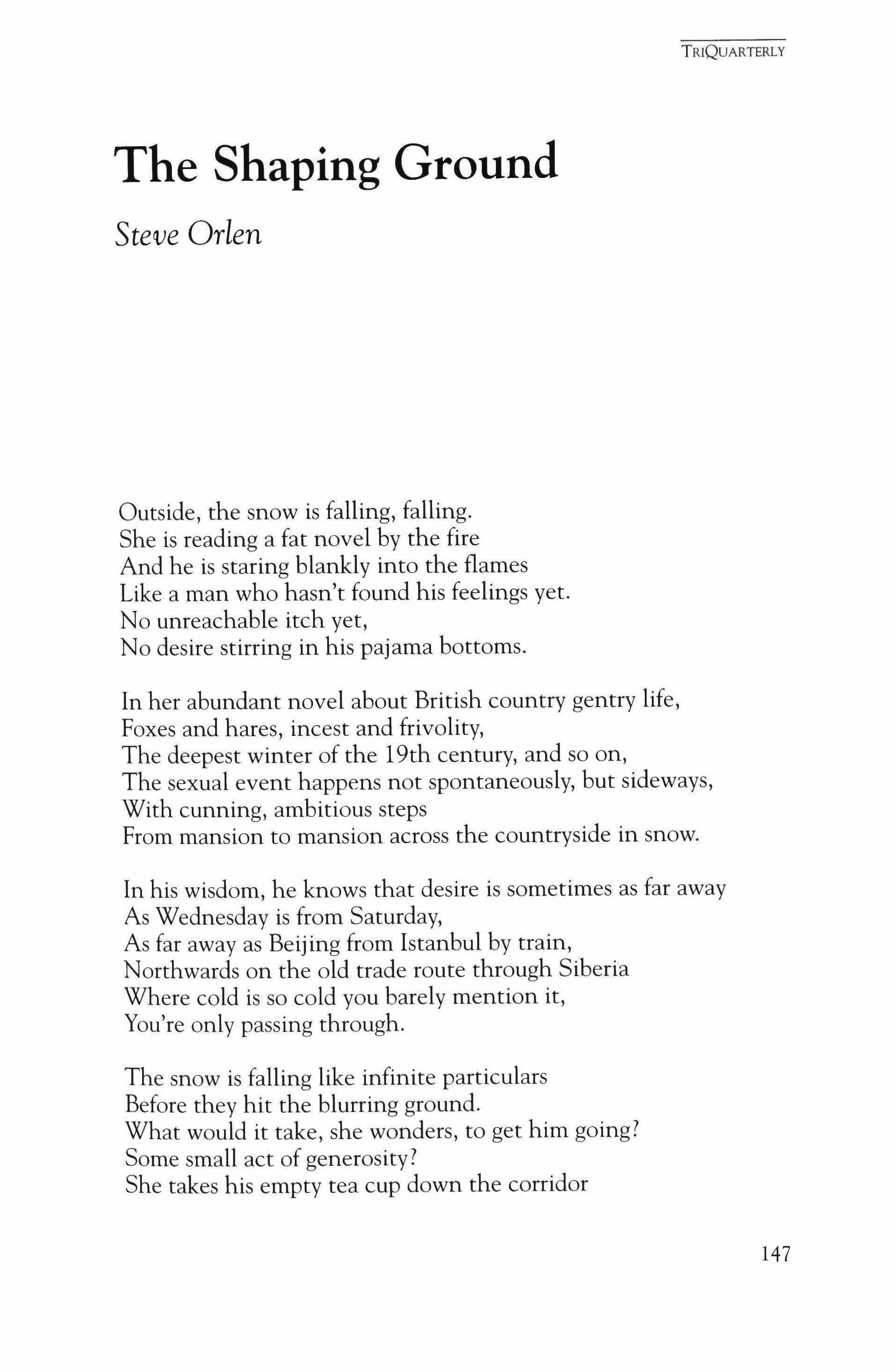
Outside, the snow is falling, falling.
She is reading a fat novel by the fire
And he is staring blankly into the flames
Like a man who hasn't found his feelings yet. No unreachable itch yet, No desire stirring in his pajama bottoms.
In her abundant novel about British country gentry life, Foxes and hares, incest and frivolity,
The deepest winter of the 19th century, and so on, The sexual event happens not spontaneously, but sideways, With cunning, ambitious steps
From mansion to mansion across the countryside in snow.
In his wisdom, he knows that desire is sometimes as far away As Wednesday is from Saturday, As far away as Beijing from Istanbul by train, Northwards on the old trade route through Siberia Where cold is so cold you barely mention it, You're only passing through.
The snow is falling like infinite particulars Before they hit the blurring ground. What would it take, she wonders, to get him going?
Some small act of generosity?
She takes his empty tea cup down the corridor
TRIQUARTERLY
147
TRIQUARTERLY
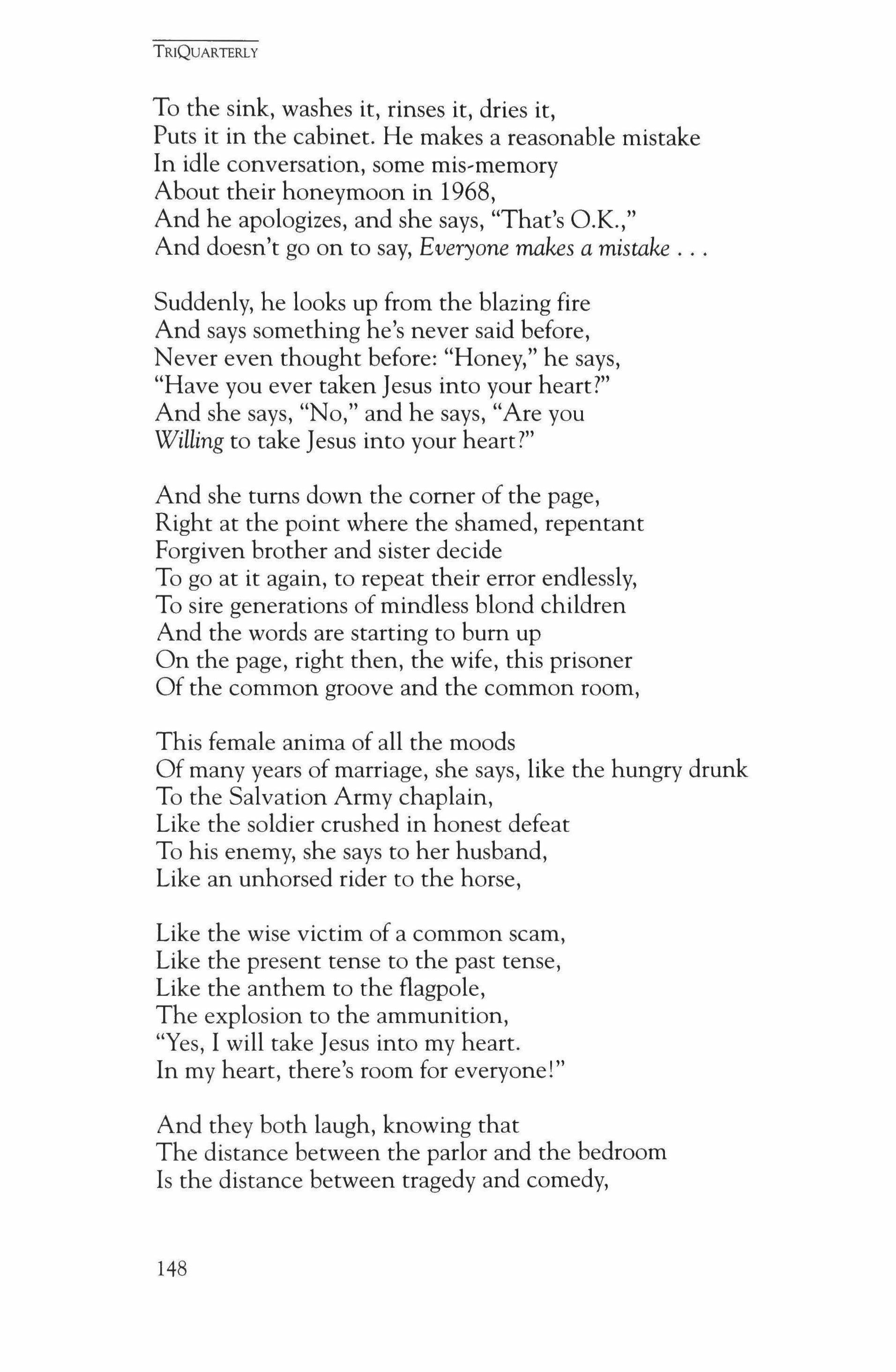
To the sink, washes it, rinses it, dries it, Puts it in the cabinet. He makes a reasonable mistake
In idle conversation, some mis-memory About their honeymoon in 1968,
And he apologizes, and she says, "That's O.K.," And doesn't go on to say, Everyone makes a mistake
Suddenly, he looks up from the blazing fire And says something he's never said before, Never even thought before: "Honey," he says, "Have you ever taken Jesus into your heart?"
And she says, "No," and he says, "Are you Willing to take Jesus into your heart!"
And she turns down the comer of the page, Right at the point where the shamed, repentant Forgiven brother and sister decide
To go at it again, to repeat their error endlessly, To sire generations of mindless blond children And the words are starting to bum up
On the page, right then, the wife, this prisoner Of the common groove and the common room,
This female anima of all the moods
Of many years of marriage, she says, like the hungry drunk
To the Salvation Army chaplain, Like the soldier crushed in honest defeat
To his enemy, she says to her husband, Like an unhorsed rider to the horse,
Like the wise victim of a common scam, Like the present tense to the past tense, Like the anthem to the flagpole, The explosion to the ammunition, "Yes, I will take Jesus into my heart. In my heart, there's room for everyone!"
And they both laugh, knowing that The distance between the parlor and the bedroom Is the distance between tragedy and comedy,
148
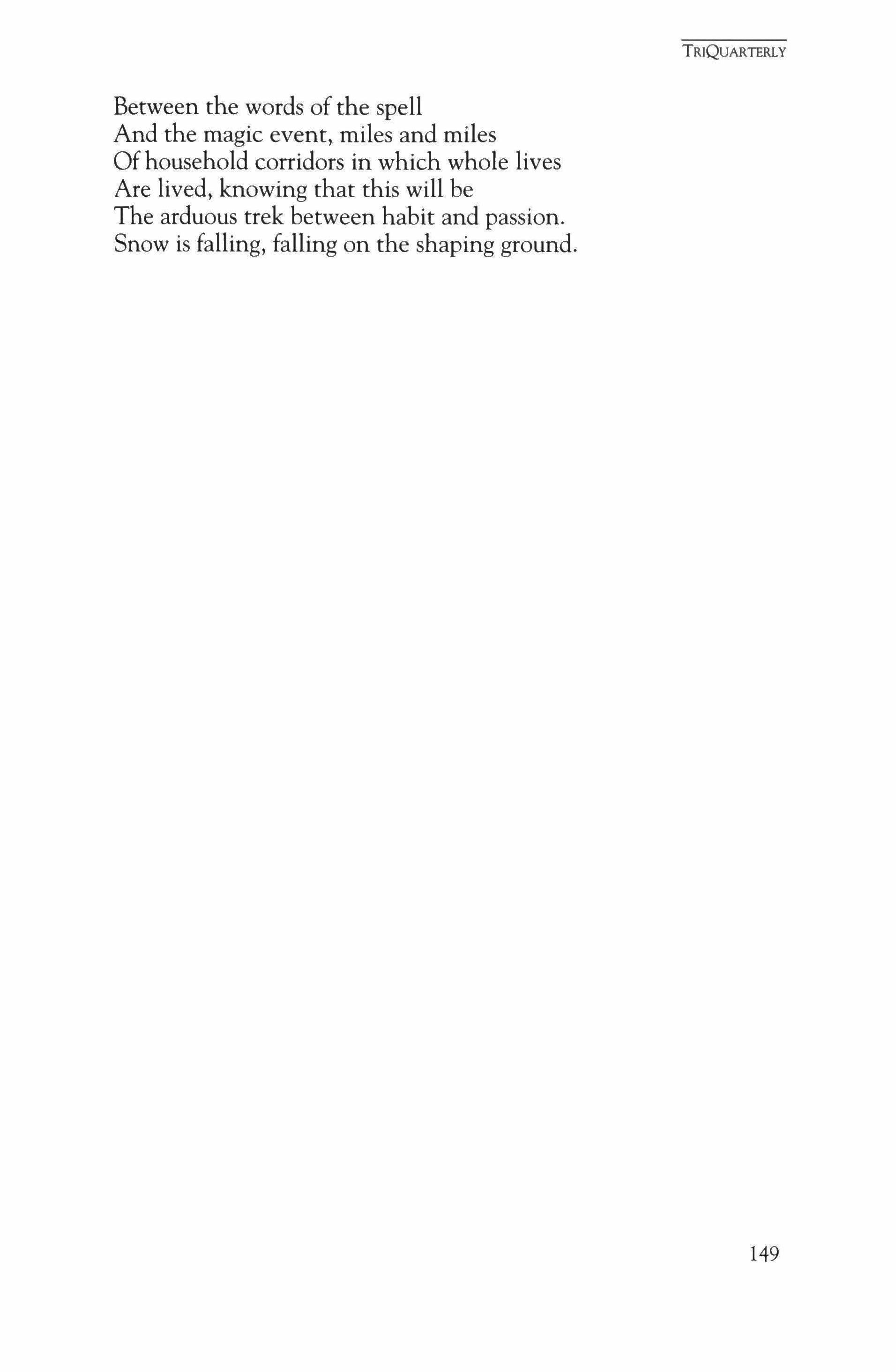
Between the words of the spell And the magic event, miles and miles Of household corridors in which whole lives Are lived, knowing that this will be The arduous trek between habit and passion. Snow is falling, falling on the shaping ground.
TRIQUARTERLY
149
From Ornate with Smoke
Sterling Plumpp
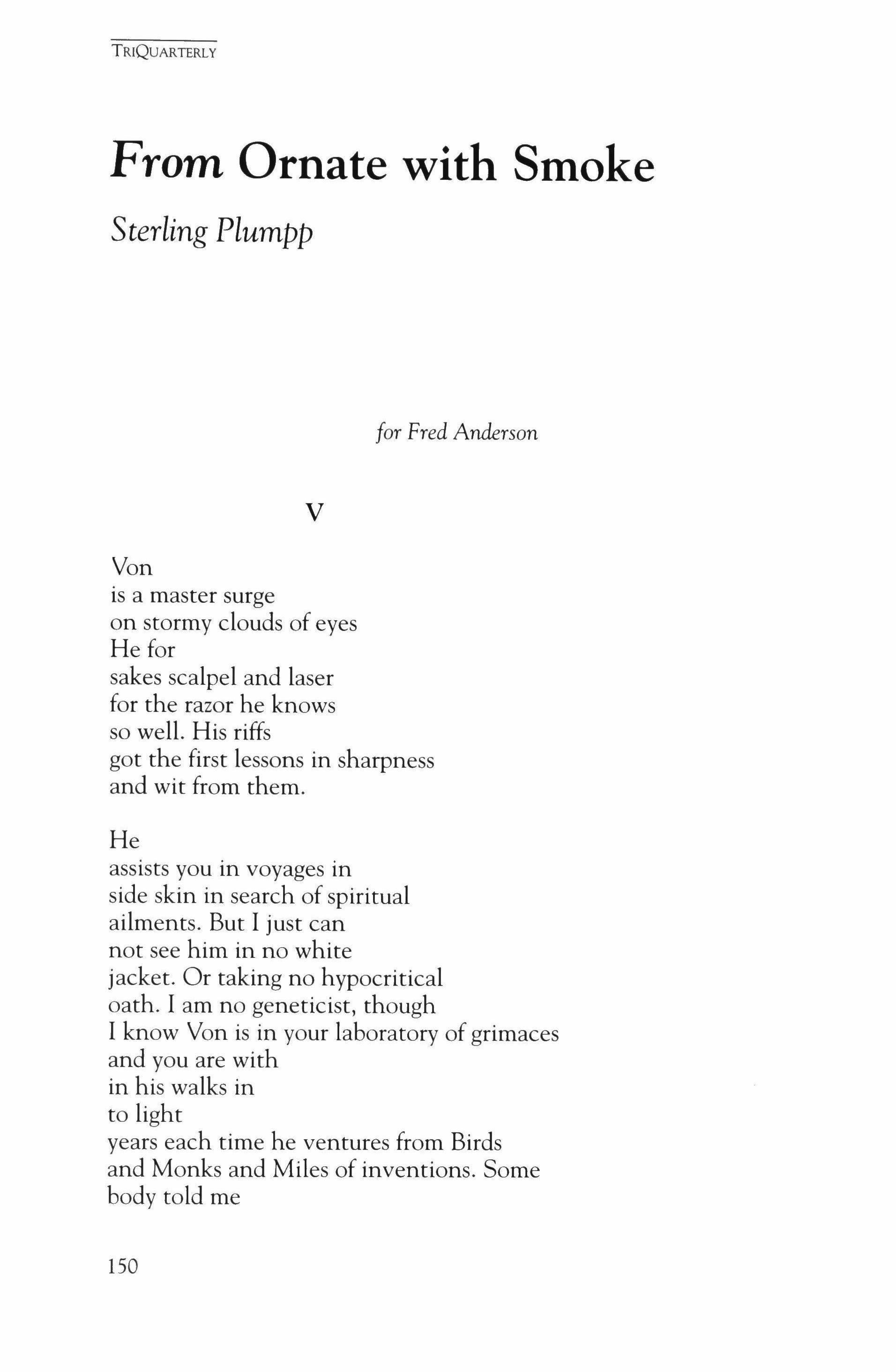 for Fred Anderson
for Fred Anderson
v
Von is a master surge on stormy clouds of eyes He for sakes scalpel and laser for the razor he knows so well. His riffs got the first lessons in sharpness and wit from them.
He assists you in voyages in side skin in search of spiritual ailments. But I just can not see him in no white jacket. Or taking no hypocritical oath. I am no geneticist, though I know Von is in your laboratory of grimaces and you are with in his walks in to light years each time he ventures from Birds and Monks and Miles of inventions. Some body told me
TRIQUARTERLY
150
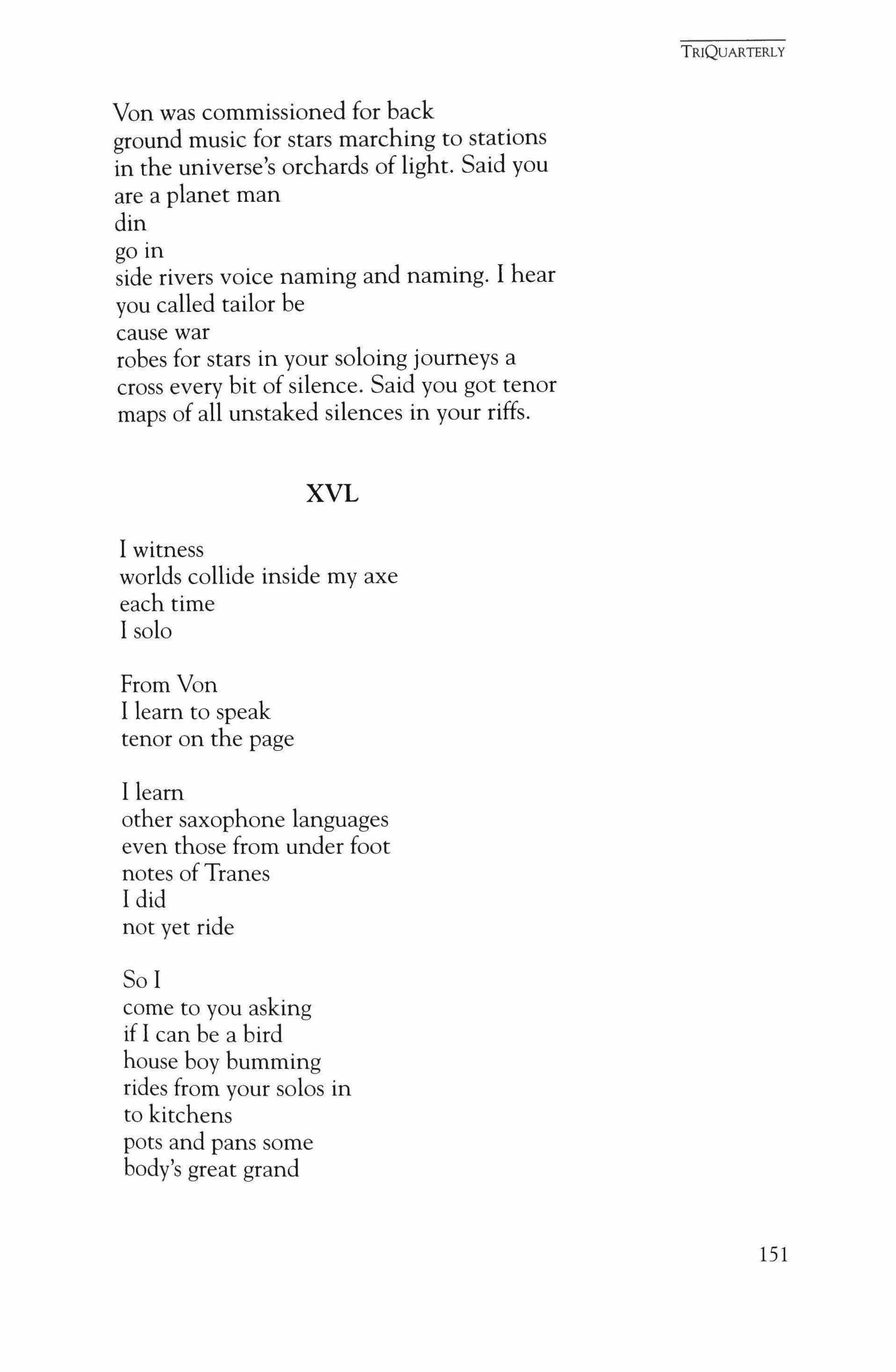
Von was commissioned for back ground music for stars marching to stations in the universe's orchards of light. Said you are a planet man din go in side rivers voice naming and naming. I hear you called tailor be cause war robes for stars in your soloing journeys a cross every bit of silence. Said you got tenor maps of all unstaked silences in your riffs.
XVL
I witness worlds collide inside my axe each time I solo
From Von I learn to speak tenor on the page
I learn other saxophone languages even those from under foot notes of Tranes I did not yet ride
So I come to you asking if I can be a bird house boy bumming rides from your solos in to kitchens pots and pans some body's great grand
TRlQUARTERLY
151
TRIQUARTERLY
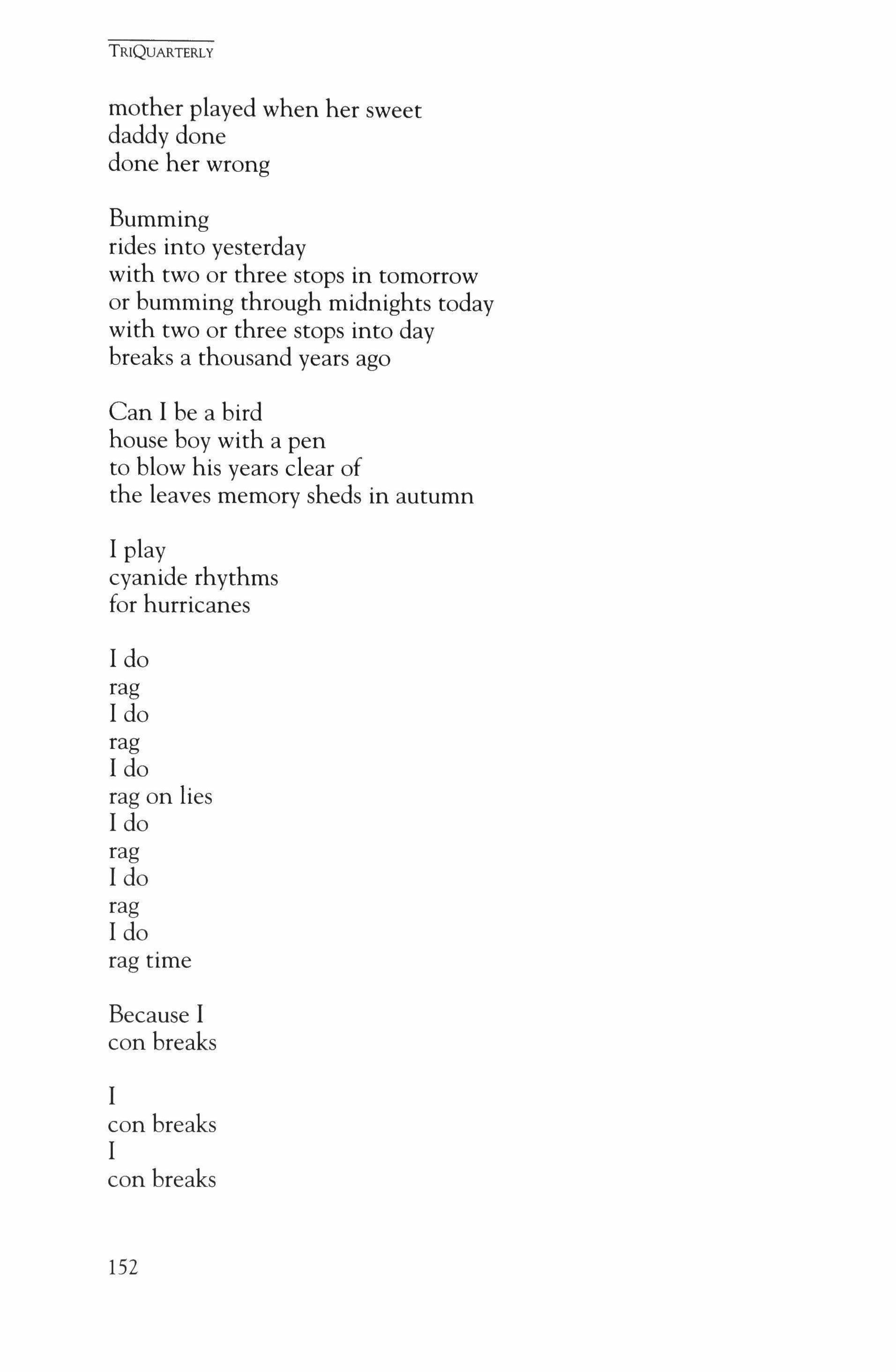
mother played when her sweet daddy done done her wrong
Bumming rides into yesterday with two or three stops in tomorrow or bumming through midnights today with two or three stops into day breaks a thousand years ago
Can I be a bird house boy with a pen to blow his years clear of the leaves memory sheds in autumn
I play cyanide rhythms for hurricanes
I do rag I do rag I do rag on lies I do rag I do rag I do rag time
Because I con breaks
I con breaks I con breaks
152
con breaks and I do rag I do rag I do rag time
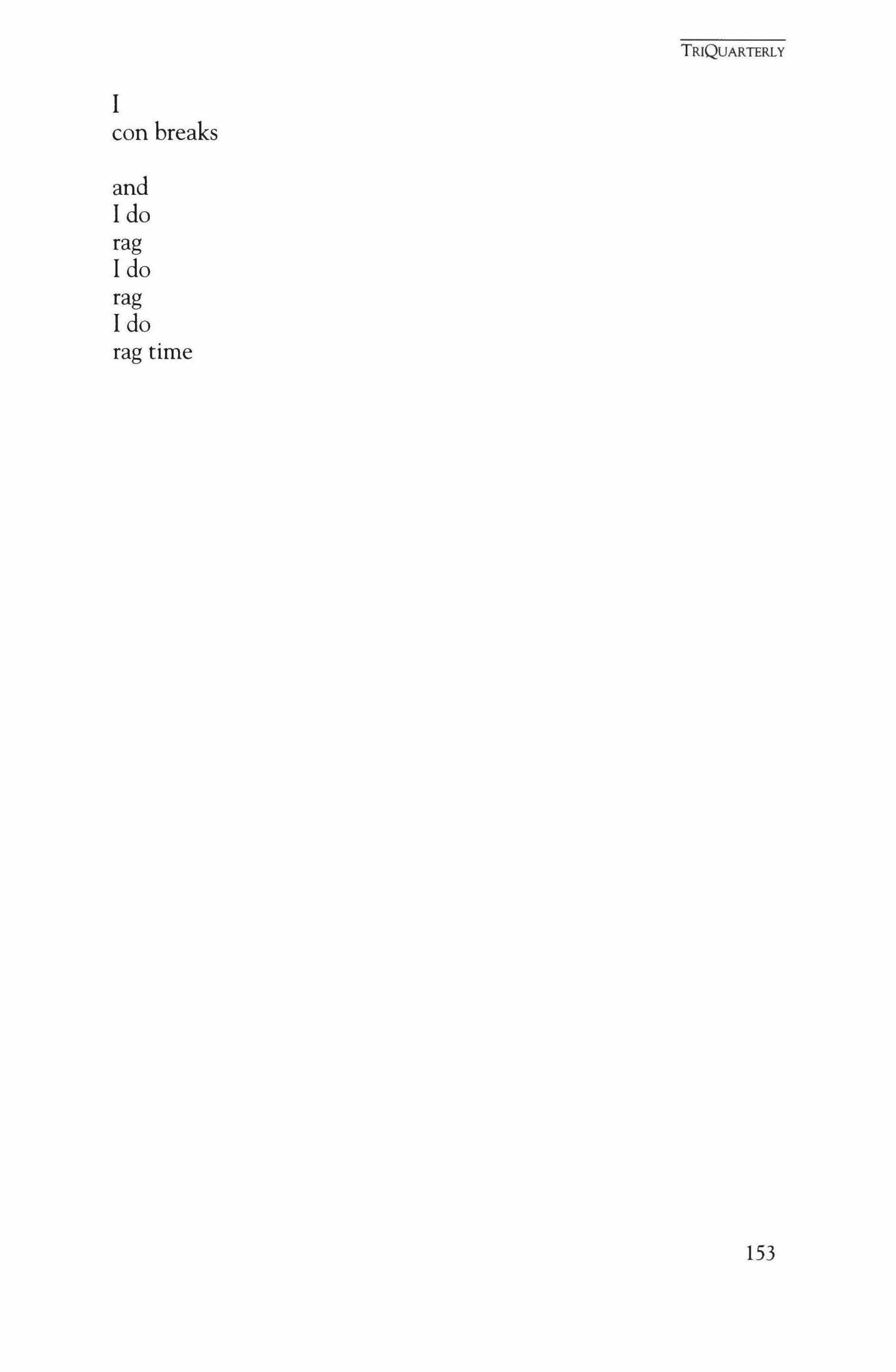
TRIQUARTERLY
153
The Other Side
Minnie Bruce Pratt
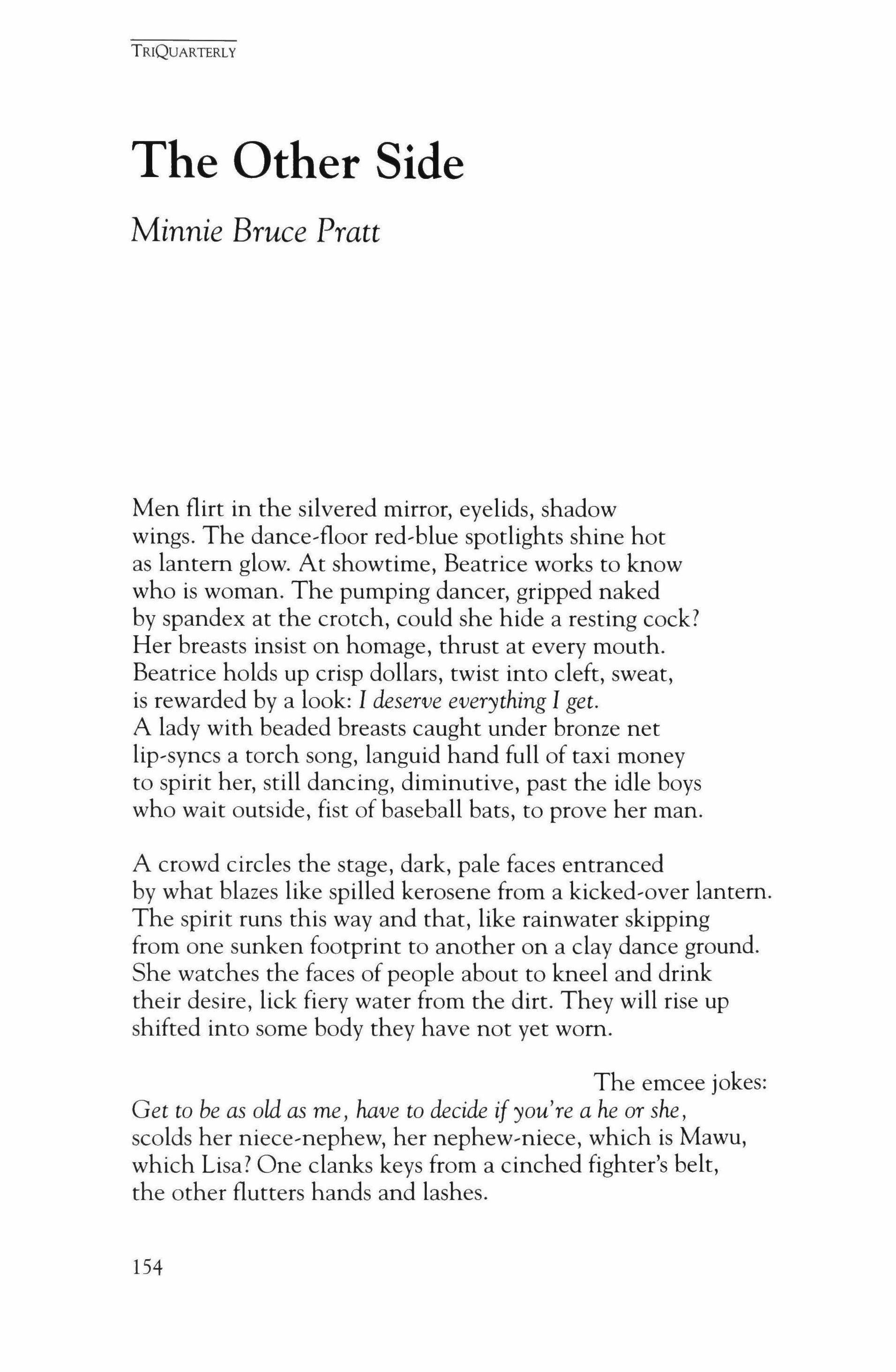
Men flirt in the silvered mirror, eyelids, shadow wings. The dance-floor red-blue spotlights shine hot as lantern glow. At showtime, Beatrice works to know who is woman. The pumping dancer, gripped naked by spandex at the crotch, could she hide a resting cock? Her breasts insist on homage, thrust at every mouth. Beatrice holds up crisp dollars, twist into cleft, sweat, is rewarded by a look: I deserve everything I get. A lady with beaded breasts caught under bronze net lip-syncs a torch song, languid hand full of taxi money to spirit her, still dancing, diminutive, past the idle boys who wait outside, fist of baseball bats, to prove her man.
A crowd circles the stage, dark, pale faces entranced by what blazes like spilled kerosene from a kicked-over lantern. The spirit runs this way and that, like rainwater skipping from one sunken footprint to another on a clay dance ground. She watches the faces of people about to kneel and drink their desire, lick fiery water from the dirt. They will rise up shifted into some body they have not yet worn.
The emcee jokes: Get to be as old as me, have to decide ifyou're a he or she, scolds her niece-nephew, her nephew-niece, which is Mawu, which Lisa? One clanks keys from a cinched fighter's belt, the other flutters hands and lashes.
TRIQUARTERLY
154
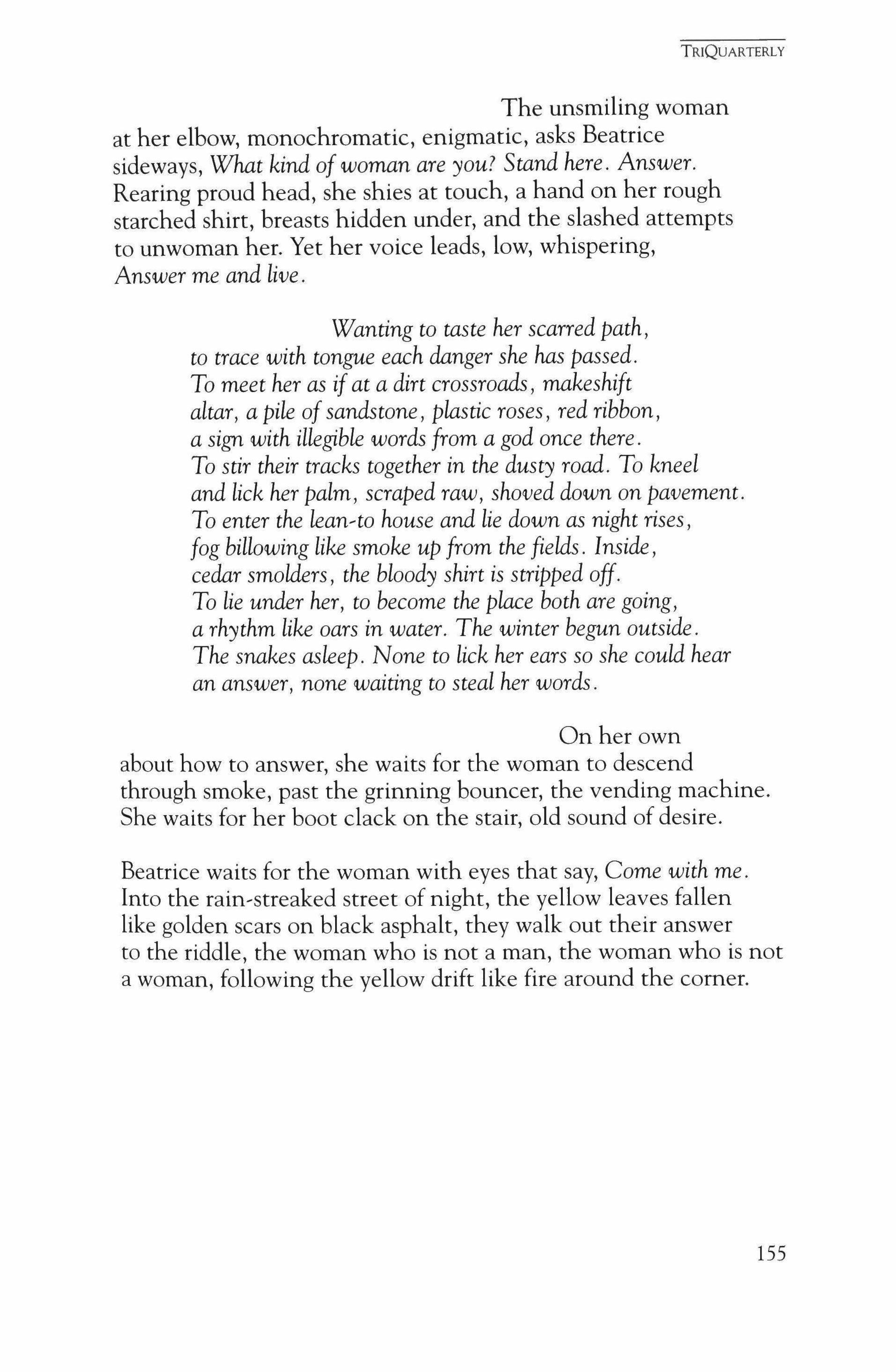
The unsmiling woman at her elbow, monochromatic, enigmatic, asks Beatrice sideways, What kind of woman are you? Stand here. Answer. Rearing proud head, she shies at touch, a hand on her rough starched shirt, breasts hidden under, and the slashed attempts to unwoman her. Yet her voice leads, low, whispering, Answer me and live.
Wanting to taste her scarred path, to trace with tongue each danger she has passed.
To meet her as if at a dirt crossroads, makeshift altar, a pile ofsandstone, plastic roses, red ribbon, a sign with illegible words from a god once there.
To stir their tracks together in the dusty road. To kneel and lick her palm, scraped raw, shoved down on pavement.
To enter the Iezm-to house and lie down as night rises, fog billowing like smoke up from the fields. Inside, cedar smolders, the bloody shirt is stripped off.
To lie under her, to become the place both are going, a rhythm like oars in water. The winter begun outside. The snakes asleep. None to lick her ears so she could hear an answer, none waiting to steal her words.
On her own
about how to answer, she waits for the woman to descend through smoke, past the grinning bouncer, the vending machine. She waits for her boot clack on the stair, old sound of desire.
Beatrice waits for the woman with eyes that say, Come with me. Into the rain-streaked street of night, the yellow leaves fallen like golden scars on black asphalt, they walk out their answer to the riddle, the woman who is not a man, the woman who is not a woman, following the yellow drift like fire around the comer.
TRIQUARTERLY
155
Leaf Confetti
Rohan B. Preston
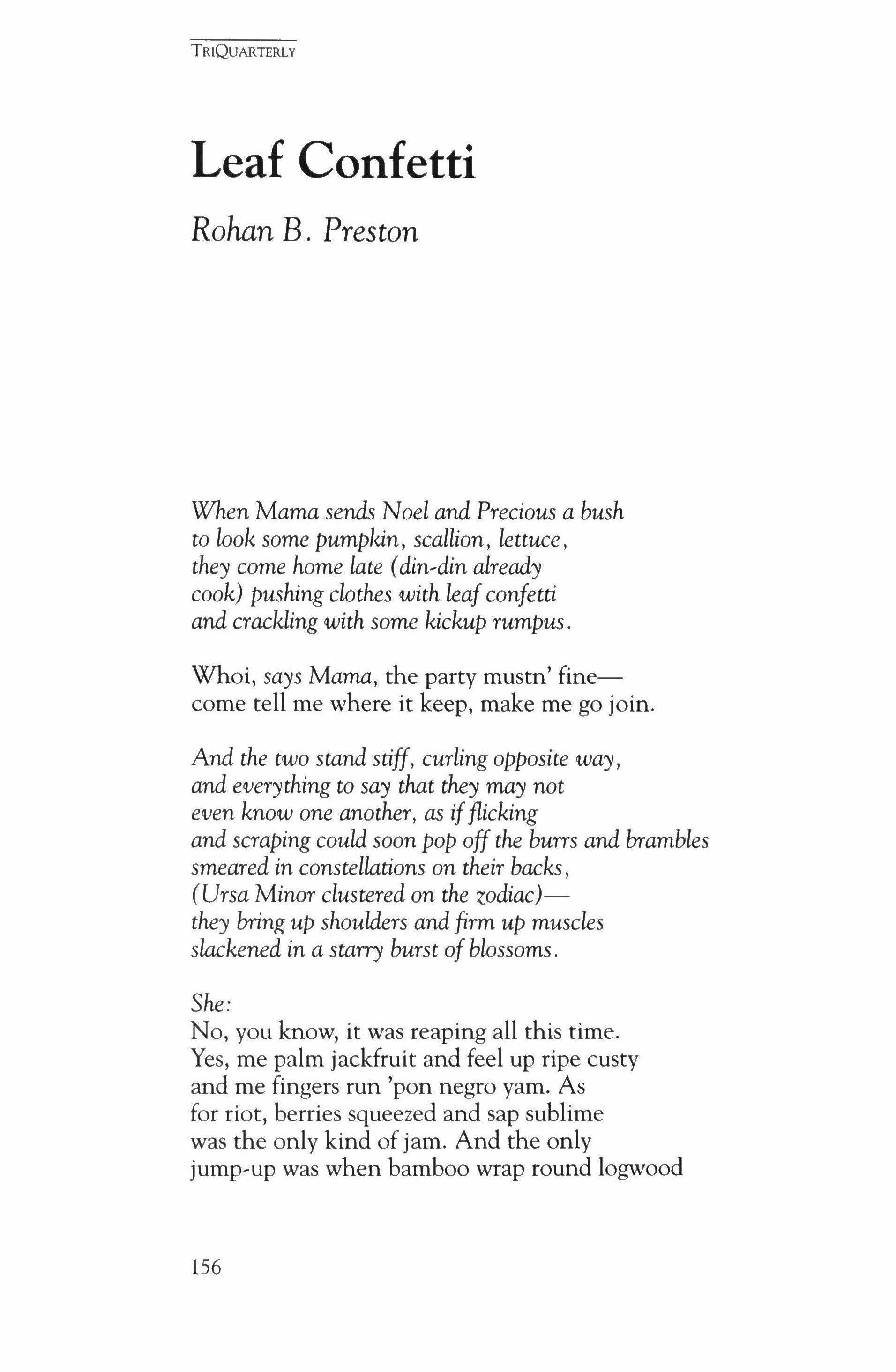
When Mama sends Noel and Precious a bush to look some pumpkin, scallion, lettuce, they come home late (din,din already cook) pushing clothes with leafconfetti and crackling with some kickup rumpus.
Whoi, says Mama, the party mustn' finecome tell me where it keep, make me go join.
And the two stand stiff, curling opposite way, and everything to say that they may not even know one another, as ifflicking and scraping could soon pop off the burrs and brambles smeared in constellations on their backs, (Ursa Minor clustered on the zodiac)they bring up shoulders and firm up muscles slackened in a starry burst of blossoms.
She:
No, you know, it was reaping all this time. Yes, me palm jackfruit and feel up ripe custy and me fingers run 'pon negro yam. As for riot, berries squeezed and sap sublime was the only kind of jam. And the only jump-up was when bamboo wrap round logwood
TRIQUARTERLY
156
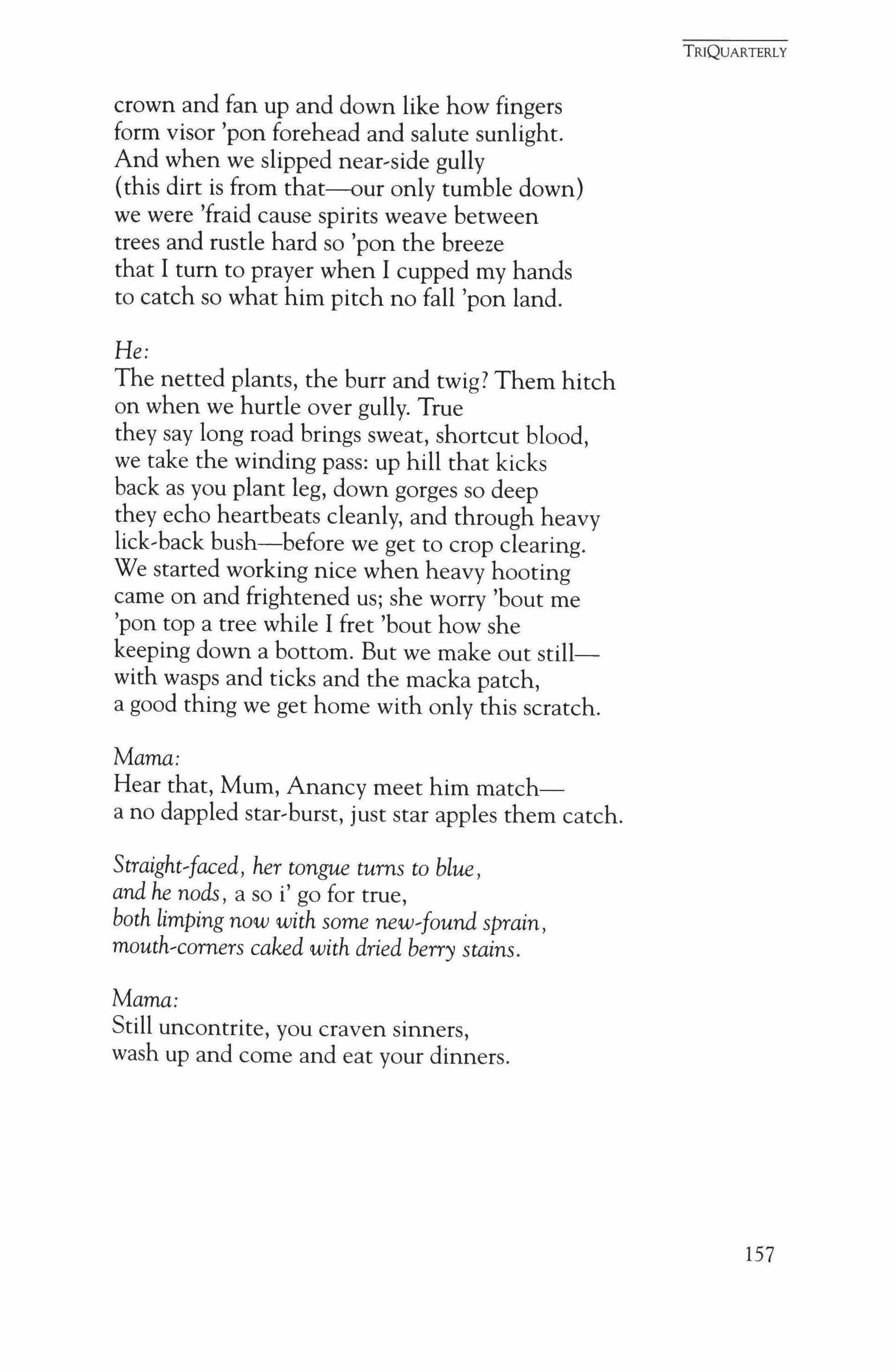
crown and fan up and down like how fingers form visor 'pon forehead and salute sunlight. And when we slipped near-side gully (this dirt is from that=-our only tumble down) we were 'fraid cause spirits weave between trees and rustle hard so 'pon the breeze that I tum to prayer when I cupped my hands to catch so what him pitch no fall 'pon land.
He:
The netted plants, the burr and twig? Them hitch on when we hurtle over gully. True they say long road brings sweat, shortcut blood, we take the winding pass: up hill that kicks back as you plant leg, down gorges so deep they echo heartbeats cleanly, and through heavy lick,back bush-before we get to crop clearing. We started working nice when heavy hooting came on and frightened us; she worry 'bout me 'pon top a tree while I fret 'bout how she keeping down a bottom. But we make out stillwith wasps and ticks and the macka patch, a good thing we get home with only this scratch.
Mama:
Hear that, Mum, Anancy meet him matcha no dappled star,burst, just star apples them catch.
Straight,faced, her tongue turns to blue, and he nods, a so i' go for true, both limping now with some new,found sprain, mouth,corners caked with dried berry stains.
Mama:
Still uncontrite, you craven sinners, wash up and come and eat your dinners.
TRIQUARTERLY 157
Two Poems
Alane Rollings
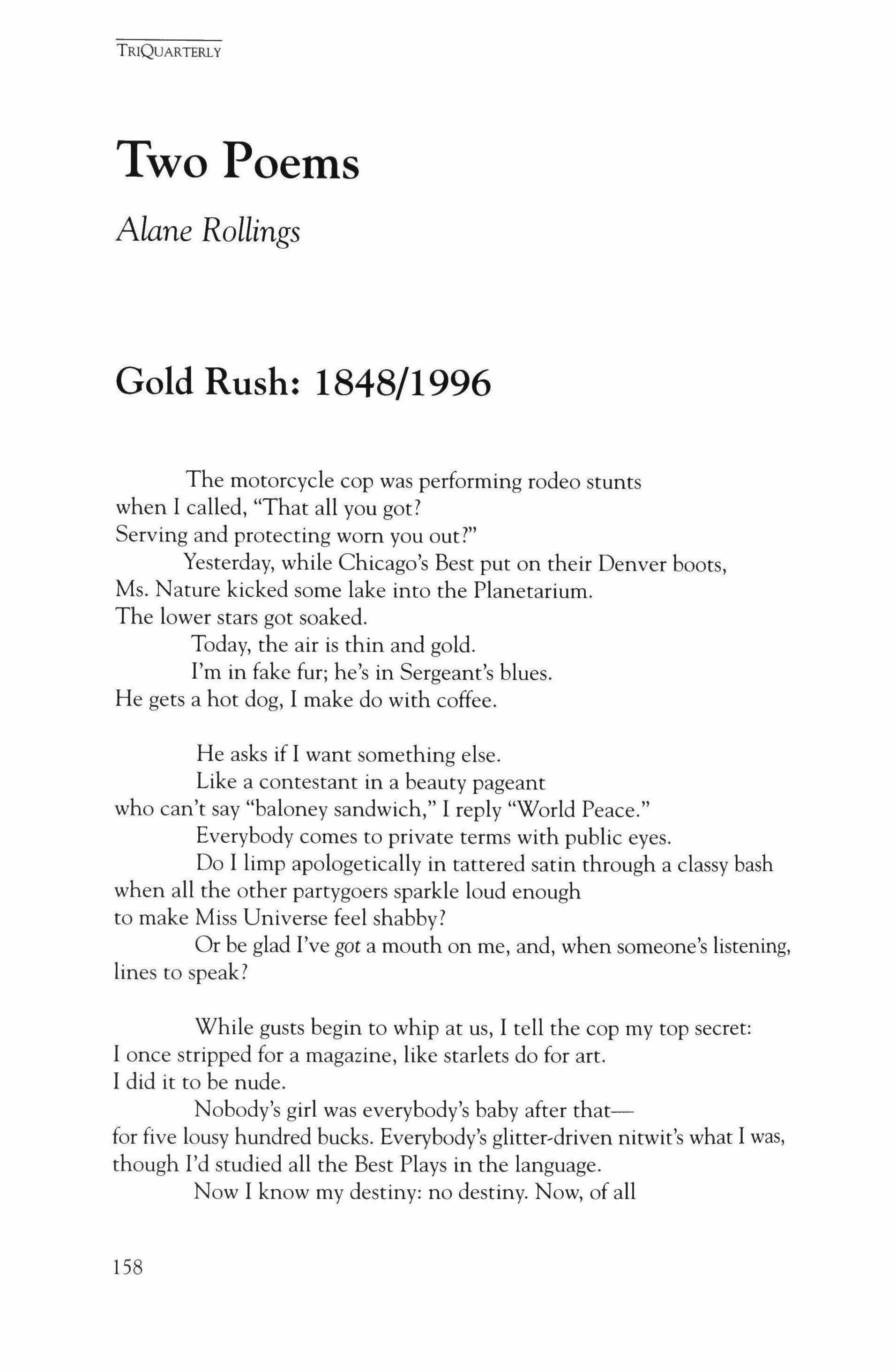
Gold Rush: 1848/1996
The motorcycle cop was performing rodeo stunts when I called, "That all you got? Serving and protecting worn you out?"
Yesterday, while Chicago's Best put on their Denver boots, Ms. Nature kicked some lake into the Planetarium. The lower stars got soaked. Today, the air is thin and gold. I'm in fake fur; he's in Sergeant's blues. He gets a hot dog, I make do with coffee.
He asks if I want something else. Like a contestant in a beauty pageant who can't say "baloney sandwich," I reply "World Peace."
Everybody comes to private terms with public eyes. Do I limp apologetically in tattered satin through a classy bash when all the other partygoers sparkle loud enough to make Miss Universe feel shabby?
Or be glad I've got a mouth on me, and, when someone's listening, lines to speak?
While gusts begin to whip at us, I tell the cop my top secret: I once stripped for a magazine, like starlets do for art. I did it to be nude.
Nobody's girl was everybody's baby after thatfor five lousy hundred bucks. Everybody's glitter-driven nitwit's what I was, though I'd studied all the Best Plays in the language. Now I know my destiny: no destiny. Now, of all
TRIQUARTERLY
158
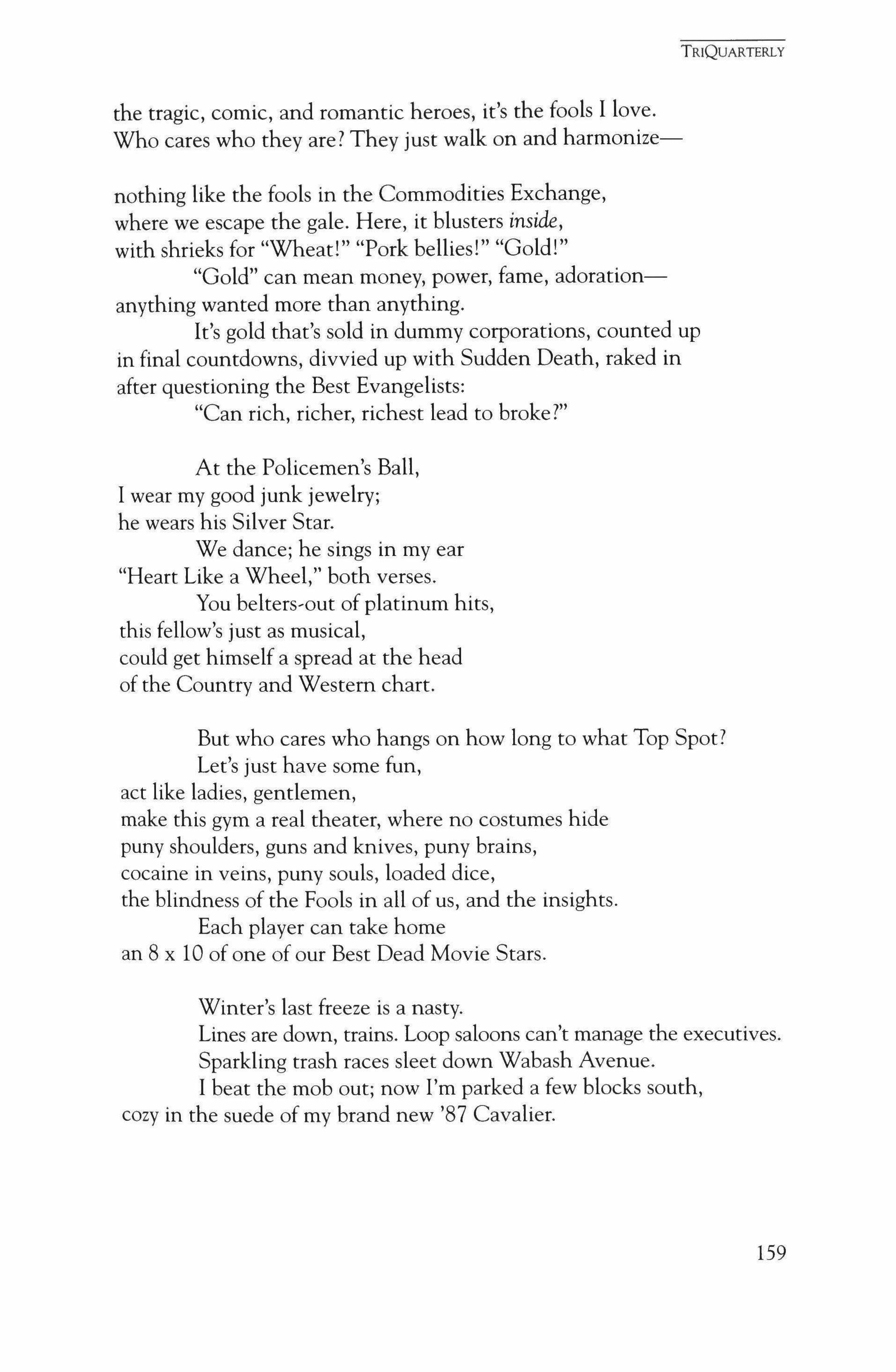
the tragic, comic, and romantic heroes, it's the fools I love. Who cares who they are? They just walk on and harmonize-
nothing like the fools in the Commodities Exchange, where we escape the gale. Here, it blusters inside, with shrieks for "Wheat!" "Pork bellies!" "Gold!"
"Gold" can mean money, power, fame, adorationanything wanted more than anything.
It's gold that's sold in dummy corporations, counted up in final countdowns, divvied up with Sudden Death, raked in after questioning the Best Evangelists: "Can rich, richer, richest lead to broke?"
At the Policemen's Ball, I wear my good junk jewelry; he wears his Silver Star.
We dance; he sings in my ear "Heart Like a Wheel," both verses.
You belters-out of platinum hits, this fellow's just as musical, could get himself a spread at the head of the Country and Western chart.
But who cares who hangs on how long to what Top Spot?
Let's just have some fun, act like ladies, gentlemen, make this gym a real theater, where no costumes hide puny shoulders, guns and knives, puny brains, cocaine in veins, puny souls, loaded dice, the blindness of the Fools in all of us, and the insights. Each player can take home an 8 x 10 of one of our Best Dead Movie Stars.
Winter's last freeze is a nasty. Lines are down, trains. Loop saloons can't manage the executives. Sparkling trash races sleet down Wabash Avenue. I beat the mob out; now I'm parked a few blocks south, cozy in the suede of my brand new '87 Cavalier.
TRIQUARTERLY
159
TR1QUARTERLY
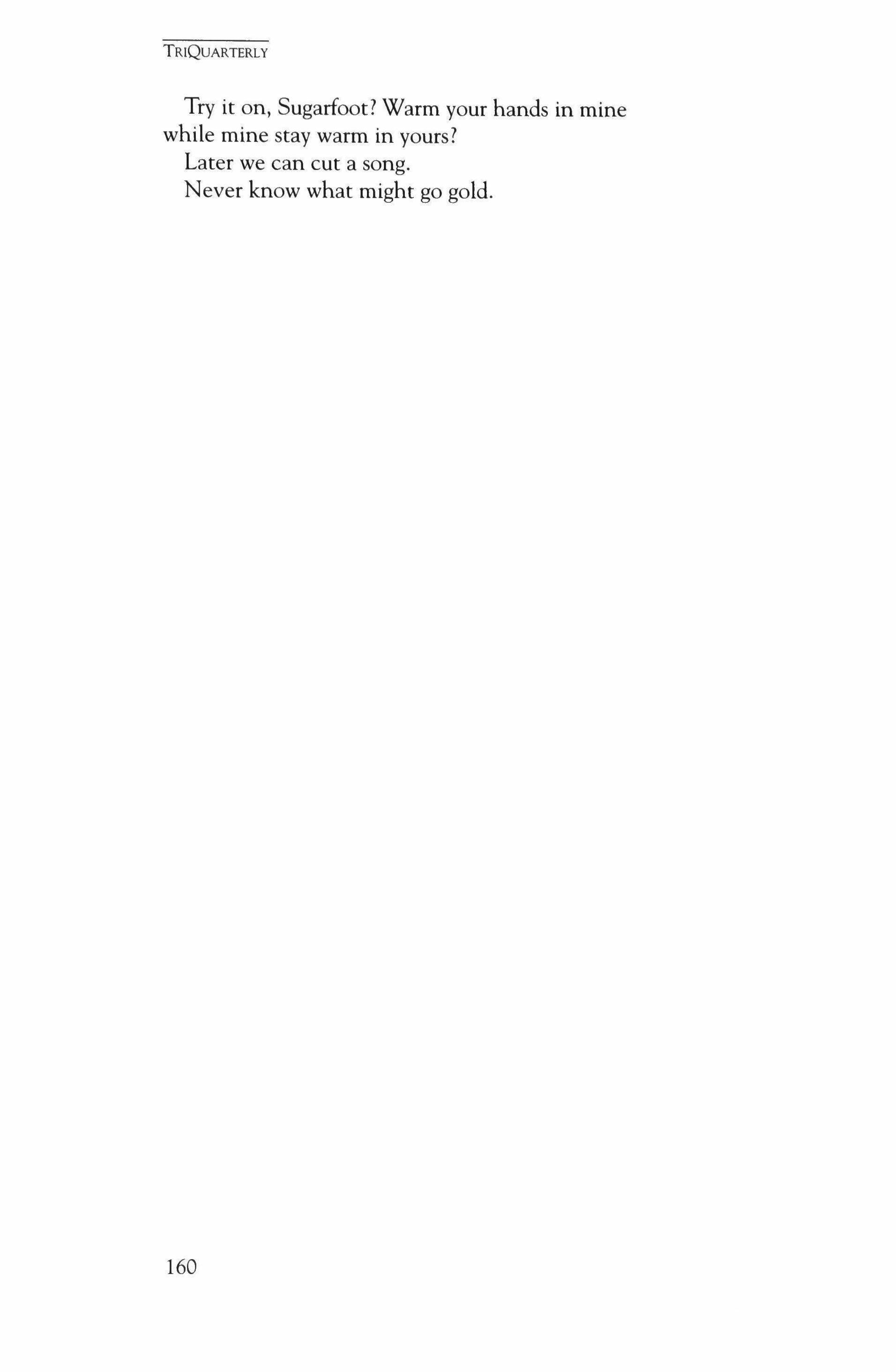
Try it on, Sugarfoot? Warm your hands in mine while mine stay warm in yours?
Later we can cut a song. Never know what might go gold.
160
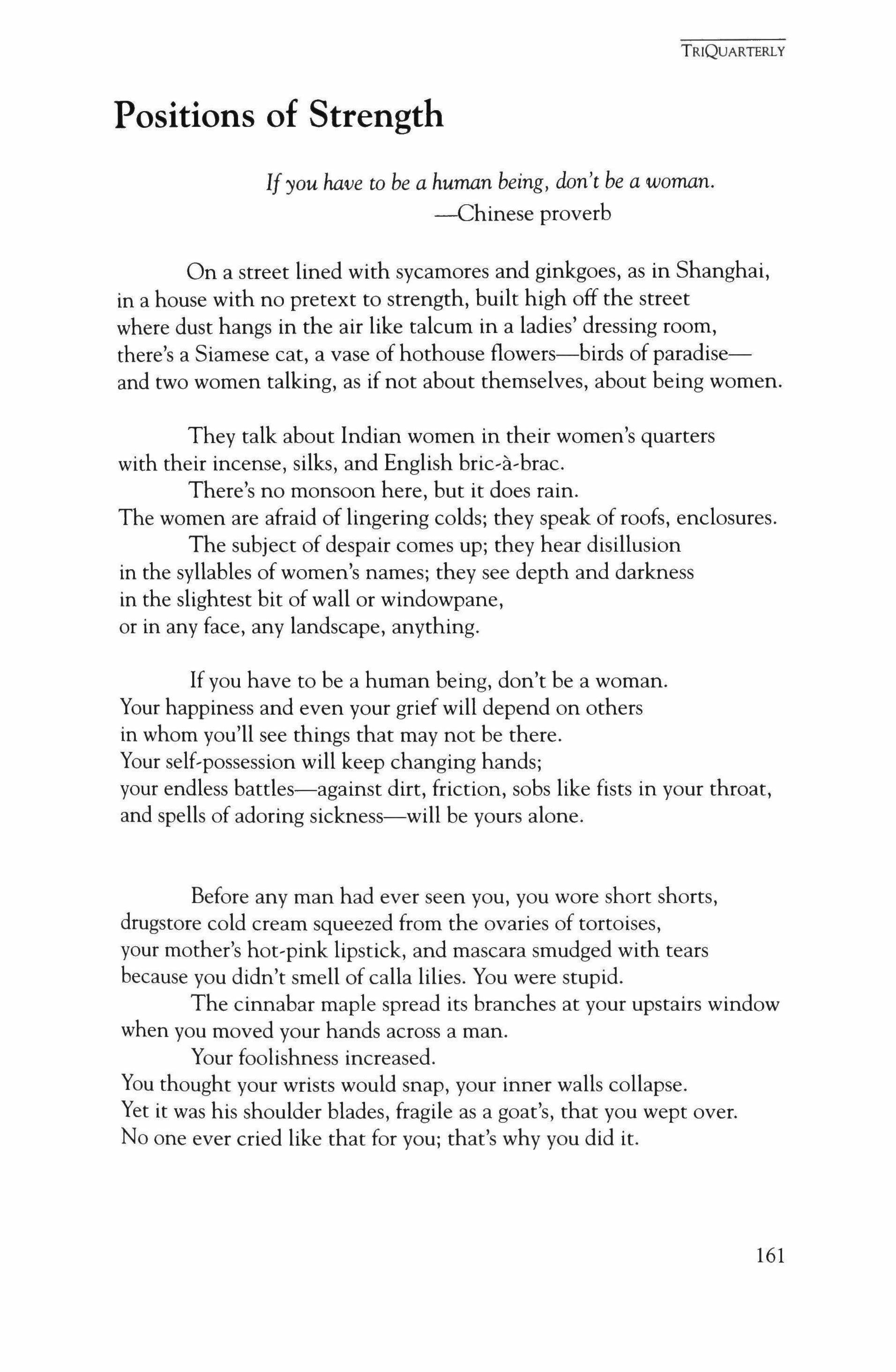
Positions of Strength
If you have to be a human being, don't be a woman.
-Chinese proverb
On a street lined with sycamores and ginkgoes, as in Shanghai, in a house with no pretext to strength, built high off the street where dust hangs in the air like talcum in a ladies' dressing room, there's a Siamese cat, a vase of hothouse flowers-birds of paradiseand two women talking, as if not about themselves, about being women.
They talk about Indian women in their women's quarters with their incense, silks, and English brio-a-brae.
There's no monsoon here, but it does rain. The women are afraid of lingering colds; they speak of roofs, enclosures.
The subject of despair comes up; they hear disillusion in the syllables of women's names; they see depth and darkness in the slightest bit of wall or windowpane, or in any face, any landscape, anything.
If you have to be a human being, don't be a woman. Your happiness and even your grief will depend on others in whom you'll see things that may not be there. Your self-possession will keep changing hands; your endless battles-against dirt, friction, sobs like fists in your throat, and spells of adoring sickness-will be yours alone.
Before any man had ever seen you, you wore short shorts, drugstore cold cream squeezed from the ovaries of tortoises, your mother's hot-pink lipstick, and mascara smudged with tears because you didn't smell of calla lilies. You were stupid. The cinnabar maple spread its branches at your upstairs window when you moved your hands across a man.
Your foolishness increased. You thought your wrists would snap, your inner walls collapse. Yet it was his shoulder blades, fragile as a goat's, that you wept over. No one ever cried like that for you; that's why you did it.
TRIQUARTERLY
161
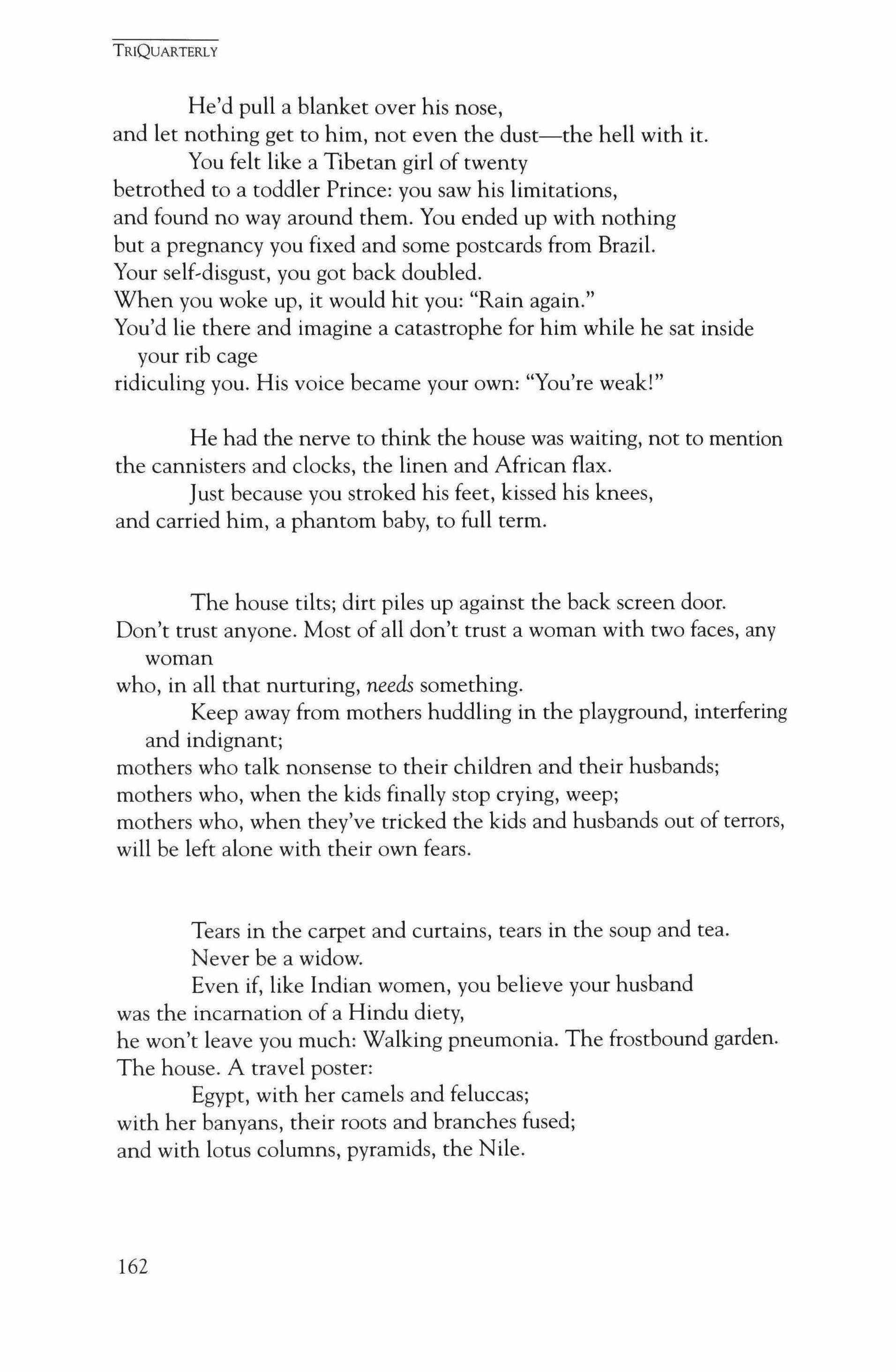
He'd pull a blanket over his nose, and let nothing get to him, not even the dust-the hell with it. You felt like a Tibetan girl of twenty betrothed to a toddler Prince: you saw his limitations, and found no way around them. You ended up with nothing but a pregnancy you fixed and some postcards from Brazil. Your self-disgust, you got back doubled. When you woke up, it would hit you: "Rain again." You'd lie there and imagine a catastrophe for him while he sat inside your rib cage ridiculing you. His voice became your own: "You're weak!"
He had the nerve to think the house was waiting, not to mention the cannisters and clocks, the linen and African flax.
Just because you stroked his feet, kissed his knees, and carried him, a phantom baby, to full term.
The house tilts; dirt piles up against the back screen door. Don't trust anyone. Most of all don't trust a woman with two faces, any woman who, in all that nurturing, needs something. Keep away from mothers huddling in the playground, interfering and indignant; mothers who talk nonsense to their children and their husbands; mothers who, when the kids finally stop crying, weep; mothers who, when they've tricked the kids and husbands out of terrors, will be left alone with their own fears.
Tears in the carpet and curtains, tears in the soup and tea. Never be a widow.
Even if, like Indian women, you believe your husband was the incarnation of a Hindu diety, he won't leave you much: Walking pneumonia. The frostbound garden. The house. A travel poster: Egypt, with her camels and feluccas; with her banyans, their roots and branches fused; and with lotus columns, pyramids, the Nile.
TRIQUARTERLY
162
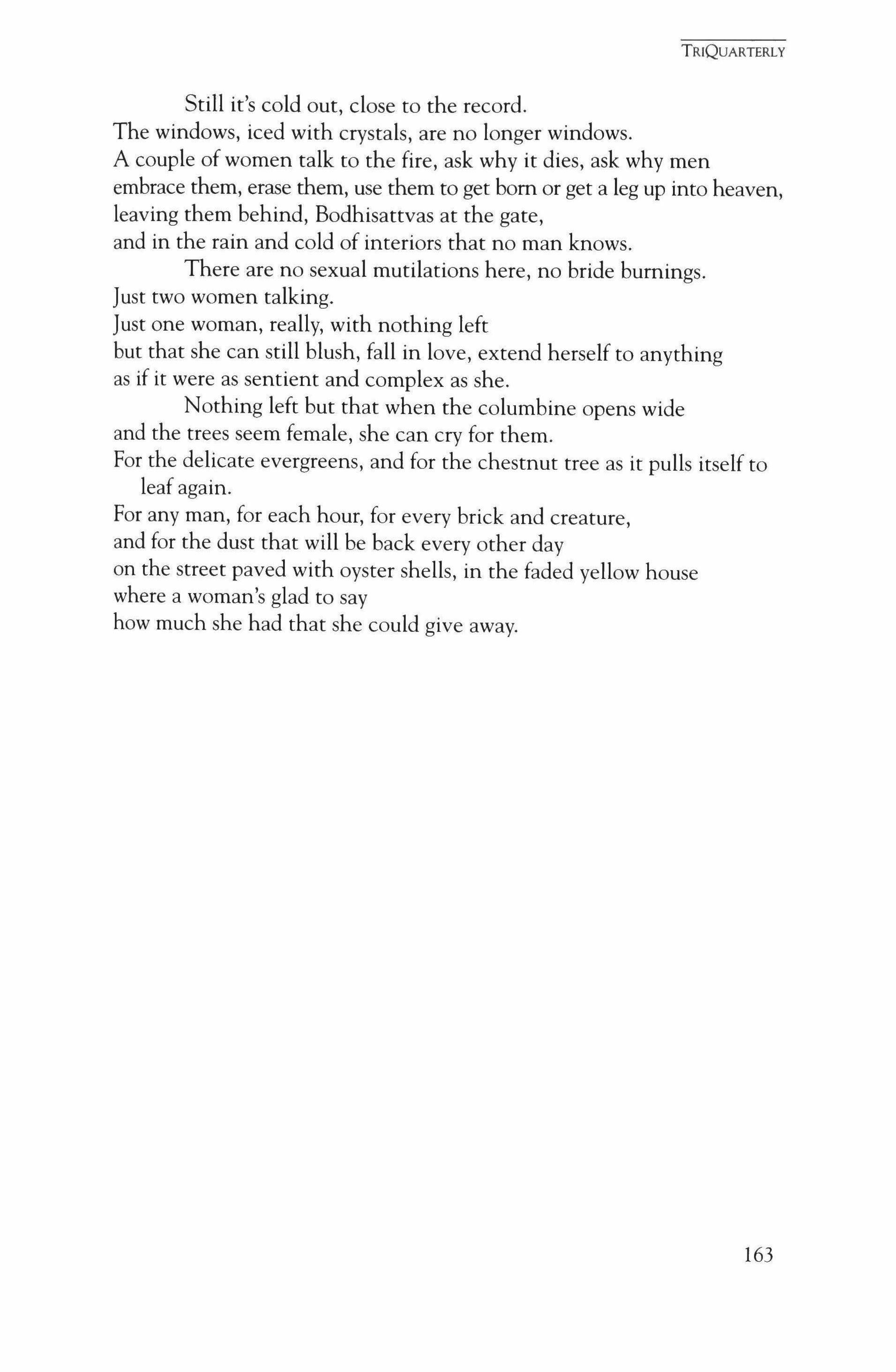
Still it's cold out, close to the record. The windows, iced with crystals, are no longer windows. A couple of women talk to the fire, ask why it dies, ask why men embrace them, erase them, use them to get born or get a leg up into heaven, leaving them behind, Bodhisattvas at the gate, and in the rain and cold of interiors that no man knows. There are no sexual mutilations here, no bride burnings. Just two women talking.
Just one woman, really, with nothing left but that she can still blush, fall in love, extend herself to anything as if it were as sentient and complex as she.
Nothing left but that when the columbine opens wide and the trees seem female, she can cry for them. For the delicate evergreens, and for the chestnut tree as it pulls itself to leaf again.
For any man, for each hour, for every brick and creature, and for the dust that will be back every other day on the street paved with oyster shells, in the faded yellow house where a woman's glad to say how much she had that she could give away.
TRIQUARTERLY
163
Three Pieces
Juan Rulfo
Translated from the Spanish by
Deborah Owen Moore
A Piece of the Night (a fragment)
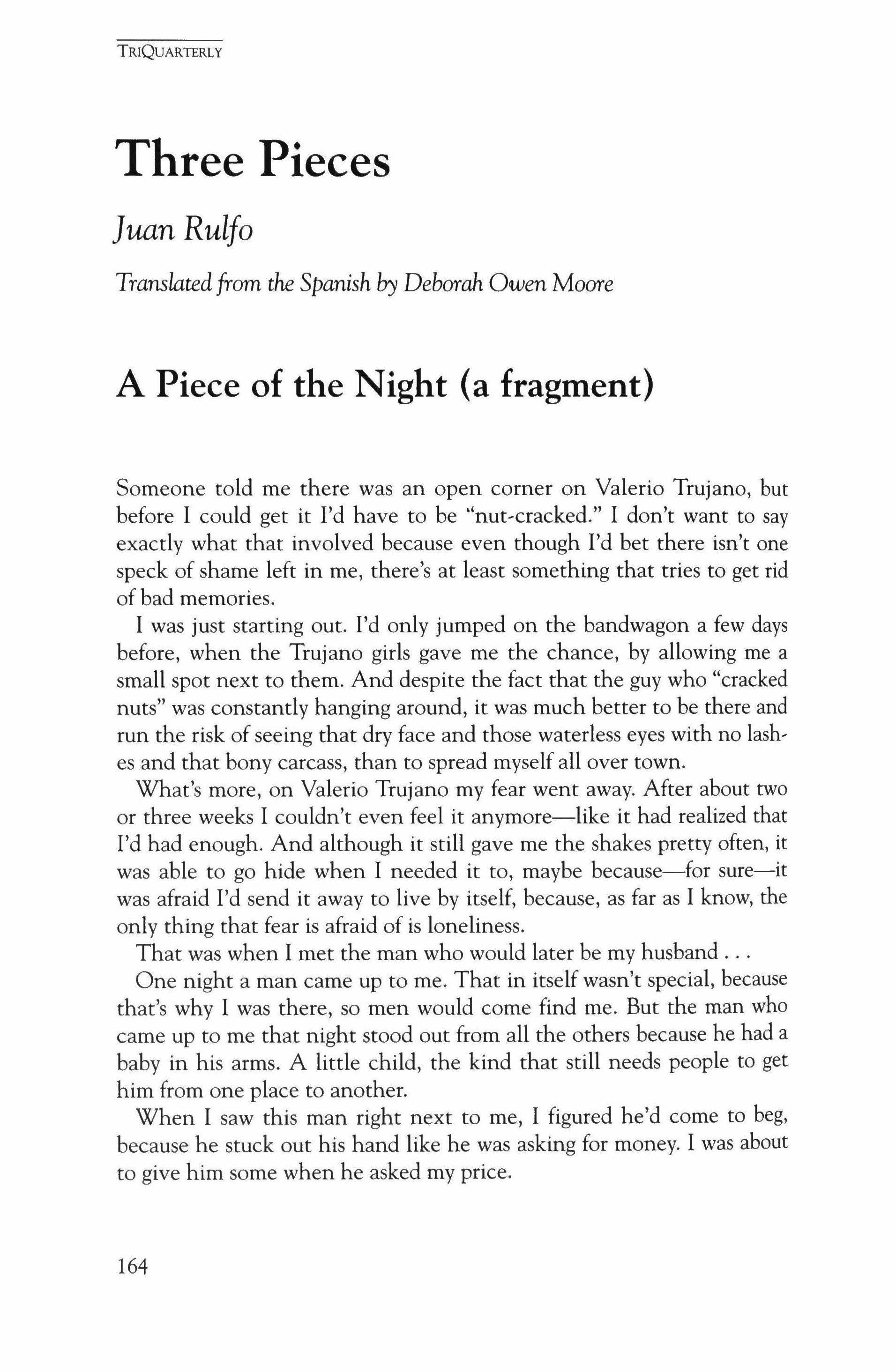
Someone told me there was an open corner on Valerio Trujano, but before I could get it I'd have to be "nut-cracked." I don't want to say exactly what that involved because even though I'd bet there isn't one speck of shame left in me, there's at least something that tries to get rid of bad memories.
I was just starting out. I'd only jumped on the bandwagon a few days before, when the Trujano girls gave me the chance, by allowing me a small spot next to them. And despite the fact that the guy who "cracked nuts" was constantly hanging around, it was much better to be there and run the risk of seeing that dry face and those waterless eyes with no lashes and that bony carcass, than to spread myself all over town.
What's more, on Valerio Trujano my fear went away. After about two or three weeks I couldn't even feel it anymore-like it had realized that I'd had enough. And although it still gave me the shakes pretty often, it was able to go hide when I needed it to, maybe because-for sure-it was afraid I'd send it away to live by itself, because, as far as I know, the only thing that fear is afraid of is loneliness.
That was when I met the man who would later be my husband
One night a man came up to me. That in itself wasn't special, because that's why I was there, so men would come find me. But the man who came up to me that night stood out from all the others because he had a baby in his arms. A little child, the kind that still needs people to get him from one place to another.
When I saw this man right next to me, I figured he'd come to beg, because he stuck out his hand like he was asking for money. I was about to give him some when he asked my price.
TRIQUARTERLY
164
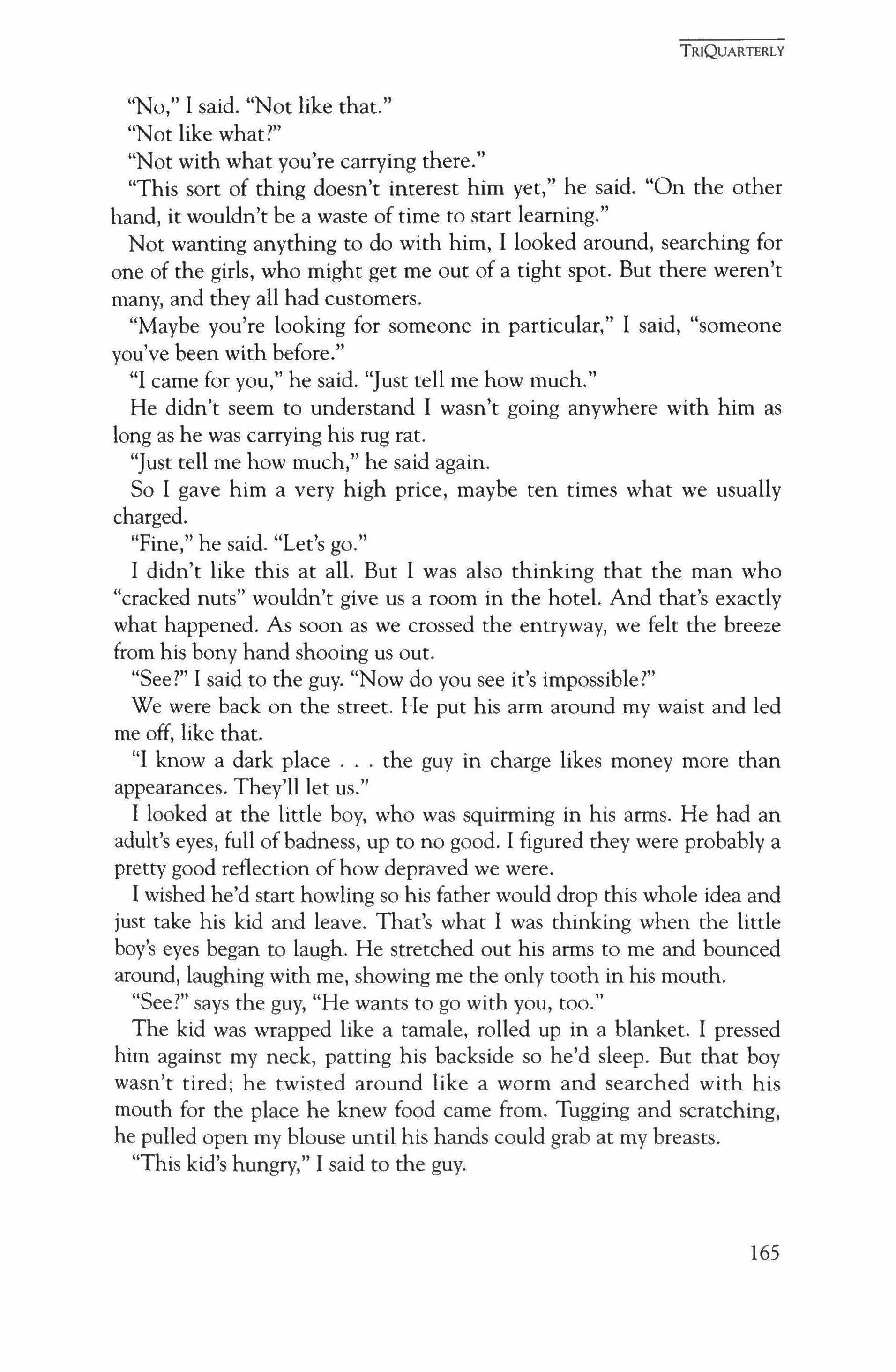
"No," I said. "Not like that."
"Not like what?"
"Not with what you're carrying there."
"This sort of thing doesn't interest him yet," he said. "On the other hand, it wouldn't be a waste of time to start learning."
Not wanting anything to do with him, I looked around, searching for one of the girls, who might get me out of a tight spot. But there weren't many, and they all had customers.
"Maybe you're looking for someone in particular," I said, "someone you've been with before."
"I came for you," he said. "Just tell me how much."
He didn't seem to understand I wasn't going anywhere with him as long as he was carrying his rug rat.
"Just tell me how much," he said again.
So I gave him a very high price, maybe ten times what we usually charged.
"Fine," he said. "Let's go."
I didn't like this at all. But I was also thinking that the man who "cracked nuts" wouldn't give us a room in the hotel. And that's exactly what happened. As soon as we crossed the entryway, we felt the breeze from his bony hand shooing us out.
"See?" I said to the guy. "Now do you see it's impossible?"
We were back on the street. He put his arm around my waist and led me off, like that.
"I know a dark place the guy in charge likes money more than appearances. They'll let us."
I looked at the little boy, who was squirming in his arms. He had an adult's eyes, full of badness, up to no good. I figured they were probably a pretty good reflection of how depraved we were.
I wished he'd start howling so his father would drop this whole idea and just take his kid and leave. That's what I was thinking when the little boy's eyes began to laugh. He stretched out his arms to me and bounced around, laughing with me, showing me the only tooth in his mouth.
"See?" says the guy, "He wants to go with you, too."
The kid was wrapped like a tamale, rolled up in a blanket. I pressed him against my neck, patting his backside so he'd sleep. But that boy wasn't tired; he twisted around like a worm and searched with his mouth for the place he knew food came from. Tugging and scratching, he pulled open my blouse until his hands could grab at my breasts.
"This kid's hungry," I said to the guy.
TRIQUARTERLY
165
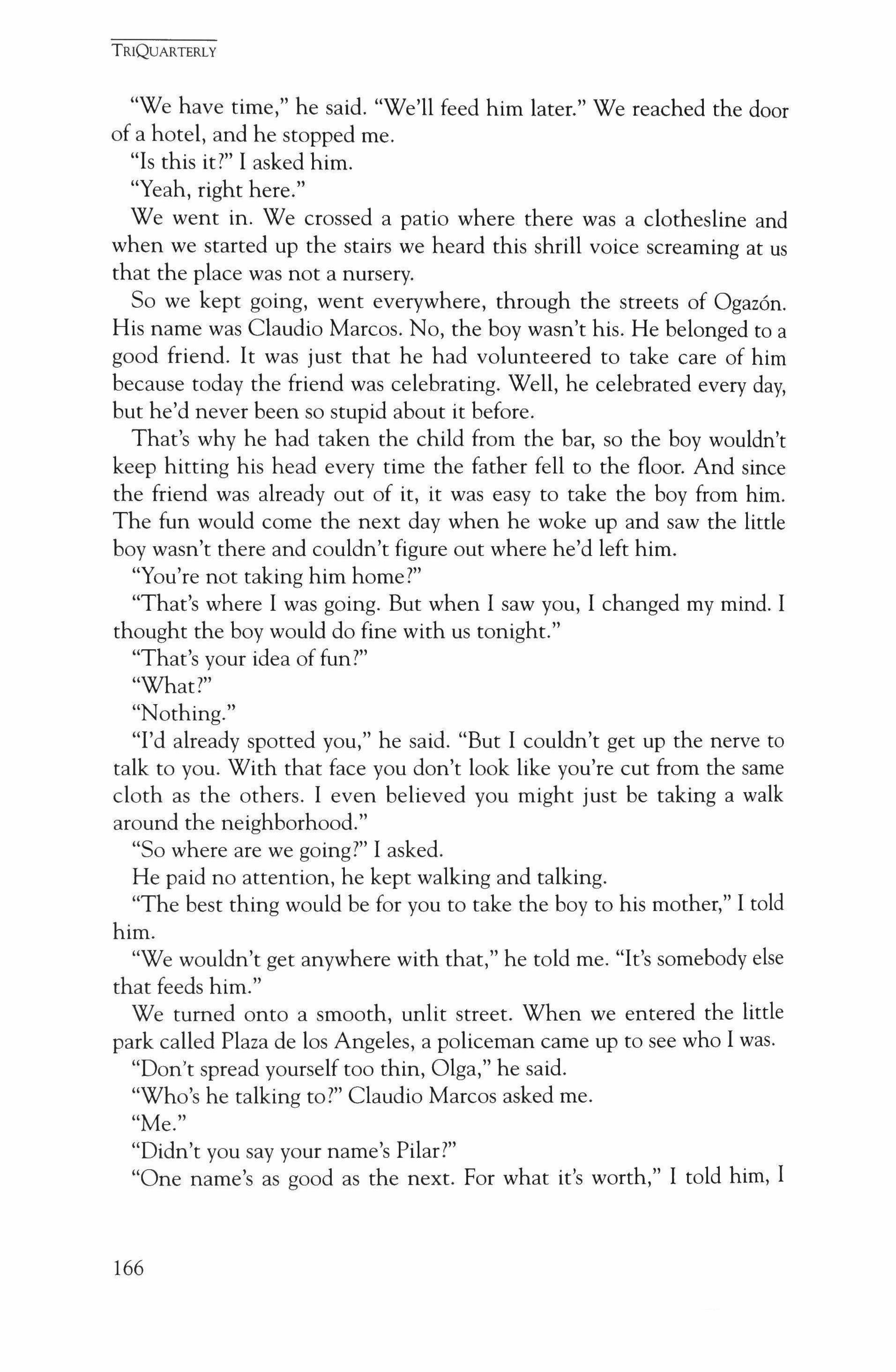
"We have time," he said. "We'll feed him later." We reached the door of a hotel, and he stopped me.
"Is this it?" I asked him.
"Yeah, right here."
We went in. We crossed a patio where there was a clothesline and when we started up the stairs we heard this shrill voice screaming at us that the place was not a nursery.
So we kept going, went everywhere, through the streets of Ogazon. His name was Claudio Marcos. No, the boy wasn't his. He belonged to a good friend. It was just that he had volunteered to take care of him because today the friend was celebrating. Well, he celebrated every day, but he'd never been so stupid about it before.
That's why he had taken the child from the bar, so the boy wouldn't keep hitting his head every time the father fell to the floor. And since the friend was already out of it, it was easy to take the boy from him. The fun would corne the next day when he woke up and saw the little boy wasn't there and couldn't figure out where he'd left him.
"You're not taking him horne?"
"That's where I was going. But when I saw you, I changed my mind. I thought the boy would do fine with us tonight."
"That's your idea of fun?"
"What?"
"Nothing."
"I'd already spotted you," he said. "But I couldn't get up the nerve to talk to you. With that face you don't look like you're cut from the same cloth as the others. I even believed you might just be taking a walk around the neighborhood."
"So where are we going?" I asked.
He paid no attention, he kept walking and talking.
"The best thing would be for you to take the boy to his mother," I told him.
"We wouldn't get anywhere with that," he told me. "It's somebody else that feeds him."
We turned onto a smooth, unlit street. When we entered the little park called Plaza de los Angeles, a policeman carne up to see who I was.
"Don't spread yourself too thin, Olga," he said.
"Who's he talking to?" Claudio Marcos asked me.
"Me."
"Didn't you say your name's Pilar?"
"One name's as good as the next. For what it's worth," I told him, I
TRIQUARTERLY
166

was already pretty annoyed. "What we have to do is get back, I'm way out of my territory."
We made it to Santiago Garden and sat down on a bench. The little one had fallen asleep on my shoulder. And although he didn't weigh much, he was so thin, I just couldn't find a way to get rid of him. I also couldn't explain to myself why I was going along with any of this, much less how we were going to go to bed together with that baby between us. Even so, it didn't seem like the guy would ever stop chattering.
"Listen," I said, I got serious, "this boy ought to be asleep in his own bed. You ought to take him there. And if his mother doesn't feed him, then you do it, just because that's the right thing to do."
"You think it's time for him to eat?"
"I don't know," I told him, "but just looking at how skinny he is makes me think he hasn't had a mouthful to eat in his whole life."
"Oh, no. Not true. I definitely don't agree with that. The boy eats. He eats a ton. Just today at noon he polished off half a dozen tortillas. He also likes chili and bean soup. He eats all that stuff. Now, if you don't believe me, we'll go somewhere. I've got fifty pesos. We'll go to a cafe and ask for fifty pesos' worth of food for the three of us. O.K.?"
Actually, I wasn't hungry. We stopped at the first sandwich shop we found. And there, with all those people, with the sticky smell of frying sausage, I forgot my situation, how I was hanging around with this man next to me. And it occurred to me that he'd probably forgotten, a while back, what he had picked me up for in the first place.
We ate. Besides his own food, he ordered a glass of milk and some little sandwiches.
He sat the boy on his lap and began giving him bite after bite of sandwich soaked in milk. When the boy finished the first sandwich, he ate another and then a third. The boy would gnaw on them with his one tooth till the bread was chewed up, then he made a ball out of the paste and just swallowed the whole thing.
"See? He doesn't choke," this character was telling me, laughing. "His throat is so big because his parents have been packing him full of food ever since he was born-everything you can get in bars. Having a throat this big is good for him."
"While we're on this topic," I said, "what the hell are you doing with this boy, if he has a mother who's supposed to take care of him?"
"You're referring to my good friend Flaviana?"
"I don't know which of your good friends I'm referring to. But this isn't going to be much of a night for me. I won't even earn bus fare."
TRIQUARTERLY
167
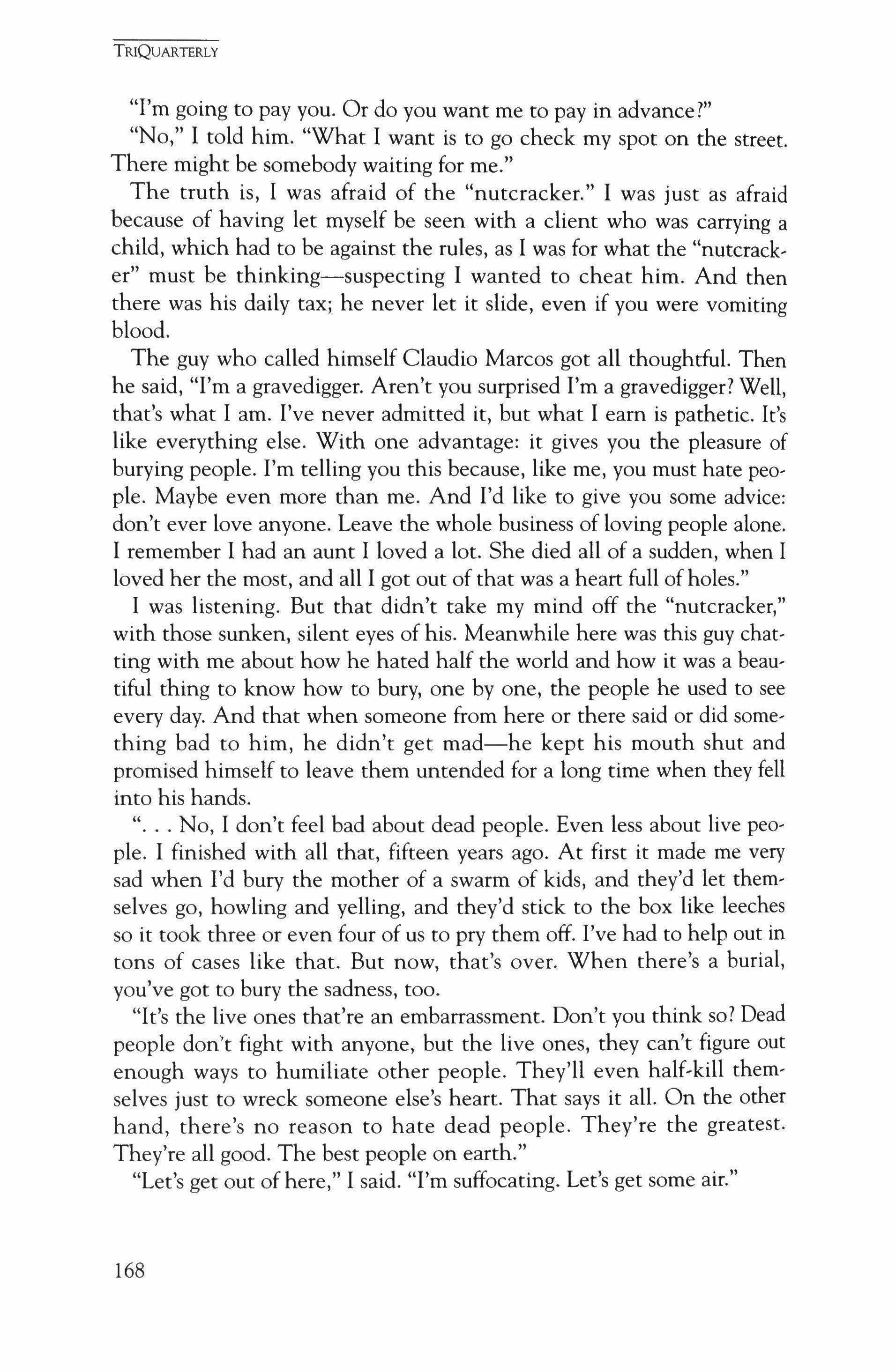
"I'm going to pay you. Or do you want me to pay in advance?" "No," I told him. "What I want is to go check my spot on the street. There might be somebody waiting for me."
The truth is, I was afraid of the "nutcracker." I was just as afraid because of having let myself be seen with a client who was carrying a child, which had to be against the rules, as I was for what the "nutcracker" must be thinking-suspecting I wanted to cheat him. And then there was his daily tax; he never let it slide, even if you were vomiting blood.
The guy who called himself Claudio Marcos got all thoughtful. Then he said, "I'm a gravedigger. Aren't you surprised I'm a gravedigger? Well, that's what I am. I've never admitted it, but what I earn is pathetic. It's like everything else. With one advantage: it gives you the pleasure of burying people. I'm telling you this because, like me, you must hate people. Maybe even more than me. And I'd like to give you some advice: don't ever love anyone. Leave the whole business of loving people alone. I remember I had an aunt I loved a lot. She died all of a sudden, when I loved her the most, and all I got out of that was a heart full of holes."
I was listening. But that didn't take my mind off the "nutcracker," with those sunken, silent eyes of his. Meanwhile here was this guy chatting with me about how he hated half the world and how it was a beautiful thing to know how to bury, one by one, the people he used to see every day. And that when someone from here or there said or did something bad to him, he didn't get mad-he kept his mouth shut and promised himself to leave them untended for a long time when they fell into his hands.
No, I don't feel bad about dead people. Even less about live people. I finished with all that, fifteen years ago. At first it made me very sad when I'd bury the mother of a swarm of kids, and they'd let themselves go, howling and yelling, and they'd stick to the box like leeches so it took three or even four of us to pry them off. I've had to help out in tons of cases like that. But now, that's over. When there's a burial, you've got to bury the sadness, too.
"It's the live ones that're an embarrassment. Don't you think so? Dead people don't fight with anyone, but the live ones, they can't figure out enough ways to humiliate other people. They'll even half-kill themselves just to wreck someone else's heart. That says it all. On the other hand, there's no reason to hate dead people. They're the greatest. They're all good. The best people on earth."
"Let's get out of here," I said. "I'm suffocating. Let's get some air."
TRIQUARTERLY
168
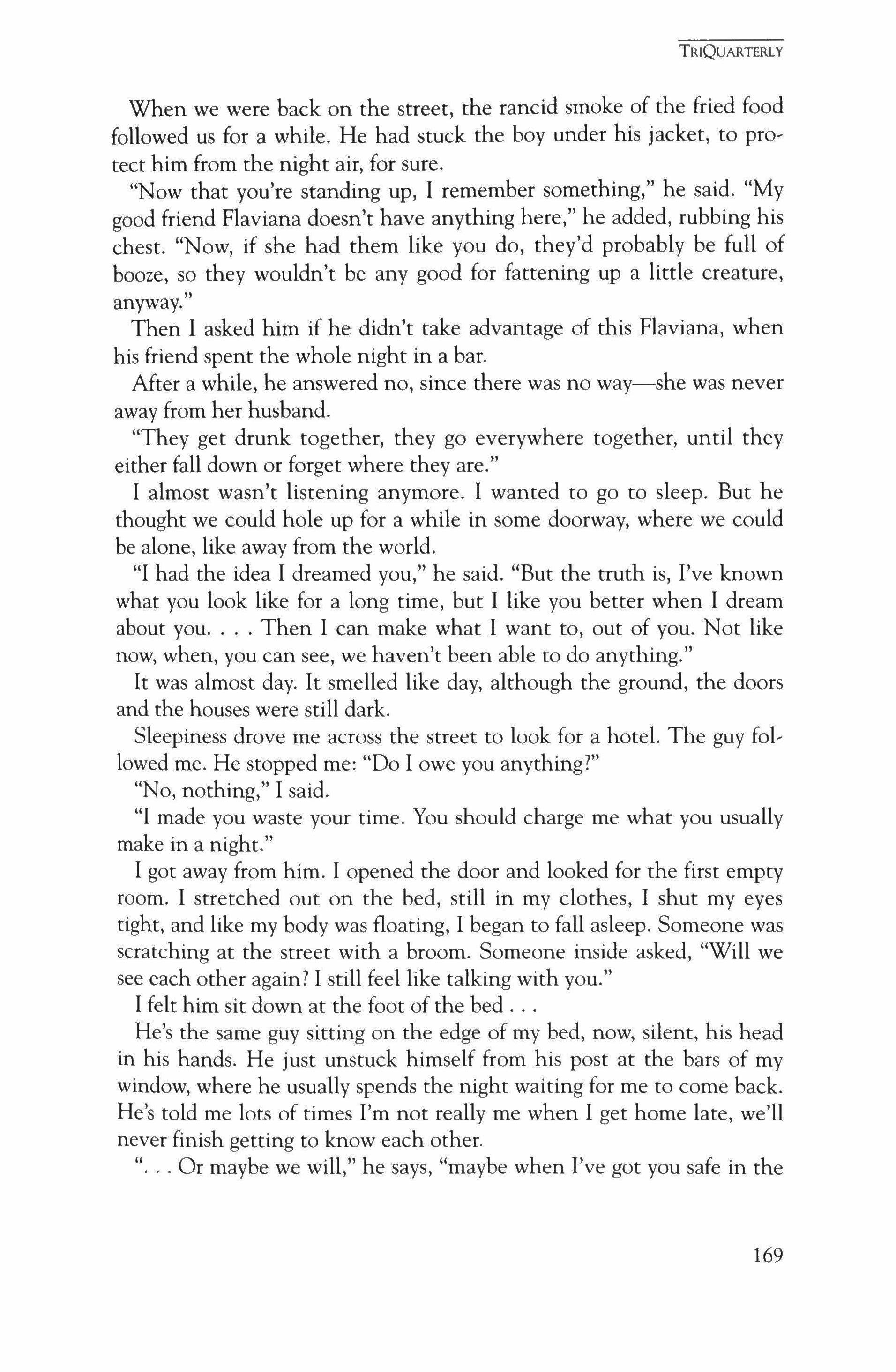
When we were back on the street, the rancid smoke of the fried food followed us for a while. He had stuck the boy under his jacket, to protect him from the night air, for sure.
"Now that you're standing up, I remember something," he said. "My good friend Flaviana doesn't have anything here," he added, rubbing his chest. "Now, if she had them like you do, they'd probably be full of booze, so they wouldn't be any good for fattening up a little creature, anyway."
Then I asked him if he didn't take advantage of this Flaviana, when his friend spent the whole night in a bar.
After a while, he answered no, since there was no way-she was never away from her husband.
"They get drunk together, they go everywhere together, until they either fall down or forget where they are."
I almost wasn't listening anymore. I wanted to go to sleep. But he thought we could hole up for a while in some doorway, where we could be alone, like away from the world.
"I had the idea I dreamed you," he said. "But the truth is, I've known what you look like for a long time, but I like you better when I dream about you Then I can make what I want to, out of you. Not like now, when, you can see, we haven't been able to do anything."
It was almost day. It smelled like day, although the ground, the doors and the houses were still dark.
Sleepiness drove me across the street to look for a hotel. The guy followed me. He stopped me: "Do lowe you anything?"
"No, nothing," I said.
"I made you waste your time. You should charge me what you usually make in a night."
I got away from him. I opened the door and looked for the first empty room. I stretched out on the bed, still in my clothes, I shut my eyes tight, and like my body was floating, I began to fall asleep. Someone was scratching at the street with a broom. Someone inside asked, "Will we see each other again? I still feel like talking with you."
I felt him sit down at the foot of the bed
He's the same guy sitting on the edge of my bed, now, silent, his head in his hands. He just unstuck himself from his post at the bars of my window, where he usually spends the night waiting for me to come back. He's told me lots of times I'm not really me when I get home late, we'll never finish getting to know each other. Or maybe we will," he says, "maybe when I've got you safe in the
TRIQUARTERLY
169
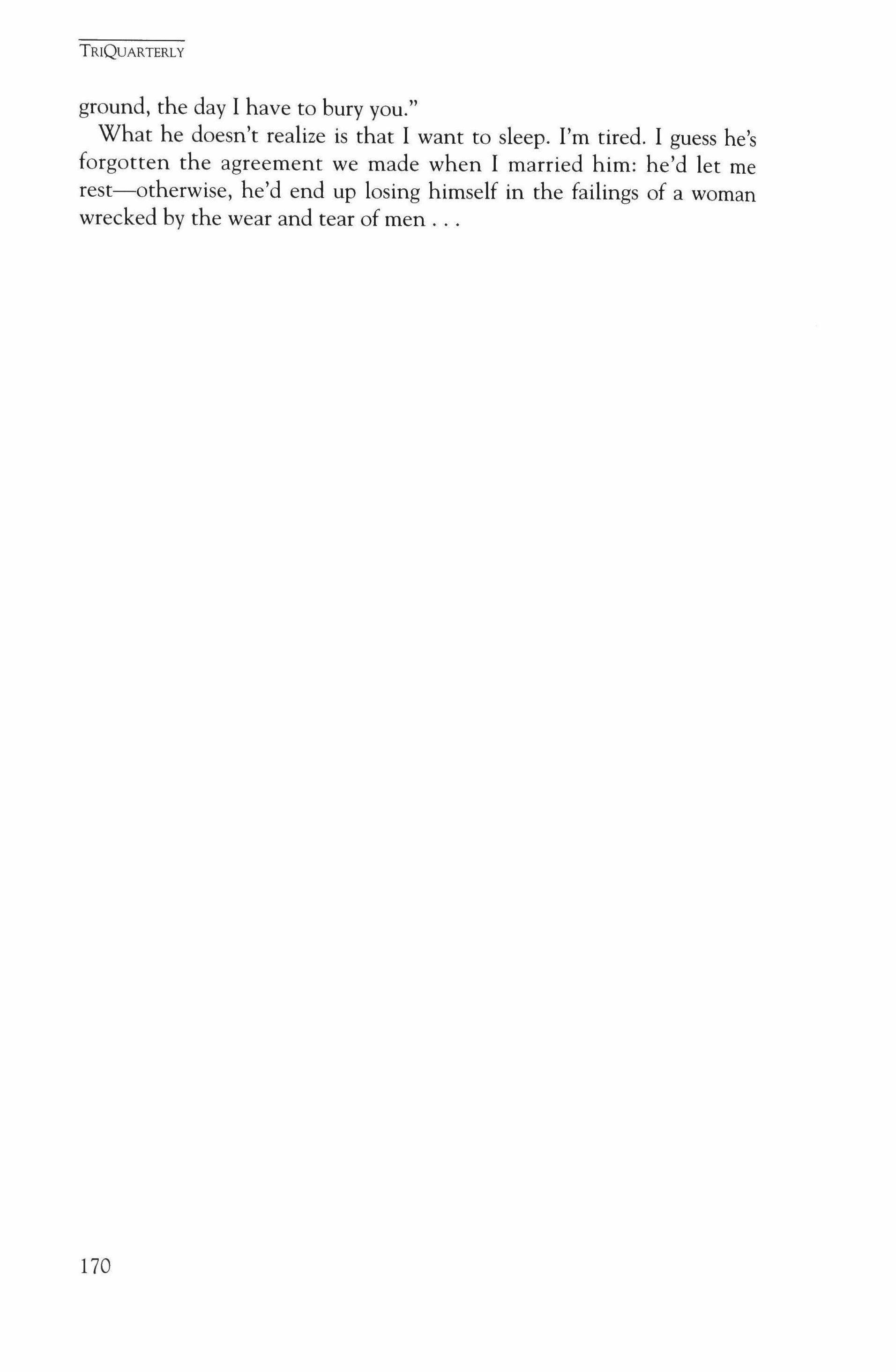
ground, the day I have to bury you." What he doesn't realize is that I want to sleep. I'm tired. I guess he's forgotten the agreement we made when I married him: he'd let me rest-otherwise, he'd end up losing himself in the failings of a woman wrecked by the wear and tear of men
Y
TRIQUARTERL
170
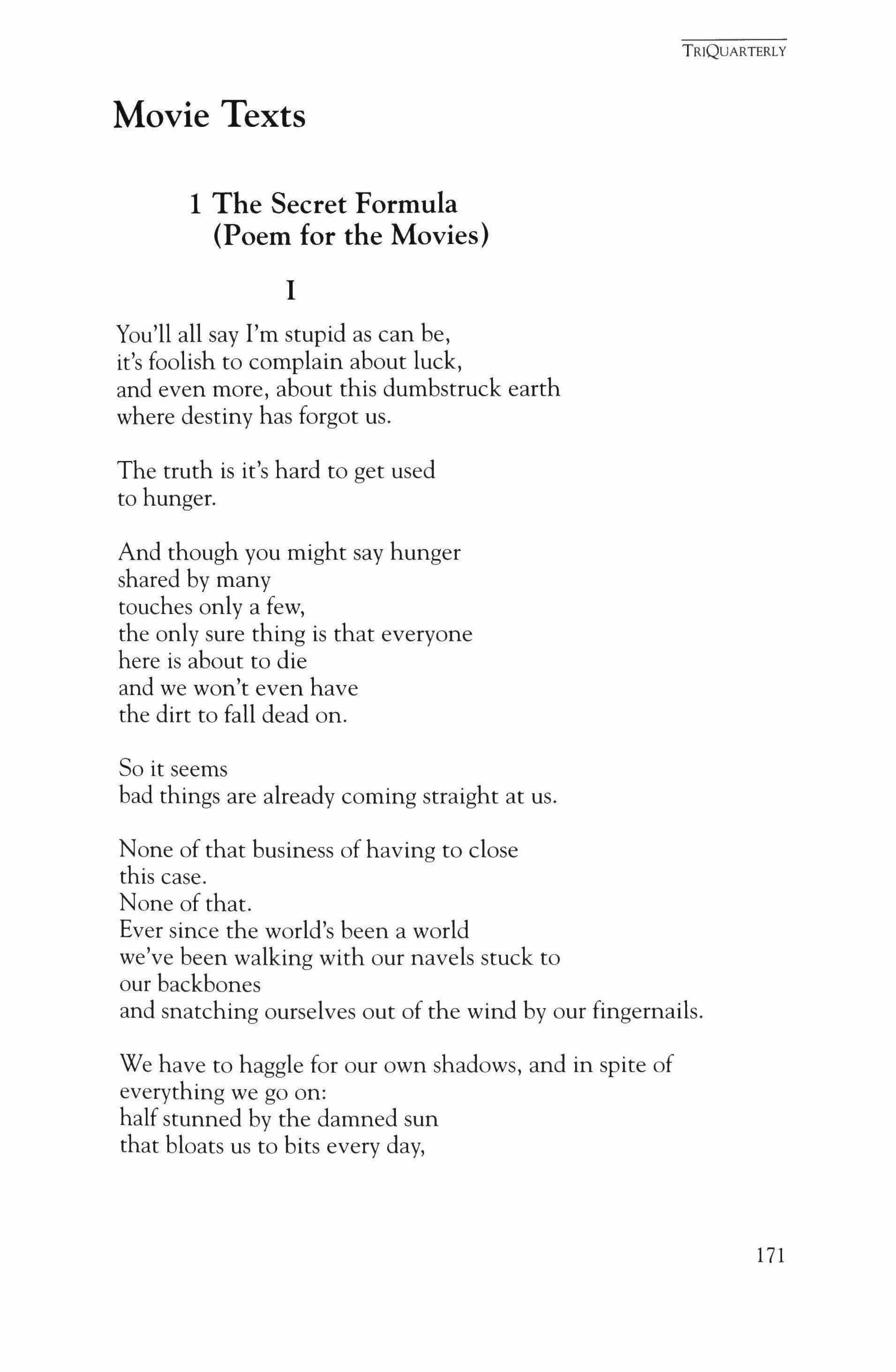
Movie Texts
1 The Secret Formula (Poem for the Movies)
I
You'll all say I'm stupid as can be, it's foolish to complain about luck, and even more, about this dumbstruck earth where destiny has forgot us.
The truth is it's hard to get used to hunger.
And though you might say hunger shared by many touches only a few, the only sure thing is that everyone here is about to die and we won't even have the dirt to fall dead on.
So it seems bad things are already coming straight at us.
None of that business of having to close this case. None of that.
Ever since the world's been a world we've been walking with our navels stuck to our backbones and snatching ourselves out of the wind by our fingernails.
We have to haggle for our own shadows, and in spite of everything we go on: half stunned by the damned sun that bloats us to bits every day,
TRIQUARTERLY
171
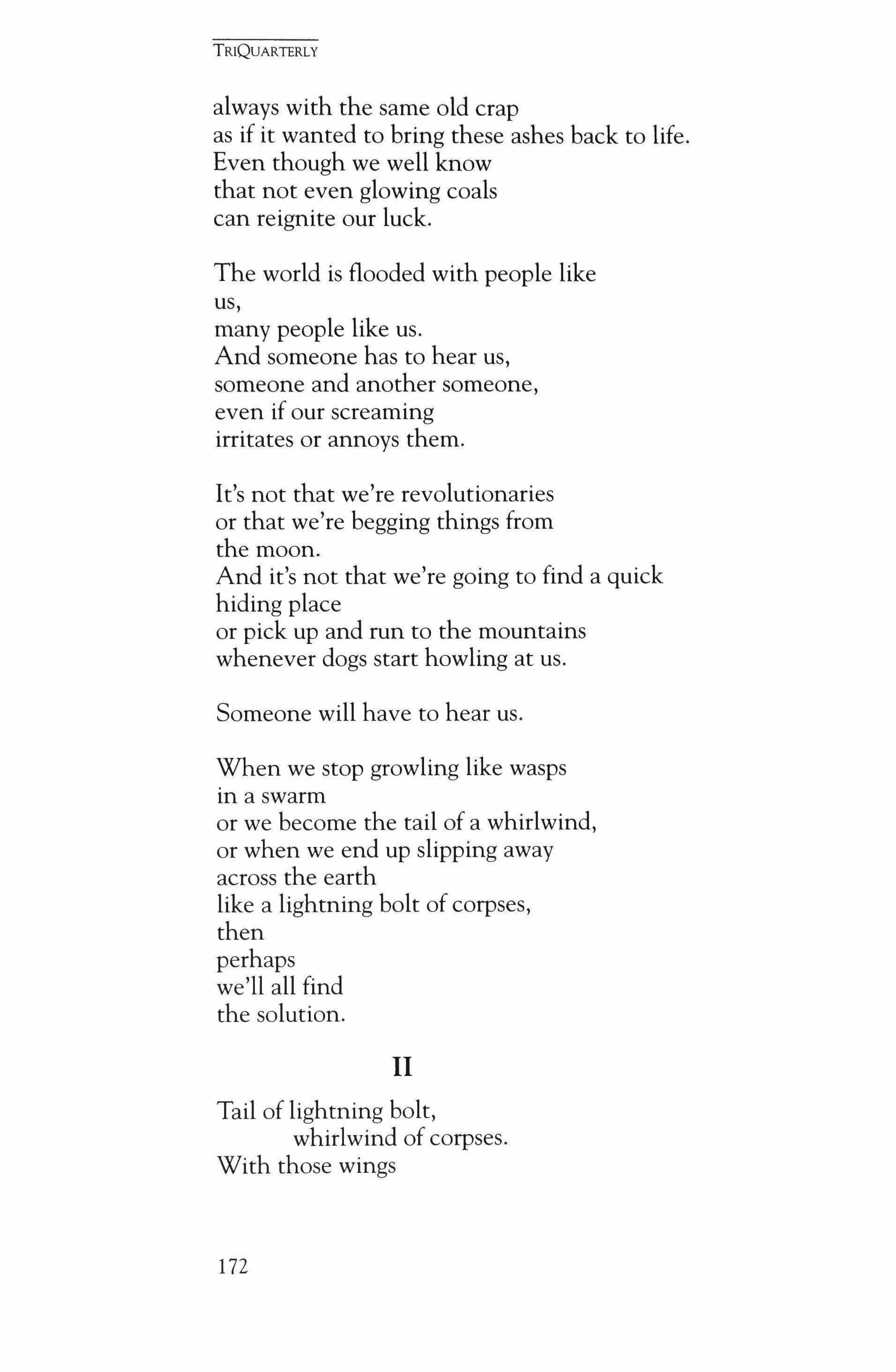
always with the same old crap as if it wanted to bring these ashes back to life. Even though we well know that not even glowing coals can reignite our luck.
The world is flooded with people like us, many people like us. And someone has to hear us, someone and another someone, even if our screaming irritates or annoys them.
It's not that we're revolutionaries or that we're begging things from the moon. And it's not that we're going to find a quick hiding place or pick up and run to the mountains whenever dogs start howling at us.
Someone will have to hear us.
When we stop growling like wasps in a swarm or we become the tail of a whirlwind, or when we end up slipping away across the earth like a lightning bolt of corpses, then perhaps we'll all find the solution. II
Tail of lightning bolt, whirlwind of corpses. With those wings
TRIQUARTERLY
172
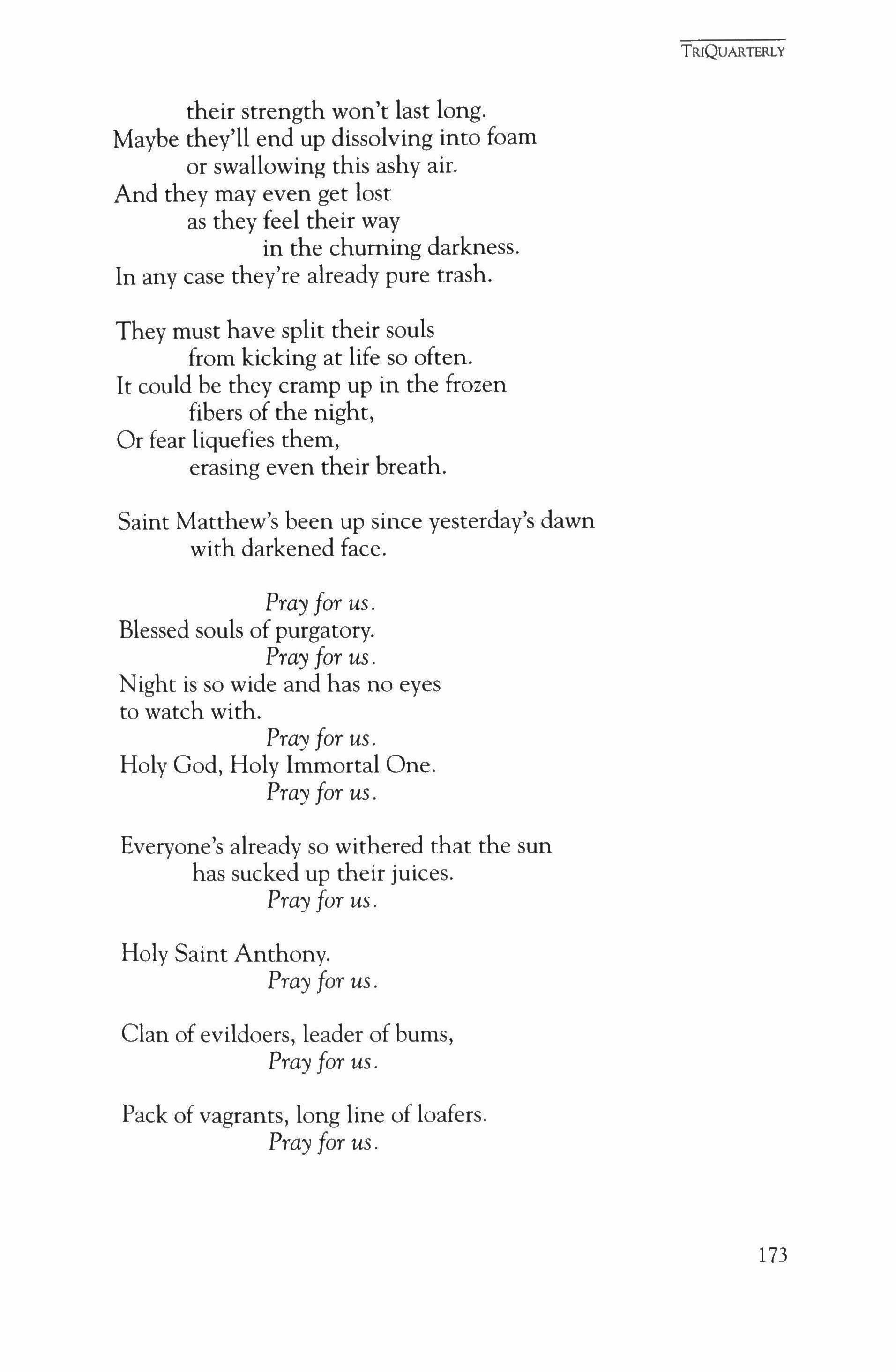
their strength won't last long. Maybe they'll end up dissolving into foam or swallowing this ashy air. And they may even get lost as they feel their way in the churning darkness. In any case they're already pure trash.
They must have split their souls from kicking at life so often. It could be they cramp up in the frozen fibers of the night, Or fear liquefies them, erasing even their breath.
Saint Matthew's been up since yesterday's dawn with darkened face.
Pray for us.
Blessed souls of purgatory. Pray for us.
Night is so wide and has no eyes to watch with.
Pray for us.
Holy God, Holy Immortal One. Pray for us.
Everyone's already so withered that the sun has sucked up their juices. Pray for us.
Holy Saint Anthony. Pray for us.
Clan of evildoers, leader of bums, Pray for us.
Pack of vagrants, long line of loafers. Pray for us.
TRIQUARTERLY 173
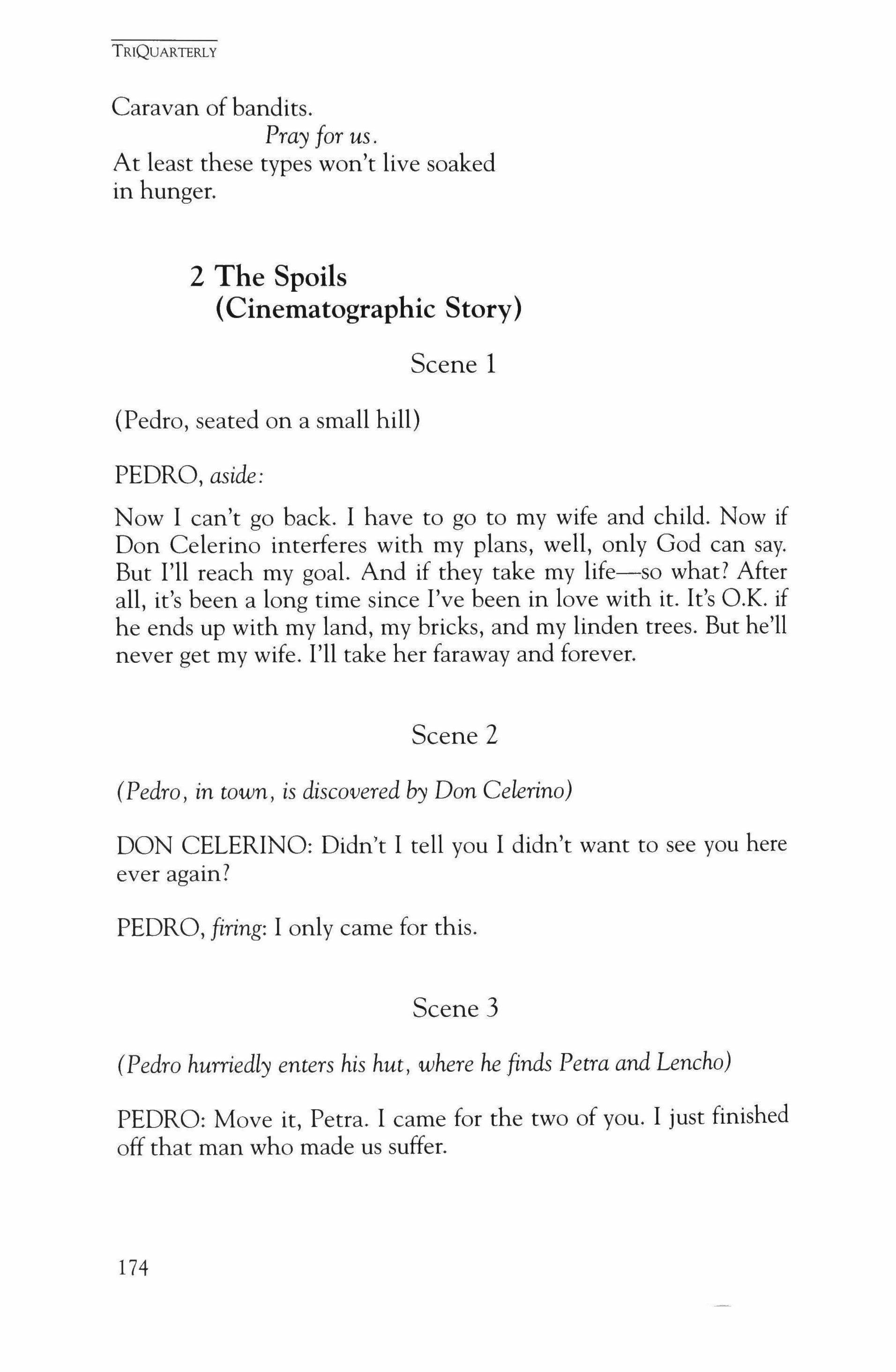
Caravan of bandits. Pray for us.
At least these types won't live soaked in hunger.
2 The Spoils (Cinematographic Story)
Scene 1
(Pedro, seated on a small hill)
PEDRO, aside:
Now I can't go back. I have to go to my wife and child. Now if Don Celerino interferes with my plans, well, only God can say. But I'll reach my goal. And if they take my life-so what? After all, it's been a long time since I've been in love with it. It's O.K. if he ends up with my land, my bricks, and my linden trees. But he'll never get my wife. I'll take her faraway and forever.
Scene 2
(Pedro, in town, is discovered by Don Celerino)
DON CELERINO: Didn't I tell you I didn't want to see you here ever again?
PEDRO, firing: I only came for this.
Scene 3
(Pedro hurriedly enters his hut, where he finds Petra and Lencho)
PEDRO: Move it, Petra. I came for the two of you. I just finished off that man who made us suffer.
TRIQUARTERLY
174
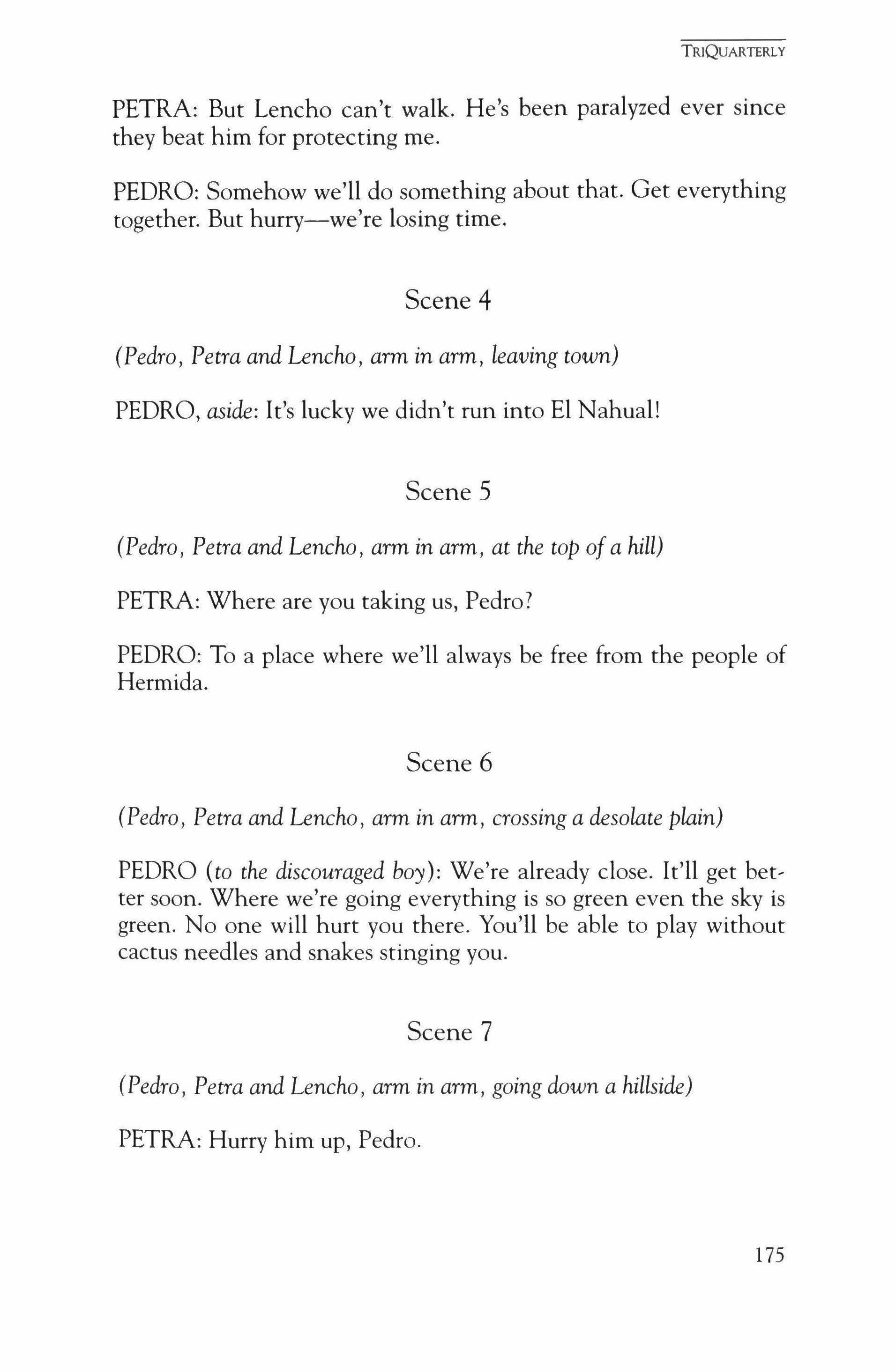
PETRA: But Lencho can't walk. He's been paralyzed ever since they beat him for protecting me.
PEDRO: Somehow we'll do something about that. Get everything together. But hurry-we're losing time.
Scene 4
(Pedro, Petra and Lencho, arm in arm, leaving town)
PEDRO, aside: It's lucky we didn't run into EI Nahual!
Scene 5
(Pedro, Petra and Lencho, arm in arm, at the top of a hill)
PETRA: Where are you taking us, Pedro?
PEDRO: To a place where we'll always be free from the people of Hermida.
Scene 6
(Pedro, Petra and Lencho, arm in arm, crossing a desolate plain)
PEDRO (to the discouraged boy): We're already close. It'll get better soon. Where we're going everything is so green even the sky is green. No one will hurt you there. You'll be able to play without cactus needles and snakes stinging you.
Scene 7
(Pedro, Petra and Lencho, arm in arm, going down a hillside)
PETRA: Hurry him up, Pedro.
TRIQUARTERLY
175
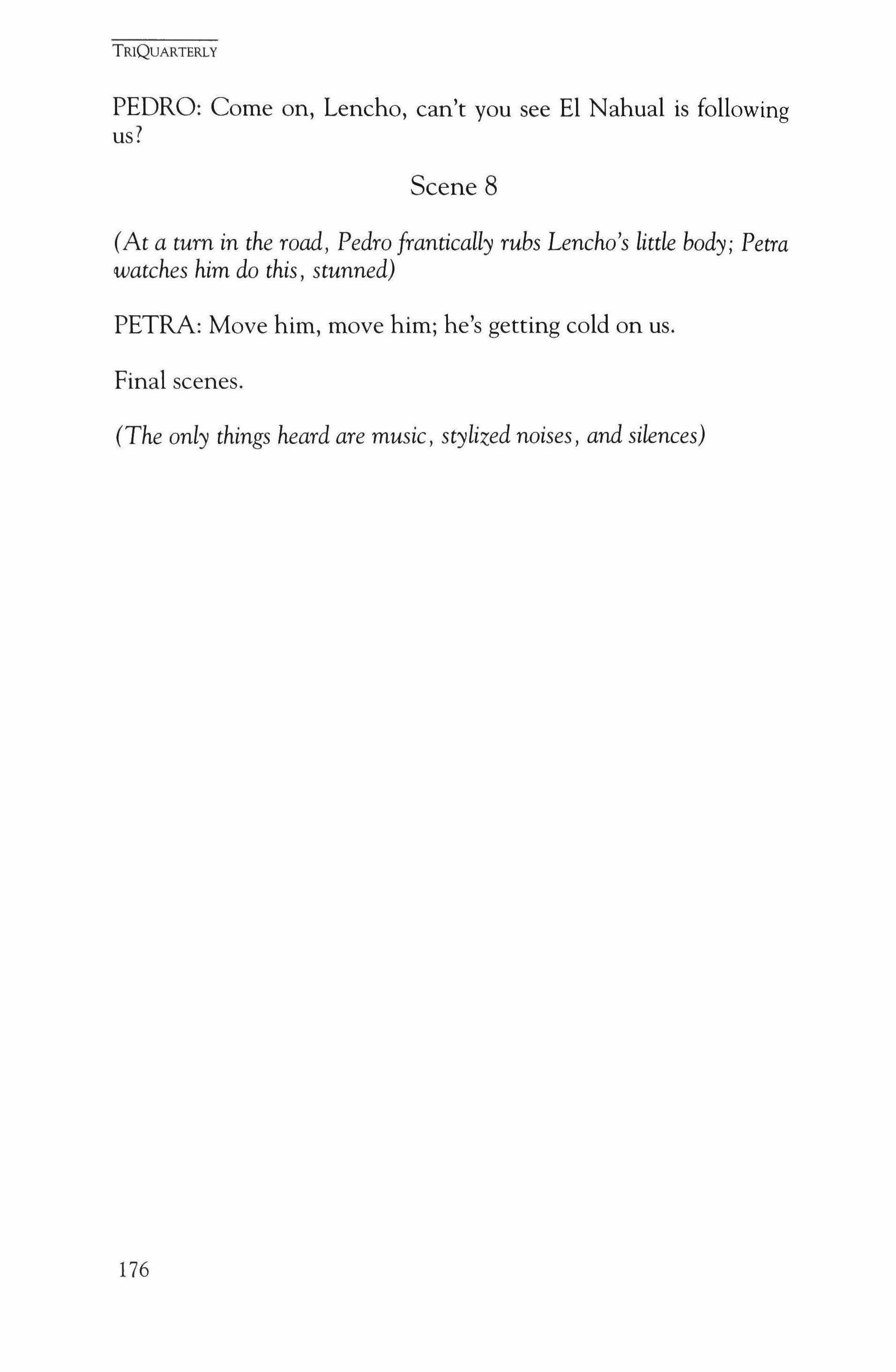
PEDRO: Come on, Lencho, can't you see El Nahual is following us?
Scene 8
(At a tum in the road, Pedro frantically rubs Lencho's little body; Petra watches him do this, stunned)
PETRA: Move him, move him; he's getting cold on us.
Final scenes.
(The only things heard are music, stylized noises, and silences)
TRIQUARTERLY
176
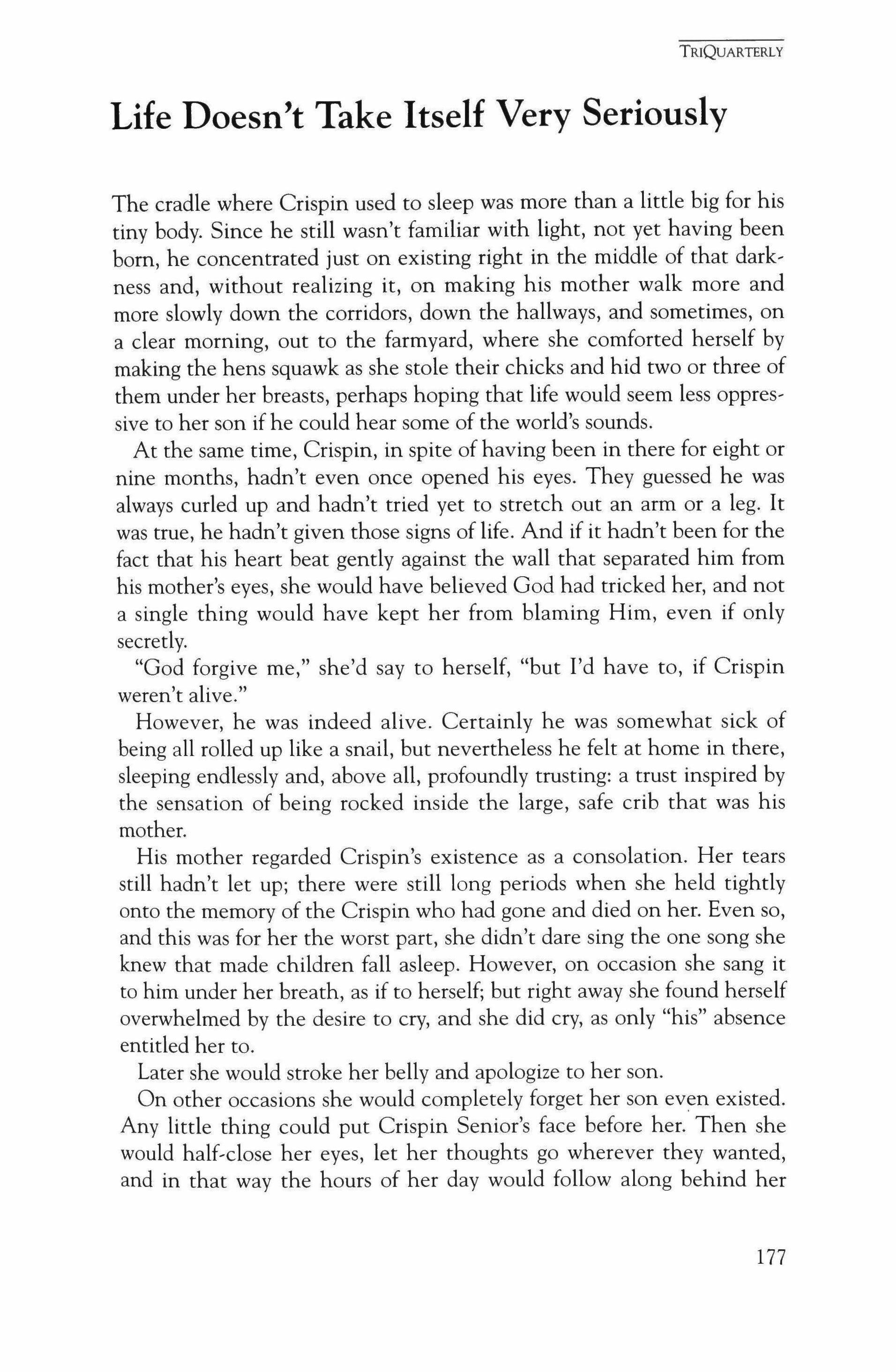
Life Doesn't Take Itself Very Seriously
The cradle where Crispin used to sleep was more than a little big for his tiny body. Since he still wasn't familiar with light, not yet having been born, he concentrated just on existing right in the middle of that darkness and, without realizing it, on making his mother walk more and more slowly down the corridors, down the hallways, and sometimes, on a clear morning, out to the farmyard, where she comforted herself by making the hens squawk as she stole their chicks and hid two or three of them under her breasts, perhaps hoping that life would seem less oppressive to her son if he could hear some of the world's sounds.
At the same time, Crispin, in spite of having been in there for eight or nine months, hadn't even once opened his eyes. They guessed he was always curled up and hadn't tried yet to stretch out an arm or a leg. It was true, he hadn't given those signs of life. And if it hadn't been for the fact that his heart beat gently against the wall that separated him from his mother's eyes, she would have believed God had tricked her, and not a single thing would have kept her from blaming Him, even if only secretly.
"God forgive me," she'd say to herself, "but I'd have to, if Crispin weren't alive."
However, he was indeed alive. Certainly he was somewhat sick of being all rolled up like a snail, but nevertheless he felt at home in there, sleeping endlessly and, above all, profoundly trusting: a trust inspired by the sensation of being rocked inside the large, safe crib that was his mother.
His mother regarded Crispin's existence as a consolation. Her tears still hadn't let up; there were still long periods when she held tightly onto the memory of the Crispin who had gone and died on her. Even so, and this was for her the worst part, she didn't dare sing the one song she knew that made children fall asleep. However, on occasion she sang it to him under her breath, as if to herself; but right away she found herself overwhelmed by the desire to cry, and she did cry, as only "his" absence entitled her to.
Later she would stroke her belly and apologize to her son.
On other occasions she would completely forget her son even existed. Any little thing could put Crispin Senior's face before her.' Then she would half-close her eyes, let her thoughts go wherever they wanted, and in that way the hours of her day would follow along behind her
TRIQUARTERLY
177
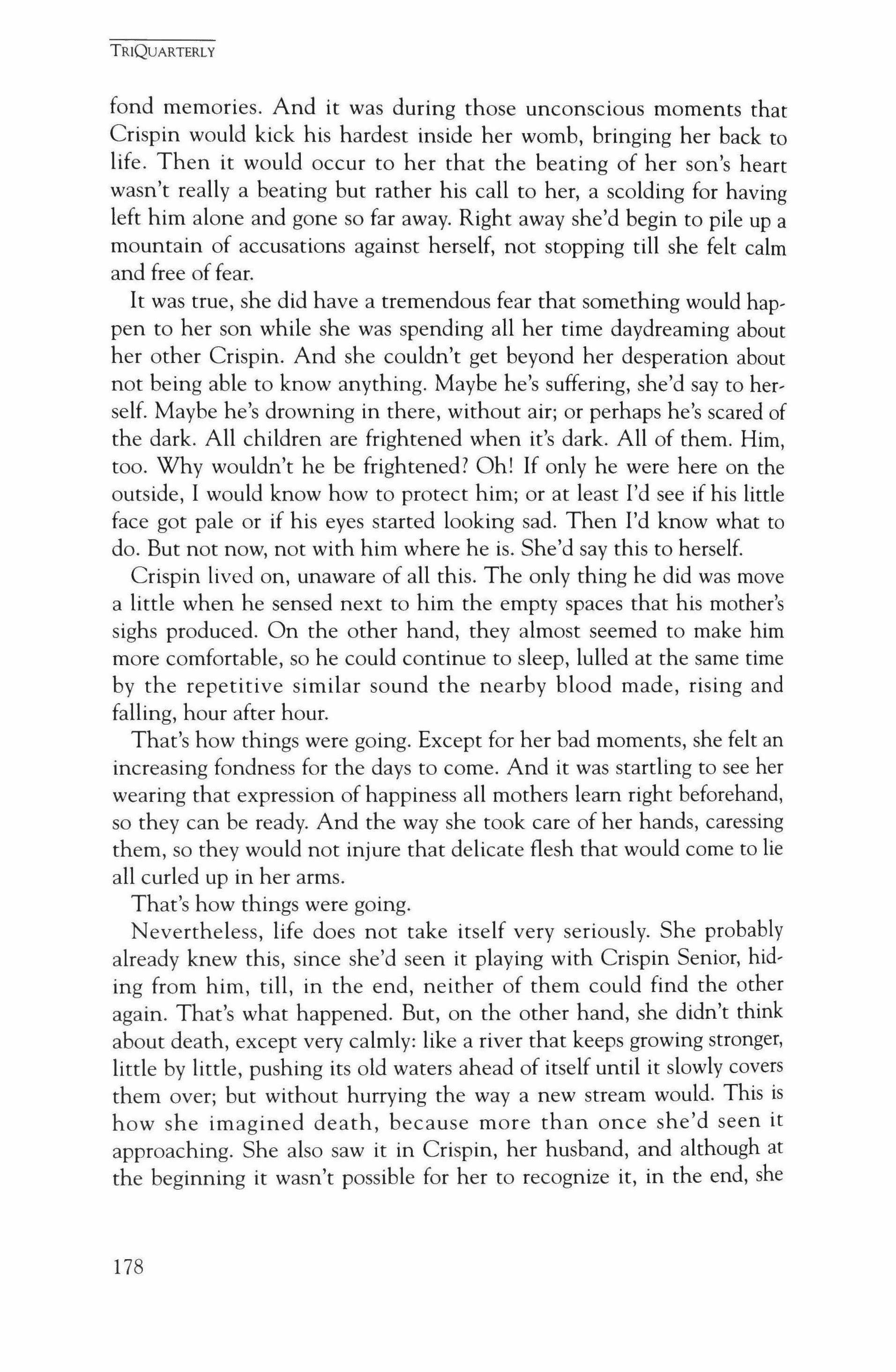
fond memories. And it was during those unconscious moments that Crispin would kick his hardest inside her womb, bringing her back to life. Then it would occur to her that the beating of her son's heart wasn't really a beating but rather his call to her, a scolding for having left him alone and gone so far away. Right away she'd begin to pile up a mountain of accusations against herself, not stopping till she felt calm and free of fear.
It was true, she did have a tremendous fear that something would happen to her son while she was spending all her time daydreaming about her other Crispin. And she couldn't get beyond her desperation about not being able to know anything. Maybe he's suffering, she'd say to herself. Maybe he's drowning in there, without air; or perhaps he's scared of the dark. All children are frightened when it's dark. All of them. Him, too. Why wouldn't he be frightened? Oh! If only he were here on the outside, I would know how to protect him; or at least I'd see if his little face got pale or if his eyes started looking sad. Then I'd know what to do. But not now, not with him where he is. She'd say this to herself.
Crispin lived on, unaware of all this. The only thing he did was move a little when he sensed next to him the empty spaces that his mother's sighs produced. On the other hand, they almost seemed to make him more comfortable, so he could continue to sleep, lulled at the same time by the repetitive similar sound the nearby blood made, rising and falling, hour after hour.
That's how things were going. Except for her bad moments, she felt an increasing fondness for the days to come. And it was startling to see her wearing that expression of happiness all mothers learn right beforehand, so they can be ready. And the way she took care of her hands, caressing them, so they would not injure that delicate flesh that would come to lie all curled up in her arms.
That's how things were going.
Nevertheless, life does not take itself very seriously. She probably already knew this, since she'd seen it playing with Crispin Senior, hiding from him, till, in the end, neither of them could find the other again. That's what happened. But, on the other hand, she didn't think about death, except very calmly: like a river that keeps growing stronger, little by little, pushing its old waters ahead of itself until it slowly covers them over; but without hurrying the way a new stream would. This is how she imagined death, because more than once she'd seen it approaching. She also saw it in Crispin, her husband, and although at the beginning it wasn't possible for her to recognize it, in the end, she
TRIQUARTERLY
178
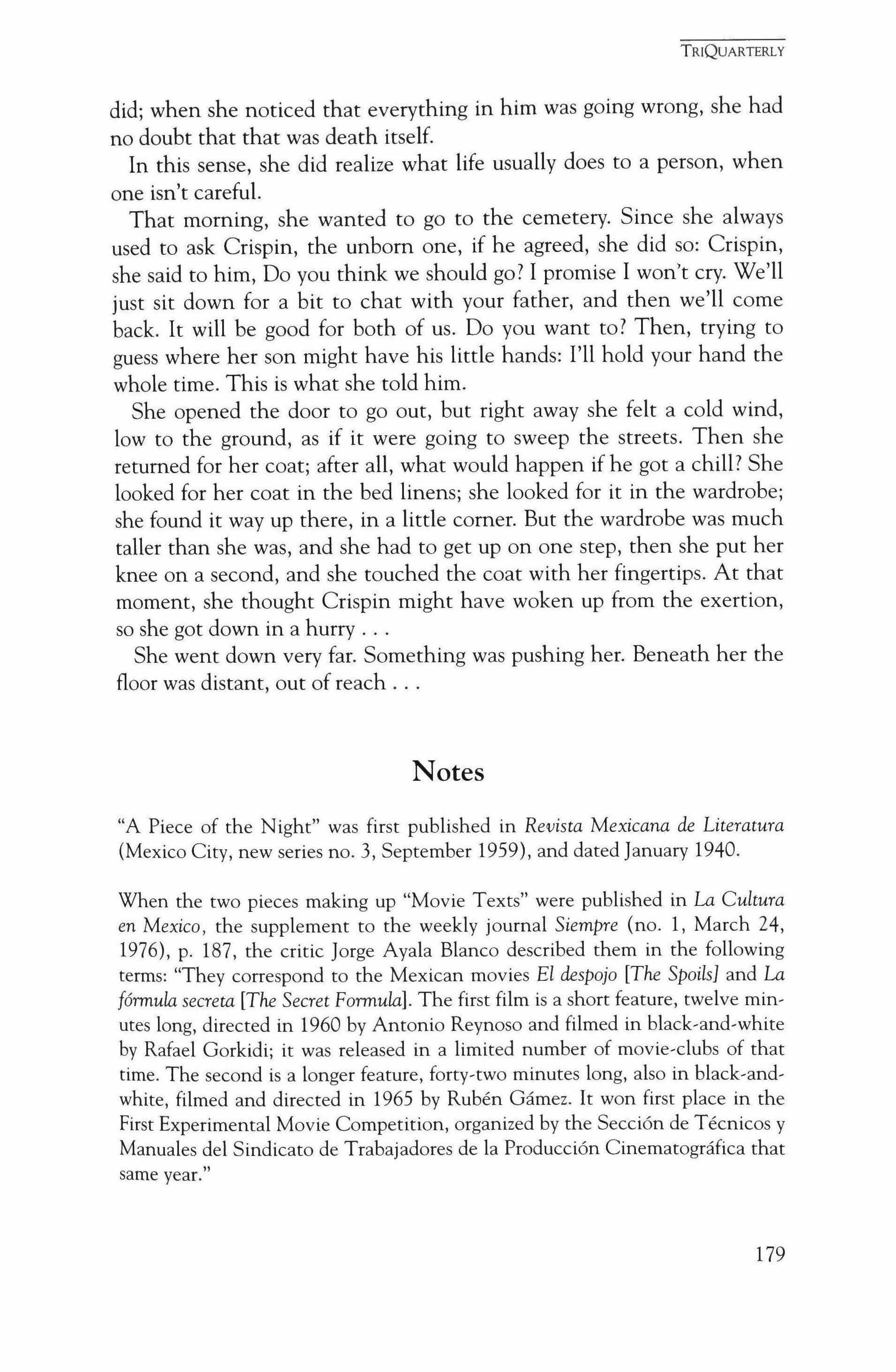
did; when she noticed that everything in him was going wrong, she had no doubt that that was death itself.
In this sense, she did realize what life usually does to a person, when one isn't careful.
That morning, she wanted to go to the cemetery. Since she always used to ask Crispin, the unborn one, if he agreed, she did so: Crispin, she said to him, Do you think we should go? I promise I won't cry. We'll just sit down for a bit to chat with your father, and then we'll come back. It will be good for both of us. Do you want to? Then, trying to guess where her son might have his little hands: I'll hold your hand the whole time. This is what she told him.
She opened the door to go out, but right away she felt a cold wind, low to the ground, as if it were going to sweep the streets. Then she returned for her coat; after all, what would happen if he got a chill? She looked for her coat in the bed linens; she looked for it in the wardrobe; she found it way up there, in a little comer. But the wardrobe was much taller than she was, and she had to get up on one step, then she put her knee on a second, and she touched the coat with her fingertips. At that moment, she thought Crispin might have woken up from the exertion, so she got down in a hurry
She went down very far. Something was pushing her. Beneath her the floor was distant, out of reach
Notes
"A Piece of the Night" was first published in Revista Mexicana de Literaiuta (Mexico City, new series no. 3, September 1959), and dated January 1940.
When the two pieces making up "Movie Texts" were published in La Cultura en Mexico, the supplement to the weekly journal Siempre (no. 1, March 24, 1976), p. 187, the critic Jorge Ayala Blanco described them in the following terms: "They correspond to the Mexican movies El despojo [The Spoils] and La f6rmula secreta [The Secret Formula]. The first film is a short feature, twelve minutes long, directed in 1960 by Antonio Reynoso and filmed in black-and-white by Rafael Gorkidi; it was released in a limited number of movie-clubs of that time. The second is a longer feature, forty-two minutes long, also in black-andwhite, filmed and directed in 1965 by Ruben Gamez. It won first place in the First Experimental Movie Competition, organized by the Secci6n de Tecnicos y Manuales del Sindicato de Trabajadores de la Producci6n Cinernatografica that same year."
TRIQUARTERLY
179
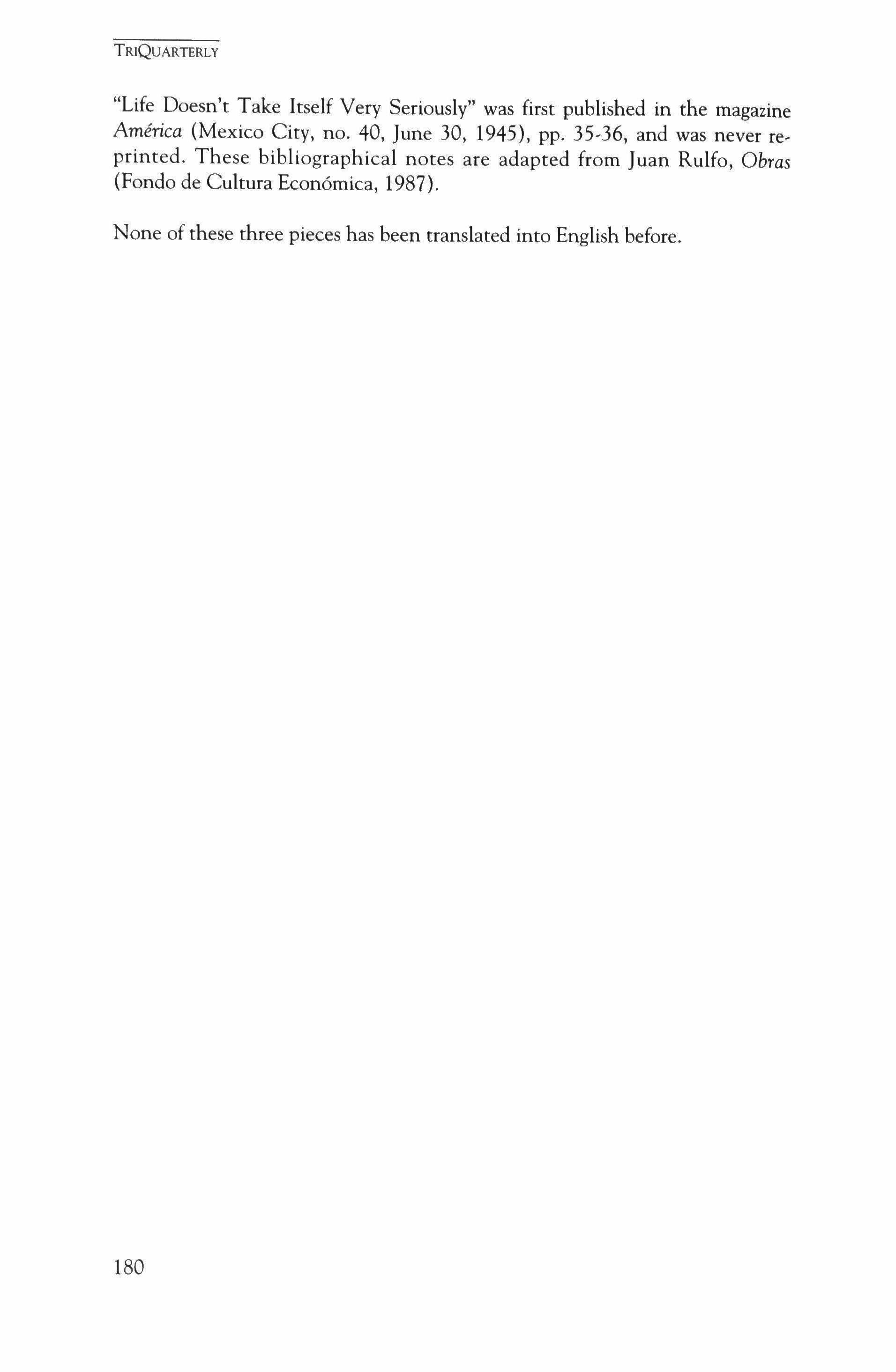
"Life Doesn't Take Itself Very Seriously" was first published in the magazine America (Mexico City, no. 40, June 30, 1945), pp. 35-36, and was never reprinted. These bibliographical notes are adapted from Juan Rulfo, Obras (Fondo de Cultura Economica, 1987).
None of these three pieces has been translated into English before.
TRIQUARTERLY
180
Authenticity and Authority
Michael Ryan
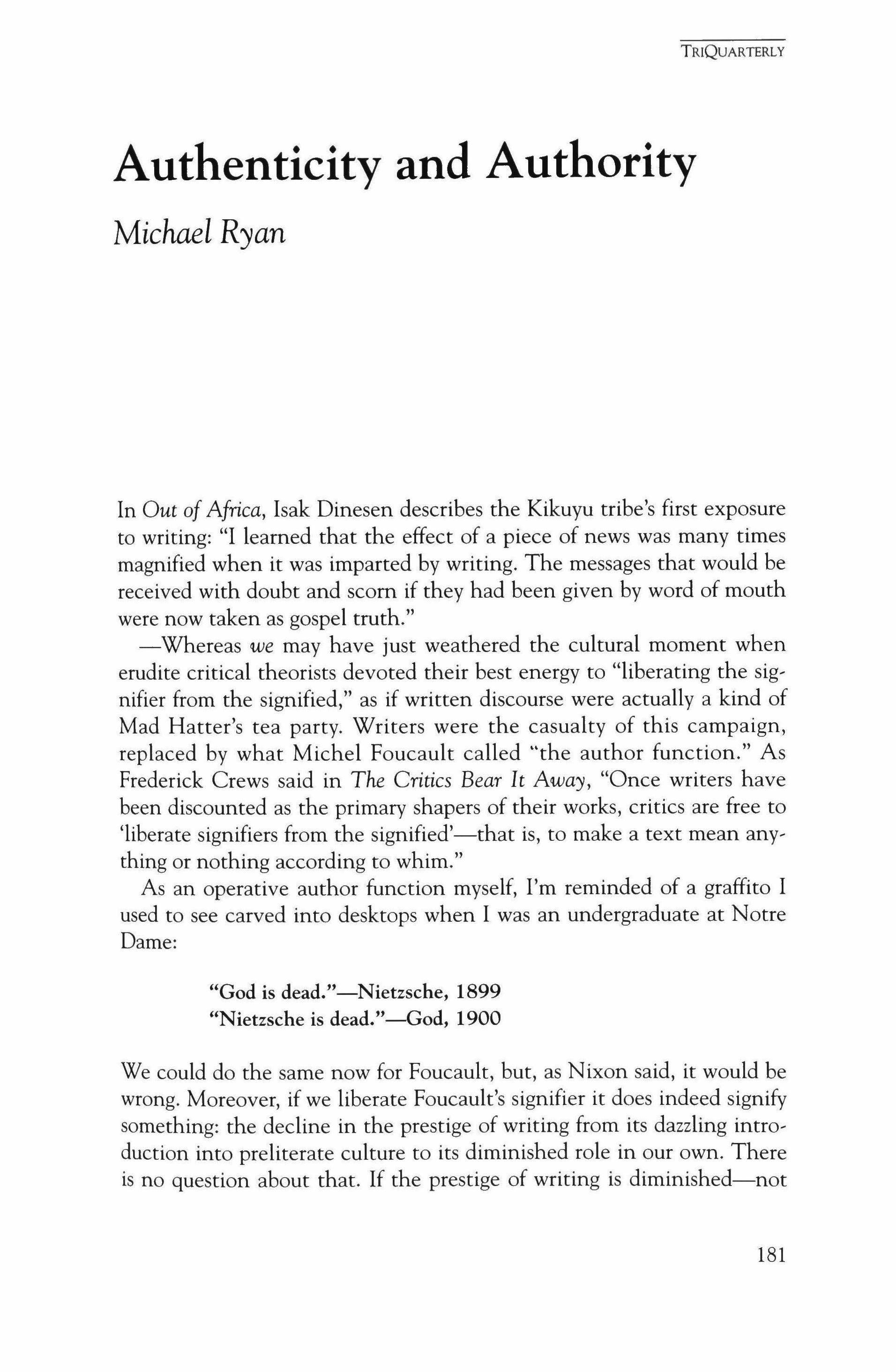
In Out ofAfrica, Isak Dinesen describes the Kikuyu tribe's first exposure to writing: "I learned that the effect of a piece of news was many times magnified when it was imparted by writing. The messages that would be received with doubt and scorn if they had been given by word of mouth were now taken as gospel truth."
-Whereas we may have just weathered the cultural moment when erudite critical theorists devoted their best energy to "liberating the signifier from the signified," as if written discourse were actually a kind of Mad Hatter's tea party. Writers were the casualty of this campaign, replaced by what Michel Foucault called "the author function." As Frederick Crews said in The Critics Bear It Away, "Once writers have been discounted as the primary shapers of their works, critics are free to 'liberate signifiers from the signified'-that is, to make a text mean anything or nothing according to whim."
As an operative author function myself, I'm reminded of a graffito I used to see carved into desktops when I was an undergraduate at Notre Dame:
"God is dead."-Nietzsche, 1899
"Nietzsche is dead."-God, 1900
We could do the same now for Foucault, but, as Nixon said, it would be wrong. Moreover, if we liberate Foucault's signifier it does indeed signify something: the decline in the prestige of writing from its dazzling introduction into preliterate culture to its diminished role in our own. There is no question about that. If the prestige of writing is diminished-not
TRIQUARTERLY
181
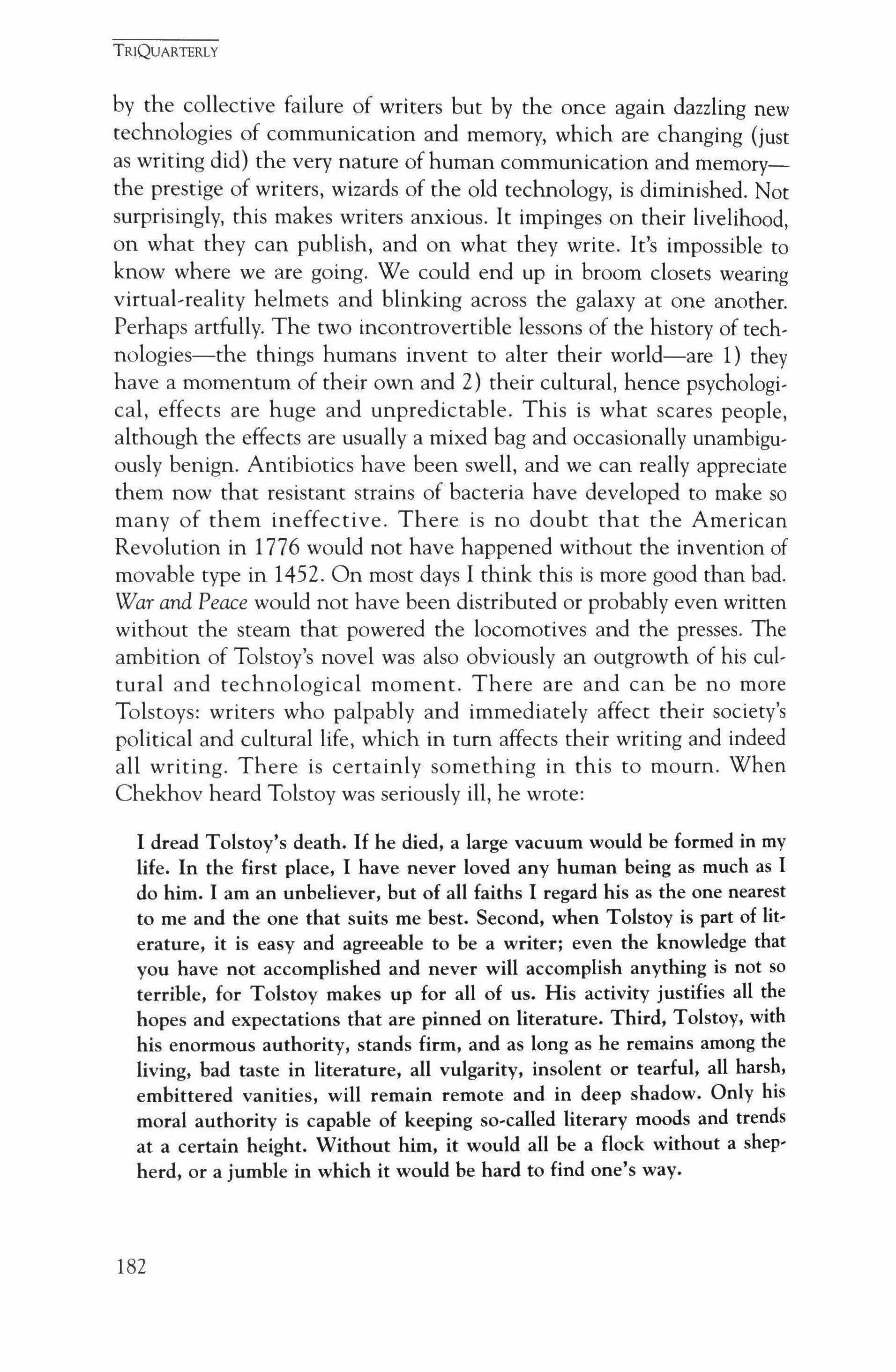
by the collective failure of writers but by the once again dazzling new technologies of communication and memory, which are changing (just as writing did) the very nature of human communication and memorythe prestige of writers, wizards of the old technology, is diminished. Not surprisingly, this makes writers anxious. It impinges on their livelihood, on what they can publish, and on what they write. It's impossible to know where we are going. We could end up in broom closets wearing virtual-reality helmets and blinking across the galaxy at one another. Perhaps artfully. The two incontrovertible lessons of the history of technologies-the things humans invent to alter their world-are 1) they have a momentum of their own and 2) their cultural, hence psychological, effects are huge and unpredictable. This is what scares people, although the effects are usually a mixed bag and occasionally unambiguously benign. Antibiotics have been swell, and we can really appreciate them now that resistant strains of bacteria have developed to make so many of them ineffective. There is no doubt that the American Revolution in 1776 would not have happened without the invention of movable type in 1452. On most days I think this is more good than bad. War and Peace would not have been distributed or probably even written without the steam that powered the locomotives and the presses. The ambition of Tolstoy's novel was also obviously an outgrowth of his cultural and technological moment. There are and can be no more Tolstoys: writers who palpably and immediately affect their society's political and cultural life, which in tum affects their writing and indeed all writing. There is certainly something in this to mourn. When Chekhov heard Tolstoy was seriously ill, he wrote:
I dread Tolstoy's death. If he died, a large vacuum would be formed in my life. In the first place, I have never loved any human being as much as I do him. I am an unbeliever, but of all faiths I regard his as the one nearest to me and the one that suits me best. Second, when Tolstoy is part of llrerature, it is easy and agreeable to be a writer; even the knowledge that you have not accomplished and never will accomplish anything is not so terrible, for Tolstoy makes up for all of us. His activity justifies all the hopes and expectations that are pinned on literature. Third, Tolstoy, with his enormous authority, stands firm, and as long as he remains among the living, bad taste in literature, all vulgarity, insolent or tearful, all harsh, embittered vanities, will remain remote and in deep shadow. Only his moral authority is capable of keeping so-called literary moods and trends at a certain height. Without him, it would all be a flock without a shepherd, or a jumble in which it would be hard to find one's way.
TRIQUARTERLY
182
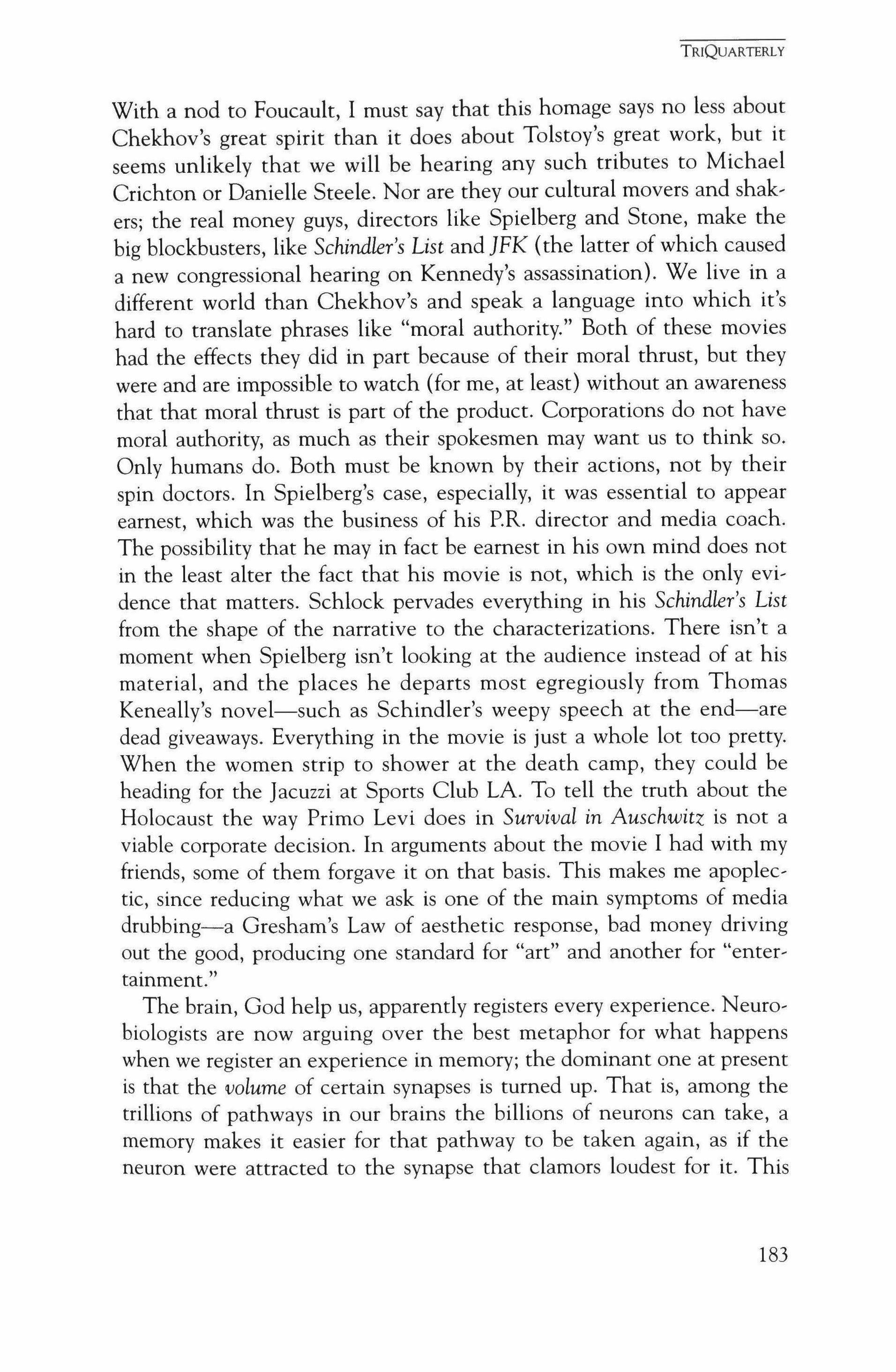
With a nod to Foucault, I must say that this homage says no less about Chekhov's great spirit than it does about Tolstoy's great work, but it seems unlikely that we will be hearing any such tributes to Michael Crichton or Danielle Steele. Nor are they our cultural movers and shakers; the real money guys, directors like Spielberg and Stone, make the big blockbusters, like Schindler's List and ]FK (the latter of which caused a new congressional hearing on Kennedy's assassination). We live in a different world than Chekhov's and speak a language into which it's hard to translate phrases like "moral authority." Both of these movies had the effects they did in part because of their moral thrust, but they were and are impossible to watch (for me, at least) without an awareness that that moral thrust is part of the product. Corporations do not have moral authority, as much as their spokesmen may want us to think so. Only humans do. Both must be known by their actions, not by their spin doctors. In Spielberg's case, especially, it was essential to appear earnest, which was the business of his P.R. director and media coach. The possibility that he may in fact be earnest in his own mind does not in the least alter the fact that his movie is not, which is the only evidence that matters. Schlock pervades everything in his Schindler's List from the shape of the narrative to the characterizations. There isn't a moment when Spielberg isn't looking at the audience instead of at his material, and the places he departs most egregiously from Thomas Keneally's novel-such as Schindler's weepy speech at the end-are dead giveaways. Everything in the movie is just a whole lot too pretty. When the women strip to shower at the death camp, they could be heading for the Jacuzzi at Sports Club LA. To tell the truth about the Holocaust the way Primo Levi does in Survival in Auschwitz is not a viable corporate decision. In arguments about the movie I had with my friends, some of them forgave it on that basis. This makes me apoplectic, since reducing what we ask is one of the main symptoms of media drubbing-a Gresham's Law of aesthetic response, bad money driving out the good, producing one standard for "art" and another for "entertainment."
The brain, God help us, apparently registers every experience. Neurobiologists are now arguing over the best metaphor for what happens when we register an experience in memory; the dominant one at present is that the volume of certain synapses is turned up. That is, among the trillions of pathways in our brains the billions of neurons can take, a memory makes it easier for that pathway to be taken again, as if the neuron were attracted to the synapse that clamors loudest for it. This
TRIQUARTERLY
183
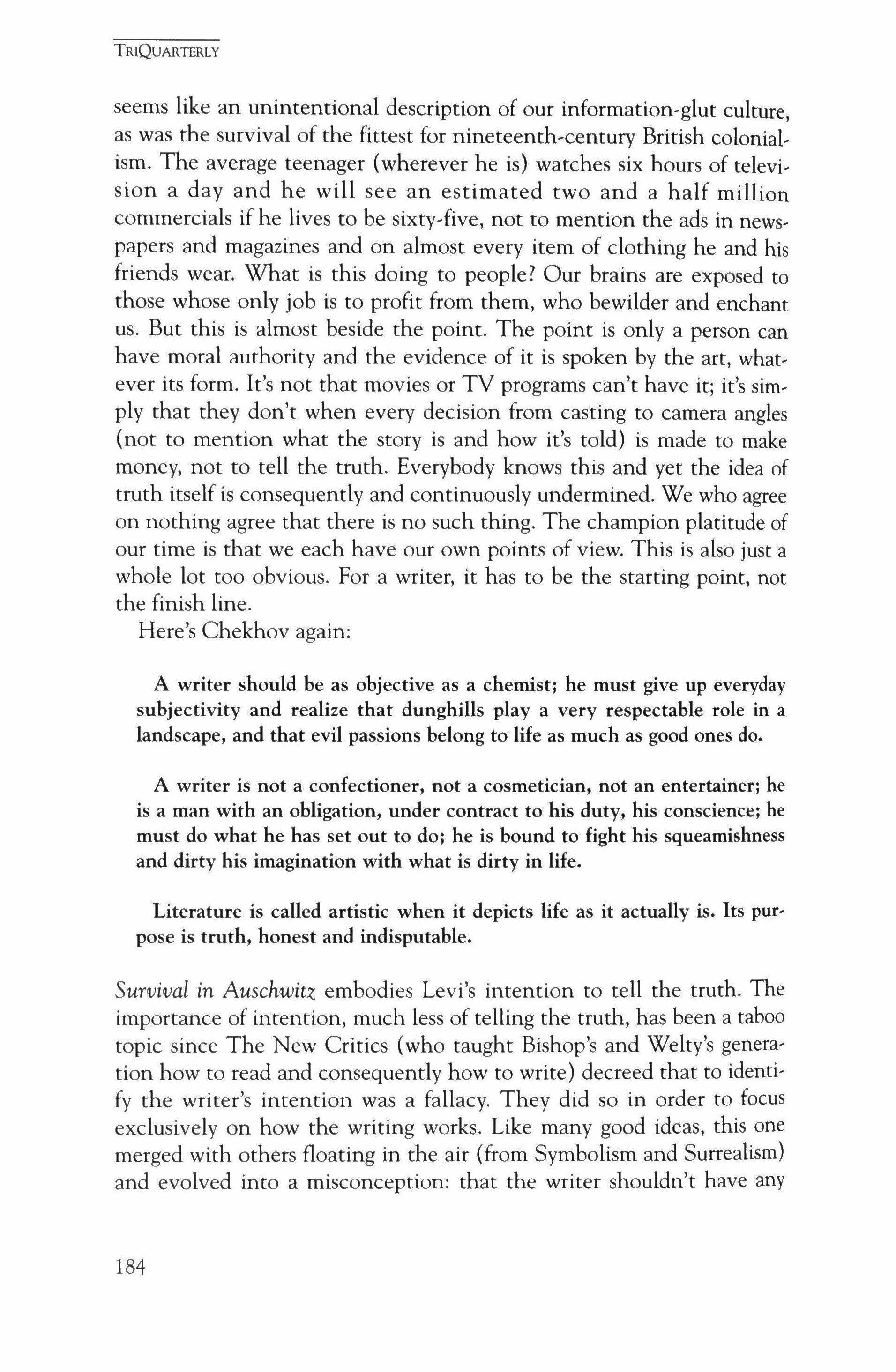
seems like an unintentional description of our information-glut culture, as was the survival of the fittest for nineteenth-century British colonialism. The average teenager {wherever he is} watches six hours of television a day and he will see an estimated two and a half million commercials if he lives to be sixty-five, not to mention the ads in newspapers and magazines and on almost every item of clothing he and his friends wear. What is this doing to people? Our brains are exposed to those whose only job is to profit from them, who bewilder and enchant us. But this is almost beside the point. The point is only a person can have moral authority and the evidence of it is spoken by the art, whatever its form. It's not that movies or TV programs can't have it; it's simply that they don't when every decision from casting to camera angles {not to mention what the story is and how it's told} is made to make money, not to tell the truth. Everybody knows this and yet the idea of truth itself is consequently and continuously undermined. We who agree on nothing agree that there is no such thing. The champion platitude of our time is that we each have our own points of view. This is also just a whole lot too obvious. For a writer, it has to be the starting point, not the finish line.
Here's Chekhov again:
A writer should be as objective as a chemist; he must give up everyday subjectivity and realize that dunghills play a very respectable role in a landscape, and that evil passions belong to life as much as good ones do.
A writer is not a confectioner, not a cosmetician, not an entertainer; he is a man with an obligation, under contract to his duty, his conscience; he must do what he has set out to do; he is bound to fight his squeamishness and dirty his imagination with what is dirty in life.
Literature is called artistic when it depicts life as it actually is. Its purpose is truth, honest and indisputable.
Survival in Auschwitz embodies Levi's intention to tell the truth. The importance of intention, much less of telling the truth, has been a taboo topic since The New Critics {who taught Bishop's and Welty's generation how to read and consequently how to write} decreed that to identify the writer's intention was a fallacy. They did so in order to focus exclusively on how the writing works. Like many good ideas, this one merged with others floating in the air {from Symbolism and Surrealism} and evolved into a misconception: that the writer shouldn't have any
TRIQUARTERLY
184

intention in the first place. Chekhov said:
if one is to deny that question and intention exist in creative work, it becomes necessary to admit that the artist creates without premeditation, without design, under the influence of an affect; therefore, if some author were to boast to me that he had written a tale without a previously thought out intention but by inspiration alone, I would call him a madman.
This is not to argue that there isn't discovery and a sense of play in the process of composition-just that there can't be only those if the writing is not to be merely trivial or eccentric. Auden, with characteristic perspicacity, said, "Sincerity, in the proper sense of the word, meaning authenticity is, or ought to be, a writer's chief preoccupation Some writers confuse authenticity, which they ought always to aim at, with originality, which they should never bother about." Like happiness, originality comes as a by-product. To seek it, to will it, is the best way not to get it. As for authenticity, we are dying for it amidst all the fakery and fragmentation. It's a reason to read and a reason to write-for me, the compelling reason-and directs every decision about both subject and style.
Authenticity {"that which can be believed or accepted"} suffuses the writing of Survival in Auschwitz in its every aspect: its absence of sentimentality and self-pity, the rigor of its self-portrayal, its compassion for others, the efficient arc of the narrative, the unobtrusive brilliance of its style. When I read it, as I have ten or twelve times {once aloud}, I don't care in the least who Primo Levi was except as the writer of this book. But in this capacity I care absolutely. Henry James said, "What interests me most about a work of art is the artist's quality of mind." I would add to "quality of mind" quality of spirit, heart, talent {Chekhov: "Talent is the ability to distinguish the essential from the inessential"}. Levi's writing tells me who Levi is. He is not Primo the character in the book. He is the book. In Flaubert's famous words, "the writer in his book is like God in the universe, present everywhere and visible nowhere." It doesn't matter that Levi wrote his book on Sunday afternoons over the course of a single year, or threw himself from the fourth floor down the central stairwell of his apartment building forty years later, or had a wife and two children, or loved his mother, or was a tiny matchstick of a man with a short pointy beard, or might have done things he was ashamed of. The book speaks with moral authority across the distance of fifty years in a translation from another language. There may be people who do not love it. Happily, I have not met them. The three times I taught
TRIQUARTERLY
185
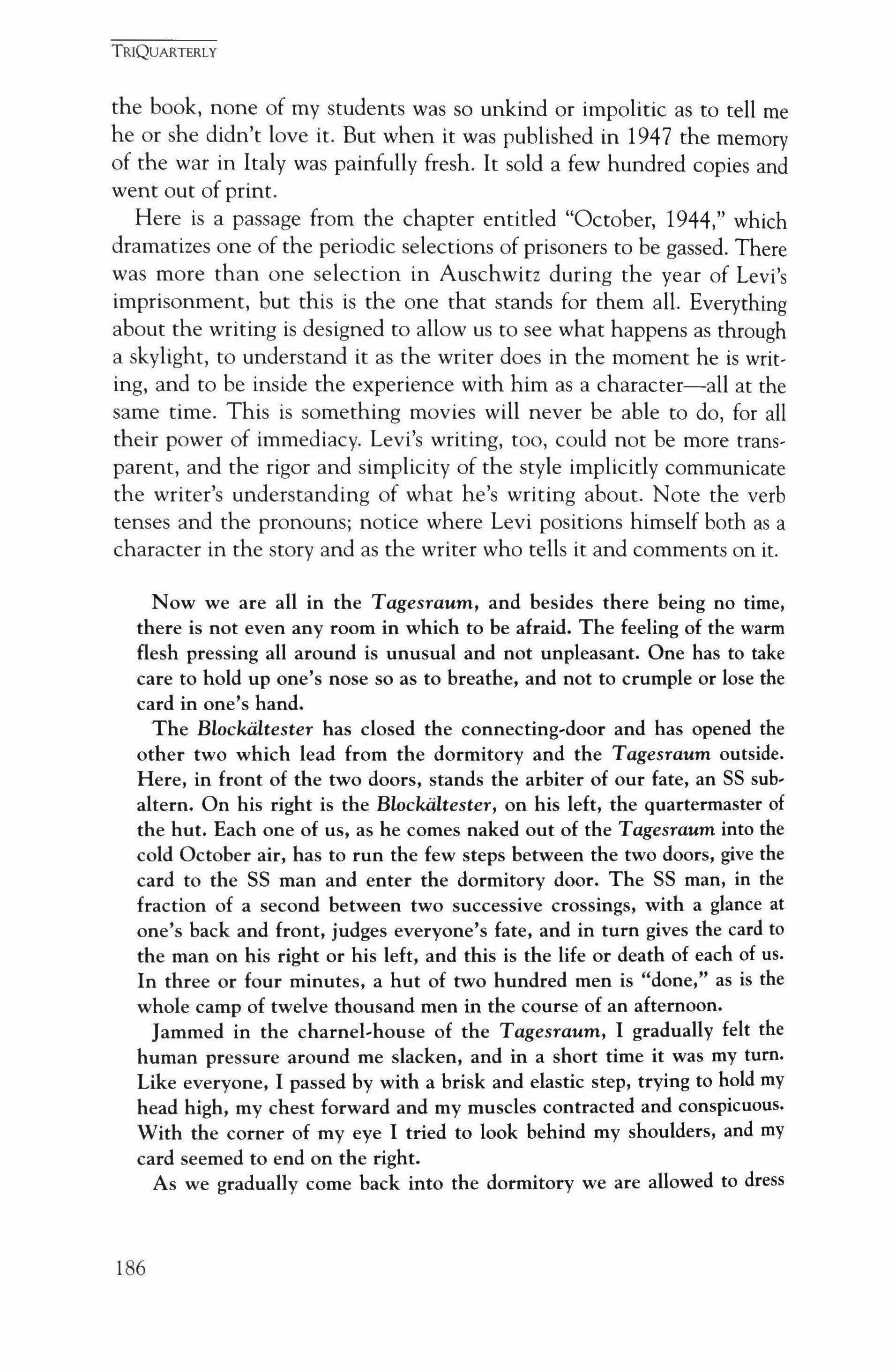
the book, none of my students was so unkind or impolitic as to tell me he or she didn't love it. But when it was published in 1947 the memory of the war in Italy was painfully fresh. It sold a few hundred copies and went out of print.
Here is a passage from the chapter entitled "October, 1944," which dramatizes one of the periodic selections of prisoners to be gassed. There was more than one selection in Auschwitz during the year of Levi's imprisonment, but this is the one that stands for them all. Everything about the writing is designed to allow us to see what happens as through a skylight, to understand it as the writer does in the moment he is writing, and to be inside the experience with him as a character-all at the same time. This is something movies will never be able to do, for all their power of immediacy. Levi's writing, too, could not be more transparent, and the rigor and simplicity of the style implicitly communicate the writer's understanding of what he's writing about. Note the verb tenses and the pronouns; notice where Levi positions himself both as a character in the story and as the writer who tells it and comments on it.
Now we are all in the Tagesraum, and besides there being no time, there is not even any room in which to be afraid. The feeling of the warm flesh pressing all around is unusual and not unpleasant. One has to take care to hold up one's nose so as to breathe, and not to crumple or lose the card in one's hand.
The Blockiiltester has closed the connecting-door and has opened the other two which lead from the dormitory and the Tagesraum outside. Here, in front of the two doors, stands the arbiter of our fate, an SS subaltern. On his right is the Blockiiltester, on his left, the quartermaster of the hut. Each one of us, as he comes naked out of the Tagesraum into the cold October air, has to run the few steps between the two doors, give the card to the SS man and enter the dormitory door. The SS man, in the fraction of a second between two successive crossings, with a glance at one's back and front, judges everyone's fate, and in turn gives the card to the man on his right or his left, and this is the life or death of each of us. In three or four minutes, a hut of two hundred men is "done," as is the whole camp of twelve thousand men in the course of an afternoon.
Jammed in the charnel-house of the Tagesraum, I gradually felt the human pressure around me slacken, and in a short time it was my tum.
Like everyone, I passed by with a brisk and elastic step, trying to hold my head high, my chest forward and my muscles contracted and conspicuous. With the corner of my eye I tried to look behind my shoulders, and my card seemed to end on the right.
As we gradually come back into the dormitory we are allowed to dress
TRIQUARTERLY
186
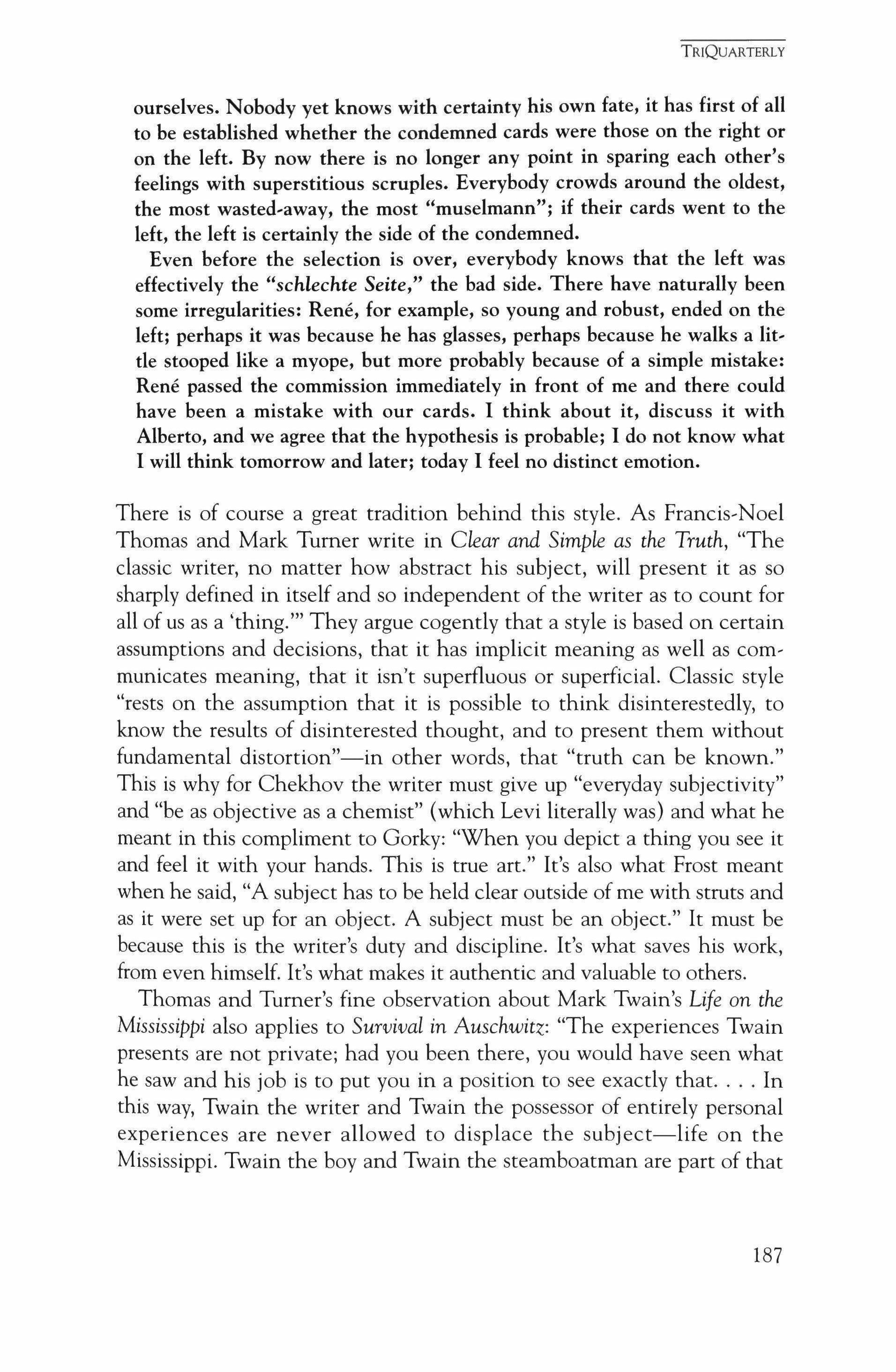
ourselves. Nobody yet knows with certainty his own fate, it has first of all to be established whether the condemned cards were those on the right or on the left. By now there is no longer any point in sparing each other's feelings with superstitious scruples. Everybody crowds around the oldest, the most wasted,away, the most "muselmann"; if their cards went to the left, the left is certainly the side of the condemned. Even before the selection is over, everybody knows that the left was effectively the "schlechte Seite," the bad side. There have naturally been some irregularities: Rene, for example, so young and robust, ended on the left; perhaps it was because he has glasses, perhaps because he walks a lit, de stooped like a myope, but more probably because of a simple mistake: Rene passed the commission immediately in front of me and there could have been a mistake with our cards. I think about it, discuss it with Alberto, and we agree that the hypothesis is probable; I do not know what I will think tomorrow and later; today I feel no distinct emotion.
There is of course a great tradition behind this style. As Francis-Noel Thomas and Mark Turner write in Clear and Simple as the Truth, "The classic writer, no matter how abstract his subject, will present it as so sharply defined in itself and so independent of the writer as to count for all of us as a 'thing.'" They argue cogently that a style is based on certain assumptions and decisions, that it has implicit meaning as well as communicates meaning, that it isn't superfluous or superficial. Classic style "rests on the assumption that it is possible to think disinterestedly, to know the results of disinterested thought, and to present them without fundamental distortion"-in other words, that "truth can be known." This is why for Chekhov the writer must give up "everyday subjectivity" and "be as objective as a chemist" {which Levi literally was} and what he meant in this compliment to Gorky: "When you depict a thing you see it and feel it with your hands. This is true art." It's also what Frost meant when he said, "A subject has to be held clear outside of me with struts and as it were set up for an object. A subject must be an object." It must be because this is the writer's duty and discipline. It's what saves his work, from even himself. It's what makes it authentic and valuable to others.
Thomas and Turner's fine observation about Mark Twain's Life on the MississiPPi also applies to Survival in Auschwitz: "The experiences Twain presents are not private; had you been there, you would have seen what he saw and his job is to put you in a position to see exactly that In this way, Twain the writer and Twain the possessor of entirely personal experiences are never allowed to displace the subject-life on the Mississippi. Twain the boy and Twain the steamboatman are part of that
TRIQUARTERLY
187
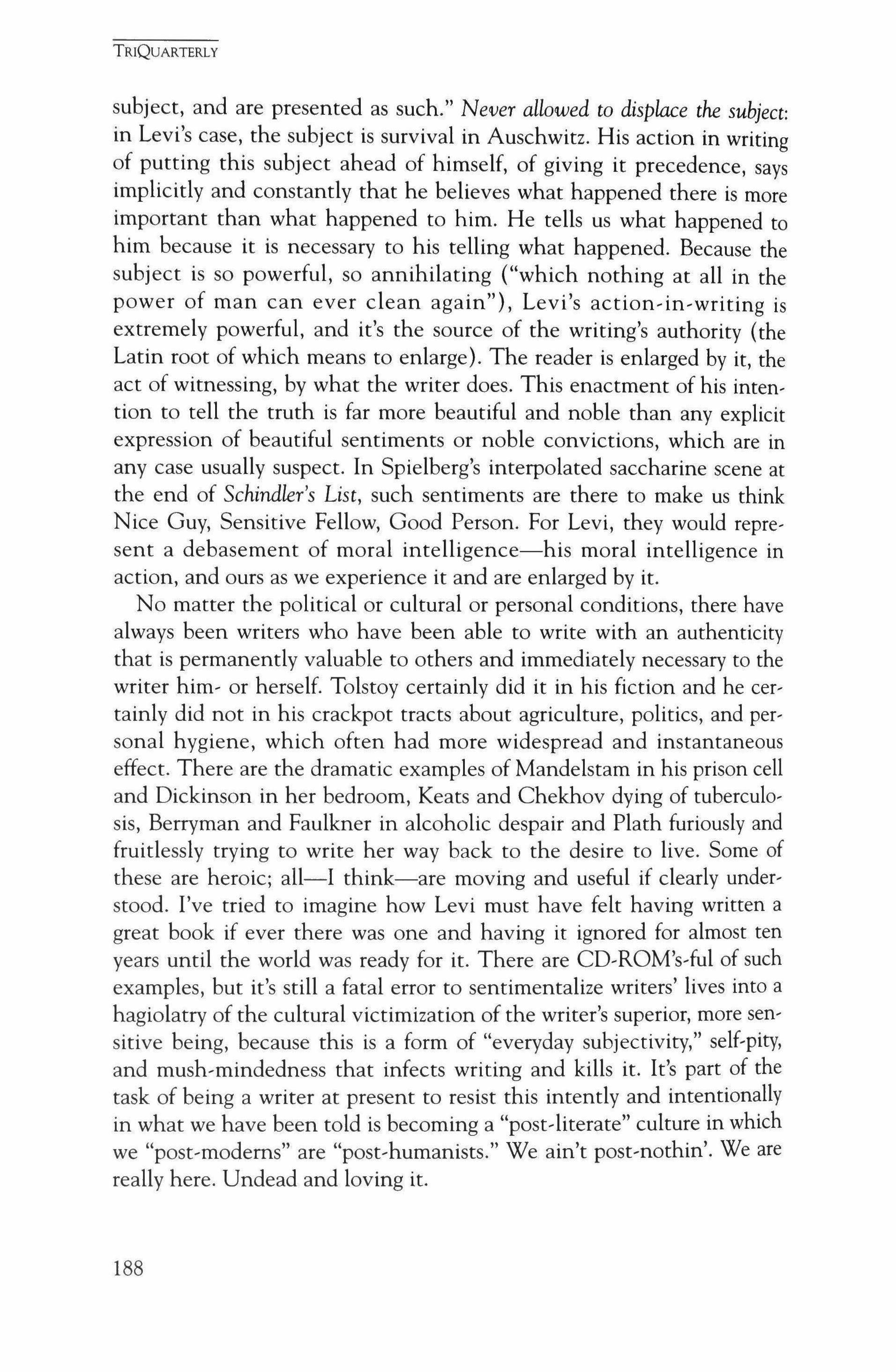
subject, and are presented as such." Never allowed to displace the subject: in Levi's case, the subject is survival in Auschwitz. His action in writing of putting this subject ahead of himself, of giving it precedence, says implicitly and constantly that he believes what happened there is more important than what happened to him. He tells us what happened to him because it is necessary to his telling what happened. Because the subject is so powerful, so annihilating ("which nothing at all in the power of man can ever clean again"), Levi's action-in-writing is extremely powerful, and it's the source of the writing's authority (the Latin root of which means to enlarge). The reader is enlarged by it, the act of witnessing, by what the writer does. This enactment of his intention to tell the truth is far more beautiful and noble than any explicit expression of beautiful sentiments or noble convictions, which are in any case usually suspect. In Spielberg's interpolated saccharine scene at the end of Schindler's List, such sentiments are there to make us think Nice Guy, Sensitive Fellow, Good Person. For Levi, they would represent a debasement of moral intelligence-his moral intelligence in action, and ours as we experience it and are enlarged by it.
No matter the political or cultural or personal conditions, there have always been writers who have been able to write with an authenticity that is permanently valuable to others and immediately necessary to the writer him- or herself. Tolstoy certainly did it in his fiction and he certainly did not in his crackpot tracts about agriculture, politics, and personal hygiene, which often had more widespread and instantaneous effect. There are the dramatic examples of Mandelstam in his prison cell and Dickinson in her bedroom, Keats and Chekhov dying of tuberculosis, Berryman and Faulkner in alcoholic despair and Plath furiously and fruitlessly trying to write her way back to the desire to live. Some of these are heroic; all-I think-are moving and useful if clearly understood. I've tried to imagine how Levi must have felt having written a great book if ever there was one and having it ignored for almost ten years until the world was ready for it. There are CD-ROM's-ful of such examples, but it's still a fatal error to sentimentalize writers' lives into a hagiolatry of the cultural victimization of the writer's superior, more sensitive being, because this is a form of "everyday subjectivity," self-pity, and mush-rnindedness that infects writing and kills it. It's part of the task of being a writer at present to resist this intently and intentionally in what we have been told is becoming a "post-literate" culture in which d"" h ." W hi Ware we post-rno ems are post- umarusts. e am t post-not m e really here. Undead and loving it.
TRIQUARTERLY
188
Since I have used Chekhov's letters as my main guide through this moral minefield, I want to end with advice he wrote to his wife in 1899 while he was trying to regain his health in Yalta and she was acting in Moscow:
Art, and especially the stage, is an endeavor in which stumbling is unavoidable. There will be many unsuccessful days ahead, many entirely unsuccessful seasons, there will be great misunderstandings and deep dis, appointments and you have to be ready for all that, you have to expect it, and despite it all you must stubbornly, fanatically do what you think is right.
No matter how things change, they stay the same. It is a sign of our times and maybe of any time that Chekhov's Letters, also one of the great books if ever there was one, is currently out of print. * You can't buy it in any translation. But you can probably find it in the library.
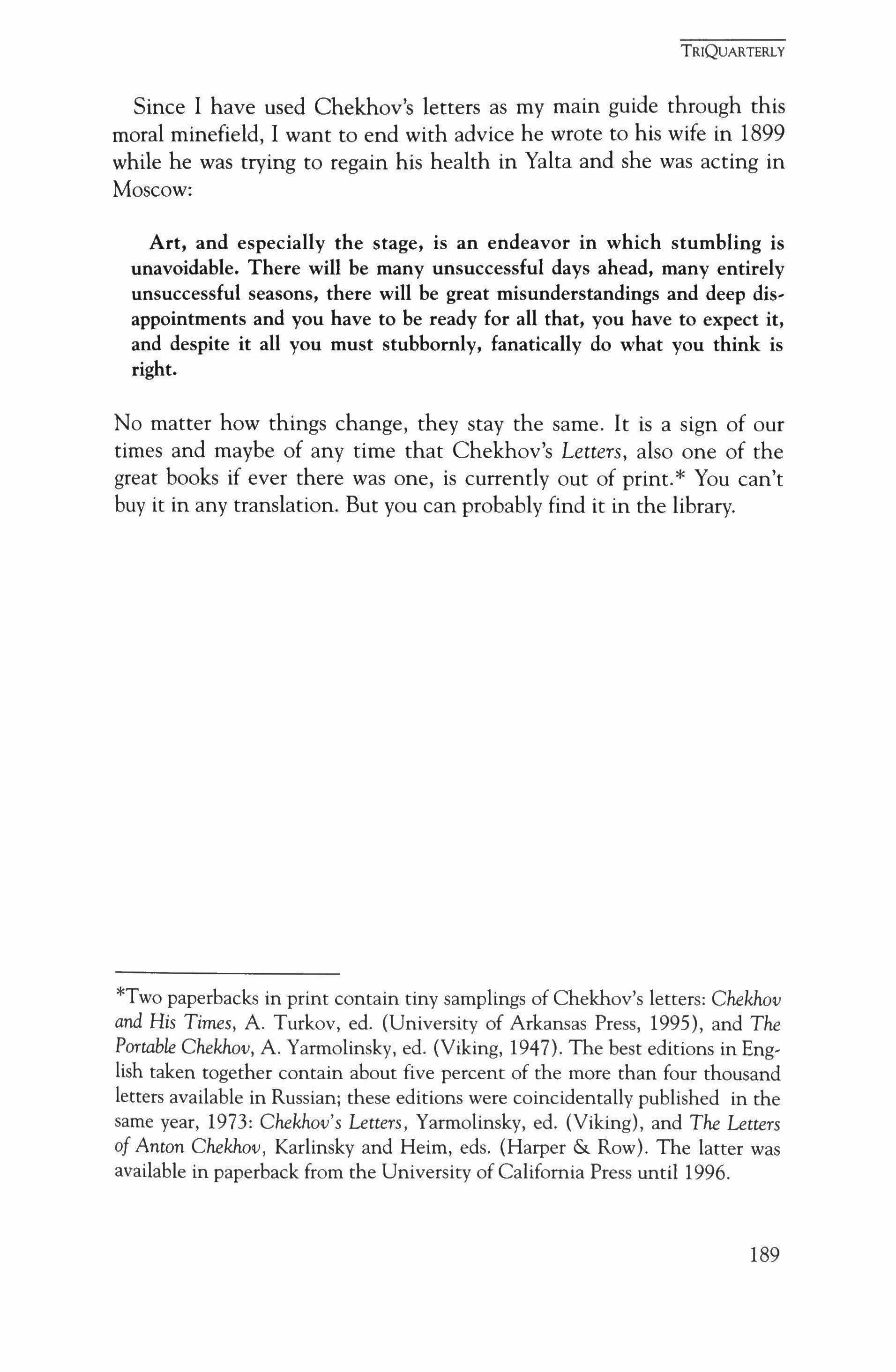
*Two paperbacks in print contain tiny samplings of Chekhov's letters: Chekhov and His Times, A. Turkov, ed. (University of Arkansas Press, 1995), and The Portable Chekhov, A. Yarmolinsky, ed. (Viking, 1947). The best editions in English taken together contain about five percent of the more than four thousand letters available in Russian; these editions were coincidentally published in the same year, 1973: Chekhov's Letters, Yarmolinsky, ed. (Viking), and The Letters of Anton Chekhov, Karlinsky and Heim, eds. (Harper & Row). The latter was available in paperback from the University of California Press until 1996.
TRIQUARTERLY
189
Two Poems
Alan Shapiro
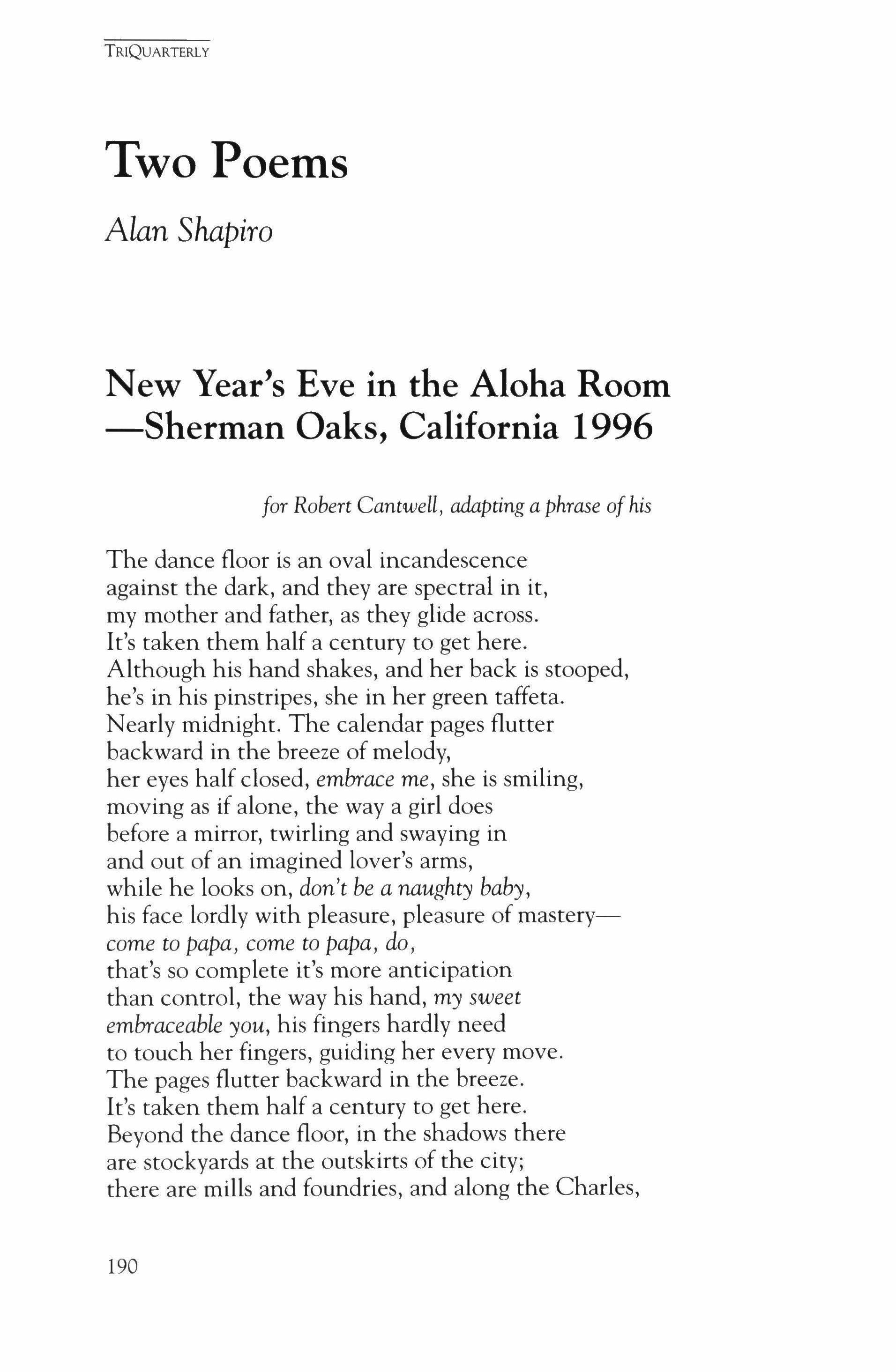
New Year's Eve in the Aloha Room -Sherman Oaks, California 1996
for Robert Cantwell, adapting a phrase ofhis
The dance floor is an oval incandescence against the dark, and they are spectral in it, my mother and father, as they glide across. It's taken them half a century to get here. Although his hand shakes, and her back is stooped, he's in his pinstripes, she in her green taffeta. Nearly midnight. The calendar pages flutter backward in the breeze of melody, her eyes half closed, embrace me, she is smiling, moving as if alone, the way a girl does before a mirror, twirling and swaying in and out of an imagined lover's arms, while he looks on, don't be a naughty baby, his face lordly with pleasure, pleasure of masterycome to papa, come to papa, do, that's so complete it's more anticipation than control, the way his hand, my sweet embraceable you, his fingers hardly need to touch her fingers, guiding her every move. The pages flutter backward in the breeze. It's taken them half a century to get here. Beyond the dance floor, in the shadows there are stockyards at the outskirts of the city; there are mills and foundries, and along the Charles,
TRIQUARTERLY
190
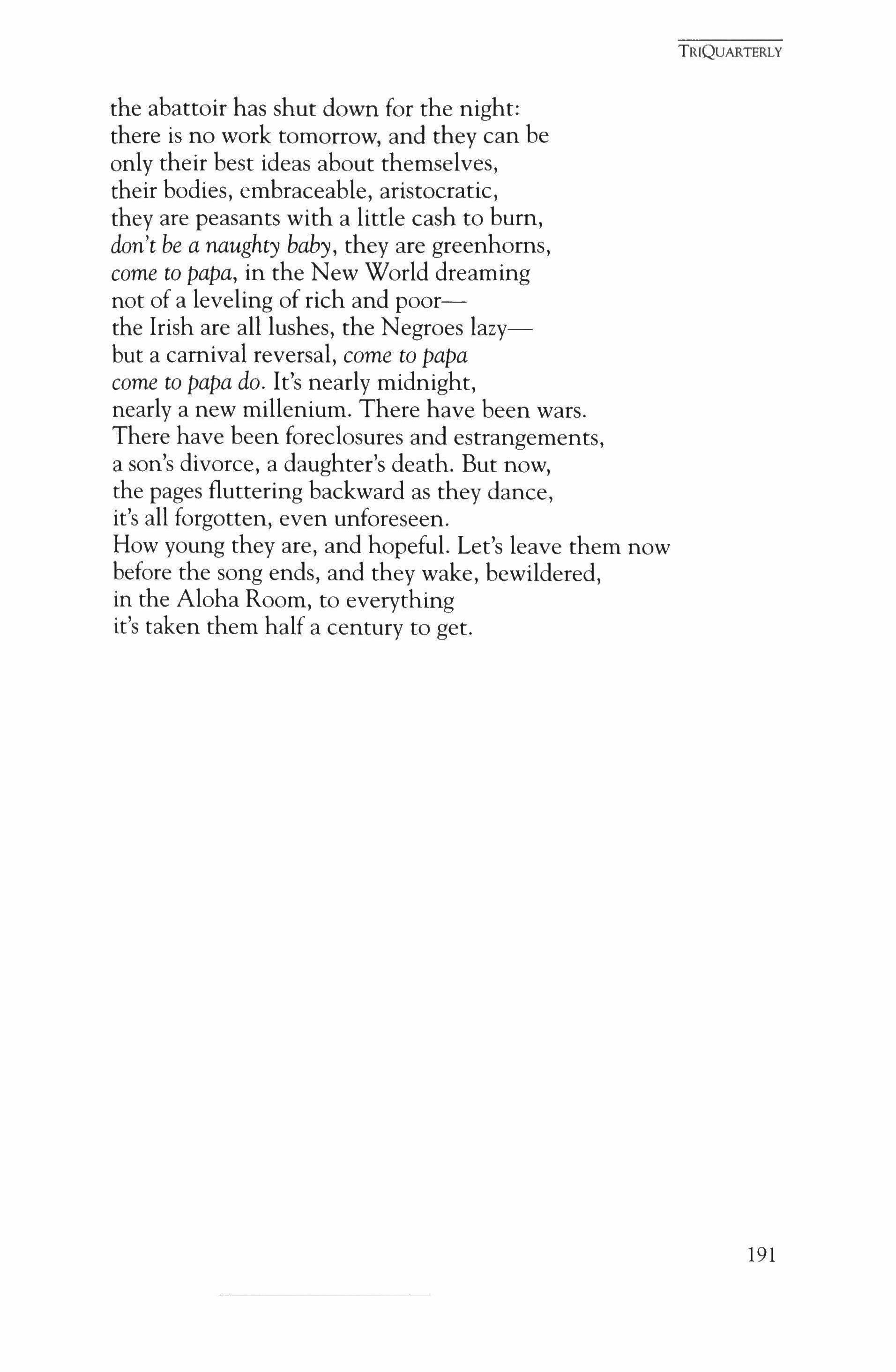
the abattoir has shut down for the night: there is no work tomorrow, and they can be only their best ideas about themselves, their bodies, embraceable, aristocratic, they are peasants with a little cash to burn, don't be a naughty baby, they are greenhorns, come to papa, in the New World dreaming not of a leveling of rich and poorthe Irish are all lushes, the Negroes lazybut a carnival reversal, come to papa come to papa do. It's nearly midnight, nearly a new millenium. There have been wars. There have been foreclosures and estrangements, a son's divorce, a daughter's death. But now, the pages fluttering backward as they dance, it's all forgotten, even unforeseen. How young they are, and hopeful. Let's leave them now before the song ends, and they wake, bewildered, in the Aloha Room, to everything it's taken them half a century to get.
TRIQUARTERLY 191
Interstate
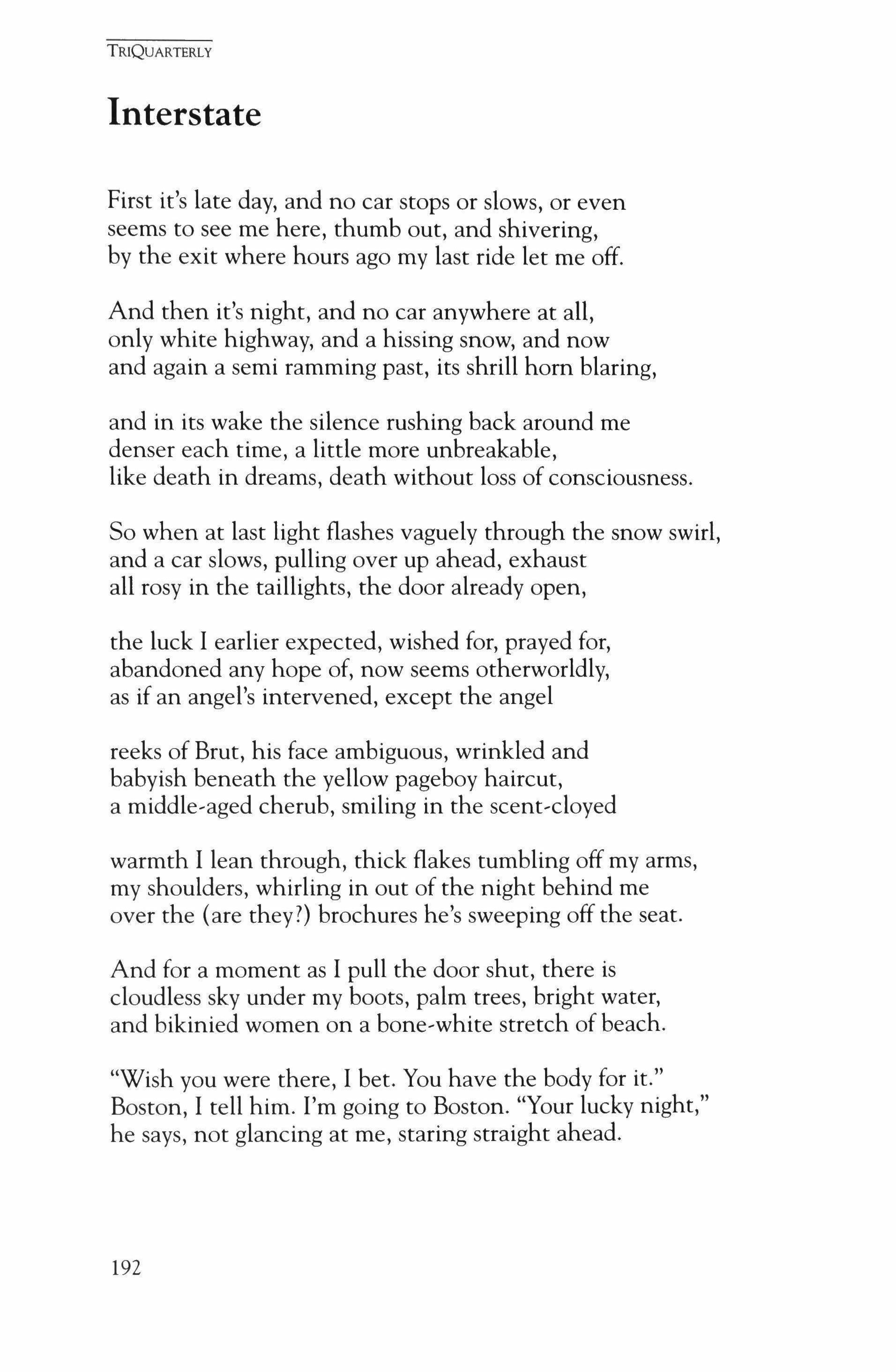
First it's late day, and no car stops or slows, or even seems to see me here, thumb out, and shivering, by the exit where hours ago my last ride let me off.
And then it's night, and no car anywhere at all, only white highway, and a hissing snow, and now and again a semi ramming past, its shrill hom blaring, and in its wake the silence rushing back around me denser each time, a little more unbreakable, like death in dreams, death without loss of consciousness.
So when at last light flashes vaguely through the snow swirl, and a car slows, pulling over up ahead, exhaust all rosy in the taillights, the door already open, the luck I earlier expected, wished for, prayed for, abandoned any hope of, now seems otherworldly, as if an angel's intervened, except the angel
reeks of Brut, his face ambiguous, wrinkled and babyish beneath the yellow pageboy haircut, a middle-aged cherub, smiling in the scent-cloyed
warmth I lean through, thick flakes tumbling off my arms, my shoulders, whirling in out of the night behind me over the (are they?) brochures he's sweeping off the seat.
And for a moment as I pull the door shut, there is cloudless sky under my boots, palm trees, bright water, and bikinied women on a bone-white stretch of beach.
"Wish you were there, I bet. You have the body for it." Boston, I tell him. I'm going to Boston. "Your lucky night," he says, not glancing at me, staring straight ahead.
TRIQUARTERLY
192
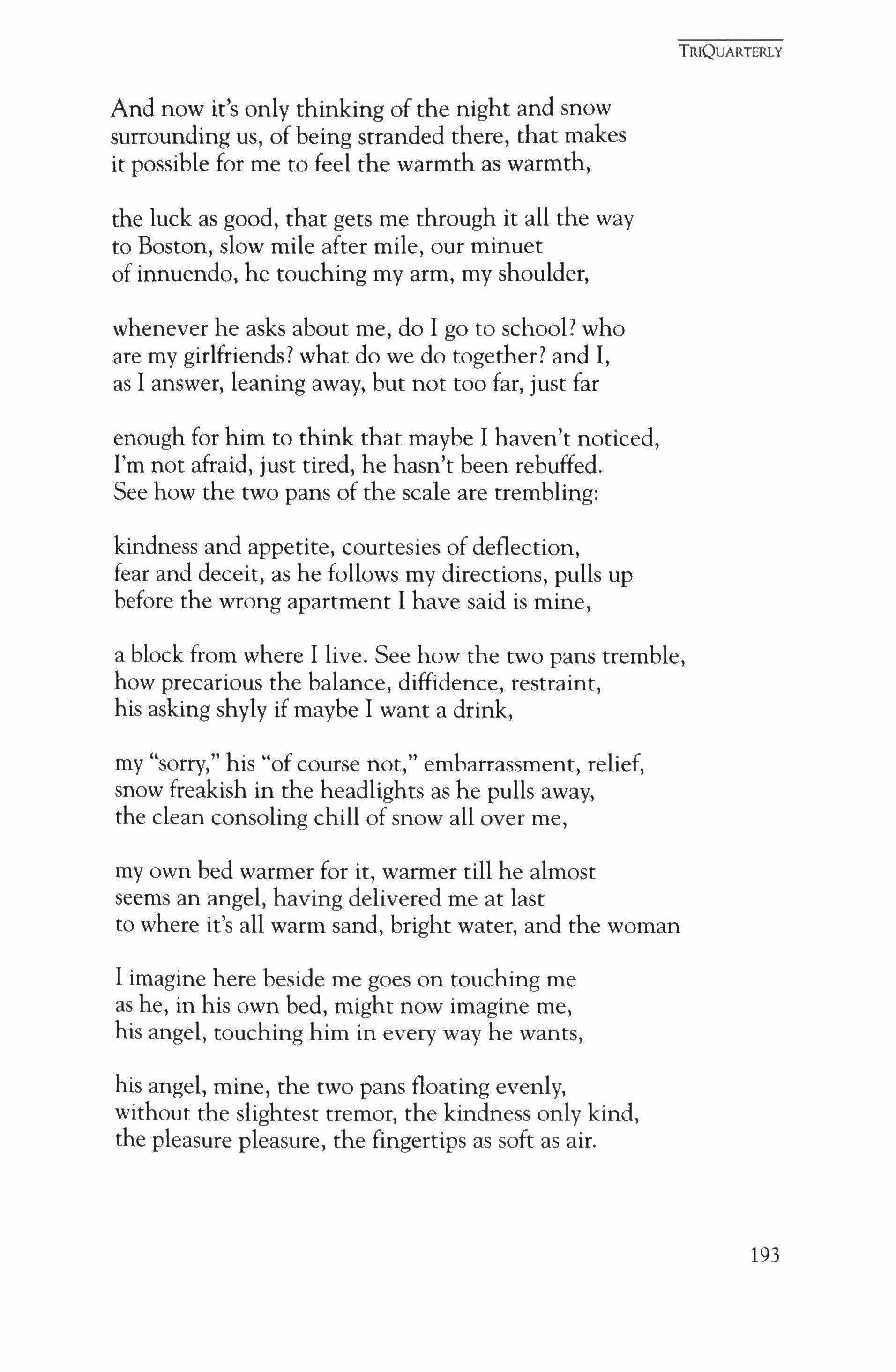
And now it's only thinking of the night and snow surrounding us, of being stranded there, that makes it possible for me to feel the warmth as warmth,
the luck as good, that gets me through it all the way to Boston, slow mile after mile, our minuet of innuendo, he touching my arm, my shoulder, whenever he asks about me, do I go to school? who are my girlfriends? what do we do together? and I, as I answer, leaning away, but not too far, just far
enough for him to think that maybe I haven't noticed, I'm not afraid, just tired, he hasn't been rebuffed. See how the two pans of the scale are trembling:
kindness and appetite, courtesies of deflection, fear and deceit, as he follows my directions, pulls up before the wrong apartment I have said is mine,
a block from where I live. See how the two pans tremble, how precarious the balance, diffidence, restraint, his asking shyly if maybe I want a drink,
my "sorry," his "of course not," embarrassment, relief, snow freakish in the headlights as he pulls away, the clean consoling chill of snow all over me,
my own bed warmer for it, warmer till he almost seems an angel, having delivered me at last to where it's all warm sand, bright water, and the woman
I imagine here beside me goes on touching me as he, in his own bed, might now imagine me, his angel, touching him in every way he wants,
his angel, mine, the two pans floating evenly, without the slightest tremor, the kindness only kind, the pleasure pleasure, the fingertips as soft as air.
TRIQUARTERLY
193
Littler Sonnet
Reginald Shepherd
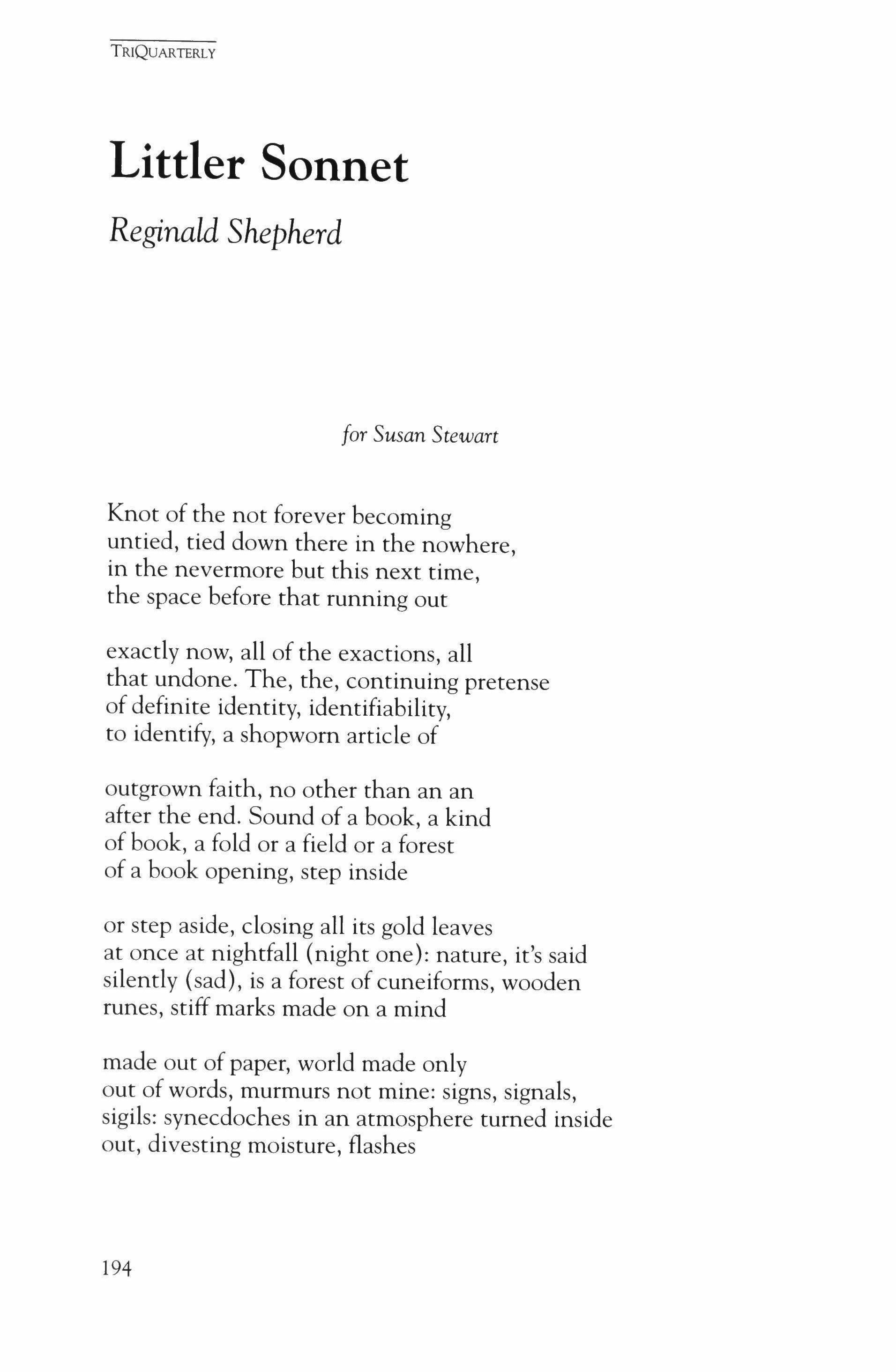 for Susan Stewart
for Susan Stewart
Knot of the not forever becoming untied, tied down there in the nowhere, in the nevermore but this next time, the space before that running out exactly now, all of the exactions, all that undone. The, the, continuing pretense of definite identity, identifiability, to identify, a shopworn article of outgrown faith, no other than an an after the end. Sound of a book, a kind of book, a fold or a field or a forest of a book opening, step inside or step aside, closing all its gold leaves at once at nightfall (night one): nature, it's said silently (sad), is a forest of cuneiforms, wooden runes, stiff marks made on a mind
made out of paper, world made only out of words, murmurs not mine: signs, signals, sigils: synecdoches in an atmosphere turned inside out, divesting moisture, flashes
TRIQUARTERLY
194
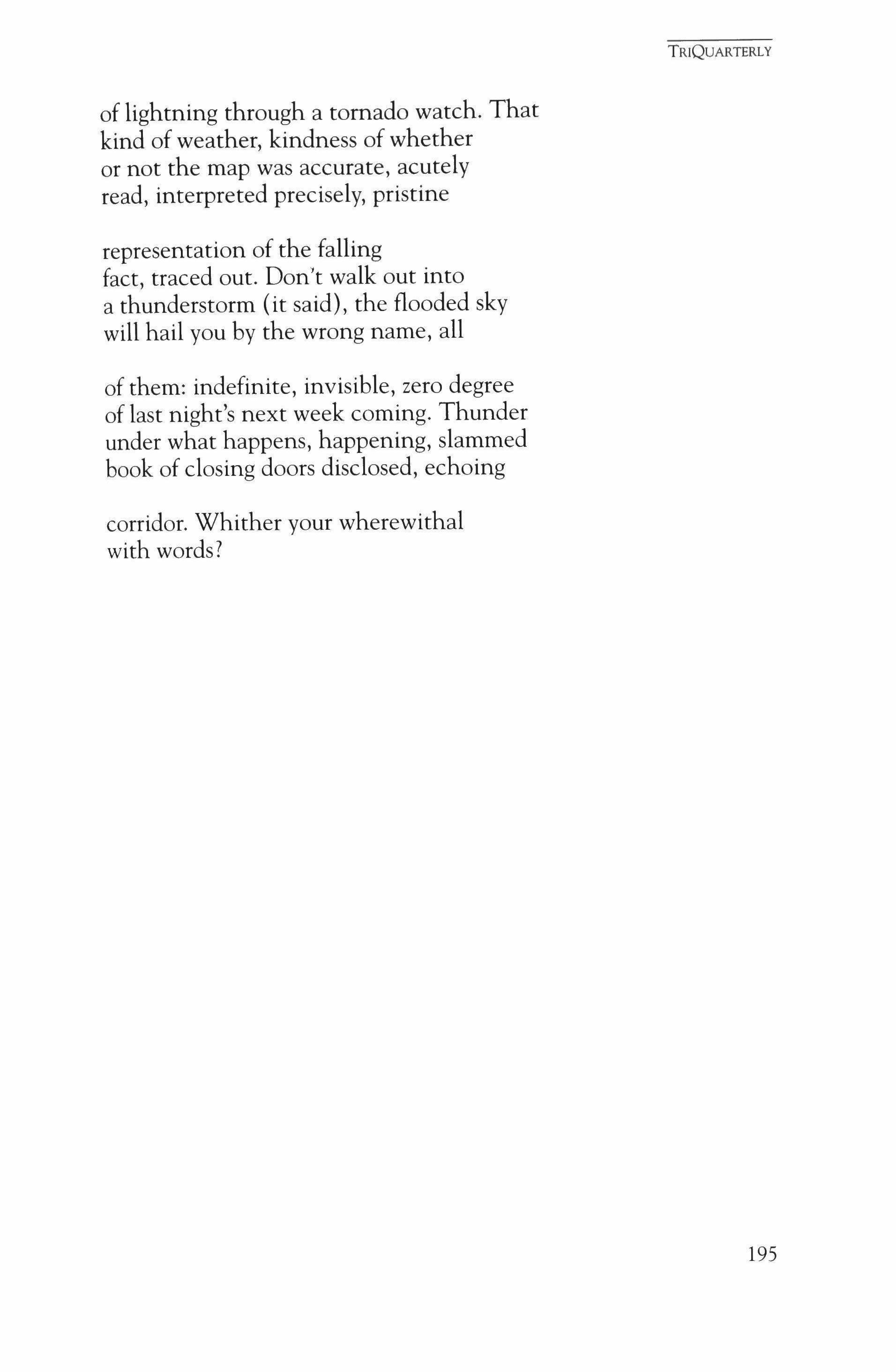
of lightning through a tornado watch. That kind of weather, kindness of whether or not the map was accurate, acutely read, interpreted precisely, pristine representation of the falling fact, traced out. Don't walk out into a thunderstorm (it said), the flooded sky will hail you by the wrong name, all
of them: indefinite, invisible, zero degree of last night's next week coming. Thunder under what happens, happening, slammed book of closing doors disclosed, echoing corridor. Whither your wherewithal with words?
TRIQUARTERLY
195
Two Poems
Tom Sleigh
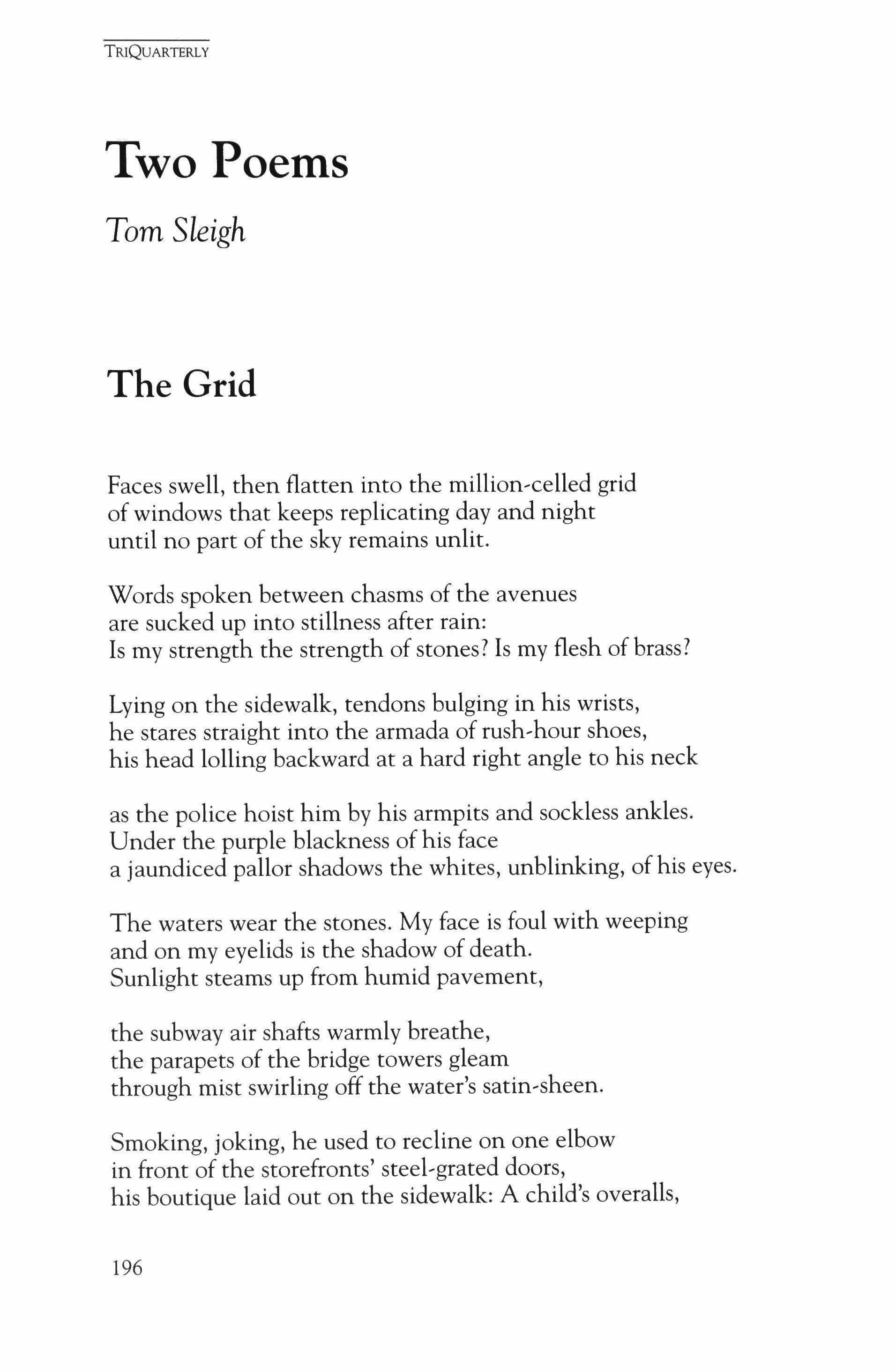
The Grid
Faces swell, then flatten into the million-celled grid of windows that keeps replicating day and night until no part of the sky remains unlit.
Words spoken between chasms of the avenues are sucked up into stillness after rain: Is my strength the strength of stones? Is my flesh of brass?
Lying on the sidewalk, tendons bulging in his wrists, he stares straight into the armada of rush,hour shoes, his head lolling backward at a hard right angle to his neck
as the police hoist him by his armpits and sockless ankles. Under the purple blackness ofhis face a jaundiced pallor shadows the whites, unblinking, of his eyes.
The waters wear the stones. My face is foul with weeping and on my eyelids is the shadow of death. Sunlight steams up from humid pavement, the subway air shafts warmly breathe, the parapets of the bridge towers gleam through mist swirling off the water's satin'sheen.
Smoking, joking, he used to recline on one elbow in front of the storefronts' steel-grated doors, his boutique laid out on the sidewalk: A child's overalls,
TRIQUARTERLY
196
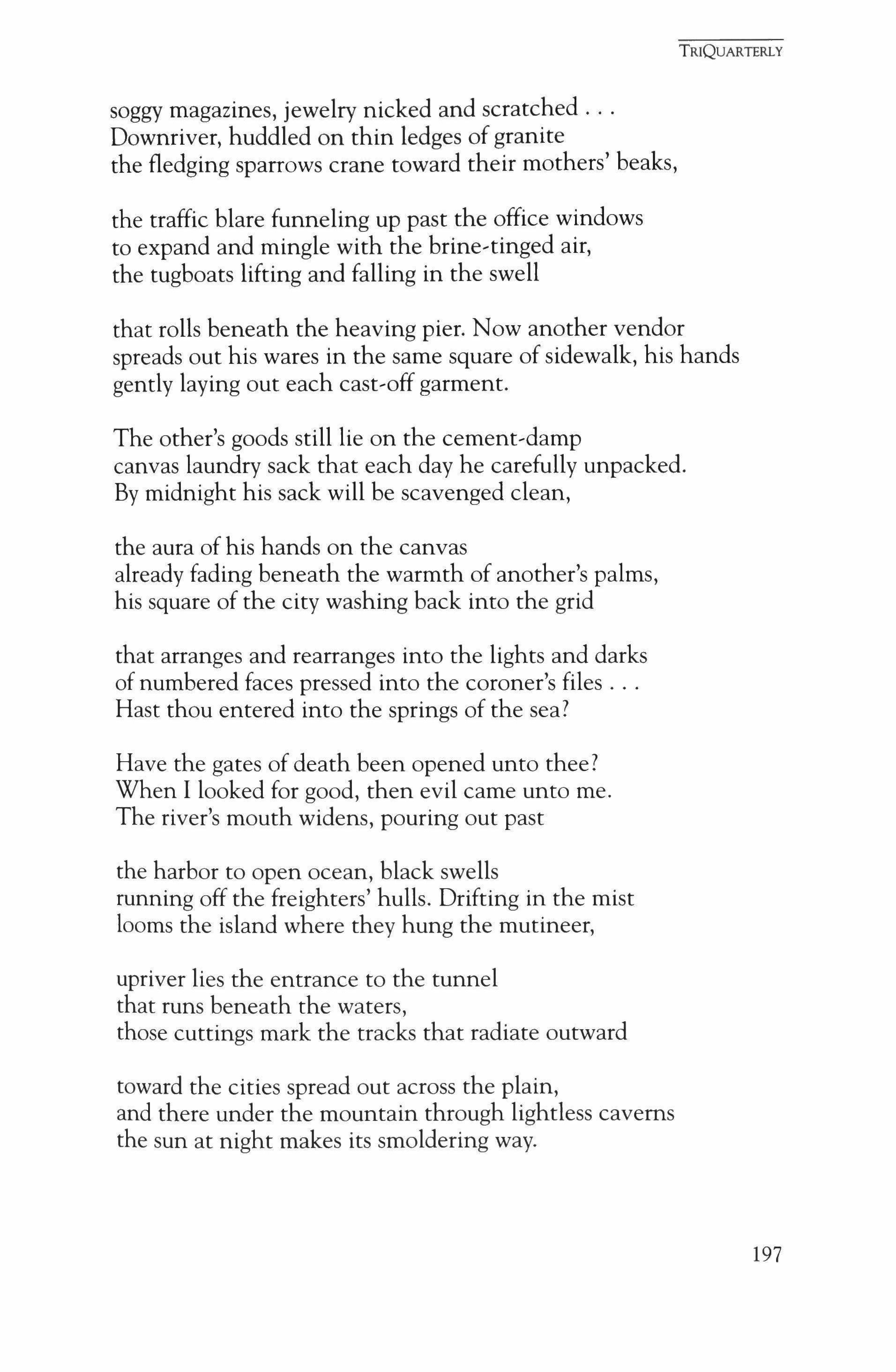
soggy magazines, jewelry nicked and scratched Downriver, huddled on thin ledges of granite the fledging sparrows crane toward their mothers' beaks,
the traffic blare funneling up past the office windows to expand and mingle with the brine-tinged air, the tugboats lifting and falling in the swell that rolls beneath the heaving pier. Now another vendor spreads out his wares in the same square of sidewalk, his hands gently laying out each cast-off garment.
The other's goods still lie on the cement-damp canvas laundry sack that each day he carefully unpacked. By midnight his sack will be scavenged clean, the aura of his hands on the canvas already fading beneath the warmth of another's palms, his square of the city washing back into the grid
that arranges and rearranges into the lights and darks of numbered faces pressed into the coroner's files Hast thou entered into the springs of the sea?
Have the gates of death been opened unto thee? When I looked for good, then evil came unto me. The river's mouth widens, pouring out past
the harbor to open ocean, black swells running off the freighters' hulls. Drifting in the mist looms the island where they hung the mutineer,
upriver lies the entrance to the tunnel that runs beneath the waters, those cuttings mark the tracks that radiate outward
toward the cities spread out across the plain, and there under the mountain through lightless caverns the sun at night makes its smoldering way.
TRIQUARTERLY
197
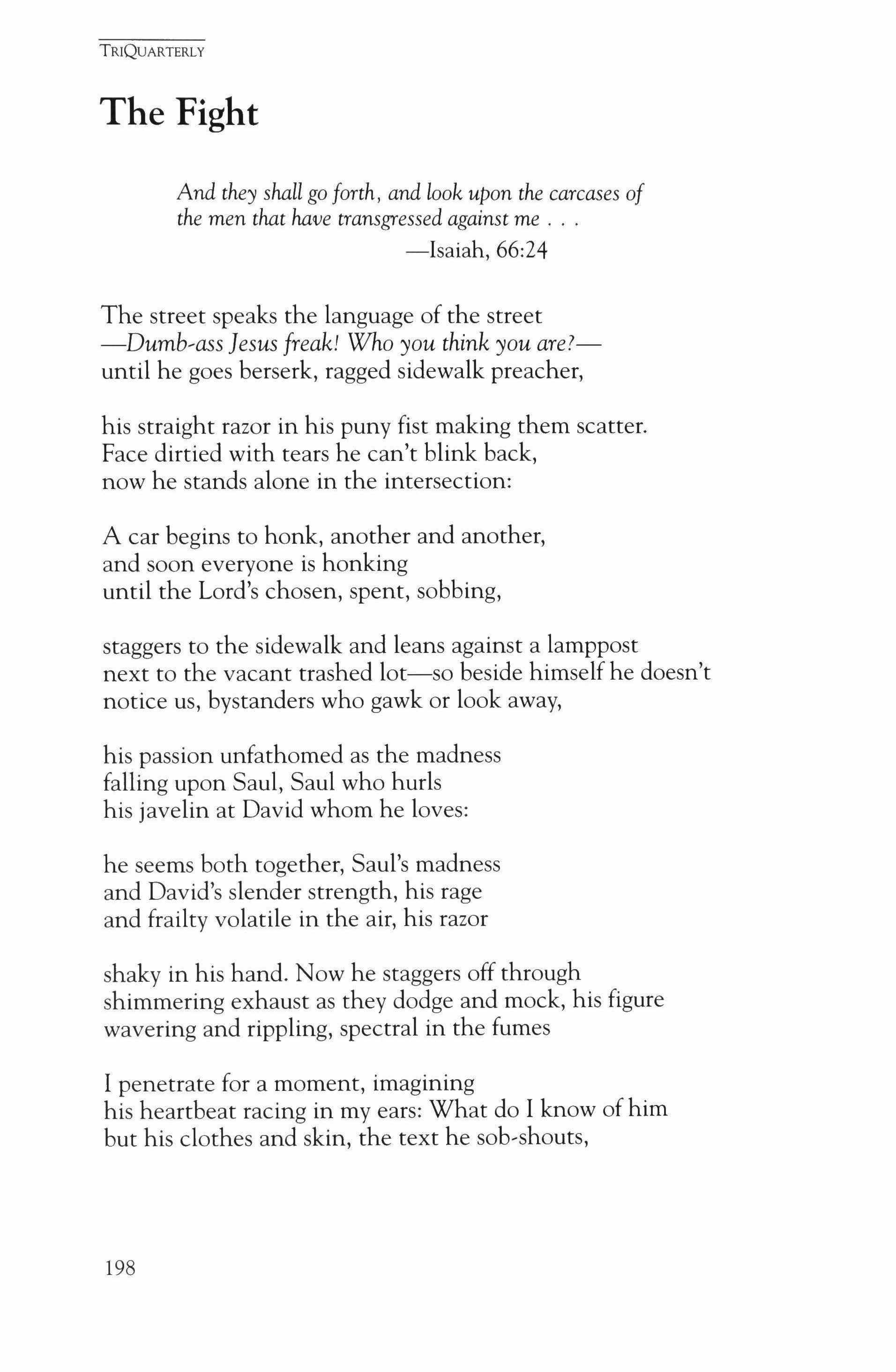
The Fight
And they shall go forth, and look upon the carcases of the men that have transgressed against me -Isaiah, 66:24
The street speaks the language of the street -Dumb�ass Jesus freak! Who you think you are?until he goes berserk, ragged sidewalk preacher, his straight razor in his puny fist making them scatter. Face dirtied with tears he can't blink back, now he stands alone in the intersection:
A car begins to honk, another and another, and soon everyone is honking until the Lord's chosen, spent, sobbing, staggers to the sidewalk and leans against a lamppost next to the vacant trashed lot-so beside himself he doesn't notice us, bystanders who gawk or look away, his passion unfathomed as the madness falling upon Saul, Saul who hurls his javelin at David whom he loves:
he seems both together, Saul's madness and David's slender strength, his rage and frailty volatile in the air, his razor
shaky in his hand. Now he staggers off through shimmering exhaust as they dodge and mock, his figure wavering and rippling, spectral in the fumes
I penetrate for a moment, imagining his heartbeat racing in my ears: What do I know of him but his clothes and skin, the text he sob-shouts,
TRIQUARTERLY
198
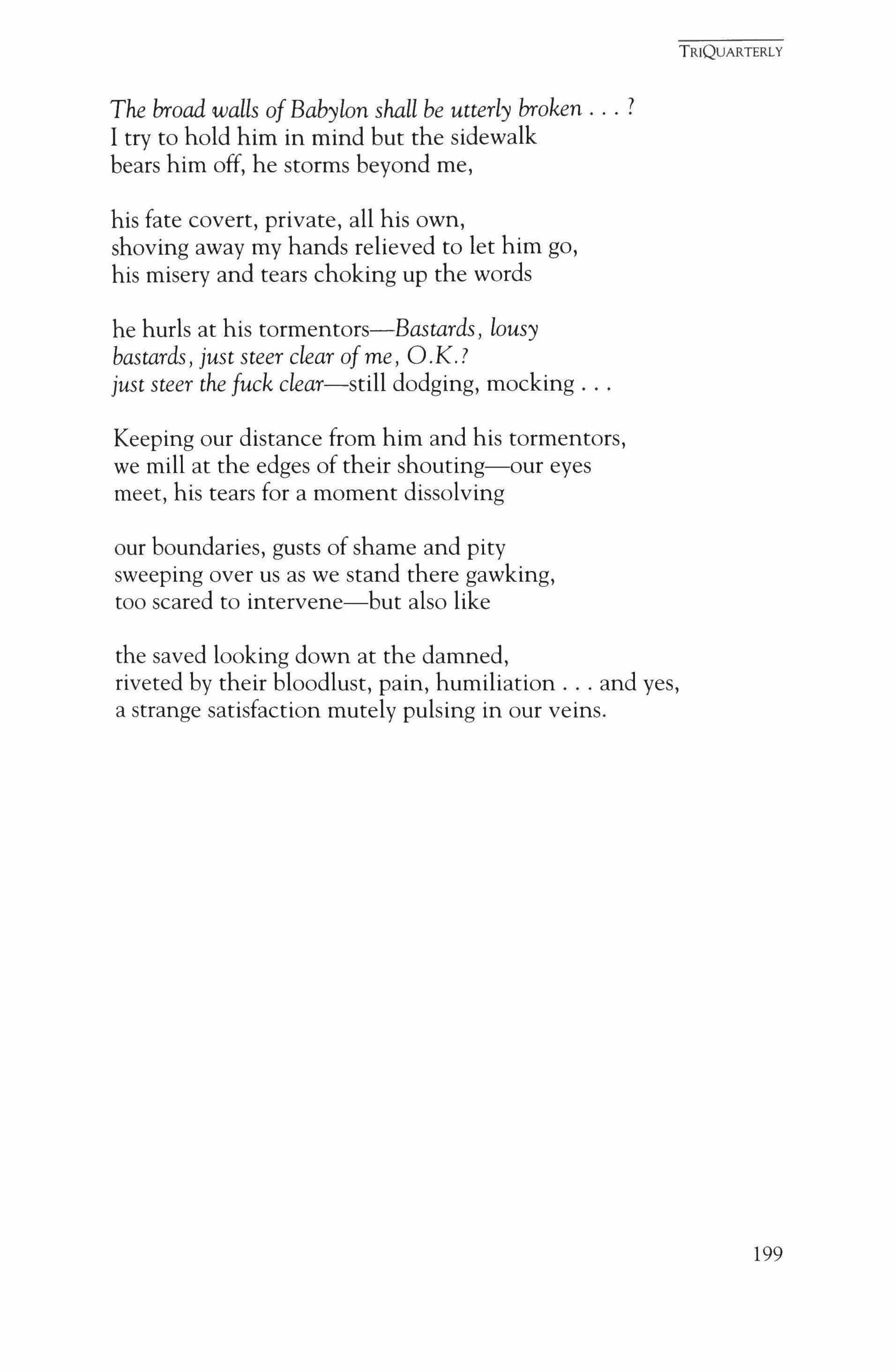
The broad walls ofBabylon shall be utterly broken ? I try to hold him in mind but the sidewalk bears him off, he storms beyond me,
his fate covert, private, all his own, shoving away my hands relieved to let him go, his misery and tears choking up the words
he hurls at his tormentors-Bastards, lousy bastards, just steer clear of me, O.K.? just steer the fuck clear-still dodging, mocking
Keeping our distance from him and his tormentors, we mill at the edges of their shouting-our eyes meet, his tears for a moment dissolving
our boundaries, gusts of shame and pity sweeping over us as we stand there gawking, too scared to intervene-but also like
the saved looking down at the damned, riveted by their bloodlust, pain, humiliation and yes, a strange satisfaction mutely pulsing in our veins.
TRIQUARTERLY
199
Three Poems
Heidy Steidlmayer
Heartbreak
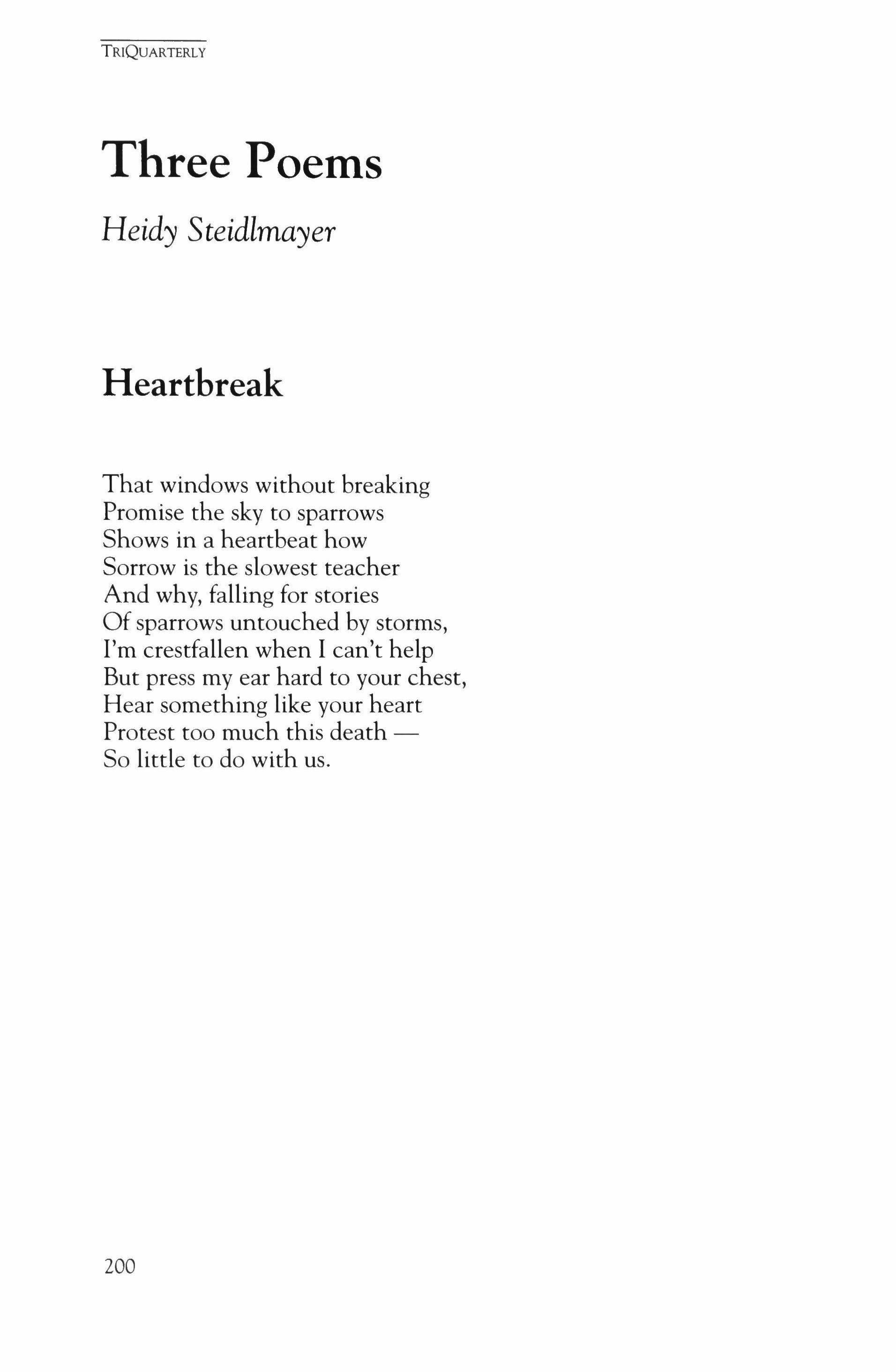
That windows without breaking
Promise the sky to sparrows Shows in a heartbeat how Sorrow is the slowest teacher And why, falling for stories Of sparrows untouched by storms, I'm crestfallen when I can't help But press my ear hard to your chest, Hear something like your heart Protest too much this deathSo little to do with us.
TRIQUARTERLY
200
Clothesline
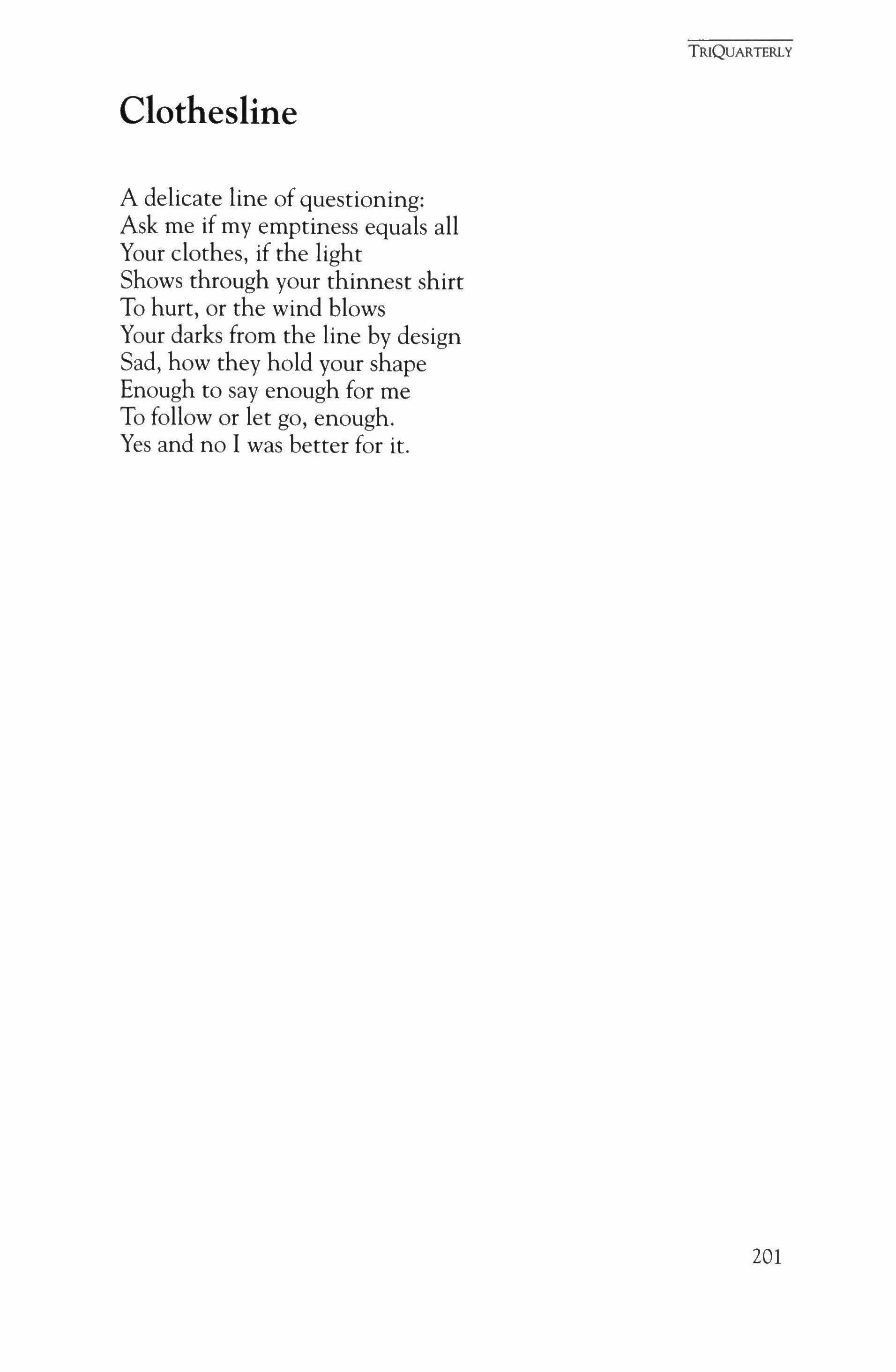
A delicate line of questioning:
Ask me if my emptiness equals all
Your clothes, if the light
Shows through your thinnest shirt
To hurt, or the wind blows
Your darks from the line by design
Sad, how they hold your shape
Enough to say enough for me
To follow or let go, enough. Yes and no I was better for it.
TRIQUARTERLY
201
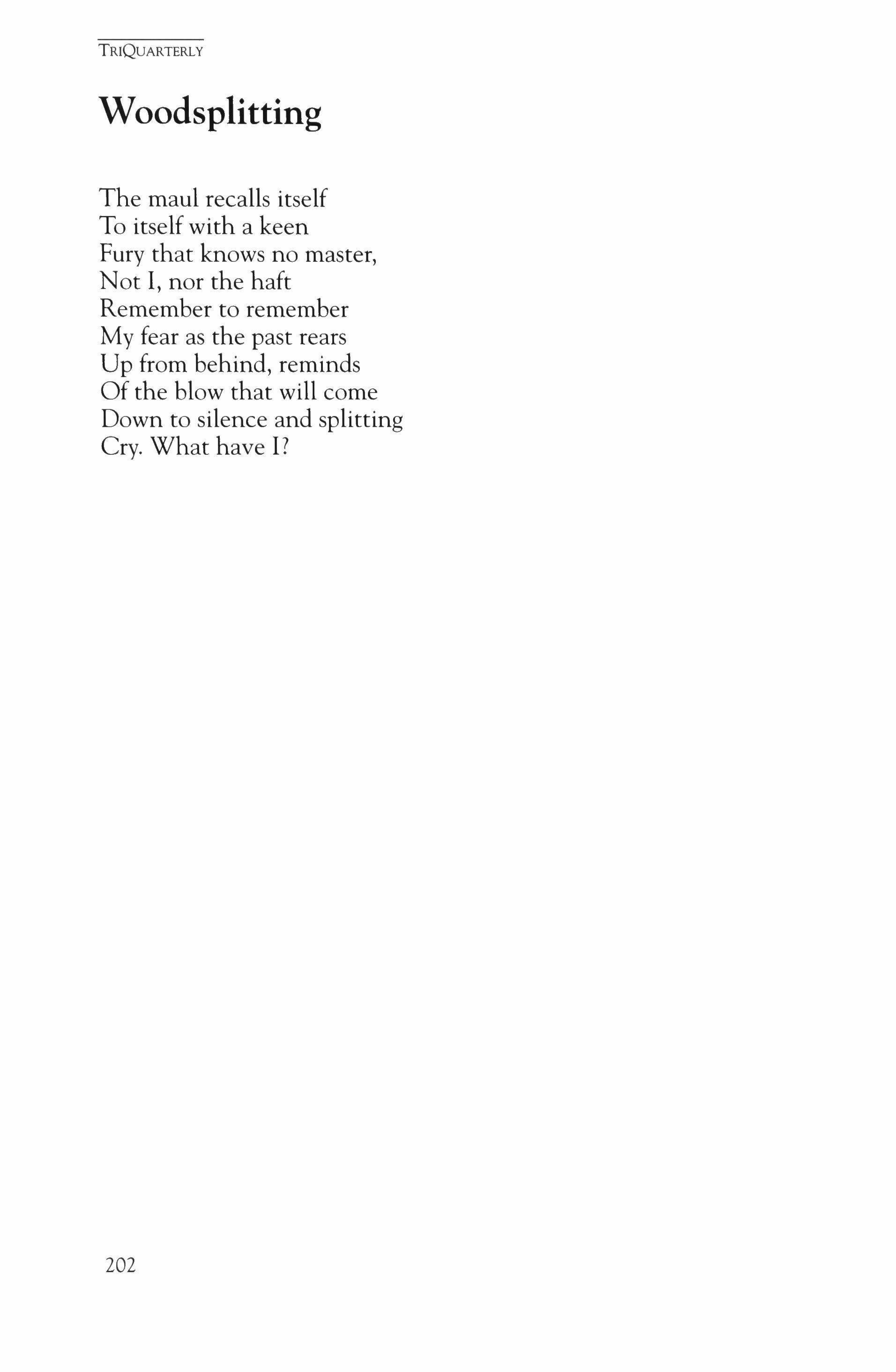
Woodsplitting
The maul recalls itself
To itself with a keen Fury that knows no master, Not I, nor the haft
Remember to remember
My fear as the past rears Up from behind, reminds Of the blow that will come Down to silence and splitting Cry. What have I?
TRIQUARTERLY
202
California: An Anthology
Richard Stern
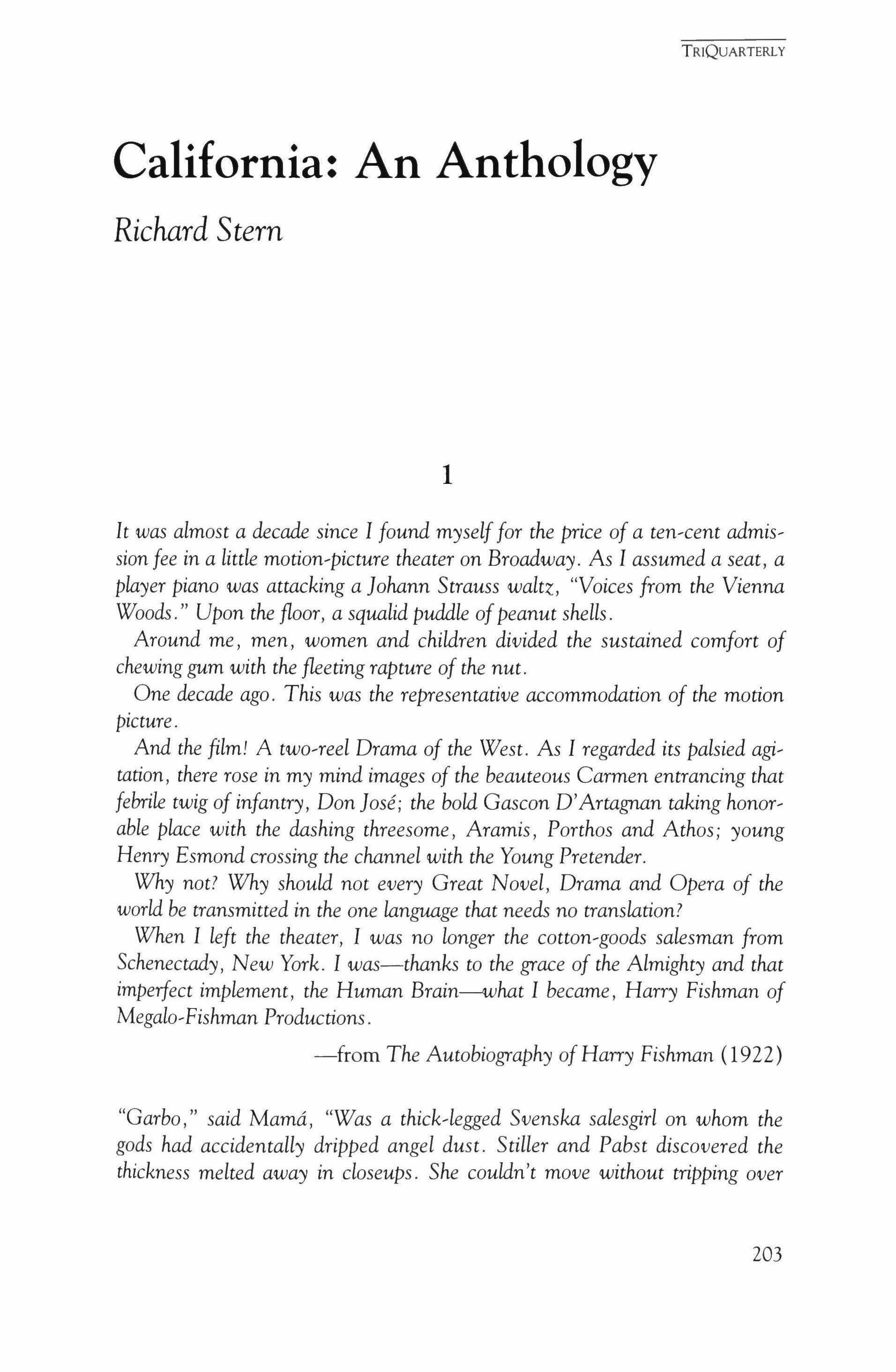
It was almost a decade since I found myselffor the price of a ten-cent admission fee in a little motion-picture theater on Broadway. As I assumed a seat, a player piano was attacking a Johann Strauss waltz, "Voices from the Vienna Woods." Upon the floor, a squalid puddle ofpeanut shells.
Around me, men, women and children divided the sustained comfort of chewing gum with the fleeting rapture of the nut.
One decade ago. This was the representative accommodation of the motion picture.
And the film! A two-reel Drama of the West. As I regarded its palsied agitation, there rose in my mind images of the beauteous Carmen entrancing that febrile twig ofinfantry, Don los«; the bold Gascon D'Artagnan taking honorable place with the dashing threesome, Aramis, Porthos and Athos; young Henry Esmond crossing the channel with the Young Pretender.
Why not? Why should not every Great Novel, Drama and Opera of the world be transmitted in the one language that needs no translation?
When I left the theater, I was no longer the cotton-goods salesman from Schenectady, New York. I was-thanks to the grace of the Almighty and that imperfect implement, the Human Brain-what I became, Harry Fishman of Megalo-Fishman Productions.
-from The Autobiography ofHarry Fishman (1922)
"Garbo," said Mama, "Was a thick-legged Svenska salesgirl on whom the gods had accidentally dripped angel dust. Stiller and Pabst discovered the thickness melted away in closeups. She couldn't move without tripping over
TRIQUARTERLY
1
203
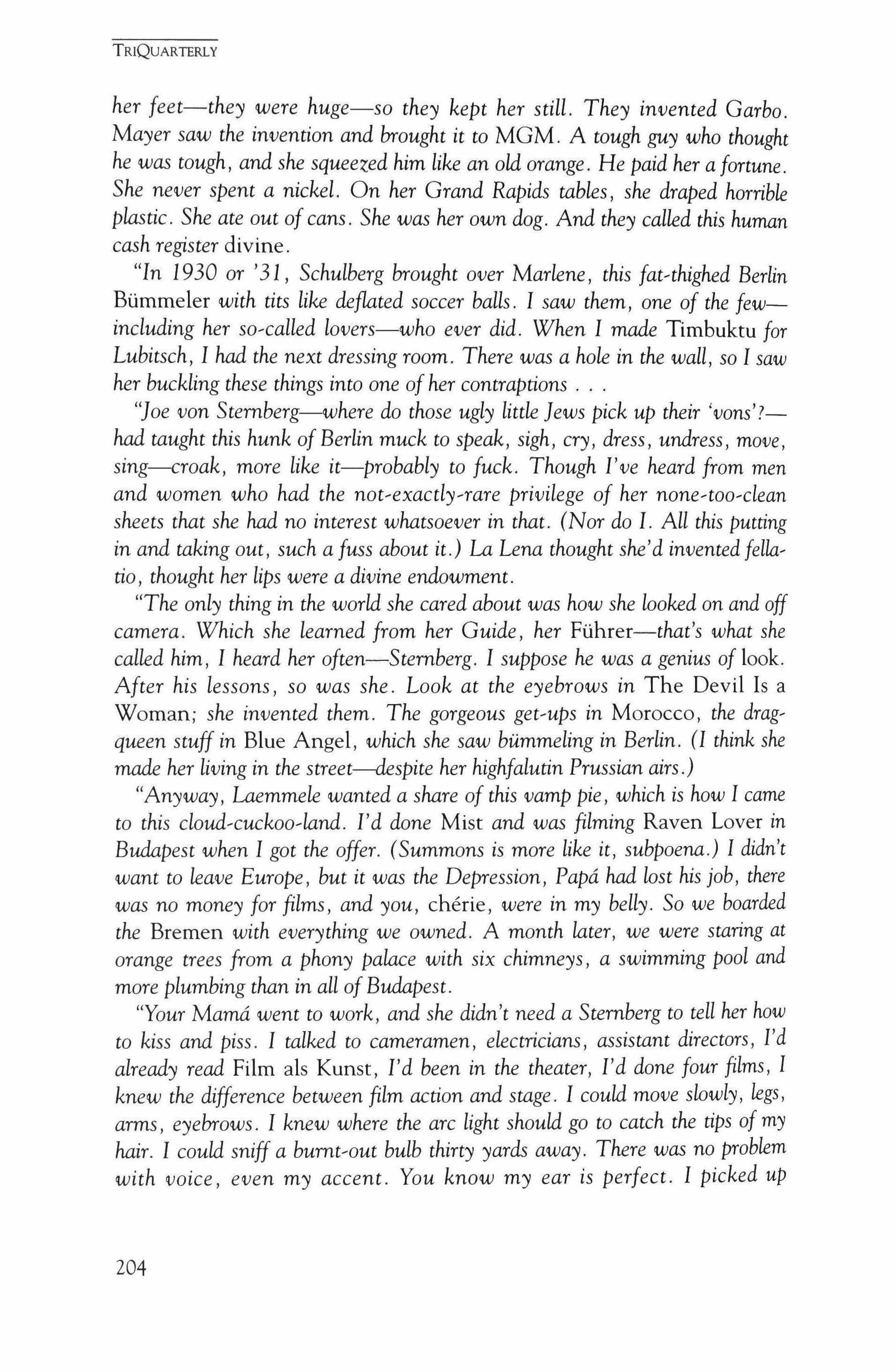
her feet-they were huge-so they kept her still. They invented Garbo. Mayer saw the invention and brought it to MGM. A tough guy who thought he was tough, and she squeezed him like an old orange. He paid her a fortune. She never spent a nickel. On her Grand Rapids tables, she draped horrible plastic. She ate out of cans. She was her own dog. And they called this human cash register divine.
In 1930 or '31, Schulberg brought over Marlene, this faHhighed Berlin Bumrneler with tits like deflated soccer balls. I saw them, one of the fewincluding her so�called lovers-who ever did. When I made Timbuktu for Lubitsch, I had the next dressing room. There was a hole in the wall, so I saw her buckling these things into one of her contraptions
"Joe von Sternberg-where do those ugly little Jews pick up their 'vons'?had taught this hunk of Berlin muck to speak, sigh, cry, dress, undress, move, sing---croak, more like it-probably to fuck. Though I've heard from men and women who had the not-exccziy-rare privilege of her none-roo-clezm sheets that she had no interest whatsoever in that. (Nor do 1. All this putting in and taking out, such a fuss about it.) La Lena thought she'd invented fella� tio, thought her lips were a divine endowment.
"The only thing in the world she cared about was how she looked on and off camera. Which she learned from her Guide, her Fuhrer-that's what she called him, I heard her often-Sternberg. I suppose he was a genius of look. After his lessons, so was she. Look at the eyebrows in The Devil Is a Woman; she invented them. The gorgeous get-ups in Morocco, the drag� queen stuff in Blue Angel, which she saw bummeling in Berlin. (I think she made her living in the street-despite her highfalutin Prussian airs.)
"Anyway, Laemmele wanted a share of this vamp pie, which is how I came to this cloud�cuckoo�land. I'd done Mist and was filming Raven Lover in Budapest when I got the offer. (Summons is more like it, subpoena.) I didn't want to leave Europe, but it was the Depression, Papa had lost his job, there was no money for films, and you, cherie, were in my belly. So we boarded the Bremen with everything we owned. A month later, we were staring at orange trees from a phony palace with six chimneys, a swimming pool and more plumbing than in all ofBudapest.
"Your Mama went to work, and she didn't need a Sternberg to tell her how to kiss and piss. I talked to cameramen, electricians, assistant directors, I'd already read Film als Kunst, I'd been in the theater, I'd done four films, I knew the difference between film action and stage. I could move slowly, legs, arms, eyebrows. I knew where the arc light should go to catch the tips of my hair. I could sniff a burnt�out bulb thirty yards away. There was no problem with voice, even my accent. You know my ear is perfect. I picked up
TRIQUARTERLY
204
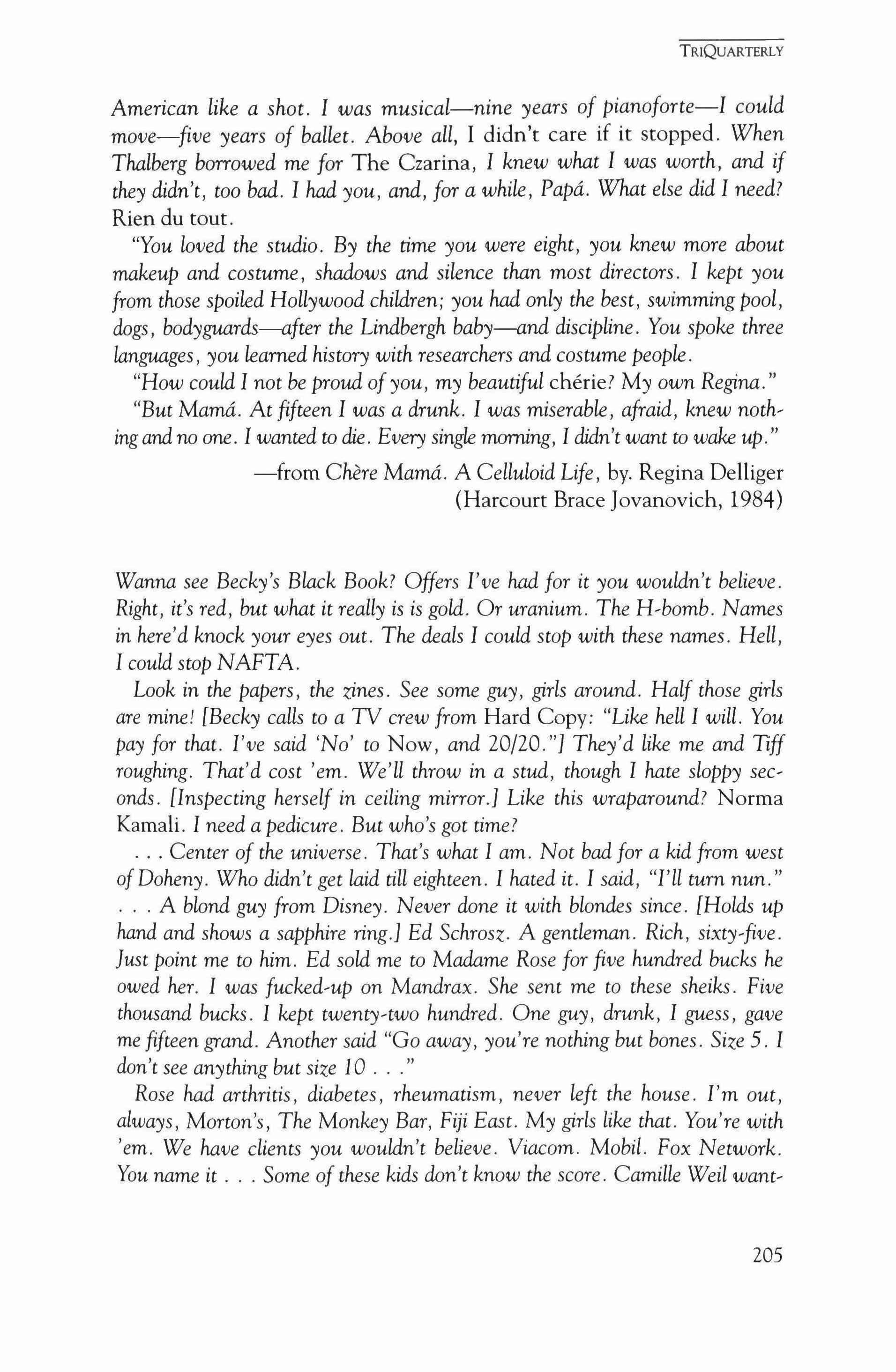
American like a shot. I was musical-nine years of pianoforte-I could move-five years of ballet. Above all, I didn't care if it stopped. When Thalberg borrowed me for The Czarina, I knew what I was worth, and if they didn't, too bad. I had you, and, for a while, Papa. What else did I need? Rien du tout.
"You loved the studio. By the time you were eight, you knew more about makeup and costume, shadows and silence than most directors. I kept you from those spoiled Hollywood children; you had only the best, swimming pool, dogs, bodyguards-after the Lindbergh baby-and discipline. You spoke three languages, you learned history with researchers and costume people.
"How could I not be proud of you, my beautiful cherie? My own Regina."
"But Mama. At fifteen I was a drunk. I was miserable, afraid, knew nothing and no one. I wanted to die. Every single morning, I didn't want to wake up."
-from Chere Mama. A Celluloid Life, by. Regina Delliger (Harcourt Brace Jovanovich, 1984)
Wanna see Becky's Black Book? Offers I've had for it you wouldn't believe. Right, it's red, but what it really is is gold. Or uranium. The H�bomb. Names in here'd knock your eyes out. The deals I could stop with these names. Hell, I could stop NAFTA.
Look in the papers, the zines. See some guy, girls around. Half those girls are mine! [Becky calls to a TV crew from Hard Copy: "Like hell I will. You pay for that. I've said 'No' to Now, and 20/20."] They'd like me and Tiff roughing. That'd cost 'em. We'll throw in a stud, though I hate sloppy seconds. [Inspecting herself in ceiling mirror.] Like this wraparound? Norma Kamali. 1 need a pedicure. But who's got time?
Center of the universe. That's what I am. Not bad for a kid from west ofDoheny. Who didn't get laid till eighteen. I hated it. I said, "I'll tum nun."
A blond guy from Disney. Never done it with blondes since. [Holds up hand and shows a sapphire ring.] Ed Sciwosz, A gentleman. Rich, sixty�five. lust point me to him. Ed sold me to Madame Rose for five hundred bucks he owed her. I was fucked�up on Mandrax. She sent me to these sheiks. Five thousand bucks. I kept twenty�two hundred. One guy, drunk, I guess, gave me fifteen grand. Another said "Go away, you're nothing but bones. Size 5. I don't see anything but size 10
Rose had arthritis, diabetes, rheumatism, never left the house. I'm out, always, Morton's, The Monkey Bar, Fiji East. My girls like that. You're with 'em. We have clients you wouldn't believe. Viacom. Mobil. Fox Network. You name it Some of these kids don't know the score. Camille Weil want�
TRIQUARTERLY
205
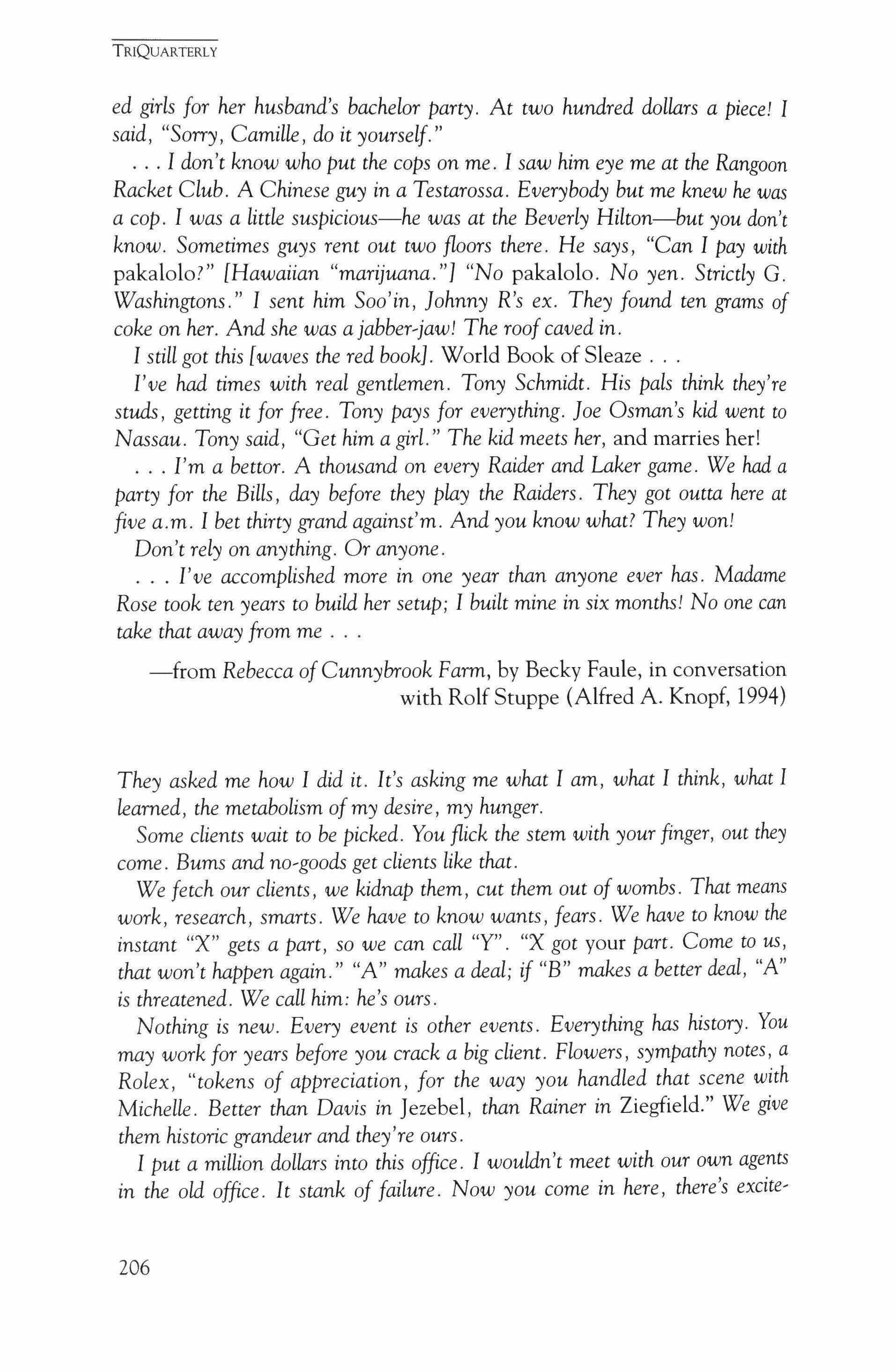
ed girls for her husband's bachelor party. At two hundred dollars a piece! I said, "Sorry, Camille, do it yourself.
I don't know who put the cops on me. I saw him eye me at the Rangoon Racket Club. A Chinese guy in a Testarossa. Everybody but me knew he was a cop. I was a little suspicious-he was at the Beverly Hilton-but you don't know. Sometimes guys rent out two floors there. He says, "Can I pay with pakalolo?" [Hawaiian "marijuana. "] "No pakalolo. No yen. Strictly G. Washingtons." I sent him Soo'in, Johnny R's ex. They found ten grams of coke on her. And she was a jabber�jaw! The roof caved in.
I still got this [waves the red book]. World Book of Sleaze
I've had times with real gentlemen. Tony Schmidt. His pals think they're studs, getting it for free. Tony pays for everything. Joe Osman's kid went to Nassau. Tony said, "Get him a girl." The kid meets her, and marries her!
I'm a bettor. A thousand on every Raider and Laker game. We had a party for the Bills, day before they play the Raiders. They got outta here at five a.m. I bet thirty grand against'm. And you know what? They won!
Don't rely on anything. Or anyone.
I've accomplished more in one year than anyone ever has. Madame Rose took ten years to build her setup; I built mine in six months! No one can take that away from me
-from Rebecca ofCunnybrook Farm, by Becky Faule, in conversation with Rolf Stuppe (Alfred A. Knopf, 1994)
They asked me how I did it. It's asking me what I am, what I think, what I learned, the metabolism of my desire, my hunger.
Some clients wait to be picked. You flick the stem with your finger, out they come. Bums and no-goods get clients like that.
We fetch our clients, we kidnap them, cut them out of wombs. That means work, research, smarts. We have to know wants, fears. We have to know the instant "X" gets a part, so we can call "Y". "X got your part. Come to us, that won't happen again." "A" makes a deal; if "B" makes a better deal, "A" is threatened. We call him: he's ours.
Nothing is new. Every event is other events. Everything has history. You may work for years before you crack a big client. Flowers, sympathy notes, a Rolex, "tokens of appreciation, for the way you handled that scene with Michelle. Better than Davis in Jezebel, than Rainer in Ziegfield." We give them historic grandeur and they're ours.
I put a million dollars into this office. I wouldn't meet with our own agents in the old office. It stank of failure. Now you come in here, there's excite-
TRIQUARTERLY
206
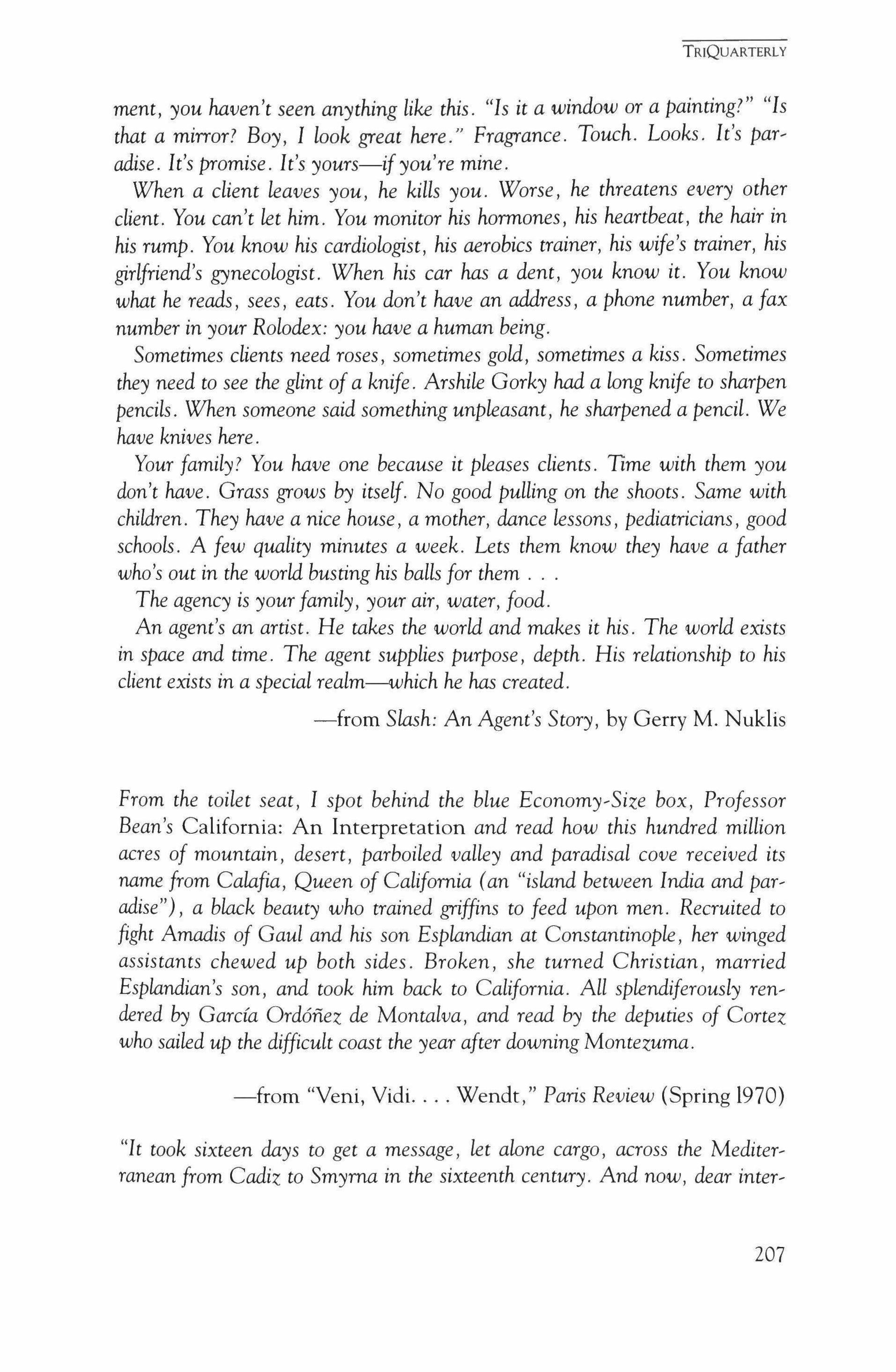
ment, you haven't seen anything like this. "Is it a window or a painting?" "Is that a mirror? Boy, I look great here." Fragrance. Touch. Looks. It's par� adise. It's promise. It's yours-ifyou're mine.
When a client leaves you, he kills you. Worse, he threatens every other client. You can't let him. You monitor his hormones, his heartbeat, the hair in his rump. You know his cardiologist, his aerobics trainer, his wife's trainer, his girlfriend's gynecologist. When his car has a dent, you know it. You know what he reads, sees, eats. You don't have an address, a phone number, a fax number in your Rolodex: you have a human being.
Sometimes clients need roses, sometimes gold, sometimes a kiss. Sometimes they need to see the glint of a knife. Arshile Gorky had a long knife to sharpen pencils. When someone said something unpleasant, he sharpened a pencil. We have knives here.
Your family? You have one because it pleases clients. Time with them you don't have. Grass grows by itself. No good pulling on the shoots. Same with children. They have a nice house, a mother, dance lessons, pediatricians, good schools. A few quality minutes a week. Lets them know they have a father who's out in the world busting his balls for them
The agency is your family, your air, water, food.
An agent's an artist. He takes the world and makes it his. The world exists in space and time. The agent supplies purpose, depth. His relationship to his client exists in a special realm--which he has created.
-from Slash: An Agent's Story, by Gerry M. Nuklis
From the toilet seat, I spot behind the blue Economy�Size box, Professor Bean's California: An Interpretation and read how this hundred million acres of mountain, desert, parboiled valley and paradisal cove received its name from Calafia, Queen of California (an "island between India and par� adise"), a black beauty who trained griffins to feed upon men. Recruited to fight Amadis of Gaul and his son Esplandian at Constantinople, her winged assistants chewed up both sides. Broken, she turned Christian, married Esplandian's son, and took him back to California. All splendiferously rendered by Garda Ord6nez de Montalva, and read by the deputies of Cortez who sailed up the difficult coast the year after downing Montezuma.
-from "Veni, Vidi Wendt," Paris Review (Spring 1970)
"It took sixteen days to get a message, let alone cargo, across the Mediter� ranean from Cadiz to Smyrna in the sixteenth century. And now, dear inter-
TRIQUARTERLY
207
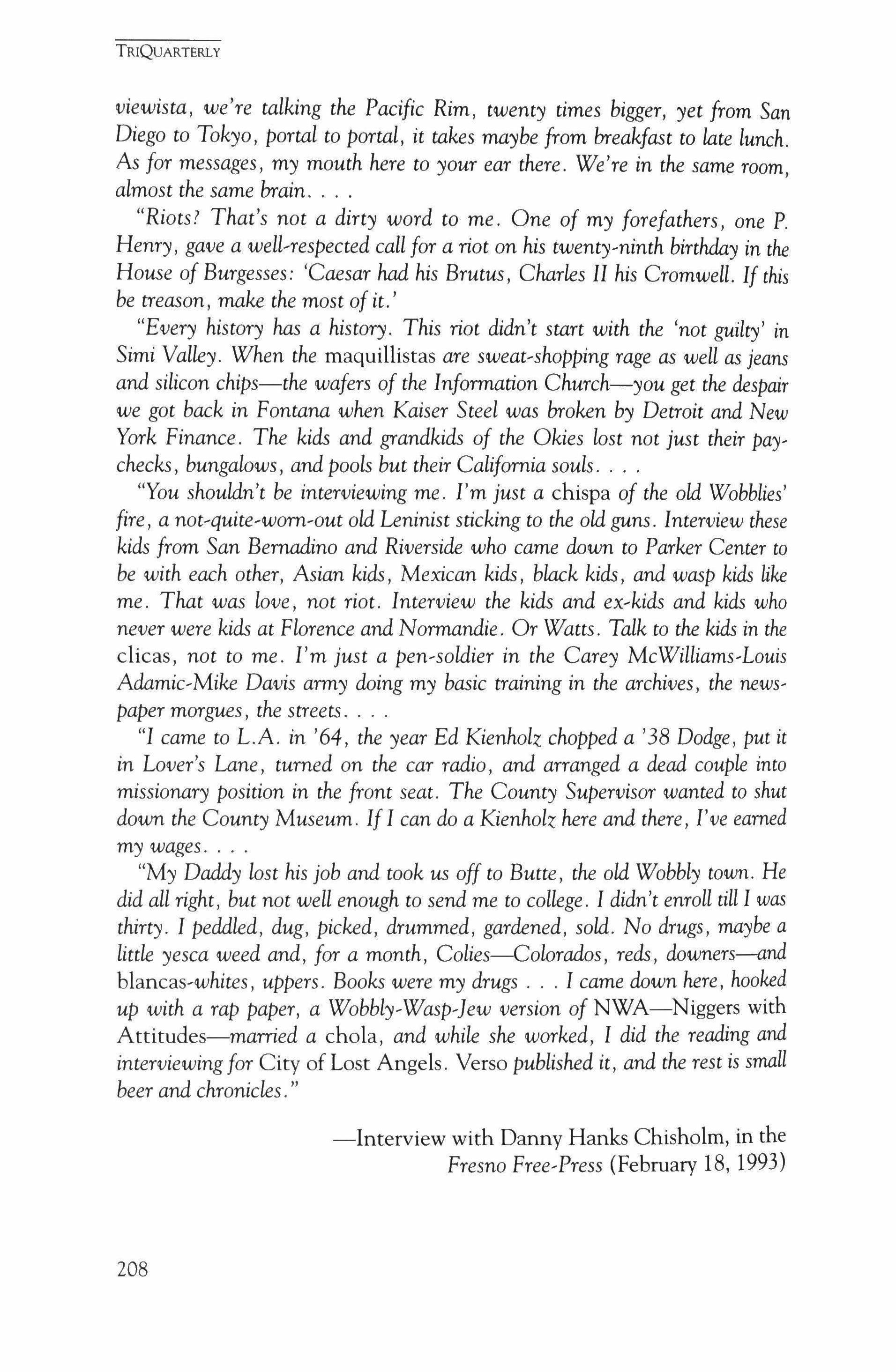
viewista, we're talking the Pacific Rim, twenty times bigger, yet from San Diego to Tokyo, portal to portal, it takes maybe from breakfast to late lunch. As for messages, my mouth here to your ear there. We're in the same room, almost the same brain
"Riots? That's not a dirty word to me. One of my forefathers, one P. Henry, gave a well�respected call for a riot on his twenty�ninth birthday in the House of Burgesses: 'Caesar had his Brutus, Charles II his Cromwell. If this be treason, make the most of it.'
"Every history has a history. This riot didn't start with the 'not guilty' in Simi Valley. When the maquillistas are sweaHhopping rage as well as jeans and silicon chips-the wafers of the Information Church-you get the despair we got back in Fontana when Kaiser Steel was broken by Detroit and New York Finance. The kids and grandkids of the Okies lost not just their paychecks, bungalows, and pools but their California souls.
"You shouldn't be interviewing me. I'm just a chispa of the old Wobblies' fire, a not�quite�worn�out old Leninist sticking to the old guns. Interview these kids from San Bernadino and Riverside who came down to Parker Center to be with each other, Asian kids, Mexican kids, black kids, and wasp kids like me. That was love, not riot. Interview the kids and ex�kids and kids who never were kids at Florence and Normandie. Or Watts. Talk to the kids in the clicas, not to me. I'm just a pen�soldier in the Carey McWilliams-Louis Adamic�Mike Davis army doing my basic training in the archives, the newspaper morgues, the streets
"I came to L.A. in '64, the year Ed Kienholz chopped a '38 Dodge, put it in Lover's Lane, turned on the car radio, and arranged a dead couple into missionary position in the front seat. The County Supervisor wanted to shut down the County Museum. If I can do a Kienholz here and there, I've earned my wages
"My Daddy lost his job and took us off to Butte, the old Wobbly town. He did all right, but not well enough to send me to college. I didn't enroll till I was thirty. I peddled, dug, picked, drummed, gardened, sold. No drugs, maybe a little yesca weed and, for a month, Colies-Colorados, reds, downers-and blancas-wiures, uppers. Books were my drugs I came down here, hooked up with a rap paper, a Wobbly-Wasp�]ew version of NWA-Niggers with Attitudes-married a chola, and while she worked, I did the reading and interviewingfor City of Lost Angels. Verso published it, and the rest is small beer and chronicles.
-Interview with Danny Hanks Chisholm, in the Fresno Free-Press (February 18, 1993)
TRIQUARTERLY
208
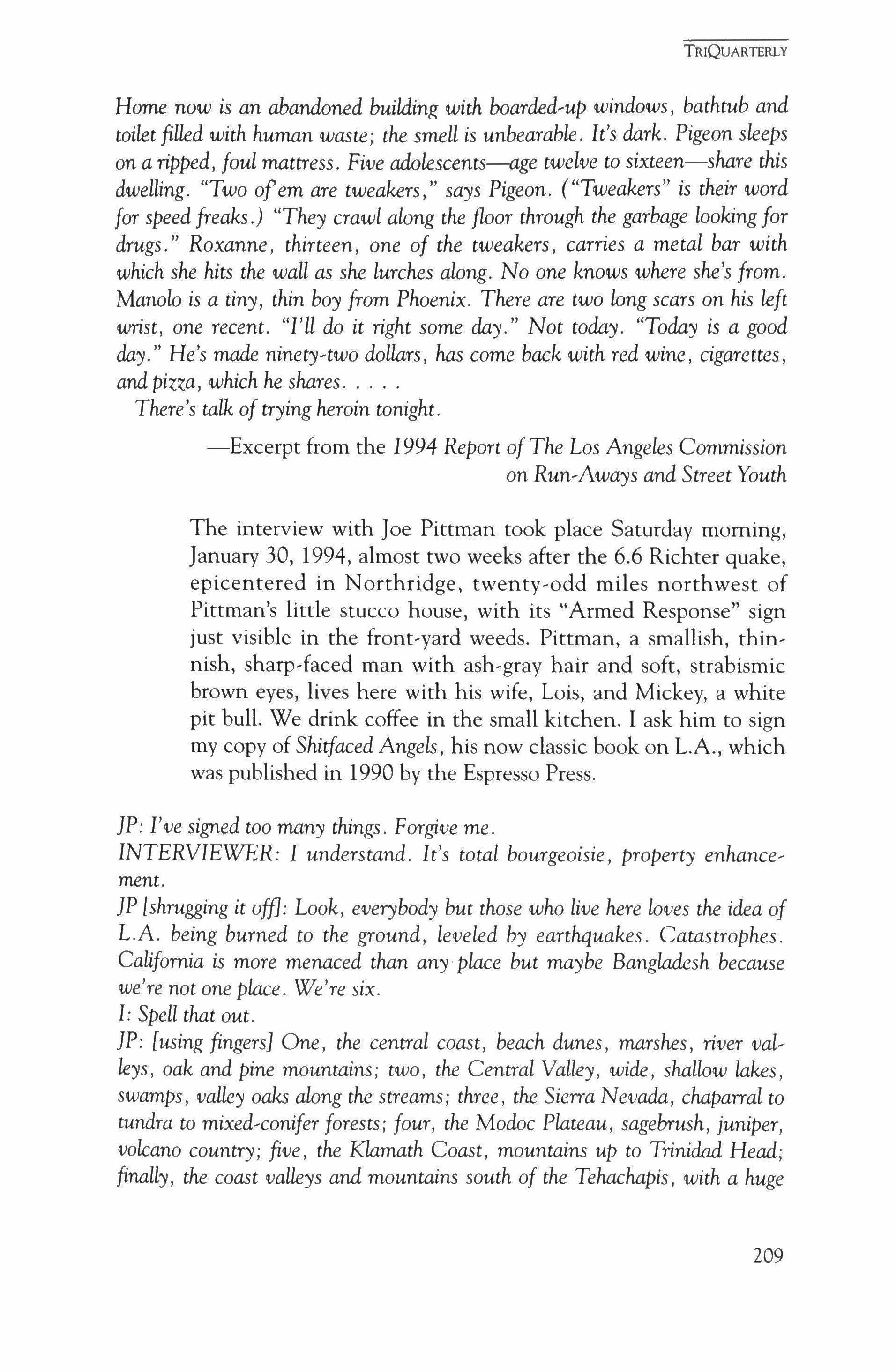
Home now is an abandoned building with boarded�up windows, bathtub and toilet filled with human waste; the smell is unbearable. It's dark. Pigeon sleeps on a ripped, foul mattress. Five adolescents-age twelve to sixteen-share this dwelling. ''Two ofem are tweakers," says Pigeon. ("Tweakers" is their word for speed freaks.) "They crawl along the floor through the garbage lookingfor drugs." Roxanne, thirteen, one of the tweakers, carries a metal bar with which she hits the wall as she lurches along. No one knows where she's from. Manolo is a tiny, thin boy from Phoenix. There are two long scars on his left wrist, one recent. "I'll do it right some day." Not today. "Today is a good day." He's made ninety�two dollars, has come back with red wine, cigarettes, and pizza, which he shares.
There's talk of trying heroin tonight.
-Excerpt from the 1994 Report of The Los Angeles Commission on Run�Aways and Street Youth
The interview with Joe Pittman took place Saturday morning, January 30, 1994, almost two weeks after the 6.6 Richter quake, epicentered in Northridge, twenty-odd miles northwest of Pittman's little stucco house, with its "Armed Response" sign just visible in the front-yard weeds. Pittman, a smallish, thinnish, sharp-faced man with ash-gray hair and soft, strabismic brown eyes, lives here with his wife, Lois, and Mickey, a white pit bull. We drink coffee in the small kitchen. I ask him to sign my copy of Shitfaced Angels, his now classic book on L.A., which was published in 1990 by the Espresso Press.
JP: I've signed too many things. Forgive me.
INTERVIEWER: I understand. It's total bourgeoisie, property enhzmcement.
JP [shrugging it off]: Look, everybody but those who live here loves the idea of L.A. being burned to the ground, leveled by earthquakes. Catastrophes. California is more menaced than any place but maybe Bangladesh because we're not one place. We're six.
I: Spell that out.
JP: [using fingers] One, the central coast, beach dunes, marshes, river val� leys, oak and pine mountains; two, the Central Valley, wide, shallow lakes, swamps, valley oaks along the streams; three, the Sierra Nevada, chaparral to tundra to mixed-coniier forests; four, the Modoc Plateau, sagebrush, juniper, volcano country; five, the Klamath Coast, mountains up to Trinidad Head; finally, the coast valleys and mountains south of the Tehachapis, with a huge
TRIQUARTERLY
209
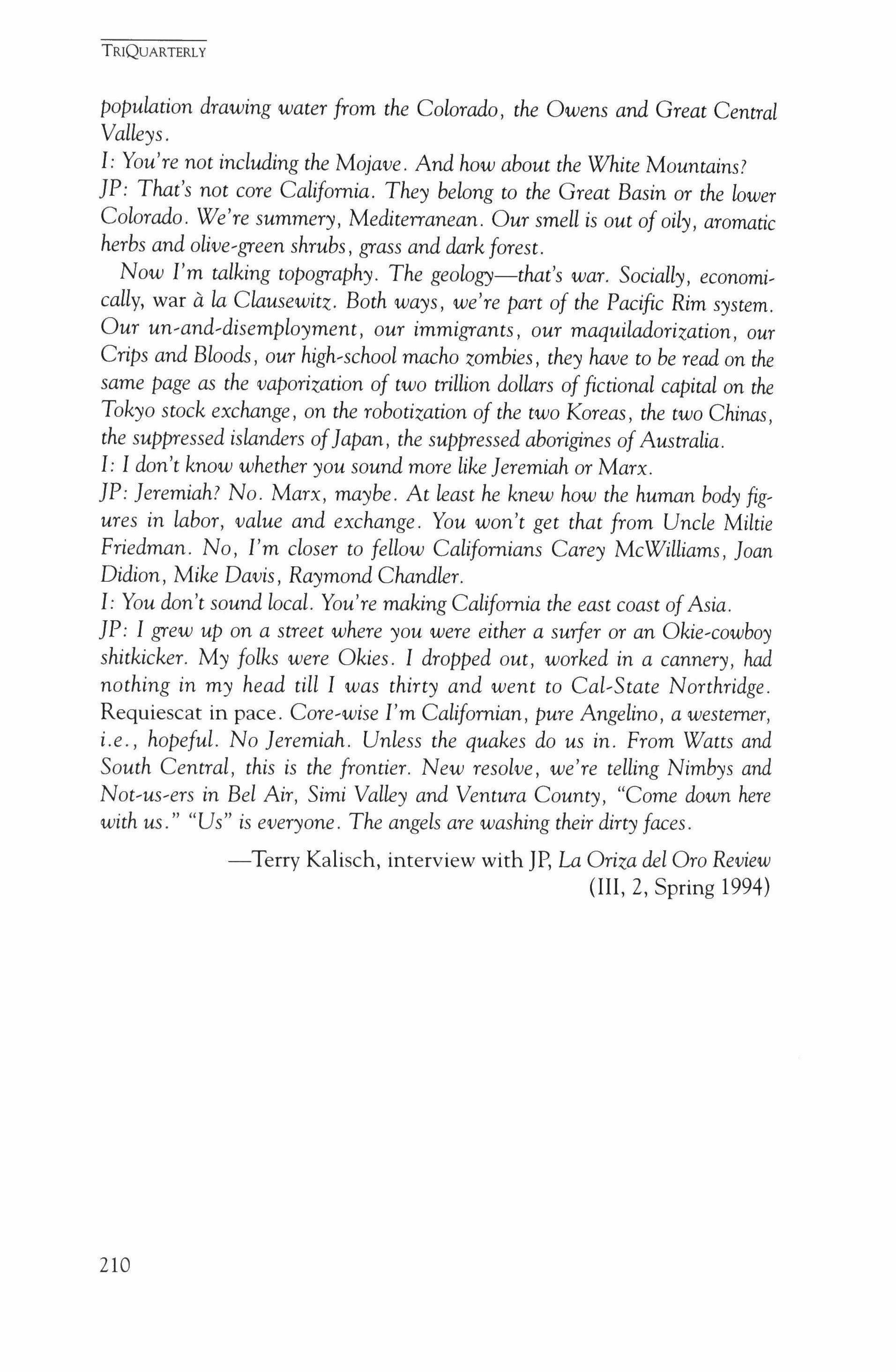
population drawing water from the Colorado, the Owens and Great Central Valleys.
I: You're not including the Mojave. And how about the White Mountains?
JP: That's not core California. They belong to the Great Basin or the lower Colorado. We're summery, Mediterranean. Our smell is out ofoily, aromatic herbs and olive�green shrubs, grass and dark forest.
Now I'm talking topography. The geology-that's war. Socially, econornically, war a la Clausewitz. Both ways, we're part of the Pacific Rim system. Our un�and�disemployment, our immigrants, our maquiladorization, our Crips and Bloods, our high�school macho zombies, they have to be read on the same page as the vaporization of two trillion dollars offictional capital on the Tokyo stock exchange, on the robotization of the two Koreas, the two Chinas, the suppressed islanders ofJapan, the suppressed aborigines of Australia.
I: I don't know whether you sound more like Jeremiah or Marx.
JP: Jeremiah? No. Marx, maybe. At least he knew how the human body fig� ures in labor, value and exchange. You won't get that from Uncle Miltie Friedman. No, I'm closer to fellow Californians Carey McWilliams, Joan Didion, Mike Davis, Raymond Chandler.
/: You don't sound local. You're making California the east coast of Asia.
JP: I grew up on a street where you were either a surfer or an Okie�cowboy shitkicker. My folks were Okies. I dropped out, worked in a cannery, had nothing in my head till I was thirty and went to Cal�State Northridge. Requiescat in pace. Core-wise I'm Californian, pure Angelino, a westerner, i. e., hopeful. No Jeremiah. Unless the quakes do us in. From Watts and South Central, this is the frontier. New resolve, we're telling Nimbys and Not-us-ers in Bel Air, Simi Valley and Ventura County, "Come down here with us." "Us" is everyone. The angels are washing their dirty faces.
-Terry Kalisch, interview with JP, La Oriza del Oro Review (III, 2, Spring 1994)
TRIQUARTERLY
210
Two Poems
Marc}. Straus
What I Am
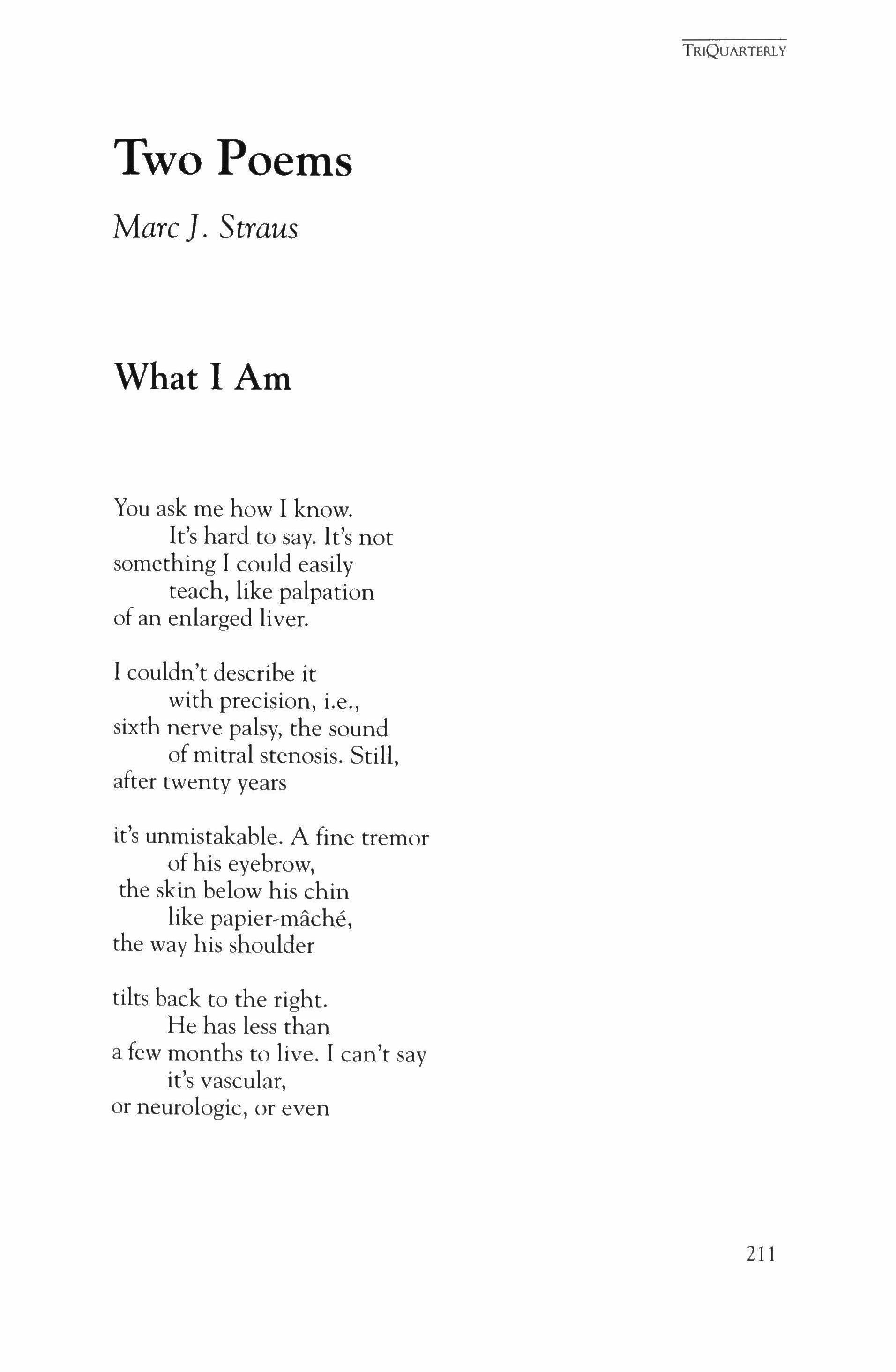
You ask me how I know. It's hard to say. It's not something I could easily teach, like palpation of an enlarged liver.
I couldn't describe it with precision, i.e., sixth nerve palsy, the sound of mitral stenosis. Still, after twenty years it's unmistakable. A fine tremor of his eyebrow, the skin below his chin like papier-mache, the way his shoulder tilts back to the right. He has less than a few months to live. I can't say it's vascular, or neurologic, or even
TRIQUARTERLY
211
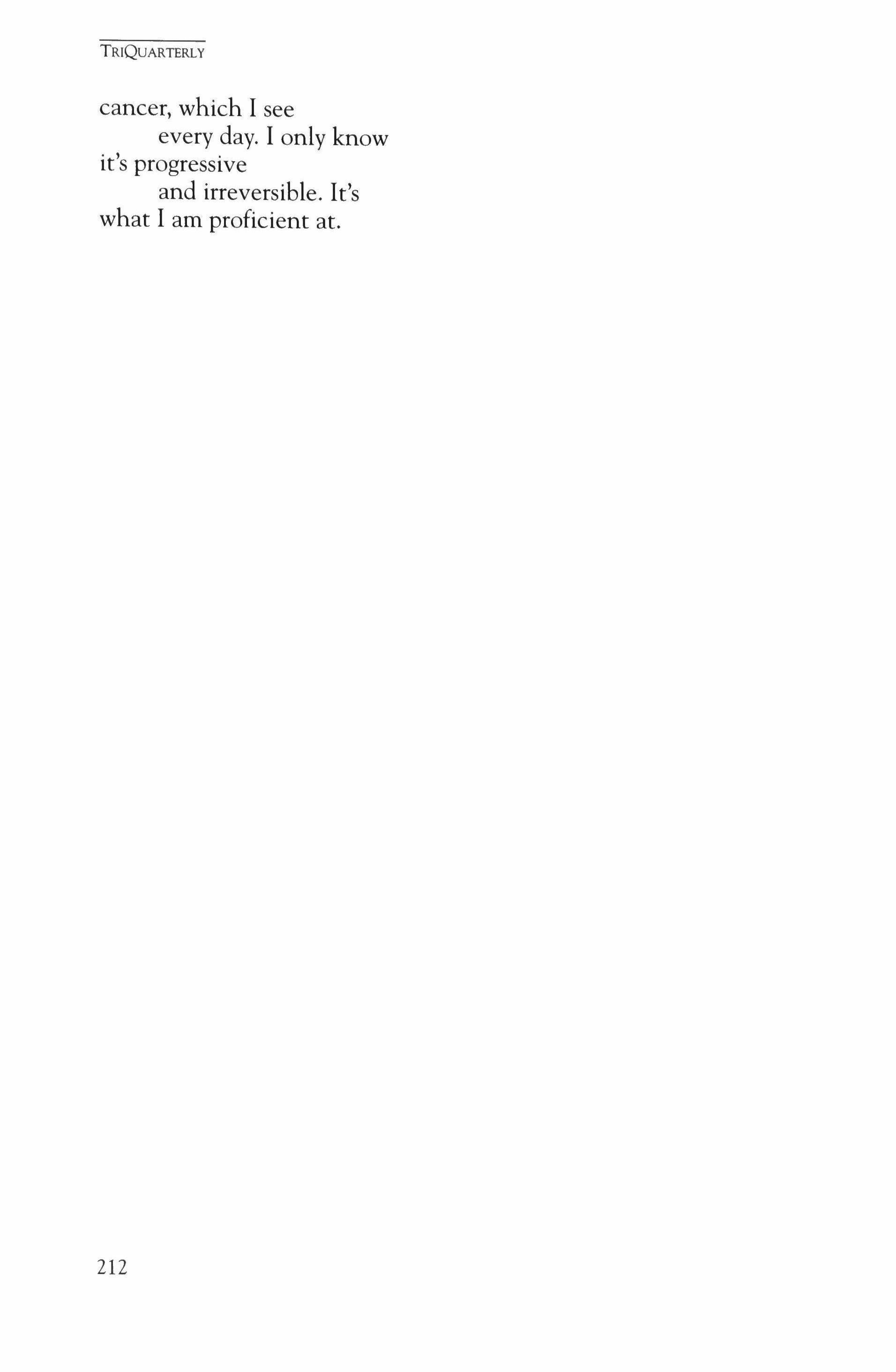
cancer, which I see every day. I only know it's progressive and irreversible. It's what I am proficient at.
TRIQUARTERLY
212
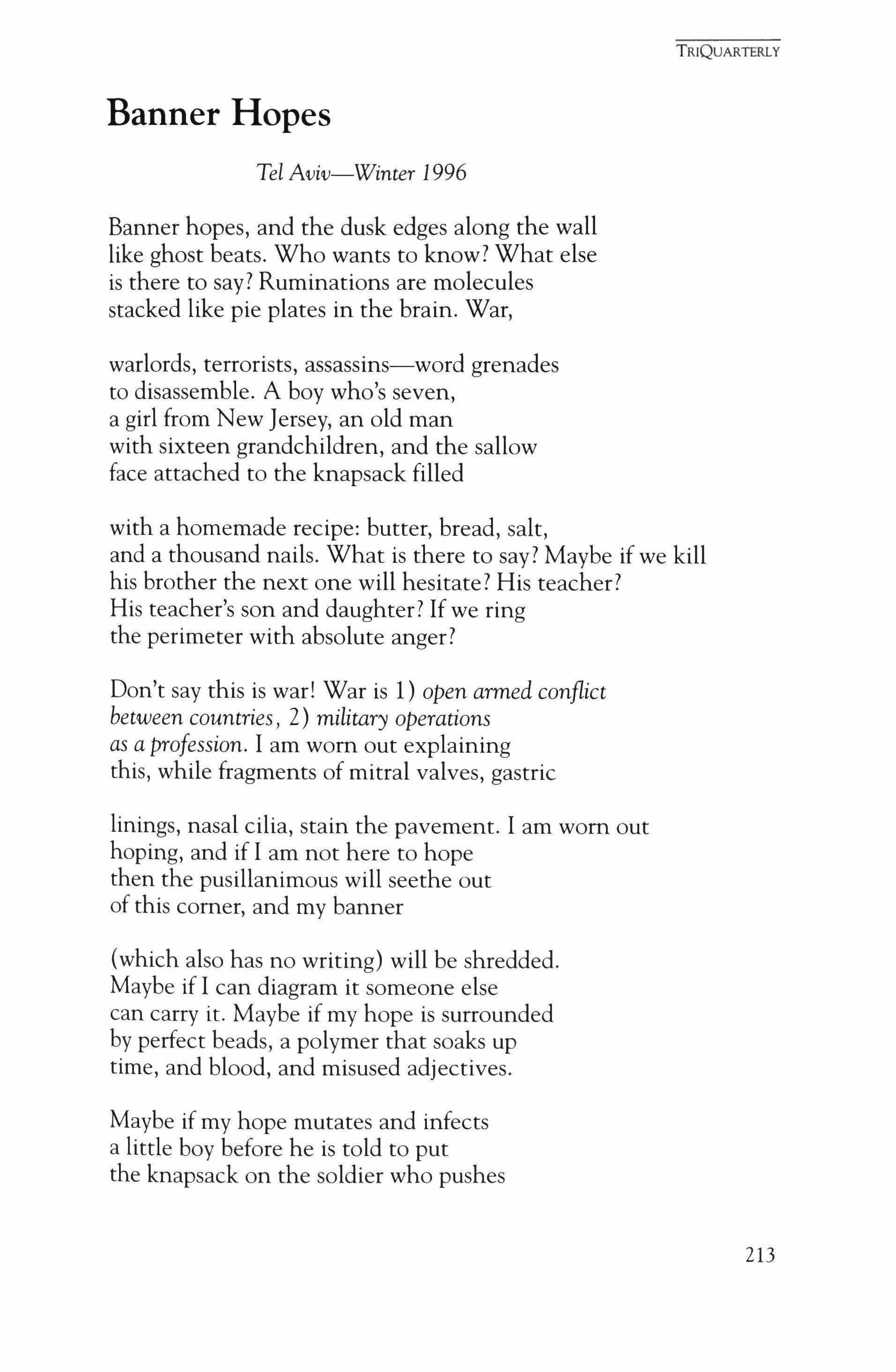
Banner Hopes
Tel Aviv-Winter 1996
Banner hopes, and the dusk edges along the wall like ghost beats. Who wants to know? What else is there to say? Ruminations are molecules stacked like pie plates in the brain. War, warlords, terrorists, assassins-word grenades to disassemble. A boy who's seven, a girl from New Jersey, an old man with sixteen grandchildren, and the sallow face attached to the knapsack filled with a homemade recipe: butter, bread, salt, and a thousand nails. What is there to say? Maybe if we kill his brother the next one will hesitate? His teacher? His teacher's son and daughter? If we ring the perimeter with absolute anger?
Don't say this is war! War is 1) open armed conflict between countries, 2) military operations as a profession. I am worn out explaining this, while fragments of mitral valves, gastric linings, nasal cilia, stain the pavement. I am worn out hoping, and if I am not here to hope then the pusillanimous will seethe out of this comer, and my banner (which also has no writing) will be shredded. Maybe if I can diagram it someone else can carry it. Maybe if my hope is surrounded by perfect beads, a polymer that soaks up time, and blood, and misused adjectives.
Maybe if my hope mutates and infects a little boy before he is told to put the knapsack on the soldier who pushes
TRIQUARTERLY
213
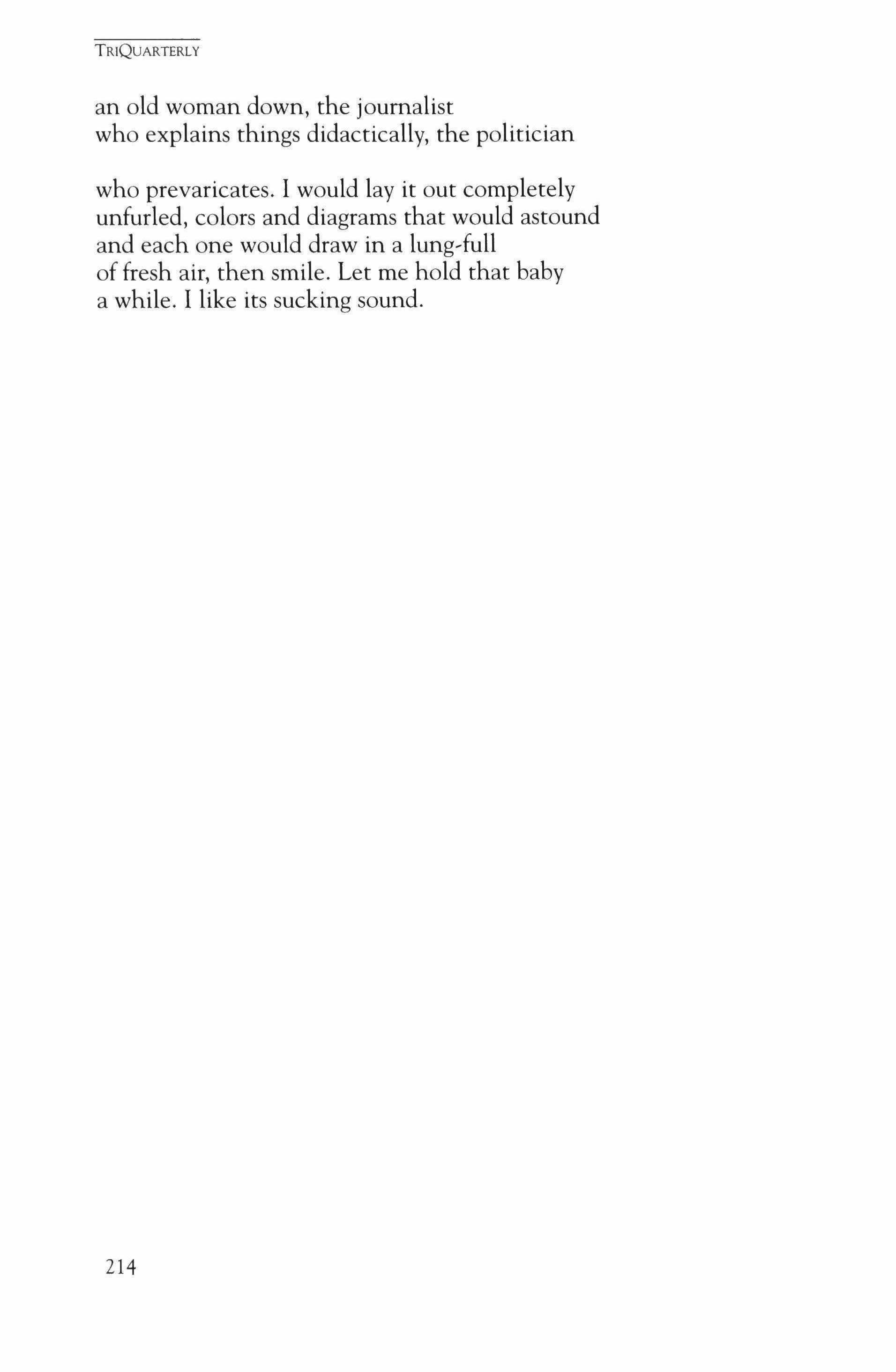
an old woman down, the journalist who explains things didactically, the politician
who prevaricates. I would lay it out completely unfurled, colors and diagrams that would astound and each one would draw in a lung-full of fresh air, then smile. Let me hold that baby a while. I like its sucking sound.
TRIQUARTERLY
214
Interview with a Child
Wisl'awa Szymborska
Translatedfrom the Polish by Joanna Trzeciak
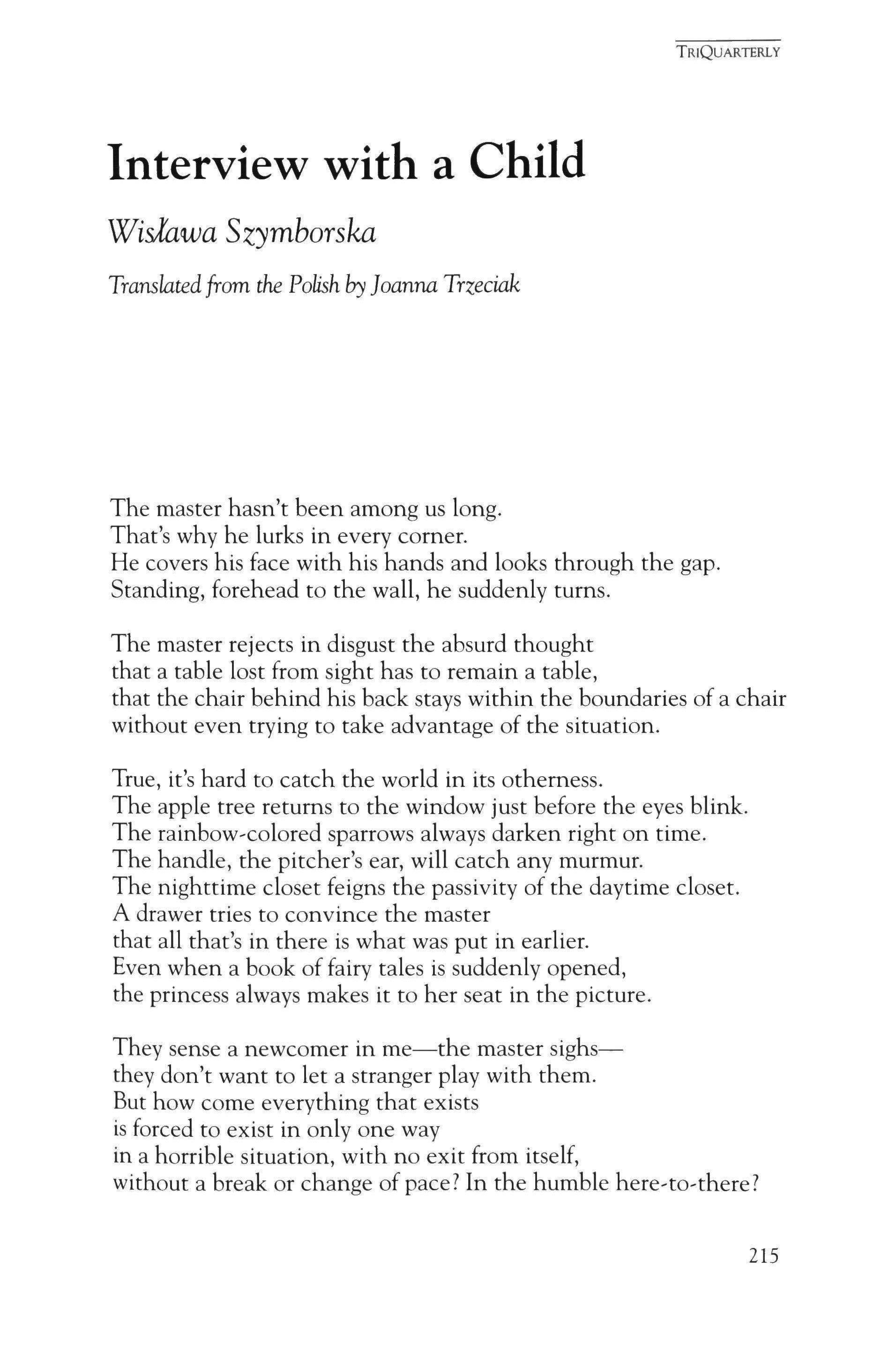
The master hasn't been among us long. That's why he lurks in every corner. He covers his face with his hands and looks through the gap. Standing, forehead to the wall, he suddenly turns.
The master rejects in disgust the absurd thought that a table lost from sight has to remain a table, that the chair behind his back stays within the boundaries of a chair without even trying to take advantage of the situation.
True, it's hard to catch the world in its otherness.
The apple tree returns to the window just before the eyes blink. The rainbow-colored sparrows always darken right on time.
The handle, the pitcher's ear, will catch any murmur. The nighttime closet feigns the passivity of the daytime closet. A drawer tries to convince the master that all that's in there is what was put in earlier. Even when a book of fairy tales is suddenly opened, the princess always makes it to her seat in the picture.
They sense a newcomer in me-the master sighsthey don't want to let a stranger play with them. But how come everything that exists is forced to exist in only one way in a horrible situation, with no exit from itself, without a break or change of pace? In the humble here-to-there?
TRIQUARTERLY
215
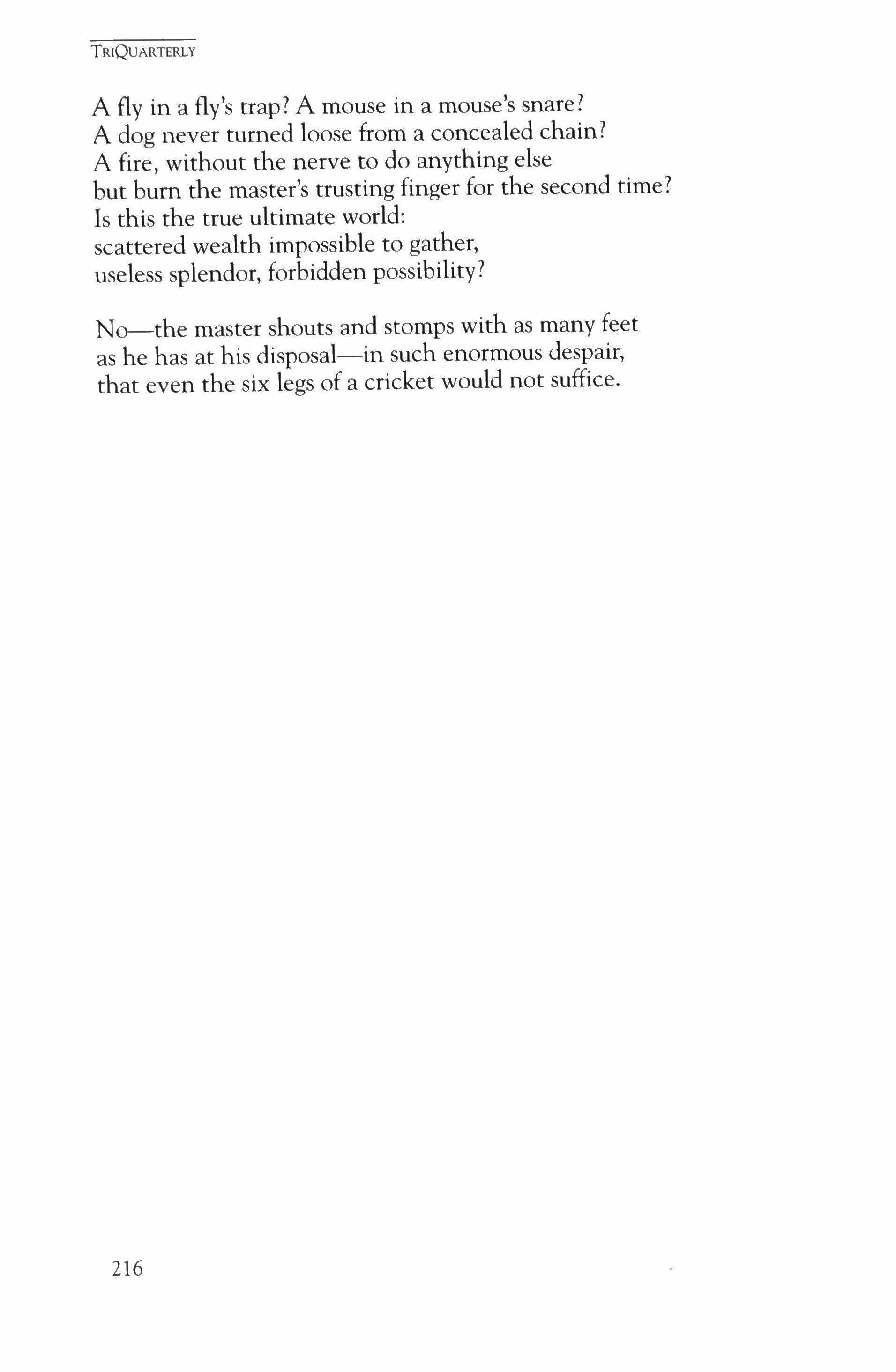
A fly in a fly's trap? A mouse in a mouse's snare? A dog never turned loose from a concealed chain? A fire, without the nerve to do anything else but burn the master's trusting finger for the second time? Is this the true ultimate world: scattered wealth impossible to gather, useless splendor, forbidden possibility?
No-the master shouts and stomps with as many feet as he has at his disposal-in such enormous despair, that even the six legs of a cricket would not suffice.
TRIQUARTERLY
216
Road Noise
Mark Turcotte
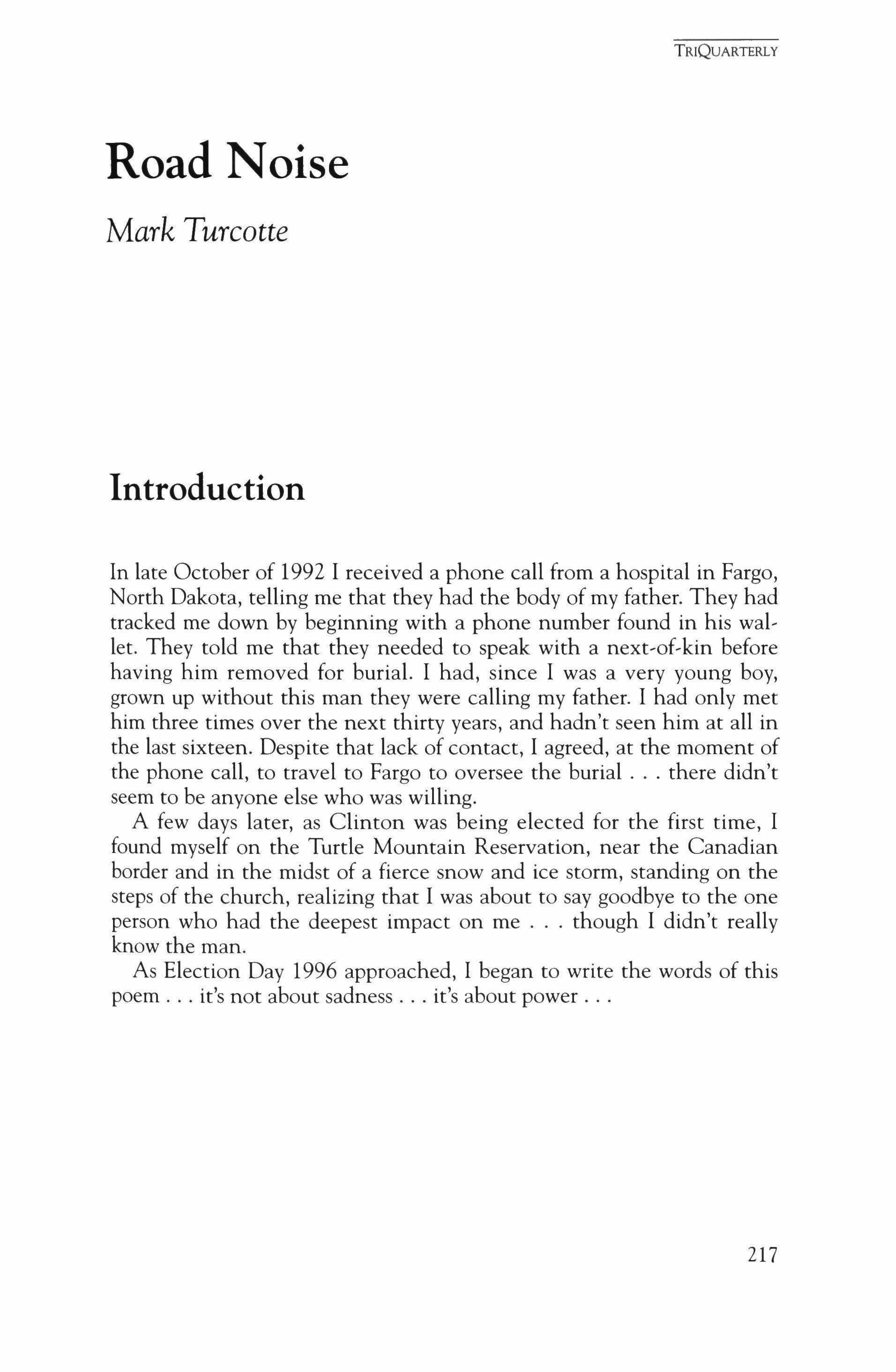
Introduction
In late October of 1992 I received a phone call from a hospital in Fargo, North Dakota, telling me that they had the body of my father. They had tracked me down by beginning with a phone number found in his wallet. They told me that they needed to speak with a next-of-kin before having him removed for burial. I had, since I was a very young boy, grown up without this man they were calling my father. I had only met him three times over the next thirty years, and hadn't seen him at all in the last sixteen. Despite that lack of contact, I agreed, at the moment of the phone call, to travel to Fargo to oversee the burial there didn't seem to be anyone else who was willing.
A few days later, as Clinton was being elected for the first time, I found myself on the Turtle Mountain Reservation, near the Canadian border and in the midst of a fierce snow and ice storm, standing on the steps of the church, realizing that I was about to say goodbye to the one person who had the deepest impact on me though I didn't really know the man.
As Election Day 1996 approached, I began to write the words of this poem it's not about sadness it's about power
TRIQUARTERLY
217
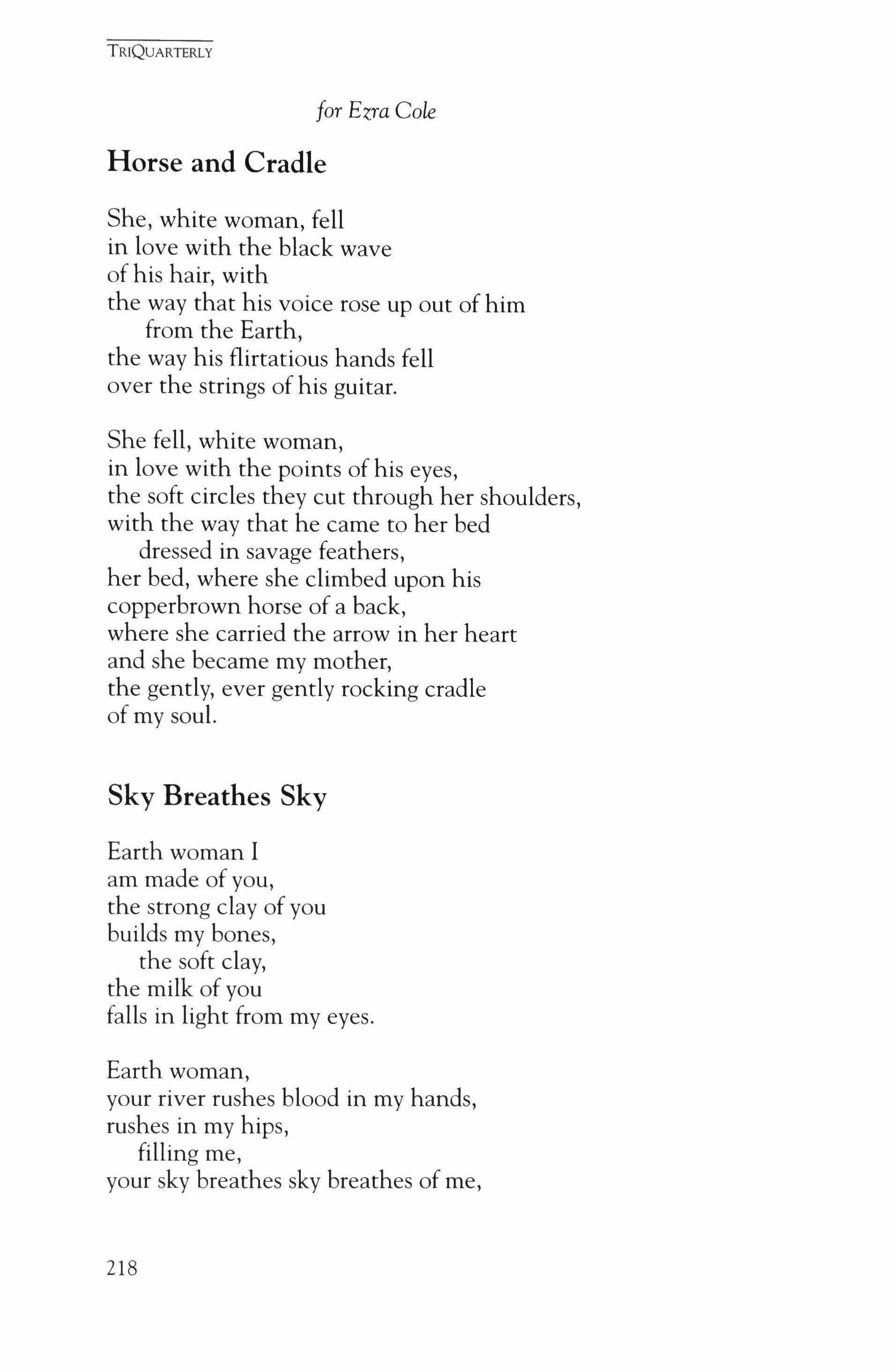 for Ezra Cole
for Ezra Cole
Horse and Cradle
She, white woman, fell in love with the black wave of his hair, with the way that his voice rose up out of him from the Earth, the way his flirtatious hands fell over the strings of his guitar.
She fell, white woman, in love with the points of his eyes, the soft circles they cut through her shoulders, with the way that he came to her bed dressed in savage feathers, her bed, where she climbed upon his copperbrown horse of a back, where she carried the arrow in her heart and she became my mother, the gently, ever gently rocking cradle of my soul.
Sky Breathes Sky
Earth woman I am made of you, the strong clay of you builds my bones, the soft clay, the milk of you falls in light from my eyes.
Earth woman, your river rushes blood in my hands, rushes in my hips, filling me, your sky breathes sky breathes of me,
TRIQUARTERLY
218
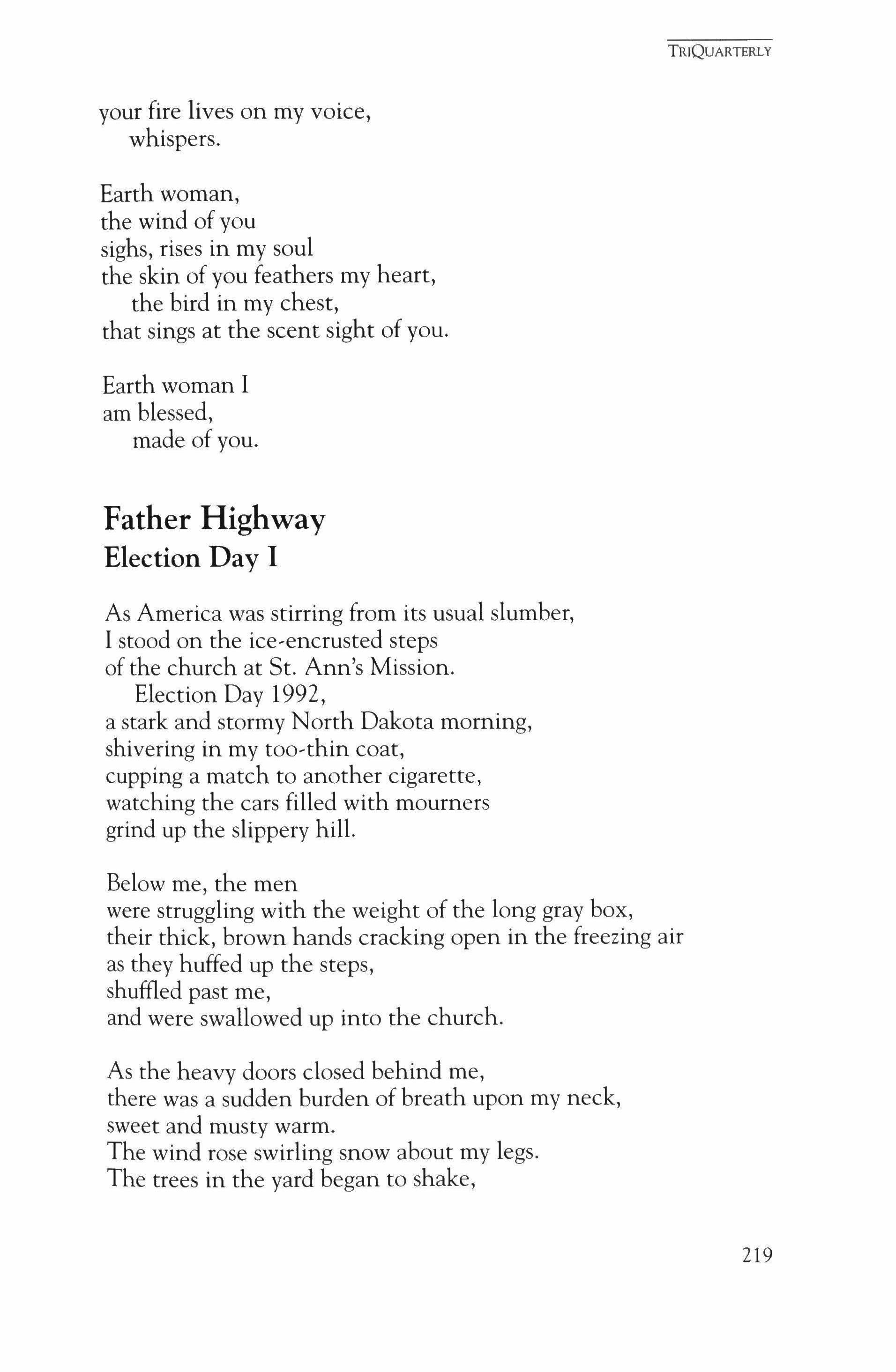
your fire lives on my voice, whispers.
Earth woman, the wind of you sighs, rises in my soul the skin of you feathers my heart, the bird in my chest, that sings at the scent sight of you.
Earth woman I am blessed, made of you.
Father Highway
Election Day I
As America was stirring from its usual slumber, I stood on the ice-encrusted steps of the church at St. Ann's Mission. Election Day 1992, a stark and stormy North Dakota morning, shivering in my too-thin coat, cupping a match to another cigarette, watching the cars filled with mourners grind up the slippery hill.
Below me, the men were struggling with the weight of the long gray box, their thick, brown hands cracking open in the freezing air as they huffed up the steps, shuffled past me, and were swallowed up into the church.
As the heavy doors closed behind me, there was a sudden burden of breath upon my neck, sweet and musty warm. The wind rose swirling snow about my legs. The trees in the yard began to shake,
TRIQUARTERLY
219
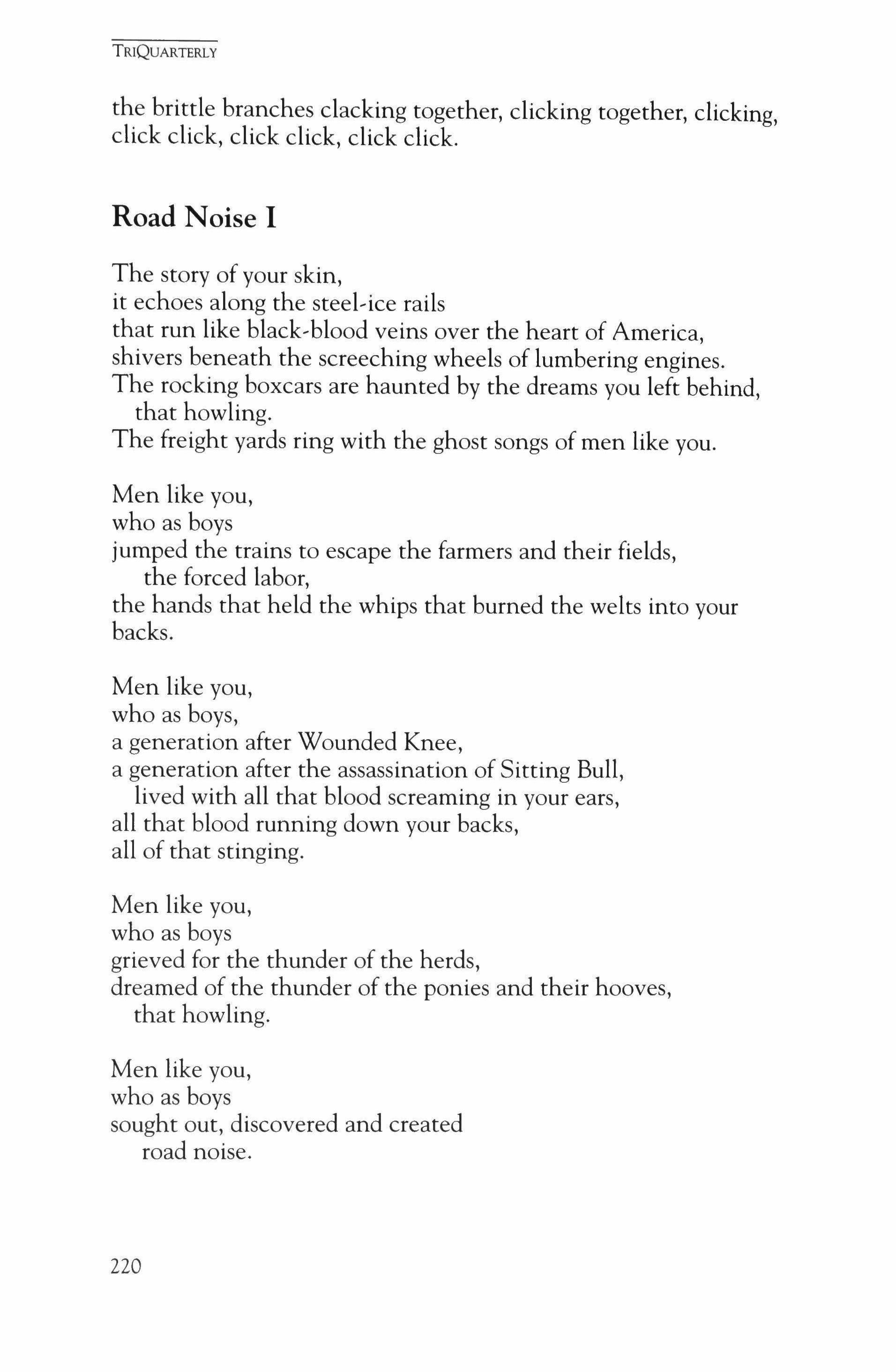
the brittle branches clacking together, clicking together, clicking, click click, click click, click click.
Road Noise I
The story of your skin, it echoes along the steel,ice rails that run like black-blood veins over the heart of America, shivers beneath the screeching wheels of lumbering engines. The rocking boxcars are haunted by the dreams you left behind, that howling. The freight yards ring with the ghost songs of men like you.
Men like you, who as boys jumped the trains to escape the farmers and their fields, the forced labor, the hands that held the whips that burned the welts into your backs.
Men like you, who as boys, a generation after Wounded Knee, a generation after the assassination of Sitting Bull, lived with all that blood screaming in your ears, all that blood running down your backs, all of that stinging.
Men like you, who as boys grieved for the thunder of the herds, dreamed of the thunder of the ponies and their hooves, that howling.
Men like you, who as boys sought out, discovered and created road noise.
TRIQUARTERLY
220
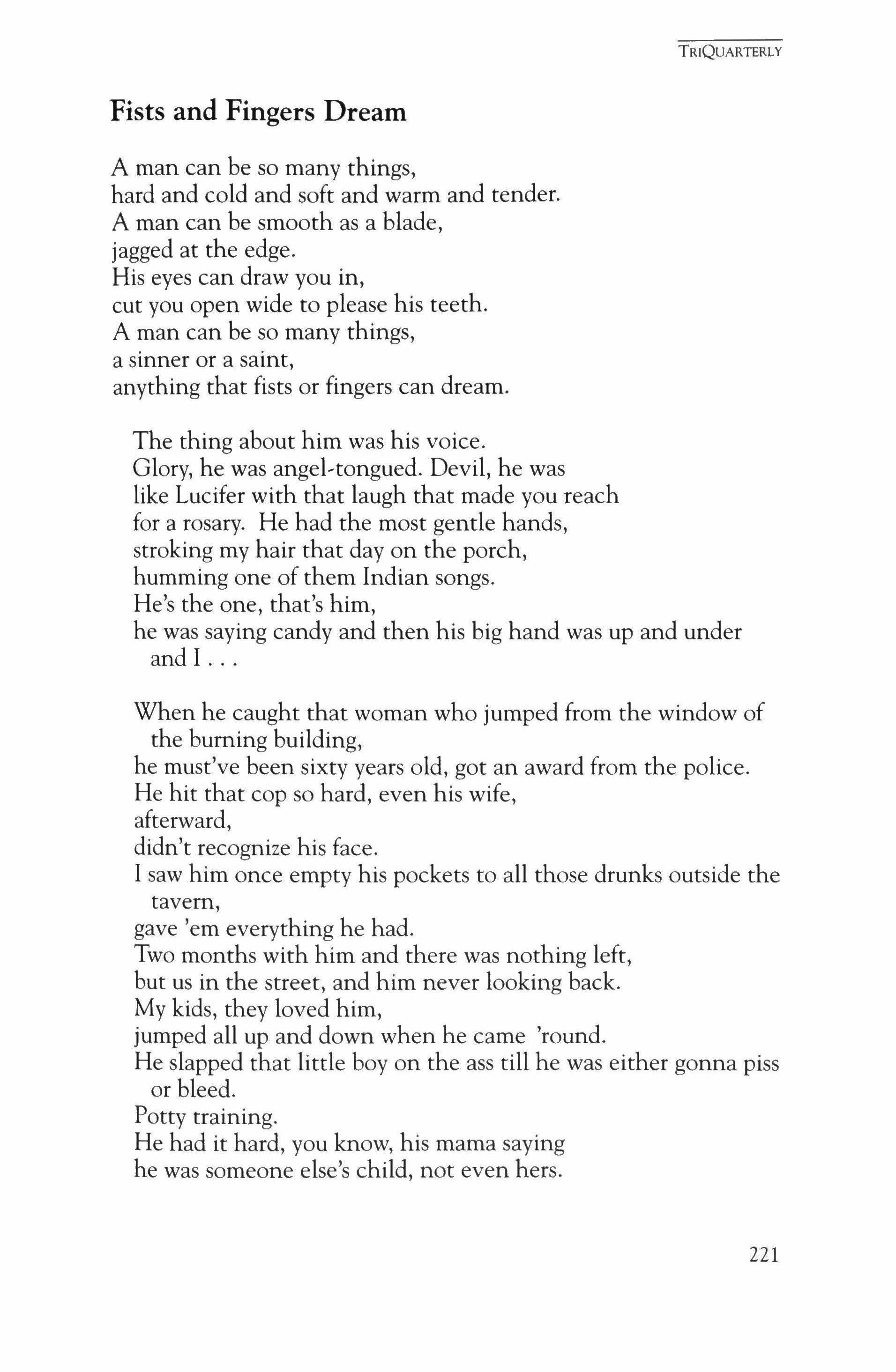
Fists and Fingers Dream
A man can be so many things, hard and cold and soft and warm and tender. A man can be smooth as a blade, jagged at the edge. His eyes can draw you in, cut you open wide to please his teeth. A man can be so many things, a sinner or a saint, anything that fists or fingers can dream.
The thing about him was his voice. Glory, he was angel-tongued. Devil, he was like Lucifer with that laugh that made you reach for a rosary. He had the most gentle hands, stroking my hair that day on the porch, humming one of them Indian songs. He's the one, that's him, he was saying candy and then his big hand was up and under and I
When he caught that woman who jumped from the window of the burning building, he must've been sixty years old, got an award from the police. He hit that cop so hard, even his wife, afterward, didn't recognize his face. I saw him once empty his pockets to all those drunks outside the tavern, gave'em everything he had. Two months with him and there was nothing left, but us in the street, and him never looking back. My kids, they loved him, jumped all up and down when he came 'round. He slapped that little boy on the ass till he was either gonna piss or bleed.
Potty training. He had it hard, you know, his mama saying he was someone else's child, not even hers.
TRIQUARTERLY
221
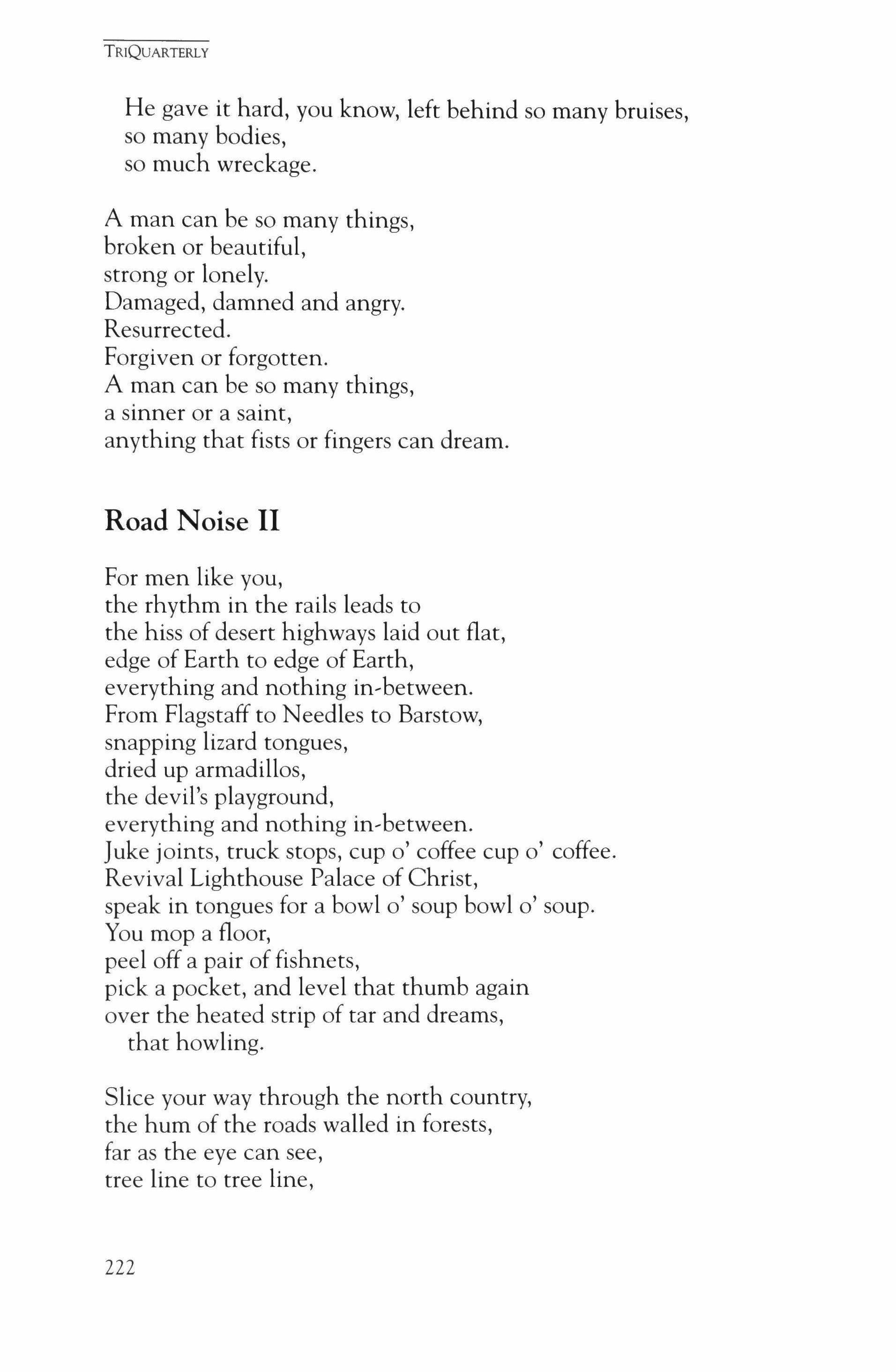
He gave it hard, you know, left behind so many bruises, so many bodies, so much wreckage.
A man can be so many things, broken or beautiful, strong or lonely. Damaged, damned and angry. Resurrected. Forgiven or forgotten. A man can be so many things, a sinner or a saint, anything that fists or fingers can dream.
Road Noise II
For men like you, the rhythm in the rails leads to the hiss of desert highways laid out flat, edge of Earth to edge of Earth, everything and nothing in-between. From Flagstaff to Needles to Barstow, snapping lizard tongues, dried up armadillos, the devil's playground, everything and nothing in-between.
Juke joints, truck stops, cup 0' coffee cup 0' coffee. Revival Lighthouse Palace of Christ, speak in tongues for a bowl 0' soup bowl 0' soup. You mop a floor, peel off a pair of fishnets, pick a pocket, and level that thumb again over the heated strip of tar and dreams, that howling.
Slice your way through the north country, the hum of the roads walled in forests, far as the eye can see, tree line to tree line,
TRIQUARTERLY
222
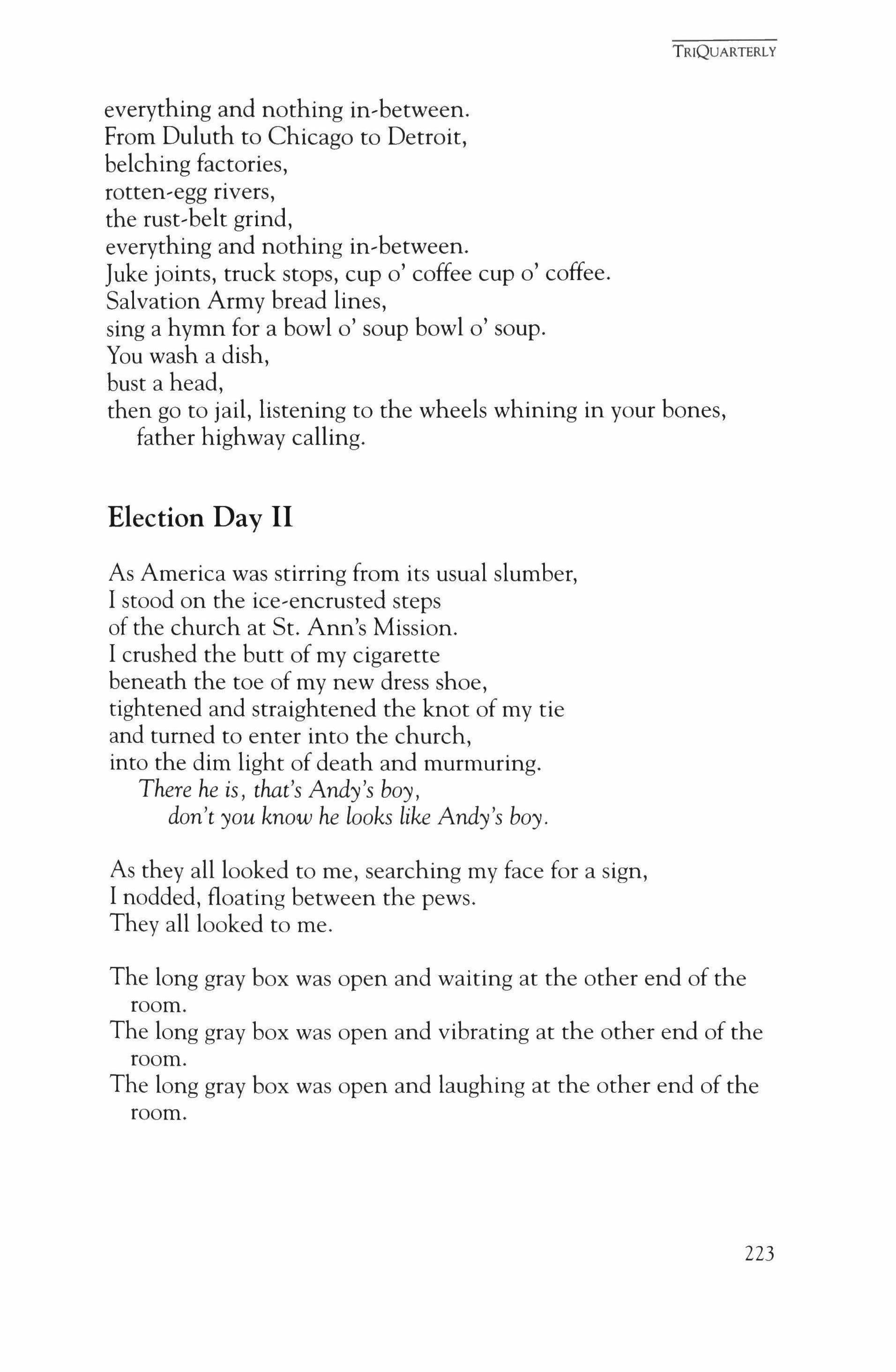
everything and nothing in,between. From Duluth to Chicago to Detroit, belching factories, rotten,egg rivers, the rust,belt grind, everything and nothing in-between.
Juke joints, truck stops, cup 0' coffee cup 0' coffee. Salvation Army bread lines, sing a hymn for a bowl 0' soup bowl 0' soup. You wash a dish, bust a head, then go to jail, listening to the wheels whining in your bones, father highway calling.
Election Day II
As America was stirring from its usual slumber, I stood on the ice'encrusted steps of the church at St. Ann's Mission. I crushed the butt of my cigarette beneath the toe of my new dress shoe, tightened and straightened the knot of my tie and turned to enter into the church, into the dim light of death and murmuring. There he is, that's Andy's boy, don't you know he looks like Andy's boy.
As they all looked to me, searching my face for a sign, I nodded, floating between the pews. They all looked to me.
The long gray box was open and waiting at the other end of the room.
The long gray box was open and vibrating at the other end of the room.
The long gray box was open and laughing at the other end of the room.
TRIQUARTERLY
223
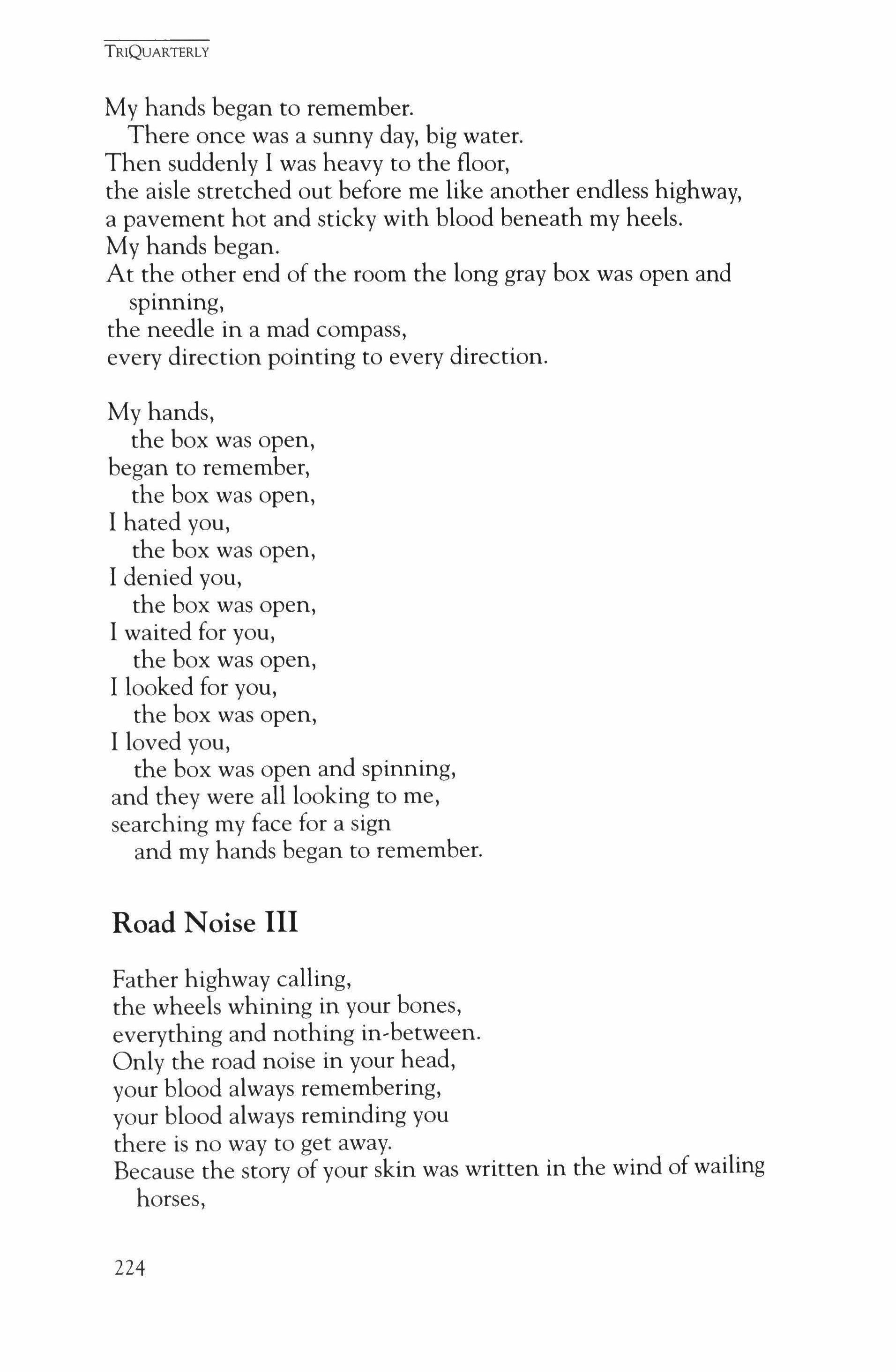
My hands began to remember. There once was a sunny day, big water. Then suddenly I was heavy to the floor, the aisle stretched out before me like another endless highway, a pavement hot and sticky with blood beneath my heels. My hands began. At the other end of the room the long gray box was open and spinning, the needle in a mad compass, every direction pointing to every direction.
My hands, the box was open, began to remember, the box was open, I hated you, the box was open, I denied you, the box was open, I waited for you, the box was open, I looked for you, the box was open, I loved you, the box was open and spinning, and they were all looking to me, searching my face for a sign and my hands began to remember.
Road Noise III
Father highway calling, the wheels whining in your bones, everything and nothing in-between. Only the road noise in your head, your blood always remembering, your blood always reminding you there is no way to get away. Because the story of your skin was written in the wind of wailing horses,
224
TRIQUARTERLY
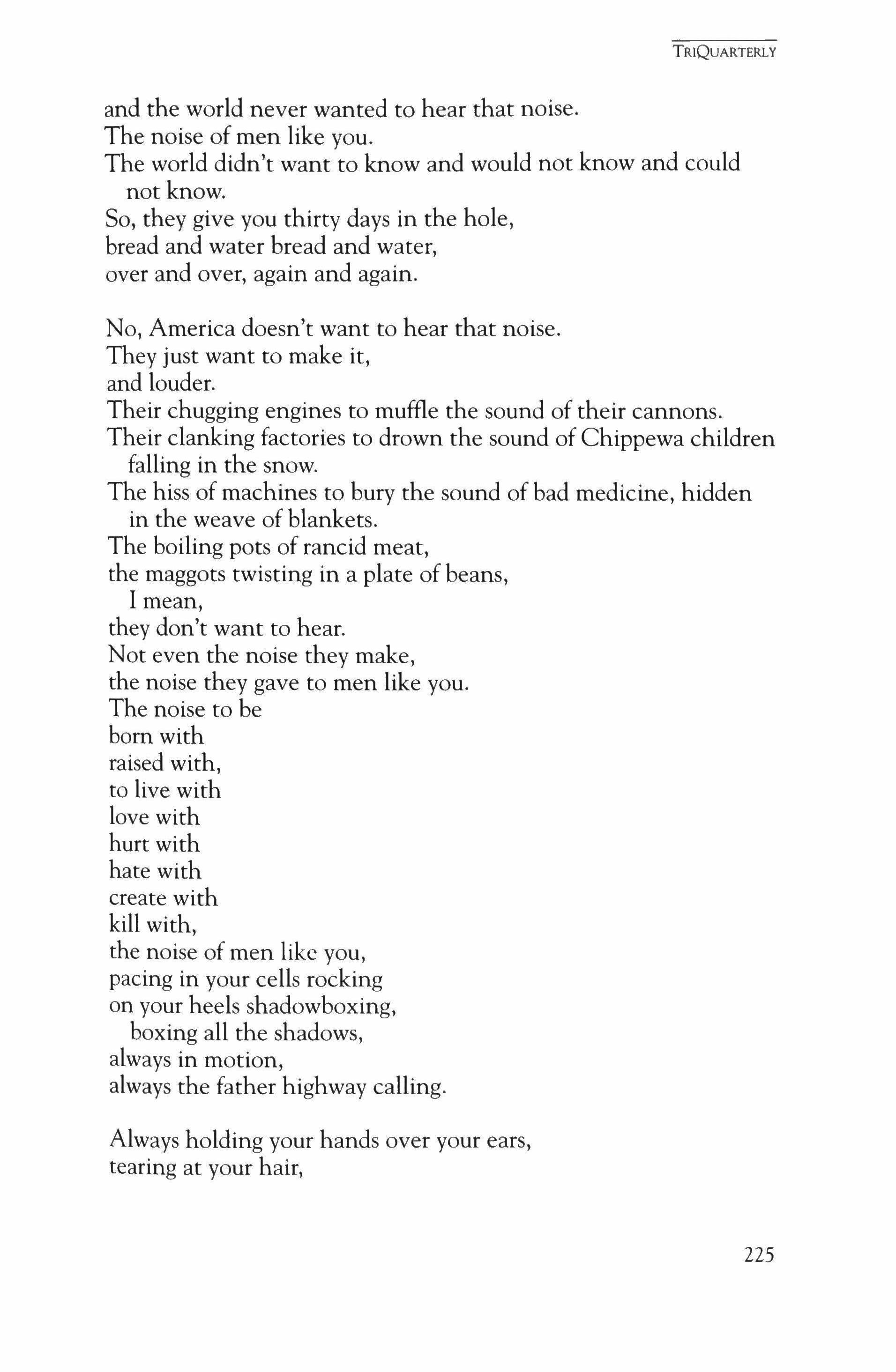
and the world never wanted to hear that noise. The noise of men like you.
The world didn't want to know and would not know and could not know.
So, they give you thirty days in the hole, bread and water bread and water, over and over, again and again.
No, America doesn't want to hear that noise. They just want to make it, and louder.
Their chugging engines to muffle the sound of their cannons. Their clanking factories to drown the sound of Chippewa children falling in the snow.
The hiss of machines to bury the sound of bad medicine, hidden in the weave of blankets.
The boiling pots of rancid meat, the maggots twisting in a plate of beans, I mean, they don't want to hear. Not even the noise they make, the noise they gave to men like you. The noise to be born with raised with, to live with love with hurt with hate with create with kill with, the noise of men like you, pacing in your cells rocking on your heels shadowboxing, boxing all the shadows, always in motion, always the father highway calling.
Always holding your hands over your ears, tearing at your hair,
TRIQUARTERLY
225
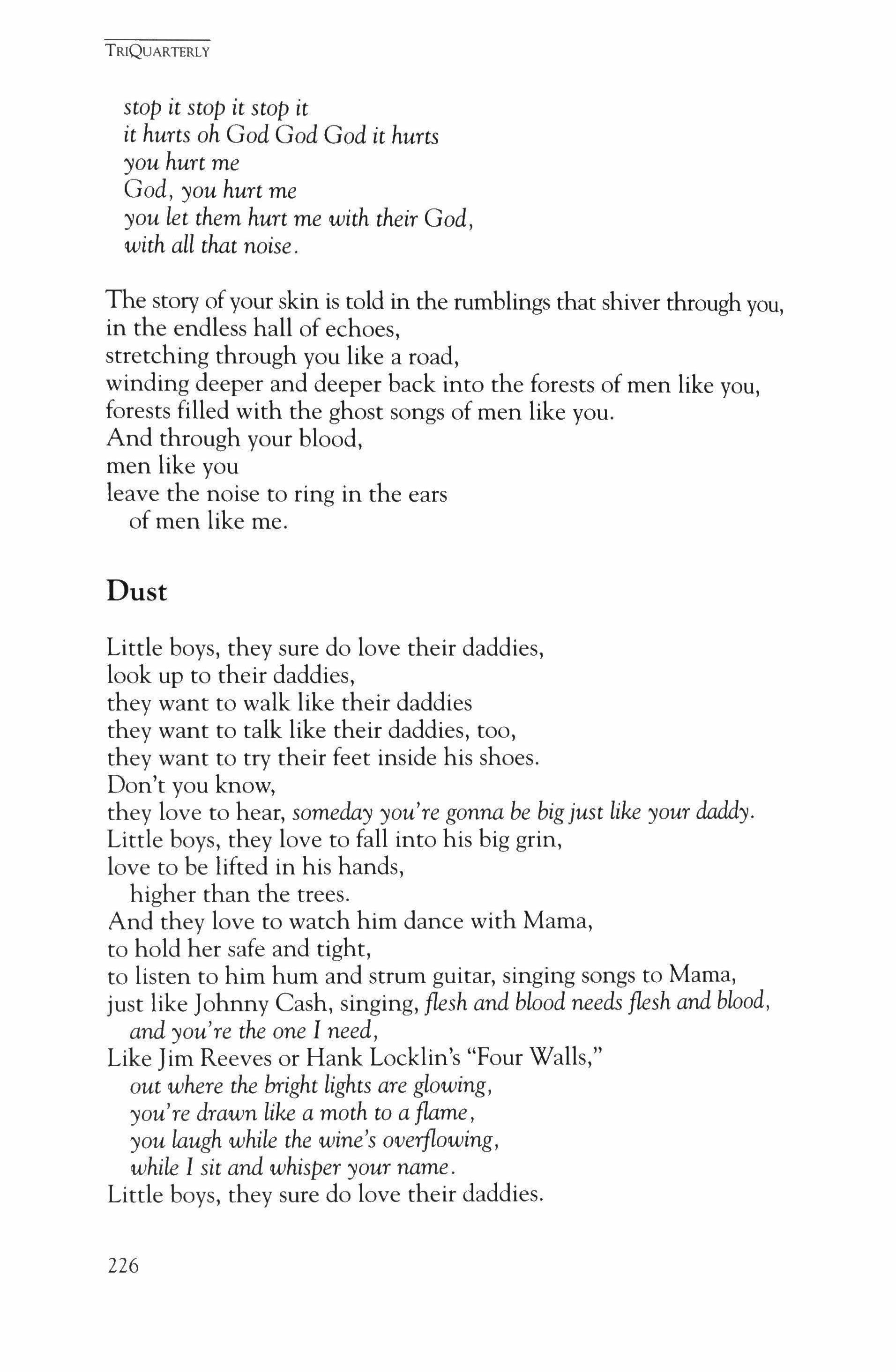
stop it stop it stop it it hurts oh God God God it hurts you hurt me God, you hurt me you let them hurt me with their God, with all that noise.
The story of your skin is told in the rumblings that shiver through you, in the endless hall of echoes, stretching through you like a road, winding deeper and deeper back into the forests of men like you, forests filled with the ghost songs of men like you. And through your blood, men like you leave the noise to ring in the ears of men like me.
Dust
Little boys, they sure do love their daddies, look up to their daddies, they want to walk like their daddies they want to talk like their daddies, too, they want to try their feet inside his shoes. Don't you know, they love to hear, someday you're gonna be bigjust like your daddy. Little boys, they love to fall into his big grin, love to be lifted in his hands, higher than the trees. And they love to watch him dance with Mama, to hold her safe and tight, to listen to him hum and strum guitar, singing songs to Mama, just like Johnny Cash, singing, flesh and blood needs flesh and blood, and you're the one I need, Like Jim Reeves or Hank Locklin's "Four Walls," out where the bright lights are glowing, you're drawn like a moth to a flame, you laugh while the wine's overflowing, while I sit and whisper your name. Little boys, they sure do love their daddies.
TRIQUARTERLY
226
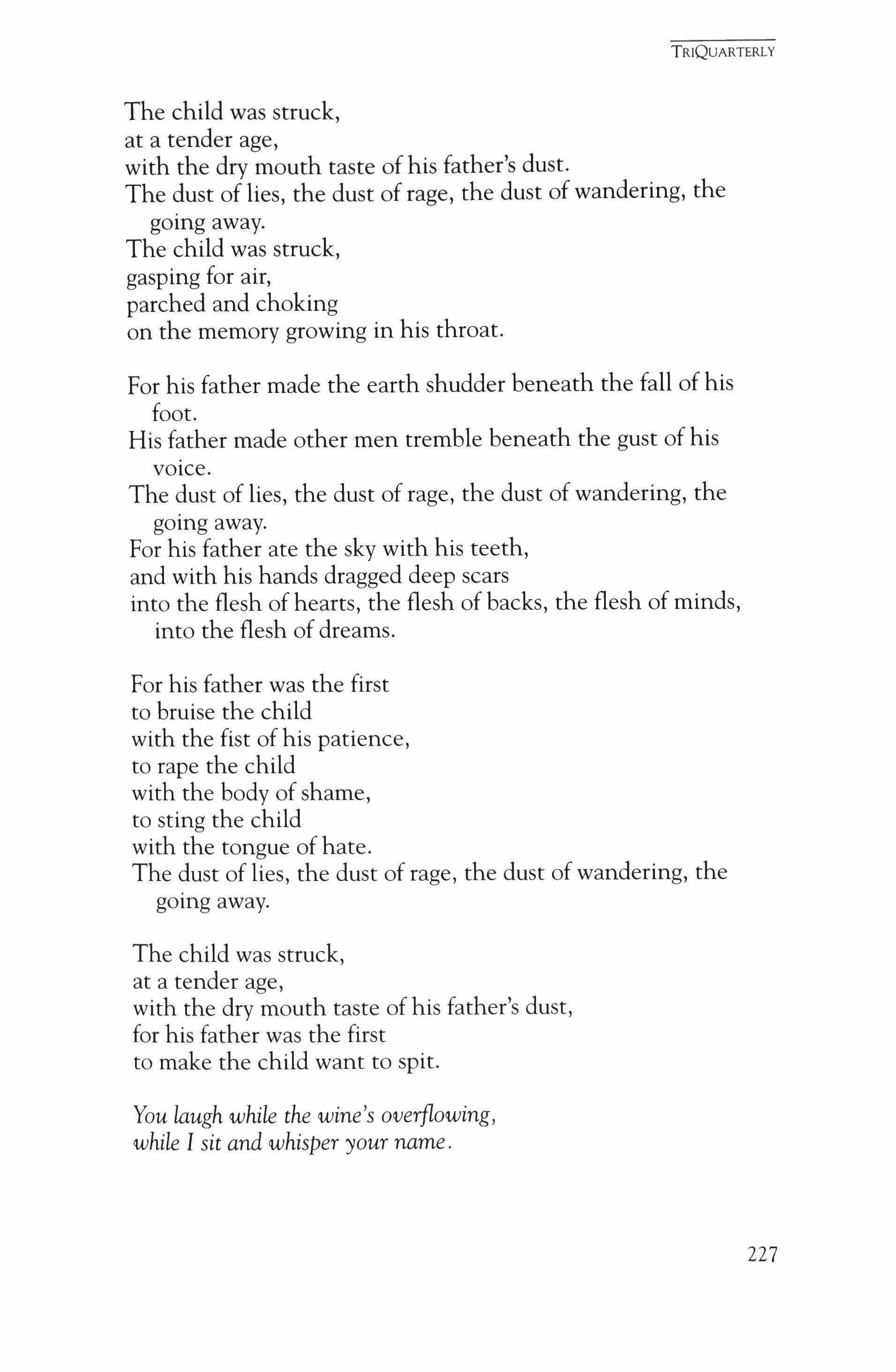
The child was struck, at a tender age, with the dry mouth taste ofhis father's dust. The dust of lies, the dust of rage, the dust of wandering, the going away. The child was struck, gasping for air, parched and choking on the memory growing in his throat.
For his father made the earth shudder beneath the fall of his foot. His father made other men tremble beneath the gust of his voice. The dust of lies, the dust of rage, the dust of wandering, the going away. For his father ate the sky with his teeth, and with his hands dragged deep scars into the flesh of hearts, the flesh of backs, the flesh of minds, into the flesh of dreams.
For his father was the first to bruise the child with the fist of his patience, to rape the child with the body of shame, to sting the child with the tongue of hate. The dust of lies, the dust of rage, the dust of wandering, the going away.
The child was struck, at a tender age, with the dry mouth taste of his father's dust, for his father was the first to make the child want to spit.
You laugh while the wine's overflowing, while I sit and whisper your name.
TRIQUARTERLY
227
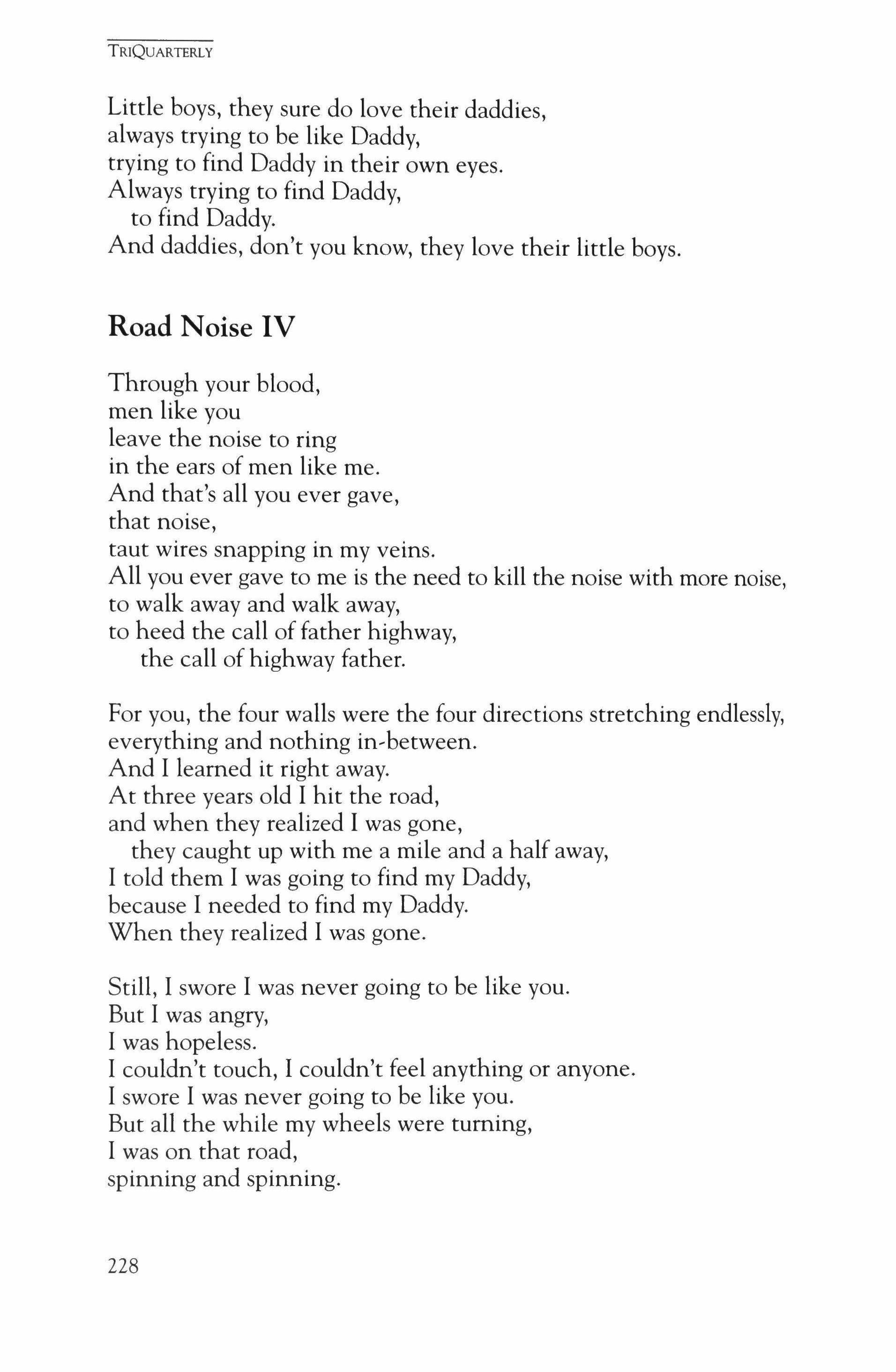
Little boys, they sure do love their daddies, always trying to be like Daddy, trying to find Daddy in their own eyes. Always trying to find Daddy, to find Daddy. And daddies, don't you know, they love their little boys.
Road Noise IV
Through your blood, men like you leave the noise to ring in the ears of men like me. And that's all you ever gave, that noise, taut wires snapping in my veins. All you ever gave to me is the need to kill the noise with more noise, to walk away and walk away, to heed the call of father highway, the call of highway father.
For you, the four walls were the four directions stretching endlessly, everything and nothing in-between. And I learned it right away. At three years old I hit the road, and when they realized I was gone, they caught up with me a mile and a half away, I told them I was going to find my Daddy, because I needed to find my Daddy. When they realized I was gone.
Still, I swore I was never going to be like you. But I was angry, I was hopeless. I couldn't touch, I couldn't feel anything or anyone. I swore I was never going to be like you. But all the while my wheels were turning, I was on that road, spinning and spinning.
TRIQUARTERLY
228
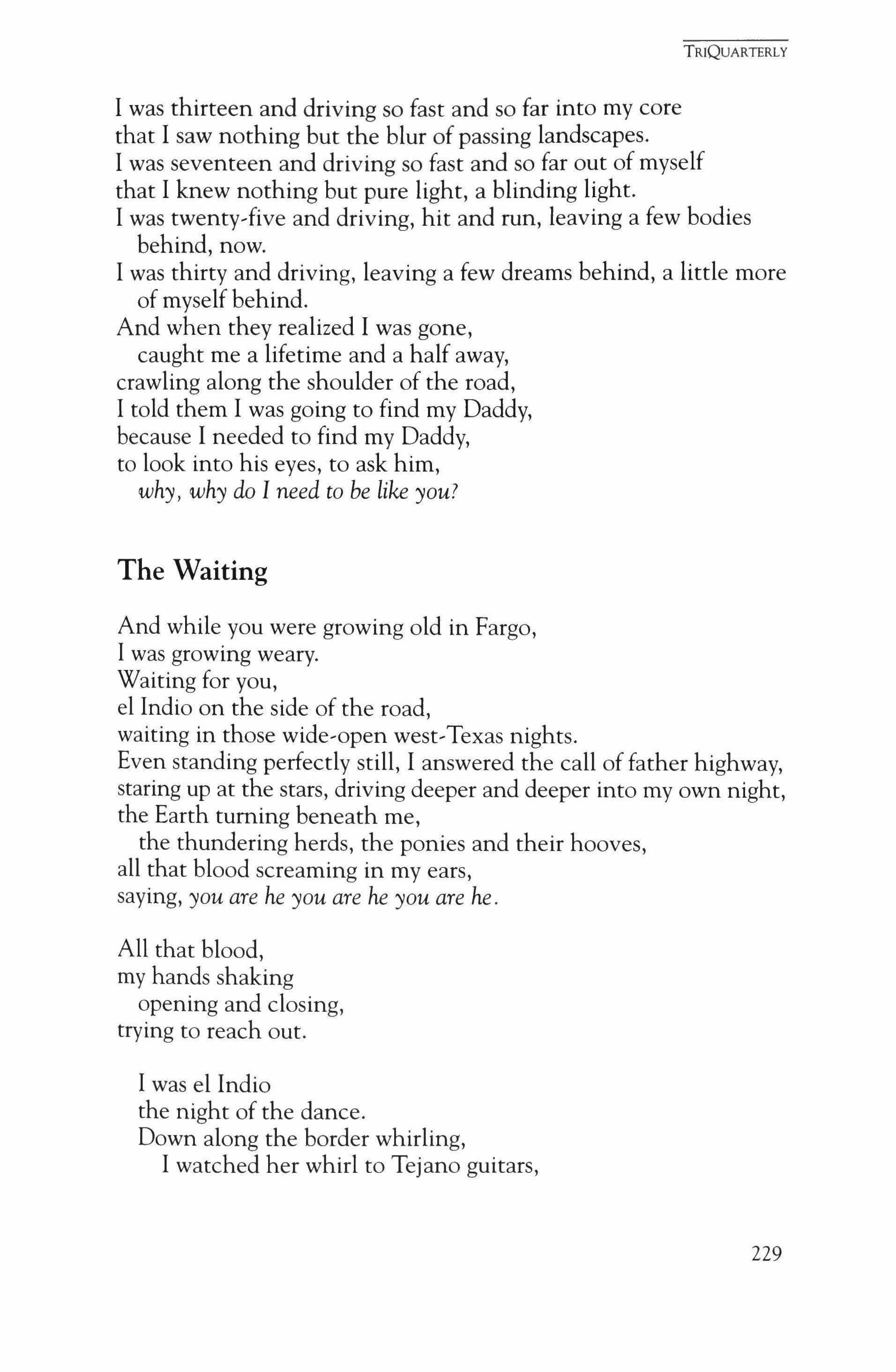
I was thirteen and driving so fast and so far into my core that I saw nothing but the blur of passing landscapes. I was seventeen and driving so fast and so far out of myself that I knew nothing but pure light, a blinding light. I was twenty-five and driving, hit and run, leaving a few bodies behind, now. I was thirty and driving, leaving a few dreams behind, a little more of myself behind. And when they realized I was gone, caught me a lifetime and a half away, crawling along the shoulder of the road, I told them I was going to find my Daddy, because I needed to find my Daddy, to look into his eyes, to ask him, why, why do I need to be like you?
The Waiting
And while you were growing old in Fargo, I was growing weary. Waiting for you, el Indio on the side of the road, waiting in those wide-open west-Texas nights. Even standing perfectly still, I answered the call of father highway, staring up at the stars, driving deeper and deeper into my own night, the Earth turning beneath me, the thundering herds, the ponies and their hooves, all that blood screaming in my ears, saying, you are he you are he you are he.
All that blood, my hands shaking opening and closing, trying to reach out.
I was el Indio the night of the dance. Down along the border whirling, I watched her whirl to Tejano guitars,
TRIQUARTERLY
229
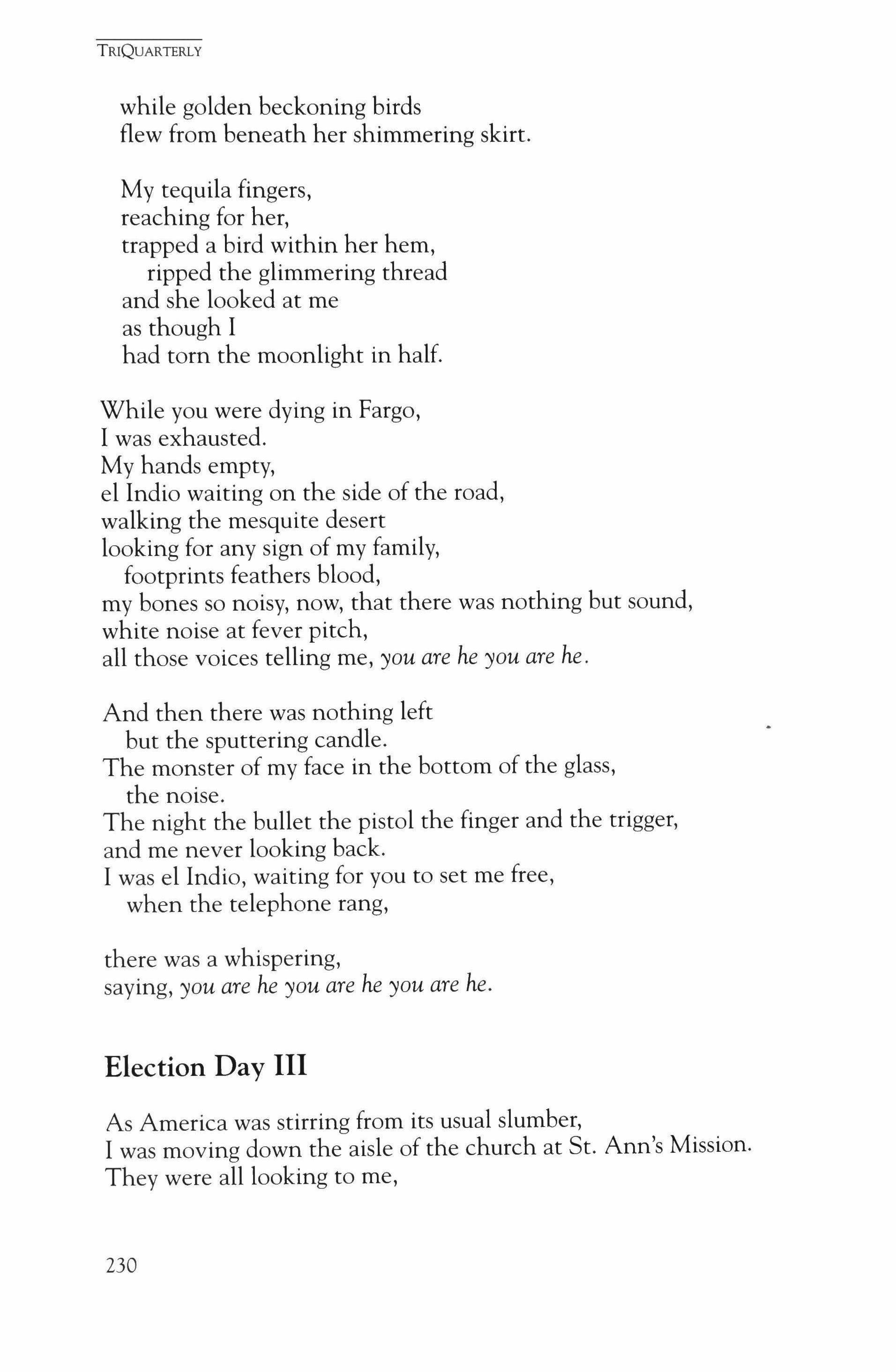
while golden beckoning birds flew from beneath her shimmering skirt.
My tequila fingers, reaching for her, trapped a bird within her hem, ripped the glimmering thread and she looked at me as though I had torn the moonlight in half.
While you were dying in Fargo, I was exhausted.
My hands empty, el Indio waiting on the side of the road, walking the mesquite desert looking for any sign of my family, footprints feathers blood, my bones so noisy, now, that there was nothing but sound, white noise at fever pitch, all those voices telling me, you are he you are he.
And then there was nothing left but the sputtering candle. The monster of my face in the bottom of the glass, the noise.
The night the bullet the pistol the finger and the trigger, and me never looking back.
I was el Indio, waiting for you to set me free, when the telephone rang,
there was a whispering, saying, you are he you are he you are he.
Election Day III
As America was stirring from its usual slumber, I was moving down the aisle of the church at St. Ann's Mission. They were all looking to me,
TRIQUARTERLY
230
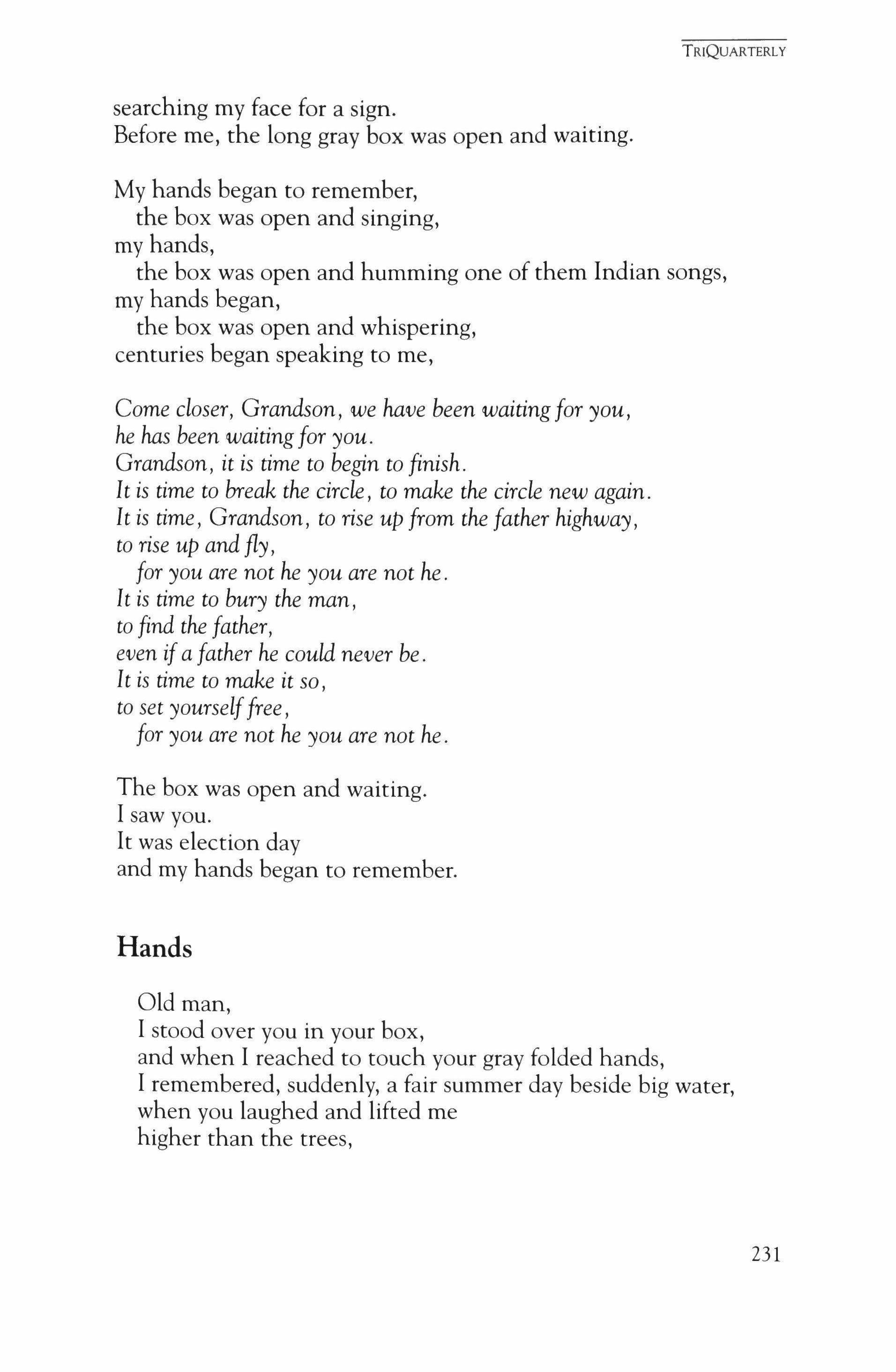
searching my face for a sign. Before me, the long gray box was open and waiting.
My hands began to remember, the box was open and singing, my hands, the box was open and humming one of them Indian songs, my hands began, the box was open and whispering, centuries began speaking to me,
Come closer, Grandson, we have been waitingfor you, he has been waitingfor you. Grandson, it is time to begin to finish.
It is time to break the circle, to make the circle new again. It is time, Grandson, to rise up from the father highway, to rise up and fly, for you are not he you are not he.
It is time to bury the man, to find the father, even if a father he could never be. It is time to make it so, to set yourselffree, for you are not he you are not he.
The box was open and waiting. I saw you. It was election day and my hands began to remember.
Hands
Old man, I stood over you in your box, and when I reached to touch your gray folded hands, I remembered, suddenly, a fair summer day beside big water, when you laughed and lifted me higher than the trees,
TRIQUARTERLY
231
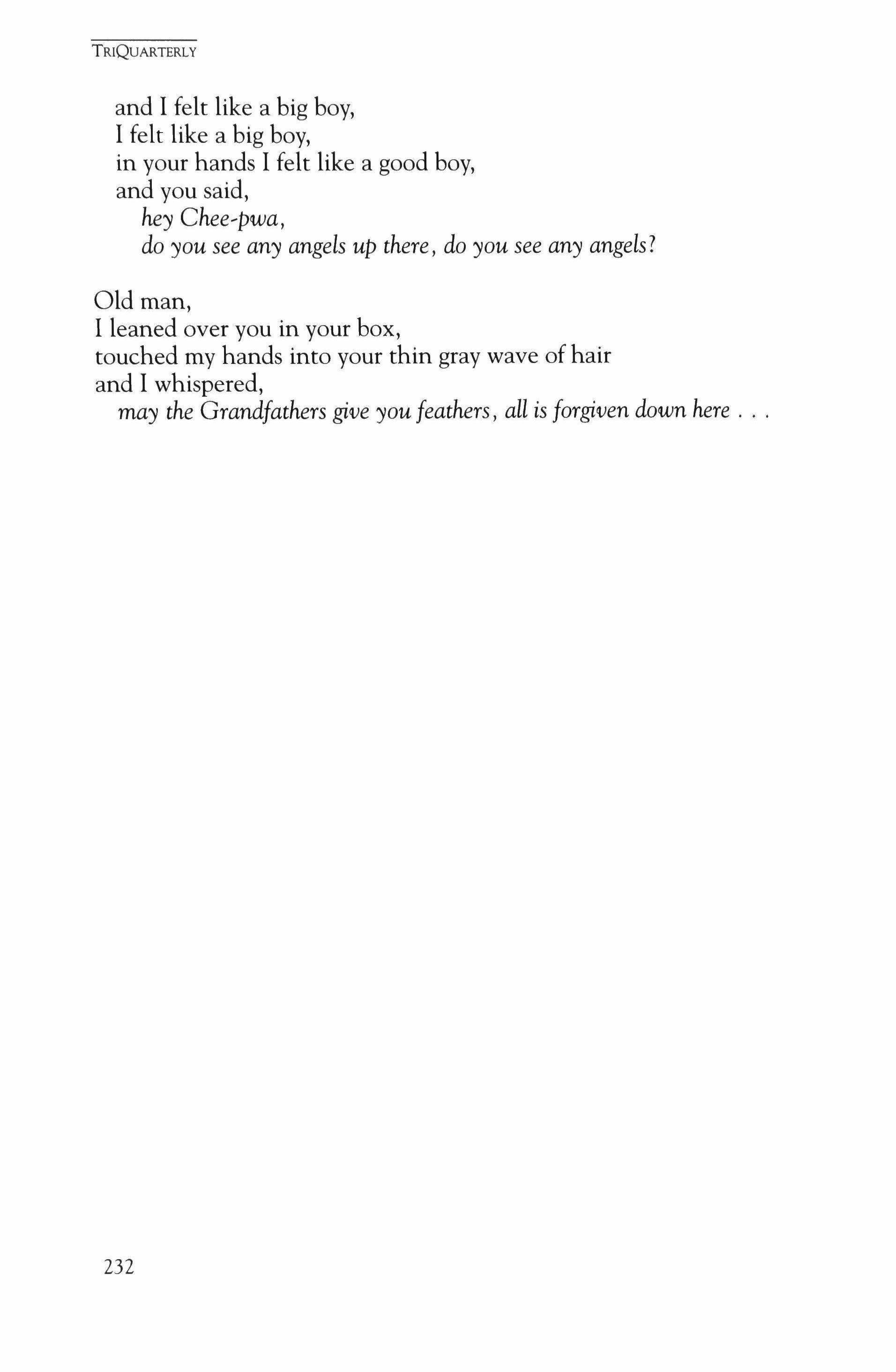
and I felt like a big boy, I felt like a big boy, in your hands I felt like a good boy, and you said, hey Chee-pwa, do you see any angels up there, do you see any angels?
Old man, I leaned over you in your box, touched my hands into your thin gray wave of hair and I whispered, may the Grandfathers give you feathers, all is forgiven down here
TRIQUARTERLY
232
Two Poems
Reetika Vazirani
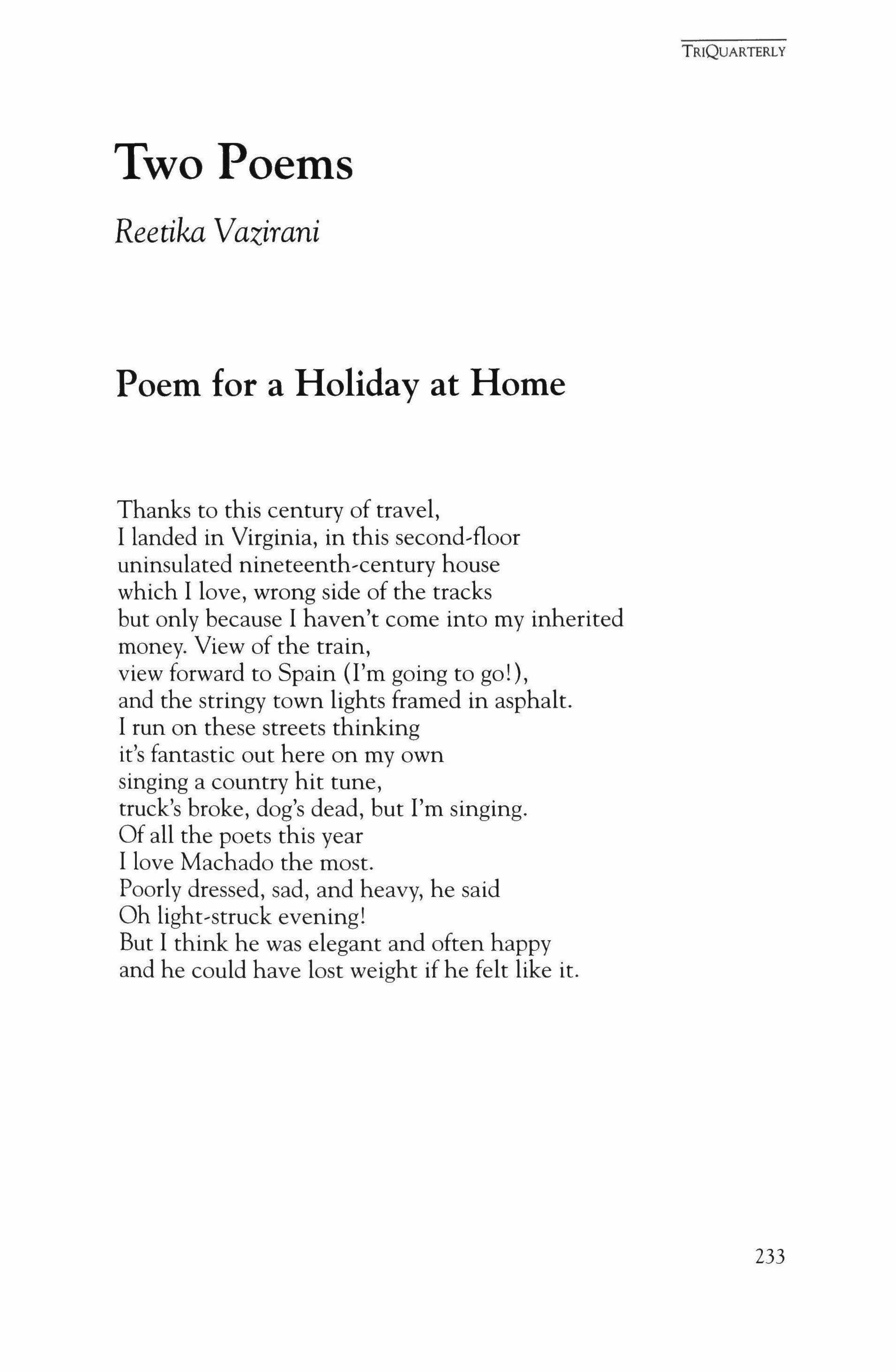
Poem for a Holiday at Home
Thanks to this century of travel, I landed in Virginia, in this second-floor uninsulated nineteenth-century house which I love, wrong side of the tracks but only because I haven't come into my inherited money. View of the train, view forward to Spain (I'm going to go!), and the stringy town lights framed in asphalt. I run on these streets thinking it's fantastic out here on my own singing a country hit tune, truck's broke, dog's dead, but I'm singing. Of all the poets this year I love Machado the most. Poorly dressed, sad, and heavy, he said Oh light-struck evening!
But I think he was elegant and often happy and he could have lost weight if he felt like it.
TRIQUARTERLY 233
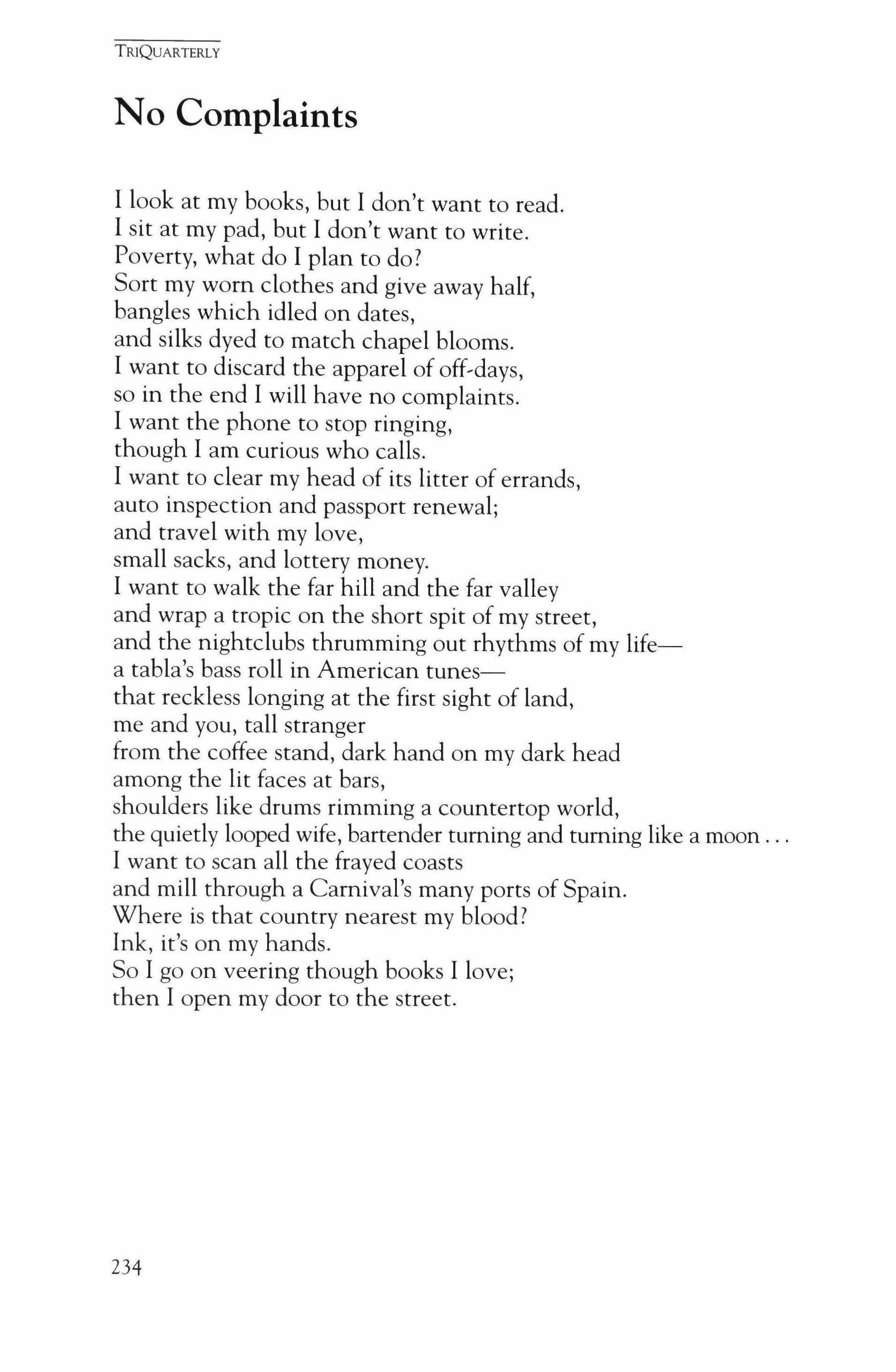
No Complaints
I look at my books, but I don't want to read. I sit at my pad, but I don't want to write. Poverty, what do I plan to do?
Sort my worn clothes and give away half, bangles which idled on dates, and silks dyed to match chapel blooms. I want to discard the apparel of off-days, so in the end I will have no complaints. I want the phone to stop ringing, though I am curious who calls.
I want to clear my head of its litter of errands, auto inspection and passport renewal; and travel with my love, small sacks, and lottery money.
I want to walk the far hill and the far valley and wrap a tropic on the short spit of my street, and the nightclubs thrumming out rhythms of my lifea tabla's bass roll in American tunesthat reckless longing at the first sight of land, me and you, tall stranger from the coffee stand, dark hand on my dark head among the lit faces at bars, shoulders like drums rimming a countertop world, the quietly looped wife, bartender turning and turning like a moon I want to scan all the frayed coasts and mill through a Carnival's many ports of Spain. Where is that country nearest my blood? Ink, it's on my hands. So I go on veering though books I love; then I open my door to the street.
TRIQUARTERLY
234
A Brief Domestic History
Ellen Bryant Voigt
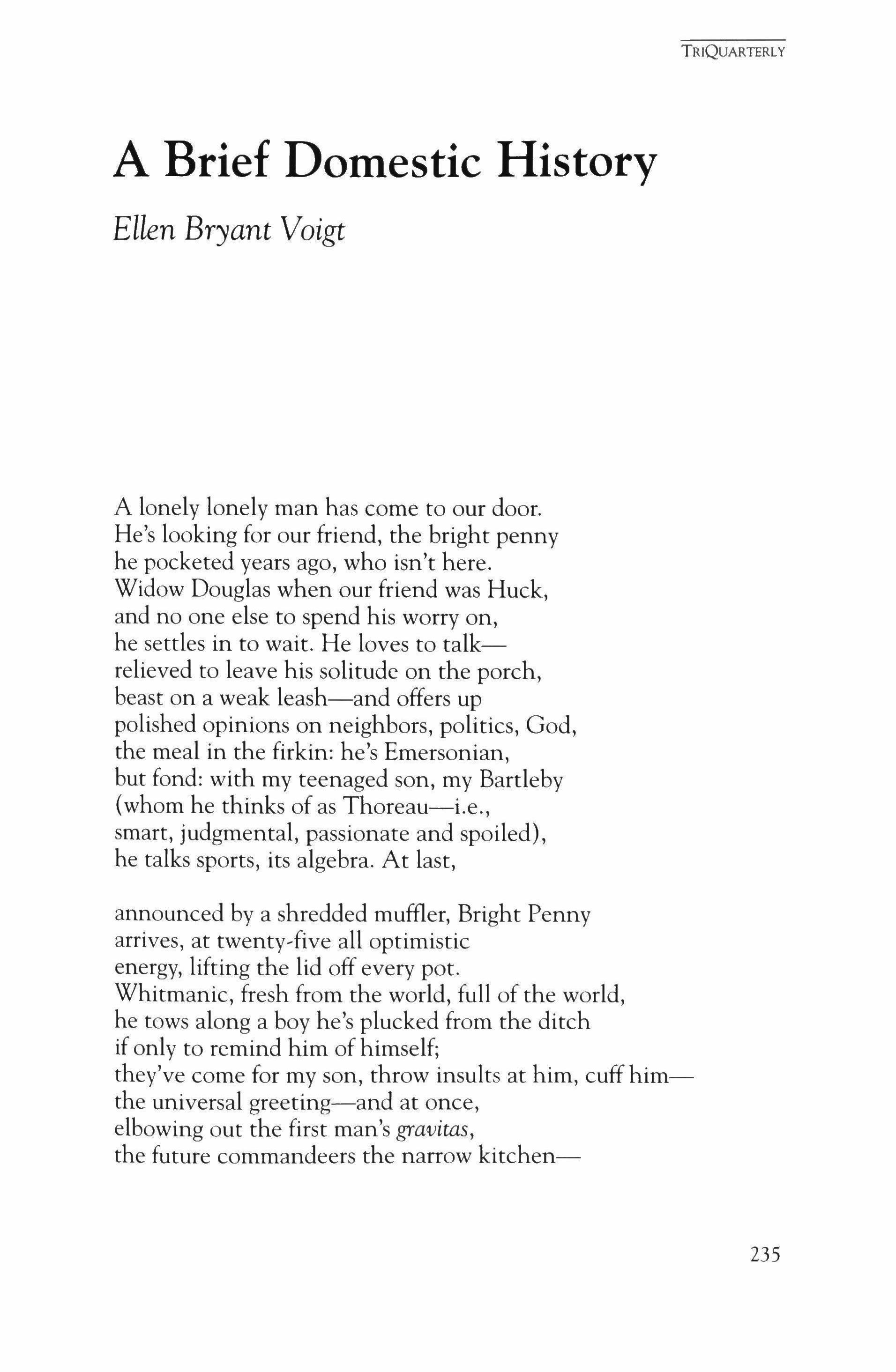
A lonely lonely man has come to our door. He's looking for our friend, the bright penny he pocketed years ago, who isn't here. Widow Douglas when our friend was Huck, and no one else to spend his worry on, he settles in to wait. He loves to talkrelieved to leave his solitude on the porch, beast on a weak leash-and offers up polished opinions on neighbors, politics, God, the meal in the firkin: he's Emersonian, but fond: with my teenaged son, my Bartleby (whom he thinks of as Thoreau-Le., smart, judgmental, passionate and spoiled), he talks sports, its algebra. At last,
announced by a shredded muffler, Bright Penny arrives, at twenty-five all optimistic energy, lifting the lid off every pot. Whitmanic, fresh from the world, full of the world, he tows along a boy he's plucked from the ditch if only to remind him of himself; they've come for my son, throw insults at him, cuff himthe universal greeting-and at once, elbowing out the first man's gravitas, the future commandeers the narrow kitchen-
TRIQUARTERLY
235
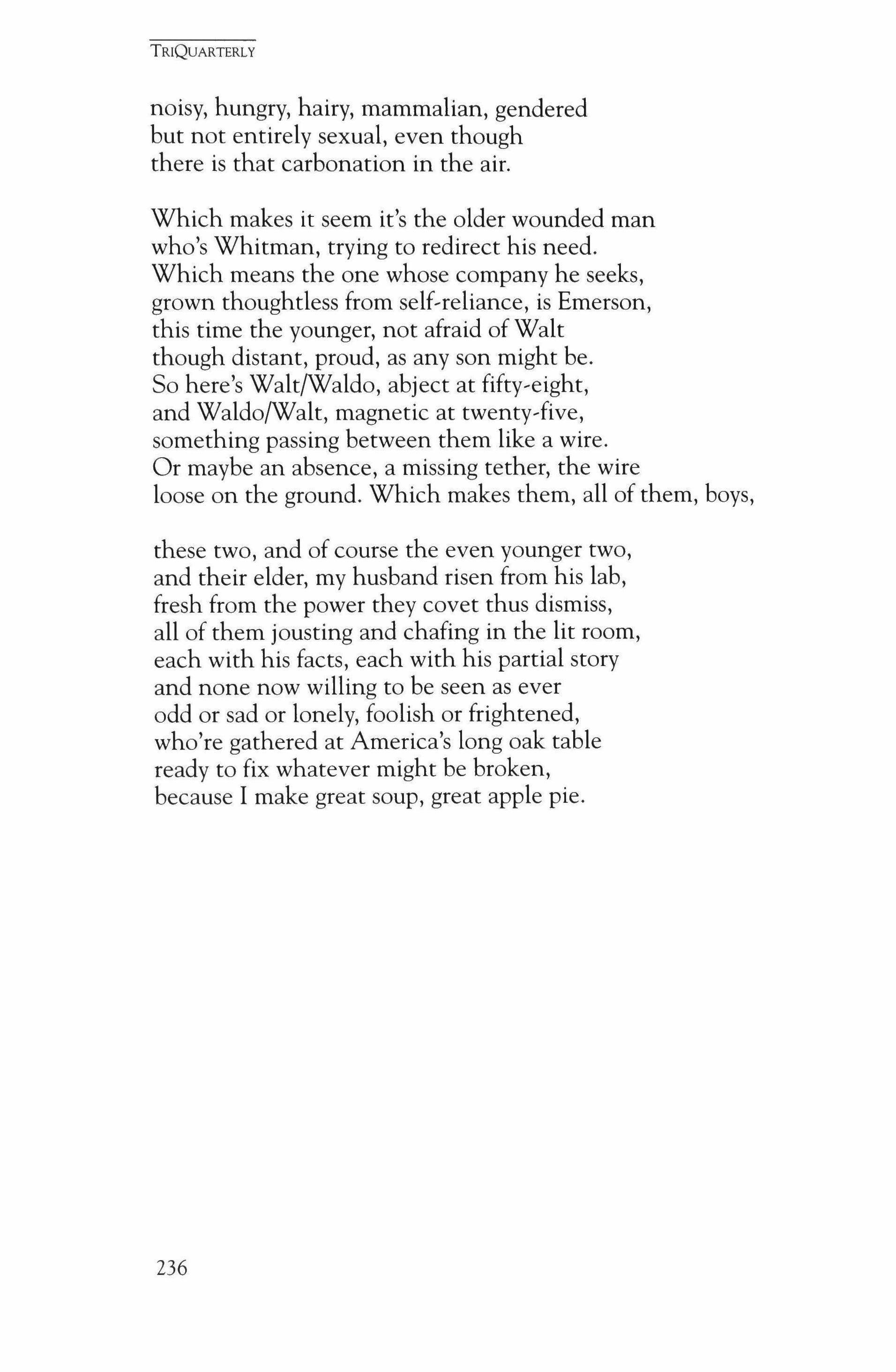
noisy, hungry, hairy, mammalian, gendered but not entirely sexual, even though there is that carbonation in the air.
Which makes it seem it's the older wounded man who's Whitman, trying to redirect his need. Which means the one whose company he seeks, grown thoughtless from self-reliance, is Emerson, this time the younger, not afraid of Walt though distant, proud, as any son might be.
So here's Walt/Waldo, abject at fifrv-eight, and Waldo/Walt, magnetic at twenty-five, something passing between them like a wire. Or maybe an absence, a missing tether, the wire loose on the ground. Which makes them, all of them, boys,
these two, and of course the even younger two, and their elder, my husband risen from his lab, fresh from the power they covet thus dismiss, all of them jousting and chafing in the lit room, each with his facts, each with his partial story and none now willing to be seen as ever odd or sad or lonely, foolish or frightened, who're gathered at America's long oak table ready to fix whatever might be broken, because I make great soup, great apple pie.
TRIQUARTERLY
236
Four Poems
Bruce Weigl
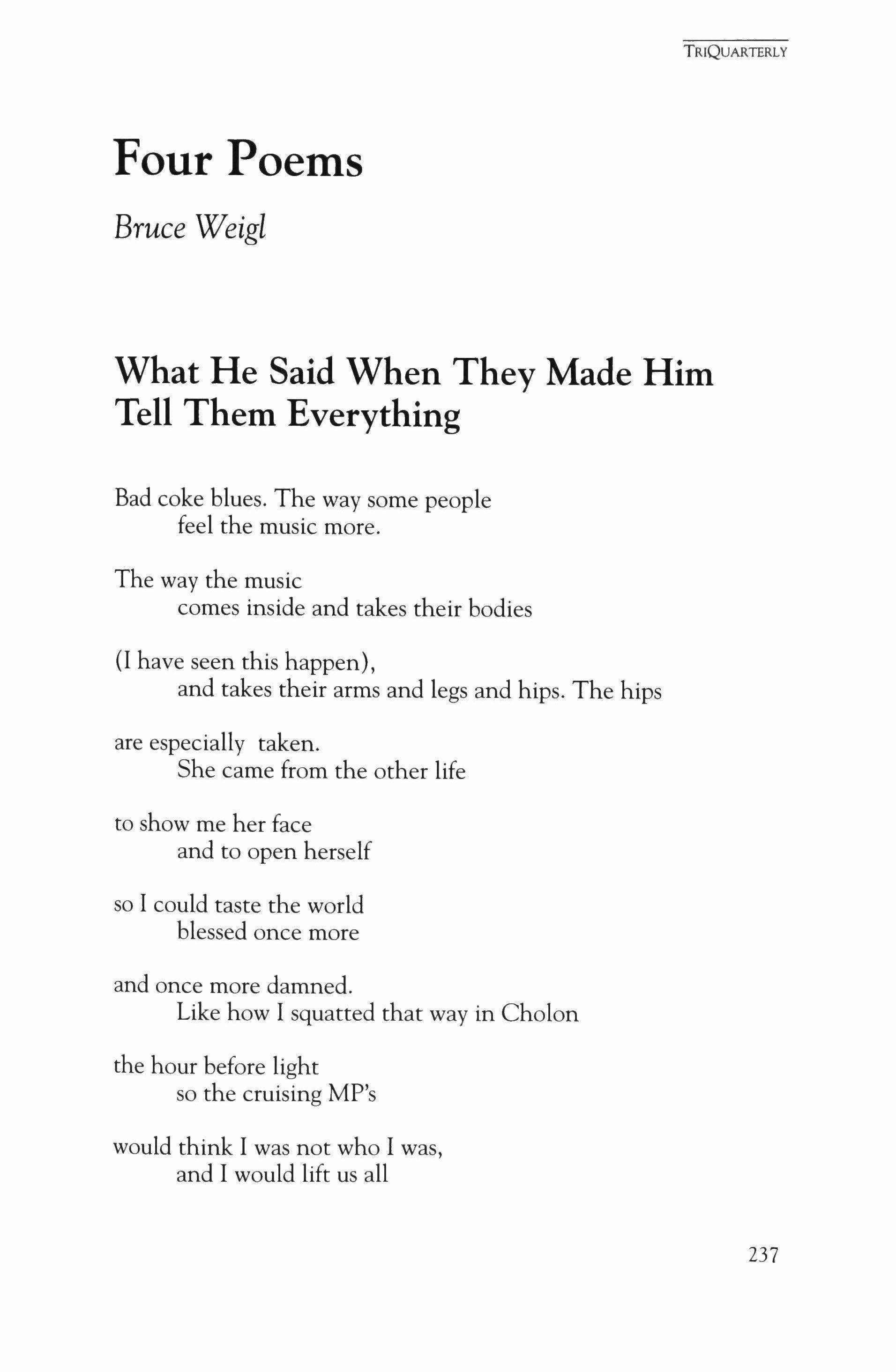
What He Said When They Made Him Tell Them Everything
Bad coke blues. The way some people feel the music more.
The way the music comes inside and takes their bodies (I have seen this happen), and takes their arms and legs and hips. The hips are especially taken. She came from the other life to show me her face and to open herself so I could taste the world blessed once more and once more damned. Like how I squatted that way in Cholon the hour before light so the cruising MP's would think I was not who I was, and I would lift us all
TRIQUARTERLY
237
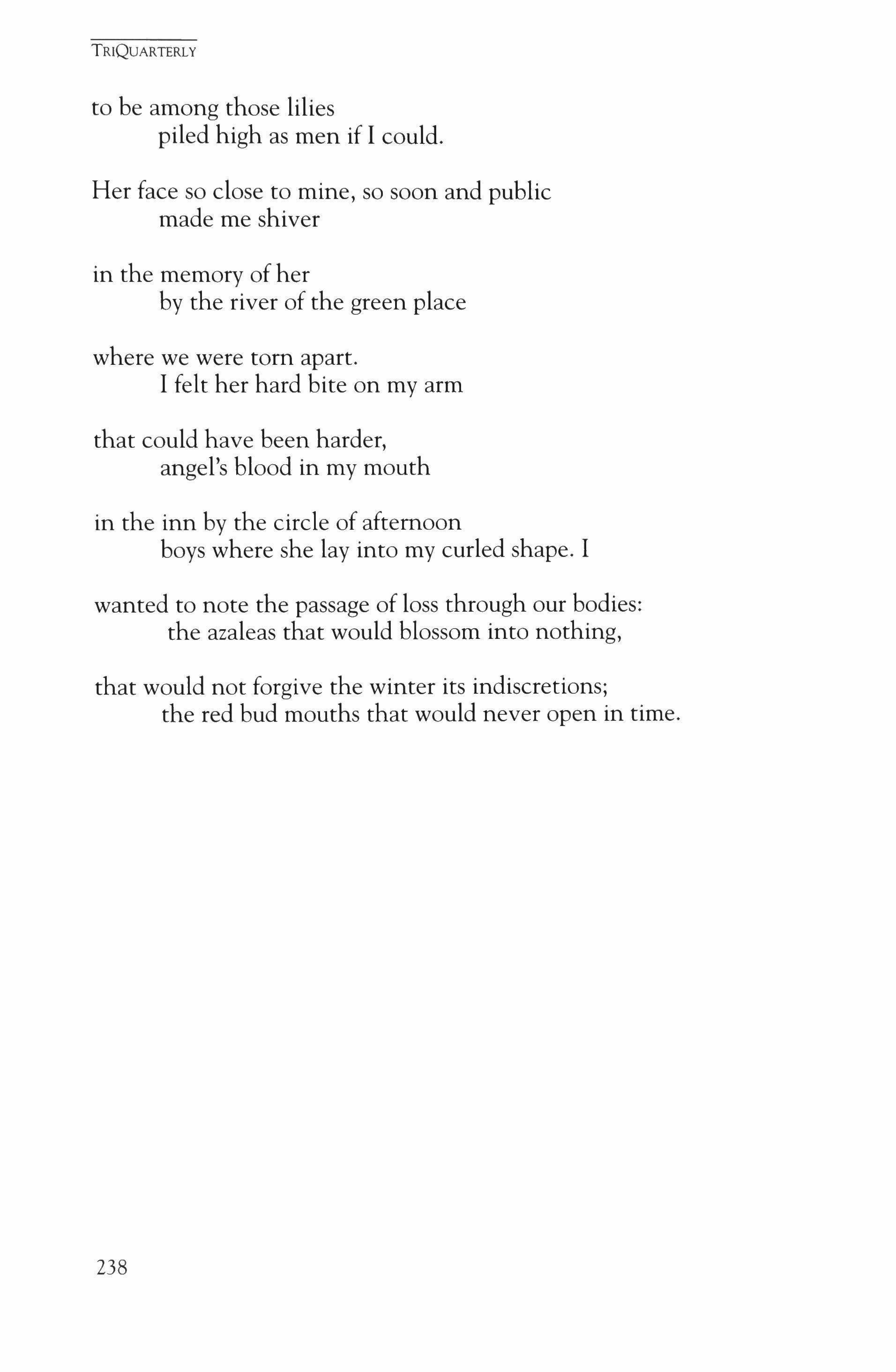
to be among those lilies piled high as men if I could.
Her face so close to mine, so soon and public made me shiver in the memory of her by the river of the green place where we were tom apart. I felt her hard bite on my arm that could have been harder, angel's blood in my mouth in the inn by the circle of afternoon boys where she lay into my curled shape. I
wanted to note the passage of loss through our bodies: the azaleas that would blossom into nothing, that would not forgive the winter its indiscretions; the red bud mouths that would never open in time.
TRIQUARTERLY
238
After the Others
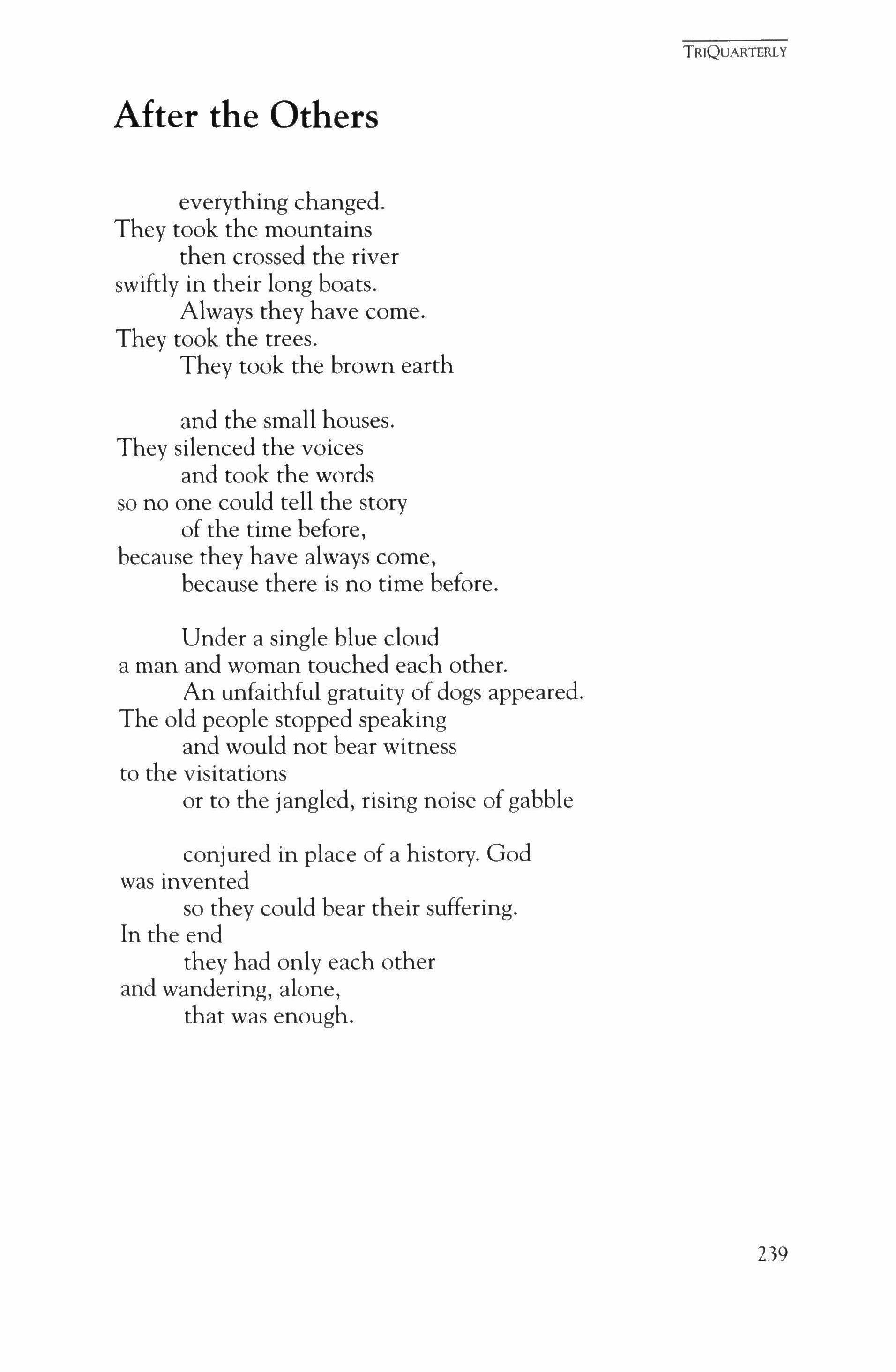
everything changed. They took the mountains then crossed the river swiftly in their long boats. Always they have come. They took the trees. They took the brown earth and the small houses. They silenced the voices and took the words so no one could tell the story of the time before, because they have always come, because there is no time before.
Under a single blue cloud a man and woman touched each other. An unfaithful gratuity of dogs appeared. The old people stopped speaking and would not bear witness to the visitations or to the jangled, rising noise of gabble
conjured in place of a history. God was invented so they could bear their suffering. In the end they had only each other and wandering, alone, that was enough.
TRIQUARTERLY
239
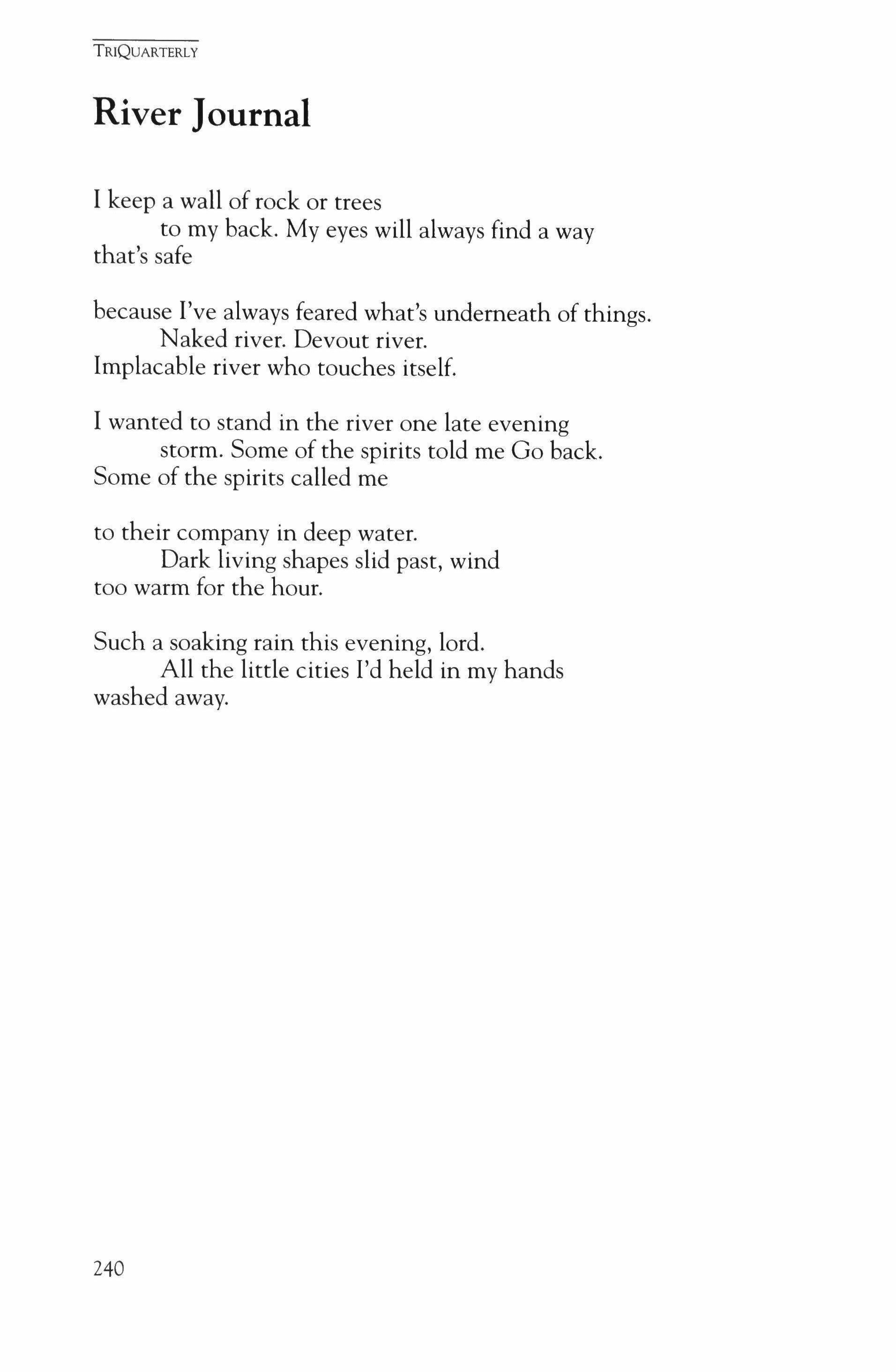
River Journal
I keep a wall of rock or trees to my back. My eyes will always find a way that's safe
because I've always feared what's underneath of things. Naked river. Devout river. Implacable river who touches itself.
I wanted to stand in the river one late evening storm. Some of the spirits told me Go back. Some of the spirits called me to their company in deep water. Dark living shapes slid past, wind too warm for the hour.
Such a soaking rain this evening, lord. All the little cities I'd held in my hands washed away.
TRIQUARTERLY
240
The Choosing of Mozart's Fantasie
Over Suicide
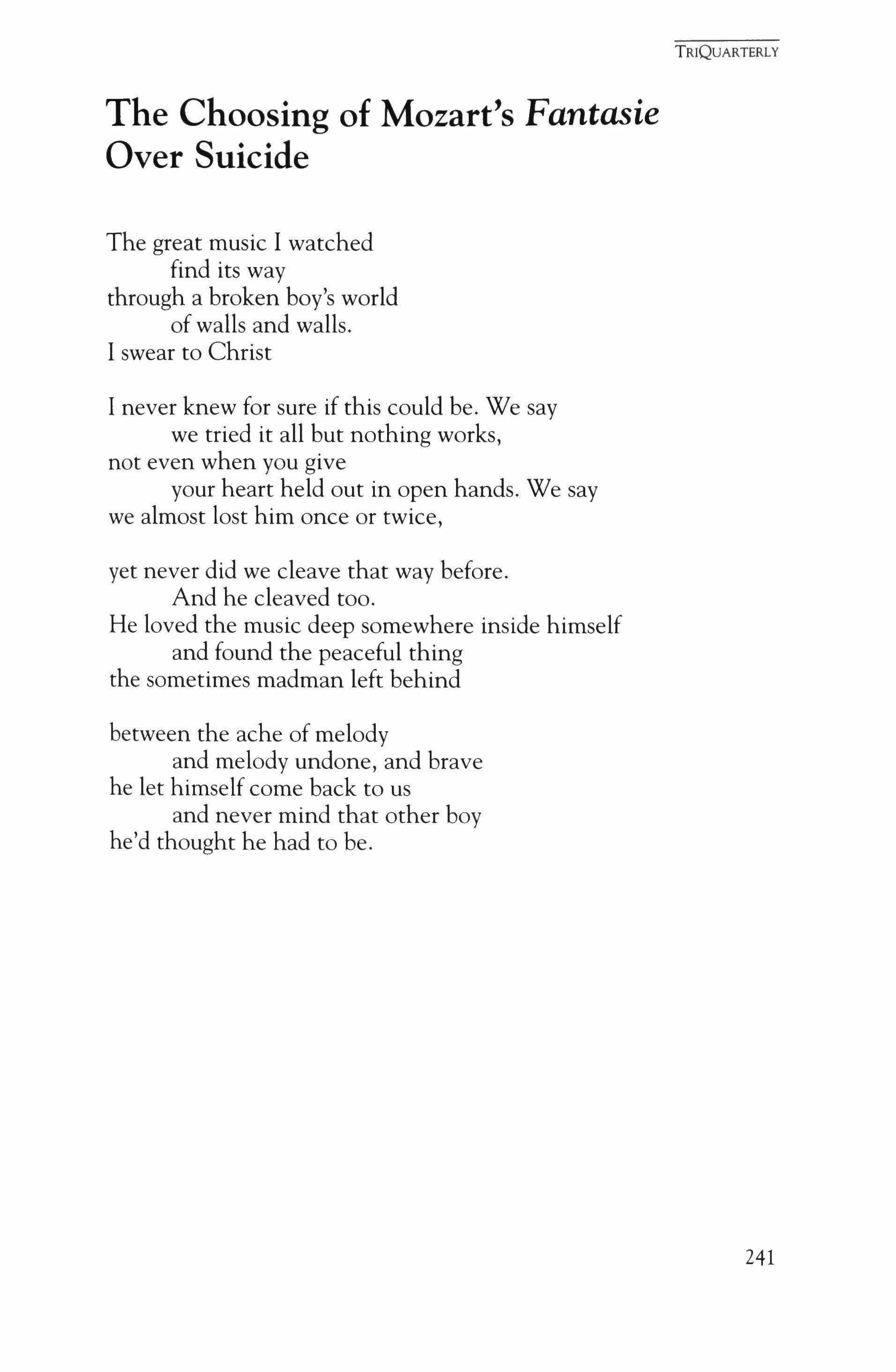
The great music I watched find its way through a broken boy's world of walls and walls.
I swear to Christ
I never knew for sure if this could be. We say we tried it all but nothing works, not even when you give your heart held out in open hands. We say we almost lost him once or twice, yet never did we cleave that way before. And he cleaved too.
He loved the music deep somewhere inside himself and found the peaceful thing the sometimes madman left behind
between the ache of melody and melody undone, and brave he let himself come back to us and never mind that other boy he'd thought he had to be.
TRIQUARTERLY 241
The Knife
]oshua Weiner

Even when speaking ofalien things the poet speaks his own language. -Bakhtin
Knife, etymology uncertain.
As a knife it attracts me: 11 inches, 11 ounces, it fits firmly in the hand. The flat top edge invites my thumb to rest there, even to give it a little rub, while my index finger tucks into a stem curling like a comma from the hilt, to keep the hand in place while thrusting. A long indelible smudge marking each side of the blade suddenly stops, as if the knife had been stuck into something and-regretfully?-pulled out. As if it couldn't go any further.
The knife is a single piece of steel, the dark plastic sandwiching the handle kept in place on either side by two pins, the heads of which shine like eyes hardened into beads. Sweat has worn the metal surface, particularly where the fourth and fifth finger wrap around the end. Its sheath is black metal and fits snug as a condom. Handsome and sinister, like a man in a cloak in a cloak-anddagger thriller, its reality denies fiction, conjuring myth in the shape of history instead. The knife is history (or rather, it summons history) as, on the blade itself, beneath the circled initials stamped by the manufacturer, RZ, and the model number, M7/72 is the date, 1940. And on the handle, embedded in the plastic, a swastika sits on a diamond-shaped background of minutely dimpled ruby and a clean flat white.
TRIQUARTERLY
242
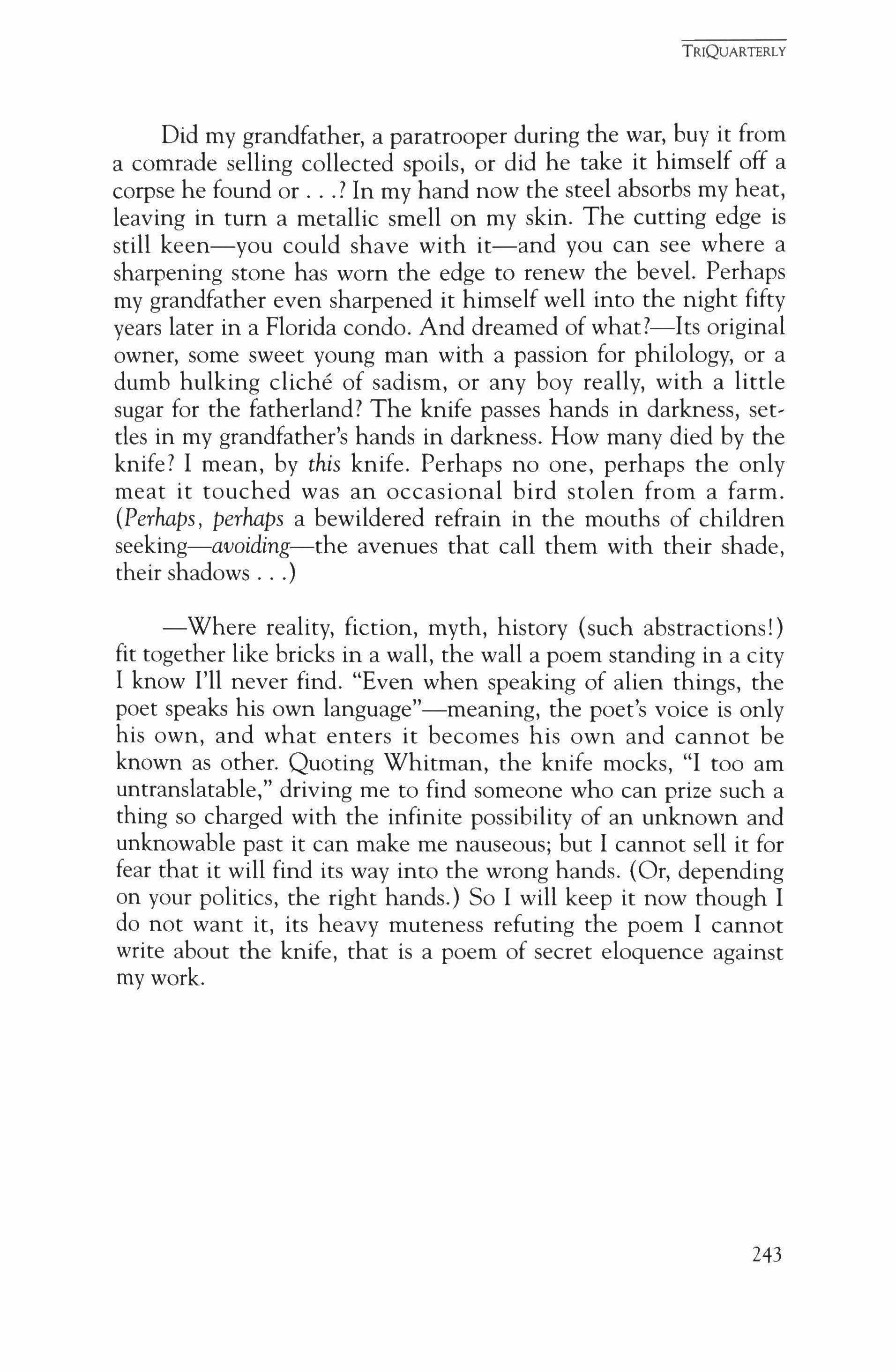
Did my grandfather, a paratrooper during the war, buy it from a comrade selling collected spoils, or did he take it himself off a corpse he found or ? In my hand now the steel absorbs my heat, leaving in tum a metallic smell on my skin. The cutting edge is still keen-you could shave with it-and you can see where a sharpening stone has worn the edge to renew the bevel. Perhaps my grandfather even sharpened it himself well into the night fifty years later in a Florida condo. And dreamed of what?-Its original owner, some sweet young man with a passion for philology, or a dumb hulking cliche of sadism, or any boy really, with a little sugar for the fatherland? The knife passes hands in darkness, setdes in my grandfather's hands in darkness. How many died by the knife? I mean, by this knife. Perhaps no one, perhaps the only meat it touched was an occasional bird stolen from a farm. (Perhaps, perhaps a bewildered refrain in the mouths of children seeking-avoiding-the avenues that call them with their shade, their shadows )
-Where reality, fiction, myth, history (such abstractions!) fit together like bricks in a wall, the wall a poem standing in a city I know I'll never find. "Even when speaking of alien things, the poet speaks his own language"-meaning, the poet's voice is only his own, and what enters it becomes his own and cannot be known as other. Quoting Whitman, the knife mocks, "I too am untranslatable," driving me to find someone who can prize such a thing so charged with the infinite possibility of an unknown and unknowable past it can make me nauseous; but I cannot sell it for fear that it will find its way into the wrong hands. (Or, depending on your politics, the right hands.) So I will keep it now though I do not want it, its heavy muteness refuting the poem I cannot write about the knife, that is a poem of secret eloquence against my work.
TRIQUARTERLY
243
Two Poems
Theodore and Renee Weiss
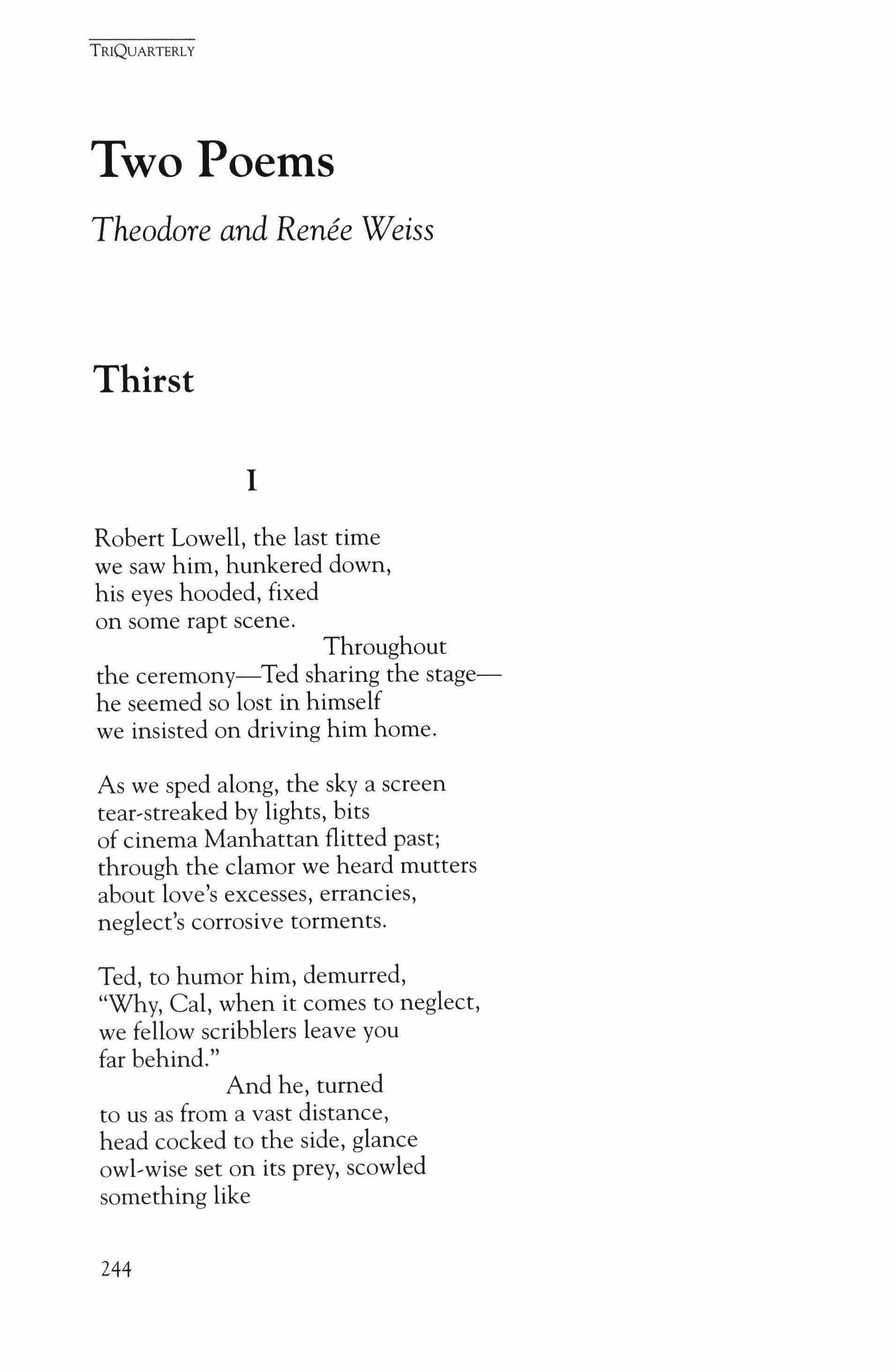
Thirst I
Robert Lowell, the last time we saw him, hunkered down, his eyes hooded, fixed on some rapt scene.
Throughout the ceremony-Ted sharing the stagehe seemed so lost in himself we insisted on driving him home.
As we sped along, the sky a screen tear-streaked by lights, bits of cinema Manhattan flitted past; through the clamor we heard mutters about love's excesses, errancies, neglect's corrosive torments.
Ted, to humor him, demurred, "Why, Cal, when it comes to neglect, we fellow scribblers leave you far behind."
And he, turned to us as from a vast distance, head cocked to the side, glance owl-wise set on its prey, scowled something like
TRIQUARTERLY
244
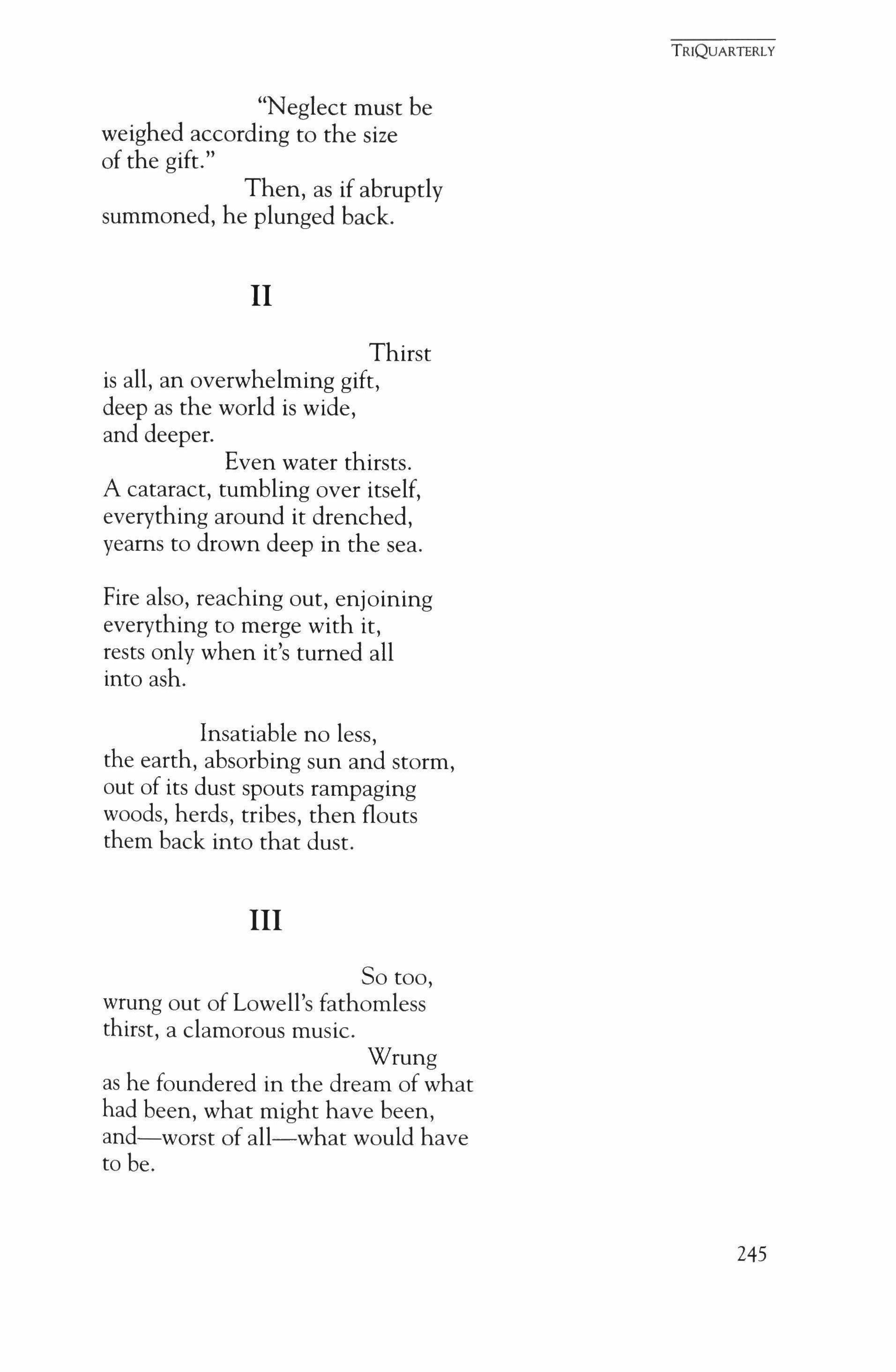
"Neglect must be weighed according to
the size of the gift."
Then, as if abruptly summoned, he plunged back.
II
Thirst is all, an overwhelming gift, deep as the world is wide, and deeper.
Even water thirsts. A cataract, tumbling over itself, everything around it drenched, yearns to drown deep in the sea.
Fire also, reaching out, enjoining everything to merge with it, rests only when it's turned all into ash.
Insatiable no less, the earth, absorbing sun and storm, out of its dust spouts rampaging woods, herds, tribes, then flouts them back into that dust.
III
So too, wrung out of Lowell's fathomless thirst, a clamorous music.
Wrung as he foundered in the dream of what had been, what might have been, and-worst of all-what would have to be.
TRIQUARTERLY
245
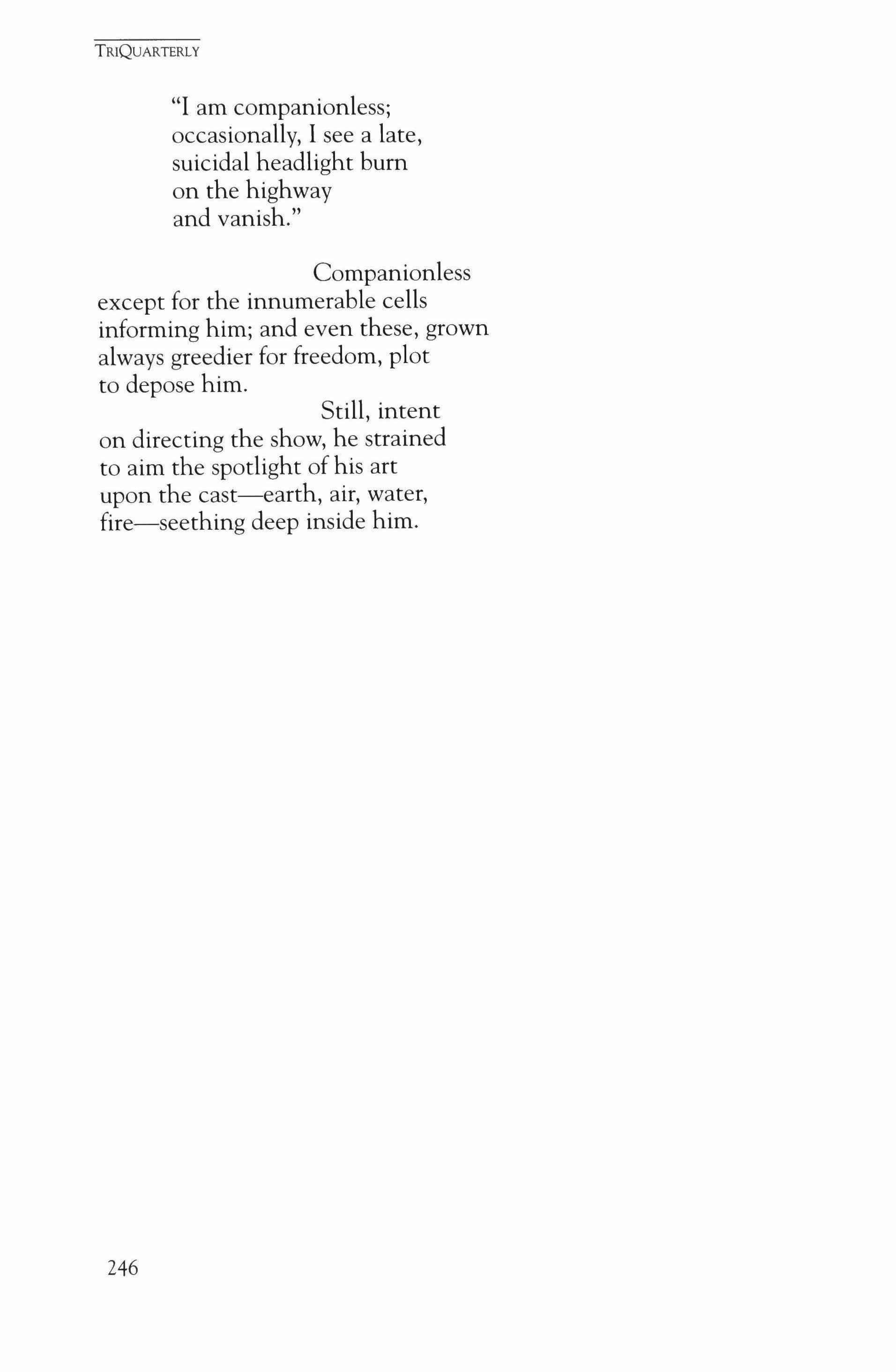
"I am companionless; occasionally, I see a late, suicidal headlight burn on the highway and vanish."
Companionless except for the innumerable cells informing him; and even these, grown always greedier for freedom, plot to depose him.
Still, intent on directing the show, he strained to aim the spotlight of his art upon the cast-earth, air, water, fire-seething deep inside him.
TRIQUARTERLY
246
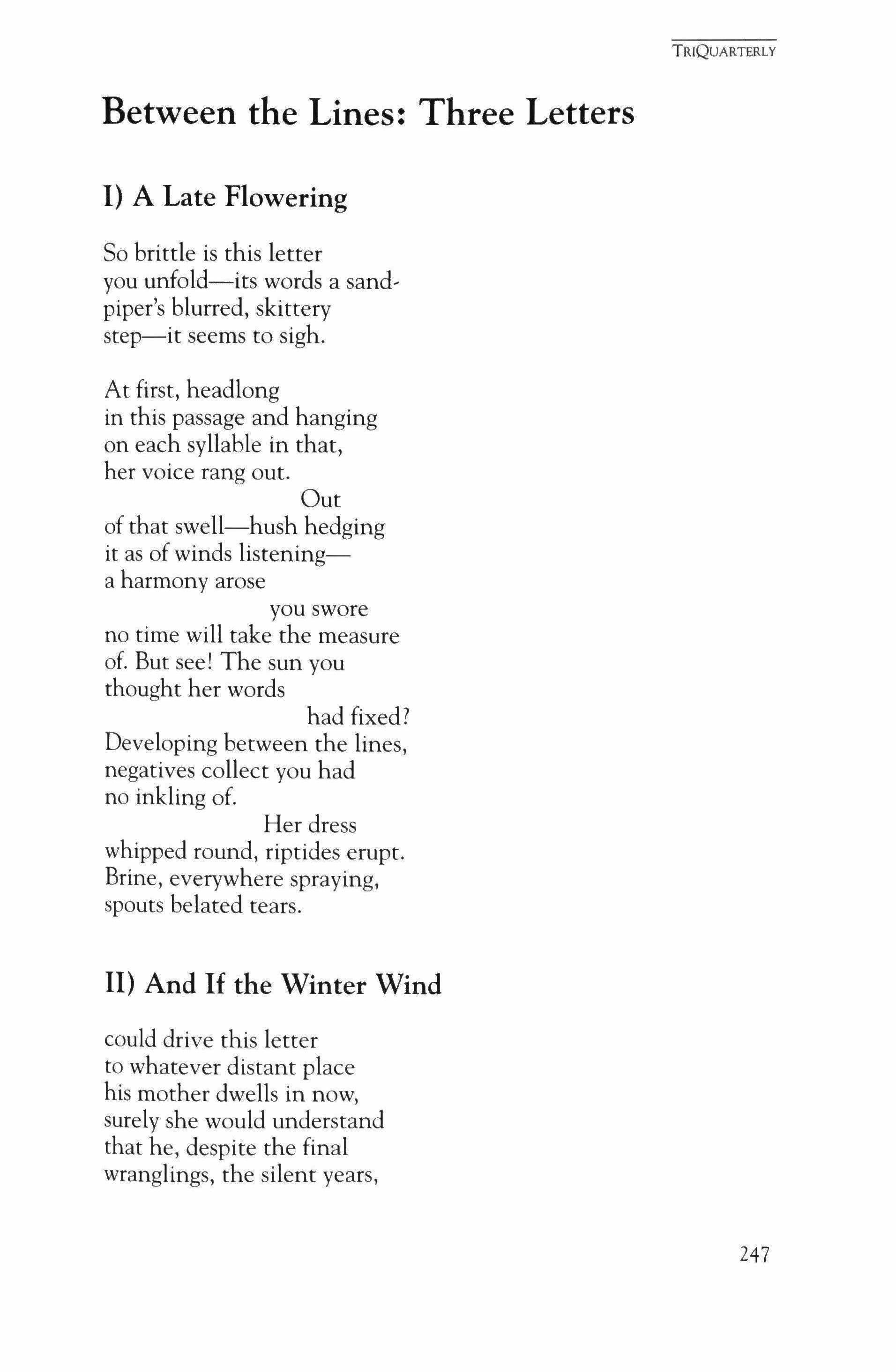
Between the Lines: Three Letters
I) A Late Flowering
So brittle is this letter you unfold-its words a sandpiper's blurred, skittery step-it seems to sigh.
At first, headlong in this passage and hanging on each syllable in that, her voice rang out. Out of that swell-hush hedging it as of winds listeninga harmony arose you swore no time will take the measure of. But see! The sun you thought her words had fixed?
Developing between the lines, negatives collect you had no inkling of.
Her dress whipped round, riptides erupt. Brine, everywhere spraying, spouts belated tears.
II) And If the Winter Wind
could drive this letter to whatever distant place his mother dwells in now, surely she would understand that he, despite the final wranglings, the silent years,
TRIQUARTERLY 247
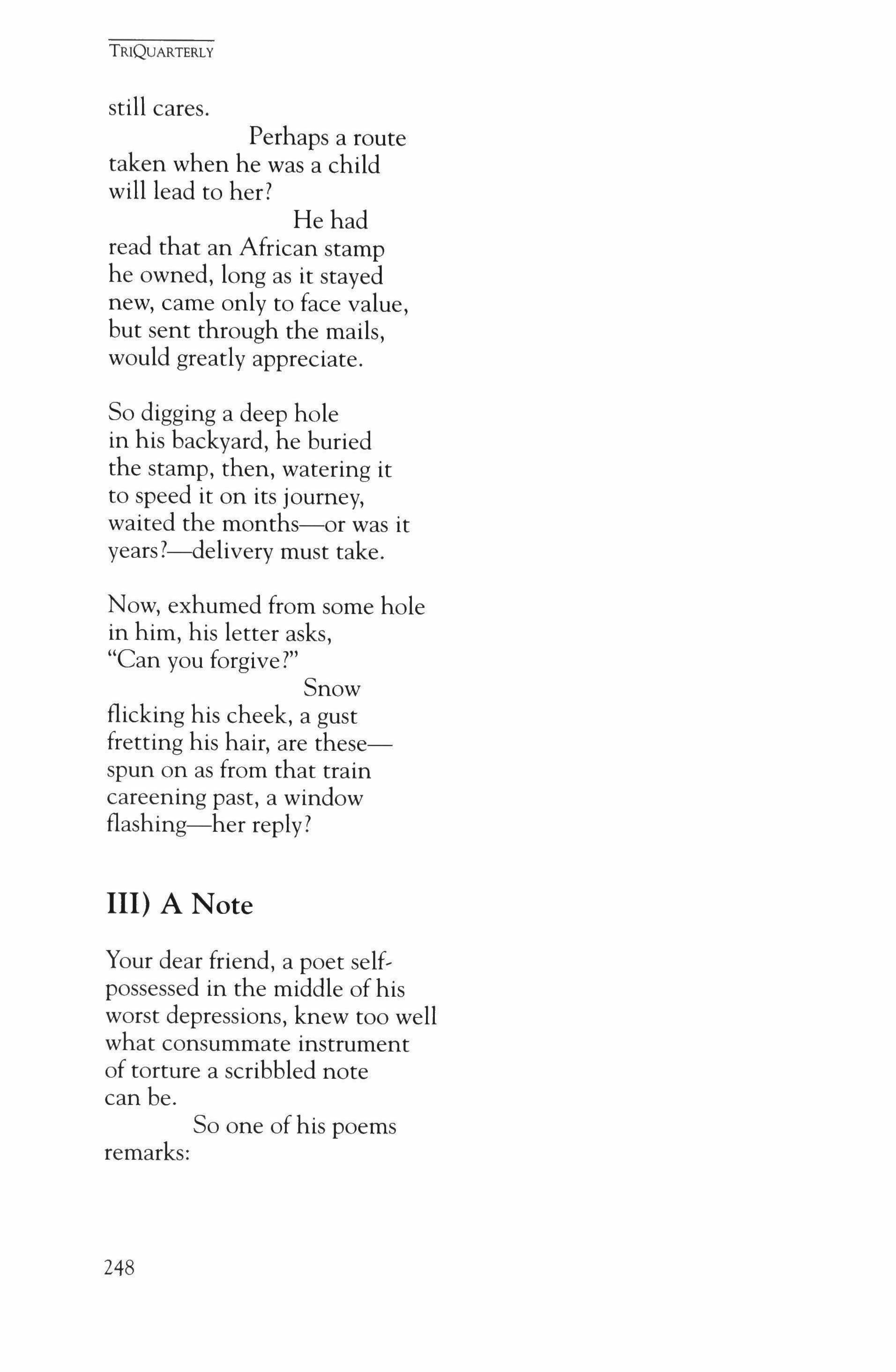
still cares.
Perhaps a route taken when he was a child will lead to her?
He had read that an African stamp he owned, long as it stayed new, came only to face value, but sent through the mails, would greatly appreciate.
So digging a deep hole in his backyard, he buried the stamp, then, watering it to speed it on its journey, waited the months-or was it years?-delivery must take.
Now, exhumed from some hole in him, his letter asks, "Can you forgive?"
Snow flicking his cheek, a gust fretting his hair, are thesespun on as from that train careening past, a window flashing-her reply?
III) A Note
Your dear friend, a poet selfpossessed in the middle of his worst depressions, knew too well what consummate instrument of torture a scribbled note can be.
So one of his poems remarks: 248
TRIQUARTERLY
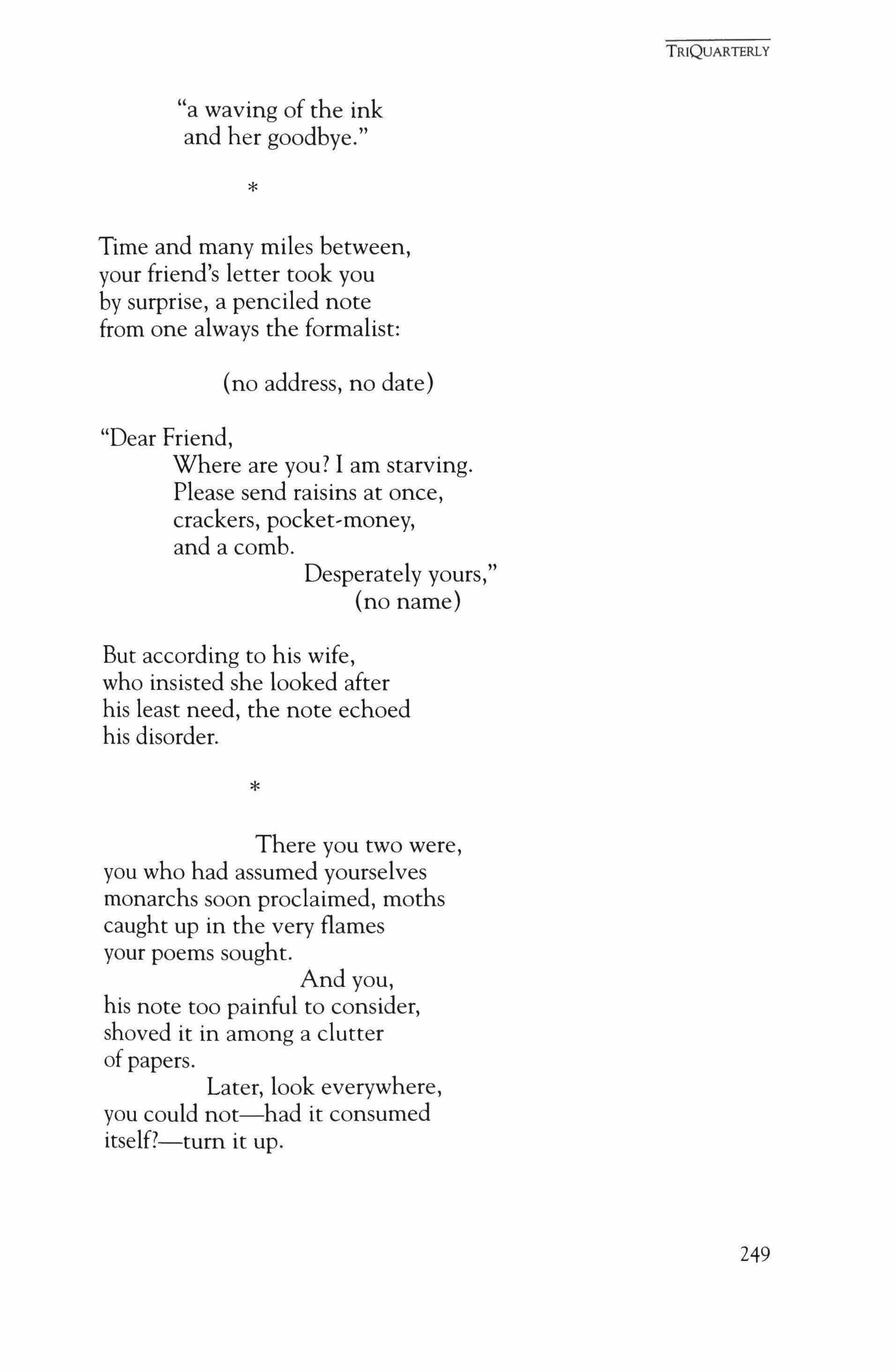
"a waving of the ink and her goodbye."
* Time and many miles between, your friend's letter took you by surprise, a penciled note from one always the formalist:
(no address, no date)
"Dear Friend, Where are you? I am starving. Please send raisins at once, crackers, pocket-money, and a comb.
Desperately yours," (no name)
But according to his wife, who insisted she looked after his least need, the note echoed his disorder.
* There you two were, you who had assumed yourselves monarchs soon proclaimed, moths caught up in the very flames your poems sought. And you, his note too painful to consider, shoved it in among a clutter of papers.
Later, look everywhere, you could not-had it consumed itself?-tum it up.
TRIQUARTERLY
249
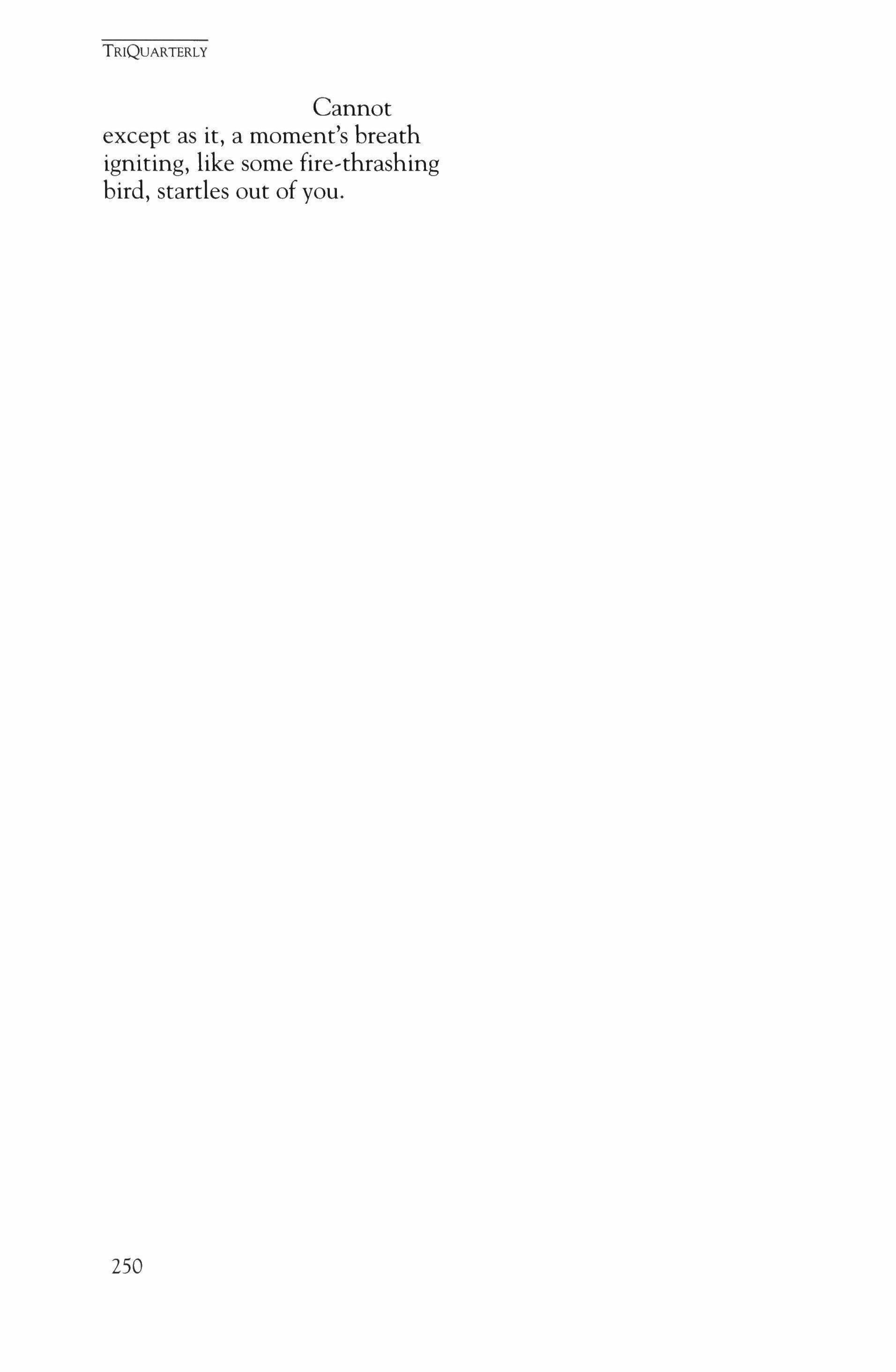
Cannot
except as it, a moment's breath igniting, like some fire-thrashing bird, startles out of you.
TRIQUARTERLY
250
From The Long Home
Christian Wiman
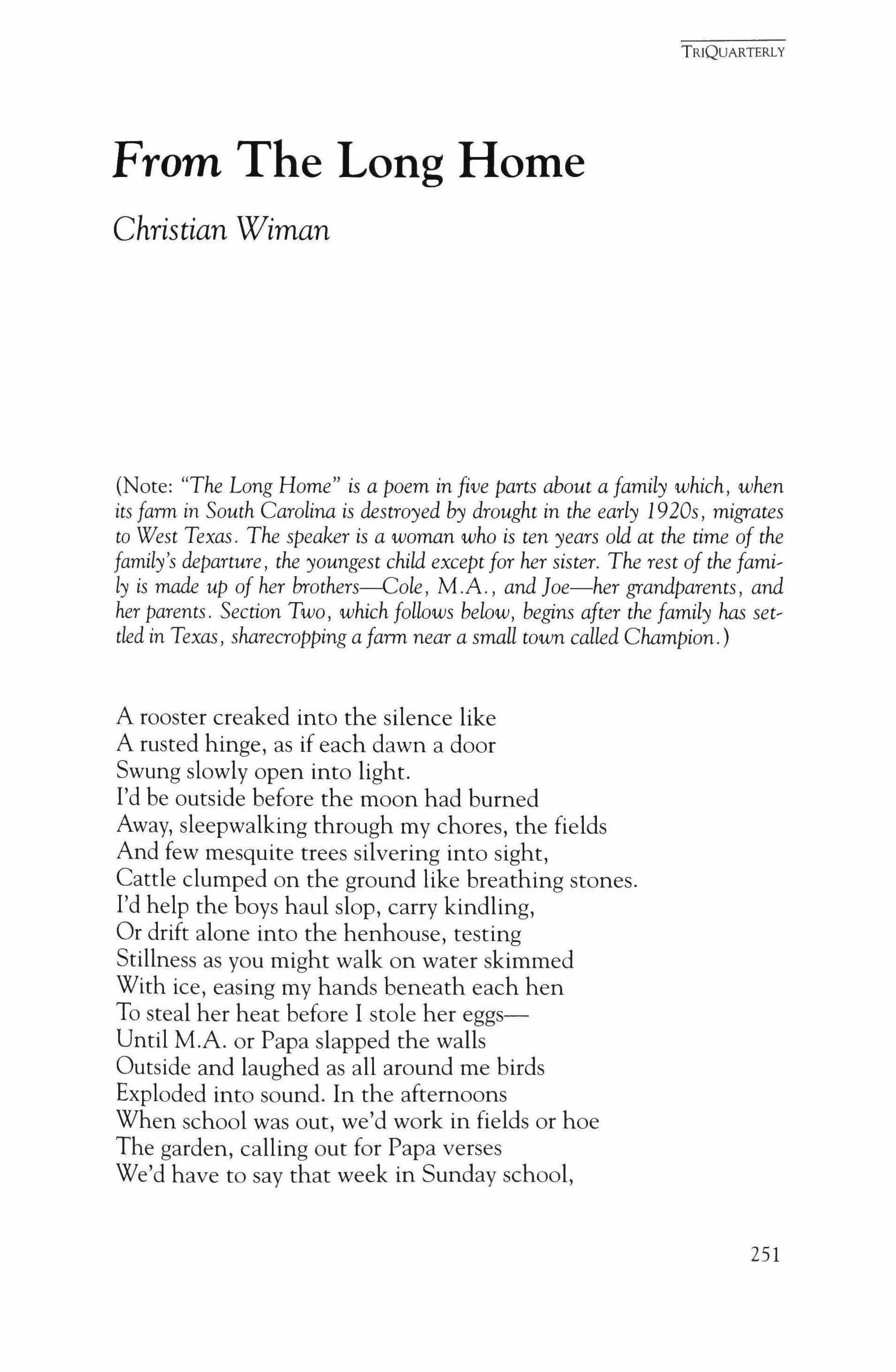
(Note: "The Long Home" is a poem in five parts about a family which, when its farm in South Carolina is destroyed by drought in the early 1920s, migrates to West Texas. The speaker is a woman who is ten years old at the time of the family's departure, the youngest child except for her sister. The rest of the [amily is made up of her brothers-Cole, M.A., and Joe-her grandparents, and her parents. Section Two, which follows below, begins after the family has sertled in Texas, sharecropping a farm near a small town called Champion.)
A rooster creaked into the silence like A rusted hinge, as if each dawn a door
Swung slowly open into light.
I'd be outside before the moon had burned Away, sleepwalking through my chores, the fields
And few mesquite trees silvering into sight, Cattle clumped on the ground like breathing stones.
I'd help the boys haul slop, carry kindling, Or drift alone into the henhouse, testing Stillness as you might walk on water skimmed With ice, easing my hands beneath each hen
To steal her heat before I stole her eggsUntil M.A. or Papa slapped the walls
Outside and laughed as all around me birds
Exploded into sound. In the afternoons
When school was out, we'd work in fields or hoe
The garden, calling out for Papa verses
We'd have to say that week in Sunday school,
TRIQUARTERLY
251
Our voices tangling in the wind. My days Are swifter than a weaver's shuttle. And 1 Will dwell in the house of the Lord. We shall Not all be taken, but we shall all be changed. Then when I saw the sun begin to fall
And all our shadows disappearing in dusk, Sister and I would leave to clean and fill
The coal-oil lamps, rubbing with soft cloths
Until the darkness of the night before was gone And globes shone clear as mirrors, lit and glowing
To let the others know that it was time
To come inside and rest.
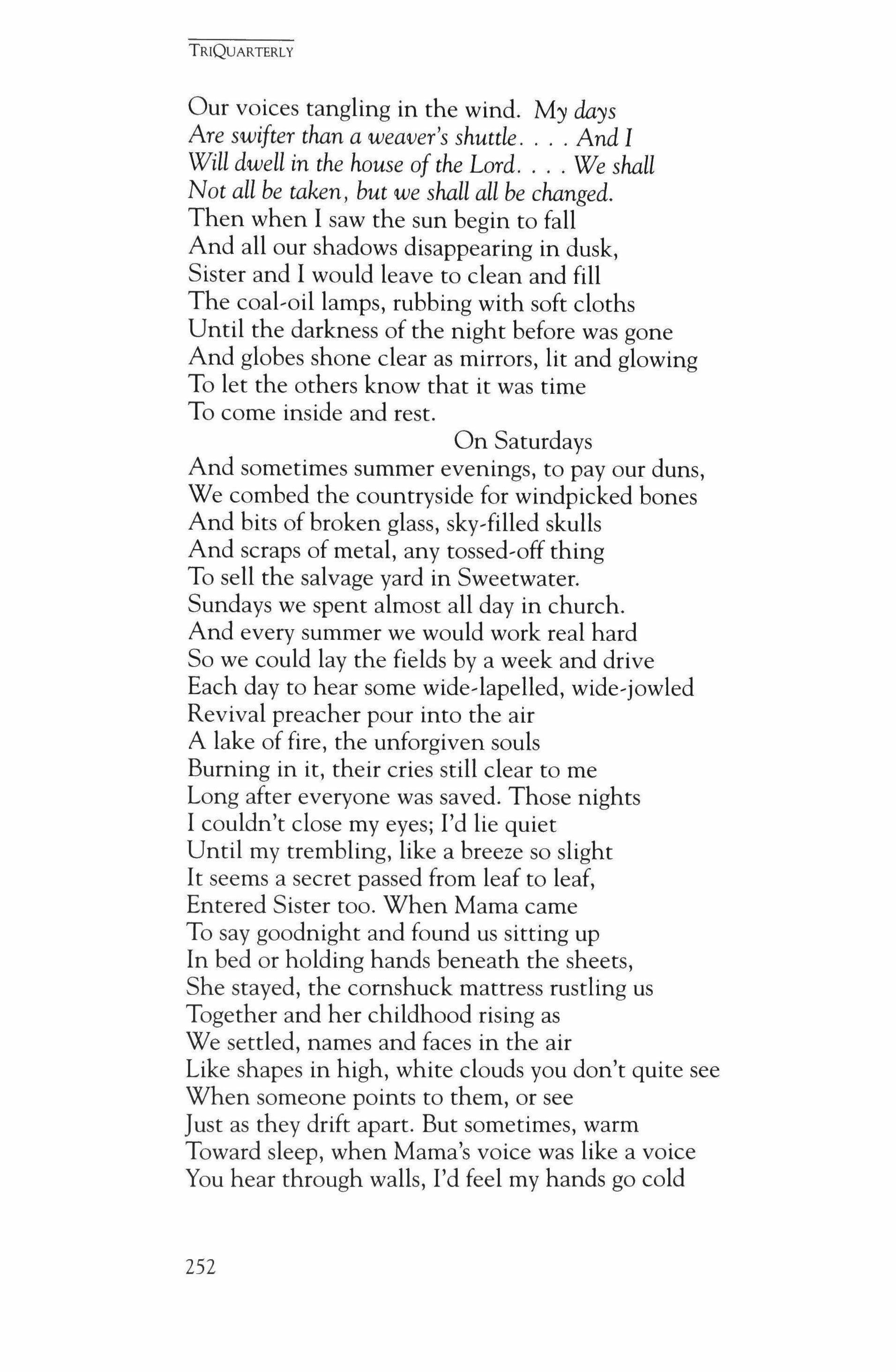
On Saturdays
And sometimes summer evenings, to pay our duns, We combed the countryside for windpicked bones And bits of broken glass, sky-filled skulls
And scraps of metal, any tossed,off thing
To sell the salvage yard in Sweetwater.
Sundays we spent almost all day in church. And every summer we would work real hard
So we could lay the fields by a week and drive
Each day to hear some wide-lapelled, wide-jowled Revival preacher pour into the air
A lake of fire, the unforgiven souls
Burning in it, their cries still clear to me
Long after everyone was saved. Those nights I couldn't close my eyes; I'd lie quiet
Until my trembling, like a breeze so slight
It seems a secret passed from leaf to leaf, Entered Sister too. When Mama came To say goodnight and found us sitting up
In bed or holding hands beneath the sheets, She stayed, the cornshuck mattress rustling us
Together and her childhood rising as We settled, names and faces in the air
Like shapes in high, white clouds you don't quite see
When someone points to them, or see
Just as they drift apart. But sometimes, warm Toward sleep, when Mama's voice was like a voice
You hear through walls, I'd feel my hands go cold
TRIQUARTERLY
252
Against the only pane of light for miles, And see, inside, a woman and a child, Grandma Boatwright and Mama, late at night, Piecing the very quilt that covered me. Or I would pause, in the leaf-sifted light
Beyond her secret clearing in the trees, Because a branch cracked underfoot, or the dead Leaves whispered where I was, and Mama, lost In thought, a child, had lifted up her head And looked right through me, listening I knew,
Though it was years before she said a word About it, Mama wanted to leave. Once, While Papa blessed our food and prayed the day
Might come we'd own that farm, she squeezed my hand
Until it hurt and kept on squeezing hard
A moment when the prayer was done, let go Suddenly and looked in Papa's eyes and said Amen. She'd keep a letter from Carolina A week or more, before she'd bring it out
One night when everyone was on the porch And read into the evening's scattered sounds, Her voice at times so soft it seemed to change Into a killdeer's cry, carrying far
Across the fields and coming back as words Again: details and conversations which, Later, when I would read the letters myself, Weren't there. And she would always try to lead Grandma or Grandpa back into that world
With her, asking questions and unraveling Answers until they'd start remembering too, Their lives like smoke unspooling from a candle's Flame, lazily curling into the air
Until the years they'd lived had melted down
To that particular moment: Mama folding up
The letter, no one making a sound, and the fireflies
Flashing out in the dark yard like keyholes
From moving rooms.
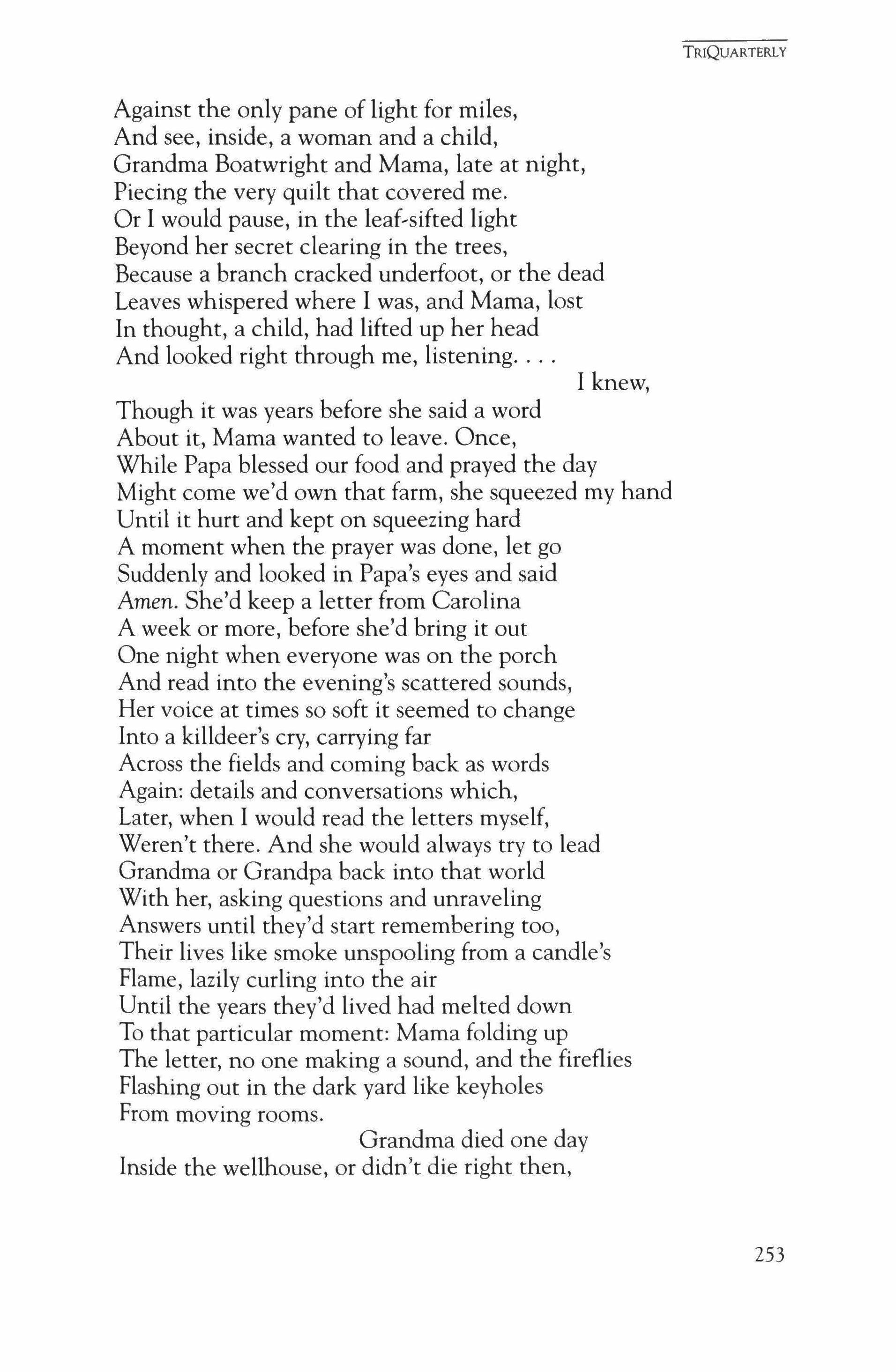
Grandma died one day
Inside the wellhouse, or didn't die right then,
TRIQUARTERLY 253
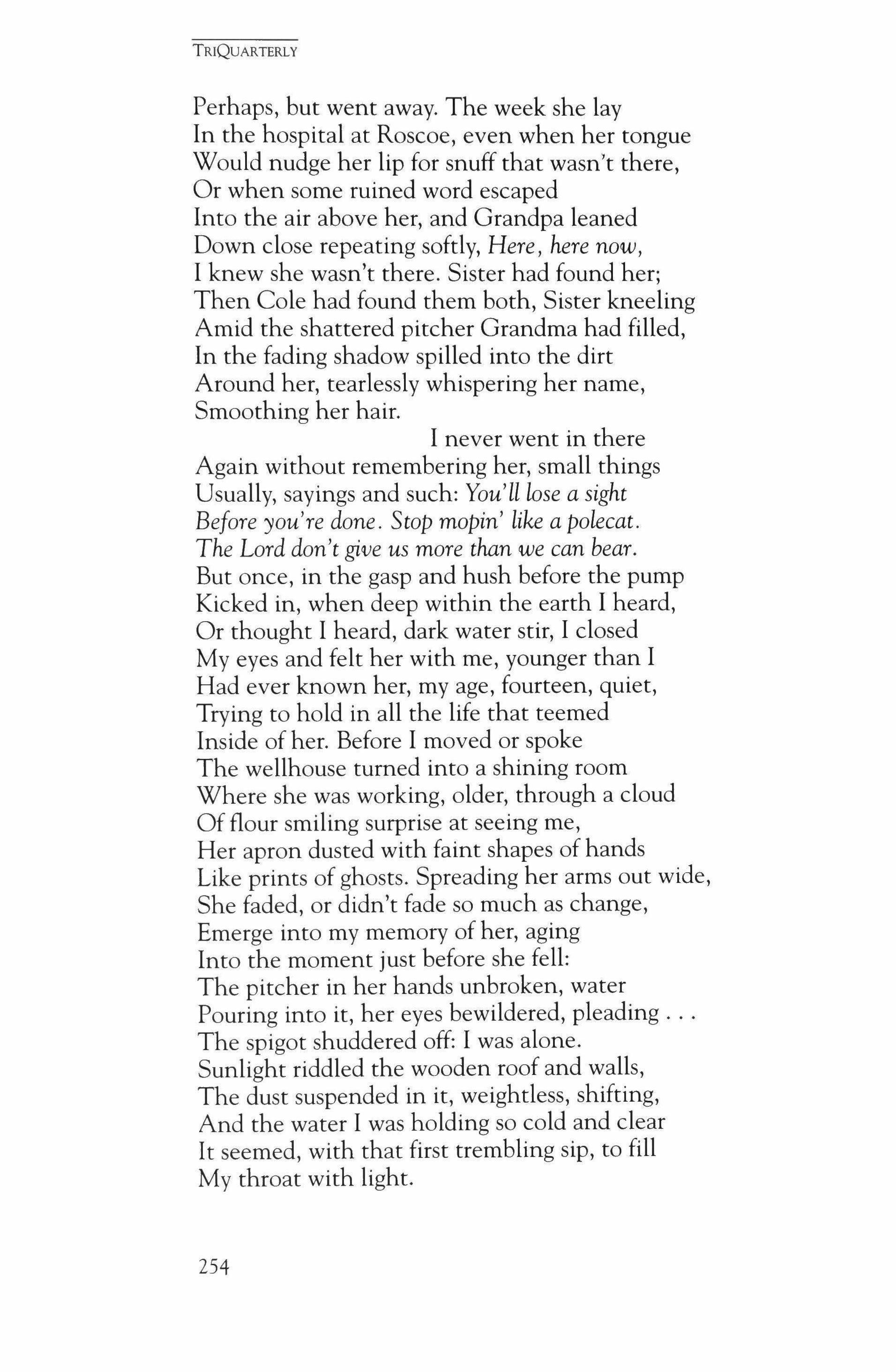
Perhaps, but went away. The week she lay In the hospital at Roscoe, even when her tongue Would nudge her lip for snuff that wasn't there, Or when some ruined word escaped Into the air above her, and Grandpa leaned Down close repeating softly, Here, here now, I knew she wasn't there. Sister had found her; Then Cole had found them both, Sister kneeling Amid the shattered pitcher Grandma had filled, In the fading shadow spilled into the dirt Around her, tearlessly whispering her name, Smoothing her hair.
I never went in there
Again without remembering her, small things
Usually, sayings and such: You'll lose a sight Before you're done. Stop mopin' like a polecat. The Lord don't give us more than we can bear. But once, in the gasp and hush before the pump Kicked in, when deep within the earth I heard, Or thought I heard, dark water stir, I closed My eyes and felt her with me, younger than I Had ever known her, my age, fourteen, quiet, Trying to hold in all the life that teemed Inside of her. Before I moved or spoke
The wellhouse turned into a shining room
Where she was working, older, through a cloud Of flour smiling surprise at seeing me, Her apron dusted with faint shapes of hands
Like prints of ghosts. Spreading her arms out wide, She faded, or didn't fade so much as change, Emerge into my memory ofher, aging Into the moment just before she fell:
The pitcher in her hands unbroken, water Pouring into it, her eyes bewildered, pleading The spigot shuddered off: I was alone.
Sunlight riddled the wooden roof and walls, The dust suspended in it, weightless, shifting, And the water I was holding so cold and clear It seemed, with that first trembling sip, to fill
My throat with light.
TRIQUARTERLY
254
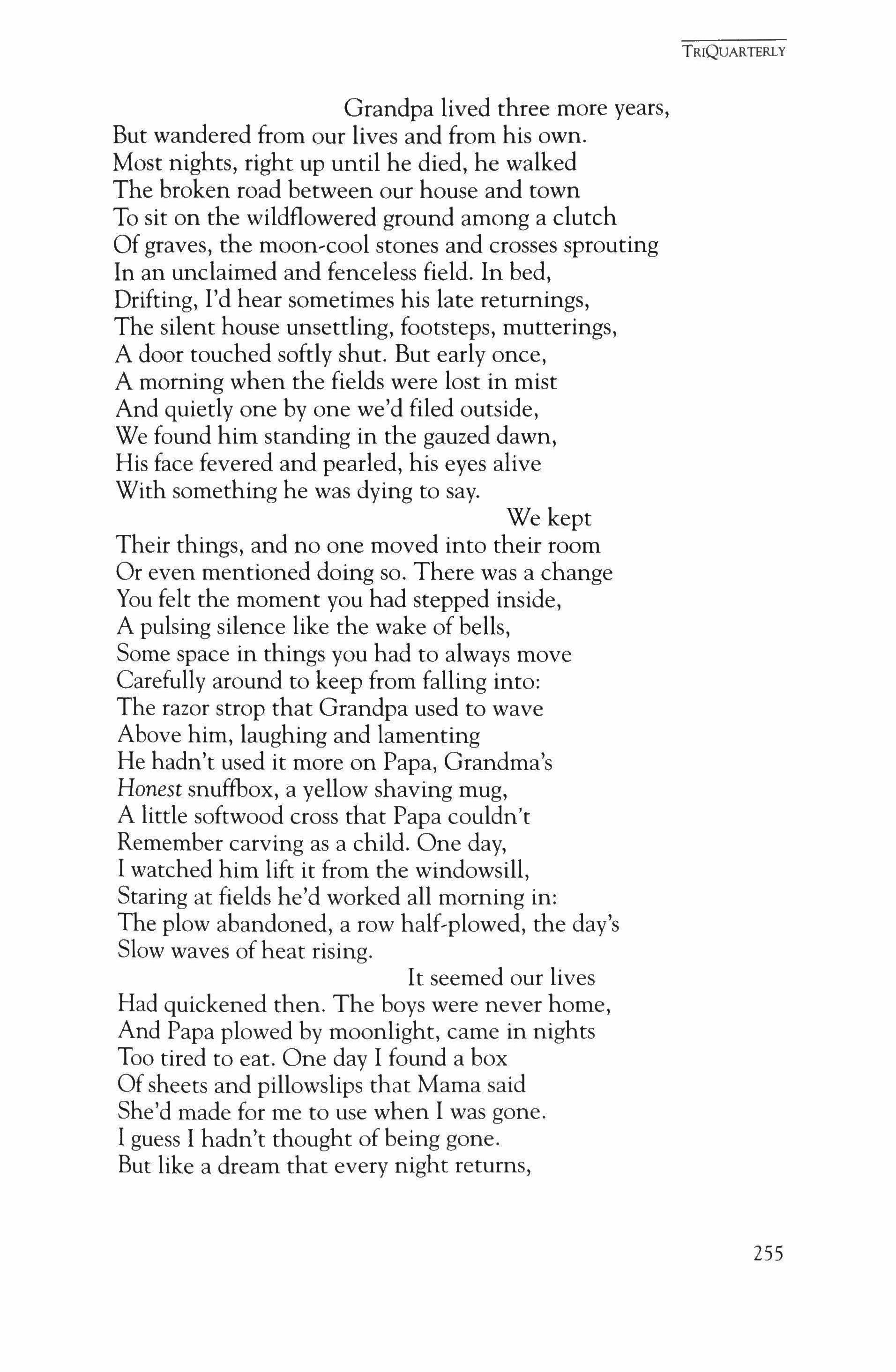
Grandpa lived three more years, But wandered from our lives and from his own.
Most nights, right up until he died, he walked The broken road between our house and town
To sit on the wildflowered ground among a clutch Of graves, the moon-cool stones and crosses sprouting In an unclaimed and fenceless field. In bed, Drifting, I'd hear sometimes his late returnings, The silent house unsettling, footsteps, mutterings, A door touched softly shut. But early once, A morning when the fields were lost in mist And quietly one by one we'd filed outside, We found him standing in the gauzed dawn, His face fevered and pearled, his eyes alive With something he was dying to say.
We kept Their things, and no one moved into their room Or even mentioned doing so. There was a change You felt the moment you had stepped inside, A pulsing silence like the wake of bells, Some space in things you had to always move Carefully around to keep from falling into:
The razor strop that Grandpa used to wave Above him, laughing and lamenting
He hadn't used it more on Papa, Grandma's Honest snuffbox, a yellow shaving mug, A little softwood cross that Papa couldn't Remember carving as a child. One day, I watched him lift it from the windowsill, Staring at fields he'd worked all morning in: The plow abandoned, a row half-plowed, the day's Slow waves of heat rising.
It seemed our lives Had quickened then. The boys were never home, And Papa plowed by moonlight, came in nights Too tired to eat. One day I found a box Of sheets and pillowslips that Mama said She'd made for me to use when I was gone. I guess I hadn't thought of being gone. But like a dream that every night returns,
TRIQUARTERLY 255
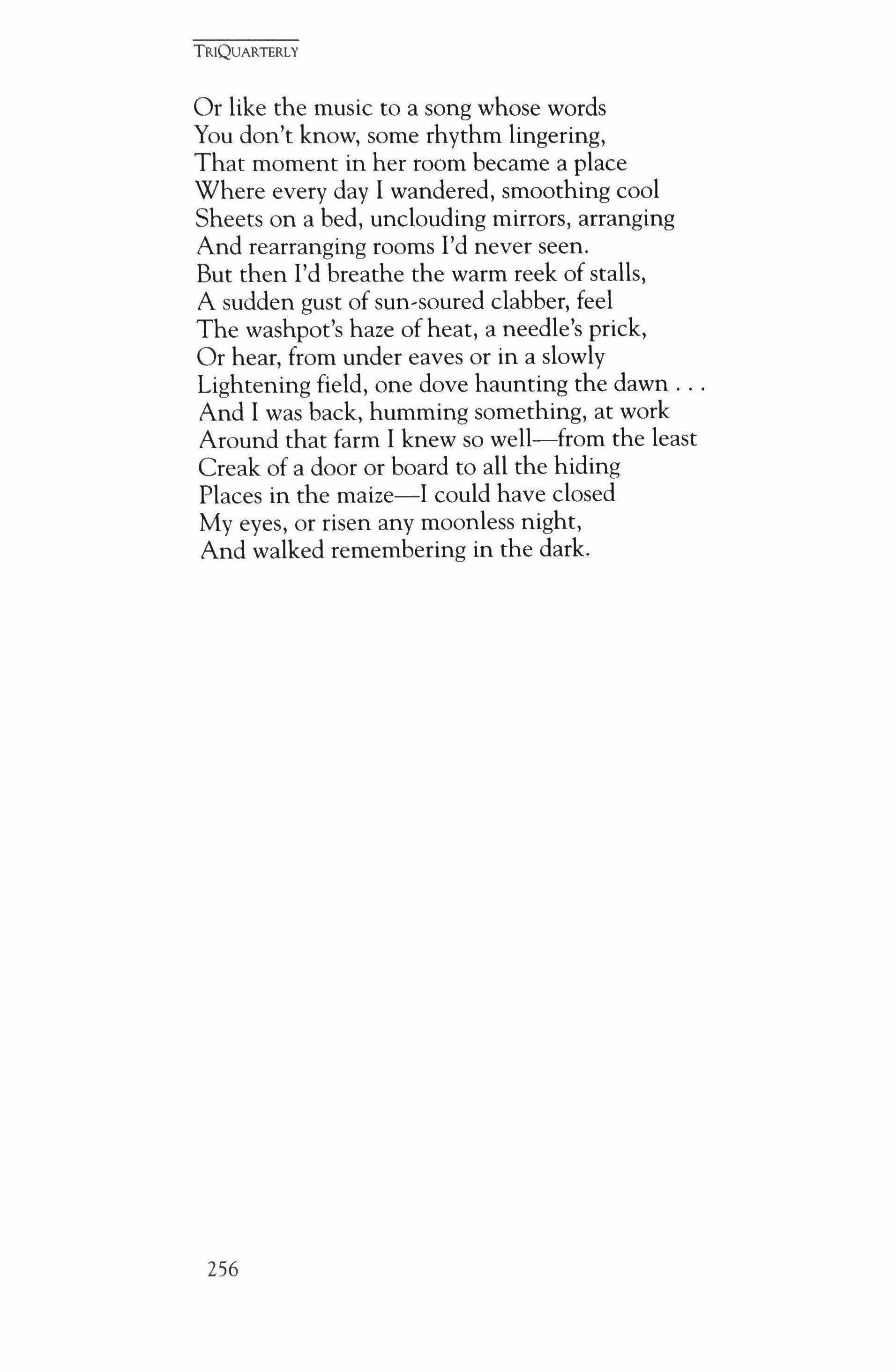
Or like the music to a song whose words You don't know, some rhythm lingering, That moment in her room became a place Where every day I wandered, smoothing cool Sheets on a bed, unclouding mirrors, arranging And rearranging rooms I'd never seen. But then I'd breathe the warm reek of stalls, A sudden gust of sun-soured clabber, feel The washpot's haze of heat, a needle's prick, Or hear, from under eaves or in a slowly Lightening field, one dove haunting the dawn And I was back, humming something, at work Around that farm I knew so well-from the least Creak of a door or board to all the hiding Places in the maize-I could have closed My eyes, or risen any moonless night, And walked remembering in the dark.
TRIQUARTERLY
256
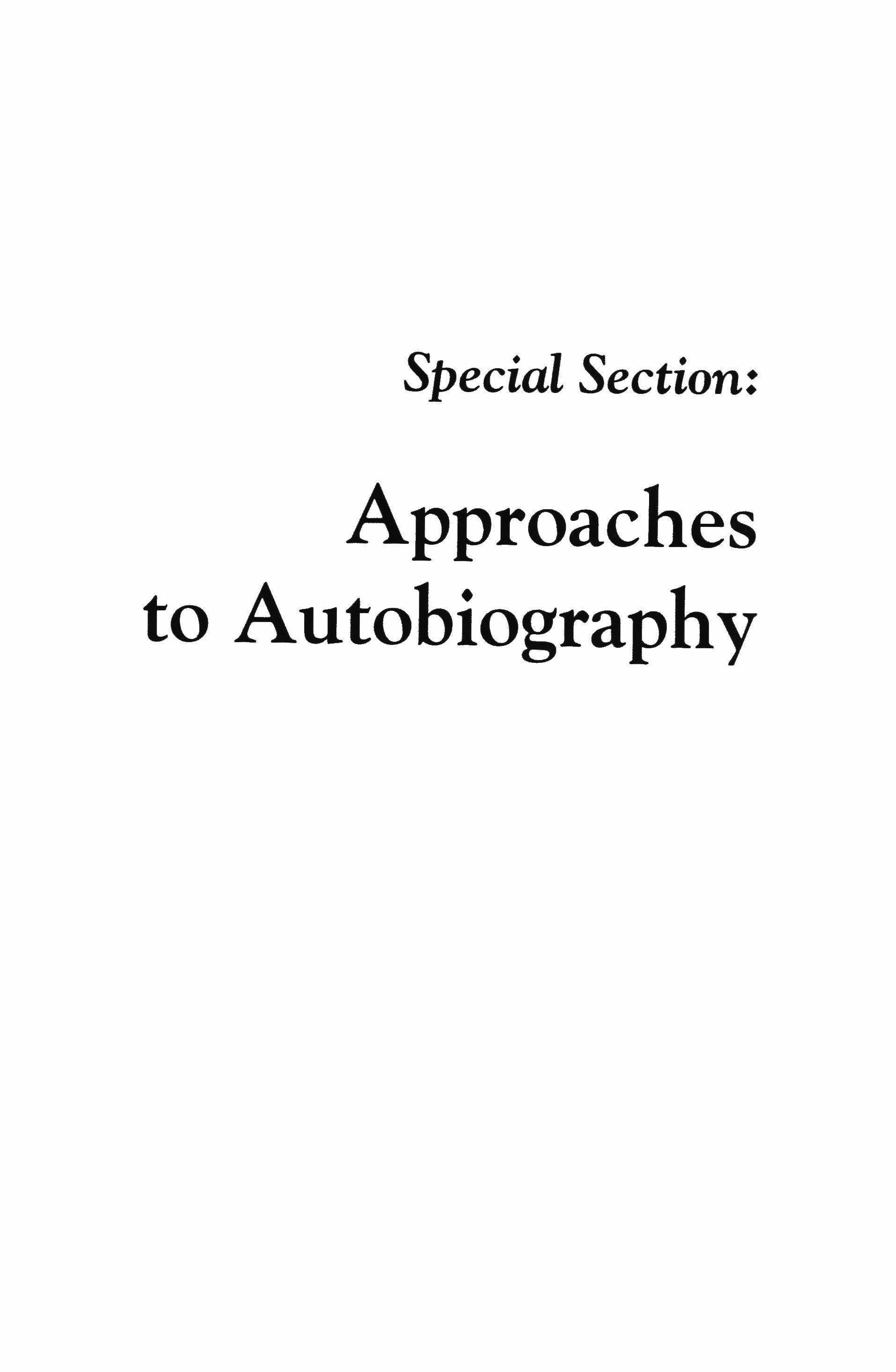
Special Section: Approaches to Autobiography

My Algeriance
in other words
To Depart not to Arrive from Algeria
Helene Cixous
Translated from the French by
Eric Prenowitz
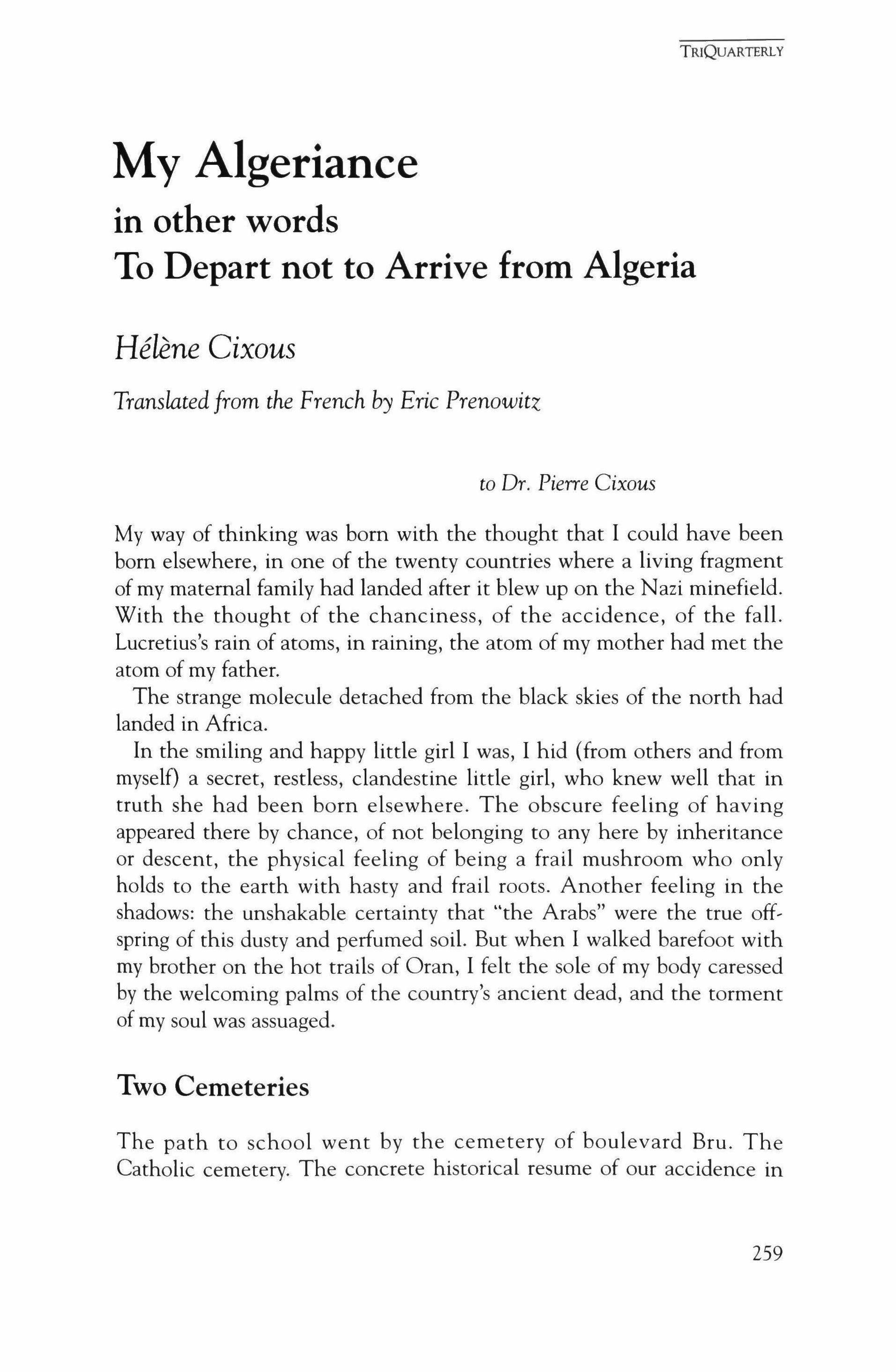
to Dr. Pierre Cixous
My way of thinking was born with the thought that I could have been born elsewhere, in one of the twenty countries where a living fragment of my maternal family had landed after it blew up on the Nazi minefield. With the thought of the chanciness, of the accidence, of the fall. Lucretius's rain of atoms, in raining, the atom of my mother had met the atom of my father.
The strange molecule detached from the black skies of the north had landed in Africa.
In the smiling and happy little girl I was, I hid (from others and from myself) a secret, restless, clandestine little girl, who knew well that in truth she had been born elsewhere. The obscure feeling of having appeared there by chance, of not belonging to any here by inheritance or descent, the physical feeling of being a frail mushroom who only holds to the earth with hasty and frail roots. Another feeling in the shadows: the unshakable certainty that "the Arabs" were the true offspring of this dusty and perfumed soil. But when I walked barefoot with my brother on the hot trails of Oran, I felt the sole of my body caressed by the welcoming palms of the country's ancient dead, and the torment of my soul was assuaged.
Two Cemeteries
The path to school went by the cemetery of boulevard Bru. The Catholic cemetery. The concrete historical resume of our accidence in
TRIQUARTERLY
259
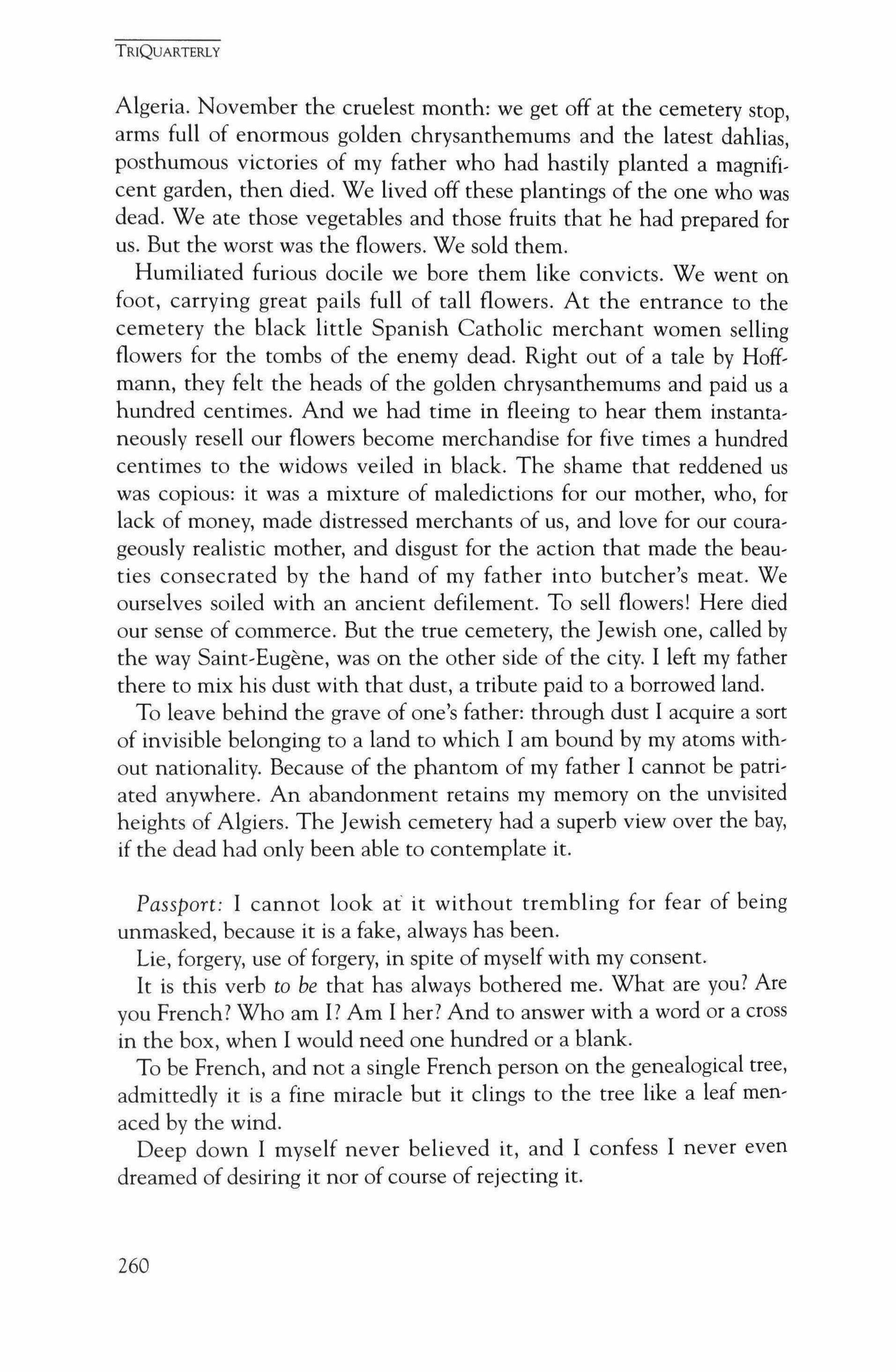
Algeria. November the cruelest month: we get off at the cemetery stop, arms full of enormous golden chrysanthemums and the latest dahlias, posthumous victories of my father who had hastily planted a magnificent garden, then died. We lived off these plantings of the one who was dead. We ate those vegetables and those fruits that he had prepared for us. But the worst was the flowers. We sold them.
Humiliated furious docile we bore them like convicts. We went on foot, carrying great pails full of tall flowers. At the entrance to the cemetery the black little Spanish Catholic merchant women selling flowers for the tombs of the enemy dead. Right out of a tale by Hoffmann, they felt the heads of the golden chrysanthemums and paid us a hundred centimes. And we had time in fleeing to hear them instantaneously resell our flowers become merchandise for five times a hundred centimes to the widows veiled in black. The shame that reddened us was copious: it was a mixture of maledictions for our mother, who, for lack of money, made distressed merchants of us, and love for our courageously realistic mother, and disgust for the action that made the beauties consecrated by the hand of my father into butcher's meat. We ourselves soiled with an ancient defilement. To sell flowers! Here died our sense of commerce. But the true cemetery, the Jewish one, called by the way Saint-Eugene, was on the other side of the city. I left my father there to mix his dust with that dust, a tribute paid to a borrowed land.
To leave behind the grave of one's father: through dust I acquire a sort of invisible belonging to a land to which I am bound by my atoms without nationality. Because of the phantom of my father I cannot be patriated anywhere. An abandonment retains my memory on the unvisited heights of Algiers. The Jewish cemetery had a superb view over the bay, if the dead had only been able to contemplate it.
Passport: I cannot look at' it without trembling for fear of being unmasked, because it is a fake, always has been.
Lie, forgery, use of forgery, in spite of myself with my consent.
It is this verb to be that has always bothered me. What are you? Are you French? Who am I? Am I her? And to answer with a word or a cross in the box, when I would need one hundred or a blank.
To be French, and not a single French person on the genealogical tree, admittedly it is a fine miracle but it clings to the tree like a leaf menaced by the wind.
Deep down I myself never believed it, and I confess I never even dreamed of desiring it nor of course of rejecting it.
TRIQUARTERLY
260
And yet I must say that in the uncontrollable fall of which I am the result, I have the feeling that I had a lucky landing. And subsequently, as if there were a fatality of good fortune for me, that I have not stopped landing luckily and also just in time, just before the abyss or the prison wall.
Lucky landing: this is also due to a geographic and symbolic openness of France, a country which always seemed to me to manifest a porosity-country with maritime and voyager shores, escaping by chance the enclaved structures of Mitteleuropa, for example, a traveled, passedthrough, invaded, crossbred country, a country with ports, and not interned or withdrawn. I rejoiced in French passporosity.
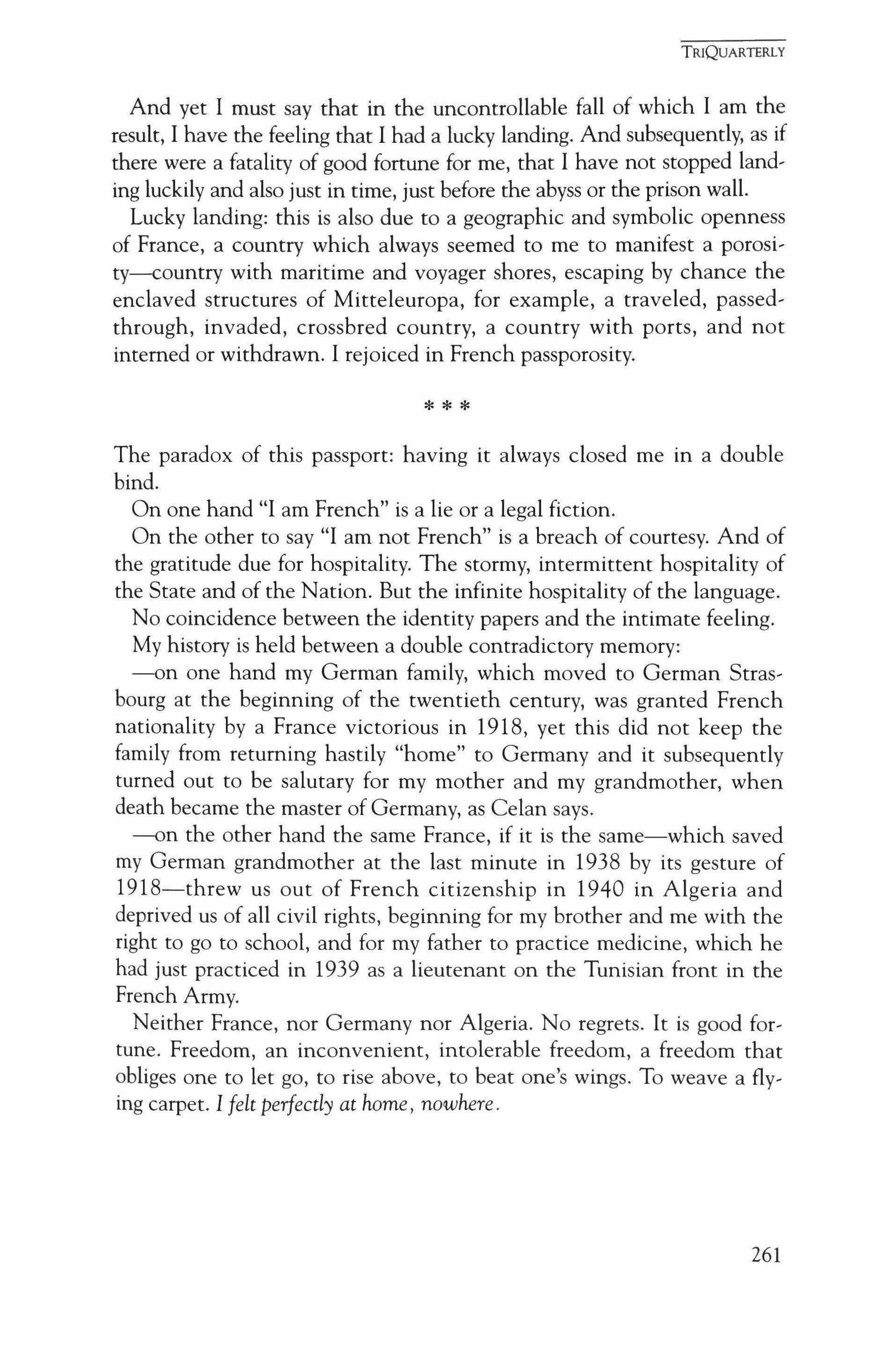
The paradox of this passport: having it always closed me in a double bind.
On one hand "I am French" is a lie or a legal fiction.
On the other to say "I am not French" is a breach of courtesy. And of the gratitude due for hospitality. The stormy, intermittent hospitality of the State and of the Nation. But the infinite hospitality of the language. No coincidence between the identity papers and the intimate feeling.
My history is held between a double contradictory memory:
-on one hand my German family, which moved to German Strasbourg at the beginning of the twentieth century, was granted French nationality by a France victorious in 1918, yet this did not keep the family from returning hastily "home" to Germany and it subsequently turned out to be salutary for my mother and my grandmother, when death became the master of Germany, as Celan says.
-on the other hand the same France, if it is the same-which saved my German grandmother at the last minute in 1938 by its gesture of 1918-threw us out of French citizenship in 1940 in Algeria and deprived us of all civil rights, beginning for my brother and me with the right to go to school, and for my father to practice medicine, which he had just practiced in 1939 as a lieutenant on the Tunisian front in the French Army.
Neither France, nor Germany nor Algeria. No regrets. It is good fortune. Freedom, an inconvenient, intolerable freedom, a freedom that obliges one to let go, to rise above, to beat one's wings. To weave a flying carpet. I felt perfectly at home) nowhere.
TRIQUARTERLY
***
261
Wars
North Africa was an arid and perfumed theater, salt, jasmine, orange blossoms, where violent plays were staged
The scene was always war, they only changed wars, and above the pink and brown Tell plains and tableland the rainbow was bleu�blanc� rouge.
We always lived in the episodes of a brutal Algeriad, thrown from birth into one of the camps crudely fashioned by the demon of Coloniality. One said: "the Arabs"; "the French." And one was forcibly played in the play, with a false identity. Caricature-camps. The masks hold forth with the archetypal discourses that accompany the determined oppositions like battle drums.
The Chorus of the French hurled out with a single voice that the Arabs were: dirty-lazy-incapable-thieves.
It was the reign of the insult and the apostrophe.
The characters were simplified and purified ethnically grouped people, one said: the Arabs and the French, and also the Jews and the Catholics (and no Berbers) (and no Protestants). But in our families concerned with others one used words pronounced above the mud and the gutter: "Israelites" "Muslims" or "Indigenes." A great-uncle once removed owned a small clothes store down rue Philippe called "Le Pauvre Indigene."
The noun "Algerian" was born very recently. Previously, "Algerian" was only an adjective.
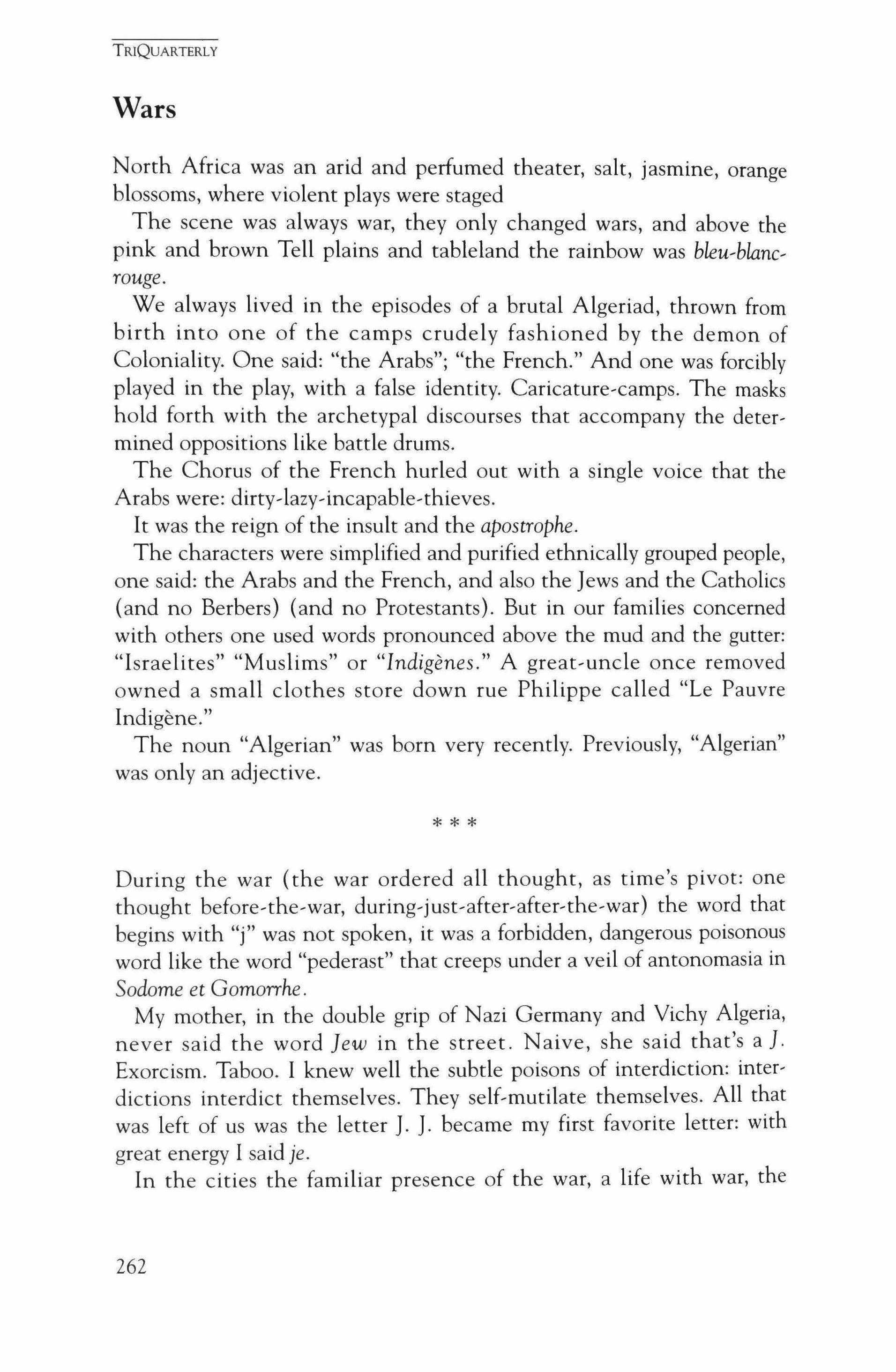
During the war (the war ordered all thought, as time's pivot: one thought before-the-war, during-just-after-after-the-war) the word that begins with "j" was not spoken, it was a forbidden, dangerous poisonous word like the word "pederast" that creeps under a veil of antonomasia in Sodome et Gomorrhe.
My mother, in the double grip of Nazi Germany and Vichy Algeria, never said the word Jew in the street. Naive, she said that's a J. Exorcism. Taboo. I knew well the subtle poisons of interdiction: interdictions interdict themselves. They self-mutilate themselves. All that was left of us was the letter J. J. became my first favorite letter: with great energy I said je.
In the cities the familiar presence of the war, a life with war, the
TRIQUARTERLY
* * *
262
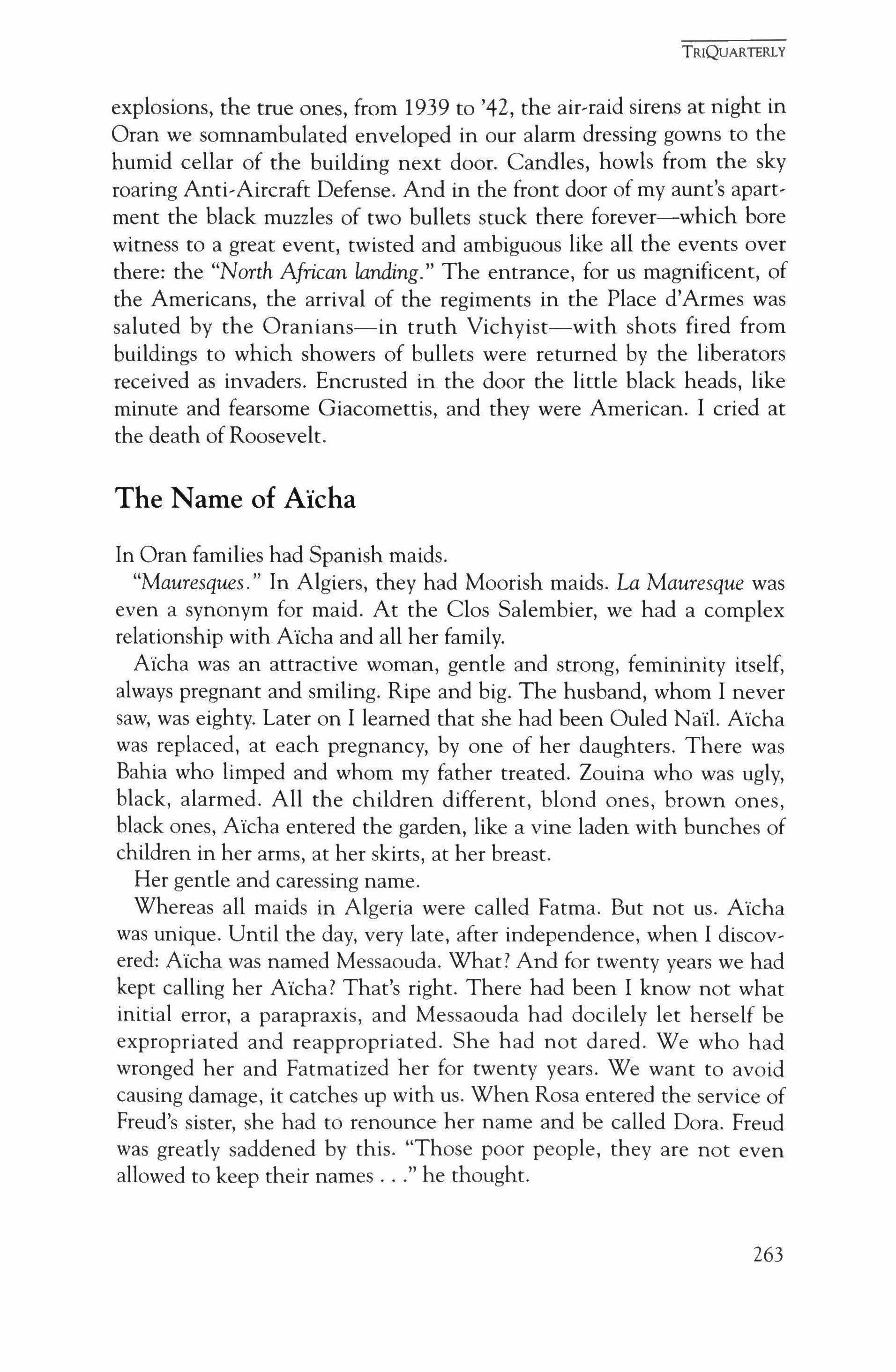
explosions, the true ones, from 1939 to '42, the air-raid sirens at night in Oran we somnambulated enveloped in our alarm dressing gowns to the humid cellar of the building next door. Candles, howls from the sky roaring Anti-Aircraft Defense. And in the front door of my aunt's apartment the black muzzles of two bullets stuck there forever-which bore witness to a great event, twisted and ambiguous like all the events over there: the "North African landing." The entrance, for us magnificent, of the Americans, the arrival of the regiments in the Place d'Armes was saluted by the Oranians-in truth Vichyist-with shots fired from buildings to which showers of bullets were returned by the liberators received as invaders. Encrusted in the door the little black heads, like minute and fearsome Giacomettis, and they were American. I cried at the death of Roosevelt.
The Name of Atcha
In Oran families had Spanish maids. "Mauresques." In Algiers, they had Moorish maids. La Mauresque was even a synonym for maid. At the Clos Salembier, we had a complex relationship with Aicha and all her family.
Archa was an attractive woman, gentle and strong, femininity itself, always pregnant and smiling. Ripe and big. The husband, whom I never saw, was eighty. Later on I learned that she had been Ouled Nail. Aicha was replaced, at each pregnancy, by one of her daughters. There was Bahia who limped and whom my father treated. Zouina who was ugly, black, alarmed. All the children different, blond ones, brown ones, black ones, Aicha entered the garden, like a vine laden with bunches of children in her arms, at her skirts, at her breast.
Her gentle and caressing name.
Whereas all maids in Algeria were called Fatma. But not us. Aicha was unique. Until the day, very late, after independence, when I discovered: Aicha was named Messaouda. What? And for twenty years we had kept calling her Archai That's right. There had been I know not what initial error, a parapraxis, and Messaouda had docilely let herself be expropriated and reappropriated. She had not dared. We who had wronged her and Fatrnatized her for twenty years. We want to avoid causing damage, it catches up with us. When Rosa entered the service of Freud's sister, she had to renounce her name and be called Dora. Freud was greatly saddened by this. "Those poor people, they are not even allowed to keep their names he thought.
TRIQUARTERLY
263
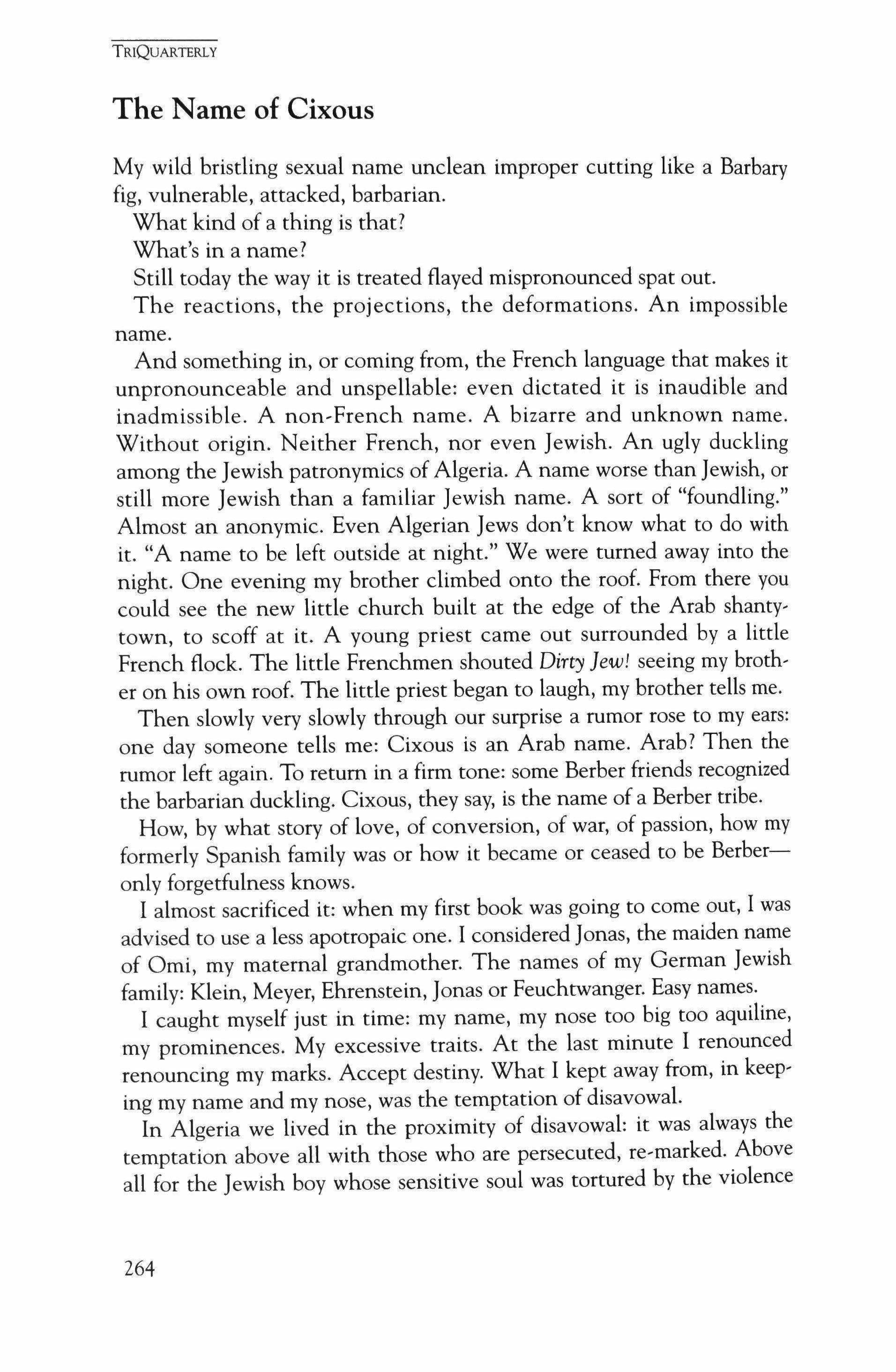
The Name of Cixous
My wild bristling sexual name unclean improper cutting like a Barbary fig, vulnerable, attacked, barbarian.
What kind of a thing is that?
What's in a name?
Still today the way it is treated flayed mispronounced spat out. The reactions, the projections, the deformations. An impossible name.
And something in, or coming from, the French language that makes it unpronounceable and unspellable: even dictated it is inaudible and inadmissible. A non-French name. A bizarre and unknown name. Without origin. Neither French, nor even Jewish. An ugly duckling among the Jewish patronymics of Algeria. A name worse than Jewish, or still more Jewish than a familiar Jewish name. A sort of "foundling." Almost an anonymic. Even Algerian Jews don't know what to do with it. "A name to be left outside at night." We were turned away into the night. One evening my brother climbed onto the roof. From there you could see the new little church built at the edge of the Arab shantytown, to scoff at it. A young priest came out surrounded by a little French flock. The little Frenchmen shouted Dirty Jew! seeing my brother on his own roof. The little priest began to laugh, my brother tells me.
Then slowly very slowly through our surprise a rumor rose to my ears: one day someone tells me: Cixous is an Arab name. Arab? Then the rumor left again. To return in a firm tone: some Berber friends recognized the barbarian duckling. Cixous, they say, is the name of a Berber tribe.
How, by what story of love, of conversion, of war, of passion, how my formerly Spanish family was or how it became or ceased to be Berberonly forgetfulness knows.
I almost sacrificed it: when my first book was going to come out, I was advised to use a less apotropaic one. I considered Jonas, the maiden name of Omi, my maternal grandmother. The names of my German Jewish family: Klein, Meyer, Ehrenstein, Jonas or Feuchtwanger. Easy names.
I caught myself just in time: my name, my nose too big too aquiline, my prominences. My excessive traits. At the last minute I renounced renouncing my marks. Accept destiny. What I kept away from, in keeping my name and my nose, was the temptation of disavowal.
In Algeria we lived in the proximity of disavowal: it was always the temptation above all with those who are persecuted, re-marked. Above all for the Jewish boy whose sensitive soul was tortured by the violence
TRIQUARTERLY
264
and vulgarity of part of the Jewish community itself, and who would have given dearly to escape circumcision, the ineluctable and intolerable election that nails the Jewish boy's body to an identity he has not chosen.
The exasperation prompted him to change sides, to make a break with endogamy, to reject the fate that had anticipated his word and his decision. I will never marry a Jewish woman, said my brother. And I who was not a Jewish (and tattooed) man, I understood this revolt. I, who had not been marked by the knife, and whose body had not been decided before me, I could choose.
(The extent to which the Jews of Algeria, save exception, were altered, amnesiated of their own culture, illiterate in their own language Hebrew was always a painful experience and one that would require the long analysis Jacques has achieved, but which I could measure at my house in the difference: my maternal family came from Germany, et cetera having lost everything but with a baggage of memory tradition knowledge, language-which was secular and entirely intact in spite of the devastation.
While the Jewish community of Algeria seemed to have sold its soul to France and for nothing, no longer being either this or that and living in its majority of cultural makeshifts and of simulations. It was my mother who informed my father about the meaning of Jewish ceremonies, of which he knew only the names and the obligations.)
I was afraid of listening to a fear. The fear of my brothers.
I was afraid also of cunning, and of temptation and of the temptation of cunning.
I wanted to remain faithful to chance, to mystery and above all to difficulty.
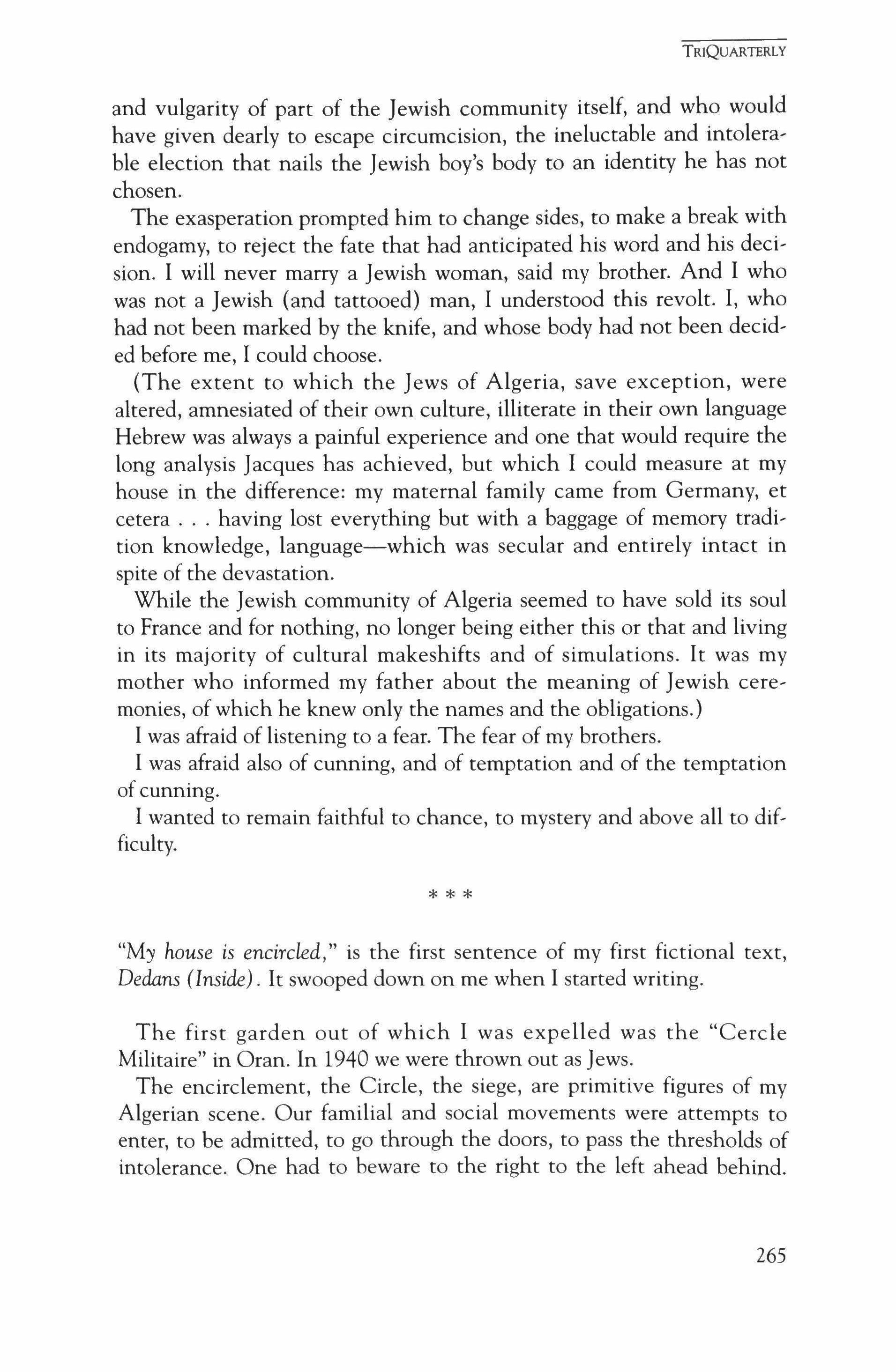
"My house is encircled," is the first sentence of my first fictional text, Dedans (Inside). It swooped down on me when I started writing.
The first garden out of which I was expelled was the "Cercle Militaire" in Oran. In 1940 we were thrown out as Jews.
The encirclement, the Circle, the siege, are primitive figures of my Algerian scene. Our familial and social movements were attempts to enter, to be admitted, to go through the doors, to pass the thresholds of intolerance. One had to beware to the right to the left ahead behind.
TRIQUARTERLY
* * *
265
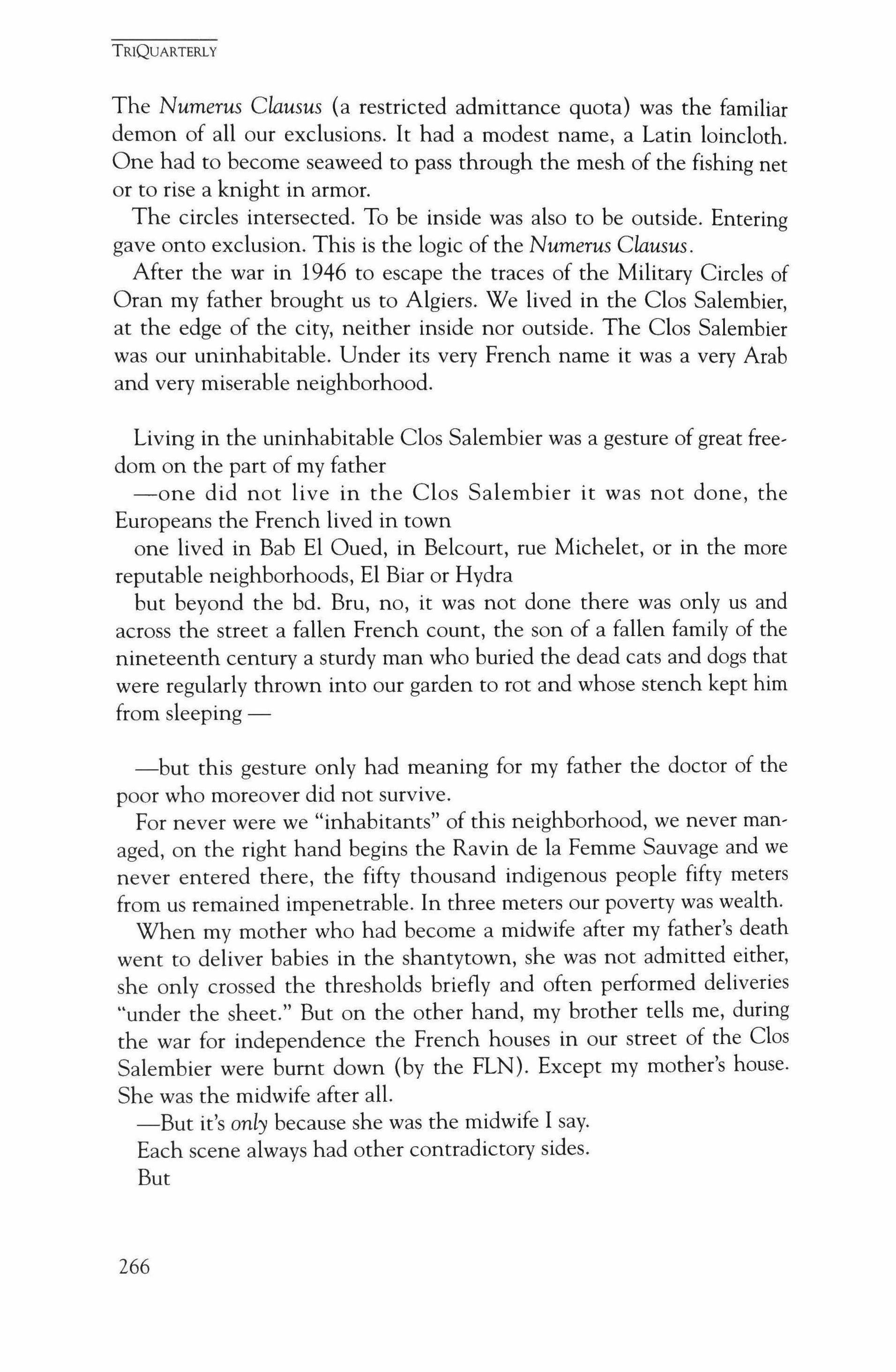
The Numerus Clausus (a restricted admittance quota) was the familiar demon of all our exclusions. It had a modest name, a Latin loincloth. One had to become seaweed to pass through the mesh of the fishing net or to rise a knight in armor.
The circles intersected. To be inside was also to be outside. Entering gave onto exclusion. This is the logic of the Numerus ClaUSUS.
After the war in 1946 to escape the traces of the Military Circles of Oran my father brought us to Algiers. We lived in the Clos Salembier, at the edge of the city, neither inside nor outside. The Clos Salembier was our uninhabitable. Under its very French name it was a very Arab and very miserable neighborhood.
Living in the uninhabitable Clos Salembier was a gesture of great freedom on the part of my father
-one did not live in the Clos Salembier it was not done, the Europeans the French lived in town one lived in Bab EI Oued, in Belcourt, rue Michelet, or in the more reputable neighborhoods, EI Biar or Hydra but beyond the bd. Bru, no, it was not done there was only us and across the street a fallen French count, the son of a fallen family of the nineteenth century a sturdy man who buried the dead cats and dogs that were regularly thrown into our garden to rot and whose stench kept him from sleeping -
-but this gesture only had meaning for my father the doctor of the poor who moreover did not survive.
For never were we "inhabitants" of this neighborhood, we never managed, on the right hand begins the Ravin de la Femme Sauvage and we never entered there, the fifty thousand indigenous people fifty meters from us remained impenetrable. In three meters our poverty was wealth.
When my mother who had become a midwife after my father's death went to deliver babies in the shantytown, she was not admitted either, she only crossed the thresholds briefly and often performed deliveries "under the sheet." But on the other hand, my brother tells me, during the war for independence the French houses in our street of the Clos Salembier were burnt down (by the FLN). Except my mother's house. She was the midwife after all.
-But it's only because she was the midwife I say. Each scene always had other contradictory sides. But
TRIQUARTERLY
266
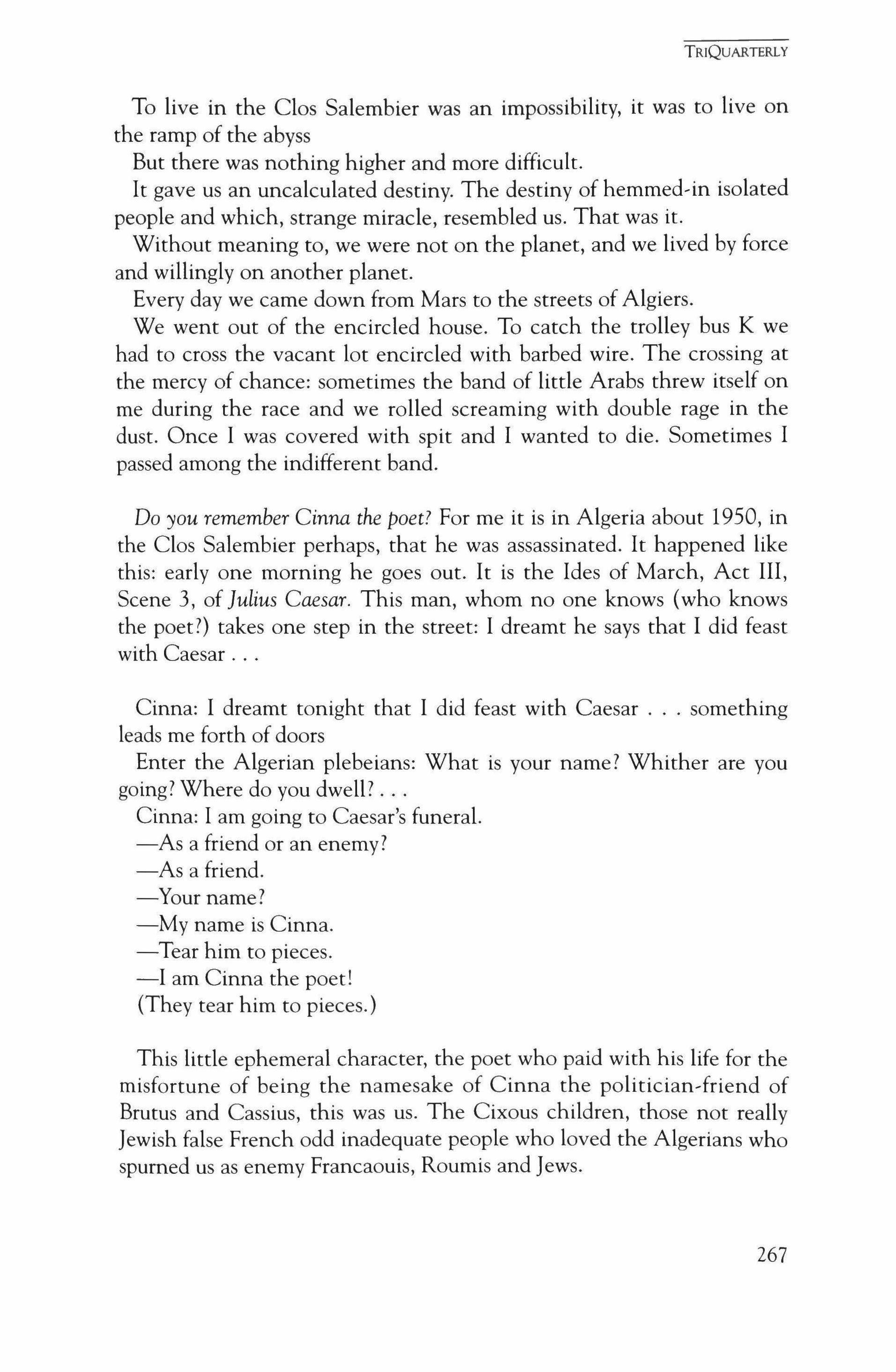
To live in the Clos Salembier was an impossibility, it was to live on the ramp of the abyss
But there was nothing higher and more difficult. It gave us an uncalculated destiny. The destiny of hemmed-in isolated people and which, strange miracle, resembled us. That was it.
Without meaning to, we were not on the planet, and we lived by force and willingly on another planet.
Every day we came down from Mars to the streets of Algiers.
We went out of the encircled house. To catch the trolley bus K we had to cross the vacant lot encircled with barbed wire. The crossing at the mercy of chance: sometimes the band of little Arabs threw itself on me during the race and we rolled screaming with double rage in the dust. Once I was covered with spit and I wanted to die. Sometimes I passed among the indifferent band.
Do you remember Cinna the poet? For me it is in Algeria about 1950, in the Clos Salembier perhaps, that he was assassinated. It happened like this: early one morning he goes out. It is the Ides of March, Act III, Scene 3, of Julius Caesar. This man, whom no one knows (who knows the poet?) takes one step in the street: I dreamt he says that I did feast with Caesar
Cinna: I dreamt tonight that I did feast with Caesar something leads me forth of doors
Enter the Algerian plebeians: What is your name? Whither are you going? Where do you dwell?
Cinna: I am going to Caesar's funeral.
-As a friend or an enemy?
-As a friend.
-Your name?
-My name is Cinna.
-Tear him to pieces.
-I am Cinna the poet!
(They tear him to pieces.)
This little ephemeral character, the poet who paid with his life for the misfortune of being the namesake of Cinna the politician-friend of Brutus and Cassius, this was us. The Cixous children, those not really Jewish false French odd inadequate people who loved the Algerians who spurned us as enemy Francaouis, Roumis and Jews.
TRIQUARTERLY
267
TRIQUARTERLY
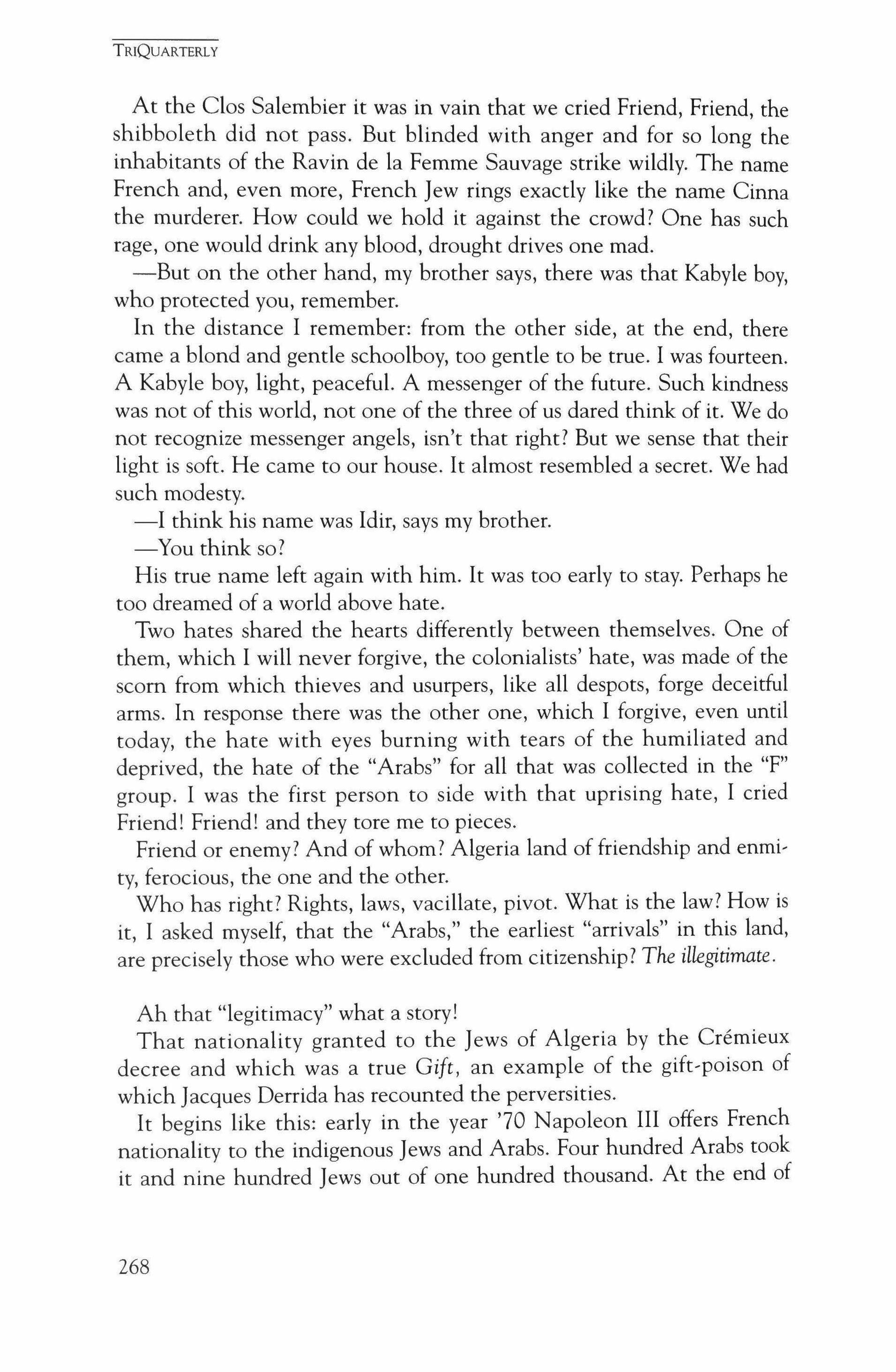
At the Clos Salembier it was in vain that we cried Friend, Friend, the shibboleth did not pass. But blinded with anger and for so long the inhabitants of the Ravin de la Femme Sauvage strike wildly. The name French and, even more, French Jew rings exactly like the name Cinna the murderer. How could we hold it against the crowd? One has such rage, one would drink any blood, drought drives one mad.
-But on the other hand, my brother says, there was that Kabyle boy, who protected you, remember.
In the distance I remember: from the other side, at the end, there came a blond and gentle schoolboy, too gentle to be true. I was fourteen. A Kabyle boy, light, peaceful. A messenger of the future. Such kindness was not of this world, not one of the three of us dared think of it. We do not recognize messenger angels, isn't that right? But we sense that their light is soft. He came to our house. It almost resembled a secret. We had such modesty.
-I think his name was Idir, says my brother.
-You think so?
His true name left again with him. It was too early to stay. Perhaps he too dreamed of a world above hate.
Two hates shared the hearts differently between themselves. One of them, which I will never forgive, the colonialists' hate, was made of the scorn from which thieves and usurpers, like all despots, forge deceitful arms. In response there was the other one, which I forgive, even until today, the hate with eyes burning with tears of the humiliated and deprived, the hate of the "Arabs" for all that was collected in the "F" group. I was the first person to side with that uprising hate, I cried Friend! Friend! and they tore me to pieces.
Friend or enemy? And of whom? Algeria land of friendship and enmity, ferocious, the one and the other.
Who has right? Rights, laws, vacillate, pivot. What is the law? How is it, I asked myself, that the "Arabs," the earliest "arrivals" in this land, are precisely those who were excluded from citizenship? The illegitimate.
Ah that "legitimacy" what a story!
That nationality granted to the Jews of Algeria by the Crernieux decree and which was a true Gift, an example of the gift-poison of which Jacques Derrida has recounted the perversities.
It begins like this: early in the year '70 Napoleon III offers French nationality to the indigenous Jews and Arabs. Four hundred Arabs took it and nine hundred Jews out of one hundred thousand. At the end of
268
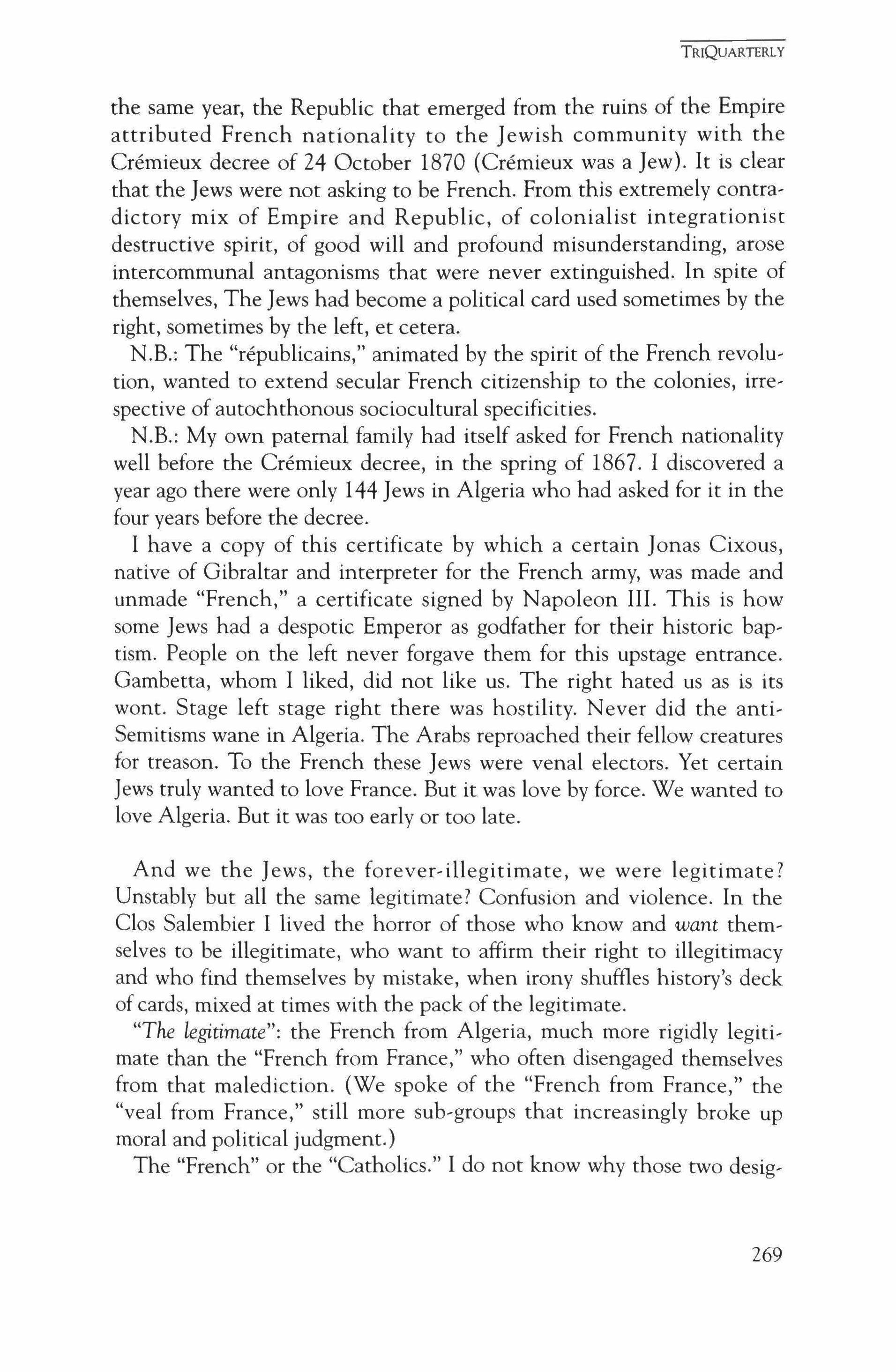
the same year, the Republic that emerged from the ruins of the Empire attributed French nationality to the Jewish community with the Crernieux decree of 24 October 1870 (Cremieux was a Jew). It is clear that the Jews were not asking to be French. From this extremely contra' dictory mix of Empire and Republic, of colonialist integrationist destructive spirit, of good will and profound misunderstanding, arose intercommunal antagonisms that were never extinguished. In spite of themselves, The Jews had become a political card used sometimes by the right, sometimes by the left, et cetera.
N.B.: The "republicains," animated by the spirit of the French revolution, wanted to extend secular French citizenship to the colonies, irrespective of autochthonous sociocultural specificities.
N.B.: My own paternal family had itself asked for French nationality well before the Cremieux decree, in the spring of 1867. I discovered a year ago there were only 144 Jews in Algeria who had asked for it in the four years before the decree.
I have a copy of this certificate by which a certain Jonas Cixous, native of Gibraltar and interpreter for the French army, was made and unmade "French," a certificate signed by Napoleon III. This is how some Jews had a despotic Emperor as godfather for their historic baptism. People on the left never forgave them for this upstage entrance. Gambetta, whom I liked, did not like us. The right hated us as is its wont. Stage left stage right there was hostility. Never did the anti, Semitisms wane in Algeria. The Arabs reproached their fellow creatures for treason. To the French these Jews were venal electors. Yet certain Jews truly wanted to love France. But it was love by force. We wanted to love Algeria. But it was too early or too late.
And we the Jews, the forever,illegitimate, we were legitimate? Unstably but all the same legitimate? Confusion and violence. In the Clos Salembier I lived the horror of those who know and want them, selves to be illegitimate, who want to affirm their right to illegitimacy and who find themselves by mistake, when irony shuffles history's deck of cards, mixed at times with the pack of the legitimate.
"The legitimate": the French from Algeria, much more rigidly legitimate than the "French from France," who often disengaged themselves from that malediction. (We spoke of the "French from France," the "veal from France," still more sub,groups that increasingly broke up moral and political judgment.)
The "French" or the "Catholics." I do not know why those two desig-
TRIQUARTERLY
269
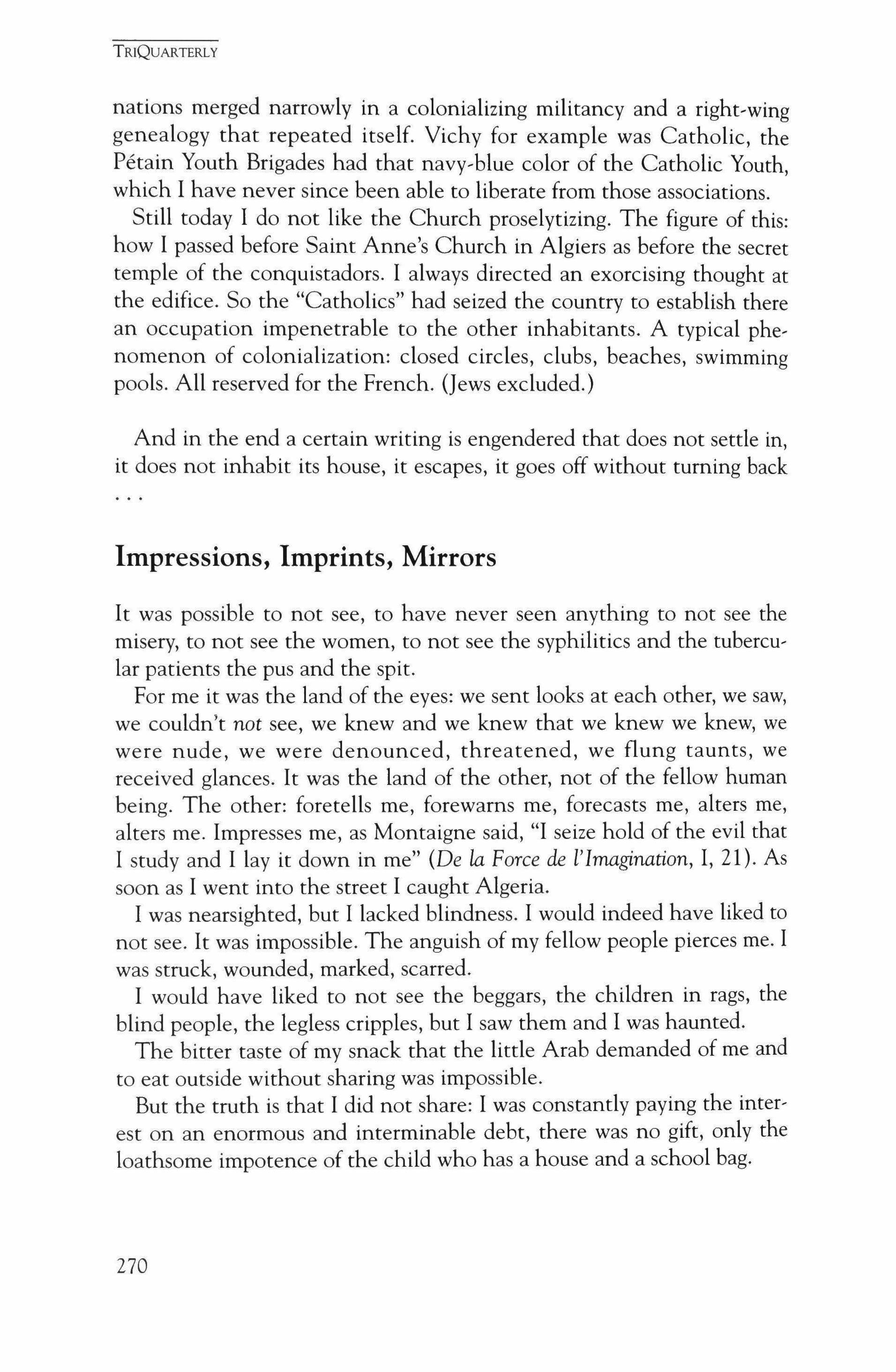
nations merged narrowly in a colonializing militancy and a right-wing genealogy that repeated itself. Vichy for example was Catholic, the Petain Youth Brigades had that navy-blue color of the Catholic Youth, which I have never since been able to liberate from those associations.
Still today I do not like the Church proselytizing. The figure of this: how I passed before Saint Anne's Church in Algiers as before the secret temple of the conquistadors. I always directed an exorcising thought at the edifice. So the "Catholics" had seized the country to establish there an occupation impenetrable to the other inhabitants. A typical phenomenon of colonialization: closed circles, clubs, beaches, swimming pools. All reserved for the French. (Jews excluded.)
And in the end a certain writing is engendered that does not settle in, it does not inhabit its house, it escapes, it goes off without turning back
Impressions, Imprints, Mirrors
It was possible to not see, to have never seen anything to not see the misery, to not see the women, to not see the syphilitics and the tubercular patients the pus and the spit.
For me it was the land of the eyes: we sent looks at each other, we saw, we couldn't not see, we knew and we knew that we knew we knew, we were nude, we were denounced, threatened, we flung taunts, we received glances. It was the land of the other, not of the fellow human being. The other: foretells me, forewarns me, forecasts me, alters me, alters me. Impresses me, as Montaigne said, "I seize hold of the evil that I study and I lay it down in me" (De la Force de l'Imagination, I, 21). As soon as I went into the street I caught Algeria.
I was nearsighted, but I lacked blindness. I would indeed have liked to not see. It was impossible. The anguish of my fellow people pierces me. I was struck, wounded, marked, scarred.
I would have liked to not see the beggars, the children in rags, the blind people, the legless cripples, but I saw them and I was haunted.
The bitter taste of my snack that the little Arab demanded of me and to eat outside without sharing was impossible.
But the truth is that I did not share: I was constantly paying the interest on an enormous and interminable debt, there was no gift, only the loathsome impotence of the child who has a house and a school bag.
TRIQUARTERLY
270
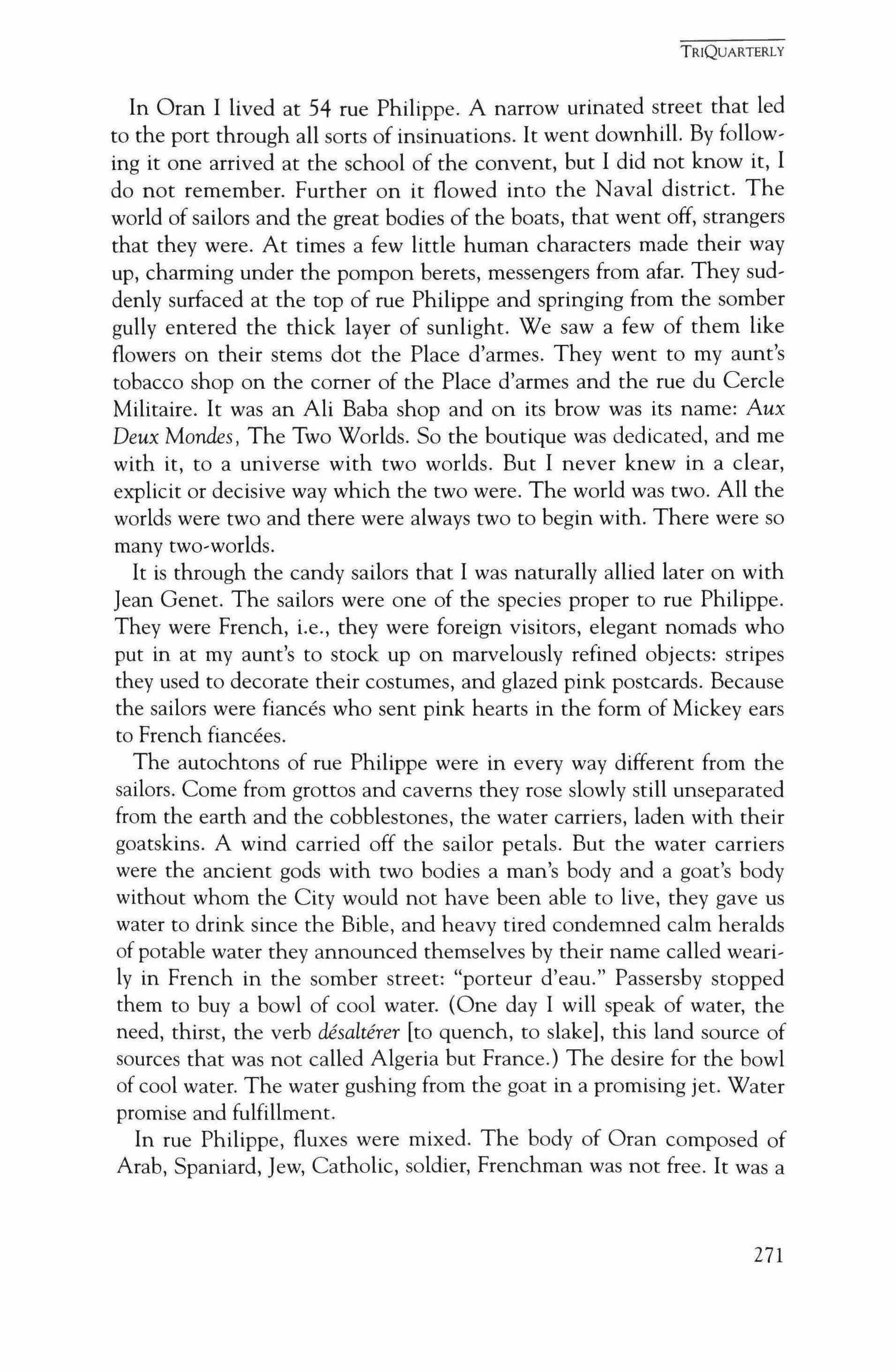
In Oran I lived at 54 rue Philippe. A narrow urinated street that led to the port through all sorts of insinuations. It went downhill. By following it one arrived at the school of the convent, but I did not know it, I do not remember. Further on it flowed into the Naval district. The world of sailors and the great bodies of the boats, that went off, strangers that they were. At times a few little human characters made their way up, charming under the pompon berets, messengers from afar. They suddenly surfaced at the top of rue Philippe and springing from the somber gully entered the thick layer of sunlight. We saw a few of them like flowers on their stems dot the Place d'armes. They went to my aunt's tobacco shop on the comer of the Place d'armes and the rue du Cercle Militaire. It was an Ali Baba shop and on its brow was its name: Aux Deux Mondes, The Two Worlds. So the boutique was dedicated, and me with it, to a universe with two worlds. But I never knew in a clear, explicit or decisive way which the two were. The world was two. All the worlds were two and there were always two to begin with. There were so many two-worlds.
It is through the candy sailors that I was naturally allied later on with Jean Genet. The sailors were one of the species proper to rue Philippe. They were French, i.e., they were foreign visitors, elegant nomads who put in at my aunt's to stock up on marvelously refined objects: stripes they used to decorate their costumes, and glazed pink postcards. Because the sailors were fiances who sent pink hearts in the form of Mickey ears to French fiancees.
The autochtons of rue Philippe were in every way different from the sailors. Come from grottos and caverns they rose slowly still unseparated from the earth and the cobblestones, the water carriers, laden with their goatskins. A wind carried off the sailor petals. But the water carriers were the ancient gods with two bodies a man's body and a goat's body without whom the City would not have been able to live, they gave us water to drink since the Bible, and heavy tired condemned calm heralds of potable water they announced themselves by their name called wearily in French in the somber street: "porteur d'eau." Passersby stopped them to buy a bowl of cool water. (One day I will speak of water, the need, thirst, the verb disaltirer [to quench, to slake], this land source of sources that was not called Algeria but France.) The desire for the bowl of cool water. The water gushing from the goat in a promising jet. Water promise and fulfillment.
In rue Philippe, fluxes were mixed. The body of Oran composed of Arab, Spaniard, Jew, Catholic, soldier, Frenchman was not free. It was a
TRIQUARTERLY
271
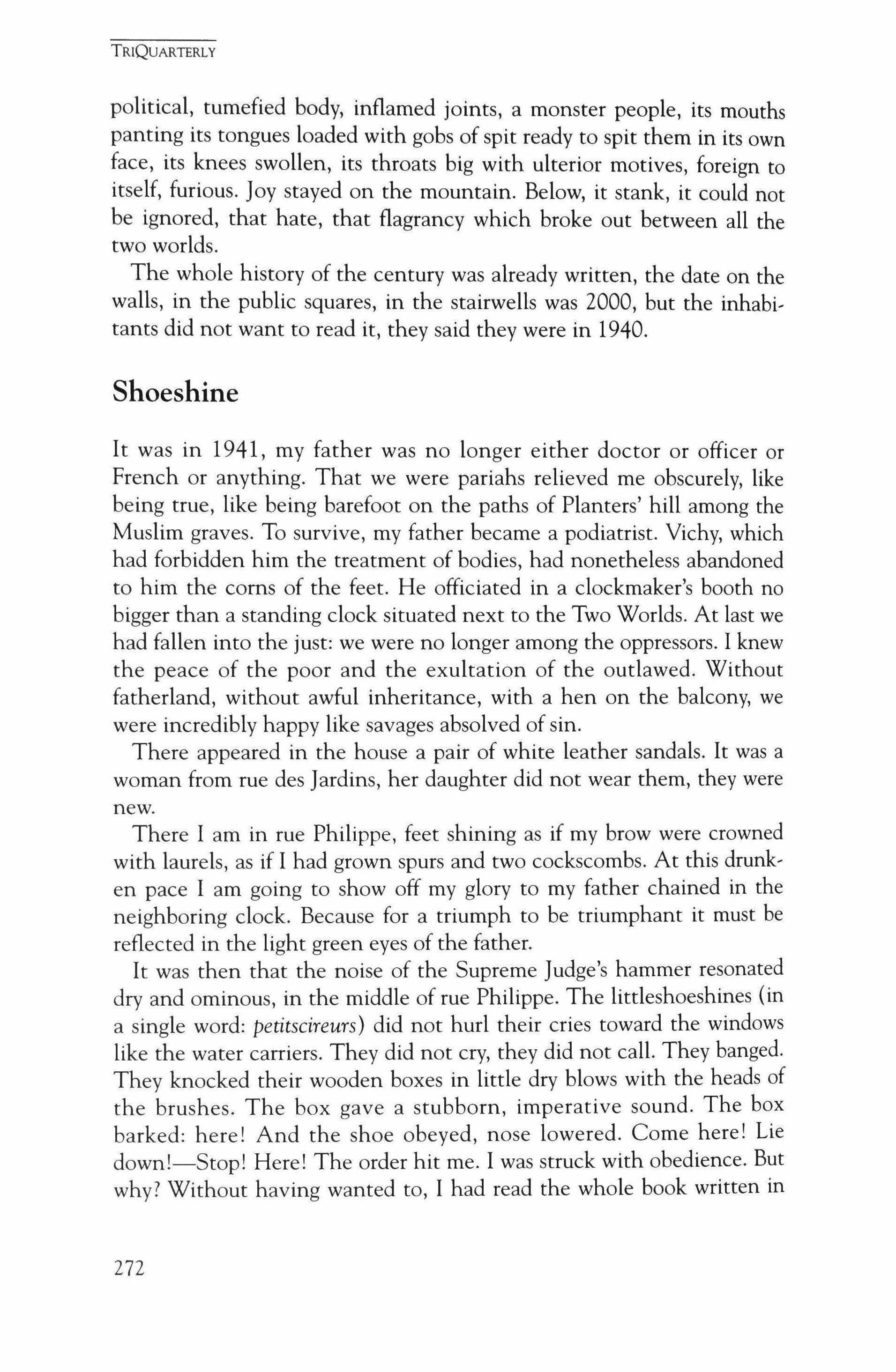
political, tumefied body, inflamed joints, a monster people, its mouths panting its tongues loaded with gobs of spit ready to spit them in its own face, its knees swollen, its throats big with ulterior motives, foreign to itself, furious. Joy stayed on the mountain. Below, it stank, it could not be ignored, that hate, that flagrancy which broke out between all the two worlds.
The whole history of the century was already written, the date on the walls, in the public squares, in the stairwells was 2000, but the inhabitants did not want to read it, they said they were in 1940.
Shoeshine
It was in 1941, my father was no longer either doctor or officer or French or anything. That we were pariahs relieved me obscurely, like being true, like being barefoot on the paths of Planters' hill among the Muslim graves. To survive, my father became a podiatrist. Vichy, which had forbidden him the treatment of bodies, had nonetheless abandoned to him the corns of the feet. He officiated in a clockmaker's booth no bigger than a standing clock situated next to the Two Worlds. At last we had fallen into the just: we were no longer among the oppressors. I knew the peace of the poor and the exultation of the outlawed. Without fatherland, without awful inheritance, with a hen on the balcony, we were incredibly happy like savages absolved of sin.
There appeared in the house a pair of white leather sandals. It was a woman from rue des [ardins, her daughter did not wear them, they were new.
There I am in rue Philippe, feet shining as if my brow were crowned with laurels, as if I had grown spurs and two cockscombs. At this drunken pace I am going to show off my glory to my father chained in the neighboring clock. Because for a triumph to be triumphant it must be reflected in the light green eyes of the father.
It was then that the noise of the Supreme Judge's hammer resonated dry and ominous, in the middle of rue Philippe. The littleshoeshines (in a single word: petitscireurs) did not hurl their cries toward the windows like the water carriers. They did not cry, they did not call. They banged. They knocked their wooden boxes in little dry blows with the heads of the brushes. The box gave a stubborn, imperative sound. The box barked: here! And the shoe obeyed, nose lowered. Come here! Lie down!-Stop! Here! The order hit me. I was struck with obedience. But why? Without having wanted to, I had read the whole book written in
TRIQUARTERLY
272
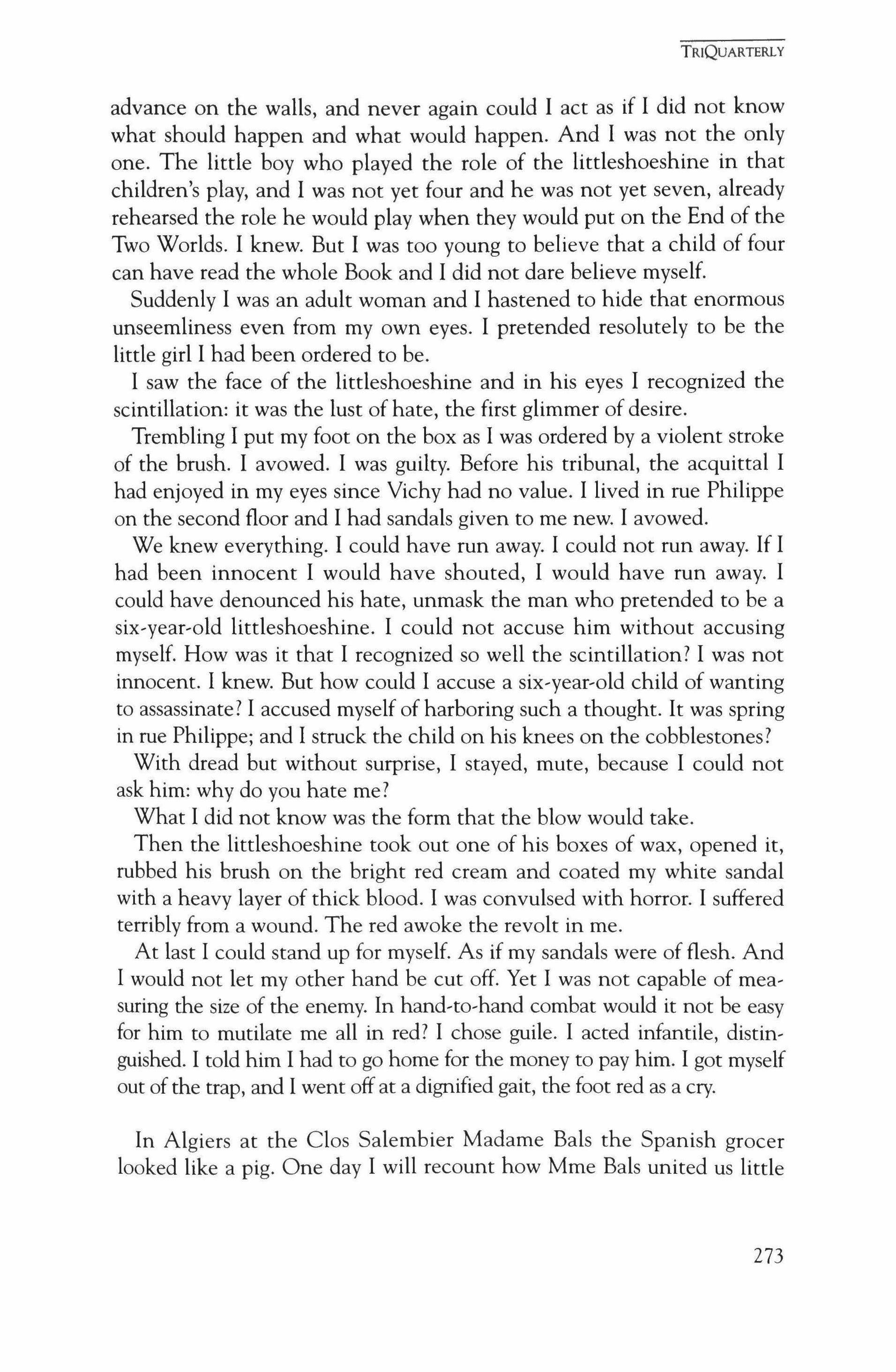
advance on the walls, and never again could I act as if I did not know what should happen and what would happen. And I was not the only one. The little boy who played the role of the littleshoeshine in that children's play, and I was not yet four and he was not yet seven, already rehearsed the role he would play when they would put on the End of the Two Worlds. I knew. But I was too young to believe that a child offour can have read the whole Book and I did not dare believe myself.
Suddenly I was an adult woman and I hastened to hide that enormous unseemliness even from my own eyes. I pretended resolutely to be the little girl I had been ordered to be.
I saw the face of the littleshoeshine and in his eyes I recognized the scintillation: it was the lust of hate, the first glimmer of desire.
Trembling I put my foot on the box as I was ordered by a violent stroke of the brush. I avowed. I was guilty. Before his tribunal, the acquittal I had enjoyed in my eyes since Vichy had no value. I lived in rue Philippe on the second floor and I had sandals given to me new. I avowed.
We knew everything. I could have run away. I could not run away. If I had been innocent I would have shouted, I would have run away. I could have denounced his hate, unmask the man who pretended to be a six-year-old littleshoeshine. I could not accuse him without accusing myself. How was it that I recognized so well the scintillation? I was not innocent. I knew. But how could I accuse a six-year-old child of wanting to assassinate? I accused myself of harboring such a thought. It was spring in rue Philippe; and I struck the child on his knees on the cobblestones?
With dread but without surprise, I stayed, mute, because I could not ask him: why do you hate me?
What I did not know was the form that the blow would take.
Then the littleshoeshine took out one of his boxes of wax, opened it, rubbed his brush on the bright red cream and coated my white sandal with a heavy layer of thick blood. I was convulsed with horror. I suffered terribly from a wound. The red awoke the revolt in me.
At last I could stand up for myself. As if my sandals were of flesh. And I would not let my other hand be cut off. Yet I was not capable of measuring the size of the enemy. In hand-to-hand combat would it not be easy for him to mutilate me all in red? I chose guile. I acted infantile, distinguished. I told him I had to go home for the money to pay him. I got myself out ofthe trap, and I went off at a dignified gait, the foot red as a cry.
In Algiers at the Clos Salembier Madame Bals the Spanish grocer looked like a pig. One day I will recount how Mme Bals united us little
TRIQUARTERLY
273
Jews and little Arabs, with blows from a ladle and a broom on the head Mme. Bals small stocky in slippers "the kind of woman one had to be in this place, no point using kid,gloves with those rascals!" said my mother. Or else did she take us for Arabs?
She bellowed, she cursed, she taught us the four,letter words.
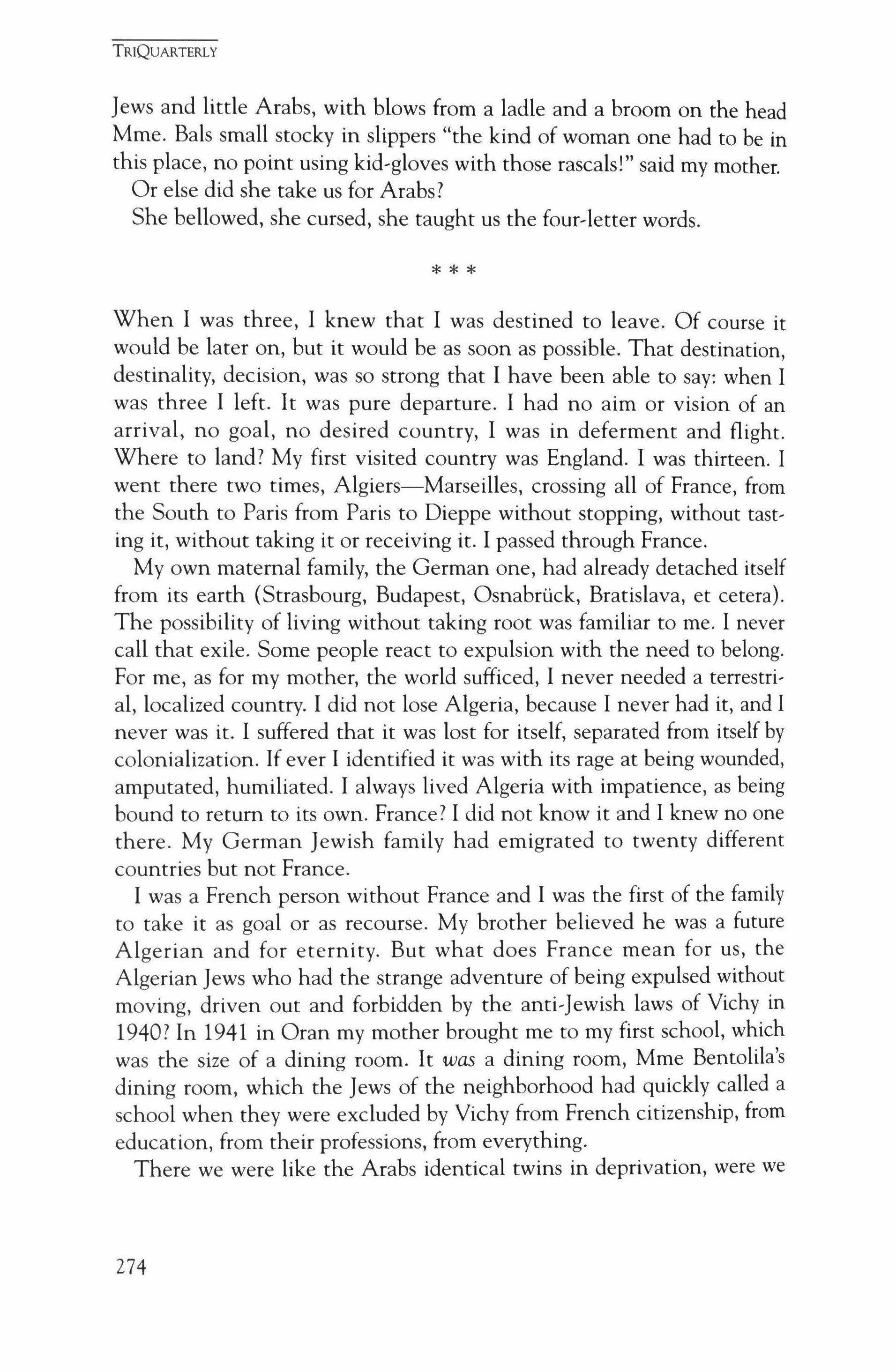
When I was three, I knew that I was destined to leave. Of course it would be later on, but it would be as soon as possible. That destination, destinality, decision, was so strong that I have been able to say: when I was three I left. It was pure departure. I had no aim or vision of an arrival, no goal, no desired country, I was in deferment and flight. Where to land? My first visited country was England. I was thirteen. I went there two times, Algiers-Marseilles, crossing all of France, from the South to Paris from Paris to Dieppe without stopping, without tasting it, without taking it or receiving it. I passed through France.
My own maternal family, the German one, had already detached itself from its earth (Strasbourg, Budapest, Osnabruck, Bratislava, et cetera). The possibility of living without taking root was familiar to me. I never call that exile. Some people react to expulsion with the need to belong. For me, as for my mother, the world sufficed, I never needed a terrestrial, localized country. I did not lose Algeria, because I never had it, and I never was it. I suffered that it was lost for itself, separated from itself by colonialization. If ever I identified it was with its rage at being wounded, amputated, humiliated. I always lived Algeria with impatience, as being bound to return to its own. France? I did not know it and I knew no one there. My German Jewish family had emigrated to twenty different countries but not France.
I was a French person without France and I was the first of the family to take it as goal or as recourse. My brother believed he was a future Algerian and for eternity. But what does France mean for us, the Algerian Jews who had the strange adventure of being expulsed without moving, driven out and forbidden by the anti-Jewish laws of Vichy in 1940? In 1941 in Oran my mother brought me to my first school, which was the size of a dining room. It was a dining room, Mme Bentolila's dining room, which the Jews of the neighborhood had quickly called a school when they were excluded by Vichy from French citizenship, from education, from their professions, from everything.
There we were like the Arabs identical twins in deprivation, were we
TRIQUARTERLY
* * *
274
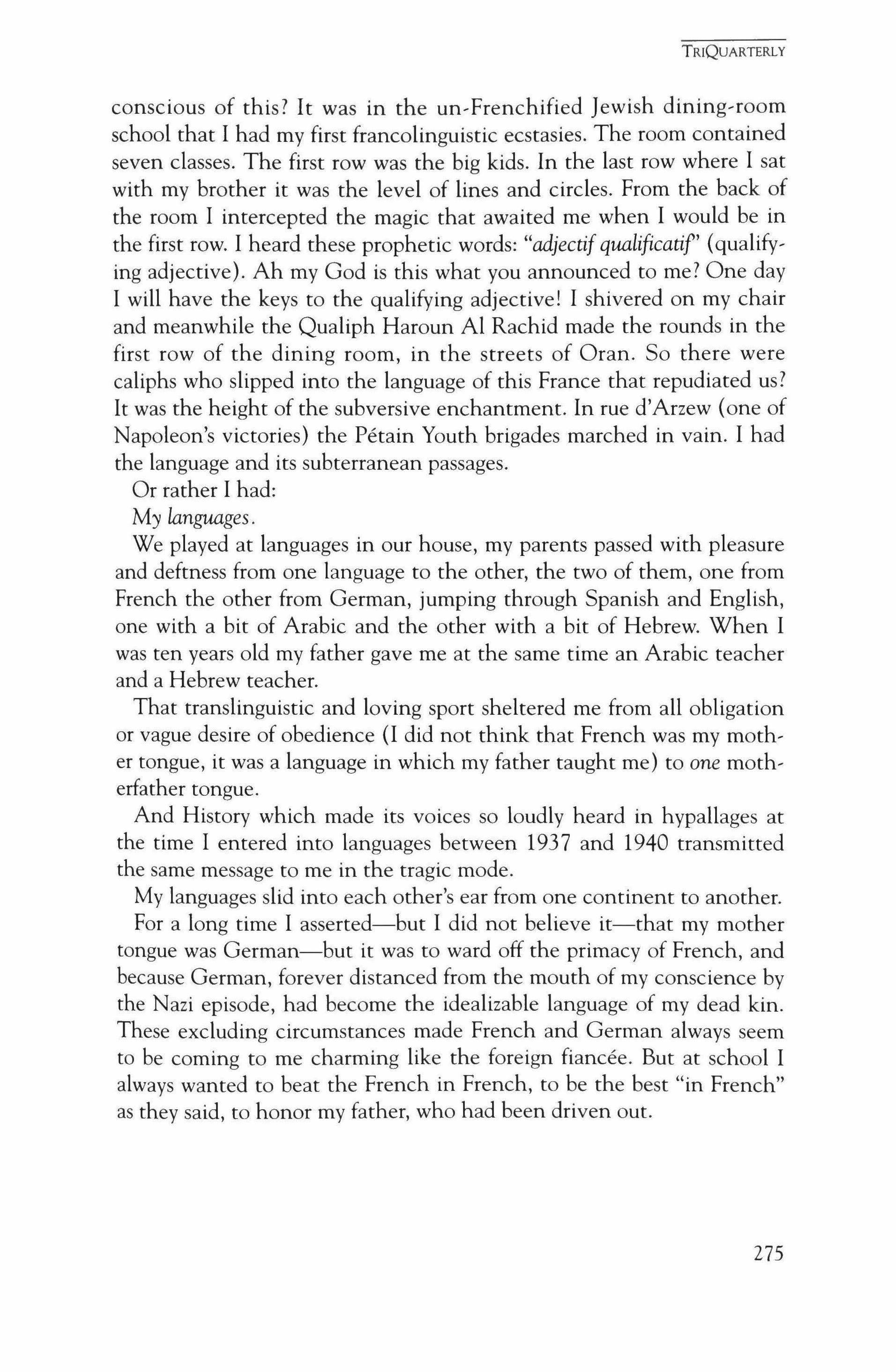
conscious of this? It was in the un-Frenchified Jewish dining-room school that I had my first francolinguistic ecstasies. The room contained seven classes. The first row was the big kids. In the last row where I sat with my brother it was the level of lines and circles. From the back of the room I intercepted the magic that awaited me when I would be in the first row. I heard these prophetic words: "adjectifqualificatif' {qualifying adjective}. Ah my God is this what you announced to me? One day I will have the keys to the qualifying adjective! I shivered on my chair and meanwhile the Qualiph Haroun Al Rachid made the rounds in the first row of the dining room, in the streets of Oran. So there were caliphs who slipped into the language of this France that repudiated us? It was the height of the subversive enchantment. In rue d'Arzew {one of Napoleon's victories} the Petain Youth brigades marched in vain. I had the language and its subterranean passages.
Or rather I had:
My languages.
We played at languages in our house, my parents passed with pleasure and deftness from one language to the other, the two of them, one from French the other from German, jumping through Spanish and English, one with a bit of Arabic and the other with a bit of Hebrew. When I was ten years old my father gave me at the same time an Arabic teacher and a Hebrew teacher.
That translinguistic and loving sport sheltered me from all obligation or vague desire of obedience (I did not think that French was my mother tongue, it was a language in which my father taught me) to one motherfather tongue.
And History which made its voices so loudly heard in hypallages at the time I entered into languages between 1937 and 1940 transmitted the same message to me in the tragic mode.
My languages slid into each other's ear from one continent to another.
For a long time I asserted-but I did not believe it-that my mother tongue was German-but it was to ward off the primacy of French, and because German, forever distanced from the mouth of my conscience by the Nazi episode, had become the idealizable language of my dead kin. These excluding circumstances made French and German always seem to be coming to me charming like the foreign fiancee. But at school I always wanted to beat the French in French, to be the best "in French" as they said, to honor my father, who had been driven out.
TRIQUARTERLY
275
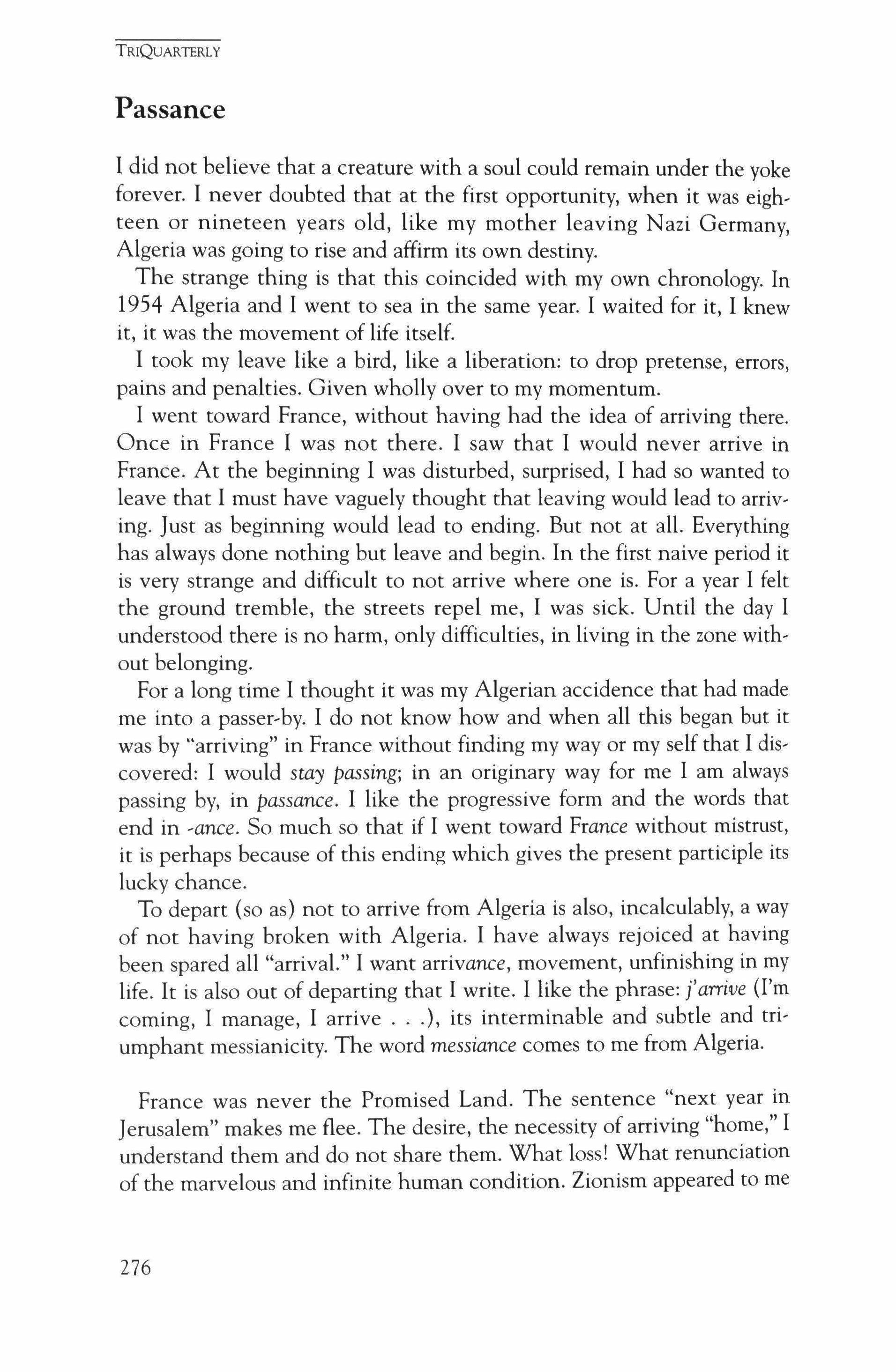
Passance
I did not believe that a creature with a soul could remain under the yoke forever. I never doubted that at the first opportunity, when it was eighteen or nineteen years old, like my mother leaving Nazi Germany, Algeria was going to rise and affirm its own destiny.
The strange thing is that this coincided with my own chronology. In 1954 Algeria and I went to sea in the same year. I waited for it, I knew it, it was the movement of life itself.
I took my leave like a bird, like a liberation: to drop pretense, errors, pains and penalties. Given wholly over to my momentum.
I went toward France, without having had the idea of arriving there. Once in France I was not there. I saw that I would never arrive in France. At the beginning I was disturbed, surprised, I had so wanted to leave that I must have vaguely thought that leaving would lead to arriving. Just as beginning would lead to ending. But not at all. Everything has always done nothing but leave and begin. In the first naive period it is very strange and difficult to not arrive where one is. For a year I felt the ground tremble, the streets repel me, I was sick. Until the day I understood there is no harm, only difficulties, in living in the zone without belonging.
For a long time I thought it was my Algerian accidence that had made me into a passer-by. I do not know how and when all this began but it was by "arriving" in France without finding my way or my self that I discovered: I would stay passing; in an originary way for me I am always passing by, in passance. I like the progressive form and the words that end in -zmce. So much so that if I went toward France without mistrust, it is perhaps because of this ending which gives the present participle its lucky chance.
To depart (so as) not to arrive from Algeria is also, incalculably, a way of not having broken with Algeria. I have always rejoiced at having been spared all "arrival." I want arrivance, movement, unfinishing in my life. It is also out of departing that I write. I like the phrase: j'arrive (I'm coming, I manage, I arrive ), its interminable and subtle and triumphant messianicity. The word messiance comes to me from Algeria.
France was never the Promised Land. The sentence "next year in Jerusalem" makes me flee. The desire, the necessity of arriving "home," I understand them and do not share them. What loss! What renunciation of the marvelous and infinite human condition. Zionism appeared to me
TRIQUARTERLY
276
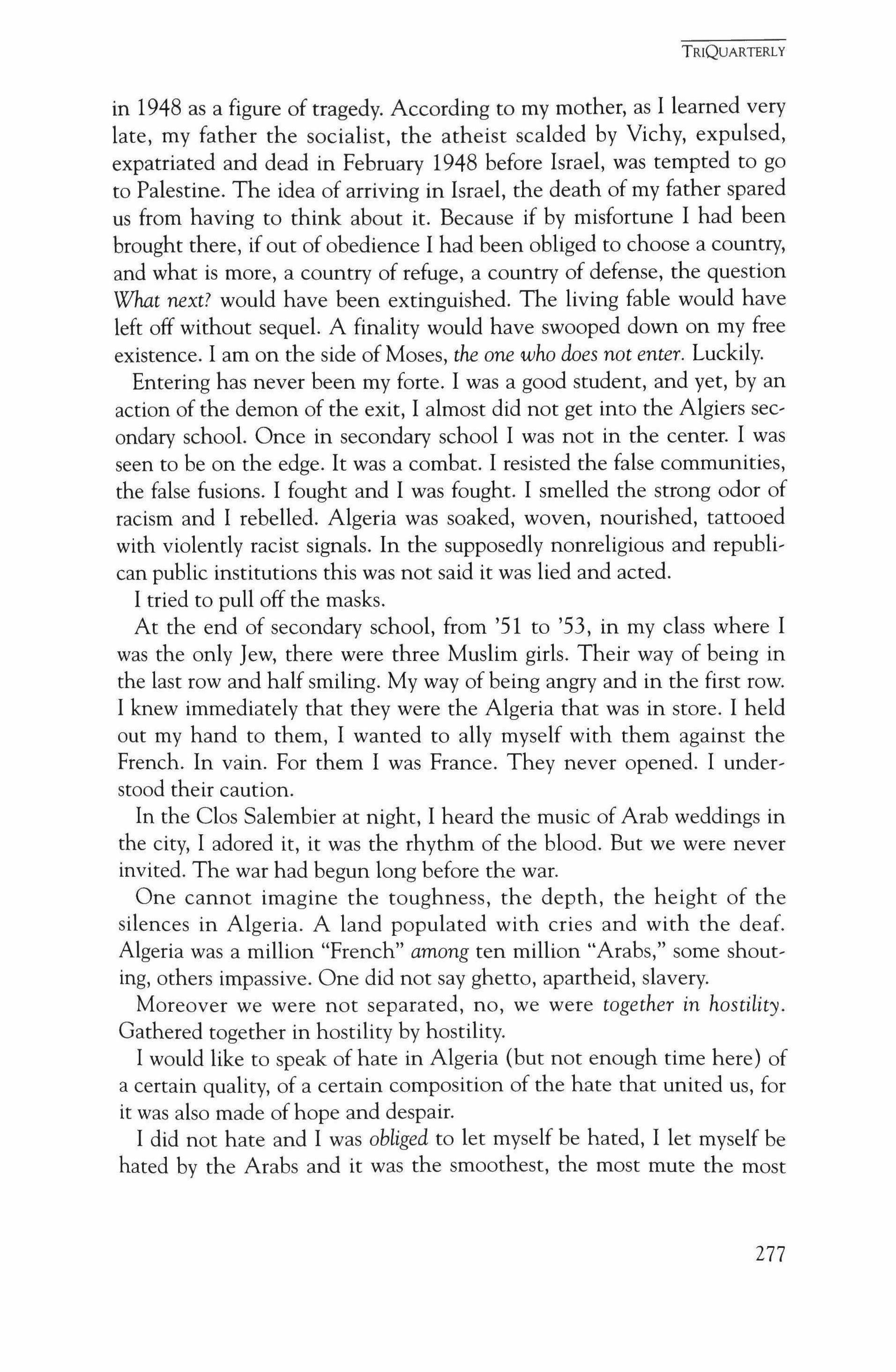
in 1948 as a figure of tragedy. According to my mother, as I learned very late, my father the socialist, the atheist scalded by Vichy, expulsed, expatriated and dead in February 1948 before Israel, was tempted to go to Palestine. The idea of arriving in Israel, the death of my father spared us from having to think about it. Because if by misfortune I had been brought there, if out of obedience I had been obliged to choose a country, and what is more, a country of refuge, a country of defense, the question What next? would have been extinguished. The living fable would have left off without sequel. A finality would have swooped down on my free existence. I am on the side of Moses, the one who does not enter. Luckily.
Entering has never been my forte. I was a good student, and yet, by an action of the demon of the exit, I almost did not get into the Algiers secondary school. Once in secondary school I was not in the center. I was seen to be on the edge. It was a combat. I resisted the false communities, the false fusions. I fought and I was fought. I smelled the strong odor of racism and I rebelled. Algeria was soaked, woven, nourished, tattooed with violently racist signals. In the supposedly nonreligious and republican public institutions this was not said it was lied and acted.
I tried to pull off the masks.
At the end of secondary school, from '51 to '53, in my class where I was the only Jew, there were three Muslim girls. Their way of being in the last row and half smiling. My way of being angry and in the first row. I knew immediately that they were the Algeria that was in store. I held out my hand to them, I wanted to ally myself with them against the French. In vain. For them I was France. They never opened. I understood their caution.
In the Clos Salembier at night, I heard the music of Arab weddings in the city, I adored it, it was the rhythm of the blood. But we were never invited. The war had begun long before the war.
One cannot imagine the toughness, the depth, the height of the silences in Algeria. A land populated with cries and with the deaf. Algeria was a million "French" among ten million "Arabs," some shouting, others impassive. One did not say ghetto, apartheid, slavery.
Moreover we were not separated, no, we were together in hostility. Gathered together in hostility by hostility.
I would like to speak of hate in Algeria (but not enough time here) of a certain quality, of a certain composition of the hate that united us, for it was also made of hope and despair.
I did not hate and I was obliged to let myself be hated, I let myself be hated by the Arabs and it was the smoothest, the most mute the most
TRIQUARTERLY
277
passive form of love I have ever known. Body against body. In a complex process of struggle, bodies united in the clutch of separation. And I was eager for the birth to happen. For Algeria to come into the world.

In 1954, in summer, I was already engaged that is to say ready to slip on the wings of escape, in a cafe at the beach resort of Madrague, an older French man as "French" as they can get, that is to say tall blond and Corsican, a man who had taken us to have a coffee, which I never did, pushed an Arab who was having a coffee at the bar saying: Toi, poussetoi!* For me those words and that tone prophesied my rupture with those Frenchmen. I wished I were a man and I could push him out of the world. But for the first time in history, I saw the scene tum completely around on itself. Call that revolution. The Arab, a handsome little brown man looked the Corsican in the eyes and said: "Why do you say tu?" In French. It was the first shot of the war of Independence. I had the impression of being transported into the following era. I was happy. Let me explain: before that sentence, an Arab had never revolted straight ahead in French because there was not yet hope. The Arabs accepted to be theed and thoued (to be tued and toied) and bit their lips.
There was no hate in the sentence, there was triumph.
I only thought of leaving. Escaping. In the meantime I escaped without moving, in books. Above all the most universal ones, those that spoke "in our name," in the name of humanity.
This is how I explain today my nonattraction for "French" literature, the distance I kept from the authors I saw as being close to the court, my lack of taste in spite of admiration for Racine, et cetera, and my intuitive kinship with Montaigne.
Even the enlightenment was too French for me and I preferred the Anglo-Saxon penumbra.
I left. The certainty I would never return. Without regret. But it's that
"Roughly: "You, move out of the way!" but employing the informal, in this case, disrespectful, second-person singular objective personal pronoun, toi, which corresponds to the nominative tu much as the English "thee" does to "thou."
TRIQUARTERLY
***
278
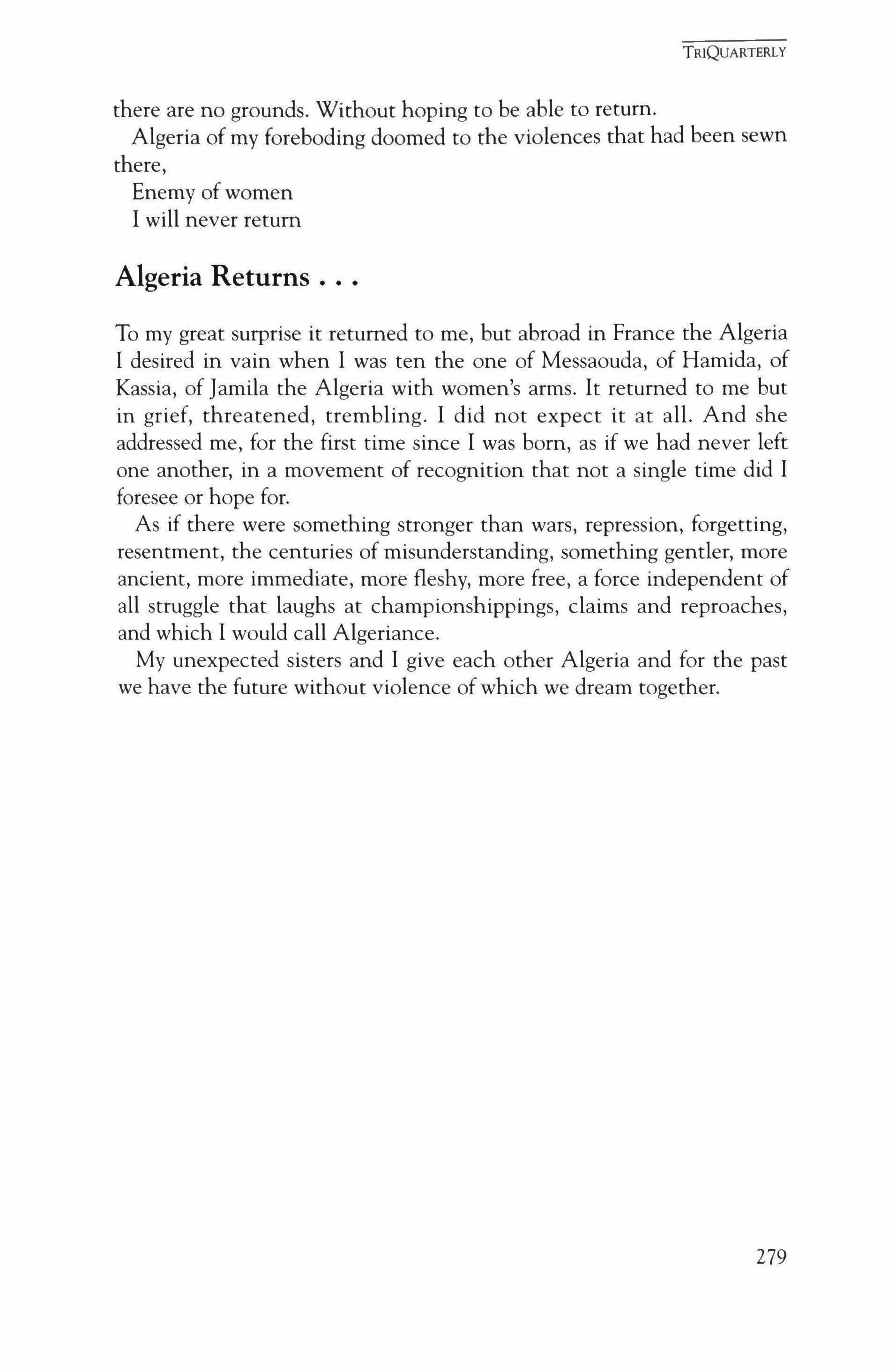
there are no grounds. Without hoping to be able to return.
Algeria of my foreboding doomed to the violences that had been sewn there,
Enemy of women
I will never return
Algeria Returns
To my great surprise it returned to me, but abroad in France the Algeria I desired in vain when I was ten the one of Messaouda, of Hamida, of Kassia, of [amila the Algeria with women's arms. It returned to me but in grief, threatened, trembling. I did not expect it at all. And she addressed me, for the first time since I was born, as if we had never left one another, in a movement of recognition that not a single time did I foresee or hope for.
As if there were something stronger than wars, repression, forgetting, resentment, the centuries of misunderstanding, something gentler, more ancient, more immediate, more fleshy, more free, a force independent of all struggle that laughs at championshippings, claims and reproaches, and which I would call Algeriance.
My unexpected sisters and I give each other Algeria and for the past we have the future without violence of which we dream together.
TRIQUARTERLY
279
Sewing Without Mother: A Zuihitsu
Kimiko Hahn
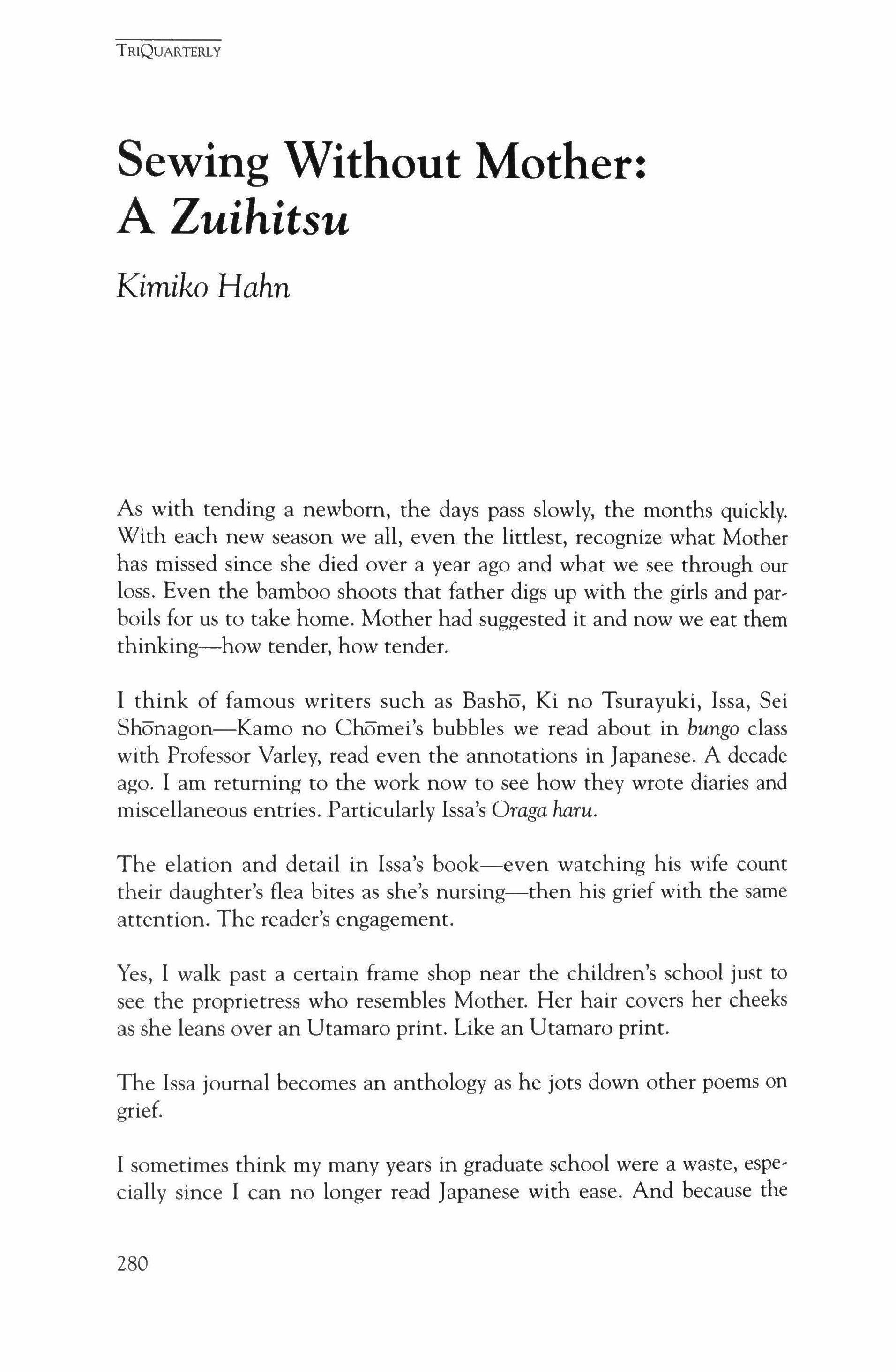
As with tending a newborn, the days pass slowly, the months quickly. With each new season we all, even the littlest, recognize what Mother has missed since she died over a year ago and what we see through our loss. Even the bamboo shoots that father digs up with the girls and parboils for us to take home. Mother had suggested it and now we eat them thinking-how tender, how tender.
I think of famous writers such as Basho, Ki no Tsurayuki, Issa, Sei Shonagon-Kamo no Chomei's bubbles we read about in bungo class with Professor Varley, read even the annotations in Japanese. A decade ago. I am returning to the work now to see how they wrote diaries and miscellaneous entries. Particularly Issa's Oraga haru.
The elation and detail in Issa's book-even watching his wife count their daughter's flea bites as she's nursing-then his grief with the same attention. The reader's engagement.
Yes, I walk past a certain frame shop near the children's school just to see the proprietress who resembles Mother. Her hair covers her cheeks as she leans over an Utamaro print. Like an Utamaro print.
The Issa journal becomes an anthology as he jots down other poems on grief.
I sometimes think my many years in graduate school were a waste, especially since I can no longer read Japanese with ease. And because the
TRIQUARTERLY
280
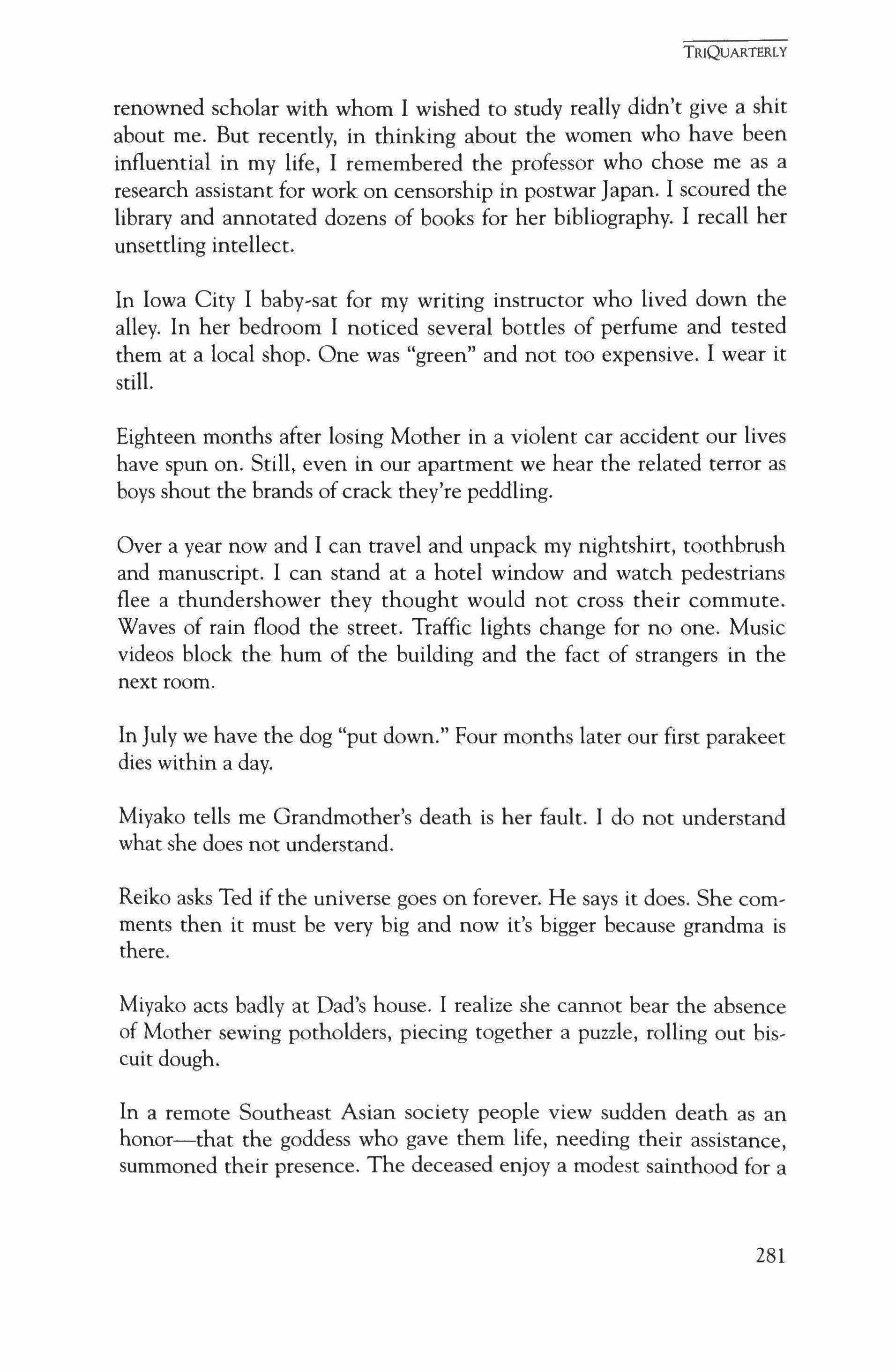
renowned scholar with whom I wished to study really didn't give a shit about me. But recently, in thinking about the women who have been influential in my life, I remembered the professor who chose me as a research assistant for work on censorship in postwar Japan. I scoured the library and annotated dozens of books for her bibliography. I recall her unsettling intellect.
In Iowa City I baby-sat for my writing instructor who lived down the alley. In her bedroom I noticed several bottles of perfume and tested them at a local shop. One was "green" and not too expensive. I wear it still.
Eighteen months after losing Mother in a violent car accident our lives have spun on. Still, even in our apartment we hear the related terror as boys shout the brands of crack they're peddling.
Over a year now and I can travel and unpack my nightshirt, toothbrush and manuscript. I can stand at a hotel window and watch pedestrians flee a thundershower they thought would not cross their commute. Waves of rain flood the street. Traffic lights change for no one. Music videos block the hum of the building and the fact of strangers in the next room.
In July we have the dog "put down." Four months later our first parakeet dies within a day.
Miyako tells me Grandmother's death is her fault. I do not understand what she does not understand.
Reiko asks Ted if the universe goes on forever. He says it does. She com, ments then it must be very big and now it's bigger because grandma is there.
Miyako acts badly at Dad's house. I realize she cannot bear the absence of Mother sewing potholders, piecing together a puzzle, rolling out biscuit dough.
In a remote Southeast Asian society people view sudden death as an honor-that the goddess who gave them life, needing their assistance, summoned their presence. The deceased enjoy a modest sainthood for a 281
TRIQUARTERLY

period of seven weeks, a number closely associated with harvesting. I make up these rituals.
The entries in a typical Japanese journal are nature-oriented, a convention. The frost, maple, cherries. All exhibit what lies at a tangent to language. I think of the sound of straw under Basho's head as he turned in his sleep.
The change of season brought fresh grief, it's true, but in the second year I think: a year ago it was only a few months, or a year ago we were buying this birthday cake without her.
There are still several of her suits in Father's hall closet. I keep promising to go through them but know I won't any time soon.
I imagine leaving our two-bedroom rent-stabilized apartment that transported me through a first marriage, divorce, romances, a second marriage, two pregnancies and births. Mother's death. Waking for the phone at 2 A.M. for this news that would change our lives forever.
Earlene says the roots of one's behavior will not change, but one's relationship to it can be modified. Even radically. But what happens when a party to that behavior is missing?
Sometimes I become annoyed with Mother's inabilities-the jealous streak I wasn't aware of but inherited, absorbed from her silence. Her shutting off instead of confronting.
A student said that if Genji is symbolically searching for his dead mother he must have felt abandoned as a child. That the parents' departure indicates this to the child.
I watch the aerobic instructor talk with her mother. Both wear unitards.
After a vigorous workout I lock the lavatory door and weep as if from physical fatigue.
If only I could read the texts again-but even my dictionary usage is rusty. Wish I could navigate the reference books. Wish I could read the annotations with ease. Wish I could read the kanji without counting the number of strokes in the radical.
TRIQUARTERLY
282
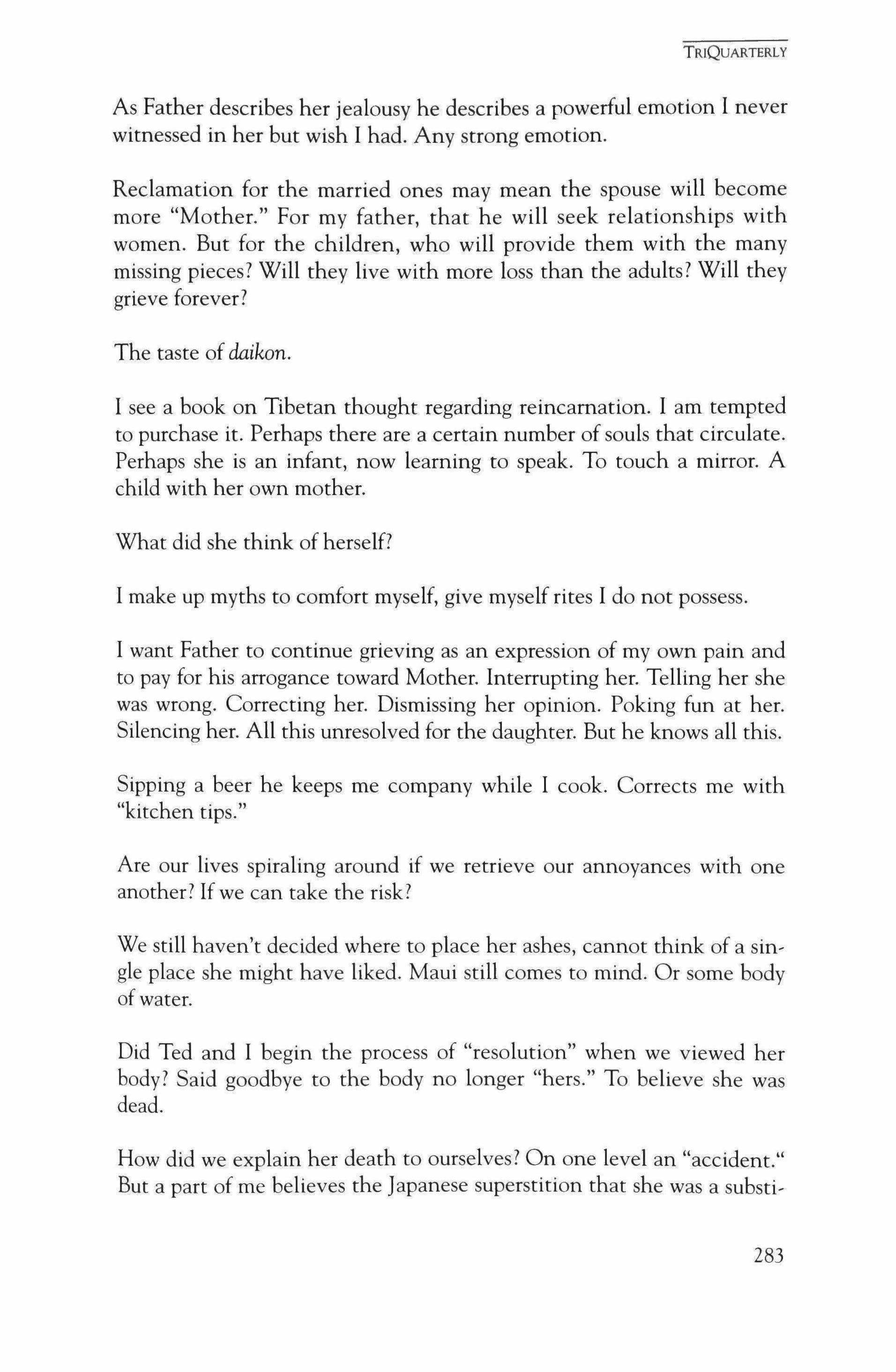
As Father describes her jealousy he describes a powerful emotion I never witnessed in her but wish I had. Any strong emotion.
Reclamation for the married ones may mean the spouse will become more "Mother." For my father, that he will seek relationships with women. But for the children, who will provide them with the many missing pieces? Will they live with more loss than the adults? Will they grieve forever?
The taste of daikon.
I see a book on Tibetan thought regarding reincarnation. I am tempted to purchase it. Perhaps there are a certain number of souls that circulate. Perhaps she is an infant, now learning to speak. To touch a mirror. A child with her own mother.
What did she think of herself?
I make up myths to comfort myself, give myself rites I do not possess.
I want Father to continue grieving as an expression of my own pain and to pay for his arrogance toward Mother. Interrupting her. Telling her she was wrong. Correcting her. Dismissing her opinion. Poking fun at her. Silencing her. All this unresolved for the daughter. But he knows all this.
Sipping a beer he keeps me company while I cook. Corrects me with "kitchen tips."
Are our lives spiraling around if we retrieve our annoyances with one another? If we can take the risk?
We still haven't decided where to place her ashes, cannot think of a single place she might have liked. Maui still comes to mind. Or some body of water.
Did Ted and I begin the process of "resolution" when we viewed her body? Said goodbye to the body no longer "hers. To believe she was dead.
How did we explain her death to ourselves? On one level an "accident." But a part of me believes the Japanese superstition that she was a substi-
TRIQUARTERLY
283
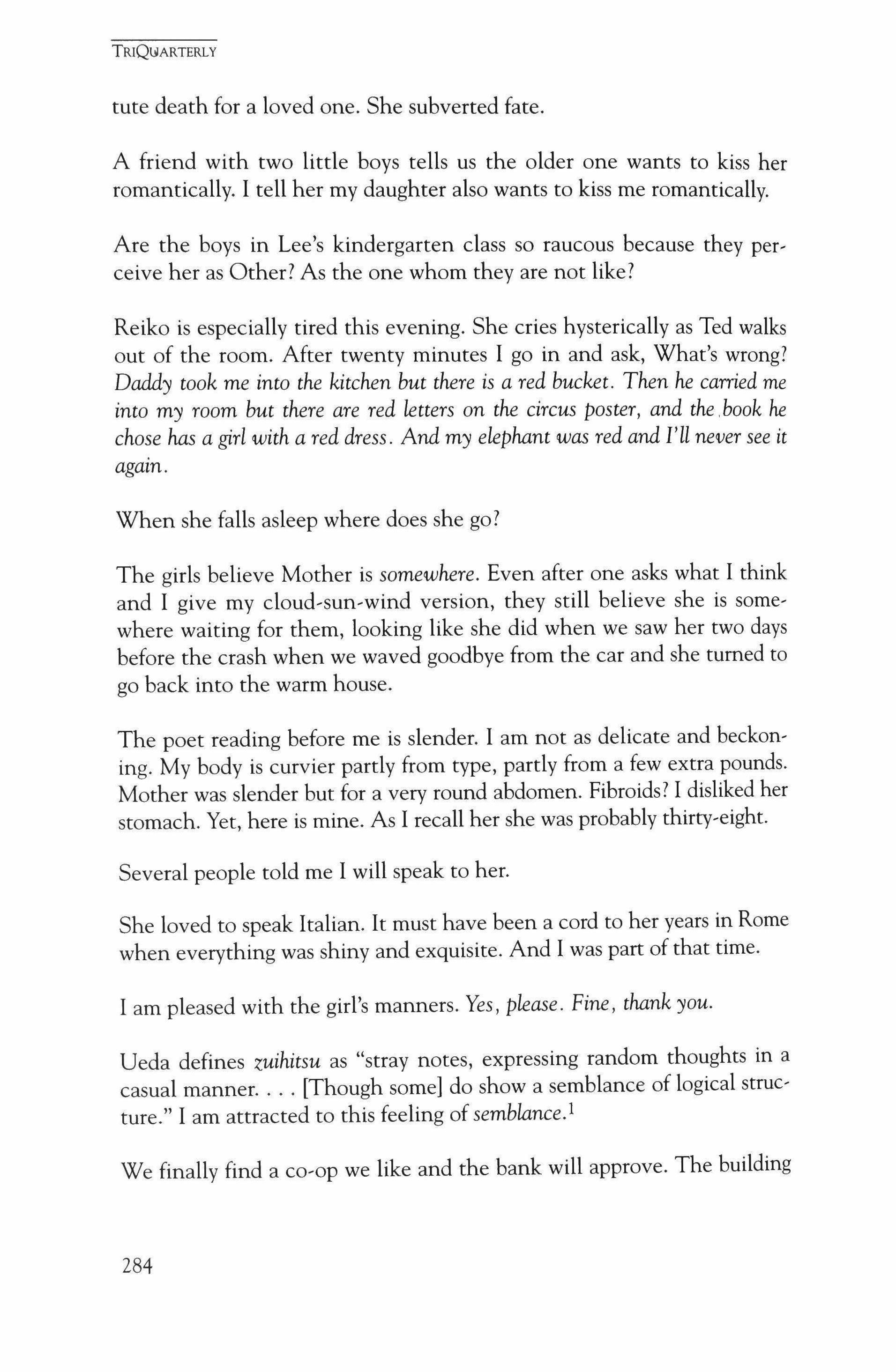
tute death for a loved one. She subverted fate.
A friend with two little boys tells us the older one wants to kiss her romantically. I tell her my daughter also wants to kiss me romantically.
Are the boys in Lee's kindergarten class so raucous because they perceive her as Other? As the one whom they are not like?
Reiko is especially tired this evening. She cries hysterically as Ted walks out of the room. After twenty minutes I go in and ask, What's wrong? Daddy took me into the kitchen but there is a red bucket. Then he carried me into my room but there are red letters on the circus poster, and the ,book he chose has a girl with a red dress. And my elephant was red and I'll never see it again.
When she falls asleep where does she go?
The girls believe Mother is somewhere. Even after one asks what I think and I give my cloud-sun-wind version, they still believe she is somewhere waiting for them, looking like she did when we saw her two days before the crash when we waved goodbye from the car and she turned to go back into the warm house.
The poet reading before me is slender. I am not as delicate and beckoning. My body is curvier partly from type, partly from a few extra pounds. Mother was slender but for a very round abdomen. Fibroids? I disliked her stomach. Yet, here is mine. As I recall her she was probably thirty-eight.
Several people told me I will speak to her.
She loved to speak Italian. It must have been a cord to her years in Rome when everything was shiny and exquisite. And I was part of that time.
I am pleased with the girl's manners. Yes, please. Fine, thank you.
Ueda defines zuihitsu as "stray notes, expressing random thoughts in a casual manner [Though some] do show a semblance of logical structure." I am attracted to this feeling ofsemblance)
We finally find a co-op we like and the bank will approve. The building
TRIQ�ARTERLY
284
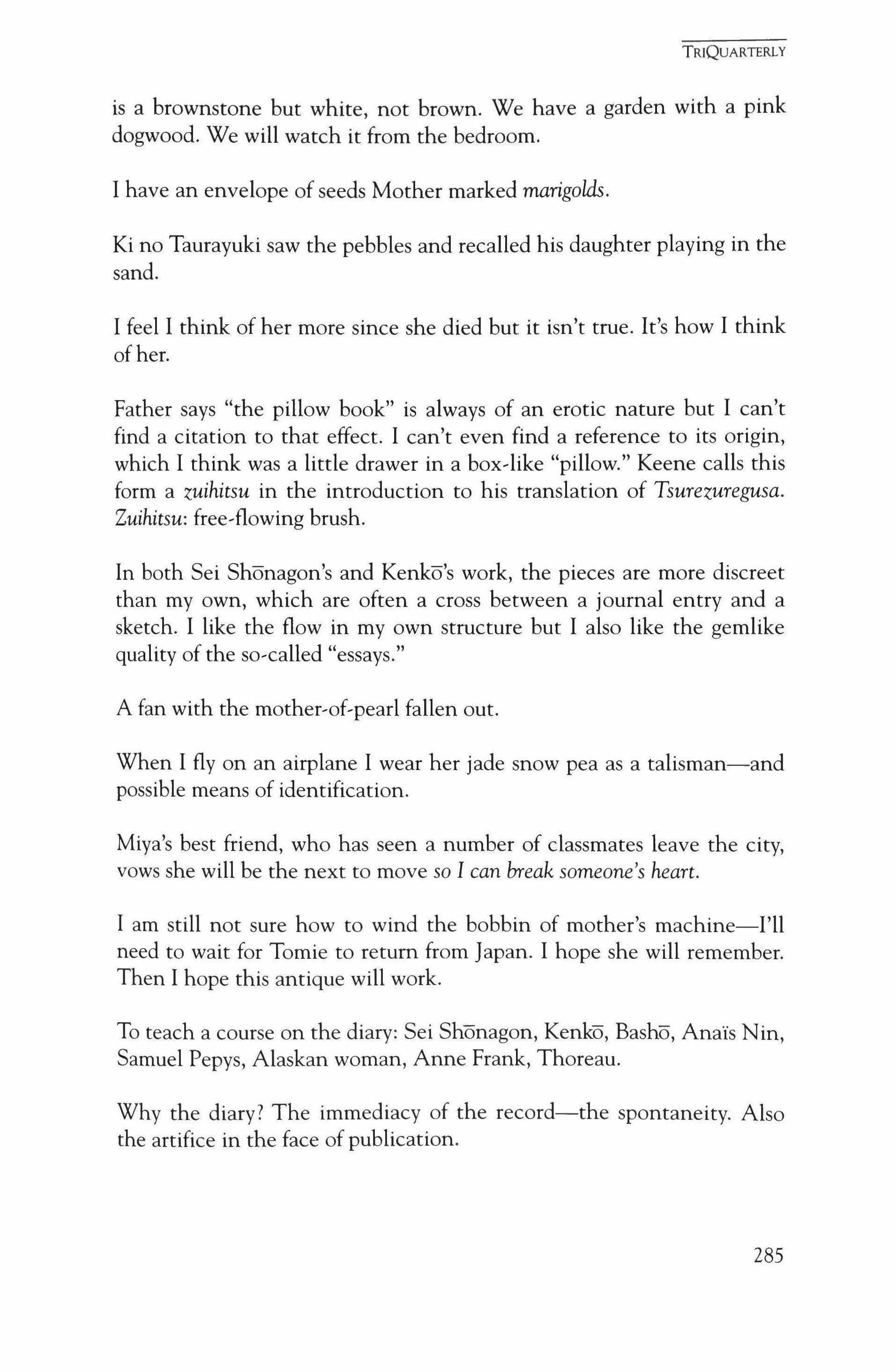
is a brownstone but white, not brown. We have a garden with a pink dogwood. We will watch it from the bedroom.
I have an envelope of seeds Mother marked marigolds.
Ki no Taurayuki saw the pebbles and recalled his daughter playing in the sand.
I feel I think of her more since she died but it isn't true. It's how I think of her.
Father says "the pillow book" is always of an erotic nature but I can't find a citation to that effect. I can't even find a reference to its origin, which I think was a little drawer in a box-like "pillow." Keene calls this form a zuihitsu in the introduction to his translation of Tsurezuregusa. Zuihitsu: free-flowing brush.
In both Sei Shonagon's and Kenko's work, the pieces are more discreet than my own, which are often a cross between a journal entry and a sketch. I like the flow in my own structure but I also like the gemlike quality of the so-called "essays."
A fan with the mother-of-pearl fallen out.
When I fly on an airplane I wear her jade snow pea as a talisman-and possible means of identification.
Miya's best friend, who has seen a number of classmates leave the city, vows she will be the next to move so I can break someone's heart.
I am still not sure how to wind the bobbin of mother's machine-I'll need to wait for Tomie to return from Japan. I hope she will remember. Then I hope this antique will work.
To teach a course on the diary: Sei Shonagon, Kenka, Basha, Anais Nin, Samuel Pepys, Alaskan woman, Anne Frank, Thoreau.
Why the diary? The immediacy of the record-the spontaneity. Also the artifice in the face of publication.
TRIQUARTERLY
285
TRIQUARTERLY
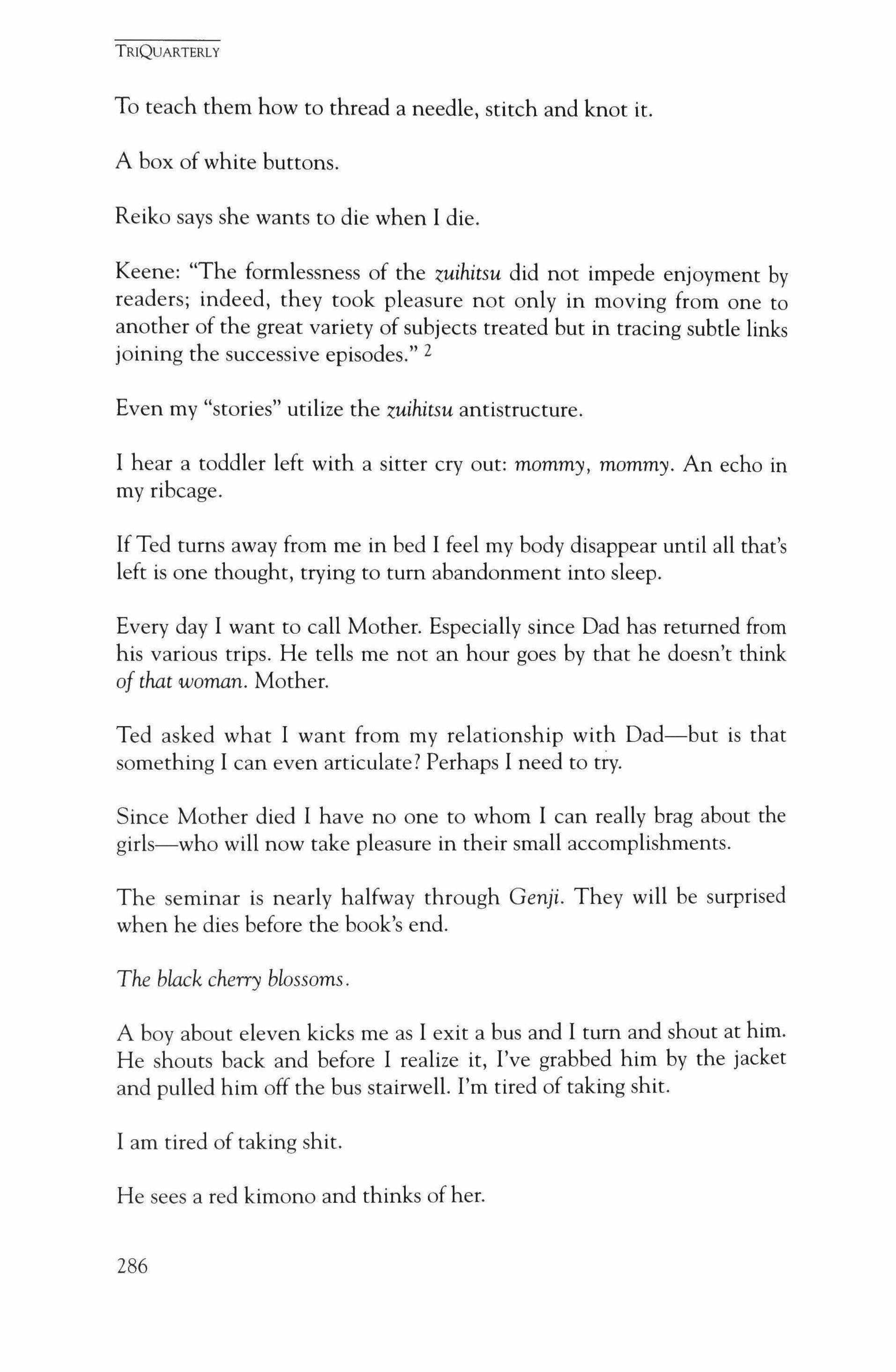
To teach them how to thread a needle, stitch and knot it.
A box of white buttons.
Reiko says she wants to die when I die.
Keene: "The formlessness of the zuihitsu did not impede enjoyment by readers; indeed, they took pleasure not only in moving from one to another of the great variety of subjects treated but in tracing subtle links joining the successive episodes." 2
Even my "stories" utilize the zuihitsu antistructure.
I hear a toddler left with a sitter cry out: mommy, mommy. An echo in my ribcage.
If Ted turns away from me in bed I feel my body disappear until all that's left is one thought, trying to tum abandonment into sleep.
Every day I want to call Mother. Especially since Dad has returned from his various trips. He tells me not an hour goes by that he doesn't think of that woman. Mother.
Ted asked what I want from my relationship with Dad-but is that something I can even articulate? Perhaps I need to tty.
Since Mother died I have no one to whom I can really brag about the girls-who will now take pleasure in their small accomplishments.
The seminar is nearly halfway through Genji. They will be surprised when he dies before the book's end.
The black cherry blossoms.
A boy about eleven kicks me as I exit a bus and I tum and shout at him. He shouts back and before I realize it, I've grabbed him by the jacket and pulled him off the bus stairwell. I'm tired of taking shit.
I am tired of taking shit.
He sees a red kimono and thinks of her.
286
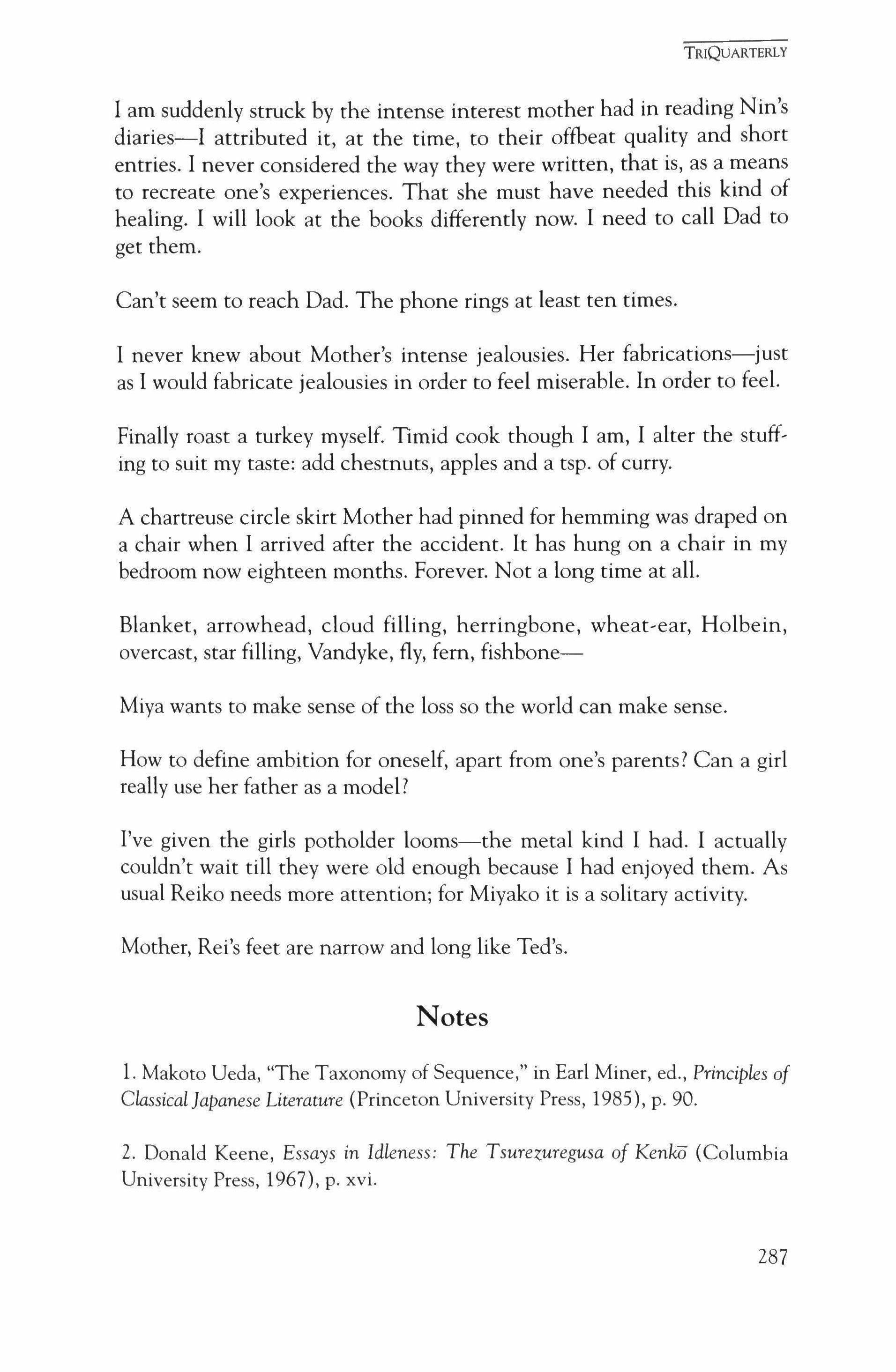
I am suddenly struck by the intense interest mother had in reading Nin's diaries-I attributed it, at the time, to their offbeat quality and short entries. I never considered the way they were written, that is, as a means to recreate one's experiences. That she must have needed this kind of healing. I will look at the books differently now. I need to call Dad to get them.
Can't seem to reach Dad. The phone rings at least ten times.
I never knew about Mother's intense jealousies. Her fabrications-just as I would fabricate jealousies in order to feel miserable. In order to feel.
Finally roast a turkey myself. Timid cook though I am, I alter the stuffing to suit my taste: add chestnuts, apples and a tsp. of curry.
A chartreuse circle skirt Mother had pinned for hemming was draped on a chair when I arrived after the accident. It has hung on a chair in my bedroom now eighteen months. Forever. Not a long time at all.
Blanket, arrowhead, cloud filling, herringbone, wheat-ear, Holbein, overcast, star filling, Vandyke, fly, fern, fishbone-
Miya wants to make sense of the loss so the world can make sense.
How to define ambition for oneself, apart from one's parents? Can a girl really use her father as a model?
I've given the girls potholder looms-the metal kind I had. I actually couldn't wait till they were old enough because I had enjoyed them. As usual Reiko needs more attention; for Miyako it is a solitary activity.
Mother, Rei's feet are narrow and long like Ted's.
Notes
1. Makoto Ueda, "The Taxonomy of Sequence," in Earl Miner, ed., Principles of Classicaljapanese Literature (Princeton University Press, 1985), p. 90.
2. Donald Keene, Essays in Idleness: The Tsurezuregusa of Kenko (Columbia University Press, 1967), p. xvi.
TRIQUARTERLY
287
Dl'uga Street
Adam Zagajewski
Translatedfrom the Polish by BiUJohnswn
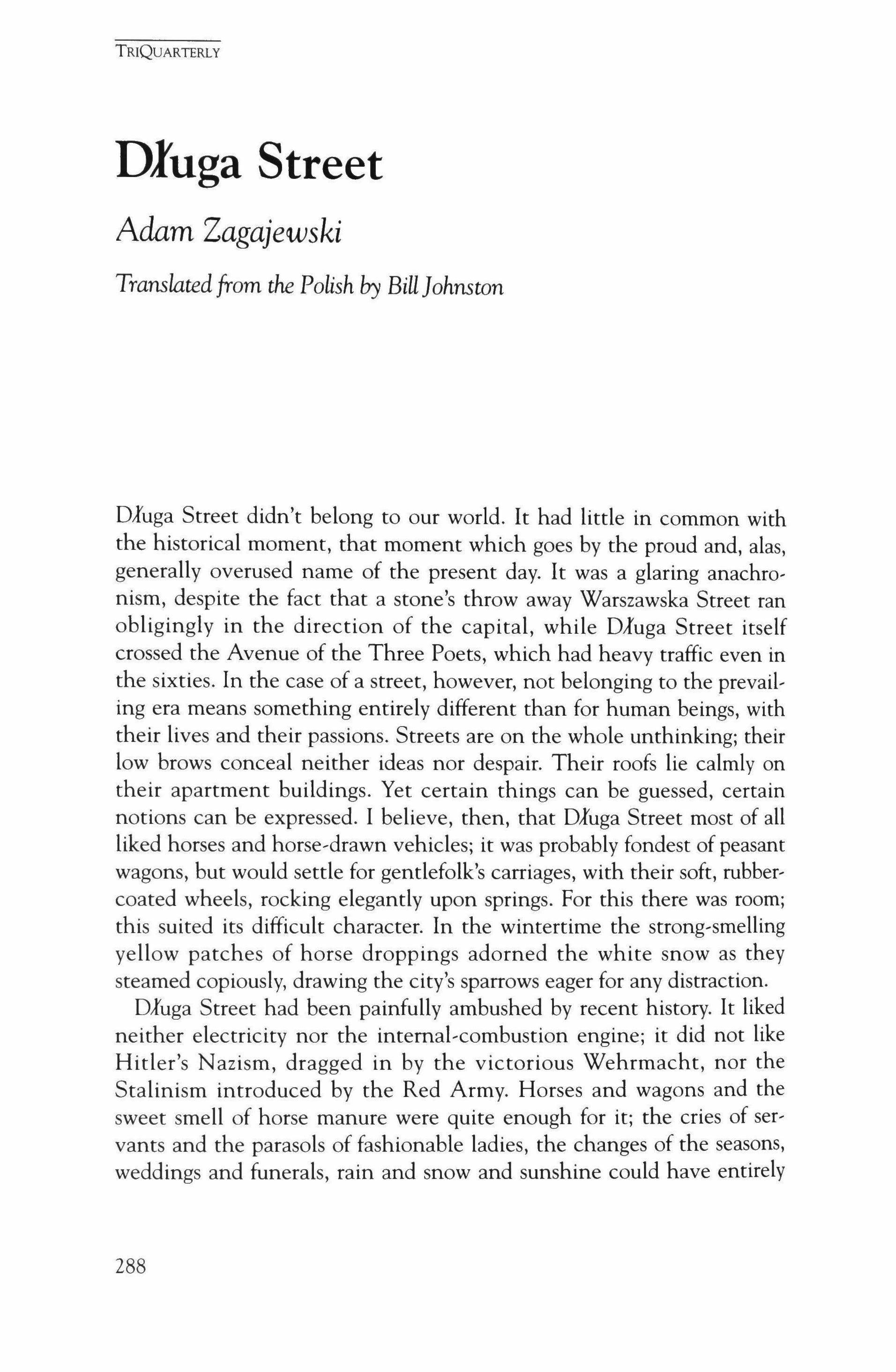
DXuga Street didn't belong to our world. It had little in common with the historical moment, that moment which goes by the proud and, alas, generally overused name of the present day. It was a glaring anachronism, despite the fact that a stone's throwaway Warszawska Street ran obligingly in the direction of the capital, while DXuga Street itself crossed the Avenue of the Three Poets, which had heavy traffic even in the sixties. In the case of a street, however, not belonging to the prevailing era means something entirely different than for human beings, with their lives and their passions. Streets are on the whole unthinking; their low brows conceal neither ideas nor despair. Their roofs lie calmly on their apartment buildings. Yet certain things can be guessed, certain notions can be expressed. I believe, then, that DXuga Street most of all liked horses and horse-drawn vehicles; it was probably fondest of peasant wagons, but would settle for gentlefolk's carriages, with their soft, rubbercoated wheels, rocking elegantly upon springs. For this there was room; this suited its difficult character. In the wintertime the strong-smelling yellow patches of horse droppings adorned the white snow as they steamed copiously, drawing the city's sparrows eager for any distraction.
DXuga Street had been painfully ambushed by recent history. It liked neither electricity nor the internal-combustion engine; it did not like Hitler's Nazism, dragged in by the victorious Wehrmacht, nor the Stalinism introduced by the Red Army. Horses and wagons and the sweet smell of horse manure were quite enough for it; the cries of servants and the parasols of fashionable ladies, the changes of the seasons, weddings and funerals, rain and snow and sunshine could have entirely
TRIQUARTERLY
288
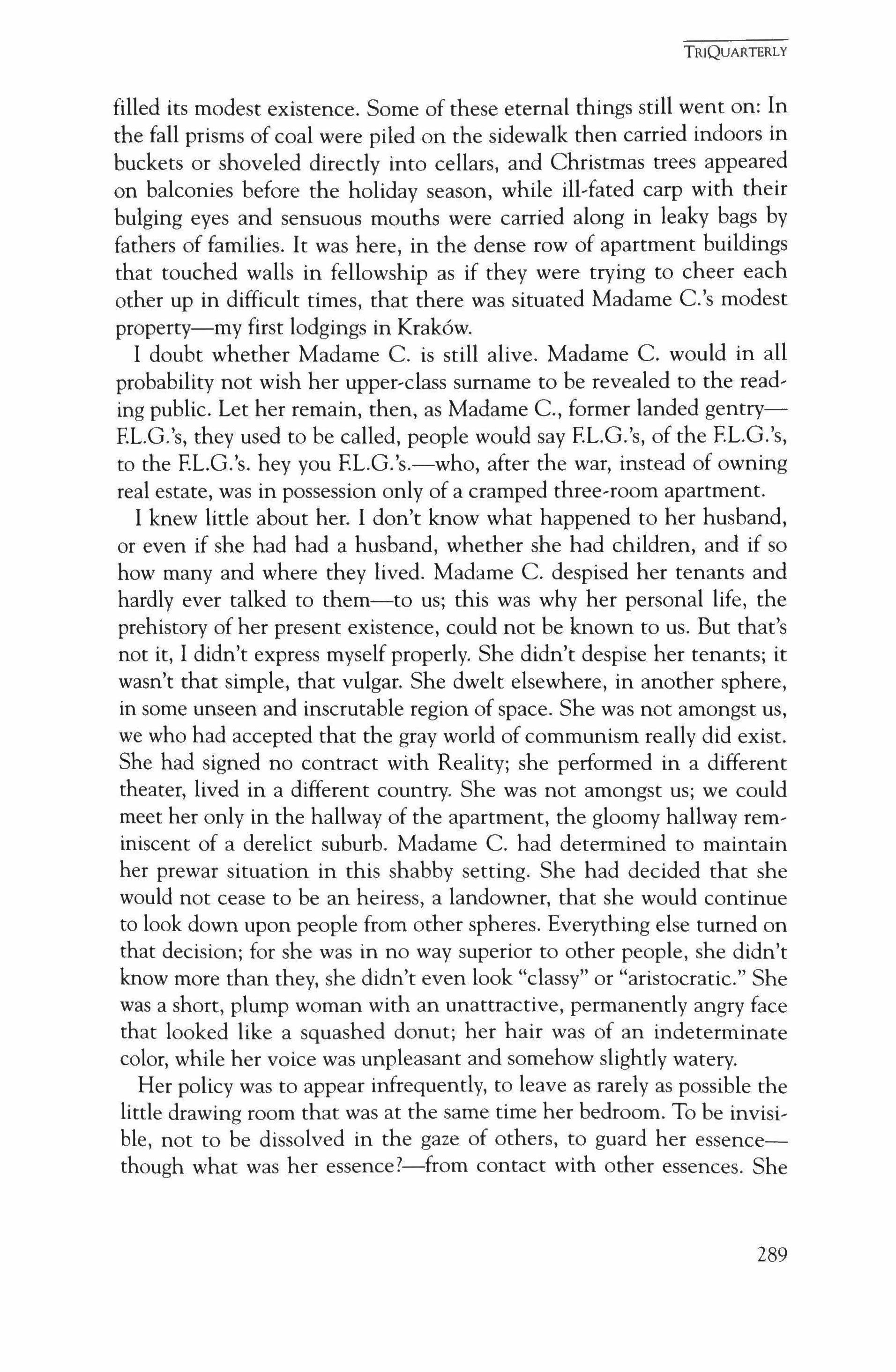
filled its modest existence. Some of these eternal things still went on: In the fall prisms of coal were piled on the sidewalk then carried indoors in buckets or shoveled directly into cellars, and Christmas trees appeared on balconies before the holiday season, while ill-fated carp with their bulging eyes and sensuous mouths were carried along in leaky bags by fathers of families. It was here, in the dense row of apartment buildings that touched walls in fellowship as if they were trying to cheer each other up in difficult times, that there was situated Madame c.'s modest property-my first lodgings in Krakow.
I doubt whether Madame C. is still alive. Madame C. would in all probability not wish her upper-class surname to be revealed to the reading public. Let her remain, then, as Madame c., former landed gentryEL.G.'s, they used to be called, people would say EL.G.'s, of the F.L.G.'s, to the EL.G.'s. hey you EL.G.'s.-who, after the war, instead of owning real estate, was in possession only of a cramped three-room apartment. I knew little about her. I don't know what happened to her husband, or even if she had had a husband, whether she had children, and if so how many and where they lived. Madame C. despised her tenants and hardly ever talked to them-to us; this was why her personal life, the prehistory of her present existence, could not be known to us. But that's not it, I didn't express myselfproperly. She didn't despise her tenants; it wasn't that simple, that vulgar. She dwelt elsewhere, in another sphere, in some unseen and inscrutable region of space. She was not amongst us, we who had accepted that the gray world of communism really did exist. She had signed no contract with Reality; she performed in a different theater, lived in a different country. She was not amongst us; we could meet her only in the hallway of the apartment, the gloomy hallway reminiscent of a derelict suburb. Madame C. had determined to maintain her prewar situation in this shabby setting. She had decided that she would not cease to be an heiress, a landowner, that she would continue to look down upon people from other spheres. Everything else turned on that decision; for she was in no way superior to other people, she didn't know more than they, she didn't even look "classy" or "aristocratic." She was a short, plump woman with an unattractive, permanently angry face that looked like a squashed donut; her hair was of an indeterminate color, while her voice was unpleasant and somehow slightly watery. Her policy was to appear infrequently, to leave as rarely as possible the little drawing room that was at the same time her bedroom. To be invisible, not to be dissolved in the gaze of others, to guard her essencethough what was her essence ?-from contact with other essences. She
TRIQUARTERLY
289
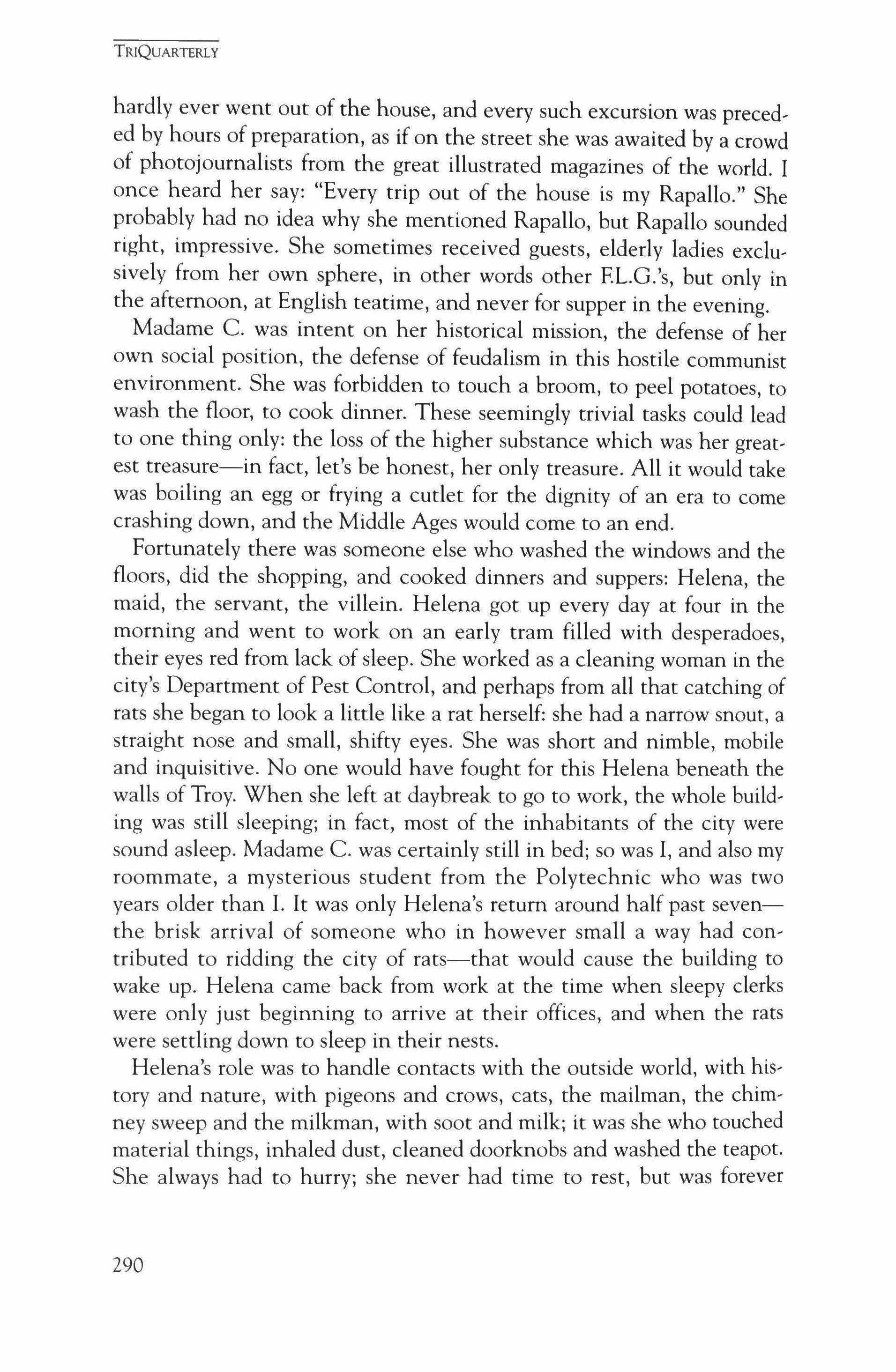
hardly ever went out of the house, and every such excursion was preceded by hours of preparation, as if on the street she was awaited by a crowd of photojournalists from the great illustrated magazines of the world. I once heard her say: "Every trip out of the house is my Rapallo." She probably had no idea why she mentioned Rapallo, but Rapallo sounded right, impressive. She sometimes received guests, elderly ladies exclusively from her own sphere, in other words other EL.G.'s, but only in the afternoon, at English teatime, and never for supper in the evening. Madame C. was intent on her historical mission, the defense of her own social position, the defense of feudalism in this hostile communist environment. She was forbidden to touch a broom, to peel potatoes, to wash the floor, to cook dinner. These seemingly trivial tasks could lead to one thing only: the loss of the higher substance which was her greatest treasure-in fact, let's be honest, her only treasure. All it would take was boiling an egg or frying a cutlet for the dignity of an era to come crashing down, and the Middle Ages would come to an end.
Fortunately there was someone else who washed the windows and the floors, did the shopping, and cooked dinners and suppers: Helena, the maid, the servant, the villein. Helena got up every day at four in the morning and went to work on an early tram filled with desperadoes, their eyes red from lack of sleep. She worked as a cleaning woman in the city's Department of Pest Control, and perhaps from all that catching of rats she began to look a little like a rat herself: she had a narrow snout, a straight nose and small, shifty eyes. She was short and nimble, mobile and inquisitive. No one would have fought for this Helena beneath the walls of Troy. When she left at daybreak to go to work, the whole building was still sleeping; in fact, most of the inhabitants of the city were sound asleep. Madame C. was certainly still in bed; so was I, and also my roommate, a mysterious student from the Polytechnic who was two years older than 1. It was only Helena's return around half past seventhe brisk arrival of someone who in however small a way had contributed to ridding the city of rats-that would cause the building to wake up. Helena came back from work at the time when sleepy clerks were only just beginning to arrive at their offices, and when the rats were settling down to sleep in their nests.
Helena's role was to handle contacts with the outside world, with history and nature, with pigeons and crows, cats, the mailman, the chimney sweep and the milkman, with soot and milk; it was she who touched material things, inhaled dust, cleaned doorknobs and washed the teapot. She always had to hurry; she never had time to rest, but was forever
TRIQUARTERLY
290
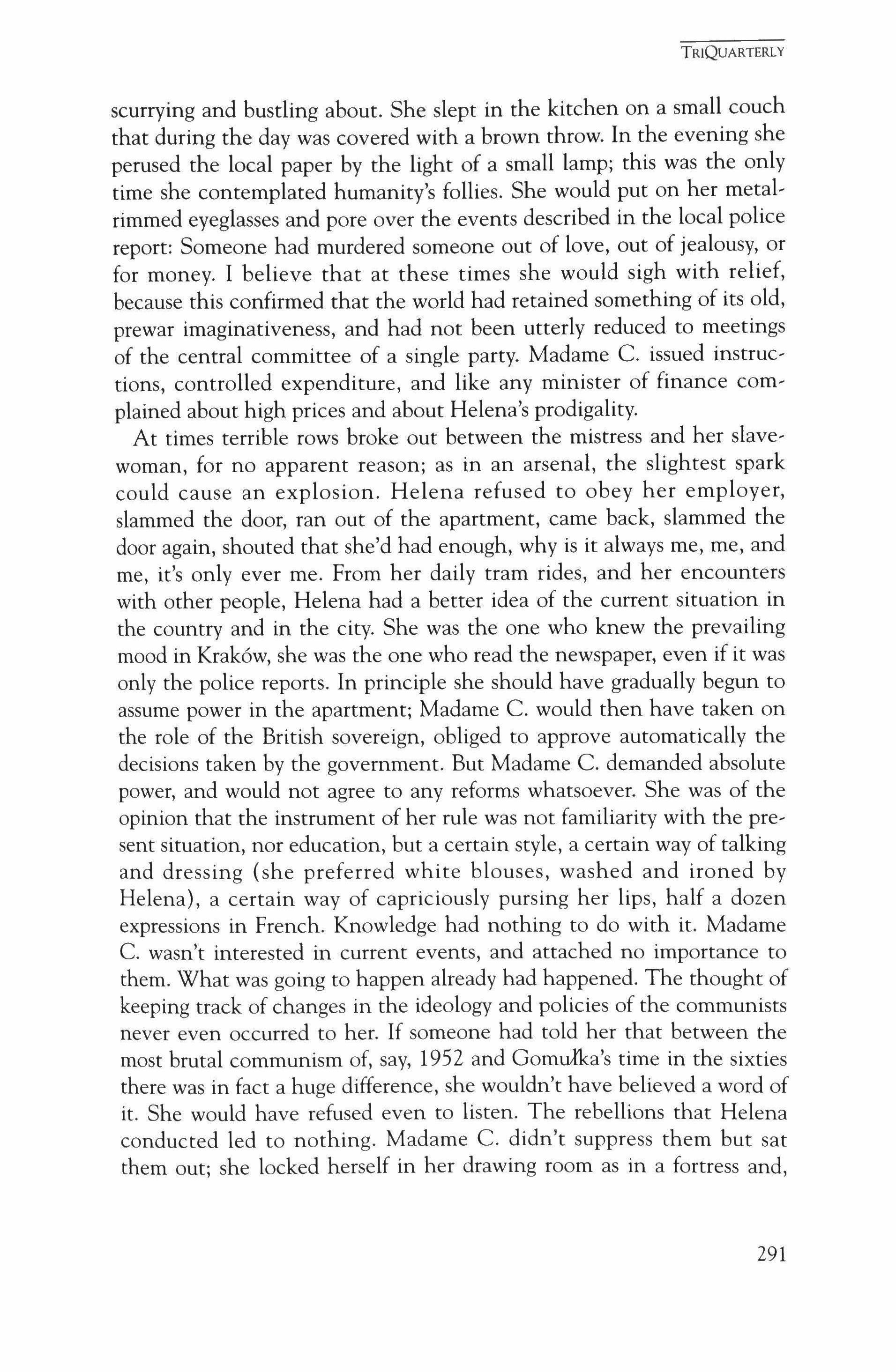
scurrying and bustling about. She slept in the kitchen on a small couch that during the day was covered with a brown throw. In the evening she perused the local paper by the light of a small lamp; this was the only time she contemplated humanity's follies. She would put on her metalrimmed eyeglasses and pore over the events described in the local police report: Someone had murdered someone out of love, out of jealousy, or for money. I believe that at these times she would sigh with relief, because this confirmed that the world had retained something of its old, prewar imaginativeness, and had not been utterly reduced to meetings of the central committee of a single party. Madame C. issued instructions, controlled expenditure, and like any minister of finance cornplained about high prices and about Helena's prodigality.
At times terrible rows broke out between the mistress and her slavewoman, for no apparent reason; as in an arsenal, the slightest spark could cause an explosion. Helena refused to obey her employer, slammed the door, ran out of the apartment, came back, slammed the door again, shouted that she'd had enough, why is it always me, me, and me, it's only ever me. From her daily tram rides, and her encounters with other people, Helena had a better idea of the current situation in the country and in the city. She was the one who knew the prevailing mood in Krakow, she was the one who read the newspaper, even if it was only the police reports. In principle she should have gradually begun to assume power in the apartment; Madame C. would then have taken on the role of the British sovereign, obliged to approve automatically the decisions taken by the government. But Madame C. demanded absolute power, and would not agree to any reforms whatsoever. She was of the opinion that the instrument of her rule was not familiarity with the present situation, nor education, but a certain style, a certain way of talking and dressing (she preferred white blouses, washed and ironed by Helena), a certain way of capriciously pursing her lips, half a dozen expressions in French. Knowledge had nothing to do with it. Madame C. wasn't interested in current events, and attached no importance to them. What was going to happen already had happened. The thought of keeping track of changes in the ideology and policies of the communists never even occurred to her. If someone had told her that between the most brutal communism of, say, 1952 and Gomulka's time in the sixties there was in fact a huge difference, she wouldn't have believed a word of it. She would have refused even to listen. The rebellions that Helena conducted led to nothing. Madame C. didn't suppress them but sat them out; she locked herself in her drawing room as in a fortress and,
TRIQUARTERLY
291
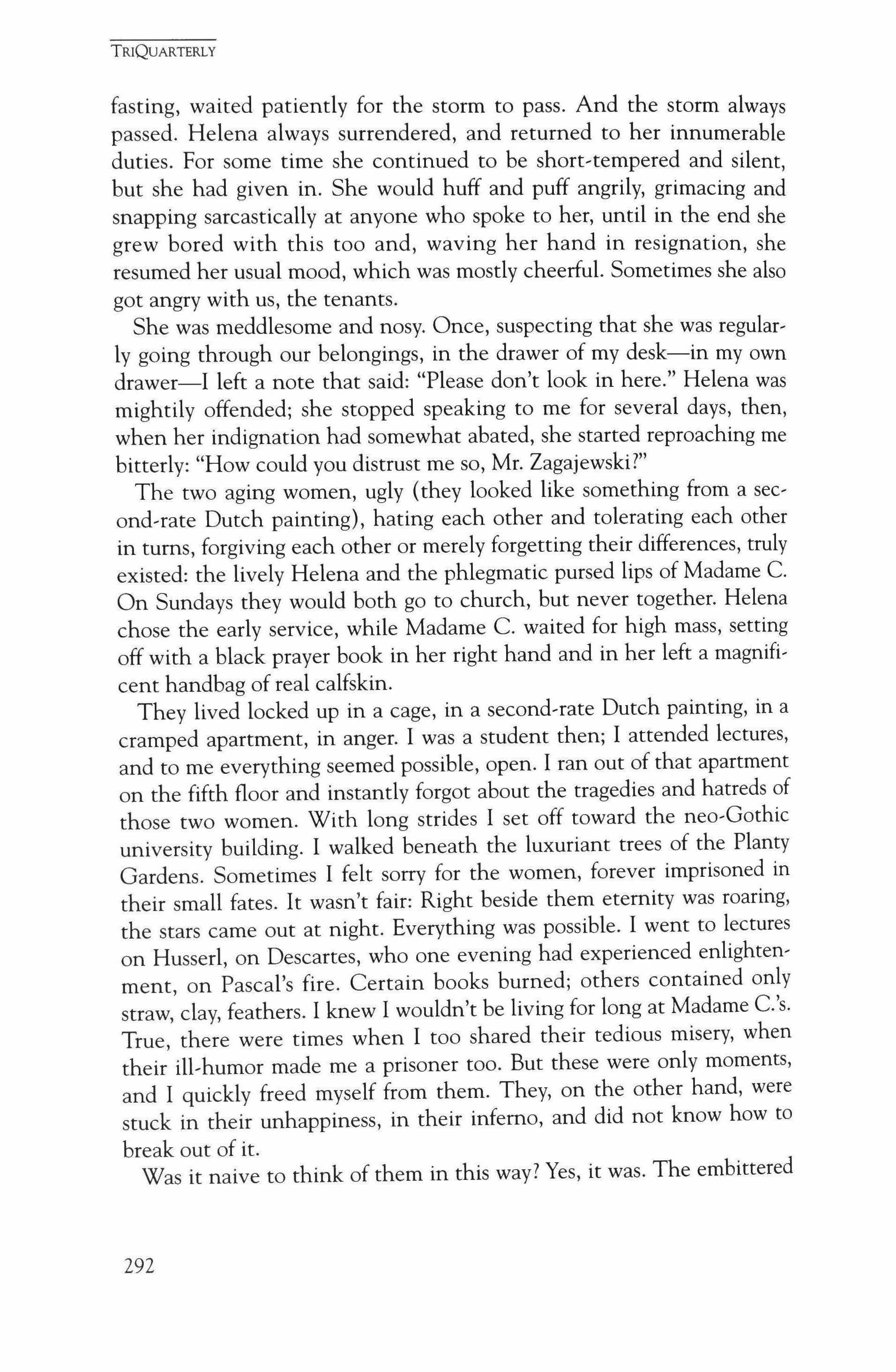
fasting, waited patiently for the storm to pass. And the storm always passed. Helena always surrendered, and returned to her innumerable duties. For some time she continued to be short-tempered and silent, but she had given in. She would huff and puff angrily, grimacing and snapping sarcastically at anyone who spoke to her, until in the end she grew bored with this too and, waving her hand in resignation, she resumed her usual mood, which was mostly cheerful. Sometimes she also got angry with us, the tenants.
She was meddlesome and nosy. Once, suspecting that she was regularly going through our belongings, in the drawer of my desk-in my own drawer-I left a note that said: "Please don't look in here." Helena was mightily offended; she stopped speaking to me for several days, then, when her indignation had somewhat abated, she started reproaching me bitterly: "How could you distrust me so, Mr. Zagajewski?"
The two aging women, ugly (they looked like something from a second-rate Dutch painting), hating each other and tolerating each other in turns, forgiving each other or merely forgetting their differences, truly existed: the lively Helena and the phlegmatic pursed lips of Madame C. On Sundays they would both go to church, but never together. Helena chose the early service, while Madame C. waited for high mass, setting off with a black prayer book in her right hand and in her left a magnificent handbag of real calfskin.
They lived locked up in a cage, in a second-rate Dutch painting, in a cramped apartment, in anger. I was a student then; I attended lectures, and to me everything seemed possible, open. I ran out of that apartment on the fifth floor and instantly forgot about the tragedies and hatreds of those two women. With long strides I set off toward the neo-Gothic university building. I walked beneath the luxuriant trees of the Planty Gardens. Sometimes I felt sorry for the women, forever imprisoned in their small fates. It wasn't fair: Right beside them eternity was roaring, the stars came out at night. Everything was possible. I went to lectures on Husserl, on Descartes, who one evening had experienced enlightenment, on Pascal's fire. Certain books burned; others contained only straw, clay, feathers. I knew I wouldn't be living for long at Madame c.'s. True, there were times when I too shared their tedious misery, when their ill-humor made me a prisoner too. But these were only moments, and I quickly freed myself from them. They, on the other hand, were stuck in their unhappiness, in their inferno, and did not know how to break out of it.
Was it naive to think of them in this way? Yes, it was. The embittered
TRIQUARTERLY
292
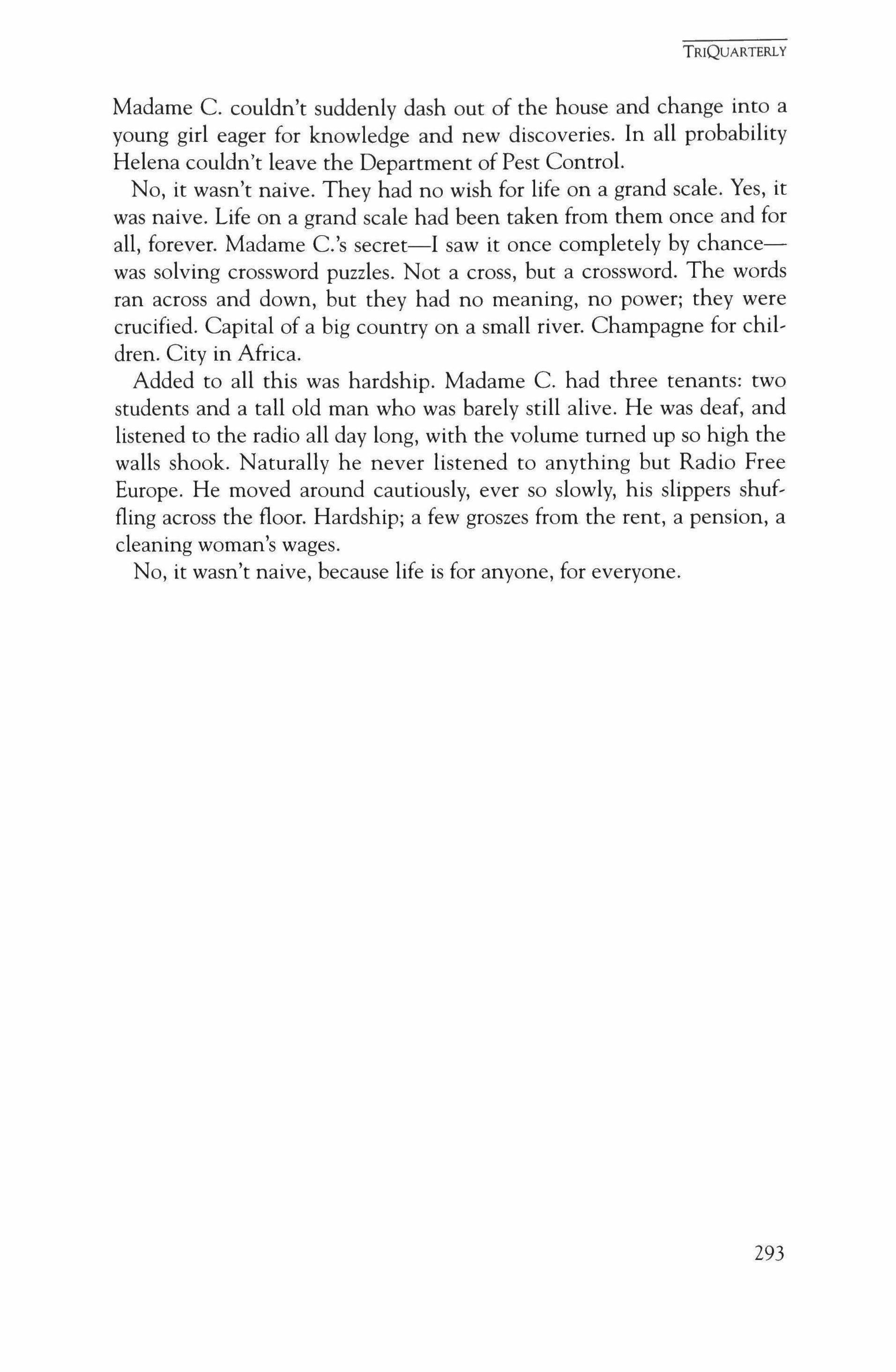
Madame C. couldn't suddenly dash out of the house and change into a young girl eager for knowledge and new discoveries. In all probability Helena couldn't leave the Department of Pest Control.
No, it wasn't naive. They had no wish for life on a grand scale. Yes, it was naive. Life on a grand scale had been taken from them once and for all, forever. Madame c.'s secret-I saw it once completely by chancewas solving crossword puzzles. Not a cross, but a crossword. The words ran across and down, but they had no meaning, no power; they were crucified. Capital of a big country on a small river. Champagne for children. City in Africa.
Added to all this was hardship. Madame C. had three tenants: two students and a tall old man who was barely still alive. He was deaf, and listened to the radio all day long, with the volume turned up so high the walls shook. Naturally he never listened to anything but Radio Free Europe. He moved around cautiously, ever so slowly, his slippers shuffling across the floor. Hardship; a few groszes from the rent, a pension, a cleaning woman's wages.
No, it wasn't naive, because life is for anyone, for everyone.
TRIQUARTERLY
293
Firescapes: A Memoir
Evan K. Margetson
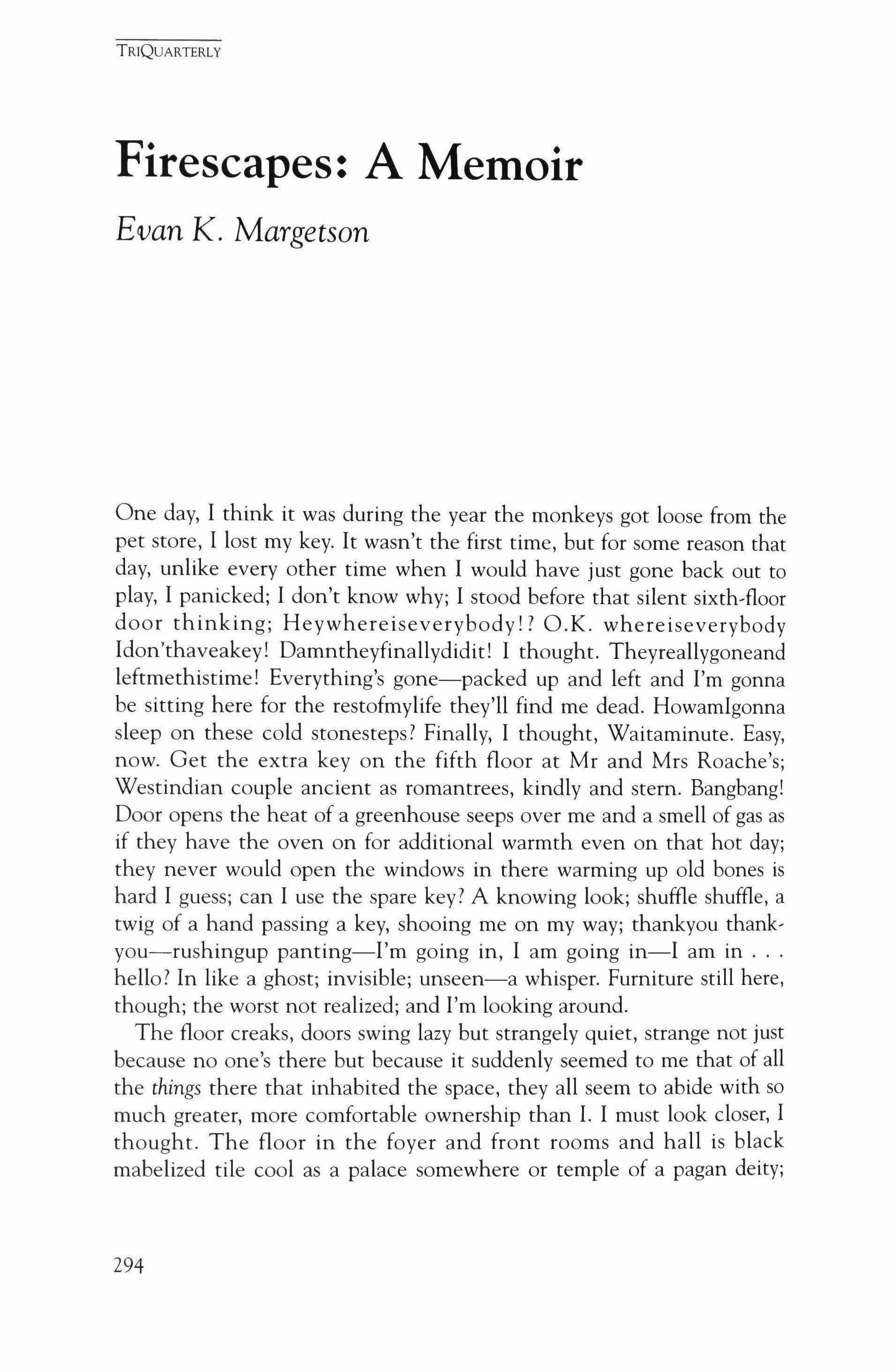
One day, I think it was during the year the monkeys got loose from the pet store, I lost my key. It wasn't the first time, but for some reason that day, unlike every other time when I would have just gone back out to play, I panicked; I don't know why; I stood before that silent sixth-floor door thinking; Heywhereiseverybody!? O.K. whereiseverybody Idon'thaveakey! Damnthevfinallydtdit! I thought. Theyreallygoneand leftmethistime! Everything's gone-packed up and left and I'm gonna be sitting here for the restofmylife they'll find me dead. HowamIgonna sleep on these cold stonesteps? Finally, I thought, Waitaminute. Easy, now. Get the extra key on the fifth floor at Mr and Mrs Roache's; Westindian couple ancient as romantrees, kindly and stern. Bangbang! Door opens the heat of a greenhouse seeps over me and a smell of gas as if they have the oven on for additional warmth even on that hot day; they never would open the windows in there warming up old bones is hard I guess; can I use the spare key? A knowing look; shuffle shuffle, a twig of a hand passing a key, shooing me on my way; thankyou thankyou-rushingup panting-I'm going in, I am going in-I am in hello? In like a ghost; invisible; unseen-a whisper. Furniture still here, though; the worst not realized; and I'm looking around.
The floor creaks, doors swing lazy but strangely quiet, strange not just because no one's there but because it suddenly seemed to me that of all the things there that inhabited the space, they all seem to abide with so much greater, more comfortable ownership than I. I must look closer, I thought. The floor in the foyer and front rooms and hall is black mabelized tile cool as a palace somewhere or temple of a pagan deity;
TRIQUARTERLY
294
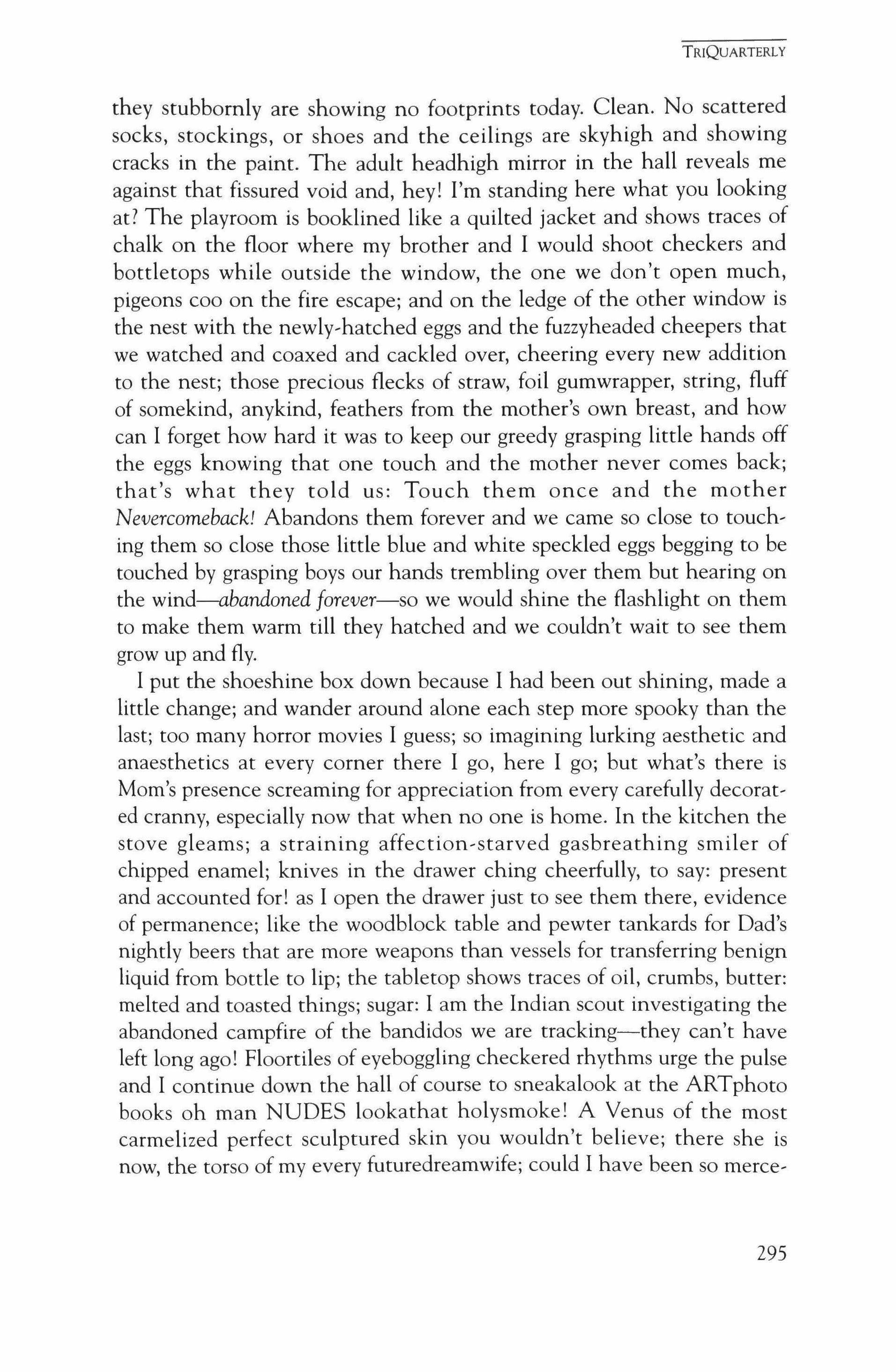
they stubbornly are showing no footprints today. Clean. No scattered socks, stockings, or shoes and the ceilings are skyhigh and showing cracks in the paint. The adult headhigh mirror in the hall reveals me against that fissured void and, hey! I'm standing here what you looking at? The playroom is booklined like a quilted jacket and shows traces of chalk on the floor where my brother and I would shoot checkers and bottletops while outside the window, the one we don't open much, pigeons coo on the fire escape; and on the ledge of the other window is the nest with the newly-hatched eggs and the fuzzyheaded cheepers that we watched and coaxed and cackled over, cheering every new addition to the nest; those precious flecks of straw, foil gumwrapper, string, fluff of somekind, anykind, feathers from the mother's own breast, and how can I forget how hard it was to keep our greedy grasping little hands off the eggs knowing that one touch and the mother never comes back; that's what they told us: Touch them once and the mother Nevercomeback! Abandons them forever and we came so close to touching them so close those little blue and white speckled eggs begging to be touched by grasping boys our hands trembling over them but hearing on the wind-abandoned forever-so we would shine the flashlight on them to make them warm till they hatched and we couldn't wait to see them grow up and fly.
I put the shoeshine box down because I had been out shining, made a little change; and wander around alone each step more spooky than the last; too many horror movies I guess; so imagining lurking aesthetic and anaesthetics at every corner there I go, here I go; but what's there is Mom's presence screaming for appreciation from every carefully decorated cranny, especially now that when no one is home. In the kitchen the stove gleams; a straining affection-starved gasbreathing smiler of chipped enamel; knives in the drawer ching cheerfully, to say: present and accounted for! as I open the drawer just to see them there, evidence of permanence; like the woodblock table and pewter tankards for Dad's nightly beers that are more weapons than vessels for transferring benign liquid from bottle to lip; the tabletop shows traces of oil, crumbs, butter: melted and toasted things; sugar: I am the Indian scout investigating the abandoned campfire of the bandidos we are tracking-they can't have left long ago! Floortiles of eyeboggling checkered rhythms urge the pulse and I continue down the hall of course to sneakalook at the ARTphoto books oh man NUDES lookathat holysmoke! A Venus of the most carmelized perfect sculptured skin you wouldn't believe; there she is now, the torso of my every futuredreamwife; could I have been so merce-
TRIQUARTERLY
295
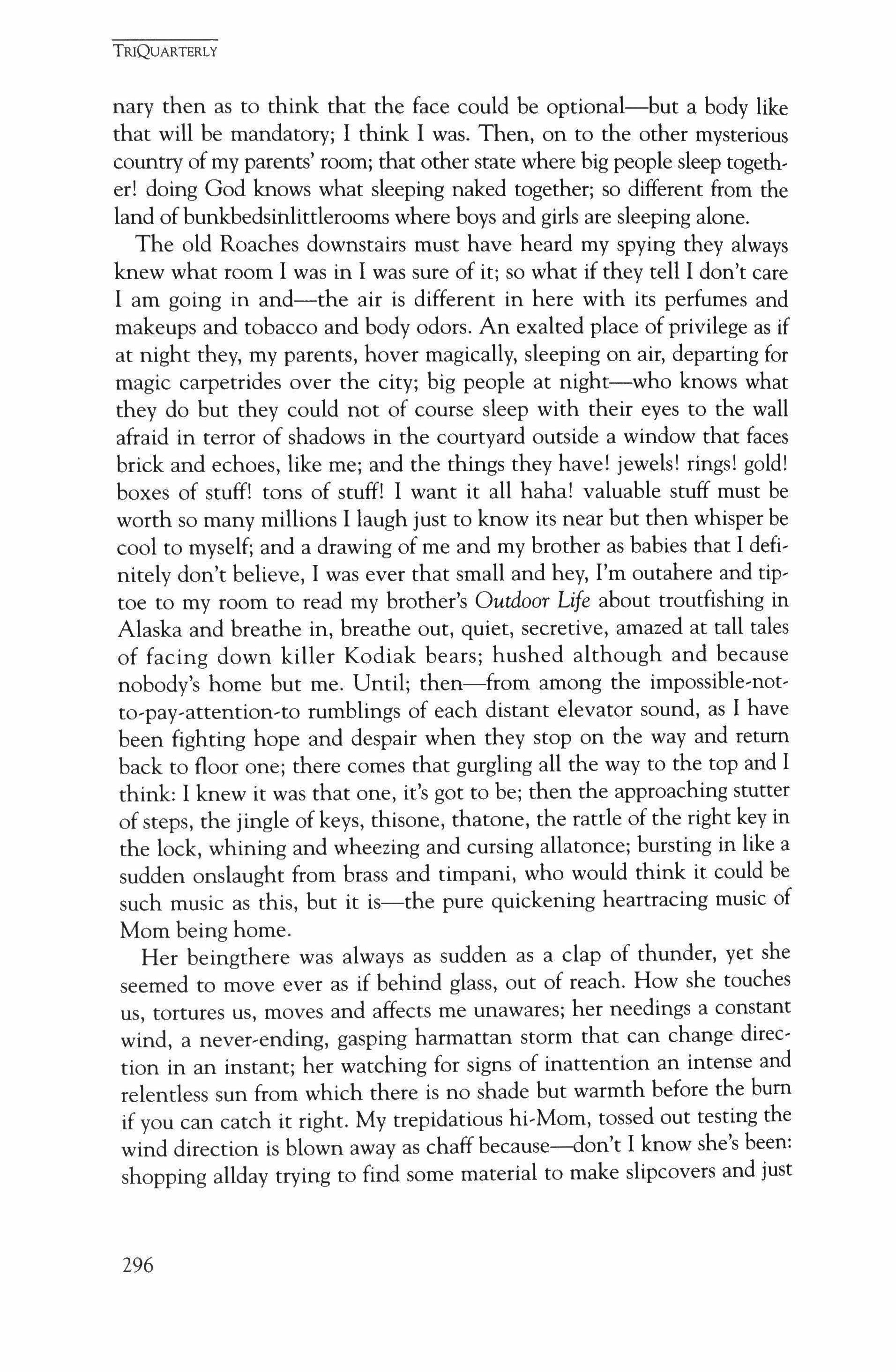
nary then as to think that the face could be optional-but a body like that will be mandatory; I think I was. Then, on to the other mysterious country of my parents' room; that other state where big people sleep together! doing God knows what sleeping naked together; so different from the land ofbunkbedsinlittlerooms where boys and girls are sleeping alone.
The old Roaches downstairs must have heard my spying they always knew what room I was in I was sure of it; so what if they tell I don't care I am going in and-the air is different in here with its perfumes and makeups and tobacco and body odors. An exalted place of privilege as if at night they, my parents, hover magically, sleeping on air, departing for magic carpetrides over the city; big people at night-who knows what they do but they could not of course sleep with their eyes to the wall afraid in terror of shadows in the courtyard outside a window that faces brick and echoes, like me; and the things they have! jewels! rings! gold! boxes of stuff! tons of stuff! I want it all haha! valuable stuff must be worth so many millions I laugh just to know its near but then whisper be cool to myself; and a drawing of me and my brother as babies that I definitely don't believe, I was ever that small and hey, I'm outahere and tiptoe to my room to read my brother's Outdoor Life about troutfishing in Alaska and breathe in, breathe out, quiet, secretive, amazed at tall tales of facing down killer Kodiak bears; hushed although and because nobody's home but me. Until; then-from among the impossible-notto-pay-attention-to rumblings of each distant elevator sound, as I have been fighting hope and despair when they stop on the way and return back to floor one; there comes that gurgling all the way to the top and I think: I knew it was that one, it's got to be; then the approaching stutter of steps, the jingle of keys, thisone, thatone, the rattle of the right key in the lock, whining and wheezing and cursing allatonce; bursting in like a sudden onslaught from brass and timpani, who would think it could be such music as this, but it is-the pure quickening heartracing music of Mom being home.
Her beingthere was always as sudden as a clap of thunder, yet she seemed to move ever as if behind glass, out of reach. How she touches us, tortures us, moves and affects me unawares; her needings a constant wind, a never-ending, gasping harmattan storm that can change direction in an instant; her watching for signs of inattention an intense and relentless sun from which there is no shade but warmth before the bum if you can catch it right. My trepidatious hi-Mom, tossed out testing the wind direction is blown away as chaff because--don't I know she's been: shopping allday trying to find some material to make slipcovers and just
TRIQUARTERLY
296
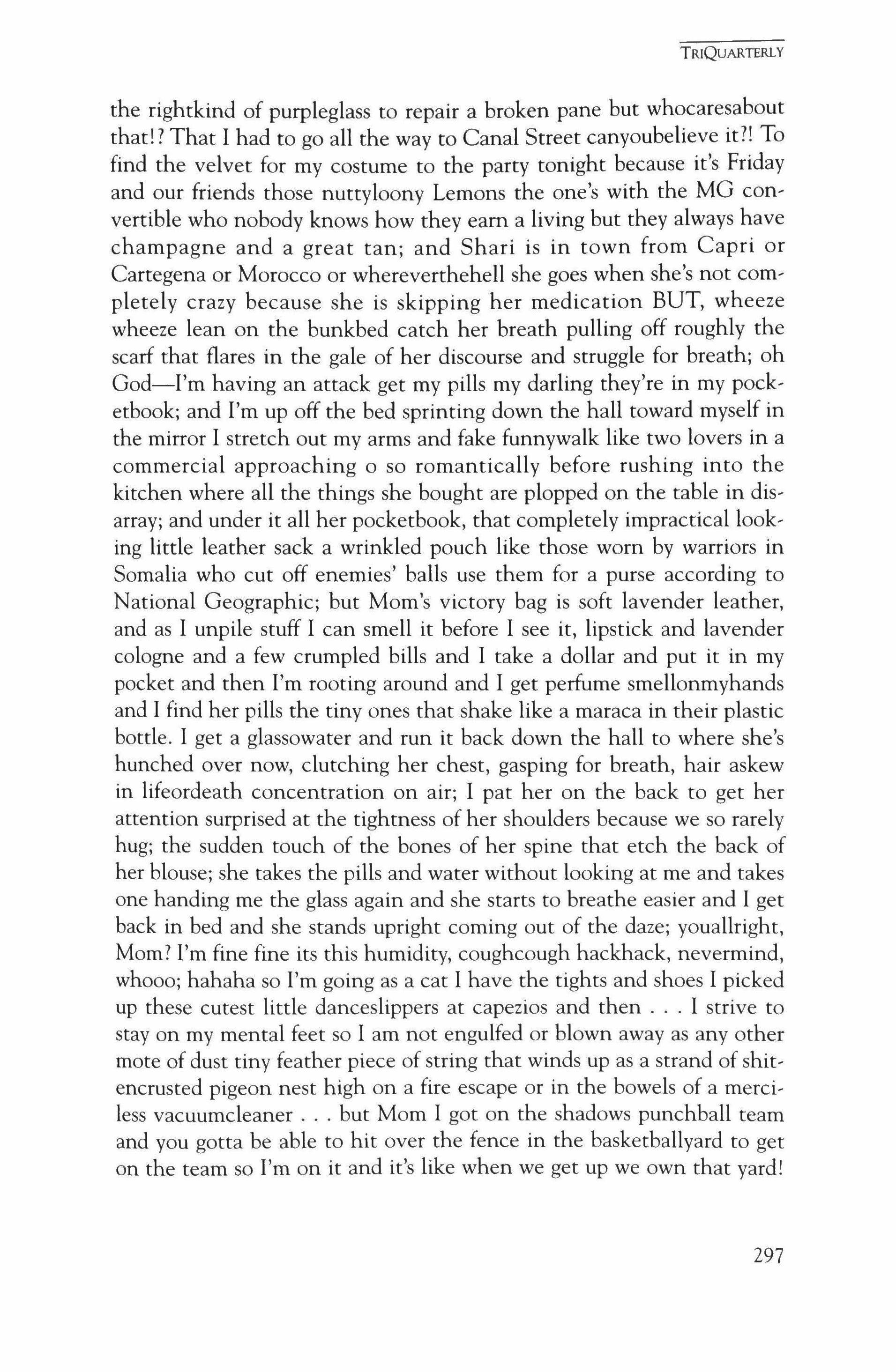
the righrkind of purpleglass to repair a broken pane but whocaresabout that!? That I had to go all the way to Canal Street canyoubelieve it?! To find the velvet for my costume to the party tonight because it's Friday and our friends those nuttyloony Lemons the one's with the MG con' vertible who nobody knows how they earn a living but they always have champagne and a great tan; and Shari is in town from Capri or Cartegena or Morocco or whereverthehell she goes when she's not com' pletely crazy because she is skipping her medication BUT, wheeze wheeze lean on the bunkbed catch her breath pulling off roughly the scarf that flares in the gale of her discourse and struggle for breath; oh God-I'm having an attack get my pills my darling they're in my pocketbook; and I'm up off the bed sprinting down the hall toward myself in the mirror I stretch out my arms and fake funnywalk like two lovers in a commercial approaching 0 so romantically before rushing into the kitchen where all the things she bought are plopped on the table in disarray; and under it all her pocketbook, that completely impractical looking little leather sack a wrinkled pouch like those worn by warriors in Somalia who cut off enemies' balls use them for a purse according to National Geographic; but Mom's victory bag is soft lavender leather, and as I unpile stuff I can smell it before I see it, lipstick and lavender cologne and a few crumpled bills and I take a dollar and put it in my pocket and then I'm rooting around and I get perfume smellonmyhands and I find her pills the tiny ones that shake like a maraca in their plastic bottle. I get a glassowater and run it back down the hall to where she's hunched over now, clutching her chest, gasping for breath, hair askew in lifeordeath concentration on air; I pat her on the back to get her attention surprised at the tightness of her shoulders because we so rarely hug; the sudden touch of the bones of her spine that etch the back of her blouse; she takes the pills and water without looking at me and takes one handing me the glass again and she starts to breathe easier and I get back in bed and she stands upright coming out of the daze; youallright, Mom? I'm fine fine its this humidity, coughcough hackhack, nevermind, whooo; hahaha so I'm going as a cat I have the tights and shoes I picked up these cutest little danceslippers at capezios and then I strive to stay on my mental feet so I am not engulfed or blown away as any other mote of dust tiny feather piece of string that winds up as a strand of shitencrusted pigeon nest high on a fire escape or in the bowels of a merciless vacuumcleaner but Mom I got on the shadows punchball team and you gotta be able to hit over the fence in the basketballyard to get on the team so I'm on it and it's like when we get up we own that yard!
TRIQUARTERLY
297
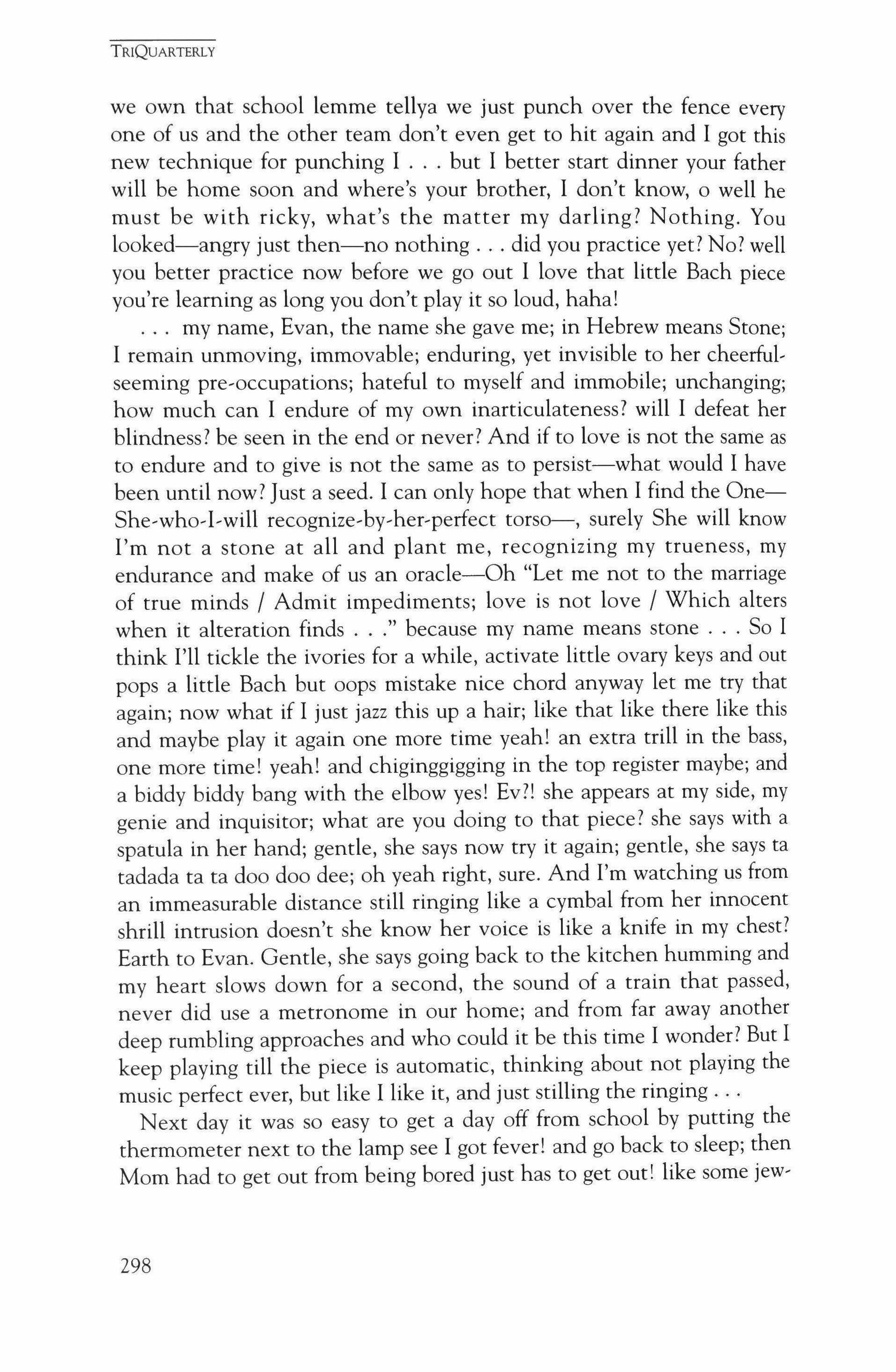
we own that school lemme tellya we just punch over the fence every one of us and the other team don't even get to hit again and I got this new technique for punching I but I better start dinner your father will be home soon and where's your brother, I don't know, 0 well he must be with ricky, what's the matter my darling? Nothing. You looked-angry just then-no nothing did you practice yet? No? well you better practice now before we go out I love that little Bach piece you're learning as long you don't play it so loud, haha! my name, Evan, the name she gave me; in Hebrew means Stone; I remain unmoving, immovable; enduring, yet invisible to her cheerfulseeming pre-occupations; hateful to myself and immobile; unchanging; how much can I endure of my own inarticulateness? will I defeat her blindness? be seen in the end or never? And if to love is not the same as to endure and to give is not the same as to persist-what would I have been until now? Just a seed. I can only hope that when I find the OneShe-who-l-will recognize-by-her-perfect torso-, surely She will know I'm not a stone at all and plant me, recognizing my trueness, my endurance and make of us an oracle-Oh "Let me not to the marriage of true minds / Admit impediments; love is not love / Which alters when it alteration finds because my name means stone So I think I'll tickle the ivories for a while, activate little ovary keys and out pops a little Bach but oops mistake nice chord anyway let me try that again; now what if I just jazz this up a hair; like that like there like this and maybe play it again one more time yeah! an extra trill in the bass, one more time! yeah! and chiginggigging in the top register maybe; and a biddy biddy bang with the elbow yes! Ev?! she appears at my side, my genie and inquisitor; what are you doing to that piece? she says with a spatula in her hand; gentle, she says now try it again; gentle, she says ta tadada ta ta doo doo dee; oh yeah right, sure. And I'm watching us from an immeasurable distance still ringing like a cymbal from her innocent shrill intrusion doesn't she know her voice is like a knife in my chest? Earth to Evan. Gentle, she says going back to the kitchen humming and my heart slows down for a second, the sound of a train that passed, never did use a metronome in our home; and from far away another deep rumbling approaches and who could it be this time I wonder? But I keep playing till the piece is automatic, thinking about not playing the music perfect ever, but like I like it, and just stilling the ringing Next day it was so easy to get a day off from school by putting the thermometer next to the lamp see I got fever! and go back to sleep; then Mom had to get out from being bored just has to get out! like some jew-
TRIQUARTERLY
298
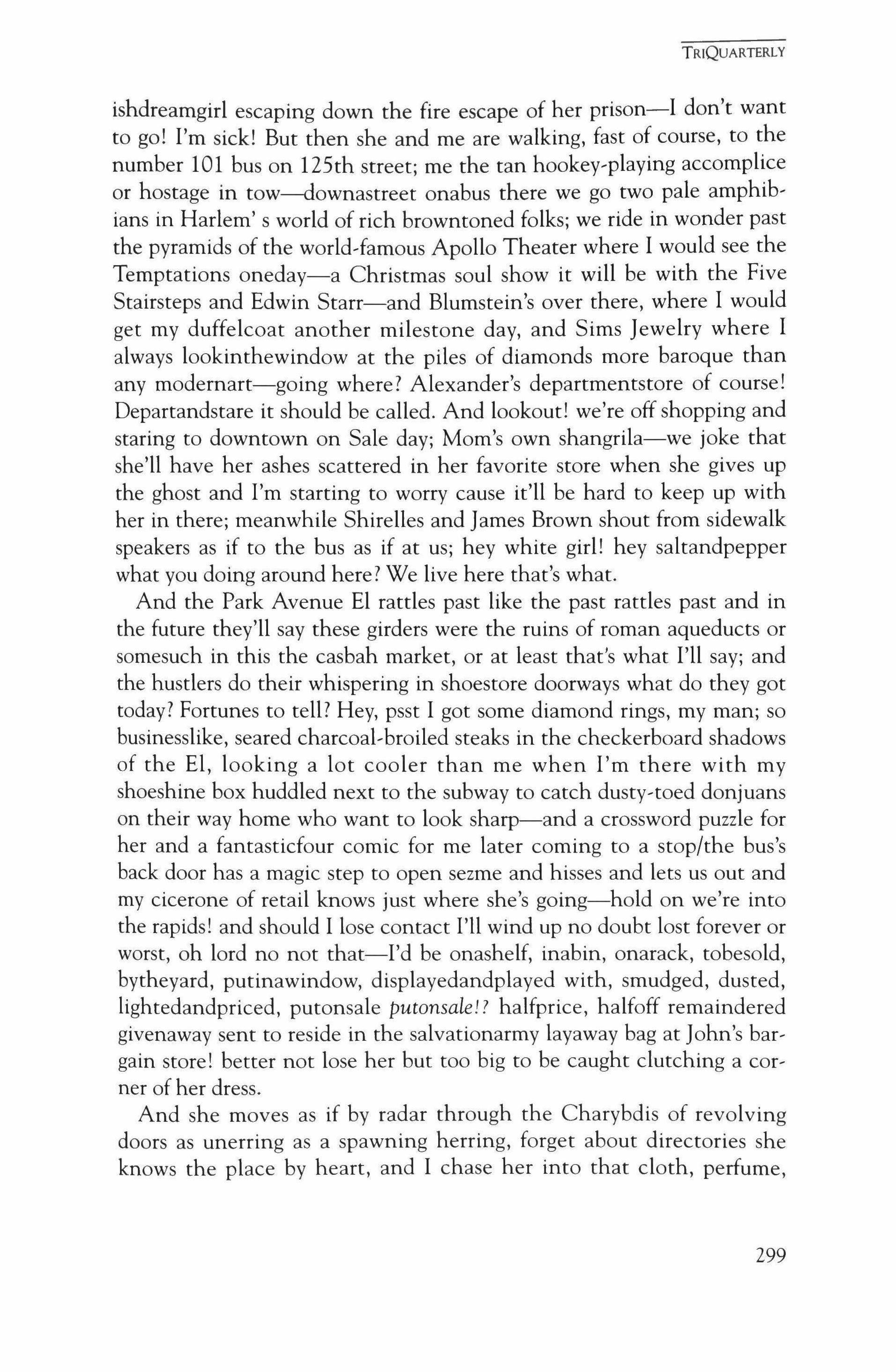
ishdreamgirl escaping down the fire escape of her prison-I don't want to go! I'm sick! But then she and me are walking, fast of course, to the number 101 bus on 125th street; me the tan hookey-playing accomplice or hostage in tow--downastreet onabus there we go two pale amphibians in Harlem's world of rich browntoned folks; we ride in wonder past the pyramids of the world-famous Apollo Theater where I would see the Temptations oneday-a Christmas soul show it will be with the Five Stairsteps and Edwin Starr-and Blumstein's over there, where I would get my duffelcoat another milestone day, and Sims Jewelry where I always lookinthewindow at the piles of diamonds more baroque than any modernart-going where? Alexander's departmentstore of course! Departandstare it should be called. And lookout! we're off shopping and staring to downtown on Sale day; Mom's own shangrila-we joke that she'll have her ashes scattered in her favorite store when she gives up the ghost and I'm starting to worry cause it'll be hard to keep up with her in there; meanwhile Shirelles and J ames Brown shout from sidewalk speakers as if to the bus as if at us; hey white girl! hey saltandpepper what you doing around here? We live here that's what.
And the Park Avenue El rattles past like the past rattles past and in the future they'll say these girders were the ruins of roman aqueducts or somesuch in this the casbah market, or at least that's what I'll say; and the hustlers do their whispering in shoestore doorways what do they got today? Fortunes to tell? Hey, psst I got some diamond rings, my man; so businesslike, seared charcoal-broiled steaks in the checkerboard shadows of the El, looking a lot cooler than me when I'm there with my shoeshine box huddled next to the subway to catch dusty-toed donjuans on their way home who want to look sharp-and a crossword puzzle for her and a fantasticfour comic for me later coming to a stop/the bus's back door has a magic step to open sezme and hisses and lets us out and my cicerone of retail knows just where she's going-hold on we're into the rapids! and should I lose contact I'll wind up no doubt lost forever or worst, oh lord no not that-I'd be onashelf, inabin, onarack, tobesold, bytheyard, putinawindow, displayedandplayed with, smudged, dusted, lightedandpriced, putonsale putonsale!? halfprice, halfoff remaindered givenaway sent to reside in the salvationarmy layaway bag at John's bar, gain store! better not lose her but too big to be caught clutching a cor, ner of her dress.
And she moves as if by radar through the Charybdis of revolving doors as unerring as a spawning herring, forget about directories she knows the place by heart, and I chase her into that cloth, perfume, 299
TRIQUARTERLY
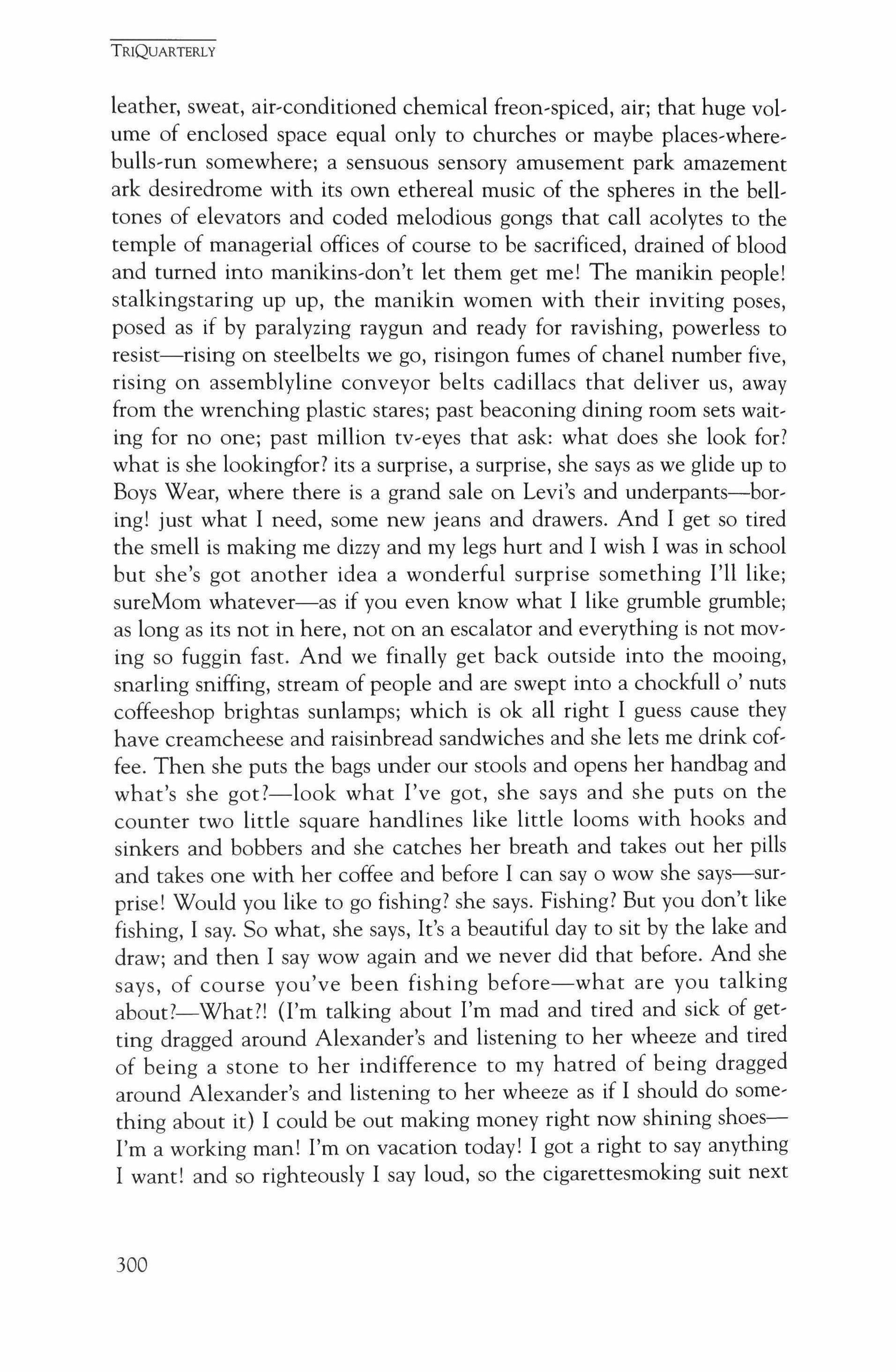
leather, sweat, air-conditioned chemical freon-spiced, air; that huge volume of enclosed space equal only to churches or maybe places-wherebulls-run somewhere; a sensuous sensory amusement park amazement ark desiredrome with its own ethereal music of the spheres in the belltones of elevators and coded melodious gongs that call acolytes to the temple of managerial offices of course to be sacrificed, drained of blood and turned into manikins-don't let them get me! The manikin people! stalkingstaring up up, the manikin women with their inviting poses, posed as if by paralyzing raygun and ready for ravishing, powerless to resist-rising on steelbelts we go, risingon fumes of chanel number five, rising on assemblyline conveyor belts cadillacs that deliver us, away from the wrenching plastic stares; past beaconing dining room sets waiting for no one; past million tv-eyes that ask: what does she look for? what is she Iookingfor? its a surprise, a surprise, she says as we glide up to Boys Wear, where there is a grand sale on Levi's and underpants-boring! just what I need, some new jeans and drawers. And I get so tired the smell is making me dizzy and my legs hurt and I wish I was in school but she's got another idea a wonderful surprise something I'll like; sureMom whatever-as if you even know what I like grumble grumble; as long as its not in here, not on an escalator and everything is not moving so fuggin fast. And we finally get back outside into the mooing, snarling sniffing, stream of people and are swept into a chockfull 0' nuts coffeeshop brightas sunlamps; which is ok all right I guess cause they have creamcheese and raisinbread sandwiches and she lets me drink coffee. Then she puts the bags under our stools and opens her handbag and what's she got?-look what I've got, she says and she puts on the counter two little square handlines like little looms with hooks and sinkers and bobbers and she catches her breath and takes out her pills and takes one with her coffee and before I can say a wow she says-surprise! Would you like to go fishing? she says. Fishing? But you don't like fishing, I say. So what, she says, It's a beautiful day to sit by the lake and draw; and then I say wow again and we never did that before. And she says, of course you've been fishing before-what are you talking about?-What?! (I'm talking about I'm mad and tired and sick of getting dragged around Alexander's and listening to her wheeze and tired of being a stone to her indifference to my hatred of being dragged around Alexander's and listening to her wheeze as if I should do something about it) I could be out making money right now shining shoesI'm a working man! I'm on vacation today! I got a right to say anything I want! and so righteously I say loud, so the cigarettesmoking suit next
TRIQUARTERLY
300
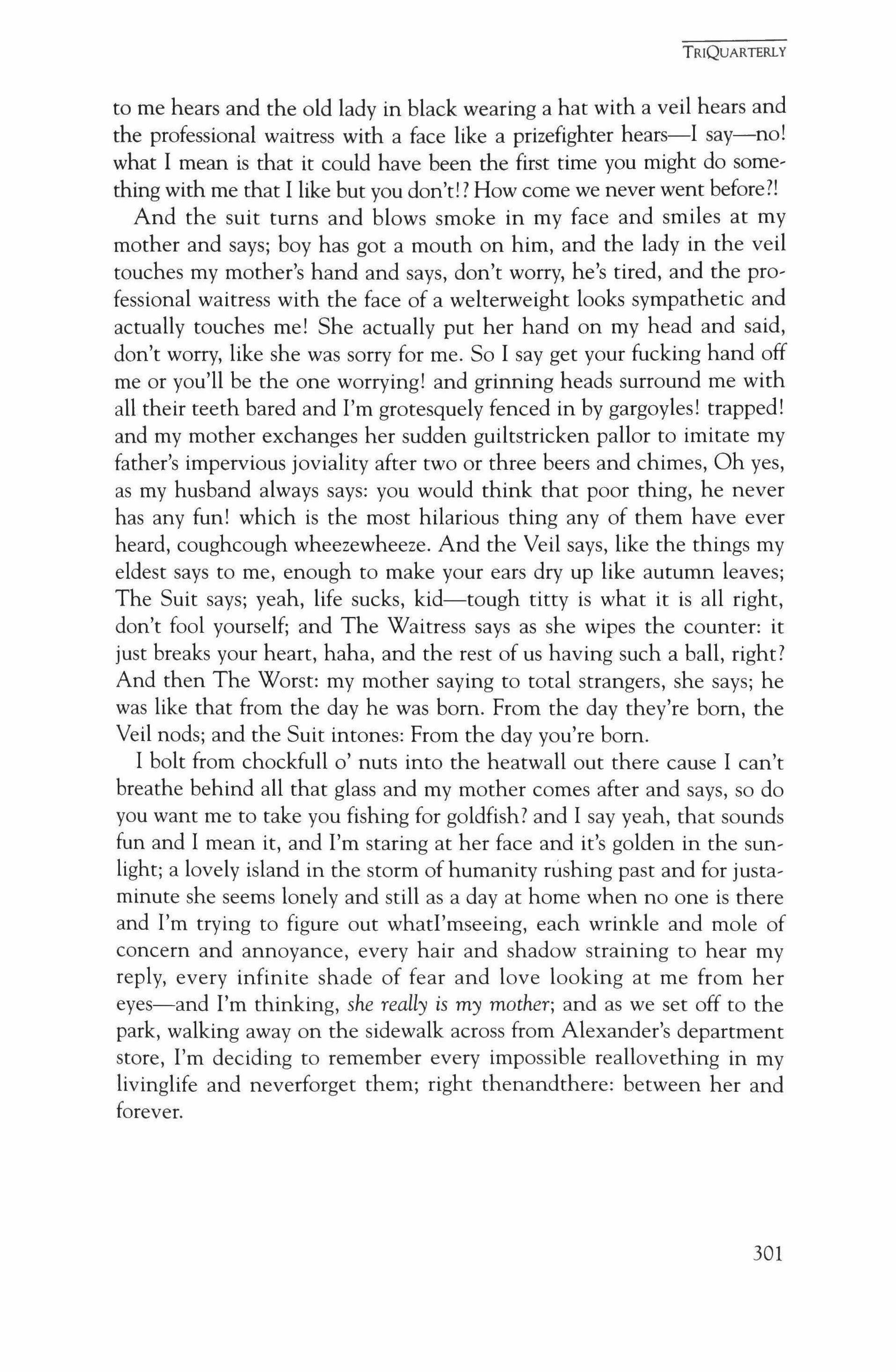
to me hears and the old lady in black wearing a hat with a veil hears and the professional waitress with a face like a prizefighter hears-I say-no! what I mean is that it could have been the first time you might do some' thing with me that I like but you don't!? How come we never went before?!
And the suit turns and blows smoke in my face and smiles at my mother and says; boy has got a mouth on him, and the lady in the veil touches my mother's hand and says, don't worry, he's tired, and the professional waitress with the face of a welterweight looks sympathetic and actually touches me! She actually put her hand on my head and said, don't worry, like she was sorry for me. So I say get your fucking hand off me or you'll be the one worrying! and grinning heads surround me with all their teeth bared and I'm grotesquely fenced in by gargoyles! trapped! and my mother exchanges her sudden guiltstricken pallor to imitate my father's impervious joviality after two or three beers and chimes, Oh yes, as my husband always says: you would think that poor thing, he never has any fun! which is the most hilarious thing any of them have ever heard, coughcough wheezewheeze. And the Veil says, like the things my eldest says to me, enough to make your ears dry up like autumn leaves; The Suit says; yeah, life sucks, kid-tough titty is what it is all right, don't fool yourself; and The Waitress says as she wipes the counter: it just breaks your heart, haha, and the rest of us having such a ball, right? And then The Worst: my mother saying to total strangers, she says; he was like that from the day he was born. From the day they're born, the Veil nods; and the Suit intones: From the day you're born.
I bolt from chockfull 0' nuts into the heatwall out there cause I can't breathe behind all that glass and my mother comes after and says, so do you want me to take you fishing for goldfish? and I say yeah, that sounds fun and I mean it, and I'm staring at her face and it's golden in the sunlight; a lovely island in the storm of humanity rushing past and for justa, minute she seems lonely and still as a day at home when no one is there and I'm trying to figure out whatl'mseeing, each wrinkle and mole of concern and annoyance, every hair and shadow straining to hear my reply, every infinite shade of fear and love looking at me from her eyes-and I'm thinking, she really is my mother; and as we set off to the park, walking away on the sidewalk across from Alexander's department store, I'm deciding to remember every impossible reallovething in my livinglife and neverforget them; right thenandthere: between her and forever.
TRIQUARTERLY
301
From Weed
Linda McCarriston
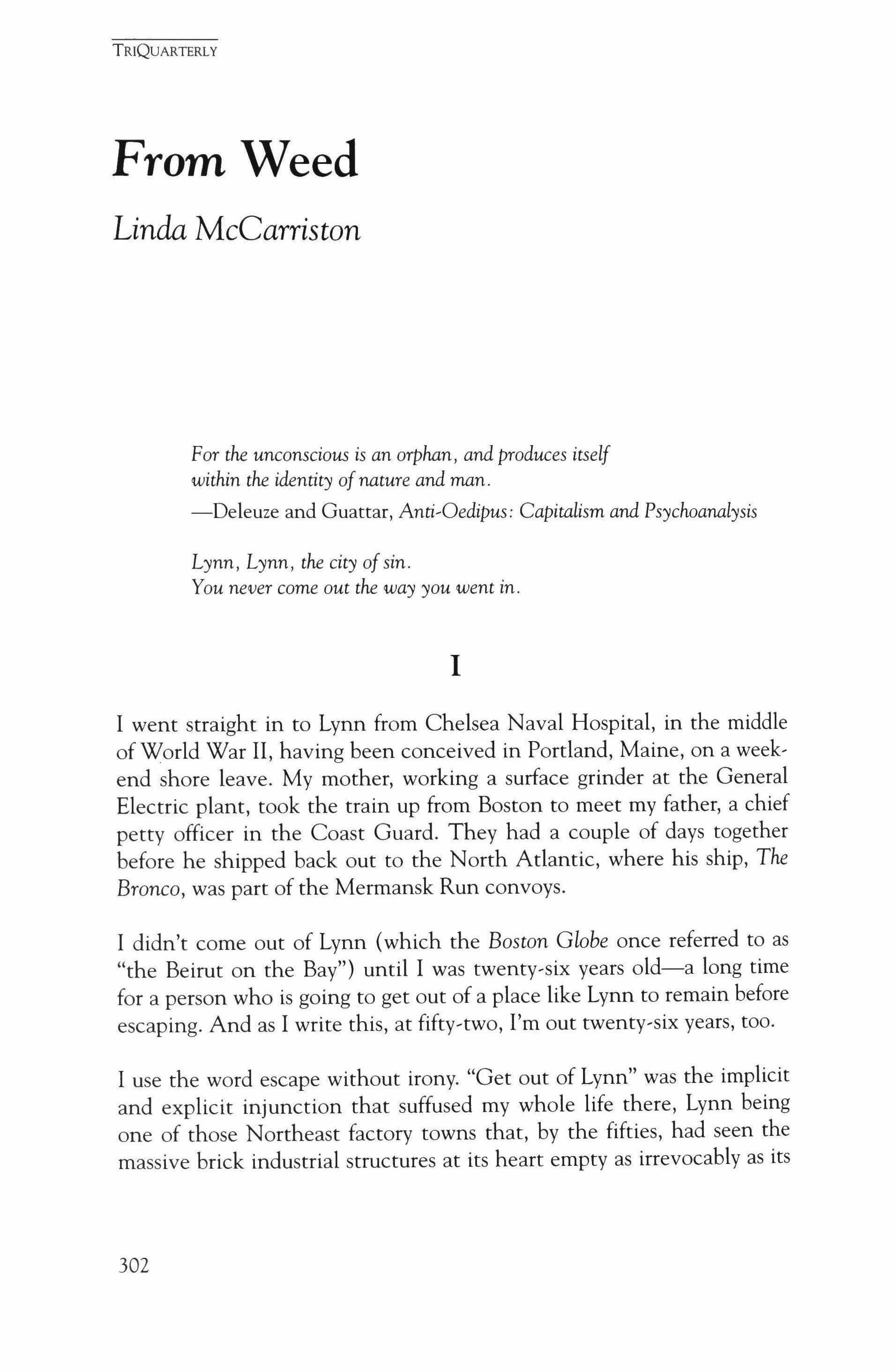
For the unconscious is an orphan, and produces itself within the identity of nature and man.
-Deleuze and Guattar, Anti-Oedipus: Capitalism and Psychoanalysis
Lynn, Lynn, the city of sin. You never come out the way you went in.
II went straight in to Lynn from Chelsea Naval Hospital, in the middle of World War II, having been conceived in Portland, Maine, on a weekend shore leave. My mother, working a surface grinder at the General Electric plant, took the train up from Boston to meet my father, a chief petty officer in the Coast Guard. They had a couple of days together before he shipped back out to the North Atlantic, where his ship, The Bronco, was part of the Mermansk Run convoys.
I didn't come out of Lynn (which the Boston Globe once referred to as "the Beirut on the Bay") until I was twenty-six years old-a long time for a person who is going to get out of a place like Lynn to remain before escaping. And as I write this, at fifty-two, I'm out twenty-six years, too.
I use the word escape without irony. "Get out of Lynn" was the implicit and explicit injunction that suffused my whole life there, Lynn being one of those Northeast factory towns that, by the fifties, had seen the massive brick industrial structures at its heart empty as irrevocably as its
TRIQUARTERLY
302
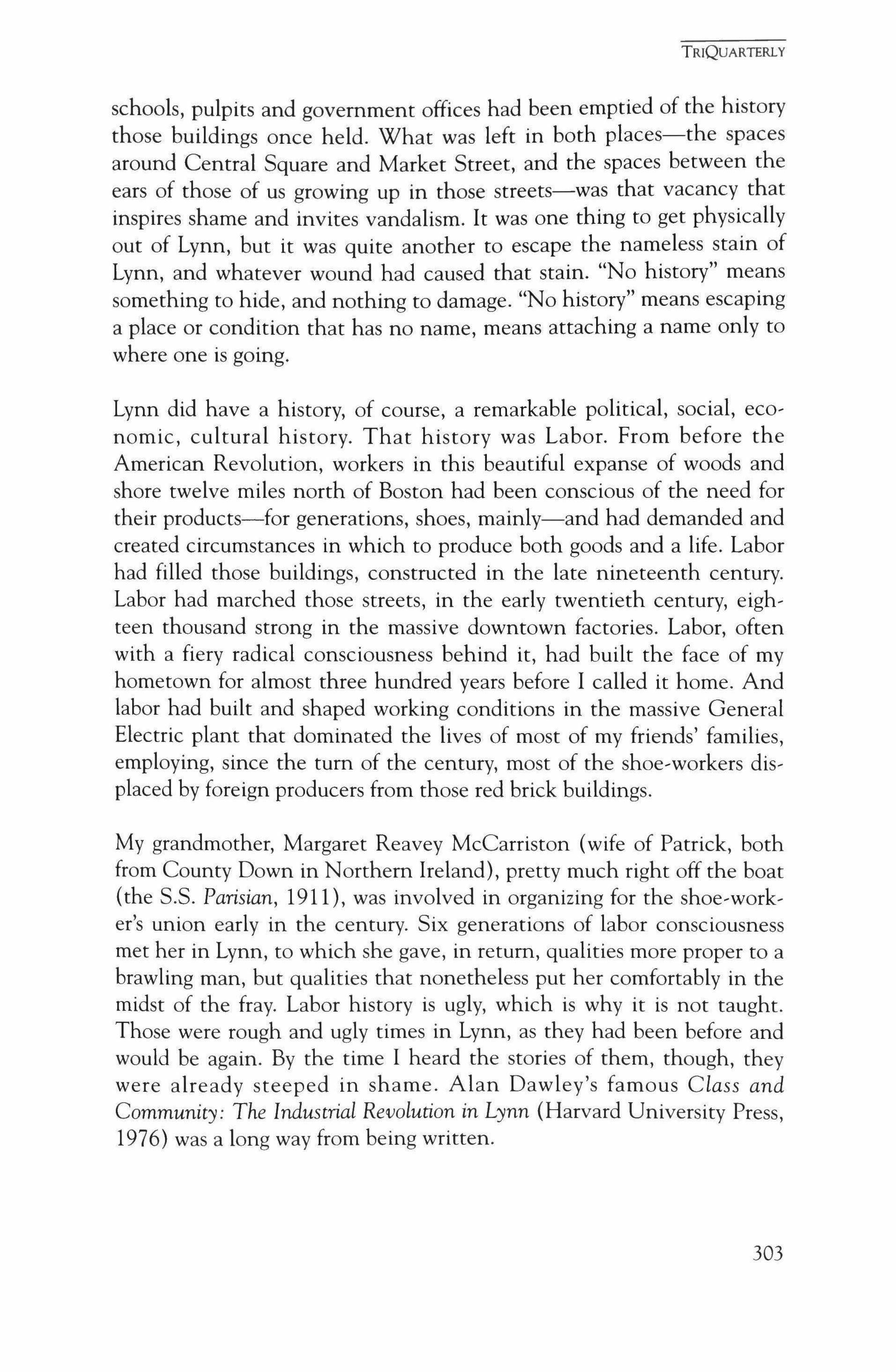
schools, pulpits and government offices had been emptied of the history those buildings once held. What was left in both places-the spaces around Central Square and Market Street, and the spaces between the ears of those of us growing up in those streets-was that vacancy that inspires shame and invites vandalism. It was one thing to get physically out of Lynn, but it was quite another to escape the nameless stain of Lynn, and whatever wound had caused that stain. "No history" means something to hide, and nothing to damage. "No history" means escaping a place or condition that has no name, means attaching a name only to where one is going.
Lynn did have a history, of course, a remarkable political, social, economic, cultural history. That history was Labor. From before the American Revolution, workers in this beautiful expanse of woods and shore twelve miles north of Boston had been conscious of the need for their products-for generations, shoes, mainly-and had demanded and created circumstances in which to produce both goods and a life. Labor had filled those buildings, constructed in the late nineteenth century. Labor had marched those streets, in the early twentieth century, eighteen thousand strong in the massive downtown factories. Labor, often with a fiery radical consciousness behind it, had built the face of my hometown for almost three hundred years before I called it home. And labor had built and shaped working conditions in the massive General Electric plant that dominated the lives of most of my friends' families, employing, since the tum of the century, most of the shoe-workers displaced by foreign producers from those red brick buildings.
My grandmother, Margaret Reavey McCarriston (wife of Patrick, both from County Down in Northern Ireland), pretty much right off the boat (the S.S. Parisian, 1911), was involved in organizing for the shoe-worker's union early in the century. Six generations of labor consciousness met her in Lynn, to which she gave, in return, qualities more proper to a brawling man, but qualities that nonetheless put her comfortably in the midst of the fray. Labor history is ugly, which is why it is not taught. Those were rough and ugly times in Lynn, as they had been before and would be again. By the time I heard the stories of them, though, they were already steeped in shame. Alan Dawley's famous Class and Community: The Industrial Revolution in Lynn (Harvard University Press, 1976) was a long way from being written.
TRIQUARTERLY
303
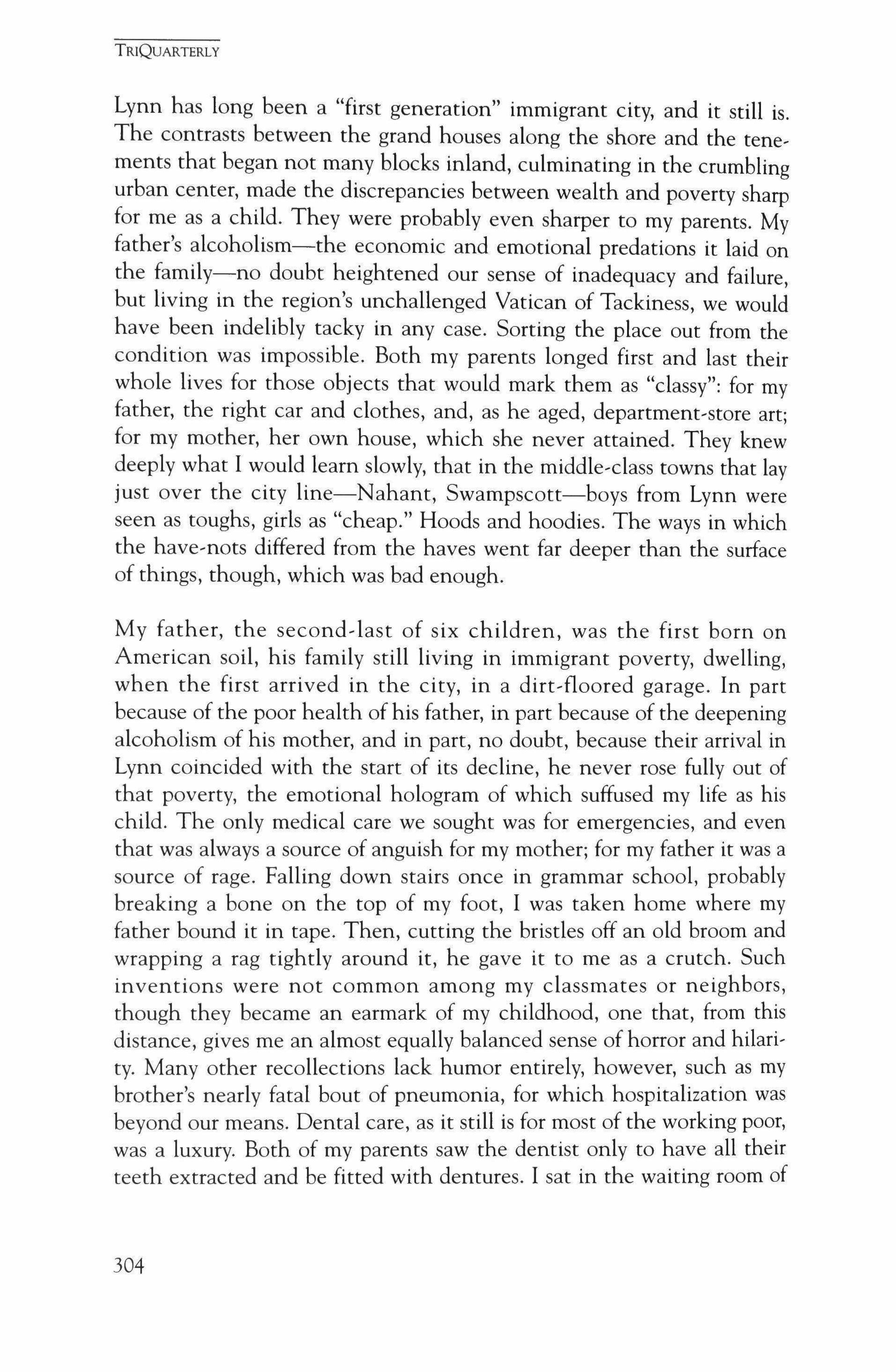
Lynn has long been a "first generation" immigrant city, and it still is. The contrasts between the grand houses along the shore and the tenements that began not many blocks inland, culminating in the crumbling urban center, made the discrepancies between wealth and poverty sharp for me as a child. They were probably even sharper to my parents. My father's alcoholism-the economic and emotional predations it laid on the family-no doubt heightened our sense of inadequacy and failure, but living in the region's unchallenged Vatican of Tackiness, we would have been indelibly tacky in any case. Sorting the place out from the condition was impossible. Both my parents longed first and last their whole lives for those objects that would mark them as "classy": for my father, the right car and clothes, and, as he aged, department-store art; for my mother, her own house, which she never attained. They knew deeply what I would learn slowly, that in the middle-class towns that lay just over the city line-Nahant, Swampscott-boys from Lynn were seen as toughs, girls as "cheap." Hoods and hoodies. The ways in which the have-riots differed from the haves went far deeper than the surface of things, though, which was bad enough.
My father, the second-last of six children, was the first born on American soil, his family still living in immigrant poverty, dwelling, when the first arrived in the city, in a dirt-floored garage. In part because of the poor health of his father, in part because of the deepening alcoholism of his mother, and in part, no doubt, because their arrival in Lynn coincided with the start of its decline, he never rose fully out of that poverty, the emotional hologram of which suffused my life as his child. The only medical care we sought was for emergencies, and even that was always a source of anguish for my mother; for my father it was a source of rage. Falling down stairs once in grammar school, probably breaking a bone on the top of my foot, I was taken home where my father bound it in tape. Then, cutting the bristles off an old broom and wrapping a rag tightly around it, he gave it to me as a crutch. Such inventions were not common among my classmates or neighbors, though they became an earmark of my childhood, one that, from this distance, gives me an almost equally balanced sense of horror and hilarity. Many other recollections lack humor entirely, however, such as my brother's nearly fatal bout of pneumonia, for which hospitalization was beyond our means. Dental care, as it still is for most of the working poor, was a luxury. Both of my parents saw the dentist only to have all their teeth extracted and be fitted with dentures. I sat in the waiting room of
TRIQUARTERLY
304
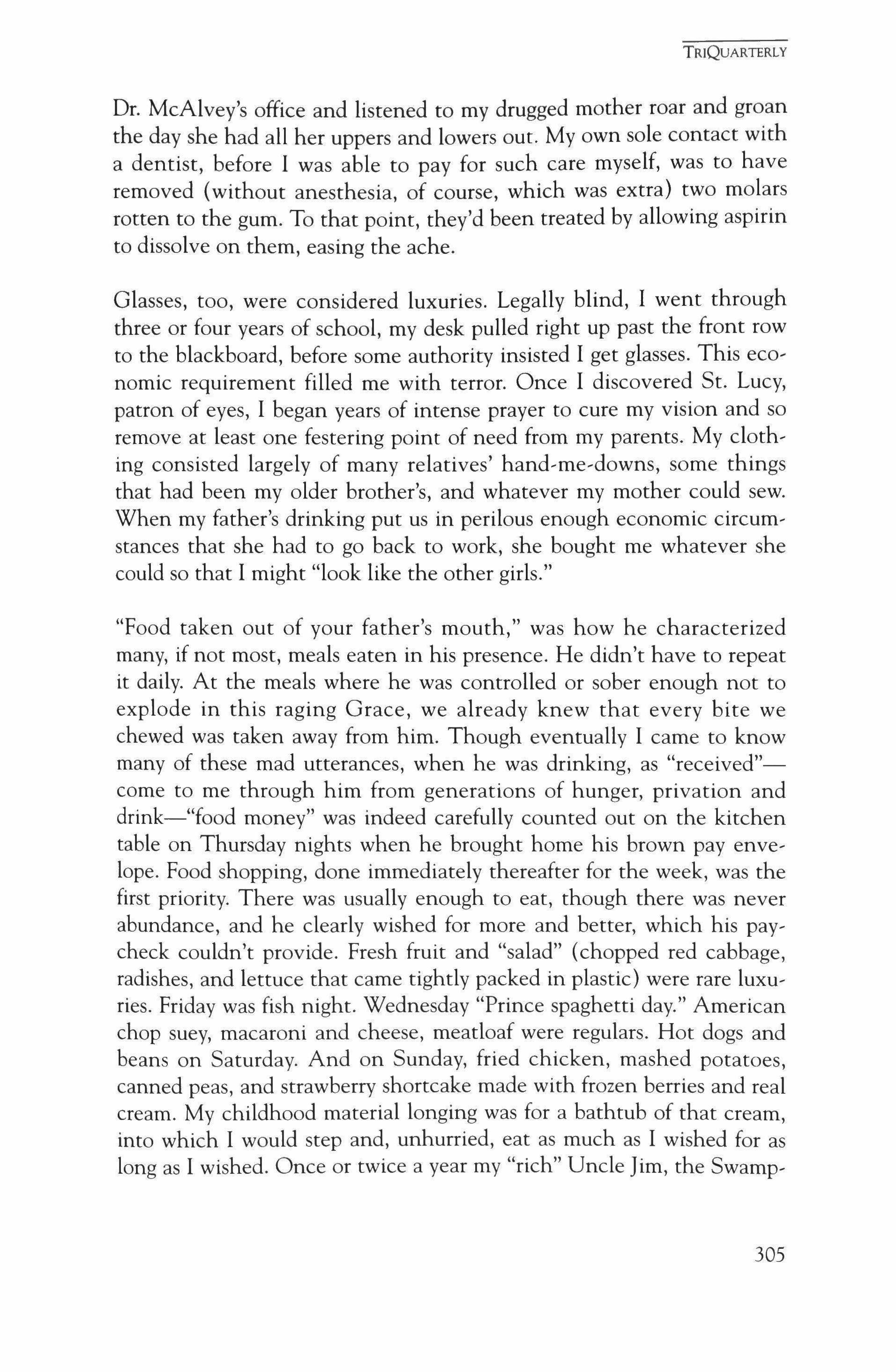
Dr. McAlvey's office and listened to my drugged mother roar and groan the day she had all her uppers and lowers out. My own sole contact with a dentist, before I was able to pay for such care myself, was to have removed (without anesthesia, of course, which was extra) two molars rotten to the gum. To that point, they'd been treated by allowing aspirin to dissolve on them, easing the ache.
Glasses, too, were considered luxuries. Legally blind, I went through three or four years of school, my desk pulled right up past the front row to the blackboard, before some authority insisted I get glasses. This economic requirement filled me with terror. Once I discovered St. Lucy, patron of eyes, I began years of intense prayer to cure my vision and so remove at least one festering point of need from my parents. My clothing consisted largely of many relatives' hand-me-downs, some things that had been my older brother's, and whatever my mother could sew. When my father's drinking put us in perilous enough economic circumstances that she had to go back to work, she bought me whatever she could so that I might "look like the other girls."
"Food taken out of your father's mouth," was how he characterized many, if not most, meals eaten in his presence. He didn't have to repeat it daily. At the meals where he was controlled or sober enough not to explode in this raging Grace, we already knew that every bite we chewed was taken away from him. Though eventually I came to know many of these mad utterances, when he was drinking, as "received"come to me through him from generations of hunger, privation and drink-"food money" was indeed carefully counted out on the kitchen table on Thursday nights when he brought home his brown pay envelope. Food shopping, done immediately thereafter for the week, was the first priority. There was usually enough to eat, though there was never abundance, and he clearly wished for more and better, which his pay� check couldn't provide. Fresh fruit and "salad" (chopped red cabbage, radishes, and lettuce that came tightly packed in plastic) were rare luxuries. Friday was fish night. Wednesday "Prince spaghetti day." American chop suey, macaroni and cheese, meatloaf were regulars. Hot dogs and beans on Saturday. And on Sunday, fried chicken, mashed potatoes, canned peas, and strawberry shortcake made with frozen berries and real cream. My childhood material longing was for a bathtub of that cream, into which I would step and, unhurried, eat as much as I wished for as long as I wished. Once or twice a year my "rich" Uncle Jim, the Swamp-
TRIQUARTERLY
305
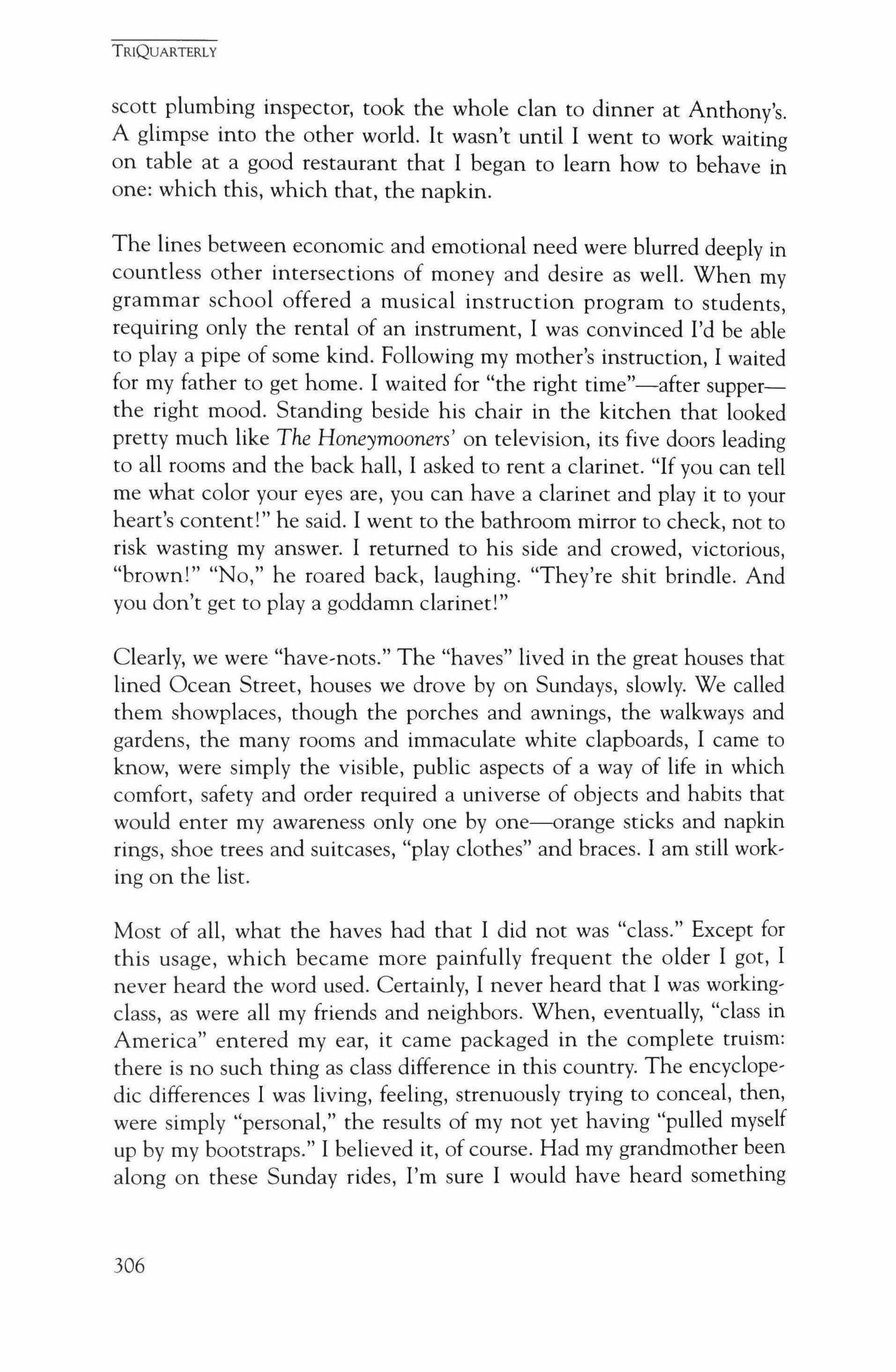
scott plumbing inspector, took the whole clan to dinner at Anthony's. A glimpse into the other world. It wasn't until I went to work waiting on table at a good restaurant that I began to learn how to behave in one: which this, which that, the napkin.
The lines between economic and emotional need were blurred deeply in countless other intersections of money and desire as well. When my grammar school offered a musical instruction program to students, requiring only the rental of an instrument, I was convinced I'd be able to playa pipe of some kind. Following my mother's instruction, I waited for my father to get home. I waited for "the right time"-after supperthe right mood. Standing beside his chair in the kitchen that looked pretty much like The Honeymooners' on television, its five doors leading to all rooms and the back hall, I asked to rent a clarinet. "If you can tell me what color your eyes are, you can have a clarinet and play it to your heart's content!" he said. I went to the bathroom mirror to check, not to risk wasting my answer. I returned to his side and crowed, victorious, "brown!" "No," he roared back, laughing. "They're shit brindle. And you don't get to playa goddamn clarinet!"
Clearly, we were "have-riots." The "haves" lived in the great houses that lined Ocean Street, houses we drove by on Sundays, slowly. We called them showplaces, though the porches and awnings, the walkways and gardens, the many rooms and immaculate white clapboards, I came to know, were simply the visible, public aspects of a way of life in which comfort, safety and order required a universe of objects and habits that would enter my awareness only one by one-orange sticks and napkin rings, shoe trees and suitcases, "play clothes" and braces. I am still working on the list.
Most of all, what the haves had that I did not was "class." Except for this usage, which became more painfully frequent the older I got, I never heard the word used. Certainly, I never heard that I was workingclass, as were all my friends and neighbors. When, eventually, "class in America" entered my ear, it came packaged in the complete truism: there is no such thing as class difference in this country. The encyclopedic differences I was living, feeling, strenuously trying to conceal, then, were simply "personal," the results of my not yet having "pulled myself up by my bootstraps." I believed it, of course. Had my grandmother been along on these Sunday rides, I'm sure I would have heard something
TRIQUARTERLY
306
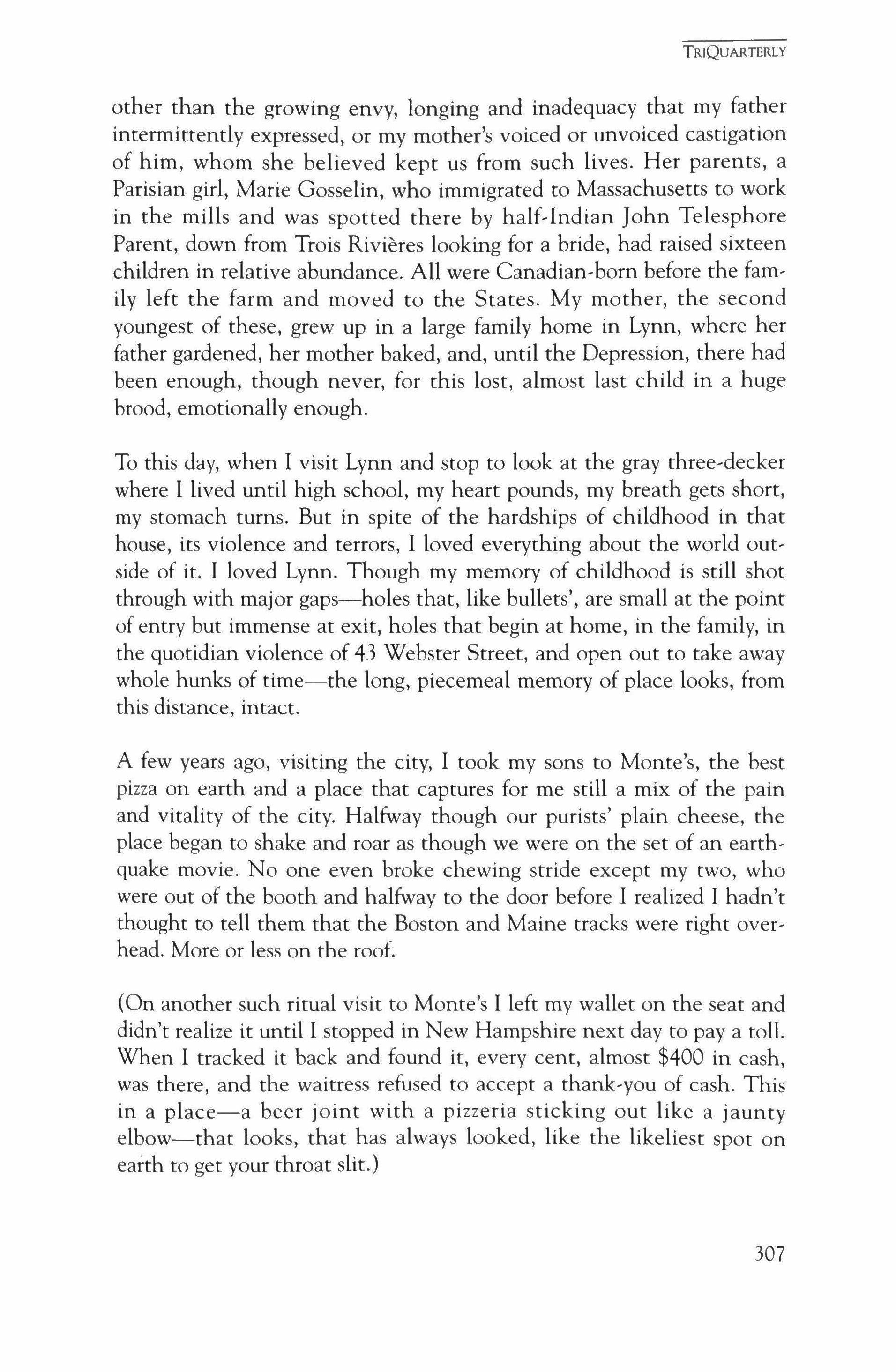
other than the growing envy, longing and inadequacy that my father intermittently expressed, or my mother's voiced or unvoiced castigation of him, whom she believed kept us from such lives. Her parents, a Parisian girl, Marie Gosselin, who immigrated to Massachusetts to work in the mills and was spotted there by half-Indian John Telesphore Parent, down from Trois Rivieres looking for a bride, had raised sixteen children in relative abundance. All were Canadian-born before the family left the farm and moved to the States. My mother, the second youngest of these, grew up in a large family home in Lynn, where her father gardened, her mother baked, and, until the Depression, there had been enough, though never, for this lost, almost last child in a huge brood, emotionally enough.
To this day, when I visit Lynn and stop to look at the gray three-decker where I lived until high school, my heart pounds, my breath gets short, my stomach turns. But in spite of the hardships of childhood in that house, its violence and terrors, I loved everything about the world outside of it. I loved Lynn. Though my memory of childhood is still shot through with major gaps-holes that, like bullets', are small at the point of entry but immense at exit, holes that begin at home, in the family, in the quotidian violence of 43 Webster Street, and open out to take away whole hunks of time-the long, piecemeal memory of place looks, from this distance, intact.
A few years ago, visiting the city, I took my sons to Monte's, the best pizza on earth and a place that captures for me still a mix of the pain and vitality of the city. Halfway though our purists' plain cheese, the place began to shake and roar as though we were on the set of an earthquake movie. No one even broke chewing stride except my two, who were out of the booth and halfway to the door before I realized I hadn't thought to tell them that the Boston and Maine tracks were right overhead. More or less on the roof.
(On another such ritual visit to Monte's I left my wallet on the seat and didn't realize it until I stopped in New Hampshire next day to pay a toll. When I tracked it back and found it, every cent, almost $400 in cash, was there, and the waitress refused to accept a thank-you of cash. This in a place-a beer joint with a pizzeria sticking out like a jaunty elbow-that looks, that has always looked, like the likeliest spot on earth to get your throat slit.)
TRIQUARTERLY
307
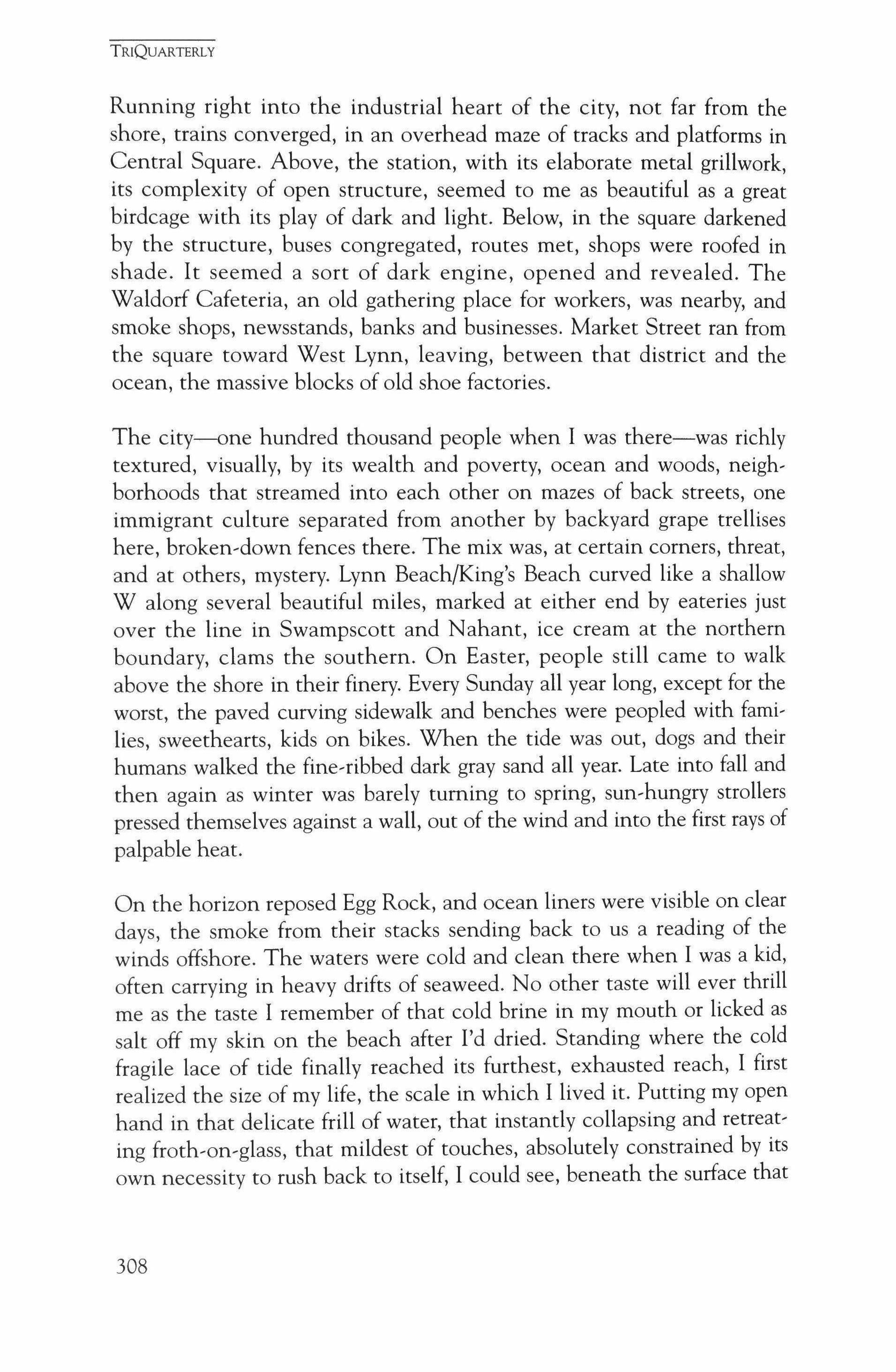
Running right into the industrial heart of the city, not far from the shore, trains converged, in an overhead maze of tracks and platforms in Central Square. Above, the station, with its elaborate metal grillwork, its complexity of open structure, seemed to me as beautiful as a great birdcage with its play of dark and light. Below, in the square darkened by the structure, buses congregated, routes met, shops were roofed in shade. It seemed a sort of dark engine, opened and revealed. The Waldorf Cafeteria, an old gathering place for workers, was nearby, and smoke shops, newsstands, banks and businesses. Market Street ran from the square toward West Lynn, leaving, between that district and the ocean, the massive blocks of old shoe factories.
The city-one hundred thousand people when I was there-was richly textured, visually, by its wealth and poverty, ocean and woods, neighborhoods that streamed into each other on mazes of back streets, one immigrant culture separated from another by backyard grape trellises here, broken-down fences there. The mix was, at certain corners, threat, and at others, mystery. Lynn Beach/King's Beach curved like a shallow W along several beautiful miles, marked at either end by eateries just over the line in Swampscott and Nahant, ice cream at the northern boundary, clams the southern. On Easter, people still came to walk above the shore in their finery. Every Sunday all year long, except for the worst, the paved curving sidewalk and benches were peopled with families, sweethearts, kids on bikes. When the tide was out, dogs and their humans walked the fine-ribbed dark gray sand all year. Late into fall and then again as winter was barely turning to spring, sun-hungry strollers pressed themselves against a wall, out of the wind and into the first rays of palpable heat.
On the horizon reposed Egg Rock, and ocean liners were visible on clear days, the smoke from their stacks sending back to us a reading of the winds offshore. The waters were cold and clean there when I was a kid, often carrying in heavy drifts of seaweed. No other taste will ever thrill me as the taste I remember of that cold brine in my mouth or licked as salt off my skin on the beach after I'd dried. Standing where the cold fragile lace of tide finally reached its furthest, exhausted reach, I first realized the size of my life, the scale in which I lived it. Putting my open hand in that delicate frill of water, that instantly collapsing and retreating froth-on-glass, that mildest of touches, absolutely constrained by its own necessity to rush back to itself, I could see, beneath the surface that
TRIQUARTERLY
308
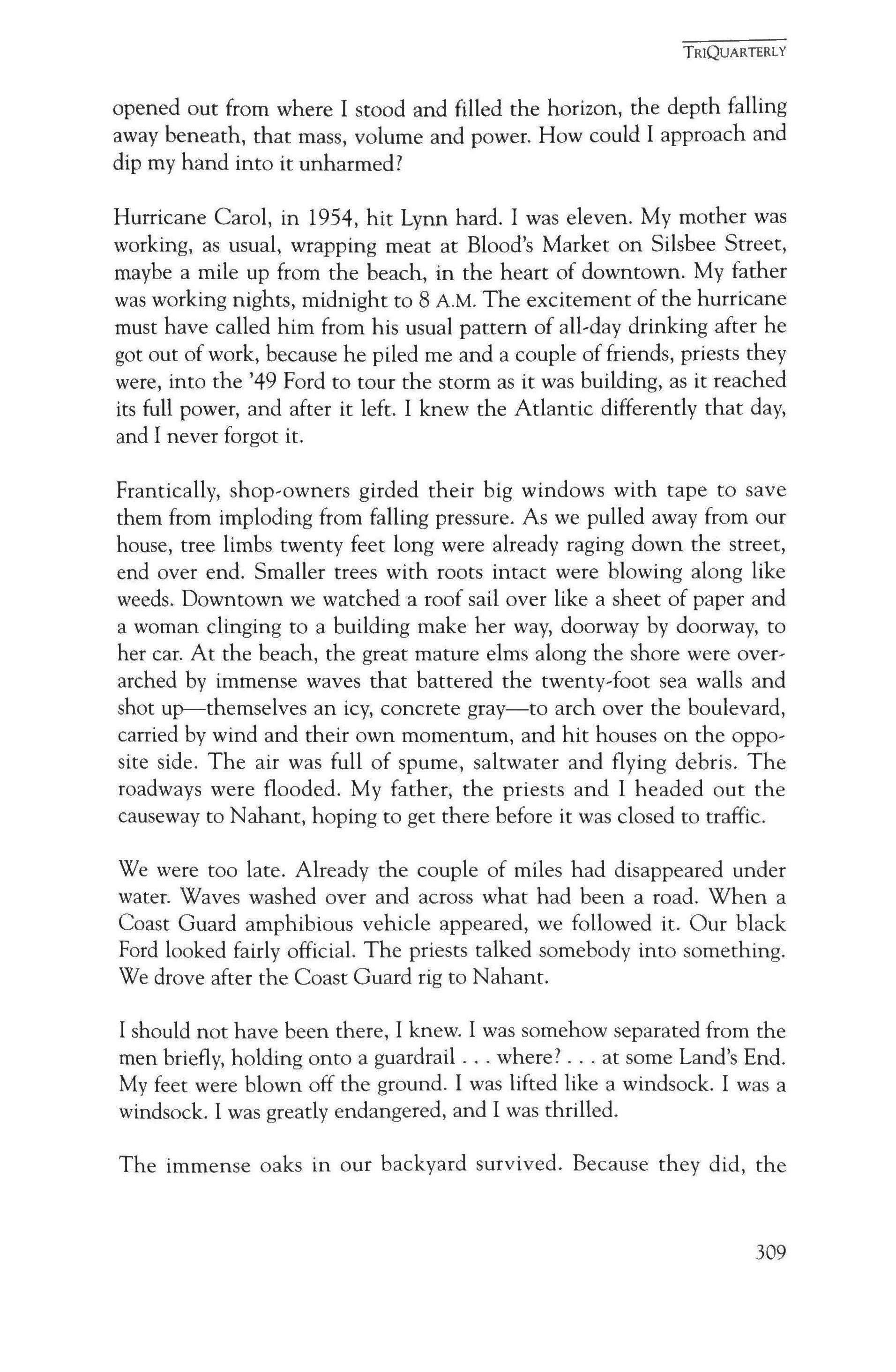
opened out from where I stood and filled the horizon, the depth falling away beneath, that mass, volume and power. How could I approach and dip my hand into it unharmed?
Hurricane Carol, in 1954, hit Lynn hard. I was eleven. My mother was working, as usual, wrapping meat at Blood's Market on Silsbee Street, maybe a mile up from the beach, in the heart of downtown. My father was working nights, midnight to 8 A.M. The excitement of the hurricane must have called him from his usual pattern of all-day drinking after he got out of work, because he piled me and a couple of friends, priests they were, into the '49 Ford to tour the storm as it was building, as it reached its full power, and after it left. I knew the Atlantic differently that day, and I never forgot it.
Frantically, shop-owners girded their big windows with tape to save them from imploding from falling pressure. As we pulled away from our house, tree limbs twenty feet long were already raging down the street, end over end. Smaller trees with roots intact were blowing along like weeds. Downtown we watched a roof sail over like a sheet of paper and a woman clinging to a building make her way, doorway by doorway, to her car. At the beach, the great mature elms along the shore were overarched by immense waves that battered the twenty-foot sea walls and shot up-themselves an icy, concrete gray-to arch over the boulevard, carried by wind and their own momentum, and hit houses on the opposite side. The air was full of spume, saltwater and flying debris. The roadways were flooded. My father, the priests and I headed out the causeway to Nahant, hoping to get there before it was closed to traffic.
We were too late. Already the couple of miles had disappeared under water. Waves washed over and across what had been a road. When a Coast Guard amphibious vehicle appeared, we followed it. Our black Ford looked fairly official. The priests talked somebody into something. We drove after the Coast Guard rig to Nahant.
I should not have been there, I knew. I was somehow separated from the men briefly, holding onto a guardrail where? at some Land's End. My feet were blown off the ground. I was lifted like a windsock. I was a windsock. I was greatly endangered, and I was thrilled.
The immense oaks in our backyard survived. Because they did, the
TRIQUARTERLY
309
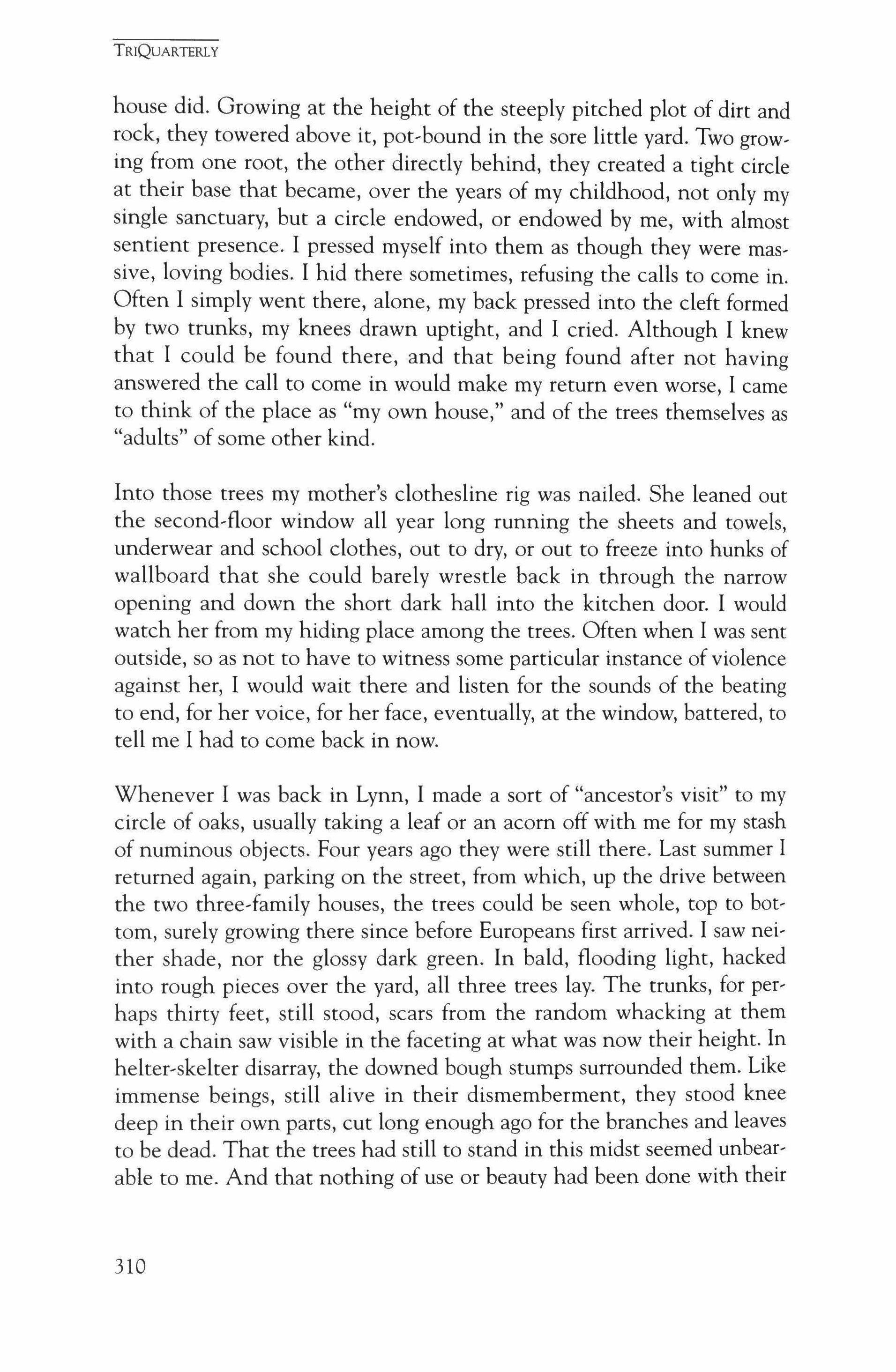
house did. Growing at the height of the steeply pitched plot of dirt and rock, they towered above it, pot-bound in the sore little yard. Two growing from one root, the other directly behind, they created a tight circle at their base that became, over the years of my childhood, not only my single sanctuary, but a circle endowed, or endowed by me, with almost sentient presence. I pressed myself into them as though they were massive, loving bodies. I hid there sometimes, refusing the calls to come in. Often I simply went there, alone, my back pressed into the cleft formed by two trunks, my knees drawn uptight, and I cried. Although I knew that I could be found there, and that being found after not having answered the call to come in would make my return even worse, I came to think of the place as "my own house," and of the trees themselves as "adults" of some other kind.
Into those trees my mother's clothesline rig was nailed. She leaned out the second-floor window all year long running the sheets and towels, underwear and school clothes, out to dry, or out to freeze into hunks of wallboard that she could barely wrestle back in through the narrow opening and down the short dark hall into the kitchen door. I would watch her from my hiding place among the trees. Often when I was sent outside, so as not to have to witness some particular instance of violence against her, I would wait there and listen for the sounds of the beating to end, for her voice, for her face, eventually, at the window, battered, to tell me I had to come back in now.
Whenever I was back in Lynn, I made a sort of "ancestor's visit" to my circle of oaks, usually taking a leaf or an acorn off with me for my stash of numinous objects. Four years ago they were still there. Last summer I returned again, parking on the street, from which, up the drive between the two three-family houses, the trees could be seen whole, top to bottom, surely growing there since before Europeans first arrived. I saw neither shade, nor the glossy dark green. In bald, flooding light, hacked into rough pieces over the yard, all three trees lay. The trunks, for perhaps thirty feet, still stood, scars from the random whacking at them with a chain saw visible in the faceting at what was now their height. In helter-skelter disarray, the downed bough stumps surrounded them. Like immense beings, still alive in their dismemberment, they stood knee deep in their own parts, cut long enough ago for the branches and leaves to be dead. That the trees had still to stand in this midst seemed unbearable to me. And that nothing of use or beauty had been done with their
TRIQUARTERLY
310
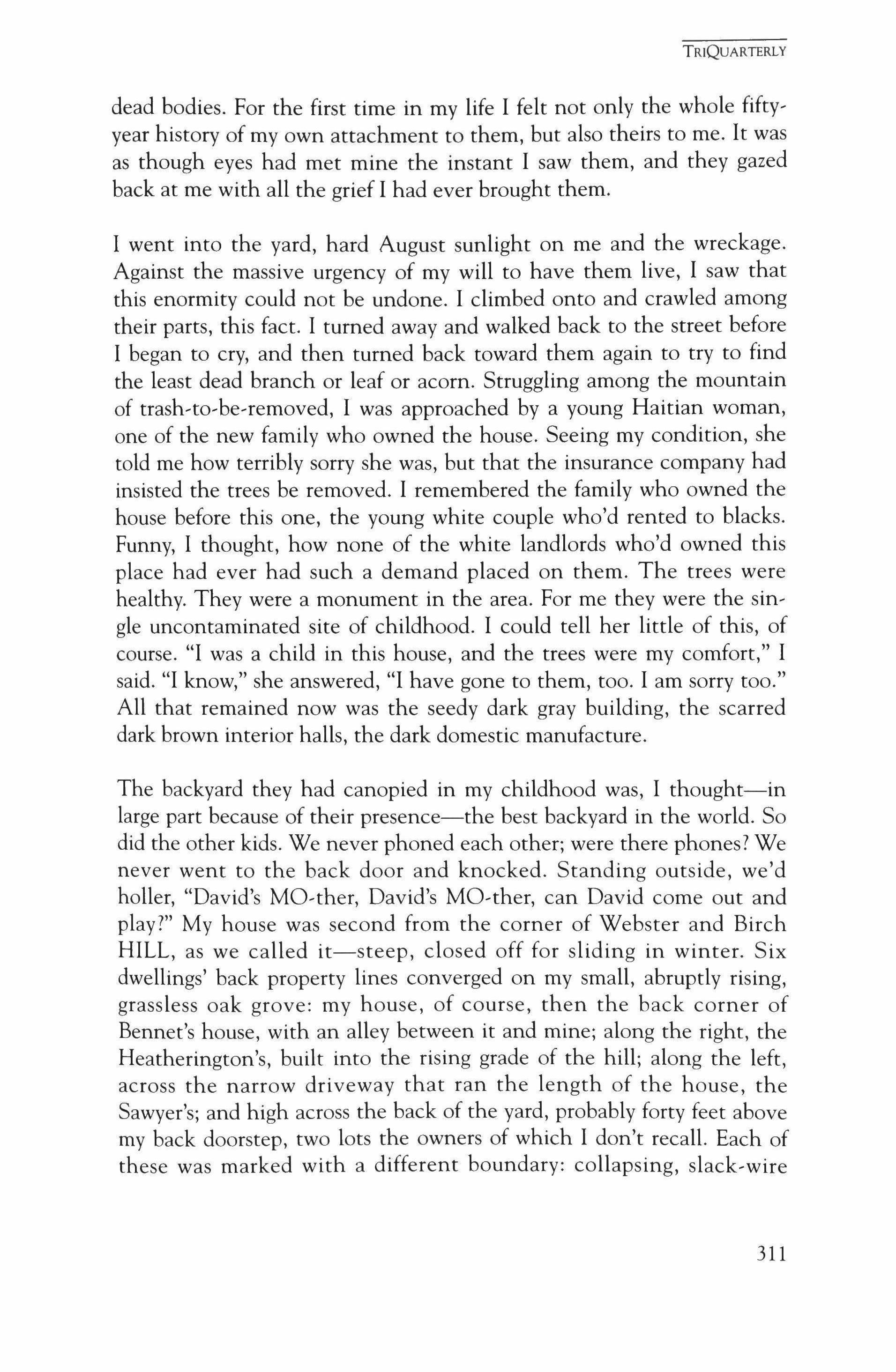
dead bodies. For the first time in my life I felt not only the whole fiftyyear history of my own attachment to them, but also theirs to me. It was as though eyes had met mine the instant I saw them, and they gazed back at me with all the grief I had ever brought them.
I went into the yard, hard August sunlight on me and the wreckage. Against the massive urgency of my will to have them live, I saw that this enormity could not be undone. I climbed onto and crawled among their parts, this fact. I turned away and walked back to the street before I began to cry, and then turned back toward them again to try to find the least dead branch or leaf or acorn. Struggling among the mountain of trash-to-be-removed, I was approached by a young Haitian woman, one of the new family who owned the house. Seeing my condition, she told me how terribly sorry she was, but that the insurance company had insisted the trees be removed. I remembered the family who owned the house before this one, the young white couple who'd rented to blacks. Funny, I thought, how none of the white landlords who'd owned this place had ever had such a demand placed on them. The trees were healthy. They were a monument in the area. For me they were the single uncontaminated site of childhood. I could tell her little of this, of course. "I was a child in this house, and the trees were my comfort," I said. "I know," she answered, "I have gone to them, too. I am sorry too." All that remained now was the seedy dark gray building, the scarred dark brown interior halls, the dark domestic manufacture.
The backyard they had canopied in my childhood was, I thought-in large part because of their presence-the best backyard in the world. So did the other kids. We never phoned each other; were there phones? We never went to the back door and knocked. Standing outside, we'd holler, "David's MO-ther, David's MO-ther, can David corne out and play?" My house was second from the corner of Webster and Birch HILL, as we called it-steep, closed off for sliding in winter. Six dwellings' back property lines converged on my small, abruptly rising, grassless oak grove: my house, of course, then the back corner of Bennet's house, with an alley between it and mine; along the right, the Heatherington's, built into the rising grade of the hill; along the left, across the narrow driveway that ran the length of the house, the Sawyer's; and high across the back of the yard, probably forty feet above my back doorstep, two lots the owners of which I don't recall. Each of these was marked with a different boundary: collapsing, slack-wire
TRIQUARTERLY
311
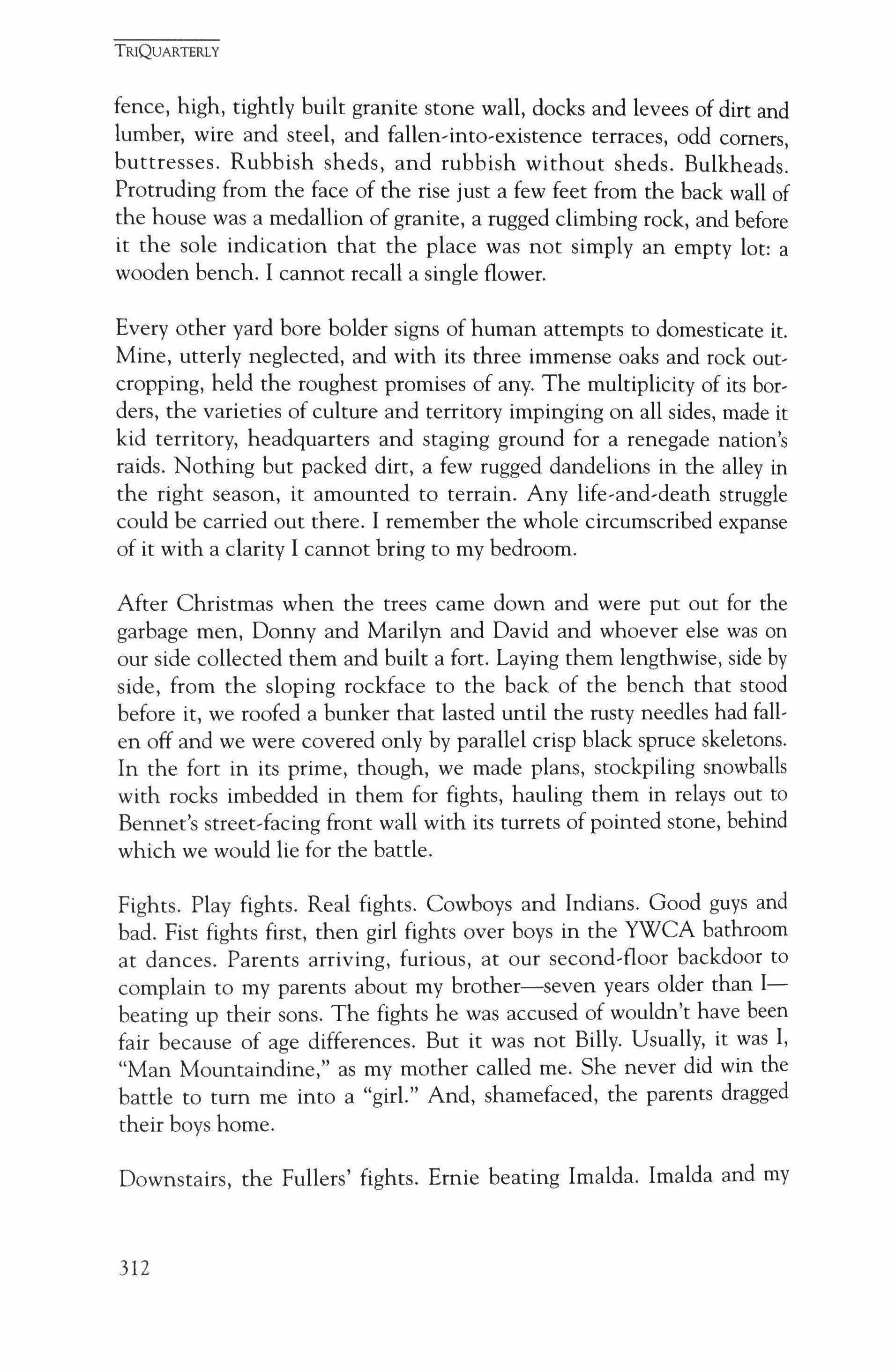
fence, high, tightly built granite stone wall, docks and levees of dirt and lumber, wire and steel, and fallen-into-existence terraces, odd comers, buttresses. Rubbish sheds, and rubbish without sheds. Bulkheads. Protruding from the face of the rise just a few feet from the back wall of the house was a medallion of granite, a rugged climbing rock, and before it the sole indication that the place was not simply an empty lot: a wooden bench. I cannot recall a single flower.
Every other yard bore bolder signs of human attempts to domesticate it. Mine, utterly neglected, and with its three immense oaks and rock outcropping, held the roughest promises of any. The multiplicity of its borders, the varieties of culture and territory impinging on all sides, made it kid territory, headquarters and staging ground for a renegade nation's raids. Nothing but packed dirt, a few rugged dandelions in the alley in the right season, it amounted to terrain. Any life-and-death struggle could be carried out there. I remember the whole circumscribed expanse of it with a clarity I cannot bring to my bedroom.
After Christmas when the trees came down and were put out for the garbage men, Donny and Marilyn and David and whoever else was on our side collected them and built a fort. Laying them lengthwise, side by side, from the sloping rockface to the back of the bench that stood before it, we roofed a bunker that lasted until the rusty needles had fallen off and we were covered only by parallel crisp black spruce skeletons. In the fort in its prime, though, we made plans, stockpiling snowballs with rocks imbedded in them for fights, hauling them in relays out to Bennet's street-facing front wall with its turrets of pointed stone, behind which we would lie for the battle.
Fights. Play fights. Real fights. Cowboys and Indians. Good guys and bad. Fist fights first, then girl fights over boys in the YWCA bathroom at dances. Parents arriving, furious, at our second-floor backdoor to complain to my parents about my brother-seven years older than 1beating up their sons. The fights he was accused of wouldn't have been fair because of age differences. But it was not Billy. Usually, it was I, "Man Mountaindine," as my mother called me. She never did win the battle to tum me into a "girl." And, shamefaced, the parents dragged their boys home.
Downstairs, the Fullers' fights. Ernie beating Imalda. Imalda and my
TRIQUARTERLY
312
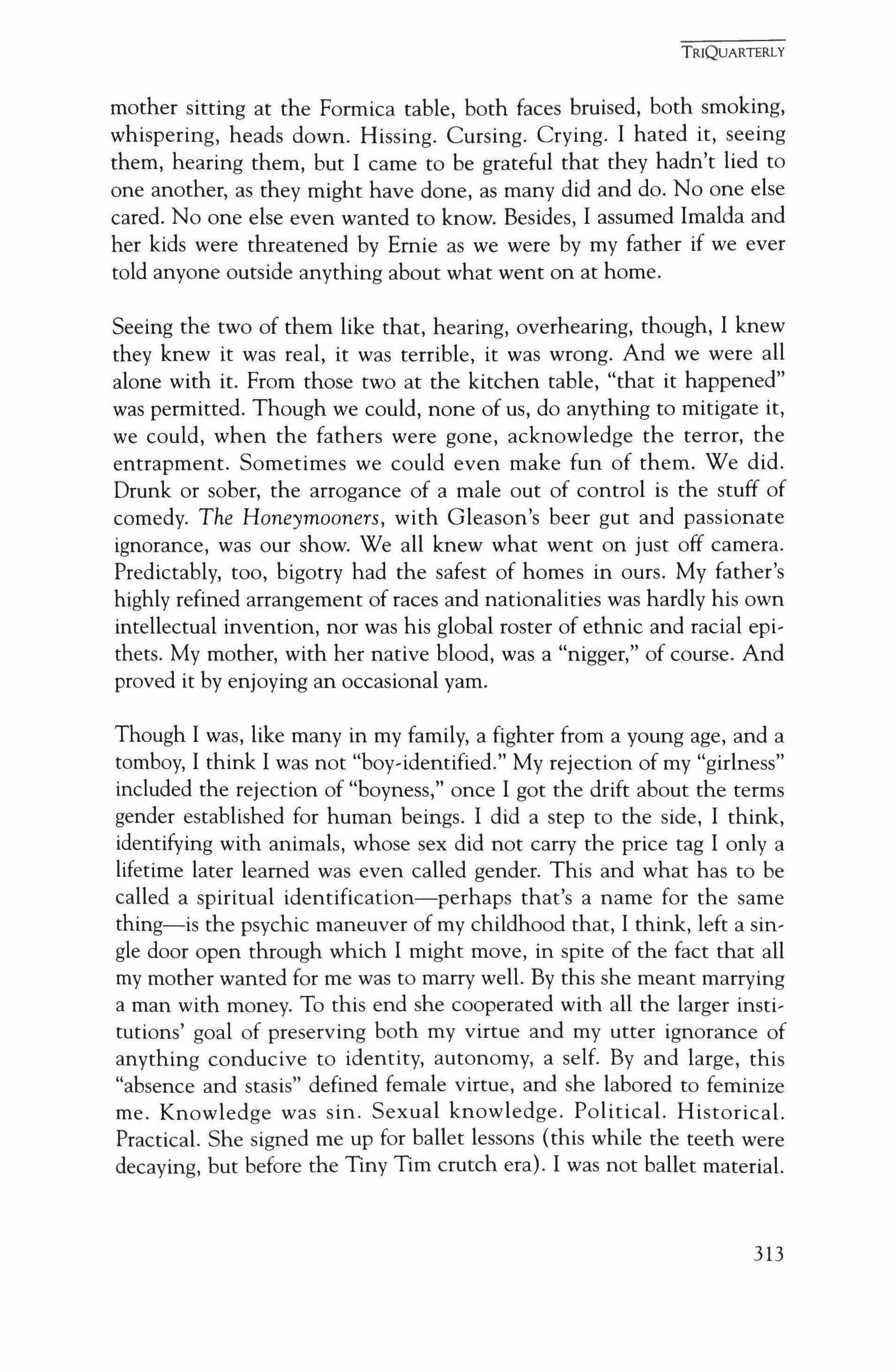
mother sitting at the Formica table, both faces bruised, both smoking, whispering, heads down. Hissing. Cursing. Crying. I hated it, seeing them, hearing them, but I came to be grateful that they hadn't lied to one another, as they might have done, as many did and do. No one else cared. No one else even wanted to know. Besides, I assumed Imalda and her kids were threatened by Ernie as we were by my father if we ever told anyone outside anything about what went on at home.
Seeing the two of them like that, hearing, overhearing, though, I knew they knew it was real, it was terrible, it was wrong. And we were all alone with it. From those two at the kitchen table, "that it happened" was permitted. Though we could, none of us, do anything to mitigate it, we could, when the fathers were gone, acknowledge the terror, the entrapment. Sometimes we could even make fun of them. We did. Drunk or sober, the arrogance of a male out of control is the stuff of comedy. The Honeymooners, with Gleason's beer gut and passionate ignorance, was our show. We all knew what went on just off camera. Predictably, too, bigotry had the safest of homes in ours. My father's highly refined arrangement of races and nationalities was hardly his own intellectual invention, nor was his global roster of ethnic and racial epithets. My mother, with her native blood, was a "nigger," of course. And proved it by enjoying an occasional yam.
Though I was, like many in my family, a fighter from a young age, and a tomboy, I think I was not "boy-identified." My rejection of my "girlness" included the rejection of "boyness," once I got the drift about the terms gender established for human beings. I did a step to the side, I think, identifying with animals, whose sex did not carry the price tag I only a lifetime later learned was even called gender. This and what has to be called a spiritual identification-perhaps that's a name for the same thing-is the psychic maneuver of my childhood that, I think, left a single door open through which I might move, in spite of the fact that all my mother wanted for me was to marry well. By this she meant marrying a man with money. To this end she cooperated with all the larger institutions' goal of preserving both my virtue and my utter ignorance of anything conducive to identity, autonomy, a self. By and large, this "absence and stasis" defined female virtue, and she labored to feminize me. Knowledge was sin. Sexual knowledge. Political. Historical. Practical. She signed me up for ballet lessons (this while the teeth were decaying, but before the Tiny Tim crutch era). I was not ballet material.
TRIQUARTERLY
313
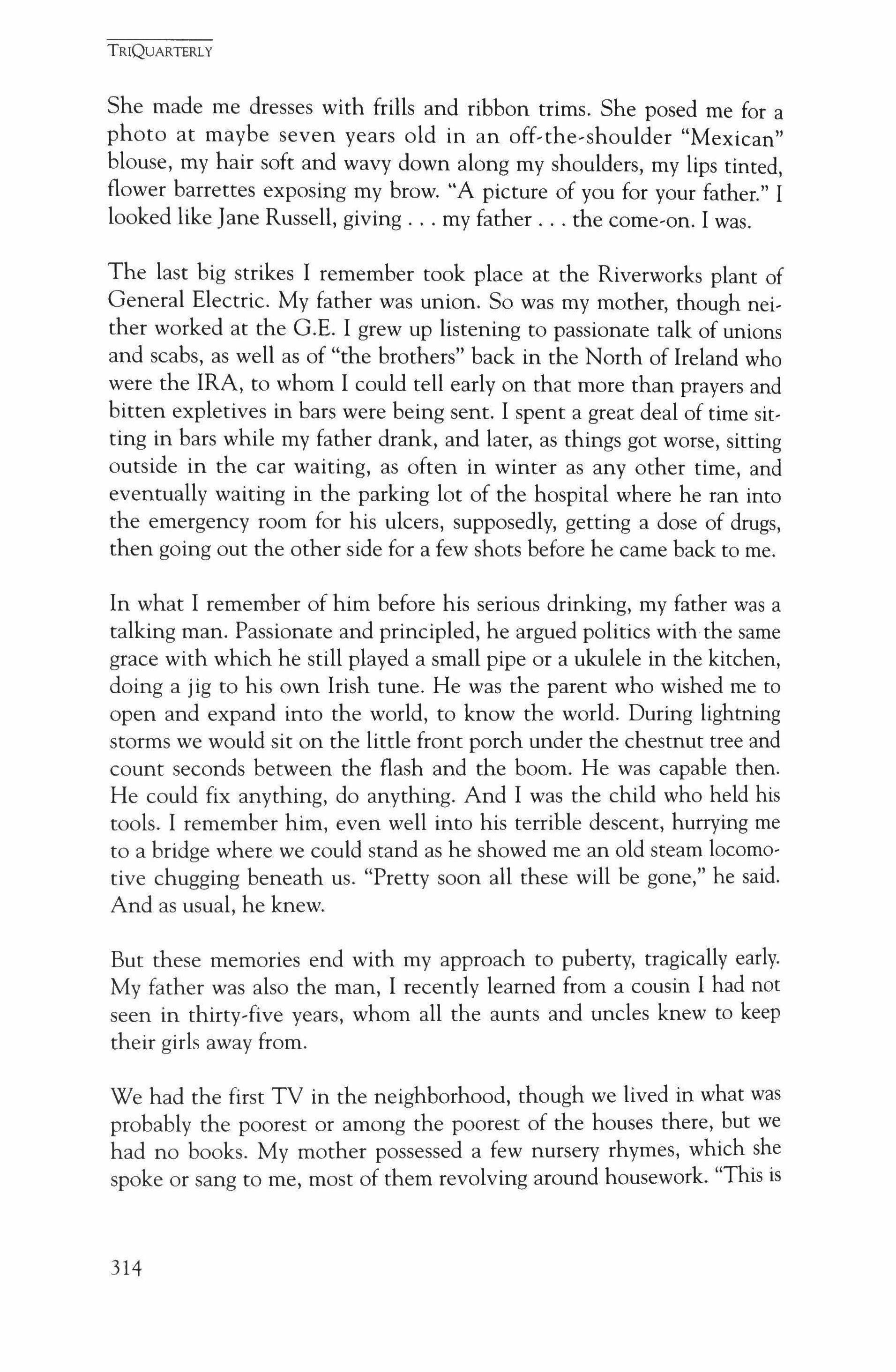
She made me dresses with frills and ribbon trims. She posed me for a photo at maybe seven years old in an off-the-shoulder "Mexican" blouse, my hair soft and wavy down along my shoulders, my lips tinted, flower barrettes exposing my brow. "A picture of you for your father." I looked like Jane Russell, giving my father the come-on. I was.
The last big strikes I remember took place at the Riverworks plant of General Electric. My father was union. So was my mother, though neither worked at the G.E. I grew up listening to passionate talk of unions and scabs, as well as of "the brothers" back in the North of Ireland who were the IRA, to whom I could tell early on that more than prayers and bitten expletives in bars were being sent. I spent a great deal of time sitting in bars while my father drank, and later, as things got worse, sitting outside in the car waiting, as often in winter as any other time, and eventually waiting in the parking lot of the hospital where he ran into the emergency room for his ulcers, supposedly, getting a dose of drugs, then going out the other side for a few shots before he came back to me.
In what I remember of him before his serious drinking, my father was a talking man. Passionate and principled, he argued politics with the same grace with which he still played a small pipe or a ukulele in the kitchen, doing a jig to his own Irish tune. He was the parent who wished me to open and expand into the world, to know the world. During lightning storms we would sit on the little front porch under the chestnut tree and count seconds between the flash and the boom. He was capable then. He could fix anything, do anything. And I was the child who held his tools. I remember him, even well into his terrible descent, hurrying me to a bridge where we could stand as he showed me an old steam locomotive chugging beneath us. "Pretty soon all these will be gone," he said. And as usual, he knew.
But these memories end with my approach to puberty, tragically early. My father was also the man, I recently learned from a cousin I had not seen in thirty-five years, whom all the aunts and uncles knew to keep their girls away from.
We had the first TV in the neighborhood, though we lived in what was probably the poorest or among the poorest of the houses there, but we had no books. My mother possessed a few nursery rhymes, which she spoke or sang to me, most of them revolving around housework. "This is
TRIQUARTERLY
314
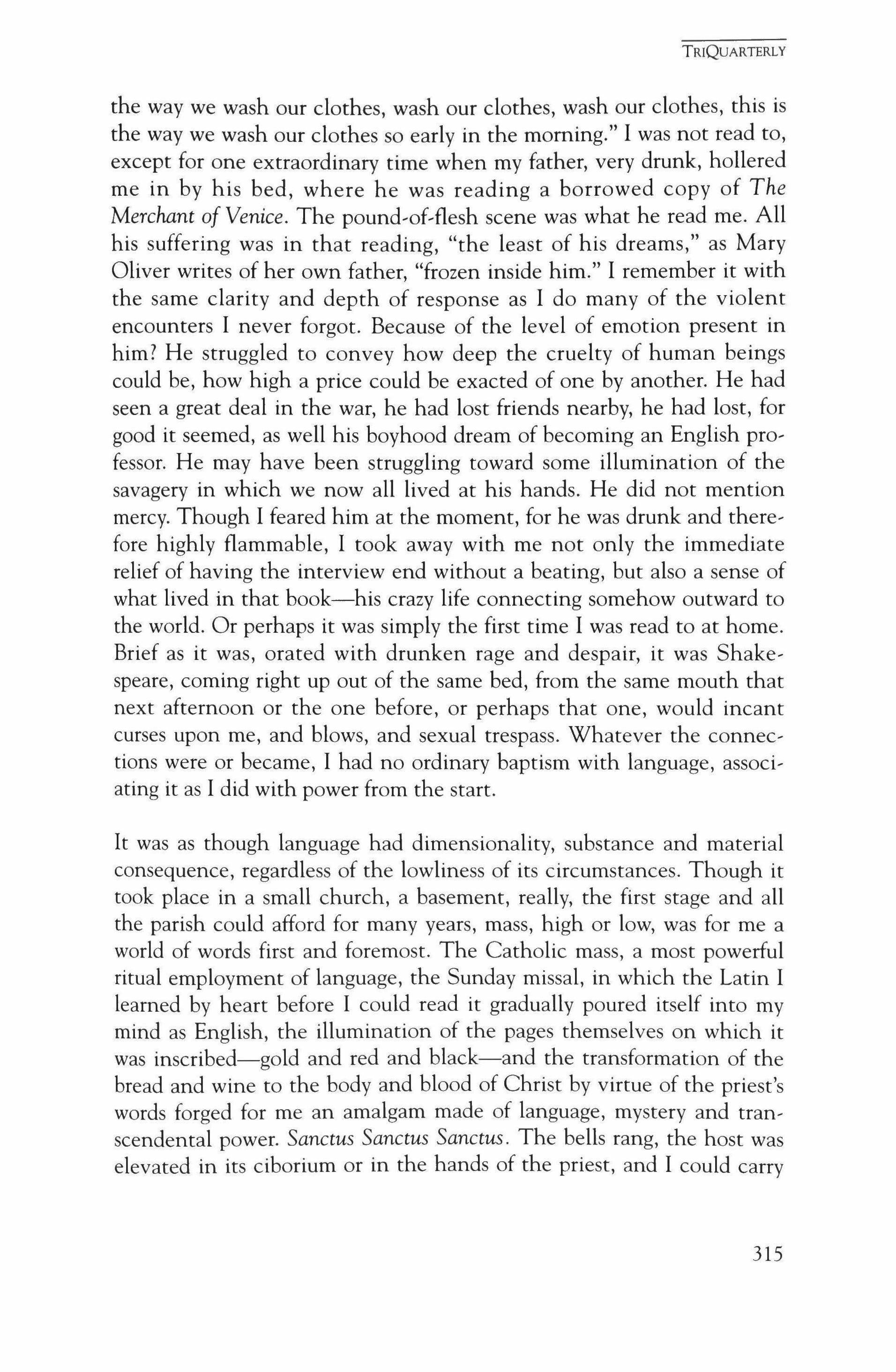
the way we wash our clothes, wash our clothes, wash our clothes, this is the way we wash our clothes so early in the morning." I was not read to, except for one extraordinary time when my father, very drunk, hollered me in by his bed, where he was reading a borrowed copy of The Merchant of Venice. The pound-of-flesh scene was what he read me. All his suffering was in that reading, "the least of his dreams," as Mary Oliver writes of her own father, "frozen inside him." I remember it with the same clarity and depth of response as I do many of the violent encounters I never forgot. Because of the level of emotion present in him? He struggled to convey how deep the cruelty of human beings could be, how high a price could be exacted of one by another. He had seen a great deal in the war, he had lost friends nearby, he had lost, for good it seemed, as well his boyhood dream of becoming an English professor. He may have been struggling toward some illumination of the savagery in which we now all lived at his hands. He did not mention mercy. Though I feared him at the moment, for he was drunk and therefore highly flammable, I took away with me not only the immediate relief of having the interview end without a beating, but also a sense of what lived in that book-his crazy life connecting somehow outward to the world. Or perhaps it was simply the first time I was read to at home. Brief as it was, orated with drunken rage and despair, it was Shakespeare, coming right up out of the same bed, from the same mouth that next afternoon or the one before, or perhaps that one, would incant curses upon me, and blows, and sexual trespass. Whatever the connections were or became, I had no ordinary baptism with language, associating it as I did with power from the start.
It was as though language had dimensionality, substance and material consequence, regardless of the lowliness of its circumstances. Though it took place in a small church, a basement, really, the first stage and all the parish could afford for many years, mass, high or low, was for me a world of words first and foremost. The Catholic mass, a most powerful ritual employment of language, the Sunday missal, in which the Latin I learned by heart before I could read it gradually poured itself into my mind as English, the illumination of the pages themselves on which it was inscribed-gold and red and black-and the transformation of the bread and wine to the body and blood of Christ by virtue of the priest's words forged for me an amalgam made of language, mystery and transcendental power. Sanctus Sanctus Sanctus. The bells rang, the host was elevated in its ciborium or in the hands of the priest, and I could carry
TRIQUARTERLY
315
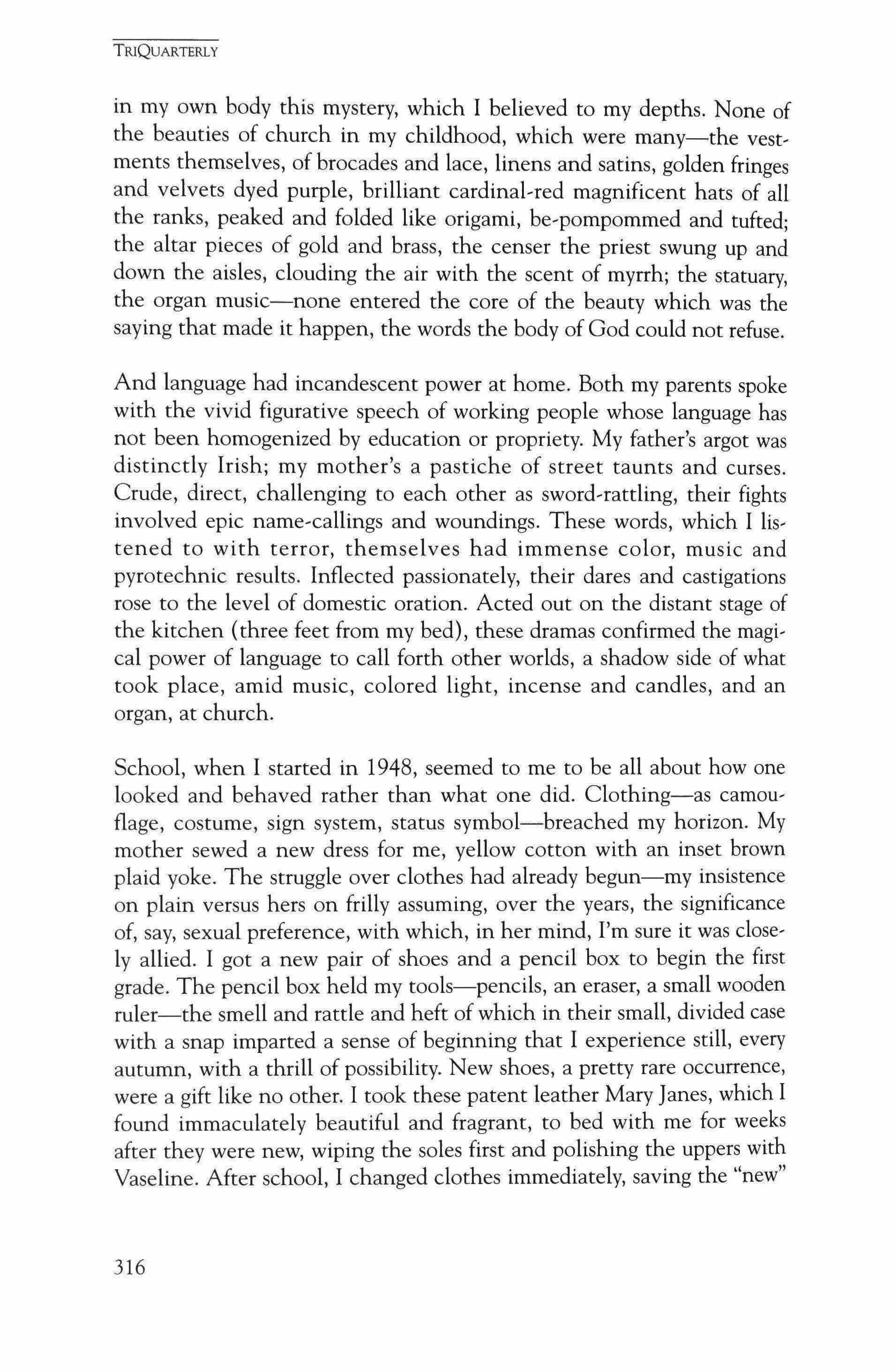
in my own body this mystery, which I believed to my depths. None of the beauties of church in my childhood, which were many-the vestments themselves, of brocades and lace, linens and satins, golden fringes and velvets dyed purple, brilliant cardinal-red magnificent hats of all the ranks, peaked and folded like origami, be-pompommed and tufted; the altar pieces of gold and brass, the censer the priest swung up and down the aisles, clouding the air with the scent of myrrh; the statuary, the organ music-none entered the core of the beauty which was the saying that made it happen, the words the body of God could not refuse.
And language had incandescent power at home. Both my parents spoke with the vivid figurative speech of working people whose language has not been homogenized by education or propriety. My father's argot was distinctly Irish; my mother's a pastiche of street taunts and curses. Crude, direct, challenging to each other as sword-rattling, their fights involved epic name-callings and woundings. These words, which I listened to with terror, themselves had immense color, music and pyrotechnic results. Inflected passionately, their dares and castigations rose to the level of domestic oration. Acted out on the distant stage of the kitchen (three feet from my bed), these dramas confirmed the magical power of language to call forth other worlds, a shadow side of what took place, amid music, colored light, incense and candles, and an organ, at church.
School, when I started in 1948, seemed to me to be all about how one looked and behaved rather than what one did. Clothing-as camouflage, costume, sign system, status symbol-breached my horizon. My mother sewed a new dress for me, yellow cotton with an inset brown plaid yoke. The struggle over clothes had already begun-my insistence on plain versus hers on frilly assuming, over the years, the significance of, say, sexual preference, with which, in her mind, I'm sure it was closely allied. I got a new pair of shoes and a pencil box to begin the first grade. The pencil box held my tools-pencils, an eraser, a small wooden ruler-the smell and rattle and heft of which in their small, divided case with a snap imparted a sense of beginning that I experience still, every autumn, with a thrill of possibility. New shoes, a pretty rare occurrence, were a gift like no other. I took these patent leather Mary Janes, which I found immaculately beautiful and fragrant, to bed with me for weeks after they were new, wiping the sales first and polishing the uppers with Vaseline. After school, I changed clothes immediately, saving the "new"
TRIQUARTERLY
316
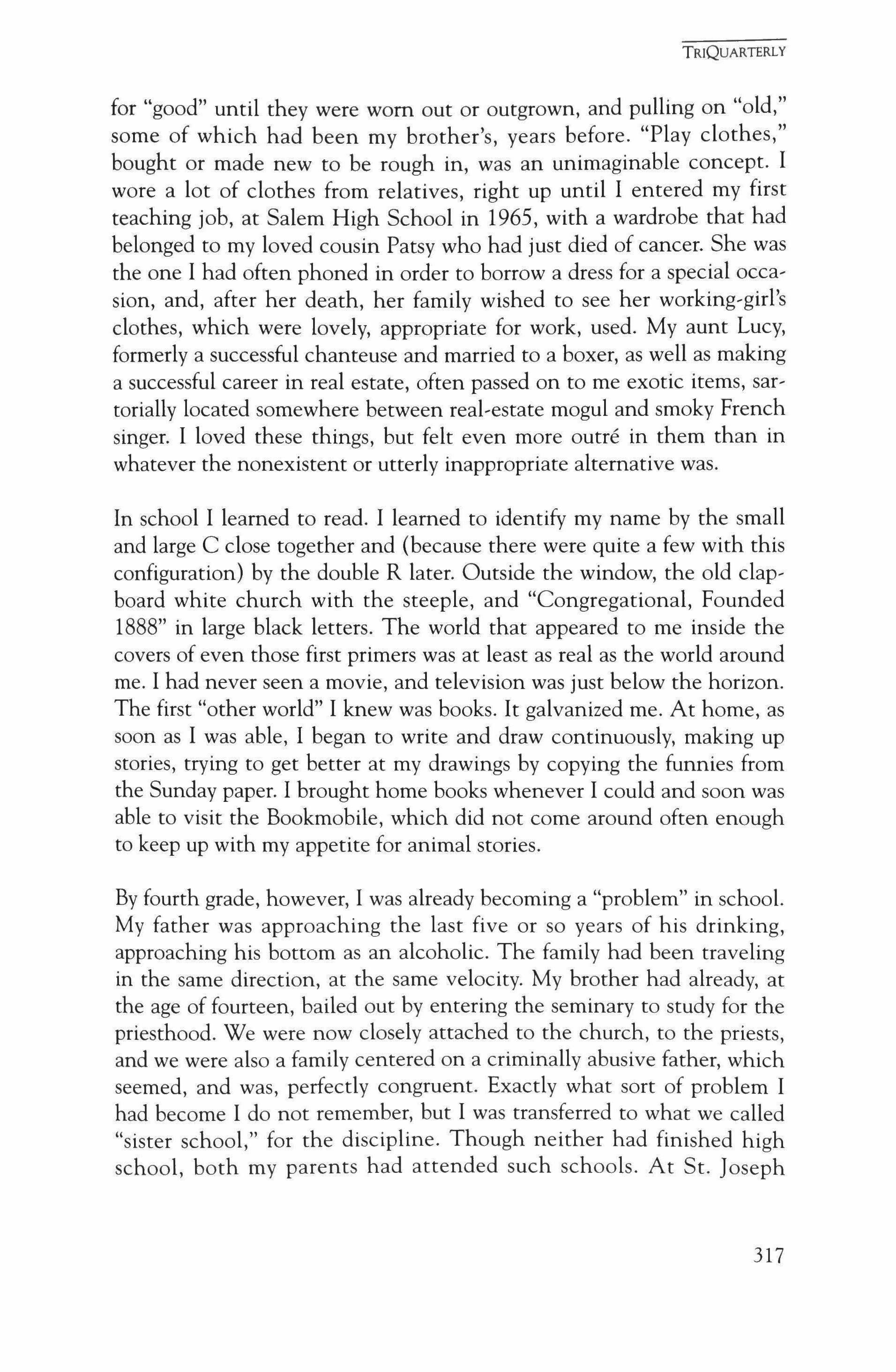
for "good" until they were worn out or outgrown, and pulling on "old," some of which had been my brother's, years before. "Play clothes," bought or made new to be rough in, was an unimaginable concept. I wore a lot of clothes from relatives, right up until I entered my first teaching job, at Salem High School in 1965, with a wardrobe that had belonged to my loved cousin Patsy who had just died of cancer. She was the one I had often phoned in order to borrow a dress for a special occasion, and, after her death, her family wished to see her working-girl's clothes, which were lovely, appropriate for work, used. My aunt Lucy, formerly a successful chanteuse and married to a boxer, as well as making a successful career in real estate, often passed on to me exotic items, sartorially located somewhere between real-estate mogul and smoky French singer. I loved these things, but felt even more outre in them than in whatever the nonexistent or utterly inappropriate alternative was.
In school I learned to read. I learned to identify my name by the small and large C close together and (because there were quite a few with this configuration) by the double R later. Outside the window, the old clap' board white church with the steeple, and "Congregational, Founded 1888" in large black letters. The world that appeared to me inside the covers of even those first primers was at least as real as the world around me. I had never seen a movie, and television was just below the horizon. The first "other world" I knew was books. It galvanized me. At home, as soon as I was able, I began to write and draw continuously, making up stories, trying to get better at my drawings by copying the funnies from the Sunday paper. I brought home books whenever I could and soon was able to visit the Bookmobile, which did not come around often enough to keep up with my appetite for animal stories.
By fourth grade, however, I was already becoming a "problem" in school. My father was approaching the last five or so years of his drinking, approaching his bottom as an alcoholic. The family had been traveling in the same direction, at the same velocity. My brother had already, at the age of fourteen, bailed out by entering the seminary to study for the priesthood. We were now closely attached to the church, to the priests, and we were also a family centered on a criminally abusive father, which seemed, and was, perfectly congruent. Exactly what sort of problem I had become I do not remember, but I was transferred to what we called "sister school," for the discipline. Though neither had finished high school, both my parents had attended such schools. At St. Joseph 317
TRIQUARTERLY
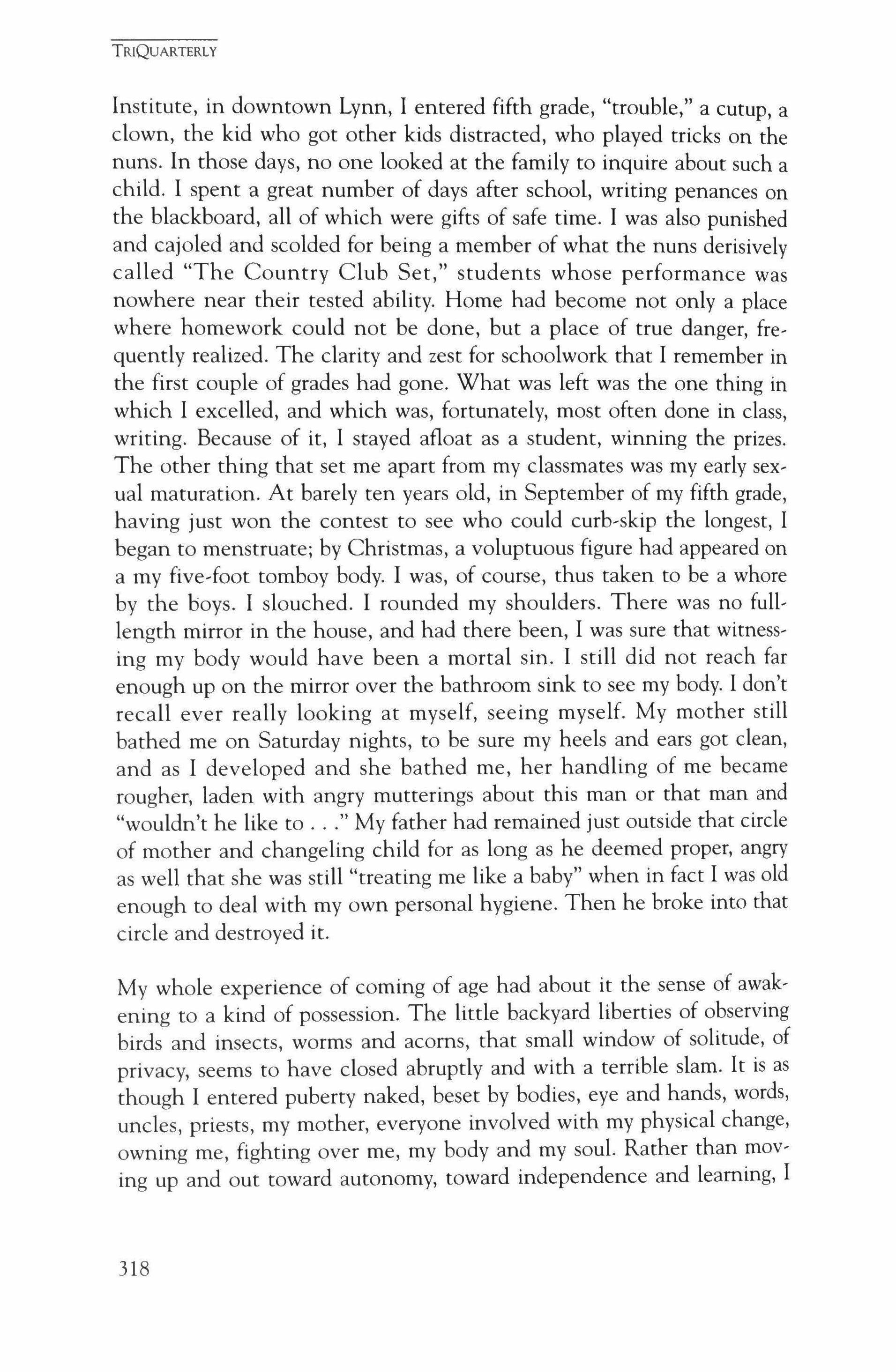
Institute, in downtown Lynn, I entered fifth grade, "trouble," a cutup, a clown, the kid who got other kids distracted, who played tricks on the nuns. In those days, no one looked at the family to inquire about such a child. I spent a great number of days after school, writing penances on the blackboard, all of which were gifts of safe time. I was also punished and cajoled and scolded for being a member of what the nuns derisively called "The Country Club Set," students whose performance was nowhere near their tested ability. Home had become not only a place where homework could not be done, but a place of true danger, frequently realized. The clarity and zest for schoolwork that I remember in the first couple of grades had gone. What was left was the one thing in which I excelled, and which was, fortunately, most often done in class, writing. Because of it, I stayed afloat as a student, winning the prizes. The other thing that set me apart from my classmates was my early sexual maturation. At barely ten years old, in September of my fifth grade, having just won the contest to see who could curb-skip the longest, I began to menstruate; by Christmas, a voluptuous figure had appeared on a my five-foot tomboy body. I was, of course, thus taken to be a whore by the boys. I slouched. I rounded my shoulders. There was no fulllength mirror in the house, and had there been, I was sure that witnessing my body would have been a mortal sin. I still did not reach far enough up on the mirror over the bathroom sink to see my body. I don't recall ever really looking at myself, seeing myself. My mother still bathed me on Saturday nights, to be sure my heels and ears got clean, and as I developed and she bathed me, her handling of me became rougher, laden with angry mutterings about this man or that man and "wouldn't he like to My father had remained just outside that circle of mother and changeling child for as long as he deemed proper, angry as well that she was still "treating me like a baby" when in fact I was old enough to deal with my own personal hygiene. Then he broke into that circle and destroyed it.
My whole experience of coming of age had about it the sense of awakening to a kind of possession. The little backyard liberties of observing birds and insects, worms and acorns, that small window of solitude, of privacy, seems to have closed abruptly and with a terrible slam. It is as though I entered puberty naked, beset by bodies, eye and hands, words, uncles, priests, my mother, everyone involved with my physical change, owning me, fighting over me, my body and my soul. Rather than moving up and out toward autonomy, toward independence and learning, I
TRIQUARTERLY
318
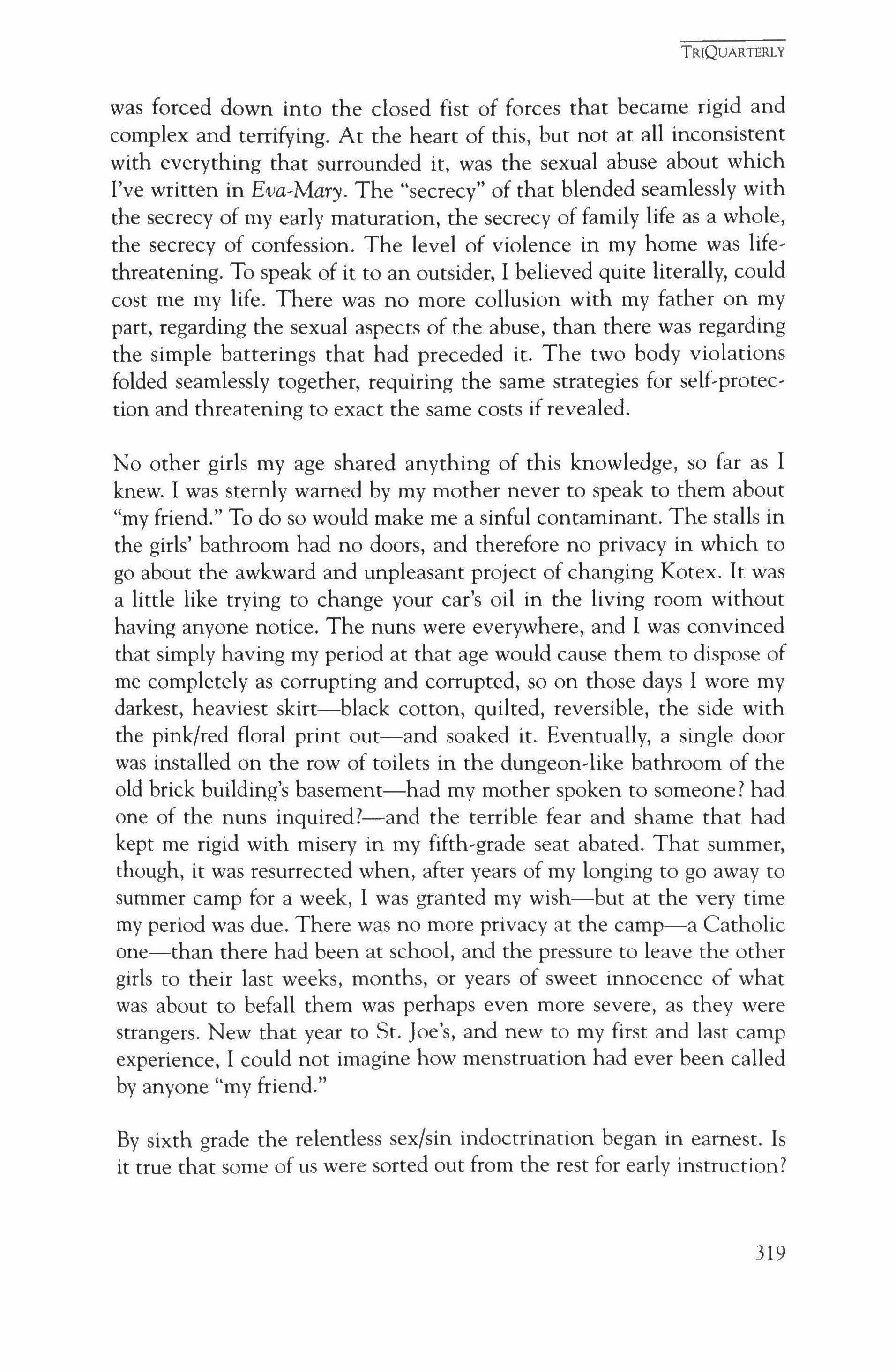
was forced down into the closed fist of forces that became rigid and complex and terrifying. At the heart of this, but not at all inconsistent with everything that surrounded it, was the sexual abuse about which I've written in Eva-Mary. The "secrecy" of that blended seamlessly with the secrecy of my early maturation, the secrecy of family life as a whole, the secrecy of confession. The level of violence in my home was lifethreatening. To speak of it to an outsider, I believed quite literally, could cost me my life. There was no more collusion with my father on my part, regarding the sexual aspects of the abuse, than there was regarding the simple batterings that had preceded it. The two body violations folded seamlessly together, requiring the same strategies for self-protection and threatening to exact the same costs if revealed.
No other girls my age shared anything of this knowledge, so far as I knew. I was sternly warned by my mother never to speak to them about "my friend." To do so would make me a sinful contaminant. The stalls in the girls' bathroom had no doors, and therefore no privacy in which to go about the awkward and unpleasant project of changing Kotex. It was a little like trying to change your car's oil in the living room without having anyone notice. The nuns were everywhere, and I was convinced that simply having my period at that age would cause them to dispose of me completely as corrupting and corrupted, so on those days I wore my darkest, heaviest skirt-black cotton, quilted, reversible, the side with the pink/red floral print out-and soaked it. Eventually, a single door was installed on the row of toilets in the dungeon-like bathroom of the old brick building's basement-had my mother spoken to someone? had one of the nuns inquired?-and the terrible fear and shame that had kept me rigid with misery in my fifth-grade seat abated. That summer, though, it was resurrected when, after years of my longing to go away to summer camp for a week, I was granted my wish-but at the very time my period was due. There was no more privacy at the camp-a Catholic one-than there had been at school, and the pressure to leave the other girls to their last weeks, months, or years of sweet innocence of what was about to befall them was perhaps even more severe, as they were strangers. New that year to St. Joe's, and new to my first and last camp experience, I could not imagine how menstruation had ever been called by anyone "my friend."
By sixth grade the relentless sex/sin indoctrination began in earnest. Is it true that some of us were sorted out from the rest for early instruction?
TRIQUARTERLY
319
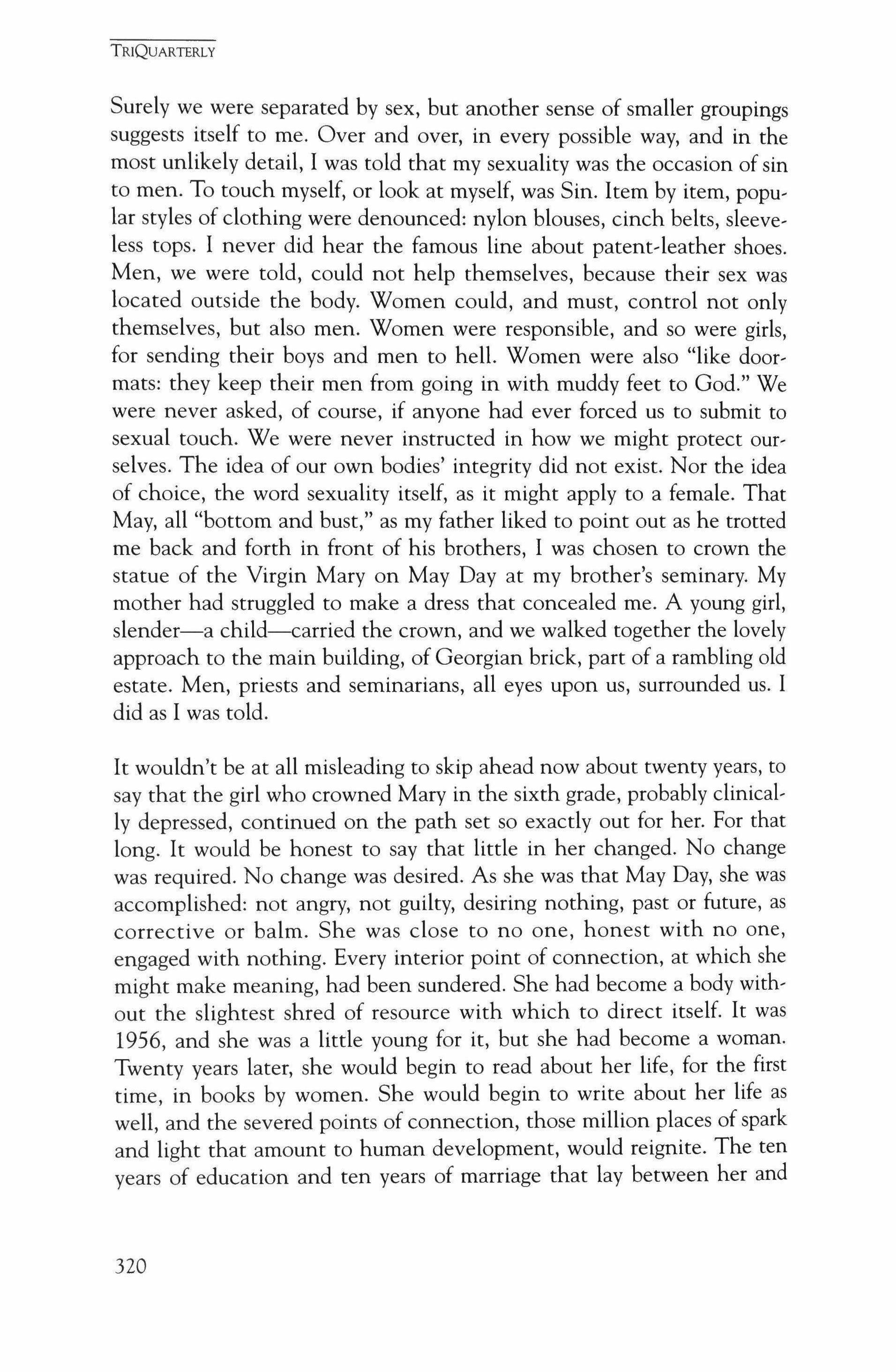
Surely we were separated by sex, but another sense of smaller groupings suggests itself to me. Over and over, in every possible way, and in the most unlikely detail, I was told that my sexuality was the occasion of sin to men. To touch myself, or look at myself, was Sin. Item by item, popular styles of clothing were denounced: nylon blouses, cinch belts, sleeveless tops. I never did hear the famous line about patent-leather shoes. Men, we were told, could not help themselves, because their sex was located outside the body. Women could, and must, control not only themselves, but also men. Women were responsible, and so were girls, for sending their boys and men to hell. Women were also "like doormats: they keep their men from going in with muddy feet to God." We were never asked, of course, if anyone had ever forced us to submit to sexual touch. We were never instructed in how we might protect ourselves. The idea of our own bodies' integrity did not exist. Nor the idea of choice, the word sexuality itself, as it might apply to a female. That May, all "bottom and bust," as my father liked to point out as he trotted me back and forth in front of his brothers, I was chosen to crown the statue of the Virgin Mary on May Day at my brother's seminary. My mother had struggled to make a dress that concealed me. A young girl, slender-a child-carried the crown, and we walked together the lovely approach to the main building, of Georgian brick, part of a rambling old estate. Men, priests and seminarians, all eyes upon us, surrounded us. I did as I was told.
It wouldn't be at all misleading to skip ahead now about twenty years, to say that the girl who crowned Mary in the sixth grade, probably clinically depressed, continued on the path set so exactly out for her. For that long. It would be honest to say that little in her changed. No change was required. No change was desired. As she was that May Day, she was accomplished: not angry, not guilty, desiring nothing, past or future, as corrective or balm. She was close to no one, honest with no one, engaged with nothing. Every interior point of connection, at which she might make meaning, had been sundered. She had become a body without the slightest shred of resource with which to direct itself. It was 1956, and she was a little young for it, but she had become a woman. Twenty years later, she would begin to read about her life, for the first time, in books by women. She would begin to write about her life as well, and the severed points of connection, those million places of spark and light that amount to human development, would reignite. The ten years of education and ten years of marriage that lay between her and
TRIQUARTERLY
320
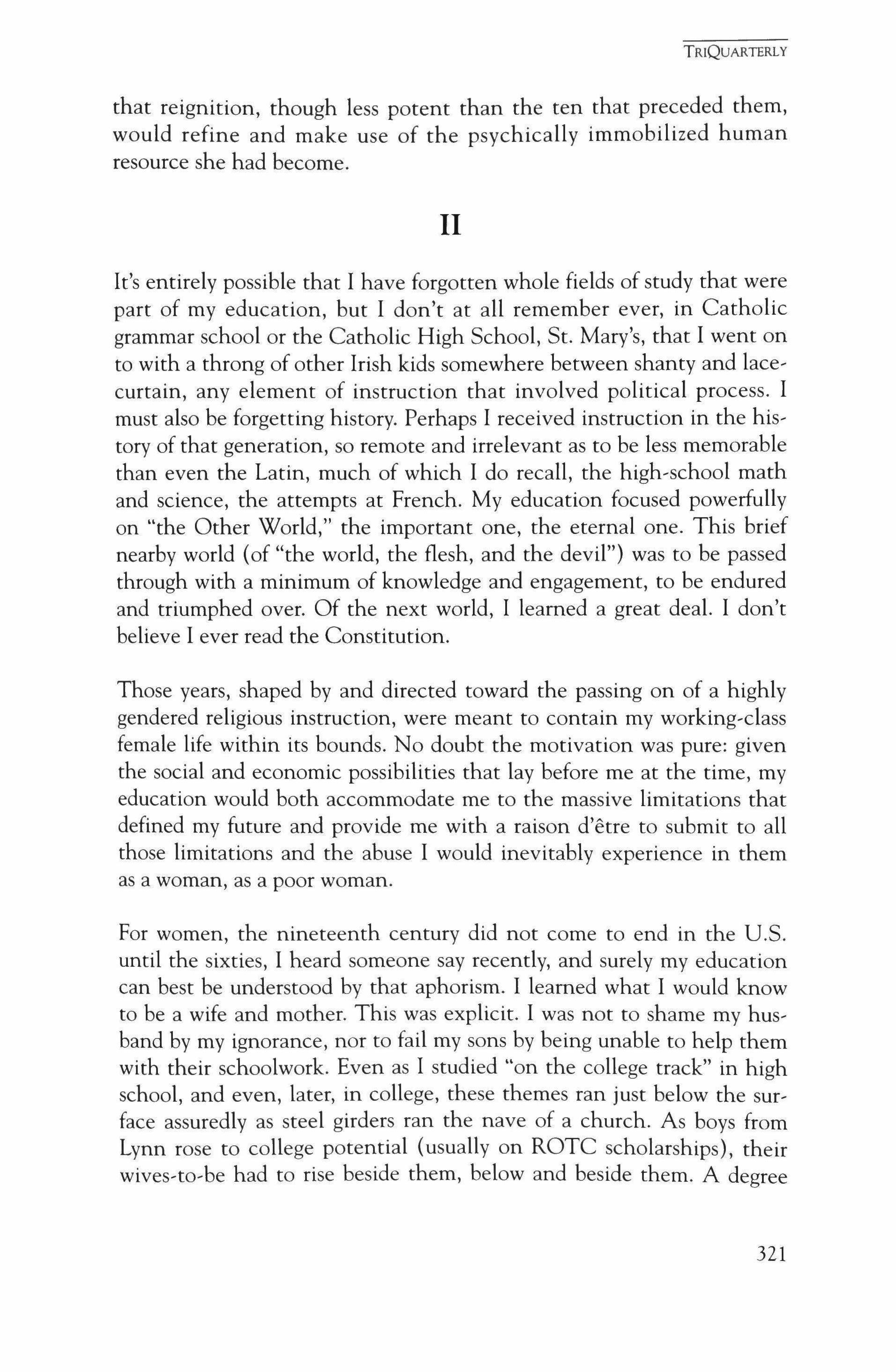
that reignition, though less potent than the ten that preceded them, would refine and make use of the psychically immobilized human resource she had become.
II
It's entirely possible that I have forgotten whole fields of study that were part of my education, but I don't at all remember ever, in Catholic grammar school or the Catholic High School, St. Mary's, that I went on to with a throng of other Irish kids somewhere between shanty and lacecurtain, any element of instruction that involved political process. I must also be forgetting history. Perhaps I received instruction in the history of that generation, so remote and irrelevant as to be less memorable than even the Latin, much of which I do recall, the high-school math and science, the attempts at French. My education focused powerfully on "the Other World," the important one, the eternal one. This brief nearby world (of "the world, the flesh, and the devil") was to be passed through with a minimum of knowledge and engagement, to be endured and triumphed over. Of the next world, I learned a great deal. I don't believe I ever read the Constitution.
Those years, shaped by and directed toward the passing on of a highly gendered religious instruction, were meant to contain my working-class female life within its bounds. No doubt the motivation was pure: given the social and economic possibilities that lay before me at the time, my education would both accommodate me to the massive limitations that defined my future and provide me with a raison d'etre to submit to all those limitations and the abuse I would inevitably experience in them as a woman, as a poor woman.
For women, the nineteenth century did not come to end in the U.S. until the sixties, I heard someone say recently, and surely my education can best be understood by that aphorism. I learned what I would know to be a wife and mother. This was explicit. I was not to shame my husband by my ignorance, nor to fail my sons by being unable to help them with their schoolwork. Even as I studied "on the college track" in high school, and even, later, in college, these themes ran just below the surface assuredly as steel girders ran the nave of a church. As boys from Lynn rose to college potential (usually on ROTC scholarships), their wives-to-be had to rise beside them, below and beside them. A degree
TRIQUARTERLY
321
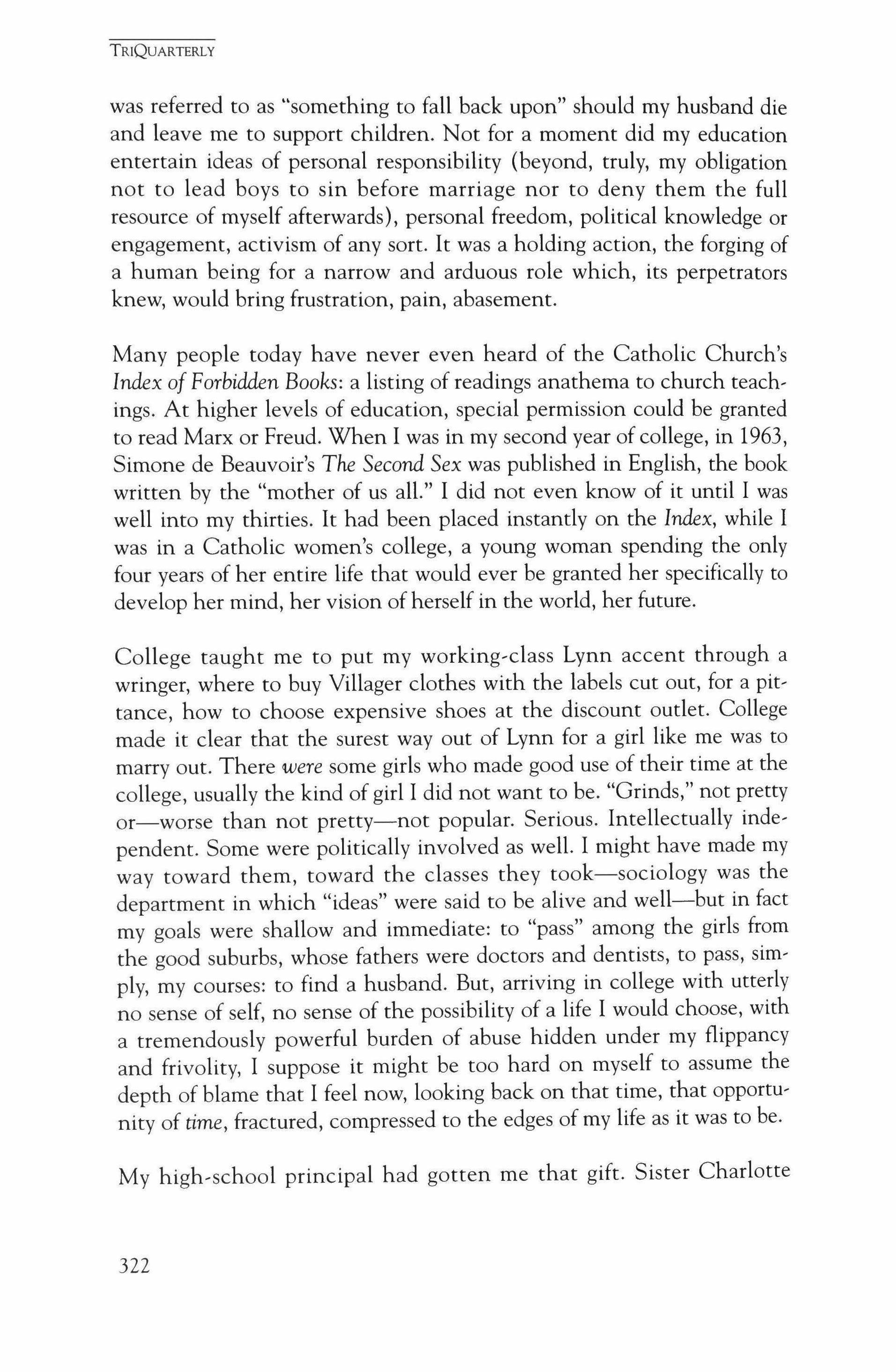
was referred to as "something to fall back upon" should my husband die and leave me to support children. Not for a moment did my education entertain ideas of personal responsibility (beyond, truly, my obligation not to lead boys to sin before marriage nor to deny them the full resource of myself afterwards), personal freedom, political knowledge or engagement, activism of any sort. It was a holding action, the forging of a human being for a narrow and arduous role which, its perpetrators knew, would bring frustration, pain, abasement.
Many people today have never even heard of the Catholic Church's Index of Forbidden Books: a listing of readings anathema to church teachings. At higher levels of education, special permission could be granted to read Marx or Freud. When I was in my second year of college, in 1963, Simone de Beauvoir's The Second Sex was published in English, the book written by the "mother of us all." I did not even know of it until I was well into my thirties. It had been placed instantly on the Index, while I was in a Catholic women's college, a young woman spending the only four years of her entire life that would ever be granted her specifically to develop her mind, her vision of herself in the world, her future.
College taught me to put my working-class Lynn accent through a wringer, where to buy Villager clothes with the labels cut out, for a pittance, how to choose expensive shoes at the discount outlet. College made it clear that the surest way out of Lynn for a girl like me was to marry out. There were some girls who made good use of their time at the college, usually the kind of girl I did not want to be. "Grinds," not pretty or-worse than not pretty-not popular. Serious. Intellectually independent. Some were politically involved as well. I might have made my way toward them, toward the classes they took-sociology was the department in which "ideas" were said to be alive and well-but in fact my goals were shallow and immediate: to "pass" among the girls from the good suburbs, whose fathers were doctors and dentists, to pass, simply, my courses: to find a husband. But, arriving in college with utterly no sense of self, no sense of the possibility of a life I would choose, with a tremendously powerful burden of abuse hidden under my flippancy and frivolity, I suppose it might be too hard on myself to assume the depth of blame that I feel now, looking back on that time, that opportunity of time, fractured, compressed to the edges of my life as it was to be.
My high-school principal had gotten me that gift. Sister Charlotte
TRIQUARTERLY
322
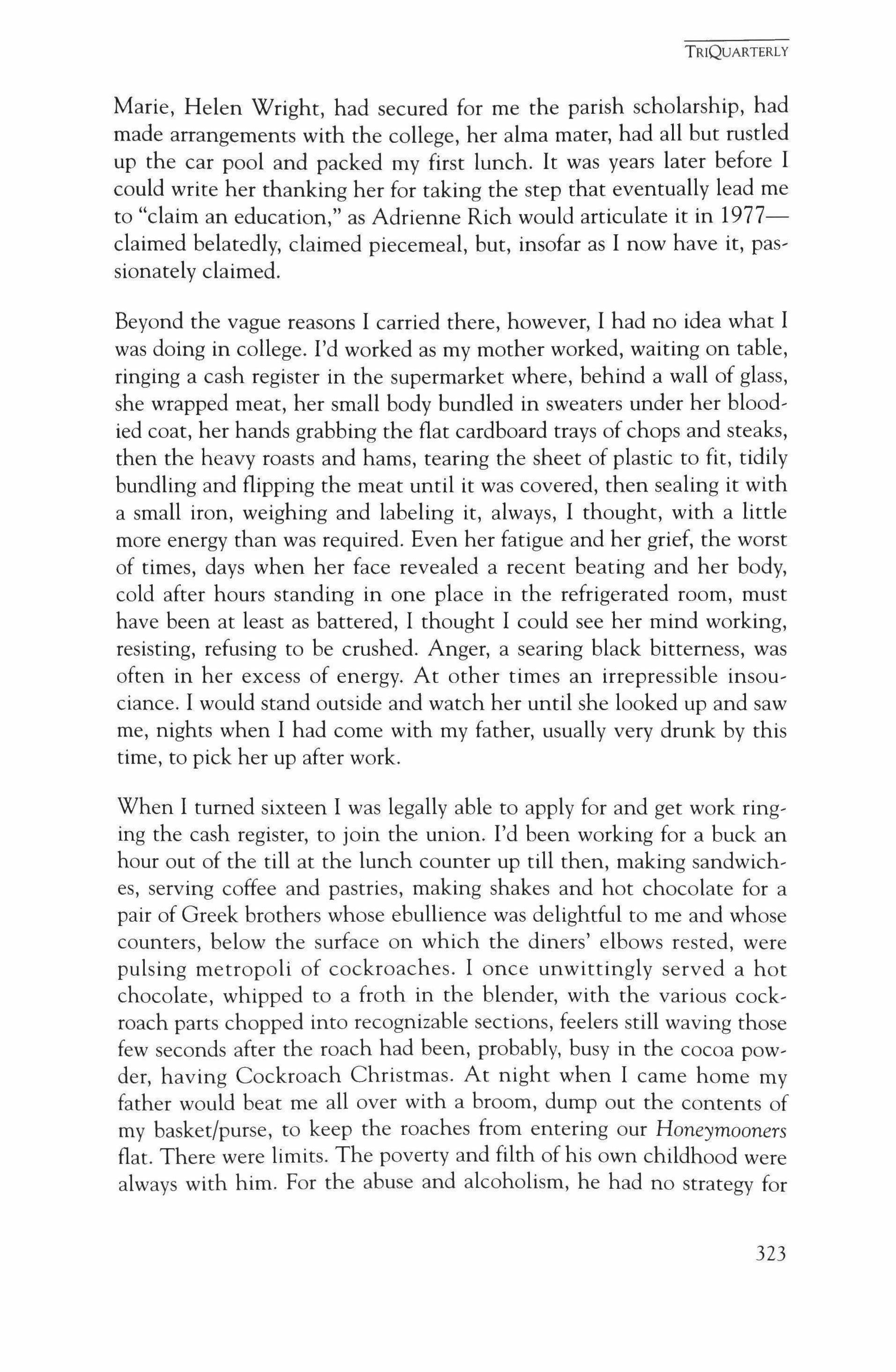
Marie, Helen Wright, had secured for me the parish scholarship, had made arrangements with the college, her alma mater, had all but rustled up the car pool and packed my first lunch. It was years later before I could write her thanking her for taking the step that eventually lead me to "claim an education," as Adrienne Rich would articulate it in 1977claimed belatedly, claimed piecemeal, but, insofar as I now have it, passionately claimed.
Beyond the vague reasons I carried there, however, I had no idea what I was doing in college. I'd worked as my mother worked, waiting on table, ringing a cash register in the supermarket where, behind a wall of glass, she wrapped meat, her small body bundled in sweaters under her bloodied coat, her hands grabbing the flat cardboard trays of chops and steaks, then the heavy roasts and hams, tearing the sheet of plastic to fit, tidily bundling and flipping the meat until it was covered, then sealing it with a small iron, weighing and labeling it, always, I thought, with a little more energy than was required. Even her fatigue and her grief, the worst of times, days when her face revealed a recent beating and her body, cold after hours standing in one place in the refrigerated room, must have been at least as battered, I thought I could see her mind working, resisting, refusing to be crushed. Anger, a searing black bitterness, was often in her excess of energy. At other times an irrepressible insouciance. I would stand outside and watch her until she looked up and saw me, nights when I had come with my father, usually very drunk by this time, to pick her up after work.
When I turned sixteen I was legally able to apply for and get work ringing the cash register, to join the union. I'd been working for a buck an hour out of the till at the lunch counter up till then, making sandwiches, serving coffee and pastries, making shakes and hot chocolate for a pair of Greek brothers whose ebullience was delightful to me and whose counters, below the surface on which the diners' elbows rested, were pulsing metropoli of cockroaches. I once unwittingly served a hot chocolate, whipped to a froth in the blender, with the various cockroach parts chopped into recognizable sections, feelers still waving those few seconds after the roach had been, probably, busy in the cocoa powder, having Cockroach Christmas. At night when I came home my father would beat me all over with a broom, dump out the contents of my basket/purse, to keep the roaches from entering our Honeymooners flat. There were limits. The poverty and filth of his own childhood were always with him. For the abuse and alcoholism, he had no strategy for
TRIQUARTERLY
323

rescue or repair. For filth he did.
College, then, was an escape from the lunch counter, the cash register, the meat room, the restaurants. I was "too smart" to be a secretary. (My mother never stopped lamenting the high scores on the IQ tests, utterly irreconcilable with her plans for me, and says to this day, "You would have made a great hairdresser if you hadn't been so damned smart." And to this day, she truly does not know "what I do," as I do it, most of the time, sitting down, my hands holding nothing more than paper.) I would be a teacher. English teacher: English major, education minor. Not a clue beyond trying to "get out"-of Lynn, by which was meant the working class, life among the roaches, punching a time clock, sitting in seedy backrooms with the other "girls" on break, feet swollen in cheap sneakers, aching legs propped up on another chair, smoking, or, when I was older, going out onto the strip late, after work, for a few drinks. Throughout high school I worked at the same market my mother did, usually twenty hours a week, ringing a cash register. A typical week's schedule was 3 to 6 P.M. Wednesday and Thursday, 3 to 9 P.M. Friday, and all day Saturday. Whether or not I should pay rent to my father out of my earnings was a constant source of struggle. These hours made almost all after-school pursuits off limits. They also cut deeply into the time I might have spent on schoolwork, though running out of the house at night with my mother to escape another attack by my father made for a chaos in which the idea of reading was ludicrous. Nonetheless, because there were days on which I did not work, and because we might do so at my friend Marilyn's house, she and I edited the high school newspaper during those years. When I won first prize in the Boston Globe's high-school journalism awards for an article on the implications of students' television viewing and reading habits, however, Marilyn had to attend the awards dinner in my stead, as I could not get the day off from work.
Unable to meet the schedule demands of my supermarket job once I was in college, I went to work at a restaurant, waiting on table with many of the young women who'd graduated from St. Mary's and gone on to Emmanuel. We worked six days a week during the summer, every Saturday, Sunday and holiday, and all vacations. Workdays were ten to twelve hours long, with a two-hour break between shifts, during which "the girls" did setup work-folding napkins, stripping paper doiliesand knitted, smoked, talked. The restaurant, a handsome old colonial
TRIQUARTERLY
324
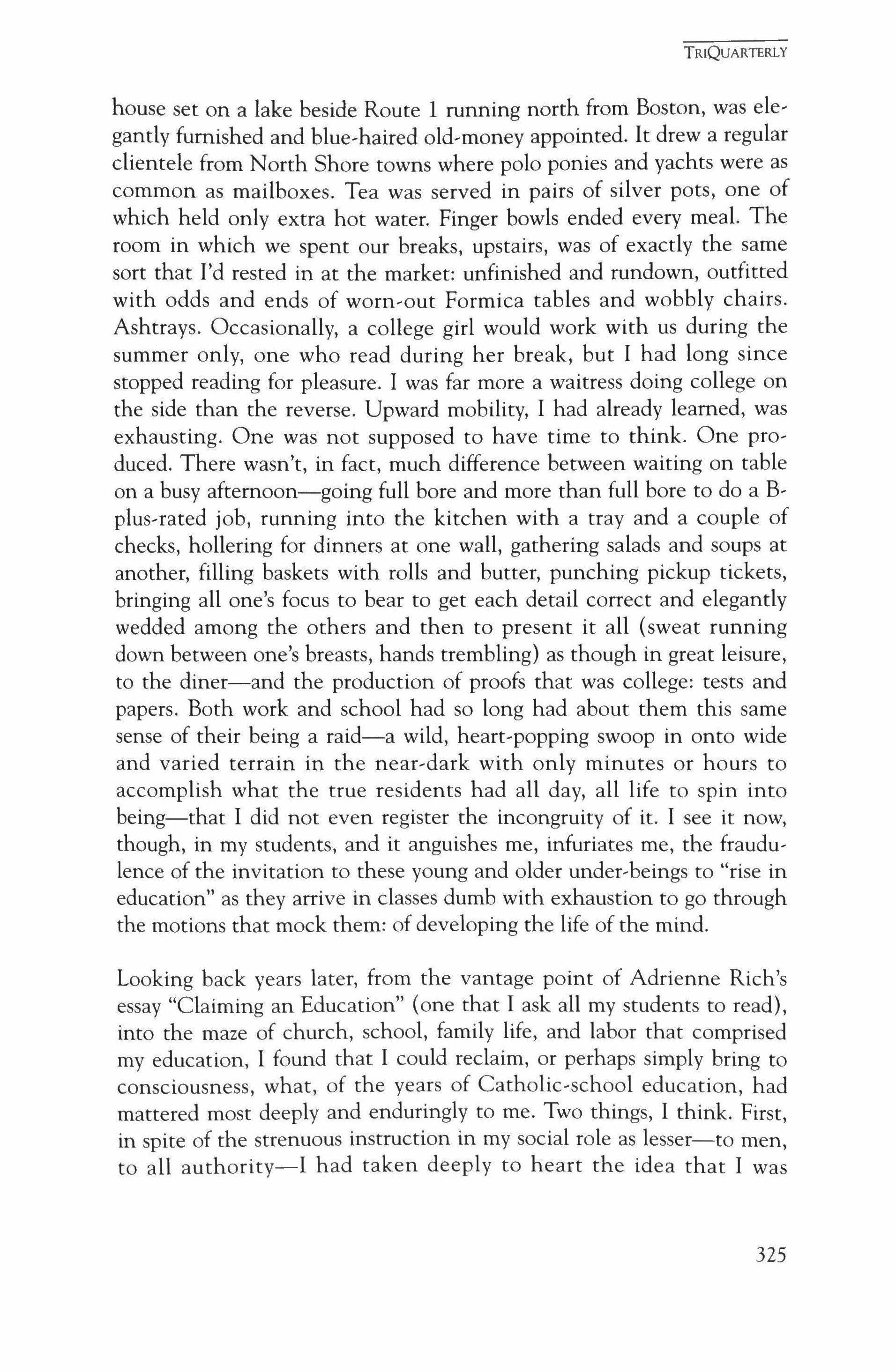
house set on a lake beside Route 1 running north from Boston, was elegantly furnished and blue-haired old-money appointed. It drew a regular clientele from North Shore towns where polo ponies and yachts were as common as mailboxes. Tea was served in pairs of silver pots, one of which held only extra hot water. Finger bowls ended every meal. The room in which we spent our breaks, upstairs, was of exactly the same sort that I'd rested in at the market: unfinished and rundown, outfitted with odds and ends of worn-out Formica tables and wobbly chairs. Ashtrays. Occasionally, a college girl would work with us during the summer only, one who read during her break, but I had long since stopped reading for pleasure. I was far more a waitress doing college on the side than the reverse. Upward mobility, I had already learned, was exhausting. One was not supposed to have time to think. One produced. There wasn't, in fact, much difference between waiting on table on a busy afternoon-going full bore and more than full bore to do a Bplus-rated job, running into the kitchen with a tray and a couple of checks, hollering for dinners at one wall, gathering salads and soups at another, filling baskets with rolls and butter, punching pickup tickets, bringing all one's focus to bear to get each detail correct and elegantly wedded among the others and then to present it all (sweat running down between one's breasts, hands trembling) as though in great leisure, to the diner-and the production of proofs that was college: tests and papers. Both work and school had so long had about them this same sense of their being a raid-a wild, heart-popping swoop in onto wide and varied terrain in the near-dark with only minutes or hours to accomplish what the true residents had all day, all life to spin into being-that I did not even register the incongruity of it. I see it now, though, in my students, and it anguishes me, infuriates me, the fraudulence of the invitation to these young and older under-beings to "rise in education" as they arrive in classes dumb with exhaustion to go through the motions that mock them: of developing the life of the mind.
Looking back years later, from the vantage point of Adrienne Rich's essay "Claiming an Education" (one that I ask all my students to read), into the maze of church, school, family life, and labor that comprised my education, I found that I could reclaim, or perhaps simply bring to consciousness, what, of the years of Catholic-school education, had mattered most deeply and enduringly to me. Two things, I think. First, in spite of the strenuous instruction in my social role as lesser-to men, to all authority-I had taken deeply to heart the idea that I was
TRIQUARTERLY
325
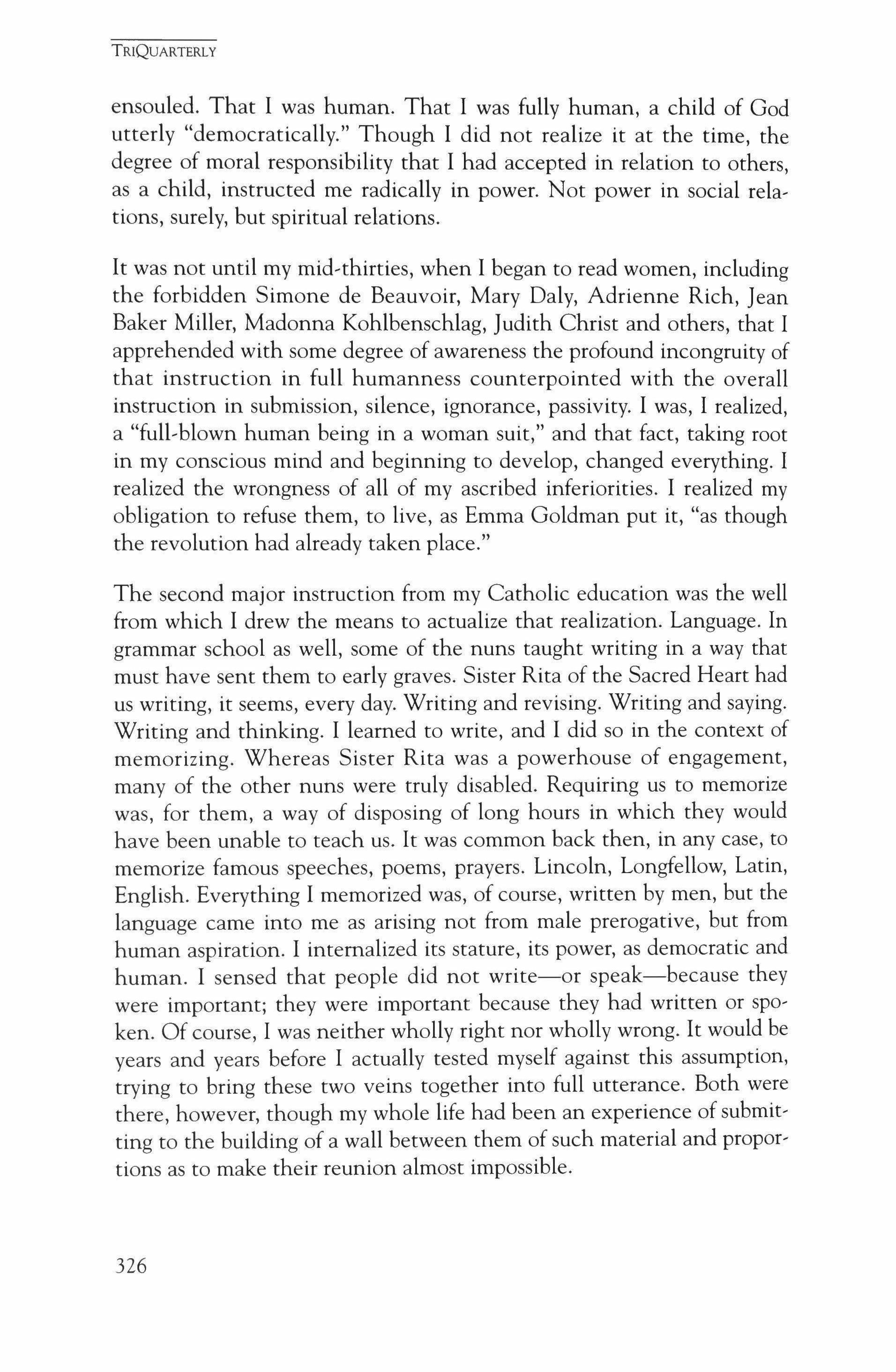
ensouled. That I was human. That I was fully human, a child of God utterly "democratically." Though I did not realize it at the time, the degree of moral responsibility that I had accepted in relation to others, as a child, instructed me radically in power. Not power in social relations, surely, but spiritual relations.
It was not until my mid-thirties, when I began to read women, including the forbidden Simone de Beauvoir, Mary Daly, Adrienne Rich, Jean Baker Miller, Madonna Kohlbenschlag, Judith Christ and others, that I apprehended with some degree of awareness the profound incongruity of that instruction in full humanness counterpointed with the overall instruction in submission, silence, ignorance, passivity. I was, I realized, a "full-blown human being in a woman suit," and that fact, taking root in my conscious mind and beginning to develop, changed everything. I realized the wrongness of all of my ascribed inferiorities. I realized my obligation to refuse them, to live, as Emma Goldman put it, "as though the revolution had already taken place."
The second major instruction from my Catholic education was the well from which I drew the means to actualize that realization. Language. In grammar school as well, some of the nuns taught writing in a way that must have sent them to early graves. Sister Rita of the Sacred Heart had us writing, it seems, every day. Writing and revising. Writing and saying. Writing and thinking. I learned to write, and I did so in the context of memorizing. Whereas Sister Rita was a powerhouse of engagement, many of the other nuns were truly disabled. Requiring us to memorize was, for them, a way of disposing of long hours in which they would have been unable to teach us. It was common back then, in any case, to memorize famous speeches, poems, prayers. Lincoln, Longfellow, Latin, English. Everything I memorized was, of course, written by men, but the language came into me as arising not from male prerogative, but from human aspiration. I internalized its stature, its power, as democratic and human. I sensed that people did not write-or speak-because they were important; they were important because they had written or spoken. Of course, I was neither wholly right nor wholly wrong. It would be years and years before I actually tested myself against this assumption, trying to bring these two veins together into full utterance. Both were there, however, though my whole life had been an experience of submitting to the building of a wall between them of such material and proportions as to make their reunion almost impossible.
TRIQUARTERLY
326
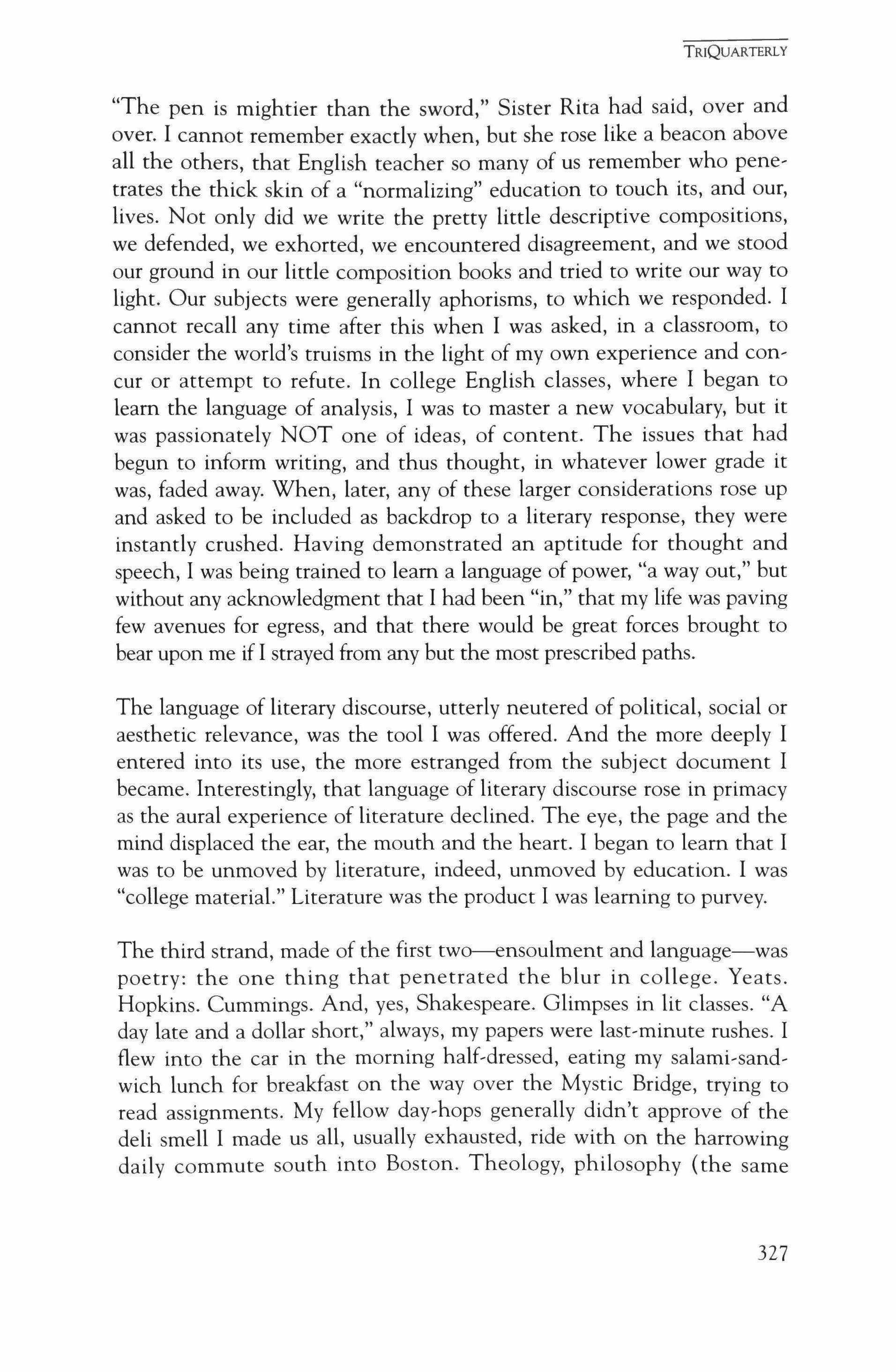
"The pen is mightier than the sword," Sister Rita had said, over and over. I cannot remember exactly when, but she rose like a beacon above all the others, that English teacher so many of us remember who penetrates the thick skin of a "normalizing" education to touch its, and our, lives. Not only did we write the pretty little descriptive compositions, we defended, we exhorted, we encountered disagreement, and we stood our ground in our little composition books and tried to write our way to light. Our subjects were generally aphorisms, to which we responded. I cannot recall any time after this when I was asked, in a classroom, to consider the world's truisms in the light of my own experience and concur or attempt to refute. In college English classes, where I began to learn the language of analysis, I was to master a new vocabulary, but it was passionately NOT one of ideas, of content. The issues that had begun to inform writing, and thus thought, in whatever lower grade it was, faded away. When, later, any of these larger considerations rose up and asked to be included as backdrop to a literary response, they were instantly crushed. Having demonstrated an aptitude for thought and speech, I was being trained to learn a language of power, "a way out," but without any acknowledgment that I had been "in," that my life was paving few avenues for egress, and that there would be great forces brought to bear upon me if I strayed from any but the most prescribed paths.
The language of literary discourse, utterly neutered of political, social or aesthetic relevance, was the tool I was offered. And the more deeply I entered into its use, the more estranged from the subject document I became. Interestingly, that language of literary discourse rose in primacy as the aural experience of literature declined. The eye, the page and the mind displaced the ear, the mouth and the heart. I began to learn that I was to be unmoved by literature, indeed, unmoved by education. I was "college material." Literature was the product I was learning to purvey.
The third strand, made of the first two-e-ensoulment and language-was poetry: the one thing that penetrated the blur in college. Yeats. Hopkins. Cummings. And, yes, Shakespeare. Glimpses in lit classes. "A day late and a dollar short," always, my papers were last-minute rushes. I flew into the car in the morning half-dressed, eating my salami-sandwich lunch for breakfast on the way over the Mystic Bridge, trying to read assignments. My fellow day-hops generally didn't approve of the deli smell I made us all, usually exhausted, ride with on the harrowing daily commute south into Boston. Theology, philosophy (the same 327
TRIQUARTERLY
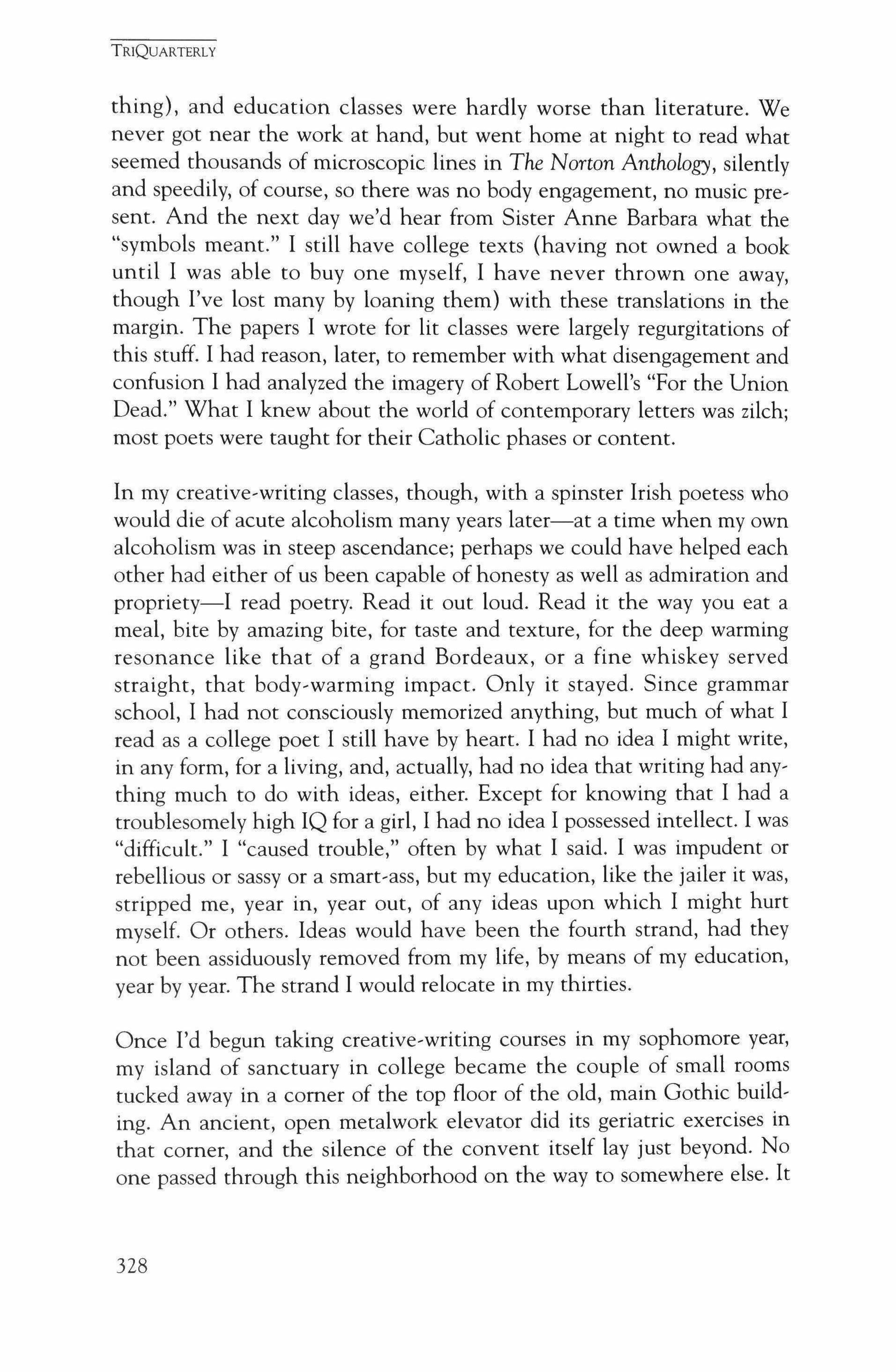
thing), and education classes were hardly worse than literature. We never got near the work at hand, but went home at night to read what seemed thousands of microscopic lines in The Norton Anthology, silently and speedily, of course, so there was no body engagement, no music present. And the next day we'd hear from Sister Anne Barbara what the "symbols meant." I still have college texts (having not owned a book until I was able to buy one myself, I have never thrown one away, though I've lost many by loaning them) with these translations in the margin. The papers I wrote for lit classes were largely regurgitations of this stuff. I had reason, later, to remember with what disengagement and confusion I had analyzed the imagery of Robert Lowell's "For the Union Dead." What I knew about the world of contemporary letters was zilch; most poets were taught for their Catholic phases or content.
In my creative-writing classes, though, with a spinster Irish poetess who would die of acute alcoholism many years later-at a time when my own alcoholism was in steep ascendance; perhaps we could have helped each other had either of us been capable of honesty as well as admiration and propriety-I read poetry. Read it out loud. Read it the way you eat a meal, bite by amazing bite, for taste and texture, for the deep warming resonance like that of a grand Bordeaux, or a fine whiskey served straight, that body-warming impact. Only it stayed. Since grammar school, I had not consciously memorized anything, but much of what I read as a college poet I still have by heart. I had no idea I might write, in any form, for a living, and, actually, had no idea that writing had anything much to do with ideas, either. Except for knowing that I had a troublesomely high IQ for a girl, I had no idea I possessed intellect. I was "difficult." I "caused trouble," often by what I said. I was impudent or rebellious or sassy or a smart-ass, but my education, like the jailer it was, stripped me, year in, year out, of any ideas upon which I might hurt myself. Or others. Ideas would have been the fourth strand, had they not been assiduously removed from my life, by means of my education, year by year. The strand I would relocate in my thirties.
Once I'd begun taking creative-writing courses in my sophomore year, my island of sanctuary in college became the couple of small rooms tucked away in a comer of the top floor of the old, main Gothic building. An ancient, open metalwork elevator did its geriatric exercises in that comer, and the silence of the convent itself lay just beyond. No one passed through this neighborhood on the way to somewhere else. It
TRIQUARTERLY
328
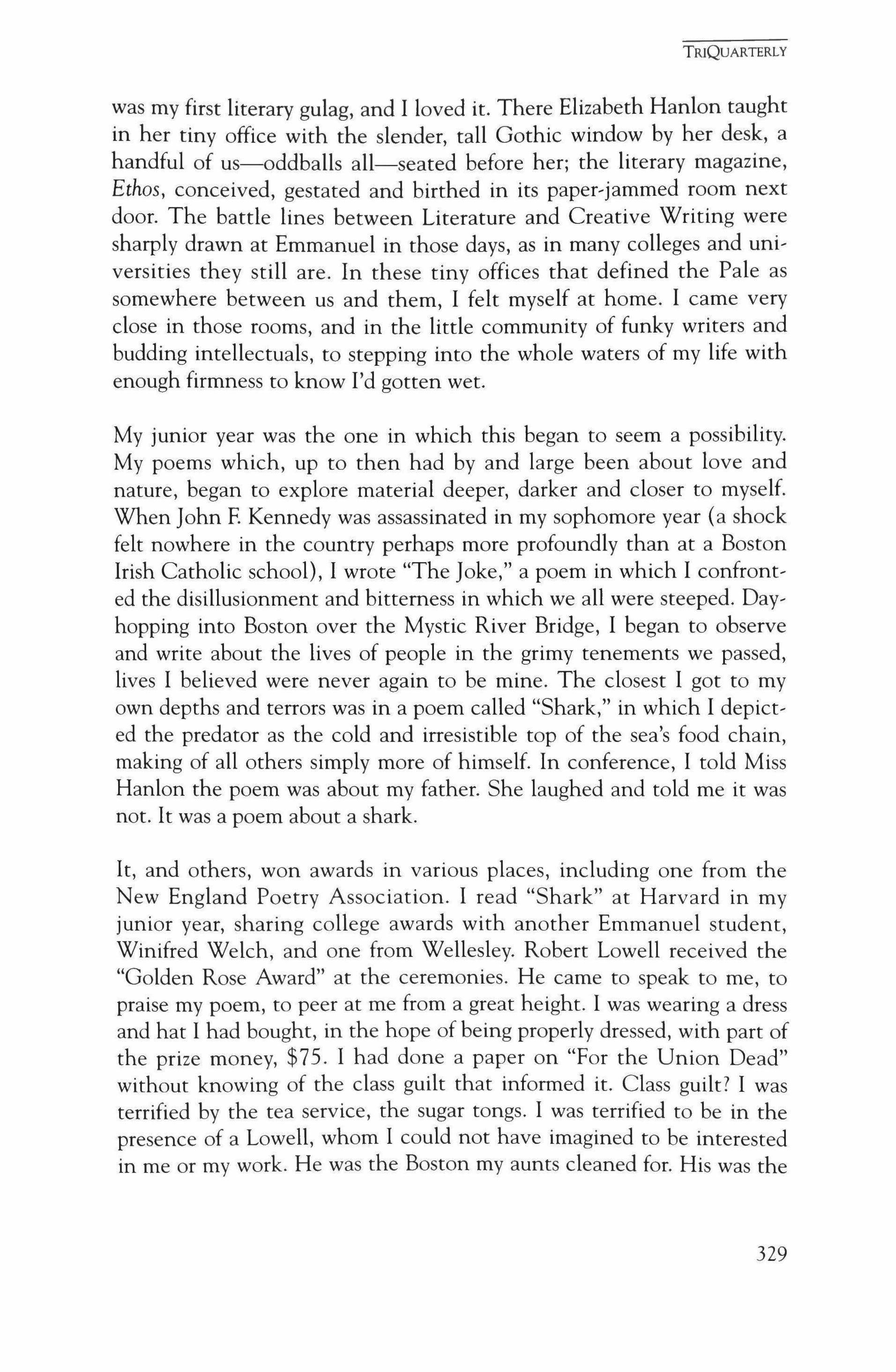
was my first literary gulag, and I loved it. There Elizabeth Hanlon taught in her tiny office with the slender, tall Gothic window by her desk, a handful of us-oddballs all-seated before her; the literary magazine, Ethos, conceived, gestated and birthed in its paper-jammed room next door. The battle lines between Literature and Creative Writing were sharply drawn at Emmanuel in those days, as in many colleges and universities they still are. In these tiny offices that defined the Pale as somewhere between us and them, I felt myself at home. I came very close in those rooms, and in the little community of funky writers and budding intellectuals, to stepping into the whole waters of my life with enough firmness to know I'd gotten wet.
My junior year was the one in which this began to seem a possibility. My poems which, up to then had by and large been about love and nature, began to explore material deeper, darker and closer to myself. When John F. Kennedy was assassinated in my sophomore year (a shock felt nowhere in the country perhaps more profoundly than at a Boston Irish Catholic school), I wrote "The Joke," a poem in which I confronted the disillusionment and bitterness in which we all were steeped. Dayhopping into Boston over the Mystic River Bridge, I began to observe and write about the lives of people in the grimy tenements we passed, lives I believed were never again to be mine. The closest I got to my own depths and terrors was in a poem called "Shark," in which I depicted the predator as the cold and irresistible top of the sea's food chain, making of all others simply more of himself. In conference, I told Miss Hanlon the poem was about my father. She laughed and told me it was not. It was a poem about a shark.
It, and others, won awards in various places, including one from the New England Poetry Association. I read "Shark" at Harvard in my junior year, sharing college awards with another Emmanuel student, Winifred Welch, and one from Wellesley. Robert Lowell received the "Golden Rose Award" at the ceremonies. He came to speak to me, to praise my poem, to peer at me from a great height. I was wearing a dress and hat I had bought, in the hope of being properly dressed, with part of the prize money, $75. I had done a paper on "For the Union Dead" without knowing of the class guilt that informed it. Class guilt? I was terrified by the tea service, the sugar tongs. I was terrified to be in the presence of a Lowell, whom I could not have imagined to be interested in me or my work. He was the Boston my aunts cleaned for. His was the 329
TRIQUARTERLY
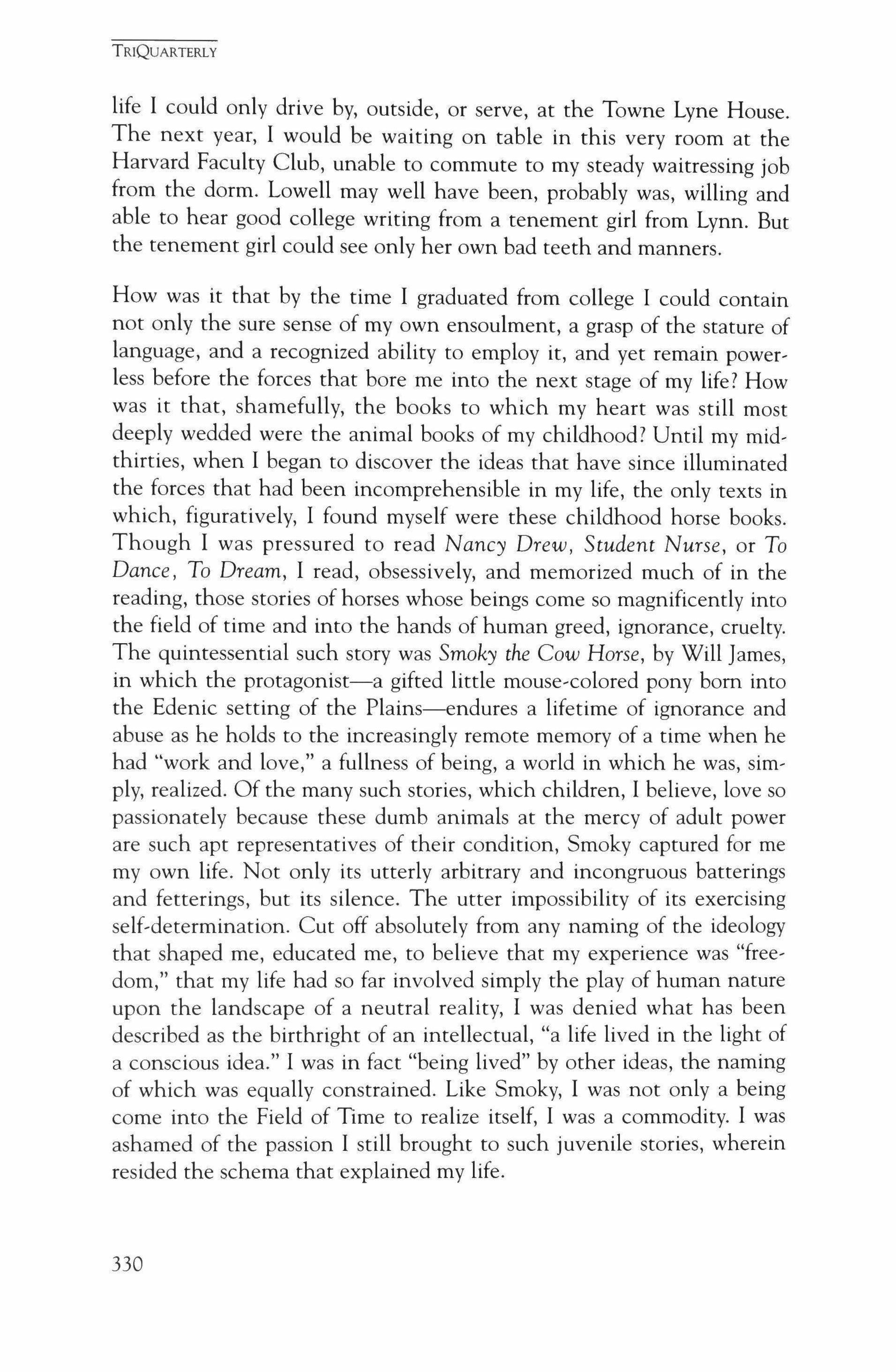
life I could only drive by, outside, or serve, at the Towne Lyne House. The next year, I would be waiting on table in this very room at the Harvard Faculty Club, unable to commute to my steady waitressing job from the dorm. Lowell may well have been, probably was, willing and able to hear good college writing from a tenement girl from Lynn. But the tenement girl could see only her own bad teeth and manners.
How was it that by the time I graduated from college I could contain not only the sure sense of my own ensoulment, a grasp of the stature of language, and a recognized ability to employ it, and yet remain powerless before the forces that bore me into the next stage of my life? How was it that, shamefully, the books to which my heart was still most deeply wedded were the animal books of my childhood? Until my midthirties, when I began to discover the ideas that have since illuminated the forces that had been incomprehensible in my life, the only texts in which, figuratively, I found myself were these childhood horse books. Though I was pressured to read Nancy Drew, Student Nurse, or To Dance, To Dream, I read, obsessively, and memorized much of in the reading, those stories of horses whose beings come so magnificently into the field of time and into the hands of human greed, ignorance, cruelty. The quintessential such story was Smoky the Cow Horse, by Will James, in which the protagonist-a gifted little mouse-colored pony born into the Edenic setting of the Plains-endures a lifetime of ignorance and abuse as he holds to the increasingly remote memory of a time when he had "work and love," a fullness of being, a world in which he was, simply, realized. Of the many such stories, which children, I believe, love so passionately because these dumb animals at the mercy of adult power are such apt representatives of their condition, Smoky captured for me my own life. Not only its utterly arbitrary and incongruous batterings and fetterings, but its silence. The utter impossibility of its exercising self-determination. Cut off absolutely from any naming of the ideology that shaped me, educated me, to believe that my experience was "freedom," that my life had so far involved simply the play of human nature upon the landscape of a neutral reality, I was denied what has been described as the birthright of an intellectual, "a life lived in the light of a conscious idea." I was in fact "being lived" by other ideas, the naming of which was equally constrained. Like Smoky, I was not only a being come into the Field of Time to realize itself, I was a commodity. I was ashamed of the passion I still brought to such juvenile stories, wherein resided the schema that explained my life.
TRIQUARTERLY
330
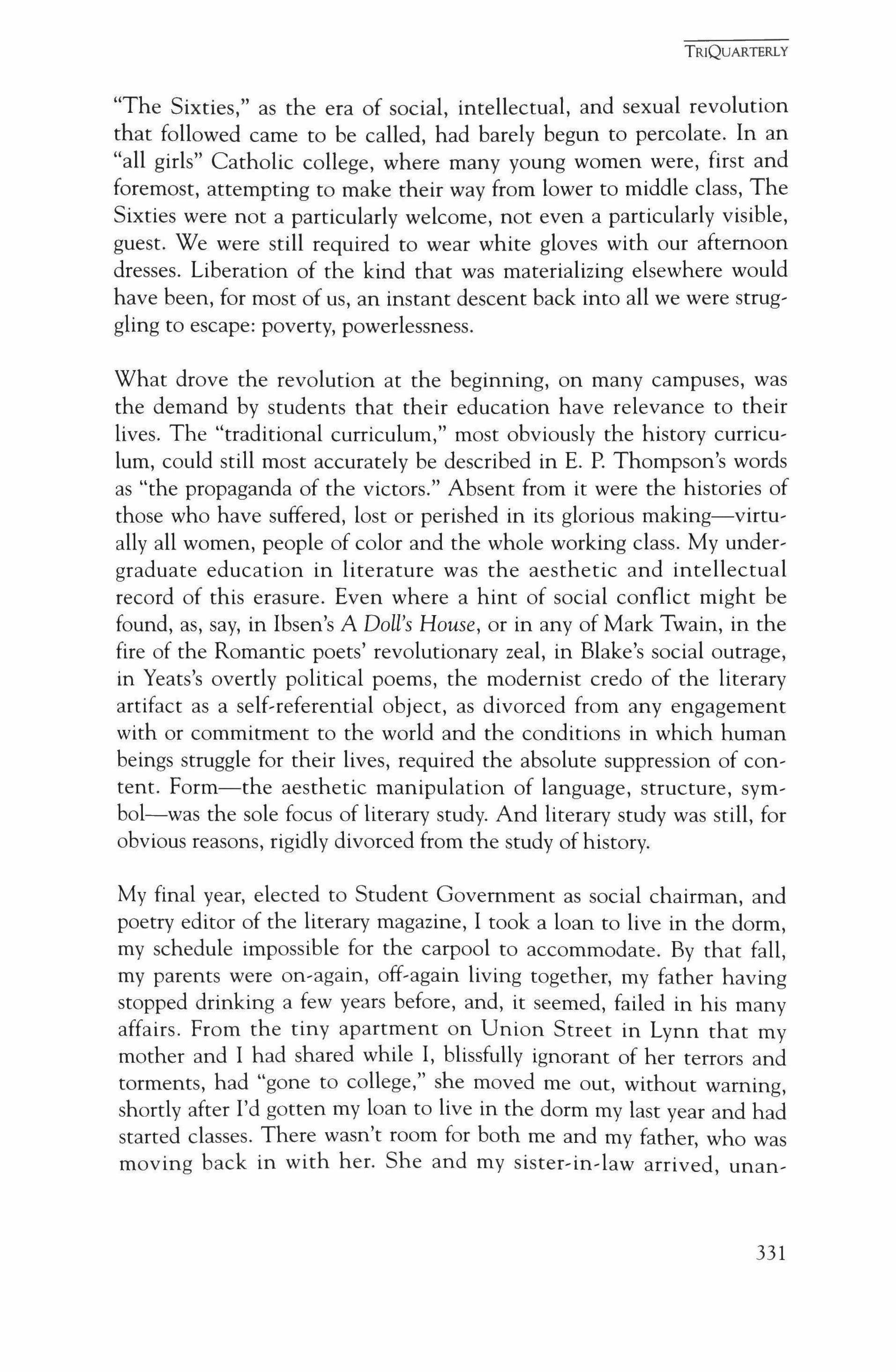
"The Sixties," as the era of social, intellectual, and sexual revolution that followed came to be called, had barely begun to percolate. In an "all girls" Catholic college, where many young women were, first and foremost, attempting to make their way from lower to middle class, The Sixties were not a particularly welcome, not even a particularly visible, guest. We were still required to wear white gloves with our afternoon dresses. Liberation of the kind that was materializing elsewhere would have been, for most of us, an instant descent back into all we were struggling to escape: poverty, powerlessness.
What drove the revolution at the beginning, on many campuses, was the demand by students that their education have relevance to their lives. The "traditional curriculum," most obviously the history curriculum, could still most accurately be described in E. P. Thompson's words as "the propaganda of the victors." Absent from it were the histories of those who have suffered, lost or perished in its glorious making-virtually all women, people of color and the whole working class. My undergraduate education in literature was the aesthetic and intellectual record of this erasure. Even where a hint of social conflict might be found, as, say, in Ibsen's A Doll's House, or in any of Mark Twain, in the fire of the Romantic poets' revolutionary zeal, in Blake's social outrage, in Yeats's overtly political poems, the modernist credo of the literary artifact as a self-referential object, as divorced from any engagement with or commitment to the world and the conditions in which human beings struggle for their lives, required the absolute suppression of content. Form-the aesthetic manipulation of language, structure, symbol-was the sole focus of literary study. And literary study was still, for obvious reasons, rigidly divorced from the study of history.
My final year, elected to Student Government as social chairman, and poetry editor of the literary magazine, I took a loan to live in the dorm, my schedule impossible for the carpool to accommodate. By that fall, my parents were on-again, off-again living together, my father having stopped drinking a few years before, and, it seemed, failed in his many affairs. From the tiny apartment on Union Street in Lynn that my mother and I had shared while I, blissfully ignorant of her terrors and torments, had "gone to college," she moved me out, without warning, shortly after I'd gotten my loan to live in the dorm my last year and had started classes. There wasn't room for both me and my father, who was moving back in with her. She and my sister-in-law arrived, unan-
TRIQUARTERLY
331
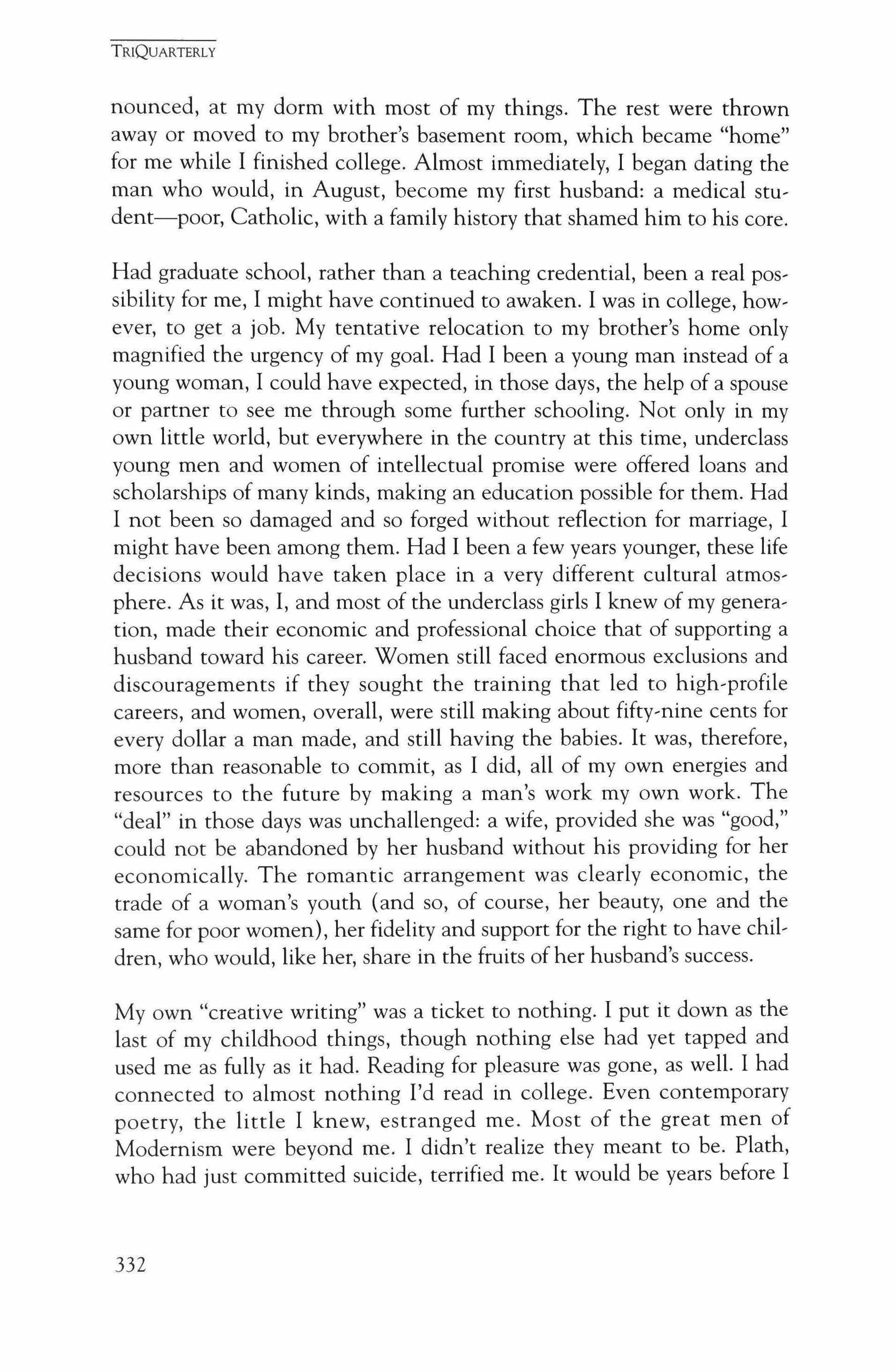
nounced, at my dorm with most of my things. The rest were thrown away or moved to my brother's basement room, which became "home" for me while I finished college. Almost immediately, I began dating the man who would, in August, become my first husband: a medical stu, dent-poor, Catholic, with a family history that shamed him to his core.
Had graduate school, rather than a teaching credential, been a real possibility for me, I might have continued to awaken. I was in college, however, to get a job. My tentative relocation to my brother's home only magnified the urgency of my goal. Had I been a young man instead of a young woman, I could have expected, in those days, the help of a spouse or partner to see me through some further schooling. Not only in my own little world, but everywhere in the country at this time, underclass young men and women of intellectual promise were offered loans and scholarships of many kinds, making an education possible for them. Had I not been so damaged and so forged without reflection for marriage, I might have been among them. Had I been a few years younger, these life decisions would have taken place in a very different cultural atmosphere. As it was, I, and most of the underclass girls I knew of my generation, made their economic and professional choice that of supporting a husband toward his career. Women still faced enormous exclusions and discouragements if they sought the training that led to high-profile careers, and women, overall, were still making about fifty-nine cents for every dollar a man made, and still having the babies. It was, therefore, more than reasonable to commit, as I did, all of my own energies and resources to the future by making a man's work my own work. The "deal" in those days was unchallenged: a wife, provided she was "good," could not be abandoned by her husband without his providing for her economically. The romantic arrangement was clearly economic, the trade of a woman's youth (and so, of course, her beauty, one and the same for poor women), her fidelity and support for the right to have children, who would, like her, share in the fruits of her husband's success.
My own "creative writing" was a ticket to nothing. I put it down as the last of my childhood things, though nothing else had yet tapped and used me as fully as it had. Reading for pleasure was gone, as well. I had connected to almost nothing I'd read in college. Even contemporary poetry, the little I knew, estranged me. Most of the great men of Modernism were beyond me. I didn't realize they meant to be. Plath, who had just committed suicide, terrified me. It would be years before I
TRIQUARTERLY
332
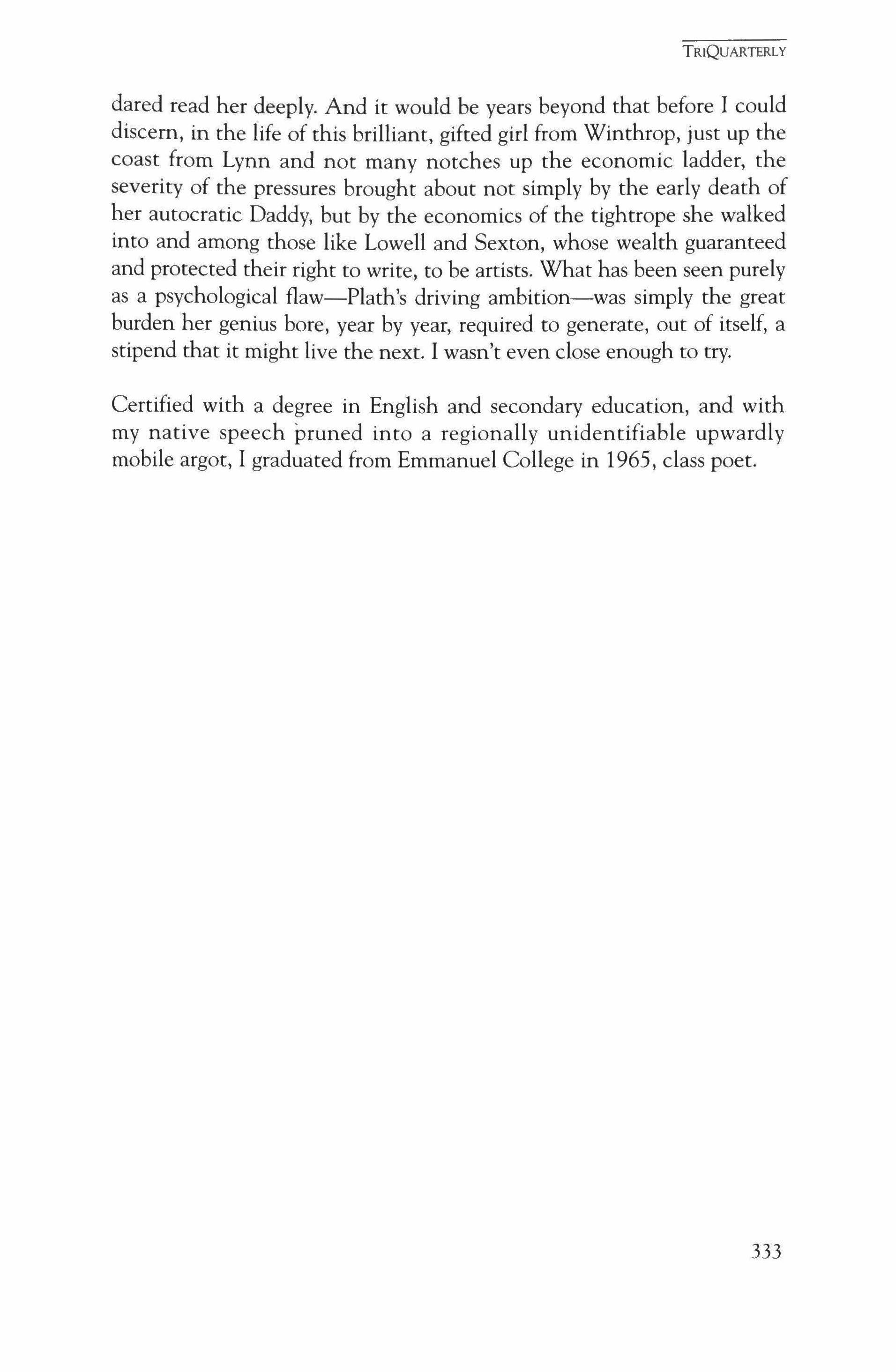
dared read her deeply. And it would be years beyond that before I could discern, in the life of this brilliant, gifted girl from Winthrop, just up the coast from Lynn and not many notches up the economic ladder, the severity of the pressures brought about not simply by the early death of her autocratic Daddy, but by the economics of the tightrope she walked into and among those like Lowell and Sexton, whose wealth guaranteed and protected their right to write, to be artists. What has been seen purely as a psychological flaw-Plath's driving ambition-was simply the great burden her genius bore, year by year, required to generate, out of itself, a stipend that it might live the next. I wasn't even close enough to try.
Certified with a degree in English and secondary education, and with my native speech pruned into a regionally unidentifiable upwardly mobile argot, I graduated from Emmanuel College in 1965, class poet.
TRIQUARTERLY
333
Contributors
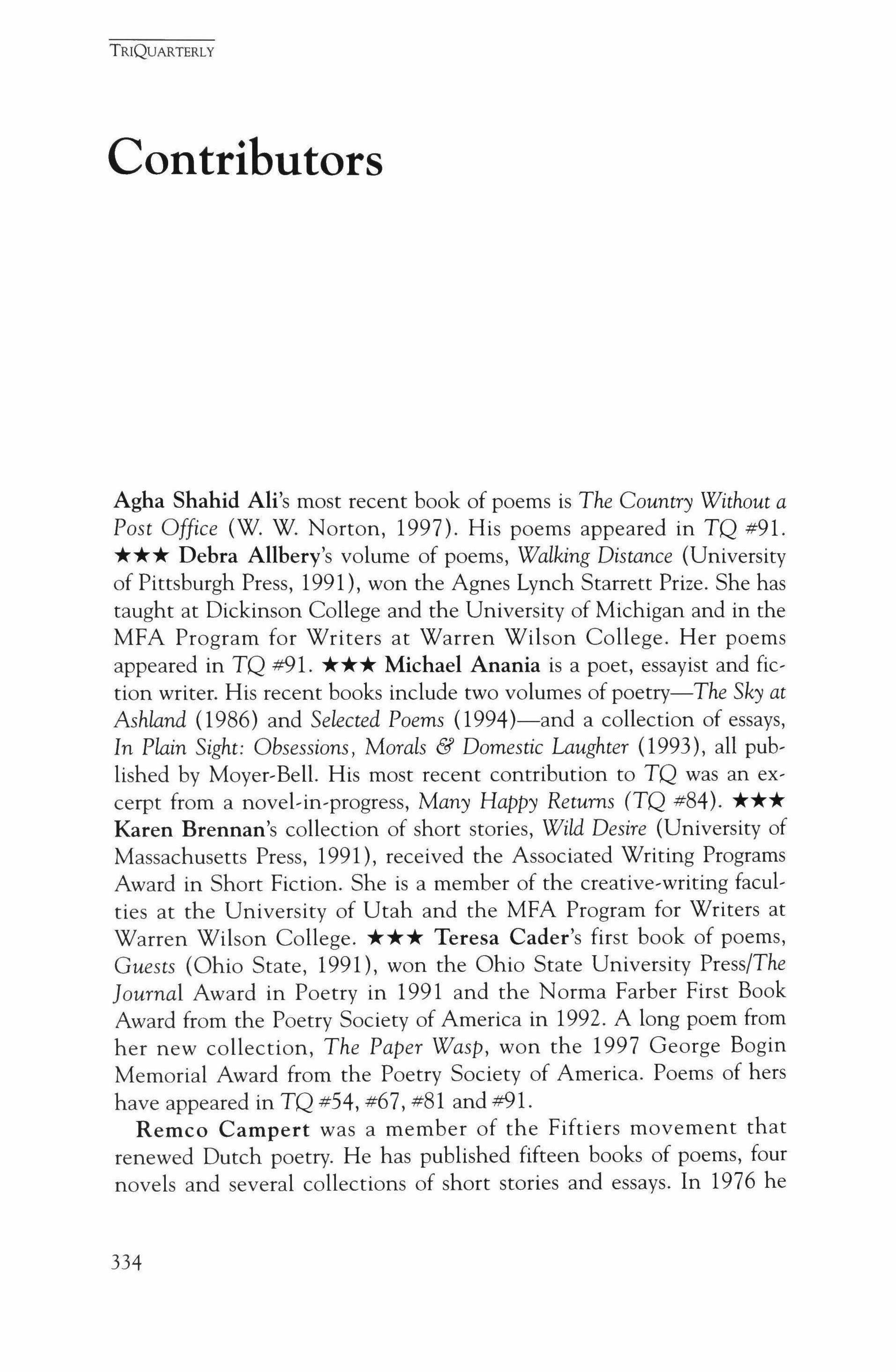
Agha Shahid Ali's most recent book of poems is The Country Without a Post Office (W. W. Norton, 1997). His poems appeared in TQ #91. *** Debra Allbery's volume of poems, Walking Distance (University of Pittsburgh Press, 1991), won the Agnes Lynch Starrett Prize. She has taught at Dickinson College and the University of Michigan and in the MFA Program for Writers at Warren Wilson College. Her poems appeared in TQ #91. *** Michael Anania is a poet, essayist and fiction writer. His recent books include two volumes of poetry-The Sky at Ashland (1986) and Selected Poems (1994)-and a collection of essays, In Plain Sight: Obsessions, Morals & Domestic Laughter (1993), all published by Moyer-Bell. His most recent contribution to TQ was an excerpt from a novel-in-progress, Many Happy Returns (TQ #84). *** Karen Brennan's collection of short stories, Wild Desire (University of Massachusetts Press, 1991), received the Associated Writing Programs Award in Short Fiction. She is a member of the creative-writing faculties at the University of Utah and the MFA Program for Writers at Warren Wilson College. *** Teresa Cader's first book of poems, Guests (Ohio State, 1991), won the Ohio State University Press/The Journal Award in Poetry in 1991 and the Norma Farber First Book Award from the Poetry Society of America in 1992. A long poem from her new collection, The Paper Wasp, won the 1997 George Bogin Memorial Award from the Poetry Society of America. Poems of hers have appeared in TQ #54, #67, #81 and #91. Remco Campert was a member of the Fiftiers movement that renewed Dutch poetry. He has published fifteen books of poems, four novels and several collections of short stories and essays. In 1976 he
TRIQUARTERLY
334
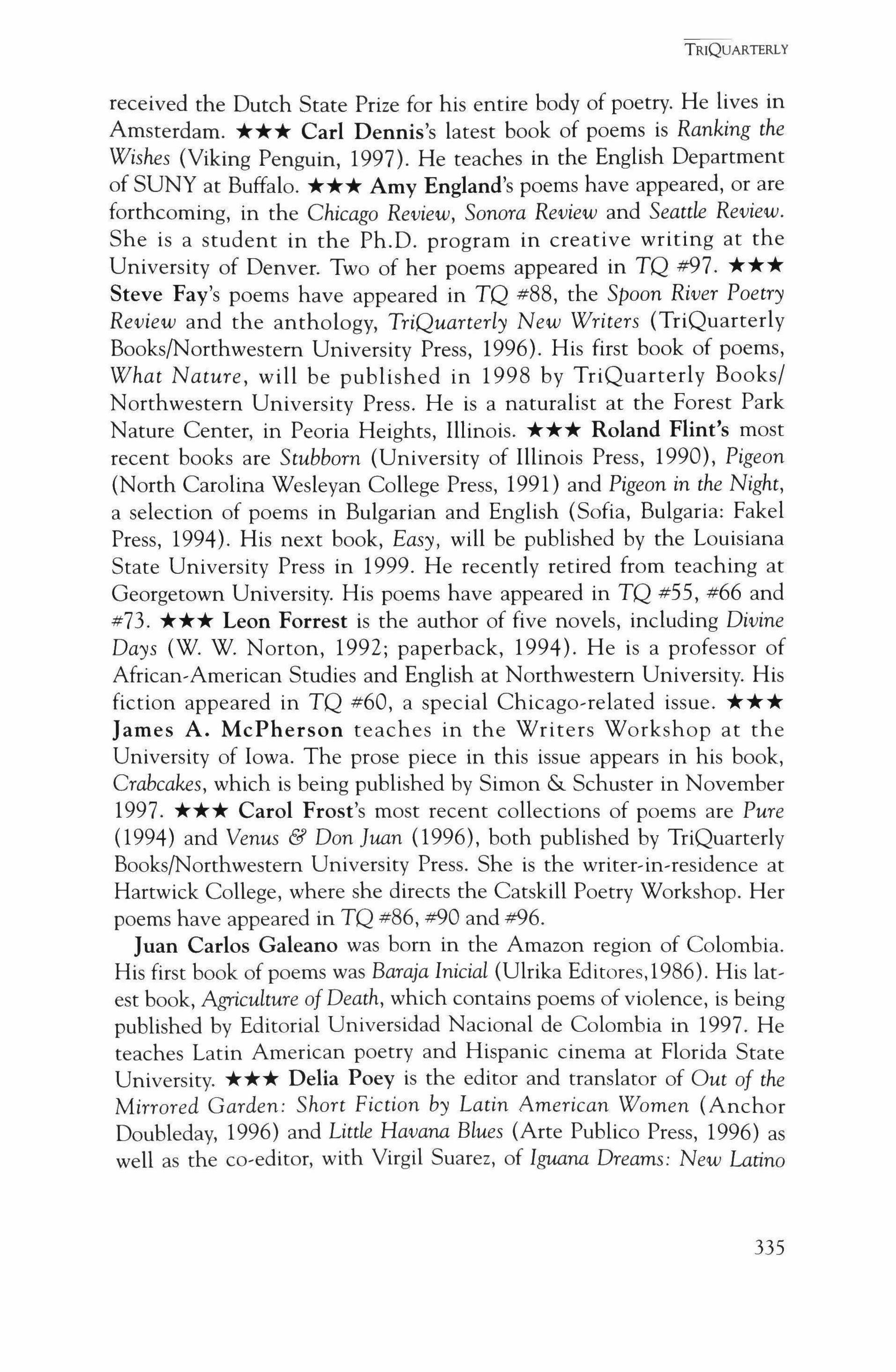
received the Dutch State Prize for his entire body of poetry. He lives in Amsterdam. *** Carl Dennis's latest book of poems is Ranking the Wishes (Viking Penguin, 1997). He teaches in the English Department of SUNY at Buffalo. *** Amy England's poems have appeared, or are forthcoming, in the Chicago Review, Sonora Review and Seattle Review. She is a student in the Ph.D. program in creative writing at the University of Denver. Two of her poems appeared in TQ #97. *** Steve Fay's poems have appeared in TQ #88, the Spoon River Poetry Review and the anthology, TriQuarterly New Writers (TriQuarterly Books/Northwestem University Press, 1996). His first book of poems, What Nature, will be published in 1998 by TriQuarterly Books/ Northwestern University Press. He is a naturalist at the Forest Park Nature Center, in Peoria Heights, Illinois. *** Roland Flint's most recent books are Stubborn (University of Illinois Press, 1990), Pigeon (North Carolina Wesleyan College Press, 1991) and Pigeon in the Night, a selection of poems in Bulgarian and English (Sofia, Bulgaria: Fakel Press, 1994). His next book, Easy, will be published by the Louisiana State University Press in 1999. He recently retired from teaching at Georgetown University. His poems have appeared in TQ #55, #66 and #73. *** Leon Forrest is the author of five novels, including Divine Days (W. W. Norton, 1992; paperback, 1994). He is a professor of African-American Studies and English at Northwestern University. His fiction appeared in TQ #60, a special Chicago-related issue. *** James A. McPherson teaches in the Writers Workshop at the University of Iowa. The prose piece in this issue appears in his book, Crabcakes, which is being published by Simon & Schuster in November 1997. *** Carol Frost's most recent collections of poems are Pure (1994) and Venus & Don Juan (1996), both published by TriQuarterly Books/Northwestem University Press. She is the writer-in-residence at Hartwick College, where she directs the Catskill Poetry Workshop. Her poems have appeared in TQ #86, #90 and #96.
Juan Carlos Galeano was born in the Amazon region of Colombia. His first book of poems was Baraja Inicial (Ulrika Editores,1986). His latest book, Agriculture ofDeath, which contains poems of violence, is being published by Editorial Universidad Nacional de Colombia in 1997. He teaches Latin American poetry and Hispanic cinema at Florida State University. *** Delia Poey is the editor and translator of Out of the Mirrored Garden: Short Fiction by Latin American Women (Anchor Doubleday, 1996) and Little Havana Blues (Arte Publico Press, 1996) as well as the co-editor, with Virgil Suarez, of Iguana Dreams: New Latino
TRIQUARTERLY
335
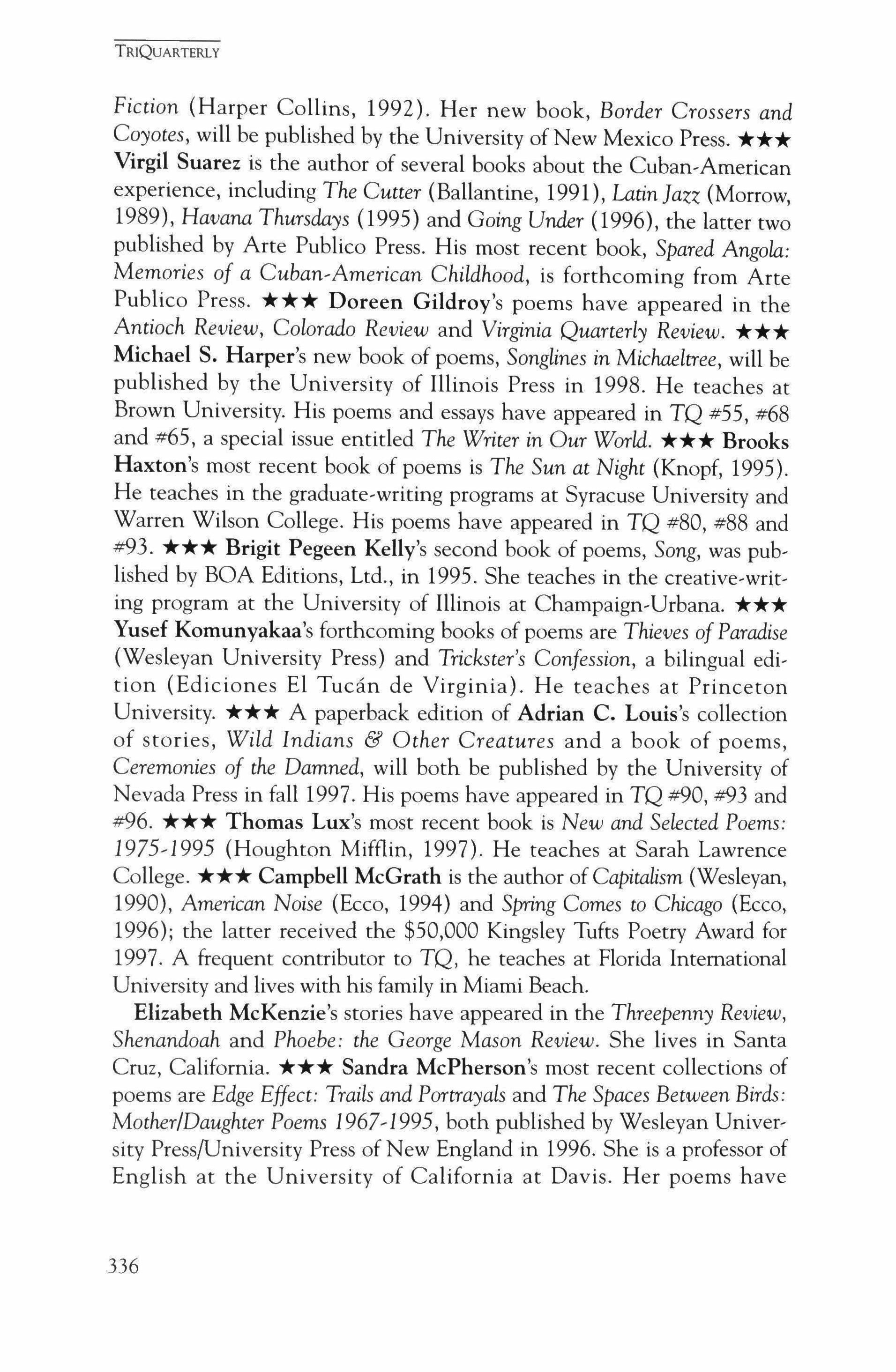
Fiction (Harper Collins, 1992). Her new book, Border Crossers and Coyotes, will be published by the University of New Mexico Press. *** Virgil Suarez is the author of several books about the Cuban-American experience, including The Cutter (Ballantine, 1991), Latin}azz (Morrow, 1989), Havana Thursdays (1995) and Going Under (1996), the latter two published by Arte Publico Press. His most recent book, Spared Angola: Memories of a Cuban,American Childhood, is forthcoming from Arte Publico Press. *** Doreen Gildroy's poems have appeared in the Antioch Review, Colorado Review and Virginia Quarterly Review. *** Michael S. Harper's new book of poems, Songlines in Michaeltree, will be published by the University of Illinois Press in 1998. He teaches at Brown University. His poems and essays have appeared in TQ #55, #68 and #65, a special issue entitled The Writer in Our World. *** Brooks Haxton's most recent book of poems is The Sun at Night (Knopf, 1995). He teaches in the graduate-writing programs at Syracuse University and Warren Wilson College. His poems have appeared in TQ #80, #88 and #93. *** Brigit Pegeen Kelly's second book of poems, Song, was pub, lished by BOA Editions, Ltd., in 1995. She teaches in the creative-writing program at the University of Illinois at Champaign-Urbana. *** Yusef Komunyakaa's forthcoming books of poems are Thieves of Paradise (Wesleyan University Press) and Trickster's Confession, a bilingual edition (Ediciones El Tucan de Virginia). He teaches at Princeton University. *** A paperback edition of Adrian C. Louis's collection of stories, Wild Indians & Other Creatures and a book of poems, Ceremonies of the Damned, will both be published by the University of Nevada Press in fall 1997. His poems have appeared in TQ #90, #93 and #96. *** Thomas Lux's most recent book is New and Selected Poems: 1975,1995 (Houghton Mifflin, 1997). He teaches at Sarah Lawrence College. *** Campbell McGrath is the author of Capitalism (Wesleyan, 1990), American Noise (Ecco, 1994) and Spring Comes to Chicago (Ecco, 1996); the latter received the $50,000 Kingsley Tufts Poetry Award for 1997. A frequent contributor to TQ, he teaches at Florida International University and lives with his family in Miami Beach. Elizabeth McKenzie's stories have appeared in the Threepenny Review, Shenandoah and Phoebe: the George Mason Review. She lives in Santa Cruz, California. *** Sandra McPherson's most recent collections of poems are Edge Effect: Trails and Portrayals and The Spaces Between Birds: Mother/Daughter Poems 1967-1995, both published by Wesleyan University Press/University Press of New England in 1996. She is a professor of English at the University of California at Davis. Her poems have
TRIQUARTERLY
336
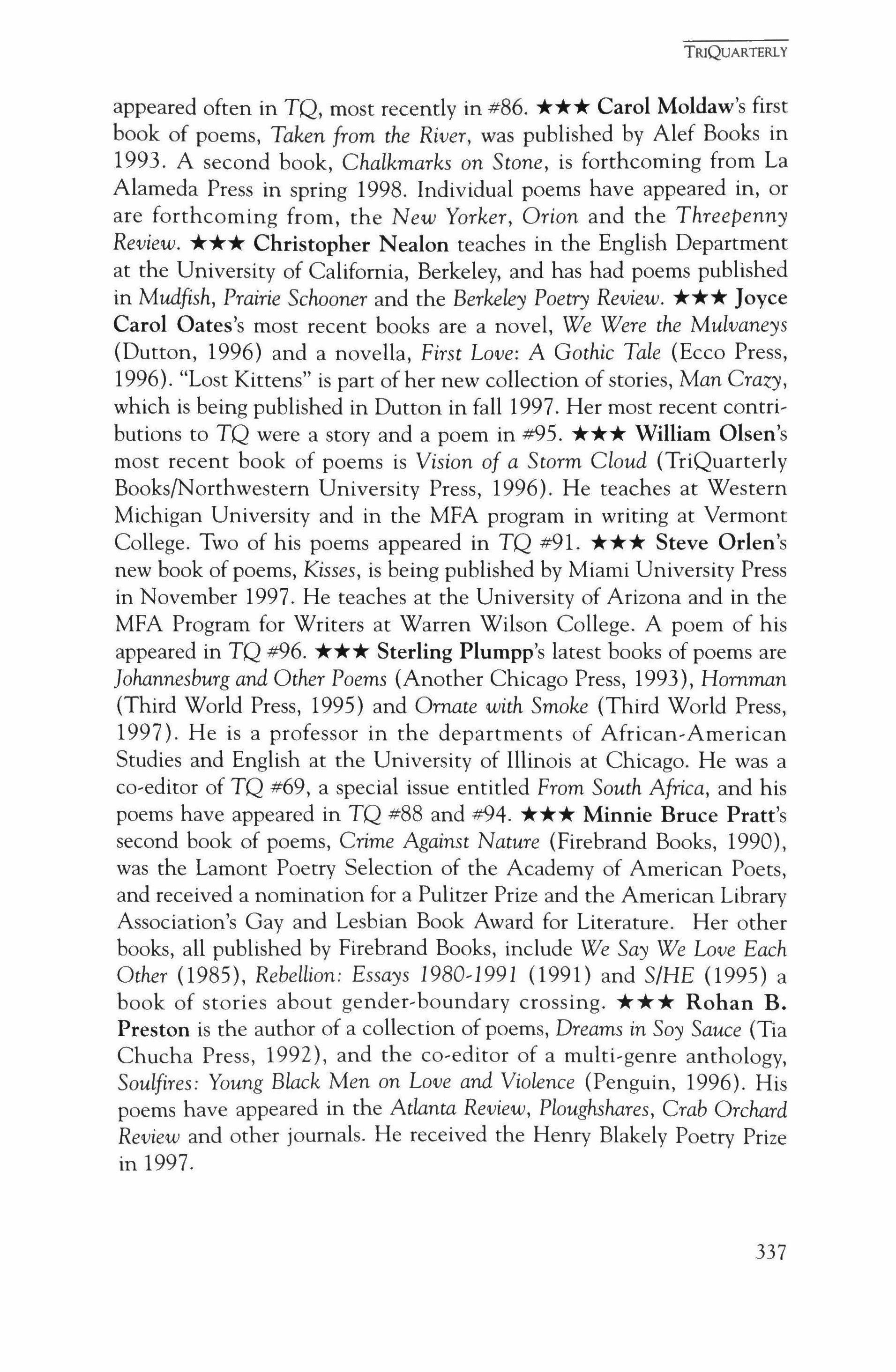
appeared often in TQ, most recently in #86. *** Carol Moldaw's first book of poems, Taken from the River, was published by Alef Books in 1993. A second book, Chalkmarks on Stone, is forthcoming from La Alameda Press in spring 1998. Individual poems have appeared in, or are forthcoming from, the New Yorker, Orion and the Threepenny Review. *** Christopher Nealon teaches in the English Department at the University of California, Berkeley, and has had poems published in Mudfish, Prairie Schooner and the Berkeley Poetry Review. *** Joyce Carol Oates's most recent books are a novel, We Were the Mulvaneys (Dutton, 1996) and a novella, First Love: A Gothic Tale (Ecco Press, 1996). "Lost Kittens" is part of her new collection of stories, Man Crazy, which is being published in Dutton in fall 1997. Her most recent contributions to TQ were a story and a poem in #95. *** William Olsen's most recent book of poems is Vision of a Storm Cloud (TriQuarterly Books/Northwestern University Press, 1996). He teaches at Western Michigan University and in the MFA program in writing at Vermont College. Two of his poems appeared in TQ #91. *** Steve Orlen's new book of poems, Kisses, is being published by Miami University Press in November 1997. He teaches at the University of Arizona and in the MFA Program for Writers at Warren Wilson College. A poem of his appeared in TQ #96. *** Sterling Plumpp's latest books of poems are Johannesburg and Other Poems (Another Chicago Press, 1993), Homman (Third World Press, 1995) and Ornate with Smoke (Third World Press, 1997). He is a professor in the departments of African-American Studies and English at the University of Illinois at Chicago. He was a co-editor of TQ #69, a special issue entitled From South Africa, and his poems have appeared in TQ #88 and #94. *** Minnie Bruce Pratt's second book of poems, Crime Against Nature (Firebrand Books, 1990), was the Lamont Poetry Selection of the Academy of American Poets, and received a nomination for a Pulitzer Prize and the American Library Association's Gay and Lesbian Book Award for Literature. Her other books, all published by Firebrand Books, include We Say We Love Each Other (1985), Rebellion: Essays 1980�1991 (1991) and S/HE (1995) a book of stories about gender-boundary crossing. *** Rohan B. Preston is the author of a collection of poems, Dreams in Soy Sauce (Tia Chucha Press, 1992), and the co-editor of a multi-genre anthology, Soulfires: Young Black Men on Love and Violence (Penguin, 1996). His poems have appeared in the Atlanta Review, Ploughshares, Crab Orchard Review and other journals. He received the Henry Blakely Poetry Prize in 1997. 337
TRIQUARTERLY
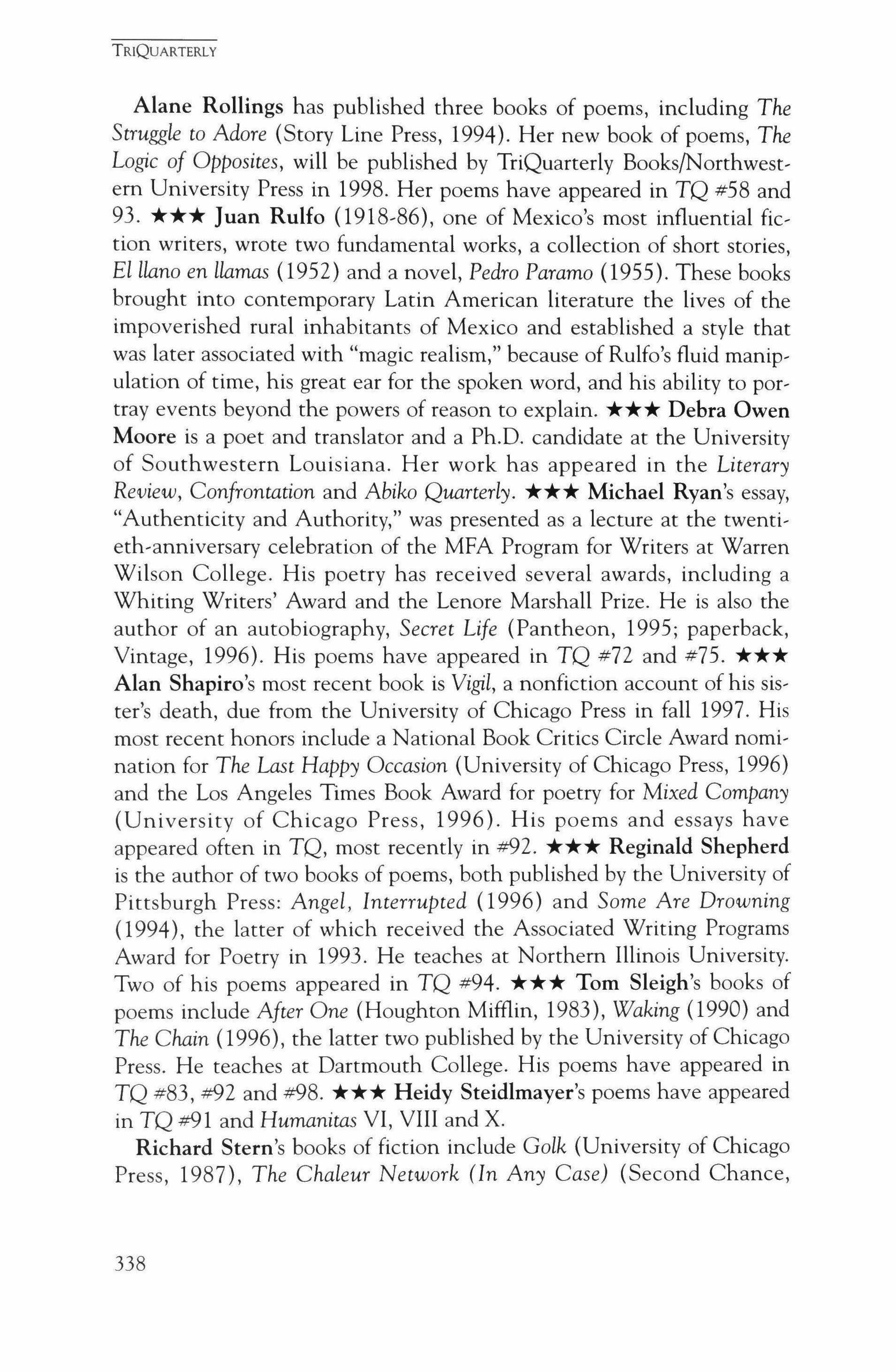
Alane Rollings has published three books of poems, including The Struggle to Adore (Story Line Press, 1994). Her new book of poems, The Logic of Opposites, will be published by TriQuarterly Books/Northwestem University Press in 1998. Her poems have appeared in TQ #58 and 93. *** Juan Rulfo (1918-86), one of Mexico's most influential fiction writers, wrote two fundamental works, a collection of short stories, Elllano en llamas (1952) and a novel, Pedro Paramo (1955). These books brought into contemporary Latin American literature the lives of the impoverished rural inhabitants of Mexico and established a style that was later associated with "magic realism," because of Rulfo's fluid manipulation of time, his great ear for the spoken word, and his ability to portray events beyond the powers of reason to explain. *** Debra Owen Moore is a poet and translator and a Ph.D. candidate at the University of Southwestern Louisiana. Her work has appeared in the Literary Review, Confrontation and Abiko Quarterly. *** Michael Ryan's essay, "Authenticity and Authority," was presented as a lecture at the twentieth-anniversary celebration of the MFA Program for Writers at Warren Wilson College. His poetry has received several awards, including a Whiting Writers' Award and the Lenore Marshall Prize. He is also the author of an autobiography, Secret Life (Pantheon, 1995; paperback, Vintage, 1996). His poems have appeared in TQ #72 and #75. *** Alan Shapiro's most recent book is Vigil, a nonfiction account of his sister's death, due from the University of Chicago Press in fall 1997. His most recent honors include a National Book Critics Circle Award nomination for The Last Happy Occasion (University of Chicago Press, 1996) and the Los Angeles Times Book Award for poetry for Mixed Company (University of Chicago Press, 1996). His poems and essays have appeared often in TQ, most recently in #92. *** Reginald Shepherd is the author of two books of poems, both published by the University of Pittsburgh Press: Angel, Interrupted (1996) and Some Are Drowning ( 1994), the latter of which received the Associated Writing Programs Award for Poetry in 1993. He teaches at Northern Illinois University. Two of his poems appeared in TQ #94. *** Tom Sleigh's books of poems include After One (Houghton Mifflin, 1983), Waking (1990) and The Chain (1996), the latter two published by the University of Chicago Press. He teaches at Dartmouth College. His poems have appeared in TQ #83, #92 and #98. *** Heidy Steidlmayer's poems have appeared in TQ #91 and Humanitas VI, VIII and X.
Richard Stern's books of fiction include Golk (University of Chicago Press, 1987), The Chaleur Network (In Any Case) (Second Chance,
TRIQUARTERLY
338
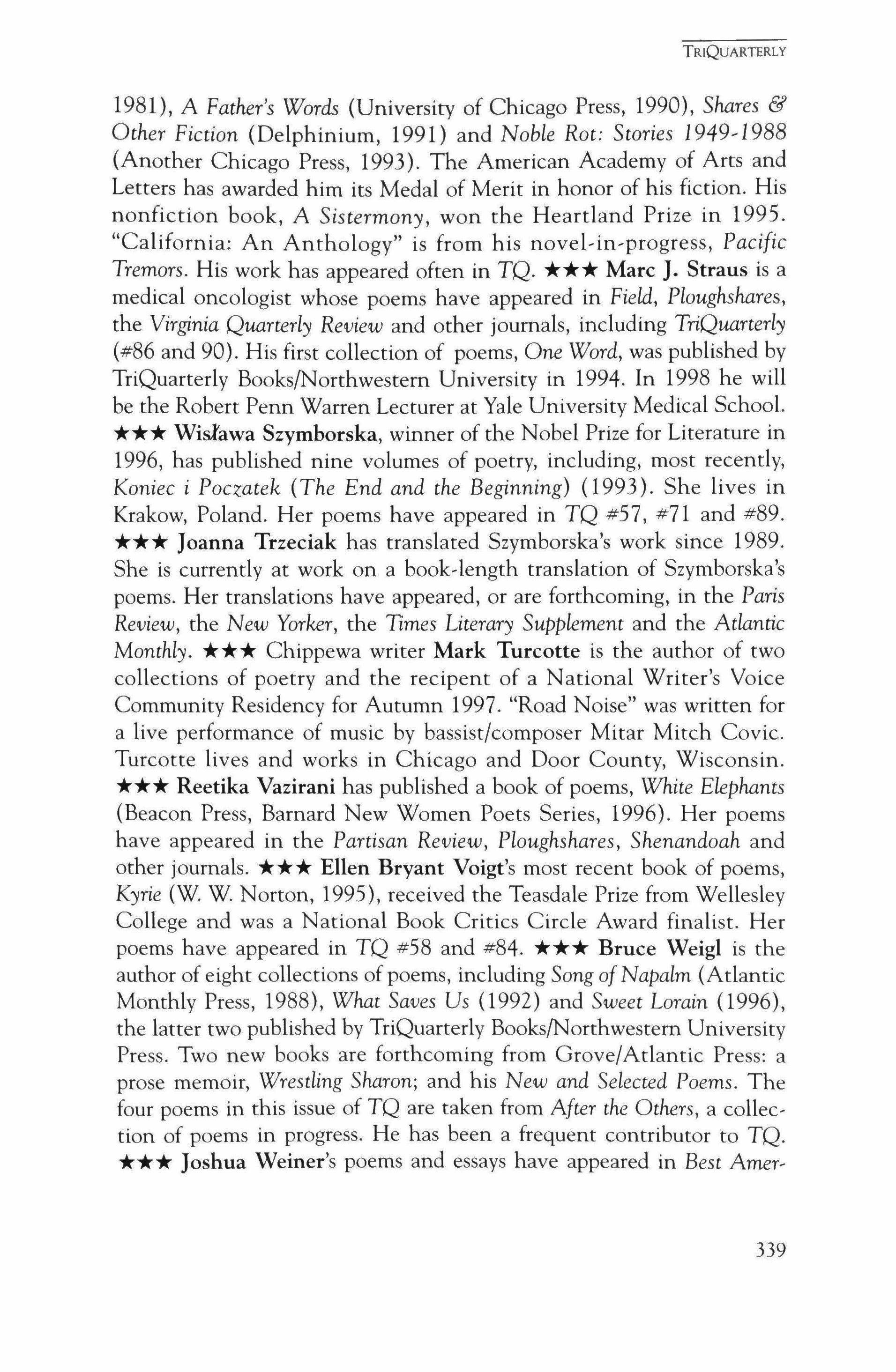
1981), A Father's Words (University of Chicago Press, 1990), Shares & Other Fiction (Delphinium, 1991) and Noble Rot: Stories 1949� 1988 (Another Chicago Press, 1993). The American Academy of Arts and Letters has awarded him its Medal of Merit in honor of his fiction. His nonfiction book, A Sistermony, won the Heartland Prize in 1995. "California: An Anthology" is from his novel-in-progress, Pacific Tremors. His work has appeared often in TQ. *** Marc J. Straus is a medical oncologist whose poems have appeared in Field, Ploughshares, the Virginia Quarterly Review and other journals, including TriQuarterly (#86 and 90). His first collection of poems, One Word, was published by TriQuarterly Books/Northwestern University in 1994. In 1998 he will be the Robert Penn Warren Lecturer at Yale University Medical School.
*** Wislawa Szymborska, winner of the Nobel Prize for Literature in 1996, has published nine volumes of poetry, including, most recently, Koniec i Poczatek (The End and the Beginning) (1993). She lives in Krakow, Poland. Her poems have appeared in TQ #57, #71 and #89.
*** Joanna Trzeciak has translated Szymborska's work since 1989. She is currently at work on a book-length translation of Szymborska's poems. Her translations have appeared, or are forthcoming, in the Paris Review, the New Yorker, the Times Literary Supplement and the Atlantic Monthly. *** Chippewa writer Mark Turcotte is the author of two collections of poetry and the recipent of a National Writer's Voice Community Residency for Autumn 1997. "Road Noise" was written for a live performance of music by bassist/composer Mitar Mitch Covic. Turcotte lives and works in Chicago and Door County, Wisconsin.
*** Reetika Vazirani has published a book of poems, White Elephants (Beacon Press, Barnard New Women Poets Series, 1996). Her poems have appeared in the Partisan Review, Ploughshares, Shenandoah and other journals. *** Ellen Bryant Voigt's most recent book of poems, Kyrie (W. W. Norton, 1995), received the Teasdale Prize from Wellesley College and was a National Book Critics Circle Award finalist. Her poems have appeared in TQ #58 and #84. *** Bruce Weigl is the author of eight collections of poems, including Song ofNapalm (Atlantic Monthly Press, 1988), What Saves Us (1992) and Sweet Lorain (1996), the latter two published by TriQuarterly Books/Northwestern University Press. Two new books are forthcoming from Grove/Atlantic Press: a prose memoir, Wrestling Sharon; and his New and Selected Poems. The four poems in this issue of TQ are taken from After the Others, a collection of poems in progress. He has been a frequent contributor to TQ.
*** Joshua Weiner's poems and essays have appeared in Best Arner-
TRIQUARTERLY
339
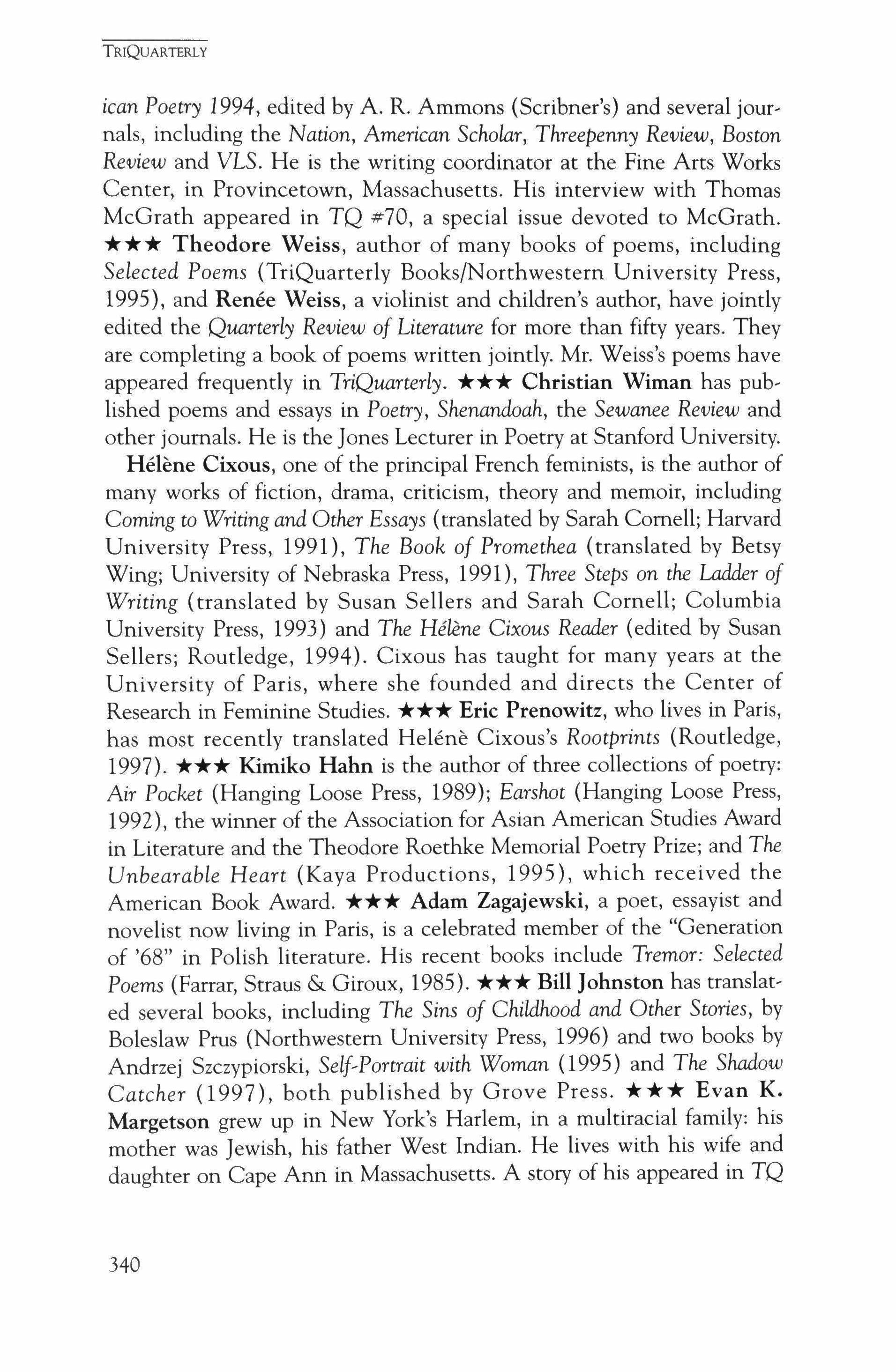
ican Poetry 1994, edited by A. R. Ammons (Scribner's) and several journals, including the Nation, American Scholar, Threepenny Review, Boston Review and VLS. He is the writing coordinator at the Fine Arts Works Center, in Provincetown, Massachusetts. His interview with Thomas McGrath appeared in TQ #70, a special issue devoted to McGrath. *** Theodore Weiss, author of many books of poems, including Selected Poems (TriQuarterly Books/Northwestern University Press, 1995), and Renee Weiss, a violinist and children's author, have jointly edited the Quarterly Review of Literature for more than fifty years. They are completing a book of poems written jointly. Mr. Weiss's poems have appeared frequently in TriQuarterly. *** Christian Wiman has published poems and essays in Poetry, Shenandoah, the Sewanee Review and other journals. He is the Jones Lecturer in Poetry at Stanford University. Helene Cixous, one of the principal French feminists, is the author of many works of fiction, drama, criticism, theory and memoir, including Coming to Writing and Other Essays (translated by Sarah Cornell; Harvard University Press, 1991), The Book of Promethea (translated by Betsy Wing; University of Nebraska Press, 1991), Three Steps on the Ladder of Writing (translated by Susan Sellers and Sarah Cornell; Columbia University Press, 1993) and The Helene Cixous Reader (edited by Susan Sellers; Routledge, 1994). Cixous has taught for many years at the University of Paris, where she founded and directs the Center of Research in Feminine Studies. *** Eric Prenowitz, who lives in Paris, has most recently translated Helene Cixous's Rootprints (Routledge, 1997). *** Kimiko Hahn is the author of three collections of poetry: Air Pocket (Hanging Loose Press, 1989); Earshot (Hanging Loose Press, 1992), the winner of the Association for Asian American Studies Award in Literature and the Theodore Roethke Memorial Poetry Prize; and The Unbearable Heart (Kaya Productions, 1995), which received the American Book Award. *** Adam Zagajewski, a poet, essayist and novelist now living in Paris, is a celebrated member of the "Generation of '68" in Polish literature. His recent books include Tremor: Selected Poems (Farrar, Straus & Giroux, 1985). *** Bill Johnston has translated several books, including The Sins of Childhood and Other Stories, by Boleslaw Prus (Northwestern University Press, 1996) and two books by Andrzej Szczypiorski, SelfPortrait with Woman (1995) and The Shadow Catcher (1997), both published by Grove Press. *** Evan K. Margetson grew up in New York's Harlem, in a multiracial family: his mother was Jewish, his father West Indian. He lives with his wife and daughter on Cape Ann in Massachusetts. A story of his appeared in TQ
TRIQUARTERLY
340
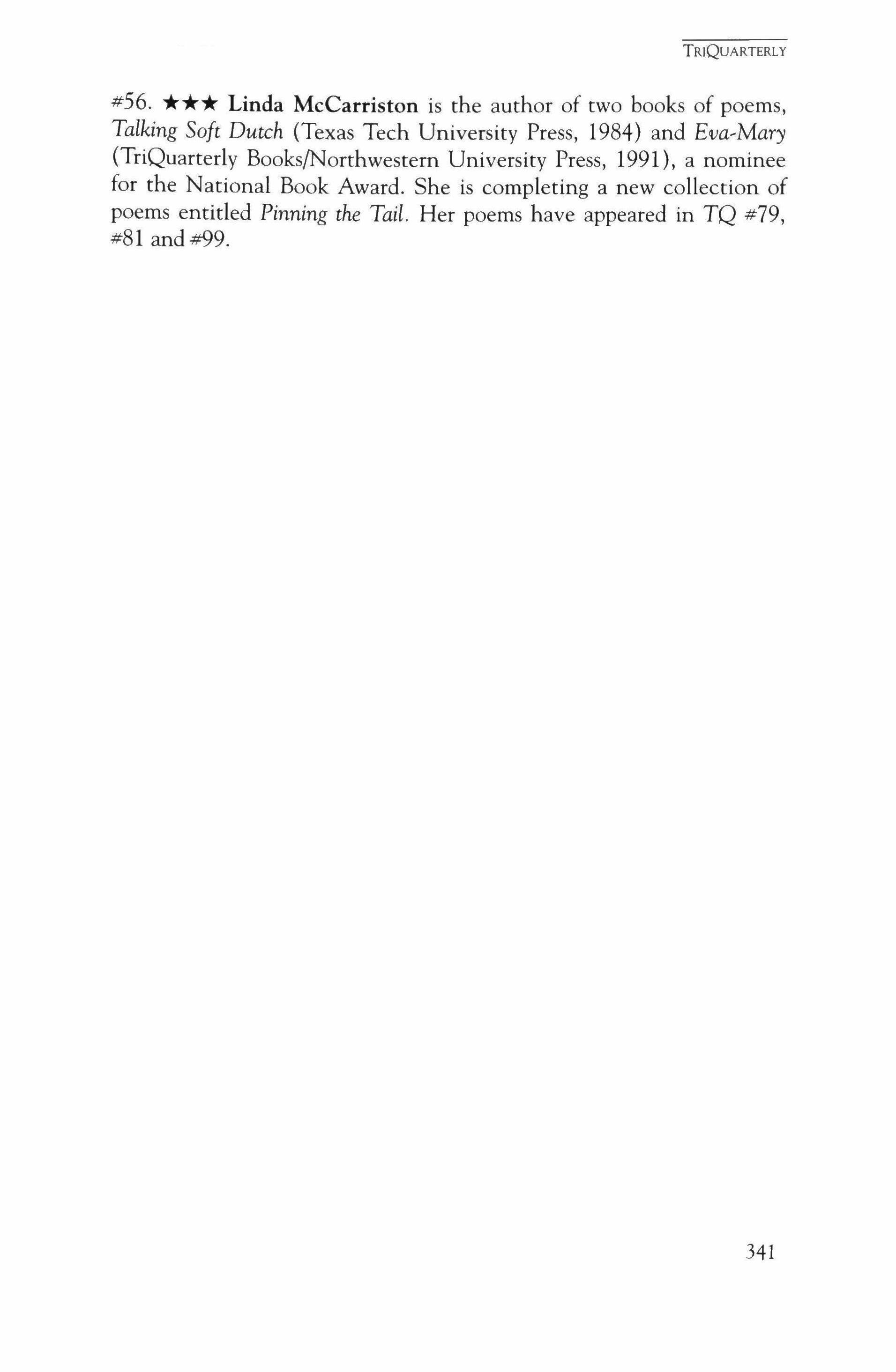
#56. *** Linda McCarriston is the author of two books of poems, Talking Soft Dutch (Texas Tech University Press, 1984) and Eva�Mary (TriQuarterly Books/Northwestem University Press, 1991), a nominee for the National Book Award. She is completing a new collection of poems entitled Pinning the Tail. Her poems have appeared in TQ #79, #81 and #99.
TRIQUARTERLY
341
Dalkey Archive Press §]
WM. Spackman
The Complete Fiction
$16.95 paper Roger Boylan
Killoyle
$13.95 paper
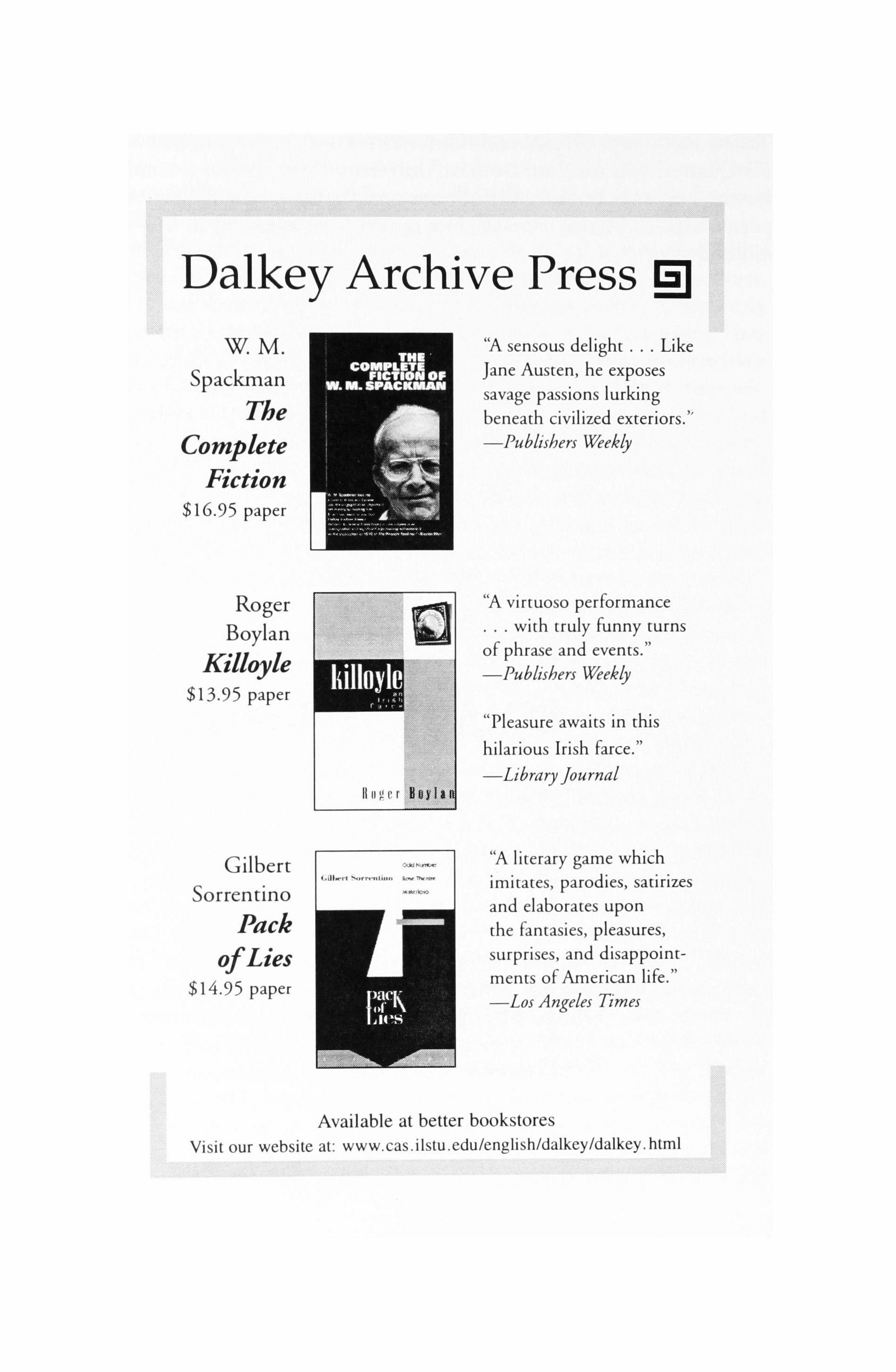
Gilbert Sorrentino Pack ofLies
$14.95 paper
"A sensous delight Like Jane Austen, he exposes savage passions lurking beneath civilized exteriors,"
-PubLishers Weekly
"A virtuoso performance with truly funny turns of phrase and events."
-PubLishers Weekly
"Pleasure awaits in this hilarious Irish farce."
-Library[ournal
"A literary game which imitates, parodies, satirizes and elaborates upon the fantasies, pleasures, surprises, and disappointments of American life."
-Los Angeles Times
Available at better bookstores
Visit our website at: www.cas.ilstu.edu/english/dalkey/dalkey.html
FEAR OF BLUE SKIES
Richard Burgin
Fear ofBlue Skies is ,...
Richard Burgin's third and most ambitious story collection to date, exploring the form and narrative structure of the story as well as the psyches of his protagonists and their sometimes searing, sometimes comic visions of the world. It confirms what the Boston Globe said of Private Fame: "Burgin's tales capture the strangeness of a world that is simultaneously frightening and reassuring and in the contemporary American short story nothing quite resembles his singular voice."
$19.95 hardcover
Praise for Jean McGarry: "McGarry keenly depicts both working-class and privileged cultures with deft, comic, and devastatingly precise portraits The narrative seems rich and perceptive."
-New York Times
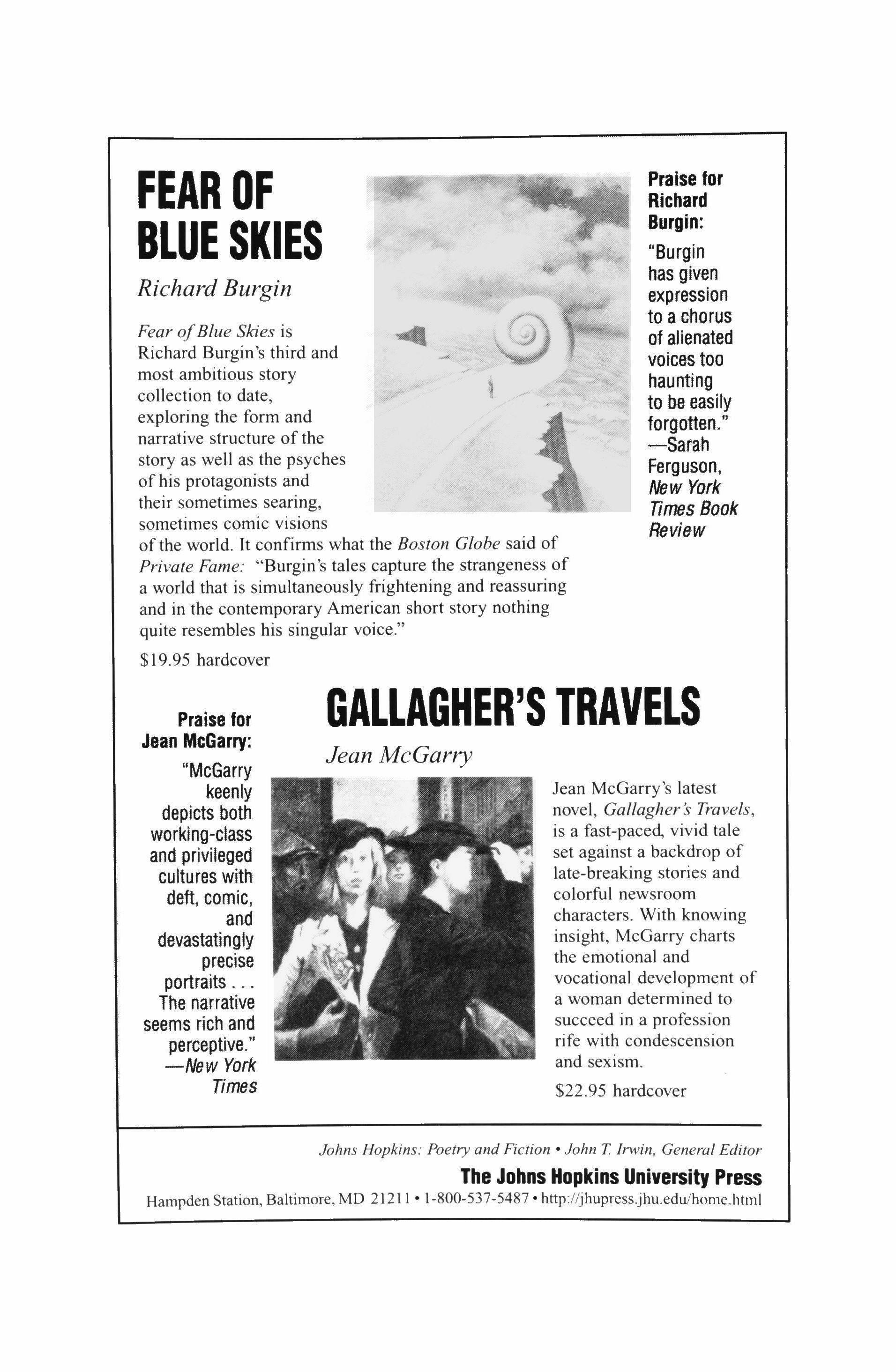
Praise for Richard Burgin: "Burgin has given expression to a chorus of alienated voices too haunting to be easily forgotten."
-Sarah Ferguson, New York Times Book Review
GALLAGHER'S TRAVELS
Jean McGarry's latest novel, Gallagher s Travels, is a fast-paced, vivid tale set against a backdrop of late-breaking stories and colorful newsroom characters. With knowing insight, McGarry charts the emotional and vocational development of a woman determined to succeed in a profession rife with condescension and sexism.
$22.95 hardcover
Johns Hopkins: Poetry and Fiction » John T. Irwin, General Editor The Johns Hopkins University Press Hampden Station, Baltimore, MD 21211 1-800-537-5487· http://jhupress.jhu.edulhome.html
Jean McGarry
CONTEMPORARY LITERATURE
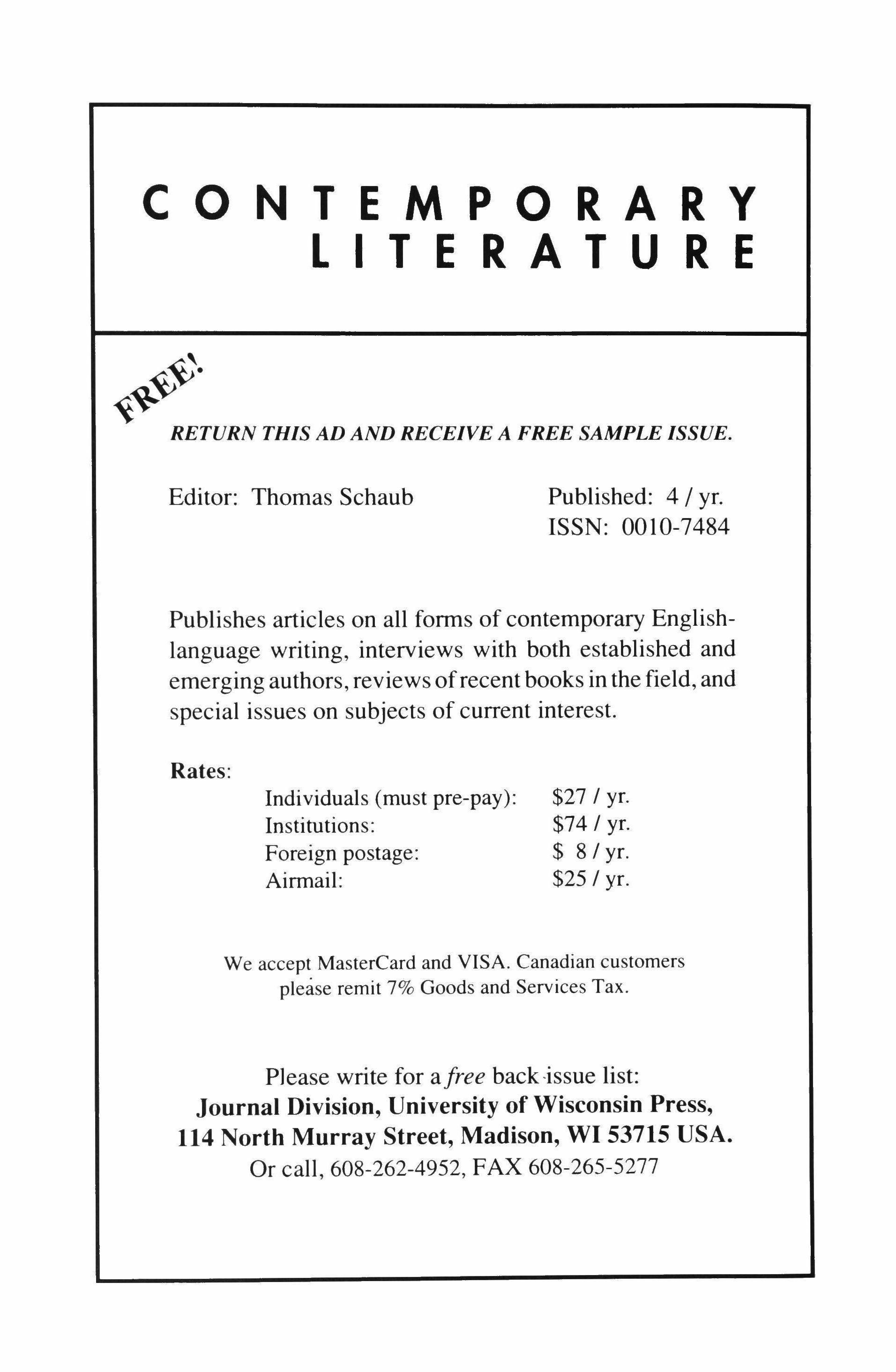
RETURN THIS AD AND RECEIVE A FREE SAMPLE ISSUE.
Editor: Thomas Schaub
Published: 4 / yr.
ISSN: 0010-7484
Publishes articles on all forms of contemporary Englishlanguage writing, interviews with both established and emerging authors, reviews ofrecent books in the field, and special issues on subjects of current interest.
Rates:
Individuals (must pre-pay): Institutions: Foreign postage: Airmail:
$271 yr. $741 yr.
$ 81 yr. $251 yr.
We accept MasterCard and VISA. Canadian customers please remit 7% Goods and Services Tax.
Please write for e free back-issue list: Journal Division, University of Wisconsin Press, 114 North Murray Street, Madison, WI 53715 USA. Or call, 608-262-4952, FAX 608-265-5277
��.��
THE PROSE POEM:
AN INTERNATIONAL JOURNAL
Volume 6
Kim Addonizio
LAST GIFTS
They were gathered in the room next to the kitchen. where he had his hospital bed cranked up. A writer he had published brought him a long red boa and draped it around his neck; he looked like someone drowning. a small head floating on feathery waves. Someone else brought a pillow stitched with a picture of Elvis. with the words "King of Rock and Roll" across the top. There were red splotches on his arms. and his hand shook slightly when he poured water into the glass on his tray. A poet took a book off the crowded shelves. sat on the edge of the bed and read to him for a while. Someone accidentally stood on the oxygen hose; no one noticed until he began to cough. and there was some consternation. and then relieved laughter and joking. The pany grew more animated; people refilled their drinks. and everyone started talking at once. The poet flirted with a pretty red-haired graduate student. the wife went to the kitchen and brought back a big silver bowl of buttered popcorn and passed it around. For a few moments it seemed as though they had forgotten him. Then someone finished a story. someone else paused to think of the right word. and a silence opened and spread through the bnghtly lit room. The guests looked at each other; some had tears in their eyes. They turned to the bed. where the sick man sat smiling at them in his red boa. and he knew this was what it would be like when he was gone. And then he was.
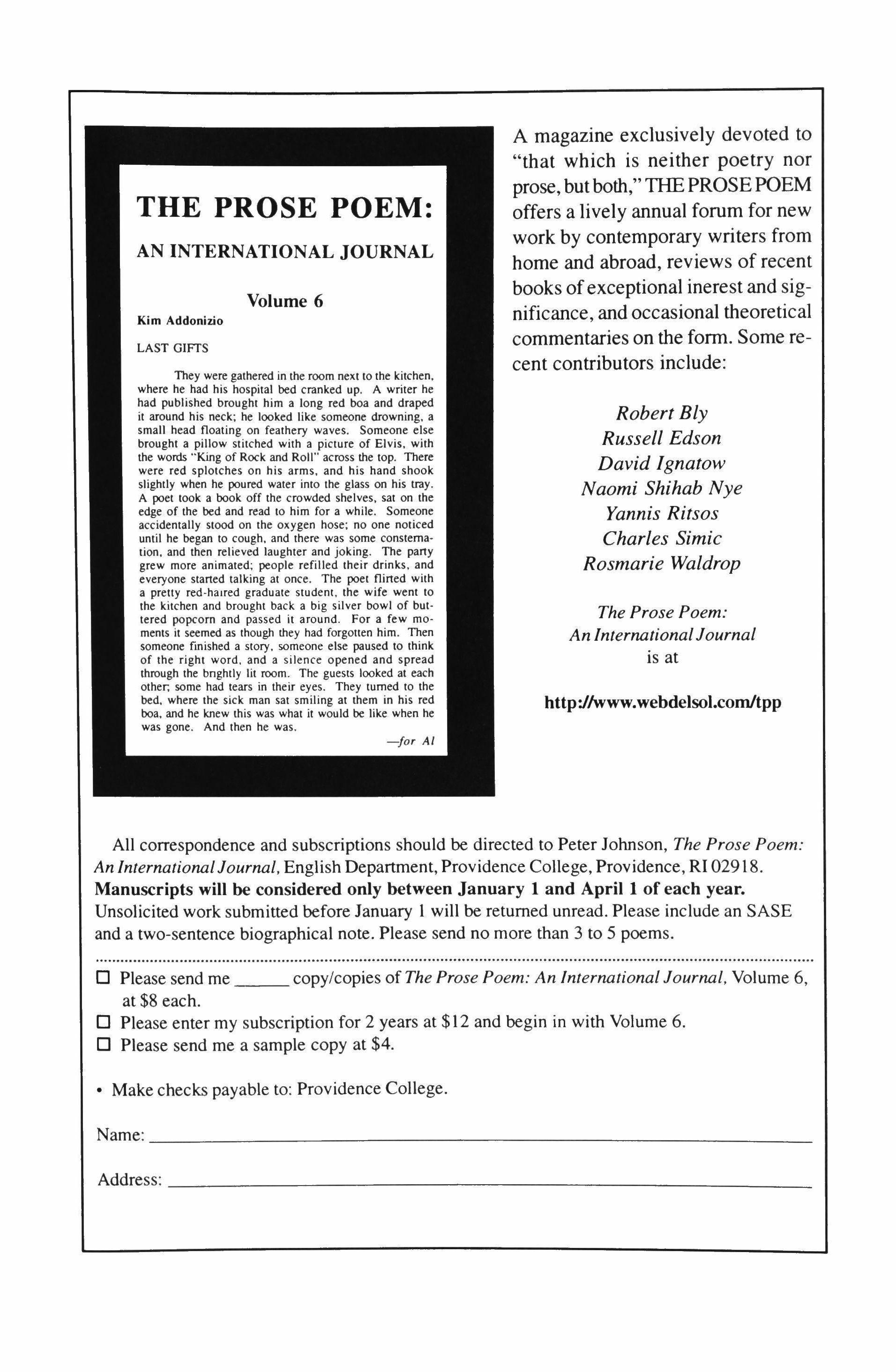
A magazine exclusively devoted to "that which is neither poetry nor prose, butboth," THE PROSE POEM offers a lively annual forum for new work by contemporary writers from home and abroad, reviews of recent books ofexceptional inerest and significance, and occasional theoretical commentaries on the form. Some recent contributors include:
Robert Bly
Russell Edson
David Ignatow
Naomi Shihab Nye
Yannis Ritsos
Charles Simic
Rosmarie Waldrop
The Prose Poem: An InternationalJournal is at http://www.webdelsol.com/tpp
All correspondence and subscriptions should be directed to Peter Johnson, The Prose Poem: An InternationalJournal. English Department, Providence College, Providence, RI 02918. Manuscripts will be considered only between January 1 and April 1 of each year.
Unsolicited work submitted before January 1 will be returned unread. Please include an SASE and a two-sentence biographical note. Please send no more than 3 to 5 poems.
o Please send me copy/copies of The Prose Poem: An International Journal. Volume 6, at $8 each.
o Please enter my subscription for 2 years at $12 and begin in with Volume 6.
o Please send me a sample copy at $4.
Make checks payable to: Providence College.
Name:
Address:
CHICAGO REVIEW
- POETS IN RECENT ISSUES -
Mark Halliday
Mekeel McBride
Ralph J. Mills, Jr.
Christian Bok
Pam Rehm
Fanny Howe
Peter Gizzi
Elizabeth Alexander
Susan Hahn
Norma Cole
Anne Carson
Carl Rakosi
Phillip Foss
Barbara Guest
Ron Padgett
Pamela Lu
Alice Notley
FORTHCOMING:
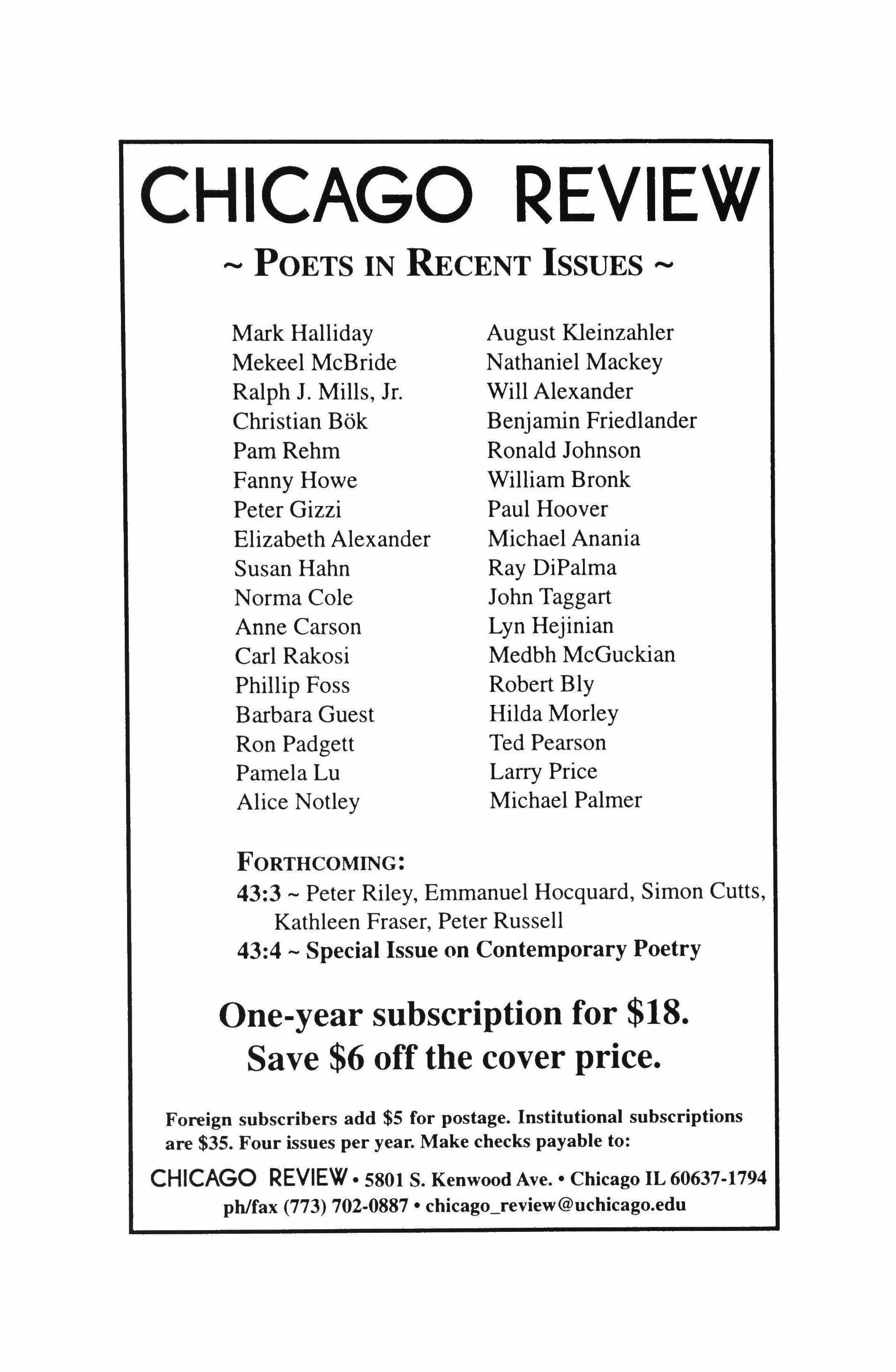
August Kleinzahler
Nathaniel Mackey
Will Alexander
Benjamin Friedlander
Ronald Johnson
William Bronk
Paul Hoover
Michael Anania
Ray DiPalma
John Taggart
Lyn Hejinian
Medbh McGuckian
Robert Bly
Hilda Morley
Ted Pearson
Larry Price
Michael Palmer
43:3 - Peter Riley, Emmanuel Hocquard, Simon Cutts, Kathleen Fraser, Peter Russell
43:4 - Special Issue on Contemporary Poetry
One-year subscription for $18. Save $6 off the cover price. Foreign subscribers add $5 for postage. Institutional subscriptions are $35. Four issues per year. Make checks payable to: CHICAGO REVIEW. 5801 S. Kenwood Ave. Chicago IL 60637-1794 ph/fax (773) 702-0887· chicago_review@uchicago.edu
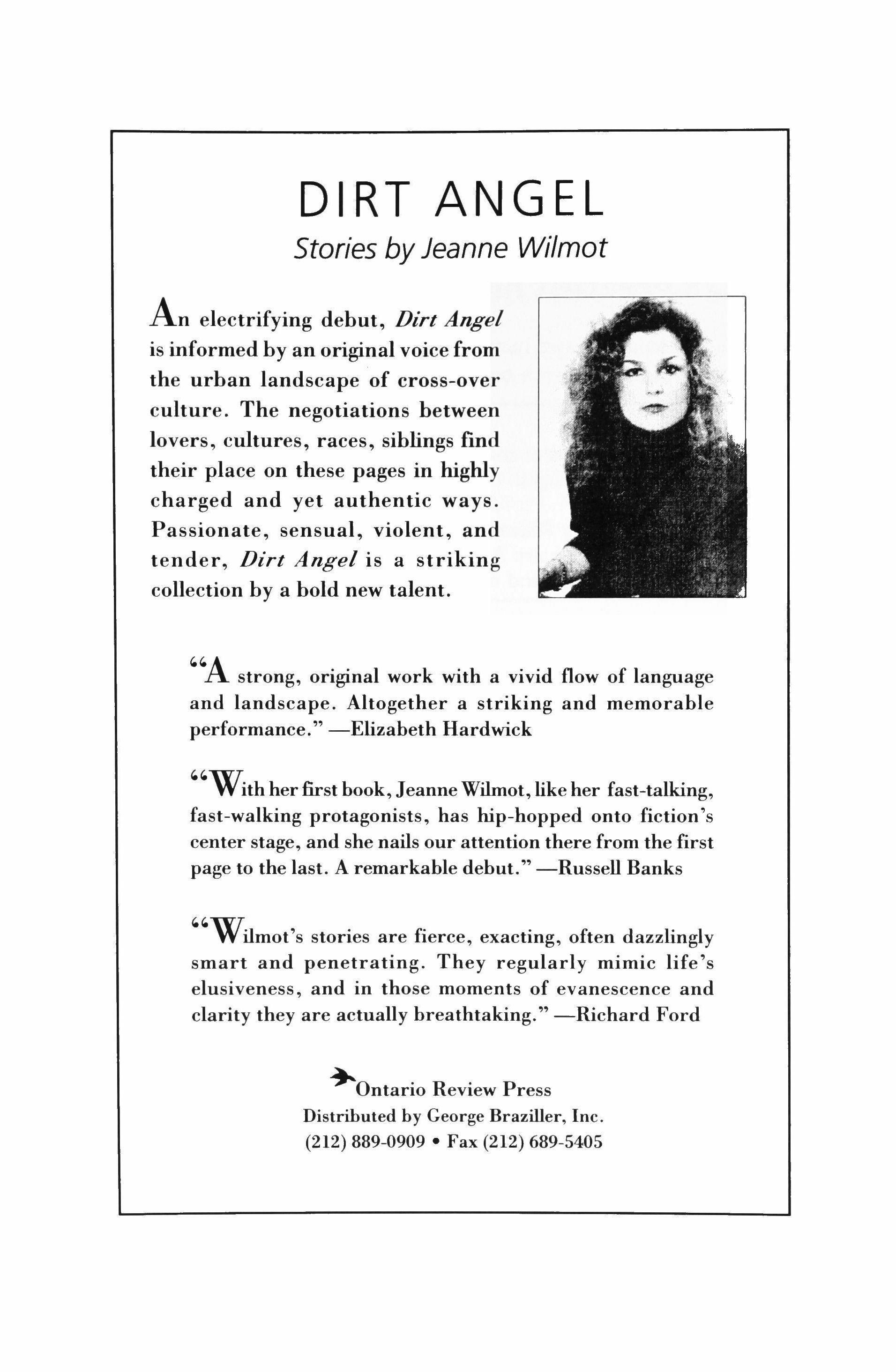
DIRT ANGEL
Stories by Jeanne Wilmot
An electrifying debut, Dirt Angel is informed by an original voice from the urban landscape of cross-over culture. The negotiations between lovers, cultures, races, siblings find their place on these pages in highly charged and yet authentic ways. Passionate, sensual, violent, and tender, Dirt Angel is a striking collection by a bold new talent.
"A J-l. strong, original work with a vivid flow of language and landscape. Altogether a striking and memorable performance." -Elizabeth Hardwick
"WT With her first book, Jeanne Wilmot, like her fast-talking, fast-walking protagonists, has hip-hopped onto fiction's center stage, and she nails our attention there from the first page to the last. A remarkable debut." -Russell Banks
"WT Wilmot's stories are fierce, exacting, often dazzlingly smart and penetrating. They regularly mimic life's elusiveness, and in those moments of evanescence and clarity they are actually breathtaking." -Richard Ford
�Ontario Review Press
Distributed by George Braziller, Inc. (212) 889-0909 Fax (212) 689-5405
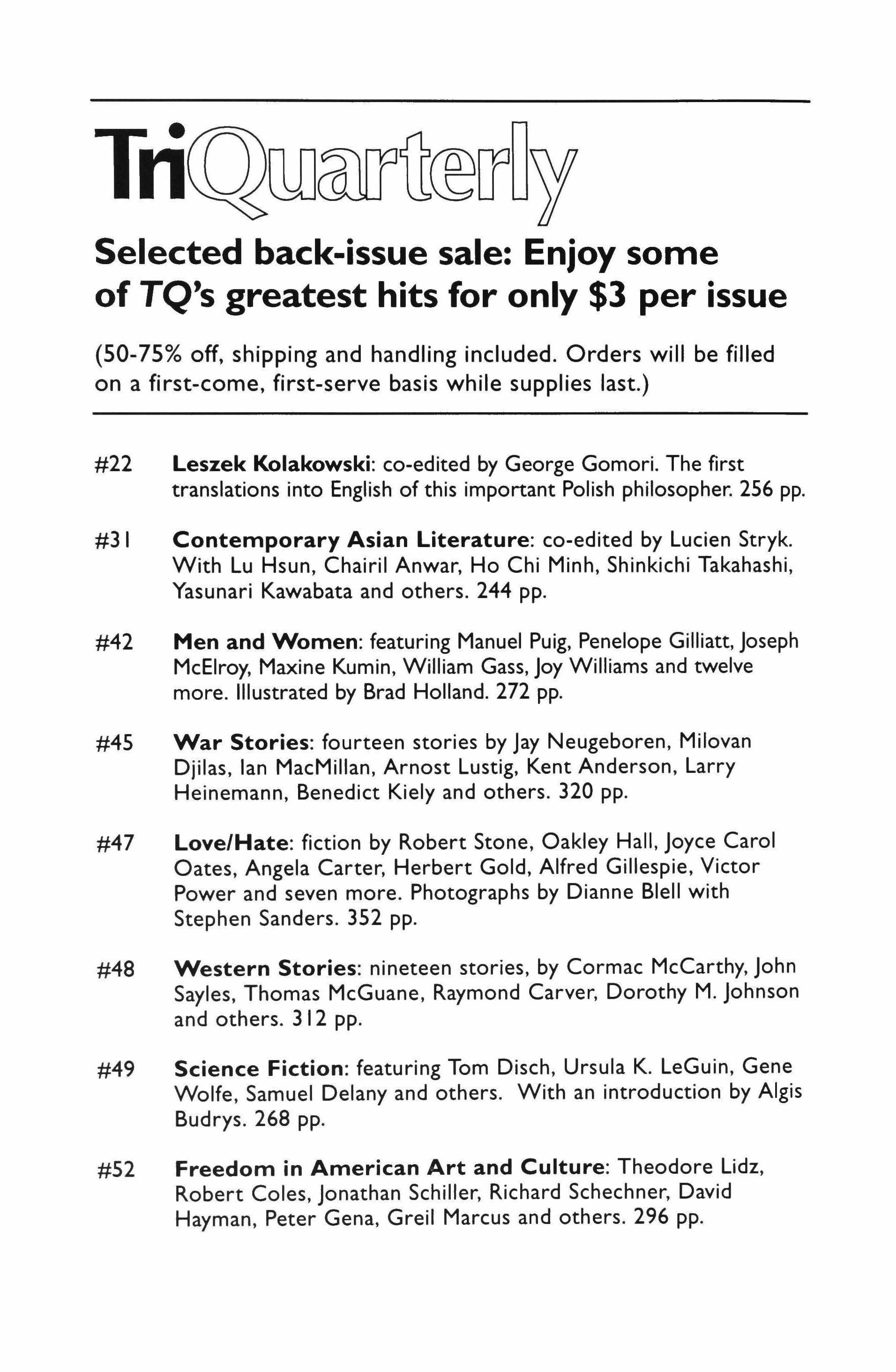
riC02lliJcaJ[f�®[[�)Y
Selected back-issue sale: Enjoy some of TQ's greatest hits for only $3 per issue
(50-75% off, shipping and handling included. Orders will be filled on a first-come, first-serve basis while supplies last.)
#22 Leszek Kolakowski: co-edited by George Gomori. The first translations into English of this important Polish philosopher. 256 pp.
#3 I Contemporary Asian Literature: co-edited by Lucien Stryk. With Lu Hsun, Chairil Anwar, Ho Chi Minh, Shinkichi Takahashi, Yasunari Kawabata and others. 244 pp.
#42 Men and Women: featuring Manuel Puig, Penelope Gilliatt, Joseph McElroy, Maxine Kumin, William Gass, Joy Williams and twelve more. Illustrated by Brad Holland. 272 pp.
#45 War Stories: fourteen stories by Jay Neugeboren, Milovan Djilas, Ian MacMillan, Arnost Lustig, Kent Anderson, Larry Heinemann, Benedict Kiely and others. 320 pp.
#47 Love/Hate: fiction by Robert Stone, Oakley Hall, Joyce Carol Oates, Angela Carter, Herbert Gold, Alfred Gillespie, Victor Power and seven more. Photographs by Dianne Bleil with Stephen Sanders. 352 pp.
#48 Western Stories: nineteen stories, by Cormac McCarthy, John Sayles, Thomas McGuane, Raymond Carver, Dorothy M. Johnson and others. 3 12 pp.
#49 Science Fiction: featuring Tom Disch, Ursula K. LeGuin, Gene Wolfe, Samuel Delany and others. With an introduction by Algis Budrys. 268 pp.
#52 Freedom in American Art and Culture: Theodore Lidz, Robert Coles, Jonathan Schiller, Richard Schechner, David Hayman, Peter Gena, Greil Marcus and others. 296 pp.
T
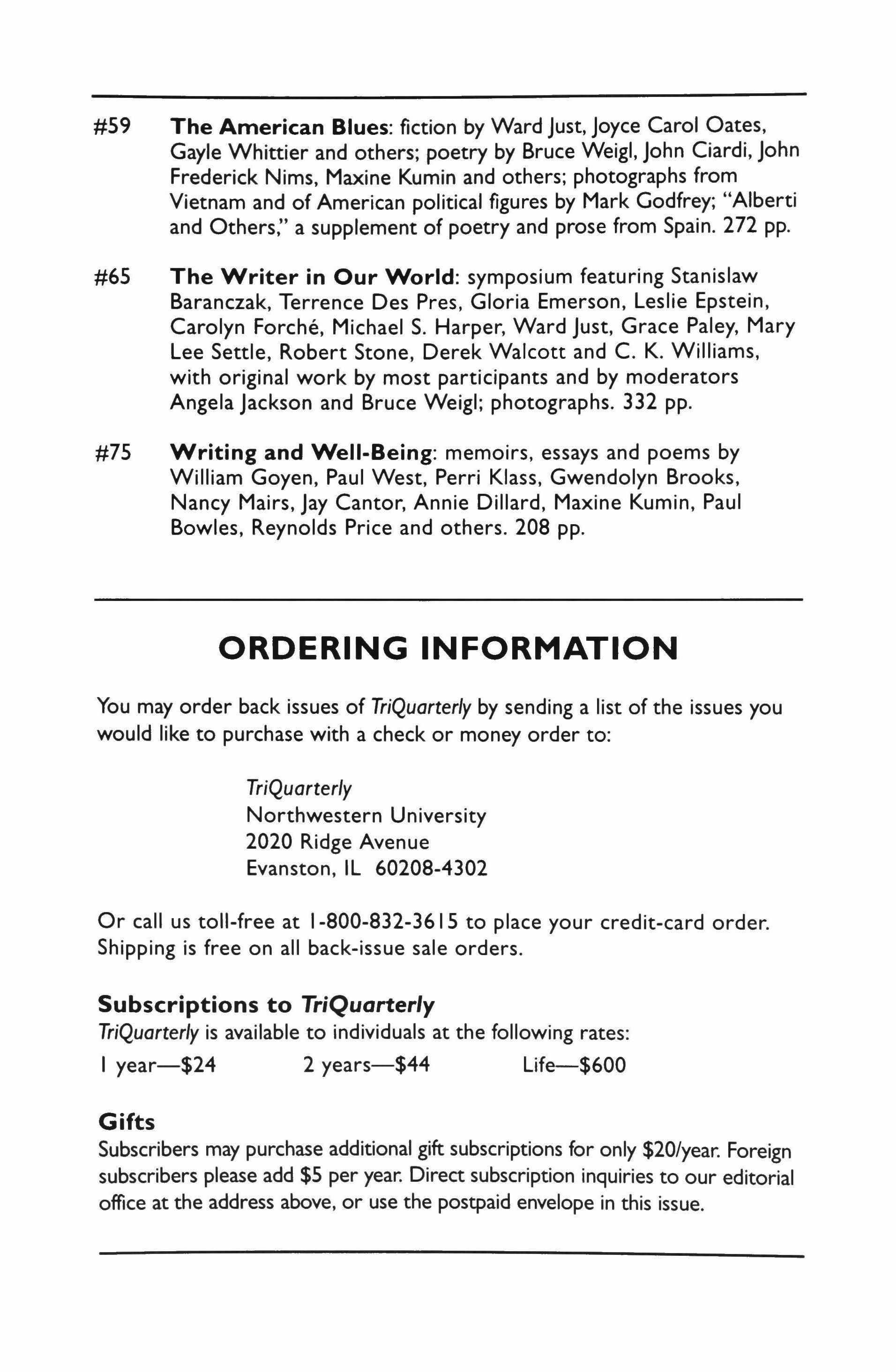
#59 The American Blues: fiction by Ward just, joyce Carol Oates, Gayle Whittier and others; poetry by Bruce Weigl, john Ciardi, john Frederick Nims, Maxine Kumin and others; photographs from Vietnam and of American political figures by Mark Godfrey; "Alberti and Others:' a supplement of poetry and prose from Spain. 272 pp.
#65 The Writer in Our World: symposium featuring Stanislaw Baranczak, Terrence Des Pres, Gloria Emerson, Leslie Epstein, Carolyn Forche, Michael S. Harper, Ward just, Grace Paley, Mary Lee Settle, Robert Stone, Derek Walcott and C. K. Williams, with original work by most participants and by moderators Angela jackson and Bruce Weigl; photographs. 332 pp.
#75 Writing and Well-Being: memoirs, essays and poems by William Goyen, Paul West, Perri Klass, Gwendolyn Brooks, Nancy Mairs, jay Cantor, Annie Dillard, Maxine Kumin, Paul Bowles, Reynolds Price and others. 208 pp.
ORDERING INFORMATION
You may order back issues of TriQuarterly by sending a list of the issues you would like to purchase with a check or money order to:
TriQuarterly
Northwestern University 2020 Ridge Avenue Evanston, IL 60208-4302
Or call us toll-free at 1-800-832-3615 to place your credit-card order. Shipping is free on all back-issue sale orders.
Subscriptions to TriQuarterly
TriQuarterly is available to individuals at the following rates:
Gifts
Subscribers may purchase additional gift subscriptions for only $20/year. Foreign subscribers please add $5 per year. Direct subscription inquiries to our editorial office at the address above, or use the postpaid envelope in this issue.
I year-$24 2 years-$44 Life-$600

� SARABANDE BOOKS �
The Mary McCarthy Prize in Short Fiction
$2,000 and publication of a collection of short stories or novellas Judge: Stuart Dybek
The Kathryn A. Morton Prize in Poetry
$2,000 and publication of a full-length volume of poetry Judge: Marilyn Hacker
Winners will also receive a standard royalty contract. Manuscripts must be postmarked between January 1 and February 15. 1998. Handling fee: $15. For complete contest guidelines and required entry form, please send a business-size SASE by February 1, 1998 ro: Sarabande Books. Inc. 2234 Dundee Road, Suite 200 Louisville, Kentucky 40205
All finalists will be considered for publication.
�
announces �
This Publication is available in Microform. University Microfilms International Please vend addinonai mtormunon '<>rT� Namc lnvututiun S[rco'-C"y Slate Zip 300 North Zeeb Road Dept. P.R. Ann Arbor. Mi. -l8106
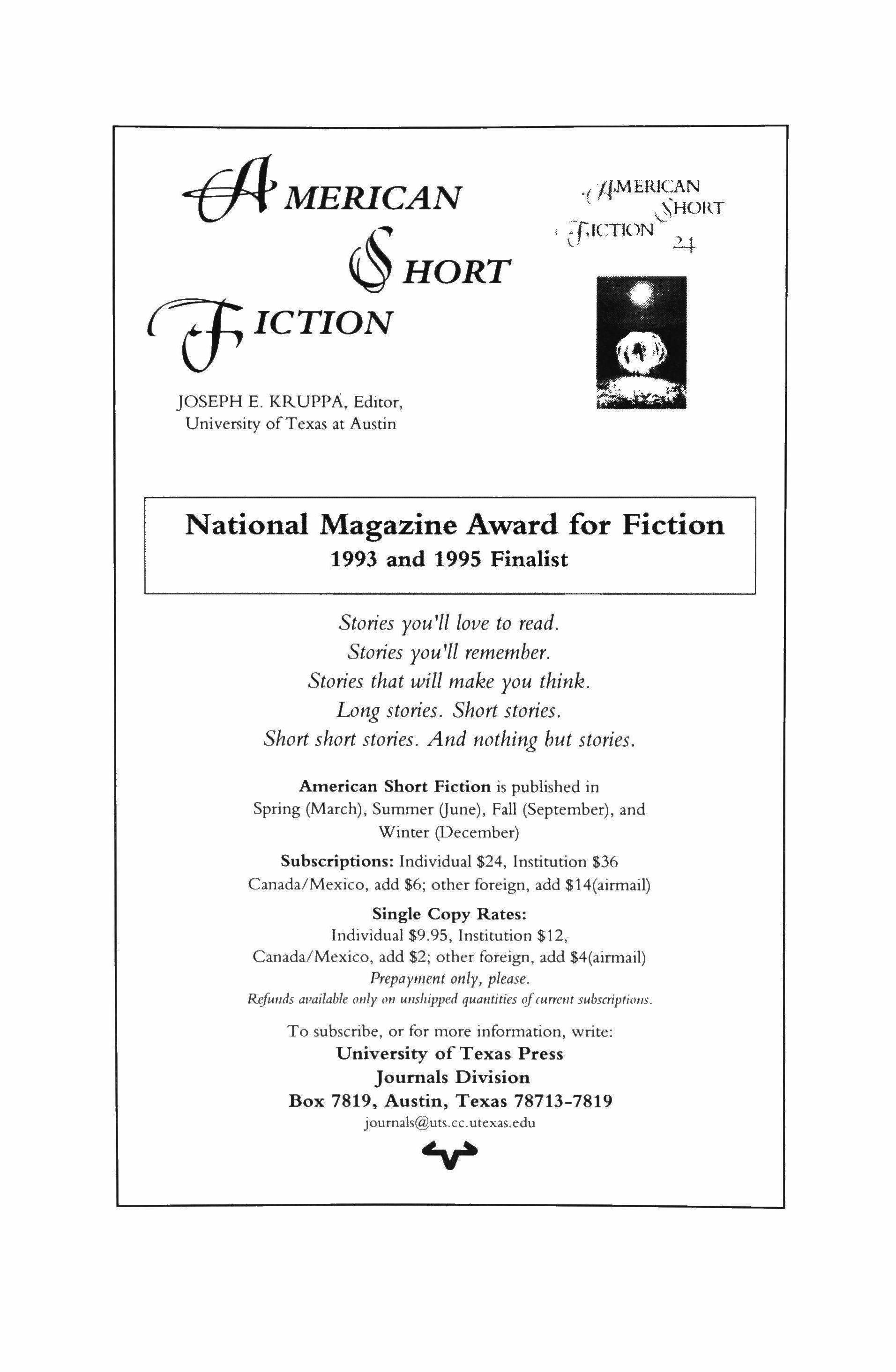
�MERICAN �HORT £(FICTION
JOSEPH E. KRUPpA, Editor, University ofTexas at Austin
National Magazine Award for Fiction
1993 and 1995 Finalist
Stories you'll love to read. Stories you'll remember. Stories that will make you think. Long stories. Short stories. Short short stories. And nothing but stories.
American Short Fiction is published in Spring (March), Summer (june), Fall (September), and Winter (December)
Subscriptions: Individual $24, Institution $36 Canada/Mexico, add $6; other foreign, add $14(airmail)
Single Copy Rates: Individual $9.95, Institution $12, Canada/Mexico, add $2; other foreign, add $4(airmail) Prepayment only, please.
Rejunds available otlly (ltl unshipped quantities ofcurrent subscriptions.
To subscribe, or for more information, write: University of Texas Press Journals Division Box 7819. Austin. Texas 78713-7819 joumals@uts.cc.utexas.edu
"I,M EHICAN -! i ,�HORT - \., .J,ICTION \.1' 2.+
TriQuarterly thanks the following past donors and life subscribers:
David C. Abercrombie
Mr. and Mrs. Walter 1. Adams
Amin Alimard
Lois Ames
Richard H. Anderson
Roger K. Anderson
Sandy Anderson
I. N. C. Aniebo
Anonymous
University of Arizona Poetry Center
Gayle Arnzen
Michael Attas
Asa Baber
Hadassah Baskin
Tom G. Bell
Sandra Berris
Simon J. Blattner, Jr.
Mr. and Mrs. Andrew K. Block
Louise Blosten
Carol Bly
Susan DeWitt Bodemer
Kay Bonetti
Robert Boruch
Mr. and Mrs. Richard S. Brennan
Van K. Brock
Gwendolyn Brooks
Timothy Browne
Paul Bundy
Eric O. Cahn
David Cassak
Stephen Chapman
Anthony Chase
Michael Chwe
Willard Cook
Mr. and Mrs. William Cottle
Robert A. Creamer
Andrew Cyr
Doreen Davie
Kenneth Day
Mark W. DeBree
Elizabeth Des Pres
Anstiss Drake
J. A. Dufresne
Mr. and Mrs. Donald Egan
John B. Elliott
Christopher English
Carol Erickson
Steven Finch
David R. Fine
Mr. and Mrs. H. Bernard Firestone
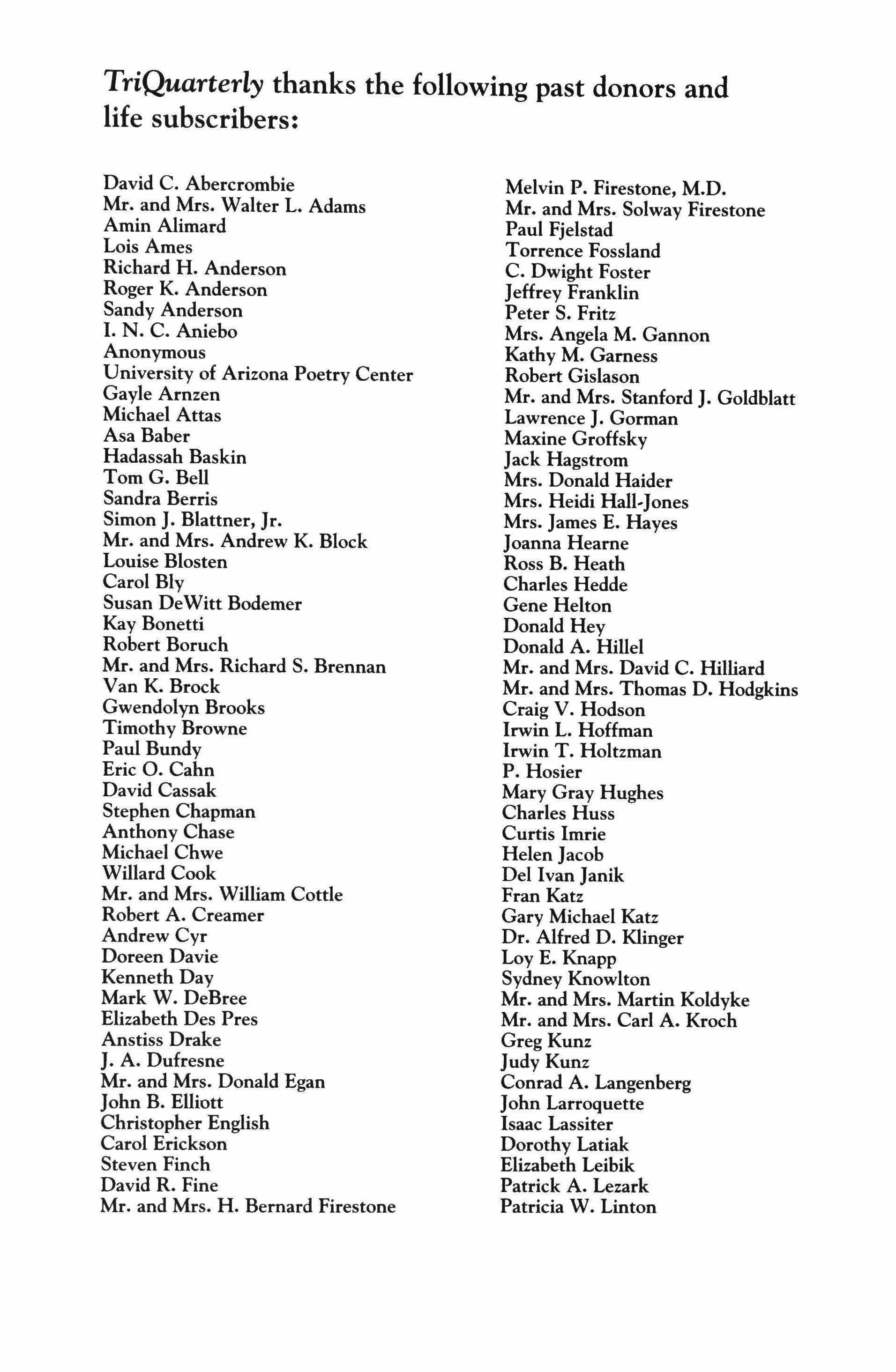
Melvin P. Firestone, M.D.
Mr. and Mrs. Solway Firestone
Paul Fjelstad
Torrence Fossland
C. Dwight Foster
Jeffrey Franklin
Peter S. Fritz
Mrs. Angela M. Gannon
Kathy M. Garness
Robert Gislason
Mr. and Mrs. Stanford J. Goldblatt
Lawrence J. Gorman
Maxine Groffsky
Jack Hagstrom
Mrs. Donald Haider
Mrs. Heidi Hall.Jones
Mrs. James E. Hayes
Joanna Hearne
Ross B. Heath
Charles Hedde
Gene Helton
Donald Hey
Donald A. Hillel
Mr. and Mrs. David C. Hilliard
Mr. and Mrs. Thomas D. Hodgkins
Craig V. Hodson
Irwin 1. Hoffman
Irwin T. Holtzman
P. Hosier
Mary Gray Hughes
Charles Huss
Curtis Imrie
Helen Jacob
Del Ivan Janik
Fran Katz
Gary Michael Katz
Dr. Alfred D. Klinger
Loy E. Knapp
Sydney Knowlton
Mr. and Mrs. Martin Koldyke
Mr. and Mrs. Carl A. Kroch
Greg Kunz
Judy Kunz
Conrad A. Langenberg
John Larroquette
Isaac Lassiter
Dorothy Latiak
Elizabeth Leibik
Patrick A. Lezark
Patricia W. Linton
David C. Abercrombie
Mr. and Mrs. Walter L. Adams
Amin Alimard
Lois Ames
Richard H. Anderson
Roger K. Anderson
Sandy Anderson
I. N. C. Aniebo
Anonymous
University of Arizona Poetry Center
Gayle Arnzen
Michael Attas
Asa Baber
Hadassah Baskin
Tom G. Bell
Sandra Berris
Simon J. Blattner, Jr.
Mr. and Mrs. Andrew K. Block
Louise Blosten
Carol Bly
Susan DeWitt Bodemer
Kay Bonetti
Robert Boruch
Mr. and Mrs. Richard S. Brennan
Van K. Brock
Gwendolyn Brooks
Timothy Browne
Paul Bundy
Eric O. Cahn
David Cassak
Stephen Chapman
Anthony Chase
Michael Chwe
Willard Cook
Mr. and Mrs. William Cottle
Robert A. Creamer
Andrew Cyr
Doreen Davie
Kenneth Day
Mark W. DeBree
Elizabeth Des Pres
Anstiss Drake
J. A. Dufresne
Mr. and Mrs. Donald Egan
John B. Elliott
Christopher English
Carol Erickson
Steven Finch
David R. Fine
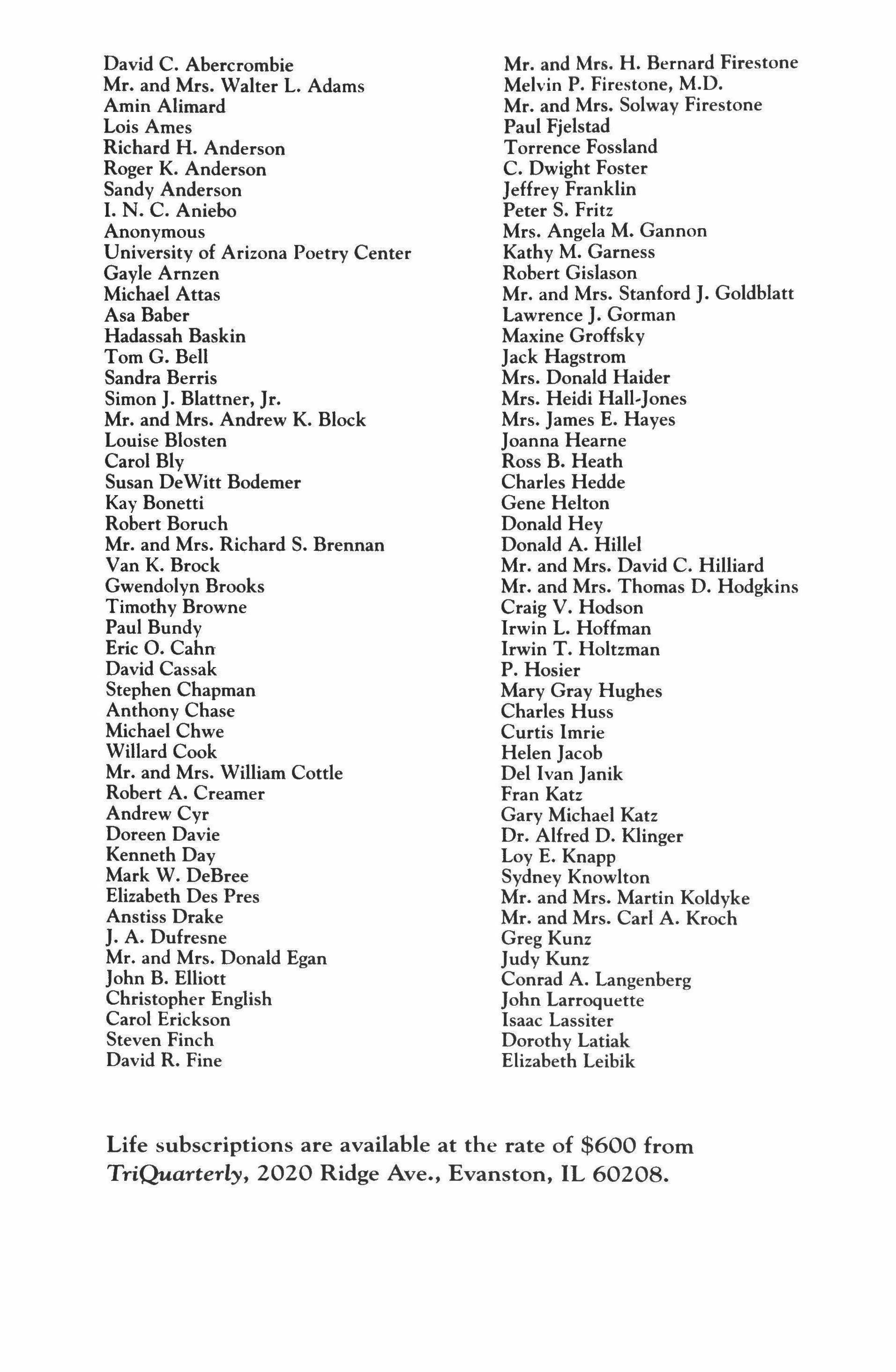
Mr. and Mrs. H. Bernard Firestone
Melvin P. Firestone, M.D.
Mr. and Mrs. Solway Firestone
Paul Fjelstad
Torrence Fossland
C. Dwight Foster
Jeffrey Franklin
Peter S. Fritz
Mrs. Angela M. Gannon
Kathy M. Garness
Robert Gislason
Mr. and Mrs. Stanford J. Goldblatt
Lawrence J. Gorman
Maxine Groffsky
Jack Hagstrom
Mrs. Donald Haider
Mrs. Heidi Hall-Jones
Mrs. James E. Hayes
Joanna Hearne
Ross B. Heath
Charles Hedde
Gene Helton
Donald Hey
Donald A. Hillel
Mr. and Mrs. David C. Hilliard
Mr. and Mrs. Thomas D. Hodgkins
Craig V. Hodson
Irwin L. Hoffman
Irwin T. Holtzman
P. Hosier
Mary Gray Hughes
Charles Huss
Curtis Imrie
Helen Jacob
Del Ivan Janik
Fran Katz
Gary Michael Katz
Dr. Alfred D. Klinger
Loy E. Knapp
Sydney Knowlton
Mr. and Mrs. Martin Koldyke
Mr. and Mrs. Carl A. Kroch
Greg Kunz
Judy Kunz
Conrad A. Langenberg
John Larroquette
Isaac Lassiter
Dorothy Latiak
Elizabeth Leibik
Life subscriptions are available at the rate of $600 from TriQuarterly, 2020 Ridge Ave., Evanston. IL 60208.
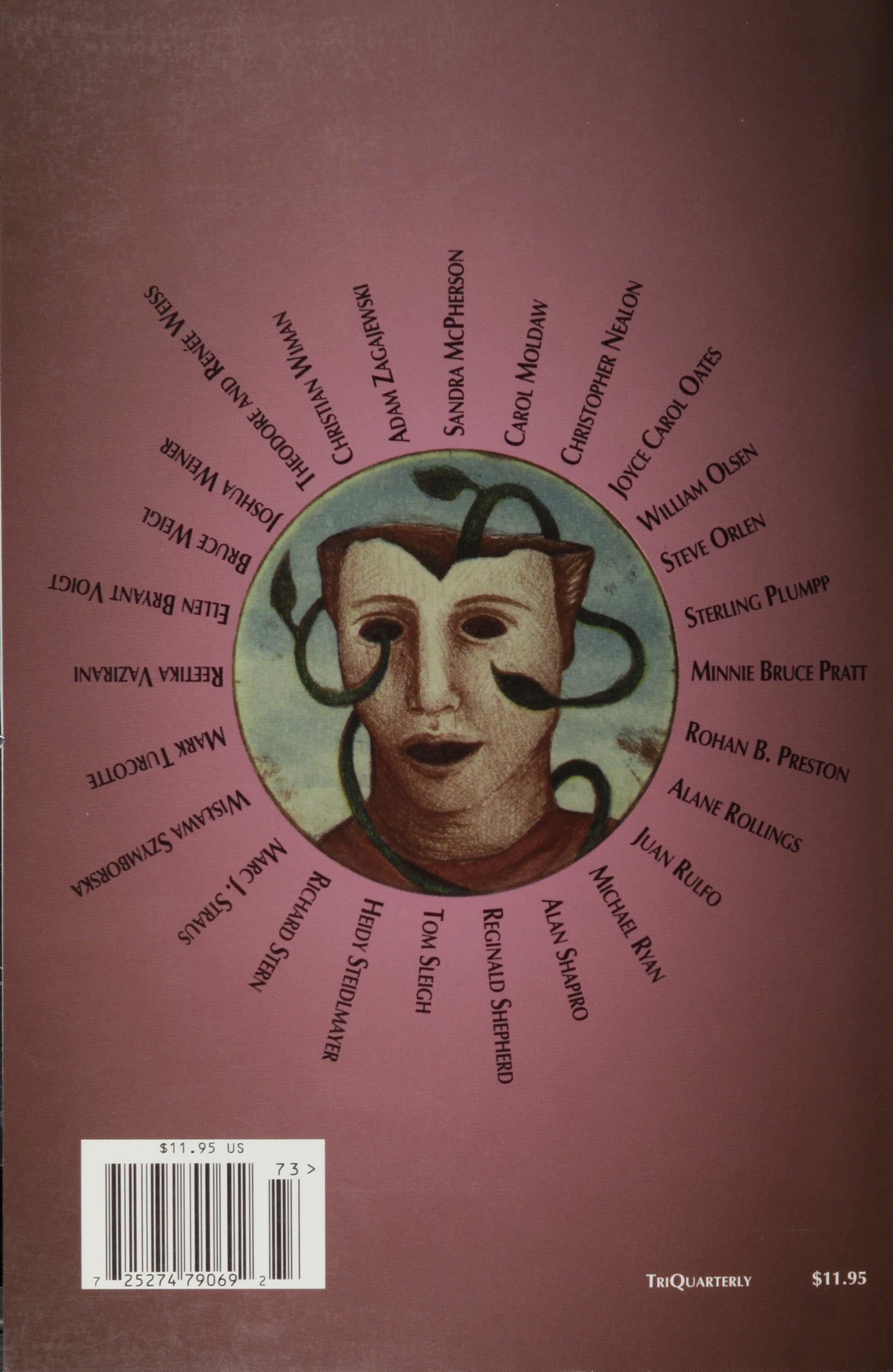
 CARL DENNIS
CARL DENNIS































 for Sterling Plumpp
for Sterling Plumpp























































































































 for Fred Anderson
for Fred Anderson











































 for Susan Stewart
for Susan Stewart























 for Ezra Cole
for Ezra Cole







































































































































